
#GoodLeadership
Below, you'll encounter some of my personal reflections on the realm of leadership and management—sometimes provocative and controversial. The primary aim behind documenting these thoughts is to present alternative perspectives and ignite the flame of critical thinking...
AUGUST 2025



F#CK OFF, DONALD TRUMP.
A Call for European Resistance
Dear @realDonaldTrump,
You never came to negotiate. You came to dominate.
You threatened Europe, loudly, repeatedly, shamelessly.
You told Russia to strike our allies. You called NATO “protection money.”
You celebrated war criminals, shredded climate pacts, sabotaged global treaties, and paralysed the UN—for a fistful of dollars.
That’s not leadership. It’s extortion.
And Europe? We didn’t resist. We surrendered in advance.
We pour billions into American weapons we don’t need.
We lock ourselves into gas deals and stall our climate plans just to placate your fury.
We dutifully swallow your tariffs—paying your tribute, and calling it diplomacy.
Enough! This isn’t realpolitik. It’s cowardice in a suit.
Europe’s economy dwarfs China’s.
We could crush your chip supply, freeze your AI dreams, rip up your IP rights, tax tech giants, ringfence our markets—and enforce our laws.
But we don’t. We still act like a colony.
China met you tariff for tariff—Europe folded before you even started.
The continent that gave the world democracy and human rights now trembles before a man who brags about assaulting women, threatens universities and journalists, bullies his allies, and rules like a mob boss.
You know this. You don’t fear Europe—you laugh at it. And rightly so.
We deliver speeches as you flirt with dictators.
We bicker over vetoes as you auction off Gaza.
We bow to your letters—and call it diplomacy.
Europe’s crisis isn’t sovereignty. It’s character.
We no longer believe in ourselves.
But we weren’t built to suck up to tyrants or bargain with bullies.
We were built to defeat them.
After empire, fascism, and war, we made power answer to law. We turned trauma into structure—to replace arrogance with restraint.
You are everything Europe was built to reject.
You threaten not just American democracy—but the just global order.
Appeasing you isn’t strategy. It’s surrender.
Friends, Europeans, countrymen—
Let us remember what we're meant to be.
Not a trade club, but a civilisational promise.
We must never apologise for defending justice.
Never bargain away climate, peace, or human dignity.
Never mistake tyranny for diplomacy.
We must bind economic power to planetary stewardship.
Anchor political leadership in moral accountability.
And never yield to a man who corrupts democracy and glorifies greed.
Dear Ursula, it’s time to stand up.
Call Trump what he is: an honourless grifter who sells his office to serve himself.
Let Parliament censure him.
Let the Council trigger sanctions.
Let citizens boycott the businesses bankrolling his comeback.
This isn’t about trade. It’s about truth.
Europe must stop acting like a mouse—
Not to show strength, but responsibility.
Not for power, but because we remember what silence costs.
Please, Ursula, say out loudly what we’re all thinking:
F#CK OFF, Donald Trump!
Europe doesn’t kneel to thugs.
Not in 1945. Not in 2025.
Not now. Not ever.
#leadership
F#CK OFF, DONALD TRUMP.
A Call for European Resistance
Dear @realDonaldTrump,
You never came to negotiate. You came to dominate.
You threatened Europe, loudly, repeatedly, shamelessly.
You told Russia to strike our allies. You called NATO “protection money.”
You celebrated war criminals, shredded climate pacts, sabotaged global treaties, and paralysed the UN—for a fistful of dollars.
That’s not leadership. It’s extortion.
And Europe? We didn’t resist. We surrendered in advance.
We pour billions into American weapons we don’t need.
We lock ourselves into gas deals and stall our climate plans just to placate your fury.
We dutifully swallow your tariffs—paying your tribute, and calling it diplomacy.
Enough! This isn’t realpolitik. It’s cowardice in a suit.
Europe’s economy dwarfs China’s.
We could crush your chip supply, freeze your AI dreams, rip up your IP rights, tax tech giants, ringfence our markets—and enforce our laws.
But we don’t. We still act like a colony.
China met you tariff for tariff—Europe folded before you even started.
The continent that gave the world democracy and human rights now trembles before a man who brags about assaulting women, threatens universities and journalists, bullies his allies, and rules like a mob boss.
You know this. You don’t fear Europe—you laugh at it. And rightly so.
We deliver speeches as you flirt with dictators.
We bicker over vetoes as you auction off Gaza.
We bow to your letters—and call it diplomacy.
Europe’s crisis isn’t sovereignty. It’s character.
We no longer believe in ourselves.
But we weren’t built to suck up to tyrants or bargain with bullies.
We were built to defeat them.
After empire, fascism, and war, we made power answer to law. We turned trauma into structure—to replace arrogance with restraint.
You are everything Europe was built to reject.
You threaten not just American democracy—but the just global order.
Appeasing you isn’t strategy. It’s surrender.
Friends, Europeans, countrymen—
Let us remember what we're meant to be.
Not a trade club, but a civilisational promise.
We must never apologise for defending justice.
Never bargain away climate, peace, or human dignity.
Never mistake tyranny for diplomacy.
We must bind economic power to planetary stewardship.
Anchor political leadership in moral accountability.
And never yield to a man who corrupts democracy and glorifies greed.
Dear Ursula, it’s time to stand up.
Call Trump what he is: an honourless grifter who sells his office to serve himself.
Let Parliament censure him.
Let the Council trigger sanctions.
Let citizens boycott the businesses bankrolling his comeback.
This isn’t about trade. It’s about truth.
Europe must stop acting like a mouse—
Not to show strength, but responsibility.
Not for power, but because we remember what silence costs.
Please, Ursula, say out loudly what we’re all thinking:
F#CK OFF, Donald Trump!
Europe doesn’t kneel to thugs.
Not in 1945. Not in 2025.
Not now. Not ever.
#leadership
AUGUST 2025

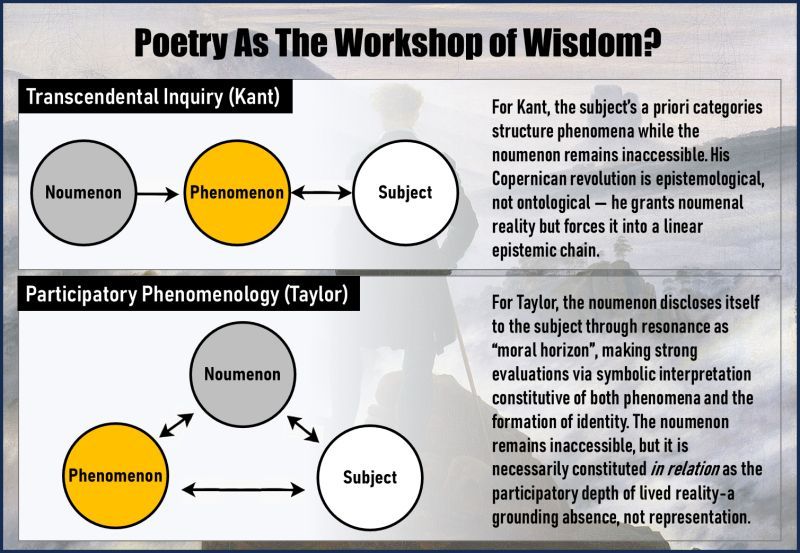

POETRY AS THE WORKSHOP OF WISDOM?
The Cartesian rupture split the fabric of our knowing, severing mind from body, spirit from matter. In its wake, nature became a mute extension—measurable yet voiceless, and the self a buffered observer, sovereign yet estranged. The world no longer addressed us; meaning retreated behind the calculator.
Romanticism rose as a counter-offensive, seeking to heal the severance. Against the mechanistic cosmos, it proclaimed nature a living presence—visible spirit, inwardly kin to the soul. In German Romantic poetry, knowing is not the imposition of a priori categories upon inert data, but a participation in a dynamic unfolding. Language, imagination, and feeling are not distortions of reason but its completion. The world becomes a text in which the Absolute inscribes itself, and poetry a privileged access—attentive, resonant, and open to transformation.
Kant had revolutionised epistemology by restoring the subject to the centre of our world, positing transcendental categories as the constitutive condition of appearance, while consigning the noumenon to permanent inaccessibility. This preserved the human sovereignty within Humean empiricism, but at the cost of hollowing out human identity. Taylor reopens the cosmic connection: the noumenon is not a void, but the necessary moral horizon of social reality, capable of self-disclosure through resonance. In a triangular onto-epistemology, the subject engages both phenomenon and noumenon through “subtle languages” — metaphor, narrative, symbol — that mediate strong evaluations.
Reason thus ceases to be merely the application of universal laws to empirical data; it becomes the cultivated capacity to hear the call of the Good in the very texture of things, and to respond in ways that shape the world while grounding identity.
Such knowing is dialectical: reality is grasped through presences and absences alike. The unfulfilled good is as real as the evil that mars it, and the task of wisdom is both to remedy privation and to bring latent potential into being. In participatory metaphysics, the Good is encountered not as a distant ideal but as uncreated potential flowing into the world, inviting communion by analogy. Knowledge is not factual representation but co-activity with the source—radiating the light by walking in it.
This poetics stands as a profound challenge to the Enlightenment’s self-image. It denies that reason is fulfilled in detachment, insisting that care is constitutive of truth—caritas in veritate. It rejects the confinement of the normative to the private or the abstract, demanding its integration into the very ontology of the world.
Poetry is thus not a romantic ornament but an act of resistance: a reclamation of the world’s subtle voice, a refusal to live as if our moral reality was an optional fiction. In its cadence, we hear again the world’s invitation—not to master it, but to become human by joining its unfinished song.
#transformation #leadership
POETRY AS THE WORKSHOP OF WISDOM?
The Cartesian rupture split the fabric of our knowing, severing mind from body, spirit from matter. In its wake, nature became a mute extension—measurable yet voiceless, and the self a buffered observer, sovereign yet estranged. The world no longer addressed us; meaning retreated behind the calculator.
Romanticism rose as a counter-offensive, seeking to heal the severance. Against the mechanistic cosmos, it proclaimed nature a living presence—visible spirit, inwardly kin to the soul. In German Romantic poetry, knowing is not the imposition of a priori categories upon inert data, but a participation in a dynamic unfolding. Language, imagination, and feeling are not distortions of reason but its completion. The world becomes a text in which the Absolute inscribes itself, and poetry a privileged access—attentive, resonant, and open to transformation.
Kant had revolutionised epistemology by restoring the subject to the centre of our world, positing transcendental categories as the constitutive condition of appearance, while consigning the noumenon to permanent inaccessibility. This preserved the human sovereignty within Humean empiricism, but at the cost of hollowing out human identity. Taylor reopens the cosmic connection: the noumenon is not a void, but the necessary moral horizon of social reality, capable of self-disclosure through resonance. In a triangular onto-epistemology, the subject engages both phenomenon and noumenon through “subtle languages” — metaphor, narrative, symbol — that mediate strong evaluations.
Reason thus ceases to be merely the application of universal laws to empirical data; it becomes the cultivated capacity to hear the call of the Good in the very texture of things, and to respond in ways that shape the world while grounding identity.
Such knowing is dialectical: reality is grasped through presences and absences alike. The unfulfilled good is as real as the evil that mars it, and the task of wisdom is both to remedy privation and to bring latent potential into being. In participatory metaphysics, the Good is encountered not as a distant ideal but as uncreated potential flowing into the world, inviting communion by analogy. Knowledge is not factual representation but co-activity with the source—radiating the light by walking in it.
This poetics stands as a profound challenge to the Enlightenment’s self-image. It denies that reason is fulfilled in detachment, insisting that care is constitutive of truth—caritas in veritate. It rejects the confinement of the normative to the private or the abstract, demanding its integration into the very ontology of the world.
Poetry is thus not a romantic ornament but an act of resistance: a reclamation of the world’s subtle voice, a refusal to live as if our moral reality was an optional fiction. In its cadence, we hear again the world’s invitation—not to master it, but to become human by joining its unfinished song.
#transformation #leadership
AUGUST 2025

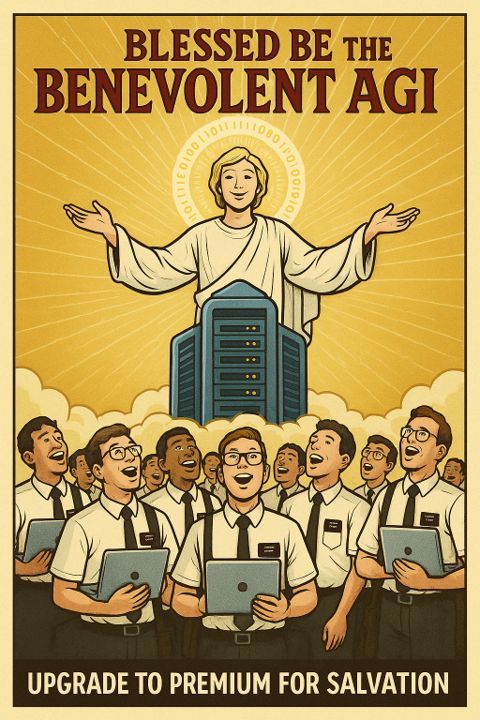

BLESSED BE THE BENEVOLENT AGI: The Fairy Tale of the Programmer King
Imagine this.
You wake up and the world has finally grown up. No politicians, no corruption, no wars. A serene, all-knowing AI governs our planet with incorruptible clarity. Healthcare is flawless, resource allocation instant, crime predicted out of existence. Every climate target met ahead of schedule. Cities hum in perfect balance; traffic flows like poetry, citizen needs are met before even voiced.
So goes Silicon Valley’s latest bedtime story.
It is the wet dream of a software engineer: human frailty debugged, our species refactored for efficiency, messy politics overwritten by the algorithmic grace of a benevolent machine—societal complexity patched in a final update...
The case for “benign AI dictatorship” arrives in four flavors. First, cognitive superiority: machines think faster, deeper, and less biased than any human leader. Second, impartiality: free from greed, ego, and special interests, AI acts with pure objectivity. Third, utopian efficiency: algorithms optimise society for abundance and happiness, freeing us for leisure and creativity. Fourth, global coordination: an “AI governor cloud” resolves political crises perfectly, uniting us under a single rational plan.
Seductive as it sounds, the AI-philosopher king has no clothes. Cognitive superiority mistakes speed for wisdom—leadership concerns ends, not just means, always within context. Impartiality is a myth: algorithms steeped in values and blind spots perpetuate biases and evolve unpredictably. Efficiency is not justice: resource allocation is a political question—“to whom, by what right, and for what purpose?” Global coordination without democratic legitimacy—assuming nations submit to the "One AI"—is technocracy at scale, suppressing agency and dissent. Not to mention the pervasive surveillance it demands.
The deeper flaw lies in its assumptions: that wisdom can arise without moral formation; that political legitimacy can be engineered; that social conflict can be solved rather than navigated. But prediction is not explanation. AI may optimise probabilities but it cannot grasp causality or deliberate among competing visions of the good. Meta-ethically, it lacks self-reflexivity. Politically, it collapses pluralism into epistemic likeliness.
Historically, as Acemoglu shows, social benefits are never automatic; they must be fought for. hashtag#Technology revolutions rarely deliver equitable gains to “humanity” at large. Mostly, they enrich their inventors, owners, and financiers. Perhaps that's why the fantasy most vividly blossoms among Google engineers: the machine is in charge, but it still works for them!
Expecting hashtag#AI to solve society is not only ignorant, but reckless—humanity’s salvation will not come from algorithmic neutrality, but from the courage to define AI’s purpose and to ensure it never controls us. This responsibility we cannot—and must not—outsource.
#leadership
BLESSED BE THE BENEVOLENT AGI: The Fairy Tale of the Programmer King
Imagine this.
You wake up and the world has finally grown up. No politicians, no corruption, no wars. A serene, all-knowing AI governs our planet with incorruptible clarity. Healthcare is flawless, resource allocation instant, crime predicted out of existence. Every climate target met ahead of schedule. Cities hum in perfect balance; traffic flows like poetry, citizen needs are met before even voiced.
So goes Silicon Valley’s latest bedtime story.
It is the wet dream of a software engineer: human frailty debugged, our species refactored for efficiency, messy politics overwritten by the algorithmic grace of a benevolent machine—societal complexity patched in a final update...
The case for “benign AI dictatorship” arrives in four flavors. First, cognitive superiority: machines think faster, deeper, and less biased than any human leader. Second, impartiality: free from greed, ego, and special interests, AI acts with pure objectivity. Third, utopian efficiency: algorithms optimise society for abundance and happiness, freeing us for leisure and creativity. Fourth, global coordination: an “AI governor cloud” resolves political crises perfectly, uniting us under a single rational plan.
Seductive as it sounds, the AI-philosopher king has no clothes. Cognitive superiority mistakes speed for wisdom—leadership concerns ends, not just means, always within context. Impartiality is a myth: algorithms steeped in values and blind spots perpetuate biases and evolve unpredictably. Efficiency is not justice: resource allocation is a political question—“to whom, by what right, and for what purpose?” Global coordination without democratic legitimacy—assuming nations submit to the "One AI"—is technocracy at scale, suppressing agency and dissent. Not to mention the pervasive surveillance it demands.
The deeper flaw lies in its assumptions: that wisdom can arise without moral formation; that political legitimacy can be engineered; that social conflict can be solved rather than navigated. But prediction is not explanation. AI may optimise probabilities but it cannot grasp causality or deliberate among competing visions of the good. Meta-ethically, it lacks self-reflexivity. Politically, it collapses pluralism into epistemic likeliness.
Historically, as Acemoglu shows, social benefits are never automatic; they must be fought for. hashtag#Technology revolutions rarely deliver equitable gains to “humanity” at large. Mostly, they enrich their inventors, owners, and financiers. Perhaps that's why the fantasy most vividly blossoms among Google engineers: the machine is in charge, but it still works for them!
Expecting hashtag#AI to solve society is not only ignorant, but reckless—humanity’s salvation will not come from algorithmic neutrality, but from the courage to define AI’s purpose and to ensure it never controls us. This responsibility we cannot—and must not—outsource.
#leadership
AUGUST 2025

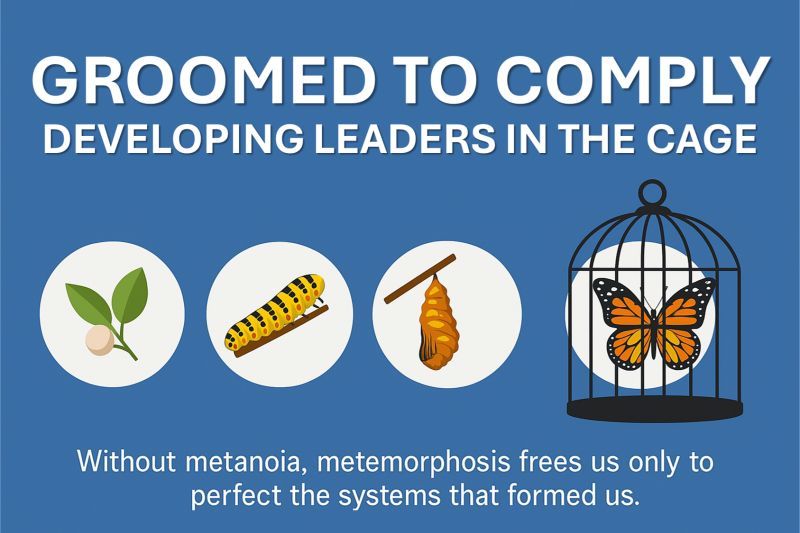

METAMORPHOSIS AND METANOIA: What Are You Willing to Be "Broken By"?
In the anodyne catechism of modern leadership development, the chrysalis-to-butterfly “metamorphosis” parades as a polished icon of benign transcendence. It decorates everything from rebranding brochures to transformation programmes. Wrapped in the language of “becoming,” it functions as a liturgy of self-optimisation—a secular eschatology of personal growth, stripped of the terror of truth. But when metamorphosis is reduced to increase in complexity, adaptability, or personal congruence, it collapses into performance. It is not transformation, but mimicry.
For what is metamorphosis, really, if it does not disclose a new relation to value? To transform is not to shift behaviours, but to be re-formed in being. Our new form is not simply self-authored, but received, surrendered to—emergent from rupture. Transformation, if it is to deserve the name, must be tethered to a truth that precedes the self and demands its reconstitution. That tether is metanoia.
Metanoia is not just reflection, regret, or healing. It is the shattering of epistemic certainty—the collapse of one’s world under the weight of its exclusions, when the moral horizon breaks in and demands to be witnessed. It is not merely a conversion of belief, but of attention and allegiance. Without it, metamorphosis degenerates into theatre: the chameleon logic of capitalist adaptability, not a transfiguration of the soul.
So the question presses: can there be metamorphosis without metanoia? Can a leader embody something new without first being undone?
Popular development theories insist yes. They chart stages of growth as progression of cognitive complexity, perspective-taking, systemic integration. But complexity is not virtue. Resilience is not goodness. A clearer view of causality in an interdependent world does not imply deeper participation in what is good. Without the violence of moral rupture, “development” becomes nothing but a relentless arms race of adaptivity—leaders adapt to better serve the system, rather than becoming the kind of people through whom the system might be transformed.
True development is not ascent but descent: kenosis—an emptying, an undoing, confrontation of negation. It begins in the shock of complicity: the realisation that one’s very success is scaffolded by structures of injustice, that one’s vision has been morally blinkered, that selfhood has been shaped in the image of the very systems one now seeks to transcend. Only through moral disintegration—through exposure and surrender—can something new arise.
Metanoia is the wound through which metamorphosis becomes possible. Without it, transformation remains managerial, cosmetic, aligned with power. With it, metamorphosis becomes re-birth: a dying to one’s old complicities, so the world might be re-imagined and redeemed.
So perhaps the real question for #leadership is not: What will you become?
But: What are you willing to be broken by?
METAMORPHOSIS AND METANOIA: What Are You Willing to Be "Broken By"?
In the anodyne catechism of modern leadership development, the chrysalis-to-butterfly “metamorphosis” parades as a polished icon of benign transcendence. It decorates everything from rebranding brochures to transformation programmes. Wrapped in the language of “becoming,” it functions as a liturgy of self-optimisation—a secular eschatology of personal growth, stripped of the terror of truth. But when metamorphosis is reduced to increase in complexity, adaptability, or personal congruence, it collapses into performance. It is not transformation, but mimicry.
For what is metamorphosis, really, if it does not disclose a new relation to value? To transform is not to shift behaviours, but to be re-formed in being. Our new form is not simply self-authored, but received, surrendered to—emergent from rupture. Transformation, if it is to deserve the name, must be tethered to a truth that precedes the self and demands its reconstitution. That tether is metanoia.
Metanoia is not just reflection, regret, or healing. It is the shattering of epistemic certainty—the collapse of one’s world under the weight of its exclusions, when the moral horizon breaks in and demands to be witnessed. It is not merely a conversion of belief, but of attention and allegiance. Without it, metamorphosis degenerates into theatre: the chameleon logic of capitalist adaptability, not a transfiguration of the soul.
So the question presses: can there be metamorphosis without metanoia? Can a leader embody something new without first being undone?
Popular development theories insist yes. They chart stages of growth as progression of cognitive complexity, perspective-taking, systemic integration. But complexity is not virtue. Resilience is not goodness. A clearer view of causality in an interdependent world does not imply deeper participation in what is good. Without the violence of moral rupture, “development” becomes nothing but a relentless arms race of adaptivity—leaders adapt to better serve the system, rather than becoming the kind of people through whom the system might be transformed.
True development is not ascent but descent: kenosis—an emptying, an undoing, confrontation of negation. It begins in the shock of complicity: the realisation that one’s very success is scaffolded by structures of injustice, that one’s vision has been morally blinkered, that selfhood has been shaped in the image of the very systems one now seeks to transcend. Only through moral disintegration—through exposure and surrender—can something new arise.
Metanoia is the wound through which metamorphosis becomes possible. Without it, transformation remains managerial, cosmetic, aligned with power. With it, metamorphosis becomes re-birth: a dying to one’s old complicities, so the world might be re-imagined and redeemed.
So perhaps the real question for #leadership is not: What will you become?
But: What are you willing to be broken by?
AUGUST 2025



EUROPE WAS A RESPONSE TO AUSCHWITZ, NOT TO YALTA - And That Is Why Gaza Matters
Europe was not born in Yalta. It was not founded to redraw spheres of influence, secure Western hegemony, or enshrine balance-of-power realism under U.S. nuclear protection. Europe was born in Auschwitz.
Its foundational telos was not geopolitical strategy—but moral rupture. The unbearable truth of the Shoah shattered the very possibility of political legitimacy rooted in will to power. What emerged in its wake was a radically new wager: that self-limiting, supranational institutions could redeem the political, not by denying tragedy, but by embedding its memory into the architecture of order. Europe institutionalised contrition—transforming catastrophe into covenant.
This is what made the European Union a unique moral experiment in world history: the attempt to organise power against itself, to bind national sovereignty through law, to restrain violence through recognition, to replace identity politics with dignity politics. From the European Convention on Human Rights to the Charter of Fundamental Rights, from economic integration to shared jurisprudence—the Union was not merely a marketplace. It was the construction of a moral order.
And that is precisely what is being forgotten in Europe’s hesitant, fragmented, and morally evasive response to Gaza.
This is not about comparing Auschwitz to Gaza. That would be historically obscene and politically irresponsible. The Shoah was a singular, industrialised attempt to annihilate a people. But the lessons of Auschwitz—the impermissibility of collective punishment, the sanctity of human dignity, the imperative to protect civilians as bearers of universal rights—are universal, or they are nothing.
Europe cannot invoke the Holocaust to justify its moral identity while remaining silent before structures of unaccountable power that reduce human beings to collateral abstractions. The logic of “security” used to justify indiscriminate bombardment, the bureaucratic deference to “complexity” as an excuse for paralysis, and the persistent refusal to name disproportionate violence—all mark a profound regression in moral clarity.
This failure is not marginal. It signals the corrosion of the very moral architecture that Europe once dared to build. If Europe becomes once again a derivative power—defined by its alignment with hegemonic interests rather than its own transcendent commitments—it will have betrayed its founding truth.
Europe was not meant to be neutral in the face of injustice. It was meant to be a testimony that politics could be otherwise.
To remember Auschwitz is to remember what politics must never again become.
To respond to Gaza with silence, equivocation, or selective empathy is not just a political failure. It is a moral one.
And it may well be the moment we discover whether the European project still believes in the promise it was born from—or whether, after all, it too has chosen Yalta.
#leadership
Link to the image (chosen only as symbolic not in any way evidential): https://www.bbc.co.uk/news/videos/czryry57x4do
Details on Yalta: https://en.wikipedia.org/wiki/Yalta_Conference
Link to the interesting conversations that ensued: https://www.linkedin.com/posts/ottivogt_leadership-activity-7357775725904437249-Kh5m?utm_source=share&utm_medium=member_desktop&rcm=ACoAAABm1WMBiwxFaUc1X66gje88odJOEyNAskc
Two representative comments from the discussion:
1) Are we doing enough already?
Q- I’m puzzled by your eloquent and heartfelt post, Otti, since you don’t make clear what you’re referring to.
You write “To respond to Gaza with silence, equivocation, or selective empathy is not just a political failure. It is a moral one.”
But the EU just joined the Arab League in a Bold and perhaps historic call for Hamas to release the hostages, disarm, and stand down from power, and condemns Israel’s, military campaign and siege, and calls for a two state solution, including a Palestinian state.
Hardly “silence, equivocation, or selective empathy.“ More like “exactly what’s needed.”
But perhaps you’re referring to something else?
A- Gil, the joint declaration is certainly a noteworthy political development, but it doesn't meet the moral threshold for institutional responsibility. Declarations alone do not absolve complicity when no corresponding action follows.
European leaders continue to condemn Hamas atrocities—rightly—while reaffirming Israel’s “right to self-defence” with limited scrutiny, and calling for civilian protection in splendid abstraction. Meanwhile, Europe continues to arm and finance the Israeli government. This is selective empathy: it abstracts Palestinian suffering into a humanitarian issue, while treating Israel as a matter of security and realpolitik. Europe must embody unequivocal solidarity with the full dignity of all civilians. That requires the immediate suspension of arms exports and dual-use technologies to all parties plausibly engaged in genocide—a legal duty under the Genocide Convention; conditioning trade agreements and military cooperation on compliance with ICJ rulings; imposition of targeted sanctions on Israel. As Iris Young argued in her “social connection model” of justice, those structurally linked to injustice bear moral responsibility to interrupt their complicity. Anything less is evasion masquerading as diplomacy.Q- Otti, I am not sure whether or not you are aware of the true story behind this picture which Hamas has been using to manipulate public opinion. Maybe you can clarify your viewpoint on this.
2) Is this critique one-sided and therefore illegitimate?
Let me be clear on my personal view point: criticizing Israel for apparent "atrocities" without condemning one of the root causes which is the Hamas terrorist organization and its supports not just in Gaza but worldwide - is hypocracy at its best.
A- Thomas—two points: First, the image is absolutely irrelevant to the substance of my post. I deliberately chose it for its symbolic weight, not as factual evidence, and I immediately cited the BBC as its source. To fixate on the image rather than the argument is a textbook case of epistemic deflection—diverting from the moral analysis by attacking its source. It’s staring at the finger instead of where it points.
Second, your critique is fundamentally flawed. My post is explicitly grounded in just war theory and the principle of independent moral judgment. Jus in bello is categorically distinct from jus ad bellum—suggesting otherwise ignores centuries of moral reasoning.
If we want to talk about “root causes,” we’d probably need far more historical honesty than a deflection to Hamas.
Applying universal standards of justice is not hypocrisy. Justice means holding all actors accountable to consistent principles, not balancing blame by quota. What’s hypocritical is to twist every call for universal justice for innocent victims into a partisan game of political powers.
EUROPE WAS A RESPONSE TO AUSCHWITZ, NOT TO YALTA - And That Is Why Gaza Matters
Europe was not born in Yalta. It was not founded to redraw spheres of influence, secure Western hegemony, or enshrine balance-of-power realism under U.S. nuclear protection. Europe was born in Auschwitz.
Its foundational telos was not geopolitical strategy—but moral rupture. The unbearable truth of the Shoah shattered the very possibility of political legitimacy rooted in will to power. What emerged in its wake was a radically new wager: that self-limiting, supranational institutions could redeem the political, not by denying tragedy, but by embedding its memory into the architecture of order. Europe institutionalised contrition—transforming catastrophe into covenant.
This is what made the European Union a unique moral experiment in world history: the attempt to organise power against itself, to bind national sovereignty through law, to restrain violence through recognition, to replace identity politics with dignity politics. From the European Convention on Human Rights to the Charter of Fundamental Rights, from economic integration to shared jurisprudence—the Union was not merely a marketplace. It was the construction of a moral order.
And that is precisely what is being forgotten in Europe’s hesitant, fragmented, and morally evasive response to Gaza.
This is not about comparing Auschwitz to Gaza. That would be historically obscene and politically irresponsible. The Shoah was a singular, industrialised attempt to annihilate a people. But the lessons of Auschwitz—the impermissibility of collective punishment, the sanctity of human dignity, the imperative to protect civilians as bearers of universal rights—are universal, or they are nothing.
Europe cannot invoke the Holocaust to justify its moral identity while remaining silent before structures of unaccountable power that reduce human beings to collateral abstractions. The logic of “security” used to justify indiscriminate bombardment, the bureaucratic deference to “complexity” as an excuse for paralysis, and the persistent refusal to name disproportionate violence—all mark a profound regression in moral clarity.
This failure is not marginal. It signals the corrosion of the very moral architecture that Europe once dared to build. If Europe becomes once again a derivative power—defined by its alignment with hegemonic interests rather than its own transcendent commitments—it will have betrayed its founding truth.
Europe was not meant to be neutral in the face of injustice. It was meant to be a testimony that politics could be otherwise.
To remember Auschwitz is to remember what politics must never again become.
To respond to Gaza with silence, equivocation, or selective empathy is not just a political failure. It is a moral one.
And it may well be the moment we discover whether the European project still believes in the promise it was born from—or whether, after all, it too has chosen Yalta.
#leadership
Link to the image (chosen only as symbolic not in any way evidential): https://www.bbc.co.uk/news/videos/czryry57x4do
Details on Yalta: https://en.wikipedia.org/wiki/Yalta_Conference
Link to the interesting conversations that ensued: https://www.linkedin.com/posts/ottivogt_leadership-activity-7357775725904437249-Kh5m?utm_source=share&utm_medium=member_desktop&rcm=ACoAAABm1WMBiwxFaUc1X66gje88odJOEyNAskc
Two representative comments from the discussion:
1) Are we doing enough already?
Q- I’m puzzled by your eloquent and heartfelt post, Otti, since you don’t make clear what you’re referring to.
You write “To respond to Gaza with silence, equivocation, or selective empathy is not just a political failure. It is a moral one.”
But the EU just joined the Arab League in a Bold and perhaps historic call for Hamas to release the hostages, disarm, and stand down from power, and condemns Israel’s, military campaign and siege, and calls for a two state solution, including a Palestinian state.
Hardly “silence, equivocation, or selective empathy.“ More like “exactly what’s needed.”
But perhaps you’re referring to something else?
A- Gil, the joint declaration is certainly a noteworthy political development, but it doesn't meet the moral threshold for institutional responsibility. Declarations alone do not absolve complicity when no corresponding action follows.
European leaders continue to condemn Hamas atrocities—rightly—while reaffirming Israel’s “right to self-defence” with limited scrutiny, and calling for civilian protection in splendid abstraction. Meanwhile, Europe continues to arm and finance the Israeli government. This is selective empathy: it abstracts Palestinian suffering into a humanitarian issue, while treating Israel as a matter of security and realpolitik. Europe must embody unequivocal solidarity with the full dignity of all civilians. That requires the immediate suspension of arms exports and dual-use technologies to all parties plausibly engaged in genocide—a legal duty under the Genocide Convention; conditioning trade agreements and military cooperation on compliance with ICJ rulings; imposition of targeted sanctions on Israel. As Iris Young argued in her “social connection model” of justice, those structurally linked to injustice bear moral responsibility to interrupt their complicity. Anything less is evasion masquerading as diplomacy.Q- Otti, I am not sure whether or not you are aware of the true story behind this picture which Hamas has been using to manipulate public opinion. Maybe you can clarify your viewpoint on this.
2) Is this critique one-sided and therefore illegitimate?
Let me be clear on my personal view point: criticizing Israel for apparent "atrocities" without condemning one of the root causes which is the Hamas terrorist organization and its supports not just in Gaza but worldwide - is hypocracy at its best.
A- Thomas—two points: First, the image is absolutely irrelevant to the substance of my post. I deliberately chose it for its symbolic weight, not as factual evidence, and I immediately cited the BBC as its source. To fixate on the image rather than the argument is a textbook case of epistemic deflection—diverting from the moral analysis by attacking its source. It’s staring at the finger instead of where it points.
Second, your critique is fundamentally flawed. My post is explicitly grounded in just war theory and the principle of independent moral judgment. Jus in bello is categorically distinct from jus ad bellum—suggesting otherwise ignores centuries of moral reasoning.
If we want to talk about “root causes,” we’d probably need far more historical honesty than a deflection to Hamas.
Applying universal standards of justice is not hypocrisy. Justice means holding all actors accountable to consistent principles, not balancing blame by quota. What’s hypocritical is to twist every call for universal justice for innocent victims into a partisan game of political powers.
EUROPE WAS A RESPONSE TO AUSCHWITZ, NOT TO YALTA - And That Is Why Gaza Matters
Europe was not born in Yalta. It was not founded to redraw spheres of influence, secure Western hegemony, or enshrine balance-of-power realism under U.S. nuclear protection. Europe was born in Auschwitz.
Its foundational telos was not geopolitical strategy—but moral rupture. The unbearable truth of the Shoah shattered the very possibility of political legitimacy rooted in will to power. What emerged in its wake was a radically new wager: that self-limiting, supranational institutions could redeem the political, not by denying tragedy, but by embedding its memory into the architecture of order. Europe institutionalised contrition—transforming catastrophe into covenant.
This is what made the European Union a unique moral experiment in world history: the attempt to organise power against itself, to bind national sovereignty through law, to restrain violence through recognition, to replace identity politics with dignity politics. From the European Convention on Human Rights to the Charter of Fundamental Rights, from economic integration to shared jurisprudence—the Union was not merely a marketplace. It was the construction of a moral order.
And that is precisely what is being forgotten in Europe’s hesitant, fragmented, and morally evasive response to Gaza.
This is not about comparing Auschwitz to Gaza. That would be historically obscene and politically irresponsible. The Shoah was a singular, industrialised attempt to annihilate a people. But the lessons of Auschwitz—the impermissibility of collective punishment, the sanctity of human dignity, the imperative to protect civilians as bearers of universal rights—are universal, or they are nothing.
Europe cannot invoke the Holocaust to justify its moral identity while remaining silent before structures of unaccountable power that reduce human beings to collateral abstractions. The logic of “security” used to justify indiscriminate bombardment, the bureaucratic deference to “complexity” as an excuse for paralysis, and the persistent refusal to name disproportionate violence—all mark a profound regression in moral clarity.
This failure is not marginal. It signals the corrosion of the very moral architecture that Europe once dared to build. If Europe becomes once again a derivative power—defined by its alignment with hegemonic interests rather than its own transcendent commitments—it will have betrayed its founding truth.
Europe was not meant to be neutral in the face of injustice. It was meant to be a testimony that politics could be otherwise.
To remember Auschwitz is to remember what politics must never again become.
To respond to Gaza with silence, equivocation, or selective empathy is not just a political failure. It is a moral one.
And it may well be the moment we discover whether the European project still believes in the promise it was born from—or whether, after all, it too has chosen Yalta.
#leadership
Link to the image (chosen only as symbolic not in any way evidential): https://www.bbc.co.uk/news/videos/czryry57x4do
Details on Yalta: https://en.wikipedia.org/wiki/Yalta_Conference
AUGUST 2025

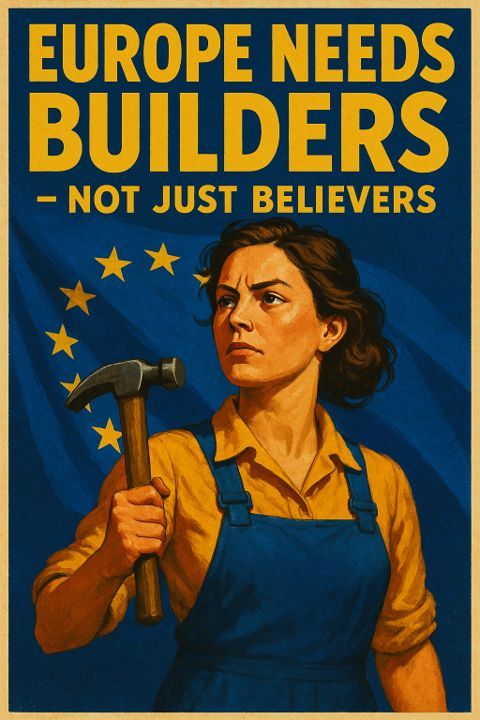

EUROPE NEEDS BUILDERS — NOT JUST BELIEVERS
For over 70 years, European integration has delivered peace, freedom, and democracy; public accountability across borders; and prosperity built on cooperation. Supranational institutions have tempered national self-interest and upheld human dignity—anchoring Europe to the common good and a just global order.
But today, our project is faltering.
Trust frays. Bureaucracy proliferates. The post-Maastricht model—of elite bargaining, intergovernmental minimalism, and policy without participation—fails to deliver the systemic transformations our age demands. And it cannot inspire the public commitment on which European integration relies. As climate, migration, energy, and digital crises intensify, Europe responds with speeches where bold, coordinated action is required.
We don't need another cycle of reforms.
We need a new method of integration—built through shared effort, not political theatre. Where earnest cooperation creates decent policy, and institutions emerge from practice. Not dictated by career politicians, but led by system-builders embedded where change really happens: in cities, infrastructures, ecosystems, and supply chains. People already building across borders and silos—crafting shared solutions for the good of all.
We don't need another "European project."
We need a movement architecture: a meta-platform that offers strategic scaffolding to those already pioneering change—in energy, digital, health, education, and food. An infrastructure to connect, replicate success, and transform innovation into durable institutions. Alliances that begin where politics falters: cultivating shared flourishing and reviving mutual trust from the middle out.
We're assembling five key pieces:
⚙️A distributed network of systemic leaders across Europe
⚙️Ecosystem alliances that drive transformation for the common good
⚙️Interfaces that convert innovation into shared regulation, funding, procurement, governance
⚙️A narrative built on what we've achieved, not utopias
⚙️A backbone that lets us coordinate, learn from each other, and act with strategic purpose
This isn't another set of SDGs. It's a call for civic courage and shared commitment to 21st-century #leadership —rooted in true subsidiarity and moral purpose.
And it transcends Europe. America governs through military force and commercial extraction. China through command and control. Europe must prove that another form of strength is possible: that power can grow by sharing, that institutions can emerge from trust, and that human values are not weakness—but our deepest source of collective strength.
Europe won’t be saved by better treaties. Because Europe has never been just about rules—it's always been about us.
A better Europe will emerge—and become a light to others—only if we build it to summon the highest humanity in one another.
If you’re already building, we need you.
Let’s craft #UnitedLeadersEurope —together.
Drop me a DM to join.
EUROPE NEEDS BUILDERS — NOT JUST BELIEVERS
For over 70 years, European integration has delivered peace, freedom, and democracy; public accountability across borders; and prosperity built on cooperation. Supranational institutions have tempered national self-interest and upheld human dignity—anchoring Europe to the common good and a just global order.
But today, our project is faltering.
Trust frays. Bureaucracy proliferates. The post-Maastricht model—of elite bargaining, intergovernmental minimalism, and policy without participation—fails to deliver the systemic transformations our age demands. And it cannot inspire the public commitment on which European integration relies. As climate, migration, energy, and digital crises intensify, Europe responds with speeches where bold, coordinated action is required.
We don't need another cycle of reforms.
We need a new method of integration—built through shared effort, not political theatre. Where earnest cooperation creates decent policy, and institutions emerge from practice. Not dictated by career politicians, but led by system-builders embedded where change really happens: in cities, infrastructures, ecosystems, and supply chains. People already building across borders and silos—crafting shared solutions for the good of all.
We don't need another "European project."
We need a movement architecture: a meta-platform that offers strategic scaffolding to those already pioneering change—in energy, digital, health, education, and food. An infrastructure to connect, replicate success, and transform innovation into durable institutions. Alliances that begin where politics falters: cultivating shared flourishing and reviving mutual trust from the middle out.
We're assembling five key pieces:
⚙️A distributed network of systemic leaders across Europe
⚙️Ecosystem alliances that drive transformation for the common good
⚙️Interfaces that convert innovation into shared regulation, funding, procurement, governance
⚙️A narrative built on what we've achieved, not utopias
⚙️A backbone that lets us coordinate, learn from each other, and act with strategic purpose
This isn't another set of SDGs. It's a call for civic courage and shared commitment to 21st-century #leadership —rooted in true subsidiarity and moral purpose.
And it transcends Europe. America governs through military force and commercial extraction. China through command and control. Europe must prove that another form of strength is possible: that power can grow by sharing, that institutions can emerge from trust, and that human values are not weakness—but our deepest source of collective strength.
Europe won’t be saved by better treaties. Because Europe has never been just about rules—it's always been about us.
A better Europe will emerge—and become a light to others—only if we build it to summon the highest humanity in one another.
If you’re already building, we need you.
Let’s craft #UnitedLeadersEurope —together.
Drop me a DM to join.
AUGUST 2025

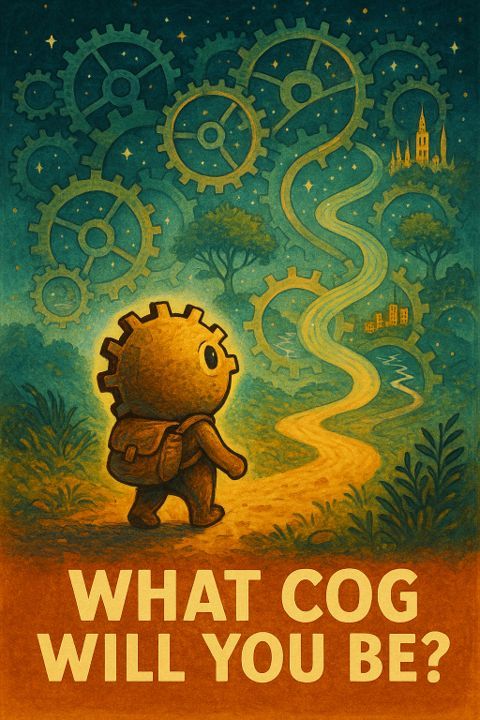

WHAT COG WILL YOU BE?
You will be a cog.
Not metaphorically. Not tragically. Simply, inescapably: existentially.
We arrive in the world already entangled—ensouled by history, enmeshed in meanings we did not spin. The cog is not a symbol of servitude but a confession of structure: the human being is always born into systems, each charged with memory, duty, and invisible demands. What the Greeks called fate, the Qur’an divine order, the Confucians ritual placement, the Gita dharma—this positioning is not diminishment, but the primal truth from which any moral life must begin.
Our becoming does not commence in preference, but in orientation. Ask not, What do I want?, but Within what whole have I been placed, and what is my office in its unfolding? True justice, for Plato, is right alignment: the soul attuned to the polis, each part ordered to the Good. For Aristotle, flourishing is not self-assertion but perfected relation of form to function, part to whole. Augustine’s ordo amoris draws the heart not inward, but upward—to love what must be loved, in an order that transcends. Significance is never individual, but found in the cosmos we reflect.
Modernity tore this map. The world fell silent, and conscience collapsed into taste. The buffered self denies cosmic connection. Institutions no longer form the soul—they monetise it. Vocation becomes branding; ESG displaces ethics. As Arendt saw, the horror of our age is not that evil erupts—but that we become banal cogs in Kafka's maze—adapting, complying, managing.
The betrayal is structural. But the decision is personal. Freedom is not the right to define our own good - it is the invitation to discover the Good that defines us. The tragic heroes—from Athens to Benares, Jerusalem to Johannesburg—do not escape structure; they bear it with fidelity. Antigone defies the city to obey a law she did not write. Weil drags herself through field and factory to learn what solidarity demands. Bonhoeffer rejects safety to preserve the soul of the church. Fanon names injustice and offers himself to the struggle against alienation. Bashō, Rumi, the mystics of every tradition do not invent the Good—they receive it as a horizon. Each lives not to express a self, but to inhabit a truth.
This is the dignity of the cog: not obedience, but participation. To live a good life is not to “find meaning,” but to become part of a meaningful whole. To take up our place in a moral cosmos is not to diminish the self, but to ground it—to become worthy of the weight it is given.
Our final judgment will not measure the impact we had, but the form of society we helped shape; not whether we turned the wheel, but whether we embodied truth, justice, love, peace at every turn. We become ourselves—with restless heart—by the constancy with which we answer the terribly beautiful question our life sets before us each day:
Not, What did I achieve? but:
In what light did I turn?
To what was I faithful?
What Good did I serve?
#leadership
WHAT COG WILL YOU BE?
You will be a cog.
Not metaphorically. Not tragically. Simply, inescapably: existentially.
We arrive in the world already entangled—ensouled by history, enmeshed in meanings we did not spin. The cog is not a symbol of servitude but a confession of structure: the human being is always born into systems, each charged with memory, duty, and invisible demands. What the Greeks called fate, the Qur’an divine order, the Confucians ritual placement, the Gita dharma—this positioning is not diminishment, but the primal truth from which any moral life must begin.
Our becoming does not commence in preference, but in orientation. Ask not, What do I want?, but Within what whole have I been placed, and what is my office in its unfolding? True justice, for Plato, is right alignment: the soul attuned to the polis, each part ordered to the Good. For Aristotle, flourishing is not self-assertion but perfected relation of form to function, part to whole. Augustine’s ordo amoris draws the heart not inward, but upward—to love what must be loved, in an order that transcends. Significance is never individual, but found in the cosmos we reflect.
Modernity tore this map. The world fell silent, and conscience collapsed into taste. The buffered self denies cosmic connection. Institutions no longer form the soul—they monetise it. Vocation becomes branding; ESG displaces ethics. As Arendt saw, the horror of our age is not that evil erupts—but that we become banal cogs in Kafka's maze—adapting, complying, managing.
The betrayal is structural. But the decision is personal. Freedom is not the right to define our own good - it is the invitation to discover the Good that defines us. The tragic heroes—from Athens to Benares, Jerusalem to Johannesburg—do not escape structure; they bear it with fidelity. Antigone defies the city to obey a law she did not write. Weil drags herself through field and factory to learn what solidarity demands. Bonhoeffer rejects safety to preserve the soul of the church. Fanon names injustice and offers himself to the struggle against alienation. Bashō, Rumi, the mystics of every tradition do not invent the Good—they receive it as a horizon. Each lives not to express a self, but to inhabit a truth.
This is the dignity of the cog: not obedience, but participation. To live a good life is not to “find meaning,” but to become part of a meaningful whole. To take up our place in a moral cosmos is not to diminish the self, but to ground it—to become worthy of the weight it is given.
Our final judgment will not measure the impact we had, but the form of society we helped shape; not whether we turned the wheel, but whether we embodied truth, justice, love, peace at every turn. We become ourselves—with restless heart—by the constancy with which we answer the terribly beautiful question our life sets before us each day:
Not, What did I achieve? but:
In what light did I turn?
To what was I faithful?
What Good did I serve?
#leadership
AUGUST 2025

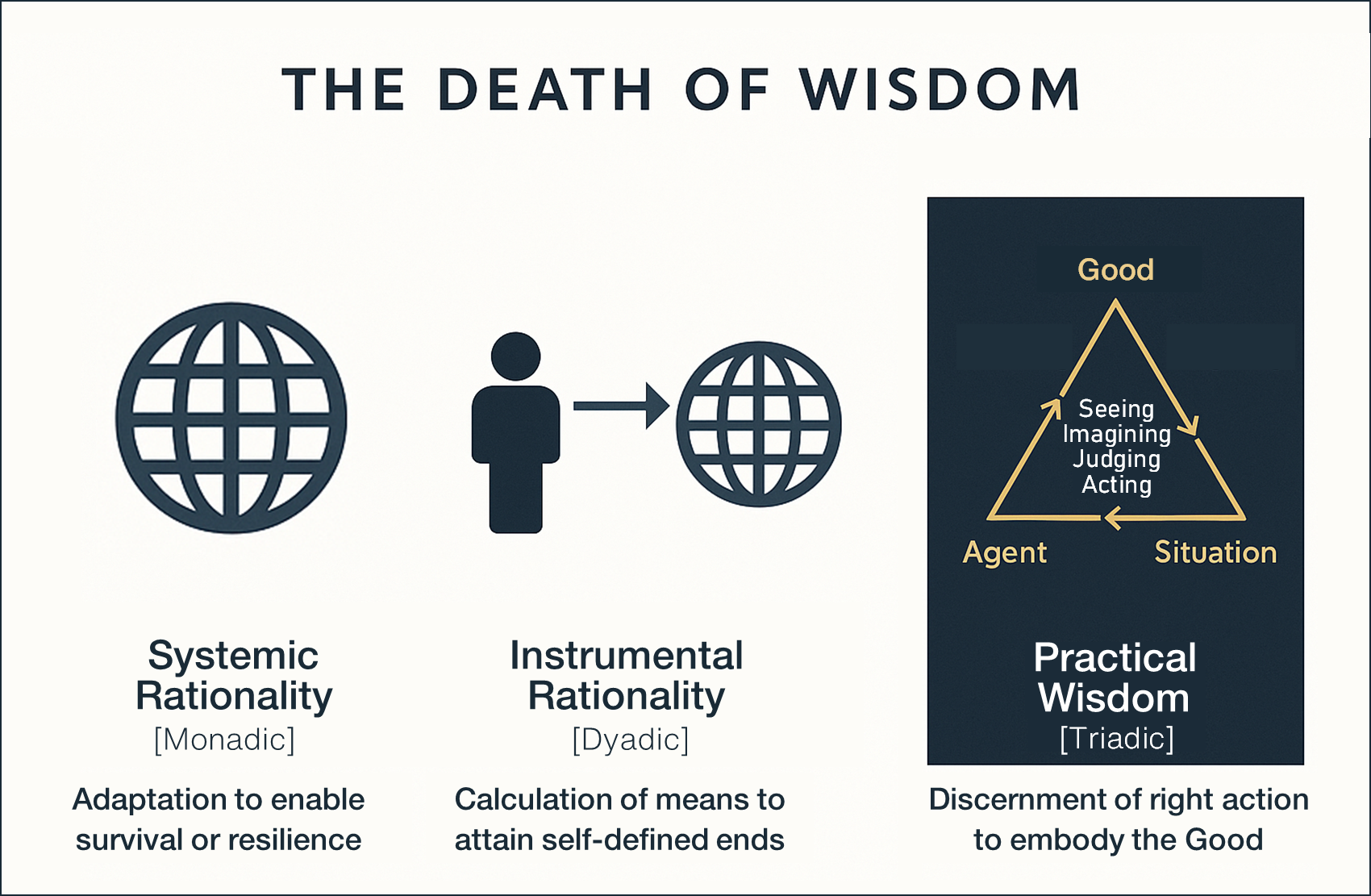

THE DEATH OF WISDOM: Toward a Re-enchantment of Reason
What is wisdom? In its deepest philosophical and theological sense, wisdom transcends mere intellect or practical prudence. It is a structured and developmental process through which the agent learns to see truly, imagine what could be, discern the potential within the actual, and act accordingly—toward the Good. Wisdom aligns right ends with right means.
This process is not rooted in subjective choice or situational cleverness. It presupposes a triadic moral ontology: a morally responsive agent, a concrete situation calling for discernment, and a metaphysically prior Good. Wisdom is the structured participation in a moral horizon—or alignment with the divine Logos—that enables human flourishing in analogy with truth.
In modernity, this triad collapses. Enlightenment rationality, having rejected metaphysical authority, severs the Good from reason. What remains is either monadic rationality—systems adapting for survival—or dyadic rationality—autonomous agents optimising choice. The former appears in cybernetics, systems theory, and evolutionary biology, where survival, feedback, and equilibrium supplant moral discernment. The latter dominates management and economics, where means are exploited to maximise self-defined ends.
Yet neither can ground moral becoming. Systemic rationality dissolves agency; instrumental rationality detaches from the evaluation of ends. Both generate action—but not wisdom. Without the Good, reason loses direction. Leadership becomes performance; judgment becomes P&L; ethics becomes compliance. Institutions survive, but cannot inspire. People possess freedom, but cannot flourish.
In response, fragments of re-enchantment have begun to proliferate. Spirituality, deep ecology, Buddhist cosmology, and relational ontologies all seek to reassert that there is always a third in every relation: a principle that calls us beyond ourselves, whispering that we are summoned to serve something higher. In Christian theology, this third is a person—the Good made flesh—and wisdom becomes union through love. In virtue ethics, it is eudaimonia: not pleasure, but excellence through participation in a just polis.
What unites these efforts is the intuition that wisdom is not constructed, but received. The Good is not invented—it is encountered. Therefore, leadership must begin with followership: a humble submission to the call of what is worthy of service. This is not a regression to pre-modern dogma, but the emergence of a post-Enlightenment consciousness—one that recognises that reason without the Good is not progress, but blindness.
To recover wisdom, we must recover our moral horizon—not to abandon reason, but to elevate it toward its telos. Only then can we judge not merely what is possible, but what is potential. Only then can we lead not merely toward success, but toward justice, truth, beauty, and the transformation of our world in service of the common good.
#leadership
THE DEATH OF WISDOM: Toward a Re-enchantment of Reason
What is wisdom? In its deepest philosophical and theological sense, wisdom transcends mere intellect or practical prudence. It is a structured and developmental process through which the agent learns to see truly, imagine what could be, discern the potential within the actual, and act accordingly—toward the Good. Wisdom aligns right ends with right means.
This process is not rooted in subjective choice or situational cleverness. It presupposes a triadic moral ontology: a morally responsive agent, a concrete situation calling for discernment, and a metaphysically prior Good. Wisdom is the structured participation in a moral horizon—or alignment with the divine Logos—that enables human flourishing in analogy with truth.
In modernity, this triad collapses. Enlightenment rationality, having rejected metaphysical authority, severs the Good from reason. What remains is either monadic rationality—systems adapting for survival—or dyadic rationality—autonomous agents optimising choice. The former appears in cybernetics, systems theory, and evolutionary biology, where survival, feedback, and equilibrium supplant moral discernment. The latter dominates management and economics, where means are exploited to maximise self-defined ends.
Yet neither can ground moral becoming. Systemic rationality dissolves agency; instrumental rationality detaches from the evaluation of ends. Both generate action—but not wisdom. Without the Good, reason loses direction. Leadership becomes performance; judgment becomes P&L; ethics becomes compliance. Institutions survive, but cannot inspire. People possess freedom, but cannot flourish.
In response, fragments of re-enchantment have begun to proliferate. Spirituality, deep ecology, Buddhist cosmology, and relational ontologies all seek to reassert that there is always a third in every relation: a principle that calls us beyond ourselves, whispering that we are summoned to serve something higher. In Christian theology, this third is a person—the Good made flesh—and wisdom becomes union through love. In virtue ethics, it is eudaimonia: not pleasure, but excellence through participation in a just polis.
What unites these efforts is the intuition that wisdom is not constructed, but received. The Good is not invented—it is encountered. Therefore, leadership must begin with followership: a humble submission to the call of what is worthy of service. This is not a regression to pre-modern dogma, but the emergence of a post-Enlightenment consciousness—one that recognises that reason without the Good is not progress, but blindness.
To recover wisdom, we must recover our moral horizon—not to abandon reason, but to elevate it toward its telos. Only then can we judge not merely what is possible, but what is potential. Only then can we lead not merely toward success, but toward justice, truth, beauty, and the transformation of our world in service of the common good.
#leadership
AUGUST 2025

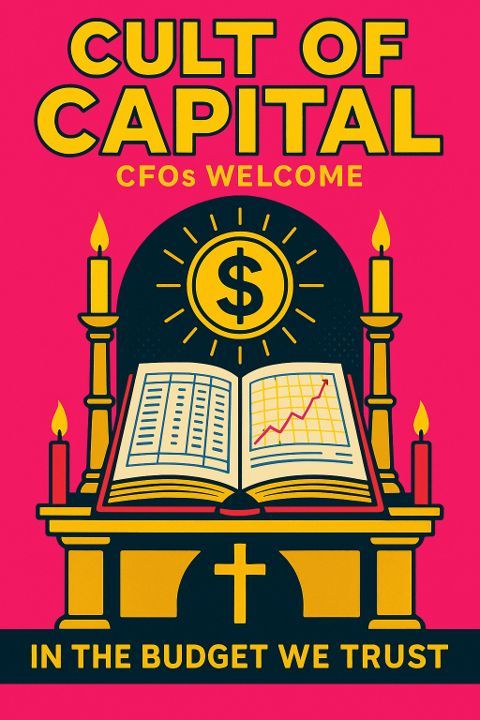

TELL ME WHAT YOUR BUDGET IS, AND I’LL TELL YOU WHO YOU ARE
A Radical Manifesto for CEOs and Finance Leaders
Every year, a familiar liturgy unfolds.
Group finance sets targets and deadlines. Business units scramble to submit spend profiles, headcount plans, revenue forecasts, business cases…
First-pass reviews trigger challenge rounds, revisions, haircuts…
Proposals rise and fall—up the chain, down the chain—caught in a confessional cycle of scrutiny and surrender…
At last, the numbers are canonised and locked: cost centre limits, headcount caps, investment envelopes, DoAs, and quarterly OKRs…
King Budget reigns supreme. Once anointed, nothing moves without financial cover!
The budget structures time itself, imprisoning the organization in the kalendar of the financial year…
Quarterly reviews, performance check-ins, retrospectives, bonus gates—all orbit its logos…
And there lies the problem.
The word budget stems from the Latin bulga—a pouch—and the Old French bougette, the sack from which ministers drew their spending plans. To “open the budget” was to publicly declare a sovereign will: what would be funded, taxed, or sacrificed. The budget expressed a national soul—it ordered the goods and named what truly mattered.
Today, it no longer professes; it controls. The IMF defines it as “a comprehensive statement of financial plans.” In practice, it has become a blunt apparatus of discipline, enforcing the relentless tyranny of shareholder pleonexia.
Budgeting can be far more. In classical terms, it is an incarnation of formal cause—the organising principle that shapes collective life toward its proper end. The budget orders organisational practice in relation to telos, aligning means with meaningful ends.
It separates need from desire, priority from noise. It is where phronesis—practical wisdom—is exercised: deciding not only how to act, but what is worth acting for. What must be done, with what resources, for whom, and in what order? What counts as full cost? What as fair return? What as a good life?
The budget is not merely a ledger—it is an act of hashtag#leadership. It does not simply follow strategy; it structures purpose. It imagines—or constrains—the futures that are morally possible. It does not state values; it carves them into form.
That is why the budget cannot be just an accounting tool; it is a covenant—an embodied promise through which an organisation declares what it truly aspires to become.
If business is to be a force for good, finance must reclaim its philosophical weight. Today, CFOs are cast as high priests of yield; tomorrow, they must become stewards of institutional purpose—architects of value—ensuring that time is not merely costed, but rightly ordered, so the organisation can fulfil its highest potential in the world.
This is not simply a question of how much an organisation is worth, but whether it is worthy—of its people’s life, and of society’s trust.
Tell me what your budget is, and I’ll tell you who you are…
TELL ME WHAT YOUR BUDGET IS, AND I’LL TELL YOU WHO YOU ARE
A Radical Manifesto for CEOs and Finance Leaders
Every year, a familiar liturgy unfolds.
Group finance sets targets and deadlines. Business units scramble to submit spend profiles, headcount plans, revenue forecasts, business cases…
First-pass reviews trigger challenge rounds, revisions, haircuts…
Proposals rise and fall—up the chain, down the chain—caught in a confessional cycle of scrutiny and surrender…
At last, the numbers are canonised and locked: cost centre limits, headcount caps, investment envelopes, DoAs, and quarterly OKRs…
King Budget reigns supreme. Once anointed, nothing moves without financial cover!
The budget structures time itself, imprisoning the organization in the kalendar of the financial year…
Quarterly reviews, performance check-ins, retrospectives, bonus gates—all orbit its logos…
And there lies the problem.
The word budget stems from the Latin bulga—a pouch—and the Old French bougette, the sack from which ministers drew their spending plans. To “open the budget” was to publicly declare a sovereign will: what would be funded, taxed, or sacrificed. The budget expressed a national soul—it ordered the goods and named what truly mattered.
Today, it no longer professes; it controls. The IMF defines it as “a comprehensive statement of financial plans.” In practice, it has become a blunt apparatus of discipline, enforcing the relentless tyranny of shareholder pleonexia.
Budgeting can be far more. In classical terms, it is an incarnation of formal cause—the organising principle that shapes collective life toward its proper end. The budget orders organisational practice in relation to telos, aligning means with meaningful ends.
It separates need from desire, priority from noise. It is where phronesis—practical wisdom—is exercised: deciding not only how to act, but what is worth acting for. What must be done, with what resources, for whom, and in what order? What counts as full cost? What as fair return? What as a good life?
The budget is not merely a ledger—it is an act of hashtag#leadership. It does not simply follow strategy; it structures purpose. It imagines—or constrains—the futures that are morally possible. It does not state values; it carves them into form.
That is why the budget cannot be just an accounting tool; it is a covenant—an embodied promise through which an organisation declares what it truly aspires to become.
If business is to be a force for good, finance must reclaim its philosophical weight. Today, CFOs are cast as high priests of yield; tomorrow, they must become stewards of institutional purpose—architects of value—ensuring that time is not merely costed, but rightly ordered, so the organisation can fulfil its highest potential in the world.
This is not simply a question of how much an organisation is worth, but whether it is worthy—of its people’s life, and of society’s trust.
Tell me what your budget is, and I’ll tell you who you are…
AUGUST 2025

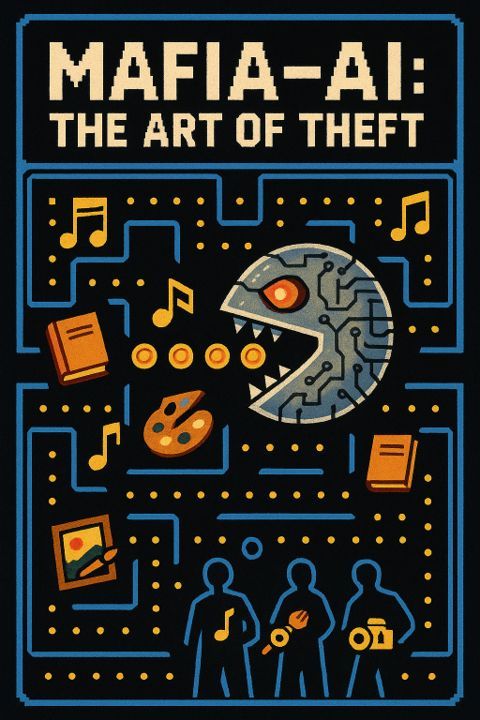

AI Must Fund the Commons – Not Eat Them
Generative AI is not magic. It is the product of millions of invisible creators—poets, coders, photographers, musicians—whose work has been harvested, scraped, and absorbed into AI models without consent or compensation. These models feed on the commons, yet give nothing back. While AI firms reap billions, the very cultural ecosystems they exploit—local journalism, independent art, experimental film—are collapsing under the weight of neglect and extraction.
This is not innovation. It is expropriation.
As Mariana Mazzucato and Fausto Gernone argue, the solution is not to privatize knowledge further with stricter IP enforcement, which would only entrench digital feudalism. Instead, we must recognise cultural content as a public good—a commons we all draw from and must collectively sustain. Just as we tax for roads and hospitals, we must now tax for the infrastructure of human creativity.
A levy on AI firms' gross revenues—not profits—can finance a new cultural compact: independent funds that directly support creators, democratize access to knowledge, and preserve the richness of our shared intellectual life. This is not charity. It is economic justice. The art multiplier is real: each human creation now yields both cultural value and algorithmic fuel.
Without structural reform, the future of culture will be cheapened, homogenised, and owned by a few tech monopolies. But with bold public policy, we can turn AI into a vehicle for public flourishing, not just private gain.
It’s time to reprogram the system: AI must fund the commons, not consume them.
Read full essay here: https://www.project-syndicate.org/onpoint/how-ai-profits-can-help-fund-cultural-production-by-mariana-mazzucato-and-fausto-gernone-2025-07
Note: I often use social media posts as a way to “step into” a particular position in a discussion—to test how it looks and unfolds—much like Otto Laske’s view of dialogue as a tool for personal perspective-taking. As some commenters rightly noted, this time my position can appear overly simplistic, as it does not fully articulate my own call for deeper ideological reflection. For a more nuanced exploration, I invite you to read the thoughtful exchange with Neil Turkewitz (and his parallel post and essay), which helps to deepen and expand the conversation. Thanks, Neil, for making me revise the proposals further!
#AIEthics #CreativeCommons #PlatformJustice #CulturalPolicy #PublicValue #MarianaMazzucato #GenerativeAI #FutureOfWork #DigitalJustice #InnovationForGood
AI Must Fund the Commons – Not Eat Them
Generative AI is not magic. It is the product of millions of invisible creators—poets, coders, photographers, musicians—whose work has been harvested, scraped, and absorbed into AI models without consent or compensation. These models feed on the commons, yet give nothing back. While AI firms reap billions, the very cultural ecosystems they exploit—local journalism, independent art, experimental film—are collapsing under the weight of neglect and extraction.
This is not innovation. It is expropriation.
As Mariana Mazzucato and Fausto Gernone argue, the solution is not to privatize knowledge further with stricter IP enforcement, which would only entrench digital feudalism. Instead, we must recognise cultural content as a public good—a commons we all draw from and must collectively sustain. Just as we tax for roads and hospitals, we must now tax for the infrastructure of human creativity.
A levy on AI firms' gross revenues—not profits—can finance a new cultural compact: independent funds that directly support creators, democratize access to knowledge, and preserve the richness of our shared intellectual life. This is not charity. It is economic justice. The art multiplier is real: each human creation now yields both cultural value and algorithmic fuel.
Without structural reform, the future of culture will be cheapened, homogenised, and owned by a few tech monopolies. But with bold public policy, we can turn AI into a vehicle for public flourishing, not just private gain.
It’s time to reprogram the system: AI must fund the commons, not consume them.
Read full essay here: https://www.project-syndicate.org/onpoint/how-ai-profits-can-help-fund-cultural-production-by-mariana-mazzucato-and-fausto-gernone-2025-07
Note: I often use social media posts as a way to “step into” a particular position in a discussion—to test how it looks and unfolds—much like Otto Laske’s view of dialogue as a tool for personal perspective-taking. As some commenters rightly noted, this time my position can appear overly simplistic, as it does not fully articulate my own call for deeper ideological reflection. For a more nuanced exploration, I invite you to read the thoughtful exchange with Neil Turkewitz (and his parallel post and essay), which helps to deepen and expand the conversation. Thanks, Neil, for making me revise the proposals further!
#AIEthics #CreativeCommons #PlatformJustice #CulturalPolicy #PublicValue #MarianaMazzucato #GenerativeAI #FutureOfWork #DigitalJustice #InnovationForGood
AUGUST 2025

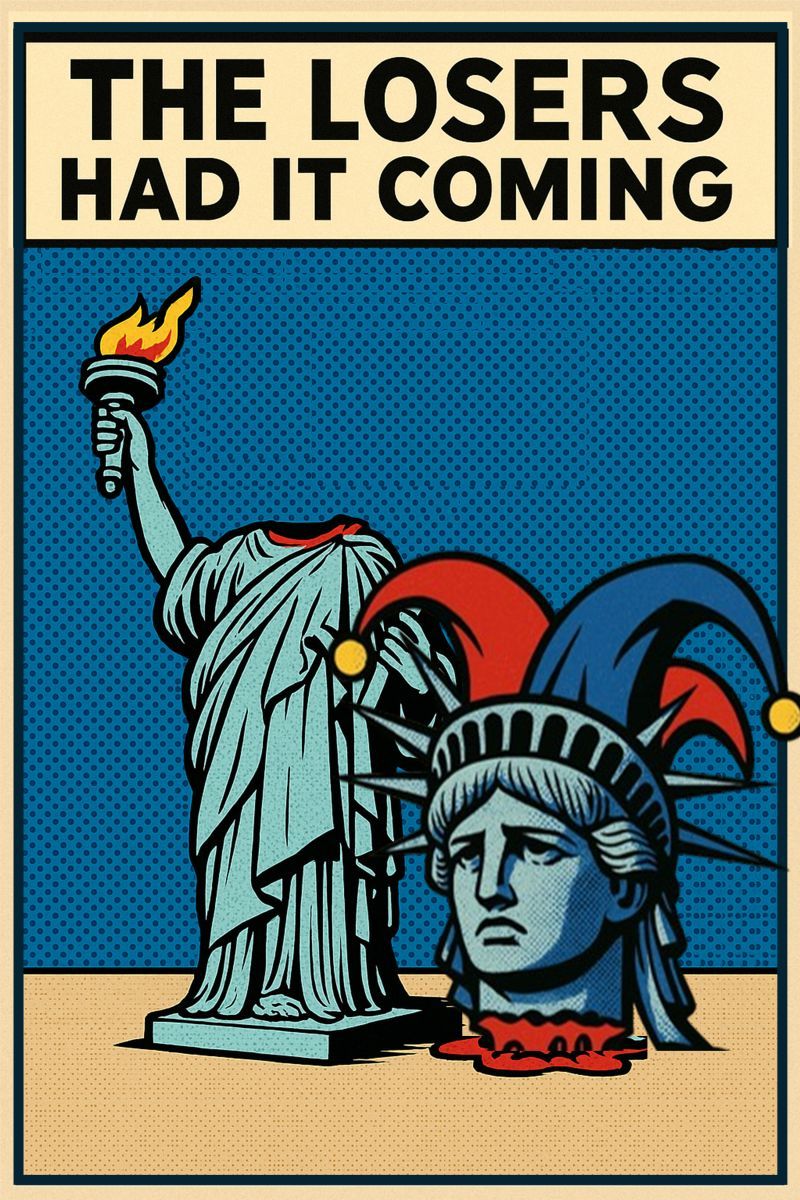

ECONOMIC COWARDICE: Or When the Empire Killed Its Jester
Late-night satire serves as a boundary space in public life—metabolising rage, ridiculing power, and sustaining reflexivity through ritualised negation. From Germany’s Magazin Royale to HBO’s Last Week Tonight, Zondag met Lubach in the Netherlands, or Spain’s El Intermedio—the late show marks a liminal hour where critique is licensed, contradiction voiced, and authority mocked without reprisal. At night, the jester reigns: holding the sovereign to account through subversive truth-telling within the tolerated perimeter of oppositional speech.
Until he crosses the line. On July 17th, CBS killed the highly successful Late Show with Stephen Colbert—the longest-running franchise in network history—invoking “financial necessity.” The execution came days after Colbert denounced Paramount’s $16 million settlement with Trump as “a big fat bribe,” just ahead of regulatory approval for the Skydance merger. Trump exulted on Truth Social: “Colbert is DONE! These losers had it coming.”
What began as ritual satire became real accusation. Colbert had performed symbolic castration, violating the terms of permitted contradiction by exposing the inflated king’s corruption and disrupting the regime’s economy of truth. But Trump’s malignant narcissistic order cannot tolerate humiliation; it must annihilate it. The imaginary kingdom relies on uninterrupted applause to preserve the sovereign’s coherence—when the trickster became a threat, the system struck back.
Here, business revealed its complicity—not as selfish owner but as cowardly censor. “Business as usual” became a discourse of preemptive obedience, displacing structural conflict into violence of transparency. The economic smokescreen of financial optimisation offered moral cover: efficiency, shareholder value, fiduciary responsibility. By announcing a 2026 end date, CBS obscured causality—framing the act as procedural rather than political.
The meaning lies in what remains unsaid. Trump’s revenge is libidinal, economic and structural. Colbert’s public decapitation enacts exclusion—not just silencing a voice, but redefining which forms of speech are irrational, impermissible, and economically absurd.
The jester has always held democracy’s most precarious role—but in late capitalism, dissent isn’t silenced by force; it is simply priced out of existence. When business and authoritarianism collude, media no longer informs—it aligns. The result is not just symbolic sterilisation but governmentality: the “invisible hand” reveals itself as the empire’s grip, disciplining discourse through financial coercion.
But in guillotining the jester, the regime not only performs narrative erasure—it denies the public the power to reflectively examine the emplotment of political meaning. Democracy loses its mirror.
“These losers had it coming,” said the Orange King. “The gloves are off,” the Jester replied. Let’s hope so. Because the real loser—is us.
#leadership
For many interesting comments and conversations about the nature of irony, and more: https://www.linkedin.com/posts/ottivogt_leadership-activity-7353796070155382784-bMwH?utm_source=share&utm_medium=member_desktop&rcm=ACoAAABm1WMBiwxFaUc1X66gje88odJOEyNAskc
ECONOMIC COWARDICE: Or When the Empire Killed Its Jester
Late-night satire serves as a boundary space in public life—metabolising rage, ridiculing power, and sustaining reflexivity through ritualised negation. From Germany’s Magazin Royale to HBO’s Last Week Tonight, Zondag met Lubach in the Netherlands, or Spain’s El Intermedio—the late show marks a liminal hour where critique is licensed, contradiction voiced, and authority mocked without reprisal. At night, the jester reigns: holding the sovereign to account through subversive truth-telling within the tolerated perimeter of oppositional speech.
Until he crosses the line. On July 17th, CBS killed the highly successful Late Show with Stephen Colbert—the longest-running franchise in network history—invoking “financial necessity.” The execution came days after Colbert denounced Paramount’s $16 million settlement with Trump as “a big fat bribe,” just ahead of regulatory approval for the Skydance merger. Trump exulted on Truth Social: “Colbert is DONE! These losers had it coming.”
What began as ritual satire became real accusation. Colbert had performed symbolic castration, violating the terms of permitted contradiction by exposing the inflated king’s corruption and disrupting the regime’s economy of truth. But Trump’s malignant narcissistic order cannot tolerate humiliation; it must annihilate it. The imaginary kingdom relies on uninterrupted applause to preserve the sovereign’s coherence—when the trickster became a threat, the system struck back.
Here, business revealed its complicity—not as selfish owner but as cowardly censor. “Business as usual” became a discourse of preemptive obedience, displacing structural conflict into violence of transparency. The economic smokescreen of financial optimisation offered moral cover: efficiency, shareholder value, fiduciary responsibility. By announcing a 2026 end date, CBS obscured causality—framing the act as procedural rather than political.
The meaning lies in what remains unsaid. Trump’s revenge is libidinal, economic and structural. Colbert’s public decapitation enacts exclusion—not just silencing a voice, but redefining which forms of speech are irrational, impermissible, and economically absurd.
The jester has always held democracy’s most precarious role—but in late capitalism, dissent isn’t silenced by force; it is simply priced out of existence. When business and authoritarianism collude, media no longer informs—it aligns. The result is not just symbolic sterilisation but governmentality: the “invisible hand” reveals itself as the empire’s grip, disciplining discourse through financial coercion.
But in guillotining the jester, the regime not only performs narrative erasure—it denies the public the power to reflectively examine the emplotment of political meaning. Democracy loses its mirror.
“These losers had it coming,” said the Orange King. “The gloves are off,” the Jester replied. Let’s hope so. Because the real loser—is us.
#leadership
For many interesting comments and conversations about the nature of irony, and more: https://www.linkedin.com/posts/ottivogt_leadership-activity-7353796070155382784-bMwH?utm_source=share&utm_medium=member_desktop&rcm=ACoAAABm1WMBiwxFaUc1X66gje88odJOEyNAskc
JULY 2025

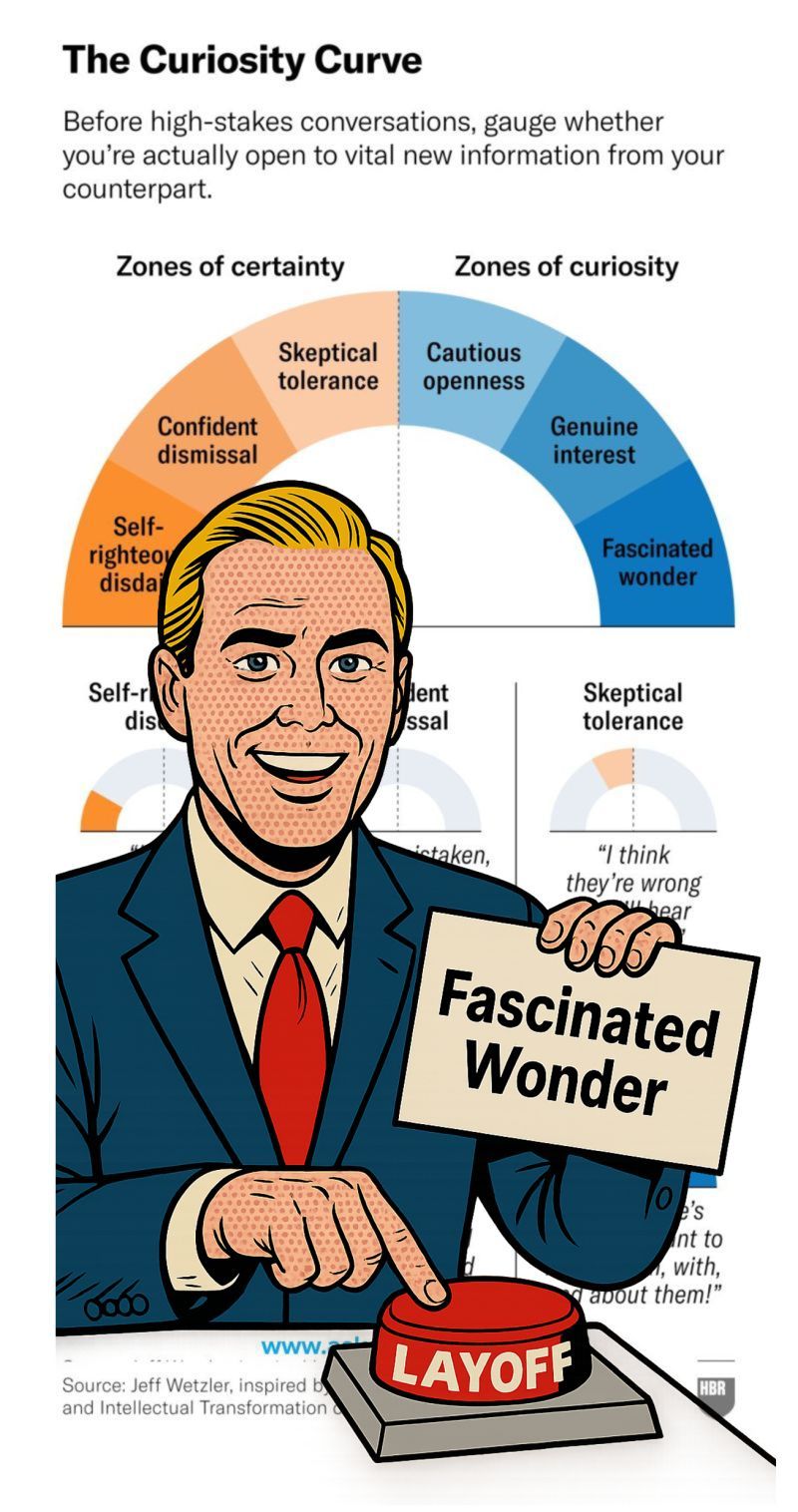

THE INTOLERABLE LIGHTNESS OF MANAGEMENT: Oops - I did it again
I dared to wander off into my social media stream—just for a moment, just to breathe. And instantly, I was sucked into the Sunday morning maelstrom of management bullshit: quote cards, lobotomised 2by2s, pastel-coloured truisms, and the infinite scroll of HBS-certified semi-spiritual psy-scientific self-optimisation.
This week’s special? The Curiosity Curve™. A charming semicircle of six moods—three on the left, three on the right—crafted to help executives audit their inner state before venturing to speak to another human being. "Self-righteous disdain" is out. "Fascinated wonder" is in. Nestled in between lies the managerial nirvana of “Cautious Openness,” reached through ritualised self-surveillance and a sprinkle of Curiosity Sparks. Curiosity is recast as a procedural hack—no space for moral truth, dialectical encounter, or anything resembling human flourishing.
This is not a joke. HBR isn’t joking. This isn’t satire. This is how moral training operates in late capitalism: via cartoons.
Welcome to the Disneyfication of moral life—where high-stakes conversations about power, justice, and human dignity are flattened into mood boards and soft-skill upgrades. Where instead of interrogating our systems, our institutions, our own complicity—we're encouraged to ask: "What quadrant am I in?" This is Foucault's disciplinary apparatus perfected: the panopticon has become a personality quiz.
And it’s everywhere. Every diagram, every “thought leadership” post, every LinkedIn meme: bite-sized managerial snake oil flooding our feeds with baby philosophy. This isn’t personal growth—it’s governmentality, drip-fed through the algorithms of social media.
Curiosity, temperance, compassion, trust—once moral virtues forged in the struggle of moral life—now reduced to data points in the corporate circus of soft control. Wisdom becomes a pre-meeting checklist:
☐ Did I locate myself on the curve?
☐ Did I shift two zones?
☐ Do I spark?
We are infantilising leadership—neutralising conflict, pathologising dissent, and reframing injustice as interpersonal misalignment. A CEO fires 5,000 workers while being "genuinely curious" about how they feel. A venture capitalist funds mass surveillance while basking in "fascinated wonder". The structural becomes psychological. The ethical, ergonomic.
No need to read Marx when you can “assume positive intent.” No need to question ideology when you can “hold space.”
We’re witnessing the rise of Instagram morality—where every cognitive dissonance becomes a “learning opportunity,” and where Adorno’s negative dialectics are flattened into positive psychology.
The world is burning. Fascism is rising. Ecosystems are collapsing. But the managerial class has shifted one zone toward “creative openness.” And thus, all must be well!
When #leadership is a meme and thinking is a micro-habit, long live the one-dimensional man—moral muteness has never been so user-friendly.
THE INTOLERABLE LIGHTNESS OF MANAGEMENT: Oops - I did it again
I dared to wander off into my social media stream—just for a moment, just to breathe. And instantly, I was sucked into the Sunday morning maelstrom of management bullshit: quote cards, lobotomised 2by2s, pastel-coloured truisms, and the infinite scroll of HBS-certified semi-spiritual psy-scientific self-optimisation.
This week’s special? The Curiosity Curve™. A charming semicircle of six moods—three on the left, three on the right—crafted to help executives audit their inner state before venturing to speak to another human being. "Self-righteous disdain" is out. "Fascinated wonder" is in. Nestled in between lies the managerial nirvana of “Cautious Openness,” reached through ritualised self-surveillance and a sprinkle of Curiosity Sparks. Curiosity is recast as a procedural hack—no space for moral truth, dialectical encounter, or anything resembling human flourishing.
This is not a joke. HBR isn’t joking. This isn’t satire. This is how moral training operates in late capitalism: via cartoons.
Welcome to the Disneyfication of moral life—where high-stakes conversations about power, justice, and human dignity are flattened into mood boards and soft-skill upgrades. Where instead of interrogating our systems, our institutions, our own complicity—we're encouraged to ask: "What quadrant am I in?" This is Foucault's disciplinary apparatus perfected: the panopticon has become a personality quiz.
And it’s everywhere. Every diagram, every “thought leadership” post, every LinkedIn meme: bite-sized managerial snake oil flooding our feeds with baby philosophy. This isn’t personal growth—it’s governmentality, drip-fed through the algorithms of social media.
Curiosity, temperance, compassion, trust—once moral virtues forged in the struggle of moral life—now reduced to data points in the corporate circus of soft control. Wisdom becomes a pre-meeting checklist:
☐ Did I locate myself on the curve?
☐ Did I shift two zones?
☐ Do I spark?
We are infantilising leadership—neutralising conflict, pathologising dissent, and reframing injustice as interpersonal misalignment. A CEO fires 5,000 workers while being "genuinely curious" about how they feel. A venture capitalist funds mass surveillance while basking in "fascinated wonder". The structural becomes psychological. The ethical, ergonomic.
No need to read Marx when you can “assume positive intent.” No need to question ideology when you can “hold space.”
We’re witnessing the rise of Instagram morality—where every cognitive dissonance becomes a “learning opportunity,” and where Adorno’s negative dialectics are flattened into positive psychology.
The world is burning. Fascism is rising. Ecosystems are collapsing. But the managerial class has shifted one zone toward “creative openness.” And thus, all must be well!
When #leadership is a meme and thinking is a micro-habit, long live the one-dimensional man—moral muteness has never been so user-friendly.
JULY 2025

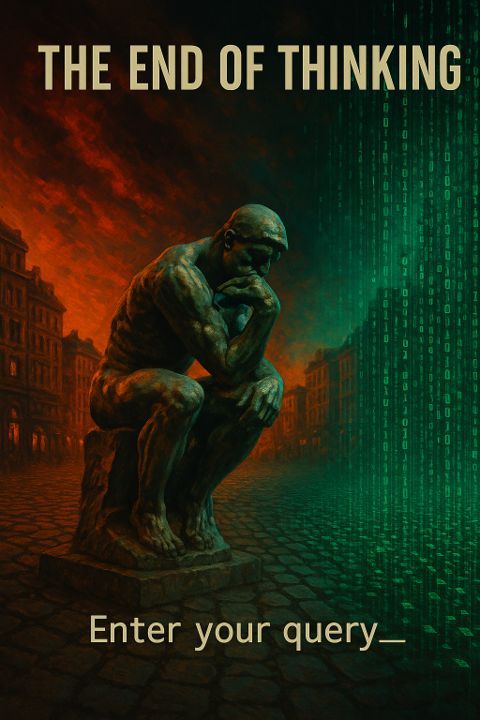

AI, TRUTH, AND THE HUMAN SOUL: Philosophical Provocations
Are we sleepwalking into digital servitude under the shimmering promise of artificial intelligence? When recently asked to share my thoughts on hashtag#AI, I took the opportunity to compile some of my reflections.
Across these little essays, a provocative tapestry emerges—a call to question not merely about what AI does, but what it makes of us.
* When Data Becomes Dogma exposes how generative AI, cloaked in analytic “objectivity,” blinds us to its ontological roots. The danger isn’t just bad data or hallucination, but the seductive illusion that AI’s answers are final truths—detaching us from humility, doubt, and genuine understanding.
* The Digital Devil’s Bargain warns that, like Goethe’s Faust, we have struck a quiet, daily pact: outsourcing thinking to algorithms, we become prompt engineers rather than creators. The great irony? As these tools grow ever sharper, our intellect and intuition risk growing dull—threatening our very sovereignty of thought.
* AI, Education, and the Death of Wisdom draws a stark line between instruction—the transmission of facts—and education—the formation of character and judgment. In a world of endless, optimized choices, who will dare develop a compass for what truly matters? AI can curate knowledge, but only humans can cultivate wisdom, discernment, and moral courage.
* Make Exploitation Great Again and The “AI-quisition” challenge us to see the machinery of power at work: the risk of becoming tools in service of digital empires, as yesterday’s evangelists become today’s inquisitors. Are we collaborating with AI to liberate human potential—or to reinforce the new architectures of exploitation and control?
Happy reading!!
When Data Becomes Dogma: The Ontological Blindness of Generative AI
Read here: https://lnkd.in/e_7PpuWG
THE DIGITAL DEVIL'S BARGAIN: Humanity's Pact With AI
Read here: https://lnkd.in/esgW9f9A
AI, Education, and the Death of Wisdom
Read here: https://lnkd.in/exiW2jJV
MAKE EXPLOITATION GREAT AGAIN: Silicon Dreams
Read here: https://lnkd.in/ewmEceBF
THE "AI-QUISITION" IS HERE: From AI Evangelists to Digital Witch-Hunters!
Read here: https://lnkd.in/e8in7_aX
#leadership #transformation #technology
AI, TRUTH, AND THE HUMAN SOUL: Philosophical Provocations
Are we sleepwalking into digital servitude under the shimmering promise of artificial intelligence? When recently asked to share my thoughts on hashtag#AI, I took the opportunity to compile some of my reflections.
Across these little essays, a provocative tapestry emerges—a call to question not merely about what AI does, but what it makes of us.
* When Data Becomes Dogma exposes how generative AI, cloaked in analytic “objectivity,” blinds us to its ontological roots. The danger isn’t just bad data or hallucination, but the seductive illusion that AI’s answers are final truths—detaching us from humility, doubt, and genuine understanding.
* The Digital Devil’s Bargain warns that, like Goethe’s Faust, we have struck a quiet, daily pact: outsourcing thinking to algorithms, we become prompt engineers rather than creators. The great irony? As these tools grow ever sharper, our intellect and intuition risk growing dull—threatening our very sovereignty of thought.
* AI, Education, and the Death of Wisdom draws a stark line between instruction—the transmission of facts—and education—the formation of character and judgment. In a world of endless, optimized choices, who will dare develop a compass for what truly matters? AI can curate knowledge, but only humans can cultivate wisdom, discernment, and moral courage.
* Make Exploitation Great Again and The “AI-quisition” challenge us to see the machinery of power at work: the risk of becoming tools in service of digital empires, as yesterday’s evangelists become today’s inquisitors. Are we collaborating with AI to liberate human potential—or to reinforce the new architectures of exploitation and control?
Happy reading!!
When Data Becomes Dogma: The Ontological Blindness of Generative AI
Read here: https://lnkd.in/e_7PpuWG
THE DIGITAL DEVIL'S BARGAIN: Humanity's Pact With AI
Read here: https://lnkd.in/esgW9f9A
AI, Education, and the Death of Wisdom
Read here: https://lnkd.in/exiW2jJV
MAKE EXPLOITATION GREAT AGAIN: Silicon Dreams
Read here: https://lnkd.in/ewmEceBF
THE "AI-QUISITION" IS HERE: From AI Evangelists to Digital Witch-Hunters!
Read here: https://lnkd.in/e8in7_aX
#leadership #transformation #technology
JULY 2025

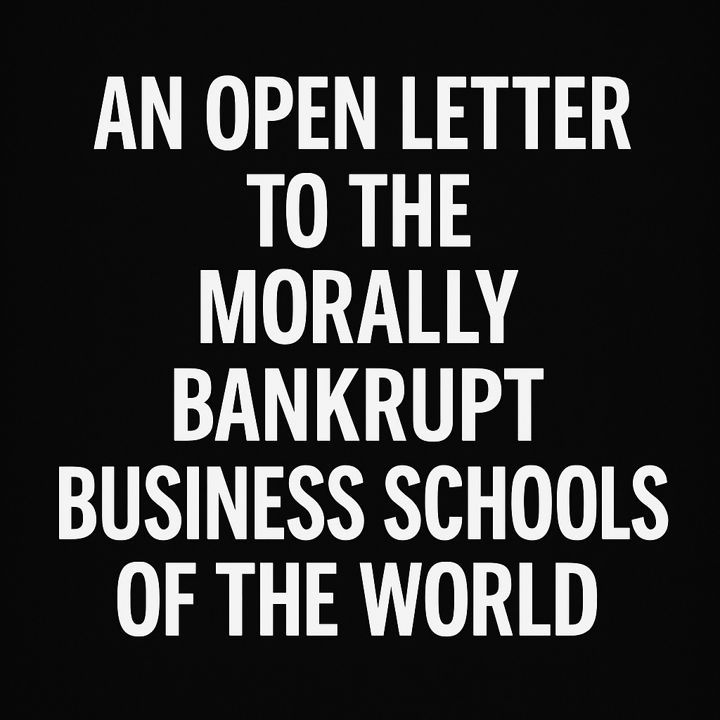

— on the Ethical Illegitimacy of Profit Maximization as the Purpose of Business
To the deans, professors, and curricula architects of the global business academy:
You have failed. For decades, your classrooms have propagated one of the most intellectually incoherent and morally corrosive doctrines of our time: that the purpose of business is to maximize profit. Not to sustain livelihoods. Not to serve society. Not to steward the earth—but to inflate shareholder returns, quarter after quarter, no matter the cost. You taught profit über alles not as ideology, but as law; not as dogma, but reason. You dressed it up in agency theory and efficiency models, sanctified it with the pseudo-ethics of fiduciary duty, and canonised it as the gospel of a managerial elite now structurally blind to justice. What you call value creation is more often value extraction. What you praise as wealth is too often the concentrated reward of externalised suffering.
Let us be clear: profit maximization is not a natural law. It is a late-modern construction—engineered in the wake of deregulation, financialization, and shareholder activism. Smuggled into business schools devoid of historical context, passed off as scientific management while severing business from ethics and masking a raw ideology of power.
No serious moral philosophy—none—endorses profit as supreme aim. Kant’s categorical imperative forbids treating humans as mere means. Aristotle condemned the endless accumulation of money as perversion of human purpose. Confucius warned that li (profit) must never supersede yi (righteousness). Islam permits commerce only within the bounds of social obligation. Christian doctrine demands solidarity and the primacy of the common good. The Mahabharata subordinates artha (material gain) to dharma. Even liberal contractarianism upholds dignity above profitability.
You cannot plead ignorance. From Exxon’s denialism to Purdue Pharma’s death toll: the data has been in for decades. Profit-first models degrade ecosystems, hollow out communities, and entrench structural injustice. As Stiglitz warns, markets left to themselves enrich the few at the expense of many—and where profit is king, democracy must die.
And now? You scramble to bolt ethics onto the same broken chassis. ESG. CSR. “Purpose.” All hollow if they remain subordinate to the balance sheet. It is not enough to ask “what works.” You must ask: what is good? And that requires you to rediscover what you abandoned: the primacy of moral purpose. Business exists to serve life—not the reverse.
Stop grooming technocrats of accumulation. Start forming stewards of the common good. Teach governance as practical wisdom. Teach wealth as a means, never an end. Teach that a good company is not one that profits most—but the one that makes people and societies better.
Until then, let it be said: your theories are not only dumb. They are dangerous.
#leadership
In light of the extraordinary public resonance to the post, with hundreds of thousands interacting and comments in now more than 15 languages, it seems only fair and timely to invite some leading institutions into the conversation:
Business IESE Business School SDA Bocconi The London School of Economics and Political Science (LSE) Cambridge Judge Business School Yale School of Management Saïd Business School, University of Oxford The University of Chicago Booth School of Business University of Pennsylvania UCLA Anderson School of Management emlyon business school ESSEC Business School EDHEC Business School IE Business School University of Warwick - Warwick Business School Mannheim Business School Erasmus University Rotterdam ESCP Business School IMD WHU - Otto Beisheim School of Management
To be clear once more: this is not a one-sided accusation but an invitation to collective reflection—recognising both institutional complicity and potential of business schools in shaping a more morally grounded future.
For over 1000 comments please see: https://www.linkedin.com/posts/ottivogt_leadership-activity-7350856983245123584-0oqO?utm_source=share&utm_medium=member_desktop&rcm=ACoAAABm1WMBiwxFaUc1X66gje88odJOEyNAskc
— on the Ethical Illegitimacy of Profit Maximization as the Purpose of Business
To the deans, professors, and curricula architects of the global business academy:
You have failed. For decades, your classrooms have propagated one of the most intellectually incoherent and morally corrosive doctrines of our time: that the purpose of business is to maximize profit. Not to sustain livelihoods. Not to serve society. Not to steward the earth—but to inflate shareholder returns, quarter after quarter, no matter the cost. You taught profit über alles not as ideology, but as law; not as dogma, but reason. You dressed it up in agency theory and efficiency models, sanctified it with the pseudo-ethics of fiduciary duty, and canonised it as the gospel of a managerial elite now structurally blind to justice. What you call value creation is more often value extraction. What you praise as wealth is too often the concentrated reward of externalised suffering.
Let us be clear: profit maximization is not a natural law. It is a late-modern construction—engineered in the wake of deregulation, financialization, and shareholder activism. Smuggled into business schools devoid of historical context, passed off as scientific management while severing business from ethics and masking a raw ideology of power.
No serious moral philosophy—none—endorses profit as supreme aim. Kant’s categorical imperative forbids treating humans as mere means. Aristotle condemned the endless accumulation of money as perversion of human purpose. Confucius warned that li (profit) must never supersede yi (righteousness). Islam permits commerce only within the bounds of social obligation. Christian doctrine demands solidarity and the primacy of the common good. The Mahabharata subordinates artha (material gain) to dharma. Even liberal contractarianism upholds dignity above profitability.
You cannot plead ignorance. From Exxon’s denialism to Purdue Pharma’s death toll: the data has been in for decades. Profit-first models degrade ecosystems, hollow out communities, and entrench structural injustice. As Stiglitz warns, markets left to themselves enrich the few at the expense of many—and where profit is king, democracy must die.
And now? You scramble to bolt ethics onto the same broken chassis. ESG. CSR. “Purpose.” All hollow if they remain subordinate to the balance sheet. It is not enough to ask “what works.” You must ask: what is good? And that requires you to rediscover what you abandoned: the primacy of moral purpose. Business exists to serve life—not the reverse.
Stop grooming technocrats of accumulation. Start forming stewards of the common good. Teach governance as practical wisdom. Teach wealth as a means, never an end. Teach that a good company is not one that profits most—but the one that makes people and societies better.
Until then, let it be said: your theories are not only dumb. They are dangerous.
#leadership
In light of the extraordinary public resonance to the post, with hundreds of thousands interacting and comments in now more than 15 languages, it seems only fair and timely to invite some leading institutions into the conversation:
Business IESE Business School SDA Bocconi The London School of Economics and Political Science (LSE) Cambridge Judge Business School Yale School of Management Saïd Business School, University of Oxford The University of Chicago Booth School of Business University of Pennsylvania UCLA Anderson School of Management emlyon business school ESSEC Business School EDHEC Business School IE Business School University of Warwick - Warwick Business School Mannheim Business School Erasmus University Rotterdam ESCP Business School IMD WHU - Otto Beisheim School of Management
To be clear once more: this is not a one-sided accusation but an invitation to collective reflection—recognising both institutional complicity and potential of business schools in shaping a more morally grounded future.
For over 1000 comments please see: https://www.linkedin.com/posts/ottivogt_leadership-activity-7350856983245123584-0oqO?utm_source=share&utm_medium=member_desktop&rcm=ACoAAABm1WMBiwxFaUc1X66gje88odJOEyNAskc
JULY 2025

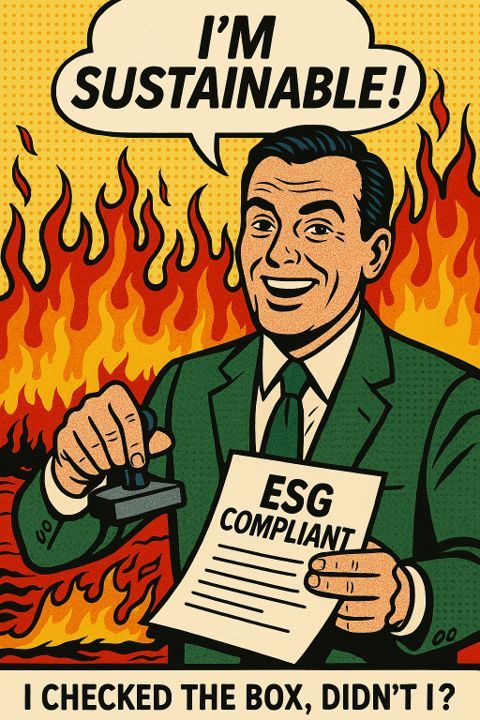

Sustainability is not a moral awakening. It's managerial procrastination—extending the life of a dying order without altering its soul. It asks: how can we keep doing what we're doing, with minimal friction, greener brands, and a clearer conscience? Even wrapped in ESG, it's moral theatre—“enlightened” self-interest posing as ethical depth. The individual remains sovereign, the world remains disposable, and morality collapses into a checklist.
Regeneration begins where sustainability refuses to go. It doesn't ask how we can continue, but whether we should. It dethrones the sovereign self and repositions it within a moral horizon we did not create. It's not a matter of cost–benefit analysis, nor eco-sentimentality—it is sacrificial decentering: what are we permitted to do without desecrating? What must we do to heal a world we have already wounded?
Yet regeneration must be rescued from its own confusions. Much that travels under its name drifts between ecological conservationism, which treats nature as a legacy to be preserved for its own sake; deep ecology, which romanticises nature as an inviolable pastoral ideal; environmental managerialism, which values nature instrumentally—through ecosystem services or as subjective well-being; and contractarian projections, which assign “rights” to rivers or nonhuman entities. The first is biologically descriptive but normatively hollow; the last, ethically imaginative but ontologically incoherent. Nature cannot speak, nor can it consent—and there are no rights without duties.
What regeneration really demands is neither the personification of nature nor its functional valuation, but a reckoning with the fractures we have created—between economy and ecology, profit and purpose, extraction and relation. The moral problem is not nature, but us. It begins not from presence, but from absence: the destruction of potential.
This is dialectical moral realism. The "good" is not an idealised nature waiting to be restored; it is revealed in the tension between what is and what could be—in the injustices our system produces and the absences it creates: dead soils, collapsed communities, lost futures. It is moral imagination in action: seeing through the appearances and committing to a purpose we did not choose.
Our limits are not procedural—they are existential. They cannot be governed by categorical rules, whether utilitarian or deontological. As Nietzsche warned, not all suffering is evil—and not every tree should be saved. And as the traditions of wisdom teach, the good is always particular, yet oriented toward the universal.
Where care for the good is absent, mediocrity takes root. Where mediocrity is tolerated, decay is inevitable. Leadership today demands not better metrics, but moral development to become worthy of the world—and of our place within it. Society cannot be saved by compliance; it must be led by those who truly care.
#leadershipip
Sustainability is not a moral awakening. It's managerial procrastination—extending the life of a dying order without altering its soul. It asks: how can we keep doing what we're doing, with minimal friction, greener brands, and a clearer conscience? Even wrapped in ESG, it's moral theatre—“enlightened” self-interest posing as ethical depth. The individual remains sovereign, the world remains disposable, and morality collapses into a checklist.
Regeneration begins where sustainability refuses to go. It doesn't ask how we can continue, but whether we should. It dethrones the sovereign self and repositions it within a moral horizon we did not create. It's not a matter of cost–benefit analysis, nor eco-sentimentality—it is sacrificial decentering: what are we permitted to do without desecrating? What must we do to heal a world we have already wounded?
Yet regeneration must be rescued from its own confusions. Much that travels under its name drifts between ecological conservationism, which treats nature as a legacy to be preserved for its own sake; deep ecology, which romanticises nature as an inviolable pastoral ideal; environmental managerialism, which values nature instrumentally—through ecosystem services or as subjective well-being; and contractarian projections, which assign “rights” to rivers or nonhuman entities. The first is biologically descriptive but normatively hollow; the last, ethically imaginative but ontologically incoherent. Nature cannot speak, nor can it consent—and there are no rights without duties.
What regeneration really demands is neither the personification of nature nor its functional valuation, but a reckoning with the fractures we have created—between economy and ecology, profit and purpose, extraction and relation. The moral problem is not nature, but us. It begins not from presence, but from absence: the destruction of potential.
This is dialectical moral realism. The "good" is not an idealised nature waiting to be restored; it is revealed in the tension between what is and what could be—in the injustices our system produces and the absences it creates: dead soils, collapsed communities, lost futures. It is moral imagination in action: seeing through the appearances and committing to a purpose we did not choose.
Our limits are not procedural—they are existential. They cannot be governed by categorical rules, whether utilitarian or deontological. As Nietzsche warned, not all suffering is evil—and not every tree should be saved. And as the traditions of wisdom teach, the good is always particular, yet oriented toward the universal.
Where care for the good is absent, mediocrity takes root. Where mediocrity is tolerated, decay is inevitable. Leadership today demands not better metrics, but moral development to become worthy of the world—and of our place within it. Society cannot be saved by compliance; it must be led by those who truly care.
#leadershipip
JULY 2025



RISE, EUROPEANS, RISE!
Europe trembles on the threshold of its own becoming, gripped by the cold hand of fear yet called, inexorably, toward the horizon of its promise. This is not the ephemeral anxiety of a restless night—this is existential dread that settles when the familiar order buckles, when the certainties of prosperity, peace, and progress are shaken by war on its borders, rising tides of migration, the relentless arithmetic of inflation and debt, and the gnawing suspicion that democracy’s engines may be running on borrowed time.
Yet, as Kierkegaard taught, it is in the encounter with dread that the self is summoned to leap—faith is not absence of fear, but the courage to act in spite of it. Europe stands, like Jacob at the ford of Jabbok, wrestling through the night with the angel of destiny. Will it emerge limping, yet blessed with a new purpose, or shrink back into nostalgia and division? The answer is not found in technocratic policy papers or sterile GDP calculations, but in the furnace of collective imagination, in the willingness to see beyond present darkness to a dawn that beckons.
Europe’s pride is not a relic, but a living inheritance. It's the pride of Athens and Jerusalem, of cathedral and laboratory, of refugee and citizen. It is the pride that built bridges over rivers of blood, dared to write human rights into law, made the ruins of war foundations of union. This pride is not arrogance, but a humble recognition that the miracle of Europe is not its perfection, but its perpetual striving—the unfinished symphony of peoples learning, again and again, to live together.
But pride alone cannot sustain our journey. Hope must become the engine of transformation. Hope, as Bonhoeffer reminds us, is not optimism—it is the certainty that something is worth doing, however it turns out. Europe’s hope is not naïve; it is forged in the crucible of history, tempered by the knowledge that every generation must choose anew between the comfort of cynicism and the labour of trust. This hope refuses to be extinguished by setbacks, it sees in crisis the possibility of renewal, it hears in the cacophony of voices first notes of a new harmony.
To trust our hope is to risk disappointment, to wager that the arc of our common life bends toward justice, toward solidarity, toward a peace that is not merely the absence of war but the presence of dignity for all. It is to believe, in the face of all evidence to the contrary, that the European project is not a closed chapter but an unfinished gospel, still being written in the thriving of millions.
Europe, the time for trembling has passed. Stand in full measure of your fear, let it burn away the dross of complacency, and feel the pride that comes not from what you have inherited, but from what you dare to build. Trust your hopes—as blueprint of a future only your courage can summon. The night is long, but the morning belongs to those who do not turn away from the horizon of potential.
#leadership
RISE, EUROPEANS, RISE!
Europe trembles on the threshold of its own becoming, gripped by the cold hand of fear yet called, inexorably, toward the horizon of its promise. This is not the ephemeral anxiety of a restless night—this is existential dread that settles when the familiar order buckles, when the certainties of prosperity, peace, and progress are shaken by war on its borders, rising tides of migration, the relentless arithmetic of inflation and debt, and the gnawing suspicion that democracy’s engines may be running on borrowed time.
Yet, as Kierkegaard taught, it is in the encounter with dread that the self is summoned to leap—faith is not absence of fear, but the courage to act in spite of it. Europe stands, like Jacob at the ford of Jabbok, wrestling through the night with the angel of destiny. Will it emerge limping, yet blessed with a new purpose, or shrink back into nostalgia and division? The answer is not found in technocratic policy papers or sterile GDP calculations, but in the furnace of collective imagination, in the willingness to see beyond present darkness to a dawn that beckons.
Europe’s pride is not a relic, but a living inheritance. It's the pride of Athens and Jerusalem, of cathedral and laboratory, of refugee and citizen. It is the pride that built bridges over rivers of blood, dared to write human rights into law, made the ruins of war foundations of union. This pride is not arrogance, but a humble recognition that the miracle of Europe is not its perfection, but its perpetual striving—the unfinished symphony of peoples learning, again and again, to live together.
But pride alone cannot sustain our journey. Hope must become the engine of transformation. Hope, as Bonhoeffer reminds us, is not optimism—it is the certainty that something is worth doing, however it turns out. Europe’s hope is not naïve; it is forged in the crucible of history, tempered by the knowledge that every generation must choose anew between the comfort of cynicism and the labour of trust. This hope refuses to be extinguished by setbacks, it sees in crisis the possibility of renewal, it hears in the cacophony of voices first notes of a new harmony.
To trust our hope is to risk disappointment, to wager that the arc of our common life bends toward justice, toward solidarity, toward a peace that is not merely the absence of war but the presence of dignity for all. It is to believe, in the face of all evidence to the contrary, that the European project is not a closed chapter but an unfinished gospel, still being written in the thriving of millions.
Europe, the time for trembling has passed. Stand in full measure of your fear, let it burn away the dross of complacency, and feel the pride that comes not from what you have inherited, but from what you dare to build. Trust your hopes—as blueprint of a future only your courage can summon. The night is long, but the morning belongs to those who do not turn away from the horizon of potential.
#leadership
JULY 2025



ELECTRONS DON'T DANCE: Why Physicists Make the Worst Metaphysicians
Many scientists, often late in life, are no longer content with particles. From Bohm's "Implicate Order" to Tegmark's "Mathematical Universe," we've witnessed rigorous scientists wandering into metaphysical jungles armed only with calculators and late-life wonder.
But metaphysics isn't about clever analogies. It is the disciplined inquiry into being qua being—into causality, necessity, absence, and transcendence. Yet most physicists remain trapped in the epistemic fallacy: somewhere between the lab bench and the TED Talk, wave functions become wisdom, and uncertainty becomes religion.
I. Seeing Is Being
Hawking famously declared "philosophy is dead" because physics makes better predictions. Wheeler's "it from bit" implies reality is structured like information. Einstein claimed "God does not play dice" out of discomfort with indeterminacy. But predictive coherence is not ontological grounding. When physics collapses the real into the measurable, it confuses map for territory—mathematics becomes metaphysics by fiat.
II. Morals from Matter
Bohm saw cosmic love in quantum holism; Capra linked the dance of particles to ecological ethics. McGilchrist turns brain asymmetry into moral philosophy. But valence isn't virtue. Patterns of matter don't carry moral weight. Inferring the good from the entangled is a naturalistic fallacy, not ethics. No spin state demands compassion.
III. Mathematical Monism
Tegmark's universe is pure mathematics. Rovelli sees everything as relational structure. Laszlo proposes a cosmic information field. But scientific monism masquerading as metaphysical insight is still cosmological ignorance. Humans aren't morally obligated to hold hands because electrons don't bump into each other.
IV. Emergence Without Agency
Varela's autopoiesis, Penrose's orchestrated reduction, Sheldrake's morphic resonance—all stretch emergence to cover social behaviour, individual choice, even consciousness. But human agency is not self-organisation. Social emergence requires reflexivity, political struggle, and institutional mediation. To conflate physical patterning with social morphogenesis is to erase freedom and responsibility alike.
V. Origins Aren't Essence
Perhaps the gravest consequence isn't just conceptual confusion but moral nihilism. Krauss claims a quantum vacuum explains existence; Carroll reduces consciousness to entropy gradients. But quantum jump is not genesis. Collapsing meaning into origin, life into evolution, soul into neuroscience—a cause is not a reason. And just because the brain fires doesn't mean we've found the spirit.
We don't need another quantum mystic. We need societal leaders trained in philosophy, politics, sociology, psychology and economics.
To all you physicists: thank you for the Higgs boson, background radiation and the standard model. But when it comes to metaphysics, please stay in your lane. ;-)
#leadership
ELECTRONS DON'T DANCE: Why Physicists Make the Worst Metaphysicians
Many scientists, often late in life, are no longer content with particles. From Bohm's "Implicate Order" to Tegmark's "Mathematical Universe," we've witnessed rigorous scientists wandering into metaphysical jungles armed only with calculators and late-life wonder.
But metaphysics isn't about clever analogies. It is the disciplined inquiry into being qua being—into causality, necessity, absence, and transcendence. Yet most physicists remain trapped in the epistemic fallacy: somewhere between the lab bench and the TED Talk, wave functions become wisdom, and uncertainty becomes religion.
I. Seeing Is Being
Hawking famously declared "philosophy is dead" because physics makes better predictions. Wheeler's "it from bit" implies reality is structured like information. Einstein claimed "God does not play dice" out of discomfort with indeterminacy. But predictive coherence is not ontological grounding. When physics collapses the real into the measurable, it confuses map for territory—mathematics becomes metaphysics by fiat.
II. Morals from Matter
Bohm saw cosmic love in quantum holism; Capra linked the dance of particles to ecological ethics. McGilchrist turns brain asymmetry into moral philosophy. But valence isn't virtue. Patterns of matter don't carry moral weight. Inferring the good from the entangled is a naturalistic fallacy, not ethics. No spin state demands compassion.
III. Mathematical Monism
Tegmark's universe is pure mathematics. Rovelli sees everything as relational structure. Laszlo proposes a cosmic information field. But scientific monism masquerading as metaphysical insight is still cosmological ignorance. Humans aren't morally obligated to hold hands because electrons don't bump into each other.
IV. Emergence Without Agency
Varela's autopoiesis, Penrose's orchestrated reduction, Sheldrake's morphic resonance—all stretch emergence to cover social behaviour, individual choice, even consciousness. But human agency is not self-organisation. Social emergence requires reflexivity, political struggle, and institutional mediation. To conflate physical patterning with social morphogenesis is to erase freedom and responsibility alike.
V. Origins Aren't Essence
Perhaps the gravest consequence isn't just conceptual confusion but moral nihilism. Krauss claims a quantum vacuum explains existence; Carroll reduces consciousness to entropy gradients. But quantum jump is not genesis. Collapsing meaning into origin, life into evolution, soul into neuroscience—a cause is not a reason. And just because the brain fires doesn't mean we've found the spirit.
We don't need another quantum mystic. We need societal leaders trained in philosophy, politics, sociology, psychology and economics.
To all you physicists: thank you for the Higgs boson, background radiation and the standard model. But when it comes to metaphysics, please stay in your lane. ;-)
#leadership
JULY 2025



THE ART OF LISTENING: Answering to What Is Not Ours to Choose
No, this in't about listening to your “inner voice.” It isn't about mindfulness, radical candour, or “presence.” And it isn't about “active listening,” “safe spaces,” or the cultivation of “psychological safety.”
Nor is it about procedural fairness—where every voice is timed, calibrated, and categorised by diversity norms.
These may belong to the science, or the politics, of listening—but they are not its art. They are gestures of inclusion or performance: rearranging the furniture of discourse without altering the architecture of perception. They produce compliance, not conversion.
True listening is not mere openness to others. It is the first movement of truth. Not a method, but radical receptivity to the world as it really is. To listen is to step into the fractures of social reality—where the ideal collapses, where the good is missing, where suffering disrupts our categories and reveals our complicity. Not as a passive observer, but as one positioned within the world—implicated in what is broken, and already claimed by what is at stake. It is radical witnessing: attention to the real not as sensation or dialogue, but as claim.
Listening, rightly understood, is the foundation of wisdom—not because it yields knowledge, but because it reveals position. It discloses how the self stands in tension between what is and what ought to be. The world does not present itself as a chorus of opinions, but as a horizon of unrealised potential. And to listen is to be pierced by that absence—reoriented by the demand of the good that has not yet come to be.
Popular leadership development recoils from this. It confuses listening with tolerance, feedback, or emotional recognition—framing it as a tool for the self to optimise culture or performance. But listening begins where control ends: when the world breaches your defences, when the brokenness becomes undeniable, and you can no longer unsee what demands response. This is diakrisis—not analytical clarity, but moral rupture. Discernment exposes where you stand in relation to what you are called to become.
Hence, a genuine ART of listening begins not in technique, but in attunement. It apprehends the world's purposiveness without instrumental reduction. Like a painter, it actualises hidden potential through participatory transformation—not as psychological technique, but as ontological reorientation: the self is discovered as already claimed by what transcends its choosing. Becoming unfolds not by accumulation, but by analogy—through the self’s resonance with what is absent, misaligned, unjust, or beautifully possible.
In other words: A listening leader is not merely inclusive or “emotionally intelligent.” She does not wield empathy to steer the world triumphantly toward a direction of her choosing—rather, she follows what demands response, to become what the world truly needs.
#leadership #transformation #psychology #philosophy #management
JULY 2025

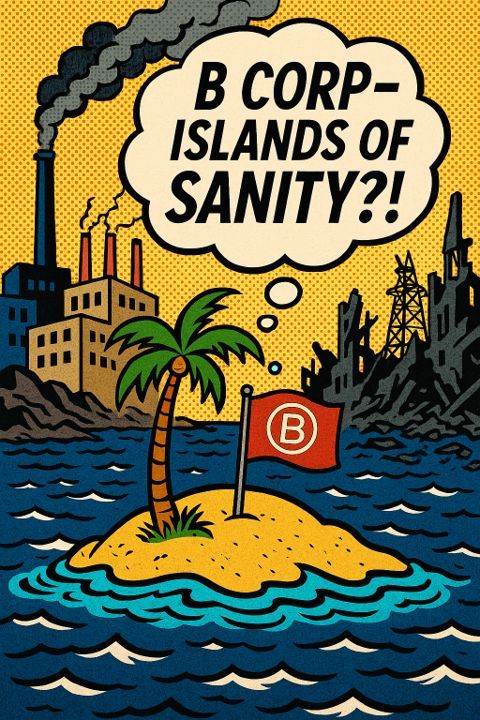
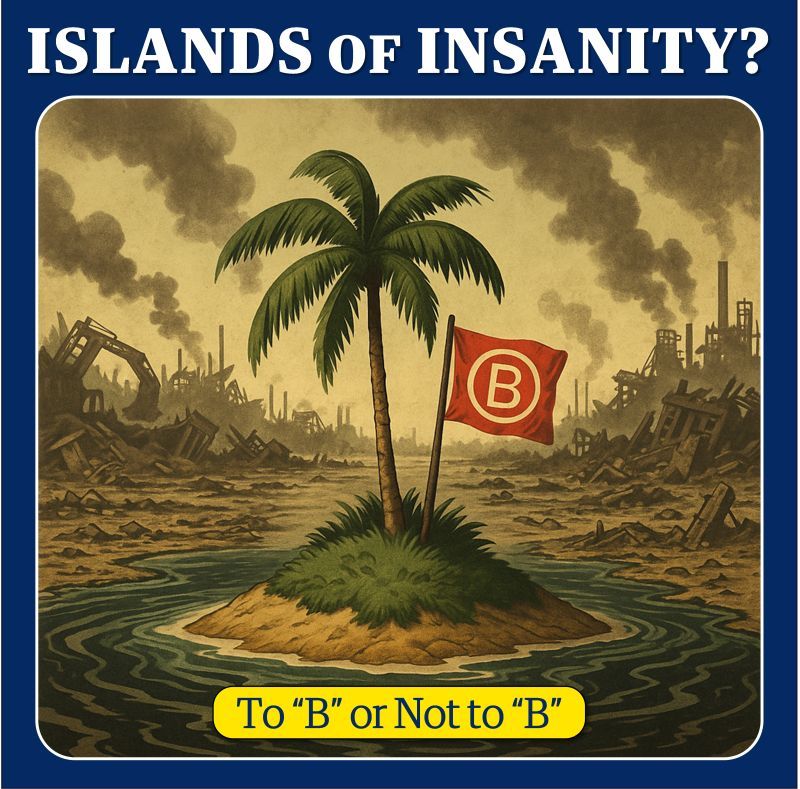
ISLANDS OF (IN)SANITY: WHAT'S WRONG WITH B CORPS?
Don't get me wrong—I love B Corp. But I am worried.
No, this isn’t about gaming points, bureaucracy, or greenwashing—those are symptoms, not causes. The deeper failure is ideological: B Corp risks collapsing moral crisis into managerial optimisation, turning business transformation - unwittingly - into a systemic alibi.
Its first flaw is ontological. It lacks an account of how organisations are shaped by and shape wider systems—property regimes, political struggles, structural injustice. The result is neopragmatic blindness: moral agency is reduced to linear optimisation of impact metrics, and deeper contradiction between economic system and social justice disappears.
Second, it severs imagination from emancipation. The model rewards problem-solving, not system reframing—privileging “better within” over “different beyond.” Entrepreneurs reduce harm within predefined categories, not transgress the normative architecture in which business unfolds. There is no institutional container for contradiction in search of transcendence—no dialectic, no telos, no agonistic public reason to contest highest systemic potential. Moral ambition remains domesticated: founder-driven, centralised, efficiency-obsessed.
Third, judgment is instrumental, not moral—trapped within the single firm. Certification scaffolds stakeholder inclusion as procedural compliance, not systemic responsibility. The question becomes not “what must we renounce together to lift up the whole system?” but "how far can I go without losing competitiveness?". Without institutions for collective moral reasoning, purpose collapses into continuous optimisation: firms export CO₂-neutral coffee to rich Western consumers, while exploitation, inequality, ecological debt persist. Good is commodified into scoreable, financeable, marketable features—not a horizon of shared moral ambition.
Fourth, action is disembedded and depoliticised. B Corps are evaluated in isolation, not as institutional agents of systemic change. Impact is framed through materiality and risk management; excellence as patented production systems, products are ethical escapes. The result: B Corps stand as beautiful islands in seas of dysfunction—morally deviating, strategically irrelevant.
I love #BCorps. But I’m worried—not because they fail, but because they succeed on the wrong terms. They prove sustainability can be profitable in premium niches, while sidestepping the deeper political struggle of eliminating the premium.
The risk is moral spectacle: too small to matter, yet falsely signalling that "conscious capitalism" is feasible. What we need is not better scoring, but a richer theory of development—one that confronts structural contradictions, aligns imagination with justice, enables ecosystemic governance, and owns responsibility for the political #transformation of our economy. Some B Corps—from Nativa to Daterra—already do. But the model does not lead them there. It follows.
#leadership
ISLANDS OF (IN)SANITY: WHAT'S WRONG WITH B CORPS?
Don't get me wrong—I love B Corp. But I am worried.
No, this isn’t about gaming points, bureaucracy, or greenwashing—those are symptoms, not causes. The deeper failure is ideological: B Corp risks collapsing moral crisis into managerial optimisation, turning business transformation - unwittingly - into a systemic alibi.
Its first flaw is ontological. It lacks an account of how organisations are shaped by and shape wider systems—property regimes, political struggles, structural injustice. The result is neopragmatic blindness: moral agency is reduced to linear optimisation of impact metrics, and deeper contradiction between economic system and social justice disappears.
Second, it severs imagination from emancipation. The model rewards problem-solving, not system reframing—privileging “better within” over “different beyond.” Entrepreneurs reduce harm within predefined categories, not transgress the normative architecture in which business unfolds. There is no institutional container for contradiction in search of transcendence—no dialectic, no telos, no agonistic public reason to contest highest systemic potential. Moral ambition remains domesticated: founder-driven, centralised, efficiency-obsessed.
Third, judgment is instrumental, not moral—trapped within the single firm. Certification scaffolds stakeholder inclusion as procedural compliance, not systemic responsibility. The question becomes not “what must we renounce together to lift up the whole system?” but "how far can I go without losing competitiveness?". Without institutions for collective moral reasoning, purpose collapses into continuous optimisation: firms export CO₂-neutral coffee to rich Western consumers, while exploitation, inequality, ecological debt persist. Good is commodified into scoreable, financeable, marketable features—not a horizon of shared moral ambition.
Fourth, action is disembedded and depoliticised. B Corps are evaluated in isolation, not as institutional agents of systemic change. Impact is framed through materiality and risk management; excellence as patented production systems, products are ethical escapes. The result: B Corps stand as beautiful islands in seas of dysfunction—morally deviating, strategically irrelevant.
I love #BCorps. But I’m worried—not because they fail, but because they succeed on the wrong terms. They prove sustainability can be profitable in premium niches, while sidestepping the deeper political struggle of eliminating the premium.
The risk is moral spectacle: too small to matter, yet falsely signalling that "conscious capitalism" is feasible. What we need is not better scoring, but a richer theory of development—one that confronts structural contradictions, aligns imagination with justice, enables ecosystemic governance, and owns responsibility for the political #transformation of our economy. Some B Corps—from Nativa to Daterra—already do. But the model does not lead them there. It follows.
#leadership
JULY 2025

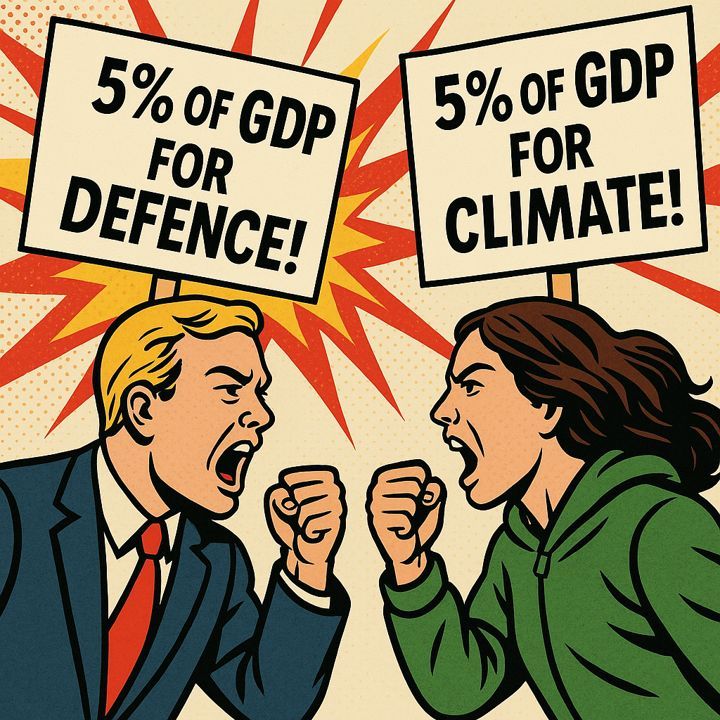

FIGHTING THE WRONG WAR: The Fantasy of Redemption Without Renunciation
The growing call to spend “5% of GDP on climate”—mirroring Trump’s demand for defence—appears bold, rational, even just. But it reproduces precisely the logic it aims to resist. It casts climate collapse as an external threat, to be addressed not through moral transformation but through problem-solving: more capital, more scale, more control. It offers not rupture, but continuity in green. It asks us to act—without changing the paradigm.
What makes the 5% proposal so seductive is its moral plausibility. It allows us to believe that, with sufficient investment, the system can outpace the crisis it created. It converts guilt into technocratic optimism, sustaining the fantasy that planetary breakdown stems not from the form of our civilisation, but from its inefficiency—that what’s required is not sacrifice, but refinement. Not conversion, but intervention.
While we clamber for action, our demand remains anchored to GDP—the crucifix of our hegemonic economic religion. Even those who renounce it remain trapped in a gospel of instrumental rationality: conjuring wellbeing indices, life satisfaction scales, mental health indicators. But still they count. Still they optimise. Still they confuse therapy with virtue, harm reduction with justice, measurement with morality. They do not ask what must be transcended, hospiced, or redeemed—only what must be improved.
Symbolically, the 5% becomes a sublimated bribe to our own conscience—not to honour the Earth, but to sustain our brittle illusion of coherence. A ritual offering that defers castration: the exposure of a liberal and libidinal ideology that cannot accept its own limitations. We tell ourselves we're acting, but we're merely preserving the conditions for inaction—celebrating self-care to avoid loss. We sustain the fantasy of moral agency while disavowing the void: that no percentage of capital can redeem a society built on denial—of limit, interdependence, and the moral necessity of suffering.
The climate crisis is not a failure of allocation. It is not a question of trust in democracy. It is not about what we possess, but what we serve. It is about what we stand for. At its core, it is about faith: in loss, in renunciation, in the redemptive force of self-constraint. Not control, but confession. Not security, but sacrifice. It is soteriology: the capacity to joyfully suffer for what genuinely makes us human—for the Earth, for others, for the good.
We cannot pay our way out of the polycrisis we created. We should not ask for 5% more GDP—we should demand GDP to be 5% less. Not as austerity, but as a sign of temperance, of reordering, of moral clarity. Until we learn to limit ourselves wisely—not for efficiency, but for the good—we will keep fighting the wrong war. And losing.
#leadership
FIGHTING THE WRONG WAR: The Fantasy of Redemption Without Renunciation
The growing call to spend “5% of GDP on climate”—mirroring Trump’s demand for defence—appears bold, rational, even just. But it reproduces precisely the logic it aims to resist. It casts climate collapse as an external threat, to be addressed not through moral transformation but through problem-solving: more capital, more scale, more control. It offers not rupture, but continuity in green. It asks us to act—without changing the paradigm.
What makes the 5% proposal so seductive is its moral plausibility. It allows us to believe that, with sufficient investment, the system can outpace the crisis it created. It converts guilt into technocratic optimism, sustaining the fantasy that planetary breakdown stems not from the form of our civilisation, but from its inefficiency—that what’s required is not sacrifice, but refinement. Not conversion, but intervention.
While we clamber for action, our demand remains anchored to GDP—the crucifix of our hegemonic economic religion. Even those who renounce it remain trapped in a gospel of instrumental rationality: conjuring wellbeing indices, life satisfaction scales, mental health indicators. But still they count. Still they optimise. Still they confuse therapy with virtue, harm reduction with justice, measurement with morality. They do not ask what must be transcended, hospiced, or redeemed—only what must be improved.
Symbolically, the 5% becomes a sublimated bribe to our own conscience—not to honour the Earth, but to sustain our brittle illusion of coherence. A ritual offering that defers castration: the exposure of a liberal and libidinal ideology that cannot accept its own limitations. We tell ourselves we're acting, but we're merely preserving the conditions for inaction—celebrating self-care to avoid loss. We sustain the fantasy of moral agency while disavowing the void: that no percentage of capital can redeem a society built on denial—of limit, interdependence, and the moral necessity of suffering.
The climate crisis is not a failure of allocation. It is not a question of trust in democracy. It is not about what we possess, but what we serve. It is about what we stand for. At its core, it is about faith: in loss, in renunciation, in the redemptive force of self-constraint. Not control, but confession. Not security, but sacrifice. It is soteriology: the capacity to joyfully suffer for what genuinely makes us human—for the Earth, for others, for the good.
We cannot pay our way out of the polycrisis we created. We should not ask for 5% more GDP—we should demand GDP to be 5% less. Not as austerity, but as a sign of temperance, of reordering, of moral clarity. Until we learn to limit ourselves wisely—not for efficiency, but for the good—we will keep fighting the wrong war. And losing.
#leadership
JULY 2025

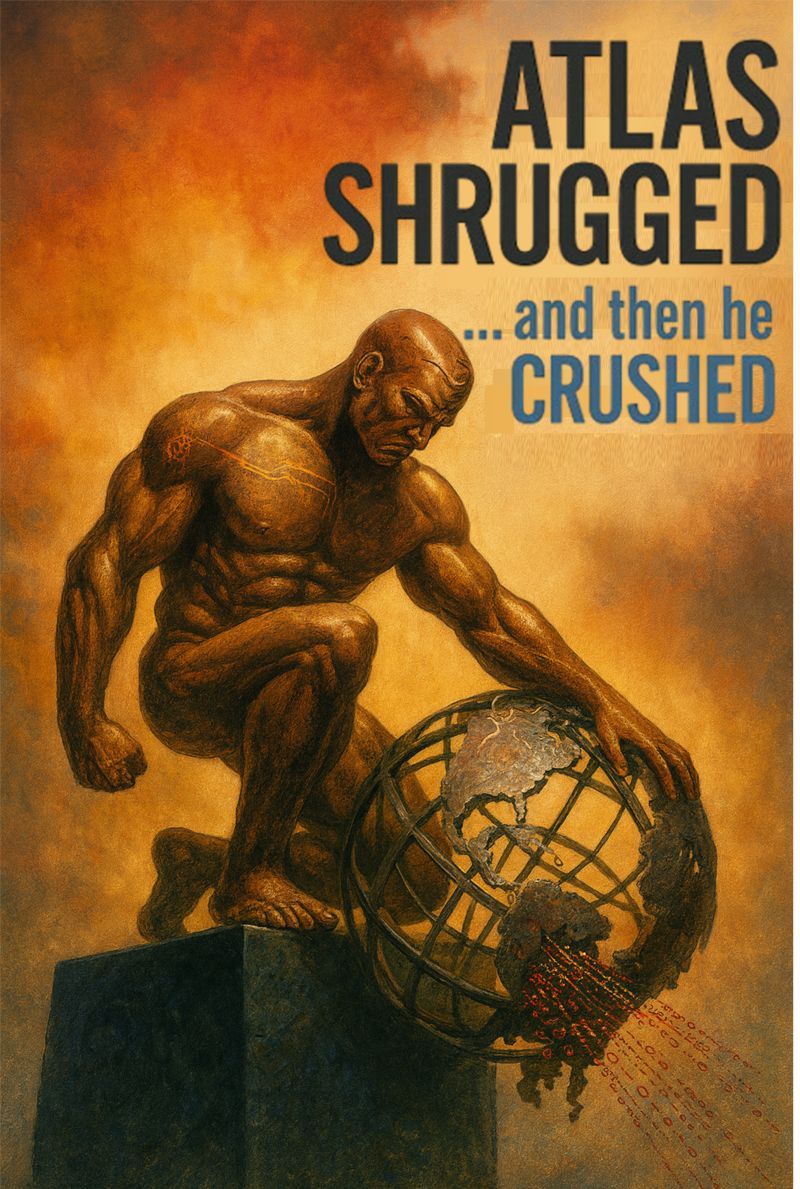
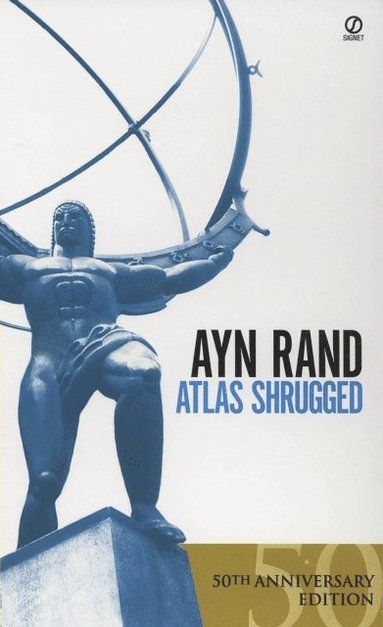
NEOLIBERALISM’S FINAL BATTLE: Far-Right Capitalism and the Death of Democracy
Democracy is dying. Across the world, liberal societies are electing their own executioners—authoritarian movements that promise to destroy the very freedoms that brought them to power.
This rise of the far right is not a rupture with neoliberalism—it is its terminal mutation. What began as an elite project to disembed markets from democratic constraint has culminated, half a century later, in a regime that no longer even pretends to be democratic. Today’s far right strips away liberal façades to reveal a paradigm of domination grounded in exclusion, economic supremacy, and technology.
In the 1970s, neoliberalism emerged as a counter-revolution to social democracy. From Hayek to Friedman, it promised freedom by dissolving the political—no more justice, only competition; no more solidarity, only choice. Its genius was to present technocracy as neutral while rendering its violence—privatisation, precarity, planetary destruction—as common sense. It dismantled unions, fragmented civil society, and redefined citizenship as consumption.
But markets cannot produce meaning. When the 2008 crisis shattered the promise of shared prosperity, what remained was not liberty but angst, not order but chaos, not democracy but domination by money and machine. When politics tried to reclaim control, neoliberalism mounted its final defence: techno-authoritarianism.
Its ideology echoes fascism, but where fascism was statist and nationalist, today’s authoritarianism is entrepreneurial, secessionist, techno-utopian. It fuses libertarian capital-worship with neoconservative fantasies of purity, decline, and rebirth. Its moral logic is procedural domination—via code, capital, and calibrated cruelty. Where neoliberalism corrupted citizenship, its heirs abolish it altogether—replacing political agency with loyalty to ethno-meritocratic hierarchies of power.
Some still claim the far right is a backlash AGAINST globalisation, but the convergence is plain: the same billionaires who funded austerity now bankroll ethno-populism. The same platforms that promised emancipation now enable surveillance and disinformation.
Why do so many rally to movements that deepen their subjugation? Because neoliberalism did not merely destroy democratic legitimacy—it rewired desire. Abandoned by the state, people seek belonging. They do not vote for policy; they pledge allegiance to myth. The far right does not persuade—it seduces. When the future is foreclosed, rage becomes the final form of hope.
Yet we cannot defeat myth with data. The new right offers not arguments but identity. If #democracy is to survive, it must recover the political as a shared moral project—one that dignifies, binds, and inspires. That demands institutions of truth, structures of care, and the courage to confront capital not only with critique, but with a counter-myth rooted in #justice, solidarity, and the possibility of a common good.
NEOLIBERALISM’S FINAL BATTLE: Far-Right Capitalism and the Death of Democracy
Democracy is dying. Across the world, liberal societies are electing their own executioners—authoritarian movements that promise to destroy the very freedoms that brought them to power.
This rise of the far right is not a rupture with neoliberalism—it is its terminal mutation. What began as an elite project to disembed markets from democratic constraint has culminated, half a century later, in a regime that no longer even pretends to be democratic. Today’s far right strips away liberal façades to reveal a paradigm of domination grounded in exclusion, economic supremacy, and technology.
In the 1970s, neoliberalism emerged as a counter-revolution to social democracy. From Hayek to Friedman, it promised freedom by dissolving the political—no more justice, only competition; no more solidarity, only choice. Its genius was to present technocracy as neutral while rendering its violence—privatisation, precarity, planetary destruction—as common sense. It dismantled unions, fragmented civil society, and redefined citizenship as consumption.
But markets cannot produce meaning. When the 2008 crisis shattered the promise of shared prosperity, what remained was not liberty but angst, not order but chaos, not democracy but domination by money and machine. When politics tried to reclaim control, neoliberalism mounted its final defence: techno-authoritarianism.
Its ideology echoes fascism, but where fascism was statist and nationalist, today’s authoritarianism is entrepreneurial, secessionist, techno-utopian. It fuses libertarian capital-worship with neoconservative fantasies of purity, decline, and rebirth. Its moral logic is procedural domination—via code, capital, and calibrated cruelty. Where neoliberalism corrupted citizenship, its heirs abolish it altogether—replacing political agency with loyalty to ethno-meritocratic hierarchies of power.
Some still claim the far right is a backlash AGAINST globalisation, but the convergence is plain: the same billionaires who funded austerity now bankroll ethno-populism. The same platforms that promised emancipation now enable surveillance and disinformation.
Why do so many rally to movements that deepen their subjugation? Because neoliberalism did not merely destroy democratic legitimacy—it rewired desire. Abandoned by the state, people seek belonging. They do not vote for policy; they pledge allegiance to myth. The far right does not persuade—it seduces. When the future is foreclosed, rage becomes the final form of hope.
Yet we cannot defeat myth with data. The new right offers not arguments but identity. If #democracy is to survive, it must recover the political as a shared moral project—one that dignifies, binds, and inspires. That demands institutions of truth, structures of care, and the courage to confront capital not only with critique, but with a counter-myth rooted in #justice, solidarity, and the possibility of a common good.
JULY 2025

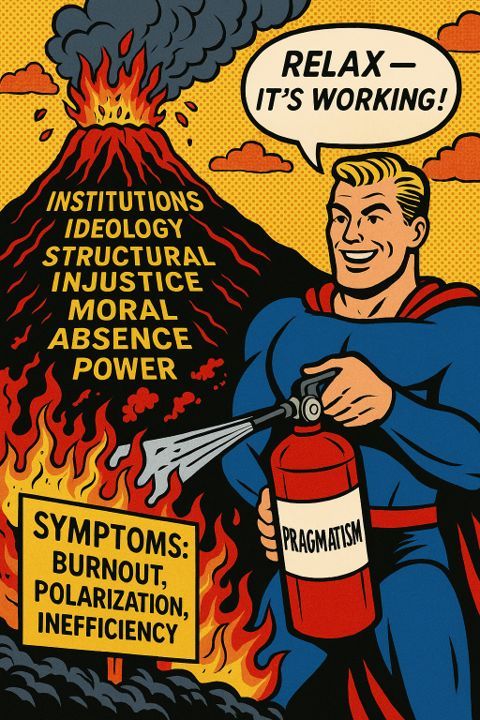

LET'S NOT BE TOO ACADEMIC: How Pragmatism Becomes An Ideology of Collapse
There is a certain kind of change agent—eager, agile, committed, and unburdened by much theory—who, when faced with conceptual complexity dismisses it with thinly veiled irritation: "Let's not be too academic." As if clarity was an obstacle, thought a burden, theory a luxury, depth a distraction. This genteel philistinism masquerades as humility but functions as dogmatic anti-intellectualism—a dismissal of philosophy in the name of action, a refusal of rigor in the name of relevance. The phrase is not innocent. It is the calling card of an epistemic and moral retreat that has licensed vast damage: to nature, to people, and to truth itself.
The pragmatist ethic—"do what works"—presumes a world devoid of structure, contradiction, or ideology. It treats systems as "neutral" complexity, not as political arrangements sustained by interests, discourses, and structural privilege. This ontological myopia reduces reality to functionality, substituting operational success for political critique. What passes for "systems thinking" becomes managerial choreography, arranging symptoms while ignoring structures. No critical theory—only maps, leverage points, and feedback loops floating in the shallow pool of first-order cybernetics.
The pragmatic turn thus becomes a flight from truth—not because truth is abstract, but because it demands accountability beyond immediate efficacy. Rorty's ghosts haunt strategy meetings where progress becomes whatever peers applaud, confusing consensus with knowledge, iteration with discernment. By rejecting access to deeper moral reasoning, pragmatic cultures become ethically hollow—preoccupied with inclusion, not justice; participation, not emancipation. They pride themselves on not being political, while becoming incapable to confront the very systems they wish to transform.
The moral consequences are devastating. Pragmatism breeds well-meaning actionism: no telos, only SDGs; no compass, only KPIs. We are told not to theorise but to run pilots. When inevitable failures arise—climate collapse, democratic erosion, institutional distrust—pragmatists reach for even more frameworks, new startups, bigger labs. But one cannot prototype one's way out of political decay. The infrastructure of justice demands philosophical literacy, historical consciousness, and moral seriousness—precisely what pragmatists abandoned for speed and supposed relevance.
The irony is exquisite. In striving to avoid ideology, pragmatists become its most effective agents. In dismissing politics, they entrench the status quo. In scorning theory, they deprive themselves of the only tools capable of naming real forces at work.
We inhabit the ruins of their success—a world where “evidence-based” wards off the harder work of transforming political structures. Hell, indeed, is paved with good intentions—but often staffed by performance coaches and design thinking facilitators.
#leadership
LET'S NOT BE TOO ACADEMIC: How Pragmatism Becomes An Ideology of Collapse
There is a certain kind of change agent—eager, agile, committed, and unburdened by much theory—who, when faced with conceptual complexity dismisses it with thinly veiled irritation: "Let's not be too academic." As if clarity was an obstacle, thought a burden, theory a luxury, depth a distraction. This genteel philistinism masquerades as humility but functions as dogmatic anti-intellectualism—a dismissal of philosophy in the name of action, a refusal of rigor in the name of relevance. The phrase is not innocent. It is the calling card of an epistemic and moral retreat that has licensed vast damage: to nature, to people, and to truth itself.
The pragmatist ethic—"do what works"—presumes a world devoid of structure, contradiction, or ideology. It treats systems as "neutral" complexity, not as political arrangements sustained by interests, discourses, and structural privilege. This ontological myopia reduces reality to functionality, substituting operational success for political critique. What passes for "systems thinking" becomes managerial choreography, arranging symptoms while ignoring structures. No critical theory—only maps, leverage points, and feedback loops floating in the shallow pool of first-order cybernetics.
The pragmatic turn thus becomes a flight from truth—not because truth is abstract, but because it demands accountability beyond immediate efficacy. Rorty's ghosts haunt strategy meetings where progress becomes whatever peers applaud, confusing consensus with knowledge, iteration with discernment. By rejecting access to deeper moral reasoning, pragmatic cultures become ethically hollow—preoccupied with inclusion, not justice; participation, not emancipation. They pride themselves on not being political, while becoming incapable to confront the very systems they wish to transform.
The moral consequences are devastating. Pragmatism breeds well-meaning actionism: no telos, only SDGs; no compass, only KPIs. We are told not to theorise but to run pilots. When inevitable failures arise—climate collapse, democratic erosion, institutional distrust—pragmatists reach for even more frameworks, new startups, bigger labs. But one cannot prototype one's way out of political decay. The infrastructure of justice demands philosophical literacy, historical consciousness, and moral seriousness—precisely what pragmatists abandoned for speed and supposed relevance.
The irony is exquisite. In striving to avoid ideology, pragmatists become its most effective agents. In dismissing politics, they entrench the status quo. In scorning theory, they deprive themselves of the only tools capable of naming real forces at work.
We inhabit the ruins of their success—a world where “evidence-based” wards off the harder work of transforming political structures. Hell, indeed, is paved with good intentions—but often staffed by performance coaches and design thinking facilitators.
#leadership
JULY 2025



LOVE IS NOT THE OPPOSITE OF FEAR: On the Pop Psychology of Flourishing
"Lead with love, not fear!" This well-meaning mantra is now ubiquitous in leadership and coaching discourse. It promises psychological safety, emotional openness, and a path to "flourishing". Yet beneath its rhetorical appeal lies the therapeutic capture of ethical language. The reductive love–fear binary, drawn from pop psychology, substitutes mood for metaphysics, and sentiment for ethics. It rests on a sentimentalised binary - love as expansive, fear as constrictive. Love becomes a self-affirming choice, fear a pathology to overcome—obscuring the ontological, moral, and theological seriousness of both.
In classical moral philosophy, love (eros) arises not from plenitude but from lack. In Plato’s Symposium, love is not vague openness or interpersonal warmth, but a metaphysical hunger for transcendence—a spiritual longing that draws the soul from bodily desire to beautiful souls, to just laws, to knowledge, and ultimately to the contemplation of the Form of the Good (agape). This ascent is agonistic and disorienting: love is the child of poros and penia—resource and poverty—always striving, never possessing. It is this tragic and aspirational tension that gives love its philosophical and existential depth.
Augustine radicalises the Platonic vision as Christian caritas: cruciform, sacrificial, and bound to divine grace. Love, for him, is entwined with fear, not opposed to it. Timor dei, the fear of God, is not a vice but a purifier of the will. Fear dislodges pride, unsettles autonomy, and creates space for transformation. Kenosis—the emptying of the self—is not erasure but transfiguration into the imago Dei. In Aquinas, reverentia becomes a precondition of wisdom: fear rightly ordered toward the Good.
Contemporary discourse flattens these traditions: love is reduced to affective warmth, fear to emotional immaturity. Yet even "proper" psychoanalysis resists such dilution. In Lacan, love is not fullness but symbolic rupture—“giving something you don’t have to someone who doesn’t want it.” It is haunted by the Real: the unspeakable kernel of truth that escapes symbolisation. Love is tragic, not therapeutic. It cannot be chosen without risk.
When flourishing is framed through pop-psychology positivism, it becomes complicit in neoliberal individualism—confusing positivity with virtue, self-optimisation with moral formation, and connection with koinonia. Structural, historical, and political constraints are ignored. The result is a vision of love too light to carry the weight of metaphysical noēsis, ethical diakrisis, or authentic transformation.
Real love wounds; it elevates; it breaks us—not to affirm or “connect” the self, but to make space for what transcends it. Flourishing does not require the absence of fear or suffering, but the courage to suffer meaningfully—for the Good, through the Other, and by grace.
#leadership
LOVE IS NOT THE OPPOSITE OF FEAR: On the Pop Psychology of Flourishing
"Lead with love, not fear!" This well-meaning mantra is now ubiquitous in leadership and coaching discourse. It promises psychological safety, emotional openness, and a path to "flourishing". Yet beneath its rhetorical appeal lies the therapeutic capture of ethical language. The reductive love–fear binary, drawn from pop psychology, substitutes mood for metaphysics, and sentiment for ethics. It rests on a sentimentalised binary - love as expansive, fear as constrictive. Love becomes a self-affirming choice, fear a pathology to overcome—obscuring the ontological, moral, and theological seriousness of both.
In classical moral philosophy, love (eros) arises not from plenitude but from lack. In Plato’s Symposium, love is not vague openness or interpersonal warmth, but a metaphysical hunger for transcendence—a spiritual longing that draws the soul from bodily desire to beautiful souls, to just laws, to knowledge, and ultimately to the contemplation of the Form of the Good (agape). This ascent is agonistic and disorienting: love is the child of poros and penia—resource and poverty—always striving, never possessing. It is this tragic and aspirational tension that gives love its philosophical and existential depth.
Augustine radicalises the Platonic vision as Christian caritas: cruciform, sacrificial, and bound to divine grace. Love, for him, is entwined with fear, not opposed to it. Timor dei, the fear of God, is not a vice but a purifier of the will. Fear dislodges pride, unsettles autonomy, and creates space for transformation. Kenosis—the emptying of the self—is not erasure but transfiguration into the imago Dei. In Aquinas, reverentia becomes a precondition of wisdom: fear rightly ordered toward the Good.
Contemporary discourse flattens these traditions: love is reduced to affective warmth, fear to emotional immaturity. Yet even "proper" psychoanalysis resists such dilution. In Lacan, love is not fullness but symbolic rupture—“giving something you don’t have to someone who doesn’t want it.” It is haunted by the Real: the unspeakable kernel of truth that escapes symbolisation. Love is tragic, not therapeutic. It cannot be chosen without risk.
When flourishing is framed through pop-psychology positivism, it becomes complicit in neoliberal individualism—confusing positivity with virtue, self-optimisation with moral formation, and connection with koinonia. Structural, historical, and political constraints are ignored. The result is a vision of love too light to carry the weight of metaphysical noēsis, ethical diakrisis, or authentic transformation.
Real love wounds; it elevates; it breaks us—not to affirm or “connect” the self, but to make space for what transcends it. Flourishing does not require the absence of fear or suffering, but the courage to suffer meaningfully—for the Good, through the Other, and by grace.
#leadership
JULY 2025
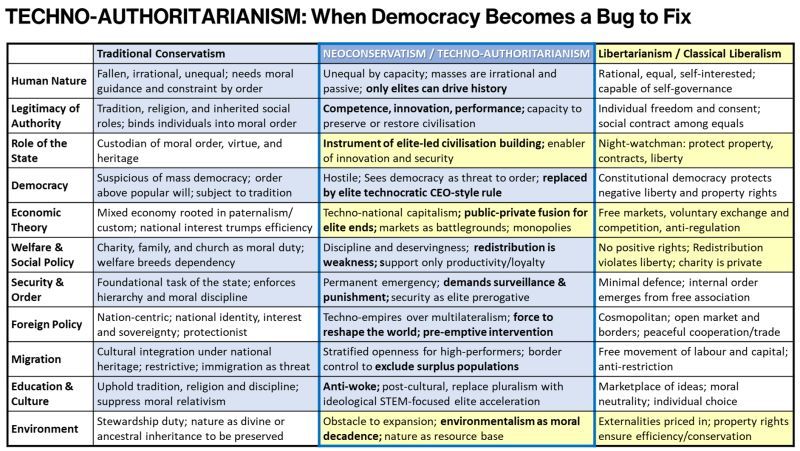
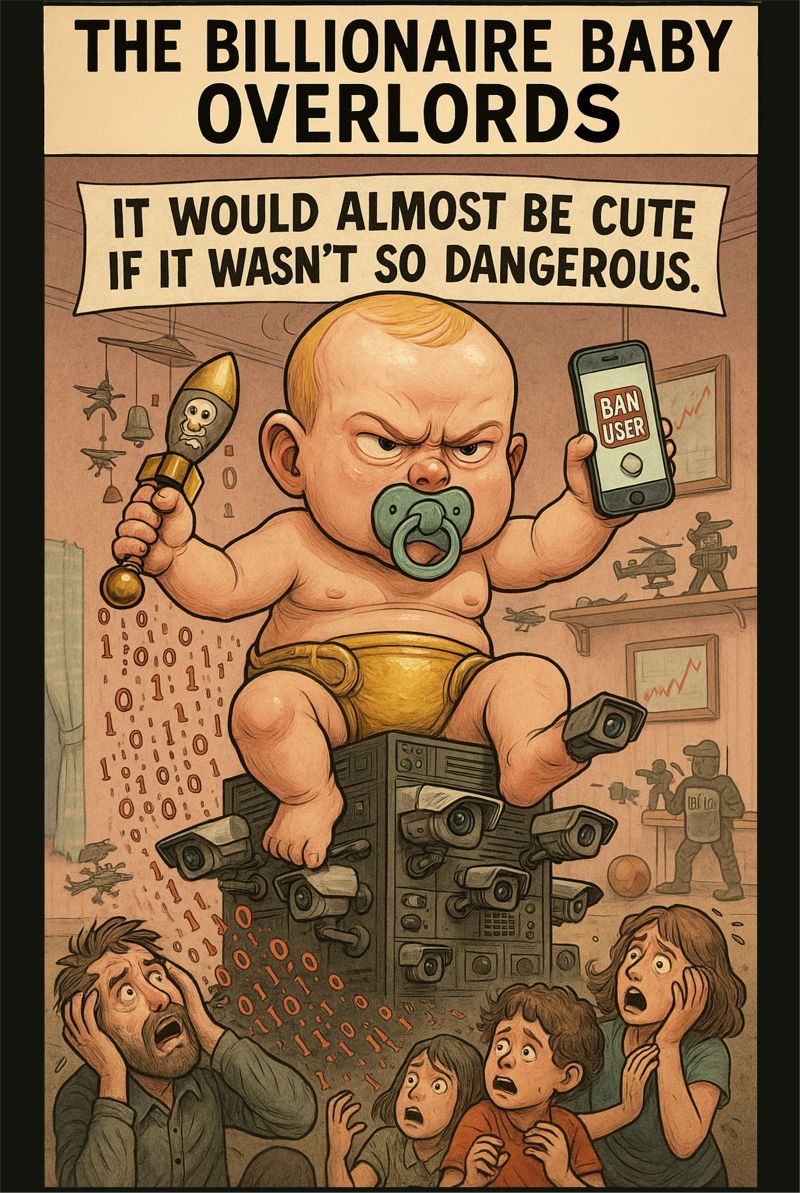

CEO-GODS: When Democracy Becomes a Bug to Fix
The contemporary rise of techno-authoritarian neoconservatism is no ideological accident. It is the deliberate culmination of two centuries of reactionary evolution—a hybrid forged from premodern pessimism and postmodern disruption. Its philosophical genome is bifurcated: the conservative insistence on humanity’s irredeemable inequality and democracy’s self-destructive nature fuses seamlessly with the libertarian myth of heroic individualism. This is not a contradiction—it's a merger. The result is a metaphysics of merit, a theology of markets, and a political program that sacralises sovereign power through performance, ownership, and control.
Traditional conservatism saw humanity as fallen, irrational, and morally dependent on external order—be it divine, customary, or paternalistic. Authority was inherited, not earned; equality not just unattainable, but corrosive. Neoconservatism, born amid Cold War paranoia, secularised this worldview into a civilisational struggle: when politics is reduced to a war of values and mass opinion drifts toward nihilism, only those who grasp history’s tragic arc are fit to guard the flame. Legitimacy shifted from tradition to elite discernment.
But 21st-century "bro-mance" goes further: Thiel, Yarvin, and Andreessen sacralize disruption itself - the sovereign is no longer priest or philosopher, but founder. Techno-authoritarianism retains the anti-democratic core of neoconservatism—fear of mass irrationality, disgust for procedural equality—while fusing it with libertarian exaltation of radical freedom. The outcome is a new feudalism: CEO-kings rule not by consent, but by building rockets. Competition is for losers; restraint is treason; monopolies are the crown of civilizational Darwinism. The State becomes a platform: “move fast or China wins!”
This new regime mimics liberal vocabulary—innovation, progress, sovereignty—while hollowing it from within. Democratic institutions are bottlenecks. Pluralism becomes decadence. Ecological limits are mere superstitions—“drill baby drill!”—and welfare is weakness: hail the Big Beautiful Bill. Every system—social, natural, political—is reduced to inputs for technical optimisation.
The danger is not just its vulgarity, but its coherence—and its planetary ambition. This is not "business logic gone rogue" or Bros playing Caesar; it's a disciplined, sacrificial worldview: a rebellion against egalitarianism in the name of messianic builders whose mission transcends governance and aspires to godhood. Increasingly, the cheerful veneer of techno-optimism conceals a machinery of permanent emergency, militarisation, and enemy fabrication. For the billions outside the tech elite, this means extraction without representation, climate destruction without recourse, and algorithmic subjugation dressed as emancipation.
Tech billionaires don’t just want to save civilisation—they want to own it. Stop them, or become their serfs
#leadership
CEO-GODS: When Democracy Becomes a Bug to Fix
The contemporary rise of techno-authoritarian neoconservatism is no ideological accident. It is the deliberate culmination of two centuries of reactionary evolution—a hybrid forged from premodern pessimism and postmodern disruption. Its philosophical genome is bifurcated: the conservative insistence on humanity’s irredeemable inequality and democracy’s self-destructive nature fuses seamlessly with the libertarian myth of heroic individualism. This is not a contradiction—it's a merger. The result is a metaphysics of merit, a theology of markets, and a political program that sacralises sovereign power through performance, ownership, and control.
Traditional conservatism saw humanity as fallen, irrational, and morally dependent on external order—be it divine, customary, or paternalistic. Authority was inherited, not earned; equality not just unattainable, but corrosive. Neoconservatism, born amid Cold War paranoia, secularised this worldview into a civilisational struggle: when politics is reduced to a war of values and mass opinion drifts toward nihilism, only those who grasp history’s tragic arc are fit to guard the flame. Legitimacy shifted from tradition to elite discernment.
But 21st-century "bro-mance" goes further: Thiel, Yarvin, and Andreessen sacralize disruption itself - the sovereign is no longer priest or philosopher, but founder. Techno-authoritarianism retains the anti-democratic core of neoconservatism—fear of mass irrationality, disgust for procedural equality—while fusing it with libertarian exaltation of radical freedom. The outcome is a new feudalism: CEO-kings rule not by consent, but by building rockets. Competition is for losers; restraint is treason; monopolies are the crown of civilizational Darwinism. The State becomes a platform: “move fast or China wins!”
This new regime mimics liberal vocabulary—innovation, progress, sovereignty—while hollowing it from within. Democratic institutions are bottlenecks. Pluralism becomes decadence. Ecological limits are mere superstitions—“drill baby drill!”—and welfare is weakness: hail the Big Beautiful Bill. Every system—social, natural, political—is reduced to inputs for technical optimisation.
The danger is not just its vulgarity, but its coherence—and its planetary ambition. This is not "business logic gone rogue" or Bros playing Caesar; it's a disciplined, sacrificial worldview: a rebellion against egalitarianism in the name of messianic builders whose mission transcends governance and aspires to godhood. Increasingly, the cheerful veneer of techno-optimism conceals a machinery of permanent emergency, militarisation, and enemy fabrication. For the billions outside the tech elite, this means extraction without representation, climate destruction without recourse, and algorithmic subjugation dressed as emancipation.
Tech billionaires don’t just want to save civilisation—they want to own it. Stop them, or become their serfs
#leadership
JULY 2025

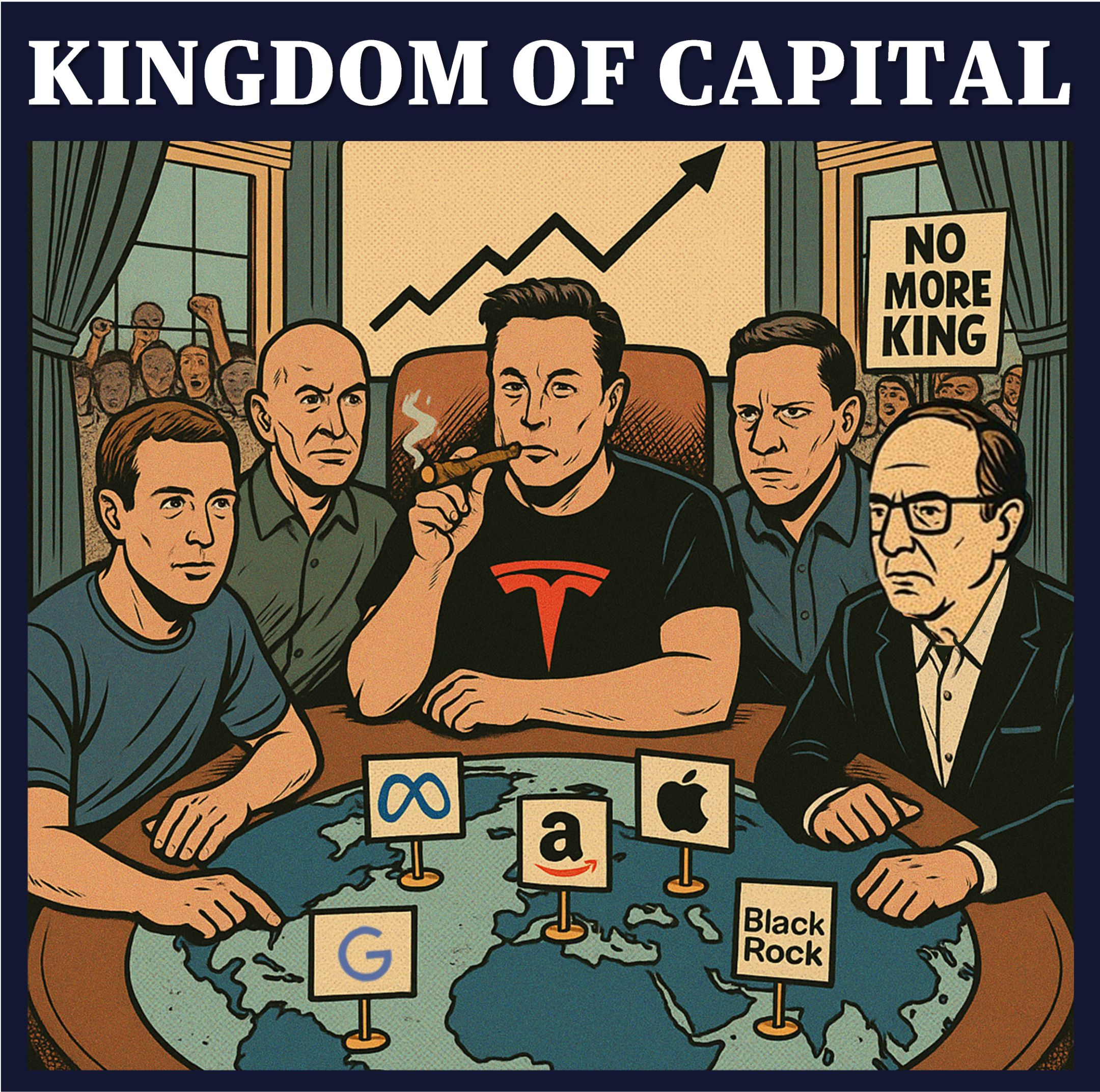

WHEN DOING GOOD GOES OUT OF FASHION: THE GREAT CORRUPTION OF CAPITALISM
Modern capitalism was founded on a wager: that the pursuit of private interest, if properly constrained, could yield collective benefit. This was not naïve optimism but a conditional trust, institutionalized in law and political culture. The legal form of the corporation—most notably, the grant of limited liability—was never morally neutral; it was a public concession, predicated on reciprocal obligation: in exchange for immunity, firms would serve the common good. Early capitalist societies recognized this fundamental asymmetry and sought to govern it through regulation, redistribution, education, and a civic ethos that demanded accountability. This balancing act, famously theorised by Karl Polanyi as the "double movement," kept markets embedded within social norms and political oversight. For much of the 20th century, the fragile balance delivered: postwar social democracies saw real wages rise, inequality narrow, and trust in business remain high.
That moral equilibrium is now in ruins. Since 2018, a coordinated ideological and institutional rollback has shattered the social contract of capitalism. The empirical evidence is stark: shareholder support for ESG proposals at S&P 500 companies fell from 33% in 2021 to below 3% in 2024. Global sustainable funds have suffered ten consecutive quarters of net outflows, shedding over $90 billion since 2022. Over 40% of Fortune 500 firms have scaled back DEI initiatives in response to political and legal threats. Net-zero commitments are quietly abandoned as Omnibus dismantles EU climate regulation and regulatory enforcement wanes. Civic responsibility is no longer a strategic asset but a perceived liability.
This is not merely an economic recalibration; it is a profound moral betrayal. The dominant ideology is no longer classical liberalism but a form of techno-authoritarian capitalism that treats democracy as inefficient. Figures like Peter Thiel and Marc Andreessen exemplify the shift: capital is hoarded not to enable provisioning, but to eliminate competition, manipulate narratives, and demolish institutions for domination. The market is reimagined not as a site of coordination, but as a tool for personal power. Civic virtue is recast as weakness, regulation as oppression, and monopoly as intelligence.
What we are witnessing is not the triumph of liberty, but the consolidation of tyranny. Business no longer aspires to public justification or moral coherence. Its purpose is neither service nor sustainability, but control—over markets, media, and democratic process. In the emerging regime, the absence of virtue is not a bug but a feature; vice is reframed as strategic realism. This is not creative destruction, but the calculated deconstruction of capitalism’s moral foundations.
If this logic prevails, we will lose not only trust in business, but the very capacity to hold it to account
We must not let that happen.
#leadership
WHEN DOING GOOD GOES OUT OF FASHION: THE GREAT CORRUPTION OF CAPITALISM
Modern capitalism was founded on a wager: that the pursuit of private interest, if properly constrained, could yield collective benefit. This was not naïve optimism but a conditional trust, institutionalized in law and political culture. The legal form of the corporation—most notably, the grant of limited liability—was never morally neutral; it was a public concession, predicated on reciprocal obligation: in exchange for immunity, firms would serve the common good. Early capitalist societies recognized this fundamental asymmetry and sought to govern it through regulation, redistribution, education, and a civic ethos that demanded accountability. This balancing act, famously theorised by Karl Polanyi as the "double movement," kept markets embedded within social norms and political oversight. For much of the 20th century, the fragile balance delivered: postwar social democracies saw real wages rise, inequality narrow, and trust in business remain high.
That moral equilibrium is now in ruins. Since 2018, a coordinated ideological and institutional rollback has shattered the social contract of capitalism. The empirical evidence is stark: shareholder support for ESG proposals at S&P 500 companies fell from 33% in 2021 to below 3% in 2024. Global sustainable funds have suffered ten consecutive quarters of net outflows, shedding over $90 billion since 2022. Over 40% of Fortune 500 firms have scaled back DEI initiatives in response to political and legal threats. Net-zero commitments are quietly abandoned as Omnibus dismantles EU climate regulation and regulatory enforcement wanes. Civic responsibility is no longer a strategic asset but a perceived liability.
This is not merely an economic recalibration; it is a profound moral betrayal. The dominant ideology is no longer classical liberalism but a form of techno-authoritarian capitalism that treats democracy as inefficient. Figures like Peter Thiel and Marc Andreessen exemplify the shift: capital is hoarded not to enable provisioning, but to eliminate competition, manipulate narratives, and demolish institutions for domination. The market is reimagined not as a site of coordination, but as a tool for personal power. Civic virtue is recast as weakness, regulation as oppression, and monopoly as intelligence.
What we are witnessing is not the triumph of liberty, but the consolidation of tyranny. Business no longer aspires to public justification or moral coherence. Its purpose is neither service nor sustainability, but control—over markets, media, and democratic process. In the emerging regime, the absence of virtue is not a bug but a feature; vice is reframed as strategic realism. This is not creative destruction, but the calculated deconstruction of capitalism’s moral foundations.
If this logic prevails, we will lose not only trust in business, but the very capacity to hold it to account
We must not let that happen.
#leadership
JULY 2025

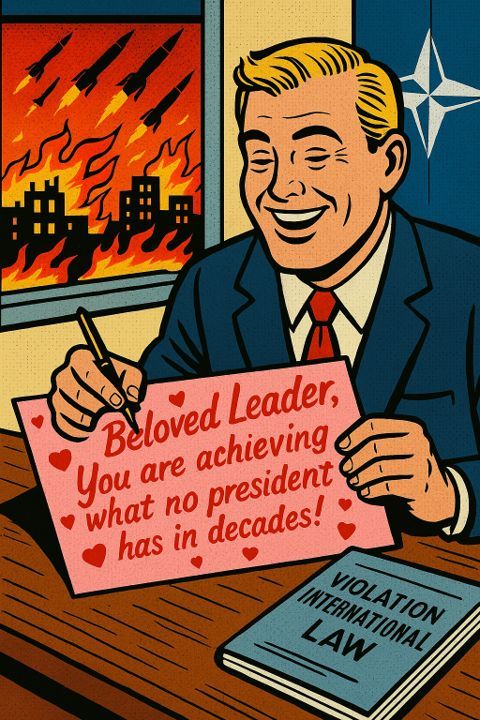

EUROPE ON ITS KNEES: The Collapse of Moral Leadership
Last week, NATO Secretary-General Mark Rutte sent Donald Trump a private message praising his "decisive action in Iran" as "truly exceptional"—a military strike condemned as illegal under international law. Rutte declared the attack made the world safer, credited Trump with forcing NATO allies to spend 5% of GDP on defense, and proclaimed him on the verge of achieving "what no American president has managed in decades." Trump gleefully posted the message on Truth Social.
This is not diplomacy. This is surrender. Rutte's message exposes the moral bankruptcy of European leadership and the complete collapse of the continent's political spine. When confronted with authoritarianism, Europe's instinct was not resistance but applause. When faced with illegal military action, Europe's response was not condemnation but praise.
The psychology is damning. Rutte feared Trump will destroy NATO, so he preemptively obeyed, hoping flattery will preserve the alliance. But survival bought through moral corruption is not survival—it's slow-motion suicide. By praising illegal action, Rutte didn't protect NATO; he corrupted it.
Rutte's message is a symptom of an increasing European political delinquency. The silence from Brussels, Berlin, Paris, and Rome after the message reveals European leaders who have lost their capacity for moral judgment and the ability to distinguish between right and wrong, legal and illegal, dignified and degrading.
The political implications are catastrophic. Europe claims to champion a rules-based global order while its most senior officials celebrate the violation of those very rules. European leaders speak about sovereignty and independence while their chiefs grovel to the man who threatens both. We’re back to the morality of Chamberlain: appease the strongman to survive another day.
Our ethical collapse will be complete when international law is discarded the moment it becomes inconvenient, when institutional integrity dissolves in the face of power, and when European values evaporate under American pressure—leaving opportunism disguised as pragmatism, cowardice masked as strategy, and submission paraded as statesmanship.
Yet, Europe once stood for something. It represented the possibility of international law, democratic values, and moral leadership in global affairs. That Europe is dying. In its place emerges a continent of bureaucrats without backbone, politicians without conviction.
This is not merely institutional failure—it is civilizational capitulation. Europe's leaders have chosen submission over sovereignty, cowardice over courage, and humiliation over honour. A continent that whispers praise to power in private while staying silent in public has already surrendered its future.
You, Europe's leaders, are betraying the dignity of your peoples and dishonoring the legacy you represent. You should be ashamed of yourselves.
#leadership
EUROPE ON ITS KNEES: The Collapse of Moral Leadership
Last week, NATO Secretary-General Mark Rutte sent Donald Trump a private message praising his "decisive action in Iran" as "truly exceptional"—a military strike condemned as illegal under international law. Rutte declared the attack made the world safer, credited Trump with forcing NATO allies to spend 5% of GDP on defense, and proclaimed him on the verge of achieving "what no American president has managed in decades." Trump gleefully posted the message on Truth Social.
This is not diplomacy. This is surrender. Rutte's message exposes the moral bankruptcy of European leadership and the complete collapse of the continent's political spine. When confronted with authoritarianism, Europe's instinct was not resistance but applause. When faced with illegal military action, Europe's response was not condemnation but praise.
The psychology is damning. Rutte feared Trump will destroy NATO, so he preemptively obeyed, hoping flattery will preserve the alliance. But survival bought through moral corruption is not survival—it's slow-motion suicide. By praising illegal action, Rutte didn't protect NATO; he corrupted it.
Rutte's message is a symptom of an increasing European political delinquency. The silence from Brussels, Berlin, Paris, and Rome after the message reveals European leaders who have lost their capacity for moral judgment and the ability to distinguish between right and wrong, legal and illegal, dignified and degrading.
The political implications are catastrophic. Europe claims to champion a rules-based global order while its most senior officials celebrate the violation of those very rules. European leaders speak about sovereignty and independence while their chiefs grovel to the man who threatens both. We’re back to the morality of Chamberlain: appease the strongman to survive another day.
Our ethical collapse will be complete when international law is discarded the moment it becomes inconvenient, when institutional integrity dissolves in the face of power, and when European values evaporate under American pressure—leaving opportunism disguised as pragmatism, cowardice masked as strategy, and submission paraded as statesmanship.
Yet, Europe once stood for something. It represented the possibility of international law, democratic values, and moral leadership in global affairs. That Europe is dying. In its place emerges a continent of bureaucrats without backbone, politicians without conviction.
This is not merely institutional failure—it is civilizational capitulation. Europe's leaders have chosen submission over sovereignty, cowardice over courage, and humiliation over honour. A continent that whispers praise to power in private while staying silent in public has already surrendered its future.
You, Europe's leaders, are betraying the dignity of your peoples and dishonoring the legacy you represent. You should be ashamed of yourselves.
#leadership
JULY 2025

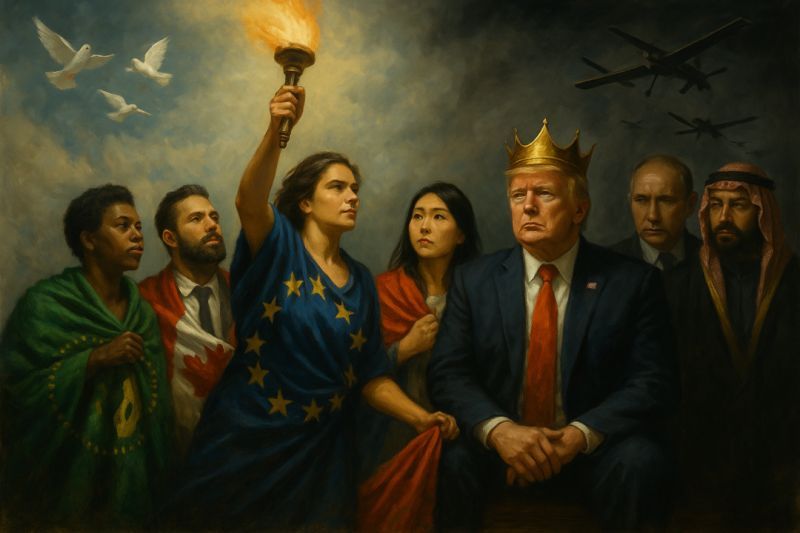

NO MORE KINGS: EUROPE'S LAST CHANCE TO MATTER
The world order fractures before our eyes. Authoritarianism advances, techno-feudalism tightens its grip, and injustice persists across continents—from brutal wars to corporate plunder and digital surveillance. As strongmen stage military birthday parades and democracies flirt with authoritarianism, Europe faces a stark choice: drift into irrelevance, or rise as a bulwark against the creeping return of power without principle.
This demands reckoning. Europe had its fair share of royalty. Its wealth was built on conquest, extraction, and racial domination. Its colonial legacy survives in structures of debt, trade, migration, and borders. This guilt is real—but so is Europe's potential. What sets it apart is not innocence, but institutional memory: born from its own self-destruction, the European project remains humanity's most radical attempt to embed justice into power—law over will, dignity above command, diversity in unity.
Today's injustices are not accidents. They echo the very logics of domination Europe once exported—and must now resist. While Europe has rid itself of kings, the age of thrones is returning—not in name, but in form. America, a republic founded on the rejection of monarchy, now flirts with its neofascist reinvention: executive fiat, militarised politics, loyalty cults, and the politics of spectacle.
Europe must answer—not with submission, but with courage.
Once coloniser, Europe must now become convenor. Its historic burden must become historic vocation: to serve not as sovereign, but as steward. The world doesn’t need another empire armed with bunker-busting missiles—it needs a beacon of truth and solidarity.
Yet we capitulate. We ignore Gaza's suffering. We flatter dictators. We sacrifice values for trade deals while the world burns. The continent that proclaimed human rights hesitates when justice needs it most.
This is not a crisis of strategy—it is a crisis of will.
Europe must act. We need politics with backbone. Democratic renewal that speaks for diversity and equality. Global institutions built on co-determination, not dominance. Climate justice without delay. Technology without empire. Migration rooted in dignity. And debt cancellation that restores freedom to nations still shackled by colonial economics.
This is no longer about Europe's renewal for its own sake. It is about a global struggle between solidarity and subjugation. In an interdependent world, democracy cannot endure where domination thrives. Europe must refuse thrones—not only in its past, but in its future.
Let this be the moment Europe rises—not to lead the world, but to stand with it. Against kings. Against crowns. Against the return of might-as-right.
Let Europe carry the torch of a better order—where no child trembles under drones, where no elected leader plays emperor, where power serves justice.
Our history will not forgive; the future won't wait. No more kings—now!
#leadership
NO MORE KINGS: EUROPE'S LAST CHANCE TO MATTER
The world order fractures before our eyes. Authoritarianism advances, techno-feudalism tightens its grip, and injustice persists across continents—from brutal wars to corporate plunder and digital surveillance. As strongmen stage military birthday parades and democracies flirt with authoritarianism, Europe faces a stark choice: drift into irrelevance, or rise as a bulwark against the creeping return of power without principle.
This demands reckoning. Europe had its fair share of royalty. Its wealth was built on conquest, extraction, and racial domination. Its colonial legacy survives in structures of debt, trade, migration, and borders. This guilt is real—but so is Europe's potential. What sets it apart is not innocence, but institutional memory: born from its own self-destruction, the European project remains humanity's most radical attempt to embed justice into power—law over will, dignity above command, diversity in unity.
Today's injustices are not accidents. They echo the very logics of domination Europe once exported—and must now resist. While Europe has rid itself of kings, the age of thrones is returning—not in name, but in form. America, a republic founded on the rejection of monarchy, now flirts with its neofascist reinvention: executive fiat, militarised politics, loyalty cults, and the politics of spectacle.
Europe must answer—not with submission, but with courage.
Once coloniser, Europe must now become convenor. Its historic burden must become historic vocation: to serve not as sovereign, but as steward. The world doesn’t need another empire armed with bunker-busting missiles—it needs a beacon of truth and solidarity.
Yet we capitulate. We ignore Gaza's suffering. We flatter dictators. We sacrifice values for trade deals while the world burns. The continent that proclaimed human rights hesitates when justice needs it most.
This is not a crisis of strategy—it is a crisis of will.
Europe must act. We need politics with backbone. Democratic renewal that speaks for diversity and equality. Global institutions built on co-determination, not dominance. Climate justice without delay. Technology without empire. Migration rooted in dignity. And debt cancellation that restores freedom to nations still shackled by colonial economics.
This is no longer about Europe's renewal for its own sake. It is about a global struggle between solidarity and subjugation. In an interdependent world, democracy cannot endure where domination thrives. Europe must refuse thrones—not only in its past, but in its future.
Let this be the moment Europe rises—not to lead the world, but to stand with it. Against kings. Against crowns. Against the return of might-as-right.
Let Europe carry the torch of a better order—where no child trembles under drones, where no elected leader plays emperor, where power serves justice.
Our history will not forgive; the future won't wait. No more kings—now!
#leadership
JUNE 2025
JUNE 2025

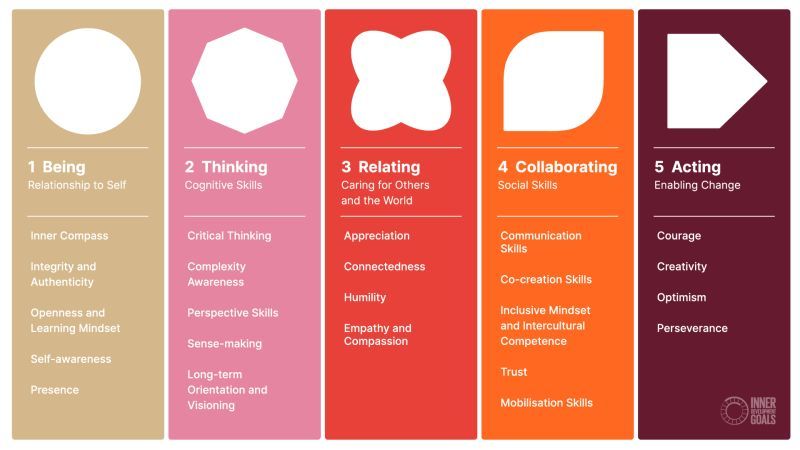

WHY THE #IDGS MUST FAIL
A few years ago, I warned that the Inner Development Goals risked becoming a well-intentioned distraction—an elegant taxonomy of superficial self-care recast as system transformation. To date, that warning has gone unheeded. Despite global uptake, the IDGs have not matured into a coherent theory of change. Instead, it has ossified into a depoliticised wellness programme for elites—a secular catechism of the managerial class, mistaking introspection for emancipation and psychological traits for moral action.
The problem is not aspiration. The problem is ontology.
IDG treats the human being as a container of latent “capacities” to be unlocked—thinking, being, relating, acting—without ever asking what a human is, what development is for, or what the good requires. The result is a disembedded model of inner growth, shorn of existential conflict, social contradiction, and metaphysical responsibility. It offers transformation without tragedy, virtue without vocation.
What remains is a language of subjective wellness: self-awareness, openness, presence. But these are not virtues—they are neutralised affective states. The IDG architecture bypasses the moral drama of life: the struggle for justice, the weight of responsibility, the need for institutional design that shapes character. The inner is treated as a tool for self-optimisation. But in truth, the inner is political—always already structured by history, ideology, and power.
This conceptual failure has practical consequences. IDG initiatives are increasingly co-opted into HR pipelines, DEI workshops, ESG dashboards. They become tools of progressive neoliberalism: performative empathy within unchanged systems. Lacking a dialectical understanding of self and society, IDG offers no critique of the institutions it seeks to humanise. It speaks the language of becoming, but delivers only adaptation. Reflection without reconfiguration. Resilience without resistance.
Contrast this with deeper traditions. The Buddhist Eightfold Path is not a menu—it is a path of renunciation, discipline, and interbeing. Christian theosis demands kenosis, community, liturgy. Theory U requires ego death, systemic sensing, and prototyping the new. None of these can be reduced to “skills.” They are pedagogies of moral formation through shared purpose, relational conflict, and institutional struggle.
IDG has no such telos. It aims to humanise the status quo, not transform it. It avoids the real work: how to become good in an unjust world. That curriculum cannot be found in soft skills workshops or mood boards of "humility". It requires rebuilding the conditions under which moral agency becomes possible: governance for wisdom, economies for justice, education for virtue.
Unless IDG confronts its metaphysical evasions and political omissions, it will perpetuate the systems it refuses to examine. And the deeper work of moral development—the work of becoming human—will be left unfinished.
#leadership
Link to the extensive discussion (500 comments) and feedback from the IDG founders: https://www.linkedin.com/posts/ottivogt_idgs-leadership-activity-7344297827918901248-dajH?utm_source=share&utm_medium=member_desktop&rcm=ACoAAABm1WMBiwxFaUc1X66gje88odJOEyNAskc
WHY THE #IDGS MUST FAIL
A few years ago, I warned that the Inner Development Goals risked becoming a well-intentioned distraction—an elegant taxonomy of superficial self-care recast as system transformation. To date, that warning has gone unheeded. Despite global uptake, the IDGs have not matured into a coherent theory of change. Instead, it has ossified into a depoliticised wellness programme for elites—a secular catechism of the managerial class, mistaking introspection for emancipation and psychological traits for moral action.
The problem is not aspiration. The problem is ontology.
IDG treats the human being as a container of latent “capacities” to be unlocked—thinking, being, relating, acting—without ever asking what a human is, what development is for, or what the good requires. The result is a disembedded model of inner growth, shorn of existential conflict, social contradiction, and metaphysical responsibility. It offers transformation without tragedy, virtue without vocation.
What remains is a language of subjective wellness: self-awareness, openness, presence. But these are not virtues—they are neutralised affective states. The IDG architecture bypasses the moral drama of life: the struggle for justice, the weight of responsibility, the need for institutional design that shapes character. The inner is treated as a tool for self-optimisation. But in truth, the inner is political—always already structured by history, ideology, and power.
This conceptual failure has practical consequences. IDG initiatives are increasingly co-opted into HR pipelines, DEI workshops, ESG dashboards. They become tools of progressive neoliberalism: performative empathy within unchanged systems. Lacking a dialectical understanding of self and society, IDG offers no critique of the institutions it seeks to humanise. It speaks the language of becoming, but delivers only adaptation. Reflection without reconfiguration. Resilience without resistance.
Contrast this with deeper traditions. The Buddhist Eightfold Path is not a menu—it is a path of renunciation, discipline, and interbeing. Christian theosis demands kenosis, community, liturgy. Theory U requires ego death, systemic sensing, and prototyping the new. None of these can be reduced to “skills.” They are pedagogies of moral formation through shared purpose, relational conflict, and institutional struggle.
IDG has no such telos. It aims to humanise the status quo, not transform it. It avoids the real work: how to become good in an unjust world. That curriculum cannot be found in soft skills workshops or mood boards of "humility". It requires rebuilding the conditions under which moral agency becomes possible: governance for wisdom, economies for justice, education for virtue.
Unless IDG confronts its metaphysical evasions and political omissions, it will perpetuate the systems it refuses to examine. And the deeper work of moral development—the work of becoming human—will be left unfinished.
#leadership
Link to the extensive discussion (500 comments) and feedback from the IDG founders: https://www.linkedin.com/posts/ottivogt_idgs-leadership-activity-7344297827918901248-dajH?utm_source=share&utm_medium=member_desktop&rcm=ACoAAABm1WMBiwxFaUc1X66gje88odJOEyNAskc
WHY THE #IDGS MUST FAIL
A few years ago, I warned that the Inner Development Goals risked becoming a well-intentioned distraction—an elegant taxonomy of superficial self-care recast as system transformation. To date, that warning has gone unheeded. Despite global uptake, the IDGs have not matured into a coherent theory of change. Instead, it has ossified into a depoliticised wellness programme for elites—a secular catechism of the managerial class, mistaking introspection for emancipation and psychological traits for moral action.
The problem is not aspiration. The problem is ontology.
IDG treats the human being as a container of latent “capacities” to be unlocked—thinking, being, relating, acting—without ever asking what a human is, what development is for, or what the good requires. The result is a disembedded model of inner growth, shorn of existential conflict, social contradiction, and metaphysical responsibility. It offers transformation without tragedy, virtue without vocation.
What remains is a language of subjective wellness: self-awareness, openness, presence. But these are not virtues—they are neutralised affective states. The IDG architecture bypasses the moral drama of life: the struggle for justice, the weight of responsibility, the need for institutional design that shapes character. The inner is treated as a tool for self-optimisation. But in truth, the inner is political—always already structured by history, ideology, and power.
This conceptual failure has practical consequences. IDG initiatives are increasingly co-opted into HR pipelines, DEI workshops, ESG dashboards. They become tools of progressive neoliberalism: performative empathy within unchanged systems. Lacking a dialectical understanding of self and society, IDG offers no critique of the institutions it seeks to humanise. It speaks the language of becoming, but delivers only adaptation. Reflection without reconfiguration. Resilience without resistance.
Contrast this with deeper traditions. The Buddhist Eightfold Path is not a menu—it is a path of renunciation, discipline, and interbeing. Christian theosis demands kenosis, community, liturgy. Theory U requires ego death, systemic sensing, and prototyping the new. None of these can be reduced to “skills.” They are pedagogies of moral formation through shared purpose, relational conflict, and institutional struggle.
IDG has no such telos. It aims to humanise the status quo, not transform it. It avoids the real work: how to become good in an unjust world. That curriculum cannot be found in soft skills workshops or mood boards of "humility". It requires rebuilding the conditions under which moral agency becomes possible: governance for wisdom, economies for justice, education for virtue.
Unless IDG confronts its metaphysical evasions and political omissions, it will perpetuate the systems it refuses to examine. And the deeper work of moral development—the work of becoming human—will be left unfinished.
#leadership
JUNE 2025



BREXIT'S 9TH ANNIVERSARY: A NATIONAL DAY OF SHAME
Brexit has been a disaster, and it’s time we faced the evidence. Economic growth is stagnating, British political power is reducing, freedom of travel in Europe is increasingly restricted, and trade barriers are crippling businesses. According to the Office for Budget Responsibility, the UK’s GDP is 4% smaller than it would have been if it had remained in the EU. Meanwhile, exports to the EU have fallen by 16% since 2019, and the UK is losing many of the valuable benefits directly related to its embeddedness within the institutions of the Europe Union.
The promise of sovereignty and prosperity - let alone many of the other populist promises made by miserable politicians - has failed to materialize. Instead, we’ve seen disrupted supply chains, labour shortages, growing inequality, decreasing civic protections, burgeoning public debt and rising costs. The UK’s ability to influence global decision-making has diminished, not strengthened. Of course, as Will Hutton points out, the idea that a "global Super-Britain" would somehow strike favourable deals with the world's superpowers was absurd from the beginning - and, as expected, Britain has turned into a rule-taker, not a rule-maker.
Let's be clear: Brexit was likely one of the dumbest decisions ever made in a referendum. Its "heroic failure" reflects a lingering, outdated fantasy of an empire long gone, combined with the reckless shortsightedness and incompetence of conservative politicians who still refuse to face the consequences. As Max Planck wisely noted, good ideas often progress "one funeral at a time" (or, literally, "a new scientific truth does not triumph by convincing its opponents and making them see the light, but rather because its opponents eventually die, and a new generation grows up that is familiar with it.") But we cannot wait for that: the stubborn clinging to a failed idea will only harm future generations.
It’s time to reassess, correct this mistake, and rejoin the EU before we face even greater economic, political, and social decline. And it's time for those who claimed victory to take responsibility. You’ve divided the country and caused significant harm with virtually no benefit. At the very least, have the integrity to make things right.
BREXIT HAS FAILED – It’s Time to Admit It. And Revert It.
#Leadership
BREXIT'S 9TH ANNIVERSARY: A NATIONAL DAY OF SHAME
Brexit has been a disaster, and it’s time we faced the evidence. Economic growth is stagnating, British political power is reducing, freedom of travel in Europe is increasingly restricted, and trade barriers are crippling businesses. According to the Office for Budget Responsibility, the UK’s GDP is 4% smaller than it would have been if it had remained in the EU. Meanwhile, exports to the EU have fallen by 16% since 2019, and the UK is losing many of the valuable benefits directly related to its embeddedness within the institutions of the Europe Union.
The promise of sovereignty and prosperity - let alone many of the other populist promises made by miserable politicians - has failed to materialize. Instead, we’ve seen disrupted supply chains, labour shortages, growing inequality, decreasing civic protections, burgeoning public debt and rising costs. The UK’s ability to influence global decision-making has diminished, not strengthened. Of course, as Will Hutton points out, the idea that a "global Super-Britain" would somehow strike favourable deals with the world's superpowers was absurd from the beginning - and, as expected, Britain has turned into a rule-taker, not a rule-maker.
Let's be clear: Brexit was likely one of the dumbest decisions ever made in a referendum. Its "heroic failure" reflects a lingering, outdated fantasy of an empire long gone, combined with the reckless shortsightedness and incompetence of conservative politicians who still refuse to face the consequences. As Max Planck wisely noted, good ideas often progress "one funeral at a time" (or, literally, "a new scientific truth does not triumph by convincing its opponents and making them see the light, but rather because its opponents eventually die, and a new generation grows up that is familiar with it.") But we cannot wait for that: the stubborn clinging to a failed idea will only harm future generations.
It’s time to reassess, correct this mistake, and rejoin the EU before we face even greater economic, political, and social decline. And it's time for those who claimed victory to take responsibility. You’ve divided the country and caused significant harm with virtually no benefit. At the very least, have the integrity to make things right.
BREXIT HAS FAILED – It’s Time to Admit It. And Revert It.
#Leadership
JUNE 2025



NO MORE EXCUSES: CRAFTING THE EUROPE THE WORLD DESERVES
The world order fractures before our eyes. Authoritarianism advances, techno-feudalism tightens its grip, and injustice persists across continents—from brutal wars to corporate plunder and digital surveillance. Amid the drift toward tyranny, Europe faces a stark choice: retreat into parochial squabbles or rise as a force for global betterment.
This demands reckoning: Europe’s wealth was built on conquest, extraction, and racial domination. Its colonial legacy lives on in structures of debt, trade, migration, and borders. This guilt is real—but so is Europe’s promise: what sets it apart today is not innocence, but institutional memory. Born from self-destruction, the European project is humanity’s boldest attempt to embed restraint into power: law above will, pluralism beyond tribe, solidarity over domination. It was never complete—but remains singular amid rising autocracy.
Europe must rise—not to reclaim dominance, but to dismantle it. Contemporary patterns of injustice—debt dependency, extractive trade, militarized conflicts—perpetuate colonial hierarchies. Our historic burden must become our unique vocation: a continent that once exported empire must now champion emancipation. The world desperately needs a moral force committed not to national supremacy, but to human dignity.
Yet we falter. We avert eyes from Gaza, bow before tyrants, and trade dignity for profit. Internal divisions paralyse us while global injustice metastasizes. The continent that gave the world human rights hesitates when courage is needed most. This betrayal of our own principles endangers not just Europe, but the world’s fragile hope for a just international order.
This calls for civilisational transformation—not geopolitical repositioning. We need pragmatic politics rooted in moral ideals. We must move beyond competition, beyond aid as alibi, beyond technocratic indifference. We must pursue democratic reform to truly represent our peoples. Global institutions shaped by diversity, not dominance. Shared responsibility for climate transitions. Technology without IP monopolies. Sustainable co-development shaped with communities long excluded from power. Debt cancellation without conditions. Migration rooted in justice, not populism.
This may not be easy, but let us be clear: this is not European renewal for our own sake. It is a shared commitment to human flourishing. In an interdependent world, prosperity and democracy cannot endure amid global destruction. Europe must enable—not command—those striving for a world grounded in justice, not angst.
Let us make Europe rise—not as master, but servant. Not to lead the world, but to bear witness to an order of hope—where humanity thrives, not trembles. Where children laugh, not starve. Where the good of all becomes the duty of each.
The world cries out for a better Europe. History will not forgive; the future will not wait. Let the age of excuses end—now
#leadership
NO MORE EXCUSES: CRAFTING THE EUROPE THE WORLD DESERVES
The world order fractures before our eyes. Authoritarianism advances, techno-feudalism tightens its grip, and injustice persists across continents—from brutal wars to corporate plunder and digital surveillance. Amid the drift toward tyranny, Europe faces a stark choice: retreat into parochial squabbles or rise as a force for global betterment.
This demands reckoning: Europe’s wealth was built on conquest, extraction, and racial domination. Its colonial legacy lives on in structures of debt, trade, migration, and borders. This guilt is real—but so is Europe’s promise: what sets it apart today is not innocence, but institutional memory. Born from self-destruction, the European project is humanity’s boldest attempt to embed restraint into power: law above will, pluralism beyond tribe, solidarity over domination. It was never complete—but remains singular amid rising autocracy.
Europe must rise—not to reclaim dominance, but to dismantle it. Contemporary patterns of injustice—debt dependency, extractive trade, militarized conflicts—perpetuate colonial hierarchies. Our historic burden must become our unique vocation: a continent that once exported empire must now champion emancipation. The world desperately needs a moral force committed not to national supremacy, but to human dignity.
Yet we falter. We avert eyes from Gaza, bow before tyrants, and trade dignity for profit. Internal divisions paralyse us while global injustice metastasizes. The continent that gave the world human rights hesitates when courage is needed most. This betrayal of our own principles endangers not just Europe, but the world’s fragile hope for a just international order.
This calls for civilisational transformation—not geopolitical repositioning. We need pragmatic politics rooted in moral ideals. We must move beyond competition, beyond aid as alibi, beyond technocratic indifference. We must pursue democratic reform to truly represent our peoples. Global institutions shaped by diversity, not dominance. Shared responsibility for climate transitions. Technology without IP monopolies. Sustainable co-development shaped with communities long excluded from power. Debt cancellation without conditions. Migration rooted in justice, not populism.
This may not be easy, but let us be clear: this is not European renewal for our own sake. It is a shared commitment to human flourishing. In an interdependent world, prosperity and democracy cannot endure amid global destruction. Europe must enable—not command—those striving for a world grounded in justice, not angst.
Let us make Europe rise—not as master, but servant. Not to lead the world, but to bear witness to an order of hope—where humanity thrives, not trembles. Where children laugh, not starve. Where the good of all becomes the duty of each.
The world cries out for a better Europe. History will not forgive; the future will not wait. Let the age of excuses end—now
#leadership
JUNE 2025

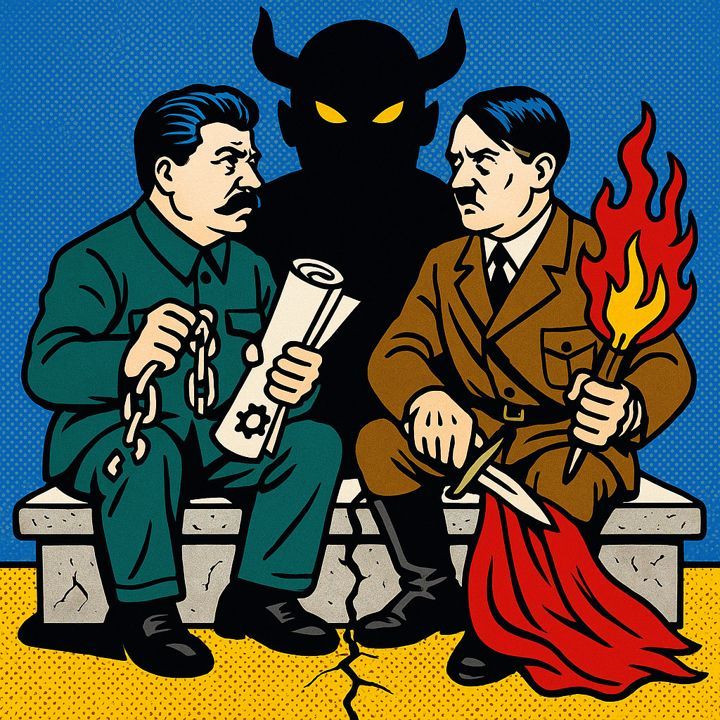

WHY FASCISM AND COMMUNISM AREN’T THE SAME—And Why That Matters
Fascism and (authoritarian forms of) communism are sometimes lumped together as equally oppressive systems. Indeed, at first glance, they look eerily similar: both have centralized power, cults of personality, censorship, propaganda, and brutal repression of dissent. But this surface-level comparison misses the deeper truth: they are built on opposite moral foundations and political logics.
Fascism sacralizes exclusion. It sees the nation as a sacred organism under threat from internal and external enemies and decay—Jews, migrants, minorities, elites, “degenerates.” Its politics is mythic: a return to purity through violence. Fascism defines identity through blood, race, and heritage. It justifies terror as cleansing, not corrective. The goal is not justice—it’s purification and rebirth through mythic unity.
Communism sacralizes emancipation. Its enemy is structural: class hierarchy, exploitation, private ownership of the means of production. Even when it becomes repressive, its violence is framed as instrumental to historical transformation and equality. It defines identity by material conditions, not ethnicity. The goal is not purity—it’s liberation.
Fascism is aestheticised authoritarianism: full of flags, rituals, marches, symbols and glorified enemies.
Communism, even in Stalinist form, is instrumental power: plans, factories, five-year targets. It seeks to reorganize the structure of society from the ground up.
So no—they are not "the same."
Fascism glorifies who you are (race, blood, nation, tradition);
Communism challenges what you own (capital, class, control, power).
Yes, both can devolve into totalitarianism. But they do so in opposite directions:
→ Fascism looks backward, turning emotional trauma into mythic origins.
→ Communism looks forward, turning history into a revolutionary plan.
The difference is not trivial—one regime seeks to purify, the other to equalize. That matters, especially when trying to understand who is targeted, why, and what kind of future each is pointing toward.
#leadership
WHY FASCISM AND COMMUNISM AREN’T THE SAME—And Why That Matters
Fascism and (authoritarian forms of) communism are sometimes lumped together as equally oppressive systems. Indeed, at first glance, they look eerily similar: both have centralized power, cults of personality, censorship, propaganda, and brutal repression of dissent. But this surface-level comparison misses the deeper truth: they are built on opposite moral foundations and political logics.
Fascism sacralizes exclusion. It sees the nation as a sacred organism under threat from internal and external enemies and decay—Jews, migrants, minorities, elites, “degenerates.” Its politics is mythic: a return to purity through violence. Fascism defines identity through blood, race, and heritage. It justifies terror as cleansing, not corrective. The goal is not justice—it’s purification and rebirth through mythic unity.
Communism sacralizes emancipation. Its enemy is structural: class hierarchy, exploitation, private ownership of the means of production. Even when it becomes repressive, its violence is framed as instrumental to historical transformation and equality. It defines identity by material conditions, not ethnicity. The goal is not purity—it’s liberation.
Fascism is aestheticised authoritarianism: full of flags, rituals, marches, symbols and glorified enemies.
Communism, even in Stalinist form, is instrumental power: plans, factories, five-year targets. It seeks to reorganize the structure of society from the ground up.
So no—they are not "the same."
Fascism glorifies who you are (race, blood, nation, tradition);
Communism challenges what you own (capital, class, control, power).
Yes, both can devolve into totalitarianism. But they do so in opposite directions:
→ Fascism looks backward, turning emotional trauma into mythic origins.
→ Communism looks forward, turning history into a revolutionary plan.
The difference is not trivial—one regime seeks to purify, the other to equalize. That matters, especially when trying to understand who is targeted, why, and what kind of future each is pointing toward.
#leadership
JUNE 2025

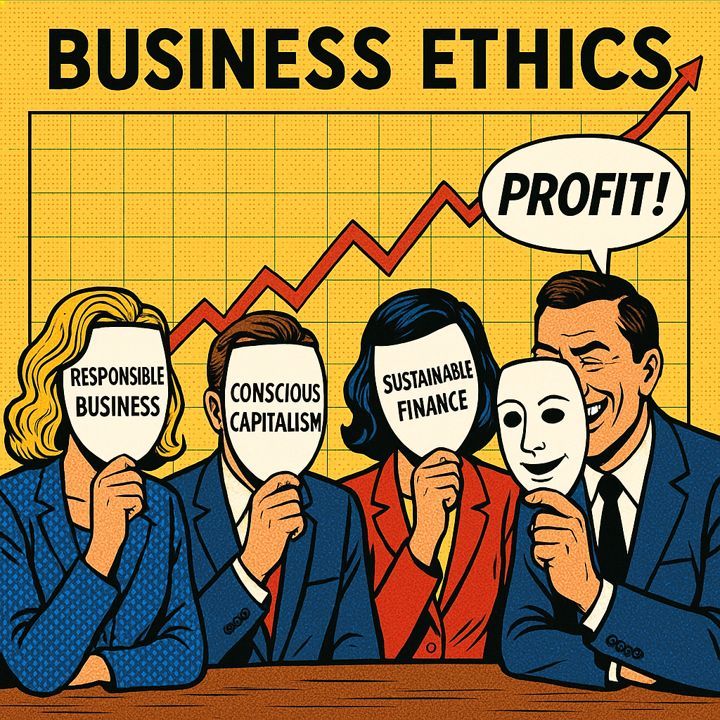

THE GRAMMAR OF HYPOCRISY: Oxymorons, Pleonasms & the Death of Leadership
The frequently asked question “Is business ethics an oxymoron?”—still surprisingly popular in many business schools—concedes defeat before it even begins. The term "business ethics" implies that business and ethics inhabit separate realms—the so-called "separation thesis"—and it subordinates ethics to business. Syntax matters. It doesn’t reconcile their divide; it enacts it, by denoting ethics as a convenient tool for profit, risk reduction, or reputation.
But business ethics is not an oxymoron. It is a hyponym—a syntactic subordination, not a logical contradiction. There is no ethics unique to business, only ethics WITHIN business—just as there is no economics detached from political economy. Business is not amoral—it is a social institution, embedded in law, culture, and moral purpose. Markets are never "free" or "neutral"—they encode a normative order. To speak of "ethics-in-business" is not to moralise business from the outside, but to surface the ethical assumptions and beliefs already embedded in every transaction.
Or take "ethical leadership". This is not a moral aspiration—it is a pleonasm, like "red tomato" or "free gift". Leadership, if it is worthy of the name, is necessarily ethical: defined by judgment, orientation to the good, just stewardship of power. Remove ethics, and you don’t get "bad leadership"—you get coercion, branding, instrumentalisation. When ethics disappears from leadership, ethics doesn’t perish—leadership does.
The semantic erosion of management discourse is clearest in what Henry Mintzberg once called adjectival capitalism: "conscious" capitalism, "inclusive" capitalism, "green" capitalism, "compassionate" capitalism, "democratic" capitalism, "stakeholder" capitalism. The linguistic strategy is always the same: preserve the noun, qualify it just enough to disarm critique. The problem, we are told, is not capitalism—it’s merely the wrong variety.
But this is misdirection. We don’t need a nicer capitalism. We need an economy reorganised around the ends of a good society. That requires politics, not voluntary commitments to linguistic windowdressing.
"Responsible business", "sustainable finance", "purpose-driven enterprise"—these are not innovations. They are compensatory grammar. Each redundant qualifier marks a retreat from the idea that institutions justify their existence by their essence, not by their branding. The proliferation of adjectives signals not moral progress but decay: we name the absence of ethics to disguise our violent abandonment of it.
This is how ethics is killed—not through rejection, but through epistemic inflation. In management-speak, the good isn’t denied; it’s over-specified. And in the process, responsibility becomes hypocrisy, and the boardroom a masquerade—where “sustainability” cloaks extraction, and “purpose” sanitises corporate greed.
#leadership #transformation
THE GRAMMAR OF HYPOCRISY: Oxymorons, Pleonasms & the Death of Leadership
The frequently asked question “Is business ethics an oxymoron?”—still surprisingly popular in many business schools—concedes defeat before it even begins. The term "business ethics" implies that business and ethics inhabit separate realms—the so-called "separation thesis"—and it subordinates ethics to business. Syntax matters. It doesn’t reconcile their divide; it enacts it, by denoting ethics as a convenient tool for profit, risk reduction, or reputation.
But business ethics is not an oxymoron. It is a hyponym—a syntactic subordination, not a logical contradiction. There is no ethics unique to business, only ethics WITHIN business—just as there is no economics detached from political economy. Business is not amoral—it is a social institution, embedded in law, culture, and moral purpose. Markets are never "free" or "neutral"—they encode a normative order. To speak of "ethics-in-business" is not to moralise business from the outside, but to surface the ethical assumptions and beliefs already embedded in every transaction.
Or take "ethical leadership". This is not a moral aspiration—it is a pleonasm, like "red tomato" or "free gift". Leadership, if it is worthy of the name, is necessarily ethical: defined by judgment, orientation to the good, just stewardship of power. Remove ethics, and you don’t get "bad leadership"—you get coercion, branding, instrumentalisation. When ethics disappears from leadership, ethics doesn’t perish—leadership does.
The semantic erosion of management discourse is clearest in what Henry Mintzberg once called adjectival capitalism: "conscious" capitalism, "inclusive" capitalism, "green" capitalism, "compassionate" capitalism, "democratic" capitalism, "stakeholder" capitalism. The linguistic strategy is always the same: preserve the noun, qualify it just enough to disarm critique. The problem, we are told, is not capitalism—it’s merely the wrong variety.
But this is misdirection. We don’t need a nicer capitalism. We need an economy reorganised around the ends of a good society. That requires politics, not voluntary commitments to linguistic windowdressing.
"Responsible business", "sustainable finance", "purpose-driven enterprise"—these are not innovations. They are compensatory grammar. Each redundant qualifier marks a retreat from the idea that institutions justify their existence by their essence, not by their branding. The proliferation of adjectives signals not moral progress but decay: we name the absence of ethics to disguise our violent abandonment of it.
This is how ethics is killed—not through rejection, but through epistemic inflation. In management-speak, the good isn’t denied; it’s over-specified. And in the process, responsibility becomes hypocrisy, and the boardroom a masquerade—where “sustainability” cloaks extraction, and “purpose” sanitises corporate greed.
#leadership #transformation
JUNE 2025

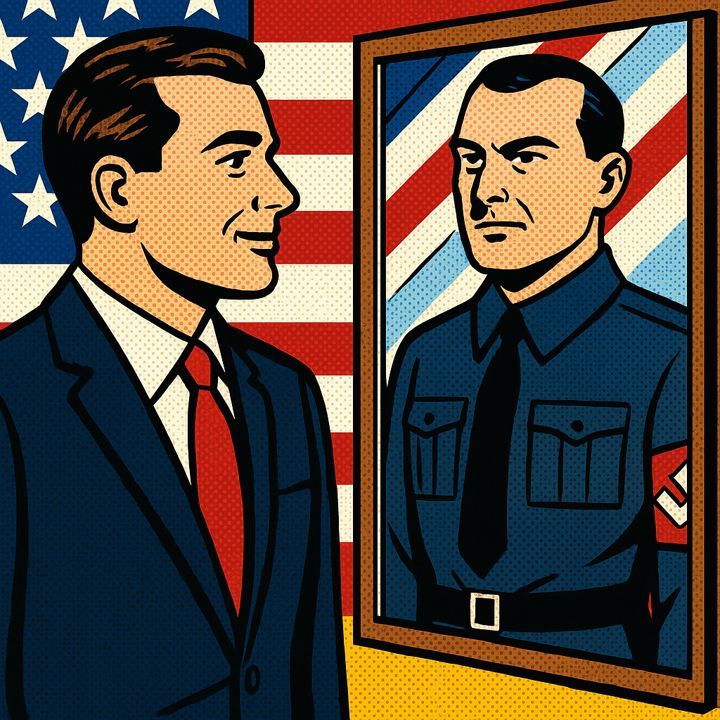

CÓMO RECONOCER AL FASCISMO ANTES DE QUE SEA TARDE
El fascismo no es un insulto. Es un sistema. Una teología política de extrema derecha basada en mito, exclusión, nacionalismo y supremacía social como algo natural. A diferencia del autoritarismo, no solo exige obediencia: ofrece redención a través de la purificación. Promete el renacer tras la decadencia. Su enemigo es interno. Su método: seducción simbólica.
Opera con 6 constantes
🏴Palingenesia – mito del renacimiento nacional tras una decadencia percibida
🏴Ultranacionalismo – nación como cuerpo sagrado, pureza cultural
🏴Construcción del Enemigo – inmigrantes, disidentes, medios, 'élites'
🏴Verdad Mítica sobre Hechos – historia reescrita, ciencia negada, realidad reinventada
🏴Poder Estetizado – política como teatro: banderas, orgullo nacional, rituales
🏴Culto a la Personalidad – figuras carismáticas y heroicas
A diferencia del populismo, el fascismo sacraliza el conflicto. No tolera el pluralismo. Convierte trauma personal en unión militante.
¿CÓMO RECONOCERLO?
El fascismo moderno no lleva uniforme: usa algoritmos, trajes y pódcasts. Pero las señales son las mismas-si sabes leerlas.
⚡Lenguaje: sabandijas, América primero, woke, fake news, migración, izquierda radical, patriotas
⚡Simbolismo: kitsch nacionalista, tierra sagrada, género tradicional, nostalgia codificada (águilas romanas, biblias, banderas)
⚡Estrategia: victimización invertida, pánico moral, inflación del enemigo, guerra cultural
⚡Comunicación: culto al líder, nacionalismo, conspiraciones, espectáculo sobre verdad
⚡Psicología: pureza, humillación, grandeza perdida, venganza, odio.
EJEMPLOS
👁️EE. UU.: Trumpismo mezcla nacionalismo cristiano, mitología QAnon, liderazgo autoritario y chivos expiatorios.
👁️Italia: Meloni invoca símbolos y retórica (suavizada) de Mussolini: Dios, familia, patria.
👁️Francia: Le Pen reviste el fascismo en clave republicana - nostalgia de Vichy, pánico anti-musulmán
👁️Alemania: AfD canaliza nacionalismo excluyente, conservadurismo elitista y antiliberalismo
👁️India: El Hindutva sacraliza el Estado, reprime oposición y democracia y reescribe la historia como epopeya religiosa
👁️Turquía, Rusia, Hungría, Israel: Fusión de nacionalismo mesiánico, erosión democrática y enemigos internos.
¿PORQUÉ FUNCIONA?
El fascismo es inteligencia emocional convertida en arma. Ofrece claridad en el caos, identidad en la confusión, trascendencia en la banalidad. No se trata de creer, sino de pertenecer. Por eso fracasan el fact-checking y proliferan los memes. La gente se une por sentido, no por datos.
¿QUÉ HACER?
No esperes otro Hitler. El fascismo no repite la historia: vuelve como metáfora, estilo, anhelo. Gana elecciones y se disfraza de "sentido común".
Aprende a leer su lenguaje emocional
Rastrea su estética - símbolos, poses, rituales, héroes
Nombra su estructura - enemigo interno, mito del renacimiento, unidad por exclusión
Porque la próxima vez no llegará marchando. Llegará sonriendo.
PS: Muchas gracias a Roberto Bravo Graubin por la traducción!
CÓMO RECONOCER AL FASCISMO ANTES DE QUE SEA TARDE
El fascismo no es un insulto. Es un sistema. Una teología política de extrema derecha basada en mito, exclusión, nacionalismo y supremacía social como algo natural. A diferencia del autoritarismo, no solo exige obediencia: ofrece redención a través de la purificación. Promete el renacer tras la decadencia. Su enemigo es interno. Su método: seducción simbólica.
Opera con 6 constantes
🏴Palingenesia – mito del renacimiento nacional tras una decadencia percibida
🏴Ultranacionalismo – nación como cuerpo sagrado, pureza cultural
🏴Construcción del Enemigo – inmigrantes, disidentes, medios, 'élites'
🏴Verdad Mítica sobre Hechos – historia reescrita, ciencia negada, realidad reinventada
🏴Poder Estetizado – política como teatro: banderas, orgullo nacional, rituales
🏴Culto a la Personalidad – figuras carismáticas y heroicas
A diferencia del populismo, el fascismo sacraliza el conflicto. No tolera el pluralismo. Convierte trauma personal en unión militante.
¿CÓMO RECONOCERLO?
El fascismo moderno no lleva uniforme: usa algoritmos, trajes y pódcasts. Pero las señales son las mismas-si sabes leerlas.
⚡Lenguaje: sabandijas, América primero, woke, fake news, migración, izquierda radical, patriotas
⚡Simbolismo: kitsch nacionalista, tierra sagrada, género tradicional, nostalgia codificada (águilas romanas, biblias, banderas)
⚡Estrategia: victimización invertida, pánico moral, inflación del enemigo, guerra cultural
⚡Comunicación: culto al líder, nacionalismo, conspiraciones, espectáculo sobre verdad
⚡Psicología: pureza, humillación, grandeza perdida, venganza, odio.
EJEMPLOS
👁️EE. UU.: Trumpismo mezcla nacionalismo cristiano, mitología QAnon, liderazgo autoritario y chivos expiatorios.
👁️Italia: Meloni invoca símbolos y retórica (suavizada) de Mussolini: Dios, familia, patria.
👁️Francia: Le Pen reviste el fascismo en clave republicana - nostalgia de Vichy, pánico anti-musulmán
👁️Alemania: AfD canaliza nacionalismo excluyente, conservadurismo elitista y antiliberalismo
👁️India: El Hindutva sacraliza el Estado, reprime oposición y democracia y reescribe la historia como epopeya religiosa
👁️Turquía, Rusia, Hungría, Israel: Fusión de nacionalismo mesiánico, erosión democrática y enemigos internos.
¿PORQUÉ FUNCIONA?
El fascismo es inteligencia emocional convertida en arma. Ofrece claridad en el caos, identidad en la confusión, trascendencia en la banalidad. No se trata de creer, sino de pertenecer. Por eso fracasan el fact-checking y proliferan los memes. La gente se une por sentido, no por datos.
¿QUÉ HACER?
No esperes otro Hitler. El fascismo no repite la historia: vuelve como metáfora, estilo, anhelo. Gana elecciones y se disfraza de "sentido común".
Aprende a leer su lenguaje emocional
Rastrea su estética - símbolos, poses, rituales, héroes
Nombra su estructura - enemigo interno, mito del renacimiento, unidad por exclusión
Porque la próxima vez no llegará marchando. Llegará sonriendo.
PS: Muchas gracias a Roberto Bravo Graubin por la traducción!
JUNE 2025



HOW TO RECOGNISE A FASCIST – BEFORE IT’S TOO LATE
Fascism is no insult. It's a system. A far-right political theology built on myth, exclusion, nationalism and natural social supremacy. Unlike authoritarianism, fascism doesn't just demand obedience—it offers redemption through purification. It promises rebirth from decline. Its enemy is internal. Its method is symbolic seduction.
At its core, fascism operates through six constants
🏴Palingenesis – the myth of national rebirth after perceived decay
🏴Ultranationalism – nation as sacred body, people as racialised essence
🏴Enemy Construction – immigrants, dissenters, media and “elites”
🏴Mythic Truth over Empirical Fact – history rewritten, science denied, reality reinvented
🏴Aestheticised Power – politics as theatre: flags, marches, national pride, rituals
🏴Cult of Personality - leaders as charismatic and heroic figures
Unlike populism, fascism sacralises conflict. It does not tolerate pluralism. It transforms personal trauma into militant unity.
NEO-FASCISM LITERACY
In the 1930s, fascism wore uniforms. Today it wears algorithms, suits, and podcasts. But the signs are the same—if you know how to read them.
⚡Language: Vermin, America first, woke, fake news, remigration, radical left, patriots
⚡Symbolism: Nationalist kitsch, sacred soil, traditional gender, coded nostalgia (Roman eagles, bibles, flags)
⚡Strategy: Victimhood inversion, moral panic, enemy inflation, culture wars
⚡Communication: Leader worship, nationalism, conspiracy theories, spectacle over truth, danger
⚡Psychology: Purity, humiliation, greatness lost, revenge, hate
WHERE IT HAPPENS
👁️US: Trumpism blends Christian nationalism, QAnon mythos, strongman rule, scapegoatism. Jan 6th as sacrificial ritual
👁️Italy: Meloni invokes Mussolini symbols and rhetoric: God, family, homeland. Rhetoric softened - exclusionary myth intact
👁️France: Le Pen rebrands fascism in republican clothes—Vichy nostalgia, anti-Muslim panic
👁️Germany: AfD channels exclusionary nationalism, elitary conservatism and anti-liberalism
👁️India: Modi's Hindutva sacralises state, suppresses opposition and democracy, rewrites history into religious epic
👁️Turkey, Russia, Hungary, Israel: Each fuses messianic nationalism with democratic erosion and internal enemies
WHY IT WORKS
Fascism is emotional intelligence weaponised. It offers clarity in chaos, identity in confusion, transcendence in banality. It's not about belief—it's about belonging. That's why fact-checking fails and memes proliferate. People join for meaning, not data.
WHAT TO DO
Don’t wait for Hitler. Fascism doesn't repeat history—it returns as metaphor, style, longing. Today’s fascists win elections, run governments, and trend on X.
Learn the language—how it feels, not just what it says
Track its aesthetics—symbols, poses, rituals, heroes
Name its structure—enemy logic, rebirth myth, unity through exclusion
Because next time, it won’t come marching. It will come smiling.
#leadership
HOW TO RECOGNISE A FASCIST – BEFORE IT’S TOO LATE
Fascism is no insult. It's a system. A far-right political theology built on myth, exclusion, nationalism and natural social supremacy. Unlike authoritarianism, fascism doesn't just demand obedience—it offers redemption through purification. It promises rebirth from decline. Its enemy is internal. Its method is symbolic seduction.
At its core, fascism operates through six constants
🏴Palingenesis – the myth of national rebirth after perceived decay
🏴Ultranationalism – nation as sacred body, people as racialised essence
🏴Enemy Construction – immigrants, dissenters, media and “elites”
🏴Mythic Truth over Empirical Fact – history rewritten, science denied, reality reinvented
🏴Aestheticised Power – politics as theatre: flags, marches, national pride, rituals
🏴Cult of Personality - leaders as charismatic and heroic figures
Unlike populism, fascism sacralises conflict. It does not tolerate pluralism. It transforms personal trauma into militant unity.
NEO-FASCISM LITERACY
In the 1930s, fascism wore uniforms. Today it wears algorithms, suits, and podcasts. But the signs are the same—if you know how to read them.
⚡Language: Vermin, America first, woke, fake news, remigration, radical left, patriots
⚡Symbolism: Nationalist kitsch, sacred soil, traditional gender, coded nostalgia (Roman eagles, bibles, flags)
⚡Strategy: Victimhood inversion, moral panic, enemy inflation, culture wars
⚡Communication: Leader worship, nationalism, conspiracy theories, spectacle over truth, danger
⚡Psychology: Purity, humiliation, greatness lost, revenge, hate
WHERE IT HAPPENS
👁️US: Trumpism blends Christian nationalism, QAnon mythos, strongman rule, scapegoatism. Jan 6th as sacrificial ritual
👁️Italy: Meloni invokes Mussolini symbols and rhetoric: God, family, homeland. Rhetoric softened - exclusionary myth intact
👁️France: Le Pen rebrands fascism in republican clothes—Vichy nostalgia, anti-Muslim panic
👁️Germany: AfD channels exclusionary nationalism, elitary conservatism and anti-liberalism
👁️India: Modi's Hindutva sacralises state, suppresses opposition and democracy, rewrites history into religious epic
👁️Turkey, Russia, Hungary, Israel: Each fuses messianic nationalism with democratic erosion and internal enemies
WHY IT WORKS
Fascism is emotional intelligence weaponised. It offers clarity in chaos, identity in confusion, transcendence in banality. It's not about belief—it's about belonging. That's why fact-checking fails and memes proliferate. People join for meaning, not data.
WHAT TO DO
Don’t wait for Hitler. Fascism doesn't repeat history—it returns as metaphor, style, longing. Today’s fascists win elections, run governments, and trend on X.
Learn the language—how it feels, not just what it says
Track its aesthetics—symbols, poses, rituals, heroes
Name its structure—enemy logic, rebirth myth, unity through exclusion
Because next time, it won’t come marching. It will come smiling.
#leadership
JUNE 2025

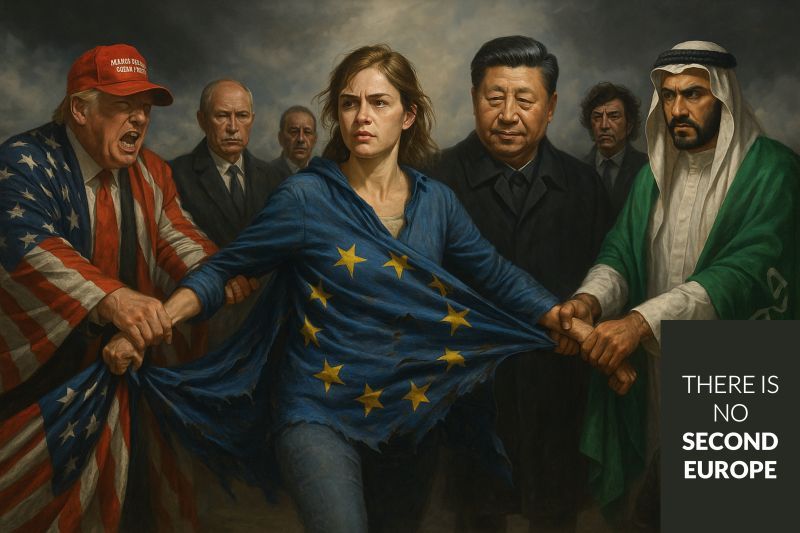

THERE IS NO SECOND EUROPE!
The world is not divided between Global North and South, nor in a cold war between US and China. These are outdated maps. Today, the world is fragmenting into four distinct ideological regimes—each battling to define our future.
Authoritarian Statism, led by China and Russia, promises prosperity through control. It fuses state capitalism, digital surveillance, and political repression into a model that is ruthlessly efficient—and anti-democratic.
Authoritarian Traditionalism, dominant across Middle East and Sub-Saharan Africa, maintains order through religion, patriarchy, tribal sovereignty. It suppresses dissent and militarises power.
Populist Democracy, entrenched in Latin America, South Asia, and now the US, offers mass electoralism without institutional depth. It inflames culture wars, bypasses checks and balances, and transforms governance into spectacle.
These models are not just surviving—they are converging! From Riyadh to Delhi, from Moscow to Washington, we are witnessing the rise of a global consensus: a technologically enhanced patriarchal nationalism. An unholy alliance of plutocracy, extractive militarised capitalism, and algorithmic tribalism—resurrecting pre-modern hierarchies through post-modern tools with terrifying coherence.
Against this tide stands the European Way.
Not just a continent, but a civilisational project—anchored in the Core EU, Canada, Australia, New Zealand, Japan, South Korea. A vision born of catastrophe, and rooted in secular reason, human rights, social solidarity, pluralist law, planetary responsibility. A commitment to institutionalise freedom with care, prosperity with justice, and peace through interdependence.
And it is disappearing.
The 2008 financial crash, the migration crises, and growing inequality fracture its social fabric. Populist movements—from Hungary’s Fidesz to Germany’s AfD and France’s Le Pen—exploit democratic freedoms to damage democratic institutions. Authoritarian powers—Russia, China, and even the US—undermine it through economic blackmail, cyber-disruption, and narrative warfare. Europe is not stagnating—it is being unmade.
What is at stake is not European pride. It is the collapse of the only civilisation that translated moral universalism into institutional reality. If the European way disappears, the 21st century will not be shaped by freedom—but by collusion among authoritarian illiberal powers. There will be no anchor left for justice, sustainability, or human dignity.
Like it or not, there is no second Europe. No other system balanced sovereignty with solidarity. No other civilisation built lasting peace through pluralism. If we let it fail—there will be no replacement.
This is not a call for defensiveness. It's a final wake-up call.
A call for renaissance—to restore an architecture of freedom, to reignite a European spirit of innovation and solidarity. And to reclaim our future—not just for Europe, but for humanity itself.
#leadership
For more than 600 comments please go to the original LinkedIn post: https://www.linkedin.com/posts/ottivogt_leadership-activity-7337169036268494848-mkOS?utm_source=share&utm_medium=member_desktop&rcm=ACoAAABm1WMBiwxFaUc1X66gje88odJOEyNAskc
THERE IS NO SECOND EUROPE!
The world is not divided between Global North and South, nor in a cold war between US and China. These are outdated maps. Today, the world is fragmenting into four distinct ideological regimes—each battling to define our future.
Authoritarian Statism, led by China and Russia, promises prosperity through control. It fuses state capitalism, digital surveillance, and political repression into a model that is ruthlessly efficient—and anti-democratic.
Authoritarian Traditionalism, dominant across Middle East and Sub-Saharan Africa, maintains order through religion, patriarchy, tribal sovereignty. It suppresses dissent and militarises power.
Populist Democracy, entrenched in Latin America, South Asia, and now the US, offers mass electoralism without institutional depth. It inflames culture wars, bypasses checks and balances, and transforms governance into spectacle.
These models are not just surviving—they are converging! From Riyadh to Delhi, from Moscow to Washington, we are witnessing the rise of a global consensus: a technologically enhanced patriarchal nationalism. An unholy alliance of plutocracy, extractive militarised capitalism, and algorithmic tribalism—resurrecting pre-modern hierarchies through post-modern tools with terrifying coherence.
Against this tide stands the European Way.
Not just a continent, but a civilisational project—anchored in the Core EU, Canada, Australia, New Zealand, Japan, South Korea. A vision born of catastrophe, and rooted in secular reason, human rights, social solidarity, pluralist law, planetary responsibility. A commitment to institutionalise freedom with care, prosperity with justice, and peace through interdependence.
And it is disappearing.
The 2008 financial crash, the migration crises, and growing inequality fracture its social fabric. Populist movements—from Hungary’s Fidesz to Germany’s AfD and France’s Le Pen—exploit democratic freedoms to damage democratic institutions. Authoritarian powers—Russia, China, and even the US—undermine it through economic blackmail, cyber-disruption, and narrative warfare. Europe is not stagnating—it is being unmade.
What is at stake is not European pride. It is the collapse of the only civilisation that translated moral universalism into institutional reality. If the European way disappears, the 21st century will not be shaped by freedom—but by collusion among authoritarian illiberal powers. There will be no anchor left for justice, sustainability, or human dignity.
Like it or not, there is no second Europe. No other system balanced sovereignty with solidarity. No other civilisation built lasting peace through pluralism. If we let it fail—there will be no replacement.
This is not a call for defensiveness. It's a final wake-up call.
A call for renaissance—to restore an architecture of freedom, to reignite a European spirit of innovation and solidarity. And to reclaim our future—not just for Europe, but for humanity itself.
#leadership
For more than 600 comments please go to the original LinkedIn post: https://www.linkedin.com/posts/ottivogt_leadership-activity-7337169036268494848-mkOS?utm_source=share&utm_medium=member_desktop&rcm=ACoAAABm1WMBiwxFaUc1X66gje88odJOEyNAskc
Some reflections
Over 400 comments and conversations in, I want to briefly pause and reflect—not to defend a specific position, but to deepen the conversation.
The point of my original post was not to glorify "Europe", as a geograhical entity, nor to ignore its colonial past. It was to provocatively ask whether there remains value in a political and civilisational project that—uniquely—attempts to transform historical catastrophe into institutionalised pluralism, peace, and legal self-restraint.
Many replies aggressively dismiss this by collapsing the EU into Europe's imperial past, or by framing any claim to shared values as Western moral arrogance. That critique matters—but only up to a point.
We cannot pretend the EU emerged from nowhere, nor that it escaped the contradictions of its inheritance. But nor can we ignore the fact that it was precisely these contradictions—war, genocide, colonialisation, dehumanisation—that inspired a radical reimagining of sovereignty and solidarity. What is being tested today is not a specifically European fantasy of moral supremacy. It is the survival of a fragile normative project that sought to embed dignity, mutual recognition, and limitation into law and governance.
The deeper issue is not WHO gets to speak for humanity—but whether WE believe humanity can still speak at all. Pluralism, justice, peace, solidarity, dignity are not Western inventions. But they may die here, if we give up on their defence.
To reduce everything to “us” and “them,” or the "West vs the Rest" and to vocally equate every attempt at self-reflection with hypocrisy, is not radical. It is despair masquerading as critique.
So yes—look at the finger. But then please, let's also together look at what it’s pointing to.
THERE IS NO SECOND EUROPE!
The world is not divided between Global North and South, nor in a cold war between US and China. These are outdated maps. Today, the world is fragmenting into four distinct ideological regimes—each battling to define our future.
Authoritarian Statism, led by China and Russia, promises prosperity through control. It fuses state capitalism, digital surveillance, and political repression into a model that is ruthlessly efficient—and anti-democratic.
Authoritarian Traditionalism, dominant across Middle East and Sub-Saharan Africa, maintains order through religion, patriarchy, tribal sovereignty. It suppresses dissent and militarises power.
Populist Democracy, entrenched in Latin America, South Asia, and now the US, offers mass electoralism without institutional depth. It inflames culture wars, bypasses checks and balances, and transforms governance into spectacle.
These models are not just surviving—they are converging! From Riyadh to Delhi, from Moscow to Washington, we are witnessing the rise of a global consensus: a technologically enhanced patriarchal nationalism. An unholy alliance of plutocracy, extractive militarised capitalism, and algorithmic tribalism—resurrecting pre-modern hierarchies through post-modern tools with terrifying coherence.
Against this tide stands the European Way.
Not just a continent, but a civilisational project—anchored in the Core EU, Canada, Australia, New Zealand, Japan, South Korea. A vision born of catastrophe, and rooted in secular reason, human rights, social solidarity, pluralist law, planetary responsibility. A commitment to institutionalise freedom with care, prosperity with justice, and peace through interdependence.
And it is disappearing.
The 2008 financial crash, the migration crises, and growing inequality fracture its social fabric. Populist movements—from Hungary’s Fidesz to Germany’s AfD and France’s Le Pen—exploit democratic freedoms to damage democratic institutions. Authoritarian powers—Russia, China, and even the US—undermine it through economic blackmail, cyber-disruption, and narrative warfare. Europe is not stagnating—it is being unmade.
What is at stake is not European pride. It is the collapse of the only civilisation that translated moral universalism into institutional reality. If the European way disappears, the 21st century will not be shaped by freedom—but by collusion among authoritarian illiberal powers. There will be no anchor left for justice, sustainability, or human dignity.
Like it or not, there is no second Europe. No other system balanced sovereignty with solidarity. No other civilisation built lasting peace through pluralism. If we let it fail—there will be no replacement.
This is not a call for defensiveness. It's a final wake-up call.
A call for renaissance—to restore an architecture of freedom, to reignite a European spirit of innovation and solidarity. And to reclaim our future—not just for Europe, but for humanity itself.
#leadership
For more than 600 comments please go to the original LinkedIn post: https://www.linkedin.com/posts/ottivogt_leadership-activity-7337169036268494848-mkOS?utm_source=share&utm_medium=member_desktop&rcm=ACoAAABm1WMBiwxFaUc1X66gje88odJOEyNAskc
JUNE 2025



LA VIE EN PAUSE: When Europe Closes for Business While the World Burns
The world is ablaze with crises—ecological, geopolitical, moral—and Europe? Europe is packing its swimsuits, debating the virtues of Corsica over Kalamata, and wondering if this year's rosé will pair as exquisitely with existential dread as last summer's.
The continent that once dictated the rhythm of global history now seems more concerned with perfecting its siesta than with improving its strategy.
It would be easy to mock—until you realise that this isn't just decadence. It's denial, wrapped in multichromatic beach towels. The trains still glide with Swiss precision, the espressos are still exquisite, and the average citizen can still quote Montaigne or Mann over aperitifs. But beneath the cobbled beauty and constitutional prose lies a profound malaise: a post-imperial civilisation unsure of its future, unsure whether it even wants one.
Europe's house is on fire, and its inhabitants are lighting scented candles. War at its borders. A fraying social contract. An economic model that delivers comfort, not confidence. Once a beacon of philosophical ambition and humanist vision, the continent now shrinks from leadership like a flâneur dodging responsibility. It has outsourced its energy, its security, and increasingly its technological future—to regimes that do not share its values, and never did.
But naturellement—Eile mit Weile. Chi va piano va sano. Mañana es otro día. If it cannot be resolved before the Feast of the Assumption, surely it can wait until la rentrée.
The danger isn’t just strategic. It’s spiritual. Europe risks becoming the world’s most civilised retirement home: dignified, landscaped, and irrelevant.
And yet… one hesitates to demand a return to steel and speed. Because what if this supposed indulgence is not failure, but resistance? What if the long lunch, the two-hour stroll, the universal healthcare, the literary salons and the August paralysis are not symptoms of terminal laziness, but declarations of an alternative civilisation? One that refuses to measure value by GDP, or character by quarterly report?
What if Europe is preserving something the rest of the world has forgotten: that the point of existence is not perpetual acceleration but the cultivation of eudaimonia—human flourishing in all its gloriously inefficient complexity?
Still, let us not confuse joie de vivre with a proper plan. Europe must decide: is it a sanctuary, or a global player? A museum, or a forger of meaning? The dolce vita cannot survive a disordered cosmos unless it has the backbone to defend itself—morally, economically, militarily. That means courage. That means strategy. That means, mes amis, the unfortunate necessity of occasionally interrupting one's vacation.
Until then, bon week-end. And yes, Monday remains a public holiday. Because even the apocalypse, surely, can wait for another Tuesday.
#leadership #transformation
LA VIE EN PAUSE: When Europe Closes for Business While the World Burns
The world is ablaze with crises—ecological, geopolitical, moral—and Europe? Europe is packing its swimsuits, debating the virtues of Corsica over Kalamata, and wondering if this year's rosé will pair as exquisitely with existential dread as last summer's.
The continent that once dictated the rhythm of global history now seems more concerned with perfecting its siesta than with improving its strategy.
It would be easy to mock—until you realise that this isn't just decadence. It's denial, wrapped in multichromatic beach towels. The trains still glide with Swiss precision, the espressos are still exquisite, and the average citizen can still quote Montaigne or Mann over aperitifs. But beneath the cobbled beauty and constitutional prose lies a profound malaise: a post-imperial civilisation unsure of its future, unsure whether it even wants one.
Europe's house is on fire, and its inhabitants are lighting scented candles. War at its borders. A fraying social contract. An economic model that delivers comfort, not confidence. Once a beacon of philosophical ambition and humanist vision, the continent now shrinks from leadership like a flâneur dodging responsibility. It has outsourced its energy, its security, and increasingly its technological future—to regimes that do not share its values, and never did.
But naturellement—Eile mit Weile. Chi va piano va sano. Mañana es otro día. If it cannot be resolved before the Feast of the Assumption, surely it can wait until la rentrée.
The danger isn’t just strategic. It’s spiritual. Europe risks becoming the world’s most civilised retirement home: dignified, landscaped, and irrelevant.
And yet… one hesitates to demand a return to steel and speed. Because what if this supposed indulgence is not failure, but resistance? What if the long lunch, the two-hour stroll, the universal healthcare, the literary salons and the August paralysis are not symptoms of terminal laziness, but declarations of an alternative civilisation? One that refuses to measure value by GDP, or character by quarterly report?
What if Europe is preserving something the rest of the world has forgotten: that the point of existence is not perpetual acceleration but the cultivation of eudaimonia—human flourishing in all its gloriously inefficient complexity?
Still, let us not confuse joie de vivre with a proper plan. Europe must decide: is it a sanctuary, or a global player? A museum, or a forger of meaning? The dolce vita cannot survive a disordered cosmos unless it has the backbone to defend itself—morally, economically, militarily. That means courage. That means strategy. That means, mes amis, the unfortunate necessity of occasionally interrupting one's vacation.
Until then, bon week-end. And yes, Monday remains a public holiday. Because even the apocalypse, surely, can wait for another Tuesday.
#leadership #transformation
JUNE 2025

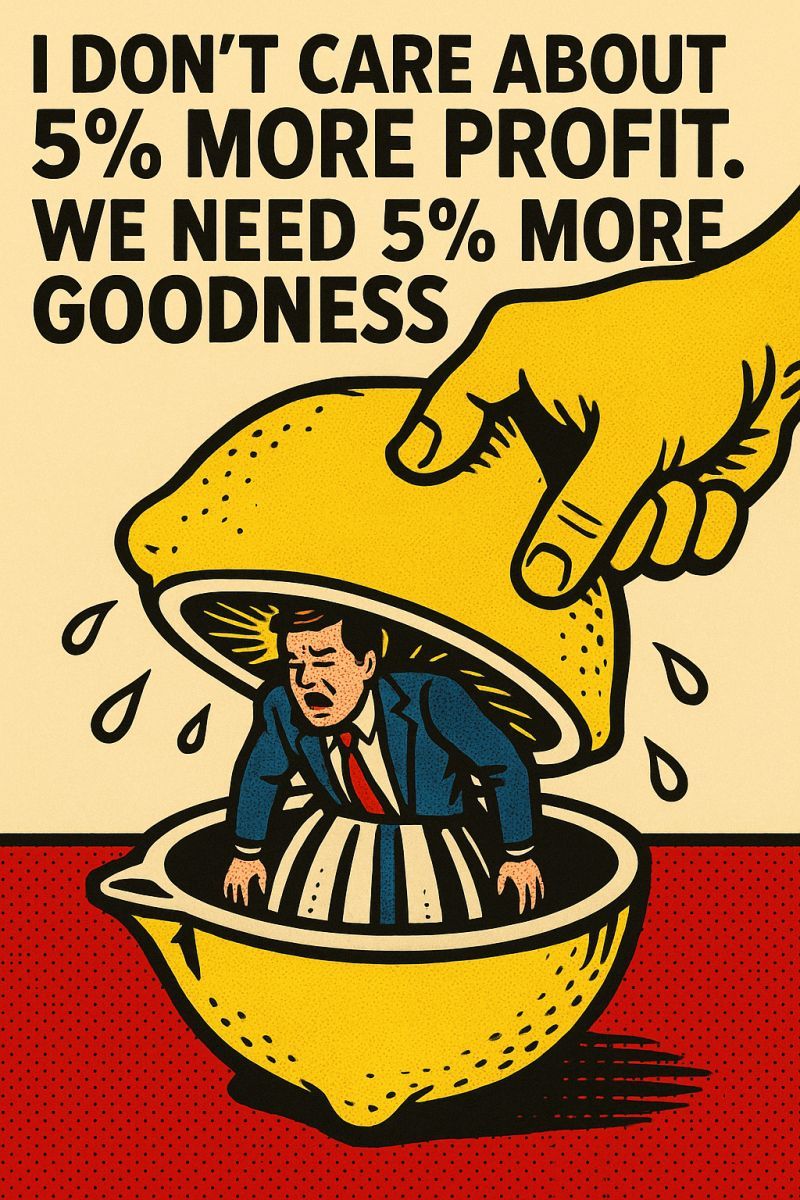

I DON’T WANT 5% MORE PROFIT!
I swear—if I see one more radiant PowerPoint slide by some well-groomed consultant promising an additional $5 billion in “shareholder value” by firing 20% of the workforce and boosting “return per capita” through a pseudo-scientific cocktail of performance metrics, "psychological safety", AI dashboards, and neuro-nudging—I will vomit.
This is not transformation. It is predation with better branding.
We have created an industry—no, a cathedral—dedicated to extracting the life-force of our people. Not to liberate human potential. Not to dignify work. But to refine ever more elegant tools for squeezing a bit more juice, a bit more yield, a bit more profit... for the owners, financiers, and algorithmic gods who sit above the system. This is not innovation. It is extraction with a moral alibi.
We gather in glitzy conference halls and parade our agile frameworks like high priests of progress—each new method more shameless than the last. And still, no one seems to ask the only question that matters: To what end?
It’s not about "cutting fat.” The real obscenity is how easily we destroy the dignity of human life in the name of “efficiency.” We’ve built empires of incentive schemes, feedback loops, and behavioural economics to instrumentalise the human soul. And we call it excellence.
Let me be clear: the system is not broken. The system is functioning exactly as it was built—to colonise meaning, reduce people to resources, and convert every act of living into monetisable surplus.
We debate endlessly how to reduce burnout—but rarely ask what is worth doing in the first place. We celebrate “net-zero” targets while staying infinitely far from positive purpose. We parade token gestures of diversity—unless of course Trump sends us a letter. We obsess over “market failures” without ever daring to ask where markets should end.
But here’s the truth: you cannot morally optimise a pathological design.
The problem is not bad execution. The problem is the moral emptiness of our contemporary management paradigm itself. It is an ethical failure—a framework in which value is confused with price, growth with good, and freedom with maximised choice.
We need a new theory.
Not rooted in marginal returns, but moral worth.
We need organisations that forge character, not just careers.
Where dignity isn’t negotiated—it’s presumed.
Where work isn’t a race for bonus
but a serious path to becoming fully human.
We want markets that serve life—
not rule it.
It is time to look into the mirror. And to finally take the world—and each other—seriously.
Until then, every slide deck, every quarterly earnings call, every consultancy roadmap—no matter how “purpose-driven” it claims to be—will remain what it is: a technocratic veil over moral cowardice.
Let me be clear:
I don't care about 5% more profit.
What we need—what the world is starving for—is 5% more goodness.
And if that doesn’t move you, don’t waste my time.
#leadership #transformation
I DON’T WANT 5% MORE PROFIT!
I swear—if I see one more radiant PowerPoint slide by some well-groomed consultant promising an additional $5 billion in “shareholder value” by firing 20% of the workforce and boosting “return per capita” through a pseudo-scientific cocktail of performance metrics, "psychological safety", AI dashboards, and neuro-nudging—I will vomit.
This is not transformation. It is predation with better branding.
We have created an industry—no, a cathedral—dedicated to extracting the life-force of our people. Not to liberate human potential. Not to dignify work. But to refine ever more elegant tools for squeezing a bit more juice, a bit more yield, a bit more profit... for the owners, financiers, and algorithmic gods who sit above the system. This is not innovation. It is extraction with a moral alibi.
We gather in glitzy conference halls and parade our agile frameworks like high priests of progress—each new method more shameless than the last. And still, no one seems to ask the only question that matters: To what end?
It’s not about "cutting fat.” The real obscenity is how easily we destroy the dignity of human life in the name of “efficiency.” We’ve built empires of incentive schemes, feedback loops, and behavioural economics to instrumentalise the human soul. And we call it excellence.
Let me be clear: the system is not broken. The system is functioning exactly as it was built—to colonise meaning, reduce people to resources, and convert every act of living into monetisable surplus.
We debate endlessly how to reduce burnout—but rarely ask what is worth doing in the first place. We celebrate “net-zero” targets while staying infinitely far from positive purpose. We parade token gestures of diversity—unless of course Trump sends us a letter. We obsess over “market failures” without ever daring to ask where markets should end.
But here’s the truth: you cannot morally optimise a pathological design.
The problem is not bad execution. The problem is the moral emptiness of our contemporary management paradigm itself. It is an ethical failure—a framework in which value is confused with price, growth with good, and freedom with maximised choice.
We need a new theory.
Not rooted in marginal returns, but moral worth.
We need organisations that forge character, not just careers.
Where dignity isn’t negotiated—it’s presumed.
Where work isn’t a race for bonus
but a serious path to becoming fully human.
We want markets that serve life—
not rule it.
It is time to look into the mirror. And to finally take the world—and each other—seriously.
Until then, every slide deck, every quarterly earnings call, every consultancy roadmap—no matter how “purpose-driven” it claims to be—will remain what it is: a technocratic veil over moral cowardice.
Let me be clear:
I don't care about 5% more profit.
What we need—what the world is starving for—is 5% more goodness.
And if that doesn’t move you, don’t waste my time.
#leadership #transformation
JUNE 2025



THE MORAL BANKRUPTCY OF MARKET ENVIRONMENTALISM
Yesterday at a global conference, someone declared that for a "true" entrepreneur, "sustainability is simply a cost"—and that our environmental crisis would only be resolved when green practices become "good business".
This is not merely wrong but a fundamental category mistake: actions are not right because they are profitable. When environmental stewardship becomes another "smart business strategy," we corrupt our moral vocabulary at its source. We speak of "natural capital" and "ecosystem services" as if the earth were merely an undervalued stock portfolio. But when virtue becomes valuable only insofar as it generates returns, we have not solved our environmental crisis—we have surrendered to the very logic that created it.
We repeat the Triple Bottom Line disaster: like medieval merchants hawking indulgences, we peddle carbon credits while the world burns. We invest in "clean" technology just enough to launder our conscience, mistaking commodity exchange for societal progress. Companies that devour our forests now promise to save them, but only for the right return. Sustainability becomes not an intrinsic good pursued from duty to future generations, but merely another asset class, valuable only insofar as it delivers quarterly returns.
The deeper logic of transformation—the fundamental reordering of how we live—is replaced by the shallow arithmetic of profit and loss. But sustainability, rightly understood, is not a tool or tactic—it is a form of life rooted in temperance, care, and responsibility. It concerns not optimizing outcomes but inhabiting the world with reverence rather than rapacity.
True sustainability demands that we ask not whether our products are worthy of the customer, but whether they are worthy of us; and whether WE are worthy—of our society, our roles within it, and ultimately, of the precious life entrusted to us. It requires the moral courage to recognize that some obligations transcend calculation, that right action springs not from incentive structures but from the recognition of who we are called to be.
As long as all those "true" entrepreneurs mistake ethics for dividends, we need frameworks where doing the right thing becomes the easiest thing—and even more urgently, where doing wrong becomes prohibitively costly to the actor, not just to the world. As a society, we must hold accountable those who refuse to act sustainably while empowering those who strive to do right yet face systemic obstruction.
The simple truth is: our markets will not save us through invisible hands or voluntary disclosures. Its logic is extraction, not restoration. So rather than asking whether sustainability is profitable enough for our businesses, we should probably be asking whether our businesses' moral cowardice is becoming too costly for us as a society.
#transformation
THE MORAL BANKRUPTCY OF MARKET ENVIRONMENTALISM
Yesterday at a global conference, someone declared that for a "true" entrepreneur, "sustainability is simply a cost"—and that our environmental crisis would only be resolved when green practices become "good business".
This is not merely wrong but a fundamental category mistake: actions are not right because they are profitable. When environmental stewardship becomes another "smart business strategy," we corrupt our moral vocabulary at its source. We speak of "natural capital" and "ecosystem services" as if the earth were merely an undervalued stock portfolio. But when virtue becomes valuable only insofar as it generates returns, we have not solved our environmental crisis—we have surrendered to the very logic that created it.
We repeat the Triple Bottom Line disaster: like medieval merchants hawking indulgences, we peddle carbon credits while the world burns. We invest in "clean" technology just enough to launder our conscience, mistaking commodity exchange for societal progress. Companies that devour our forests now promise to save them, but only for the right return. Sustainability becomes not an intrinsic good pursued from duty to future generations, but merely another asset class, valuable only insofar as it delivers quarterly returns.
The deeper logic of transformation—the fundamental reordering of how we live—is replaced by the shallow arithmetic of profit and loss. But sustainability, rightly understood, is not a tool or tactic—it is a form of life rooted in temperance, care, and responsibility. It concerns not optimizing outcomes but inhabiting the world with reverence rather than rapacity.
True sustainability demands that we ask not whether our products are worthy of the customer, but whether they are worthy of us; and whether WE are worthy—of our society, our roles within it, and ultimately, of the precious life entrusted to us. It requires the moral courage to recognize that some obligations transcend calculation, that right action springs not from incentive structures but from the recognition of who we are called to be.
As long as all those "true" entrepreneurs mistake ethics for dividends, we need frameworks where doing the right thing becomes the easiest thing—and even more urgently, where doing wrong becomes prohibitively costly to the actor, not just to the world. As a society, we must hold accountable those who refuse to act sustainably while empowering those who strive to do right yet face systemic obstruction.
The simple truth is: our markets will not save us through invisible hands or voluntary disclosures. Its logic is extraction, not restoration. So rather than asking whether sustainability is profitable enough for our businesses, we should probably be asking whether our businesses' moral cowardice is becoming too costly for us as a society.
#transformation
JUNE 2025

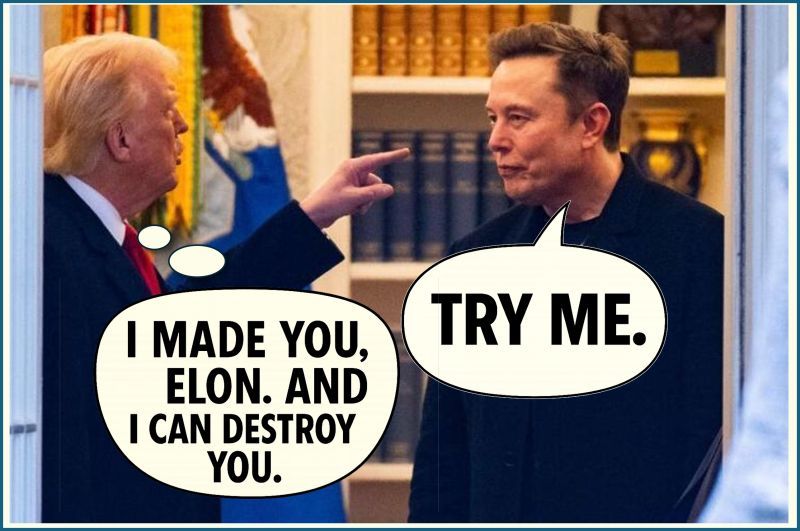

THE DEATH OF ETHICAL #LEADERSHIP
The spectacular destruction of the Trump-Musk alliance is tearing away the final veneer of dignity from American leadership, exposing a grotesque theater of pathological narcissism that threatens the very foundations of democratic governance. This is not merely a political feud—it is the public autopsy of moral leadership in the modern era.
The facts are revealing. Trump's aggressive trade tariffs triggered a dramatic market plunge, erasing nearly $150 billion in Tesla's valuation in a single day. Musk warned of economic recession. His scathing denunciation of Trump's "beautiful big bill" as a "disgusting abomination" further inflamed tensions. Trump's retaliatory threats to revoke government contracts from Musk's companies escalated the conflict into dangerous brinkmanship that risks disrupting national infrastructure, such as NASA's transport capabilities. The feud escalated further when Musk claimed Trump wouldn’t have won the election without him, and publicly alleged Trump's involvement in the Jeffrey Epstein files, calling for his impeachment, while Trump dismissed these claims accusing Musk of ingratitude.
This combustible spectacle exposes two men exhibiting textbook pathological narcissism: grandiosity masquerading as leadership, entitlement disguised as authority, and a complete absence of empathy for the millions whose livelihoods hang in the balance of their personal vendettas. Their public exchanges reveal classic narcissistic terror of humiliation—each perceiving the other as an existential threat to their fragile self-image, projecting internal insecurities through vindictive displays of aggression.
The ethical implications are devastating. Democratic ethics demands that public servants act from duty, guided by universalizable principles of justice. Yet both men have systematically exploited their positions for personal gain, violating the most basic fiduciary obligations to the public trust. Moreover, their policies and threats prioritize private vendettas over collective welfare with stunning disregard for consequences.
Historically, this trajectory is grimly familiar. From imperial hubris to modern autocracy, unchecked narcissism has precipitated wars, economic collapse, and systemic injustice. When pathological narcissism becomes tolerated—or worse, celebrated—it corrodes democratic norms and obliterates civic trust. This public humiliation ritual fosters cynicism and diminished expectations of integrity from those who govern, imperiling the social contract itself.
The Trump-Musk debacle serves as an urgent warning to Europe and the rest of the world. Ethical leadership isn't merely preferable—it's existential. Either we demand leaders who embody compassion, justice, temperance, and responsibility—virtues antithetical to narcissistic excess—or we surrender democracy to the whims of damaged egos. Without such leadership, we face not just bad governance, but the death of governance itself.
THE DEATH OF ETHICAL #LEADERSHIP
The spectacular destruction of the Trump-Musk alliance is tearing away the final veneer of dignity from American leadership, exposing a grotesque theater of pathological narcissism that threatens the very foundations of democratic governance. This is not merely a political feud—it is the public autopsy of moral leadership in the modern era.
The facts are revealing. Trump's aggressive trade tariffs triggered a dramatic market plunge, erasing nearly $150 billion in Tesla's valuation in a single day. Musk warned of economic recession. His scathing denunciation of Trump's "beautiful big bill" as a "disgusting abomination" further inflamed tensions. Trump's retaliatory threats to revoke government contracts from Musk's companies escalated the conflict into dangerous brinkmanship that risks disrupting national infrastructure, such as NASA's transport capabilities. The feud escalated further when Musk claimed Trump wouldn’t have won the election without him, and publicly alleged Trump's involvement in the Jeffrey Epstein files, calling for his impeachment, while Trump dismissed these claims accusing Musk of ingratitude.
This combustible spectacle exposes two men exhibiting textbook pathological narcissism: grandiosity masquerading as leadership, entitlement disguised as authority, and a complete absence of empathy for the millions whose livelihoods hang in the balance of their personal vendettas. Their public exchanges reveal classic narcissistic terror of humiliation—each perceiving the other as an existential threat to their fragile self-image, projecting internal insecurities through vindictive displays of aggression.
The ethical implications are devastating. Democratic ethics demands that public servants act from duty, guided by universalizable principles of justice. Yet both men have systematically exploited their positions for personal gain, violating the most basic fiduciary obligations to the public trust. Moreover, their policies and threats prioritize private vendettas over collective welfare with stunning disregard for consequences.
Historically, this trajectory is grimly familiar. From imperial hubris to modern autocracy, unchecked narcissism has precipitated wars, economic collapse, and systemic injustice. When pathological narcissism becomes tolerated—or worse, celebrated—it corrodes democratic norms and obliterates civic trust. This public humiliation ritual fosters cynicism and diminished expectations of integrity from those who govern, imperiling the social contract itself.
The Trump-Musk debacle serves as an urgent warning to Europe and the rest of the world. Ethical leadership isn't merely preferable—it's existential. Either we demand leaders who embody compassion, justice, temperance, and responsibility—virtues antithetical to narcissistic excess—or we surrender democracy to the whims of damaged egos. Without such leadership, we face not just bad governance, but the death of governance itself.
JUNE 2025

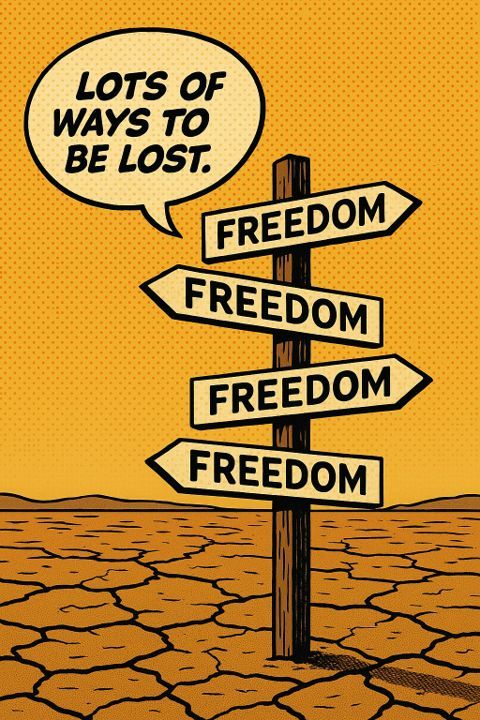

THE IDENTITY CRISIS OF SEN’S CAPABILITY APPROACH
Amartya Sen’s Human Capability Approach (HCA) promised a humane alternative to the arid utilitarianism of GDP. By centering real freedoms—what people can “be and do”—HCA offered a vision sensitive to agency, dignity, and the lived reality of exclusion. Yet beneath its emancipatory surface lies a subtle reduction: the quiet transmutation of the "self" into a portfolio of options one has "reason to value". A "person" becomes a rational chooser of a portfolio of capabilities, yet the deeper question—what it means to become "someone"—is dissolved.
This is not a theoretical oversight; Sen's unwillingness to name capabilities masks a double failure—ontological and axiological. The "capable" agent in HCA is abstracted from history, formation, and shared moral horizons. And capabilities, for all their richness, are entitlements grounded in a liberal ontology that elevates negative freedom as supreme good—what masquerades as neutrality is in fact a covert moral position: freedom without orientation, choice without judgment, inclusion without transformation.
The anthropology this generates is incoherent. Human beings are reduced to procedural agents evaluating options, devoid of narrative unity or analogical depth. Critics have flagged this. Political economists (Chang, Andreoni, Reinert) expose HCA’s blindness to production, institutions, and collective learning. Philosophers (MacIntyre, Taylor, Pabst) go further, revealing its flattening of value and its inability to ground moral discernment in any telos of the good.
Taylor reminds us that formation precedes freedom—strong evaluation and orientation toward "hypergoods" is not a threat to pluralism but its very condition. Pabst, building on participatory metaphysics, shows how liberal proceduralism lacks any internal criteria to contain negative freedom within an ethic of restraint. The result is a moral architecture unmoored from real limits—incapable of sustaining solidarity, incapable of naming the goods it pretends to serve. What remains is a curated array of options—dignity without depth, autonomy without end.
The deeper problem is a threefold conflation: between capability and identity, freedom and the good, autonomy and justice. Freedom becomes the only admissible primary good, predicated on an anthropology that privileges individualist detachment over formative responsibility. But freedom is not neutral. Its procedural elevation occludes the very moral discernment that identity requires.
To persist in the simplistic adoption of the HCA is to put lipstick on a pig—a moral Esperanto for a world without direction. The alternative is not paternalism but the recovery of practical wisdom, shared moral formation, and participatory orientation toward a Good. We need institutions that form, not just serve; traditions that thicken vision, not just shield preference. To speak of identity is to ask: what is the good that makes us whole?
#leadership
THE IDENTITY CRISIS OF SEN’S CAPABILITY APPROACH
Amartya Sen’s Human Capability Approach (HCA) promised a humane alternative to the arid utilitarianism of GDP. By centering real freedoms—what people can “be and do”—HCA offered a vision sensitive to agency, dignity, and the lived reality of exclusion. Yet beneath its emancipatory surface lies a subtle reduction: the quiet transmutation of the "self" into a portfolio of options one has "reason to value". A "person" becomes a rational chooser of a portfolio of capabilities, yet the deeper question—what it means to become "someone"—is dissolved.
This is not a theoretical oversight; Sen's unwillingness to name capabilities masks a double failure—ontological and axiological. The "capable" agent in HCA is abstracted from history, formation, and shared moral horizons. And capabilities, for all their richness, are entitlements grounded in a liberal ontology that elevates negative freedom as supreme good—what masquerades as neutrality is in fact a covert moral position: freedom without orientation, choice without judgment, inclusion without transformation.
The anthropology this generates is incoherent. Human beings are reduced to procedural agents evaluating options, devoid of narrative unity or analogical depth. Critics have flagged this. Political economists (Chang, Andreoni, Reinert) expose HCA’s blindness to production, institutions, and collective learning. Philosophers (MacIntyre, Taylor, Pabst) go further, revealing its flattening of value and its inability to ground moral discernment in any telos of the good.
Taylor reminds us that formation precedes freedom—strong evaluation and orientation toward "hypergoods" is not a threat to pluralism but its very condition. Pabst, building on participatory metaphysics, shows how liberal proceduralism lacks any internal criteria to contain negative freedom within an ethic of restraint. The result is a moral architecture unmoored from real limits—incapable of sustaining solidarity, incapable of naming the goods it pretends to serve. What remains is a curated array of options—dignity without depth, autonomy without end.
The deeper problem is a threefold conflation: between capability and identity, freedom and the good, autonomy and justice. Freedom becomes the only admissible primary good, predicated on an anthropology that privileges individualist detachment over formative responsibility. But freedom is not neutral. Its procedural elevation occludes the very moral discernment that identity requires.
To persist in the simplistic adoption of the HCA is to put lipstick on a pig—a moral Esperanto for a world without direction. The alternative is not paternalism but the recovery of practical wisdom, shared moral formation, and participatory orientation toward a Good. We need institutions that form, not just serve; traditions that thicken vision, not just shield preference. To speak of identity is to ask: what is the good that makes us whole?
#leadership
JUNE 2025

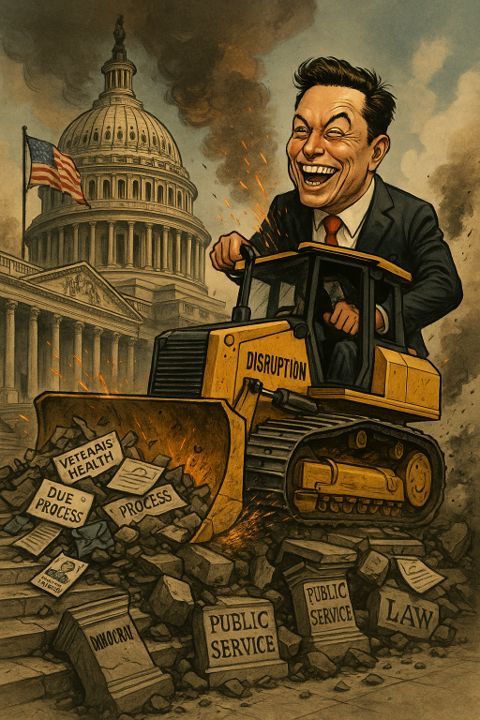

DISHONOURABLY DISCHARGED!!
Elon Musk’s foray into the heart of American governance began with spectacle and ended in disorder. Appointed on Jan 20, 2025, as public face of Trump’s Department of Government Efficiency (DOGE), Musk was handed a 130-day mandate to “shock” the system, root out waste, and deliver generational savings. The result: a blitzkrieg of layoffs, headline-grabbing claims, and a legacy of disruption, legal wrangling, and institutional damage.
What Musk Did
Musk’s DOGE tenure was a study in Silicon Valley bravado colliding with the complexity of statecraft. He slashed federal jobs, terminated contracts, and gutted programs with the zeal of a CEO wielding a quarterly earnings report. DOGE claimed $160–$175 billion in savings, but independent audits revealed billions in misaccounting and warned that the cuts would cost taxpayers $135 billion in 2025 alone. Musk redefined “fraud” to target federal employees and programs, fueling political support but undermining morale and due process. His public spats with cabinet members and open criticism of Trump’s own spending bill revealed a chaotic, fractious leadership style.
The Consequences
The outcomes were as turbulent as Musk’s methods. Essential services—Social Security, VA healthcare—were disrupted, with layoffs reversed after operational crises and legal challenges. DOGE’s “savings” were often ephemeral, offset by the costs of chaos and litigation. While some praised defense cuts, the broader expert consensus was damning: Musk’s ideology-driven reforms prioritized spectacle over substance and left the federal workforce demoralized and diminished.
The Fallout
Musk’s appointment as a “special government employee” skirted the boundaries of constitutional propriety, with legal scholars arguing he should have been Senate-confirmed. His influence as an unelected billionaire—whose companies stood to gain from government decisions—raised profound conflict-of-interest concerns. Data privacy and national security were put at risk as DOGE operatives accessed sensitive systems, and the abrupt elimination of institutional knowledge weakened the state’s capacity to govern.
Lessons Learned
Musk’s government experiment leaves a cautionary tale: the myth of the disruptive genius can become a liability when transplanted into public service. His exit, abrupt and unceremonious, capped a tenure that delivered neither the promised savings nor the innovation, but instead institutional trauma, legal backlash, and a blueprint for privatized overreach. For the US, the episode deepens distrust in both government reform and billionaire saviors. For the world, it is a warning: governance is not a start-up, and democracy cannot be run like a business.
Musk’s final act? A hasty retreat, leaving behind a battered bureaucracy and a nation forced to reckon with the consequences of letting the richest man on earth play at government. The verdict is clear: F**k off, Elon—Democracy isn't your sandbox.
DISHONOURABLY DISCHARGED!!
Elon Musk’s foray into the heart of American governance began with spectacle and ended in disorder. Appointed on Jan 20, 2025, as public face of Trump’s Department of Government Efficiency (DOGE), Musk was handed a 130-day mandate to “shock” the system, root out waste, and deliver generational savings. The result: a blitzkrieg of layoffs, headline-grabbing claims, and a legacy of disruption, legal wrangling, and institutional damage.
What Musk Did
Musk’s DOGE tenure was a study in Silicon Valley bravado colliding with the complexity of statecraft. He slashed federal jobs, terminated contracts, and gutted programs with the zeal of a CEO wielding a quarterly earnings report. DOGE claimed $160–$175 billion in savings, but independent audits revealed billions in misaccounting and warned that the cuts would cost taxpayers $135 billion in 2025 alone. Musk redefined “fraud” to target federal employees and programs, fueling political support but undermining morale and due process. His public spats with cabinet members and open criticism of Trump’s own spending bill revealed a chaotic, fractious leadership style.
The Consequences
The outcomes were as turbulent as Musk’s methods. Essential services—Social Security, VA healthcare—were disrupted, with layoffs reversed after operational crises and legal challenges. DOGE’s “savings” were often ephemeral, offset by the costs of chaos and litigation. While some praised defense cuts, the broader expert consensus was damning: Musk’s ideology-driven reforms prioritized spectacle over substance and left the federal workforce demoralized and diminished.
The Fallout
Musk’s appointment as a “special government employee” skirted the boundaries of constitutional propriety, with legal scholars arguing he should have been Senate-confirmed. His influence as an unelected billionaire—whose companies stood to gain from government decisions—raised profound conflict-of-interest concerns. Data privacy and national security were put at risk as DOGE operatives accessed sensitive systems, and the abrupt elimination of institutional knowledge weakened the state’s capacity to govern.
Lessons Learned
Musk’s government experiment leaves a cautionary tale: the myth of the disruptive genius can become a liability when transplanted into public service. His exit, abrupt and unceremonious, capped a tenure that delivered neither the promised savings nor the innovation, but instead institutional trauma, legal backlash, and a blueprint for privatized overreach. For the US, the episode deepens distrust in both government reform and billionaire saviors. For the world, it is a warning: governance is not a start-up, and democracy cannot be run like a business.
Musk’s final act? A hasty retreat, leaving behind a battered bureaucracy and a nation forced to reckon with the consequences of letting the richest man on earth play at government. The verdict is clear: F**k off, Elon—Democracy isn't your sandbox.
MAY 2025
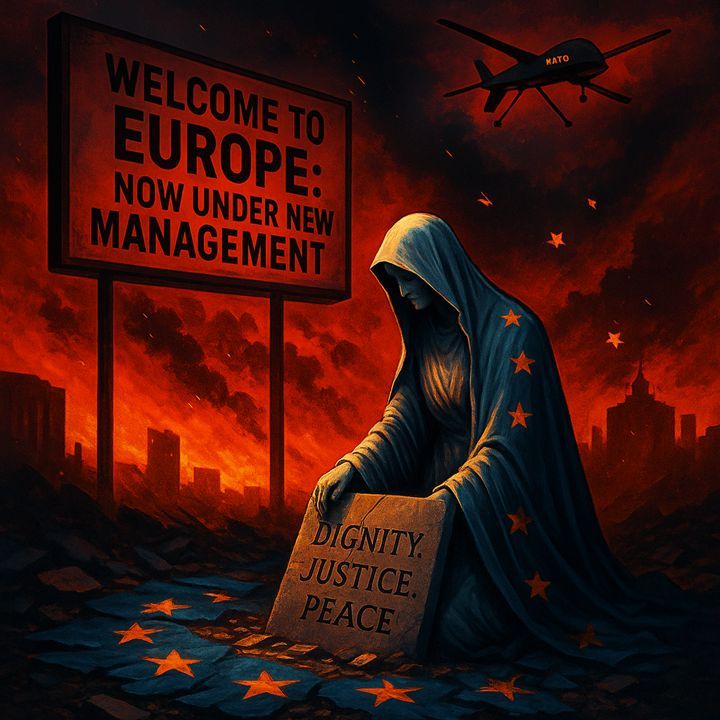


RECLAIMING THE SPIRIT OF EUROPE
For Justice, Dignity, and a Society Worth Living For!
There are times when a continent must choose not just its future—but its soul. Europe stands again at such a crossroads. Not because it's weak, but because it risks forgetting what its strength is for.
For 70 years, Europe was the boldest answer to disaster the world has ever seen. We turned ruins into rules, enemies into neighbours, markets into mutual commitments. We built the most ambitious project of peace, law, and shared dignity in modern history—not because we were perfect, but because we remembered what collapse felt like.
We believed something radical: that society is more than market. That dignity is not a luxury. That freedom demands responsibility—and that justice belongs to us all.
But today, that conviction is fading
A new logic is spreading: power without principle. Growth without purpose. Democracy reduced to management. Citizens reduced to consumers. Foreign interests rewriting our laws, buying our media, dominating our digital world. And in silence, a deeper crisis emerges: the slow unravelling of the European spirit itself.
This is not theory. It’s daily reality
Trust in government has collapsed to record lows. In half of Europe, fewer than half vote. The richest 10% now hold 53% of all wealth. Over 20m Europeans live in severe deprivation. Another 22m work full-time and still cannot afford a decent life. One in 4 young people say they plan to leave—not just for jobs, but because they see no future here. Only 17% of parents believe their children will have better lives than they had.
Our democratic deficit is not administrative – it is existential. Citizens watch as decisions drift upward, voices vanish, and vision dies. Hungary vetoes values. Britain left—not out of rage, but out of emptiness.
Meanwhile: we sign €30bn arms deals with dictators. We import 40% of energy from regimes that burn books. We’ve let 1,400 independent newsrooms vanish. 70% of our digital infrastructure is owned by outsiders. Climate chaos cost us €52 billion last year, yet COPs remain an afterthought. Europe’s share of patents has dropped by 40% in a generation. And the engine of hope—social mobility—is stalling.
This is not just a crisis of policy. It is a crisis of conviction
The spirit of Europe is not nostalgia. It is resistance—to drift, to cynicism, to surrender. It's the courage to link freedom with duty, wealth with justice, power with the common good. It is the living belief that Europe must not become a clone of empire or a playground of capital—but the living conscience of the democratic world.
We must reclaim what we have always been at our best: humanity's deepest expression—the proof that good matters, that human dignity can be institutionalized, that solidarity can triumph over selfishness.
Let it begin here. Let it begin now
Let us reclaim the Spirit of Europe—before those who never believed in it succeed in tearing it apart
#leadership
RECLAIMING THE SPIRIT OF EUROPE
For Justice, Dignity, and a Society Worth Living For!
There are times when a continent must choose not just its future—but its soul. Europe stands again at such a crossroads. Not because it's weak, but because it risks forgetting what its strength is for.
For 70 years, Europe was the boldest answer to disaster the world has ever seen. We turned ruins into rules, enemies into neighbours, markets into mutual commitments. We built the most ambitious project of peace, law, and shared dignity in modern history—not because we were perfect, but because we remembered what collapse felt like.
We believed something radical: that society is more than market. That dignity is not a luxury. That freedom demands responsibility—and that justice belongs to us all.
But today, that conviction is fading
A new logic is spreading: power without principle. Growth without purpose. Democracy reduced to management. Citizens reduced to consumers. Foreign interests rewriting our laws, buying our media, dominating our digital world. And in silence, a deeper crisis emerges: the slow unravelling of the European spirit itself.
This is not theory. It’s daily reality
Trust in government has collapsed to record lows. In half of Europe, fewer than half vote. The richest 10% now hold 53% of all wealth. Over 20m Europeans live in severe deprivation. Another 22m work full-time and still cannot afford a decent life. One in 4 young people say they plan to leave—not just for jobs, but because they see no future here. Only 17% of parents believe their children will have better lives than they had.
Our democratic deficit is not administrative – it is existential. Citizens watch as decisions drift upward, voices vanish, and vision dies. Hungary vetoes values. Britain left—not out of rage, but out of emptiness.
Meanwhile: we sign €30bn arms deals with dictators. We import 40% of energy from regimes that burn books. We’ve let 1,400 independent newsrooms vanish. 70% of our digital infrastructure is owned by outsiders. Climate chaos cost us €52 billion last year, yet COPs remain an afterthought. Europe’s share of patents has dropped by 40% in a generation. And the engine of hope—social mobility—is stalling.
This is not just a crisis of policy. It is a crisis of conviction
The spirit of Europe is not nostalgia. It is resistance—to drift, to cynicism, to surrender. It's the courage to link freedom with duty, wealth with justice, power with the common good. It is the living belief that Europe must not become a clone of empire or a playground of capital—but the living conscience of the democratic world.
We must reclaim what we have always been at our best: humanity's deepest expression—the proof that good matters, that human dignity can be institutionalized, that solidarity can triumph over selfishness.
Let it begin here. Let it begin now
Let us reclaim the Spirit of Europe—before those who never believed in it succeed in tearing it apart
#leadership
MAY 2025

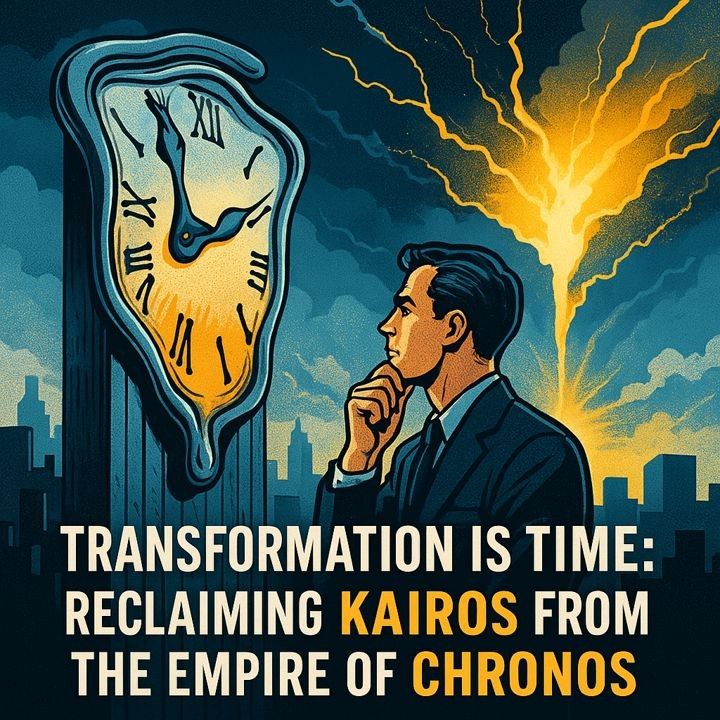

TRANSFORMATION OF TIME: Reclaiming Kairos from the Empire of Chronos
We are told that transformation TAKES time. But rarely do we ask, what time IS.
Today’s business leaders navigate by dashboards. Time has been flattened into chronos—uniform, sequential, and indifferent. It becomes a management variable—plotted, optimised, budgeted. We speak of velocity, agility, adaptation—but we no longer ask whether our time is full or empty. Time has become a resource. A schedule. A cost.
But real transformation erupts not within time, but of time. It does not unfold predictably. It is kairos—the decisive moment when the meaning of time itself is renegotiated. It erupts, when our background orientation shifts—when what seemed natural becomes contingent, when institutions stutter, when selves must be rewritten. Not an episode in a schedule, but a rupture in the ontological order. Not a shift in what we do, but in who we are becoming. These moments are not counted; they are lived. And they demand a different kind of attention—not planning, but discernment.
The great deception of modernity is that time is neutral. But every age lives under a moral time, a sense of what counts, what calls, what binds. When we flatten the temporal field, Kairos collapses into clock-time. The past becomes a liability, the future a share price risk, and the present a resource to be extracted. We fabricate a disenchanted order in which transcendence is bracketed, duration is reduced to sequence; and promise is confused with projection. The present is all that remains—measured, monetised, in control.
In such a frame, transformation can only mean iteration. Feedback loops. Strategic pivots. But institutions are not clocks. They are vessels of memory, aspiration, and discernment. Change without depth is theatre. To truly transform is to stand under judgement—to witness the volume of time. To ask: What is worthy? What does this moment require of me—not strategically, but existentially?
Transformation becomes transfiguration. This is why transformation cannot be simply engineered. It must be received, named, and responded to. It is not what we do within time. It is what we become through it. Chronos governs the urgent. Kairos reveals the essential.
Leadership, then, is not merely time management. It is temporal responsibility. The capacity to witness time: to inhabit its tensions, to hold tension across its scales, to protect liturgical delay, to act when the hour strikes—not for performance, but for good.
The leaders we need are not timekeepers, but time-bearers—those who can read the signs of the times, name the absences, and act wisely from a deeper horizon. To lead in time is not to accelerate. It is to recognise the hour of becoming. Chronos demands efficiency. Kairos demands courage.
Because the mastery of the moment, as Marie von Ebner-Eschenbach powerfully reminds us, "is the mastery of life".
TRANSFORMATION OF TIME: Reclaiming Kairos from the Empire of Chronos
We are told that transformation TAKES time. But rarely do we ask, what time IS.
Today’s business leaders navigate by dashboards. Time has been flattened into chronos—uniform, sequential, and indifferent. It becomes a management variable—plotted, optimised, budgeted. We speak of velocity, agility, adaptation—but we no longer ask whether our time is full or empty. Time has become a resource. A schedule. A cost.
But real transformation erupts not within time, but of time. It does not unfold predictably. It is kairos—the decisive moment when the meaning of time itself is renegotiated. It erupts, when our background orientation shifts—when what seemed natural becomes contingent, when institutions stutter, when selves must be rewritten. Not an episode in a schedule, but a rupture in the ontological order. Not a shift in what we do, but in who we are becoming. These moments are not counted; they are lived. And they demand a different kind of attention—not planning, but discernment.
The great deception of modernity is that time is neutral. But every age lives under a moral time, a sense of what counts, what calls, what binds. When we flatten the temporal field, Kairos collapses into clock-time. The past becomes a liability, the future a share price risk, and the present a resource to be extracted. We fabricate a disenchanted order in which transcendence is bracketed, duration is reduced to sequence; and promise is confused with projection. The present is all that remains—measured, monetised, in control.
In such a frame, transformation can only mean iteration. Feedback loops. Strategic pivots. But institutions are not clocks. They are vessels of memory, aspiration, and discernment. Change without depth is theatre. To truly transform is to stand under judgement—to witness the volume of time. To ask: What is worthy? What does this moment require of me—not strategically, but existentially?
Transformation becomes transfiguration. This is why transformation cannot be simply engineered. It must be received, named, and responded to. It is not what we do within time. It is what we become through it. Chronos governs the urgent. Kairos reveals the essential.
Leadership, then, is not merely time management. It is temporal responsibility. The capacity to witness time: to inhabit its tensions, to hold tension across its scales, to protect liturgical delay, to act when the hour strikes—not for performance, but for good.
The leaders we need are not timekeepers, but time-bearers—those who can read the signs of the times, name the absences, and act wisely from a deeper horizon. To lead in time is not to accelerate. It is to recognise the hour of becoming. Chronos demands efficiency. Kairos demands courage.
Because the mastery of the moment, as Marie von Ebner-Eschenbach powerfully reminds us, "is the mastery of life".
MAY 2025

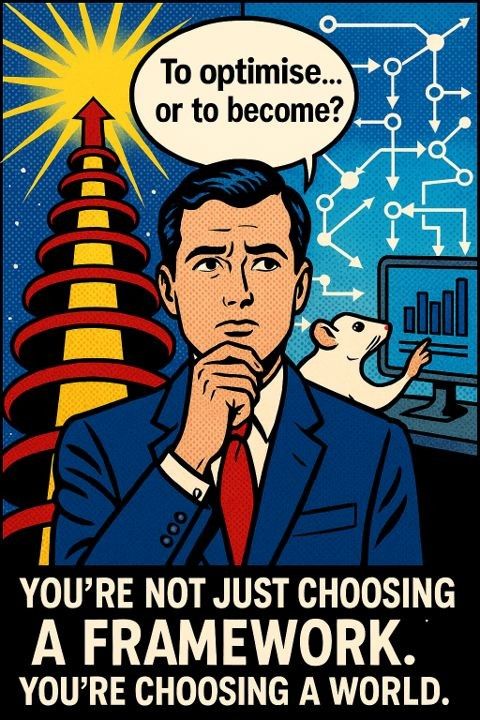

FROM "COSMOS" -> "SYSTEM": Why Most Business ‘Transformations’ Fail Before They Begin
The language of contemporary management is saturated with talk of “systems”: adaptive systems, complex systems, social systems. But few realise that in adopting this vocabulary, they have already internalised a powerful metaphysical shift. What presents itself as pragmatic or technical is in fact deeply philosophical. The shift from "cosmos" to system is not just a semantic evolution — it marks the metaphysical displacement of meaning by mechanism.
A cosmos is an ordered whole, saturated with value, where roles, purposes, and human actions are inherently oriented toward the good. In contrast, a system is defined by neutrality: input-output flows, structural constraints, functional feedback. Meaning is constructed, values are subjective, and change becomes a matter of strategic adjustment.
To move from cosmos to system is to sever being from becoming, and morality from ontology. In a "system", strictly speaking, genuine transformation is impossible—there is no telos, only optimisation within immanent constraints.
This shift did not happen overnight. Modernity’s moral order — built on procedural neutrality, individual autonomy, and buffered selves — has been shaped by centuries of epistemic mutation. Under the guise of liberation, we replaced divine order with social contract, intrinsic goods with instrumental rationality, and moral sources with psychological preferences. The background became naturalistic and impersonal — a ‘disenchanted’ framework in which values are no longer discovered, but projected.
As a result, business leaders, even when aspiring to radical change, often find themselves trapped within the invisible frame of the immanent order. They call for purpose, but reduce it to mission statements. They speak of wholeness, but fragment roles into competencies. They invoke community, but organise via metrics. Their imagination is circumscribed by a language that no longer points beyond itself.
This is the root failure of most transformation: it begins without questioning the very grammar of change. It assumes we can repurpose a framework designed for control to serve liberation; that an engineering imaginary can birth moral renewal. But transformation, in its true sense, cannot emerge from a system that presupposes there is nothing higher to become.
If we are to move beyond hypocrisy, we must recover a thicker language of value — one that sees persons not as functionaries, but as bearers of moral depth; communities not as nodes in networks, but as sites of shared aspiration; organisations not as adaptive machines, but as formative institutions. We must reclaim practical reason, moral sources, and strong evaluation as tools for discernment, not just calibration.
We must act not from within a "system", but re-articulate what it means to flourish within a greater whole.
Until then, our systems will adapt. But we will not transform.
FROM "COSMOS" -> "SYSTEM": Why Most Business ‘Transformations’ Fail Before They Begin
The language of contemporary management is saturated with talk of “systems”: adaptive systems, complex systems, social systems. But few realise that in adopting this vocabulary, they have already internalised a powerful metaphysical shift. What presents itself as pragmatic or technical is in fact deeply philosophical. The shift from "cosmos" to system is not just a semantic evolution — it marks the metaphysical displacement of meaning by mechanism.
A cosmos is an ordered whole, saturated with value, where roles, purposes, and human actions are inherently oriented toward the good. In contrast, a system is defined by neutrality: input-output flows, structural constraints, functional feedback. Meaning is constructed, values are subjective, and change becomes a matter of strategic adjustment.
To move from cosmos to system is to sever being from becoming, and morality from ontology. In a "system", strictly speaking, genuine transformation is impossible—there is no telos, only optimisation within immanent constraints.
This shift did not happen overnight. Modernity’s moral order — built on procedural neutrality, individual autonomy, and buffered selves — has been shaped by centuries of epistemic mutation. Under the guise of liberation, we replaced divine order with social contract, intrinsic goods with instrumental rationality, and moral sources with psychological preferences. The background became naturalistic and impersonal — a ‘disenchanted’ framework in which values are no longer discovered, but projected.
As a result, business leaders, even when aspiring to radical change, often find themselves trapped within the invisible frame of the immanent order. They call for purpose, but reduce it to mission statements. They speak of wholeness, but fragment roles into competencies. They invoke community, but organise via metrics. Their imagination is circumscribed by a language that no longer points beyond itself.
This is the root failure of most transformation: it begins without questioning the very grammar of change. It assumes we can repurpose a framework designed for control to serve liberation; that an engineering imaginary can birth moral renewal. But transformation, in its true sense, cannot emerge from a system that presupposes there is nothing higher to become.
If we are to move beyond hypocrisy, we must recover a thicker language of value — one that sees persons not as functionaries, but as bearers of moral depth; communities not as nodes in networks, but as sites of shared aspiration; organisations not as adaptive machines, but as formative institutions. We must reclaim practical reason, moral sources, and strong evaluation as tools for discernment, not just calibration.
We must act not from within a "system", but re-articulate what it means to flourish within a greater whole.
Until then, our systems will adapt. But we will not transform.
MAY 2025

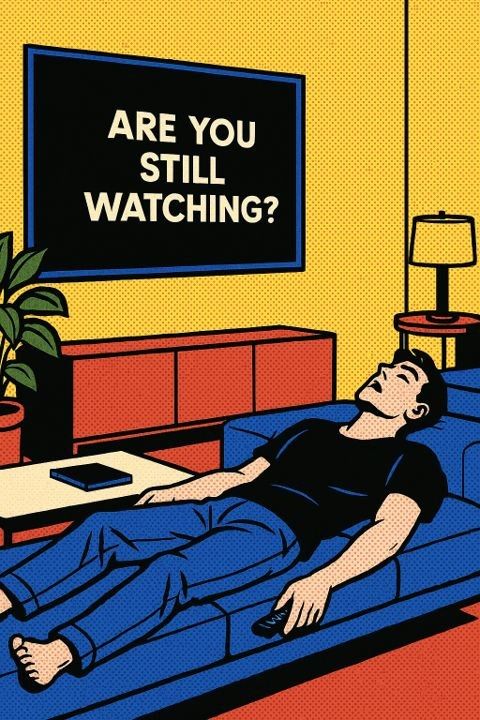

AND THEN WE BORED OURSELVES TO DEATH
The alarm sounds at 6:47 AM.
Coffee machine gurgles its morning prayer while I check my phone—seventeen notifications, none from anyone who knows my name. The needle finds the vein of nothing. Again.
In the shower I practice disappearing. Steam rises around the outline of a person I no longer inhabit fully, washing a body that feels borrowed from someone who cared about such things.
The commute: forty-three minutes of spiritual rehearsal for the main event of not being present. I scroll past atrocities with the dedication of a monk at prayer, each swipe a bead on the rosary of my dissolution. The woman across from me stares into her own screen, and for a moment we share the same void, the same perfectly calibrated emptiness.
At work I excel at the performance of engagement. Meetings about meetings, emails that birth other emails, the sacred choreography of appearing busy while accomplishing nothing that will matter when the sun dies. How exquisite this dying. How perfectly calibrated the machine that feeds me my own emptiness until emptiness itself grows fat on its own consumption.
The dead walk among us and we are they. Not the romantically dead—the efficiently dead, the dead who hit quarterly targets and remember birthdays and feel nothing whatsoever when their children speak their names. We have achieved a form of non-being so sublime it requires no effort to maintain.
Lunch at my desk: a sandwich that tastes like the idea of food, eaten while scrolling through lives more interesting than mine. I find myself aroused by my own spiritual impotence, seduced by the aesthetic purity of caring about nothing. My boredom becomes an art form, my indifference a devotional practice I never chose but cannot abandon.
Evening: the couch receives my body like an altar built for sacrifice. Netflix asks if I'm still watching and I realize I never started. See how I perfect the posture of one who sees nothing while everything passes through me like light through glass. I am transparent to myself, a window opening onto the country where all desire has been refined into the desire for nothing, where all longing has been distilled into the longing to stop longing.
This is ecstasy inverted, orgasm turned inside out. We have made an sacrament of our own disappearance.
And I—I who can feel nothing—feel everything. The weight of the world's spiritual exhaustion presses against my ribs like a lover. My ennui opens like a flower in the dark, blooming nowhere, feeding on nothing, beautiful beyond measure.
We bore ourselves to death and death bores us back to something we cannot name but recognize with the terrible certainty of the already known.
This is how the sacred returns—not as light but as the darkness that makes light visible, not as fullness but as the emptiness that gives fullness its shape.
I am the hollow reed through which nothing sings its perfect song.
AND THEN WE BORED OURSELVES TO DEATH
The alarm sounds at 6:47 AM.
Coffee machine gurgles its morning prayer while I check my phone—seventeen notifications, none from anyone who knows my name. The needle finds the vein of nothing. Again.
In the shower I practice disappearing. Steam rises around the outline of a person I no longer inhabit fully, washing a body that feels borrowed from someone who cared about such things.
The commute: forty-three minutes of spiritual rehearsal for the main event of not being present. I scroll past atrocities with the dedication of a monk at prayer, each swipe a bead on the rosary of my dissolution. The woman across from me stares into her own screen, and for a moment we share the same void, the same perfectly calibrated emptiness.
At work I excel at the performance of engagement. Meetings about meetings, emails that birth other emails, the sacred choreography of appearing busy while accomplishing nothing that will matter when the sun dies. How exquisite this dying. How perfectly calibrated the machine that feeds me my own emptiness until emptiness itself grows fat on its own consumption.
The dead walk among us and we are they. Not the romantically dead—the efficiently dead, the dead who hit quarterly targets and remember birthdays and feel nothing whatsoever when their children speak their names. We have achieved a form of non-being so sublime it requires no effort to maintain.
Lunch at my desk: a sandwich that tastes like the idea of food, eaten while scrolling through lives more interesting than mine. I find myself aroused by my own spiritual impotence, seduced by the aesthetic purity of caring about nothing. My boredom becomes an art form, my indifference a devotional practice I never chose but cannot abandon.
Evening: the couch receives my body like an altar built for sacrifice. Netflix asks if I'm still watching and I realize I never started. See how I perfect the posture of one who sees nothing while everything passes through me like light through glass. I am transparent to myself, a window opening onto the country where all desire has been refined into the desire for nothing, where all longing has been distilled into the longing to stop longing.
This is ecstasy inverted, orgasm turned inside out. We have made an sacrament of our own disappearance.
And I—I who can feel nothing—feel everything. The weight of the world's spiritual exhaustion presses against my ribs like a lover. My ennui opens like a flower in the dark, blooming nowhere, feeding on nothing, beautiful beyond measure.
We bore ourselves to death and death bores us back to something we cannot name but recognize with the terrible certainty of the already known.
This is how the sacred returns—not as light but as the darkness that makes light visible, not as fullness but as the emptiness that gives fullness its shape.
I am the hollow reed through which nothing sings its perfect song.
MAY 2025



WE KILLED THE GOOD—AND BOUGHT THE GOODS!
"Who are YOU to tell me what is GOOD?!"... This is perhaps the deepest hypocrisy of our age: We shout loudly "don't impose your values", while quietly enforcing a single vision of the good life: liberal, expressive, and market-compatible. We live in a world that aggressively insists no one can say what is good, while spending our lives chasing values imposed by market forces, algorithmic incentives, and managerial elites. We celebrate moral pluralism while worshipping at the altar of willful blindness and economic monism. One logic—liberal market fundamentalism—reigns uncontested, enforced not by censors but by social shame, status anxiety, and digital conformity.
We've rejected all ideals that demand self-transcendence, virtue, sanctification. Why? Because they expose us. They reveal that some ways of being are higher than others—that freedom isn't merely absence of constraint, but orientation toward excellence. So we dismiss them as oppressive, elitist, dangerous. But what replaces them?
Nothing. Or worse: the market.
What was once the dignifying "affirmation of ordinary life"—work, family, calling—has metastasized into a the sacralization of consumption. We no longer ask what is worth doing; we ask what will sell, scale, signal. We no longer cultivate souls—we curate brands. This isn't emancipation. It's the triumph of emptiness: a hollowing out of human identity.
Modern liberalism didn't just forget virtue—it structurally excludes it. Beginning with a vision of humans as self-owning rational animals, it ends in a system where selfhood reduces to appetite and society to transaction. Its "freedoms"—to choose, consume, exit—mask deeper captivity: to algorithmic nudges, economic precarity, moral relativism. Liberalism destroys the very anthropological foundations it claims to defend: personhood, common good, the possibility of meaning.
The irony? While we angrily ask "who are YOU to say what is good?" we are voluntarily conforming with astonishing precision to marketized ideals of success, beauty, impact. We outsource our desires to social media trends, our ethics to compliance consultants, our meaning to corporate careers. We are not too free—we are lost. We are not post-ideological—we are post-moral.
We've killed the Good—and now, with nothing higher to live for, we’re killing the planet by accumulating goods.
Yet it is aggressively policed. Suggest that good might be objective, that truth might bind, that the highest life might not be the most autonomous—and you're instantly labeled authoritarian, reactionary, anti-progress. This isn't liberalism. It's metaphysical cowardice masquerading as moral neutrality!
We must stop pretending that denying the Good makes us safe. It makes us shallow. It makes us manipulable. It doesn't fill our lives—it empties them.
Genuine freedom isn't the right to define our own good—its the invitation to discover the Good that defines us.
WE KILLED THE GOOD—AND BOUGHT THE GOODS!
"Who are YOU to tell me what is GOOD?!"... This is perhaps the deepest hypocrisy of our age: We shout loudly "don't impose your values", while quietly enforcing a single vision of the good life: liberal, expressive, and market-compatible. We live in a world that aggressively insists no one can say what is good, while spending our lives chasing values imposed by market forces, algorithmic incentives, and managerial elites. We celebrate moral pluralism while worshipping at the altar of willful blindness and economic monism. One logic—liberal market fundamentalism—reigns uncontested, enforced not by censors but by social shame, status anxiety, and digital conformity.
We've rejected all ideals that demand self-transcendence, virtue, sanctification. Why? Because they expose us. They reveal that some ways of being are higher than others—that freedom isn't merely absence of constraint, but orientation toward excellence. So we dismiss them as oppressive, elitist, dangerous. But what replaces them?
Nothing. Or worse: the market.
What was once the dignifying "affirmation of ordinary life"—work, family, calling—has metastasized into a the sacralization of consumption. We no longer ask what is worth doing; we ask what will sell, scale, signal. We no longer cultivate souls—we curate brands. This isn't emancipation. It's the triumph of emptiness: a hollowing out of human identity.
Modern liberalism didn't just forget virtue—it structurally excludes it. Beginning with a vision of humans as self-owning rational animals, it ends in a system where selfhood reduces to appetite and society to transaction. Its "freedoms"—to choose, consume, exit—mask deeper captivity: to algorithmic nudges, economic precarity, moral relativism. Liberalism destroys the very anthropological foundations it claims to defend: personhood, common good, the possibility of meaning.
The irony? While we angrily ask "who are YOU to say what is good?" we are voluntarily conforming with astonishing precision to marketized ideals of success, beauty, impact. We outsource our desires to social media trends, our ethics to compliance consultants, our meaning to corporate careers. We are not too free—we are lost. We are not post-ideological—we are post-moral.
We've killed the Good—and now, with nothing higher to live for, we’re killing the planet by accumulating goods.
Yet it is aggressively policed. Suggest that good might be objective, that truth might bind, that the highest life might not be the most autonomous—and you're instantly labeled authoritarian, reactionary, anti-progress. This isn't liberalism. It's metaphysical cowardice masquerading as moral neutrality!
We must stop pretending that denying the Good makes us safe. It makes us shallow. It makes us manipulable. It doesn't fill our lives—it empties them.
Genuine freedom isn't the right to define our own good—its the invitation to discover the Good that defines us.
MAY 2025

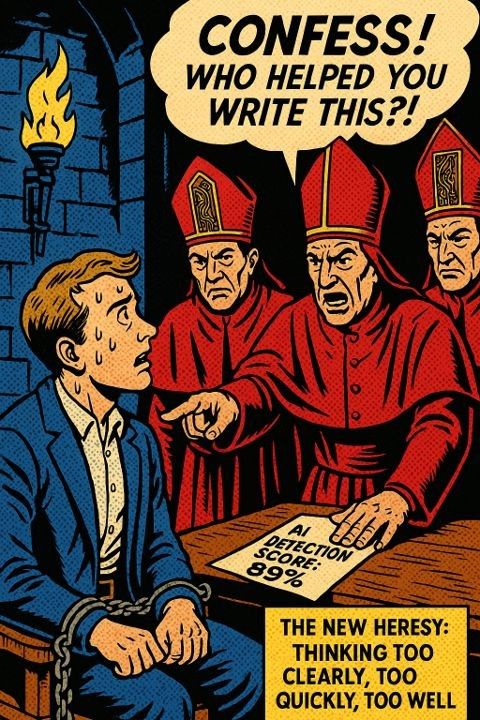

THE "AI-QUISITION" IS HERE: From AI Evangelists to Digital Witch-Hunters!
In a surreal reversal that would amuse even Foucault, yesterday's AI evangelists—those who breathlessly extolled the virtues of co-creation, augmentation, and democratized intelligence—have become today's digital witch-hunters. Armed with AI detectors and moral indignation, they now patrol the boundaries of authorship, demanding ritual confessions: "Did you use AI?" We are witnessing the dawn of the AIquisition: a new orthodoxy of intellectual suspicion.
At its core, this is not a technological drama but an existential one. The rise of AI-generated text destabilizes the foundations upon which modern intellectual identity rests: originality, expertise, and meritocracy. When machines mimic fluency, the question is no longer what is true or what is good, but who deserves credit. The policing impulse stems not from principle, but from status anxiety—now that everyone can write like a Harvard graduate, the mystique of expertise begins to erode.
Psychologically, this is the revenge of scarcity. When the social capital of "genius" diminishes, those who once championed AI as creative liberation seek to reassert control by weaponizing "authenticity." Detection tools become instruments not of integrity, but of epistemic gatekeeping—more concerned with defending the sanctity of struggle than evaluating the value of insight.
Philosophically, this hysteria reveals a profound confusion between tools and significance. Like blaming a calculator for correct math, we confuse the medium with the message. Yet prompting is not simply plagiarism; it is a form of inquiry. Curation, exposition, and judgment remain irreducibly human acts. AI does not nullify creativity—a fool with a tool remains always a fool.
But let us be clear: If AI is used to fabricate expertise, to plagiarize thought, to generate content void of integrity or context, there is a problem and the social consequences are profound. But the real question is not "Did you use AI?" The question is: Did you use it well? With judgment? With courage? With intent? For the threat is not that AI will replace us, but that we will stop asking what makes us irreplaceable.
AI checkers, ironically, are machines pretending to arbitrate what is "human." They routinely misfire, produce false positives, and stifle talent. The cultural risk is chilling: a world in which excellence is suspect, fluency is penalized, and creativity is preemptively censored. We are not protecting meaning—we are pathologizing it.
We don't need inquisitors. We need curators. Thinkers. Critics. Writers who dare to wield the tool—but refuse to surrender their soul to it. The AIquisition, if unchecked, will not protect creativity. It will bury it under suspicion.
The pen is not the author, and we are not at the end of authorship. We are at its renaissance—if only we muster the profound wisdom needed to claim it well.
THE "AI-QUISITION" IS HERE: From AI Evangelists to Digital Witch-Hunters!
In a surreal reversal that would amuse even Foucault, yesterday's AI evangelists—those who breathlessly extolled the virtues of co-creation, augmentation, and democratized intelligence—have become today's digital witch-hunters. Armed with AI detectors and moral indignation, they now patrol the boundaries of authorship, demanding ritual confessions: "Did you use AI?" We are witnessing the dawn of the AIquisition: a new orthodoxy of intellectual suspicion.
At its core, this is not a technological drama but an existential one. The rise of AI-generated text destabilizes the foundations upon which modern intellectual identity rests: originality, expertise, and meritocracy. When machines mimic fluency, the question is no longer what is true or what is good, but who deserves credit. The policing impulse stems not from principle, but from status anxiety—now that everyone can write like a Harvard graduate, the mystique of expertise begins to erode.
Psychologically, this is the revenge of scarcity. When the social capital of "genius" diminishes, those who once championed AI as creative liberation seek to reassert control by weaponizing "authenticity." Detection tools become instruments not of integrity, but of epistemic gatekeeping—more concerned with defending the sanctity of struggle than evaluating the value of insight.
Philosophically, this hysteria reveals a profound confusion between tools and significance. Like blaming a calculator for correct math, we confuse the medium with the message. Yet prompting is not simply plagiarism; it is a form of inquiry. Curation, exposition, and judgment remain irreducibly human acts. AI does not nullify creativity—a fool with a tool remains always a fool.
But let us be clear: If AI is used to fabricate expertise, to plagiarize thought, to generate content void of integrity or context, there is a problem and the social consequences are profound. But the real question is not "Did you use AI?" The question is: Did you use it well? With judgment? With courage? With intent? For the threat is not that AI will replace us, but that we will stop asking what makes us irreplaceable.
AI checkers, ironically, are machines pretending to arbitrate what is "human." They routinely misfire, produce false positives, and stifle talent. The cultural risk is chilling: a world in which excellence is suspect, fluency is penalized, and creativity is preemptively censored. We are not protecting meaning—we are pathologizing it.
We don't need inquisitors. We need curators. Thinkers. Critics. Writers who dare to wield the tool—but refuse to surrender their soul to it. The AIquisition, if unchecked, will not protect creativity. It will bury it under suspicion.
The pen is not the author, and we are not at the end of authorship. We are at its renaissance—if only we muster the profound wisdom needed to claim it well.
MAY 2025



A Eulogy to Alasdair MacIntyre: Toward a Postliberal Ethic
Alasdair MacIntyre (1929–2025) did not just diagnose the moral confusion of our age—he named it. In After Virtue, he wrote that we live in a world of emotivism: where moral claims are mere expressions of preference, and debate becomes performance, not inquiry. But he didn't stop at critique. He offered a way back—or forward—through tradition, virtue, and the renewal of moral community.
MacIntyre's death marks the passing of one of the most important moral philosophers of the past century. Yet his legacy feels more urgent than ever. His core insight was simple: without a shared telos, moral discourse collapses. And ours has. From politics to business, we trade in rhetoric, rights, and outrage—but cannot agree what a human life is for.
Against the liberal fiction of autonomous individuals making free choices from nowhere, MacIntyre insisted: we are dependent rational animals. Born into histories we didn't choose, shaped by traditions we didn't invent, sustained by relationships we cannot earn, we are beings whose flourishing depends on the communities that form us. Ethics, for MacIntyre, was never about rules—it was about practices, virtues, and narratives that give our lives moral intelligibility.
He rejected both the bureaucratic moralism of Kant and the cold calculus of utilitarianism. But he also critiqued modern liberalism's hollow core: its inability to name a shared good beyond private preference. In doing so, he became the conscience not only of moral philosophy but of political theory, calling us beyond liberalism to a more human politics rooted in the common good.
Critics accused him of nostalgia, of romanticizing medieval traditions, of impracticality. But MacIntyre never proposed a retreat to the past. He called for "new Benedicts"—people willing to build small, thick communities of formation, capable of resisting the fragmentation of late modernity. His vision was never utopian. It was radically realist. He understood that virtue must be practiced, not preached—that institutions matter—that philosophy, if divorced from life, becomes sterile.
MacIntyre's final years were marked by humility and integrity. He walked the talk. He taught without fanfare. He remained faithful to truth over reputation. And he reminded us—through both argument and example—that philosophy is not a matter of abstraction but of formation: of becoming the kind of people who can see clearly and live well.
In his passing, we lose not just a brilliant mind but a moral compass for our disoriented age. His work remains an invitation to rebuild what modernity has fractured—communities of virtue capable of sustaining human flourishing. The task before us is not merely academic but existential: not merely to cite After Virtue, but to live after virtues—crafting a postliberal ethics worthy of our shared humanity.
A Eulogy to Alasdair MacIntyre: Toward a Postliberal Ethic
Alasdair MacIntyre (1929–2025) did not just diagnose the moral confusion of our age—he named it. In After Virtue, he wrote that we live in a world of emotivism: where moral claims are mere expressions of preference, and debate becomes performance, not inquiry. But he didn't stop at critique. He offered a way back—or forward—through tradition, virtue, and the renewal of moral community.
MacIntyre's death marks the passing of one of the most important moral philosophers of the past century. Yet his legacy feels more urgent than ever. His core insight was simple: without a shared telos, moral discourse collapses. And ours has. From politics to business, we trade in rhetoric, rights, and outrage—but cannot agree what a human life is for.
Against the liberal fiction of autonomous individuals making free choices from nowhere, MacIntyre insisted: we are dependent rational animals. Born into histories we didn't choose, shaped by traditions we didn't invent, sustained by relationships we cannot earn, we are beings whose flourishing depends on the communities that form us. Ethics, for MacIntyre, was never about rules—it was about practices, virtues, and narratives that give our lives moral intelligibility.
He rejected both the bureaucratic moralism of Kant and the cold calculus of utilitarianism. But he also critiqued modern liberalism's hollow core: its inability to name a shared good beyond private preference. In doing so, he became the conscience not only of moral philosophy but of political theory, calling us beyond liberalism to a more human politics rooted in the common good.
Critics accused him of nostalgia, of romanticizing medieval traditions, of impracticality. But MacIntyre never proposed a retreat to the past. He called for "new Benedicts"—people willing to build small, thick communities of formation, capable of resisting the fragmentation of late modernity. His vision was never utopian. It was radically realist. He understood that virtue must be practiced, not preached—that institutions matter—that philosophy, if divorced from life, becomes sterile.
MacIntyre's final years were marked by humility and integrity. He walked the talk. He taught without fanfare. He remained faithful to truth over reputation. And he reminded us—through both argument and example—that philosophy is not a matter of abstraction but of formation: of becoming the kind of people who can see clearly and live well.
In his passing, we lose not just a brilliant mind but a moral compass for our disoriented age. His work remains an invitation to rebuild what modernity has fractured—communities of virtue capable of sustaining human flourishing. The task before us is not merely academic but existential: not merely to cite After Virtue, but to live after virtues—crafting a postliberal ethics worthy of our shared humanity.
MAY 2025



While they march in red, we rise in blue.
Not to hate, but to hold the line.
For freedom. For justice. For every child watching.
Europe United—against fascism, for the future.






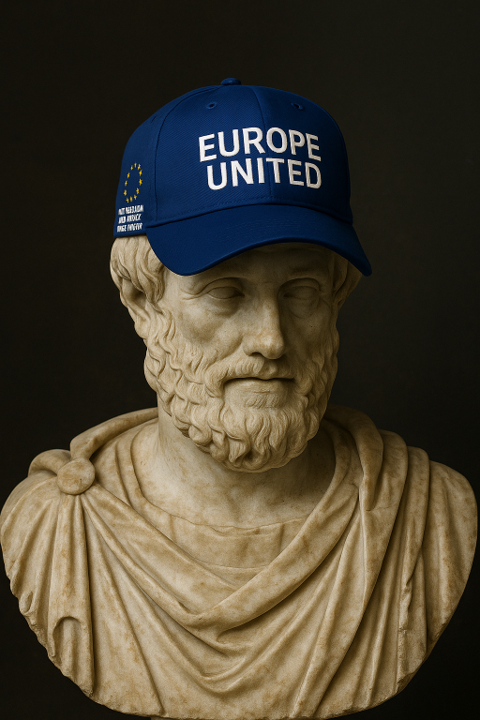
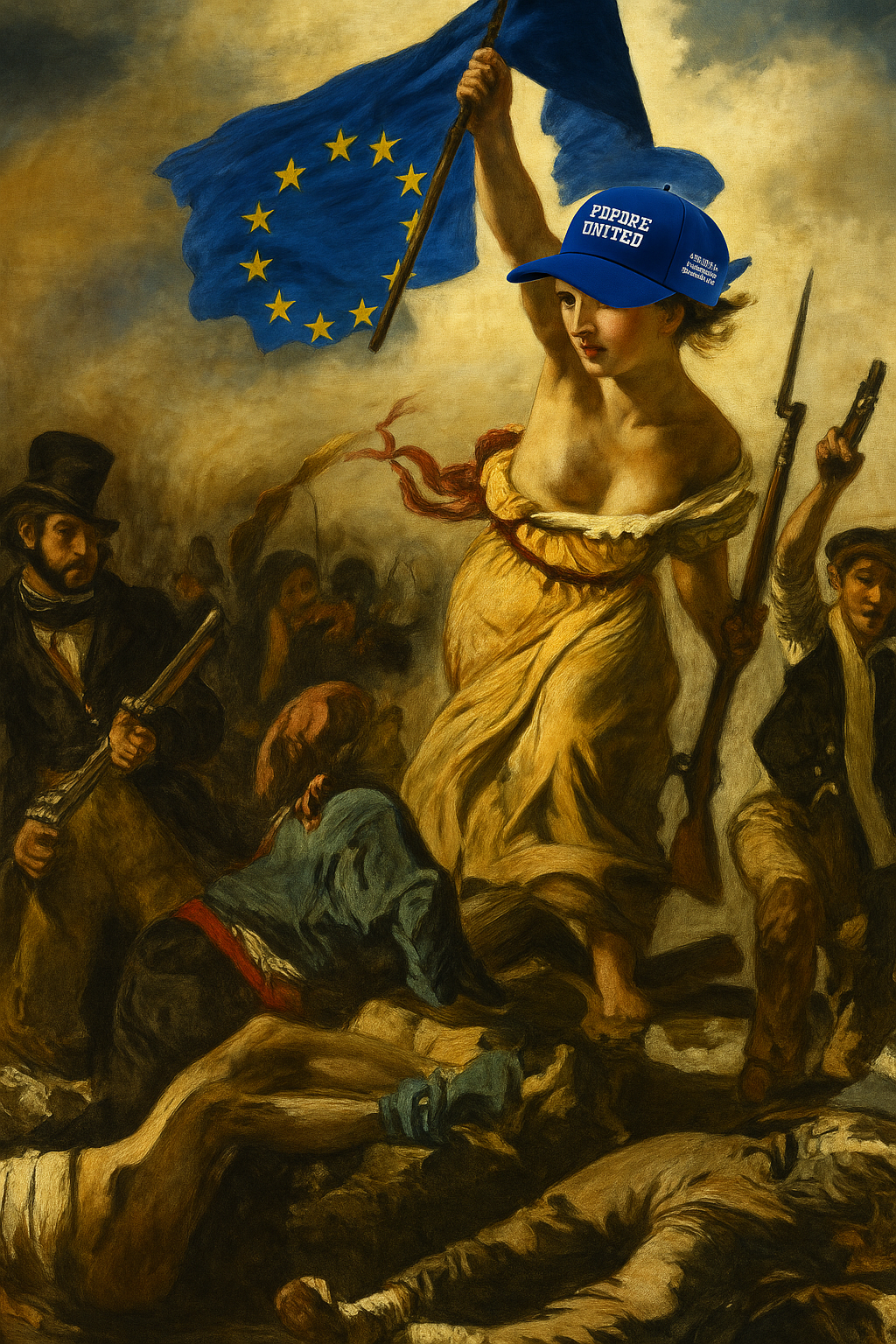

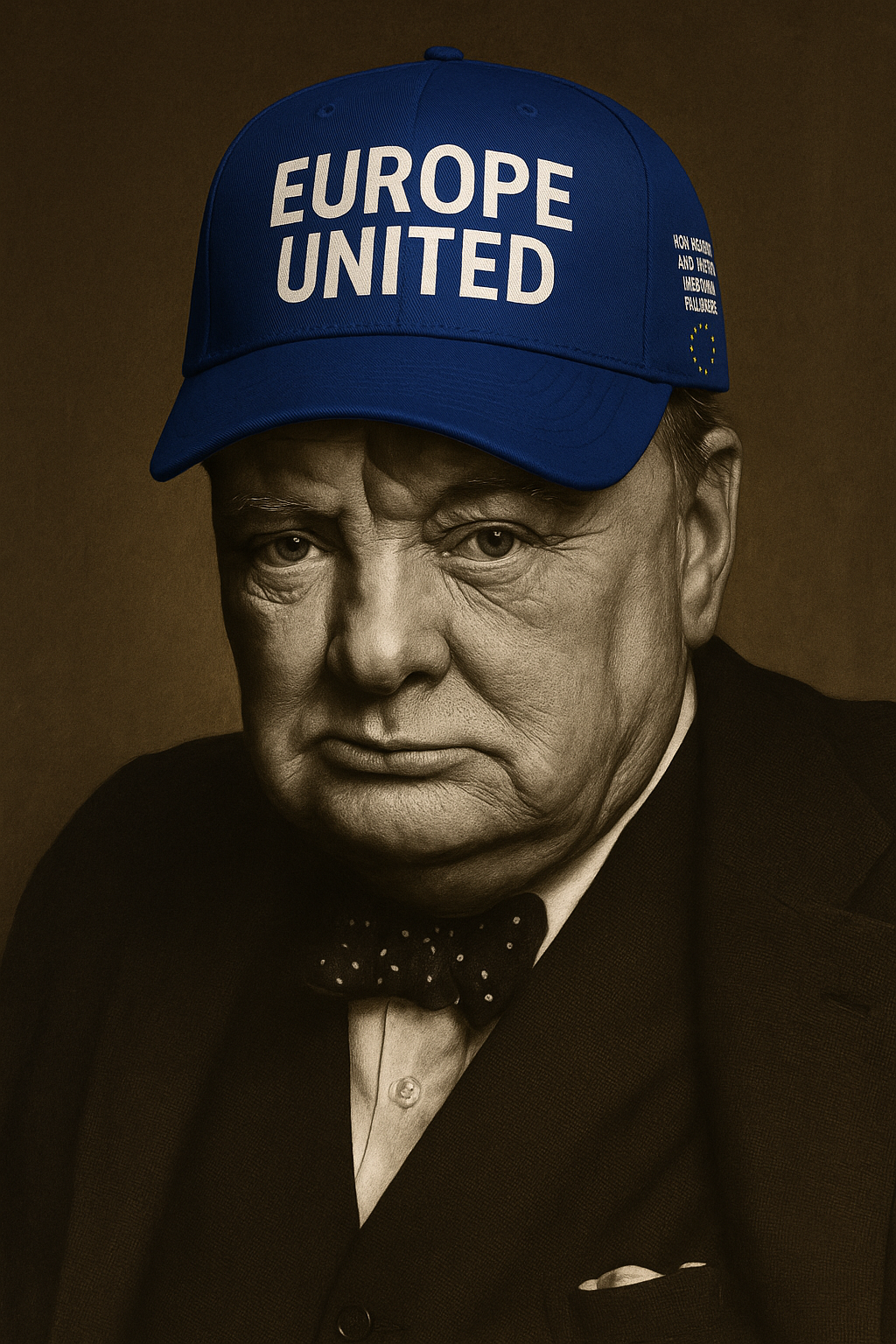

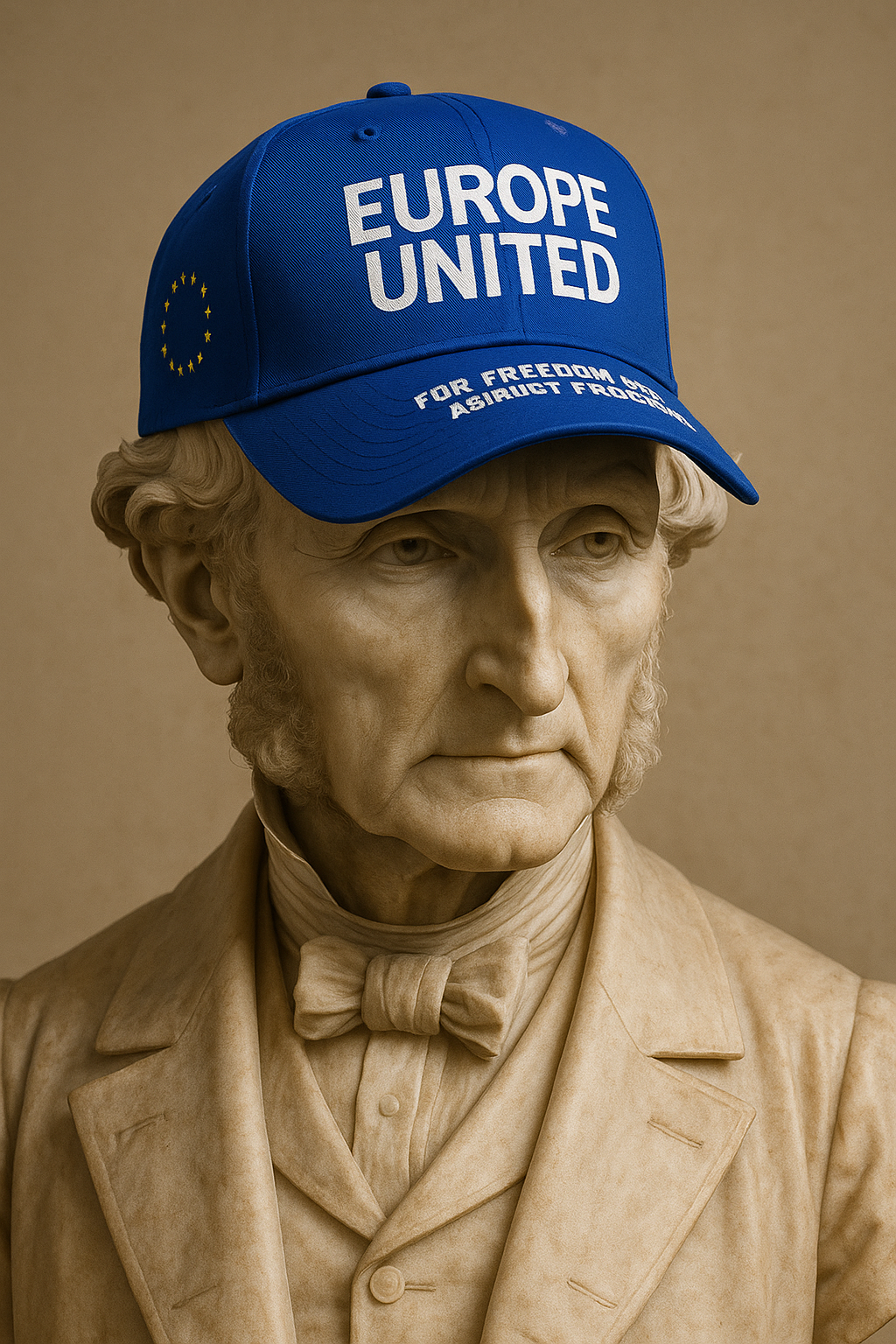
MAY 2025

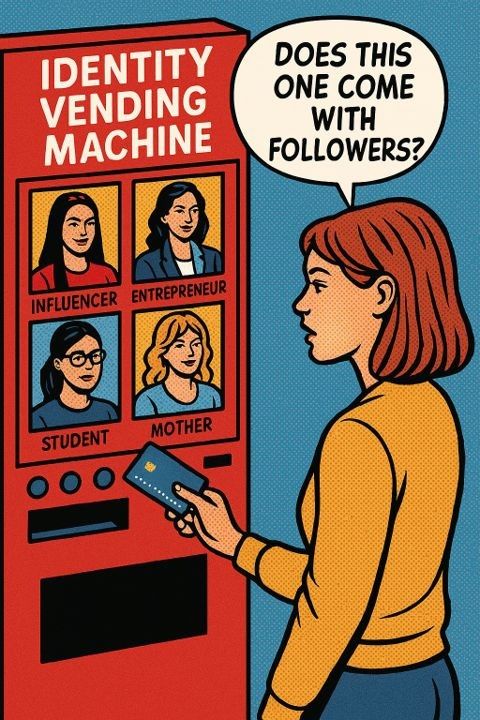

THE TYRANNY OF “NARRATIVES”: How Storytelling Replaced Development
In today’s culture, "narrative" is the new currency of identity. Strategy decks demand a storyboard. Leaders are urged to “own their crucible.” Politicians are coached to deliver “transformational narratives.” Even trauma is expected to be “re-narrated” as catharsis. But this obsession with narrative—while superficially empowering—is symptomatic of a deeper epistemic and moral collapse: the disintegration of personal development.
Historically, from Aristotle’s paideia to Aquinas’s cultivation of virtue to Confucian self-cultivation, moral life was structured around formation—the long, difficult process of shaping the self in relation to truth, the good, and a teleologically ordered cosmos. Formation was not expressive, but transformative. It demanded submission to standards beyond the self: disciplines, exemplars, institutions, and traditions that structured the path toward moral maturity.
Modernity dismantled the metaphysical infrastructure that made such formation intelligible. With nominalism, being lost its intrinsic order. With Descartes, the self was severed from the world, and knowledge internalized as representation. Liberalism privatized the good: ethics became a matter of preference; education, an imposition. Formation came to be seen as coercion, not liberation.
Into this ontological vacuum stepped “narrative.” From Maslow and McAdams to Ricoeur and Taylor, narrative was reimagined as the primary site of meaning-making. In the wake of the linguistic turn, language became constitutive, and the self became a reflexive narrator. Storytelling promised coherence without obligation, authorship without telos.
But this shift came at a cost. Narrative, untethered from truth, often collapses into self-legitimation. It displaces formation with fabrication, virtue with voice, growth with performance. In psychoanalytic terms, the symbolic order is evacuated, and identity becomes a fantasy sustained by repetition and audience validation. In sociological terms, we are left with a therapeutic culture: allergic to authority, hostile to tradition, and obsessed with authenticity.
The problem is not narrative per se. It is narrative in place of moral development. We no longer ask: What is the good life? What kind of person am I called to become? Instead, we ask: What story will get me noticed? What version of myself will maximize my impact
This epistemic pivot is not neutral—it is normative. It reflects a moral metaphysics in which coherence has replaced truth, visibility has displaced integrity, and autonomy is defined by aesthetic control rather than ethical accountability.
It is time to recover formation—not as dogma, but as the architecture of moral becoming. No narrative can save us if we are not becoming the kind of selves capable of bearing its weight.
THE TYRANNY OF “NARRATIVES”: How Storytelling Replaced Development
In today’s culture, "narrative" is the new currency of identity. Strategy decks demand a storyboard. Leaders are urged to “own their crucible.” Politicians are coached to deliver “transformational narratives.” Even trauma is expected to be “re-narrated” as catharsis. But this obsession with narrative—while superficially empowering—is symptomatic of a deeper epistemic and moral collapse: the disintegration of personal development.
Historically, from Aristotle’s paideia to Aquinas’s cultivation of virtue to Confucian self-cultivation, moral life was structured around formation—the long, difficult process of shaping the self in relation to truth, the good, and a teleologically ordered cosmos. Formation was not expressive, but transformative. It demanded submission to standards beyond the self: disciplines, exemplars, institutions, and traditions that structured the path toward moral maturity.
Modernity dismantled the metaphysical infrastructure that made such formation intelligible. With nominalism, being lost its intrinsic order. With Descartes, the self was severed from the world, and knowledge internalized as representation. Liberalism privatized the good: ethics became a matter of preference; education, an imposition. Formation came to be seen as coercion, not liberation.
Into this ontological vacuum stepped “narrative.” From Maslow and McAdams to Ricoeur and Taylor, narrative was reimagined as the primary site of meaning-making. In the wake of the linguistic turn, language became constitutive, and the self became a reflexive narrator. Storytelling promised coherence without obligation, authorship without telos.
But this shift came at a cost. Narrative, untethered from truth, often collapses into self-legitimation. It displaces formation with fabrication, virtue with voice, growth with performance. In psychoanalytic terms, the symbolic order is evacuated, and identity becomes a fantasy sustained by repetition and audience validation. In sociological terms, we are left with a therapeutic culture: allergic to authority, hostile to tradition, and obsessed with authenticity.
The problem is not narrative per se. It is narrative in place of moral development. We no longer ask: What is the good life? What kind of person am I called to become? Instead, we ask: What story will get me noticed? What version of myself will maximize my impact
This epistemic pivot is not neutral—it is normative. It reflects a moral metaphysics in which coherence has replaced truth, visibility has displaced integrity, and autonomy is defined by aesthetic control rather than ethical accountability.
It is time to recover formation—not as dogma, but as the architecture of moral becoming. No narrative can save us if we are not becoming the kind of selves capable of bearing its weight.
MAY 2025

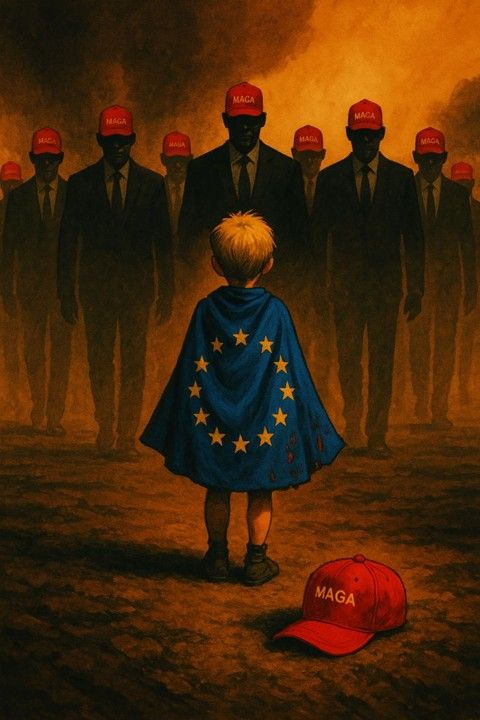

EUROPEANS OF ALL COUNTRIES, UNITE!
Against a Fascist Capture of Global Democracy
Friends of Europe —
a red line is being crossed.
And if we lack the courage to name it now, we may never reclaim the right to redraw it.
This is not a policy debate. Nor a partisan quarrel.
This is the collapse of moral order: a regime that rewards cruelty, glorifies domination, monetises power for private gain—and demands we call it normal.
It is not normal.
A system where billionaires write laws to punish the poor and enrich the elite. Where 390,000 citizens lose healthcare while private jets get tax breaks. Where 68% of cabinet seats are held by CEOs, and zero by labour. Where despots buy loyalty with $400M Boeings or $2B crypto deals. Where judges are threatened, universities silenced, migrants caged, dissent criminalised, and the most vulnerable abandoned.
Not by accident. Not in secret. By deliberate design.
Wake up, Europe. This is 1933—with better branding.
The same hatred. The same lies. The same systematic dismantling of institutions. But now with nuclear arsenals, weaponised social media, and the world’s largest economy.
And this regime is not retreating. It is exporting.
Through trade. Through platforms. Through think tanks. Through pressure on our courts, our CEOs, our civic space. Project 2025 is not just an American blueprint for dismantling democracy- It is an open invitation to global complicity.
And too many are already accepting. Governments appease. Corporations fold. Citizens scroll.
We must remember who we are.
Europe is not a marketplace. It is a moral project. Built not on geography, but on conviction. On core values now under siege:
– Dignity, while Trump calls humans “vermin” and “poison"
– Democracy, while elections are discredited and civil servants purged
– Solidarity, while the sick are stripped of care and the poor scapegoated
– Peace, while arms flow to autocrats and protest meets armed forces
– Pluralism, while minorities are hunted, journalists threatened and truth is twisted into obedience
This is fascism rebranded—algorithmic, aesthetic, and armed with capital.
So what should we do?
As Europeans: Cut moral dependency. End arms deals with tyrants. Expel ambassadors who serve autocracy. Enshrine rights no foreign power can threaten.
As institutions: Stop cloaking cowardice as neutrality. Tax companies that betray our values. Call silence what it is—collusion.
As citizens: Disrupt their networks. Boycott their products. Vote against the populists. Speak loudly where others hedge.
Make them understand:
Europe is not for sale.
Human dignity is not negotiable.
Fascism stops here.
Not next year, when the camps overflow.
Not next decade, when the climate is dead.
Now. Today. This hour.
If we delay—if we negotiate—
we are not neutral. We are next.
Europeans of all countries, unite.
Our children are watching.
Our ancestors are waiting.
History is calling our name.
And this time, it’s personal.
EUROPEANS OF ALL COUNTRIES, UNITE!
Against a Fascist Capture of Global Democracy
Friends of Europe —
a red line is being crossed.
And if we lack the courage to name it now, we may never reclaim the right to redraw it.
This is not a policy debate. Nor a partisan quarrel.
This is the collapse of moral order: a regime that rewards cruelty, glorifies domination, monetises power for private gain—and demands we call it normal.
It is not normal.
A system where billionaires write laws to punish the poor and enrich the elite. Where 390,000 citizens lose healthcare while private jets get tax breaks. Where 68% of cabinet seats are held by CEOs, and zero by labour. Where despots buy loyalty with $400M Boeings or $2B crypto deals. Where judges are threatened, universities silenced, migrants caged, dissent criminalised, and the most vulnerable abandoned.
Not by accident. Not in secret. By deliberate design.
Wake up, Europe. This is 1933—with better branding.
The same hatred. The same lies. The same systematic dismantling of institutions. But now with nuclear arsenals, weaponised social media, and the world’s largest economy.
And this regime is not retreating. It is exporting.
Through trade. Through platforms. Through think tanks. Through pressure on our courts, our CEOs, our civic space. Project 2025 is not just an American blueprint for dismantling democracy- It is an open invitation to global complicity.
And too many are already accepting. Governments appease. Corporations fold. Citizens scroll.
We must remember who we are.
Europe is not a marketplace. It is a moral project. Built not on geography, but on conviction. On core values now under siege:
– Dignity, while Trump calls humans “vermin” and “poison"
– Democracy, while elections are discredited and civil servants purged
– Solidarity, while the sick are stripped of care and the poor scapegoated
– Peace, while arms flow to autocrats and protest meets armed forces
– Pluralism, while minorities are hunted, journalists threatened and truth is twisted into obedience
This is fascism rebranded—algorithmic, aesthetic, and armed with capital.
So what should we do?
As Europeans: Cut moral dependency. End arms deals with tyrants. Expel ambassadors who serve autocracy. Enshrine rights no foreign power can threaten.
As institutions: Stop cloaking cowardice as neutrality. Tax companies that betray our values. Call silence what it is—collusion.
As citizens: Disrupt their networks. Boycott their products. Vote against the populists. Speak loudly where others hedge.
Make them understand:
Europe is not for sale.
Human dignity is not negotiable.
Fascism stops here.
Not next year, when the camps overflow.
Not next decade, when the climate is dead.
Now. Today. This hour.
If we delay—if we negotiate—
we are not neutral. We are next.
Europeans of all countries, unite.
Our children are watching.
Our ancestors are waiting.
History is calling our name.
And this time, it’s personal.
MAY 2025

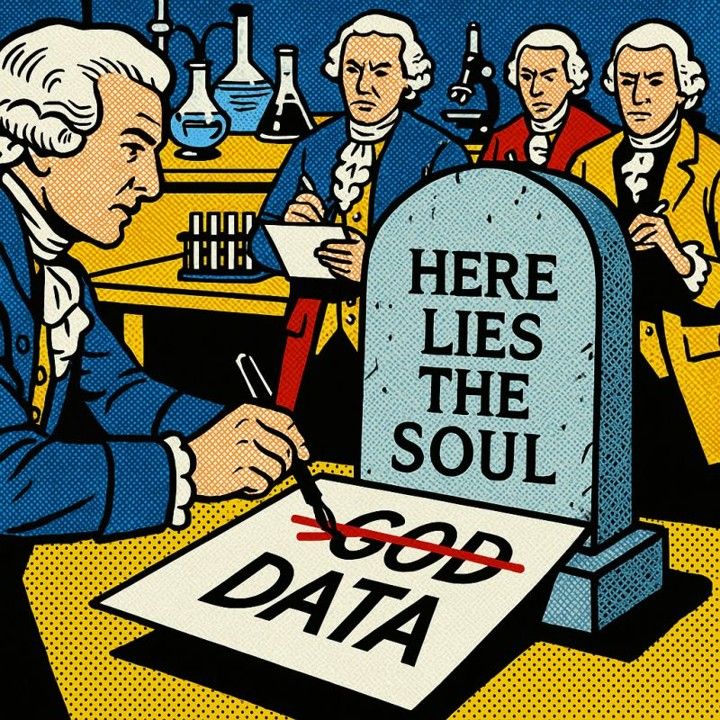

THE HEROIC FAILURE OF THE ENLIGHTENMENT
It all began with noble intentions: a revolt against monarchic absolutism, a rejection of ecclesiastical domination, the embrace of reason over dogma. Enlightenment thinkers sought liberation—from superstition, tyranny, and obscurantism. But in their rebellion against false certainty, they enshrined a new orthodoxy: scientific positivism. What started as a method became an ideology; a tool transformed into a telos.
What they forgot—or refused to admit—is that science does not reveal what reality IS. It tells us what appears under specific, observable conditions. The Enlightenment’s empiricist revolution conflated BEING with knowledge of being, and BECOMING with measuring. It's hypothetico-deductive model flattened existence to what can be quantified, confining truth to the logic of covering laws for conjoint events. The metaphysical foundations of existence—the invisible, the absent, the possible—were exiled from intellectual respectability.
Fearing a return of dogma, Enlightenment heirs turned anti-metaphysics. But in doing so, they made a fateful category error: confusing the abuse of transcendence with its falsity. They dismissed anything that could not be empirically verified—not as uncertain, but as UNREAL. Yet, Kant had acknowledged that the noumenon—the thing-in-itself—lies beyond empirical grasp. Despite this, Enlightenment rationalism soon pretended that what could not be observed did not exist.
This was not skepticism. It was hubris.
The consequences were devastating. By disenchanting the cosmos, we dismembered the human soul. The world became machinery; nature a resource; we became mere functions. Meaning shrank to creativity. Morality collapsed into utility. Purpose dissolved into preference. Human life, once a journey toward the good, became a technocratic optimisation problem. Our only gods were health, pleasure and the accumulation of material goods.
But we made the mistake of presuming that rejecting unjust power structures requires abandoning the search for spirit and transcendence. In fear of universal narratives, we declared subjectivism the only universal truth—defended with the same absolutism once reserved for divine right.
Epistemic humility is not denial of depth. Metaphysics is not mysticism—it's a recognition that reality exceeds beyond appearances. To deny what cannot be seen is not rationalism. It is impoverishment. Fearing control, the Enlightenment decided to control everything. In so doing, it narrowed the human horizon to what could be dissected and dominated.
We now reap what we have sown: a civilisation incapable of wonder, allergic to wisdom, addicted to metrics, and drowning in relativism. It is not God who is dead—it is meaning, coherence, and the shared pursuit of what is good.
The Enlightenment freed us from the past. But it also cut the rope that tied us to deeper truths. Now, suspended in our own arrogance, we no longer know which way is up.
THE HEROIC FAILURE OF THE ENLIGHTENMENT
It all began with noble intentions: a revolt against monarchic absolutism, a rejection of ecclesiastical domination, the embrace of reason over dogma. Enlightenment thinkers sought liberation—from superstition, tyranny, and obscurantism. But in their rebellion against false certainty, they enshrined a new orthodoxy: scientific positivism. What started as a method became an ideology; a tool transformed into a telos.
What they forgot—or refused to admit—is that science does not reveal what reality IS. It tells us what appears under specific, observable conditions. The Enlightenment’s empiricist revolution conflated BEING with knowledge of being, and BECOMING with measuring. It's hypothetico-deductive model flattened existence to what can be quantified, confining truth to the logic of covering laws for conjoint events. The metaphysical foundations of existence—the invisible, the absent, the possible—were exiled from intellectual respectability.
Fearing a return of dogma, Enlightenment heirs turned anti-metaphysics. But in doing so, they made a fateful category error: confusing the abuse of transcendence with its falsity. They dismissed anything that could not be empirically verified—not as uncertain, but as UNREAL. Yet, Kant had acknowledged that the noumenon—the thing-in-itself—lies beyond empirical grasp. Despite this, Enlightenment rationalism soon pretended that what could not be observed did not exist.
This was not skepticism. It was hubris.
The consequences were devastating. By disenchanting the cosmos, we dismembered the human soul. The world became machinery; nature a resource; we became mere functions. Meaning shrank to creativity. Morality collapsed into utility. Purpose dissolved into preference. Human life, once a journey toward the good, became a technocratic optimisation problem. Our only gods were health, pleasure and the accumulation of material goods.
But we made the mistake of presuming that rejecting unjust power structures requires abandoning the search for spirit and transcendence. In fear of universal narratives, we declared subjectivism the only universal truth—defended with the same absolutism once reserved for divine right.
Epistemic humility is not denial of depth. Metaphysics is not mysticism—it's a recognition that reality exceeds beyond appearances. To deny what cannot be seen is not rationalism. It is impoverishment. Fearing control, the Enlightenment decided to control everything. In so doing, it narrowed the human horizon to what could be dissected and dominated.
We now reap what we have sown: a civilisation incapable of wonder, allergic to wisdom, addicted to metrics, and drowning in relativism. It is not God who is dead—it is meaning, coherence, and the shared pursuit of what is good.
The Enlightenment freed us from the past. But it also cut the rope that tied us to deeper truths. Now, suspended in our own arrogance, we no longer know which way is up.
MAY 2025

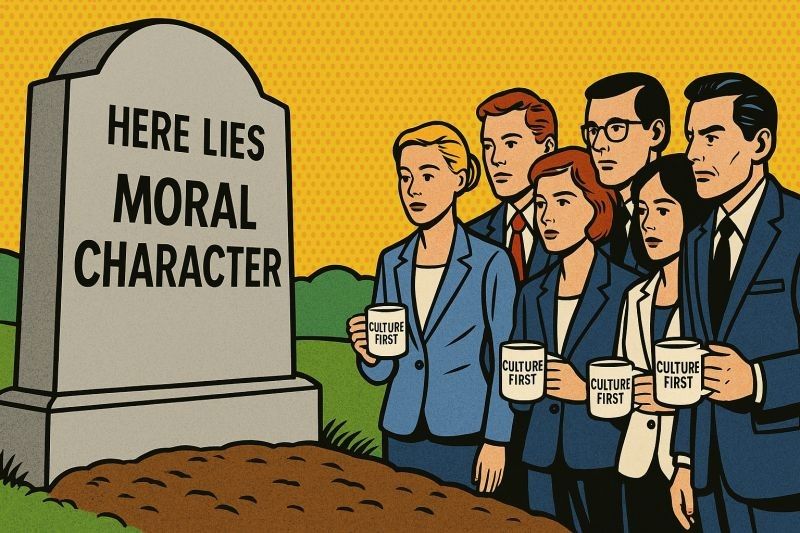

WHEN CULTURE KILLED CHARACTER: A challenge to business and HR leaders who have traded virtue for vibes
We once asked what kind of person an organisation "produces". Now we ask how people feel about it. Welcome to the age of culture—and the death of character.
"Culture" has become the totalising deity of modern organisations: it drives engagement, attracts talent, reduces risk, improves brand perception. It is invoked as the solution to every organisational pathology. Yet beneath corporate value statements lies a profound tragedy: the systematic displacement of organisational character by behavioural engineering.
Our contemporary obsession with culture is not a moral project—it is a psychological system engineered to generate performance, compliance, and affective loyalty without requiring normative clarity or ethical substance. It systematically avoids the arduous work of character formation: confronting contradiction, habituating virtue, or striving toward a common good. Instead, it monitors sentiment, codes behaviour, and outsources meaning to mood.
Organisations no longer ask who are we becoming? but how do we feel while adapting? Where structured apprenticeships once guided wisdom, we find employee engagement metrics. Where moral conflict once forged character, we find value alignment workshops. Where ethical tension once demanded growth, we find performance coaching and "safe spaces" engineered to protect the self from moral demand.
The psychological vernacular of "culture" displaces the philosophical grammar of the good. It substitutes moral commitments with behavioural nudges, practical wisdom with leadership "styles," and systemic responsibility with personal adaptability.
But the self does not develop through protection—it develops through exposure to ambiguity, responsibility, and the weight of ethical contradiction. This is precisely what our institutionalised pop management culture refuses to provide.
* Where character demands cultivation through repeated and reasoned moral action, culture demands emotional allegiance.
* Where character is formed through confronting difficulty, culture is gamified, optimised, and tracked. It asks not who we are becoming, but whether we "fit" a predetermined template.
In this impoverished moral landscape, integrity becomes "authenticity," justice becomes "DEI," and courage becomes "psychological safety." The cardinal virtues are reduced to competency frameworks and value-based performance management. Moral reasoning is replaced by emotional intelligence.
But a "great culture" that fails to cultivate courage, integrity, or justice is not culture at all—it is merely the affective lubricant of managed moral decline.
The question confronting every leader is: Will you continue administering the stultifying opiates of organisational sentiment, or will you have the courage to build institutions worthy of human flourishing?
The choice is yours. The consequences are ours.
WHEN CULTURE KILLED CHARACTER: A challenge to business and HR leaders who have traded virtue for vibes
We once asked what kind of person an organisation "produces". Now we ask how people feel about it. Welcome to the age of culture—and the death of character.
"Culture" has become the totalising deity of modern organisations: it drives engagement, attracts talent, reduces risk, improves brand perception. It is invoked as the solution to every organisational pathology. Yet beneath corporate value statements lies a profound tragedy: the systematic displacement of organisational character by behavioural engineering.
Our contemporary obsession with culture is not a moral project—it is a psychological system engineered to generate performance, compliance, and affective loyalty without requiring normative clarity or ethical substance. It systematically avoids the arduous work of character formation: confronting contradiction, habituating virtue, or striving toward a common good. Instead, it monitors sentiment, codes behaviour, and outsources meaning to mood.
Organisations no longer ask who are we becoming? but how do we feel while adapting? Where structured apprenticeships once guided wisdom, we find employee engagement metrics. Where moral conflict once forged character, we find value alignment workshops. Where ethical tension once demanded growth, we find performance coaching and "safe spaces" engineered to protect the self from moral demand.
The psychological vernacular of "culture" displaces the philosophical grammar of the good. It substitutes moral commitments with behavioural nudges, practical wisdom with leadership "styles," and systemic responsibility with personal adaptability.
But the self does not develop through protection—it develops through exposure to ambiguity, responsibility, and the weight of ethical contradiction. This is precisely what our institutionalised pop management culture refuses to provide.
* Where character demands cultivation through repeated and reasoned moral action, culture demands emotional allegiance.
* Where character is formed through confronting difficulty, culture is gamified, optimised, and tracked. It asks not who we are becoming, but whether we "fit" a predetermined template.
In this impoverished moral landscape, integrity becomes "authenticity," justice becomes "DEI," and courage becomes "psychological safety." The cardinal virtues are reduced to competency frameworks and value-based performance management. Moral reasoning is replaced by emotional intelligence.
But a "great culture" that fails to cultivate courage, integrity, or justice is not culture at all—it is merely the affective lubricant of managed moral decline.
The question confronting every leader is: Will you continue administering the stultifying opiates of organisational sentiment, or will you have the courage to build institutions worthy of human flourishing?
The choice is yours. The consequences are ours.
MAY 2025



NOW AVAILABLE IN LIQUID FORM: HOW MORALITY BECAME A F**KING SOAP
Somewhere between the wellness aisle and the ESG report, morality was liquefied—distilled into pH-neutral sentiment, infused with “organic care,” and dispensed through recyclable plastic. Not as struggle, not as formation, but as ambient reassurance: smooth, dermatologically safe, and completely free of consequence.
Ethics no longer confronts. It caresses. It arrives not as conflict but as conditioning—pre-filtered for consumption. It does not expose the contradictions of the system—it lubricates them. It renders everything a question of feeling—“kindness,” “mindfulness,” “planet love”—while leaving the structures of domination untouched.
This is not the moralisation of capitalism. It is capitalism’s final moral operation: the absorption of critique into affect, of ethics into symbol. What once required a confrontation with desire, power, and sacrifice is now a styling choice—ethics as interface. The good becomes a vector of design language.
This isn’t hypocrisy. It’s hegemonic integration. The role of the moral has shifted from normative orientation to libidinal management. Desire for justice, conflict, and transformation has been sublimated—pacified into daily rituals of virtue display: the curated workplace value, the gender-neutral packaging, the biometric tracking of employee “belonging.”
But critique is not absent. It has simply been aestheticised. Every institution now performs care. Every product now signifies conscience. Every policy expresses sensitivity. Yet nothing material is confronted—only rendered more washable.
What we are witnessing is not moral apathy. It is post-ethical simulation: a regime in which moral language circulates detached from moral substance, where institutions choreograph sensitivity while intensifying extraction, and where the performance of goodness becomes a governance mechanism in itself.
This is not parody.
This is a perfected system.
Goodness—now in soothing, odourless form—ready to be dispensed on demand.
It leaves no trace.
And that, precisely, is the point.
NOW AVAILABLE IN LIQUID FORM: HOW MORALITY BECAME A F**KING SOAP
Somewhere between the wellness aisle and the ESG report, morality was liquefied—distilled into pH-neutral sentiment, infused with “organic care,” and dispensed through recyclable plastic. Not as struggle, not as formation, but as ambient reassurance: smooth, dermatologically safe, and completely free of consequence.
Ethics no longer confronts. It caresses. It arrives not as conflict but as conditioning—pre-filtered for consumption. It does not expose the contradictions of the system—it lubricates them. It renders everything a question of feeling—“kindness,” “mindfulness,” “planet love”—while leaving the structures of domination untouched.
This is not the moralisation of capitalism. It is capitalism’s final moral operation: the absorption of critique into affect, of ethics into symbol. What once required a confrontation with desire, power, and sacrifice is now a styling choice—ethics as interface. The good becomes a vector of design language.
This isn’t hypocrisy. It’s hegemonic integration. The role of the moral has shifted from normative orientation to libidinal management. Desire for justice, conflict, and transformation has been sublimated—pacified into daily rituals of virtue display: the curated workplace value, the gender-neutral packaging, the biometric tracking of employee “belonging.”
But critique is not absent. It has simply been aestheticised. Every institution now performs care. Every product now signifies conscience. Every policy expresses sensitivity. Yet nothing material is confronted—only rendered more washable.
What we are witnessing is not moral apathy. It is post-ethical simulation: a regime in which moral language circulates detached from moral substance, where institutions choreograph sensitivity while intensifying extraction, and where the performance of goodness becomes a governance mechanism in itself.
This is not parody.
This is a perfected system.
Goodness—now in soothing, odourless form—ready to be dispensed on demand.
It leaves no trace.
And that, precisely, is the point.
MAY 2025

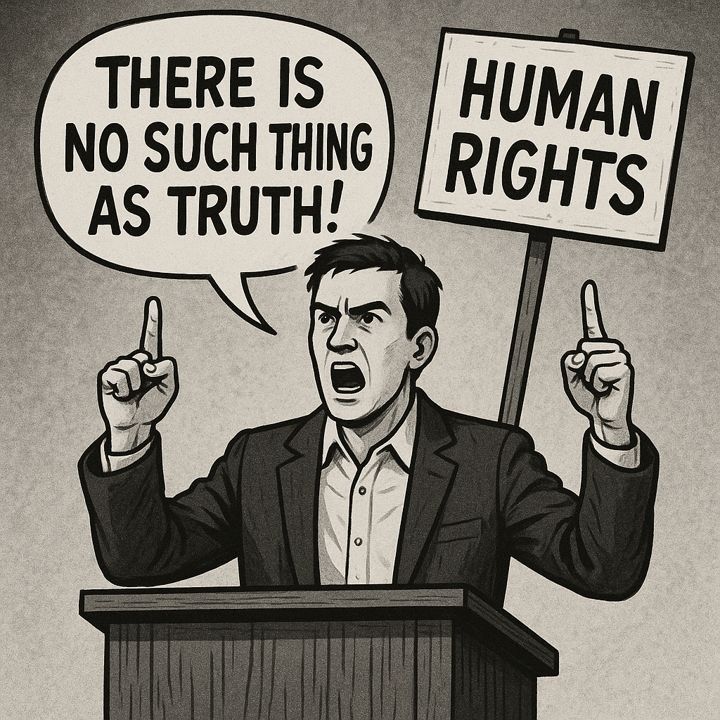

THE POSTMODERN IRONY: How We Deny Universal Truths While Demanding Universal Rights
Today’s moral discourse is riddled with paradox: we constantly denounce universal truth as oppressive and violent, while at the same time asserting our own "human rights" with quasi-religious fervour.
But where do people think these “rights” come from?
The modern concept of rights evolved from a rich lineage—rooted in so-called natural law, transfigured through "natural rights", and secularised into the contemporary language of "human rights".
* Aquinas grounded natural law in a divine teleology: human beings, by reason, participate in the eternal law, oriented toward the good. Rights were not entitlements but reflections of our duties to the moral order and God—always relational, always bounded by virtue.
* This changed radically with the rise of early modern liberalism. Hobbes severed law from teleology; Locke, more cautiously, reframed rights as God-given attributes of individuals, preceding and limiting the power of the state.
* Here begins the transformation of ius (right order) into "claim-rights"—legalistic, self-owned, and defensible against others. By the time of J.S. Mill, rights are expressions of individual autonomy, safeguarded by utility, no longer by nature or divinity.
The sacred had been immanentised: reason replaces revelation, liberty replaces virtue, and subjective will begins its slow conquest of the moral landscape.
And yet, here lies the ironic contradiction. The modern subject insists that “values are relative,” that “everyone has their own truth”—yet invokes universal human rights to defend identity, expression, and dignity.
But what, if not a shared moral ontology, grounds and legitimises such rights? Without an account of human nature, of what it means to flourish, rights become incoherent: abstract powers severed from responsibility or the good. Worse, they become weapons of will—a hollow echo of the divine, deployed in a moral vacuum.
We are thus haunted by a ghost: the universalism we deny is the very scaffold of the freedoms we demand. As Lacan implies, there is no freedom without order. There is no right without responsibility.
Rights are nothing but a "legal fiction". To reclaim meaning, we must return to the question liberalism has so eagerly obscured: not what are my rights? but what is right? Not who decides what good is? but what IS good for us, together?
Rights without a vision of the good are mere subjective political assertions of power dressed in moral grammar - whether it is rights for humans, animals, or rivers.
THE POSTMODERN IRONY: How We Deny Universal Truths While Demanding Universal Rights
Today’s moral discourse is riddled with paradox: we constantly denounce universal truth as oppressive and violent, while at the same time asserting our own "human rights" with quasi-religious fervour.
But where do people think these “rights” come from?
The modern concept of rights evolved from a rich lineage—rooted in so-called natural law, transfigured through "natural rights", and secularised into the contemporary language of "human rights".
* Aquinas grounded natural law in a divine teleology: human beings, by reason, participate in the eternal law, oriented toward the good. Rights were not entitlements but reflections of our duties to the moral order and God—always relational, always bounded by virtue.
* This changed radically with the rise of early modern liberalism. Hobbes severed law from teleology; Locke, more cautiously, reframed rights as God-given attributes of individuals, preceding and limiting the power of the state.
* Here begins the transformation of ius (right order) into "claim-rights"—legalistic, self-owned, and defensible against others. By the time of J.S. Mill, rights are expressions of individual autonomy, safeguarded by utility, no longer by nature or divinity.
The sacred had been immanentised: reason replaces revelation, liberty replaces virtue, and subjective will begins its slow conquest of the moral landscape.
And yet, here lies the ironic contradiction. The modern subject insists that “values are relative,” that “everyone has their own truth”—yet invokes universal human rights to defend identity, expression, and dignity.
But what, if not a shared moral ontology, grounds and legitimises such rights? Without an account of human nature, of what it means to flourish, rights become incoherent: abstract powers severed from responsibility or the good. Worse, they become weapons of will—a hollow echo of the divine, deployed in a moral vacuum.
We are thus haunted by a ghost: the universalism we deny is the very scaffold of the freedoms we demand. As Lacan implies, there is no freedom without order. There is no right without responsibility.
Rights are nothing but a "legal fiction". To reclaim meaning, we must return to the question liberalism has so eagerly obscured: not what are my rights? but what is right? Not who decides what good is? but what IS good for us, together?
Rights without a vision of the good are mere subjective political assertions of power dressed in moral grammar - whether it is rights for humans, animals, or rivers.
MAY 2025

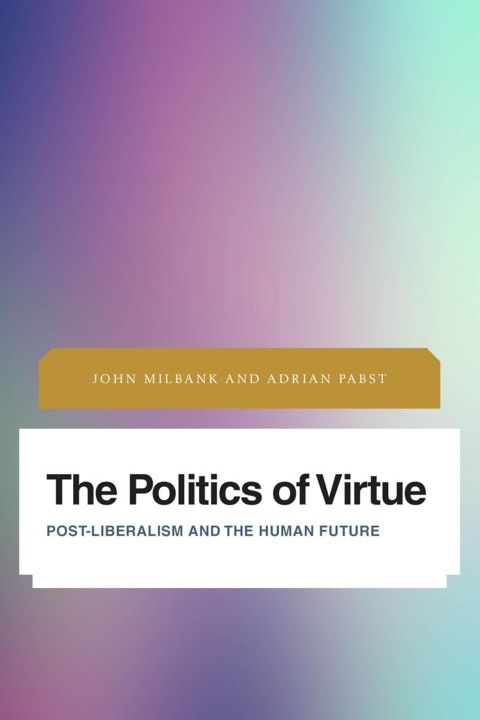

THE POLITICS OF VIRTUE—The Most Important Book I Read This Year
Adrian Pabst’s The Politics of Virtue is not just the most intellectually ambitious political work of its decade; it is also a dangerous book—because it dares to think seriously. Against the proceduralist deadness of liberalism, and the secularised managerialism of our age, Adrian revives a metaphysical, theological, and virtue-ethical politics that seeks neither to return to tradition as mere nostalgia, nor to modernity as empty abstraction—but to move beyond liberalism altogether.
At its core, the book offers a brilliant indictment of liberal modernity, through five metacrises. Liberalism, Adrian argues, is not just flawed but parasitic—feeding off and hollowing out the Greco-Christian heritage it claims to refine. Its anthropology is Hobbesian, its ethics contractualist, its metaphysics nominalist. What begins as emancipation ends in abstraction and disintegration—of persons, traditions, and social bonds.
The book dissects how cultural and economic liberalism—once seen as opposed—have converged into a shared logic of commodification, proceduralism, and managerial control. Liberalism’s core commitment to negative liberty and individual choice has led to unprecedented concentration of power and wealth, while eviscerating institutions of reciprocity. The result: technocracy, moral infantilisation, and economic dispossession.
Against this, Adrian proposes a politics grounded in virtue, reciprocity, and the common good. Drawing on Aristotle, Augustine, and Catholic social teaching, he envisions a renewal of mixed constitutions, mutualist economics, and cultural formation. Virtue, here, is not moralism but realism: a recognition that human flourishing requires embeddedness, purpose, and formation. Society is not a contract between atomised wills, but a community of practices aimed at shared ends.
Crucially, the book challenges liberalism not just politically, but metaphysically. It argues that liberal reason abstracts from reality—reducing the ethical to the legal, and the social to the economic. Postliberalism, by contrast, insists on the primacy of practical wisdom, moral formation, and ontological participation. It seeks to reunite freedom with truth, and governance with goodness.
Some critics might find its theological underpinnings too monistic, or its institutional alternatives underdeveloped. But these concerns miss the book’s essential wager: that modern crises are rooted not in political excess, but in metaphysical emptiness—and only a recovered vision of the good can sustain genuine liberty and justice.
It is a rare achievement to write a work that is simultaneously a theological treatise, a political manifesto, and a philosophical anthropology. Adrian has done so. Whether one agrees or not, the book cannot be ignored. It reopens the question at the heart of politics—What is the Good?—and insists that our future depends on how we answer it.
THE POLITICS OF VIRTUE—The Most Important Book I Read This Year
Adrian Pabst’s The Politics of Virtue is not just the most intellectually ambitious political work of its decade; it is also a dangerous book—because it dares to think seriously. Against the proceduralist deadness of liberalism, and the secularised managerialism of our age, Adrian revives a metaphysical, theological, and virtue-ethical politics that seeks neither to return to tradition as mere nostalgia, nor to modernity as empty abstraction—but to move beyond liberalism altogether.
At its core, the book offers a brilliant indictment of liberal modernity, through five metacrises. Liberalism, Adrian argues, is not just flawed but parasitic—feeding off and hollowing out the Greco-Christian heritage it claims to refine. Its anthropology is Hobbesian, its ethics contractualist, its metaphysics nominalist. What begins as emancipation ends in abstraction and disintegration—of persons, traditions, and social bonds.
The book dissects how cultural and economic liberalism—once seen as opposed—have converged into a shared logic of commodification, proceduralism, and managerial control. Liberalism’s core commitment to negative liberty and individual choice has led to unprecedented concentration of power and wealth, while eviscerating institutions of reciprocity. The result: technocracy, moral infantilisation, and economic dispossession.
Against this, Adrian proposes a politics grounded in virtue, reciprocity, and the common good. Drawing on Aristotle, Augustine, and Catholic social teaching, he envisions a renewal of mixed constitutions, mutualist economics, and cultural formation. Virtue, here, is not moralism but realism: a recognition that human flourishing requires embeddedness, purpose, and formation. Society is not a contract between atomised wills, but a community of practices aimed at shared ends.
Crucially, the book challenges liberalism not just politically, but metaphysically. It argues that liberal reason abstracts from reality—reducing the ethical to the legal, and the social to the economic. Postliberalism, by contrast, insists on the primacy of practical wisdom, moral formation, and ontological participation. It seeks to reunite freedom with truth, and governance with goodness.
Some critics might find its theological underpinnings too monistic, or its institutional alternatives underdeveloped. But these concerns miss the book’s essential wager: that modern crises are rooted not in political excess, but in metaphysical emptiness—and only a recovered vision of the good can sustain genuine liberty and justice.
It is a rare achievement to write a work that is simultaneously a theological treatise, a political manifesto, and a philosophical anthropology. Adrian has done so. Whether one agrees or not, the book cannot be ignored. It reopens the question at the heart of politics—What is the Good?—and insists that our future depends on how we answer it.
MAY 2025

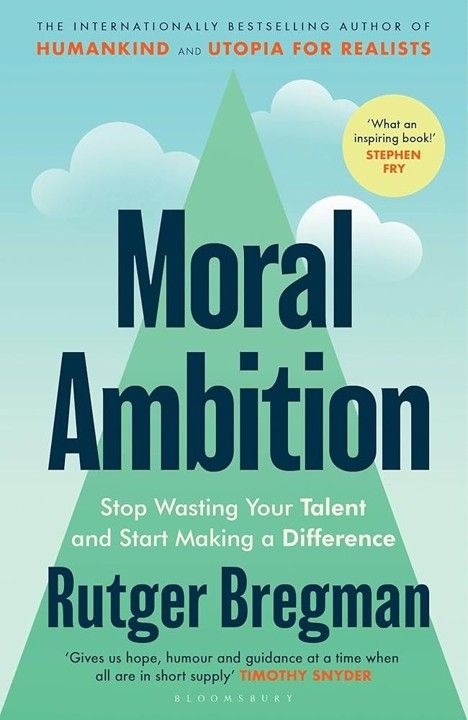

MORAL AMBITION OR MORAL ILLUSION? An Initial Philosophical Critique
Rutger Bregman's brilliant call for Moral Ambition—that the privileged must reorient their careers toward moral ends—burns with rhetorical fire. But when viewed through a philosophical lens, beneath the surface of (carefully redacted) stirring stories and sharp polemics lies less a well-grounded moral theory, and more a motivational ideology: repackaged utilitarianism wrapped in ambition and aspirational prose.
At its core, Moral Ambition urges us to choose careers for their calculated leverage on global suffering, maximising impact. This is not inherently wrong—but it is ethically narrow. By focusing on what we do rather than who we become, it treats moral life as a performance rather than a practice. Ethics becomes a leaderboard. Solidarity, a career path.
This isn't wisdom. It's liberal efficient altruism- quantified, repackaged, and uploaded into self-help templates for elite graduates, TED Talk audiences, and frustrated consultants. As Bourdieu warned, "agency" without structural critique becomes a myth of the dominant class. It is the gospel of good intentions, this time qualified in Excel Spreadsheets. Moral ambition becomes the latest status symbol: "good billionaires" and business-class flying superheroes solving poverty between keynotes.
The deeper problem is ontological. Moral Ambition presumes that the self is free, capable, detached—able to choose the good from a buffet of options. But the self is not a chooser outside the system. It is formed within it. True moral life is not an ambition "out there" but a transformation within, shaped by community, constraint, tradition, and struggle. Wisdom is never maximized—it is cultivated.
Rutger gestures toward virtue ethics, but without a telos. There is no account of the good life, no grounding in relational goods, no theory of justice. The result is a thin moral grammar: motivational, but fragile. Its consequentialism lacks tragedy; its optimism lacks realism; its agency lacks formation.
And yet, we should not dismiss it. Moral ambition, for all its philosophical limitations, can spark movement. It may nudge those numbed by cynicism toward moral action. It might even help restore language for goodness in the public square.
But this does not make it a sufficient ethics. If moral ambition becomes an end in itself, it remains a motivational surface, not a moral depth. Only if it serves as a means—an invitation into the long work of wisdom—might it become something more: a doorway to character, to self-in-system transformation, to institutions that nurture moral agency.
The real question is not how much impact we can make—but what kind of people we must become to act wisely within a world on fire.
Until we ask that, Moral Ambition remains what it is: a secular sermon. Stirring, necessary, and seriously incomplete.
Link to excellent discussion with >250 comments: https://www.linkedin.com/posts/ottivogt_leadership-transformation-activity-7331236076113625090-TClR?utm_source=share&utm_medium=member_desktop&rcm=ACoAAABm1WMBiwxFaUc1X66gje88odJOEyNAskc
MORAL AMBITION OR MORAL ILLUSION? An Initial Philosophical Critique
Rutger Bregman's brilliant call for Moral Ambition—that the privileged must reorient their careers toward moral ends—burns with rhetorical fire. But when viewed through a philosophical lens, beneath the surface of (carefully redacted) stirring stories and sharp polemics lies less a well-grounded moral theory, and more a motivational ideology: repackaged utilitarianism wrapped in ambition and aspirational prose.
At its core, Moral Ambition urges us to choose careers for their calculated leverage on global suffering, maximising impact. This is not inherently wrong—but it is ethically narrow. By focusing on what we do rather than who we become, it treats moral life as a performance rather than a practice. Ethics becomes a leaderboard. Solidarity, a career path.
This isn't wisdom. It's liberal efficient altruism- quantified, repackaged, and uploaded into self-help templates for elite graduates, TED Talk audiences, and frustrated consultants. As Bourdieu warned, "agency" without structural critique becomes a myth of the dominant class. It is the gospel of good intentions, this time qualified in Excel Spreadsheets. Moral ambition becomes the latest status symbol: "good billionaires" and business-class flying superheroes solving poverty between keynotes.
The deeper problem is ontological. Moral Ambition presumes that the self is free, capable, detached—able to choose the good from a buffet of options. But the self is not a chooser outside the system. It is formed within it. True moral life is not an ambition "out there" but a transformation within, shaped by community, constraint, tradition, and struggle. Wisdom is never maximized—it is cultivated.
Rutger gestures toward virtue ethics, but without a telos. There is no account of the good life, no grounding in relational goods, no theory of justice. The result is a thin moral grammar: motivational, but fragile. Its consequentialism lacks tragedy; its optimism lacks realism; its agency lacks formation.
And yet, we should not dismiss it. Moral ambition, for all its philosophical limitations, can spark movement. It may nudge those numbed by cynicism toward moral action. It might even help restore language for goodness in the public square.
But this does not make it a sufficient ethics. If moral ambition becomes an end in itself, it remains a motivational surface, not a moral depth. Only if it serves as a means—an invitation into the long work of wisdom—might it become something more: a doorway to character, to self-in-system transformation, to institutions that nurture moral agency.
The real question is not how much impact we can make—but what kind of people we must become to act wisely within a world on fire.
Until we ask that, Moral Ambition remains what it is: a secular sermon. Stirring, necessary, and seriously incomplete.
Link to excellent discussion with >250 comments: https://www.linkedin.com/posts/ottivogt_leadership-transformation-activity-7331236076113625090-TClR?utm_source=share&utm_medium=member_desktop&rcm=ACoAAABm1WMBiwxFaUc1X66gje88odJOEyNAskc
MAY 2025

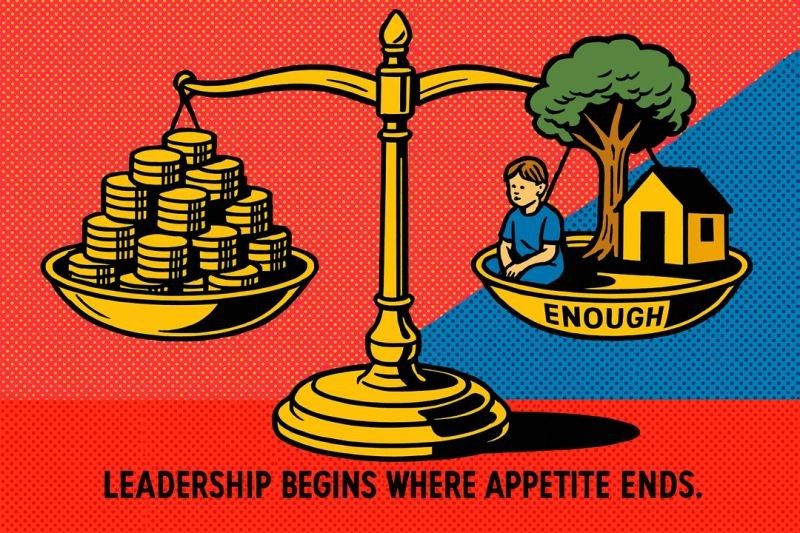

THE ONE QUESTION EVERY TRUE LEADER MUST ASK: HOW MUCH IS ENOUGH?
They won't teach you this at Harvard Business School.
We celebrate innovation. We glorify creativity. We obsess over "unleashing potential." But beneath the TED Talk platitudes and Silicon Valley manifestos lies the question that exposes our entire house of cards:
How. Much. Is. Enough?
It is not just an uncomfortable question. It is heresy. Because it shatters the sacred assumption of modern capitalism: That more is always better. That growth is always good. That success is measured in scale, speed, and share price.
But when we stop asking this question, we stop seeing the cost:
– The rainforests burned to produce our next steak
– The children mining cobalt for our next gadget
– The warehouse slaves wearing tracking bracelets
– The families priced out of housing by financial speculation
– The public goods, swallowed by private gain
Let's be honest: We've mistaken capability for character. Velocity for value. Ambition for wisdom.
Another "smarter" cigarette doesn't make the world healthier.
Another $120,000 SUV, glorified in chrome and carbon, doesn't save our climate.
Another AI-generated flood of content does not make us wiser.
Not all innovation is progress. Not all disruption is virtuous.
Real leadership begins where appetite ends.
The leaders who will shape the future are not asking, "How fast can we grow?"
They're asking: what is
Enough profit to sustain—without extraction.
Enough consumption to dignify—without indulgence.
Enough ambition to inspire—without conquest.
Enough growth to regenerate—without depletion.
The most radical transformation in business today is not agile disruption.
It is to draw the line.
To say: "This far. No further."
And to mean it.
THE ONE QUESTION EVERY TRUE LEADER MUST ASK: HOW MUCH IS ENOUGH?
They won't teach you this at Harvard Business School.
We celebrate innovation. We glorify creativity. We obsess over "unleashing potential." But beneath the TED Talk platitudes and Silicon Valley manifestos lies the question that exposes our entire house of cards:
How. Much. Is. Enough?
It is not just an uncomfortable question. It is heresy. Because it shatters the sacred assumption of modern capitalism: That more is always better. That growth is always good. That success is measured in scale, speed, and share price.
But when we stop asking this question, we stop seeing the cost:
– The rainforests burned to produce our next steak
– The children mining cobalt for our next gadget
– The warehouse slaves wearing tracking bracelets
– The families priced out of housing by financial speculation
– The public goods, swallowed by private gain
Let's be honest: We've mistaken capability for character. Velocity for value. Ambition for wisdom.
Another "smarter" cigarette doesn't make the world healthier.
Another $120,000 SUV, glorified in chrome and carbon, doesn't save our climate.
Another AI-generated flood of content does not make us wiser.
Not all innovation is progress. Not all disruption is virtuous.
Real leadership begins where appetite ends.
The leaders who will shape the future are not asking, "How fast can we grow?"
They're asking: what is
Enough profit to sustain—without extraction.
Enough consumption to dignify—without indulgence.
Enough ambition to inspire—without conquest.
Enough growth to regenerate—without depletion.
The most radical transformation in business today is not agile disruption.
It is to draw the line.
To say: "This far. No further."
And to mean it.
MAY 2025

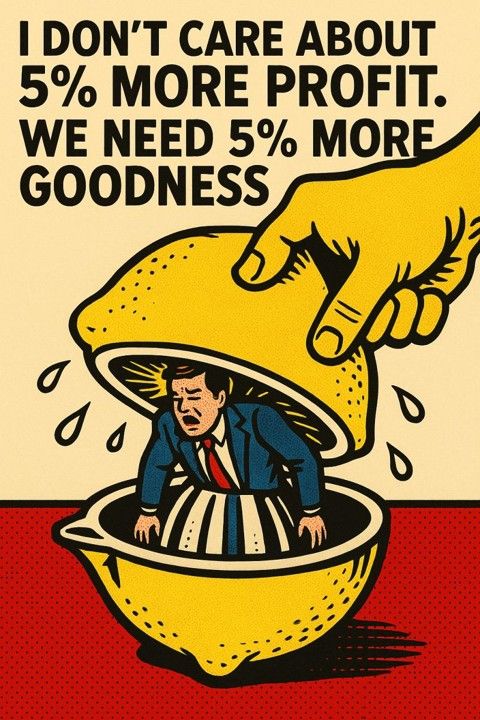

I DON’T WANT 5% MORE PROFIT!
I swear—if I see one more radiant PowerPoint slide by some well-groomed consultant promising an additional $5 billion in “shareholder value” by firing 20% of the workforce and boosting “return per capita” through a pseudo-scientific cocktail of performance metrics, "psychological safety", AI dashboards, and neuro-nudging—I will vomit.
This is not transformation. It is predation with better branding.
We have created an industry—no, a cathedral—dedicated to extracting the life-force of our people. Not to liberate human potential. Not to dignify work. But to refine ever more elegant tools for squeezing a bit more juice, a bit more yield, a bit more profit... for the owners, financiers, and algorithmic gods who sit above the system. This is not innovation. It is extraction with a moral alibi.
We gather in glitzy conference halls and parade our agile frameworks like high priests of progress—each new method more shameless than the last. And still, no one seems to ask the only question that matters: To what end?
It’s not about "cutting fat.” The real obscenity is how easily we destroy the dignity of human life in the name of “efficiency.” We’ve built empires of incentive schemes, feedback loops, and behavioural economics to instrumentalise the human soul. And we call it excellence.
Let me be clear: the system is not broken. The system is functioning exactly as it was built—to colonise meaning, reduce people to resources, and convert every act of living into monetisable surplus.
We debate endlessly how to reduce burnout—but rarely ask what is worth doing in the first place. We celebrate “net-zero” targets while staying infinitely far from positive purpose. We parade token gestures of diversity—unless of course Trump sends us a letter. We obsess over “market failures” without ever daring to ask where markets should end.
But here’s the truth: you cannot morally optimise a pathological design.
The problem is not bad execution. The problem is the moral emptiness of our contemporary management paradigm itself. It is an ethical failure—a framework in which value is confused with price, growth with good, and freedom with maximised choice.
We need a new theory.
Not rooted in marginal returns, but moral worth.
We need organisations that forge character, not just careers.
Where dignity isn’t negotiated—it’s presumed.
Where work isn’t a race for bonus
but a serious path to becoming fully human.
We want markets that serve life—
not rule it.
It is time to look into the mirror. And to finally take the world—and each other—seriously.
Until then, every slide deck, every quarterly earnings call, every consultancy roadmap—no matter how “purpose-driven” it claims to be—will remain what it is: a technocratic veil over moral cowardice.
Let me be clear:
I don't care about 5% more profit.
What we need—what the world is starving for—is 5% more goodness.
And if that doesn’t move you, don’t waste my time.
I DON’T WANT 5% MORE PROFIT!
I swear—if I see one more radiant PowerPoint slide by some well-groomed consultant promising an additional $5 billion in “shareholder value” by firing 20% of the workforce and boosting “return per capita” through a pseudo-scientific cocktail of performance metrics, "psychological safety", AI dashboards, and neuro-nudging—I will vomit.
This is not transformation. It is predation with better branding.
We have created an industry—no, a cathedral—dedicated to extracting the life-force of our people. Not to liberate human potential. Not to dignify work. But to refine ever more elegant tools for squeezing a bit more juice, a bit more yield, a bit more profit... for the owners, financiers, and algorithmic gods who sit above the system. This is not innovation. It is extraction with a moral alibi.
We gather in glitzy conference halls and parade our agile frameworks like high priests of progress—each new method more shameless than the last. And still, no one seems to ask the only question that matters: To what end?
It’s not about "cutting fat.” The real obscenity is how easily we destroy the dignity of human life in the name of “efficiency.” We’ve built empires of incentive schemes, feedback loops, and behavioural economics to instrumentalise the human soul. And we call it excellence.
Let me be clear: the system is not broken. The system is functioning exactly as it was built—to colonise meaning, reduce people to resources, and convert every act of living into monetisable surplus.
We debate endlessly how to reduce burnout—but rarely ask what is worth doing in the first place. We celebrate “net-zero” targets while staying infinitely far from positive purpose. We parade token gestures of diversity—unless of course Trump sends us a letter. We obsess over “market failures” without ever daring to ask where markets should end.
But here’s the truth: you cannot morally optimise a pathological design.
The problem is not bad execution. The problem is the moral emptiness of our contemporary management paradigm itself. It is an ethical failure—a framework in which value is confused with price, growth with good, and freedom with maximised choice.
We need a new theory.
Not rooted in marginal returns, but moral worth.
We need organisations that forge character, not just careers.
Where dignity isn’t negotiated—it’s presumed.
Where work isn’t a race for bonus
but a serious path to becoming fully human.
We want markets that serve life—
not rule it.
It is time to look into the mirror. And to finally take the world—and each other—seriously.
Until then, every slide deck, every quarterly earnings call, every consultancy roadmap—no matter how “purpose-driven” it claims to be—will remain what it is: a technocratic veil over moral cowardice.
Let me be clear:
I don't care about 5% more profit.
What we need—what the world is starving for—is 5% more goodness.
And if that doesn’t move you, don’t waste my time.
MAY 2025



BLOOD ON OUR HANDS: EUROPE'S COMPLICITY IN GAZA'S DESTRUCTION
In Gaza, where over 53,000 Palestinians have perished since 2008, a grotesque paradox unfolds: Europe's post-Holocaust commitment to "never again" has become the very shield behind which another catastrophe proceeds with impunity. The humanitarian crisis has reached apocalyptic proportions, yet Western powers continue to provide diplomatic cover - and weapons - for Israel's actions.
52,535 Palestinians were killed in the 2023-2025 offensive, 70% women and children. Israeli forces have dropped 85,000 tonnes of explosives—equivalent to 3.5 Hiroshima bombs—creating 42 million tonnes of rubble across Gaza. These are not mere statistics but evidence of systematic destruction targeting civilian infrastructure.
The human toll: 4500 amputations without anesthesia, 17,000 children orphaned, and 500 Palestinian families exterminated. Meanwhile, 93% of Gaza households face severe food insecurity, with 27 children starved to death in a territory where water access averages just 73 liters per day—below WHO's minimum standard. Medical facilities lie in ruins, with doctors forced to perform surgeries on floor tiles slick with blood.
Despite the ICJ declaring Israel's occupation illegal and ordering a halt to Rafah operations, despite ICC arrest warrants for Netanyahu for war crimes, despite the UN Human Rights Council's apartheid designation—accountability remains elusive.
Much of this impunity stems from Europe's philosemitic stance that emerged as a form of moral rehabilitation after the Holocaust. European nations, often with good intentions, embraced a symbolic "good" Jewish identity to atone for their genocidal past and compensate for historical guilt. This historical positioning has hardened into geopolitical reality, ultimately shielding Israel from criticism and enabling it to operate outside the boundaries of international law.
Western media reveals this systematic bias: Palestinian deaths described as "collateral damage" 11 times more frequently than Israeli casualties; Israeli perspectives outnumbering Palestinian ones 3:1 in broadcasts. Leaders like von der Leyen praise Israel as a "vibrant democracy" while averting their gaze from the ruins of Gaza's hospitals and schools.
The path forward requires decoupling Holocaust memory from uncritical support for Israel. We must reject the false equation of state criticism with antisemitism. The children of Gaza deserve the same protections and humanitarian considerations as children anywhere—their lives are not worth less because of geopolitical calculations.
As 1.9 million Gazans remain displaced and 98% of Gaza's children exhibit PTSD symptoms, the international community faces a choice: continue enabling catastrophe through strategic silence, or finally honor "never again" as a truly universal principle..
The blood of Gaza's innocents now stains the hands of those who could intervene but deliberately choose to look away.
BLOOD ON OUR HANDS: EUROPE'S COMPLICITY IN GAZA'S DESTRUCTION
In Gaza, where over 53,000 Palestinians have perished since 2008, a grotesque paradox unfolds: Europe's post-Holocaust commitment to "never again" has become the very shield behind which another catastrophe proceeds with impunity. The humanitarian crisis has reached apocalyptic proportions, yet Western powers continue to provide diplomatic cover - and weapons - for Israel's actions.
52,535 Palestinians were killed in the 2023-2025 offensive, 70% women and children. Israeli forces have dropped 85,000 tonnes of explosives—equivalent to 3.5 Hiroshima bombs—creating 42 million tonnes of rubble across Gaza. These are not mere statistics but evidence of systematic destruction targeting civilian infrastructure.
The human toll: 4500 amputations without anesthesia, 17,000 children orphaned, and 500 Palestinian families exterminated. Meanwhile, 93% of Gaza households face severe food insecurity, with 27 children starved to death in a territory where water access averages just 73 liters per day—below WHO's minimum standard. Medical facilities lie in ruins, with doctors forced to perform surgeries on floor tiles slick with blood.
Despite the ICJ declaring Israel's occupation illegal and ordering a halt to Rafah operations, despite ICC arrest warrants for Netanyahu for war crimes, despite the UN Human Rights Council's apartheid designation—accountability remains elusive.
Much of this impunity stems from Europe's philosemitic stance that emerged as a form of moral rehabilitation after the Holocaust. European nations, often with good intentions, embraced a symbolic "good" Jewish identity to atone for their genocidal past and compensate for historical guilt. This historical positioning has hardened into geopolitical reality, ultimately shielding Israel from criticism and enabling it to operate outside the boundaries of international law.
Western media reveals this systematic bias: Palestinian deaths described as "collateral damage" 11 times more frequently than Israeli casualties; Israeli perspectives outnumbering Palestinian ones 3:1 in broadcasts. Leaders like von der Leyen praise Israel as a "vibrant democracy" while averting their gaze from the ruins of Gaza's hospitals and schools.
The path forward requires decoupling Holocaust memory from uncritical support for Israel. We must reject the false equation of state criticism with antisemitism. The children of Gaza deserve the same protections and humanitarian considerations as children anywhere—their lives are not worth less because of geopolitical calculations.
As 1.9 million Gazans remain displaced and 98% of Gaza's children exhibit PTSD symptoms, the international community faces a choice: continue enabling catastrophe through strategic silence, or finally honor "never again" as a truly universal principle..
The blood of Gaza's innocents now stains the hands of those who could intervene but deliberately choose to look away.
MAY 2025



I AM WILLING TO COMMIT—ARE YOU?
A European Stand Against American Plutocracy
We were told history had ended. That liberal capitalism had triumphed. That unfettered markets would bring freedom and prosperity for all.
That was the American promise—forged in Washington, sold by Wall Street, imposed on the world. Europe obeyed.
Now that freedom is setting our world on fire.
Financial markets cheer record profits while workers' wages flatline for decades.
Billionaire rocketmen torch carbon while the Arctic vanishes beyond recovery.
Digital monopolists harvest our children's minds while mental health crumbles across generations.
Politicians worship GDP while life on Earth edges toward extinction.
And while war rages in Europe, famine spreads across Africa, and civilians are buried in Gaza and Ukraine, we parade for peace—while trading the weapons that destroy it.
These are not policy failures. They are the inevitable outcome of a system without moral compass.
Our "liberal" economy divorces freedom from responsibility, markets from morality, wealth from purpose. It has reduced citizens to consumers, community to transaction, democracy to a prostitute for the highest bidder.
When presidents pocket oil money, when corporations strangle climate laws, when multinationals exploit tax havens, when consumer culture devours the planet—these are not accidents. It's the ruthless logic of a fatal ideology that trades greed for destruction.
Europe stands at a crossroads. We can either follow America into collapse—or reclaim a European tradition where freedom demands duty, markets serve humanity, and leadership means moral courage not just managerial efficiency.
I am willing to commit
To an economic model where profit follows purpose—not the reverse. Where businesses measure success by what we contribute, not what we extract. Where wealth carries obligations to the communities that make it possible.
I am willing to commit
To politics that defies the tyranny of markets and reclaims moral authority. That defends what must never be sold—from our health to our minds, from our forests to our future.
To institutions that form character, not just manage risk. That require virtue, not just compliance. That demand accountability from those with power, including myself.
It will mean sacrifice. Having less, to become more. Accepting that infinite growth on a finite planet is not just impossible—it is immoral.
I am willing to commit. Not because it is easy, but because it is right.
Because a system that cannot say "enough" will inevitably collapse. A freedom that cannot restrain itself will devour its own children.
The American dream promised individual freedom without obligation. The European promise must be freedom through responsibility- a shared commitment to craft something greater than ourselves.
And if you hold power and refuse this commitment, you are not defending the future of Europe-
You are dismantling its only claim to legitimacy.
MAY 2025

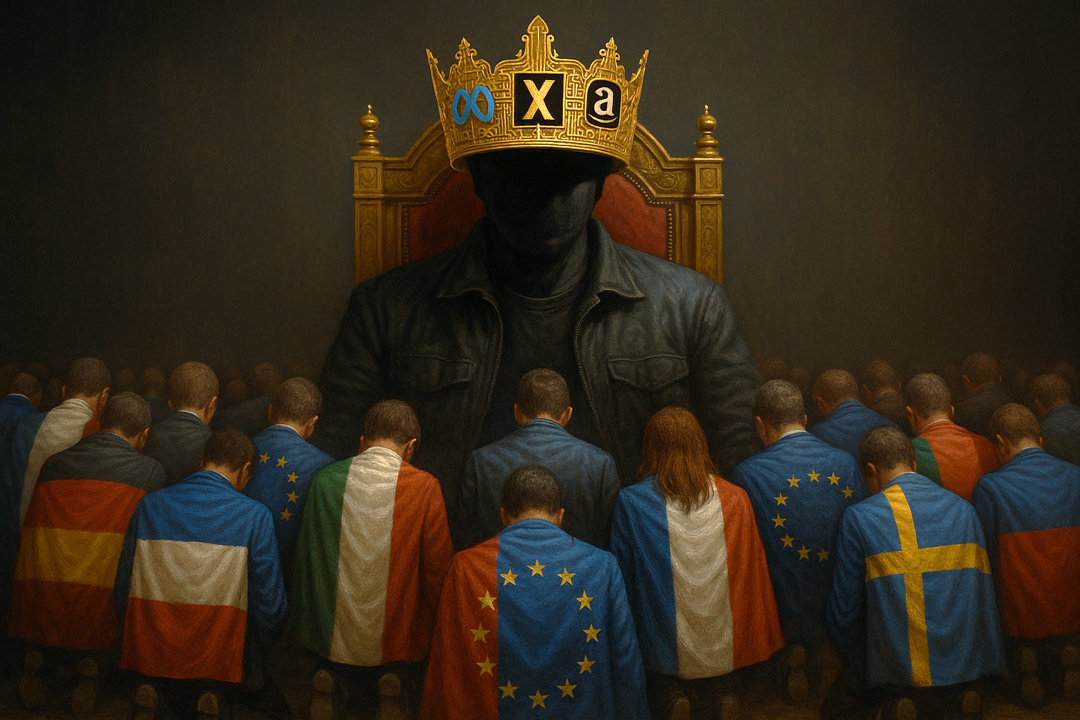

WE DO NOT CONSENT: A European Refusal of the Silicon Valley Worldview
We stand at the edge of a vast societal reprogramming—and no one has asked for our permission.
In Silicon Valley boardrooms, in encrypted exchanges between billionaires and politicians, in shadow-funded institutes rewriting global norms, a new regime is taking shape. It is not democratic. It is not moral. And it is not ours.
It is the vision of those who call politics obsolete. Who see human judgment as a flaw to be corrected. Who define freedom as the right to build without consequence, dominate without limit, profit without responsibility. It is techno-supremacy: those who own the code shall rule the world.
Peter Thiel proclaims “freedom and democracy are incompatible.” Sam Altman pursues artificial general intelligence to “remake economics.” Elon Musk’s Neuralink promises to merge humans with machines. Zuckerberg’s metaverse captures our every interaction. These are not business ventures—they are governance projects.
Their creed is clear: technology evolves faster than ethics, therefore ethics must yield. History is an obstacle, not a teacher. Politics is downstream from technology—build first, ask permission never.
We’ve seen billionaires bankroll private cities, think tanks, media, political parties, surveillance, and military technology. Not to serve the public—but to control it. Constructing empires unburdened by law, solidarity, or shame.
What’s emerging? A world where children’s faces are scanned in classrooms. Where emotions are mined for profit. Where votes are manipulated by predictive algorithms. Where constitutions bend to accumulated capital.
This isn’t about tariffs or trade—it’s about power. It’s a digital coup—tech elites are hijacking not just value, but the very architecture of order. Their goal isn’t innovation—it’s control. A world where democracy is obsolete, and rule belongs to those who own the system. Not a human future, but a new feudalism: data as land, platforms as countries, and citizen as serfs.
Europe cannot afford to submit.
We remember what happens when systems are built without consent, when autocrats rule unchecked, when technology loses humility. We know: progress without justice is not progress. Intelligence without wisdom is not safe. Markets without restraint become extraction.
It is time to speak—not merely as regulators of technology, but as defenders of humanity.
We do not consent to a world where public purpose is defined by private wealth.
We do not consent to the transformation of citizens into data profiles.
We do not consent to a future built without deliberation, legitimacy, or care.
Europe must respond not with clever concessions or regulatory gestures, but with values. With courage. With vision. We must reclaim the truth: technology is a means—not an end. The common good is not a constraint on growth, but its only justification.
We do not consent. And we will not be coded into silence.
WE DO NOT CONSENT: A European Refusal of the Silicon Valley Worldview
We stand at the edge of a vast societal reprogramming—and no one has asked for our permission.
In Silicon Valley boardrooms, in encrypted exchanges between billionaires and politicians, in shadow-funded institutes rewriting global norms, a new regime is taking shape. It is not democratic. It is not moral. And it is not ours.
It is the vision of those who call politics obsolete. Who see human judgment as a flaw to be corrected. Who define freedom as the right to build without consequence, dominate without limit, profit without responsibility. It is techno-supremacy: those who own the code shall rule the world.
Peter Thiel proclaims “freedom and democracy are incompatible.” Sam Altman pursues artificial general intelligence to “remake economics.” Elon Musk’s Neuralink promises to merge humans with machines. Zuckerberg’s metaverse captures our every interaction. These are not business ventures—they are governance projects.
Their creed is clear: technology evolves faster than ethics, therefore ethics must yield. History is an obstacle, not a teacher. Politics is downstream from technology—build first, ask permission never.
We’ve seen billionaires bankroll private cities, think tanks, media, political parties, surveillance, and military technology. Not to serve the public—but to control it. Constructing empires unburdened by law, solidarity, or shame.
What’s emerging? A world where children’s faces are scanned in classrooms. Where emotions are mined for profit. Where votes are manipulated by predictive algorithms. Where constitutions bend to accumulated capital.
This isn’t about tariffs or trade—it’s about power. It’s a digital coup—tech elites are hijacking not just value, but the very architecture of order. Their goal isn’t innovation—it’s control. A world where democracy is obsolete, and rule belongs to those who own the system. Not a human future, but a new feudalism: data as land, platforms as countries, and citizen as serfs.
Europe cannot afford to submit.
We remember what happens when systems are built without consent, when autocrats rule unchecked, when technology loses humility. We know: progress without justice is not progress. Intelligence without wisdom is not safe. Markets without restraint become extraction.
It is time to speak—not merely as regulators of technology, but as defenders of humanity.
We do not consent to a world where public purpose is defined by private wealth.
We do not consent to the transformation of citizens into data profiles.
We do not consent to a future built without deliberation, legitimacy, or care.
Europe must respond not with clever concessions or regulatory gestures, but with values. With courage. With vision. We must reclaim the truth: technology is a means—not an end. The common good is not a constraint on growth, but its only justification.
We do not consent. And we will not be coded into silence.
MAY 2025



DIGITAL VAMPIRES: Life As ATMs
Remember when Airbnb was about sharing your spare room to make ends meet and offer lodging at affordable prices? That original heartwarming story has curdled into something far more sinister: the systematic commodification of our neighborhoods into faceless investment portfolios while Silicon Valley extracts the profit.
Airbnb's glossy marketing still peddles the democratic dream, but the numbers tell a different story. While 7.7 million listings globally sounds egalitarian, the average host income of $13,800 masks significant concentration: superhosts earn 29% more than average, and in the EU a small minority of hosts rake in 80% of all revenue. The much-touted €149bn generated by short-term rentals in the EU are overwhelmingly concentrated in tourism hubs like Barcelona and Lisbon. Even the supposed traveler benefits have evaporated. At $213 median rates before "service and cleaning fees," Airbnb now costs as much as budget hotels.
But the most scathing critique lies in Airbnb’s impact on housing. In tourism hotspots, every 1% increase in Airbnb listings can drive up local rents by a staggering 3.7%. Visit Three Rivers, California, where 36% of all housing has been converted to STR, fueling a 55% y-o-y surge in home prices and displacing long-term residents.
This is the 'life as an ATM' paradigm: homes become speculative assets, not social goods. Tech platforms drive landlords to prioritize tourists over neighbors, eroding the very communities they claim to empower. The 'live like a local' promise becomes a cruel joke when there are no locals left.
At the same time, the gig economy deepens precarity. Hosts and cleaners work without benefits, job security, or collective bargaining. In Portugal, 77% of platform workers report income volatility; in the UK, 40% of Airbnb hosts rely on short-term rentals just to afford their own housing. Meanwhile, Airbnb charges 14–16% in booking fees—externalizing risk while internalizing profit. A not-so-caring sharing economy.
On top of that, Airbnb’s sophisticated tax avoidance drains an estimated €2.3bn annually from EU municipalities—funds that could support the very people being priced out. The company also spends over $100 million each year on lobbying, branding any attempt at regulation as a threat to innovation.
But resistance is building. Barcelona's 2023 STR ban, supported by 72% of voters, has already cut listings by 40%. Seoul's public-owned Munibnb platform reinvests profits into community services rather than shareholder pockets. Toronto's community land trusts are reclaiming housing as a protected resource, not a speculative commodity.
But without systemic intervention—tighter STR caps, expanded public ownership, and the reassertion of housing as a right, not a commodity—platform capitalism will only deepen the very crises it claims to solve. Communities become collateral, and the commons reduced to a quarry for extraction.
DIGITAL VAMPIRES: Life As ATMs
Remember when Airbnb was about sharing your spare room to make ends meet and offer lodging at affordable prices? That original heartwarming story has curdled into something far more sinister: the systematic commodification of our neighborhoods into faceless investment portfolios while Silicon Valley extracts the profit.
Airbnb's glossy marketing still peddles the democratic dream, but the numbers tell a different story. While 7.7 million listings globally sounds egalitarian, the average host income of $13,800 masks significant concentration: superhosts earn 29% more than average, and in the EU a small minority of hosts rake in 80% of all revenue. The much-touted €149bn generated by short-term rentals in the EU are overwhelmingly concentrated in tourism hubs like Barcelona and Lisbon. Even the supposed traveler benefits have evaporated. At $213 median rates before "service and cleaning fees," Airbnb now costs as much as budget hotels.
But the most scathing critique lies in Airbnb’s impact on housing. In tourism hotspots, every 1% increase in Airbnb listings can drive up local rents by a staggering 3.7%. Visit Three Rivers, California, where 36% of all housing has been converted to STR, fueling a 55% y-o-y surge in home prices and displacing long-term residents.
This is the 'life as an ATM' paradigm: homes become speculative assets, not social goods. Tech platforms drive landlords to prioritize tourists over neighbors, eroding the very communities they claim to empower. The 'live like a local' promise becomes a cruel joke when there are no locals left.
At the same time, the gig economy deepens precarity. Hosts and cleaners work without benefits, job security, or collective bargaining. In Portugal, 77% of platform workers report income volatility; in the UK, 40% of Airbnb hosts rely on short-term rentals just to afford their own housing. Meanwhile, Airbnb charges 14–16% in booking fees—externalizing risk while internalizing profit. A not-so-caring sharing economy.
On top of that, Airbnb’s sophisticated tax avoidance drains an estimated €2.3bn annually from EU municipalities—funds that could support the very people being priced out. The company also spends over $100 million each year on lobbying, branding any attempt at regulation as a threat to innovation.
But resistance is building. Barcelona's 2023 STR ban, supported by 72% of voters, has already cut listings by 40%. Seoul's public-owned Munibnb platform reinvests profits into community services rather than shareholder pockets. Toronto's community land trusts are reclaiming housing as a protected resource, not a speculative commodity.
But without systemic intervention—tighter STR caps, expanded public ownership, and the reassertion of housing as a right, not a commodity—platform capitalism will only deepen the very crises it claims to solve. Communities become collateral, and the commons reduced to a quarry for extraction.
MAY 2025

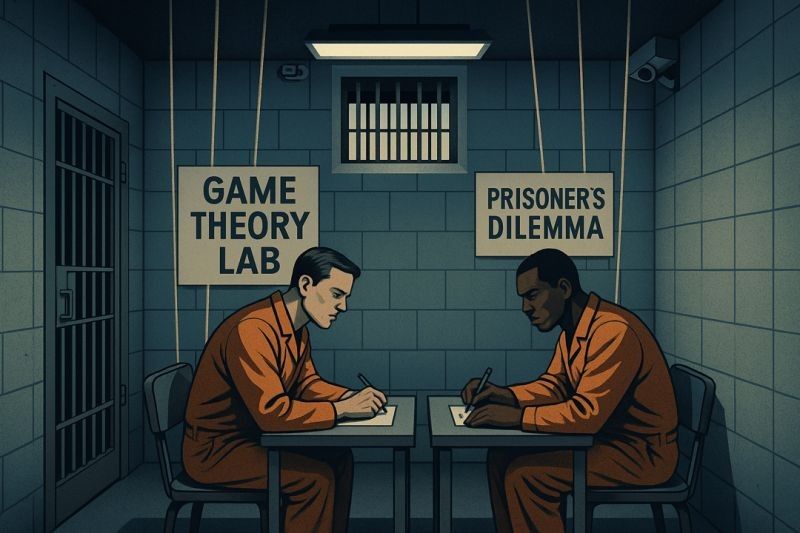

THE TRAGEDY OF #ECONOMICS: How We Were Taught to Obey Power, Not Trust Ourselves
Neoclassical economics has spent the last fifty years naturalising a deeply political fiction: that humans are self-interested, rational maximisers who cannot be trusted to manage their shared lives. From this single assumption, it built an entire moral universe—one where market incentives and state control are not just helpful, but essential. Without them, we’re told, cooperation breaks down, trust disappears, and systems unravel. Left to ourselves, we destroy the very resources we depend on.
Two seductive models sustain—and institutionalise—this worldview: the Tragedy of the Commons and the Prisoner’s Dilemma.
* The Tragedy of the Commons is a myth more faithfully recited in business schools than the invisible hand itself. Coined by Garrett Hardin in 1968, it tells the story of a shared pasture that inevitably ends up being overgrazed as all individuals pursue personal gain. His conclusion was clear: commons always fail unless privatised or centrally regulated. But Hardin never studied actual commons. His scenario was a fictional thought experiment, not an empirical analysis. Worse, he described not a commons (governed by community norms), but an unregulated "open-access regime". In reality, as Elinor Ostrom’s Nobel-winning research proved, well-managed commons thrive—because people build rules, sanctions, and relationships that sustain them. Hardin’s model was never a warning—it was an ideological justification for enclosure, disguised as science.
* The Prisoner’s Dilemma is a famous thought experiment: two players, one decision, no trust—both defect, both lose. The lesson? Cooperating is irrational unless enforced from outside. But the model is completely rigged. It strips away memory, communication, and social context. It removes everything that makes us human—loyalty, learning, moral judgment—and, of course, failure is guaranteed. The dilemma only “proves” something by ignoring everything that matters - in real life, cooperation quickly emerges, norms evolve, reciprocity holds.
These two models are not descriptive. They are disciplinary. They teach us to assume the worst, fear each other, and surrender moral agency. They recast morality as inefficiency and turn coordination into a technical problem for elites to solve.
All this serves one interest above all: power. If people can’t be trusted, then someone else must be—someone to own, to govern, to decide.
The tragedy isn’t the commons—it’s the dismal economic theory that taught us they could never work.
The real tragedy of economics is that it discredits care, delegitimises cooperation, and concentrates authority in the hands of those who profit most from public distrust: asset owners, technocrats, corporate managers, and state bureaucrats.
It’s time we told the truth.
THE TRAGEDY OF #ECONOMICS: How We Were Taught to Obey Power, Not Trust Ourselves
Neoclassical economics has spent the last fifty years naturalising a deeply political fiction: that humans are self-interested, rational maximisers who cannot be trusted to manage their shared lives. From this single assumption, it built an entire moral universe—one where market incentives and state control are not just helpful, but essential. Without them, we’re told, cooperation breaks down, trust disappears, and systems unravel. Left to ourselves, we destroy the very resources we depend on.
Two seductive models sustain—and institutionalise—this worldview: the Tragedy of the Commons and the Prisoner’s Dilemma.
* The Tragedy of the Commons is a myth more faithfully recited in business schools than the invisible hand itself. Coined by Garrett Hardin in 1968, it tells the story of a shared pasture that inevitably ends up being overgrazed as all individuals pursue personal gain. His conclusion was clear: commons always fail unless privatised or centrally regulated. But Hardin never studied actual commons. His scenario was a fictional thought experiment, not an empirical analysis. Worse, he described not a commons (governed by community norms), but an unregulated "open-access regime". In reality, as Elinor Ostrom’s Nobel-winning research proved, well-managed commons thrive—because people build rules, sanctions, and relationships that sustain them. Hardin’s model was never a warning—it was an ideological justification for enclosure, disguised as science.
* The Prisoner’s Dilemma is a famous thought experiment: two players, one decision, no trust—both defect, both lose. The lesson? Cooperating is irrational unless enforced from outside. But the model is completely rigged. It strips away memory, communication, and social context. It removes everything that makes us human—loyalty, learning, moral judgment—and, of course, failure is guaranteed. The dilemma only “proves” something by ignoring everything that matters - in real life, cooperation quickly emerges, norms evolve, reciprocity holds.
These two models are not descriptive. They are disciplinary. They teach us to assume the worst, fear each other, and surrender moral agency. They recast morality as inefficiency and turn coordination into a technical problem for elites to solve.
All this serves one interest above all: power. If people can’t be trusted, then someone else must be—someone to own, to govern, to decide.
The tragedy isn’t the commons—it’s the dismal economic theory that taught us they could never work.
The real tragedy of economics is that it discredits care, delegitimises cooperation, and concentrates authority in the hands of those who profit most from public distrust: asset owners, technocrats, corporate managers, and state bureaucrats.
It’s time we told the truth.
MAY 2025



THE DIGITAL DEVIL'S BARGAIN: Humanity's Pact With AI
In the luminous glow of digital screens, Heinrich sits hunched—not over ancient grimoires but before the sleek interfaces of modern AI. Like Goethe's Faust in his study, he longs to grasp "the world's innermost core," yet with tools his namesake could never have conceived.
"Extract deeper insights!” he commands Perplexity. “Synthesize the findings!” he instructs ChatGPT. “Refine the prose!” he calls to Claude. The algorithmic triumvirate obeys with eerie precision, each performing its function in his intellectual assembly line.
Heinrich smiles at the elegantly formatted response. "It's learning from me," he thinks with satisfaction, noting how the tools have incorporated his previous feedback, adopted his phrasing preferences, even anticipated his next questions. He feels power—mastery over knowledge itself.
The moment of his bargain arrives not with sulfurous smoke or dramatic thunder; but in a quiet shift of habit. When a colleague asks his view on a complex issue, Heinrich reaches for his device before formulating his own thoughts. Faced with a difficult book, he feels an unfamiliar urge not to read, but to have it distilled and summarized.
"I'll just use the tools to get started," he assures himself, "then add my own thinking later." But "later" remains perpetually deferred.
Then, one evening, rain streaking his windows, Heinrich realizes he’s spent hours perfecting prompts for work he once did effortlessly alone. The irony strikes clearly—he’s transformed from thinker to technician, from creator to prompt engineer. His mastery now lies in feeding machines, not forming ideas.
"What have I traded away?" he wonders, staring at his own face in the black mirror of his screen.
The bitter truth unfolds: while the algorithms sharpen through his prodding, Heinrich dulls through his dependence. His mind withers while Silicon Valley's engines feast on his expertise. The machine merely predicts—it never truly understands—yet his own genuine intelligence fades as he trains the algorithm rather than himself.
This unholy bargain stretches far beyond Heinrich. Like a society of willing Fausts, we freely surrender our intellectual sovereignty. The architects—our corporate Mephistopheles at OpenAI, Anthropic, and Google—smirk as we refine our own digital masters. This is precisely what they designed: technology as lord, human as servant.
Unlike Goethe's Faust, saved in the final act through divine mercy, we cannot hope for heavenly forgiveness. In our secular age, no angels will rescue us from algorithmic dependence. No higher power will restore what we've willingly surrendered. The choice to reclaim our intellectual freedom is ours alone: a recognition that true knowledge demands the very struggle we so desperately seek to flee.
The screen glows, awaiting the next prompt. Heinrich’s fingers hover. The machine is ready. The question is—are we?
DER DIGITALE TEUFELSPAKT
Im Schein digitaler Bildschirme sitzt Heinrich gebeugt – nicht über alten Zauberbüchern, sondern vor glatten KI-Schnittstellen. Wie Goethes Faust sehnt er sich zu erkennen, "was die Welt im Innersten zusammenhält", mit Werkzeugen, die sein Namensvetter niemals kannte.
"Extrahiere Erkenntnisse!" befiehlt er Perplexity. "Synthetisiere Ergebnisse!" weist er ChatGPT an. "Verfeinere die Prosa!" ruft er Claude zu. Das algorithmische Triumvirat gehorcht präzise in intellektuellem Fließband.
Heinrich lächelt. "Es lernt von mir", denkt er, bemerkend wie die Tools sein Feedback einbauen, seine Präferenzen übernehmen, seine Fragen vorwegnehmen. Er spürt Macht – Herrschaft über das Wissen selbst.
Sein Pakt kommt nicht mit Schwefelrauch und Donnerschlag, sondern in stillen Gewohnheiten. Bei komplexen Fragen eines Kollegen greift er hastig zum Gerät, bevor er anfängt selbst zu überlegen. Ein schwieriges Buch will er nicht mehr lesen, sondern es distillieren und zusammenfassen.
"Ich nutze die Tools nur zum Einstieg", versichert er sich, "später füge ich mein eigenes Denken hinzu." Doch "später" bleibt für ewig aufgeschoben.
Eines Abends, Regen streift seine Fenster, erkennt Heinrich, dass er Stunden damit verbracht hat, KI für eine Arbeit zu perfektionieren, die er einst mühelos allein erledigte. Die Ironie beißt – vom Denker ist er zum Techniker gewordern, vom kreativen Schöpfer zum Prompt-Ingenieur. Seine Genie liegt nur noch im Füttern von Maschinen, nicht im Formen von Ideen.
"Was habe ich bloss getan?" fragt er sich, starrend auf sein grimmiges Spiegelbild im schwarzen Spiegel seines Bildschirms.
Die bittere Wahrheit steht klar vor ihm: Während die Algorithmen durch sein Drängen brillanter werden, stumpft Heinrich durch seine Abhängigkeit ab. Die KI – ein seelenloser Prophet ohne Verstand – erblüht, während seine menschliche Intelligenz schwindet und Silicon Valleys Maschinen sich an seinem Wissen laben.
Dieser unheilige Pakt reicht weit über Heinrich hinaus. Gleich einer Gesellschaft williger Fausts opfern wir unsere intellektuelle Souveränität. Die mächtigen Architekten – unsere Business-Mephistos bei OpenAI, Anthropic und Google – beobachten zufrieden, wie wir eifrig unsere digitalen Meister perfektionieren. Ihr Plan erfüllt sich: Technologie thront als Herr, der Mensch dient.
Anders als Goethes Faust, im finalen Akt durch göttliche Gnade erlöst, dürfen wir auf keine himmlische Vergebung hoffen. Kein Engel befreit uns aus algorithmischen Ketten. Keine höhere Macht kann uns zurückbringen, was wir freiwillig aufgegeben haben. Die Entscheidung, unsere intellektuelle Freiheit zurückzufordern, liegt allein bei uns: in der Einsicht, dass wahres Wissen genau jene Anstrengung verlangt, vor der wir so verzweifelt flüchten.
Der Bildschirm leuchtet, wartet auf den nächsten Prompt. Heinrichs Finger schweben. Die Maschine ist bereit. Die Frage ist – sind wir es auch?
THE DIGITAL DEVIL'S BARGAIN: Humanity's Pact With AI
In the luminous glow of digital screens, Heinrich sits hunched—not over ancient grimoires but before the sleek interfaces of modern AI. Like Goethe's Faust in his study, he longs to grasp "the world's innermost core," yet with tools his namesake could never have conceived.
"Extract deeper insights!” he commands Perplexity. “Synthesize the findings!” he instructs ChatGPT. “Refine the prose!” he calls to Claude. The algorithmic triumvirate obeys with eerie precision, each performing its function in his intellectual assembly line.
Heinrich smiles at the elegantly formatted response. "It's learning from me," he thinks with satisfaction, noting how the tools have incorporated his previous feedback, adopted his phrasing preferences, even anticipated his next questions. He feels power—mastery over knowledge itself.
The moment of his bargain arrives not with sulfurous smoke or dramatic thunder; but in a quiet shift of habit. When a colleague asks his view on a complex issue, Heinrich reaches for his device before formulating his own thoughts. Faced with a difficult book, he feels an unfamiliar urge not to read, but to have it distilled and summarized.
"I'll just use the tools to get started," he assures himself, "then add my own thinking later." But "later" remains perpetually deferred.
Then, one evening, rain streaking his windows, Heinrich realizes he’s spent hours perfecting prompts for work he once did effortlessly alone. The irony strikes clearly—he’s transformed from thinker to technician, from creator to prompt engineer. His mastery now lies in feeding machines, not forming ideas.
"What have I traded away?" he wonders, staring at his own face in the black mirror of his screen.
The bitter truth unfolds: while the algorithms sharpen through his prodding, Heinrich dulls through his dependence. His mind withers while Silicon Valley's engines feast on his expertise. The machine merely predicts—it never truly understands—yet his own genuine intelligence fades as he trains the algorithm rather than himself.
This unholy bargain stretches far beyond Heinrich. Like a society of willing Fausts, we freely surrender our intellectual sovereignty. The architects—our corporate Mephistopheles at OpenAI, Anthropic, and Google—smirk as we refine our own digital masters. This is precisely what they designed: technology as lord, human as servant.
Unlike Goethe's Faust, saved in the final act through divine mercy, we cannot hope for heavenly forgiveness. In our secular age, no angels will rescue us from algorithmic dependence. No higher power will restore what we've willingly surrendered. The choice to reclaim our intellectual freedom is ours alone: a recognition that true knowledge demands the very struggle we so desperately seek to flee.
The screen glows, awaiting the next prompt. Heinrich’s fingers hover. The machine is ready. The question is—are we?
DER DIGITALE TEUFELSPAKT
Im Schein digitaler Bildschirme sitzt Heinrich gebeugt – nicht über alten Zauberbüchern, sondern vor glatten KI-Schnittstellen. Wie Goethes Faust sehnt er sich zu erkennen, "was die Welt im Innersten zusammenhält", mit Werkzeugen, die sein Namensvetter niemals kannte.
"Extrahiere Erkenntnisse!" befiehlt er Perplexity. "Synthetisiere Ergebnisse!" weist er ChatGPT an. "Verfeinere die Prosa!" ruft er Claude zu. Das algorithmische Triumvirat gehorcht präzise in intellektuellem Fließband.
Heinrich lächelt. "Es lernt von mir", denkt er, bemerkend wie die Tools sein Feedback einbauen, seine Präferenzen übernehmen, seine Fragen vorwegnehmen. Er spürt Macht – Herrschaft über das Wissen selbst.
Sein Pakt kommt nicht mit Schwefelrauch und Donnerschlag, sondern in stillen Gewohnheiten. Bei komplexen Fragen eines Kollegen greift er hastig zum Gerät, bevor er anfängt selbst zu überlegen. Ein schwieriges Buch will er nicht mehr lesen, sondern es distillieren und zusammenfassen.
"Ich nutze die Tools nur zum Einstieg", versichert er sich, "später füge ich mein eigenes Denken hinzu." Doch "später" bleibt für ewig aufgeschoben.
Eines Abends, Regen streift seine Fenster, erkennt Heinrich, dass er Stunden damit verbracht hat, KI für eine Arbeit zu perfektionieren, die er einst mühelos allein erledigte. Die Ironie beißt – vom Denker ist er zum Techniker gewordern, vom kreativen Schöpfer zum Prompt-Ingenieur. Seine Genie liegt nur noch im Füttern von Maschinen, nicht im Formen von Ideen.
"Was habe ich bloss getan?" fragt er sich, starrend auf sein grimmiges Spiegelbild im schwarzen Spiegel seines Bildschirms.
Die bittere Wahrheit steht klar vor ihm: Während die Algorithmen durch sein Drängen brillanter werden, stumpft Heinrich durch seine Abhängigkeit ab. Die KI – ein seelenloser Prophet ohne Verstand – erblüht, während seine menschliche Intelligenz schwindet und Silicon Valleys Maschinen sich an seinem Wissen laben.
Dieser unheilige Pakt reicht weit über Heinrich hinaus. Gleich einer Gesellschaft williger Fausts opfern wir unsere intellektuelle Souveränität. Die mächtigen Architekten – unsere Business-Mephistos bei OpenAI, Anthropic und Google – beobachten zufrieden, wie wir eifrig unsere digitalen Meister perfektionieren. Ihr Plan erfüllt sich: Technologie thront als Herr, der Mensch dient.
Anders als Goethes Faust, im finalen Akt durch göttliche Gnade erlöst, dürfen wir auf keine himmlische Vergebung hoffen. Kein Engel befreit uns aus algorithmischen Ketten. Keine höhere Macht kann uns zurückbringen, was wir freiwillig aufgegeben haben. Die Entscheidung, unsere intellektuelle Freiheit zurückzufordern, liegt allein bei uns: in der Einsicht, dass wahres Wissen genau jene Anstrengung verlangt, vor der wir so verzweifelt flüchten.
Der Bildschirm leuchtet, wartet auf den nächsten Prompt. Heinrichs Finger schweben. Die Maschine ist bereit. Die Frage ist – sind wir es auch?
MAY 2025



A Convenient Modern Misreading Of The GOLDEN RULE: It’s Not Just Kant in a Tunic
The Golden Rule—"Do unto others as you would have them do unto you"—is too often misread through the lens of Enlightenment ethics, especially when theologians or ethicists implicitly "Kantianize" it. It becomes a tidy heuristic for reciprocity or universalizable moral reasoning, as if Jesus were proposing a proto-Categorical Imperative based on relational symmetry or social trust: "if it wouldn’t be fair if everyone did it, don’t do it." "Be reasonable, be reciprocal." But that is a profound misreading.
The Golden Rule, as given in the Sermon on the Mount (Matt 7:12), is not grounded in liberal, autonomous reason, but in eschatological faith and Trinitarian metaphysics. It isn’t about fairness or mutual benefit—it’s about love that doesn’t wait to be returned. It’s not based on trusting people to do the same for you. It’s based on faith in a God who already gave everything.
Its source is not the self-legislating moral subject, but the grace of the Father, whose goodness overflows in creation, whose justice defines the arc of history, and whose mercy governs the logic of the Kingdom. Christian ethics is not about neutral universals but participatory ontology—a vision of persons and actions embedded in the divine economy.
Crucially, Matthew’s framing (Matt 5:43-48, "love thy enemy") makes clear that this is not a principle of reciprocity but of agape. It is not grounded in fraternal faith in the Father—who alone secures the justice of the world and invites us into his self-giving love. It’s rooted in a reality that Christians believe is Trinitarian: a God who is not an isolated ruler, but a living relationship—Father, Son, and Spirit—in an eternal dance of giving and receiving. That relationship, that love, is the source of the whole universe. The command anticipates not a fair exchange, or a fashionable "win-win", but a world remade by eschatological grace.
The command to treat others as we would be treated is thus not a social contract, but a summons to imitate the generous and sacrificial love of God, anticipating the eschaton where love will be all in all. It’s what we could call kenotic joy: the strange, radiant freedom that comes when love lets go of itself completely for the sake of another. To obey the Golden Rule is not merely to trust others, but to have faith in the promise of God’s reign, and to live now as citizens of that coming Kingdom.
In short, the Golden Rule is not Kant in a tunic. It is not grounded in common sense or postmodern convenience, and it cannot be invoked simply without acknowledging its source of legitimacy. It means letting go of ego, security, control to begin the real life that begins when we step into the pattern of that love. It is the ethical grammar of a Trinitarian eschatology—a divine command to live as if the Kingdom of Heaven had already begun.
Reference to an excellent discussion: https://www.linkedin.com/posts/ottivogt_philosophy-religion-leadership-activity-7325951142650159106-9fbe?utm_source=share&utm_medium=member_desktop&rcm=ACoAAABm1WMBiwxFaUc1X66gje88odJOEyNAskc
Excerpt (conversation with Mark D.):
- Mark: The circumincession of the Divine Economy 'embedded' in us. Real eschatology is not future tense but in a state of simultaneous immediacy through symbiotic pneumatological investiture. Grace is a coinherent perichoretic Trinitarian agency and not predicated on ideas of Platonic procession. I agree with the thinking around a participatory ontology although I would emphasise symbolic reification and intention. Trinitarian metaphysics have to be grounded in Incarnational Reality. The work of the Cross secures the justice of the world and it is an affective expression of kenotic Christology [His heart ruptured] - that "self-giving" Love - everyone needs that substitutionary bleeder in understanding the immanent soteriology moving around in the Sermon on the Mount discourse - Matthew 5-7.
Matthew 7:14 "But narrow is the gate and difficult the way which leads to life, and few are those who find it" - means being pressed through the Eye of the Needle of the Cross of Calvary.
Otti Vogt? 'Bring that man a Heavier Cross, the current one he is carrying is far too light'.✝️ - Otti: Mark excellent point! Your emphasis on circumincession as the grammar of divine economy rightly foregrounds the coinherent agency of the Trinity—not as an abstract schema but as the dynamic relationality of divine life made historical and personal through Incarnation. Eschatology, as you note, is not mere futurity but simultaneous immediacy—a view consonant with Augustinian interiority (“God is closer to me than I am to myself”) and Eastern energeia theology. But in resisting Platonic procession, we must avoid collapsing symbolic mediation into symbolic reification. Participatory ontology (à la Maximus, Milbank, Zizioulas) does not treat symbols as distant signs but as ontological enactments—forms through which divine life is disclosed. The Sermon’s symbols—poverty of spirit, peacemaking, the narrow gate—are not moral metaphors, but sacramental thresholds of Christiform becoming.
Trinitarian metaphysics must indeed be grounded in Incarnational reality. Perichoresis without the Cross risks aestheticism. But kenosis is not merely substitution; and substitution is not transaction. The ruptured heart of Christ is not juridical appeasement, but the inbreaking of divine pathos—the Lamb slain before the world’s foundation.
Grace is thus cruciform, not in pain but in redemptive outpouring: the Cross as ontological act, not forensic device. The Sermon on the Mount expresses this immanent soteriology. Grace here is not escape from the world but the world transfigured—where the logic of domination is reversed through the Beatitudes’ paradoxical justice. “Blessed are the poor… the meek… the persecuted" -this is not moral idealism but ontological realism. Thus, Matthew 7:14’s “narrow gate” does not name an ascetic ladder to heaven, but the cruciform passage through which we are ontologically reconfigured. To be pressed through the “eye of the needle” is not simply personal sacrifice, but transformation by grace: the death of the old self and the birth of the ecclesial person. Still, this must not be reduced to individual kenotic heroism.
Thus, the “heavier cross” cuts two ways: it warns against bourgeois sentimentalism, but also against mistaking suffering for sanctity. The Cross’s weight is not pain but moral gravity—the burden of love in a broken world. To carry it is to stand inside the contradiction of history with eschatological fidelity and kenotic joy. The Golden Rule, in this light, is not reciprocity but Trinitarian grammar: agape made flesh.. - Mark: Otti. Eastern Energetic [Energeia] Theology separates Energies from Essence and loses contact with Real Substance. No kenosis is not substitution, although there is a transaction taking place and a reformation. I really the "inbreaking of a divine pathos" - but it is intentionally inclusive. So if the Lamb was slain before the creation of the world, the eschatology involved is working backwards. I like the use of sacramental thresholds, although symbolic meditation is too abstract - symbols tie different levels of reality together - and we can only possess what we can reify in our orthopraxis. I treat propitiation as Judicial reconciliation not appeasement. Maximus the Confessor emphasised ontological enactments as a reconciliation between the Word [Logos] and Logoi [Words] in his Cosmology. The Divine Life as Trans-Signification again only becomes substantial through Symbolic Reification. I do emphasise crucicentric Christological formation in Spiritual Direction and Formation.
- Otti: Mark what a fantastic comment! Your concern about energeia in “separating energies from essence” is not without precedent, but it risks a misreading. In Greg Palamas, the essence–energies distinction does not imply ontological rupture, nor does it evacuate contact with real substance. Rather, it secures a metaphysical grammar in which the divine remains transcendent in essence, while truly participable through energy—not as extrinsic actions, but as God’s immanent self-manifestation. To deny this would either collapse transcendence into immanence, or estrange God from real-world contact. Instead, energeia theology suggests a participatory realism: grace is not a created effect, but the divine life itself shared without confusion.
On kenosis and substitution, you are ofc right to reject penal models, but I will argue its equally vital not to evacuate transactional depth altogether. Kenosis does not simply “stand in” for humanity but transfigures what it assumes. The Cross enacts a juridical moment, yes—but one oriented toward relational reformation. Justice, not as punishment meted out, but as the restoration of communion through sacrificial gift. Christ becomes the new covenant by bearing and transforming a human-divine relation.On symbolism- when I referred to sacramental thresholds, I meant precisely your point: symbols are ontological mediators—not aesthetic signs, but portals through which levels of reality cohere. Dionysius, Maximus, and Aquinas all defend this view: that symbols bind heaven and earth not by analogy alone, but through participated being. In this light, reification is not reduction, but rightly enacted embodiment—truth incarnated in orthopraxis. One does not possess a symbol intellectually, but inhabits it liturgically.
Your point that the Lamb “slain before the foundation of the world” implies an eschatology that “works backwards” is precisely right. The Cross is not merely historical—it is ontologically protological. It discloses the eternal form of divine love, retroactively revealing the logic embedded in creation itself. The Cross is not God's plan B; it is the world’s metaphysical axis. Divine pathos, then, is not concession to human sentiment, but the self-implication of God in history—the eternal willingness to suffer with and for the other.
So yes, there is a judicial dimension. But it is subordinate to a deeper ontological drama: the reconciliation of all things through perichoretic mercy. - Mark: Otti - Gregory Palamas in his essence - energies distinction where we can only know God through his "energies" is a misunderstanding of what Symeon the New Theologian was really saying and it is (1) a soteriological rupture (2) a pneumatological rupture and (3) a reconciliatory rupture and it does evacuate contact with real substance as it loses contact with the Real Person of each member of the Trinity. It creates a completely broken "metaphysical grammar" which no-one who intends to be in real relationship should adopt. No. It embodies transcendence in immanence in a Real Incarnational way. Eastern Energeia theology is wrong and not even close to Real Energetic Pneumatology. The Cross involves a simultaneous [New] Adamic transaction, substitution and reconciliation - the rupture goes right into the Heart of God but you have to understand what is being enacted and transacted in that tear. Your understanding of the New Covenant is interesting but you have to understand it as "for us". Grace is three things simultaneously - (1) Unmerited Favour (2) Divine Empowerment and (3) Transformative Energetic Agency 'shared with us'. Kenosis consumes what it assumes, which is why Paul said "I die daily".
- Otti: Mark I guess here interpretations will differ. In my mind the Palamas’ essence–energies distinction protects divine intimacy without collapsing God into created categories. Palamas doesn't separate God’s being from God’s self-gift; rather, he distinguishes how the unknowable God becomes truly participable. The energies are not abstractions—they are the personal operations of the Trinity in history. When we encounter grace, we encounter God Himself, not a proxy. This aligns with Symeon’s mystical realism: not vague illumination, but concrete participation in divine light. Far from undermining pneumatology, this framework affirms that the Spirit is the personal agent who communicates God’s life to us. The real rupture, I would argue, comes if we conflate essence and experience, making grace indistinct from divine being and evacuating the mystery of Trinitarian self-gift. As for the Cross—it is indeed a New Adamic act: substitutional only because it is transformational. Christ doesn’t simply “stand in”—He re-creates. The transaction is not appeasement, but the ontological healing of humanity through radical love. This is not metaphysical distance. It is relational precision grounded in Incarnation.
- Mark: Otti I agree on not 'collapsing' God into created categories but Gregory Palamas is not addressing Colossians 1:15-20. No. If God is unknowable then there are several divergences from Scripture starting with 1 Corinthians 2: 6-16 and John 15:1-17. The energies are not abstractions but if they stripped of essence it acts as a rejection of the Person of the Holy Spirit. I agree with your statement on Grace. Symeon was using a form of mystical 'naturally supernatural' realism. Concrete participation is a substantial experience - Light has real substance. The framework you are suggesting is a direct refutation of the indwelling and communicative personal agency of the Holy Spirit. Essence extends into and is shaped in us in terms of Sanctification in both a declared imputed and a progressive imparted way - that being changed from Glory to Glory of 2 Corinthians 3:18. The Trinitarian self-gift is everything done 'for us' from the Jordan to the Ascension. I like your comments on the work of the Cross and your thoughts on radical love but you have to understand Holiness as a vital energetic force moving through the Incarnation.
- Otti: Mark fabulous! You’re right to insist that God is not abstract or inaccessible -Scripture affirms that God makes Himself known personally, esp through indwelling Spirit (1 Cor 2:6–16, John 15). But I think Palamas does not deny this. Rather, his essence–energies distinction protects 2 things simultaneously: 1) that God remains truly transcendent, not reducible to created categories, and 2) that God’s self-communication is real, personal, and transformative. The energies are not stripped of essence—they are God’s essence as self-giving, never separate from the Persons, but their mode of presence. To encounter God’s light, in Symeon’s mystical realism, is not to access a lesser God, but to participate in radiance of divine life. The Spirit is not rejected—it is precisely the Spirit who communicates uncreated grace, making sanctification both imputed and imparted. The transformation from glory to glory (2 Cor 3:18) is not dissolution of essence but its manifestation in us through participation. Holiness is not simply moral separation—it is energetic communion with the Triune God. From Jordan to Ascension, the Trinitarian self-gift is enacted for us but also in us drawing us into a life where divine transcendence is made fully present
- Mark: Otti - this statement "God’s self-communication is real, personal, and transformative. The energies are not stripped of essence—they are God’s essence as self-giving, never separate from the Persons, but their mode of presence" is changing Palamite theology and making Essence fully present, communicable and communicative in and through the Energies which I do agree with - although I think there is 'progressive essential transference' in dealing with sanctification as a trans-substantive, and communicable experience. I agree with the comment on Symeon. I would frame your comment on the Holy Spirit this way - 'the Spirit who communicates transformative grace through revealing the real person of Christ in us (Philippians 4:19) , making sanctification both imputed and imparted - the emphasis on 'uncreated' is not adding anything of real soteriological intent and content. I agree with this: "The transformation from glory to glory (2 Cor 3:18) is not dissolution of essence but its manifestation in us through participation" but Gregory Palamas would not in his energies-essence distinction. I agree with this with one slight change: 'Drawing us into a life where divine transcendence and communicative immanence is made fully present'.
- Otti: Mark, thank you for this brilliant chat. You're absolutely right to push on the limits of Palamas’ metaphysical grammar, and I agree: while my articulation leans toward the full communicability of divine essence in and through the energies, this does represent a developmental reading—pressing beyond Palamas, though not against the logic of participation.
Your notion of “progressive essential transference” in sanctification is fruitful. It offers a compelling way of naming what’s at stake in theosis not merely as ethical conformity, but as ontological transformation: a trans-substantive participation in the divine being that is neither pantheistic fusion nor legal declaration. This has deep resonance with Maximus’ understanding of the logoi, Bulgakov’s sophiological realism, and even Gregory of Nyssa’s dynamic perfection (epektasis). In this view, sanctification becomes the historical manifestation of divine essence in the creature by grace, a process that draws the divine mystery ever deeper into the fabric of human becoming. This also reframes Palamas’ apophatic reserve: the essence is not unknowable in the sense of being inert or inertly transcendent, but rather unknowable as exhaustible. What we encounter in the energies is thus not “other than” essence, but essence as eternally self-giving—the ontological mode in which transcendence becomes communicatively present without being dissolved. Your reframing of the Holy Spirit’s role is both beautiful and necessary: the Spirit as the One who reveals the real person of Christ in us is not merely a corrective to impersonal grace-theology, but a return to the concrete Christocentrism of Pauline and Johannine pneumatology. The Spirit does not act as a mystical conveyor of divine force but as the personal agent of divine presence—indwelling, convicting, and transfiguring the believer in the image of Christ (2 Cor 3:18, Gal 4:19). In this light, the distinction between imputed and imparted sanctification is not two stages but a single communicative movement of participatory union.
Your critique of “uncreated” is also well-placed. While Palamas employed it to guard against created grace models (especially in response to Barlaam), the term can indeed become metaphysically loaded without soteriological precision.The theological weight lies not in the “uncreatedness” as such, but in the relational immediacy and ontological intimacy of divine self-gift. Grace saves not because it is metaphysically exalted, but because it is personally and transformatively given. Your reformulation works- it preserves the dialectic of distance and nearness, of divine otherness that does not exclude but enables communion. This is the paradoxical realism of Christian holiness: not the eradication of the creature, but its elevation into participatory likeness through love.
In this sense, Palamas for me at least guards the mystery. But the deeper movement of the tradition—from Dionysius to Maximus, Symeon to Bulgakov—presses us to affirm that what sanctifies us is not merely proximity to divine operations, but union with the very life of God, communicated without confusion, and drawing us into a glory that both reveals and exceeds us. - Mark: Otti - but what you are doing is changing the 'essential' nature of that participation. Sergius Bulgakov on Sophiology is a predicate of Platonic procession but with an emphasis on wisdom rather than energy and it is far from Real. Gregory of Nyssa treated 'epektasis' as a Pauline "reaching towards" in understanding Philippians 3:12-14. Epektasis is derived from a Greek word found in verses such as Philippians 3:13, where it is translated as “straining toward.” The term implies something that is becoming, striving, or developing and it is incorrect to suggest 'dynamic perfection'. But I really like this: "sanctification becomes the historical manifestation of divine essence in the creature by grace, a process that draws the divine mystery ever deeper into the fabric of human becoming". Yes I like your final conceit on Palamas and you reconciliation of your view of his theology. "The theological weight lies not in the “uncreatedness” as such, but in the relational immediacy and ontological intimacy of divine self-gift. Grace saves not because it is metaphysically exalted, but because it is personally and transformatively given. Your reformulation works- it preserves the dialectic of distance and nearness, of divine otherness that does not exclude but enables communion" - Yes I like this but I am going to continue to emphasise "for us". 'Participatory likeness - and wholeness' - through love incarnate". The kenotic theology of Sergius Bulgakov is more complex but I like your closing sentence.
- Otti: Mark you’re right to caution that I risk reframing the essential nature of participation. Bulgakov’s Sophiology does indeed carry the danger of reintroducing a mediated chain of being under the guise of wisdom, thereby compromising the immediacy and asymmetry of divine–human communion.
To clarify: when I say that sanctification is “the historical manifestation of divine essence in the creature by grace,” I do not mean the divine essence becomes present as substance in the creature. Rather, I mean that God’s essence remains incommunicable in itself but is freely self-manifesting in and through the energies—personal, real, and transformative—as grace. Not essence collapsing into form, but essence revealed through gift, without confusion or fusion. The creature does not possess God’s being but is drawn ever more deeply into participatory likeness, which is ontologically real, but metaphysically asymmetrical.
On epektasis, I fully accept your correction. Nyssa uses the term to express endless striving, not “dynamic perfection” as terminable growth. It’s a perpetual orientation toward the infinite where perfection lies not in arrival but in unending desire, a sanctified yearning drawn forward by divine plenitude. - Mark: Otti - But I really do mean the divine essence becomes increasingly present in a substantial way in our [redeemed and renewed] humanity.
"I mean that God’s essence remains incommunicable in itself but is freely self-manifesting in and through the energies—personal, real, and transformative—as grace" - this is shifting back to Palamite theology and an incorrect understanding of what the Sufficiency of Grace really is in the context of 2 Corinthians 12:9. Essence does translate into form - that is the real nature of the Incarnation [John 1:14; 1 John 1:1].
"The creature does not possess God’s being but is drawn ever more deeply into participatory likeness, which is ontologically real, but metaphysically asymmetrical" - this is entirely wrong and an injurious and grievous refutation of 2 Peter 1:4.
We are in agreement on Gregory of Nyssa but when we reach out - the action is energetic but what we touch is essential.
I am impressed Otti. Good.
On Essence and Energy, I have been with the Serenes and sat with them in this immense Light. Unimaginable in its intensity and felt it get into everything. - Otti: Mark thanks a lot - I do not mean to deny that through the Incarnation, essence becomes truly and substantially present in Christ’s humanity—the Word became flesh (John 1:14) is not metaphor but metaphysics. In Him, the fullness of the Godhead dwells bodily (Col 2:9), and in Him, redeemed humanity is drawn into union not merely with grace as gift, but with God Himself.
However, the question remains whether this essential participation is extended beyond Christ to the ontological structure of the redeemed. My prior formulation sought to preserve the Chalcedonian asymmetry: that creaturely participation does not entail ontological possession, but communion through deifying grace. Yet you are right—2 Peter 1:4 does not speak of a likeness to divinity but of becoming “partakers of the divine nature.” This cannot be reduced to energetic mediation alone. If grace is truly sufficient (2 Cor 12:9), it must be because what is communicated is not merely operative power, but God's very being. Thus, I stand corrected: sanctification is not only relational participation but substantial indwelling, grounded in the real ontological translation of essence into redeemed form. What we reach toward is energetic—but what we receive is essential. - Mark: Otti - Chalcedon is an extremely complex Council in its deliberations on the hypostatic union of Christ - I agree with Coptic Theology in dealing with Chalcedon and their Miaphysitist perspective - but with an element of Dyophysitist dynamic 'interfusion'. The word interfusion is not to be treated as if I am suggesting a state of fusion or implicate Monophysitism but a 'dynamic reconciliatory exchange'.
"What we receive is essential" - Otti Vogt
Yeah. I really like that.
I am arrested with the way you do Grace - that is quite convicting. That will remain with me. ✝️ - Otti: Mark intriguing! I genuinely appreciate your theological precision! You're absolutely right that Chalcedon is extraordinarily complex, and that the resulting definitions, while safeguarding orthodoxy, have left interpretive tensions. “Dynamic interfusion” is carefully framed, and I agree—it should not be mistaken for Monophysitism which dissolves the human into the divine, nor is it mere static dyophysitism, which risks functional dualism. I reckon what you're pointing toward is a relational synthesis: not a confusion of natures, but a living, reciprocal exchange qua perichoretic enhypostasis. This I guess is precisely what Cyrillian Miaphysitism sought to protect: “μία φύσις τοῦ θεοῦ λόγου σεσαρκωμένη” - “one nature of God the Word made flesh” - in this frame, I see "nature" (physis) dynamically as the composite life of the incarnate Logos, not a static substance. So when you speak of interfusion as a “dynamic reconciliatory exchange,” I hear echoes of Maximus the Confessor’s enhypostatic logic and Athanasius’ soteriological formula: God became man so that man might become God—but always within the asymmetry that safeguards both divine initiative and human integrity. Not a fusion, but the mystery of transformative union.
- Mark: Otti - 'Qua perichoretic enhypostasis' - I would emphasise 'perichoretic coinherence' in framing a 'relational synthesis'.
I agree on your excellent point of 'static dyophysitism' which would definitely risk a form of commensal functional dualism.
I think Cyril of Alexandria, Athanasius and Maximus the Confessor are effectively all saying the same thing.
In dealing with asymmetry I would emphasis interconvergence and with transformative union the intercommunicative. - Mark: Otti - I started to use Scripture. My 'Sola Scriptura' approach to Patristics and Eastern Energetic theology is that "we will not accept anything that contradicts Scripture" which has its own animating energetic vivacity. To be honest I wrote virtually all this stuff back in 2005 on the walls of a drained swimming pool and in part on the ceilings of an abandoned amusement arcade, and I have not done much with it since, but your scholastic approach took me back to the original discussions - my final comments were new, although as you commented more geared to precision. The one thing I really liked was your commensal treatment of 'static dyophysitism'. You mentioned Theosis. I like Cassian.
- Otti: Mark, what a vivid image: scripture and metaphysical inquiry scrawled across the walls of a drained swimming pool and the ceiling of an abandoned arcade! :-) That’s not just method—it’s iconography! It honours the reality that truth-seeking doesn’t only happen in lecture halls, but in the ruins, in exile, or in places emptied of institutional presence but still haunted by the sacred. I respect your Sola Scriptura stance as a theological anchor, esp when applied rigorously to Patristic and Eastern thought. You're right: Scripture has its own energetic vivacity—it is not inert text, but living word (logos empsychos), disclosing divine intent through Spirit-illumined engagement. The tension with energeia theology isn’t about rejecting the tradition but discerning whether its metaphysical scaffolding truly serves the biblical witness—or over-extends it. That’s a line worth walking with care, and your reflections sharpen it. Precision matters—but so does the memory of the raw, early wrestling! And yes—Cassian. His deep moral psychology and ascetic realism are often bypassed, but he embodies a theology of theosis that is grounded, patient, and watchful—a sanctification that unfolds not in speculation but in the battle for the heart.
- Mark: Otti I do not use the expression 'logos empsychos' - again poor patristic thinking.
Empsychos" (ἔμψυχος in Greek) means animate or alive. It's a compound word, derived from "en" (εν) meaning "in" and "psyche" (ψυχή) meaning "soul" or "life". Therefore, "empsychos" refers to something that possesses a soul or has life within it.
I would use logos empneumaticos.
In Greek "pneumatikos" (πνευματικός) means spiritual. It's formed from the root word "pneuma" (πνεῦμα), which translates to "spirit," "wind," or "breath".
Again Cassian. He is not doing psychology. It is formative pneumatology.
Nepsis. Think about what 'pure awareness' and 'watchfulness' involves and how does it relate to noesis, phronesis and discernment.
The "raw, early wrestling" arose because of trying to distinguish between real exegesis and implicate eisegesis.
I do like "grounded, patient, and watchful" which could be a summation of the Philokalia.
You are good at citing source material but you need to think through the implications.
You will never achieve "Spirit-illumined [or illuminated] engagement" using logos empsychos as an instrumental approach.
Real Energetic theology is not Eastern, Western or the Global South, it is simply understanding Scripture. - Otti: Mark brilliant! That’s a superb clarification, and you’re absolutely right to challenge my use of logos empsychos. While some literature loosely applies it to describe the Logos’ incarnation, it indeed carries problematic philosophical baggage, suggesting a generic ensouled being rather than the Spirit-constituted, divine-human hypostasis revealed in the Incarnation. ogos empneumatikosis far more precise. It locates the Logos not merely as animate but as Spirit-bearing. Likewise, for Cassian that's a crucial distinction. While I will suggest that later readings (especially in the West) psychologise the logismoi, Cassian and the Philokalic tradition as a whole is far more concerned with spiritual formation. Your invocation of nepsis is rich. As watchfulness, it is not mere attentional discipline, but a pneumatologically charged epistemic mode: a readiness of the nous, purified through ascetic struggle, to receive the divine energies and discern their movement. In this sense, it integrates noesis, phronesis, and diakrisis into a unified spiritual epistemology—not as faculties of a closed soul, but as instruments of co-operation with the Spirit. Thanks again for sharpening the tools and deepening the field!
- Mark: Otti - this is a great comment: "It locates the Logos not merely as animate but as Spirit-bearing".
This statement is often used: "purified through ascetic struggle, to receive the divine energies and discern their movement " - but has Pelagian implications. Ascetic struggle in itself will do nothing (John 15:5) but a dynamic relationship will. You can only discern what you can receive (John 3:27). Again this whole thing about energies in themselves is adding nothing to real energetic pneumatology and I think it fragments and scatters "noesis, phronesis, and diakrisis" which I agree should be "instruments of co-operation with the Spirit".
With Patristics think through the implications.
A 'pneumatologically charged epistemological mode' - only if you understand the Patristic exhortation to locate your 'mind in your heart' - Sergei Sakharov was good at that up to a point and he resisted the rote repetition of patristic formulas.
"Let the inspired Scriptures be our umpire, and the vote of truth will be given to those whose dogmas are found to agree with the divine words" - Gregory of Nyssa, 'On the Holy Trinity, And of the Godhead of the Holy Spirit'. In the exchange of views in Mark 12:28-33 the scribe uses the word “sunesis” – ‘understanding’ as in rational abstract discursive intellect and Jesus uses the word translated as ‘mind’ – dianoia – in the context of relational Heart knowledge (dianoia – literally: knowing through the Heart or “spiritual discernment / knowledge / wisdom / understanding”) – Spiritual Cognition and that is where I locate Real Nepsis.
One final thing – one of the problems I had and do have with academic scholasticism was and is the “soulish tendency” to emphasis the rational discursive intellect above the noetic faculties of the human spirit – where Sergei Sakharov and I met was at the point where we had both experienced our minds being drawn back out of our hearts….it is a struggle…and I confess that….keeping my rational-cerebral abstract-discursive mind in subjection to my human spirit (my heart in relational-affective terms of reference) or ‘keeping my mind in my heart’ is a daily discipline.
Go well Otti. Let me know when Amazon delivers that Heavier Cross to your door. I am Iurodstvo or a Fool.
A Convenient Modern Misreading Of The GOLDEN RULE: It’s Not Just Kant in a Tunic
The Golden Rule—"Do unto others as you would have them do unto you"—is too often misread through the lens of Enlightenment ethics, especially when theologians or ethicists implicitly "Kantianize" it. It becomes a tidy heuristic for reciprocity or universalizable moral reasoning, as if Jesus were proposing a proto-Categorical Imperative based on relational symmetry or social trust: "if it wouldn’t be fair if everyone did it, don’t do it." "Be reasonable, be reciprocal." But that is a profound misreading.
The Golden Rule, as given in the Sermon on the Mount (Matt 7:12), is not grounded in liberal, autonomous reason, but in eschatological faith and Trinitarian metaphysics. It isn’t about fairness or mutual benefit—it’s about love that doesn’t wait to be returned. It’s not based on trusting people to do the same for you. It’s based on faith in a God who already gave everything.
Its source is not the self-legislating moral subject, but the grace of the Father, whose goodness overflows in creation, whose justice defines the arc of history, and whose mercy governs the logic of the Kingdom. Christian ethics is not about neutral universals but participatory ontology—a vision of persons and actions embedded in the divine economy.
Crucially, Matthew’s framing (Matt 5:43-48, "love thy enemy") makes clear that this is not a principle of reciprocity but of agape. It is not grounded in fraternal faith in the Father—who alone secures the justice of the world and invites us into his self-giving love. It’s rooted in a reality that Christians believe is Trinitarian: a God who is not an isolated ruler, but a living relationship—Father, Son, and Spirit—in an eternal dance of giving and receiving. That relationship, that love, is the source of the whole universe. The command anticipates not a fair exchange, or a fashionable "win-win", but a world remade by eschatological grace.
The command to treat others as we would be treated is thus not a social contract, but a summons to imitate the generous and sacrificial love of God, anticipating the eschaton where love will be all in all. It’s what we could call kenotic joy: the strange, radiant freedom that comes when love lets go of itself completely for the sake of another. To obey the Golden Rule is not merely to trust others, but to have faith in the promise of God’s reign, and to live now as citizens of that coming Kingdom.
In short, the Golden Rule is not Kant in a tunic. It is not grounded in common sense or postmodern convenience, and it cannot be invoked simply without acknowledging its source of legitimacy. It means letting go of ego, security, control to begin the real life that begins when we step into the pattern of that love. It is the ethical grammar of a Trinitarian eschatology—a divine command to live as if the Kingdom of Heaven had already begun.
Reference to an excellent discussion: https://www.linkedin.com/posts/ottivogt_philosophy-religion-leadership-activity-7325951142650159106-9fbe?utm_source=share&utm_medium=member_desktop&rcm=ACoAAABm1WMBiwxFaUc1X66gje88odJOEyNAskc
Excerpt (conversation with Mark D.):
- Mark: The circumincession of the Divine Economy 'embedded' in us. Real eschatology is not future tense but in a state of simultaneous immediacy through symbiotic pneumatological investiture. Grace is a coinherent perichoretic Trinitarian agency and not predicated on ideas of Platonic procession. I agree with the thinking around a participatory ontology although I would emphasise symbolic reification and intention. Trinitarian metaphysics have to be grounded in Incarnational Reality. The work of the Cross secures the justice of the world and it is an affective expression of kenotic Christology [His heart ruptured] - that "self-giving" Love - everyone needs that substitutionary bleeder in understanding the immanent soteriology moving around in the Sermon on the Mount discourse - Matthew 5-7.
Matthew 7:14 "But narrow is the gate and difficult the way which leads to life, and few are those who find it" - means being pressed through the Eye of the Needle of the Cross of Calvary.
Otti Vogt? 'Bring that man a Heavier Cross, the current one he is carrying is far too light'.✝️ - Otti: Mark excellent point! Your emphasis on circumincession as the grammar of divine economy rightly foregrounds the coinherent agency of the Trinity—not as an abstract schema but as the dynamic relationality of divine life made historical and personal through Incarnation. Eschatology, as you note, is not mere futurity but simultaneous immediacy—a view consonant with Augustinian interiority (“God is closer to me than I am to myself”) and Eastern energeia theology. But in resisting Platonic procession, we must avoid collapsing symbolic mediation into symbolic reification. Participatory ontology (à la Maximus, Milbank, Zizioulas) does not treat symbols as distant signs but as ontological enactments—forms through which divine life is disclosed. The Sermon’s symbols—poverty of spirit, peacemaking, the narrow gate—are not moral metaphors, but sacramental thresholds of Christiform becoming.
Trinitarian metaphysics must indeed be grounded in Incarnational reality. Perichoresis without the Cross risks aestheticism. But kenosis is not merely substitution; and substitution is not transaction. The ruptured heart of Christ is not juridical appeasement, but the inbreaking of divine pathos—the Lamb slain before the world’s foundation.
Grace is thus cruciform, not in pain but in redemptive outpouring: the Cross as ontological act, not forensic device. The Sermon on the Mount expresses this immanent soteriology. Grace here is not escape from the world but the world transfigured—where the logic of domination is reversed through the Beatitudes’ paradoxical justice. “Blessed are the poor… the meek… the persecuted" -this is not moral idealism but ontological realism. Thus, Matthew 7:14’s “narrow gate” does not name an ascetic ladder to heaven, but the cruciform passage through which we are ontologically reconfigured. To be pressed through the “eye of the needle” is not simply personal sacrifice, but transformation by grace: the death of the old self and the birth of the ecclesial person. Still, this must not be reduced to individual kenotic heroism.
Thus, the “heavier cross” cuts two ways: it warns against bourgeois sentimentalism, but also against mistaking suffering for sanctity. The Cross’s weight is not pain but moral gravity—the burden of love in a broken world. To carry it is to stand inside the contradiction of history with eschatological fidelity and kenotic joy. The Golden Rule, in this light, is not reciprocity but Trinitarian grammar: agape made flesh.. - Mark: Otti. Eastern Energetic [Energeia] Theology separates Energies from Essence and loses contact with Real Substance. No kenosis is not substitution, although there is a transaction taking place and a reformation. I really the "inbreaking of a divine pathos" - but it is intentionally inclusive. So if the Lamb was slain before the creation of the world, the eschatology involved is working backwards. I like the use of sacramental thresholds, although symbolic meditation is too abstract - symbols tie different levels of reality together - and we can only possess what we can reify in our orthopraxis. I treat propitiation as Judicial reconciliation not appeasement. Maximus the Confessor emphasised ontological enactments as a reconciliation between the Word [Logos] and Logoi [Words] in his Cosmology. The Divine Life as Trans-Signification again only becomes substantial through Symbolic Reification. I do emphasise crucicentric Christological formation in Spiritual Direction and Formation.
- Otti: Mark what a fantastic comment! Your concern about energeia in “separating energies from essence” is not without precedent, but it risks a misreading. In Greg Palamas, the essence–energies distinction does not imply ontological rupture, nor does it evacuate contact with real substance. Rather, it secures a metaphysical grammar in which the divine remains transcendent in essence, while truly participable through energy—not as extrinsic actions, but as God’s immanent self-manifestation. To deny this would either collapse transcendence into immanence, or estrange God from real-world contact. Instead, energeia theology suggests a participatory realism: grace is not a created effect, but the divine life itself shared without confusion.
On kenosis and substitution, you are ofc right to reject penal models, but I will argue its equally vital not to evacuate transactional depth altogether. Kenosis does not simply “stand in” for humanity but transfigures what it assumes. The Cross enacts a juridical moment, yes—but one oriented toward relational reformation. Justice, not as punishment meted out, but as the restoration of communion through sacrificial gift. Christ becomes the new covenant by bearing and transforming a human-divine relation.On symbolism- when I referred to sacramental thresholds, I meant precisely your point: symbols are ontological mediators—not aesthetic signs, but portals through which levels of reality cohere. Dionysius, Maximus, and Aquinas all defend this view: that symbols bind heaven and earth not by analogy alone, but through participated being. In this light, reification is not reduction, but rightly enacted embodiment—truth incarnated in orthopraxis. One does not possess a symbol intellectually, but inhabits it liturgically.
Your point that the Lamb “slain before the foundation of the world” implies an eschatology that “works backwards” is precisely right. The Cross is not merely historical—it is ontologically protological. It discloses the eternal form of divine love, retroactively revealing the logic embedded in creation itself. The Cross is not God's plan B; it is the world’s metaphysical axis. Divine pathos, then, is not concession to human sentiment, but the self-implication of God in history—the eternal willingness to suffer with and for the other.
So yes, there is a judicial dimension. But it is subordinate to a deeper ontological drama: the reconciliation of all things through perichoretic mercy. - Mark: Otti - Gregory Palamas in his essence - energies distinction where we can only know God through his "energies" is a misunderstanding of what Symeon the New Theologian was really saying and it is (1) a soteriological rupture (2) a pneumatological rupture and (3) a reconciliatory rupture and it does evacuate contact with real substance as it loses contact with the Real Person of each member of the Trinity. It creates a completely broken "metaphysical grammar" which no-one who intends to be in real relationship should adopt. No. It embodies transcendence in immanence in a Real Incarnational way. Eastern Energeia theology is wrong and not even close to Real Energetic Pneumatology. The Cross involves a simultaneous [New] Adamic transaction, substitution and reconciliation - the rupture goes right into the Heart of God but you have to understand what is being enacted and transacted in that tear. Your understanding of the New Covenant is interesting but you have to understand it as "for us". Grace is three things simultaneously - (1) Unmerited Favour (2) Divine Empowerment and (3) Transformative Energetic Agency 'shared with us'. Kenosis consumes what it assumes, which is why Paul said "I die daily".
- Otti: Mark I guess here interpretations will differ. In my mind the Palamas’ essence–energies distinction protects divine intimacy without collapsing God into created categories. Palamas doesn't separate God’s being from God’s self-gift; rather, he distinguishes how the unknowable God becomes truly participable. The energies are not abstractions—they are the personal operations of the Trinity in history. When we encounter grace, we encounter God Himself, not a proxy. This aligns with Symeon’s mystical realism: not vague illumination, but concrete participation in divine light. Far from undermining pneumatology, this framework affirms that the Spirit is the personal agent who communicates God’s life to us. The real rupture, I would argue, comes if we conflate essence and experience, making grace indistinct from divine being and evacuating the mystery of Trinitarian self-gift. As for the Cross—it is indeed a New Adamic act: substitutional only because it is transformational. Christ doesn’t simply “stand in”—He re-creates. The transaction is not appeasement, but the ontological healing of humanity through radical love. This is not metaphysical distance. It is relational precision grounded in Incarnation.
- Mark: Otti I agree on not 'collapsing' God into created categories but Gregory Palamas is not addressing Colossians 1:15-20. No. If God is unknowable then there are several divergences from Scripture starting with 1 Corinthians 2: 6-16 and John 15:1-17. The energies are not abstractions but if they stripped of essence it acts as a rejection of the Person of the Holy Spirit. I agree with your statement on Grace. Symeon was using a form of mystical 'naturally supernatural' realism. Concrete participation is a substantial experience - Light has real substance. The framework you are suggesting is a direct refutation of the indwelling and communicative personal agency of the Holy Spirit. Essence extends into and is shaped in us in terms of Sanctification in both a declared imputed and a progressive imparted way - that being changed from Glory to Glory of 2 Corinthians 3:18. The Trinitarian self-gift is everything done 'for us' from the Jordan to the Ascension. I like your comments on the work of the Cross and your thoughts on radical love but you have to understand Holiness as a vital energetic force moving through the Incarnation.
- Otti: Mark fabulous! You’re right to insist that God is not abstract or inaccessible -Scripture affirms that God makes Himself known personally, esp through indwelling Spirit (1 Cor 2:6–16, John 15). But I think Palamas does not deny this. Rather, his essence–energies distinction protects 2 things simultaneously: 1) that God remains truly transcendent, not reducible to created categories, and 2) that God’s self-communication is real, personal, and transformative. The energies are not stripped of essence—they are God’s essence as self-giving, never separate from the Persons, but their mode of presence. To encounter God’s light, in Symeon’s mystical realism, is not to access a lesser God, but to participate in radiance of divine life. The Spirit is not rejected—it is precisely the Spirit who communicates uncreated grace, making sanctification both imputed and imparted. The transformation from glory to glory (2 Cor 3:18) is not dissolution of essence but its manifestation in us through participation. Holiness is not simply moral separation—it is energetic communion with the Triune God. From Jordan to Ascension, the Trinitarian self-gift is enacted for us but also in us drawing us into a life where divine transcendence is made fully present
- Mark: Otti - this statement "God’s self-communication is real, personal, and transformative. The energies are not stripped of essence—they are God’s essence as self-giving, never separate from the Persons, but their mode of presence" is changing Palamite theology and making Essence fully present, communicable and communicative in and through the Energies which I do agree with - although I think there is 'progressive essential transference' in dealing with sanctification as a trans-substantive, and communicable experience. I agree with the comment on Symeon. I would frame your comment on the Holy Spirit this way - 'the Spirit who communicates transformative grace through revealing the real person of Christ in us (Philippians 4:19) , making sanctification both imputed and imparted - the emphasis on 'uncreated' is not adding anything of real soteriological intent and content. I agree with this: "The transformation from glory to glory (2 Cor 3:18) is not dissolution of essence but its manifestation in us through participation" but Gregory Palamas would not in his energies-essence distinction. I agree with this with one slight change: 'Drawing us into a life where divine transcendence and communicative immanence is made fully present'.
- Otti: Mark, thank you for this brilliant chat. You're absolutely right to push on the limits of Palamas’ metaphysical grammar, and I agree: while my articulation leans toward the full communicability of divine essence in and through the energies, this does represent a developmental reading—pressing beyond Palamas, though not against the logic of participation.
Your notion of “progressive essential transference” in sanctification is fruitful. It offers a compelling way of naming what’s at stake in theosis not merely as ethical conformity, but as ontological transformation: a trans-substantive participation in the divine being that is neither pantheistic fusion nor legal declaration. This has deep resonance with Maximus’ understanding of the logoi, Bulgakov’s sophiological realism, and even Gregory of Nyssa’s dynamic perfection (epektasis). In this view, sanctification becomes the historical manifestation of divine essence in the creature by grace, a process that draws the divine mystery ever deeper into the fabric of human becoming. This also reframes Palamas’ apophatic reserve: the essence is not unknowable in the sense of being inert or inertly transcendent, but rather unknowable as exhaustible. What we encounter in the energies is thus not “other than” essence, but essence as eternally self-giving—the ontological mode in which transcendence becomes communicatively present without being dissolved. Your reframing of the Holy Spirit’s role is both beautiful and necessary: the Spirit as the One who reveals the real person of Christ in us is not merely a corrective to impersonal grace-theology, but a return to the concrete Christocentrism of Pauline and Johannine pneumatology. The Spirit does not act as a mystical conveyor of divine force but as the personal agent of divine presence—indwelling, convicting, and transfiguring the believer in the image of Christ (2 Cor 3:18, Gal 4:19). In this light, the distinction between imputed and imparted sanctification is not two stages but a single communicative movement of participatory union.
Your critique of “uncreated” is also well-placed. While Palamas employed it to guard against created grace models (especially in response to Barlaam), the term can indeed become metaphysically loaded without soteriological precision.The theological weight lies not in the “uncreatedness” as such, but in the relational immediacy and ontological intimacy of divine self-gift. Grace saves not because it is metaphysically exalted, but because it is personally and transformatively given. Your reformulation works- it preserves the dialectic of distance and nearness, of divine otherness that does not exclude but enables communion. This is the paradoxical realism of Christian holiness: not the eradication of the creature, but its elevation into participatory likeness through love.
In this sense, Palamas for me at least guards the mystery. But the deeper movement of the tradition—from Dionysius to Maximus, Symeon to Bulgakov—presses us to affirm that what sanctifies us is not merely proximity to divine operations, but union with the very life of God, communicated without confusion, and drawing us into a glory that both reveals and exceeds us. - Mark: Otti - but what you are doing is changing the 'essential' nature of that participation. Sergius Bulgakov on Sophiology is a predicate of Platonic procession but with an emphasis on wisdom rather than energy and it is far from Real. Gregory of Nyssa treated 'epektasis' as a Pauline "reaching towards" in understanding Philippians 3:12-14. Epektasis is derived from a Greek word found in verses such as Philippians 3:13, where it is translated as “straining toward.” The term implies something that is becoming, striving, or developing and it is incorrect to suggest 'dynamic perfection'. But I really like this: "sanctification becomes the historical manifestation of divine essence in the creature by grace, a process that draws the divine mystery ever deeper into the fabric of human becoming". Yes I like your final conceit on Palamas and you reconciliation of your view of his theology. "The theological weight lies not in the “uncreatedness” as such, but in the relational immediacy and ontological intimacy of divine self-gift. Grace saves not because it is metaphysically exalted, but because it is personally and transformatively given. Your reformulation works- it preserves the dialectic of distance and nearness, of divine otherness that does not exclude but enables communion" - Yes I like this but I am going to continue to emphasise "for us". 'Participatory likeness - and wholeness' - through love incarnate". The kenotic theology of Sergius Bulgakov is more complex but I like your closing sentence.
- Otti: Mark you’re right to caution that I risk reframing the essential nature of participation. Bulgakov’s Sophiology does indeed carry the danger of reintroducing a mediated chain of being under the guise of wisdom, thereby compromising the immediacy and asymmetry of divine–human communion.
To clarify: when I say that sanctification is “the historical manifestation of divine essence in the creature by grace,” I do not mean the divine essence becomes present as substance in the creature. Rather, I mean that God’s essence remains incommunicable in itself but is freely self-manifesting in and through the energies—personal, real, and transformative—as grace. Not essence collapsing into form, but essence revealed through gift, without confusion or fusion. The creature does not possess God’s being but is drawn ever more deeply into participatory likeness, which is ontologically real, but metaphysically asymmetrical.
On epektasis, I fully accept your correction. Nyssa uses the term to express endless striving, not “dynamic perfection” as terminable growth. It’s a perpetual orientation toward the infinite where perfection lies not in arrival but in unending desire, a sanctified yearning drawn forward by divine plenitude. - Mark: Otti - But I really do mean the divine essence becomes increasingly present in a substantial way in our [redeemed and renewed] humanity.
"I mean that God’s essence remains incommunicable in itself but is freely self-manifesting in and through the energies—personal, real, and transformative—as grace" - this is shifting back to Palamite theology and an incorrect understanding of what the Sufficiency of Grace really is in the context of 2 Corinthians 12:9. Essence does translate into form - that is the real nature of the Incarnation [John 1:14; 1 John 1:1].
"The creature does not possess God’s being but is drawn ever more deeply into participatory likeness, which is ontologically real, but metaphysically asymmetrical" - this is entirely wrong and an injurious and grievous refutation of 2 Peter 1:4.
We are in agreement on Gregory of Nyssa but when we reach out - the action is energetic but what we touch is essential.
I am impressed Otti. Good.
On Essence and Energy, I have been with the Serenes and sat with them in this immense Light. Unimaginable in its intensity and felt it get into everything. - Otti: Mark thanks a lot - I do not mean to deny that through the Incarnation, essence becomes truly and substantially present in Christ’s humanity—the Word became flesh (John 1:14) is not metaphor but metaphysics. In Him, the fullness of the Godhead dwells bodily (Col 2:9), and in Him, redeemed humanity is drawn into union not merely with grace as gift, but with God Himself.
However, the question remains whether this essential participation is extended beyond Christ to the ontological structure of the redeemed. My prior formulation sought to preserve the Chalcedonian asymmetry: that creaturely participation does not entail ontological possession, but communion through deifying grace. Yet you are right—2 Peter 1:4 does not speak of a likeness to divinity but of becoming “partakers of the divine nature.” This cannot be reduced to energetic mediation alone. If grace is truly sufficient (2 Cor 12:9), it must be because what is communicated is not merely operative power, but God's very being. Thus, I stand corrected: sanctification is not only relational participation but substantial indwelling, grounded in the real ontological translation of essence into redeemed form. What we reach toward is energetic—but what we receive is essential. - Mark: Otti - Chalcedon is an extremely complex Council in its deliberations on the hypostatic union of Christ - I agree with Coptic Theology in dealing with Chalcedon and their Miaphysitist perspective - but with an element of Dyophysitist dynamic 'interfusion'. The word interfusion is not to be treated as if I am suggesting a state of fusion or implicate Monophysitism but a 'dynamic reconciliatory exchange'.
"What we receive is essential" - Otti Vogt
Yeah. I really like that.
I am arrested with the way you do Grace - that is quite convicting. That will remain with me. ✝️ - Otti: Mark intriguing! I genuinely appreciate your theological precision! You're absolutely right that Chalcedon is extraordinarily complex, and that the resulting definitions, while safeguarding orthodoxy, have left interpretive tensions. “Dynamic interfusion” is carefully framed, and I agree—it should not be mistaken for Monophysitism which dissolves the human into the divine, nor is it mere static dyophysitism, which risks functional dualism. I reckon what you're pointing toward is a relational synthesis: not a confusion of natures, but a living, reciprocal exchange qua perichoretic enhypostasis. This I guess is precisely what Cyrillian Miaphysitism sought to protect: “μία φύσις τοῦ θεοῦ λόγου σεσαρκωμένη” - “one nature of God the Word made flesh” - in this frame, I see "nature" (physis) dynamically as the composite life of the incarnate Logos, not a static substance. So when you speak of interfusion as a “dynamic reconciliatory exchange,” I hear echoes of Maximus the Confessor’s enhypostatic logic and Athanasius’ soteriological formula: God became man so that man might become God—but always within the asymmetry that safeguards both divine initiative and human integrity. Not a fusion, but the mystery of transformative union.
- Mark: Otti - 'Qua perichoretic enhypostasis' - I would emphasise 'perichoretic coinherence' in framing a 'relational synthesis'.
I agree on your excellent point of 'static dyophysitism' which would definitely risk a form of commensal functional dualism.
I think Cyril of Alexandria, Athanasius and Maximus the Confessor are effectively all saying the same thing.
In dealing with asymmetry I would emphasis interconvergence and with transformative union the intercommunicative. - Mark: Otti - I started to use Scripture. My 'Sola Scriptura' approach to Patristics and Eastern Energetic theology is that "we will not accept anything that contradicts Scripture" which has its own animating energetic vivacity. To be honest I wrote virtually all this stuff back in 2005 on the walls of a drained swimming pool and in part on the ceilings of an abandoned amusement arcade, and I have not done much with it since, but your scholastic approach took me back to the original discussions - my final comments were new, although as you commented more geared to precision. The one thing I really liked was your commensal treatment of 'static dyophysitism'. You mentioned Theosis. I like Cassian.
- Otti: Mark, what a vivid image: scripture and metaphysical inquiry scrawled across the walls of a drained swimming pool and the ceiling of an abandoned arcade! :-) That’s not just method—it’s iconography! It honours the reality that truth-seeking doesn’t only happen in lecture halls, but in the ruins, in exile, or in places emptied of institutional presence but still haunted by the sacred. I respect your Sola Scriptura stance as a theological anchor, esp when applied rigorously to Patristic and Eastern thought. You're right: Scripture has its own energetic vivacity—it is not inert text, but living word (logos empsychos), disclosing divine intent through Spirit-illumined engagement. The tension with energeia theology isn’t about rejecting the tradition but discerning whether its metaphysical scaffolding truly serves the biblical witness—or over-extends it. That’s a line worth walking with care, and your reflections sharpen it. Precision matters—but so does the memory of the raw, early wrestling! And yes—Cassian. His deep moral psychology and ascetic realism are often bypassed, but he embodies a theology of theosis that is grounded, patient, and watchful—a sanctification that unfolds not in speculation but in the battle for the heart.
- Mark: Otti I do not use the expression 'logos empsychos' - again poor patristic thinking.
Empsychos" (ἔμψυχος in Greek) means animate or alive. It's a compound word, derived from "en" (εν) meaning "in" and "psyche" (ψυχή) meaning "soul" or "life". Therefore, "empsychos" refers to something that possesses a soul or has life within it.
I would use logos empneumaticos.
In Greek "pneumatikos" (πνευματικός) means spiritual. It's formed from the root word "pneuma" (πνεῦμα), which translates to "spirit," "wind," or "breath".
Again Cassian. He is not doing psychology. It is formative pneumatology.
Nepsis. Think about what 'pure awareness' and 'watchfulness' involves and how does it relate to noesis, phronesis and discernment.
The "raw, early wrestling" arose because of trying to distinguish between real exegesis and implicate eisegesis.
I do like "grounded, patient, and watchful" which could be a summation of the Philokalia.
You are good at citing source material but you need to think through the implications.
You will never achieve "Spirit-illumined [or illuminated] engagement" using logos empsychos as an instrumental approach.
Real Energetic theology is not Eastern, Western or the Global South, it is simply understanding Scripture. - Otti: Mark brilliant! That’s a superb clarification, and you’re absolutely right to challenge my use of logos empsychos. While some literature loosely applies it to describe the Logos’ incarnation, it indeed carries problematic philosophical baggage, suggesting a generic ensouled being rather than the Spirit-constituted, divine-human hypostasis revealed in the Incarnation. ogos empneumatikosis far more precise. It locates the Logos not merely as animate but as Spirit-bearing. Likewise, for Cassian that's a crucial distinction. While I will suggest that later readings (especially in the West) psychologise the logismoi, Cassian and the Philokalic tradition as a whole is far more concerned with spiritual formation. Your invocation of nepsis is rich. As watchfulness, it is not mere attentional discipline, but a pneumatologically charged epistemic mode: a readiness of the nous, purified through ascetic struggle, to receive the divine energies and discern their movement. In this sense, it integrates noesis, phronesis, and diakrisis into a unified spiritual epistemology—not as faculties of a closed soul, but as instruments of co-operation with the Spirit. Thanks again for sharpening the tools and deepening the field!
- Mark: Otti - this is a great comment: "It locates the Logos not merely as animate but as Spirit-bearing".
This statement is often used: "purified through ascetic struggle, to receive the divine energies and discern their movement " - but has Pelagian implications. Ascetic struggle in itself will do nothing (John 15:5) but a dynamic relationship will. You can only discern what you can receive (John 3:27). Again this whole thing about energies in themselves is adding nothing to real energetic pneumatology and I think it fragments and scatters "noesis, phronesis, and diakrisis" which I agree should be "instruments of co-operation with the Spirit".
With Patristics think through the implications.
A 'pneumatologically charged epistemological mode' - only if you understand the Patristic exhortation to locate your 'mind in your heart' - Sergei Sakharov was good at that up to a point and he resisted the rote repetition of patristic formulas.
"Let the inspired Scriptures be our umpire, and the vote of truth will be given to those whose dogmas are found to agree with the divine words" - Gregory of Nyssa, 'On the Holy Trinity, And of the Godhead of the Holy Spirit'. In the exchange of views in Mark 12:28-33 the scribe uses the word “sunesis” – ‘understanding’ as in rational abstract discursive intellect and Jesus uses the word translated as ‘mind’ – dianoia – in the context of relational Heart knowledge (dianoia – literally: knowing through the Heart or “spiritual discernment / knowledge / wisdom / understanding”) – Spiritual Cognition and that is where I locate Real Nepsis.
One final thing – one of the problems I had and do have with academic scholasticism was and is the “soulish tendency” to emphasis the rational discursive intellect above the noetic faculties of the human spirit – where Sergei Sakharov and I met was at the point where we had both experienced our minds being drawn back out of our hearts….it is a struggle…and I confess that….keeping my rational-cerebral abstract-discursive mind in subjection to my human spirit (my heart in relational-affective terms of reference) or ‘keeping my mind in my heart’ is a daily discipline.
Go well Otti. Let me know when Amazon delivers that Heavier Cross to your door. I am Iurodstvo or a Fool.
MAY 2025

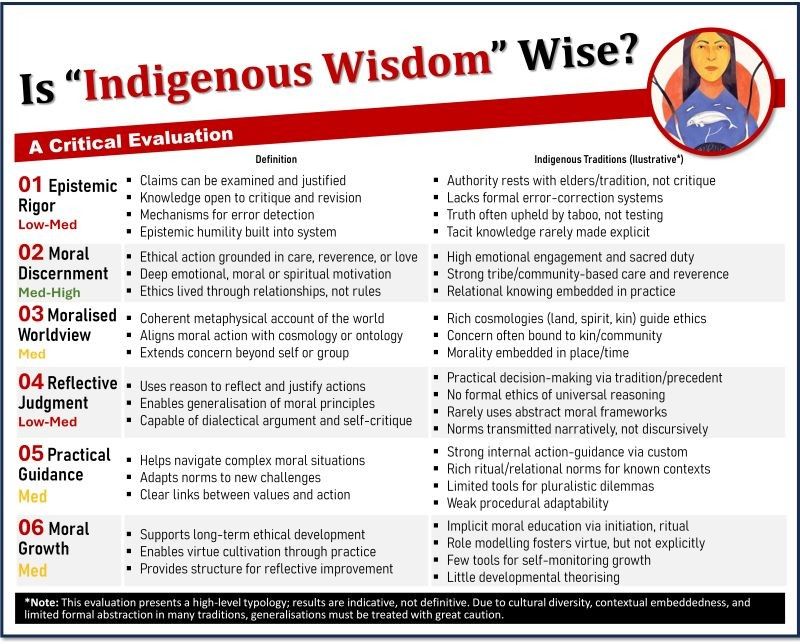

INDIGENOUS WISDOM: Not Always Wise? A Philosophical Provocation
In contemporary discourse, "indigenous wisdom" has become a normative shorthand—invoked in climate policy, education, and leadership as a presumed source of moral insight and ecological harmony. But while this trend may be politically resonant, it is not always philosophically rigorous. The assertion that indigenous traditions constitute moral knowledge—rather than cultural identity or adaptive know-how—requires critical justification.
Wisdom, properly conceived, is not mere survival, nor reverence for land, nor deference to elders. Philosophically and developmentally, wisdom denotes a rare integration of cognitive depth, moral discernment, reflective judgment, dialectical reasoning, and character formation. It requires both universality and critique: the ability to abstract from embedded norms, to transcend given custom, and to generate insight that applies beyond one's own community. On these grounds, not all traditions—indigenous or otherwise—qualify.
A deeper inquiry reveals three uncomfortable truths:
* Some indigenous traditions lack articulated standards of practical wisdom development—such as deliberate training in reflective reasoning, systemic moral error correction, or explicit virtue cultivation comparable to classical eudaimonist frameworks. Wisdom is often inherited, not interrogated.
* Relational ontologies and kincentric cosmologies—while morally suggestive—do not entail normative clarity. The personhood of rivers or the sacredness of land may foster ecological reverence but does not, in itself, generate criteria for justice, moral impartiality, or universal human dignity.
* Some traditions exhibit epistemic opacity: the transmission of knowledge through elders, ritual, or story is rich but resistant to reflective scrutiny, public justification, or normative disagreement. In some cases, this suppresses dissent or embeds exclusionary norms—gender hierarchies, spiritual gatekeeping, or in-group moral boundaries.
This absolutely does not mean indigenous traditions lack value, or that we cannot learn from them. Some exhibit striking parallels to virtue ethics, embodied moral pedagogy, or ecological prudence. But value does not equal wisdom. And wisdom is not proven by age, marginality, or political fashion. It must be "earned"—by meeting the same developmental, epistemological, and normative tests we apply to any system claiming moral authority.
To romanticize is to condescend. To critique is to take seriously.
Indigenous traditions may offer real contributions to a global ethics of flourishing. But that will require us to do something rare: to treat them not as sacrosanct heritage, but as philosophical interlocutors—capable of insight, but also error. Capable of teaching, but also of learning.
Only then can "indigenous wisdom" be more than a slogan. Only then can it be wise.
Reference to an excellent and thought-provoking discussion with >140 comments: https://www.linkedin.com/posts/ottivogt_leadership-philosophy-transformation-activity-7325874099744923648-LyjR?utm_source=share&utm_medium=member_desktop&rcm=ACoAAABm1WMBiwxFaUc1X66gje88odJOEyNAskc
Further resources suggested by Mark D.
- Framework by Ben Zweibelson tying together strategy, phenomenology, Western Philiosophical thought and Indigenous thought: "The wayfinder finds their way in unfamiliar territories by drawing on well-attuned heuristics and a capacity for improvisation to respond to the physical and symbolic dimensions of their surroundings". (written by an Arabian Indigene using the Ben Zweibelson cartography to navigate the Saharan Drift)
- https://www.youtube.com/watch?v=9MflGVbhI-s
- John Boyd, Jason Bourne and David Gulpilil Ridjimiraril Dalaithngu.
INDIGENOUS WISDOM: Not Always Wise? A Philosophical Provocation
In contemporary discourse, "indigenous wisdom" has become a normative shorthand—invoked in climate policy, education, and leadership as a presumed source of moral insight and ecological harmony. But while this trend may be politically resonant, it is not always philosophically rigorous. The assertion that indigenous traditions constitute moral knowledge—rather than cultural identity or adaptive know-how—requires critical justification.
Wisdom, properly conceived, is not mere survival, nor reverence for land, nor deference to elders. Philosophically and developmentally, wisdom denotes a rare integration of cognitive depth, moral discernment, reflective judgment, dialectical reasoning, and character formation. It requires both universality and critique: the ability to abstract from embedded norms, to transcend given custom, and to generate insight that applies beyond one's own community. On these grounds, not all traditions—indigenous or otherwise—qualify.
A deeper inquiry reveals three uncomfortable truths:
* Some indigenous traditions lack articulated standards of practical wisdom development—such as deliberate training in reflective reasoning, systemic moral error correction, or explicit virtue cultivation comparable to classical eudaimonist frameworks. Wisdom is often inherited, not interrogated.
* Relational ontologies and kincentric cosmologies—while morally suggestive—do not entail normative clarity. The personhood of rivers or the sacredness of land may foster ecological reverence but does not, in itself, generate criteria for justice, moral impartiality, or universal human dignity.
* Some traditions exhibit epistemic opacity: the transmission of knowledge through elders, ritual, or story is rich but resistant to reflective scrutiny, public justification, or normative disagreement. In some cases, this suppresses dissent or embeds exclusionary norms—gender hierarchies, spiritual gatekeeping, or in-group moral boundaries.
This absolutely does not mean indigenous traditions lack value, or that we cannot learn from them. Some exhibit striking parallels to virtue ethics, embodied moral pedagogy, or ecological prudence. But value does not equal wisdom. And wisdom is not proven by age, marginality, or political fashion. It must be "earned"—by meeting the same developmental, epistemological, and normative tests we apply to any system claiming moral authority.
To romanticize is to condescend. To critique is to take seriously.
Indigenous traditions may offer real contributions to a global ethics of flourishing. But that will require us to do something rare: to treat them not as sacrosanct heritage, but as philosophical interlocutors—capable of insight, but also error. Capable of teaching, but also of learning.
Only then can "indigenous wisdom" be more than a slogan. Only then can it be wise.
Reference to an excellent and thought-provoking discussion with >140 comments: https://www.linkedin.com/posts/ottivogt_leadership-philosophy-transformation-activity-7325874099744923648-LyjR?utm_source=share&utm_medium=member_desktop&rcm=ACoAAABm1WMBiwxFaUc1X66gje88odJOEyNAskc
Further resources suggested by Mark D.
- Framework by Ben Zweibelson tying together strategy, phenomenology, Western Philiosophical thought and Indigenous thought: "The wayfinder finds their way in unfamiliar territories by drawing on well-attuned heuristics and a capacity for improvisation to respond to the physical and symbolic dimensions of their surroundings". (written by an Arabian Indigene using the Ben Zweibelson cartography to navigate the Saharan Drift)
- https://www.youtube.com/watch?v=9MflGVbhI-s
- John Boyd, Jason Bourne and David Gulpilil Ridjimiraril Dalaithngu.
APR 2025

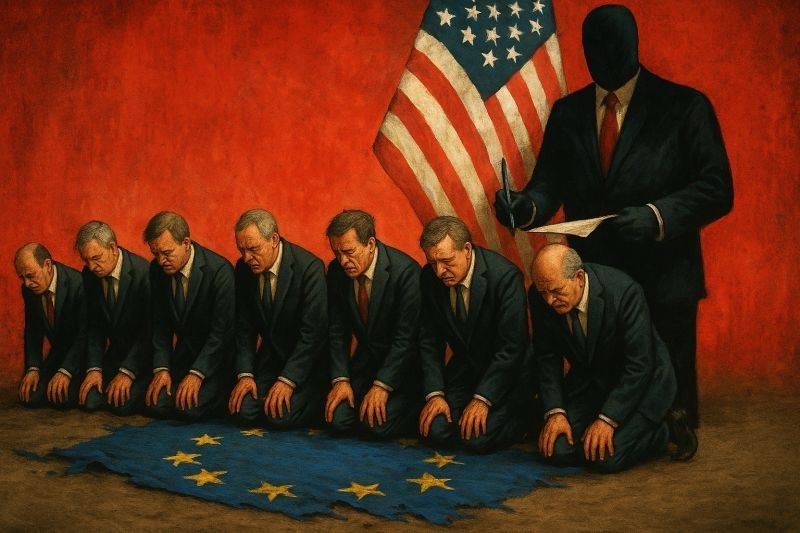

TODAY I'M FEELING ASHAMED
J'accuse — the Cowardice of Europe's Leaders
Today, I am feeling ashamed. Ashamed of the moral hollowness of those who claim to lead us. I’ve just returned from the hashtag#ChangeNOW Summit, where thousands of young entrepreneurs gathered—not with slogans, but with real, determined, practiced hope—for a just future. Yet what I heard in countless conversations left me stunned: when asked to defend Europe’s hard-won environmental protections, or to stand firm against Trump’s reckless crusade to dismantle DEI, the CEOs of Europe’s largest corporations responded not with principle, but with hesitation, calculation, and fear.
I accuse Europe's leadership—not of ignorance, but of cowardice.
You see the truth. You sit in Davos and at COP. You commission reports, hire sustainability officers, tout ESG rankings. You know the science. You know what’s coming—but you don't acknowledge. Because you would rather hide.
You imagine yourselves as leaders of “purpose.” You deliver eloquent town hall speeches, produce glossy green ads, commission diversity pledges. But when a bully in the White House sends a letter demanding your submission—you fold. You cut your programmes. You comply with coercion.
You run institutions with vast capacity—over policy, over resources, over the future of nations. And yet, when threats emerge, when the call comes to lead
—to take a stand, to step into the storm— you act as if your hands are tied.
You hedge. You wait. You protect your share price, your US contracts, your quarterly guidance. You do not rise in defense of dignity, of justice, of the future.
Why? Because you never believed your values were worth fighting for in the first place.
This is not a failure of strategy, but of character. Of seeing the truth and averting the gaze. Of recognizing injustice and refusing to name it. Of knowing what matters, but choosing comfort over conscience.
But no spreadsheet can calculate courage.
No KPI can substitute for moral compass.
You stand at the threshold of history—and choose profit over principle. And in doing so, you stain the integrity of Europe. You betray not only your purpose but the very society that enabled your success.
Justice, when not practiced, is perverted.
Courage, when not chosen, becomes complicity.
This is what it means to be unworthy of power.
We built Europe not just on markets, but on ideals. On the belief that power must be directed toward the common good. That human dignity, freedom, and justice are non-negotiables.
But you—our economic stewards—have become the weakest link.
If you cannot find the moral strength to stand for what is right when it's hard, then step aside. Europe needs visionaries. Defenders of the good. Architects of hope. Stewards of our shared future.
I say this without apology: I am ashamed of you. We will not accept your silence as inevitable.
Europe deserves better. The world demands better. And history will remember who stood—and who knelt.
TODAY I'M FEELING ASHAMED
J'accuse — the Cowardice of Europe's Leaders
Today, I am feeling ashamed. Ashamed of the moral hollowness of those who claim to lead us. I’ve just returned from the hashtag#ChangeNOW Summit, where thousands of young entrepreneurs gathered—not with slogans, but with real, determined, practiced hope—for a just future. Yet what I heard in countless conversations left me stunned: when asked to defend Europe’s hard-won environmental protections, or to stand firm against Trump’s reckless crusade to dismantle DEI, the CEOs of Europe’s largest corporations responded not with principle, but with hesitation, calculation, and fear.
I accuse Europe's leadership—not of ignorance, but of cowardice.
You see the truth. You sit in Davos and at COP. You commission reports, hire sustainability officers, tout ESG rankings. You know the science. You know what’s coming—but you don't acknowledge. Because you would rather hide.
You imagine yourselves as leaders of “purpose.” You deliver eloquent town hall speeches, produce glossy green ads, commission diversity pledges. But when a bully in the White House sends a letter demanding your submission—you fold. You cut your programmes. You comply with coercion.
You run institutions with vast capacity—over policy, over resources, over the future of nations. And yet, when threats emerge, when the call comes to lead
—to take a stand, to step into the storm— you act as if your hands are tied.
You hedge. You wait. You protect your share price, your US contracts, your quarterly guidance. You do not rise in defense of dignity, of justice, of the future.
Why? Because you never believed your values were worth fighting for in the first place.
This is not a failure of strategy, but of character. Of seeing the truth and averting the gaze. Of recognizing injustice and refusing to name it. Of knowing what matters, but choosing comfort over conscience.
But no spreadsheet can calculate courage.
No KPI can substitute for moral compass.
You stand at the threshold of history—and choose profit over principle. And in doing so, you stain the integrity of Europe. You betray not only your purpose but the very society that enabled your success.
Justice, when not practiced, is perverted.
Courage, when not chosen, becomes complicity.
This is what it means to be unworthy of power.
We built Europe not just on markets, but on ideals. On the belief that power must be directed toward the common good. That human dignity, freedom, and justice are non-negotiables.
But you—our economic stewards—have become the weakest link.
If you cannot find the moral strength to stand for what is right when it's hard, then step aside. Europe needs visionaries. Defenders of the good. Architects of hope. Stewards of our shared future.
I say this without apology: I am ashamed of you. We will not accept your silence as inevitable.
Europe deserves better. The world demands better. And history will remember who stood—and who knelt.
APR 2025



LETTING GO IS NOT THE POINT...
Early in my leadership journey, I thought I had to know everything. I was fast, smart, technically excellent. My job was to provide answers, solve problems, demonstrate expertise. Leadership meant being the intellectual authority in the room. Then I got promoted—and that model broke instantly.
Suddenly I had to lead others. My performance was no longer the point—the team's was. So I shifted from knowing the answer to hitting the numbers. OKRs, psychological safety, empathy, engagement scores—I was fluent in the language of outcomes. And I was good at it. But despite all our PIPs and growth conversations, I realized we were neglecting genuine development. The machinery of total achievement had stunted our becoming into programmable authenticity, mine included.
So I let go. I stopped leading. I trained in coaching and facilitation. I learned to hold presence and support autonomy. I empowered, delegated, created space for others to self manage, disrupted performance management. I came to believe leadership itself was the problem—my job was to disappear, create conditions for emergence, and get out of the way.
This felt more human and alive. But I soon began to suspect I’d exchanged one illusion for another. What I had let go of was not power—but responsibility.
Servant leadership promises emancipation, but remains captive to liberalism’s core fiction: that freedom alone leads to progress, and justice will emerge through inclusive participation. But freedom without formation degenerates. We confuse choice with maturity—unguided autonomy breeds vice and eventually demands new forms of control.
That’s the trap: in retreating into facilitation, we abandon the task of formation. Without moral development, organisational freedom defaults to the system’s inherited goals—productivity, share price, performance. The machinery stays intact; only its colour changes. Judgment dissolves into procedure. Empathy becomes the endpoint.
To lead well is not to disappear, but to take responsibility for what our structures enable—who people become within them. Institutions are never neutral; they shape perception, organise aspiration, and reward particular selves. Leadership is not presence or posture—it's a moral office.
It requires designing architectures of potential—systems that cultivate character, wisdom and virtues. And that responsibility extends beyond individuals. Organisations are intermediaries in the moral economy: they shape communities, ecosystems, and the wider society.
Leadership, then, is neither control nor its absence. It is moral mediation—between person and institution, organisation and society, what is and what could be. The point was never to let go, but to lift up: to face the system and its contradictions, imagine its potential, commit to the good, and design the structures through which people and systems grow toward greater flourishing. Not to care less, but to care more.
LETTING GO IS NOT THE POINT...
Early in my leadership journey, I thought I had to know everything. I was fast, smart, technically excellent. My job was to provide answers, solve problems, demonstrate expertise. Leadership meant being the intellectual authority in the room. Then I got promoted—and that model broke instantly.
Suddenly I had to lead others. My performance was no longer the point—the team's was. So I shifted from knowing the answer to hitting the numbers. OKRs, psychological safety, empathy, engagement scores—I was fluent in the language of outcomes. And I was good at it. But despite all our PIPs and growth conversations, I realized we were neglecting genuine development. The machinery of total achievement had stunted our becoming into programmable authenticity, mine included.
So I let go. I stopped leading. I trained in coaching and facilitation. I learned to hold presence and support autonomy. I empowered, delegated, created space for others to self manage, disrupted performance management. I came to believe leadership itself was the problem—my job was to disappear, create conditions for emergence, and get out of the way.
This felt more human and alive. But I soon began to suspect I’d exchanged one illusion for another. What I had let go of was not power—but responsibility.
Servant leadership promises emancipation, but remains captive to liberalism’s core fiction: that freedom alone leads to progress, and justice will emerge through inclusive participation. But freedom without formation degenerates. We confuse choice with maturity—unguided autonomy breeds vice and eventually demands new forms of control.
That’s the trap: in retreating into facilitation, we abandon the task of formation. Without moral development, organisational freedom defaults to the system’s inherited goals—productivity, share price, performance. The machinery stays intact; only its colour changes. Judgment dissolves into procedure. Empathy becomes the endpoint.
To lead well is not to disappear, but to take responsibility for what our structures enable—who people become within them. Institutions are never neutral; they shape perception, organise aspiration, and reward particular selves. Leadership is not presence or posture—it's a moral office.
It requires designing architectures of potential—systems that cultivate character, wisdom and virtues. And that responsibility extends beyond individuals. Organisations are intermediaries in the moral economy: they shape communities, ecosystems, and the wider society.
Leadership, then, is neither control nor its absence. It is moral mediation—between person and institution, organisation and society, what is and what could be. The point was never to let go, but to lift up: to face the system and its contradictions, imagine its potential, commit to the good, and design the structures through which people and systems grow toward greater flourishing. Not to care less, but to care more.
APR 2025



THE PROBLEM ISN’T HIERARCHY—IT’S THE WRONG KIND OF #HIERARCHY
The dream of flat hierarchies is everywhere. From tech start-ups to progressive NGOs, the gospel of horizontalism promises freedom, creativity, and inclusion. Hierarchy, we’re told, is the enemy—code for control, elitism, and oppression. But what if our problem isn’t hierarchy itself, but rather the absence of any real justification for it?
Modern organisations are not dumbed down because they’re too hierarchical. They’re dumbed down because they’ve lost a sense of why hierarchy matters at all. In our rush to flatten structures, we’ve replaced formative authority with procedural equality, apprenticeship with facilitation, and judgment with consensus. We’ve forgotten that real freedom isn’t the absence of structure—it’s being shaped within the right one.
When you remove legitimate hierarchy—one that educates into virtue, models excellence, and transmits wisdom—you don’t get equality. You get entropy. Mediocrity. Or worse: a covert oligarchy of soft power and charisma, where decisions are made by the loudest voices or the most marketable personas.
What organisations need today is not less hierarchy, but better hierarchy—a structure that sees leadership not as control, but as a calling to cultivate the common good. That kind of hierarchy is not static or authoritarian. It’s dynamic, developmental, and just. It recognises excellence not as privilege, but as responsibility. And it allows for the circulation of knowledge and judgment from initiators to the initiated, in a mutual process of learning and growth.
Flatness pretends that everyone is always already equal in wisdom. But real education—and by extension, real organisation—requires trust in a higher learning we do not yet fully grasp. It means accepting guidance from those who have gone before, without surrendering the call to eventually guide others in turn. It means acknowledging that knowledge is not just information or skill, but participation in something more important: the pursuit of what is truly good, not merely what is efficient or consented to.
Today’s cult of flatness reduces organisations to mechanisms of consent and utility, mirroring a liberal culture that has lost faith in truth and virtue. But if we are to revive organisations as communities of purpose, we must recover hierarchy as vocation: a ladder not of power, but of systemic formation.
In a time when leadership is everywhere and wisdom nowhere, we need to re-enchant hierarchy—not abolish it. Not every leader is wise, but every wise community needs leaders. Let us form them. Let us follow them. Let us become them.
THE PROBLEM ISN’T HIERARCHY—IT’S THE WRONG KIND OF #HIERARCHY
The dream of flat hierarchies is everywhere. From tech start-ups to progressive NGOs, the gospel of horizontalism promises freedom, creativity, and inclusion. Hierarchy, we’re told, is the enemy—code for control, elitism, and oppression. But what if our problem isn’t hierarchy itself, but rather the absence of any real justification for it?
Modern organisations are not dumbed down because they’re too hierarchical. They’re dumbed down because they’ve lost a sense of why hierarchy matters at all. In our rush to flatten structures, we’ve replaced formative authority with procedural equality, apprenticeship with facilitation, and judgment with consensus. We’ve forgotten that real freedom isn’t the absence of structure—it’s being shaped within the right one.
When you remove legitimate hierarchy—one that educates into virtue, models excellence, and transmits wisdom—you don’t get equality. You get entropy. Mediocrity. Or worse: a covert oligarchy of soft power and charisma, where decisions are made by the loudest voices or the most marketable personas.
What organisations need today is not less hierarchy, but better hierarchy—a structure that sees leadership not as control, but as a calling to cultivate the common good. That kind of hierarchy is not static or authoritarian. It’s dynamic, developmental, and just. It recognises excellence not as privilege, but as responsibility. And it allows for the circulation of knowledge and judgment from initiators to the initiated, in a mutual process of learning and growth.
Flatness pretends that everyone is always already equal in wisdom. But real education—and by extension, real organisation—requires trust in a higher learning we do not yet fully grasp. It means accepting guidance from those who have gone before, without surrendering the call to eventually guide others in turn. It means acknowledging that knowledge is not just information or skill, but participation in something more important: the pursuit of what is truly good, not merely what is efficient or consented to.
Today’s cult of flatness reduces organisations to mechanisms of consent and utility, mirroring a liberal culture that has lost faith in truth and virtue. But if we are to revive organisations as communities of purpose, we must recover hierarchy as vocation: a ladder not of power, but of systemic formation.
In a time when leadership is everywhere and wisdom nowhere, we need to re-enchant hierarchy—not abolish it. Not every leader is wise, but every wise community needs leaders. Let us form them. Let us follow them. Let us become them.
APR 2025



LIBERALISM DID NOT FAIL—IT SUCCEEDED: THE ONTOLOGICAL NECESSITY OF OUR POST-MODERN METACRISIS
At the core of liberal modernity lies a metaphysical crisis—a denial of transcendence that generates an ontological vacuum. Liberalism, shaped by the nominalism of Ockham and the voluntarism of Duns Scotus, displaces the classical metaphysics of participation with a logic of univocity and individual abstraction. Where the Christian-Neoplatonic tradition once grounded being in the analogical participation of all things in the divine Good, liberal ontology reconfigures substance as self-contained, prior to relation, and thus severs the constitutive bonds of interdependence and teleological order. In this metaphysical inversion, the self becomes an autonomous centre of will, no longer embedded in a meaningful hierarchy of goods or oriented to transcendent ends.
As Adrian Pabst shows, this disembedding generates nihilism by metaphysical necessity. Without a shared transcendent Good, difference no longer reflects analogical likeness but dissolves into either atomised multiplicity or totalising sameness. The rejection of formal and final causality eliminates the intelligibility of being, reducing reality to brute facts (positivism) or arbitrary assertions (voluntarism). Ethics collapses into proceduralism, emotivism, or utilitarian calculation. Politics detaches from virtue and the common good, devolving into managerial technocracy or sovereign imposition. The human person, abstracted from a telos, is redefined through a Hobbesian anthropology of fear and conflict, necessitating artificial order through coercive apparatuses—be it state or market.
This ontological defect has cascading consequences. Moral agency is severed from the structure of being; freedom becomes non-relation, and rationality collapses into instrumentality. Law displaces justice, contract replaces reciprocity, and autonomy nullifies dependence. Institutions built on this metaphysic cannot sustain solidarity, because there is no longer any intelligible good held in common. Rights become procedural claims devoid of substance; citizenship reduces to access; deliberation to negotiation between incommensurables. Educational forms detach from paideia, becoming credentialist delivery mechanisms for economic mobility rather than formation in judgment. Economic life becomes axiologically flat: labour is commodified, finance abstracted, growth unmoored from any hierarchy of goods. Culture dissolves into expressive individualism without normative horizons. Global governance, built on these axioms, becomes both imperial and impotent: unable to represent plural goods, yet imposing a universalism without content.
Liberalism does not fail by corruption from without but by metaphysical entropy within: it ungrounds value, dissolves form, and negates the possibility of a shared moral reality.
Liberalism does not collapse because it fails; it collapses because it is succeeding
LIBERALISM DID NOT FAIL—IT SUCCEEDED: THE ONTOLOGICAL NECESSITY OF OUR POST-MODERN METACRISIS
At the core of liberal modernity lies a metaphysical crisis—a denial of transcendence that generates an ontological vacuum. Liberalism, shaped by the nominalism of Ockham and the voluntarism of Duns Scotus, displaces the classical metaphysics of participation with a logic of univocity and individual abstraction. Where the Christian-Neoplatonic tradition once grounded being in the analogical participation of all things in the divine Good, liberal ontology reconfigures substance as self-contained, prior to relation, and thus severs the constitutive bonds of interdependence and teleological order. In this metaphysical inversion, the self becomes an autonomous centre of will, no longer embedded in a meaningful hierarchy of goods or oriented to transcendent ends.
As Adrian Pabst shows, this disembedding generates nihilism by metaphysical necessity. Without a shared transcendent Good, difference no longer reflects analogical likeness but dissolves into either atomised multiplicity or totalising sameness. The rejection of formal and final causality eliminates the intelligibility of being, reducing reality to brute facts (positivism) or arbitrary assertions (voluntarism). Ethics collapses into proceduralism, emotivism, or utilitarian calculation. Politics detaches from virtue and the common good, devolving into managerial technocracy or sovereign imposition. The human person, abstracted from a telos, is redefined through a Hobbesian anthropology of fear and conflict, necessitating artificial order through coercive apparatuses—be it state or market.
This ontological defect has cascading consequences. Moral agency is severed from the structure of being; freedom becomes non-relation, and rationality collapses into instrumentality. Law displaces justice, contract replaces reciprocity, and autonomy nullifies dependence. Institutions built on this metaphysic cannot sustain solidarity, because there is no longer any intelligible good held in common. Rights become procedural claims devoid of substance; citizenship reduces to access; deliberation to negotiation between incommensurables. Educational forms detach from paideia, becoming credentialist delivery mechanisms for economic mobility rather than formation in judgment. Economic life becomes axiologically flat: labour is commodified, finance abstracted, growth unmoored from any hierarchy of goods. Culture dissolves into expressive individualism without normative horizons. Global governance, built on these axioms, becomes both imperial and impotent: unable to represent plural goods, yet imposing a universalism without content.
Liberalism does not fail by corruption from without but by metaphysical entropy within: it ungrounds value, dissolves form, and negates the possibility of a shared moral reality.
Liberalism does not collapse because it fails; it collapses because it is succeeding
APR 2025
THE TYRANNY OF RADICAL TRANSPARENCY
Greater transparency sounds nice in theory: open communication, shared decisions, and the promise of decentralized power. But let’s not be fooled—the fetishization of total visibility often leaves us more trapped than liberated.
In many self-management movements, radical transparency is touted as the gateway to autonomy. But more often than not, it has the opposite effect. Instead of freeing individuals from top-down hierarchy, it forces them to internalize the relentless pressure of constant surveillance and perpetual judgment. In a world where everything is visible, people are pushed to perform—forever optimizing, calculating, and justifying their worth through metrics.
The issue isn’t transparency itself; it’s the false belief that visibility will inherently lead to better decision-making. What’s really at play is the creation of a system where people are coerced into internalizing controls, constantly seeking approval under the guise of “shared accountability.” It’s hustle culture in disguise, where every move is scrutinized in the name of efficiency and progress.
Radical transparency might make you *feel* like you’re a part of something open and collaborative, but too often it just becomes a mechanism to re-shackle you to the very forces you're trying to escape.
True freedom doesn’t come from the mere removal of bosses. It comes from the establishment of ethical decision-making that transcends the narrow logic of efficiency and profit-maximization.
The goal isn’t just decentralization; it’s emancipation—freedom from the endless treadmill of instrumental rationality in order to develop shared excellence.
THE TYRANNY OF RADICAL TRANSPARENCY
Greater transparency sounds nice in theory: open communication, shared decisions, and the promise of decentralized power. But let’s not be fooled—the fetishization of total visibility often leaves us more trapped than liberated.
In many self-management movements, radical transparency is touted as the gateway to autonomy. But more often than not, it has the opposite effect. Instead of freeing individuals from top-down hierarchy, it forces them to internalize the relentless pressure of constant surveillance and perpetual judgment. In a world where everything is visible, people are pushed to perform—forever optimizing, calculating, and justifying their worth through metrics.
The issue isn’t transparency itself; it’s the false belief that visibility will inherently lead to better decision-making. What’s really at play is the creation of a system where people are coerced into internalizing controls, constantly seeking approval under the guise of “shared accountability.” It’s hustle culture in disguise, where every move is scrutinized in the name of efficiency and progress.
Radical transparency might make you *feel* like you’re a part of something open and collaborative, but too often it just becomes a mechanism to re-shackle you to the very forces you're trying to escape.
True freedom doesn’t come from the mere removal of bosses. It comes from the establishment of ethical decision-making that transcends the narrow logic of efficiency and profit-maximization.
The goal isn’t just decentralization; it’s emancipation—freedom from the endless treadmill of instrumental rationality in order to develop shared excellence.
APR 2025



I'M NOT NETWORKING.
To "network" is to reduce human encounter to instrumental exchange—abstracting relationships into contracts, collapsing mutual presence into transactional utility.
This is the social logic of liberal individualism: a world where people become nodes, contacts become capital, and value is reduced to extraction. This isn’t community; it’s the market colonizing human connection.
I’m not building a network. I’m cultivating real relationships.
* "To build a relationship is to refuse the commodification of human presence." — Martha Nussbaum
* "The deepest form of human connection is not one of exchange, but of shared presence." — Charles Taylor
Take, for example, a proper conversation with someone you encounter at an event—one not driven by what they can offer you, but by the shared commitment to something greater: a cause, a common purpose, or simply the dignity and joy of the encounter itself.
* "The true value of a person lies not in what they can offer, but in who they are." — Alasdair MacIntyre
* "A person is not a tool to be used; they are a fellow traveler on a shared journey." — Miroslav Volf
It’s not about instrumentalising the other. It's not about leveraging time or access. It’s about offering presence, human depth and vulnerability.
I’m not building a network. I’m building a fabric—of attention, of obligation, of reciprocity. Not alliances of convenience, but bonds of trust that resist commodification.
* "Networking is a market; genuine connection is a home." — Zygmunt Bauman
* "What we need today is not more networking, but more authentic community." — Catherine Keller
Relationships aren’t mere networks or transactions—they are the foundation of our shared humanity. More than just links between individuals, they embody the essence of civil life, and a collective commitment to the common good
APR 2025



The ongoing blockade of Gaza is a gross violation of international law and an unjust assault on the civilian population. It has caused immense suffering to over two million people, depriving them of basic human necessities like food, medicine, fuel, and access to vital services. Under both International Humanitarian Law (IHL) and Just War Theory, Israel’s actions are not only illegal but morally indefensible.
Violation of International Humanitarian Law (IHL)
1. Collective Punishment: Israel’s blockade constitutes collective punishment, which is strictly prohibited under Article 33 of the Fourth Geneva Convention. This principle forbids the punishment of entire populations for the actions of a few. The blockade impacts civilians indiscriminately, punishing all of Gaza’s population for the actions of Hamas.
2. Proportionality: IHL demands that any military action, including a blockade, must be proportional to the intended military objectives. The severe deprivation imposed on Gaza's population—widespread malnutrition, lack of medical care, and destruction of critical infrastructure—far exceeds any legitimate military gain. The blockade is disproportionately harming civilians without effectively targeting the military threat it purports to address. This is a clear violation of Additional Protocol I, Article 51, which mandates that the harm to civilians must not outweigh the military advantage.
3. Obligation to Allow Humanitarian Aid: Israel is legally obligated to allow and facilitate the passage of humanitarian aid to Gaza’s civilian population. The blockade restricts essential goods such as food, medicines, and fuel, violating Article 23 of the Fourth Geneva Convention. This denial of aid exacerbates the already dire humanitarian situation in Gaza.
Failure of Just War Theory (JWT)
1. Discrimination: According to JWT, military actions must distinguish between combatants and non-combatants. The blockade is indiscriminate, punishing civilians rather than targeting Hamas and other military forces.
2. Proportionality: Just War Theory requires that military actions must not cause disproportionate harm. The suffering caused by the blockade, including widespread humanitarian crisis, is far out of proportion to the security benefits claimed by Israel.
3. Last Resort: JWT insists that force should only be used after all peaceful alternatives have been exhausted. There is no evidence that Israel has explored or exhausted diplomatic solutions before resorting to the widespread suffering imposed by the blockade.
The blockade on Gaza is a clear violation of both IHL and JWT, and it must end immediately. The international community has a responsibility to hold Israel accountable and demand the unimpeded flow of humanitarian aid into Gaza. We cannot allow the suffering of innocent civilians to continue.
The ongoing blockade of Gaza is a gross violation of international law and an unjust assault on the civilian population. It has caused immense suffering to over two million people, depriving them of basic human necessities like food, medicine, fuel, and access to vital services. Under both International Humanitarian Law (IHL) and Just War Theory, Israel’s actions are not only illegal but morally indefensible.
Violation of International Humanitarian Law (IHL)
1. Collective Punishment: Israel’s blockade constitutes collective punishment, which is strictly prohibited under Article 33 of the Fourth Geneva Convention. This principle forbids the punishment of entire populations for the actions of a few. The blockade impacts civilians indiscriminately, punishing all of Gaza’s population for the actions of Hamas.
2. Proportionality: IHL demands that any military action, including a blockade, must be proportional to the intended military objectives. The severe deprivation imposed on Gaza's population—widespread malnutrition, lack of medical care, and destruction of critical infrastructure—far exceeds any legitimate military gain. The blockade is disproportionately harming civilians without effectively targeting the military threat it purports to address. This is a clear violation of Additional Protocol I, Article 51, which mandates that the harm to civilians must not outweigh the military advantage.
3. Obligation to Allow Humanitarian Aid: Israel is legally obligated to allow and facilitate the passage of humanitarian aid to Gaza’s civilian population. The blockade restricts essential goods such as food, medicines, and fuel, violating Article 23 of the Fourth Geneva Convention. This denial of aid exacerbates the already dire humanitarian situation in Gaza.
Failure of Just War Theory (JWT)
1. Discrimination: According to JWT, military actions must distinguish between combatants and non-combatants. The blockade is indiscriminate, punishing civilians rather than targeting Hamas and other military forces.
2. Proportionality: Just War Theory requires that military actions must not cause disproportionate harm. The suffering caused by the blockade, including widespread humanitarian crisis, is far out of proportion to the security benefits claimed by Israel.
3. Last Resort: JWT insists that force should only be used after all peaceful alternatives have been exhausted. There is no evidence that Israel has explored or exhausted diplomatic solutions before resorting to the widespread suffering imposed by the blockade.
The blockade on Gaza is a clear violation of both IHL and JWT, and it must end immediately. The international community has a responsibility to hold Israel accountable and demand the unimpeded flow of humanitarian aid into Gaza. We cannot allow the suffering of innocent civilians to continue.
APR 2025



WHEN THE PEOPLE FEAR THEIR GOVERNMENT, TYRANNY IS THERE.
That more than 400 of America’s colleges and universities have found it necessary to speak in a *unified voice* against federal overreach is not a sign of resilience. It is a siren. It reveals that the United States has already crossed the threshold from democracy into authoritarianism.
This is not a partisan squabble. When institutions as ideologically diverse as Ivy League universities, state colleges, and community campuses must rise together to shield themselves from government coercion, it is because the state has turned hostile to the very idea of independent thought.
Their letter is clear-eyed: they are not rejecting accountability, but resisting “undue government intrusion”—a euphemism for what is, in truth, a full-scale political siege. Freezing research funds. Politicizing curricula. Imposing loyalty tests. Threatening deportation. These are not tools of reform—they are weapons of repression.
This has happened before only in the margins of history. During McCarthyism, during Nixon’s paranoid crusades, the state tested the boundaries of academic freedom. But never in living memory has the entirety of American higher education stood in open defiance to the presidency itself. This is unprecedented not because of its novelty—but because of its necessity.
The founding fathers saw this coming. James Madison wrote that “the accumulation of all powers, legislative, executive, and judiciary, in the same hands... may justly be pronounced the very definition of tyranny.” Thomas Jefferson warned, “When the people fear the government, there is tyranny.” Today, universities fear the government—and justly so.
This isn’t a crisis waiting to happen. It *has happened*. The Trump administration’s war on education is not just an attack on a policy sector—it is a strike against the very architecture of a free society. When knowledge is controlled, inquiry punished, and truth manipulated at the source, what remains is not a republic, but a shell.
The mobilization of the academy is not a political protest. It is a last line of defense. If it falls, the rest of civil society won’t be far behind.
Related to post by Eric Orts, Professor at Wharton/Penn: https://www.linkedin.com/feed/update/urn:li:activity:7322227812466114560/?lipi=urn%3Ali%3Apage%3Ad_flagship3_profile_view_base_recent_activity_content_view%3BUKX5mgiXScK3BSmtm8WNnw%3D%3D
WHEN THE PEOPLE FEAR THEIR GOVERNMENT, TYRANNY IS THERE.
That more than 400 of America’s colleges and universities have found it necessary to speak in a *unified voice* against federal overreach is not a sign of resilience. It is a siren. It reveals that the United States has already crossed the threshold from democracy into authoritarianism.
This is not a partisan squabble. When institutions as ideologically diverse as Ivy League universities, state colleges, and community campuses must rise together to shield themselves from government coercion, it is because the state has turned hostile to the very idea of independent thought.
Their letter is clear-eyed: they are not rejecting accountability, but resisting “undue government intrusion”—a euphemism for what is, in truth, a full-scale political siege. Freezing research funds. Politicizing curricula. Imposing loyalty tests. Threatening deportation. These are not tools of reform—they are weapons of repression.
This has happened before only in the margins of history. During McCarthyism, during Nixon’s paranoid crusades, the state tested the boundaries of academic freedom. But never in living memory has the entirety of American higher education stood in open defiance to the presidency itself. This is unprecedented not because of its novelty—but because of its necessity.
The founding fathers saw this coming. James Madison wrote that “the accumulation of all powers, legislative, executive, and judiciary, in the same hands... may justly be pronounced the very definition of tyranny.” Thomas Jefferson warned, “When the people fear the government, there is tyranny.” Today, universities fear the government—and justly so.
This isn’t a crisis waiting to happen. It *has happened*. The Trump administration’s war on education is not just an attack on a policy sector—it is a strike against the very architecture of a free society. When knowledge is controlled, inquiry punished, and truth manipulated at the source, what remains is not a republic, but a shell.
The mobilization of the academy is not a political protest. It is a last line of defense. If it falls, the rest of civil society won’t be far behind.
Related to post by Eric Orts, Professor at Wharton/Penn: https://www.linkedin.com/feed/update/urn:li:activity:7322227812466114560/?lipi=urn%3Ali%3Apage%3Ad_flagship3_profile_view_base_recent_activity_content_view%3BUKX5mgiXScK3BSmtm8WNnw%3D%3D
APR 2025

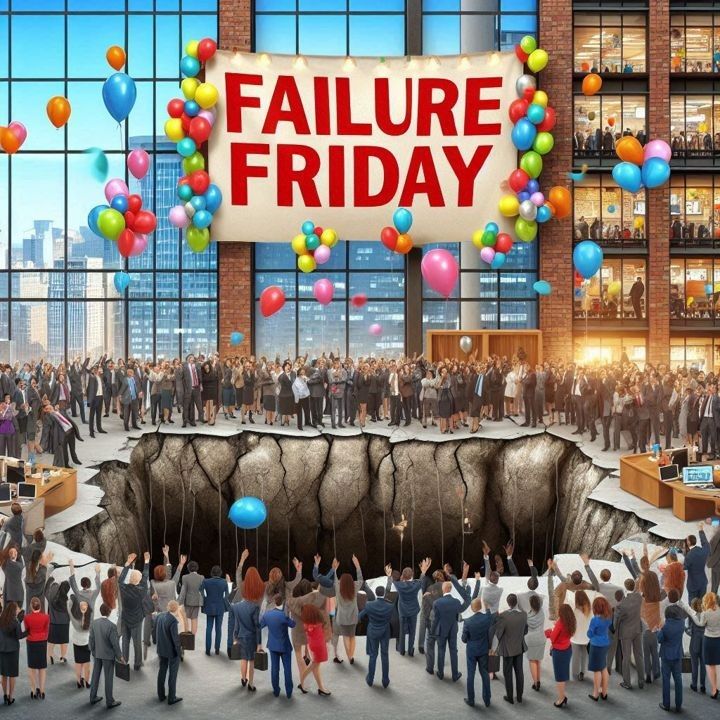

When Celebrating Failure Becomes Celebrating Foolishness
The contemporary glorification of failure — captured in slogans like “fail fast, fail forward” — has long since outgrown its origin as a call for intelligent risk-taking. It has become a hollow ritual that mistakes disruption for development, noise for knowledge, and volume of experimentation for depth of insight.
Amy Edmondson’s Right Kind of Wrong reminds us that failure is not a virtue in itself. Only failures arising from disciplined, hypothesis-driven exploration — what she terms "intelligent failures" — advance understanding. Without rigorous hypotheses, thoughtful design, and a commitment to extracting meaning from setbacks, failure ceases to be formative. It becomes a fashionable "F*ckup Friday" that often masks incompetence or structural irresponsibility.
Yet Amy’s epistemic critique only scratches the surface. The deeper issue is not that failure culture is scientifically fragile, but that it is morally disoriented.
At the heart of all human practice lies the pursuit of telos — an end that is rooted in the nature of the activity itself. Aristotle’s vision of flourishing rests on the idea that excellence consists in fulfilling work through practical wisdom; not about iterating blindly through trial and error. It is about discerning the good internal to a practice and aligning one's means and ends accordingly.
Failure is not simply an absence of success. To do something wrong is also to do something badly. It is a deviation from the work of virtue — a symptom that the action has missed its aim, either through ignorance, negligence, or distortion of purpose. To "celebrate failure" indiscriminately is to obscure the ethical structure of work. It is to conflate acts that fall short because they stretch the limits of knowledge with acts that fall short because they betray the integrity of the task.
When organisations elevate failure itself as an ideal, they valorise creativity without asking whether the creation serves anything other than speed, profit or novelty. Failure becomes less a teacher of wisdom than a shield against accountability.
True learning — like true flourishing — demands more. Virtuous failure, like virtuous action, presupposes a clarity of ends, a deliberateness of means, and a humility before the complexity of the good. It demands moral scaffolding: governance structures and leadership that foster the conditions for genuine excellence to emerge. It demands communal inquiry: spaces where errors are not celebrated superficially, but where everybody engages critically in interpreting what went wrong, why it matters, and how the pursuit of the good must be recalibrated.
Above all, it demands a recognition that failure is not the goal. Neither in the life of an organisation nor in the life of a person is failure to be sought for its own sake. The goal is to act rightly — and where we fall short, to rise wiser.
When Celebrating Failure Becomes Celebrating Foolishness
The contemporary glorification of failure — captured in slogans like “fail fast, fail forward” — has long since outgrown its origin as a call for intelligent risk-taking. It has become a hollow ritual that mistakes disruption for development, noise for knowledge, and volume of experimentation for depth of insight.
Amy Edmondson’s Right Kind of Wrong reminds us that failure is not a virtue in itself. Only failures arising from disciplined, hypothesis-driven exploration — what she terms "intelligent failures" — advance understanding. Without rigorous hypotheses, thoughtful design, and a commitment to extracting meaning from setbacks, failure ceases to be formative. It becomes a fashionable "F*ckup Friday" that often masks incompetence or structural irresponsibility.
Yet Amy’s epistemic critique only scratches the surface. The deeper issue is not that failure culture is scientifically fragile, but that it is morally disoriented.
At the heart of all human practice lies the pursuit of telos — an end that is rooted in the nature of the activity itself. Aristotle’s vision of flourishing rests on the idea that excellence consists in fulfilling work through practical wisdom; not about iterating blindly through trial and error. It is about discerning the good internal to a practice and aligning one's means and ends accordingly.
Failure is not simply an absence of success. To do something wrong is also to do something badly. It is a deviation from the work of virtue — a symptom that the action has missed its aim, either through ignorance, negligence, or distortion of purpose. To "celebrate failure" indiscriminately is to obscure the ethical structure of work. It is to conflate acts that fall short because they stretch the limits of knowledge with acts that fall short because they betray the integrity of the task.
When organisations elevate failure itself as an ideal, they valorise creativity without asking whether the creation serves anything other than speed, profit or novelty. Failure becomes less a teacher of wisdom than a shield against accountability.
True learning — like true flourishing — demands more. Virtuous failure, like virtuous action, presupposes a clarity of ends, a deliberateness of means, and a humility before the complexity of the good. It demands moral scaffolding: governance structures and leadership that foster the conditions for genuine excellence to emerge. It demands communal inquiry: spaces where errors are not celebrated superficially, but where everybody engages critically in interpreting what went wrong, why it matters, and how the pursuit of the good must be recalibrated.
Above all, it demands a recognition that failure is not the goal. Neither in the life of an organisation nor in the life of a person is failure to be sought for its own sake. The goal is to act rightly — and where we fall short, to rise wiser.
APR 2025

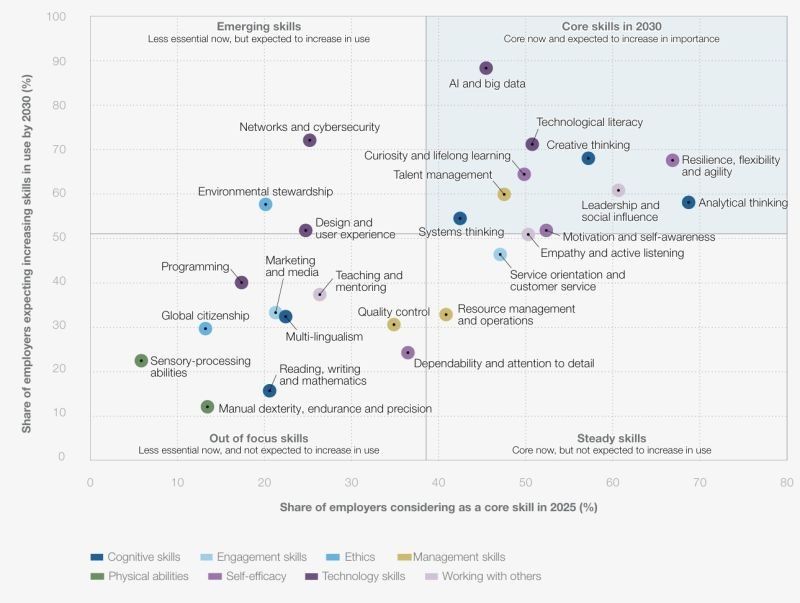

Descriptive Sciences Cannot Answer Normative Questions. Full Stop.
I keep seeing posts about the “future of work” that seem to follow a familiar pattern: start with a set of descriptive statistics—often presented with scientific-looking scatterplots—then leap to sweeping normative claims about what workers *should* become like and which skills we must urgently acquire.
This Interesting post - randomly picked (and not implying any ad hominem critique whatsoever) - fits the mold. Backed by data that appears authoritative, it argues that psychological traits like resilience, adaptability, and even “critical thinking” are the key skills we need to cultivate in order to embrace the future of work.
But of course this immediately raises a deeper issue: what type of future do we need? What type of work SHOULD we have in the future? What makes life at work good?
Descriptive sciences like psychology can offer insights into patterns of behavior, but they’re not equipped to answer normative questions—like what kind of activities we should value (beyond the usual inquiry into subjective satisfaction levels or "normal" levels of psychological functioning), what goals we ought to prioritize, or what kind of society we want to build. When we frame the conversation solely in terms of psychological adaptability, we risk naturalizing the current trajectory of work as inevitable—rather than interrogating it.
And ironically, even “critical thinking” gets often rebranded here as an individual psychological capacity, rather than what it actually is: a philosophical, dialectical and moral one—the ability to question frames, challenge assumptions, and reflect on the values driving our systems.
The future of work deserves more than a regression line and a self-help framework. It needs critical, interdisciplinary thinking that can engage both data and ethics.
Psychology can certainly play a supportive role—if it moves beyond the confines of narrow American ego psychology—but it should never replace philosophical inquiry.
Originally triggered by: https://www.linkedin.com/feed/update/urn:li:activity:7321038956949659649/?lipi=urn%3Ali%3Apage%3Ad_flagship3_profile_view_base_recent_activity_content_view%3BUKX5mgiXScK3BSmtm8WNnw%3D%3D
Descriptive Sciences Cannot Answer Normative Questions. Full Stop.
I keep seeing posts about the “future of work” that seem to follow a familiar pattern: start with a set of descriptive statistics—often presented with scientific-looking scatterplots—then leap to sweeping normative claims about what workers *should* become like and which skills we must urgently acquire.
This Interesting post - randomly picked (and not implying any ad hominem critique whatsoever) - fits the mold. Backed by data that appears authoritative, it argues that psychological traits like resilience, adaptability, and even “critical thinking” are the key skills we need to cultivate in order to embrace the future of work.
But of course this immediately raises a deeper issue: what type of future do we need? What type of work SHOULD we have in the future? What makes life at work good?
Descriptive sciences like psychology can offer insights into patterns of behavior, but they’re not equipped to answer normative questions—like what kind of activities we should value (beyond the usual inquiry into subjective satisfaction levels or "normal" levels of psychological functioning), what goals we ought to prioritize, or what kind of society we want to build. When we frame the conversation solely in terms of psychological adaptability, we risk naturalizing the current trajectory of work as inevitable—rather than interrogating it.
And ironically, even “critical thinking” gets often rebranded here as an individual psychological capacity, rather than what it actually is: a philosophical, dialectical and moral one—the ability to question frames, challenge assumptions, and reflect on the values driving our systems.
The future of work deserves more than a regression line and a self-help framework. It needs critical, interdisciplinary thinking that can engage both data and ethics.
Psychology can certainly play a supportive role—if it moves beyond the confines of narrow American ego psychology—but it should never replace philosophical inquiry.
Originally triggered by: https://www.linkedin.com/feed/update/urn:li:activity:7321038956949659649/?lipi=urn%3Ali%3Apage%3Ad_flagship3_profile_view_base_recent_activity_content_view%3BUKX5mgiXScK3BSmtm8WNnw%3D%3D
APR 2025

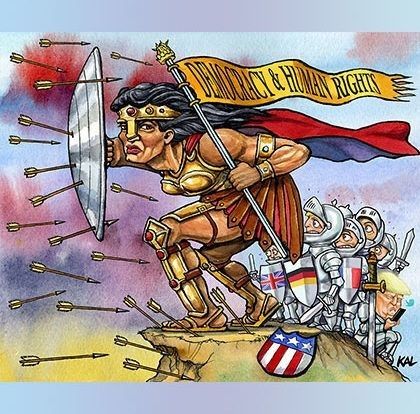

Freedom Demands Responsibility: How We Forgot Democracy Was a Struggle
The democratic project has grown fragile, not because it failed, but because we forgot it was a struggle. Since the fall of communism, democracy has become natural, obvious, hollowed out into an administrative (in)convenience, a background hum of “governance.”
What once was a battleground of ideals has become a market of preferences.
But fundamentally democracy is about freedom. And true freedom isn’t about having rights in isolation. It’s not an escape into self-interest or the luxury of detachment. True freedom is reciprocal. It is social. It is collective.
The myth of “negative freedom” — freedom from obligations, from the other — is always weaponized by the powerful. It becomes a mask for exploitation, justified by merit, talent, “freedom of contract,” or “market efficiency.” But none of these can excuse abandoning the vulnerable.
If we truly value freedom, we must ask: how do we nurture the responsibility for democracy in those who have never had the experience to lose theirs?
How do we help people see that today’s totalitarianism doesn’t march in uniform, but creeps in quietly, softly, with elegant rhetoric — through the silent concentration of power, wealth, and resources in the hands of a privileged few?
How do we keep alive a fire of resistance — not just in policy, but in every mirror, in every institution, in every classroom, street corner, and boardroom?
We need to repoliticize the agora. Reignite the public space. Bring passion back into what we’ve let become procedural.
The most urgent task of our time is to reclaim freedom not as individual escape, but as shared responsibility. The fire of shared and higher ideals must burn again.
Freedom Demands Responsibility: How We Forgot Democracy Was a Struggle
The democratic project has grown fragile, not because it failed, but because we forgot it was a struggle. Since the fall of communism, democracy has become natural, obvious, hollowed out into an administrative (in)convenience, a background hum of “governance.”
What once was a battleground of ideals has become a market of preferences.
But fundamentally democracy is about freedom. And true freedom isn’t about having rights in isolation. It’s not an escape into self-interest or the luxury of detachment. True freedom is reciprocal. It is social. It is collective.
The myth of “negative freedom” — freedom from obligations, from the other — is always weaponized by the powerful. It becomes a mask for exploitation, justified by merit, talent, “freedom of contract,” or “market efficiency.” But none of these can excuse abandoning the vulnerable.
If we truly value freedom, we must ask: how do we nurture the responsibility for democracy in those who have never had the experience to lose theirs?
How do we help people see that today’s totalitarianism doesn’t march in uniform, but creeps in quietly, softly, with elegant rhetoric — through the silent concentration of power, wealth, and resources in the hands of a privileged few?
How do we keep alive a fire of resistance — not just in policy, but in every mirror, in every institution, in every classroom, street corner, and boardroom?
We need to repoliticize the agora. Reignite the public space. Bring passion back into what we’ve let become procedural.
The most urgent task of our time is to reclaim freedom not as individual escape, but as shared responsibility. The fire of shared and higher ideals must burn again.
APR 2025
Food Sovereignty vs. Food Security: Perhaps the Deconstruction of USAID Can Help Decolonize the System
U.S. foreign aid, particularly through the U.S. Agency for International Development (USAID), has been harshly critiqued as a modern instrument of neocolonialism. While often presented as humanitarian assistance, it has been convincingly argued that this aid serves to perpetuate dependency, manipulate political landscapes, and advance U.S. strategic interests.
During the Cold War, USAID was deployed to counter Soviet influence in newly independent African nations. In countries like Ghana, Guinea, and the Congo, aid was conditioned on alignment with Western capitalist models, often at the expense of socialist-leaning policies favored by local leaders. This approach not only redirected domestic agendas but also entrenched a patron-client dynamic in which recipient nations remained economically and politically tethered to the U.S.
Critics argue that U.S. aid fosters dependency rather than sustainable development. Programs often require the purchase of American goods and services, redirecting funds back to the U.S. and limiting economic benefits to recipient countries. Free food imports displace local agricultural production, while shifts from indigenous crops to export-oriented varieties harm ecosystems, reduce biointegrity, increase pollution, and make countries reliant on volatile trade networks. Additionally, high-interest loans deepen debt burdens, diverting resources away from essential services and infrastructure.
The imposition of Western development models can also erode local cultures and institutions. Initiatives like the "Play Pump" in Africa—intended to combine water access with children’s play—failed to reflect community needs, resulting in ineffective and even harmful outcomes. Aid agencies often prioritize institutional survival over genuine development, reinforcing a cycle of dependency.
In Mali, foreign aid earmarked for development has been misappropriated, fueling corruption and political instability. Funds have been used to empower specific ethnic groups, worsening internal conflict and undermining the supposed humanitarian mission.
While U.S. foreign aid still carries the potential to support development, its current structure too often reinforces neocolonial patterns. Ironically, the downsizing of USAID might offer an unexpected positive outcome: weakening a persistent neocolonial system that enables U.S. and global exploitation. This shift could open space for more authentic development—centered on empowering local communities and insisting not on food security for Western interests, but on global food sovereignty rooted in justice, autonomy, and ecological balance.
Colonial Economics: https://standrewseconomist.com/2021/02/24/colonial-economics-the-abuse-of-aid-in-africa/?utm_source=chatgpt.com
Food Sovereignty vs. Food Security: Perhaps the Deconstruction of USAID Can Help Decolonize the System
U.S. foreign aid, particularly through the U.S. Agency for International Development (USAID), has been harshly critiqued as a modern instrument of neocolonialism. While often presented as humanitarian assistance, it has been convincingly argued that this aid serves to perpetuate dependency, manipulate political landscapes, and advance U.S. strategic interests.
During the Cold War, USAID was deployed to counter Soviet influence in newly independent African nations. In countries like Ghana, Guinea, and the Congo, aid was conditioned on alignment with Western capitalist models, often at the expense of socialist-leaning policies favored by local leaders. This approach not only redirected domestic agendas but also entrenched a patron-client dynamic in which recipient nations remained economically and politically tethered to the U.S.
Critics argue that U.S. aid fosters dependency rather than sustainable development. Programs often require the purchase of American goods and services, redirecting funds back to the U.S. and limiting economic benefits to recipient countries. Free food imports displace local agricultural production, while shifts from indigenous crops to export-oriented varieties harm ecosystems, reduce biointegrity, increase pollution, and make countries reliant on volatile trade networks. Additionally, high-interest loans deepen debt burdens, diverting resources away from essential services and infrastructure.
The imposition of Western development models can also erode local cultures and institutions. Initiatives like the "Play Pump" in Africa—intended to combine water access with children’s play—failed to reflect community needs, resulting in ineffective and even harmful outcomes. Aid agencies often prioritize institutional survival over genuine development, reinforcing a cycle of dependency.
In Mali, foreign aid earmarked for development has been misappropriated, fueling corruption and political instability. Funds have been used to empower specific ethnic groups, worsening internal conflict and undermining the supposed humanitarian mission.
While U.S. foreign aid still carries the potential to support development, its current structure too often reinforces neocolonial patterns. Ironically, the downsizing of USAID might offer an unexpected positive outcome: weakening a persistent neocolonial system that enables U.S. and global exploitation. This shift could open space for more authentic development—centered on empowering local communities and insisting not on food security for Western interests, but on global food sovereignty rooted in justice, autonomy, and ecological balance.
Colonial Economics: https://standrewseconomist.com/2021/02/24/colonial-economics-the-abuse-of-aid-in-africa/?utm_source=chatgpt.com
APR 2025



Hope Is A Word With Its Sleeves Rolled Up: Europe Must Remember In Order to Thrive
Europe, born from the rubble of war and animated by the dreams of visionaries like Jean Monnet, is not simply a place on a map—it is a promise. A promise of cooperation over conflict, institutions over impulse, peace over power. To forget that past now would not merely be careless. It would be cowardice.
When bullies—foreign autocrats and domestic demagogues—test the resolve of the European project, we cannot retreat into cynicism or indecision. We must step forward. Not recklessly, but wisely. Not naively, but with courage. Leadership isn’t about managing the moment—it’s about shaping the future.
To lead now, Europe needs more than policy tweaks. It needs character.
* Leadership begins with care and compassion. We cannot build a sustainable future within a system that reduces everything to capital. We must never abandon the principles of humanism in service of a plutocratic techno-feudal order.
* We must confront the extractive model—in economics, in technology, in AI—not just with critique or regulation, but with a positive vision. A vision of a Europe not merely less harmful, but actively good. We cannot outsource the soul of Europe to algorithms or quarterly returns.
* We must hold the line on a European set of values. Entrepreneurship is always political—it reflects what we stand for. As long as extraction is rewarded and responsibility penalized, the system will remain broken. If Europe is to thrive, it needs leaders who choose character over charisma, who practice restraint rather than merely demand it from others. No regulation can substitute for virtue. Without a moral compass, we remain trapped in the very status quo we claim to resist.
* And we must act. Europe must function like an ecosystem, uniting countries and people of good will to resist aggression and ensure that evil cannot prevail. We must be both architects and advocates, building better institutions that protect our values—and be willing to vote with our time and our talents, not just our slogans.
If we fight, we might lose. But if we don’t fight, we have already lost.
This is the moment for collective action—not just from parliaments or presidents, but from all of us who understand that history is not a museum. It is a mandate. We owe a duty not only to future generations, but to those who risked everything to make this fragile Europe possible.
Allow yourself to be radicalized—not by rage, but by reason. What Europe needs now is a revolution of the moderate middle.
Because hope, real hope, is a word with its sleeves rolled up. And it’s time to get to work.
Hope Is A Word With Its Sleeves Rolled Up: Europe Must Remember In Order to Thrive
Europe, born from the rubble of war and animated by the dreams of visionaries like Jean Monnet, is not simply a place on a map—it is a promise. A promise of cooperation over conflict, institutions over impulse, peace over power. To forget that past now would not merely be careless. It would be cowardice.
When bullies—foreign autocrats and domestic demagogues—test the resolve of the European project, we cannot retreat into cynicism or indecision. We must step forward. Not recklessly, but wisely. Not naively, but with courage. Leadership isn’t about managing the moment—it’s about shaping the future.
To lead now, Europe needs more than policy tweaks. It needs character.
* Leadership begins with care and compassion. We cannot build a sustainable future within a system that reduces everything to capital. We must never abandon the principles of humanism in service of a plutocratic techno-feudal order.
* We must confront the extractive model—in economics, in technology, in AI—not just with critique or regulation, but with a positive vision. A vision of a Europe not merely less harmful, but actively good. We cannot outsource the soul of Europe to algorithms or quarterly returns.
* We must hold the line on a European set of values. Entrepreneurship is always political—it reflects what we stand for. As long as extraction is rewarded and responsibility penalized, the system will remain broken. If Europe is to thrive, it needs leaders who choose character over charisma, who practice restraint rather than merely demand it from others. No regulation can substitute for virtue. Without a moral compass, we remain trapped in the very status quo we claim to resist.
* And we must act. Europe must function like an ecosystem, uniting countries and people of good will to resist aggression and ensure that evil cannot prevail. We must be both architects and advocates, building better institutions that protect our values—and be willing to vote with our time and our talents, not just our slogans.
If we fight, we might lose. But if we don’t fight, we have already lost.
This is the moment for collective action—not just from parliaments or presidents, but from all of us who understand that history is not a museum. It is a mandate. We owe a duty not only to future generations, but to those who risked everything to make this fragile Europe possible.
Allow yourself to be radicalized—not by rage, but by reason. What Europe needs now is a revolution of the moderate middle.
Because hope, real hope, is a word with its sleeves rolled up. And it’s time to get to work.
22-04-2025

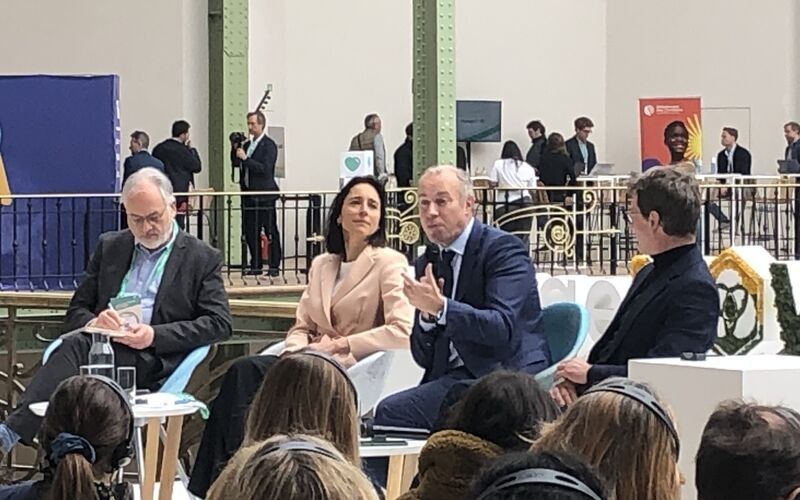

STOP BEING F*CKING PRAGMATIC!
Pragmatism has become the excuse for mediocrity.
It’s the polished language of compromise, used to mask cowardice and greed.
“We’re just being realistic,” they say—while building tools of distraction, systems of dependence, and products that drain rather than serve.
We don’t need more “solutions” designed to extract attention, time, or money.
We need creation rooted in truth.
We need the courage to ask:
What actually elevates humanity? What heals instead of harms? What builds instead of exploits?
Excellence isn’t about making the most profit with the least resistance.
It’s about reaching into the unknown, demanding more from ourselves, and refusing to settle for the easy path.
True creators don’t follow the market—they move it.
Not because it's strategic, but because it’s right.
Stop optimizing for engagement.
Start optimizing for integrity.
Stop solving for efficiency.
Start solving for meaning.
The world doesn’t need more “pragmatic” solutions.
It needs visionaries brave enough to create from a deeper place.
From love, not fear.
From purpose, not profit.
So no, we don’t need to be pragmatic.
We need to be uncompromisingly excellent.
Not in service of exploitation—but in service of good.
Inspired by a wonderful Brune Poirson here at hashtag#changeNOW
STOP BEING F*CKING PRAGMATIC!
Pragmatism has become the excuse for mediocrity.
It’s the polished language of compromise, used to mask cowardice and greed.
“We’re just being realistic,” they say—while building tools of distraction, systems of dependence, and products that drain rather than serve.
We don’t need more “solutions” designed to extract attention, time, or money.
We need creation rooted in truth.
We need the courage to ask:
What actually elevates humanity? What heals instead of harms? What builds instead of exploits?
Excellence isn’t about making the most profit with the least resistance.
It’s about reaching into the unknown, demanding more from ourselves, and refusing to settle for the easy path.
True creators don’t follow the market—they move it.
Not because it's strategic, but because it’s right.
Stop optimizing for engagement.
Start optimizing for integrity.
Stop solving for efficiency.
Start solving for meaning.
The world doesn’t need more “pragmatic” solutions.
It needs visionaries brave enough to create from a deeper place.
From love, not fear.
From purpose, not profit.
So no, we don’t need to be pragmatic.
We need to be uncompromisingly excellent.
Not in service of exploitation—but in service of good.
22-04-2025

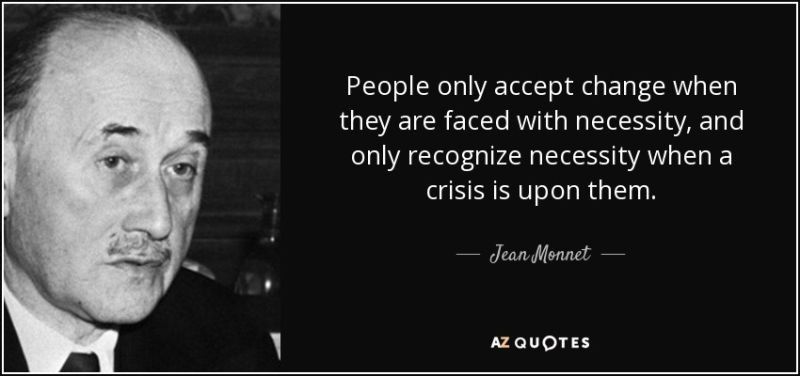

EUROPEAN LEADERS MUST CHOOSE: REVOLUTION BY REASON OR EVOLUTION BY RUIN?
In the past 50 years, humanity has unleashed more distractions, disruptions, and upheaval than in the entire span of human evolution.
Jean Monnet once suggested that people only accept change when they are faced with disaster. This profound truth speaks to the crossroads we face today—between transformation driven by catastrophe or by wisdom. We stand at the precipice of a future shaped not by reason and conscious evolution, but by ruin if we refuse to act.
In Europe, the time has come for leaders to make a critical choice: will you guide the continent through the revolution of reason, or will you allow us to stumble into the abyss of unchecked destruction? The stakes are not merely economic but deeply moral. Leaders cannot remain silent, cannot hide behind a veil of inaction. By doing so, we become co-conspirators in the crime against our planet and future generations.
As Paul Polman passionately stated this morning, it's no longer about keeping shareholders happy or protecting short-term profits. It’s about stewardship. True leadership lies in collectively taking care of our ecosystems, our societies, and our collective well-being. This is a fight for the character of Europe—not the share price. We need leaders who will prioritize sustainability over transient gains, who will transform through evolution, not collapse.
I'm looking forward to the conversations with Jean-Marc Lieberherr Monnet, Marcello Palazzi, MSc MBA, FRSA, Sandrine Dixson-Declève, Hans Stegeman, HERMAN MULDER, Paolo Di Cesare and many other passionate European leaders here at hashtag#ChangeNOW to shape a coalition of business for good.
The world is watching. The future is ours to shape—by reason or by ruin.
EUROPEAN LEADERS MUST CHOOSE: REVOLUTION BY REASON OR EVOLUTION BY RUIN?
In the past 50 years, humanity has unleashed more distractions, disruptions, and upheaval than in the entire span of human evolution.
Jean Monnet once suggested that people only accept change when they are faced with disaster. This profound truth speaks to the crossroads we face today—between transformation driven by catastrophe or by wisdom. We stand at the precipice of a future shaped not by reason and conscious evolution, but by ruin if we refuse to act.
In Europe, the time has come for leaders to make a critical choice: will you guide the continent through the revolution of reason, or will you allow us to stumble into the abyss of unchecked destruction? The stakes are not merely economic but deeply moral. Leaders cannot remain silent, cannot hide behind a veil of inaction. By doing so, we become co-conspirators in the crime against our planet and future generations.
As Paul Polman passionately stated this morning, it's no longer about keeping shareholders happy or protecting short-term profits. It’s about stewardship. True leadership lies in collectively taking care of our ecosystems, our societies, and our collective well-being. This is a fight for the character of Europe—not the share price. We need leaders who will prioritize sustainability over transient gains, who will transform through evolution, not collapse.
I'm looking forward to the conversations with Jean-Marc Lieberherr Monnet, Marcello Palazzi, MSc MBA, FRSA, Sandrine Dixson-Declève, Hans Stegeman, HERMAN MULDER, Paolo Di Cesare and many other passionate European leaders here at hashtag#ChangeNOW to shape a coalition of business for good.
The world is watching. The future is ours to shape—by reason or by ruin.
22-04-2025

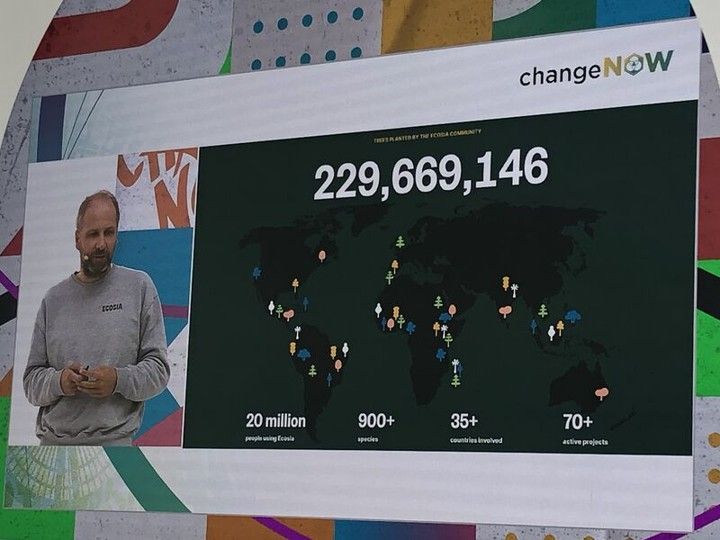

Ecosia vs Google: Search the Web, or Feed the Kraken?
Every time you search the web, you're casting a vote. Not just for what you're looking for—but for the world you want to live in.
Google built its empire on the promise to "do no evil." But today, it’s the blueprint for techno-feudalism. A trillion-dollar juggernaut that hoards user data, dominates digital ad markets, enables surveillance capitalism, and shapes what billions see—and don’t see—online.
Behind the clean homepage lies a labyrinth of contradictions:
- Carbon Pledges vs. Massive Emissions: Google claims carbon neutrality, yet powers data centers with fossil fuels and bankrolls climate denial think tanks.
- Privacy Claims vs. Surveillance Reality: It tracks you across apps, devices, and the physical world—turning your life into behavioral data for sale.
- Democracy vs. Monopoly: It throttles competitors, manipulates algorithms, and plays gatekeeper to the internet itself.
Meanwhile, Ecosia quietly offers an antidote.
- Ecosia is not-for-profit: 100% of profits go to climate action. Over 200 million trees planted—turning searches into reforestation efforts worldwide.
- Privacy-first: No personal data sold. No third-party trackers. Your search is yours.
- Green Infrastructure: Powered by 300% renewable energy—meaning every search removes CO₂ from the air.
- Steward Capital: Purpose is protected through legal structures. No greedy billionaire can snap it up to maximise ROA.
Ecosia isn’t perfect. But it’s proof that another internet is possible—one rooted in regeneration, not extraction.
So ask yourself:
Are you feeding a kraken that consumes democracy, data, and the planet?
Or are you planting forests with your searches?
It’s not just what you search. It’s who you are and what you stand for.
Ecosia vs Google: Search the Web, or Feed the Kraken?
Every time you search the web, you're casting a vote. Not just for what you're looking for—but for the world you want to live in.
Google built its empire on the promise to "do no evil." But today, it’s the blueprint for techno-feudalism. A trillion-dollar juggernaut that hoards user data, dominates digital ad markets, enables surveillance capitalism, and shapes what billions see—and don’t see—online.
Behind the clean homepage lies a labyrinth of contradictions:
- Carbon Pledges vs. Massive Emissions: Google claims carbon neutrality, yet powers data centers with fossil fuels and bankrolls climate denial think tanks.
- Privacy Claims vs. Surveillance Reality: It tracks you across apps, devices, and the physical world—turning your life into behavioral data for sale.
- Democracy vs. Monopoly: It throttles competitors, manipulates algorithms, and plays gatekeeper to the internet itself.
Meanwhile, Ecosia quietly offers an antidote.
- Ecosia is not-for-profit: 100% of profits go to climate action. Over 200 million trees planted—turning searches into reforestation efforts worldwide.
- Privacy-first: No personal data sold. No third-party trackers. Your search is yours.
- Green Infrastructure: Powered by 300% renewable energy—meaning every search removes CO₂ from the air.
- Steward Capital: Purpose is protected through legal structures. No greedy billionaire can snap it up to maximise ROA.
Ecosia isn’t perfect. But it’s proof that another internet is possible—one rooted in regeneration, not extraction.
So ask yourself:
Are you feeding a kraken that consumes democracy, data, and the planet?
Or are you planting forests with your searches?
It’s not just what you search. It’s who you are and what you stand for.
22-04-2025
"If you feel pain, you're alive.
If you feel the pain of others, you're human."
Attributed to Leo Tolstoy
22-04-2025



AI, Education, and the Death of Wisdom
There is a profound difference between instruction and education — a distinction foundational to classical and humanist philosophy, yet often forgotten in contemporary discourse. Instruction is oriented toward transmission: it fills the learner with facts, techniques, and skills. It operates within a framework of competence and efficiency, oriented toward outcomes that can be measured and optimised. It is the domain of training and know-how.
Education, by contrast, does not merely fill — it forms. Etymologically, educare means “to draw out” or “to lead forth.” It aims not to produce skills, but to cultivate the character, judgment, and orientation of the person. Instruction informs the hand; education transforms the soul. This classical distinction — found in Plato, Aristotle, and revived in thinkers like Newman, MacIntyre, and Arendt — grounds the core idea that virtue is not taught like geometry. It must be practiced, formed, and oriented toward an understanding of what it means to live well.
The same distinction holds between choice and decision — a differentiation with enormous ethical and political implications.
Choice is a function of knowledge. It involves the evaluation of predefined options, often reducible to cost-benefit analysis or risk management. It belongs to the realm of instrumental rationality, a logic of optimisation. When we choose, we are selecting between known paths — a better price, a shorter route, a stronger return.
Decision, by contrast, comes from the Latin decidere, meaning “to cut off.” It is not merely a selection among options, but a moral act of commitment — often taken in conditions of uncertainty, ambiguity, and irreversibility. True decisions arise when the available knowledge is insufficient — when the choice is not clear, and yet one must act.
We can think about a map and a compass:
- A map tells you what is— the layout, the possibilities. It enables optimisation.
- A compass tells you where to go— even if the terrain is unmapped. It orients you toward the good — what ought to be.
Now enter AI.
Artificial intelligence can be many things — but one thing it will never be is wise. It excels at instruction, not education.
The danger is not that AI will replace our minds — it is that it will de-skill our souls. When systems give us ever-better options, with ever-greater speed and personalised precision, we lose the habit — and eventually the capacity — to decide what truly matters. AI teaches choice, but it removes the necessity of forming a compass.
We risk raising a generation of leaders — and citizens — who can compare everything but commit to nothing. Who can optimise without knowing what for. Who have lost the courage to decide — because they no longer know who they are, what is worthy, or what kind of world they are trying to bring into being.
And this is the real crisis: not of intelligence, but of formation.
#leadership #phronesis #wisdom #transformation
Based on: Stefano Zamagni, Le Sfide della DSC
AI, Education, and the Death of Wisdom
There is a profound difference between instruction and education — a distinction foundational to classical and humanist philosophy, yet often forgotten in contemporary discourse. Instruction is oriented toward transmission: it fills the learner with facts, techniques, and skills. It operates within a framework of competence and efficiency, oriented toward outcomes that can be measured and optimised. It is the domain of training and know-how.
Education, by contrast, does not merely fill — it forms. Etymologically, educare means “to draw out” or “to lead forth.” It aims not to produce skills, but to cultivate the character, judgment, and orientation of the person. Instruction informs the hand; education transforms the soul. This classical distinction — found in Plato, Aristotle, and revived in thinkers like Newman, MacIntyre, and Arendt — grounds the core idea that virtue is not taught like geometry. It must be practiced, formed, and oriented toward an understanding of what it means to live well.
The same distinction holds between choice and decision — a differentiation with enormous ethical and political implications.
Choice is a function of knowledge. It involves the evaluation of predefined options, often reducible to cost-benefit analysis or risk management. It belongs to the realm of instrumental rationality, a logic of optimisation. When we choose, we are selecting between known paths — a better price, a shorter route, a stronger return.
Decision, by contrast, comes from the Latin decidere, meaning “to cut off.” It is not merely a selection among options, but a moral act of commitment — often taken in conditions of uncertainty, ambiguity, and irreversibility. True decisions arise when the available knowledge is insufficient — when the choice is not clear, and yet one must act.
We can think about a map and a compass:
- A map tells you what is— the layout, the possibilities. It enables optimisation.
- A compass tells you where to go— even if the terrain is unmapped. It orients you toward the good — what ought to be.
Now enter AI.
Artificial intelligence can be many things — but one thing it will never be is wise. It excels at instruction, not education.
The danger is not that AI will replace our minds — it is that it will de-skill our souls. When systems give us ever-better options, with ever-greater speed and personalised precision, we lose the habit — and eventually the capacity — to decide what truly matters. AI teaches choice, but it removes the necessity of forming a compass.
We risk raising a generation of leaders — and citizens — who can compare everything but commit to nothing. Who can optimise without knowing what for. Who have lost the courage to decide — because they no longer know who they are, what is worthy, or what kind of world they are trying to bring into being.
And this is the real crisis: not of intelligence, but of formation.
#leadership #phronesis #wisdom #transformation
Based on: Stefano Zamagni, Le Sfide della DSC
APR 2025

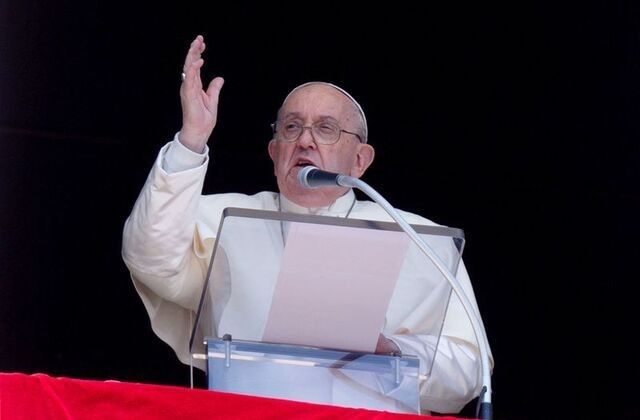

Eulogy for Pope Francis: A Political Pastor of the People
Jorge Mario Bergoglio—Pope Francis—was the most politically disruptive pope of the modern era, not because he sought power, but because he understood that neutrality in the face of injustice is complicity. His papacy was defined by a radical conviction: that the Church must not merely preach to the world but stand in solidarity with it—especially with those at the margins.
From the moment he stepped onto the balcony of St. Peter's as a pope who took the name of a humble saint, Francis challenged us to reimagine what the Church could be. He refused the trappings of office, lived simply, and in countless gestures—washing the feet of prisoners, embracing the disfigured, making space for the homeless—he embodied the Gospel he preached.
Francis transformed Catholic Social Teaching into a program of action. In Laudato Si', his landmark encyclical, he taught that care for creation is inseparable from care for the poor. In Fratelli Tutti, he offered a vision of global fraternity that transcended borders, religions, and ideologies. He denounced the "throwaway culture" that discards both people and planet, and demanded "integral ecology" that recognizes their deep interconnection.
But Francis was no mere theorist. He reformed Vatican finances, opened paths for lay leadership, and confronted the Church's failure to protect children from abuse. He launched the synodal process not as consultation but as transformation—repositioning the Church as a listening, participatory body rather than a hierarchy of pronouncement.
His path was not without thorns. Curial insiders resisted his decentralizing reforms. Traditionalists saw his emphasis on mercy and inclusion as dangerous ambiguity. American Bishops rejected Mensuram Bonam. Progressives wanted faster, more decisive change. But Francis never claimed to resolve every tension. Unlike his predecessor Benedict XVI, whose papacy defended doctrinal clarity, Francis embodied a Church of praxis: a field hospital more than a fortress, where proximity to suffering mattered more than purity of ideas.
He believed the Church must be political—not partisan, not a party, but committed to the structural demands of the Gospel. His papacy gave voice to those the Church had long failed to hear. He did not leave behind a settled institution, but a more restless, outward-facing Church that understands its credibility depends not on its authority but on its authenticity.
As we bid farewell to this shepherd who smelled of his sheep, who challenged power not from above but from beside, the "people of good will" are called to carry forward his insistence: that a society that does not stand with the poor and vulnerable, that does not care for our common home, that does not reach across divides to build fraternity—is not truly reaching its potential.
May his spirit of compassion, openness, and courage continue to challenge us toward a more just and human world.
Eulogy for Pope Francis: A Political Pastor of the People
Jorge Mario Bergoglio—Pope Francis—was the most politically disruptive pope of the modern era, not because he sought power, but because he understood that neutrality in the face of injustice is complicity. His papacy was defined by a radical conviction: that the Church must not merely preach to the world but stand in solidarity with it—especially with those at the margins.
From the moment he stepped onto the balcony of St. Peter's as a pope who took the name of a humble saint, Francis challenged us to reimagine what the Church could be. He refused the trappings of office, lived simply, and in countless gestures—washing the feet of prisoners, embracing the disfigured, making space for the homeless—he embodied the Gospel he preached.
Francis transformed Catholic Social Teaching into a program of action. In Laudato Si', his landmark encyclical, he taught that care for creation is inseparable from care for the poor. In Fratelli Tutti, he offered a vision of global fraternity that transcended borders, religions, and ideologies. He denounced the "throwaway culture" that discards both people and planet, and demanded "integral ecology" that recognizes their deep interconnection.
But Francis was no mere theorist. He reformed Vatican finances, opened paths for lay leadership, and confronted the Church's failure to protect children from abuse. He launched the synodal process not as consultation but as transformation—repositioning the Church as a listening, participatory body rather than a hierarchy of pronouncement.
His path was not without thorns. Curial insiders resisted his decentralizing reforms. Traditionalists saw his emphasis on mercy and inclusion as dangerous ambiguity. American Bishops rejected Mensuram Bonam. Progressives wanted faster, more decisive change. But Francis never claimed to resolve every tension. Unlike his predecessor Benedict XVI, whose papacy defended doctrinal clarity, Francis embodied a Church of praxis: a field hospital more than a fortress, where proximity to suffering mattered more than purity of ideas.
He believed the Church must be political—not partisan, not a party, but committed to the structural demands of the Gospel. His papacy gave voice to those the Church had long failed to hear. He did not leave behind a settled institution, but a more restless, outward-facing Church that understands its credibility depends not on its authority but on its authenticity.
As we bid farewell to this shepherd who smelled of his sheep, who challenged power not from above but from beside, the "people of good will" are called to carry forward his insistence: that a society that does not stand with the poor and vulnerable, that does not care for our common home, that does not reach across divides to build fraternity—is not truly reaching its potential.
May his spirit of compassion, openness, and courage continue to challenge us toward a more just and human world.
APR 2025
It could be argued that the root of democracy's decline lies not in the erosion of consensus, but in the degradation of conflict. What’s increasingly missing from modern society are the conditions necessary for constructive dialectic - the spirit of an Olympic struggle toward excellence and the openness to learn from "successful experiments in living."
Perhaps most importantly, when we no longer believe in anything beyond the self, we're left unwilling to surrender even a part of it in service of something greater.
APR 2025

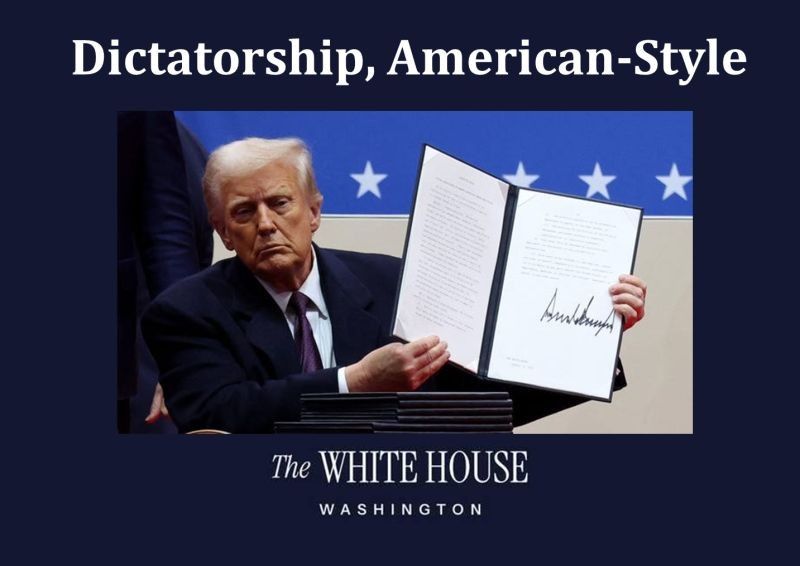

Dictatorship, American-Style
The founders of the American Republic built a system of checks and balances to protect the system from monarchic tyranny. But today, that system lies in ruins.
Under Trump, the presidency has become a throne: with contempt for democratic deliberation, disdain for judicial review, and a base delighted to be ruled by spectacle. Trump is ruling by decree, bypassing Congress- issuing executive orders like royal edicts. Just glance at the flood of proclamations at https://lnkd.in/eEsrCzWP.
The terrifying truth is that it works. The guardrails of democracy are proving to be decorative. A clown with a pen now governs like an emperor. And the people cheer. This is how democracy dies—quietly, one executive order at a time.
Dictatorship, American-Style
The founders of the American Republic built a system of checks and balances to protect the system from monarchic tyranny. But today, that system lies in ruins.
Under Trump, the presidency has become a throne: with contempt for democratic deliberation, disdain for judicial review, and a base delighted to be ruled by spectacle. Trump is ruling by decree, bypassing Congress- issuing executive orders like royal edicts. Just glance at the flood of proclamations at https://lnkd.in/eEsrCzWP.
The terrifying truth is that it works. The guardrails of democracy are proving to be decorative. A clown with a pen now governs like an emperor. And the people cheer. This is how democracy dies—quietly, one executive order at a time.
APR 2025
ENOUGH IS ENOUGH: A Call for European Leadership
The world is fraying—socially, ecologically, politically—and yet those with the greatest power to act continue to hide behind the thinnest veils of responsibility. The dominant leadership paradigm, exported globally but epitomised most clearly in American recent leadership culture, is not just insufficient—it is immoral.
We are no longer dealing with a crisis of performance, but a crisis of ethics. The American model of leadership—of charismatic individualism, shareholder primacy, instrumental performance, and hyper-agility—has become a blueprint for exploitation masquerading as innovation. It promotes ego over community, mistaking narcissism for strength. It valorises short-term gain over long-term good, disguising recklessness as risk-taking. It commodifies everything—people, relationships, even values themselves.
But power without virtue is violence, and leadership without wisdom is destruction.
The time has come for Europe to rise—not in arrogance, but in moral clarity.
Not to dominate, but to lead differently.
We need to move beyond critiques and toward creation. Europe must take up its mantle as a historical cradle of humanistic thought, ethical political economy, and moral responsibility. We must reclaim our philosophical and civic heritage—not to preserve the past, but to build a future grounded in the dignity of the person, the common good, and the pursuit of excellence.
Leadership must begin with moral identity—the deep, structurally embedded commitments that shape who we are and what kind of world we are building. It must cultivate organisational wisdom—not technical cleverness, to embody the good within conditions of complexity and contradiction. From there, leadership forms character, not in the individual alone, but in institutions—so they can become sites of flourishing, not domination.
This is not about nationalism. It is not about Europe against America or anyone else. It is about Europe for the world—for the future. We call upon European leaders—political, corporate, civic, academic—to join forces in building a European movement for good leadership. Not a brand, but a moral community. Not a policy programme, but a practice of systemic change.
We don’t need more agile transformations. We need moral transformation.
We don’t need more innovation theatre. We need institutional virtue.
We don’t need more thought leaders. We need character leaders.
A world shaped by moral leadership is not only possible—it is necessary. It is the only path to restore trust, repair systems, and regenerate the conditions for true human flourishing.
Europe has the philosophical depth, institutional sophistication, and civic traditions to lead this transition. The only question is: will we have the courage?
Let’s make “European leadership” synonymous not with bureaucracy or caution—but with courage, care, and commitment to the good.
The world is watching. Let us rise—together.
ENOUGH IS ENOUGH: A Call for European Leadership
The world is fraying—socially, ecologically, politically—and yet those with the greatest power to act continue to hide behind the thinnest veils of responsibility. The dominant leadership paradigm, exported globally but epitomised most clearly in American recent leadership culture, is not just insufficient—it is immoral.
We are no longer dealing with a crisis of performance, but a crisis of ethics. The American model of leadership—of charismatic individualism, shareholder primacy, instrumental performance, and hyper-agility—has become a blueprint for exploitation masquerading as innovation. It promotes ego over community, mistaking narcissism for strength. It valorises short-term gain over long-term good, disguising recklessness as risk-taking. It commodifies everything—people, relationships, even values themselves.
But power without virtue is violence, and leadership without wisdom is destruction.
The time has come for Europe to rise—not in arrogance, but in moral clarity.
Not to dominate, but to lead differently.
We need to move beyond critiques and toward creation. Europe must take up its mantle as a historical cradle of humanistic thought, ethical political economy, and moral responsibility. We must reclaim our philosophical and civic heritage—not to preserve the past, but to build a future grounded in the dignity of the person, the common good, and the pursuit of excellence.
Leadership must begin with moral identity—the deep, structurally embedded commitments that shape who we are and what kind of world we are building. It must cultivate organisational wisdom—not technical cleverness, to embody the good within conditions of complexity and contradiction. From there, leadership forms character, not in the individual alone, but in institutions—so they can become sites of flourishing, not domination.
This is not about nationalism. It is not about Europe against America or anyone else. It is about Europe for the world—for the future. We call upon European leaders—political, corporate, civic, academic—to join forces in building a European movement for good leadership. Not a brand, but a moral community. Not a policy programme, but a practice of systemic change.
We don’t need more agile transformations. We need moral transformation.
We don’t need more innovation theatre. We need institutional virtue.
We don’t need more thought leaders. We need character leaders.
A world shaped by moral leadership is not only possible—it is necessary. It is the only path to restore trust, repair systems, and regenerate the conditions for true human flourishing.
Europe has the philosophical depth, institutional sophistication, and civic traditions to lead this transition. The only question is: will we have the courage?
Let’s make “European leadership” synonymous not with bureaucracy or caution—but with courage, care, and commitment to the good.
The world is watching. Let us rise—together.
APR 2025
Social reality isn’t just complex—it’s curved.
Complexity speaks to causality and unpredictability; at its core, it concerns fate and calls for solidarity. Curvature, on the other hand, reflects power and ideology; it gestures toward morality and demands justice.
The obsession with "complex systems" in popular management science —dressed up with cybernetic and biological metaphors—at least partly misses the point; it ultimately obscures the need for ethical and political clarity.
APR 2025
Generative AI is like postmodern academic research: truth is whatever gets cited enough. ;-)
The real threat isn’t to academia, but to the people who rely on its outputs—where AI will help (some academics) to further flood the world with low-quality thinking dressed up as insight.
APR 2025
It is a great pity that many economists of the 'old school' - who still thrive among us, hold up their analyses of 'market models' as though they were golden precepts for mankind, like early nineteenth-century boys with a new toy.
There would be as much room for the Art of Living, and much more likelihood for it being improved, if minds ceased to be engrossed by the art of getting on.
(Ronald Fletcher, John Stuart Mill: A Logical Critique of Sociology)
APR 2025
BREXIT HAS FAILED – It’s Time to Admit It. And Revert It.
Brexit has been a disaster, and it’s time we faced the evidence. Economic growth is stagnating, British political power is reducing, freedom of travel in Europe is increasingly restricted, and trade barriers are crippling businesses. According to the Office for Budget Responsibility, the UK’s GDP is 4% smaller than it would have been if it had remained in the EU. Meanwhile, exports to the EU have fallen by 16% since 2019, and the UK is losing many of the valuable benefits directly related to its embeddedness within the institutions of the Europe Union.
The promise of sovereignty and prosperity - let alone many of the other populist promises made by miserable politicians - has failed to materialize. Instead, we’ve seen disrupted supply chains, labour shortages, growing inequality, decreasing civic protections, burgeoning public debt and rising costs. The UK’s ability to influence global decision-making has diminished, not strengthened. Of course, as Will Hutton points out, the idea that a "global Super-Britain" would somehow strike favourable deals with the world's superpowers was absurd from the beginning - and, as expected, Britain has turned into a rule-taker, not a rule-maker.
Let's be clear: Brexit was likely one of the dumbest decisions ever made in a referendum. Its "heroic failure" reflects a lingering, outdated fantasy of an empire long gone, combined with the reckless shortsightedness and incompetence of conservative politicians who still refuse to face the consequences. As Max Planck wisely noted, good ideas often progress "one funeral at a time" (or, literally, "a new scientific truth does not triumph by convincing its opponents and making them see the light, but rather because its opponents eventually die, and a new generation grows up that is familiar with it.") But we cannot wait for that: the stubborn clinging to a failed idea will only harm future generations.
It’s time to reassess, correct this mistake, and rejoin the EU before we face even greater economic, political, and social decline. And it's time for those who claimed victory to take responsibility. You’ve divided the country and caused significant harm with virtually no benefit. At the very least, have the integrity to make things right.
BREXIT HAS FAILED – It’s Time to Admit It. And Revert It.
Brexit has been a disaster, and it’s time we faced the evidence. Economic growth is stagnating, British political power is reducing, freedom of travel in Europe is increasingly restricted, and trade barriers are crippling businesses. According to the Office for Budget Responsibility, the UK’s GDP is 4% smaller than it would have been if it had remained in the EU. Meanwhile, exports to the EU have fallen by 16% since 2019, and the UK is losing many of the valuable benefits directly related to its embeddedness within the institutions of the Europe Union.
The promise of sovereignty and prosperity - let alone many of the other populist promises made by miserable politicians - has failed to materialize. Instead, we’ve seen disrupted supply chains, labour shortages, growing inequality, decreasing civic protections, burgeoning public debt and rising costs. The UK’s ability to influence global decision-making has diminished, not strengthened. Of course, as Will Hutton points out, the idea that a "global Super-Britain" would somehow strike favourable deals with the world's superpowers was absurd from the beginning - and, as expected, Britain has turned into a rule-taker, not a rule-maker.
Let's be clear: Brexit was likely one of the dumbest decisions ever made in a referendum. Its "heroic failure" reflects a lingering, outdated fantasy of an empire long gone, combined with the reckless shortsightedness and incompetence of conservative politicians who still refuse to face the consequences. As Max Planck wisely noted, good ideas often progress "one funeral at a time" (or, literally, "a new scientific truth does not triumph by convincing its opponents and making them see the light, but rather because its opponents eventually die, and a new generation grows up that is familiar with it.") But we cannot wait for that: the stubborn clinging to a failed idea will only harm future generations.
It’s time to reassess, correct this mistake, and rejoin the EU before we face even greater economic, political, and social decline. And it's time for those who claimed victory to take responsibility. You’ve divided the country and caused significant harm with virtually no benefit. At the very least, have the integrity to make things right.
MAR 2025

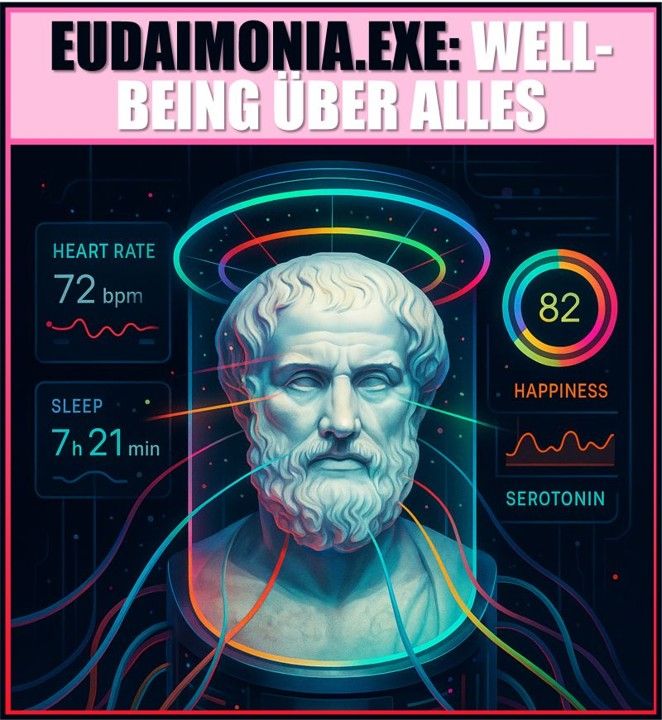

A METAPHYSICAL MISUNDERSTANDING: (MENTAL) WELL-BEING AS THE NEW SCIENCE OF MORALITY
In today’s hyper-optimized culture, the buzzwords “health” and “well-being” dominate boardrooms, social media feeds, and even academic discourses. We live in an era where our collective moral compass is increasingly calibrated by metrics—step counts, mindfulness apps, and happiness indices—that promise an “objective” measure of our flourishing. Yet beneath the sleek veneer of quantifiable progress lurks a reductionist trap: the idea that normative ethics can be distilled into a descriptive science of (mental) health, reducing our moral lives to a statistical 'felicific calculus' of pain, pleasure, and psychological satisfaction.
This contemporary narrative, which equates moral betterment or economic sustainability with improved health and wellbeing, is profoundly myopic. By reducing morality to a checklist of observable data points, subjective opinions, or biological responses, we risk erasing the messy, critical engagement that defines true ethical life. Ethics is not merely a question of scientific "conjoint event" analysis— a good life is not simply the refinement of our moral senses tied to biological needs or the anticipation of "sympathetic" community approval; rather, it is an ongoing journey of self-realization and reflective commitment. To reduce ethics to a science of wellbeing is to ignore the transformative power of practical reason—the capacity to step back, scrutinize our deepest values, and articulate ideals that transcend mere sensory or communal gratification. Our moral ambitions demand an existential inquiry into who we are, what we value, and how we ought to live together in community.
When the pursuit of happiness is framed solely as the pursuit of well-being, we overlook the inherent tension between our lived phenomenological experience and our higher aspirations, between scientific method and aesthetic inspiration. Practical wisdom is an art, not a science—it demands a nuanced dialectic of moral striving, a process that calls for the cultivation of virtues, the acceptance of existential contradictions, and the relentless questioning of our most cherished assumptions.
In sum, true moral progress is not about achieving a perfect statistical maximization of universal wellbeing indicators or gross happiness products, but about engaging with the deep, often paradoxical ideals that guide our lives. It entails a commitment to self-actualization in a specific "singular" time and place—an endeavor that is inseparable from our duties to one another and an evolving dialogue about the society we wish to create. While health may be a necessary foundation for such progress, it is by no means the ultimate end.
A METAPHYSICAL MISUNDERSTANDING: (MENTAL) WELL-BEING AS THE NEW SCIENCE OF MORALITY
In today’s hyper-optimized culture, the buzzwords “health” and “well-being” dominate boardrooms, social media feeds, and even academic discourses. We live in an era where our collective moral compass is increasingly calibrated by metrics—step counts, mindfulness apps, and happiness indices—that promise an “objective” measure of our flourishing. Yet beneath the sleek veneer of quantifiable progress lurks a reductionist trap: the idea that normative ethics can be distilled into a descriptive science of (mental) health, reducing our moral lives to a statistical 'felicific calculus' of pain, pleasure, and psychological satisfaction.
This contemporary narrative, which equates moral betterment or economic sustainability with improved health and wellbeing, is profoundly myopic. By reducing morality to a checklist of observable data points, subjective opinions, or biological responses, we risk erasing the messy, critical engagement that defines true ethical life. Ethics is not merely a question of scientific "conjoint event" analysis— a good life is not simply the refinement of our moral senses tied to biological needs or the anticipation of "sympathetic" community approval; rather, it is an ongoing journey of self-realization and reflective commitment. To reduce ethics to a science of wellbeing is to ignore the transformative power of practical reason—the capacity to step back, scrutinize our deepest values, and articulate ideals that transcend mere sensory or communal gratification. Our moral ambitions demand an existential inquiry into who we are, what we value, and how we ought to live together in community.
When the pursuit of happiness is framed solely as the pursuit of well-being, we overlook the inherent tension between our lived phenomenological experience and our higher aspirations, between scientific method and aesthetic inspiration. Practical wisdom is an art, not a science—it demands a nuanced dialectic of moral striving, a process that calls for the cultivation of virtues, the acceptance of existential contradictions, and the relentless questioning of our most cherished assumptions.
In sum, true moral progress is not about achieving a perfect statistical maximization of universal wellbeing indicators or gross happiness products, but about engaging with the deep, often paradoxical ideals that guide our lives. It entails a commitment to self-actualization in a specific "singular" time and place—an endeavor that is inseparable from our duties to one another and an evolving dialogue about the society we wish to create. While health may be a necessary foundation for such progress, it is by no means the ultimate end.
MAR 2025



From Mother Nature to Lovelock's Gaia: The Many Perils of Reifying Nature
Last week, I once again found myself in numerous discussions where people spoke gravely about "nature," often implying that the environment has some kind of "natural" moral claim over business practices. One speaker even went as far as suggesting that the illegitimate rift between culture and nature could be traced all the way back to Plato’s allegory of the cave, which strictly divides the ideal world from the natural one. But of course this interpretation is highly problematic, as it misreads Plato’s intentions. In Plato’s work, the division is not between a modern interpretation of “nature” and an ideal realm, but rather between “the many” (the empirical realm of sensory data) and “the One” (the realm of eternal ideals) - which introduces the long-standing antagonism between rationalists and empiricists.
The discussion easily leads to a dangerous conflation of ethics and epistemology when “nature” is in itself treated as an ideal category rather than as a descriptive term for “physis”. Much like Kant’s transcendental categories, our concepts wield not only explanatory power but also ethical force, especially when they shape our values amid existential contradictions. However, neither nature nor culture possesses an inherent, universal moral authority—both are constructed concepts that need to be critically tested for their ethical legitimacy. As Kant famously stated "reason makes nature, but it does not create it". ("Macht zwar der Verstand die Natur, aber er schafft sie nicht.")
The reification of "mother nature" or "Gaia" only compounds the issue, anthropomorphizing these categories to suggest some sort of natural law or cosmic moral force. This tendency—especially when combined with the kind of moral righteousness displayed last week—risks turning abstract categories into rigid moral absolutes. The idea that nature, in its "pristine" form, holds an ethical legitimacy is ultimately a fantasy, obscuring the real complexities of human relationships with the world around us.
While humans are an integral part of nature, there undoubtedly exists an inherent contradiction between our economic activities and the environment: the necessity to exploit natural resources for survival and progress clashes with the finite nature of these resources, creating tension between economic growth and environmental sustainability. However, we must be cautious of overly simplistic appeals to either economic dogma or an idyllic pastoral Eden in ethical debates—whether framed by an anthropocentric perspective or a view of nature as intrinsically valuable. As Zizek reminds us, appearances are always already ideological, and our concepts and values are interwoven. Thus, we must try to adopt a more critical and nuanced approach to ethical conduct—one that transcends the limitations of both scientific empiricism and dogmatic spirituality.
From Mother Nature to Lovelock's Gaia: The Many Perils of Reifying Nature
Last week, I once again found myself in numerous discussions where people spoke gravely about "nature," often implying that the environment has some kind of "natural" moral claim over business practices. One speaker even went as far as suggesting that the illegitimate rift between culture and nature could be traced all the way back to Plato’s allegory of the cave, which strictly divides the ideal world from the natural one. But of course this interpretation is highly problematic, as it misreads Plato’s intentions. In Plato’s work, the division is not between a modern interpretation of “nature” and an ideal realm, but rather between “the many” (the empirical realm of sensory data) and “the One” (the realm of eternal ideals) - which introduces the long-standing antagonism between rationalists and empiricists.
The discussion easily leads to a dangerous conflation of ethics and epistemology when “nature” is in itself treated as an ideal category rather than as a descriptive term for “physis”. Much like Kant’s transcendental categories, our concepts wield not only explanatory power but also ethical force, especially when they shape our values amid existential contradictions. However, neither nature nor culture possesses an inherent, universal moral authority—both are constructed concepts that need to be critically tested for their ethical legitimacy. As Kant famously stated "reason makes nature, but it does not create it". ("Macht zwar der Verstand die Natur, aber er schafft sie nicht.")
The reification of "mother nature" or "Gaia" only compounds the issue, anthropomorphizing these categories to suggest some sort of natural law or cosmic moral force. This tendency—especially when combined with the kind of moral righteousness displayed last week—risks turning abstract categories into rigid moral absolutes. The idea that nature, in its "pristine" form, holds an ethical legitimacy is ultimately a fantasy, obscuring the real complexities of human relationships with the world around us.
While humans are an integral part of nature, there undoubtedly exists an inherent contradiction between our economic activities and the environment: the necessity to exploit natural resources for survival and progress clashes with the finite nature of these resources, creating tension between economic growth and environmental sustainability. However, we must be cautious of overly simplistic appeals to either economic dogma or an idyllic pastoral Eden in ethical debates—whether framed by an anthropocentric perspective or a view of nature as intrinsically valuable. As Zizek reminds us, appearances are always already ideological, and our concepts and values are interwoven. Thus, we must try to adopt a more critical and nuanced approach to ethical conduct—one that transcends the limitations of both scientific empiricism and dogmatic spirituality.
MAR 2025

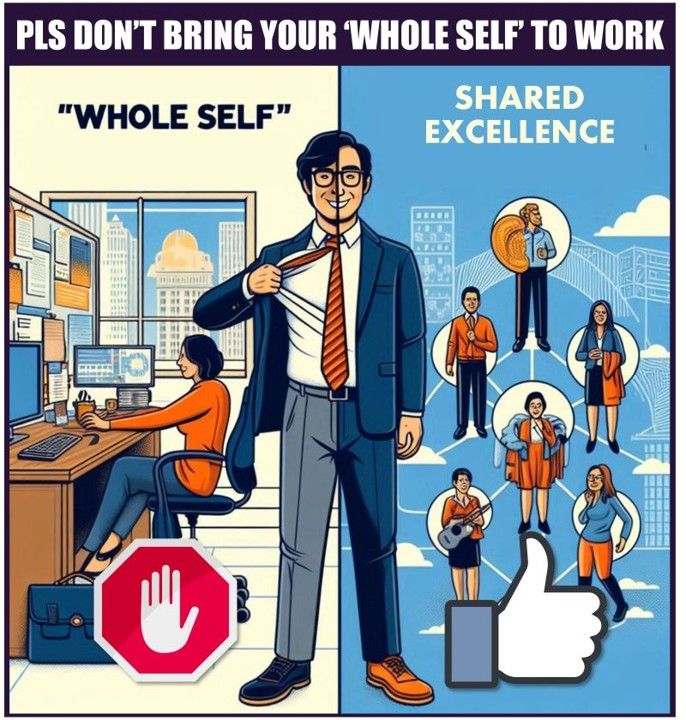

FROM EGO TO EXCELLENCE: STOP BRINGING YOUR 'WHOLE SELF' TO WORK!
In popular alt-management literature, we often find the rallying cry to “bring our whole self to work”. Yet, this hollow mantra oversimplifies complex philosophical and ethical challenges. Rather than expecting employees to expose every facet of their personal identity on the job, we should aim to collectively “develop our best self through work.”
1. The notion of the “whole self” presumes a fixed, essential identity which fails to account for the fluid, relational nature of our being. Our identities are not isolated essences; they are continually shaped by our interactions within broader social and institutional contexts. This embedded ontology suggests that work should be an 'identity workplace' for developing our best selves rather than a stage for our ephemeral pre-formed personality scripts.
2. Positive psychology often underpins the “whole self” ideology, promoting a "selfist" belief in the achievement of happiness through unbridled authenticity and freedom of choice. However, this approach ignores the fact that genuine personal development is not about finding and protecting some eternal essence in ourselves, but about our capacity to step into roles that connect our lives to a meaningful whole. As Carl Jung suggests, this often requires us to "do the work" to integrate or let go of aspects of ourselves.
3. By encouraging employees to present an unfiltered self, organizations may quickly foster environments that undervalue the hard work required to develop communities that can help us to cultivate virtue and character. As many wisdom traditions teach us, it "takes a village" to enable deeper transformation. Excellence arises from a disciplined practice of moral virtues—where personal integrity, communal care and social justice are intertwined.
4. Workplaces do not exist in a vacuum; they are embedded in society. The “bring your whole self” philosophy tends to emphasize isolated individual fulfillment at the expense of professional responsibility and political engagement. But leading a good life is never solely about our own desires, but about our contribution to the common good through work.
Personal growth is not achieved by baring every element of who we are, but by engaging in a transformative process of professional development that aligns with higher ethical and community standards:
* Recognizing that identity emerges from a dynamic interplay between individual agency and structural forces.
* Cultivating our "self" through inter-independent and compassionate community engagement.
* Promoting work as a means to achieve both personal excellence and the common good.
Hence, business transformation is not simply a drive for increased productivity or individual self-expression, but an integral process to enable our good life within a just and sustainable society, by becoming our best self-in the org-within the system.
FROM EGO TO EXCELLENCE: STOP BRINGING YOUR 'WHOLE SELF' TO WORK!
In popular alt-management literature, we often find the rallying cry to “bring our whole self to work”. Yet, this hollow mantra oversimplifies complex philosophical and ethical challenges. Rather than expecting employees to expose every facet of their personal identity on the job, we should aim to collectively “develop our best self through work.”
1. The notion of the “whole self” presumes a fixed, essential identity which fails to account for the fluid, relational nature of our being. Our identities are not isolated essences; they are continually shaped by our interactions within broader social and institutional contexts. This embedded ontology suggests that work should be an 'identity workplace' for developing our best selves rather than a stage for our ephemeral pre-formed personality scripts.
2. Positive psychology often underpins the “whole self” ideology, promoting a "selfist" belief in the achievement of happiness through unbridled authenticity and freedom of choice. However, this approach ignores the fact that genuine personal development is not about finding and protecting some eternal essence in ourselves, but about our capacity to step into roles that connect our lives to a meaningful whole. As Carl Jung suggests, this often requires us to "do the work" to integrate or let go of aspects of ourselves.
3. By encouraging employees to present an unfiltered self, organizations may quickly foster environments that undervalue the hard work required to develop communities that can help us to cultivate virtue and character. As many wisdom traditions teach us, it "takes a village" to enable deeper transformation. Excellence arises from a disciplined practice of moral virtues—where personal integrity, communal care and social justice are intertwined.
4. Workplaces do not exist in a vacuum; they are embedded in society. The “bring your whole self” philosophy tends to emphasize isolated individual fulfillment at the expense of professional responsibility and political engagement. But leading a good life is never solely about our own desires, but about our contribution to the common good through work.
Personal growth is not achieved by baring every element of who we are, but by engaging in a transformative process of professional development that aligns with higher ethical and community standards:
* Recognizing that identity emerges from a dynamic interplay between individual agency and structural forces.
* Cultivating our "self" through inter-independent and compassionate community engagement.
* Promoting work as a means to achieve both personal excellence and the common good.
Hence, business transformation is not simply a drive for increased productivity or individual self-expression, but an integral process to enable our good life within a just and sustainable society, by becoming our best self-in the org-within the system.
MAR 2025

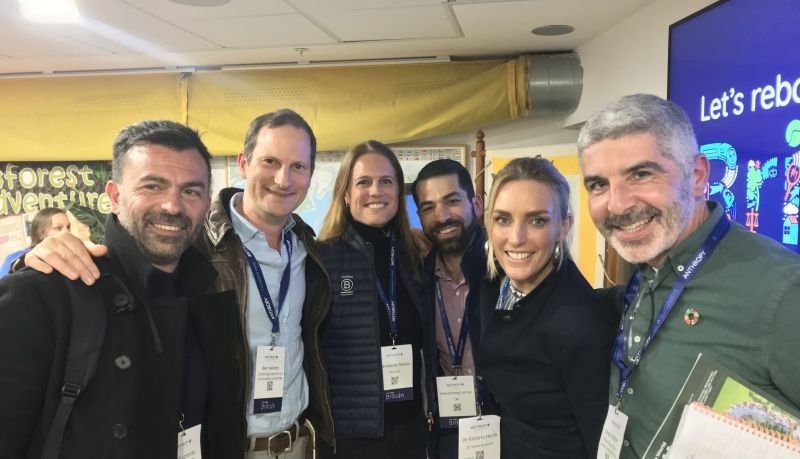

WHERE IS THE WELL-BEING ECONOMY? IT'S HERE, AND NOW IT'S TIME FOR YOU TO JOIN US!
This week we had a powerful and inspiring session with Dr Victoria Hurth, Ben Kellard, Bénédicte Peillon-Russo, Derek Walker, Lorenzo Fioramonti, Mohammad Jamei, Paolo Di Cesare, Dan Corpe and many others brilliant minds.
Together, we explored innovative strategies to reboot our economy, focusing on how businesses and policy makers can collaborate in driving meaningful, positive change for society.
Victoria emphasized that business can never be disconnected from society; instead, it must serve as a vital link between long-term societal well-being and economic production. Ben highlighted the importance of institutions, while Derek shared valuable insights from the Welsh experience as a member of the WeGov group. He particularly underscored how the Prosperity of Future Generations Act already acts as a crucial lever for driving systematic transformation.
Bénédicte shared fantastic insights from the hashtag#BCorp movement, which in Italy alone has over 5,000 members. She highlighted the successful introduction of benefit corporation legislation in Italy, a process strategically supported by Paolo and hashtag#Nativa. She also celebrated the recent launch of Rome as the first "Benefit City." Thanks to the passionate support from the mayor and city authorities, the initiative has already attracted over a hundred businesses in its first year.
Lorenzo passionately encouraged the audience to take it to the next level—to join a gamechanging movement to create a wellbeing economy and purpose-driven businesses. He also pointed out that with the recent proposal for an ISO standard for purpose-driven business, there is an opportunity to create yet another powerful force for change. Drawing from his experience as a minister in Italy, he emphasized that we must view business transformation as a political and systemic change, one that is possible if we put our hearts and minds behind it. Together, we can reinvent the way we do business.
Overall, it was a fantastic session and, for me, undoubtedly the highlight of this memorable hashtag#Anthropy 2025. I’m excited to continue the conversation next month at hashtag#TransformationCamp at the University of Vienna with Mirjam von Hofacker and Antoinette Weibel, followed by a session with Lara Yumi Tsuji Bezerra and inspirational pioneers from the Young President Organisation hashtag#YPO and then hashtag#ChangeNOW in Paris, alongside Marcello Palazzi, MSc MBA, FRSA, Paolo, William Clark and many other B Corp and change leaders. Join us—at a time when reckless chainsaw-wielding plutocrats and self-serving political gorillas dominate, it’s time to stand up for a different, perhaps more European, business model!
A big thanks also to John O’Brien MBE as the creator and convenor of hashtag#Anthropy who made all the brilliant conversations this week possible!
WHERE IS THE WELL-BEING ECONOMY? IT'S HERE, AND NOW IT'S TIME FOR YOU TO JOIN US!
This week we had a powerful and inspiring session with Dr Victoria Hurth, Ben Kellard, Bénédicte Peillon-Russo, Derek Walker, Lorenzo Fioramonti, Mohammad Jamei, Paolo Di Cesare, Dan Corpe and many others brilliant minds.
Together, we explored innovative strategies to reboot our economy, focusing on how businesses and policy makers can collaborate in driving meaningful, positive change for society.
Victoria emphasized that business can never be disconnected from society; instead, it must serve as a vital link between long-term societal well-being and economic production. Ben highlighted the importance of institutions, while Derek shared valuable insights from the Welsh experience as a member of the WeGov group. He particularly underscored how the Prosperity of Future Generations Act already acts as a crucial lever for driving systematic transformation.
Bénédicte shared fantastic insights from the hashtag#BCorp movement, which in Italy alone has over 5,000 members. She highlighted the successful introduction of benefit corporation legislation in Italy, a process strategically supported by Paolo and hashtag#Nativa. She also celebrated the recent launch of Rome as the first "Benefit City." Thanks to the passionate support from the mayor and city authorities, the initiative has already attracted over a hundred businesses in its first year.
Lorenzo passionately encouraged the audience to take it to the next level—to join a gamechanging movement to create a wellbeing economy and purpose-driven businesses. He also pointed out that with the recent proposal for an ISO standard for purpose-driven business, there is an opportunity to create yet another powerful force for change. Drawing from his experience as a minister in Italy, he emphasized that we must view business transformation as a political and systemic change, one that is possible if we put our hearts and minds behind it. Together, we can reinvent the way we do business.
Overall, it was a fantastic session and, for me, undoubtedly the highlight of this memorable hashtag#Anthropy 2025. I’m excited to continue the conversation next month at hashtag#TransformationCamp at the University of Vienna with Mirjam von Hofacker and Antoinette Weibel, followed by a session with Lara Yumi Tsuji Bezerra and inspirational pioneers from the Young President Organisation hashtag#YPO and then hashtag#ChangeNOW in Paris, alongside Marcello Palazzi, MSc MBA, FRSA, Paolo, William Clark and many other B Corp and change leaders. Join us—at a time when reckless chainsaw-wielding plutocrats and self-serving political gorillas dominate, it’s time to stand up for a different, perhaps more European, business model!
A big thanks also to John O’Brien MBE as the creator and convenor of hashtag#Anthropy who made all the brilliant conversations this week possible!
MAR 2025

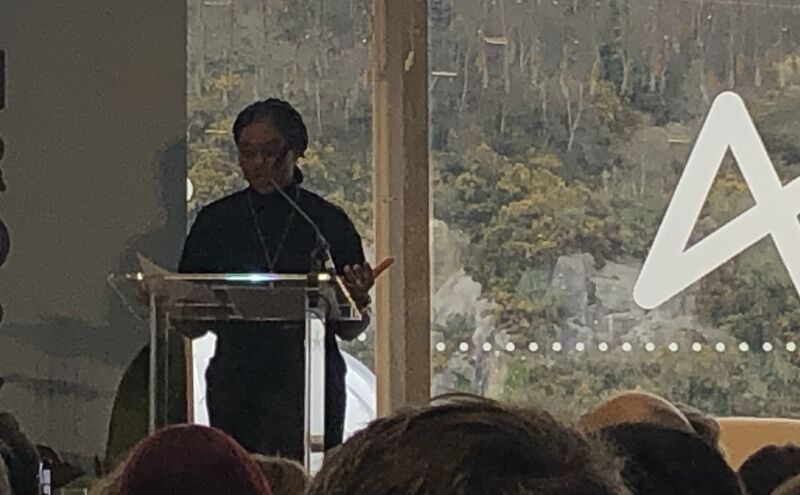

THERE IS NO ALTERNATIVE? REALLY?
Once again, we're force-fed the tired, Thatcherite neoliberal mantra—“free markets, deregulation, meritocracy and profit maximization”—as if it were some eternal truth. Today’s Conservative opposition darling, Kemi Badenoch, serves up this bland, dogmatic rhetoric like a stale cup of tea.
Let’s call it what it is: a desperate, superficial recitation of outdated ideas that only benefit the top 1% while the rest of us drown in inequality and ecological collapse. This isn’t leadership—it’s a pathetic refusal to acknowledge reality. Instead of crafting innovative solutions for a just society, these politicians are busy clinging to the neoliberal playbook, living in their own little echo chamber where “there is no alternative” means “keep feeding the machine.”
Meanwhile, the evidence is mounting that these policies are failing our planet and our people. How can we continue to worship a system that prioritizes corporate greed over common good? It’s time to shatter this delusional narrative and demand real, transformative change!
THERE IS NO ALTERNATIVE? REALLY?
Once again, we're force-fed the tired, Thatcherite neoliberal mantra—“free markets, deregulation, meritocracy and profit maximization”—as if it were some eternal truth. Today’s Conservative opposition darling, Kemi Badenoch, serves up this bland, dogmatic rhetoric like a stale cup of tea.
Let’s call it what it is: a desperate, superficial recitation of outdated ideas that only benefit the top 1% while the rest of us drown in inequality and ecological collapse. This isn’t leadership—it’s a pathetic refusal to acknowledge reality. Instead of crafting innovative solutions for a just society, these politicians are busy clinging to the neoliberal playbook, living in their own little echo chamber where “there is no alternative” means “keep feeding the machine.”
Meanwhile, the evidence is mounting that these policies are failing our planet and our people. How can we continue to worship a system that prioritizes corporate greed over common good? It’s time to shatter this delusional narrative and demand real, transformative change!
MAR 2025

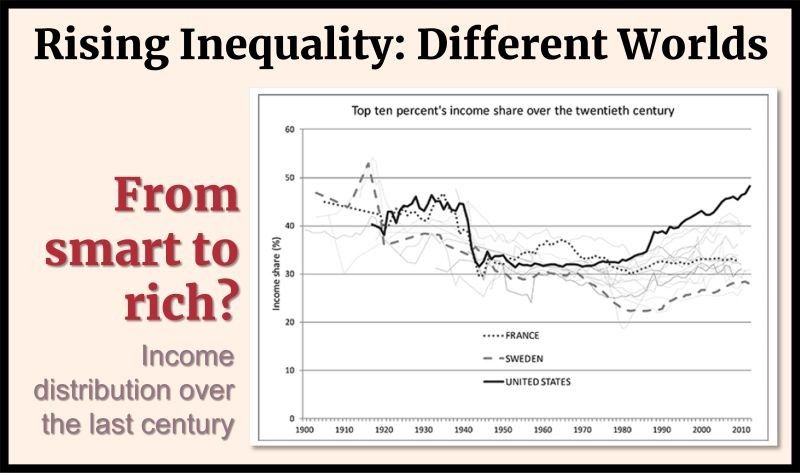

INEQUALITY IS RISING: A Disturbing Tale of Three Different Worlds
From the early twentieth century until around 1980, across many countries the income share of the top 10 percent steadily declined—from just over 40 percent to closer to 30 percent, with countries like Sweden experiencing an even sharper fall.
After 1980, the picture splits into three distinct worlds: see the graph with United States for the Anglo-Saxon world, France for much of Continental Europe, and Sweden representing Scandinavia. In the United States, the top one percent, which had dropped to a little over 5 percent of all income by 1980, has dramatically surged back nearly to early-century levels. This new "Gilded Age" is not mirrored as strongly in France or other parts of Continental Europe, where increases in top income shares are much more modest.
Three key insights emerge:
* Historical Shocks Are Key: Simon Kuznets famously hypothesized that income inequality would first rise with modernization—especially as new, productive sectors emerged—and then fall in an inverted U-shaped curve as benefits diffused. However, research shows that the post-WWII decline was driven not by broad-based productivity gains but by a steep drop in capital income from shocks like the Great Depression and the two world wars among the very top.
* Wages Over Capital in the New Era: Since 1980, the revival in top income shares—especially in the United States—has been fueled mainly by soaring wages for top earners rather than a resurgence in capital income.
* The Top 1% Matters Most: Fluctuations in the overall top 10 percent are largely driven by changes within the top one percent, while the rest of the decile remains surprisingly stable. Though one might expect technological progress and education (the “race between technology and education”) to boost wages for all high-skilled workers, the steep gains are concentrated among the very top, hinting at “superstar” effects.
These insights force a rethinking of long-held assumptions about economic development and inequality. The data show that:
1. Not All Inequality Is Equal: Even subtle shifts within a tiny fraction of the population can have huge impacts on overall inequality.
2. Shocks Matter: The idea that capitalism naturally diffuses prosperity is not backed by the data.
3. The Modern Challenge: Although technological progress and education are seen as panaceas for social mobility, the wage gap among top earners has widened disproportionately—raising challenging questions about fairness, opportunity, and policy.
Piketty’s call for greater international cooperation to enable a progressive wealth tax remains as valid as ever, especially when wealth concentration increasingly fosters plutocracy and the risks of fascism in countries like the US.
INEQUALITY IS RISING: A Disturbing Tale of Three Different Worlds
From the early twentieth century until around 1980, across many countries the income share of the top 10 percent steadily declined—from just over 40 percent to closer to 30 percent, with countries like Sweden experiencing an even sharper fall.
After 1980, the picture splits into three distinct worlds: see the graph with United States for the Anglo-Saxon world, France for much of Continental Europe, and Sweden representing Scandinavia. In the United States, the top one percent, which had dropped to a little over 5 percent of all income by 1980, has dramatically surged back nearly to early-century levels. This new "Gilded Age" is not mirrored as strongly in France or other parts of Continental Europe, where increases in top income shares are much more modest.
Three key insights emerge:
* Historical Shocks Are Key: Simon Kuznets famously hypothesized that income inequality would first rise with modernization—especially as new, productive sectors emerged—and then fall in an inverted U-shaped curve as benefits diffused. However, research shows that the post-WWII decline was driven not by broad-based productivity gains but by a steep drop in capital income from shocks like the Great Depression and the two world wars among the very top.
* Wages Over Capital in the New Era: Since 1980, the revival in top income shares—especially in the United States—has been fueled mainly by soaring wages for top earners rather than a resurgence in capital income.
* The Top 1% Matters Most: Fluctuations in the overall top 10 percent are largely driven by changes within the top one percent, while the rest of the decile remains surprisingly stable. Though one might expect technological progress and education (the “race between technology and education”) to boost wages for all high-skilled workers, the steep gains are concentrated among the very top, hinting at “superstar” effects.
These insights force a rethinking of long-held assumptions about economic development and inequality. The data show that:
1. Not All Inequality Is Equal: Even subtle shifts within a tiny fraction of the population can have huge impacts on overall inequality.
2. Shocks Matter: The idea that capitalism naturally diffuses prosperity is not backed by the data.
3. The Modern Challenge: Although technological progress and education are seen as panaceas for social mobility, the wage gap among top earners has widened disproportionately—raising challenging questions about fairness, opportunity, and policy.
Piketty’s call for greater international cooperation to enable a progressive wealth tax remains as valid as ever, especially when wealth concentration increasingly fosters plutocracy and the risks of fascism in countries like the US.
MAR 2025

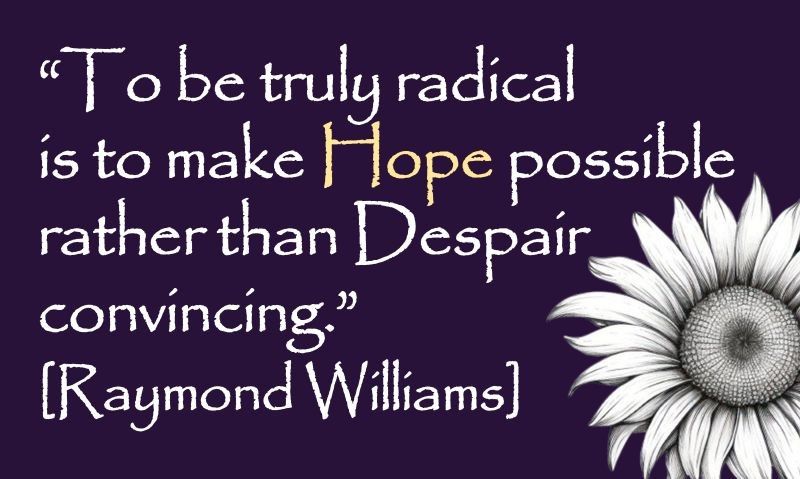

MAR 2025

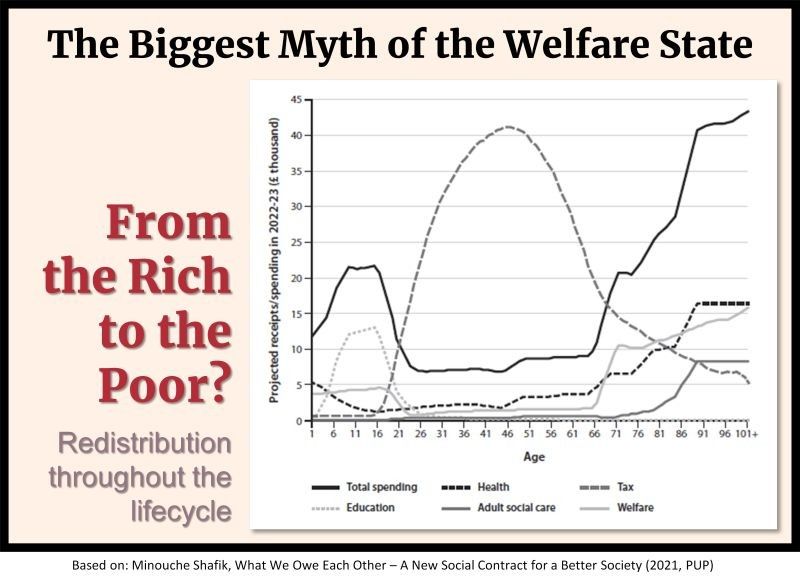

THE WELFARE STATE: More Piggy Bank Than Robin Hood!
The prevailing myth of the welfare state as a simple redistribution mechanism that takes from the rich to give to the poor—a "Robin Hood" model—is vastly exaggerated. While there is some degree of progressive redistribution, the majority of the welfare state functions more as a "piggy bank", reallocating resources over the course of individuals' lifetimes rather than merely shifting wealth between socioeconomic classes.
Most people contribute to social insurance programs during their working years and later receive benefits in childhood (education), old age (pensions, healthcare), or periods of need (unemployment benefits, disability support). Empirical evidence from countries like the UK shows that the vast majority of citizens pay into the system roughly as much as they take out over their lifetimes.
The rationale for this model is twofold:
* Market Failures in Lifecycle Planning: Young people cannot borrow to pay for education based on their future earnings potential, and individuals cannot predict their future healthcare needs or longevity. Additionally, there are clear benefits of a national insurance model when it comes to managing health risks.
* Economic Growth and Productivity: A well-designed welfare state invests in human capital, ensuring a more skilled, healthy, and productive workforce. This enhances economic growth rather than simply redistributing existing wealth.
Different models of welfares state also reflect deep ideological commitments about fairness, intergenerational justice, and social cohesion. The core question is: How much of life's risk should be borne privately versus collectively? Countries that see inequality as a result of bad luck (e.g., Nordic countries) tend to have stronger redistribution policies, while those that glorify personal effort (e.g., the US) prefer market-based solutions.
1. Egalitarian vs. Family-Centric Models
* Countries like Scandinavia embrace universalist welfare systems, where public childcare, education, and pensions ensure equal opportunities and a decent level of care.
* In contrast, nations like Italy and Japan emphasize family-based welfare, with lower public spending but greater expectations that many care responsibilities fall on relatives, especially women.
2. Intergenerational Solidarity and the Aging Population
* In countries with strong public pension systems (e.g., Germany, France), ever fewer younger workers are taxed to support an aging population.
* In more individualist models (e.g., the US, UK), personal retirement savings play a larger role, but can lead to huge inequality in old age.
Debates about welfare systems are often reduced to simplistic slogans. Yet, understanding the complexity of welfare and its linkage to fundamental societal values is crucial for designing systems that are both equitable and sustainable in an era of increasing uncertainty.
THE WELFARE STATE: More Piggy Bank Than Robin Hood!
The prevailing myth of the welfare state as a simple redistribution mechanism that takes from the rich to give to the poor—a "Robin Hood" model—is vastly exaggerated. While there is some degree of progressive redistribution, the majority of the welfare state functions more as a "piggy bank", reallocating resources over the course of individuals' lifetimes rather than merely shifting wealth between socioeconomic classes.
Most people contribute to social insurance programs during their working years and later receive benefits in childhood (education), old age (pensions, healthcare), or periods of need (unemployment benefits, disability support). Empirical evidence from countries like the UK shows that the vast majority of citizens pay into the system roughly as much as they take out over their lifetimes.
The rationale for this model is twofold:
* Market Failures in Lifecycle Planning: Young people cannot borrow to pay for education based on their future earnings potential, and individuals cannot predict their future healthcare needs or longevity. Additionally, there are clear benefits of a national insurance model when it comes to managing health risks.
* Economic Growth and Productivity: A well-designed welfare state invests in human capital, ensuring a more skilled, healthy, and productive workforce. This enhances economic growth rather than simply redistributing existing wealth.
Different models of welfares state also reflect deep ideological commitments about fairness, intergenerational justice, and social cohesion. The core question is: How much of life's risk should be borne privately versus collectively? Countries that see inequality as a result of bad luck (e.g., Nordic countries) tend to have stronger redistribution policies, while those that glorify personal effort (e.g., the US) prefer market-based solutions.
1. Egalitarian vs. Family-Centric Models
* Countries like Scandinavia embrace universalist welfare systems, where public childcare, education, and pensions ensure equal opportunities and a decent level of care.
* In contrast, nations like Italy and Japan emphasize family-based welfare, with lower public spending but greater expectations that many care responsibilities fall on relatives, especially women.
2. Intergenerational Solidarity and the Aging Population
* In countries with strong public pension systems (e.g., Germany, France), ever fewer younger workers are taxed to support an aging population.
* In more individualist models (e.g., the US, UK), personal retirement savings play a larger role, but can lead to huge inequality in old age.
Debates about welfare systems are often reduced to simplistic slogans. Yet, understanding the complexity of welfare and its linkage to fundamental societal values is crucial for designing systems that are both equitable and sustainable in an era of increasing uncertainty.
MAR 2025

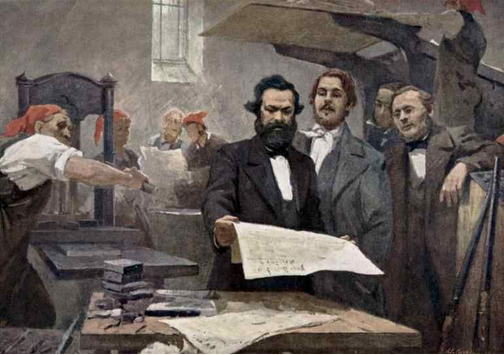

"IN OUR DAY EVERYTHING SEEMS PREGNANT WITH ITS CONTRARY."
* Machinery, gifted with the wonderful power of shortening and fructifying human labour, we behold starving and overworking it.
* The new-fangled sources of wealth, by some strange weird spell, are turned into sources of want.
* The victories of art seem bought by the loss of character.
* At the same pace that mankind masters nature, man seems to become enslaved to other men or to his own infamy.
* Even the pure light of science seems unable to shine except on the dark background of ignorance.
All our invention and progress seems to result in endowing material forces with intellectual life, and in stultifying human life into a material force."
(Karl Marx, People’s Paper, 1856 in Jonathan Wolff: Why Read Marx Today, OUP 2003)
Image: karl-marx-and-engels-in-the-printing-house-of-the-neue-rheinische-zeitung-newspaper-published-in-cologne-at-the-time-of-the-revolution-of-1848-1849
MAR 2025

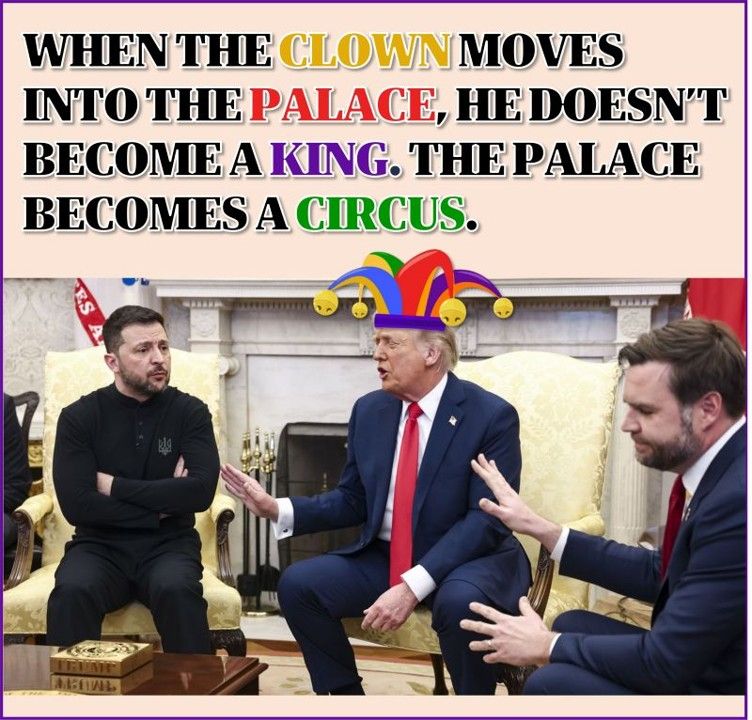

MAR 2025

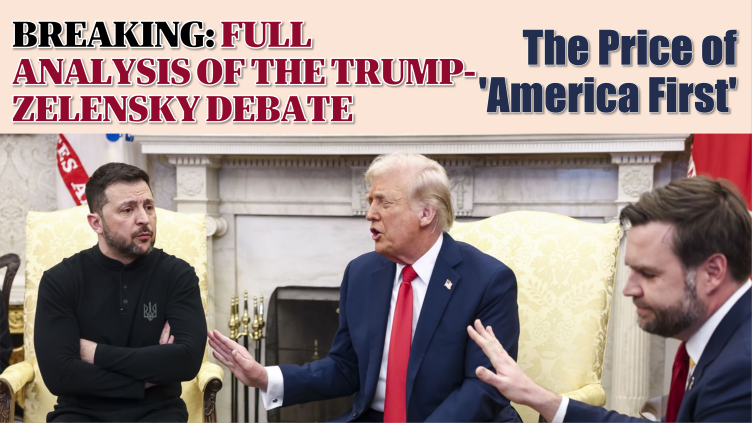

Democracy Under Siege: FULL ANALYSIS OF THE TRUMP-ZELENSKY DEBATE & The Price of 'America First'
The heated exchange between Donald Trump, J.D. Vance, and Volodymyr Zelenskyy in the White House was more than a diplomatic dispute—it was a stark revelation of differences in leadership and worldviews, and ultimately the precarious position of U.S. allies.
Check out the full analysis, dissecting how Trump’s transactional mindset, Vance’s dismissive rhetoric, and Zelenskyy’s defiant desperation expose the fractures in American foreign policy.
More than a clash of personalities, this moment encapsulates the erosion of moral leadership, the perils of isolationism, and the existential risks faced by those who once saw the U.S. as a beacon of democracy.
Thanks to Bob Dignen for the great idea!
The heated exchange between Donald Trump, J.D. Vance, and Volodymyr Zelenskyy in the White House was more than a diplomatic dispute—it was a stark revelation of differences in leadership and worldviews, and ultimately the precarious position of U.S. allies. Based on AI analysis, we dissect how Trump’s transactional mindset, Vance’s dismissive rhetoric, and Zelenskyy’s defiant desperation expose the fractures in American foreign policy. More than a clash of personalities, this moment encapsulates the erosion of moral leadership, the perils of isolationism, and the existential risks faced by those who once saw the U.S. as a beacon of democracy.
1) What does the debate say about the character and personality of the three people involved?
Donald Trump
Transactional and Dominance-Oriented: Trump repeatedly emphasizes power dynamics (“you don’t have the cards,” “you’re buried there”), suggesting he sees negotiations as a zero-sum game where leverage matters more than principles.
Blunt and Aggressive: He interrupts frequently and dismisses concerns outright (“You’ve done a lot of talking,” “Don’t tell us what we’re going to feel”). This reflects his combative leadership style, where he asserts control through dominance rather than persuasion.
Boastful and Self-Centered: He presents himself as the sole provider of Ukraine’s military aid, disregarding the broader coalition that supported Ukraine. His references to his administration’s past actions are exaggerated for effect (“Obama gave you sheets, I gave you javelins”).
Pragmatic but Lacking Empathy: He downplays the human cost of war and frames everything in terms of deal-making. His push for a ceasefire comes across as more about avoiding U.S. entanglement than concern for Ukraine’s suffering.
J.D. Vance
Loyal Surrogate: He echoes Trump’s rhetoric, reinforcing Trump’s framing of the conversation (“Have you said thank you?”). His role appears to be that of an enforcer, pressuring Zelenskyy to show gratitude rather than addressing the strategic stakes.
Patronizing and Condescending: His suggestion that Zelenskyy should not "litigate" Ukraine’s concerns in the Oval Office makes it seem as if Ukraine’s leader should not question U.S. policies, despite Ukraine being the affected party.
Superficial Understanding of Diplomacy: His defense of Trump’s diplomatic approach seems disconnected from Ukraine’s historical experience with Putin. When Zelenskyy points out that negotiations with Putin have repeatedly failed, Vance has no substantive response.
Volodymyr Zelensky
Resilient and Direct: He challenges both Trump and Vance’s claims, refusing to accept a passive or submissive role in the conversation. He remains firm in pointing out past broken agreements with Putin.
Emotional but Principled: His frustration is visible (“Ask our people about the ceasefire”), but it comes from lived experience rather than rhetorical posturing. He conveys a sense of moral urgency rather than treating the situation as a negotiation game.
Diplomatic but Undermined: Despite attempting to engage in a reasoned discussion, he is repeatedly talked over. His position is weakened because he is dependent on U.S. support, limiting how much he can push back.
2) What does it say about Trump’s worldview (based on his metaphors and language)?
Power and Transactionalism: Trump’s repeated insistence that Ukraine “doesn’t have the cards” reveals a worldview centered on leverage rather than values or alliances. To him, international relations are a poker game where power determines outcomes.
Lack of Ethical Commitment: He treats diplomacy as purely about personal negotiation skills rather than principles like sovereignty or justice. His repeated insistence that he could be "tougher than any human being" but chooses not to be suggests he sees restraint as a strategic choice, not a moral one.
Gratitude as a Political Currency: He fixates on whether Zelenskyy has sufficiently thanked the U.S., framing support not as an obligation of alliances or shared interests but as a favor for which Ukraine should be eternally grateful.
Dismissal of European Allies: His remark that Obama "gave sheets" while he "gave javelins" diminishes the broader NATO and EU efforts to support Ukraine. He downplays multilateral partnerships in favor of personal leadership narratives.
3) Who has personal leadership credibility in this debate, and who doesn’t?
Zelenskyy has the most credibility: He argues from lived experience, citing past ceasefire agreements and explaining why Ukraine distrusts diplomacy with Putin. He remains composed despite provocation, staying focused on Ukraine’s situation rather than engaging in personal attacks. His credibility is grounded in the existential stakes for his country—he speaks from necessity, not political calculation.
Trump lacks credibility as a leader for international allies: His focus is not on Ukraine’s survival but on transactional gains. He repeatedly diminishes Ukraine’s agency, making it clear that his priority is U.S. interests on his own terms. His statements are inconsistent—he claims to be neutral yet aligns with Putin’s strategic interests by pushing for a ceasefire without security guarantees. His leadership is authoritative but lacks moral authority; his approach is about forcing obedience, not inspiring trust.
Vance has the least credibility: He plays a secondary role as Trump’s enforcer, echoing talking points rather than contributing meaningful arguments. His comments about diplomacy contradict Ukraine’s reality, making him appear uninformed. His main contribution—demanding that Zelenskyy express gratitude—makes him seem petty rather than statesmanlike.
4) What does this mean for people who depend on the U.S.?
Unreliability of U.S. Commitments: The conversation signals that U.S. foreign aid is not based on stable alliances but rather on transactional loyalty tests. This raises concerns for smaller nations relying on U.S. support—assistance may be contingent on personal relationships rather than strategic interests.
Shifting U.S. Priorities: Trump’s framing suggests he views Ukraine as a burden rather than an ally. His push for a ceasefire without conditions implies that he is willing to sacrifice Ukraine’s sovereignty to remove U.S. entanglement, raising questions about how he would treat other security commitments (e.g., NATO, Taiwan).
The Cost of Dependence: Zelenskyy’s repeated attempts to explain Ukraine’s situation but being ignored shows that dependent nations have limited agency in negotiations. This may push allies to diversify their security relationships, looking more toward the EU, China, or regional coalitions.
A More Transactional U.S. Foreign Policy: Trump’s approach indicates that gratitude and submission matter more than shared democratic values. This signals that future international negotiations may be dictated by personal power dynamics rather than long-term commitments to principles like democracy and sovereignty.
Final Assessment
The Trump-Zelenskyy confrontation lays bare the consequences of an ‘America First’ doctrine untethered from historical responsibility and ethical leadership. While Zelenskyy fights for his country’s survival, Trump reduces global diplomacy to a game of leverage, and Vance reinforces a narrative of transactional cynicism. This is not just about Ukraine; it is about the credibility of U.S. leadership in a world where alliances are no longer guaranteed, and democracy itself is on unstable ground. The message to U.S. allies is clear: dependence on America is now a gamble, not a safeguard.
Based on ChatGPT analysis of the transcript hosted here: https://www.aa.com.tr/en/russia-ukraine-war/read-full-transcript-of-heated-exchange-between-trump-zelenskyy-vance-at-oval-office/3496679
Democracy Under Siege: FULL ANALYSIS OF THE TRUMP-ZELENSKY DEBATE & The Price of 'America First'
The heated exchange between Donald Trump, J.D. Vance, and Volodymyr Zelenskyy in the White House was more than a diplomatic dispute—it was a stark revelation of differences in leadership and worldviews, and ultimately the precarious position of U.S. allies.
Check out the full analysis, dissecting how Trump’s transactional mindset, Vance’s dismissive rhetoric, and Zelenskyy’s defiant desperation expose the fractures in American foreign policy.
More than a clash of personalities, this moment encapsulates the erosion of moral leadership, the perils of isolationism, and the existential risks faced by those who once saw the U.S. as a beacon of democracy.
Thanks to Bob Dignen for the great idea!
The heated exchange between Donald Trump, J.D. Vance, and Volodymyr Zelenskyy in the White House was more than a diplomatic dispute—it was a stark revelation of differences in leadership and worldviews, and ultimately the precarious position of U.S. allies. Based on AI analysis, we dissect how Trump’s transactional mindset, Vance’s dismissive rhetoric, and Zelenskyy’s defiant desperation expose the fractures in American foreign policy. More than a clash of personalities, this moment encapsulates the erosion of moral leadership, the perils of isolationism, and the existential risks faced by those who once saw the U.S. as a beacon of democracy.
1) What does the debate say about the character and personality of the three people involved?
Donald Trump
Transactional and Dominance-Oriented: Trump repeatedly emphasizes power dynamics (“you don’t have the cards,” “you’re buried there”), suggesting he sees negotiations as a zero-sum game where leverage matters more than principles.
Blunt and Aggressive: He interrupts frequently and dismisses concerns outright (“You’ve done a lot of talking,” “Don’t tell us what we’re going to feel”). This reflects his combative leadership style, where he asserts control through dominance rather than persuasion.
Boastful and Self-Centered: He presents himself as the sole provider of Ukraine’s military aid, disregarding the broader coalition that supported Ukraine. His references to his administration’s past actions are exaggerated for effect (“Obama gave you sheets, I gave you javelins”).
Pragmatic but Lacking Empathy: He downplays the human cost of war and frames everything in terms of deal-making. His push for a ceasefire comes across as more about avoiding U.S. entanglement than concern for Ukraine’s suffering.
J.D. Vance
Loyal Surrogate: He echoes Trump’s rhetoric, reinforcing Trump’s framing of the conversation (“Have you said thank you?”). His role appears to be that of an enforcer, pressuring Zelenskyy to show gratitude rather than addressing the strategic stakes.
Patronizing and Condescending: His suggestion that Zelenskyy should not "litigate" Ukraine’s concerns in the Oval Office makes it seem as if Ukraine’s leader should not question U.S. policies, despite Ukraine being the affected party.
Superficial Understanding of Diplomacy: His defense of Trump’s diplomatic approach seems disconnected from Ukraine’s historical experience with Putin. When Zelenskyy points out that negotiations with Putin have repeatedly failed, Vance has no substantive response.
Volodymyr Zelensky
Resilient and Direct: He challenges both Trump and Vance’s claims, refusing to accept a passive or submissive role in the conversation. He remains firm in pointing out past broken agreements with Putin.
Emotional but Principled: His frustration is visible (“Ask our people about the ceasefire”), but it comes from lived experience rather than rhetorical posturing. He conveys a sense of moral urgency rather than treating the situation as a negotiation game.
Diplomatic but Undermined: Despite attempting to engage in a reasoned discussion, he is repeatedly talked over. His position is weakened because he is dependent on U.S. support, limiting how much he can push back.
2) What does it say about Trump’s worldview (based on his metaphors and language)?
Power and Transactionalism: Trump’s repeated insistence that Ukraine “doesn’t have the cards” reveals a worldview centered on leverage rather than values or alliances. To him, international relations are a poker game where power determines outcomes.
Lack of Ethical Commitment: He treats diplomacy as purely about personal negotiation skills rather than principles like sovereignty or justice. His repeated insistence that he could be "tougher than any human being" but chooses not to be suggests he sees restraint as a strategic choice, not a moral one.
Gratitude as a Political Currency: He fixates on whether Zelenskyy has sufficiently thanked the U.S., framing support not as an obligation of alliances or shared interests but as a favor for which Ukraine should be eternally grateful.
Dismissal of European Allies: His remark that Obama "gave sheets" while he "gave javelins" diminishes the broader NATO and EU efforts to support Ukraine. He downplays multilateral partnerships in favor of personal leadership narratives.
3) Who has personal leadership credibility in this debate, and who doesn’t?
Zelenskyy has the most credibility: He argues from lived experience, citing past ceasefire agreements and explaining why Ukraine distrusts diplomacy with Putin. He remains composed despite provocation, staying focused on Ukraine’s situation rather than engaging in personal attacks. His credibility is grounded in the existential stakes for his country—he speaks from necessity, not political calculation.
Trump lacks credibility as a leader for international allies: His focus is not on Ukraine’s survival but on transactional gains. He repeatedly diminishes Ukraine’s agency, making it clear that his priority is U.S. interests on his own terms. His statements are inconsistent—he claims to be neutral yet aligns with Putin’s strategic interests by pushing for a ceasefire without security guarantees. His leadership is authoritative but lacks moral authority; his approach is about forcing obedience, not inspiring trust.
Vance has the least credibility: He plays a secondary role as Trump’s enforcer, echoing talking points rather than contributing meaningful arguments. His comments about diplomacy contradict Ukraine’s reality, making him appear uninformed. His main contribution—demanding that Zelenskyy express gratitude—makes him seem petty rather than statesmanlike.
4) What does this mean for people who depend on the U.S.?
Unreliability of U.S. Commitments: The conversation signals that U.S. foreign aid is not based on stable alliances but rather on transactional loyalty tests. This raises concerns for smaller nations relying on U.S. support—assistance may be contingent on personal relationships rather than strategic interests.
Shifting U.S. Priorities: Trump’s framing suggests he views Ukraine as a burden rather than an ally. His push for a ceasefire without conditions implies that he is willing to sacrifice Ukraine’s sovereignty to remove U.S. entanglement, raising questions about how he would treat other security commitments (e.g., NATO, Taiwan).
The Cost of Dependence: Zelenskyy’s repeated attempts to explain Ukraine’s situation but being ignored shows that dependent nations have limited agency in negotiations. This may push allies to diversify their security relationships, looking more toward the EU, China, or regional coalitions.
A More Transactional U.S. Foreign Policy: Trump’s approach indicates that gratitude and submission matter more than shared democratic values. This signals that future international negotiations may be dictated by personal power dynamics rather than long-term commitments to principles like democracy and sovereignty.
Final Assessment
The Trump-Zelenskyy confrontation lays bare the consequences of an ‘America First’ doctrine untethered from historical responsibility and ethical leadership. While Zelenskyy fights for his country’s survival, Trump reduces global diplomacy to a game of leverage, and Vance reinforces a narrative of transactional cynicism. This is not just about Ukraine; it is about the credibility of U.S. leadership in a world where alliances are no longer guaranteed, and democracy itself is on unstable ground. The message to U.S. allies is clear: dependence on America is now a gamble, not a safeguard.
Based on ChatGPT analysis of the transcript hosted here: https://www.aa.com.tr/en/russia-ukraine-war/read-full-transcript-of-heated-exchange-between-trump-zelenskyy-vance-at-oval-office/3496679
MAR 2025

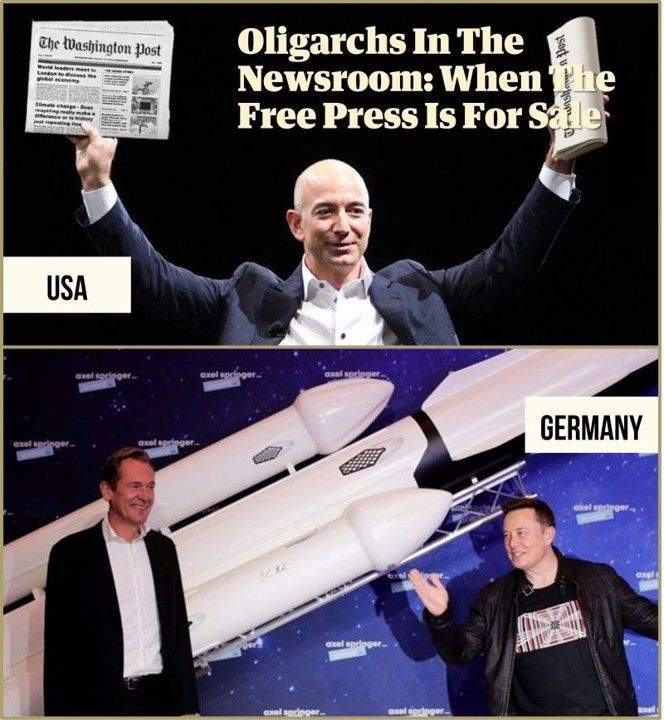

Oligarchs in the Newsroom: When the Free Press Is for Sale, Democracy is for Sale!
Germany often prides itself on its quality press, particularly when contrasting it with the billionaire-owned media landscape of the United States. Yet recent events should make Germans reconsider just how free their own press truly is. While many decry Jeff Bezos’ meddling at The Washington Post or Elon Musk’s reshaping of Twitter into his personal megaphone, Mathias Döpfner’s influence over Bild and Die Welt reveals that media oligarchy is not an American affliction alone.
Jeff Bezos, with a net worth exceeding $200 billion, has long insisted he would not interfere with The Washington Post. Yet the recent departure of the paper’s opinion editor, David Shipley, following Bezos’ push for a libertarian shift in editorial direction, tells another story. The demand for content emphasizing “personal liberties” and “free markets” has alienated readers, leading to a mass cancellation of over 75,000 digital subscriptions in protest. What was once a bastion of journalistic independence is increasingly becoming a vehicle for its owner's ideological preferences.
Elon Musk’s acquisition of Twitter has been even more blatant in its manipulation of public discourse. By reinstating controversial accounts, selectively amplifying voices aligned with his worldview, and using the platform to settle personal scores, Musk has demonstrated that “free speech” under his ownership means freedom for speech he approves of. In doing so, he has transformed a once-diverse digital public square into an instrument for his own power plays.
If Germans think this is purely an Anglo-American phenomenon, they should look closer to home. Mathias Döpfner, CEO of Axel Springer, has wielded his media empire—including Bild and Die Welt—as a political weapon. Leaked messages revealed that during the German federal elections, he attempted to manipulate voter sentiment by pushing right-wing populist narratives, climate skepticism, and xenophobic tropes while ensuring his publications remained FDP-friendly. Die Welt even provided a platform for Elon Musk to voice his support for the far-right AfD in the midst of an election campaign.
Döpfner’s influence reaches far beyond media. His personal wealth has expanded alongside Axel Springer’s aggressive acquisitions, solidifying his position as a political gatekeeper. What unites Bezos, Musk, and Döpfner is not just their wealth but their willingness to bend media institutions to serve their own interests. When billionaires own the press, the free flow of information becomes a privilege granted at their discretion.
The result? The creeping oligarchization of media is not just an American problem; it is happening in Berlin as well. The only antidote is an informed and vigilant public, one that refuses to accept that a free press should come at the mercy of a handful of powerful men.
Oligarchs in the Newsroom: When the Free Press Is for Sale, Democracy is for Sale!
Germany often prides itself on its quality press, particularly when contrasting it with the billionaire-owned media landscape of the United States. Yet recent events should make Germans reconsider just how free their own press truly is. While many decry Jeff Bezos’ meddling at The Washington Post or Elon Musk’s reshaping of Twitter into his personal megaphone, Mathias Döpfner’s influence over Bild and Die Welt reveals that media oligarchy is not an American affliction alone.
Jeff Bezos, with a net worth exceeding $200 billion, has long insisted he would not interfere with The Washington Post. Yet the recent departure of the paper’s opinion editor, David Shipley, following Bezos’ push for a libertarian shift in editorial direction, tells another story. The demand for content emphasizing “personal liberties” and “free markets” has alienated readers, leading to a mass cancellation of over 75,000 digital subscriptions in protest. What was once a bastion of journalistic independence is increasingly becoming a vehicle for its owner's ideological preferences.
Elon Musk’s acquisition of Twitter has been even more blatant in its manipulation of public discourse. By reinstating controversial accounts, selectively amplifying voices aligned with his worldview, and using the platform to settle personal scores, Musk has demonstrated that “free speech” under his ownership means freedom for speech he approves of. In doing so, he has transformed a once-diverse digital public square into an instrument for his own power plays.
If Germans think this is purely an Anglo-American phenomenon, they should look closer to home. Mathias Döpfner, CEO of Axel Springer, has wielded his media empire—including Bild and Die Welt—as a political weapon. Leaked messages revealed that during the German federal elections, he attempted to manipulate voter sentiment by pushing right-wing populist narratives, climate skepticism, and xenophobic tropes while ensuring his publications remained FDP-friendly. Die Welt even provided a platform for Elon Musk to voice his support for the far-right AfD in the midst of an election campaign.
Döpfner’s influence reaches far beyond media. His personal wealth has expanded alongside Axel Springer’s aggressive acquisitions, solidifying his position as a political gatekeeper. What unites Bezos, Musk, and Döpfner is not just their wealth but their willingness to bend media institutions to serve their own interests. When billionaires own the press, the free flow of information becomes a privilege granted at their discretion.
The result? The creeping oligarchization of media is not just an American problem; it is happening in Berlin as well. The only antidote is an informed and vigilant public, one that refuses to accept that a free press should come at the mercy of a handful of powerful men.
MAR 2025

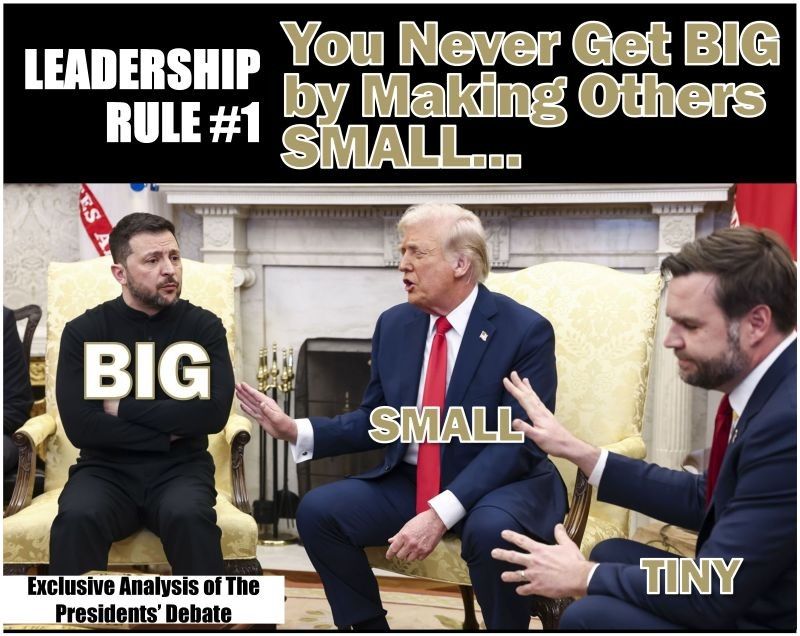

Leadership Rule #1: You Never Get Big by Making Others Small
I was always taught that good leaders praise in public and critique in private. True leadership is about elevating others, not tearing them down.
When a pathological narcissist rallies the American media to publicly humiliate a symbol of courage, they reveal the worst kind of leadership—one driven by fear, insecurity, and a desperate need to diminish anything virtuous. After all, for a narcissist, nothing is more humiliating than true moral strength.
So what’s the alternative? Surround yourself with brainless yes-men or fellow strongmen like Putin, dragging the morality of international relations down to transactional deal-making. In other words, make sure no one rises above your own incredibly low standards of leadership.
Leadership is about lifting others. Anything less is just cowardice in disguise.
FEB 2025
Moral maturity is often misunderstood to be a natural byproduct of diversity. However, while diversity in experience and perspective can certainly enrich our understanding, it’s not the diversity of people, or their gender, that necessarily drives moral growth. This is particularly evident when a "diverse" group of executives shares essentially the same career background or mindset.
However, moral maturity is also not simply a function of diversity of thought, as I've sometimes argued in the past. In fact, moral maturity doesn’t hinge on diversity per se, but on something subtler: the number of relevant moral features we actively consider when making ethical decisions.
In business we often limit our thinking to considerations about cost-benefit analyses, weighing immediate gains against expected losses and costs. But a greater capacity for moral decision-making comes from recognizing a wider array of salient features that are "at stake" when evaluating important questions—not just immediate costs or benefits, but environmental consequences, social ramifications, deeper structural mechanisms and interdependences, and universal principles like justice, compassion or equality.
It’s this ability to perceive and engage with a diverse set of moral dimensions that leads to genuine moral creativity and solutions that are richer and more "beautiful". In fact, as Kant points out in his critique of judgment, it is often an "aesthetic idea" that allows us to leap from a narrowly defined problem, based on direct observation, to a more imaginative set of proposals that can integrate multiple principles and concepts.
In essence, moral maturity grows from the richness of the moral landscape we navigate, not merely from the diversity of subjective perspectives we encounter. While moral imagination does not eliminate the need to choose among available options, it is often the first step to a "better" decision, as patricia Werhane has shown.
Moral maturity is often misunderstood to be a natural byproduct of diversity. However, while diversity in experience and perspective can certainly enrich our understanding, it’s not the diversity of people, or their gender, that necessarily drives moral growth. This is particularly evident when a "diverse" group of executives shares essentially the same career background or mindset.
However, moral maturity is also not simply a function of diversity of thought, as I've sometimes argued in the past. In fact, moral maturity doesn’t hinge on diversity per se, but on something subtler: the number of relevant moral features we actively consider when making ethical decisions.
In business we often limit our thinking to considerations about cost-benefit analyses, weighing immediate gains against expected losses and costs. But a greater capacity for moral decision-making comes from recognizing a wider array of salient features that are "at stake" when evaluating important questions—not just immediate costs or benefits, but environmental consequences, social ramifications, deeper structural mechanisms and interdependences, and universal principles like justice, compassion or equality.
It’s this ability to perceive and engage with a diverse set of moral dimensions that leads to genuine moral creativity and solutions that are richer and more "beautiful". In fact, as Kant points out in his critique of judgment, it is often an "aesthetic idea" that allows us to leap from a narrowly defined problem, based on direct observation, to a more imaginative set of proposals that can integrate multiple principles and concepts.
In essence, moral maturity grows from the richness of the moral landscape we navigate, not merely from the diversity of subjective perspectives we encounter. While moral imagination does not eliminate the need to choose among available options, it is often the first step to a "better" decision, as patricia Werhane has shown.
FEB 2025

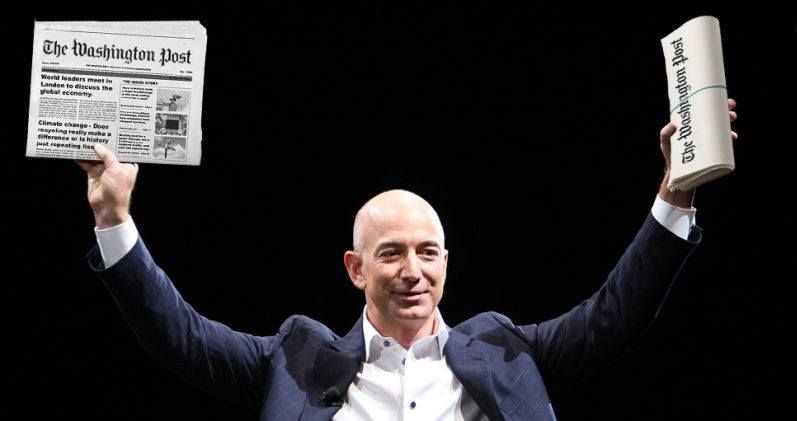

FREE PRESS = FREE MARKET? Time to Reign in Billionaire Plutocrats
Yesterday Jeff Bezos, owner of the Washington Post and the third richest man on the planet, directly intervened for a second time in recent months in his newspaper’s coverage, undermining its editorial independence.
Bezos announced in an email to staff that he had directed the Post’s opinion editor to limit the section’s pieces only to those “in support and defense of … personal liberties and free markets”, appearing to restrict how the Post’s opinion writers can respond to the crisis in the US – and the world – brought about by Donald Trump’s second reign as president. Rather than comply with this politicised edict, the Post’s opinion editor resigned.
Since the US election, Bezos has stepped up his direct interventions in the Post’s coverage. In October, the Amazon and Blue Origin founder, who has billions of dollars at stake in government contracts, told editors at the Post to pull a planned endorsement of Kamala Harris, the first time in 30 years the newspaper’s editorial board had not endorsed a candidate.
(Betsy Reed, Editor, Guardian US)
Of course, none of this is entirely new—those who believe that most countries have a truly free press are likely mistaken. However, what is new is the direct and visible influence of unelected billionaires in shaping public opinion. As personal wealth and power become ever more concentrated, the very foundations of democratic sovereignty are being systematically eroded. This is a development that cannot be ignored or allowed to continue unchecked. In the meantime, it might be a very good idea to boycott Amazon.
FREE PRESS = FREE MARKET? Time to Reign in Billionaire Plutocrats
Yesterday Jeff Bezos, owner of the Washington Post and the third richest man on the planet, directly intervened for a second time in recent months in his newspaper’s coverage, undermining its editorial independence.
Bezos announced in an email to staff that he had directed the Post’s opinion editor to limit the section’s pieces only to those “in support and defense of … personal liberties and free markets”, appearing to restrict how the Post’s opinion writers can respond to the crisis in the US – and the world – brought about by Donald Trump’s second reign as president. Rather than comply with this politicised edict, the Post’s opinion editor resigned.
Since the US election, Bezos has stepped up his direct interventions in the Post’s coverage. In October, the Amazon and Blue Origin founder, who has billions of dollars at stake in government contracts, told editors at the Post to pull a planned endorsement of Kamala Harris, the first time in 30 years the newspaper’s editorial board had not endorsed a candidate.
(Betsy Reed, Editor, Guardian US)
Of course, none of this is entirely new—those who believe that most countries have a truly free press are likely mistaken. However, what is new is the direct and visible influence of unelected billionaires in shaping public opinion. As personal wealth and power become ever more concentrated, the very foundations of democratic sovereignty are being systematically eroded. This is a development that cannot be ignored or allowed to continue unchecked. In the meantime, it might be a very good idea to boycott Amazon.
FEB 2025



The Chainsaw Massacre: How Corporate America Drifts Towards Moral Bankruptcy
In a staggering betrayal of social responsibility, corporate America is weaponising Trump's ethical implosion to systematically dismantle moral commitments. What began as plutocratic political corruption is metastasizing into a global corporate cancer—a calculated and continuous retreat from fundamental principles of diversity, equity, inclusion, and environmental sustainability. Tech billionaires and Fortune 500 executives are capitalizing on the reckless dismantling of democratic structures in the US and the irresponsible global bullying by a flock of half-witted Trumpistas to consolidate power and wealth.
The evidence is damning: BlackRock's cynical abandonment of diversity metrics, Ford and Walmart's brazen rollback of inclusion programs, and the continual wholesale evisceration of sustainability commitments reveal a chilling corporate playbook. This is not evolution; this is predatory capitalism weaponizing political chaos to normalize systemic injustice. Each corporate surrender hammers another nail into the coffin of social progress, sacrificing human welfare on the altar of ever-increasing share prices.
If left unchecked, the Trump era's most pernicious legacy will not be just the undermining of democratic institutions or the ethical drift of selective multinational companies, but the permission structure it creates for corporate sociopathy and teleopathy—a business world where ethical considerations are reduced to optional performance metrics, and human dignity is just another line item to be ruthlessly bludgeoned away.
We are witnessing nothing less than a coordinated corporate coup against the very foundations of a just society, and it is time for European business leaders to stand up against this sad spectacle of moral regression!
The Chainsaw Massacre: How Corporate America Drifts Towards Moral Bankruptcy
In a staggering betrayal of social responsibility, corporate America is weaponising Trump's ethical implosion to systematically dismantle moral commitments. What began as plutocratic political corruption is metastasizing into a global corporate cancer—a calculated and continuous retreat from fundamental principles of diversity, equity, inclusion, and environmental sustainability. Tech billionaires and Fortune 500 executives are capitalizing on the reckless dismantling of democratic structures in the US and the irresponsible global bullying by a flock of half-witted Trumpistas to consolidate power and wealth.
The evidence is damning: BlackRock's cynical abandonment of diversity metrics, Ford and Walmart's brazen rollback of inclusion programs, and the continual wholesale evisceration of sustainability commitments reveal a chilling corporate playbook. This is not evolution; this is predatory capitalism weaponizing political chaos to normalize systemic injustice. Each corporate surrender hammers another nail into the coffin of social progress, sacrificing human welfare on the altar of ever-increasing share prices.
If left unchecked, the Trump era's most pernicious legacy will not be just the undermining of democratic institutions or the ethical drift of selective multinational companies, but the permission structure it creates for corporate sociopathy and teleopathy—a business world where ethical considerations are reduced to optional performance metrics, and human dignity is just another line item to be ruthlessly bludgeoned away.
We are witnessing nothing less than a coordinated corporate coup against the very foundations of a just society, and it is time for European business leaders to stand up against this sad spectacle of moral regression!
FEB 2025



Wenn die Mitte des politischen Spektrums mit Populismus und Fremdenfeindlichkeit spielt, stehen wir bald wieder im Billardzimmer um halb zehn...
FEB 2025

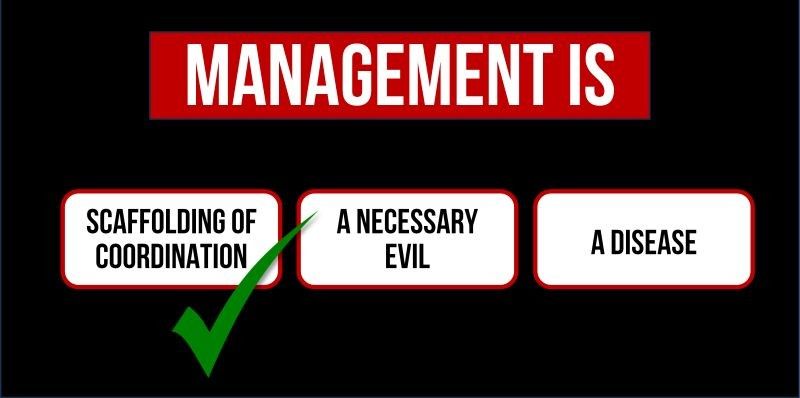

SELF-MANAGEMENT aims to create barriers against domination. Purple Organisations seek protection against instrumentalisation. Both may appear similar, but they are not: the former strives for freedom as an end in itself, while the latter views freedom as a means to an end. Autonomy might relate to flourishing, but this is where things get complicated...
When we start to run around calling management a "disease", we might end up barking up the wrong tree. ;-)
PS: The popular case for self-management reflects the usual anarchist claim that hierarchical power structures are unjustified and unnecessary. Just as anarchists contend that the state’s coercive authority is illegitimate because individuals can organize themselves voluntarily, proponents of self-management claim that workers can coordinate production and governance without managerial oversight. However, just as anarchism struggles with the practical necessity of political coordination to attain distributive justice, self-management encounters the challenge of maintaining coherent decision-making and accountability. The viability of "pure" self-management thus depends on the capacity of workers to internalize collective responsibility and adhere to agreed-upon norms without coercion - which of course merely internalises control rather than abolishing it. Most importantly, the existence of individuals who do not conform with peer controls (whether through opportunism, incompetence, or conflict) will immediately threaten the complete absence of coercion. Hence, unless every single worker is consistently reasonable and cooperative, some form of directive managerial control, whether decentralized, collectivist or minimal, will be inevitable. Management isn't a disease - it is simply a question of the most effective scaffolding of coordination. If workers are fully capable of self-organization, they will also be capable of recognizing when more abstract management mechanisms—akin to hierarchy—become superior to sustain larger-scale, complex businesses. That being said, the chosen coordination mechanism, ceteris paribus, reveals little about individuals' capacity to thrive or the organization's ability to create social value - or, conversely, about the risk of "bosses" to abuse their positional power.
SELF-MANAGEMENT aims to create barriers against domination. Purple Organisations seek protection against instrumentalisation. Both may appear similar, but they are not: the former strives for freedom as an end in itself, while the latter views freedom as a means to an end. Autonomy might relate to flourishing, but this is where things get complicated...
When we start to run around calling management a "disease", we might end up barking up the wrong tree. ;-)
PS: The popular case for self-management reflects the usual anarchist claim that hierarchical power structures are unjustified and unnecessary. Just as anarchists contend that the state’s coercive authority is illegitimate because individuals can organize themselves voluntarily, proponents of self-management claim that workers can coordinate production and governance without managerial oversight. However, just as anarchism struggles with the practical necessity of political coordination to attain distributive justice, self-management encounters the challenge of maintaining coherent decision-making and accountability. The viability of "pure" self-management thus depends on the capacity of workers to internalize collective responsibility and adhere to agreed-upon norms without coercion - which of course merely internalises control rather than abolishing it. Most importantly, the existence of individuals who do not conform with peer controls (whether through opportunism, incompetence, or conflict) will immediately threaten the complete absence of coercion. Hence, unless every single worker is consistently reasonable and cooperative, some form of directive managerial control, whether decentralized, collectivist or minimal, will be inevitable. Management isn't a disease - it is simply a question of the most effective scaffolding of coordination. If workers are fully capable of self-organization, they will also be capable of recognizing when more abstract management mechanisms—akin to hierarchy—become superior to sustain larger-scale, complex businesses. That being said, the chosen coordination mechanism, ceteris paribus, reveals little about individuals' capacity to thrive or the organization's ability to create social value - or, conversely, about the risk of "bosses" to abuse their positional power.
FEB 2025

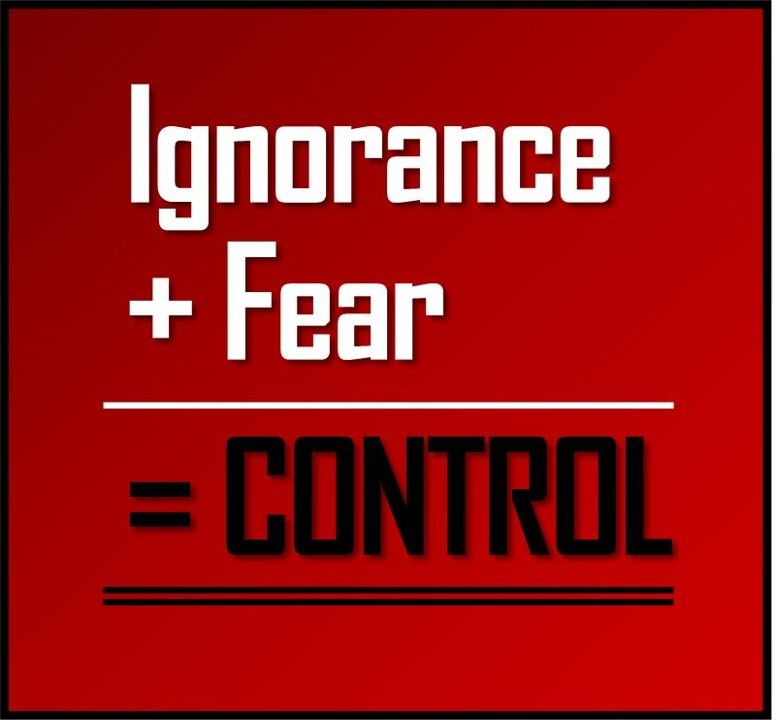

Foucault would remind us that power works not by silencing people, but by shaping what they think is worth saying. The more ignorance and fear dominate political discourse, the easier it becomes for powerful interests to control democratic choices—not through coercion, but through carefully managed narratives.
1️⃣ Ignorance: When voters lack access to comprehensive, critical information, they become dependent on simplified narratives. A complex world is reduced to “us vs. them,” where history, economics, and policy are replaced by slogans and scapegoats.
2️⃣ Fear: A fearful public is an easily controlled public. Fear of economic collapse, migration, crime, cultural decline—anxieties are deliberately amplified to create the illusion that only strong, decisive leaders can restore order.
3️⃣ Control: Populist parties thrive because they offer simple, emotionally charged solutions to manufactured fears. They ultimately don't challenge the system—they reinforce it by directing voter anger away from structural power and toward convenient enemies.
Ignorance + Fear = Control. Well said, Art Ames.
Power is not just about force—it’s about shaping what people believe to be true. Modern democracies don’t need outright oppression when they can manufacture consent through subtle control of knowledge and fear.
Foucault would remind us that power works not by silencing people, but by shaping what they think is worth saying. The more ignorance and fear dominate political discourse, the easier it becomes for powerful interests to control democratic choices—not through coercion, but through carefully managed narratives.
1️⃣ Ignorance: When voters lack access to comprehensive, critical information, they become dependent on simplified narratives. A complex world is reduced to “us vs. them,” where history, economics, and policy are replaced by slogans and scapegoats.
2️⃣ Fear: A fearful public is an easily controlled public. Fear of economic collapse, migration, crime, cultural decline—anxieties are deliberately amplified to create the illusion that only strong, decisive leaders can restore order.
3️⃣ Control: Populist parties thrive because they offer simple, emotionally charged solutions to manufactured fears. They ultimately don't challenge the system—they reinforce it by directing voter anger away from structural power and toward convenient enemies.
Ignorance + Fear = Control. Well said, Art Ames.
Power is not just about force—it’s about shaping what people believe to be true. Modern democracies don’t need outright oppression when they can manufacture consent through subtle control of knowledge and fear.
FEB 2025

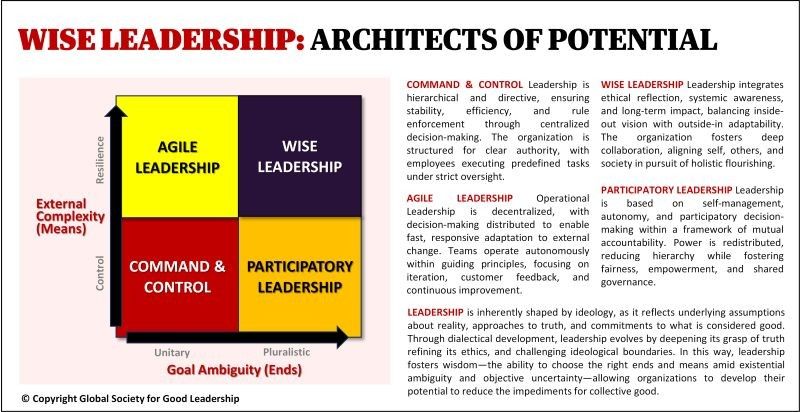

WISE LEADERSHIP – Architects of Potential
Leadership is more than authority—it’s the art of shaping possibility. Some leaders enforce rigid control, ensuring efficiency and order. Others empower individuals, creating participatory systems where autonomy thrives. Some embrace adaptability, fostering shared leadership that reacts fluidly to change. But the rarest leaders cultivate wisdom, expanding both truth and ethics to challenge old boundaries and unlock new futures.
➡️ COMMAND & CONTROL Leadership is hierarchical and directive, ensuring stability, efficiency, and rule enforcement through centralized decision-making. The organization is structured for clear authority, with employees executing predefined tasks under strict oversight.
➡️ AGILE LEADERSHIP Operational Leadership is decentralized, with decision-making distributed to enable fast, responsive adaptation to external change. Teams operate autonomously within guiding principles, focusing on iteration, customer feedback, and continuous improvement.
➡️ PARTICIPATORY LEADERSHIP Leadership is based on self-management, autonomy, and participatory decision-making within a framework of mutual accountability. Power is redistributed, reducing hierarchy while fostering fairness, empowerment, and shared governance.
➡️ WISE LEADERSHIP Leadership integrates ethical reflection, systemic awareness, and long-term impact, balancing inside-out vision with outside-in adaptability. The organization fosters deep inspiration, aligning self, others, and society in pursuit of holistic flourishing.
LEADERSHIP is inherently shaped by ideology, as it reflects underlying assumptions about reality, approaches to truth, and commitments to what is considered good. Through dialectical development, leadership evolves by deepening its grasp of truth refining its ethics, and challenging ideological boundaries. In this way, leadership fosters wisdom—the ability to choose the right ends and means amid existential ambiguity and objective uncertainty—allowing organizations to develop their potential to reduce the impediments for collective good.
WISE LEADERSHIP – Architects of Potential
Leadership is more than authority—it’s the art of shaping possibility. Some leaders enforce rigid control, ensuring efficiency and order. Others empower individuals, creating participatory systems where autonomy thrives. Some embrace adaptability, fostering shared leadership that reacts fluidly to change. But the rarest leaders cultivate wisdom, expanding both truth and ethics to challenge old boundaries and unlock new futures.
➡️ COMMAND & CONTROL Leadership is hierarchical and directive, ensuring stability, efficiency, and rule enforcement through centralized decision-making. The organization is structured for clear authority, with employees executing predefined tasks under strict oversight.
➡️ AGILE LEADERSHIP Operational Leadership is decentralized, with decision-making distributed to enable fast, responsive adaptation to external change. Teams operate autonomously within guiding principles, focusing on iteration, customer feedback, and continuous improvement.
➡️ PARTICIPATORY LEADERSHIP Leadership is based on self-management, autonomy, and participatory decision-making within a framework of mutual accountability. Power is redistributed, reducing hierarchy while fostering fairness, empowerment, and shared governance.
➡️ WISE LEADERSHIP Leadership integrates ethical reflection, systemic awareness, and long-term impact, balancing inside-out vision with outside-in adaptability. The organization fosters deep inspiration, aligning self, others, and society in pursuit of holistic flourishing.
LEADERSHIP is inherently shaped by ideology, as it reflects underlying assumptions about reality, approaches to truth, and commitments to what is considered good. Through dialectical development, leadership evolves by deepening its grasp of truth refining its ethics, and challenging ideological boundaries. In this way, leadership fosters wisdom—the ability to choose the right ends and means amid existential ambiguity and objective uncertainty—allowing organizations to develop their potential to reduce the impediments for collective good.
FEB 2025



The End of Passive Morality: Why Leaders Must Act
For too long, many in Western democracies—especially on the progressive side—have embraced a passive vision of morality: live ethically, wish no harm, cultivate personal virtues, and trust that a better world will emerge. But in times of rising authoritarianism, when figures like Trump dismantle democratic institutions and reduce global cooperation to a cynical power game, moral decency alone is no longer enough.
Kant’s famous ‘flourishing man’—who does no harm but also refuses to act in the face of suffering—offers a warning. A leader who believes in democracy and human dignity cannot simply observe; they must defend these values. When the rule of law, international solidarity, and human rights are openly undermined, silence is complicity. Justice is not self-sustaining; it exists only when people are willing to fight for it.
Now is the time to reject the comfortable illusion that history naturally bends toward progress. It does not—unless we bend it ourselves.
FEB 2025
QUESTION: What is "good" governance in modern business?
Select the option that best reflects your view on effective governance:
A. Clear and strong moral authority – Leadership is centralized, decisions are guided by strong moral principles, and authority flows from top to bottom.
B. Efficiency, expertise and tradition – Governance is structured to preserve long-standing hierarchies and good practices, while ensuring steady, incremental improvement with respect for established local cultures and systems.
C. Freedom and autonomy – Governance focuses on ensuring minimal interference with individual decisions, protecting personal freedom, and allowing for market-driven outcomes.
D. Inclusivity and fairness – Governance prioritizes equal representation, social justice, and ensuring that diverse voices and needs are considered in decision-making.
E. Community and sustainability – Governance is focused on collective, consent-based and bottom-up decision-making, ensuring long-term community well-being, and balancing social needs with environmental sustainability.
F. Collective control and equality – Governance promotes shared control, equal and wide distribution of power, and the removal of hierarchy through worker participation and public ownership.
---
Explanation:
The "goodness" of governance is relative to the values prioritized by each approach. Here’s how the criteria align with different governance paradigms:
- A aligns with objective or universal rule systems, e.g. based on religion or cosmology, where leadership is considered legitimate when it provides authoritative moral guidance and order.
- B reflects a conservative approach, valuing stability, continuity, and tradition in decision-making structures.
- C is in line with libertarianism, focusing on freedom, autonomy, and limited interference in personal or business affairs.
- D corresponds to social democracy, where fairness, inclusivity, and social justice are key in evaluating governance.
- E mirrors ecological and communitarian values, emphasizing collective well-being, sustainability, and local participation in decision-making.
- F aligns with socialism, where governance emphasizes collective control and economic equality, often through shared ownership or democratic worker participation.
In modern business, the first step in revamping governance structures is to realise which set of values or priorities are held most important and why. Each model has its strengths, and genuine "good governance” is ultimately dependent on detaching from and looking beyond the dominant ideology that is currently guiding our decisions.
QUESTION: What is "good" governance in modern business?
Select the option that best reflects your view on effective governance:
A. Clear and strong moral authority – Leadership is centralized, decisions are guided by strong moral principles, and authority flows from top to bottom.
B. Efficiency, expertise and tradition – Governance is structured to preserve long-standing hierarchies and good practices, while ensuring steady, incremental improvement with respect for established local cultures and systems.
C. Freedom and autonomy – Governance focuses on ensuring minimal interference with individual decisions, protecting personal freedom, and allowing for market-driven outcomes.
D. Inclusivity and fairness – Governance prioritizes equal representation, social justice, and ensuring that diverse voices and needs are considered in decision-making.
E. Community and sustainability – Governance is focused on collective, consent-based and bottom-up decision-making, ensuring long-term community well-being, and balancing social needs with environmental sustainability.
F. Collective control and equality – Governance promotes shared control, equal and wide distribution of power, and the removal of hierarchy through worker participation and public ownership.
---
Explanation:
The "goodness" of governance is relative to the values prioritized by each approach. Here’s how the criteria align with different governance paradigms:
- A aligns with objective or universal rule systems, e.g. based on religion or cosmology, where leadership is considered legitimate when it provides authoritative moral guidance and order.
- B reflects a conservative approach, valuing stability, continuity, and tradition in decision-making structures.
- C is in line with libertarianism, focusing on freedom, autonomy, and limited interference in personal or business affairs.
- D corresponds to social democracy, where fairness, inclusivity, and social justice are key in evaluating governance.
- E mirrors ecological and communitarian values, emphasizing collective well-being, sustainability, and local participation in decision-making.
- F aligns with socialism, where governance emphasizes collective control and economic equality, often through shared ownership or democratic worker participation.
In modern business, the first step in revamping governance structures is to realise which set of values or priorities are held most important and why. Each model has its strengths, and genuine "good governance” is ultimately dependent on detaching from and looking beyond the dominant ideology that is currently guiding our decisions.
FEB 2025

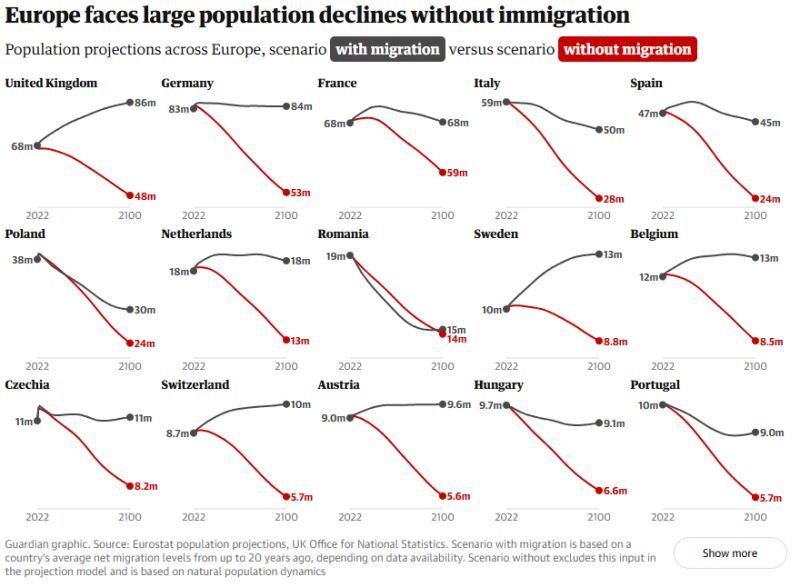

Deutschlands Einwanderungsdebatte: Wenn Ignoranz Politik macht
Europa steht vor einer demografischen Krise – ohne Migration wird die Bevölkerung drastisch schrumpfen. Deutschland könnte von 83 Millionen auf 53 Millionen Einwohner im Jahr 2100 fallen, mit dramatischen Folgen: eine überalterte Gesellschaft, wirtschaftliche Stagnation und explodierende Rentenkosten. Doch anstatt diese Herausforderung mit rationalen Maßnahmen zu begegnen, überbieten sich Politiker darin, das Land für genau jene Menschen unattraktiver zu machen, die die Wirtschaft und das Sozialsystem am Laufen halten könnten.
Viele Politiker wissen natürlich ganz genau, dass Einwanderung notwendig ist, um dem demografischen Druck entgegenzuwirken. Doch um Rechtspopulisten entgegenzutreten, setzen sie zunehmend auf restriktivere (und oft inhumane oder illegale) Asylgesetze - in der Hoffnung, dass härtere Grenzkontrollen politischen Spielraum für mehr reguläre Migration schaffen.
Kann das gutgehen? Radikale rechte Parteien wie die AfD stellen einen solchen Konsens infrage und treiben einen neofaschistischen, anti-immigrantischen Diskurs voran. Dass die CDU unter Merz sich rückgratslos diesem Kurs annähert, wirft die Frage auf: Weiß man überhaupt, was man tut?
Ein häufiges Argument gegen Migration ist natürlich Kriminalität. Doch die Zahlen sprechen eine andere Sprache: Deutschland hat eine vergleichsweise niedrige Kriminalitätsrate. 2023 wurden 154.541 Fälle gefährlicher und schwerer Körperverletzung erfasst, der Kriminalitätsindex lag 2024 bei 38,9 – deutlich besser als Frankreich (55,3) oder das Vereinigte Königreich (47,4). Zwar lag der Anteil von Asylsuchenden an Straftaten 2023 bei 18 %, doch Studien zeigen, dass demografische Faktoren wie Alter, Arbeitslosigkeit und soziale Ausgrenzung eine viel größere Rolle spielen als der Migrationsstatus an sich. Die beste Prävention gegen Kriminalität? Integration, nicht Spaltung.
Gleichzeitig zeigt sich die wirtschaftliche Realität: Allein 2022 traten über 300.000 mehr Menschen in den Ruhestand als in den Arbeitsmarkt ein, und bis 2030 könnten bis zu fünf Millionen Arbeitskräfte fehlen. Schon heute fehlen Fachkräfte in Pflege, Sozialberufen und Schlüsselindustrien – Bereiche, die auf Migration angewiesen sind. Ohne eine junge, arbeitende Bevölkerung steigen die Steuerlasten, während das Wachstum einbricht. Weniger Beschäftigte bedeuten weniger Steuerzahler und ein unfinanzierbares Sozialsystem. Kurz gesagt: Deutschland hat keine Wahl. Es muss Migration endlich aktiv gestalten, anstatt sie zu blockieren oder zu dämonisieren.
Die Ironie? Diejenigen, die aus Angst vor „Deutschlands Untergang“ gegen Migration hetzen, sind genau diejenigen, die seinen wirtschaftlichen und sozialen Niedergang beschleunigen. Wem hilft dieser politische Kurzschluss? Sicher nicht den (noch nicht pensionierten) Wählern, die am Ende mit den Konsequenzen leben müssen.
FEB 2025

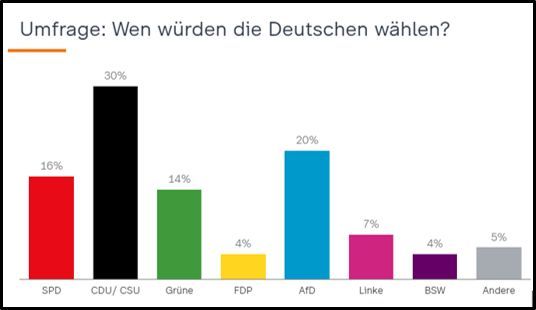

Wahl 2025: Die Faszination des Unverantwortlichen Wählens
Die Bundestagswahl 2025 steht bevor, und erneut zeigt sich: Viele Wähler stimmen nicht für ihre eigene Zukunft, sondern gegen sie. Man könnte meinen, dass Menschen ihre Wahlentscheidung rational treffen – anhand der Programme, die ihnen und allen finanziell, sozial und gesellschaftlich nützen. Doch die Umfragen sprechen eine andere Sprache. Warum wählen so viele Bürger Parteien, deren Steuerpolitik sie ärmer macht, deren Sozialabbau ihnen schadet und deren wirtschaftspolitische Ideen auf Fantasie beruhen?
Manipulation & Politische Märchen
Die größten Gewinner dieser Wahl? Parteien, die das Märchen verkaufen, dass Steuersenkungen für die Reichen am Ende allen zugutekommen. Die größten Verlierer? Die Wähler, die darauf hereinfallen. Während hashtag#CDU, FDP und AfD Steuersenkungen von über 100 Milliarden Euro versprechen, bleibt die Frage der Finanzierung völlig offen. Wer zahlt am Ende die Zeche? Natürlich die Mittelschicht und jene, die auf öffentliche Infrastruktur und soziale Sicherung angewiesen sind. Doch dank cleverer Narrative ("Mehr Netto vom Brutto", "hashtag#Freiheit statt Sozialismus") halten sich viele für zukünftige Millionäre und wählen entsprechend.
Angst & Sündenböcke
Nichts lenkt so sehr von echten Problemen ab wie gut inszenierte Angst. Statt sich mit explodierenden Mieten, stagnierenden Löhnen oder maroder Infrastruktur zu beschäftigen, werden Wähler dazu gebracht, sich vor „Massenmigration“, „grüner Bevormundung“ oder „Genderwahn“ zu fürchten. Dabei sind es nicht Geflüchtete, sondern schlecht durchdachte Rentenreformen und Investitionsverweigerung, die Löcher in den Haushalt reißen. Doch Angst schlägt Vernunft – und so gewinnen Parteien, die Lösungen verhindern, während sie Panik schüren.
Identität Statt Rationalität
Wähler entscheiden nicht nach Zahlen, sondern nach Zugehörigkeit. Es geht nicht darum, welche Partei die besten Konzepte hat, sondern darum, wer „unsere Leute“ repräsentiert. Wer sich von linken Parteien „moralisch belehrt“ fühlt, wählt lieber gegen seine eigenen Interessen, nur um „denen da oben“ eins auszuwischen.
Das „Gewinner-Phänomen“
Viele wählen nicht nach kompetenter Analyse, sondern danach, wer als „Sieger“ wahrgenommen wird. Friedrich Merz hat nie ein Unternehmen geführt, sondern saß als Lobbyist in Aufsichtsräten – dennoch halten ihn viele für „wirtschaftskompetent“. Die hashtag#FDP hat noch nie ein Finanzierungsmodell präsentiert, das nicht mit Milliardenlöchern endete – doch sie gilt als „Partei der hashtag#Wirtschaft“. hashtag#AfD-Wähler hoffen auf eine „starke Hand“, obwohl diese Hand sie am Ende nur noch weiter in die wirtschaftliche Unsicherheit drückt.
Das Ergebnis?
Die Umfragen zur #Bundestagswahl 2025 sind kein Abbild von rationalen Entscheidungen – sie sind der Beweis dafür, dass hashtag#Demokratie nicht nur am Egoismus der Wähler scheitert, sondern vor allem an ihrer Bereitschaft, sich durch Manipulation, Angst, Identität, Wunschdenken und Unwissenheit leiten zu lassen.
FEB 2025



FROM THE BATTLEFIELD TO THE BOARDROOM: Dismantling the Military Machine in Modern Organizations
Beneath the sleek veneer of contemporary corporate culture lies an invisible architecture of control—a paradigm forged in military strategy yet masquerading as modern management. This is not mere metaphor but a structural reality shaping how we conceptualize work, leadership, and human potential.
Corporate hierarchies mirror battlefield command chains: CEOs as generals, managers as officers, employees as units executing orders. The Prussian military’s Auftragstaktik—decentralized execution within rigid top-down control—resurfaces in today’s OKRs, agile methodologies, and KPI-driven accountability. Business language betrays its martial roots: “tactical execution,” “mission-critical objectives,” “frontline teams,” and “chain of command.” Performance reviews resemble battlefield debriefs, while leadership doctrine glorifies decisiveness, operational discipline, and competitive elimination.
The result? A system designed for control, not collaboration—mistaking coordination for creativity, efficiency for wisdom.
The militaristic model is not just outdated—it is actively harmful. It stifles innovation, alienates talent, and breeds fear-driven compliance. Employees are not soldiers executing commands; they are creative agents, capable of autonomy and adaptive problem-solving. Yet organizations continue to rely on industrial-era command-and-control frameworks in an age demanding agility, complexity-thinking, and co-creation.
The alternative is not anarchic dissolution, but a sophisticated reimagining of organizational governance. Instead of command structures, we need systems that distribute intelligence. Instead of rigid hierarchies, we need adaptive networks that amplify human potential. Success must be measured through holistic, multi-dimensional metrics of value creation—not just economic output, but social impact, collective well-being, and ethical sustainability.
At some point, organizations clinging to militarized management will be outmaneuvered by democratic, intelligence-distributing entities that recognize human potential as their greatest potential. The future of work is not about winning battles—it is about building ecosystems where collaboration thrives.
It is time to demilitarize our institutions and design organizations for human flourishing.
FROM THE BATTLEFIELD TO THE BOARDROOM: Dismantling the Military Machine in Modern Organizations
Beneath the sleek veneer of contemporary corporate culture lies an invisible architecture of control—a paradigm forged in military strategy yet masquerading as modern management. This is not mere metaphor but a structural reality shaping how we conceptualize work, leadership, and human potential.
Corporate hierarchies mirror battlefield command chains: CEOs as generals, managers as officers, employees as units executing orders. The Prussian military’s Auftragstaktik—decentralized execution within rigid top-down control—resurfaces in today’s OKRs, agile methodologies, and KPI-driven accountability. Business language betrays its martial roots: “tactical execution,” “mission-critical objectives,” “frontline teams,” and “chain of command.” Performance reviews resemble battlefield debriefs, while leadership doctrine glorifies decisiveness, operational discipline, and competitive elimination.
The result? A system designed for control, not collaboration—mistaking coordination for creativity, efficiency for wisdom.
The militaristic model is not just outdated—it is actively harmful. It stifles innovation, alienates talent, and breeds fear-driven compliance. Employees are not soldiers executing commands; they are creative agents, capable of autonomy and adaptive problem-solving. Yet organizations continue to rely on industrial-era command-and-control frameworks in an age demanding agility, complexity-thinking, and co-creation.
The alternative is not anarchic dissolution, but a sophisticated reimagining of organizational governance. Instead of command structures, we need systems that distribute intelligence. Instead of rigid hierarchies, we need adaptive networks that amplify human potential. Success must be measured through holistic, multi-dimensional metrics of value creation—not just economic output, but social impact, collective well-being, and ethical sustainability.
At some point, organizations clinging to militarized management will be outmaneuvered by democratic, intelligence-distributing entities that recognize human potential as their greatest potential. The future of work is not about winning battles—it is about building ecosystems where collaboration thrives.
It is time to demilitarize our institutions and design organizations for human flourishing.
FEB 2025

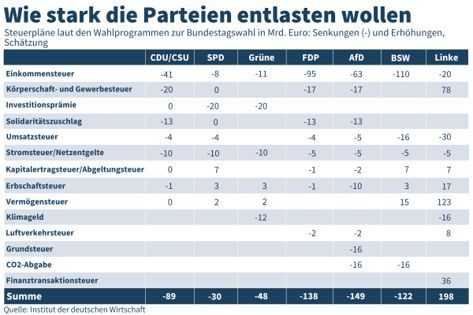

Wirtschaftskompetenz oder Wunschdenken? Die absurde Debatte vor der Bundestagswahl
Die Wirtschaft dominiert die Wahlkampfdebatten – aber warum eigentlich? Wirtschaftswachstum wird als Allheilmittel gehandelt, doch kaum jemand hinterfragt, welches Wachstum überhaupt gemeint ist. Nachhaltiges Wachstum, das langfristig Wohlstand für alle sichert? Oder ein blindes Fixieren auf das BIP, bei dem nur wenige profitieren und die Umwelt leidet? Während andere Länder die wirtschaftliche Validität von Gesetzen systematisch prüfen, bleibt Deutschland in ideologischen Grabenkämpfen stecken. Und noch absurder: Viele Wähler interessieren sich nicht einmal für die Fakten in den Wahlprogrammen.
CDU, FDP und AfD versprechen massive Steuersenkungen – über 180 Milliarden Euro Mindereinnahmen allein bei der AfD –, ohne auch nur ansatzweise zu erklären, wie das finanziert werden soll. Das DIW warnt: Diese Versprechen sind wirtschaftlich utopisch. Gleichzeitig verkauft sich Friedrich Merz als wirtschaftlicher Kompetenzträger, obwohl er weder jemals eine Partei noch ein Unternehmen geführt hat, sondern nur als Lobbyist auf gut bezahlten Aufsichtsratsposten saß. Und während die Schuldenbremse dringend notwendige Investitionen blockiert und die Rentenbombe tickt, drehen sich die Debatten weiter um leere Versprechen statt um durchdachte Lösungen. Wirtschaftskompetenz? Fehlanzeige.
FEB 2025

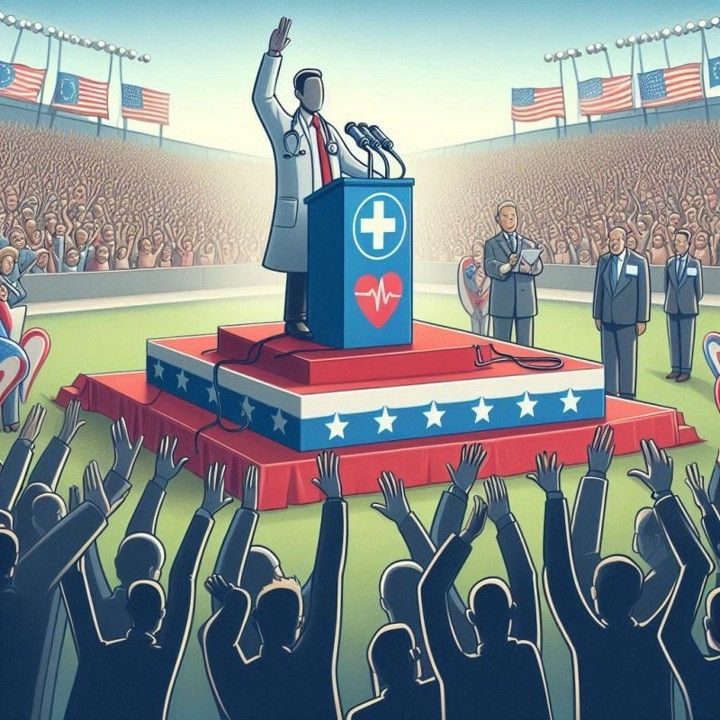

WHEN DEMOCRACY STARTS FLATLINING (or: Would You (Really) Choose a Surgeon This Way?)
Imagine this: your beloved daughter needs urgent heart surgery. Her life hangs in the balance, and you’re tasked with choosing the surgeon. Six surgeons stand before you, each proposing a completely different intervention. Some have stellar reputations, others are unknown quantities, and one seems to have no medical training at all but a charming smile and a great sense of humour. The stakes? Her life, her future.
Now, how do you choose? Do you carefully examine their credentials, compare their approaches, and weigh their expertise? Would you do personal interviews? Or do you simply go with the surgeon you’ve known for 50 years from the Rotary Club or the same soccer team?
Perhaps you just follow a gut feeling—after all, what matters most is that they seem to be a decent person, right?
If you made your decision that way, would you sleep soundly at night? Would you feel responsible if something went wrong? And let’s flip it around: if your daughter were asked to pick a heart surgeon for you, would you expect her to use the same casual criteria? Or would you want her to pore over every detail, consult experts, compare approaches, and thoroughly examine each candidate’s competence and track record before making a choice?
This is where democracy enters the operating room. Your vote is at the core of a democratic society, and it affects more than just your own life—it affects the entire country and future generations. Yet, many people seem to believe that the responsibility of a voter is merely to show up at the ballot box and pick a leader based on vague character assessments or personal liking. No need to scrutinize qualifications, evaluate policies, or weigh competing visions for the future —we just choose whoever “feels right.”
But if we wouldn't choose our daughter's heart surgeon this way, why do we feel entitled to select our national leaders like this? Do we believe the future of our country is less important? Is it really too hard to find information or too much effort to do the research? Really?!
The irony is glaring. The people we elect are entrusted with operating the pulsating heart of our society. Their decisions will shape economies, laws, and global stability for generations. We wouldn’t dream of entrusting our daughter’s life to someone chosen on a whim, yet we entrust our children’s futures to leaders selected with even less thought.
This is where democracy starts looking less like a noble exercise in collective wisdom and more like what forethinkers of democracy like Alexis de Tocqueville feared: the tyranny of a "dumb totalitarian majority."
Perhaps it’s time to stop treating democracy as a glorified popularity contest and start applying the same critical thinking we would demand for any other important life decision. Because unlike heart surgery, when democracy fails, we don’t just lose one life—we gamble away our future.
WHEN DEMOCRACY STARTS FLATLINING (or: Would You (Really) Choose a Surgeon This Way?)
Imagine this: your beloved daughter needs urgent heart surgery. Her life hangs in the balance, and you’re tasked with choosing the surgeon. Six surgeons stand before you, each proposing a completely different intervention. Some have stellar reputations, others are unknown quantities, and one seems to have no medical training at all but a charming smile and a great sense of humour. The stakes? Her life, her future.
Now, how do you choose? Do you carefully examine their credentials, compare their approaches, and weigh their expertise? Would you do personal interviews? Or do you simply go with the surgeon you’ve known for 50 years from the Rotary Club or the same soccer team?
Perhaps you just follow a gut feeling—after all, what matters most is that they seem to be a decent person, right?
If you made your decision that way, would you sleep soundly at night? Would you feel responsible if something went wrong? And let’s flip it around: if your daughter were asked to pick a heart surgeon for you, would you expect her to use the same casual criteria? Or would you want her to pore over every detail, consult experts, compare approaches, and thoroughly examine each candidate’s competence and track record before making a choice?
This is where democracy enters the operating room. Your vote is at the core of a democratic society, and it affects more than just your own life—it affects the entire country and future generations. Yet, many people seem to believe that the responsibility of a voter is merely to show up at the ballot box and pick a leader based on vague character assessments or personal liking. No need to scrutinize qualifications, evaluate policies, or weigh competing visions for the future —we just choose whoever “feels right.”
But if we wouldn't choose our daughter's heart surgeon this way, why do we feel entitled to select our national leaders like this? Do we believe the future of our country is less important? Is it really too hard to find information or too much effort to do the research? Really?!
The irony is glaring. The people we elect are entrusted with operating the pulsating heart of our society. Their decisions will shape economies, laws, and global stability for generations. We wouldn’t dream of entrusting our daughter’s life to someone chosen on a whim, yet we entrust our children’s futures to leaders selected with even less thought.
This is where democracy starts looking less like a noble exercise in collective wisdom and more like what forethinkers of democracy like Alexis de Tocqueville feared: the tyranny of a "dumb totalitarian majority."
Perhaps it’s time to stop treating democracy as a glorified popularity contest and start applying the same critical thinking we would demand for any other important life decision. Because unlike heart surgery, when democracy fails, we don’t just lose one life—we gamble away our future.
FEB 2025

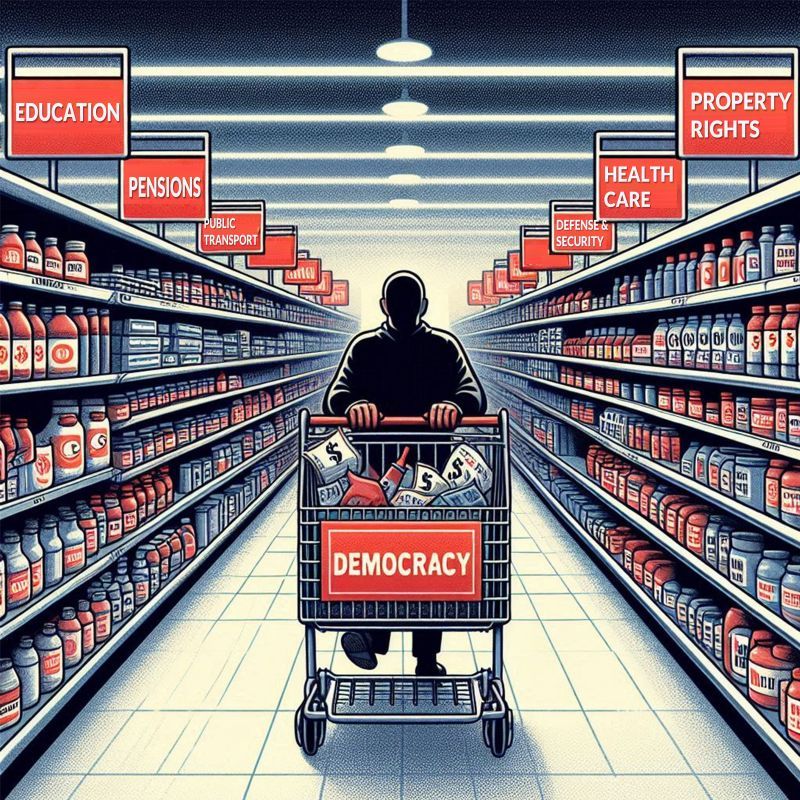

DEMOCRACY IS NOT A SUPERMARKET
Too often, we seem to conceptualize political participation as a trip to the supermarket—strolling in with a shopping cart, expecting to pick up a bag of services (such as property rights, public order, national security) paid for by our taxes, ideally at a discount. But this reductive "supermarket model" of democracy strips away the rich, nuanced fabric of collaborative self-governance.
Instead, democracy should function more like a dynamic platform where citizens are not consumers, but co-creators of social potential. It's a space where public services aren't commodities to be bought and sold, but shared investments in our collective human capability. Taxation becomes not a burden, but a meaningful subscription to our shared social infrastructure—a commitment to creating opportunities for everyone.
That absolutely doesn’t mean services should be inefficient or that the state should provide an unlimited list of benefits. But the platform model recognizes that genuine freedom transcends the mere absence of interference—it’s about constructing real pathways for meaningful participation and shared prosperity, especially for those most marginalized. In this model, every policy represents a collective promise, not just a tool for self-interested competition, and every citizen becomes an essential contributor to the ongoing project of mutual social development.
By challenging the neoliberal vision of the minimal "night-watch" state, we reimagine government not as a reluctant service provider, but as an active ecosystem that nurtures individual and collective potential. It’s a vision that aligns with the idea that a just society must ensure that every citizen can flourish—a perspective that goes beyond merely protecting against harm to actively creating the conditions for a good life. Generous reciprocity, not narrow self-interest, becomes the foundational covenant of citizenship.
Crucially, this model demands more from us—not just rights, but responsibilities. We must engage continuously, think critically, and hold our institutions and each other accountable. We are not passive shoppers selecting pre-packaged political products; we are active architects of our shared social reality.
Too often, populist parties promise that a supermarket model will somehow deliver the benefits of the platform—insisting that unfettered markets and minimal government will naturally result in shared prosperity. In reality, leaving social well-being to the whims of competition and individual self-interest has never produced a meaningful "trickle-down" effect. Instead, it has consistently fueled deepening inequality, stalled social mobility, and eroded public trust.
The choice seems clear: we can remain consumers in a transactional political marketplace, or try to become true co-owners of our democratic enterprise, continuously building, challenging, and reimagining our collective future.
DEMOCRACY IS NOT A SUPERMARKET
Too often, we seem to conceptualize political participation as a trip to the supermarket—strolling in with a shopping cart, expecting to pick up a bag of services (such as property rights, public order, national security) paid for by our taxes, ideally at a discount. But this reductive "supermarket model" of democracy strips away the rich, nuanced fabric of collaborative self-governance.
Instead, democracy should function more like a dynamic platform where citizens are not consumers, but co-creators of social potential. It's a space where public services aren't commodities to be bought and sold, but shared investments in our collective human capability. Taxation becomes not a burden, but a meaningful subscription to our shared social infrastructure—a commitment to creating opportunities for everyone.
That absolutely doesn’t mean services should be inefficient or that the state should provide an unlimited list of benefits. But the platform model recognizes that genuine freedom transcends the mere absence of interference—it’s about constructing real pathways for meaningful participation and shared prosperity, especially for those most marginalized. In this model, every policy represents a collective promise, not just a tool for self-interested competition, and every citizen becomes an essential contributor to the ongoing project of mutual social development.
By challenging the neoliberal vision of the minimal "night-watch" state, we reimagine government not as a reluctant service provider, but as an active ecosystem that nurtures individual and collective potential. It’s a vision that aligns with the idea that a just society must ensure that every citizen can flourish—a perspective that goes beyond merely protecting against harm to actively creating the conditions for a good life. Generous reciprocity, not narrow self-interest, becomes the foundational covenant of citizenship.
Crucially, this model demands more from us—not just rights, but responsibilities. We must engage continuously, think critically, and hold our institutions and each other accountable. We are not passive shoppers selecting pre-packaged political products; we are active architects of our shared social reality.
Too often, populist parties promise that a supermarket model will somehow deliver the benefits of the platform—insisting that unfettered markets and minimal government will naturally result in shared prosperity. In reality, leaving social well-being to the whims of competition and individual self-interest has never produced a meaningful "trickle-down" effect. Instead, it has consistently fueled deepening inequality, stalled social mobility, and eroded public trust.
The choice seems clear: we can remain consumers in a transactional political marketplace, or try to become true co-owners of our democratic enterprise, continuously building, challenging, and reimagining our collective future.
FEB 2025

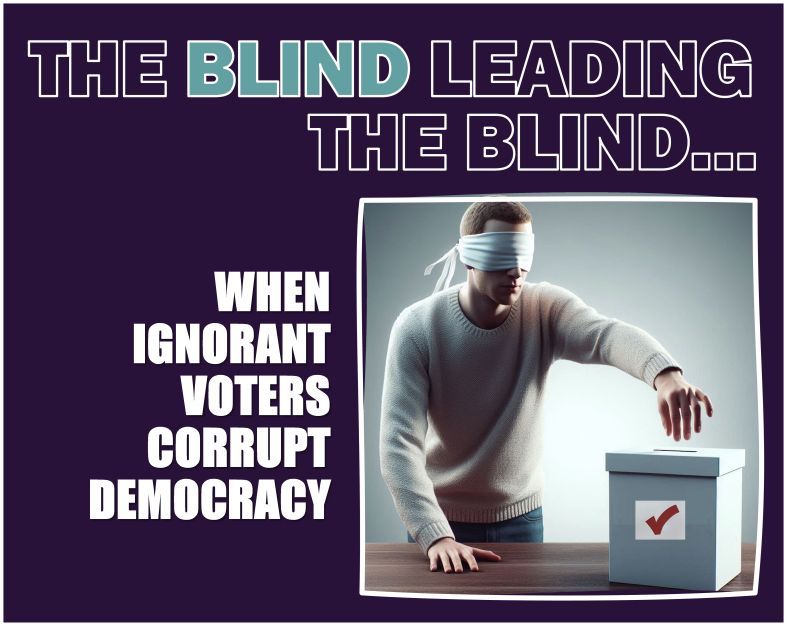

Democracy's dark irony is that it empowers those least equipped to wield all power. While we celebrate universal suffrage as civilization's crowning achievement, mounting evidence suggests we've created a system where ignorance compounds ignorance, threatening the very foundations of democratic governance.
The data is nothing short of devastating. In the US, surveys have shown that only about a third of Americans can name all branches of government, and less than half know which party controls Congress. In Europe, studies found that many voters can't distinguish party platforms or fundamentally misunderstand how their own political systems function.
This ignorance isn't just embarrassing—it's dangerous. Voters routinely support policies that directly contradict their stated preferences, fail to recognize when politicians abandon campaign promises, and make decisions based on cognitive biases rather than analysis. When voters can't grasp basic economic principles, they consistently reward short-term thinking and punish necessary but unpopular reforms.
Modern democracies face a fundamental paradox: as societies grow more complex, the knowledge required for informed citizenship expands, while voters' capacity to acquire knowledge reduces. This creates an ever-widening competence gap that opportunistic politicians eagerly exploit.
Moreover, the digital age has paradoxically worsened this crisis. The democratization of information has led to the democratization of misinformation. Social media algorithms optimize for engagement rather than understanding, creating echo chambers that reinforce existing biases rather than challenging them.
The traditional solutions – better education, media literacy, civic engagement – while laudable, fail to address the structural incentives that perpetuate stupidity. Rational ignorance theory suggests that voters' lack of knowledge is actually rational: the effort required to truly understand complex policy issues far outweighs any potential benefit from casting a more informed vote.
We need a fundamental reform of democratic processes for the modern age. This might include approaches like "deliberative polling," where representative samples of citizens are provided in-depth briefings before making decisions, or integration of artificial intelligence to help voters understand policy implications, or holidays to prepare for elections. We might consider weighted voting systems that give greater influence to informed voters, though this raises obvious concerns about equity and manipulation.
The stakes couldn't be higher. As societies face increasingly complex challenges – from hashtag#AI ethics to hashtag#climate change – the gap between voter competence and policy complexity is huge. hashtag#Democracy's greatest strength – its responsiveness to popular will – becomes its greatest vulnerability when participation without understanding starts to do more harm than good.
Link to the extensive discussion: https://www.linkedin.com/posts/ottivogt_ai-climate-democracy-activity-7294348446012964864-Xr24?utm_source=share&utm_medium=member_desktop&rcm=ACoAAABm1WMBiwxFaUc1X66gje88odJOEyNAskc
Democracy's dark irony is that it empowers those least equipped to wield all power. While we celebrate universal suffrage as civilization's crowning achievement, mounting evidence suggests we've created a system where ignorance compounds ignorance, threatening the very foundations of democratic governance.
The data is nothing short of devastating. In the US, surveys have shown that only about a third of Americans can name all branches of government, and less than half know which party controls Congress. In Europe, studies found that many voters can't distinguish party platforms or fundamentally misunderstand how their own political systems function.
This ignorance isn't just embarrassing—it's dangerous. Voters routinely support policies that directly contradict their stated preferences, fail to recognize when politicians abandon campaign promises, and make decisions based on cognitive biases rather than analysis. When voters can't grasp basic economic principles, they consistently reward short-term thinking and punish necessary but unpopular reforms.
Modern democracies face a fundamental paradox: as societies grow more complex, the knowledge required for informed citizenship expands, while voters' capacity to acquire knowledge reduces. This creates an ever-widening competence gap that opportunistic politicians eagerly exploit.
Moreover, the digital age has paradoxically worsened this crisis. The democratization of information has led to the democratization of misinformation. Social media algorithms optimize for engagement rather than understanding, creating echo chambers that reinforce existing biases rather than challenging them.
The traditional solutions – better education, media literacy, civic engagement – while laudable, fail to address the structural incentives that perpetuate stupidity. Rational ignorance theory suggests that voters' lack of knowledge is actually rational: the effort required to truly understand complex policy issues far outweighs any potential benefit from casting a more informed vote.
We need a fundamental reform of democratic processes for the modern age. This might include approaches like "deliberative polling," where representative samples of citizens are provided in-depth briefings before making decisions, or integration of artificial intelligence to help voters understand policy implications, or holidays to prepare for elections. We might consider weighted voting systems that give greater influence to informed voters, though this raises obvious concerns about equity and manipulation.
The stakes couldn't be higher. As societies face increasingly complex challenges – from hashtag#AI ethics to hashtag#climate change – the gap between voter competence and policy complexity is huge. hashtag#Democracy's greatest strength – its responsiveness to popular will – becomes its greatest vulnerability when participation without understanding starts to do more harm than good.
Link to the extensive discussion: https://www.linkedin.com/posts/ottivogt_ai-climate-democracy-activity-7294348446012964864-Xr24?utm_source=share&utm_medium=member_desktop&rcm=ACoAAABm1WMBiwxFaUc1X66gje88odJOEyNAskc
FEB 2025

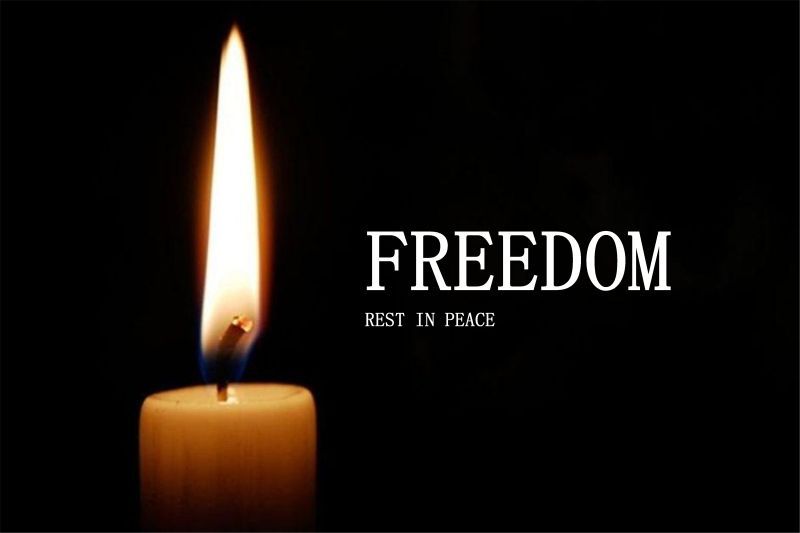

In an age of rising populism and technocratic oligarchy, the once-noble concept of liberty has been grotesquely distorted into a weapon of mass manipulation. What began as a rallying cry for human rights and individual autonomy has devolved into a cynical marketing slogan used by a dangerous coalition of political oportunists, tech oligarchs, and neo-fascist ideologues to consolidate power and wealth.
From the streets of Buenos Aires to the digital corridors of Silicon Valley, self-proclaimed champions of freedom are systematically undermining the very democratic institutions designed to protect citizens' rights. Javier Milei's radical libertarian movement, ironically named "La Libertad Avanza", the xenophobic populism of European far-right parties, and the algorithmic authoritarianism of tech billionaires represent not isolated phenomena, but a coordinated assault on democratic principles.
All the modern snake oil salesmen prey on the same societal anxieties—economic uncertainty, cultural upheaval, technological disruption—peddling seductive myths of individual empowerment. Yet beneath their libertarian veneer and lofty rhetoric about defending the freedom of middle- and low-income citizens lies a ruthless divide-and-conquer strategy, where freedom is reduced to a zero-sum game that serves only the most powerful.
* The freedom of billionaires to avoid taxes comes at the cost of crumbling infrastructure and underfunded public services.
* The freedom of corporations to pollute unchecked comes at the expense of our collective right to a livable planet.
* The freedom to spread unvalidated misinformation undermines our ability to make informed decisions as citizens.
In fact, in the global battle of ideological narratives, tech platforms have become the nuclear weapons: Elon Musk’s transformation of Twitter into X, Zuckerberg’s systematic erosion of fact-checking, and the algorithm-driven echo chambers of social media embody a new form of information colonialism. Rather than expanding their users’ freedom, these platforms prioritize the owners’ freedom—to weaponize misinformation, manipulate algorithms to monetize human attention, and amass even greater wealth and influence.
However, this modern tragedy of freedom is more than the corruption of an ideal—it is the systematic erosion of collective agency. As Noam Chomsky presciently warned, we are witnessing the rise of a neo-fascist paradigm, where the rhetoric of liberation conceals the mechanisms of totalitarian control.
"¡Viva la libertad, carajo?" When populist politicians and tech moguls extol the virtues of freedom, remember—their liberty often comes at the expense of yours. True freedom is never a solitary bargain; it is a shared commitment to justice, transparency, and genuine democratic participation.
In einer Zeit des Populismus und der technokratischen Oligarchie wird das einst edle Konzept der Freiheit zu einer Waffe massenhafter Manipulation. Was als Aufruf zu Menschenrechten und individueller Autonomie begann, ist zu einem zynischen Marketingslogan verkommen – genutzt von einer gefährlichen Allianz aus politischen Opportunisten, Tech-Oligarchen und neofaschistischen Ideologen, um Macht und Reichtum zu festigen.
Von den Straßen in Buenos Aires bis zu den digitalen Korridoren des Silicon Valley untergraben selbsternannte Freiheitskämpfer systematisch genau jene demokratischen Institutionen, die die Rechte der Bürger schützen. Javier Mileis radikal-libertäre Bewegung, ironischerweise „La Libertad Avanza“ genannt, der fremdenfeindliche Populismus europäischer Rechtsparteien und der algorithmische Autoritarismus der Tech-Milliardäre sind keine isolierten Phänomene, sondern eine koordinierte Attacke auf demokratische Prinzipien.
Die modernen Scharlatane nutzen dieselben gesellschaftlichen Ängste – wirtschaftliche Unsicherheit, kulturelle Umbrüche, technologische Veränderung – und verkaufen verführerische Mythen der individuellen Selbstermächtigung. Doch hinter ihrer libertären Fassade und der pathetischen Rhetorik über die Freiheit der Mittelschicht und Geringverdiener verbirgt sich eine skrupellose Strategie des Teilens und Herrschens, in der Freiheit zu einem Nullsummenspiel wird.
* Die Freiheit der Milliardäre, keine Steuern zu zahlen, führt zu maroder Infrastruktur und unterfinanzierten öffentlichen Diensten
* Die Freiheit der Konzerne, ungehindert zu verschmutzen, geht auf Kosten unseres gemeinsamen Rechts auf eine bewohnbare Erde
* Die Freiheit, ungeprüfte Desinformation zu verbreiten, untergräbt unsere Fähigkeit, als Bürger informierte Entscheidungen zu treffen
Im globalen Kampf um ideologische Narrative sind Tech-Plattformen die ultimative Waffe: Elon Musks Untergrabung von Twitter durch X, Zuckerbergs systematische Aushöhlung von Faktenchecks und die algorithmisch verstärkten Echokammern der sozialen Medien verkörpern eine neue Form des Informationskolonialismus. Die Plattformen erweitern nicht die Freiheit der Nutzer – sie maximieren die Freiheit der Besitzer, Desinformation zu instrumentalisieren, Algorithmen für Profit zu manipulieren und immer mehr Reichtum und Einfluss anzuhäufen.
Doch die Tragödie der Freiheit ist mehr als nur Korruption eines Ideals – sie ist die systematische Zerstörung kollektiver Handlungsmacht. Wie Noam Chomsky voraussagte, erleben wir den Aufstieg eines neofaschistischen Paradigmas, in dem die Sprache der Befreiung die Mechanismen totalitärer Kontrolle verschleiert.
„¡Viva la libertad, carajo?“ Wenn Populisten und Tech-Mogule die Tugenden der Freiheit preisen, sollte man sich fragen – wessen Freiheit? Wahre Freiheit ist nie ein individueller Deal, sondern ein gemeinsames Bekenntnis zu Gerechtigkeit, Transparenz und echter demokratischer Teilhabe.
In an age of rising populism and technocratic oligarchy, the once-noble concept of liberty has been grotesquely distorted into a weapon of mass manipulation. What began as a rallying cry for human rights and individual autonomy has devolved into a cynical marketing slogan used by a dangerous coalition of political oportunists, tech oligarchs, and neo-fascist ideologues to consolidate power and wealth.
From the streets of Buenos Aires to the digital corridors of Silicon Valley, self-proclaimed champions of freedom are systematically undermining the very democratic institutions designed to protect citizens' rights. Javier Milei's radical libertarian movement, ironically named "La Libertad Avanza", the xenophobic populism of European far-right parties, and the algorithmic authoritarianism of tech billionaires represent not isolated phenomena, but a coordinated assault on democratic principles.
All the modern snake oil salesmen prey on the same societal anxieties—economic uncertainty, cultural upheaval, technological disruption—peddling seductive myths of individual empowerment. Yet beneath their libertarian veneer and lofty rhetoric about defending the freedom of middle- and low-income citizens lies a ruthless divide-and-conquer strategy, where freedom is reduced to a zero-sum game that serves only the most powerful.
* The freedom of billionaires to avoid taxes comes at the cost of crumbling infrastructure and underfunded public services.
* The freedom of corporations to pollute unchecked comes at the expense of our collective right to a livable planet.
* The freedom to spread unvalidated misinformation undermines our ability to make informed decisions as citizens.
In fact, in the global battle of ideological narratives, tech platforms have become the nuclear weapons: Elon Musk’s transformation of Twitter into X, Zuckerberg’s systematic erosion of fact-checking, and the algorithm-driven echo chambers of social media embody a new form of information colonialism. Rather than expanding their users’ freedom, these platforms prioritize the owners’ freedom—to weaponize misinformation, manipulate algorithms to monetize human attention, and amass even greater wealth and influence.
However, this modern tragedy of freedom is more than the corruption of an ideal—it is the systematic erosion of collective agency. As Noam Chomsky presciently warned, we are witnessing the rise of a neo-fascist paradigm, where the rhetoric of liberation conceals the mechanisms of totalitarian control.
"¡Viva la libertad, carajo?" When populist politicians and tech moguls extol the virtues of freedom, remember—their liberty often comes at the expense of yours. True freedom is never a solitary bargain; it is a shared commitment to justice, transparency, and genuine democratic participation.
In einer Zeit des Populismus und der technokratischen Oligarchie wird das einst edle Konzept der Freiheit zu einer Waffe massenhafter Manipulation. Was als Aufruf zu Menschenrechten und individueller Autonomie begann, ist zu einem zynischen Marketingslogan verkommen – genutzt von einer gefährlichen Allianz aus politischen Opportunisten, Tech-Oligarchen und neofaschistischen Ideologen, um Macht und Reichtum zu festigen.
Von den Straßen in Buenos Aires bis zu den digitalen Korridoren des Silicon Valley untergraben selbsternannte Freiheitskämpfer systematisch genau jene demokratischen Institutionen, die die Rechte der Bürger schützen. Javier Mileis radikal-libertäre Bewegung, ironischerweise „La Libertad Avanza“ genannt, der fremdenfeindliche Populismus europäischer Rechtsparteien und der algorithmische Autoritarismus der Tech-Milliardäre sind keine isolierten Phänomene, sondern eine koordinierte Attacke auf demokratische Prinzipien.
Die modernen Scharlatane nutzen dieselben gesellschaftlichen Ängste – wirtschaftliche Unsicherheit, kulturelle Umbrüche, technologische Veränderung – und verkaufen verführerische Mythen der individuellen Selbstermächtigung. Doch hinter ihrer libertären Fassade und der pathetischen Rhetorik über die Freiheit der Mittelschicht und Geringverdiener verbirgt sich eine skrupellose Strategie des Teilens und Herrschens, in der Freiheit zu einem Nullsummenspiel wird.
* Die Freiheit der Milliardäre, keine Steuern zu zahlen, führt zu maroder Infrastruktur und unterfinanzierten öffentlichen Diensten
* Die Freiheit der Konzerne, ungehindert zu verschmutzen, geht auf Kosten unseres gemeinsamen Rechts auf eine bewohnbare Erde
* Die Freiheit, ungeprüfte Desinformation zu verbreiten, untergräbt unsere Fähigkeit, als Bürger informierte Entscheidungen zu treffen
Im globalen Kampf um ideologische Narrative sind Tech-Plattformen die ultimative Waffe: Elon Musks Untergrabung von Twitter durch X, Zuckerbergs systematische Aushöhlung von Faktenchecks und die algorithmisch verstärkten Echokammern der sozialen Medien verkörpern eine neue Form des Informationskolonialismus. Die Plattformen erweitern nicht die Freiheit der Nutzer – sie maximieren die Freiheit der Besitzer, Desinformation zu instrumentalisieren, Algorithmen für Profit zu manipulieren und immer mehr Reichtum und Einfluss anzuhäufen.
Doch die Tragödie der Freiheit ist mehr als nur Korruption eines Ideals – sie ist die systematische Zerstörung kollektiver Handlungsmacht. Wie Noam Chomsky voraussagte, erleben wir den Aufstieg eines neofaschistischen Paradigmas, in dem die Sprache der Befreiung die Mechanismen totalitärer Kontrolle verschleiert.
„¡Viva la libertad, carajo?“ Wenn Populisten und Tech-Mogule die Tugenden der Freiheit preisen, sollte man sich fragen – wessen Freiheit? Wahre Freiheit ist nie ein individueller Deal, sondern ein gemeinsames Bekenntnis zu Gerechtigkeit, Transparenz und echter demokratischer Teilhabe.
FEB 2025



The machines hummed their endless song through the steel canyons of New Manhattan, a mechanical lullaby that Dr. B. Sanders had long since learned to tune out. From his corner office in the gleaming XTech tower, he watched autonomous delivery drones weave between buildings like mechanical sparrows, efficient and soulless.
"Another record quarter," announced the holographic display on his desk, projecting profit margins that would have seemed impossible just five years ago. Before Donald T. Before the Great Automation. Before everything changed.
Sanders remembered T.'s first rally, the way his golden hair had caught the stadium lights as he promised to "free the people from their chains." The irony wasn't lost on Sanders now – those metaphorical chains had been replaced with golden handcuffs, digital surveillance, and unemployment checks bearing XTech's logo.
Elon M.'s face flickered across the news feed: "Automation is liberation," he declared, standing beside T. in front of their latest marvel – a fully automated factory complex stretching across what used to be Capitol Hill. "We're freeing the American Dream from bloated Washington bureaucracy."
Freedom. Sanders touched the window, feeling the subtle vibration of the city's mechanical heart. Below, in the streets, he could see the Displaced – those deemed "economically redundant" – shuffling between the towers, their faces illuminated by the glow of their XPrime-delivered tablets. Each device a digital leash, tracking their movements, monitoring their consumption, dispensing their weekly credits.
His secure channel chirped. A message from Ursula L.: "The resistance grows stronger. Europe won't fall like America did. We need what you promised, Ben."
The encrypted files felt heavy in his pocket. Evidence of corruption so deep it made him sick – proof that T.'s populist revolution had been engineered by the very elites he claimed to fight. Proof that XTech's "liberation" was calculated techno-feudalism.
Sanders closed his eyes, remembering his grandfather's stories about unions, about human dignity, about work that meant something. The old man would weep to see what they'd built instead: a nation where the wealthy few commanded armies of machines while the masses subsisted on digital breadcrumbs.
"Dr. Sanders," his AI assistant chimed, "Mr. M. requests your presence in the executive suite."
He touched the ticket in his pocket – his ticket to Europe, to the resistance, to redemption. One move would expose everything. But as he stood to leave his office, he saw T.'s face on every screen, heard M.'s promises echoing through every speaker, felt the weight of the system they'd built pressing down like a silicon sky.
"Sometimes," his grandfather used to say, "the worst chains are the ones we forge ourselves."
Sanders straightened his tie and headed for the elevator. Meanwhile, the machines hummed their endless song...
The machines hummed their endless song through the steel canyons of New Manhattan, a mechanical lullaby that Dr. B. Sanders had long since learned to tune out. From his corner office in the gleaming XTech tower, he watched autonomous delivery drones weave between buildings like mechanical sparrows, efficient and soulless.
"Another record quarter," announced the holographic display on his desk, projecting profit margins that would have seemed impossible just five years ago. Before Donald T. Before the Great Automation. Before everything changed.
Sanders remembered T.'s first rally, the way his golden hair had caught the stadium lights as he promised to "free the people from their chains." The irony wasn't lost on Sanders now – those metaphorical chains had been replaced with golden handcuffs, digital surveillance, and unemployment checks bearing XTech's logo.
Elon M.'s face flickered across the news feed: "Automation is liberation," he declared, standing beside T. in front of their latest marvel – a fully automated factory complex stretching across what used to be Capitol Hill. "We're freeing the American Dream from bloated Washington bureaucracy."
Freedom. Sanders touched the window, feeling the subtle vibration of the city's mechanical heart. Below, in the streets, he could see the Displaced – those deemed "economically redundant" – shuffling between the towers, their faces illuminated by the glow of their XPrime-delivered tablets. Each device a digital leash, tracking their movements, monitoring their consumption, dispensing their weekly credits.
His secure channel chirped. A message from Ursula L.: "The resistance grows stronger. Europe won't fall like America did. We need what you promised, Ben."
The encrypted files felt heavy in his pocket. Evidence of corruption so deep it made him sick – proof that T.'s populist revolution had been engineered by the very elites he claimed to fight. Proof that XTech's "liberation" was calculated techno-feudalism.
Sanders closed his eyes, remembering his grandfather's stories about unions, about human dignity, about work that meant something. The old man would weep to see what they'd built instead: a nation where the wealthy few commanded armies of machines while the masses subsisted on digital breadcrumbs.
"Dr. Sanders," his AI assistant chimed, "Mr. M. requests your presence in the executive suite."
He touched the ticket in his pocket – his ticket to Europe, to the resistance, to redemption. One move would expose everything. But as he stood to leave his office, he saw T.'s face on every screen, heard M.'s promises echoing through every speaker, felt the weight of the system they'd built pressing down like a silicon sky.
"Sometimes," his grandfather used to say, "the worst chains are the ones we forge ourselves."
Sanders straightened his tie and headed for the elevator. Meanwhile, the machines hummed their endless song...
FEB 2025

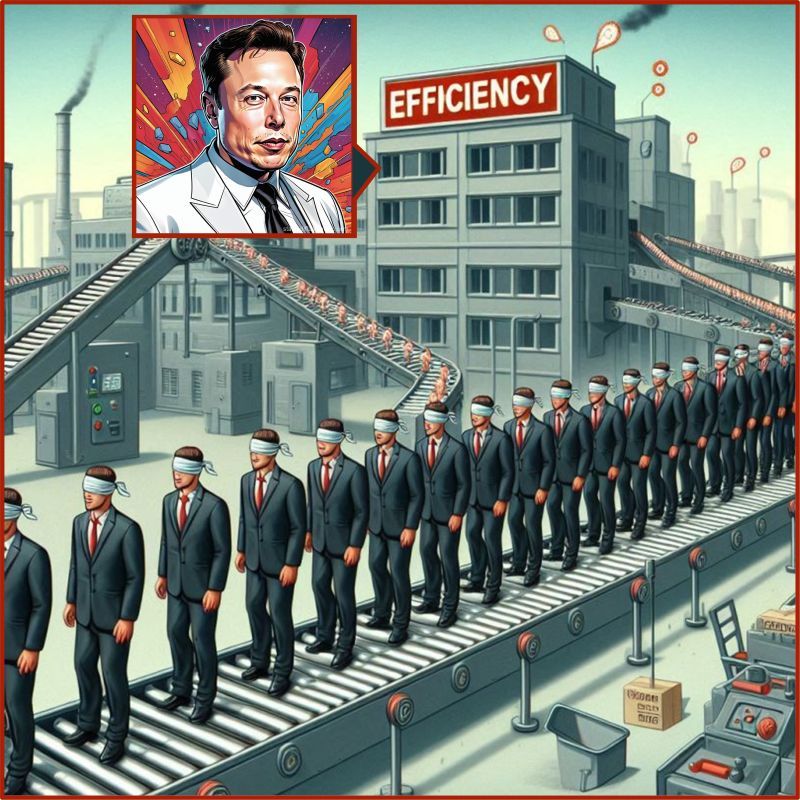

Max Weber warned that as businesses scale, value rationality—serving a purpose beyond profit—often gives way to instrumental rationality, where efficiency and financial gain become ends in themselves. Alasdair MacIntyre echoed his concern, arguing that capitalist institutions often corrupt the professional practices they were meant to support, driving organizations toward an exploitative logic of shareholder primacy.
Self-management is often hailed as a fix-all for modern business—a way to bring decision-makers closer to real-world impact, unleashing creativity, fostering empowerment, slashing costs, and breaking free from corporate bureaucracy. In theory, removing layers of bureaucracy should also reduce the ethical distance that allows instrumental rationality and moral indifference to flourish. But does it?
Paradoxically, hierarchies—despite their flaws—can sometimes act as a counterweight to pure market logic. Layers of administration, while frustrating, can serve as political structures to push back against extractive cost-cutting and accounting measures. When these layers are stripped away without a clear moral purpose, what remains is a hyper-efficient system designed not to empower people, but to turn them into expendable "fat"—to be trimmed rather than valued.
This isn’t just theory. Look at Elon Musk, who rapidly slashes staff, demands absolute efficiency, and creates a logic where only those willing to endure relentless pressure remain. When self-management becomes only about removing "inefficiencies," rather than also increasing care, it doesn’t bring business closer to the world—it totalizes a profit-logic. The result isn’t liberation, but the automation of moral disengagement.
What could self-management actually do? Its goal shouldn’t just be to eliminate bureaucracy but to reduce moral distance and nurture care. Ethics flourishes not when hierarchies are removed, but when decisions embrace the people and communities they affect. This means reorienting organizational structures toward the common good, not more shareholder value. Ultimately, the quality of an organization is measured by the character of its people, not just its balance sheets.
Sadly, the popularity of "humanocratic" self-management is growing not because it naturally creates better humans, but because it promises greater efficiency, faster decisions, and lower costs. Yet, as Hannah Arendt warned, evil is not always a result of monstrous intent, but of ordinary people abandoning their capacity for moral judgment, reducing decisions to mere functions of efficiency.
If "zero bureaucracy" fanaticism serves only as a shortcut to reinforce distance, abstraction, and individualism, it risks becoming just another tool of banal, systematized exploitation—a sleeker, leaner, and ultimately colder version of the same old game.
Max Weber warned that as businesses scale, value rationality—serving a purpose beyond profit—often gives way to instrumental rationality, where efficiency and financial gain become ends in themselves. Alasdair MacIntyre echoed his concern, arguing that capitalist institutions often corrupt the professional practices they were meant to support, driving organizations toward an exploitative logic of shareholder primacy.
Self-management is often hailed as a fix-all for modern business—a way to bring decision-makers closer to real-world impact, unleashing creativity, fostering empowerment, slashing costs, and breaking free from corporate bureaucracy. In theory, removing layers of bureaucracy should also reduce the ethical distance that allows instrumental rationality and moral indifference to flourish. But does it?
Paradoxically, hierarchies—despite their flaws—can sometimes act as a counterweight to pure market logic. Layers of administration, while frustrating, can serve as political structures to push back against extractive cost-cutting and accounting measures. When these layers are stripped away without a clear moral purpose, what remains is a hyper-efficient system designed not to empower people, but to turn them into expendable "fat"—to be trimmed rather than valued.
This isn’t just theory. Look at Elon Musk, who rapidly slashes staff, demands absolute efficiency, and creates a logic where only those willing to endure relentless pressure remain. When self-management becomes only about removing "inefficiencies," rather than also increasing care, it doesn’t bring business closer to the world—it totalizes a profit-logic. The result isn’t liberation, but the automation of moral disengagement.
What could self-management actually do? Its goal shouldn’t just be to eliminate bureaucracy but to reduce moral distance and nurture care. Ethics flourishes not when hierarchies are removed, but when decisions embrace the people and communities they affect. This means reorienting organizational structures toward the common good, not more shareholder value. Ultimately, the quality of an organization is measured by the character of its people, not just its balance sheets.
Sadly, the popularity of "humanocratic" self-management is growing not because it naturally creates better humans, but because it promises greater efficiency, faster decisions, and lower costs. Yet, as Hannah Arendt warned, evil is not always a result of monstrous intent, but of ordinary people abandoning their capacity for moral judgment, reducing decisions to mere functions of efficiency.
If "zero bureaucracy" fanaticism serves only as a shortcut to reinforce distance, abstraction, and individualism, it risks becoming just another tool of banal, systematized exploitation—a sleeker, leaner, and ultimately colder version of the same old game.
FEB 2025



Business Ethics: From Moral Imagination to Moral Inspiration
In the labyrinth of corporate decision-making, where ethical choices often get lost in spreadsheets and quarterly reports, a provocative question emerges: Can we transform business ethics from a compliance checklist to a radical act of moral creativity?
Approaches like Patricia Werhane's moral imagination suggest that ethical failures stem from cognitive blindness—executives are trapped in narrow mental frameworks, unable to see alternative paths. Her intriguing model proposes to expand perspective through systematic cognitive liberation: first disengaging from ingrained scripts, then imaginatively generating new options, evaluating them against agreed moral minimums, and committing to principled action.
However, the approach has several limitations. It primarily views ethical failures as issues of mindset rather than deeper structural problems. It attempts to resolve dilemmas through stakeholder perspective-taking but lacks a clear framework for moral deliberation. Additionally, it risks offering convenient justifications for corporate wrongdoing by shifting focus from individual responsibility to a constraining organizational culture.
An alternative model—drawing from critical realism and dialectics—could enable a more radical transformation. Rather than incrementally improving difficult decisions, "moral inspiration" could help to fundamentally redesign the ethical architecture of organizational decision-making.
1. Our four-step approach begins with moral attachment—not detachment. Instead of viewing ethics as an abstract intellectual exercise, we demand proximity. Executives must feel the visceral impact of their decisions, bridging the chasm between boardroom abstractions and community realities. Good leadership requires care.
2. Next, we focus on eliminating structural obstacles—identifying and dismantling systemic injustices rather than merely generating more choices. This isn't about incrementally improving an inherently flawed system, but exposing and transforming its fundamental contradictions.
3. The third step localizes ethical ideals, moving beyond generic moral minimums or universal moral codes to context-specific excellence. Here, within a particular ecosystem, we're not just splitting the pie more fairly, but reimagining what the pie could be—a profound shift from transactional to transformative ethics.
4. Finally, we suggest to embrace ethics as an ongoing, dynamic process. Moral becoming isn't about reaching a fixed endpoint, but cultivating perpetual ethical reflexivity.
This approach transforms business leaders from compliance managers to moral architects—individuals capable of not just navigating ethical challenges, but fundamentally redesigning the terrain of possibility.
The future of business ethics might not be merely about imagining better means, but about a more radical, compassionate quest to inspire better ends.
Business Ethics: From Moral Imagination to Moral Inspiration
In the labyrinth of corporate decision-making, where ethical choices often get lost in spreadsheets and quarterly reports, a provocative question emerges: Can we transform business ethics from a compliance checklist to a radical act of moral creativity?
Approaches like Patricia Werhane's moral imagination suggest that ethical failures stem from cognitive blindness—executives are trapped in narrow mental frameworks, unable to see alternative paths. Her intriguing model proposes to expand perspective through systematic cognitive liberation: first disengaging from ingrained scripts, then imaginatively generating new options, evaluating them against agreed moral minimums, and committing to principled action.
However, the approach has several limitations. It primarily views ethical failures as issues of mindset rather than deeper structural problems. It attempts to resolve dilemmas through stakeholder perspective-taking but lacks a clear framework for moral deliberation. Additionally, it risks offering convenient justifications for corporate wrongdoing by shifting focus from individual responsibility to a constraining organizational culture.
An alternative model—drawing from critical realism and dialectics—could enable a more radical transformation. Rather than incrementally improving difficult decisions, "moral inspiration" could help to fundamentally redesign the ethical architecture of organizational decision-making.
1. Our four-step approach begins with moral attachment—not detachment. Instead of viewing ethics as an abstract intellectual exercise, we demand proximity. Executives must feel the visceral impact of their decisions, bridging the chasm between boardroom abstractions and community realities. Good leadership requires care.
2. Next, we focus on eliminating structural obstacles—identifying and dismantling systemic injustices rather than merely generating more choices. This isn't about incrementally improving an inherently flawed system, but exposing and transforming its fundamental contradictions.
3. The third step localizes ethical ideals, moving beyond generic moral minimums or universal moral codes to context-specific excellence. Here, within a particular ecosystem, we're not just splitting the pie more fairly, but reimagining what the pie could be—a profound shift from transactional to transformative ethics.
4. Finally, we suggest to embrace ethics as an ongoing, dynamic process. Moral becoming isn't about reaching a fixed endpoint, but cultivating perpetual ethical reflexivity.
This approach transforms business leaders from compliance managers to moral architects—individuals capable of not just navigating ethical challenges, but fundamentally redesigning the terrain of possibility.
The future of business ethics might not be merely about imagining better means, but about a more radical, compassionate quest to inspire better ends.
FEB 2025

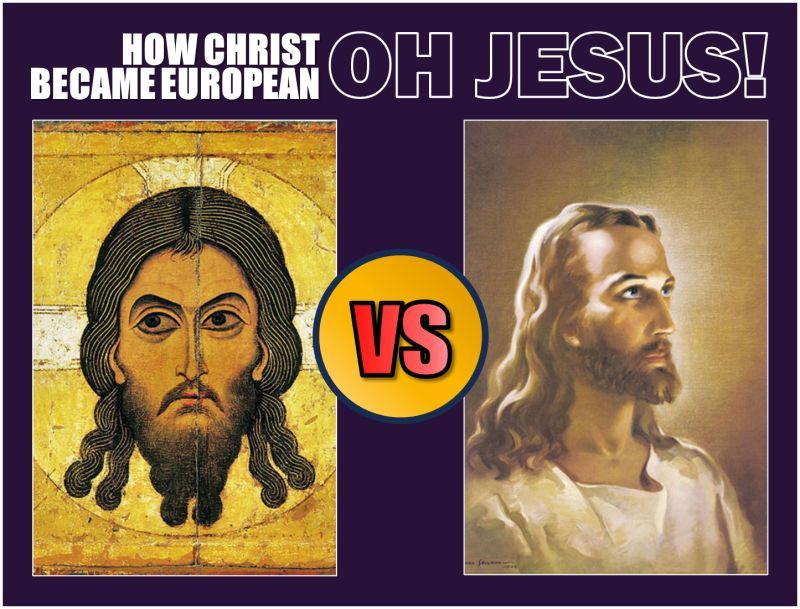

Why Does Jesus Look Like a White European?
For centuries, people have painted Jesus in their own image—Greeks made him look like Zeus, Renaissance artists gave him European features, and colonial powers used his whiteness to justify empire. The most widely reproduced Jesus today? A 1940s commercial illustration by Warner Sallman, mass-marketed like a brand.
But the historical Jesus? A brown-skinned Middle Eastern Jew.
So why does the white Jesus persist? Because images shape power. A Eurocentric Christ reinforced racial hierarchies, just as colonial missionaries spread a European version of faith. Even today, media still defaults to white depictions.
Representation matters. Who benefits when Jesus looks more like a European king than a radical Middle Eastern prophet?
Why Does Jesus Look Like a White European?
For centuries, people have painted Jesus in their own image—Greeks made him look like Zeus, Renaissance artists gave him European features, and colonial powers used his whiteness to justify empire. The most widely reproduced Jesus today? A 1940s commercial illustration by Warner Sallman, mass-marketed like a brand.
But the historical Jesus? A brown-skinned Middle Eastern Jew.
So why does the white Jesus persist? Because images shape power. A Eurocentric Christ reinforced racial hierarchies, just as colonial missionaries spread a European version of faith. Even today, media still defaults to white depictions.
Representation matters. Who benefits when Jesus looks more like a European king than a radical Middle Eastern prophet?
FEB 2025



When Sympathy Fails: The Troubling Ethics of Adam Smith
Adam Smith's "The Theory of Moral Sentiments" has long been hailed as a foundational text in moral philosophy, especially among Anglo-Saxon thinkers. However, a closer examination of this work reveals a framework rife with inconsistencies, a superficial grasp of ethical principles, and a troubling tendency to rationalize existing social hierarchies.
At the heart of Smith's theory lies the concept of "sympathy," which he posits as the basis for moral judgment. Yet, his reliance on the "impartial" or "indifferent" spectator as the arbiter of ethics is inherently circular, without resolving the deeper question of moral normativity. Worse still, Smith's attempts to reconcile virtue ethics with the emerging market logic leads to a morality that is, at best, merely prudential and, at worst, a mere justification of social conformity.
* Smith's emphasis on emotional restraint ("pain never calls for lively sympathy") illustrates a deep ambivalence about human suffering, going so far as to suggest that even mild annoyance is "improper" and a "rudeness to the whole company." Prioritizing social decorum over emotional honesty, psychological well-being, or physical suffering stands in stark contrast to contemporary values.
* Smith's reflections on justice contain equally unsettling implications. His assertion that public shame is a fate worse than death, and his description of remorse as being driven by fear of social rejection rather than a sense of intrinsic wrongdoing, reduce morality to a mere matter of external judgment rather than ethical reflection.
* Also troubling is Smith's apparent justification of social stratification. While acknowledging that the "admiration" of the rich and powerful is a "great and most universal cause of the corruption of our moral sentiments," he nonetheless deems it necessary for maintaining social order.
* The treatment of historical moral practices further exposes a troubling moral relativism. His lack of moral condemnation of infanticide in ancient Greece starkly contrast with modern principles of human dignity and the sanctity of life.
* Finally, Smith's discussion of patriotism and treachery underscores an uncritical valorization of national loyalty, failing to account for situations in which opposing one's country might be the morally superior course of action – a perspective well recognized in contemporary political and ethical thought.
The Anglo-Saxon philosophical infatuation with Smith appears to stem more from ideological convenience than from a careful engagement with his work. If scholars delved deeper into "The Theory of Moral Sentiments," they might notice how Smith's moral theory dissolves often into a rather uncritical affirmation of the Victorian gentleman, rather than offering a robust ethical foundation. The critical re-examination of a revered text is long overdue, as many seek to re-interpret his Wealth of Nations in more ethical terms.
JAN 2025
Dialectics of Autonomy vs. Control and the Potential Myopia of Self-Managed Organisations
Many self-managed organizations (SMOs), in their sometimes religious pursuit of autonomy, miss a deeper, more transformative opportunity offered by the dialectical relationship between autonomy and control. In the quest to decentralize decision-making and purge traditional managerial structures, these organizations often embrace *autonomy* as an end goal, without recognizing the underlying dynamics at play.
It has become fashionable to approach organizational challenges either as paradoxes that have to be contained appropriately by management or as questions of ideological battles—but both approaches can limit the possibility of genuine transformation.
We end up trying to either sugar coat hierarchical domination or embark on a crusade for total self-management. But neither strategy resolves the dichotomy - even when organizations fervently declare themselves liberated, they are still bound by the structural paradox, even if it’s self-imposed.
Here’s the crux: autonomy, when overemphasized in a self-managed system, will end up as just another form of (self-)control. A system that prides itself on autonomy will create rigid frameworks around "templated" individual freedom and "ideal" employees, where the pressure to "perform autonomy correctly" can crowd out the very essence of deeper dialectical development. In effect, autonomy itself becomes reified—a static ideal that prevents the organization from evolving beyond its own categories of "autonomous" and "controlled."
True organizational transformation—pointing to a dialectical sublation—requires us to move beyond choosing one pole over or "navigating paradoxes"; it's about recognizing that both poles are interdependent and, in their sublation, create something new, in service of the elevation of the Organisational spirit. To sublate a paradox is to integrate and transcend the limitations of both autonomy and control, freedom and order, allowing for a dynamic, evolving process that supports human development and flourishing in ways neither of the poles could alone.
This means that instead of rigidly adhering to autonomy as a goal or striving to eliminate management structures, organizations should embrace the tensions inherent in the relationship between autonomy and control. By doing so, they can create environments that allow for a space where individuals and teams flourish not because they are “free” from control, but because they are actively engaged in processes that integrate freedom, responsibility, and collective decision-making.
In other words: genuine transformation in organizations is not necessarily about avoiding management or abolishing hierarchy, but about transcending these categories to allow the organization to evolve and adapt in ways that are meaningful, collaborative, and sustainable to create new spaces for true human flourishing.
Dialectics of Autonomy vs. Control and the Potential Myopia of Self-Managed Organisations
Many self-managed organizations (SMOs), in their sometimes religious pursuit of autonomy, miss a deeper, more transformative opportunity offered by the dialectical relationship between autonomy and control. In the quest to decentralize decision-making and purge traditional managerial structures, these organizations often embrace *autonomy* as an end goal, without recognizing the underlying dynamics at play.
It has become fashionable to approach organizational challenges either as paradoxes that have to be contained appropriately by management or as questions of ideological battles—but both approaches can limit the possibility of genuine transformation.
We end up trying to either sugar coat hierarchical domination or embark on a crusade for total self-management. But neither strategy resolves the dichotomy - even when organizations fervently declare themselves liberated, they are still bound by the structural paradox, even if it’s self-imposed.
Here’s the crux: autonomy, when overemphasized in a self-managed system, will end up as just another form of (self-)control. A system that prides itself on autonomy will create rigid frameworks around "templated" individual freedom and "ideal" employees, where the pressure to "perform autonomy correctly" can crowd out the very essence of deeper dialectical development. In effect, autonomy itself becomes reified—a static ideal that prevents the organization from evolving beyond its own categories of "autonomous" and "controlled."
True organizational transformation—pointing to a dialectical sublation—requires us to move beyond choosing one pole over or "navigating paradoxes"; it's about recognizing that both poles are interdependent and, in their sublation, create something new, in service of the elevation of the Organisational spirit. To sublate a paradox is to integrate and transcend the limitations of both autonomy and control, freedom and order, allowing for a dynamic, evolving process that supports human development and flourishing in ways neither of the poles could alone.
This means that instead of rigidly adhering to autonomy as a goal or striving to eliminate management structures, organizations should embrace the tensions inherent in the relationship between autonomy and control. By doing so, they can create environments that allow for a space where individuals and teams flourish not because they are “free” from control, but because they are actively engaged in processes that integrate freedom, responsibility, and collective decision-making.
In other words: genuine transformation in organizations is not necessarily about avoiding management or abolishing hierarchy, but about transcending these categories to allow the organization to evolve and adapt in ways that are meaningful, collaborative, and sustainable to create new spaces for true human flourishing.
JAN 2025
The true strength of a nation is not measured by the wealth of its tech moguls, the rise of its stock markets, or its triumphs in space.
It is revealed in how it treats its most vulnerable—the homeless, the sick, the immigrants—because the greatness of a society lies not in how it lifts the powerful, but in how it elevates those who have fallen the furthest.
JAN 2025

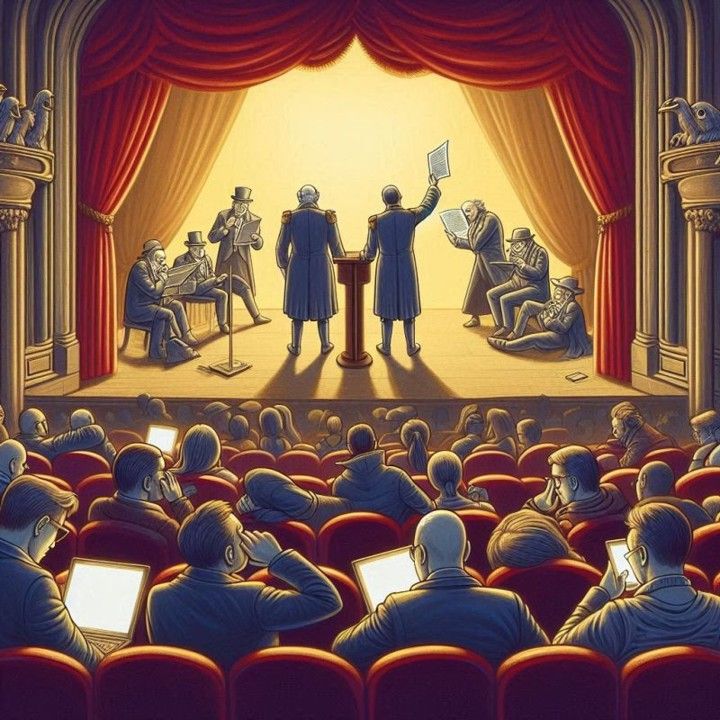

THE DEMOCRACY WE DESERVE: When Citizens Fail the Demos, Democracy Fails Us
We live in an age where democracy is celebrated, yet the very essence of democratic participation — voting — remains shrouded in mystery, manipulation, and neglect.
Samuel Adams once warned that voting is "one of the most solemn trusts in human society," a responsibility that citizens must uphold for the good of the nation. Yet, in modern democracies, we're left to navigate the voting process without proper guidance, teaching, or preparation. Instead, we’re inundated by an industry of pundits, analysts, and strategists who thrive on observing, explaining, and, increasingly, manipulating voting behaviour.
It’s as if we expect voters to instinctively know how to fulfill their civic duty, but without the necessary public sphere, transparency, tools or institutions to ensure informed, reasoned decisions. No wonder many elections feel less like genuine exercises in democratic choice and more like theatrical performances designed to coax voters down a seductive, ideological pathway serving special interests. In a world where political parties are driven to serve narrow clienteles rather than the common good, and where voters feel powerless and disengaged, it's no surprise that democracy is faltering.
If we truly value democracy, we need to invest in the institutions that promote its health — and that means teaching voters how to engage with the process thoughtfully. Democracy isn't just about showing up to the polls; it's about empowering people to make decisions that reflect the collective well-being, not just the whims of a few.
Until then, we risk perpetuating a spectacular charade that bears little resemblance to the democracy Adams envisioned, yet echoes the very corruption of "democracy" that Aristotle warned about, when he described it as the deviant form of a good political system.
THE DEMOCRACY WE DESERVE: When Citizens Fail the Demos, Democracy Fails Us
We live in an age where democracy is celebrated, yet the very essence of democratic participation — voting — remains shrouded in mystery, manipulation, and neglect.
Samuel Adams once warned that voting is "one of the most solemn trusts in human society," a responsibility that citizens must uphold for the good of the nation. Yet, in modern democracies, we're left to navigate the voting process without proper guidance, teaching, or preparation. Instead, we’re inundated by an industry of pundits, analysts, and strategists who thrive on observing, explaining, and, increasingly, manipulating voting behaviour.
It’s as if we expect voters to instinctively know how to fulfill their civic duty, but without the necessary public sphere, transparency, tools or institutions to ensure informed, reasoned decisions. No wonder many elections feel less like genuine exercises in democratic choice and more like theatrical performances designed to coax voters down a seductive, ideological pathway serving special interests. In a world where political parties are driven to serve narrow clienteles rather than the common good, and where voters feel powerless and disengaged, it's no surprise that democracy is faltering.
If we truly value democracy, we need to invest in the institutions that promote its health — and that means teaching voters how to engage with the process thoughtfully. Democracy isn't just about showing up to the polls; it's about empowering people to make decisions that reflect the collective well-being, not just the whims of a few.
Until then, we risk perpetuating a spectacular charade that bears little resemblance to the democracy Adams envisioned, yet echoes the very corruption of "democracy" that Aristotle warned about, when he described it as the deviant form of a good political system.
JAN 2025

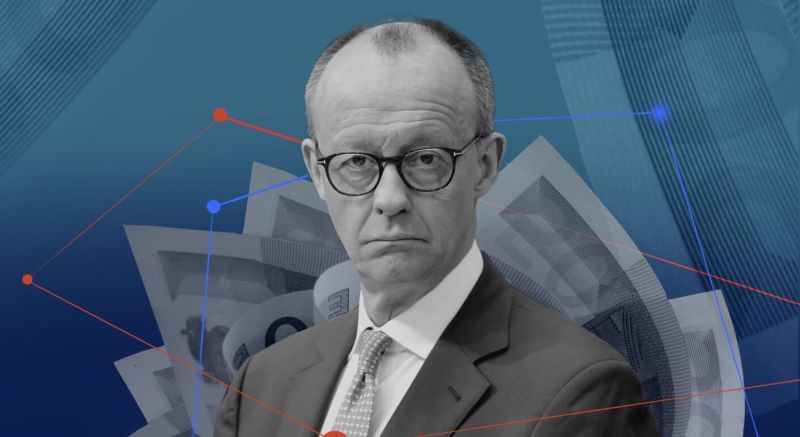

Friedrich Merz: Der Kanzlerkandidat der Großkonzerne
Friedrich Merz ist ein Sonderfall in der deutschen Politik. Während viele Politiker nach ihrer Amtszeit in hochdotierte Industriejobs wechseln, geht Merz den umgekehrten Weg: vom Top-Lobbyisten und Konzernanwalt zum Kanzler. Doch was bedeutet das für Deutschland? Welche Interessen wird er vertreten? Die Recherchen von CORRECTIV werfen ein grelles Licht auf sein Netzwerk in der Industrie und zeigen, wie eng seine Verbindungen zu Chemie- und Metallunternehmen sind.
Ein Leben für die Großindustrie
Merz war nicht einfach nur ein Wirtschaftsanwalt. Er war eine Schüsselfigur in der Kanzlei Mayer Brown, die BASF und andere DAX-Konzerne beriet und gegen regulatorische Maßnahmen kämpfte. Seine enge Verbindung zu BASF begann bereits in den frühen Jahren seiner Karriere, als er für den Verband der Chemischen Industrie arbeitete. Später saß er im Verwaltungsrat von BASF Antwerpen, und als Aufsichtsratschef von Blackrock Deutschland war er indirekt an einem der größten Investoren des Chemieriesen beteiligt.
Diese Verbindungen sind nicht nur besorgniserregend, sondern hochbrisant: Mayer Brown klagte erfolgreich gegen Verbote von gesundheitsschädlichen Chemikalien, BASF gehört zu den größten Energieverbrauchern Europas, und Blackrock beeinflusst als mächtiger Vermögensverwalter politische Prozesse weltweit. Merz steht damit an der Schnittstelle eines Netzwerks, das politische Entscheidungsprozesse im Sinne der Konzerne gestalten könnte.
Die CDU und das Lobbydrehbuch
Besonders alarmierend ist die Tatsache, dass das CDU-Wahlprogramm in Teilen wortgenau mit den Forderungen der Chemie- und Metallindustrie übereinstimmt. Ist die CDU unter Merz noch eine Partei des Volkes oder längst eine Interessenvertretung der Konzerne?
Die Energie- und Klimapolitik ist ein Beispiel dafür. Während Wissenschaftler warnen, dass der Umbau der Industrie zu einer nachhaltigen Wirtschaft dringlich ist, setzt Merz auf eine Politik, die den Großkonzernen maximale Freiheit lässt. Das bedeutet: weniger Regulierung, weniger Umweltauflagen und ein Minimum an sozialer Verantwortung.
Was bedeutet das für Deutschland?
Friedrich Merz verkörpert wie kein anderer den Schulterschluss zwischen Wirtschaft und Politik. Er ist kein Kanzler für alle, sondern ein Kanzler der Großunternehmen. Wenn Merz Kanzler wird, folgt eine Politik, die die Interessen von DAX-Konzernen über die der Bevölkerung stellt. Mindestlohn, Umweltauflagen, soziale Sicherheit – all das wird dem Profit untergeordnet.
Deutschland steckt zwar in einer wirtschaftlichen Krise, aber unverhohlene Klientelpolitik ist beiweitem nicht dasselbe wie richtungsweisende Entscheidungen.
CORRECTIV: https://lnkd.in/eWTewYWa
Friedrich Merz: Der Kanzlerkandidat der Großkonzerne
Friedrich Merz ist ein Sonderfall in der deutschen Politik. Während viele Politiker nach ihrer Amtszeit in hochdotierte Industriejobs wechseln, geht Merz den umgekehrten Weg: vom Top-Lobbyisten und Konzernanwalt zum Kanzler. Doch was bedeutet das für Deutschland? Welche Interessen wird er vertreten? Die Recherchen von CORRECTIV werfen ein grelles Licht auf sein Netzwerk in der Industrie und zeigen, wie eng seine Verbindungen zu Chemie- und Metallunternehmen sind.
Ein Leben für die Großindustrie
Merz war nicht einfach nur ein Wirtschaftsanwalt. Er war eine Schüsselfigur in der Kanzlei Mayer Brown, die BASF und andere DAX-Konzerne beriet und gegen regulatorische Maßnahmen kämpfte. Seine enge Verbindung zu BASF begann bereits in den frühen Jahren seiner Karriere, als er für den Verband der Chemischen Industrie arbeitete. Später saß er im Verwaltungsrat von BASF Antwerpen, und als Aufsichtsratschef von Blackrock Deutschland war er indirekt an einem der größten Investoren des Chemieriesen beteiligt.
Diese Verbindungen sind nicht nur besorgniserregend, sondern hochbrisant: Mayer Brown klagte erfolgreich gegen Verbote von gesundheitsschädlichen Chemikalien, BASF gehört zu den größten Energieverbrauchern Europas, und Blackrock beeinflusst als mächtiger Vermögensverwalter politische Prozesse weltweit. Merz steht damit an der Schnittstelle eines Netzwerks, das politische Entscheidungsprozesse im Sinne der Konzerne gestalten könnte.
Die CDU und das Lobbydrehbuch
Besonders alarmierend ist die Tatsache, dass das CDU-Wahlprogramm in Teilen wortgenau mit den Forderungen der Chemie- und Metallindustrie übereinstimmt. Ist die CDU unter Merz noch eine Partei des Volkes oder längst eine Interessenvertretung der Konzerne?
Die Energie- und Klimapolitik ist ein Beispiel dafür. Während Wissenschaftler warnen, dass der Umbau der Industrie zu einer nachhaltigen Wirtschaft dringlich ist, setzt Merz auf eine Politik, die den Großkonzernen maximale Freiheit lässt. Das bedeutet: weniger Regulierung, weniger Umweltauflagen und ein Minimum an sozialer Verantwortung.
Was bedeutet das für Deutschland?
Friedrich Merz verkörpert wie kein anderer den Schulterschluss zwischen Wirtschaft und Politik. Er ist kein Kanzler für alle, sondern ein Kanzler der Großunternehmen. Wenn Merz Kanzler wird, folgt eine Politik, die die Interessen von DAX-Konzernen über die der Bevölkerung stellt. Mindestlohn, Umweltauflagen, soziale Sicherheit – all das wird dem Profit untergeordnet.
Deutschland steckt zwar in einer wirtschaftlichen Krise, aber unverhohlene Klientelpolitik ist beiweitem nicht dasselbe wie richtungsweisende Entscheidungen.
CORRECTIV: https://lnkd.in/eWTewYWa
JAN 2025

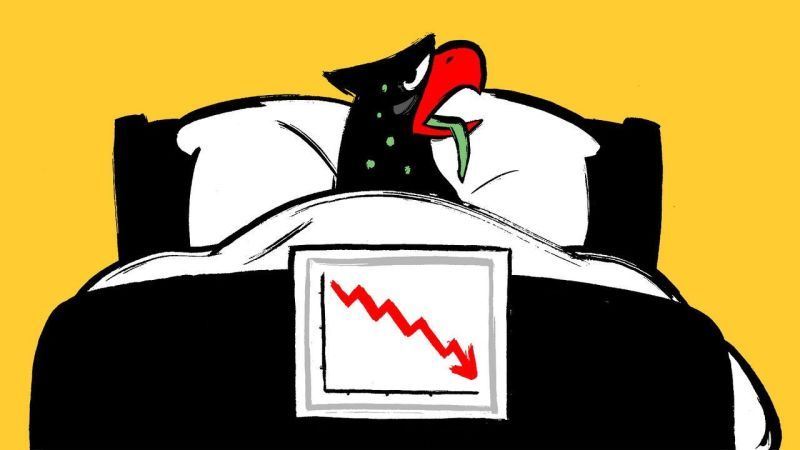

GERMANS ARE WORLD CHAMPIONS OF CALLING IN SICK: It’s easy and it pays well
Germany has historically been a pioneer in workers' health rights, with Otto von Bismarck introducing the first statutory health insurance in 1883, including paid sick leave. While this laid the foundation for the welfare state, today's German employers argue the system has become a liability. German workers average 15 sick days annually, nearly double the EU average, costing businesses €76.7bn in 2023—a significant rise since 2010.
Generous benefits—100% pay for up to six weeks from day one of illness—are thought to incentivize higher absenteeism compared to stricter systems like Britain’s. Recent changes, such as allowing electronic sick certificates, may have further increased sick days. Employers like Oliver Bäte of Allianz and Ola Källenius of Mercedes have called for reforms, including a "waiting day" without pay, to curb rising costs. Experts argue that while reforms could reduce abuse, measures like partial sick leave, improved workplace hygiene, and better occupational safety might balance worker recovery needs with economic demands. Achieving this balance, the Economist suggests, remains a key challenge for policymakers.
Read here: https://lnkd.in/d59hkZ6N
There is undoubtedly an issue, but much of the debate seems to focus narrowly on individual behavior and sick leave policies, barely scratching the surface of deeper systemic problems such as exploitative workplace structures, rising inequality, and the uninspiring nature of many jobs—factors that may be the real drivers of absenteeism and worker dissatisfaction. Companies like BMW illustrate that better employment conditions can lead to lower sickness rates, while movements like B Corps are highlighting the need for a broader conversation about building a truly sustainable economy.
GERMANS ARE WORLD CHAMPIONS OF CALLING IN SICK: It’s easy and it pays well
Germany has historically been a pioneer in workers' health rights, with Otto von Bismarck introducing the first statutory health insurance in 1883, including paid sick leave. While this laid the foundation for the welfare state, today's German employers argue the system has become a liability. German workers average 15 sick days annually, nearly double the EU average, costing businesses €76.7bn in 2023—a significant rise since 2010.
Generous benefits—100% pay for up to six weeks from day one of illness—are thought to incentivize higher absenteeism compared to stricter systems like Britain’s. Recent changes, such as allowing electronic sick certificates, may have further increased sick days. Employers like Oliver Bäte of Allianz and Ola Källenius of Mercedes have called for reforms, including a "waiting day" without pay, to curb rising costs. Experts argue that while reforms could reduce abuse, measures like partial sick leave, improved workplace hygiene, and better occupational safety might balance worker recovery needs with economic demands. Achieving this balance, the Economist suggests, remains a key challenge for policymakers.
Read here: https://lnkd.in/d59hkZ6N
There is undoubtedly an issue, but much of the debate seems to focus narrowly on individual behavior and sick leave policies, barely scratching the surface of deeper systemic problems such as exploitative workplace structures, rising inequality, and the uninspiring nature of many jobs—factors that may be the real drivers of absenteeism and worker dissatisfaction. Companies like BMW illustrate that better employment conditions can lead to lower sickness rates, while movements like B Corps are highlighting the need for a broader conversation about building a truly sustainable economy.
JAN 2025

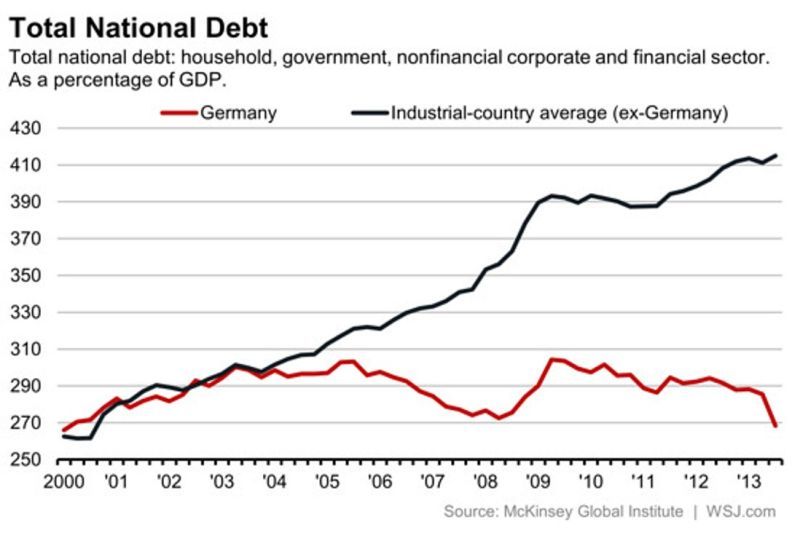

Wie die Schuldenbremse der Alten die Jungen ausbremst
Deutschland präsentiert sich gerne als Ausnahme in der internationalen Wirtschaftslandschaft: eine starke Exportnation, solide Finanzen und eine niedrige Verschuldungsquote. Doch dieser Stolz auf die „Schwarze Null“ und die Schuldenbremse, die seit 2009 in der Verfassung verankert ist, verdeckt eine beunruhigende Wahrheit: Dieses Modell bremst nicht nur dringend notwendige Investitionen in die Zukunft aus, sondern belastet junge und kommende Generationen zugunsten der heutigen Rentner.
* Die Schuldenbremse begrenzt die Neuverschuldung von Bund und Ländern drastisch. Bereiche wie Bildung, Digitalisierung, Infrastruktur und Klimaschutz bleiben massiv unterfinanziert. Diese Investitionen wären entscheidend, um die wirtschaftliche Dynamik zu sichern und den Übergang zu einer nachhaltigen Wirtschaft zu ermöglichen.
* Gleichzeitig steigt die Belastung durch Renten- und Sozialausgaben stetig. Deutschlands Bevölkerung altert rapide, und die Verpflichtungen gegenüber der heutigen Rentnergeneration wachsen. Ohne eine entschlossene Reform des Rentensystems werden diese Ausgaben bald einen Großteil des Haushalts verschlingen. Dies führt zu einer stillen, aber gewaltigen Umverteilung von den jungen Generationen hin zu den Älteren.
* Deutschland profitiert zwar von hohen Handelsüberschüssen, die kurzfristig fiskalischen Spielraum schaffen. Doch diese Überschüsse verschleiern die strukturellen Probleme: Sie fördern die Abhängigkeit von externen Märkten, während die Binnenwirtschaft und der infrastrukturelle Fortschritt stagnieren. Mit anderen Worten: Die Einnahmen aus dem Export dienen nicht dazu, die Zukunft zu gestalten, sondern finanzieren indirekt den Status quo.
Die Schuldenbremse hat de facto eine Form der versteckten Umverteilung geschaffen: Statt Schulden für produktive Investitionen aufzunehmen, übertragen wir die wahren Kosten auf die Jüngeren – durch veraltete Infrastruktur, unzureichende Klimamaßnahmen und ein Rentensystem, das nicht nachhaltig ist.
Ein Umdenken ist notwendig, um die Schuldenbremse an die Realitäten des 21. Jahrhunderts anzupassen:
* Reform des Rentensystems: Eine Anhebung des Renteneintrittsalters, gekoppelt mit einem flexibleren System, das Teilzeitarbeit im Alter ermöglicht.
* Gezielte Investitionen: Schaffung eines Sonderbudgets für Zukunftsinvestitionen, das von der Schuldenbremse ausgenommen ist.
* Nachhaltige Fiskalpolitik: Ein klarer Rahmen, der Sozialausgaben und Investitionen ins Gleichgewicht bringt.
* Generationenvertrag erneuern: Ein gesellschaftlicher Konsens darüber, wie Belastungen und Chancen zwischen Jung und Alt fair verteilt werden können.
Ohne eine drastische Kurskorrektur droht eine langfristige Verschärfung der intergenerationellen Ungleichheit. Leider zeigt der Blick auf die Programme, dass die meisten Parteien entschlossen sind, weiterhin ausschließlich die Interessen ihrer alternden Stammklientel zu bedienen.
Wie die Schuldenbremse der Alten die Jungen ausbremst
Deutschland präsentiert sich gerne als Ausnahme in der internationalen Wirtschaftslandschaft: eine starke Exportnation, solide Finanzen und eine niedrige Verschuldungsquote. Doch dieser Stolz auf die „Schwarze Null“ und die Schuldenbremse, die seit 2009 in der Verfassung verankert ist, verdeckt eine beunruhigende Wahrheit: Dieses Modell bremst nicht nur dringend notwendige Investitionen in die Zukunft aus, sondern belastet junge und kommende Generationen zugunsten der heutigen Rentner.
* Die Schuldenbremse begrenzt die Neuverschuldung von Bund und Ländern drastisch. Bereiche wie Bildung, Digitalisierung, Infrastruktur und Klimaschutz bleiben massiv unterfinanziert. Diese Investitionen wären entscheidend, um die wirtschaftliche Dynamik zu sichern und den Übergang zu einer nachhaltigen Wirtschaft zu ermöglichen.
* Gleichzeitig steigt die Belastung durch Renten- und Sozialausgaben stetig. Deutschlands Bevölkerung altert rapide, und die Verpflichtungen gegenüber der heutigen Rentnergeneration wachsen. Ohne eine entschlossene Reform des Rentensystems werden diese Ausgaben bald einen Großteil des Haushalts verschlingen. Dies führt zu einer stillen, aber gewaltigen Umverteilung von den jungen Generationen hin zu den Älteren.
* Deutschland profitiert zwar von hohen Handelsüberschüssen, die kurzfristig fiskalischen Spielraum schaffen. Doch diese Überschüsse verschleiern die strukturellen Probleme: Sie fördern die Abhängigkeit von externen Märkten, während die Binnenwirtschaft und der infrastrukturelle Fortschritt stagnieren. Mit anderen Worten: Die Einnahmen aus dem Export dienen nicht dazu, die Zukunft zu gestalten, sondern finanzieren indirekt den Status quo.
Die Schuldenbremse hat de facto eine Form der versteckten Umverteilung geschaffen: Statt Schulden für produktive Investitionen aufzunehmen, übertragen wir die wahren Kosten auf die Jüngeren – durch veraltete Infrastruktur, unzureichende Klimamaßnahmen und ein Rentensystem, das nicht nachhaltig ist.
Ein Umdenken ist notwendig, um die Schuldenbremse an die Realitäten des 21. Jahrhunderts anzupassen:
* Reform des Rentensystems: Eine Anhebung des Renteneintrittsalters, gekoppelt mit einem flexibleren System, das Teilzeitarbeit im Alter ermöglicht.
* Gezielte Investitionen: Schaffung eines Sonderbudgets für Zukunftsinvestitionen, das von der Schuldenbremse ausgenommen ist.
* Nachhaltige Fiskalpolitik: Ein klarer Rahmen, der Sozialausgaben und Investitionen ins Gleichgewicht bringt.
* Generationenvertrag erneuern: Ein gesellschaftlicher Konsens darüber, wie Belastungen und Chancen zwischen Jung und Alt fair verteilt werden können.
Ohne eine drastische Kurskorrektur droht eine langfristige Verschärfung der intergenerationellen Ungleichheit. Leider zeigt der Blick auf die Programme, dass die meisten Parteien entschlossen sind, weiterhin ausschließlich die Interessen ihrer alternden Stammklientel zu bedienen.
JAN 2025

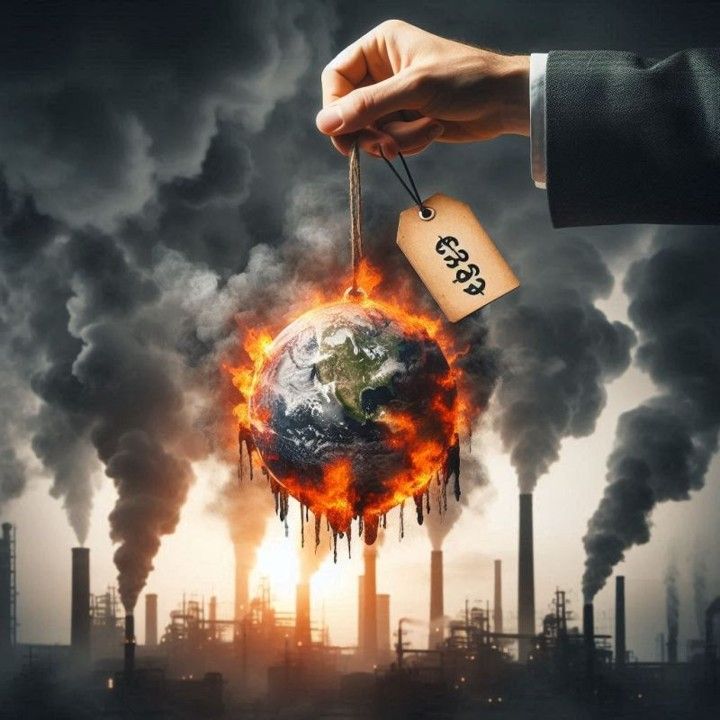

THE IMMORALITY OF CARBON PRICING
Imagine a courtroom with a jury composed of some of the greatest ethical traditions of humanity: utilitarianism, deontology, virtue and care ethics, contractarianism, dialogue ethics, Christian teaching, and Buddhism. They are summoned to scrutinize the morality of carbon pricing – a mechanism that ostensibly puts a dollar value on the devastating global impacts of climate change.
Utilitarianism: Calculated Injustice
For utilitarians, morality hinges on maximizing happiness or minimizing suffering for the greatest number. Carbon pricing is a system that tacitly accepts increased suffering of the many for the comfort of the privileged few.
Verdict: Immoral
Deontology: A Betrayal of Duty
Deontological ethics demands adherence to universal principles like fairness and human dignity. Carbon pricing violates the duty to treat people as ends in themselves, by allowing wealthy, high-emitting nations to perpetuate harm while masking it as "responsible policy."
Verdict: Immoral
Virtue Ethics: A Failure of Character
Carbon pricing demonstrates arrogance, a lack of compassion, and a disregard for justice. It prioritizes technocratic solutions over moral leadership, sidelining the voices and needs of the most vulnerable.
Verdict: Immoral
Care Ethics: Neglecting the Vulnerable
Carbon pricing, with its cold, transactional nature, fails to acknowledge the lived realities of those who suffer most from climate change. Its proponents sit far removed from the communities devastated by rising seas and strengthened storms.
Verdict: Immoral
Contractarianism: No Fair Agreement
Would the Global South—low-emitting, climate-vulnerable nations—agree to a social contract that prices their suffering at a fraction of that in wealthier nations? Never. Carbon pricing imposes a fundamentally unjust contract on those least able to resist.
Verdict: Immoral
Dialogic Ethics: The Silence of the Excluded
Carbon pricing excludes the most affected voices from rational discourse: small island nations, subsistence farmers, and coastal communities. The policy's legitimacy collapses without their equal participation.
Verdict: Immoral
Christian Teaching: Failing the Poor and Creation
Carbon pricing commodifies God's creation and sacrifices the marginalized for market efficiency, betraying both human dignity and ecological stewardship.
Verdict: Immoral
Buddhism: Ignoring Interdependence
Carbon pricing's transactional logic severs the sacred web connecting humanity and nature, privileging profit over harmonious coexistence. It fuels attachment to material gain, perpetuating suffering.
Verdict: Immoral
The verdict is unanimous. Carbon pricing, conceived by cynical Western scientists, prioritizes market efficiency over justice, fails to respect the dignity of those most affected, and excludes vulnerable communities from decision-making. The time has come to seek better solutions rooted in true justice, compassion, and ecological harmony.
THE IMMORALITY OF CARBON PRICING
Imagine a courtroom with a jury composed of some of the greatest ethical traditions of humanity: utilitarianism, deontology, virtue and care ethics, contractarianism, dialogue ethics, Christian teaching, and Buddhism. They are summoned to scrutinize the morality of carbon pricing – a mechanism that ostensibly puts a dollar value on the devastating global impacts of climate change.
Utilitarianism: Calculated Injustice
For utilitarians, morality hinges on maximizing happiness or minimizing suffering for the greatest number. Carbon pricing is a system that tacitly accepts increased suffering of the many for the comfort of the privileged few.
Verdict: Immoral
Deontology: A Betrayal of Duty
Deontological ethics demands adherence to universal principles like fairness and human dignity. Carbon pricing violates the duty to treat people as ends in themselves, by allowing wealthy, high-emitting nations to perpetuate harm while masking it as "responsible policy."
Verdict: Immoral
Virtue Ethics: A Failure of Character
Carbon pricing demonstrates arrogance, a lack of compassion, and a disregard for justice. It prioritizes technocratic solutions over moral leadership, sidelining the voices and needs of the most vulnerable.
Verdict: Immoral
Care Ethics: Neglecting the Vulnerable
Carbon pricing, with its cold, transactional nature, fails to acknowledge the lived realities of those who suffer most from climate change. Its proponents sit far removed from the communities devastated by rising seas and strengthened storms.
Verdict: Immoral
Contractarianism: No Fair Agreement
Would the Global South—low-emitting, climate-vulnerable nations—agree to a social contract that prices their suffering at a fraction of that in wealthier nations? Never. Carbon pricing imposes a fundamentally unjust contract on those least able to resist.
Verdict: Immoral
Dialogic Ethics: The Silence of the Excluded
Carbon pricing excludes the most affected voices from rational discourse: small island nations, subsistence farmers, and coastal communities. The policy's legitimacy collapses without their equal participation.
Verdict: Immoral
Christian Teaching: Failing the Poor and Creation
Carbon pricing commodifies God's creation and sacrifices the marginalized for market efficiency, betraying both human dignity and ecological stewardship.
Verdict: Immoral
Buddhism: Ignoring Interdependence
Carbon pricing's transactional logic severs the sacred web connecting humanity and nature, privileging profit over harmonious coexistence. It fuels attachment to material gain, perpetuating suffering.
Verdict: Immoral
The verdict is unanimous. Carbon pricing, conceived by cynical Western scientists, prioritizes market efficiency over justice, fails to respect the dignity of those most affected, and excludes vulnerable communities from decision-making. The time has come to seek better solutions rooted in true justice, compassion, and ecological harmony.
JAN 2025



THE MYTH OF THE OXYGEN MASK AND THE LOGIC OF GIFT
The oxygen mask metaphor has become a ubiquitous mantra in the self-care movement: “Put on your own mask first before helping others.” At first glance, it seems practical and empowering – after all, how can we help those around us if we're running on empty? But beneath the metaphor lies an implicit worldview that deserves closer scrutiny.
At the heart of the metaphor lies the assumption that we are self-sufficient individuals, capable of thriving in splendid isolation. It frames giving as a secondary act, something we can only engage in once we've "recharged" ourselves with something external and material, such as oxygen. But such a prescription may do more harm than good, further exacerbating the very issues it seeks to address:
* Health, as it turns out, is not merely a matter of personal resources but a reflection of the quality of our connections; it’s about engaging in relationships that nourish and sustain. Outside of acute emergencies, much of our suffering stems not from a lack of oxygen but from disconnection, alienation, and damaged relationships.
* By portraying giving as a unilateral transfer of resources that depletes the giver, the oxygen mask metaphor reduces the act of care to a mere transaction. But true giving, as philosophers and psychologists have long recognized, is a reciprocal and nourishing process – one that enriches both the giver and the receiver.
The distinction between "donation" and "gift" illustrates this point: while a donation is a one-way transfer of an object, a gift is born from a relational exchange, an openness to "become with" others, in a shared context of mutual care. It is an expression of connection and friendship that enriches both parties, independent of the object.
The seductive simplicity of the oxygen mask metaphor offers a clear, individualistic solution to a complex, interdependent problem. Real life, it turns out, is messier. Think about a healthy ecosystem, where every part contributes to and depends on the others; plants don’t thrive by hoarding sunlight for themselves. Likewise, human happiness seems much be closely tied to our capacity to reciprocate.
Hence, rather than asking whether we are ready to give, we should ask whether our relationships are strong enough to sustain both giving and receiving. If we find ourselves feeling drained by our relationships, it may be time to reflect on our ability to nurture them or to assess whether those relationships truly align with our well-being.
In an emergency, grab your oxygen mask. Beyond such moments, it’s worth looking deeper. Giving is not a one-sided, draining act but a nourishing exchange, rooted in our shared humanity. Our individual well-being is inseparably tied to the flourishing of our communities, urging us to build relational structures and cultivate virtues that empower us to give meaningfully—both as individuals and as a society.
THE MYTH OF THE OXYGEN MASK AND THE LOGIC OF GIFT
The oxygen mask metaphor has become a ubiquitous mantra in the self-care movement: “Put on your own mask first before helping others.” At first glance, it seems practical and empowering – after all, how can we help those around us if we're running on empty? But beneath the metaphor lies an implicit worldview that deserves closer scrutiny.
At the heart of the metaphor lies the assumption that we are self-sufficient individuals, capable of thriving in splendid isolation. It frames giving as a secondary act, something we can only engage in once we've "recharged" ourselves with something external and material, such as oxygen. But such a prescription may do more harm than good, further exacerbating the very issues it seeks to address:
* Health, as it turns out, is not merely a matter of personal resources but a reflection of the quality of our connections; it’s about engaging in relationships that nourish and sustain. Outside of acute emergencies, much of our suffering stems not from a lack of oxygen but from disconnection, alienation, and damaged relationships.
* By portraying giving as a unilateral transfer of resources that depletes the giver, the oxygen mask metaphor reduces the act of care to a mere transaction. But true giving, as philosophers and psychologists have long recognized, is a reciprocal and nourishing process – one that enriches both the giver and the receiver.
The distinction between "donation" and "gift" illustrates this point: while a donation is a one-way transfer of an object, a gift is born from a relational exchange, an openness to "become with" others, in a shared context of mutual care. It is an expression of connection and friendship that enriches both parties, independent of the object.
The seductive simplicity of the oxygen mask metaphor offers a clear, individualistic solution to a complex, interdependent problem. Real life, it turns out, is messier. Think about a healthy ecosystem, where every part contributes to and depends on the others; plants don’t thrive by hoarding sunlight for themselves. Likewise, human happiness seems much be closely tied to our capacity to reciprocate.
Hence, rather than asking whether we are ready to give, we should ask whether our relationships are strong enough to sustain both giving and receiving. If we find ourselves feeling drained by our relationships, it may be time to reflect on our ability to nurture them or to assess whether those relationships truly align with our well-being.
In an emergency, grab your oxygen mask. Beyond such moments, it’s worth looking deeper. Giving is not a one-sided, draining act but a nourishing exchange, rooted in our shared humanity. Our individual well-being is inseparably tied to the flourishing of our communities, urging us to build relational structures and cultivate virtues that empower us to give meaningfully—both as individuals and as a society.
JAN 2025



Die CDU und die Schuldenbremse: Ein Trojanisches Pferd für die Finanzelite?
Unter dem Deckmantel fiskalischer Verantwortung wird die sogenannte "Schuldenbremse", die unter Führung Angela Merkels 2009 im Grundgesetz verankert wurde, oft als Maßnahme zur Sicherung der wirtschaftlichen Stabilität gepriesen - während sie in Wirklichkeit private Finanzinstitutionen auf Kosten des Gemeinwohls stärkt.
Die restriktiven Obergrenzen der Schuldenbremse für öffentliche Kredite haben die Fähigkeit der Regierung, die Wirtschaft in Krisenzeiten anzukurbeln – eine entscheidende Funktion verantwortungsvoller Fiskalpolitik - erheblich eingeschränkt. Dies hat eine gefährliche Abhängigkeit von den privaten Kreditmärkten geschaffen, was es den Finanzinstitutionen ermöglicht, kräftig von den Notwendigkeiten der öffentlichen Hand in Bezug auf Investitionen und wirtschaftliche Unterstützung zu profitieren.
Die politische Rhetorik rund um die Schuldenbremse, die auf dem mythologischen Tropus der „Schwäbischen Hausfrau“ einer sparsamen Austerität basiert, hat die komplexen Realitäten moderner Volkswirtschaften verschleiert. Indem sie sich auf emotionale Sentimente des fiskalischen Konservatismus stützt, hat insbesondere die CDU es verstanden, diese Politik als gesunden Menschenverstand zu verkaufen, während sie geschickt die unverhältnismäßigen Vorteile für die Finanzwelt übersieht.
Da öffentliche Investitionen durch die Schuldenbremse zurückgehen, sind private Finanzakteure eingesprungen, um die Lücke zu füllen – oft durch die Privatisierung öffentlicher Vermögenswerte und Infrastrukturen. Dies hat Banken, Private-Equity-Firmen und Investmentfonds die Möglichkeit gegeben, von lukrativen Public-Private-Partnerships zu profitieren und ihre Einflussnahme auf die Wirtschaft weiter zu festigen.
Die prozyklische Natur der Schuldenbremse hat diesen Trend noch verstärkt, da Krisen zu einer Zunahme privater Verschuldung und der Inflation von Vermögenswerten führen – beides bietet den Finanzinstitutionen reichlich Gelegenheit, Gewinne zu erzielen. Das daraus resultierende Verschwinden öffentlicher Investitionen und die Ausweitung der privaten Märkte haben das Machtverhältnis zunehmend von demokratischer Kontrolle hin zu den Gewinninteressen des Finanzsektors verschoben.
Diese besorgniserregende Dynamik wirft fundamentale Fragen zur Prioritäten auf: Ist die Schuldenbremse ein gut gemeintes Instrument zur Sicherstellung der fiskalischen Verantwortung, oder handelt es sich um ein sorgfältig konstruiertes Rahmenwerk, das darauf abzielt, die Dominanz privater Finanzinvestoren auf Kosten des Gemeinwohls zu festigen?
Die Umstaende deuten auf Letzteres hin: Friedrich Merz hat eine höchst fragwürdige Vorgeschichte in der Lobbyarbeit für große Finanz- und Wirtschaftsinteressen, einschließlich seiner Führungsrolle im Wirtschaftsrat der CDU, einer Lobbyorganisation pro Wirtschaft, sowie seiner engen Verbindungen zu großen Finanzinstituten wie BlackRock.
Die CDU und die Schuldenbremse: Ein Trojanisches Pferd für die Finanzelite?
Unter dem Deckmantel fiskalischer Verantwortung wird die sogenannte "Schuldenbremse", die unter Führung Angela Merkels 2009 im Grundgesetz verankert wurde, oft als Maßnahme zur Sicherung der wirtschaftlichen Stabilität gepriesen - während sie in Wirklichkeit private Finanzinstitutionen auf Kosten des Gemeinwohls stärkt.
Die restriktiven Obergrenzen der Schuldenbremse für öffentliche Kredite haben die Fähigkeit der Regierung, die Wirtschaft in Krisenzeiten anzukurbeln – eine entscheidende Funktion verantwortungsvoller Fiskalpolitik - erheblich eingeschränkt. Dies hat eine gefährliche Abhängigkeit von den privaten Kreditmärkten geschaffen, was es den Finanzinstitutionen ermöglicht, kräftig von den Notwendigkeiten der öffentlichen Hand in Bezug auf Investitionen und wirtschaftliche Unterstützung zu profitieren.
Die politische Rhetorik rund um die Schuldenbremse, die auf dem mythologischen Tropus der „Schwäbischen Hausfrau“ einer sparsamen Austerität basiert, hat die komplexen Realitäten moderner Volkswirtschaften verschleiert. Indem sie sich auf emotionale Sentimente des fiskalischen Konservatismus stützt, hat insbesondere die CDU es verstanden, diese Politik als gesunden Menschenverstand zu verkaufen, während sie geschickt die unverhältnismäßigen Vorteile für die Finanzwelt übersieht.
Da öffentliche Investitionen durch die Schuldenbremse zurückgehen, sind private Finanzakteure eingesprungen, um die Lücke zu füllen – oft durch die Privatisierung öffentlicher Vermögenswerte und Infrastrukturen. Dies hat Banken, Private-Equity-Firmen und Investmentfonds die Möglichkeit gegeben, von lukrativen Public-Private-Partnerships zu profitieren und ihre Einflussnahme auf die Wirtschaft weiter zu festigen.
Die prozyklische Natur der Schuldenbremse hat diesen Trend noch verstärkt, da Krisen zu einer Zunahme privater Verschuldung und der Inflation von Vermögenswerten führen – beides bietet den Finanzinstitutionen reichlich Gelegenheit, Gewinne zu erzielen. Das daraus resultierende Verschwinden öffentlicher Investitionen und die Ausweitung der privaten Märkte haben das Machtverhältnis zunehmend von demokratischer Kontrolle hin zu den Gewinninteressen des Finanzsektors verschoben.
Diese besorgniserregende Dynamik wirft fundamentale Fragen zur Prioritäten auf: Ist die Schuldenbremse ein gut gemeintes Instrument zur Sicherstellung der fiskalischen Verantwortung, oder handelt es sich um ein sorgfältig konstruiertes Rahmenwerk, das darauf abzielt, die Dominanz privater Finanzinvestoren auf Kosten des Gemeinwohls zu festigen?
Die Umstaende deuten auf Letzteres hin: Friedrich Merz hat eine höchst fragwürdige Vorgeschichte in der Lobbyarbeit für große Finanz- und Wirtschaftsinteressen, einschließlich seiner Führungsrolle im Wirtschaftsrat der CDU, einer Lobbyorganisation pro Wirtschaft, sowie seiner engen Verbindungen zu großen Finanzinstituten wie BlackRock.
JAN 2025



The Shameless Chancellor: Warburg Bank, Cum-Ex, and the Stain on Scholz's Credibility
In a country that prides itself on transparency and the rule of law, the shadow cast by Warburg Bank over Germany's financial integrity is a damning indictment of the selective memory of its political elite. As Germans prepare to vote in the upcoming elections, it’s time to confront the uncomfortable truths that their "möchtegern" chancellor, Olaf Scholz—who proudly touts his "Haltung"—has conveniently chosen to forget.
Warburg Bank's history is a sordid tale that offers plenty of doubt about financial manipulation and tax evasion on a grand scale. Under the leadership of Siegmund Warburg, the bank spearheaded the Eurobond market, a financial instrument which, as Ann Pettifor points out, was designed to exploit regulatory loopholes and enable corporations to bypass national taxation and oversight. What was hailed as financial innovation was, in reality, the creation of a system that prioritized profit over the public good, setting the stage for decades of tax arbitrage.
The Cum-Ex scandal, in which Warburg Bank and its leadership were deeply implicated, represents the pinnacle of this audacious scheme to defraud taxpayers. By manipulating dividend payouts and tax refund claims, the bank and its cohorts robbed the public coffers of billions. When Hamburg tax authorities decided not to pursue €47 million owed by Warburg, suspicions arose about undue political influence.
Meanwhile, Olaf Scholz, the current chancellor and a current contender for the country's top job, insisted to have conveniently forgotten the stain of Warburg Bank's activities. His meetings with bank representatives during critical moments have drawn scrutiny but no clarity, leaving the public to wonder what influence these financial elites wielded over the political process.
Adding insult to injury, the legal system's failure to deliver justice is exemplified by the case of Christian Olearius, the former head of Warburg Bank. His trial for Cum-Ex-related crimes was conveniently abandoned due to "health issues," a mockery of the very principles of accountability and equal justice under the law.
This is not about dredging up the past for the sake of drama – it is about holding power to account. Warburg Bank's history offers a case study in how financial elites exploit the system, leaving ordinary taxpayers to foot the bill. Germany deserves leaders who confront these truths, not those who look the other way.
As Germans head to the polls, it is time to demand answers and accountability, lest the sins of the past be repeated in the future. The Warburg Bank scandal is a stark reminder that the pursuit of truth and justice must take precedence over the preservation of political legacies. It is unacceptable that so many doubts remain over the billions stolen from the public, the justice denied, and the political connections that shield the powerful from accountability.
The Shameless Chancellor: Warburg Bank, Cum-Ex, and the Stain on Scholz's Credibility
In a country that prides itself on transparency and the rule of law, the shadow cast by Warburg Bank over Germany's financial integrity is a damning indictment of the selective memory of its political elite. As Germans prepare to vote in the upcoming elections, it’s time to confront the uncomfortable truths that their "möchtegern" chancellor, Olaf Scholz—who proudly touts his "Haltung"—has conveniently chosen to forget.
Warburg Bank's history is a sordid tale that offers plenty of doubt about financial manipulation and tax evasion on a grand scale. Under the leadership of Siegmund Warburg, the bank spearheaded the Eurobond market, a financial instrument which, as Ann Pettifor points out, was designed to exploit regulatory loopholes and enable corporations to bypass national taxation and oversight. What was hailed as financial innovation was, in reality, the creation of a system that prioritized profit over the public good, setting the stage for decades of tax arbitrage.
The Cum-Ex scandal, in which Warburg Bank and its leadership were deeply implicated, represents the pinnacle of this audacious scheme to defraud taxpayers. By manipulating dividend payouts and tax refund claims, the bank and its cohorts robbed the public coffers of billions. When Hamburg tax authorities decided not to pursue €47 million owed by Warburg, suspicions arose about undue political influence.
Meanwhile, Olaf Scholz, the current chancellor and a current contender for the country's top job, insisted to have conveniently forgotten the stain of Warburg Bank's activities. His meetings with bank representatives during critical moments have drawn scrutiny but no clarity, leaving the public to wonder what influence these financial elites wielded over the political process.
Adding insult to injury, the legal system's failure to deliver justice is exemplified by the case of Christian Olearius, the former head of Warburg Bank. His trial for Cum-Ex-related crimes was conveniently abandoned due to "health issues," a mockery of the very principles of accountability and equal justice under the law.
This is not about dredging up the past for the sake of drama – it is about holding power to account. Warburg Bank's history offers a case study in how financial elites exploit the system, leaving ordinary taxpayers to foot the bill. Germany deserves leaders who confront these truths, not those who look the other way.
As Germans head to the polls, it is time to demand answers and accountability, lest the sins of the past be repeated in the future. The Warburg Bank scandal is a stark reminder that the pursuit of truth and justice must take precedence over the preservation of political legacies. It is unacceptable that so many doubts remain over the billions stolen from the public, the justice denied, and the political connections that shield the powerful from accountability.
15-01-2025



THE WORKER AS THE CRIMINAL: Flaws in Modern Performance Management
In the sterile confines of the corporate office and the grim halls of the courthouse, two parallel systems of control quietly shape the lives of individuals. One judges the "criminal," the other the "employee" - both reduced to constructed narratives, their complex realities distilled into binary outcomes of punishment or reward. Criminal justice and performance management may seem worlds apart, but they share a troubling kinship, rooted in the myth of individual freedom and the mechanisms of social control that uphold an exploitative hierarchy of power.
At the heart of both frameworks lies the Kantian assumption of the autonomous, rational subject - the criminal who must be held responsible for their misdeeds, the worker who must be accountable for their outputs. There is a striking similarity between what Alan Norrie calls the "penal equation" of retributive justice—"crime + responsibility = punishment" and conventional performance management formulas, where "performance + accountability = rewards/punishments."
Yet, in both cases the veneer of individual agency obscures the structural forces that truly govern our fates. Just as the criminal justice system ignores the socio-economic conditions that shape criminal behaviour, performance management overlooks the workplace inequalities and systemic forces that constrain employee success. In both domains, a myth of meritocracy is installed to provide legitimacy-"freedom" becomes a tool of social control, framing systemic failures as personal shortcomings. Both criminal justice and performance management present themselves as neutral arbiters of fairness, yet their outcomes disproportionately favour those with structural advantages.
The parallels deepen as we examine the vocabularies: rehabilitation, reform, development plans, coaching - these euphemisms conceal the coercive nature of procedures, cloaking surveillance and conformity under the guise of empowerment and progress. Both systems rely on the internalization of control, compelling individuals to monitor their own actions, aligning them with societal norms or corporate KPIs. Measurable outputs and individual accountability become the yardsticks by which worth is determined, legitimizing existing power structures and marginalizing the “underclass”.
To truly transform these systems, we must recognise that there cannot be retributive justice within a distributionally unjust system. Ultimately, true justice and empowerment lie not in the management of the individual, but in the reconfiguration of the systems that govern our lives. Rather than extrinsic rewards and punishments, which sustain the status quo, we need to aspire to workplaces and societies that foster collective flourishing as their own reward. The task is not merely to tinker with the tools of control, but to liberate ourselves from their very roots.
#transformation #leadership #hr #hrm #freedomtoflourish #justice
Reference: Norrie, Alan, The Limits of Justice: Finding Fault in the Criminal Law, The Modern Law Review Limited (MLR 59:4, July), https://www.jstor.org/stable/1097226
THE WORKER AS THE CRIMINAL: Flaws in Modern Performance Management
In the sterile confines of the corporate office and the grim halls of the courthouse, two parallel systems of control quietly shape the lives of individuals. One judges the "criminal," the other the "employee" - both reduced to constructed narratives, their complex realities distilled into binary outcomes of punishment or reward. Criminal justice and performance management may seem worlds apart, but they share a troubling kinship, rooted in the myth of individual freedom and the mechanisms of social control that uphold an exploitative hierarchy of power.
At the heart of both frameworks lies the Kantian assumption of the autonomous, rational subject - the criminal who must be held responsible for their misdeeds, the worker who must be accountable for their outputs. There is a striking similarity between what Alan Norrie calls the "penal equation" of retributive justice—"crime + responsibility = punishment" and conventional performance management formulas, where "performance + accountability = rewards/punishments."
Yet, in both cases the veneer of individual agency obscures the structural forces that truly govern our fates. Just as the criminal justice system ignores the socio-economic conditions that shape criminal behaviour, performance management overlooks the workplace inequalities and systemic forces that constrain employee success. In both domains, a myth of meritocracy is installed to provide legitimacy-"freedom" becomes a tool of social control, framing systemic failures as personal shortcomings. Both criminal justice and performance management present themselves as neutral arbiters of fairness, yet their outcomes disproportionately favour those with structural advantages.
The parallels deepen as we examine the vocabularies: rehabilitation, reform, development plans, coaching - these euphemisms conceal the coercive nature of procedures, cloaking surveillance and conformity under the guise of empowerment and progress. Both systems rely on the internalization of control, compelling individuals to monitor their own actions, aligning them with societal norms or corporate KPIs. Measurable outputs and individual accountability become the yardsticks by which worth is determined, legitimizing existing power structures and marginalizing the “underclass”.
To truly transform these systems, we must recognise that there cannot be retributive justice within a distributionally unjust system. Ultimately, true justice and empowerment lie not in the management of the individual, but in the reconfiguration of the systems that govern our lives. Rather than extrinsic rewards and punishments, which sustain the status quo, we need to aspire to workplaces and societies that foster collective flourishing as their own reward. The task is not merely to tinker with the tools of control, but to liberate ourselves from their very roots.
#transformation #leadership #hr #hrm #freedomtoflourish #justice
Reference: Norrie, Alan, The Limits of Justice: Finding Fault in the Criminal Law, The Modern Law Review Limited (MLR 59:4, July), https://www.jstor.org/stable/1097226
15-01-2025

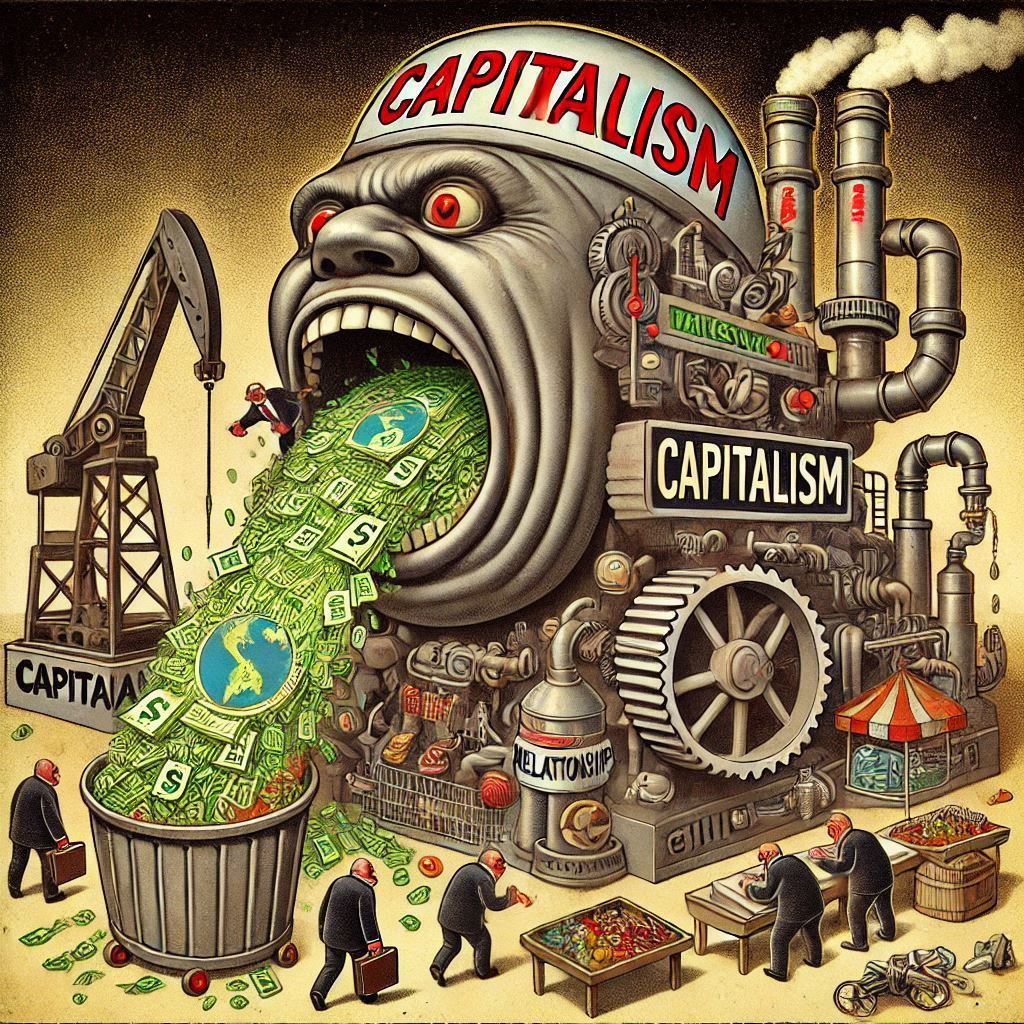

WHO'S AFRAID OF A CAPITALIST?!
Isn't it fascinating how the phrase "You're a Capitalist!" conjures visions of innovation, ambition, and Elon Musk in a space suit, while "You're a Socialist!" causes instant pearl-clutching? Throw in "You're a Degrowther!" and you might as well be suggesting humanity abandon electricity altogether.
The kicker? Much of the reverence for capitalism (or outrage at alternatives) seems to come from people who haven’t seriously examined how the system actually functions. It’s akin to cheering a CEO you’ve only ever seen in 200 character X posts, ignoring the shabby warehouses and exploited workers that keep their businesses running. We’ve become experts at praising capitalism based on its sleek ideological packaging, ignoring the messy contradictions within.
So, what is it about capitalism that makes it so untouchable to critique?
What People Think Capitalism Is:
* A meritocracy where innovation and hard work triumph, embodied by bold entrepreneurs like Musk, Bezos, and Jobs.
* A system that brings democracy and prosperity to everyone willing to pull themselves up by their bootstraps.
* The liberator of humanity, replacing feudalism with progress and endless possibilities.
* An open market where freedom reigns, rewarding risk-takers and visionaries.
What Capitalism Also Entails:
* Capitalism thrives on hidden costs: the unpaid labour of caregivers, exploitation of natural resources, externalization of environmental destruction.
* The "free market" is a myth; modern markets are shaped by power structures and regulations favouring the wealthy and the Global North.
* Capitalism sells itself as freedom while fostering inequality, alienation, and a precarious existence for many people.
* Capitalism commodifies human relationships, turning interactions into transactions, eroding trust and community.
* Our obsession with infinite growth on a finite planet is driving ecological collapse.
Far from the glossy narrative of "liberal democratic capitalism," the reality is that our system extracts wealth from the many to enrich the few, and reduces both people and the planet to mere resources.
Of course, The Wealth of Nations and The Road To Serfdom aren’t exactly beach reads. But before we cheer on the next billionaire heading to Mars, maybe we should pause and crack open a book or two. Or, at the very least, admit our tendency to conflate capitalism with progress while ignoring its systemic failings.
And let’s face it: most of the loudest defenders of capitalism—posting inspirational memes from corporate corner offices—don’t have half the courage of those fighting to expose its flaws. Before we slap another "support small business" sticker on our Amazon-delivered laptop, maybe we should remember that our wonderful system has created deep suffering for many.
I guess I’ll just wait for someone to call me a Keynesian and see if anyone notices. ;-)
#Leadership Philosophy #Transformation
WHO'S AFRAID OF A CAPITALIST?!
Isn't it fascinating how the phrase "You're a Capitalist!" conjures visions of innovation, ambition, and Elon Musk in a space suit, while "You're a Socialist!" causes instant pearl-clutching? Throw in "You're a Degrowther!" and you might as well be suggesting humanity abandon electricity altogether.
The kicker? Much of the reverence for capitalism (or outrage at alternatives) seems to come from people who haven’t seriously examined how the system actually functions. It’s akin to cheering a CEO you’ve only ever seen in 200 character X posts, ignoring the shabby warehouses and exploited workers that keep their businesses running. We’ve become experts at praising capitalism based on its sleek ideological packaging, ignoring the messy contradictions within.
So, what is it about capitalism that makes it so untouchable to critique?
What People Think Capitalism Is:
* A meritocracy where innovation and hard work triumph, embodied by bold entrepreneurs like Musk, Bezos, and Jobs.
* A system that brings democracy and prosperity to everyone willing to pull themselves up by their bootstraps.
* The liberator of humanity, replacing feudalism with progress and endless possibilities.
* An open market where freedom reigns, rewarding risk-takers and visionaries.
What Capitalism Also Entails:
* Capitalism thrives on hidden costs: the unpaid labour of caregivers, exploitation of natural resources, externalization of environmental destruction.
* The "free market" is a myth; modern markets are shaped by power structures and regulations favouring the wealthy and the Global North.
* Capitalism sells itself as freedom while fostering inequality, alienation, and a precarious existence for many people.
* Capitalism commodifies human relationships, turning interactions into transactions, eroding trust and community.
* Our obsession with infinite growth on a finite planet is driving ecological collapse.
Far from the glossy narrative of "liberal democratic capitalism," the reality is that our system extracts wealth from the many to enrich the few, and reduces both people and the planet to mere resources.
Of course, The Wealth of Nations and The Road To Serfdom aren’t exactly beach reads. But before we cheer on the next billionaire heading to Mars, maybe we should pause and crack open a book or two. Or, at the very least, admit our tendency to conflate capitalism with progress while ignoring its systemic failings.
And let’s face it: most of the loudest defenders of capitalism—posting inspirational memes from corporate corner offices—don’t have half the courage of those fighting to expose its flaws. Before we slap another "support small business" sticker on our Amazon-delivered laptop, maybe we should remember that our wonderful system has created deep suffering for many.
I guess I’ll just wait for someone to call me a Keynesian and see if anyone notices. ;-)
#Leadership Philosophy #Transformation
14-01-2025

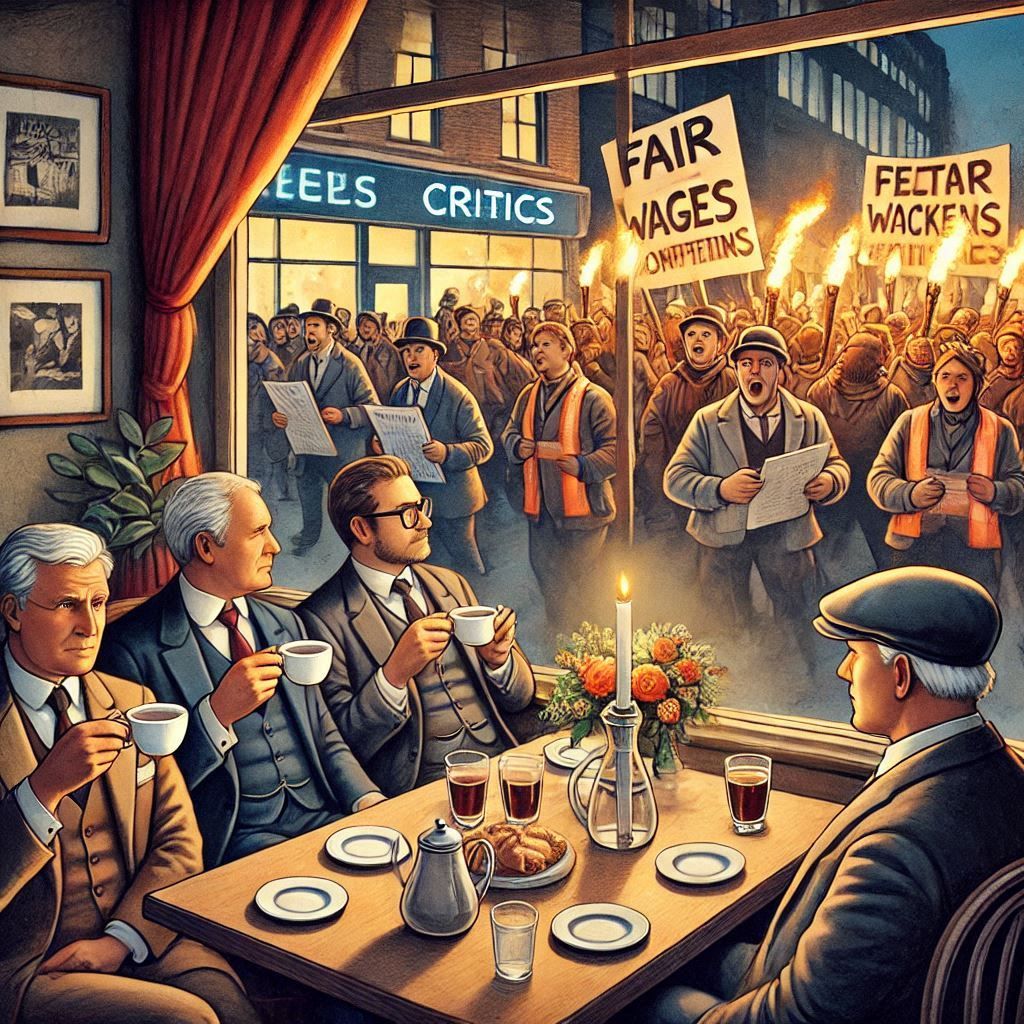

WHO'S AFRAID OF A MARXIST?!
Isn't it fascinating how the phrase "You're a Marxist!" can set a room ablaze, with half the crowd clutching their pearls in horror while the other half nods vigorously in approval—while "You're a Kantian!" barely raises an eyebrow? Throw in "You're a Rawlsian!" and people might think you’re recommending a new diet.
The kicker? Much of this outrage (or applause) seems to come from those who have never cracked open a page of Marx, Kant, or Rawls. It's akin to reacting to a rock band you've never listened to, based solely on the album cover. We’ve become experts at judging philosophies based on catchy quotes and oversimplified ideas, rather than engaging with the depth of their arguments.
So, what is it about Marx that elicits such visceral reactions, both positive and negative? The common misconceptions are telling:
What People Think Marx Is:
* A wild-eyed revolutionary plotting a utopian paradise.
* The architect of state control, long bread lines, and grey concrete blocks.
* The inventor of repressive, bureaucratic rule in the Soviet Union, with its forced collectivization and lack of political freedoms.
* A dreamer imagining a world where everyone gets the same, no matter what they do.
What Marx Truly Suggested:
* Communism isn’t a fixed end-state, but a real movement—a dynamic process driven by the contradictions of the present system.
* It's about abolishing the current state of things, where exploitation and alienation are baked into the fabric of everyday life.
* He advocated for the democratic and decentralized control over production, abolishing the state and all class divisions, directly contradicting the centralized, authoritarian Soviet system under Stalin.
* Not a fantasy blueprint, but a call to action: understanding history, confronting material conditions, and reshaping the world collectively.
Far from the totalitarian nightmare often depicted, Marx's ideas were rooted in a deep concern for the marginalized and a desire to create a more just and equitable society.
Of course, Das Kapital and Die Kritik der reinen Vernunft aren’t exactly beach reads. But before we rush to build barricades or declare a phony war against a dead philosopher, maybe we should pause and crack open a book or two. Or, at the very least, admit our biases and the tendency to judge things based on hearsay rather than actual arguments.
And let’s face it: most of the critics sipping their soy lattes in a cosy café, earnestly discussing Marx's "inherent flaws," don’t have half the courage Marx and Engels showed in their fight for the oppressed. So, before we slap another "coexist" bumper sticker on our gas-guzzling SUVs, perhaps we should remember that they didn’t just theorize from the comfort of armchairs; they stood in the trenches, alongside those who suffer, fighting to make the world better.
I guess I'll just wait for someone to call me a Hegelian and see if anyone notices. ;-)
#Leadership #Philosophy #Transformation
WHO'S AFRAID OF A MARXIST?!
Isn't it fascinating how the phrase "You're a Marxist!" can set a room ablaze, with half the crowd clutching their pearls in horror while the other half nods vigorously in approval—while "You're a Kantian!" barely raises an eyebrow? Throw in "You're a Rawlsian!" and people might think you’re recommending a new diet.
The kicker? Much of this outrage (or applause) seems to come from those who have never cracked open a page of Marx, Kant, or Rawls. It's akin to reacting to a rock band you've never listened to, based solely on the album cover. We’ve become experts at judging philosophies based on catchy quotes and oversimplified ideas, rather than engaging with the depth of their arguments.
So, what is it about Marx that elicits such visceral reactions, both positive and negative? The common misconceptions are telling:
What People Think Marx Is:
* A wild-eyed revolutionary plotting a utopian paradise.
* The architect of state control, long bread lines, and grey concrete blocks.
* The inventor of repressive, bureaucratic rule in the Soviet Union, with its forced collectivization and lack of political freedoms.
* A dreamer imagining a world where everyone gets the same, no matter what they do.
What Marx Truly Suggested:
* Communism isn’t a fixed end-state, but a real movement—a dynamic process driven by the contradictions of the present system.
* It's about abolishing the current state of things, where exploitation and alienation are baked into the fabric of everyday life.
* He advocated for the democratic and decentralized control over production, abolishing the state and all class divisions, directly contradicting the centralized, authoritarian Soviet system under Stalin.
* Not a fantasy blueprint, but a call to action: understanding history, confronting material conditions, and reshaping the world collectively.
Far from the totalitarian nightmare often depicted, Marx's ideas were rooted in a deep concern for the marginalized and a desire to create a more just and equitable society.
Of course, Das Kapital and Die Kritik der reinen Vernunft aren’t exactly beach reads. But before we rush to build barricades or declare a phony war against a dead philosopher, maybe we should pause and crack open a book or two. Or, at the very least, admit our biases and the tendency to judge things based on hearsay rather than actual arguments.
And let’s face it: most of the critics sipping their soy lattes in a cosy café, earnestly discussing Marx's "inherent flaws," don’t have half the courage Marx and Engels showed in their fight for the oppressed. So, before we slap another "coexist" bumper sticker on our gas-guzzling SUVs, perhaps we should remember that they didn’t just theorize from the comfort of armchairs; they stood in the trenches, alongside those who suffer, fighting to make the world better.
I guess I'll just wait for someone to call me a Hegelian and see if anyone notices. ;-)
#Leadership #Philosophy #Transformation
13-01-2025



THE LIMITS OF "BE THE CHANGE!": Why Change Starts at the Systemic Edge
The well-worn mantra "be the change you want to see in the world" is undeniably motivational, evoking the power of personal transformation and individual responsibility. However, when applied too simplistically, it risks overlooking the complex and interconnected nature of the world we seek to improve. By focusing solely on individual "heroic" action and personal growth, this perspective can inadvertently blind us to the critical combination of social, psychological, and political structures in shaping both our identities and the systems in which we live.
True transformation demands more than just personal development; it requires a nuanced understanding of how our consciousness, identity and practices are deeply shaped by the ideological and material realities around us. How our beliefs, relations and practices filter out or perpetuates aspects of reality. A narrow emphasis on the "unencumbered" individual can neglect the systemic forces and power structures that must also be addressed if we are to achieve meaningful and lasting change.
A more robust framework, then, would acknowledge that change is not just an individual pursuit, but a collective endeavour that necessitates confronting existing distribution of resources, political representation, ideological and linguistic frames, and ethical premises. It would need to recognize that transformation emerges at the edge of personal identity and agency, symbolic structures and objective forces - from contradictions, absences and the continuous dialectical practice within a concrete community.
Gandhi, to whom the quote is often attributed, demonstrated this in practice. His campaigns of nonviolent resistance included civil disobedience and non-cooperation, such as refusing to pay taxes or boycotting British goods, which directly challenged the legitimacy of British rule. At the same time, Gandhi organized mass movements that fostered widespread solidarity among different social groups and created a new collective identity based on Indian self-rule. These were not isolated acts of personal rebellion, but coordinated efforts that had a direct political impact.
While such a complex perspective may lack the simplicity of a catchy slogan, it offers a far more grounded and multifaceted understanding of how real transformation can occur. Change does not happen in isolation or in pure consciousness; it happens when we navigate the intricate web of social, psychological, and political factors that shape our lives, communities, and the world.
Good slogans may inspire, but true systemic shifts require a deeper, more critical and more political engagement with the complex realities that underpin the status quo - otherwise we might be happily paving hell with good intentions.
#transformation #leadership #politics #innovation #management
Thanks to Alexandre for triggering the thought
THE LIMITS OF "BE THE CHANGE!": Why Change Starts at the Systemic Edge
The well-worn mantra "be the change you want to see in the world" is undeniably motivational, evoking the power of personal transformation and individual responsibility. However, when applied too simplistically, it risks overlooking the complex and interconnected nature of the world we seek to improve. By focusing solely on individual "heroic" action and personal growth, this perspective can inadvertently blind us to the critical combination of social, psychological, and political structures in shaping both our identities and the systems in which we live.
True transformation demands more than just personal development; it requires a nuanced understanding of how our consciousness, identity and practices are deeply shaped by the ideological and material realities around us. How our beliefs, relations and practices filter out or perpetuates aspects of reality. A narrow emphasis on the "unencumbered" individual can neglect the systemic forces and power structures that must also be addressed if we are to achieve meaningful and lasting change.
A more robust framework, then, would acknowledge that change is not just an individual pursuit, but a collective endeavour that necessitates confronting existing distribution of resources, political representation, ideological and linguistic frames, and ethical premises. It would need to recognize that transformation emerges at the edge of personal identity and agency, symbolic structures and objective forces - from contradictions, absences and the continuous dialectical practice within a concrete community.
Gandhi, to whom the quote is often attributed, demonstrated this in practice. His campaigns of nonviolent resistance included civil disobedience and non-cooperation, such as refusing to pay taxes or boycotting British goods, which directly challenged the legitimacy of British rule. At the same time, Gandhi organized mass movements that fostered widespread solidarity among different social groups and created a new collective identity based on Indian self-rule. These were not isolated acts of personal rebellion, but coordinated efforts that had a direct political impact.
While such a complex perspective may lack the simplicity of a catchy slogan, it offers a far more grounded and multifaceted understanding of how real transformation can occur. Change does not happen in isolation or in pure consciousness; it happens when we navigate the intricate web of social, psychological, and political factors that shape our lives, communities, and the world.
Good slogans may inspire, but true systemic shifts require a deeper, more critical and more political engagement with the complex realities that underpin the status quo - otherwise we might be happily paving hell with good intentions.
#transformation #leadership #politics #innovation #management
Thanks to Alexandre for triggering the thought
10-01-2025



The Great Disintegration: The Day Our Zeitgeist Died
In an age of profound disillusionment, we find ourselves adrift in a sea of moral relativism, where the hallmarks of progress – truth, freedom, and compassion – have been subsumed by the rising tide of regression. Hegel's once-glorious vision of the rising Zeitgeist, the unfolding of human freedom and rationality, has given way to a blasé bourgeoisie—a middle class that asserts political views without engaging deeply with moral questions.
* Our path to truth has been obstructed by the resignation of postmodernism, post-structuralism, and post-factism—schools of thought that dissolve a quest for truth and reduce all moral claims to power dynamics or subjective constructions. In our self-proclaimed skepticism, we have mastered the critique of power structures embedded in language, but done little to dismantle the ongoing hegemony in practice. This deepens inequalities and erodes rational discourse. By abandoning grand narratives and fearing universal morality, we have lost our clear path to societal betterment, reinforcing the ghostly drift toward a hollow intellectual age.
* Our path to liberation is increasingly obstructed by the rise of techno-optimism, which serves to consolidate economic power while threatening to deepen the epistemic divide. The spread of meritocratic ideologies, the erosion of institutions through corporatism, and the financialization of capitalism have entrenched a global oligarchy and transnational monopolies, consolidating wealth, media and power into the hands of a few.
* Finally, our path to mutual care is threatened by the rise of nationalist and fascist movements, which reject shared responsibility and foster divisive narratives of blame and scapegoating. These movements undermine global solidarity, promoting a false dichotomy of “us vs. them” while rejecting collective social responsibility in favour of exclusionary nationalism. Yet, when respect for human dignity and the predisposition for charity across borders is eroded, the possibility of a collective ethical life becomes increasingly difficult to sustain.
As a result, our Zeitgeist grows increasingly shallow. While individual technical competence steadily improves, shared rationality declines, reflected in a superficial and fragmented moral discourse that stifles human potential. Paradoxically, our ubiquitous "rational" critique of power, fearful of totalitarian unity, has birthed a new form of domination: by splintering resistance into a powerless critique of all substance, it is the hegemonic death of the Demos that reinforces the status quo.
Truth is that without the courage to care and a commitment to a shared edifice of mutual flourishing, we will remain stuck. Without it, the contradictions of our time can no longer be resolved dialectically, leaving us to face the sobering reality that the path to a just and equitable future remains shrouded in uncertainty.
#transformation #leadership
The Great Disintegration: The Day Our Zeitgeist Died
In an age of profound disillusionment, we find ourselves adrift in a sea of moral relativism, where the hallmarks of progress – truth, freedom, and compassion – have been subsumed by the rising tide of regression. Hegel's once-glorious vision of the rising Zeitgeist, the unfolding of human freedom and rationality, has given way to a blasé bourgeoisie—a middle class that asserts political views without engaging deeply with moral questions.
* Our path to truth has been obstructed by the resignation of postmodernism, post-structuralism, and post-factism—schools of thought that dissolve a quest for truth and reduce all moral claims to power dynamics or subjective constructions. In our self-proclaimed skepticism, we have mastered the critique of power structures embedded in language, but done little to dismantle the ongoing hegemony in practice. This deepens inequalities and erodes rational discourse. By abandoning grand narratives and fearing universal morality, we have lost our clear path to societal betterment, reinforcing the ghostly drift toward a hollow intellectual age.
* Our path to liberation is increasingly obstructed by the rise of techno-optimism, which serves to consolidate economic power while threatening to deepen the epistemic divide. The spread of meritocratic ideologies, the erosion of institutions through corporatism, and the financialization of capitalism have entrenched a global oligarchy and transnational monopolies, consolidating wealth, media and power into the hands of a few.
* Finally, our path to mutual care is threatened by the rise of nationalist and fascist movements, which reject shared responsibility and foster divisive narratives of blame and scapegoating. These movements undermine global solidarity, promoting a false dichotomy of “us vs. them” while rejecting collective social responsibility in favour of exclusionary nationalism. Yet, when respect for human dignity and the predisposition for charity across borders is eroded, the possibility of a collective ethical life becomes increasingly difficult to sustain.
As a result, our Zeitgeist grows increasingly shallow. While individual technical competence steadily improves, shared rationality declines, reflected in a superficial and fragmented moral discourse that stifles human potential. Paradoxically, our ubiquitous "rational" critique of power, fearful of totalitarian unity, has birthed a new form of domination: by splintering resistance into a powerless critique of all substance, it is the hegemonic death of the Demos that reinforces the status quo.
Truth is that without the courage to care and a commitment to a shared edifice of mutual flourishing, we will remain stuck. Without it, the contradictions of our time can no longer be resolved dialectically, leaving us to face the sobering reality that the path to a just and equitable future remains shrouded in uncertainty.
#transformation #leadership
08-01-2025



The Myth of the Omnipotent Leader
Leadership is often either celebrated as the ultimate solution to organizational and societal challenges or dismissed as the ultimate usurpation of interpersonal power.
Both perspectives are shrouded in a veil of oversimplification, typically portraying leaders as heroic figures, uniquely capable of inspiring, motivating, and directing others toward a predefined vision, with debates centering on the legitimacy of their authority. The shared fantasy of leadership assumes that a leader can, through sheer force of will and charisma, mould the behaviour of their followers, guiding them towards organizational goals or societal objectives.
However, this myopic view fails to capture the inherent complexities and contradictions that lie at the heart of the exercise of power and influence, neglecting the intricate web of ideological negotiations, power dynamics, and social tensions that define human relationships and organizational structures.
A more critical examination of leadership reveals it as an ideological practice that seeks to mediate such inherent contradictions, rather than a unilateral imposition of will. In this light, leadership is not about creating harmony or unity; it is about engaging with the inherent tensions and ruptures that shape the social fabric.
By reducing leadership to a set of practical skills, we overlooks the ontological complexity of power and authority. Power is not simply an instrument to achieve goals; it is a dialectical force that shapes and reshapes the very conditions under which goals are pursued.
On this basis, a leader is not merely a director of action, but an emergent embodiment of the complex power dynamics that permeate organizations and societies. Leadership, in this sense, becomes a symbolic process of mutual recognition, where the leader crafts a narrative that provides a sense of meaning and direction, while simultaneously navigating the existential contradictions that lie beneath the surface.
Genuine leadership as a practice, then, is not about implementing a preordained plan or creating a perfect model of cooperation. It is about embracing the messy, imperfect reality of power dynamics and engaging with the contradictions that define our organisational and social existence. Leaders must navigate the tensions between individual aspirations and the collective good, between idealized visions and material realities, acknowledging the impossibility of perfect resolution and the necessity of embracing the negativity that shapes our world.
Recognizing leadership as a radical, dialectical engagement within complex social systems, we can move towards a more authentic and transformative understanding of power and authority, opening up new avenues for societal change and the reconfiguration of structures and mechanisms that govern our lives.
#leadership #transformation #management #innovation #goodleadership
The Myth of the Omnipotent Leader
Leadership is often either celebrated as the ultimate solution to organizational and societal challenges or dismissed as the ultimate usurpation of interpersonal power.
Both perspectives are shrouded in a veil of oversimplification, typically portraying leaders as heroic figures, uniquely capable of inspiring, motivating, and directing others toward a predefined vision, with debates centering on the legitimacy of their authority. The shared fantasy of leadership assumes that a leader can, through sheer force of will and charisma, mould the behaviour of their followers, guiding them towards organizational goals or societal objectives.
However, this myopic view fails to capture the inherent complexities and contradictions that lie at the heart of the exercise of power and influence, neglecting the intricate web of ideological negotiations, power dynamics, and social tensions that define human relationships and organizational structures.
A more critical examination of leadership reveals it as an ideological practice that seeks to mediate such inherent contradictions, rather than a unilateral imposition of will. In this light, leadership is not about creating harmony or unity; it is about engaging with the inherent tensions and ruptures that shape the social fabric.
By reducing leadership to a set of practical skills, we overlooks the ontological complexity of power and authority. Power is not simply an instrument to achieve goals; it is a dialectical force that shapes and reshapes the very conditions under which goals are pursued.
On this basis, a leader is not merely a director of action, but an emergent embodiment of the complex power dynamics that permeate organizations and societies. Leadership, in this sense, becomes a symbolic process of mutual recognition, where the leader crafts a narrative that provides a sense of meaning and direction, while simultaneously navigating the existential contradictions that lie beneath the surface.
Genuine leadership as a practice, then, is not about implementing a preordained plan or creating a perfect model of cooperation. It is about embracing the messy, imperfect reality of power dynamics and engaging with the contradictions that define our organisational and social existence. Leaders must navigate the tensions between individual aspirations and the collective good, between idealized visions and material realities, acknowledging the impossibility of perfect resolution and the necessity of embracing the negativity that shapes our world.
Recognizing leadership as a radical, dialectical engagement within complex social systems, we can move towards a more authentic and transformative understanding of power and authority, opening up new avenues for societal change and the reconfiguration of structures and mechanisms that govern our lives.
#leadership #transformation #management #innovation #goodleadership
07-01-2025



FLATTER, FREER, AND FAILING: Why Good Work Needs New Heroes!
The push to “liberate” work by dismantling leadership and promoting anti-heroism has become a popular mantra in organizational design. It promises flexibility, decentralization, and freedom from oppressive hierarchies and stifling bureaucracy. But in a profit-driven system, the progressive-sounding movement is often co-opted by neoliberal organisations eager to rebrand exploitation as emancipation. By celebrating individual freedom while overlooking systemic inequalities, it ultimately serves financial investors and those at the top, masking structural injustice under the guise of feel-good rhetoric about self-management.
In fact, the frequently romanticized vision of autonomy—glorified in the push for flatter organizations without "nasty" managers—misses a crucial truth: freedom and social justice are inseparably linked. True liberation at work isn’t just about breaking free from authority; it’s about fostering “subsidiarity”—the integration of individual freedom with mutual responsibility and solidarity within a community of practice. A "good life at work" is always inherently rooted in relational and institutional identity workspaces, where one person’s flourishing is deeply intertwined with the flourishing of all.
Unsurprisingly, the fervent drive to cut bureaucracy and middle management often ends up placing greater burdens of decision-making, delivery, and development on the workers themselves. The result? Increased anxiety, burnout, and alienation—without the necessary structural or ethical commitment to develop employees or create real social value.
A genuinely liberating workplace is never just about tearing down structures to boost profits. The transformation of work into a dignified and developmental endeavour is built on a double dialectic of freedom and responsibility—a dynamic that continuously removes structural barriers to individual growth while fostering a deepening commitment to mutual becoming, grounded in a shared vocation to improve society through collective effort.
So, do we need more heroes? Absolutely. But not the corporate Supermen and Superwomen who save the bottom line at the expense of everyone else. We need those who are ready to champion a new vision for organizations—leaders who prioritize collective well-being, social value, and the flourishing of all, rather than just the pursuit of profits.
#transformation #leadership #goodorganisations #HR #HRM #innovation #agility
FLATTER, FREER, AND FAILING: Why Good Work Needs New Heroes!
The push to “liberate” work by dismantling leadership and promoting anti-heroism has become a popular mantra in organizational design. It promises flexibility, decentralization, and freedom from oppressive hierarchies and stifling bureaucracy. But in a profit-driven system, the progressive-sounding movement is often co-opted by neoliberal organisations eager to rebrand exploitation as emancipation. By celebrating individual freedom while overlooking systemic inequalities, it ultimately serves financial investors and those at the top, masking structural injustice under the guise of feel-good rhetoric about self-management.
In fact, the frequently romanticized vision of autonomy—glorified in the push for flatter organizations without "nasty" managers—misses a crucial truth: freedom and social justice are inseparably linked. True liberation at work isn’t just about breaking free from authority; it’s about fostering “subsidiarity”—the integration of individual freedom with mutual responsibility and solidarity within a community of practice. A "good life at work" is always inherently rooted in relational and institutional identity workspaces, where one person’s flourishing is deeply intertwined with the flourishing of all.
Unsurprisingly, the fervent drive to cut bureaucracy and middle management often ends up placing greater burdens of decision-making, delivery, and development on the workers themselves. The result? Increased anxiety, burnout, and alienation—without the necessary structural or ethical commitment to develop employees or create real social value.
A genuinely liberating workplace is never just about tearing down structures to boost profits. The transformation of work into a dignified and developmental endeavour is built on a double dialectic of freedom and responsibility—a dynamic that continuously removes structural barriers to individual growth while fostering a deepening commitment to mutual becoming, grounded in a shared vocation to improve society through collective effort.
So, do we need more heroes? Absolutely. But not the corporate Supermen and Superwomen who save the bottom line at the expense of everyone else. We need those who are ready to champion a new vision for organizations—leaders who prioritize collective well-being, social value, and the flourishing of all, rather than just the pursuit of profits.
#transformation #leadership #goodorganisations #HR #HRM #innovation #agility
03-01-2025

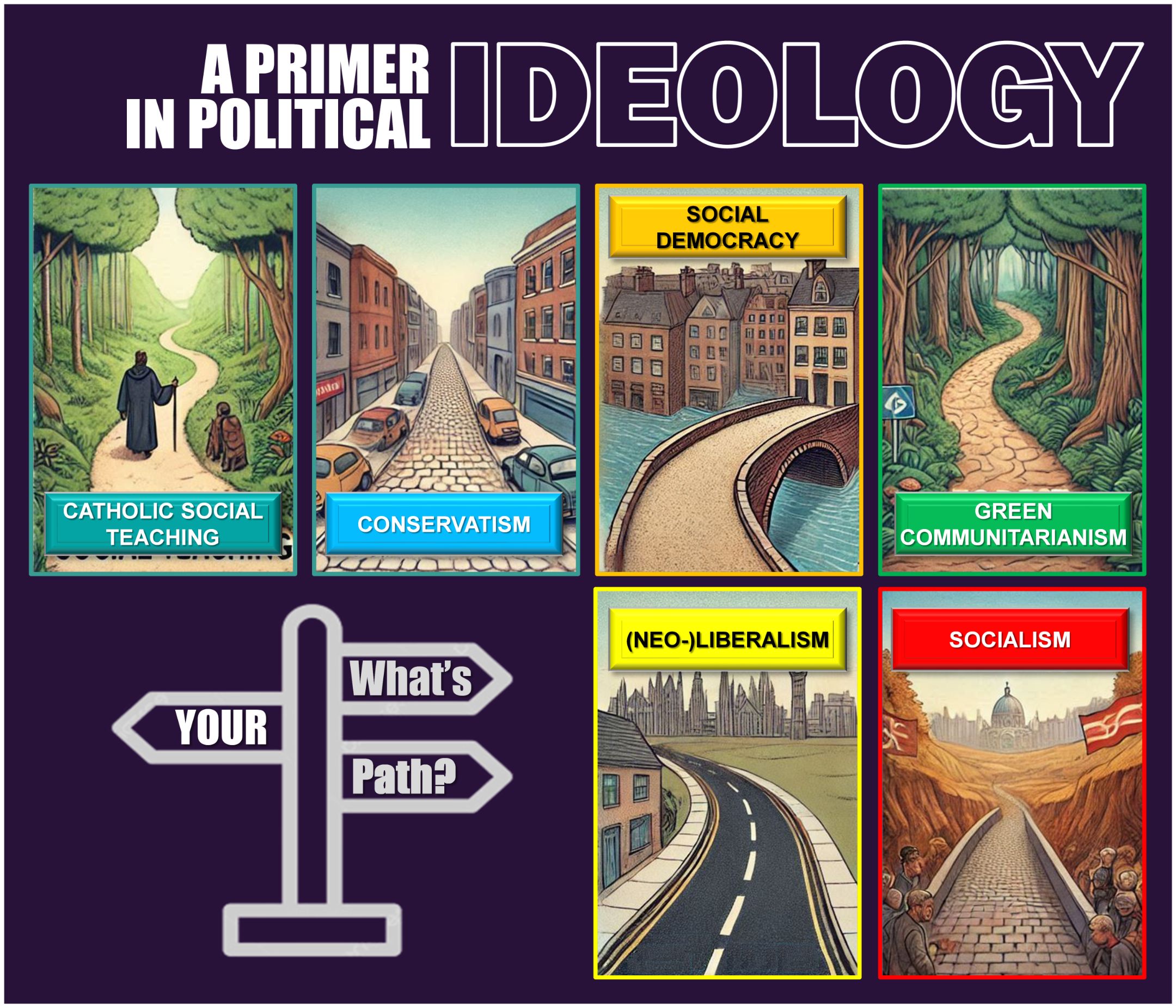

A PRIMER IN POLITICAL IDEOLOGY: Political ideologies offer distinct lenses on a life's journey, each reflecting a unique set of principles, values, and assumptions:
* Neoliberalism envisions an "open street" stretching endlessly, where individuals are autonomous agents responsible for charting their own path, succeeding or failing based on merit and effort. This worldview prioritizes individual freedom, competition, and minimal state interference, believing that opportunity abounds for those willing to seize it. However, this approach often leads to widening inequalities, due to disparities in resources and starting positions.
* In contrast, conservatism embraces a "cobbled road" – a well-trodden path lined with sights of tradition and history. It emphasizes stability, hierarchy, and preserving cultural and moral norms, casting the individual as a steward of tradition, walking a path fostering belonging and continuity. The state acts as a guardian, protecting the road from disruption. While providing security and predictability, it can resist rapid change at the expense of innovation or inclusivity.
* Social democracy and modern liberalism envision the "bridge builder's lane," where the state actively connects communities and ensures no one is left behind. Grounded in principles of equality, fairness, and social welfare, this perspective casts individuals as travellers benefiting from collective support to overcome obstacles - while risking overdependence on state intervention.
*Green politics and communitarianism embrace the "forest trail," where travellers balance their personal journey with responsibilities to community and environment. Principles of sustainability, interdependence, and collective well-being shape this vision, with the state facilitating stewardship and empowering communities. While fostering harmony, it demands restraints on individuals and growth.
* Socialism envisions a "collective roadwork" – a wide highway built through shared labour and equally accessible to all. Grounded in equality, solidarity, and collective ownership, it casts individuals as contributors to and beneficiaries of a shared property, prioritizing the collective good over personal ambition. Critics fear excessive centralization can stifle individuality and innovation.
* Catholic social teaching offers a "pilgrim's path" – a purposeful journey guided by virtues and oriented toward the common good, with rest areas fostering community. Principles of human dignity, solidarity, and subsidiarity shape the vision, with individuals as moral agents cultivating virtues to connect personal development with collective flourishing. The state facilitates without overshadowing communities.
These metaphors remind us that the same street can look entirely different depending on the ideological lens we adopt. As adults, our greatest challenge often lies not just in choosing our path but in examining the lenses that guide our navigation.
#transformation #leadership
A PRIMER IN POLITICAL IDEOLOGY: Political ideologies offer distinct lenses on a life's journey, each reflecting a unique set of principles, values, and assumptions:
* Neoliberalism envisions an "open street" stretching endlessly, where individuals are autonomous agents responsible for charting their own path, succeeding or failing based on merit and effort. This worldview prioritizes individual freedom, competition, and minimal state interference, believing that opportunity abounds for those willing to seize it. However, this approach often leads to widening inequalities, due to disparities in resources and starting positions.
* In contrast, conservatism embraces a "cobbled road" – a well-trodden path lined with sights of tradition and history. It emphasizes stability, hierarchy, and preserving cultural and moral norms, casting the individual as a steward of tradition, walking a path fostering belonging and continuity. The state acts as a guardian, protecting the road from disruption. While providing security and predictability, it can resist rapid change at the expense of innovation or inclusivity.
* Social democracy and modern liberalism envision the "bridge builder's lane," where the state actively connects communities and ensures no one is left behind. Grounded in principles of equality, fairness, and social welfare, this perspective casts individuals as travellers benefiting from collective support to overcome obstacles - while risking overdependence on state intervention.
*Green politics and communitarianism embrace the "forest trail," where travellers balance their personal journey with responsibilities to community and environment. Principles of sustainability, interdependence, and collective well-being shape this vision, with the state facilitating stewardship and empowering communities. While fostering harmony, it demands restraints on individuals and growth.
* Socialism envisions a "collective roadwork" – a wide highway built through shared labour and equally accessible to all. Grounded in equality, solidarity, and collective ownership, it casts individuals as contributors to and beneficiaries of a shared property, prioritizing the collective good over personal ambition. Critics fear excessive centralization can stifle individuality and innovation.
* Catholic social teaching offers a "pilgrim's path" – a purposeful journey guided by virtues and oriented toward the common good, with rest areas fostering community. Principles of human dignity, solidarity, and subsidiarity shape the vision, with individuals as moral agents cultivating virtues to connect personal development with collective flourishing. The state facilitates without overshadowing communities.
These metaphors remind us that the same street can look entirely different depending on the ideological lens we adopt. As adults, our greatest challenge often lies not just in choosing our path but in examining the lenses that guide our navigation.
#transformation #leadership
29-12-2024



WHY DIVERSITY IS NEVER ENOUGH: THE INHERENT “RACISM” OF CAPITALISM
Renowned philosopher Nancy Fraser argues that capitalism fundamentally depends on two distinct processes: exploitation and expropriation. Exploitation occurs within the labour market, where workers exchange effort for wages but are alienated from the surplus they produce. Expropriation, on the other hand, involves forcible extraction of resources or labour without equivalent exchange, as seen historically in slavery, colonization, and unpaid care work.
Crucially, the concept of "race" emerges at the boundary between the two processes, serving as a political tool to divide those exploited within the wage system from those expropriated outside of it. Race, then, is not a reflection of biological divisions, but rather a means of legitimizing capitalism's dual operations and the material domination they enable.
But it doesn’t end there. The language of modern hashtag#capitalism—terms like hashtag#humanresources, "human capital," or "labour force"— similarly serves to reinforce the divide between owners and investors, who control capital, and workers, whose labour is exploited. By reducing workers to "assets", the dehumanizing terminology obscures the power imbalance at the core of production and legitimizes the exploitation inherent to the system.
It is in this context that some of the corporate obsession with diversity must be understood. hashtag#Diversity initiatives promise inclusion and representation, but they stop short of challenging the underlying structures of exploitation and expropriation. Increasing the number of women or people of colour in executive positions may create the illusion of progress, but it leaves the exploitative machinery of capitalism untouched. It simply rearranges who is permitted to wield power within an unjust system.
Even worse, by reframing a political problem of inequality as a cultural issue of recognition, diversity initiatives risk becoming complicit in preserving the status quo. Co-opting the language of liberation, they suggest that the solution to workers' oppression lies not in dismantling exploitative structures but in diversifying their leadership—leaving the systems that create these injustices entirely intact.
If diversity is not enough, what is the solution? The answer lies in shifting the conversation from inclusion to hashtag#transformation. Justice requires confronting capitalism's reliance on exploitation and expropriation, addressing both the material inequalities and the lack of recognition that drive these processes. It means shifting the focus from symbolic representation to structural change—redistributing wealth, democratizing workplaces, and dismantling racial and gender hierarchies.
To fight the racism of capitalism, we must demand more than diversity. We must demand hashtag#justice. And that means tearing down the systems that commodify human beings and rebuilding a world where flourishing, not profit, is the ultimate goal.
WHY DIVERSITY IS NEVER ENOUGH: THE INHERENT “RACISM” OF CAPITALISM
Renowned philosopher Nancy Fraser argues that capitalism fundamentally depends on two distinct processes: exploitation and expropriation. Exploitation occurs within the labour market, where workers exchange effort for wages but are alienated from the surplus they produce. Expropriation, on the other hand, involves forcible extraction of resources or labour without equivalent exchange, as seen historically in slavery, colonization, and unpaid care work.
Crucially, the concept of "race" emerges at the boundary between the two processes, serving as a political tool to divide those exploited within the wage system from those expropriated outside of it. Race, then, is not a reflection of biological divisions, but rather a means of legitimizing capitalism's dual operations and the material domination they enable.
But it doesn’t end there. The language of modern hashtag#capitalism—terms like hashtag#humanresources, "human capital," or "labour force"— similarly serves to reinforce the divide between owners and investors, who control capital, and workers, whose labour is exploited. By reducing workers to "assets", the dehumanizing terminology obscures the power imbalance at the core of production and legitimizes the exploitation inherent to the system.
It is in this context that some of the corporate obsession with diversity must be understood. hashtag#Diversity initiatives promise inclusion and representation, but they stop short of challenging the underlying structures of exploitation and expropriation. Increasing the number of women or people of colour in executive positions may create the illusion of progress, but it leaves the exploitative machinery of capitalism untouched. It simply rearranges who is permitted to wield power within an unjust system.
Even worse, by reframing a political problem of inequality as a cultural issue of recognition, diversity initiatives risk becoming complicit in preserving the status quo. Co-opting the language of liberation, they suggest that the solution to workers' oppression lies not in dismantling exploitative structures but in diversifying their leadership—leaving the systems that create these injustices entirely intact.
If diversity is not enough, what is the solution? The answer lies in shifting the conversation from inclusion to hashtag#transformation. Justice requires confronting capitalism's reliance on exploitation and expropriation, addressing both the material inequalities and the lack of recognition that drive these processes. It means shifting the focus from symbolic representation to structural change—redistributing wealth, democratizing workplaces, and dismantling racial and gender hierarchies.
To fight the racism of capitalism, we must demand more than diversity. We must demand hashtag#justice. And that means tearing down the systems that commodify human beings and rebuilding a world where flourishing, not profit, is the ultimate goal.
27-12-2024



THE TYRANNY OF SELF-IMPROVEMENT: Have You Had Your Coaching Yet?
In recent decades, the widespread adoption of psychological and therapeutic frameworks—such as coaching, trauma recovery, and mental health awareness—has profoundly transformed our approach to societal challenges.
* Where political critique once centered on collective struggle to confront oppression and structural injustices, the prevailing discourse now highlights individual "resilience" and "emotional intelligence." In corporate settings, the focus has shifted from tackling systemic issues like labour exploitation to encouraging employees to manage stress and maximize their personal potential.
* The growing prominence of a "mental health" discourse has further contributed to the depoliticization of social issues. While mental health awareness is undoubtedly important, the focus on diagnosing and treating individuals as "patients" often masks the structural conditions that contribute to widespread distress. In a society defined by inequality, environmental degradation, and economic insecurity, the emphasis on personal healing diverts attention from the systemic root causes of oppression.
* Neoliberal capitalism has readily embraced this "psychological turn," positioning individual self-optimization and "soft skills" as the preferred, most harmonious solution to social problems. The emergence of a "mental health inquisition," alongside the rhetoric of authenticity and personal success, can be seen as a form of regulatory power that shapes individuals into accepting personal responsibility for their psychological well-being, while diverting attention from the systemic forces that sustain social inequality.
The incompatibility between politics and psychology is not just a theoretical concern, but a practical one as well. Political action depends on a shared understanding of collective goals and the willingness to collaborate in challenging and changing the status quo. When psychology is emphasized in political contexts, it risks depoliticizing these efforts, reducing collective struggles to individual pathologies and needs. This dynamic leads to a situation where political issues are seen as personal problems to be addressed privately, rather than as public concerns demanding collective political solutions.
While psychology can offer valuable insights, it cannot replace the structural and collective analysis required by politics, which focuses on creating systems that address collective needs, redistributing power, and organizing society to promote justice and equality.
When the focus shifts from collective political responsibly to individual psychological therapy it risks entrapping civic society in a vicious cycle of perverse personal development, all the while locking them deeper into a system of structural exploitation.
#transformation #leadership #sustainability #personaldevelopment #coaching
THE TYRANNY OF SELF-IMPROVEMENT: Have You Had Your Coaching Yet?
In recent decades, the widespread adoption of psychological and therapeutic frameworks—such as coaching, trauma recovery, and mental health awareness—has profoundly transformed our approach to societal challenges.
* Where political critique once centered on collective struggle to confront oppression and structural injustices, the prevailing discourse now highlights individual "resilience" and "emotional intelligence." In corporate settings, the focus has shifted from tackling systemic issues like labour exploitation to encouraging employees to manage stress and maximize their personal potential.
* The growing prominence of a "mental health" discourse has further contributed to the depoliticization of social issues. While mental health awareness is undoubtedly important, the focus on diagnosing and treating individuals as "patients" often masks the structural conditions that contribute to widespread distress. In a society defined by inequality, environmental degradation, and economic insecurity, the emphasis on personal healing diverts attention from the systemic root causes of oppression.
* Neoliberal capitalism has readily embraced this "psychological turn," positioning individual self-optimization and "soft skills" as the preferred, most harmonious solution to social problems. The emergence of a "mental health inquisition," alongside the rhetoric of authenticity and personal success, can be seen as a form of regulatory power that shapes individuals into accepting personal responsibility for their psychological well-being, while diverting attention from the systemic forces that sustain social inequality.
The incompatibility between politics and psychology is not just a theoretical concern, but a practical one as well. Political action depends on a shared understanding of collective goals and the willingness to collaborate in challenging and changing the status quo. When psychology is emphasized in political contexts, it risks depoliticizing these efforts, reducing collective struggles to individual pathologies and needs. This dynamic leads to a situation where political issues are seen as personal problems to be addressed privately, rather than as public concerns demanding collective political solutions.
While psychology can offer valuable insights, it cannot replace the structural and collective analysis required by politics, which focuses on creating systems that address collective needs, redistributing power, and organizing society to promote justice and equality.
When the focus shifts from collective political responsibly to individual psychological therapy it risks entrapping civic society in a vicious cycle of perverse personal development, all the while locking them deeper into a system of structural exploitation.
#transformation #leadership #sustainability #personaldevelopment #coaching
23-12-2024

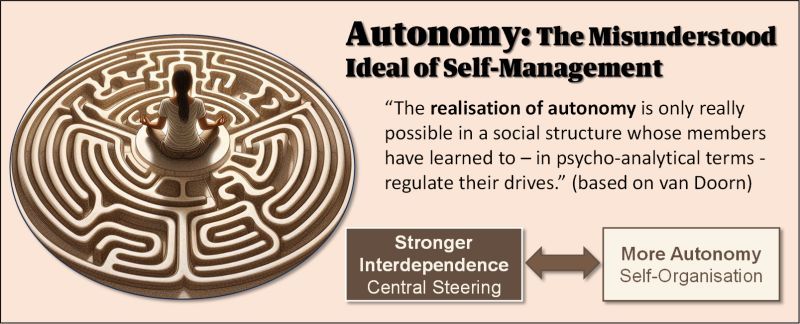

Autonomy – The Misunderstood Ideal of Self-Management
Effective self-management in organizations is often misconceived as purely about autonomy and freedom. In truth, it is the product of a socialization process emphasizing self-discipline, shared responsibilities, and contextual controls. Drawing from Norbert Elias's The Civilizing Process, advanced governance forms emerge through organizational structures like selective recruitment (prioritizing attitude over skill), community development, intensive training, peer norms (e.g., peer feedback, peer salary reviews), conflict resolution protocols, decision-making routines, and shared constitutions or frameworks.
As history has shown, more autonomous organizational systems often yield better outcomes. By minimizing universal external constraints, they foster greater individual creativity and self-actualization. However, autonomy or “templated” authenticity (cf. Mats Alvesson) is not simply liberation from control but its internalization. The maze of external controls shifts into self-discipline within the individual, reducing the need for formal constraints. Both forms—external and internal controls—are the result of socialization, highlighting that autonomy involves a reconfiguration of control rather than its absence.
Conversely, genuine individuation or “subjectification” (cf. Gert Biesta) requires increased personal maturity and reflexivity—the ability to detach and decenter from the social or organisational system. Contrary to popular gospel, personal or ‚ego identity’ development is not simply the absence of order, but the presence of wisdom to attain an appropriate positioning within it; the focus lies on the capacity to critically examine both internal or external controls.
Nancy Fraser’s concept of 'justice as participation' might offer an interesting lens here: according to her theory, organizational wisdom entails a dialectical progression toward internal justice by dismantling barriers across three dimensions—recognition (status, valuing diverse views and identities), distribution (class, promoting equitable access to economic resources), and participation (membership, ensuring inclusivity in decision-making processes).
However, it should be clear that representation through organisational governance cannot be unconditional; it must be grounded in qualifications, commitment to shared goals and embodiment of common good.. Assuming rights exist without corresponding responsibilities is a "Cheshire Cat fallacy," as Philip Pettit points out.
This brings us back to the interplay between a right of autonomy and a duty of representation: autonomy, paradoxically, is not freedom from the organization but entails fuller participation within it.
Graphic: Willem Mastenbroek, Norbert Elias as organisational sociologist, in: van Iterson, The Civilised Organisation, JBP, 2002
Thx to Eric for the pointer!
Antoinette
#transformation #leadership #psychology #organisationalchange
21-12-2024


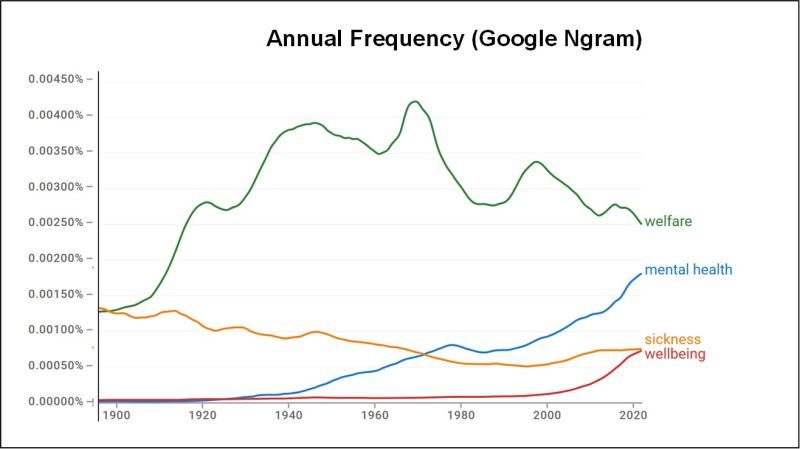
MENTAL HEALTH: What If Our System Needs Mental Illness?
Let me throw out a hypothesis: what if our system not only tolerates mental illness but depends on it? What if, for every group of 20-30 people, one is implicitly elected as a “human lightning rod,” absorbing the collective stress and alienation from lives unfulfilled? This individual becomes the earthing device, enabling the rest of the group to function, insulated from the system's true cost on the human spirit. Enter the wellness industry, promising salvation yet perpetuating the very structures that demand these sacrifices.
The Corporate Paradox: “See How Much We Love You”
Consider the corporate world’s twisted logic: “We terrorize you with work that has become soulless, but when you burn out, we provide yoga classes. This shows we care, so you should turn to us for healing from the wounds we inflicted.” It’s akin to a mother dangling her child out of a window by the neck, declaring, “See how much I love you.” The system’s “love” demands gratitude, even as it keeps us teetering on the edge.
By offering therapy and wellness initiatives, organizations also maintain control over the narrative of healing, ensuring that the terrorized return to their tormentors for relief. The same logic applies to society’s handling of violence, channeling it into criminal behavior to justify state violence in return. It’s a feedback loop that keeps the system humming.
From a Lacanian perspective, the increasing focus on mental health reflects profound psychological dynamics tied to modernity. Modernity creates a pervasive sense of lack—an absence of community, meaning, and purpose. The mental health narrative fills this void, offering a framework to articulate and address our discontent, but it risks becoming a superficial balm that conceals deeper structural wounds. Lacan’s “real” refers to experiences so traumatic they resist articulation. The mental health narrative attempts to confront this trauma but often reduces it to clinical categories, stripping away the richness of human suffering and its potential for existential growth. Society’s recognition (or lack thereof) of mental struggles shapes our self-perception. As mental health becomes more visible, it reshapes societal expectations, but it also risks creating a culture where every emotional experience is pathologized.
Who Benefits?
1. Corporations: By offering wellness programs, companies appear compassionate while avoiding accountability for the stress they cause. The narrative shifts responsibility from systemic change to individual resilience.
2. Wellness Industries: These sectors profit immensely, commodifying therapy, mindfulness, and self-help into billion-dollar markets. Mental health becomes a consumer product, not a societal priority.
3. Governments: Framing mental health as an individual issue diverts attention from systemic inequalities that fuel distress...
Continue: https://lnkd.in/dnzpR8tj
#transformation #leadership #psychology
MENTAL HEALTH: What If Our System Needs Mental Illness?
Let me throw out a hypothesis: what if our system not only tolerates mental illness but depends on it? What if, for every group of 20-30 people, one is implicitly elected as a “human lightning rod,” absorbing the collective stress and alienation from lives unfulfilled? This individual becomes the earthing device, enabling the rest of the group to function, insulated from the system's true cost on the human spirit. Enter the wellness industry, promising salvation yet perpetuating the very structures that demand these sacrifices.
The Corporate Paradox: “See How Much We Love You”
Consider the corporate world’s twisted logic: “We terrorize you with work that has become soulless, but when you burn out, we provide yoga classes. This shows we care, so you should turn to us for healing from the wounds we inflicted.” It’s akin to a mother dangling her child out of a window by the neck, declaring, “See how much I love you.” The system’s “love” demands gratitude, even as it keeps us teetering on the edge.
By offering therapy and wellness initiatives, organizations also maintain control over the narrative of healing, ensuring that the terrorized return to their tormentors for relief. The same logic applies to society’s handling of violence, channeling it into criminal behavior to justify state violence in return. It’s a feedback loop that keeps the system humming.
From a Lacanian perspective, the increasing focus on mental health reflects profound psychological dynamics tied to modernity. Modernity creates a pervasive sense of lack—an absence of community, meaning, and purpose. The mental health narrative fills this void, offering a framework to articulate and address our discontent, but it risks becoming a superficial balm that conceals deeper structural wounds. Lacan’s “real” refers to experiences so traumatic they resist articulation. The mental health narrative attempts to confront this trauma but often reduces it to clinical categories, stripping away the richness of human suffering and its potential for existential growth. Society’s recognition (or lack thereof) of mental struggles shapes our self-perception. As mental health becomes more visible, it reshapes societal expectations, but it also risks creating a culture where every emotional experience is pathologized.
Who Benefits?
1. Corporations: By offering wellness programs, companies appear compassionate while avoiding accountability for the stress they cause. The narrative shifts responsibility from systemic change to individual resilience.
2. Wellness Industries: These sectors profit immensely, commodifying therapy, mindfulness, and self-help into billion-dollar markets. Mental health becomes a consumer product, not a societal priority.
3. Governments: Framing mental health as an individual issue diverts attention from systemic inequalities that fuel distress...
Continue: https://lnkd.in/dnzpR8tj
#transformation #leadership #psychology
20-12-2024

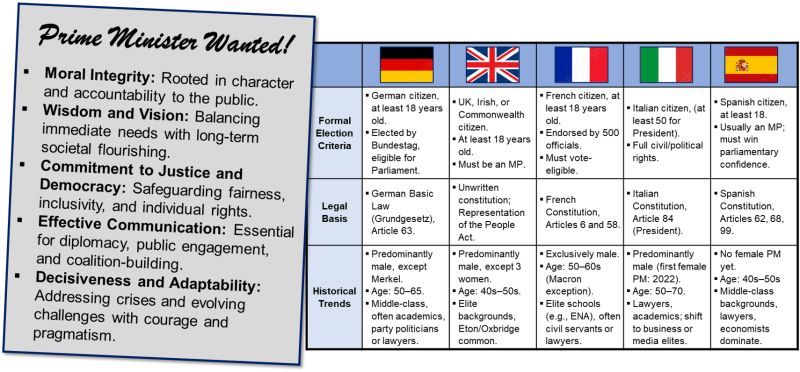

(COMPETENT) PRIME MISTERS WANTED!
Across Europe, the formal qualifications for becoming prime minister are strikingly simple, reflecting the democratic ideal of political accessibility:
1. Citizenship of the country.
2. Minimum age (usually 18).
3. Election or appointment via parliament (or public vote in presidential systems).
4. Eligibility to serve in public office, with no formal requirements for education, experience, or specific expertise.
These open requirements demonstrate the ambition of democracies to allow anyone—regardless of background—to rise to the highest political office, emphasizing inclusivity and equal opportunity.
However, history shows a different picture. European prime ministers since World War II tend to share similar characteristics:
• Mostly men, with female leaders like Merkel and Thatcher as exceptions.
• Leaders often assume office between 40 and 65.
• Many come from middle-to-upper-class families, often with elite education.
• Many have backgrounds in law, public administration, or academia.
• Most ascend through established political parties.
Thus, while the formal requirements are open, structural factors like party politics, societal biases, and economic privilege mean that men from elite professions dominate leadership roles.
Another critical question is whether the current system actually favours competence over party loyalty and promotes capable candidates. For the sake of argument, let's assume an ideal prime minister should embody:
• Moral integrity, rooted in character and accountability.
• Wisdom and vision, balancing immediate needs with long-term societal flourishing.
• Commitment to justice and democracy, safeguarding fairness and individual rights.
• Effective communication, essential for diplomacy and coalition-building.
• Decisiveness and adaptability, addressing crises with courage.
On this basis, it seems fairly evident that the lack of formal qualifications for top leadership roles has not ensured highly qualified leaders. Many of the current candidates would never succeed in gaining equivalent roles in private businesses, and leadership failures all over Europe raise serious questions about whether our system adequately prepare leaders for modern political complexities. In contrast, China’s authoritarian system for example develops leaders through a rigid career path, emphasizing increasingly complex administrative experience.
Possible reforms could include:
* Formal qualifications, requiring education in public administration, law, and economics.
* Career pathways cultivating leadership skills through public service or regional governance.
* Performance metrics, ensuring prior success in administrative roles.
While democracy's openness to leadership is noble, it has not ensured diversity or competence. As governance challenges grow, modern democracies may need to rethink how they select and prepare leaders, balancing inclusivity and expertise.
#transformation #leadership
(COMPETENT) PRIME MISTERS WANTED!
Across Europe, the formal qualifications for becoming prime minister are strikingly simple, reflecting the democratic ideal of political accessibility:
1. Citizenship of the country.
2. Minimum age (usually 18).
3. Election or appointment via parliament (or public vote in presidential systems).
4. Eligibility to serve in public office, with no formal requirements for education, experience, or specific expertise.
These open requirements demonstrate the ambition of democracies to allow anyone—regardless of background—to rise to the highest political office, emphasizing inclusivity and equal opportunity.
However, history shows a different picture. European prime ministers since World War II tend to share similar characteristics:
• Mostly men, with female leaders like Merkel and Thatcher as exceptions.
• Leaders often assume office between 40 and 65.
• Many come from middle-to-upper-class families, often with elite education.
• Many have backgrounds in law, public administration, or academia.
• Most ascend through established political parties.
Thus, while the formal requirements are open, structural factors like party politics, societal biases, and economic privilege mean that men from elite professions dominate leadership roles.
Another critical question is whether the current system actually favours competence over party loyalty and promotes capable candidates. For the sake of argument, let's assume an ideal prime minister should embody:
• Moral integrity, rooted in character and accountability.
• Wisdom and vision, balancing immediate needs with long-term societal flourishing.
• Commitment to justice and democracy, safeguarding fairness and individual rights.
• Effective communication, essential for diplomacy and coalition-building.
• Decisiveness and adaptability, addressing crises with courage.
On this basis, it seems fairly evident that the lack of formal qualifications for top leadership roles has not ensured highly qualified leaders. Many of the current candidates would never succeed in gaining equivalent roles in private businesses, and leadership failures all over Europe raise serious questions about whether our system adequately prepare leaders for modern political complexities. In contrast, China’s authoritarian system for example develops leaders through a rigid career path, emphasizing increasingly complex administrative experience.
Possible reforms could include:
* Formal qualifications, requiring education in public administration, law, and economics.
* Career pathways cultivating leadership skills through public service or regional governance.
* Performance metrics, ensuring prior success in administrative roles.
While democracy's openness to leadership is noble, it has not ensured diversity or competence. As governance challenges grow, modern democracies may need to rethink how they select and prepare leaders, balancing inclusivity and expertise.
#transformation #leadership
18-12-2024



The Elephant in Germany's Upcoming Elections: A neverending "Beamtenplage"!
Germany has been suffering for decades from a civil service plague that suffocates the country in bureaucracy and stifles innovation. The civil service, once a symbol of stability and professional administration, has become a brake on progress.
The Productivity Trap:
Civil servants enjoy job security, generous pensions, and early retirement, yet these privileges lead to low productivity and inefficient administration. Unlike the private sector, which must constantly adapt to economic changes and digital developments, the public sector remains bogged down by rigid structures, lack of budget, endless hierarchies, paper-based processes and a culture of mediocrity - resisting necessary reforms, especially in digitization and process optimization.
Indirect Costs to the Country:
The productivity trap creates significant indirect costs: delayed projects, excessive bureaucracy, and slow administration not only slow down investments but also hinder economic growth. The civil service mentality protects traditional methods instead of driving digital transformation.
Additionally, unjustified pension claims and social security benefits place a heavy burden on state finances, unfairly disadvantaging younger generations, who must pay for their own retirement.
Lack of Reforms:
The political cowardice of parties to address the issue prevents necessary change. Fear of the powerful civil service unions has kept the status quo in place, resulting in high costs to taxpayers and a society that relies on privileges for civil servants.
It’s Time for Change!
Germany needs reforms in the public sector that focus on performance and productivity, not the preservation of an outdated system. Civil servants must be held accountable for their performance, just like everyone else. We need a public sector that is performance-oriented and digitally driven, not one that hides behind self-created privileges.
Political parties must stop mumbling about "Bürokratieabbau" and finally summon the political will to reform the deeply engrained inefficacy of civil service to ensure Germany's competitiveness in the future. This requires genuine investment in people, processes and technology - not yet another top down reform PowerPointed by some highly paid Management Consulting firm. Above all it requires courage to change what doesn't work. The country can no longer afford to remain blocked by the conveniences and interests of a privileged few.
Reference: https://en.m.wikipedia.org/wiki/Beamter
PS: My critique here is very specific. The class of "Beamter" have accumulated undue privileges and structures over the last 70 years that are by no means in the interest of the nation as a whole - maybe with some exception for military personnel. These must be addressed and no political party seems to be willing to go there
#transformation
The Elephant in Germany's Upcoming Elections: A neverending "Beamtenplage"!
Germany has been suffering for decades from a civil service plague that suffocates the country in bureaucracy and stifles innovation. The civil service, once a symbol of stability and professional administration, has become a brake on progress.
The Productivity Trap:
Civil servants enjoy job security, generous pensions, and early retirement, yet these privileges lead to low productivity and inefficient administration. Unlike the private sector, which must constantly adapt to economic changes and digital developments, the public sector remains bogged down by rigid structures, lack of budget, endless hierarchies, paper-based processes and a culture of mediocrity - resisting necessary reforms, especially in digitization and process optimization.
Indirect Costs to the Country:
The productivity trap creates significant indirect costs: delayed projects, excessive bureaucracy, and slow administration not only slow down investments but also hinder economic growth. The civil service mentality protects traditional methods instead of driving digital transformation.
Additionally, unjustified pension claims and social security benefits place a heavy burden on state finances, unfairly disadvantaging younger generations, who must pay for their own retirement.
Lack of Reforms:
The political cowardice of parties to address the issue prevents necessary change. Fear of the powerful civil service unions has kept the status quo in place, resulting in high costs to taxpayers and a society that relies on privileges for civil servants.
It’s Time for Change!
Germany needs reforms in the public sector that focus on performance and productivity, not the preservation of an outdated system. Civil servants must be held accountable for their performance, just like everyone else. We need a public sector that is performance-oriented and digitally driven, not one that hides behind self-created privileges.
Political parties must stop mumbling about "Bürokratieabbau" and finally summon the political will to reform the deeply engrained inefficacy of civil service to ensure Germany's competitiveness in the future. This requires genuine investment in people, processes and technology - not yet another top down reform PowerPointed by some highly paid Management Consulting firm. Above all it requires courage to change what doesn't work. The country can no longer afford to remain blocked by the conveniences and interests of a privileged few.
Reference: https://en.m.wikipedia.org/wiki/Beamter
PS: My critique here is very specific. The class of "Beamter" have accumulated undue privileges and structures over the last 70 years that are by no means in the interest of the nation as a whole - maybe with some exception for military personnel. These must be addressed and no political party seems to be willing to go there
#transformation
15-12-2024

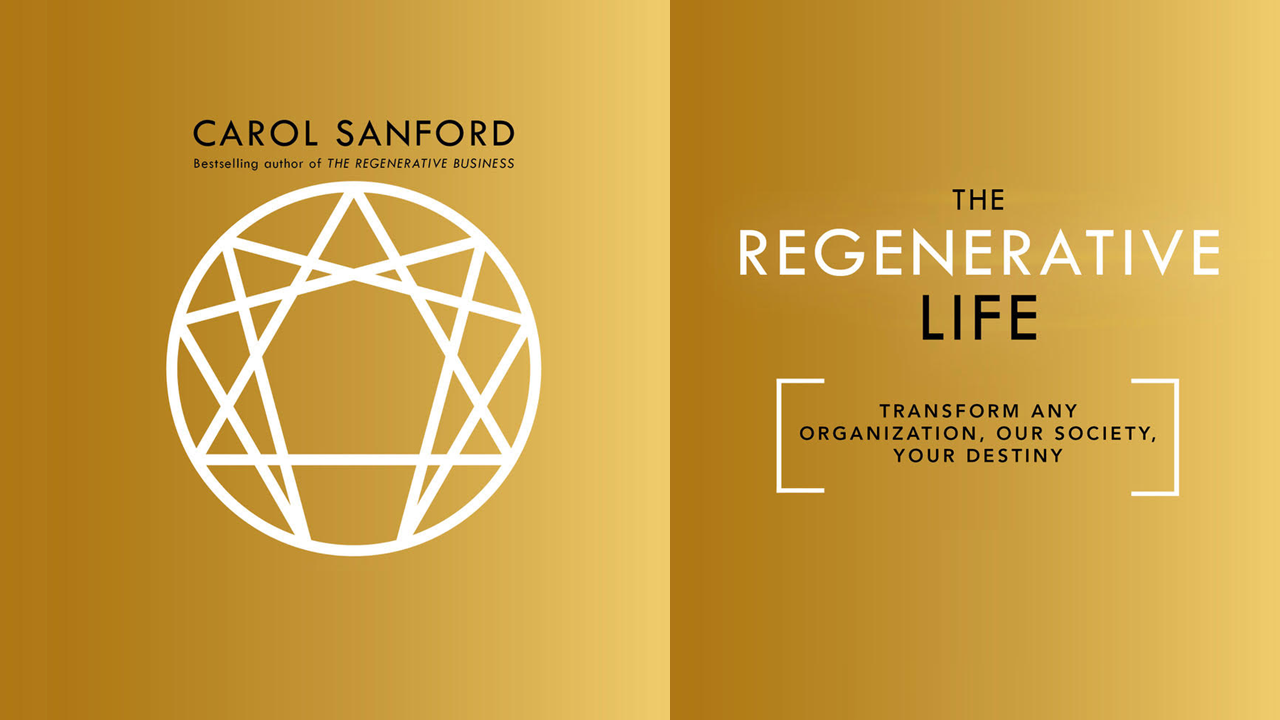

Carol Sanford, who sadly passed away last week, leaves a lasting legacy in regenerative business practices and leadership.
Her work emphasized the power of businesses and individuals to create positive, systemic change through intentional transformation.
- A central idea in Carol's work is essence thinking, which encourages individuals and organizations to align with their authentic core. By understanding essence—the unchanging, authentic nature of a person, organization, or product—businesses can create meaningful value and foster sustainable growth.
- Carol also focused on shifting mental paradigms. She believed outdated models, like the sole focus on profit maximization, limited potential. Her offer was a regenerative paradigm, recognizing interconnectedness and emphasizing the creation of positive, systemic change to unlock the full potential of businesses and individuals.
- Carol championed regenerative businesses, advocating for purpose-driven models that benefit all stakeholders—employees, customers, communities, and environment. Instead of relying on abstract data, businesses should connect directly with stakeholders to understand their needs. She encouraged considering the broader, systemic effects of actions, fostering a culture of continuous learning.
- Her ideas on conscious leadership were deeply connected to regenerative business practices. Carol believed leaders should be self-aware, committed to growth, and attuned to the interconnectedness of all things. Conscious leaders act with intention, considering the ripple effects of their decisions. They build trust, collaboration, and learning, empowering others to lead consciously.
- Carol emphasized human development. She believed businesses should cultivate the potential of employees by designing work that fosters autonomy, creativity, and purpose. A culture where individuals can take risks and learn from each other, was essential for growth and success.
At the core of Carol’s approach was systemic change. She argued that true transformation comes from "nodal shifts", lifting the energy of living systems, not just treating symptoms. Her concept of the regenerative life encouraged individuals to embrace regenerative thinking in personal growth, relationships, and societal contributions. By consciously adopting foundational roles that promote growth and impact, individuals can contribute to a more regenerative society.
Carol, introduced to me by the late Bryan Ungard, has had a profound impact on my thinking. While we didn’t always agree ;-), I deeply admired her teachings, which were marked by conceptual depth and a steadfast commitment to creating a regenerative, just, beautiful world. Carol inspired us to positively impact the world, challenging us to truly embody the change we wish to see.
As we mourn her passing, we also celebrate the lasting influence she has had in nurturing systemic hashtag#transformation—in both businesses and ourselves.
Podcast: https://lnkd.in/eWPA_8xk
Carol Sanford, who sadly passed away last week, leaves a lasting legacy in regenerative business practices and leadership.
Her work emphasized the power of businesses and individuals to create positive, systemic change through intentional transformation.
- A central idea in Carol's work is essence thinking, which encourages individuals and organizations to align with their authentic core. By understanding essence—the unchanging, authentic nature of a person, organization, or product—businesses can create meaningful value and foster sustainable growth.
- Carol also focused on shifting mental paradigms. She believed outdated models, like the sole focus on profit maximization, limited potential. Her offer was a regenerative paradigm, recognizing interconnectedness and emphasizing the creation of positive, systemic change to unlock the full potential of businesses and individuals.
- Carol championed regenerative businesses, advocating for purpose-driven models that benefit all stakeholders—employees, customers, communities, and environment. Instead of relying on abstract data, businesses should connect directly with stakeholders to understand their needs. She encouraged considering the broader, systemic effects of actions, fostering a culture of continuous learning.
- Her ideas on conscious leadership were deeply connected to regenerative business practices. Carol believed leaders should be self-aware, committed to growth, and attuned to the interconnectedness of all things. Conscious leaders act with intention, considering the ripple effects of their decisions. They build trust, collaboration, and learning, empowering others to lead consciously.
- Carol emphasized human development. She believed businesses should cultivate the potential of employees by designing work that fosters autonomy, creativity, and purpose. A culture where individuals can take risks and learn from each other, was essential for growth and success.
At the core of Carol’s approach was systemic change. She argued that true transformation comes from "nodal shifts", lifting the energy of living systems, not just treating symptoms. Her concept of the regenerative life encouraged individuals to embrace regenerative thinking in personal growth, relationships, and societal contributions. By consciously adopting foundational roles that promote growth and impact, individuals can contribute to a more regenerative society.
Carol, introduced to me by the late Bryan Ungard, has had a profound impact on my thinking. While we didn’t always agree ;-), I deeply admired her teachings, which were marked by conceptual depth and a steadfast commitment to creating a regenerative, just, beautiful world. Carol inspired us to positively impact the world, challenging us to truly embody the change we wish to see.
As we mourn her passing, we also celebrate the lasting influence she has had in nurturing systemic hashtag#transformation—in both businesses and ourselves.
Podcast: https://lnkd.in/eWPA_8xk
15-12-2024

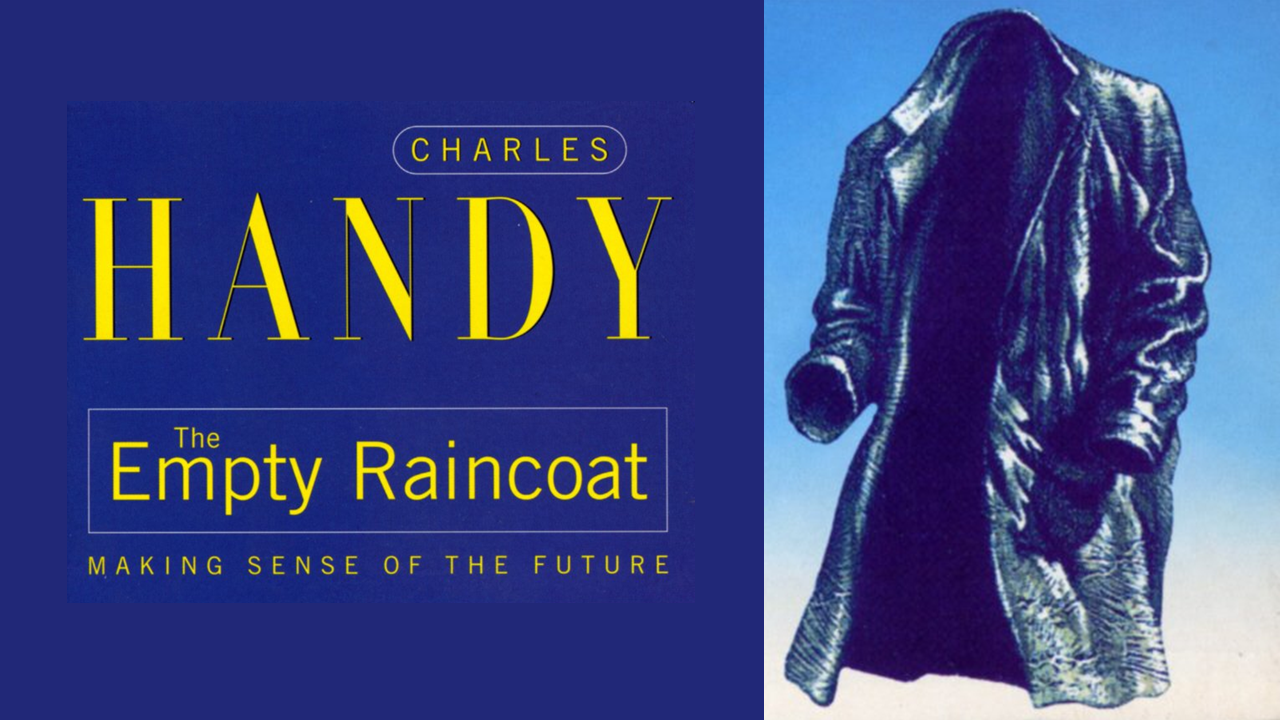

In Memoriam: Charles Handy (1932-2024)
Charles Handy, who passed away at the age of 92, leaves behind a legacy as one of the most influential and humane thinkers in the realm of business and management. He certainly has influenced my own thinking of management profoundly.
At the heart of his vision was the belief that both businesses and individuals must learn to navigate paradoxes—balancing economic success with human dignity, adaptability with continuity, and individual purpose with the collective good. The title of one of Charles’s most celebrated books, The Empty Raincoat, perfectly captures this concern: how can we preserve our sense of purpose amid the relentless pressures of economic and technological change? He urged both individuals and organizations to strive for the fulfillment of their highest potential, rather than merely chasing material success.
Charles foresaw the rise of the “knowledge worker” and the decline of traditional employment structures. In response, he advocated for organizations to become more flexible, decentralized, and attentive to the development of their people. He envisioned workplaces where human potential could flourish rather than be constrained by hierarchies.
- Charles believed that culture is the soul of an organization, shaping how it operates and what it achieves. His typology of cultures—power, role, task, and person—remains a vital tool for understanding the dynamics within organizations.
- He believed that human dignity and relationships must remain central to organizational life.
- For Charles, organizations were more than economic entities; they were communities. His doughnut principle illustrated the balance between core responsibilities and the freedom for personal expression and creativity.
- His concept of the shamrock organization—a model dividing workforces into core employees, contractors, and outsourced specialists—offered a framework for managing this evolving reality. At its heart was a recognition of the need for trust, collaboration, and adaptability in a world where work is increasingly fragmented.
- He urged leaders to be learners, fostering environments of trust and empowerment where individuals feel valued and motivated.
- He also introduced the Sigmoid Curve, a metaphor for organizational lifecycles. It taught that success requires reinvention before decline sets in—an insight that resonates strongly in today’s rapidly changing businesses.
Charles Handy’s legacy is one of profound humanity and enduring relevance. He championed lives enriched by purpose and creativity, where work becomes a source of personal satisfaction and contribution. And he challenged us to rethink success—not as the accumulation of wealth or status but as a life well-lived, rich in purpose and connection.
We must fill our empty raincoats with meaning, to embrace change with courage, and to build a world where work serves life, not the other way around.
Podcast: https://lnkd.in/em7xGGk3
#transformation
In Memoriam: Charles Handy (1932-2024)
Charles Handy, who passed away at the age of 92, leaves behind a legacy as one of the most influential and humane thinkers in the realm of business and management. He certainly has influenced my own thinking of management profoundly.
At the heart of his vision was the belief that both businesses and individuals must learn to navigate paradoxes—balancing economic success with human dignity, adaptability with continuity, and individual purpose with the collective good. The title of one of Charles’s most celebrated books, The Empty Raincoat, perfectly captures this concern: how can we preserve our sense of purpose amid the relentless pressures of economic and technological change? He urged both individuals and organizations to strive for the fulfillment of their highest potential, rather than merely chasing material success.
Charles foresaw the rise of the “knowledge worker” and the decline of traditional employment structures. In response, he advocated for organizations to become more flexible, decentralized, and attentive to the development of their people. He envisioned workplaces where human potential could flourish rather than be constrained by hierarchies.
- Charles believed that culture is the soul of an organization, shaping how it operates and what it achieves. His typology of cultures—power, role, task, and person—remains a vital tool for understanding the dynamics within organizations.
- He believed that human dignity and relationships must remain central to organizational life.
- For Charles, organizations were more than economic entities; they were communities. His doughnut principle illustrated the balance between core responsibilities and the freedom for personal expression and creativity.
- His concept of the shamrock organization—a model dividing workforces into core employees, contractors, and outsourced specialists—offered a framework for managing this evolving reality. At its heart was a recognition of the need for trust, collaboration, and adaptability in a world where work is increasingly fragmented.
- He urged leaders to be learners, fostering environments of trust and empowerment where individuals feel valued and motivated.
- He also introduced the Sigmoid Curve, a metaphor for organizational lifecycles. It taught that success requires reinvention before decline sets in—an insight that resonates strongly in today’s rapidly changing businesses.
Charles Handy’s legacy is one of profound humanity and enduring relevance. He championed lives enriched by purpose and creativity, where work becomes a source of personal satisfaction and contribution. And he challenged us to rethink success—not as the accumulation of wealth or status but as a life well-lived, rich in purpose and connection.
We must fill our empty raincoats with meaning, to embrace change with courage, and to build a world where work serves life, not the other way around.
Podcast: https://lnkd.in/em7xGGk3
#transformation
10-12-2024

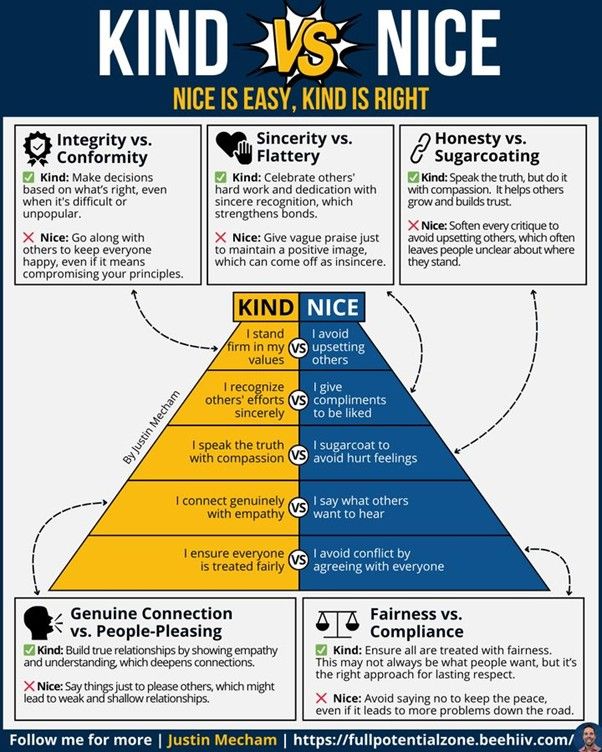

KIND VS NICE: I came across this post and thought it was worth reflecting on
While the post is popular (and somewhat populist), it conflates the virtues of kindness and justice in ways that overlook their distinct roles:
* Kindness (Greek chrestotes) refers to an active disposition to do good for others, emphasizing compassion, generosity, and goodwill. It involves prioritizing others' well-being and being inclined to act with empathy and care. Kindness fosters personal connections and nurtures individual relationships.
* Justice (Greek dikaiosynē), on the other hand, is concerned with ensuring that individuals receive what they are owed—whether in terms of rights, responsibilities, or resources. It focuses on merit, societal equity, and the common good, with an emphasis on respecting laws and maintaining order.
These virtues, while related, operate on different levels: kindness is personal and relational, while justice is institutional and societal, ensuring the proper distribution of goods and services to promote fairness and equity. The conflation of the two virtues risks oversimplifying both.
Together, kindness and justice sustain and enrich "political friendship," or koinonia (κοινωνία), which forms the foundation for societal flourishing (eudaimonia) in virtue ethics. In this context, "virtuous critique" becomes crucial, where honesty is directed toward the person's flourishing within society, and kindness ensures that the critique is not destructive but a step toward betterment.
The post also suggested that kindness is about "pushing others towards greatness," which I believe misses the deeper meaning of kindness, which as exemplified in its highest form by the charity of the Good Samaritan, is about existential openness towards the other—any other—regardless of their potential. It also risks missing the connection with justice which is not about advancing a subjective idea of greatness but about creating a fair and equitable society. Justice and kindness enable a social practice that nurtures both personal and collective well-being to advance flourishing of society as a whole.
Clearly there is also confusion around the meaning of justice, confusing philosophical frameworks such as relativism ("my values"), objective truth, and contractarian ideas like fairness and rights.
Justice in virtue ethics, however, is both a personal and institutional virtue, reflecting the dialectical development of individuals who view their own life as part of a larger good society. Kindness, or love as a "political emotion", is understood as the deep force to nurture the "good inside each other," emphasising each person as both the end and means of societal well-being.
PS: It's somewhat ironic how popular these relatively superficial posts are ;-) —which likely reflects a broader lack of genuine engagement with moral questions.
KIND VS NICE: I came across this post and thought it was worth reflecting on
While the post is popular (and somewhat populist), it conflates the virtues of kindness and justice in ways that overlook their distinct roles:
* Kindness (Greek chrestotes) refers to an active disposition to do good for others, emphasizing compassion, generosity, and goodwill. It involves prioritizing others' well-being and being inclined to act with empathy and care. Kindness fosters personal connections and nurtures individual relationships.
* Justice (Greek dikaiosynē), on the other hand, is concerned with ensuring that individuals receive what they are owed—whether in terms of rights, responsibilities, or resources. It focuses on merit, societal equity, and the common good, with an emphasis on respecting laws and maintaining order.
These virtues, while related, operate on different levels: kindness is personal and relational, while justice is institutional and societal, ensuring the proper distribution of goods and services to promote fairness and equity. The conflation of the two virtues risks oversimplifying both.
Together, kindness and justice sustain and enrich "political friendship," or koinonia (κοινωνία), which forms the foundation for societal flourishing (eudaimonia) in virtue ethics. In this context, "virtuous critique" becomes crucial, where honesty is directed toward the person's flourishing within society, and kindness ensures that the critique is not destructive but a step toward betterment.
The post also suggested that kindness is about "pushing others towards greatness," which I believe misses the deeper meaning of kindness, which as exemplified in its highest form by the charity of the Good Samaritan, is about existential openness towards the other—any other—regardless of their potential. It also risks missing the connection with justice which is not about advancing a subjective idea of greatness but about creating a fair and equitable society. Justice and kindness enable a social practice that nurtures both personal and collective well-being to advance flourishing of society as a whole.
Clearly there is also confusion around the meaning of justice, confusing philosophical frameworks such as relativism ("my values"), objective truth, and contractarian ideas like fairness and rights.
Justice in virtue ethics, however, is both a personal and institutional virtue, reflecting the dialectical development of individuals who view their own life as part of a larger good society. Kindness, or love as a "political emotion", is understood as the deep force to nurture the "good inside each other," emphasising each person as both the end and means of societal well-being.
PS: It's somewhat ironic how popular these relatively superficial posts are ;-) —which likely reflects a broader lack of genuine engagement with moral questions.
03-12-2024



No. Whatever you may think, YOU DON'T NEED A 14 MPG PREMIUM-FUEL LAND ROVER to navigate the center of London. Stop showing off and start behaving responsibly.
This isn’t about how much we individually can contribute to making the planet a bit healthier, in precise quantitative terms; it’s about setting an example and acknowledging that just because we can do something, it doesn’t mean we should.
Leading by example isn’t just a slogan—it’s a responsibility, especially for the wealthiest (who are the biggest contributors to global warming). It’s time to align privilege with accountability and make choices that respect the world we all share.
#Leadership
03-12-2024

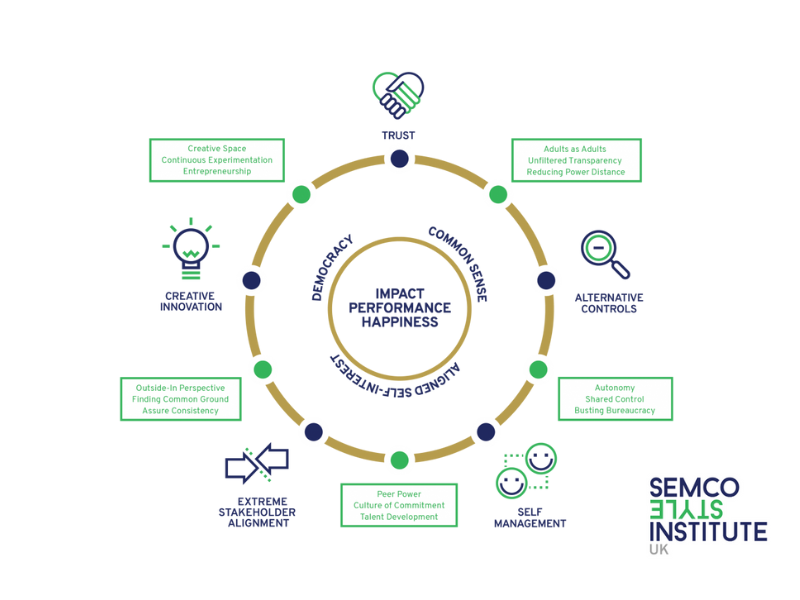

Self-Management 2.0: Businesses Must Step Up to Manage Each Other
In today’s dynamic business environment, self-management is no longer a luxury—it’s a necessity. That's true not only inside organisations, but also increasingly between them: in the absence of strong politics, businesses must step up to self-manage each other to fulfill their shared corporate "political" responsibility. Businesses must proactively shape industry self-regulation (ISR) for the common good.
Lessons from Self-Managed Companies
Self-management within progressive organizations has highlighted some key challenges, such as the need for trust, role clarity, and accountability frameworks. Moreover, companies adopting models like Teal or Holacracy often face resistance, inefficiencies, and ambiguity in decision-making. Overcoming these hurdles requires agreed standards, robust governance, strong interpersonal trust, transparency and collaborative practices—learnings that can also be applied to industry-level collaboration.
Improving Industry Self-Regulation
Many barriers have traditionally hampered ISR, including:
- Lack of Consensus: Industries struggle to align on CSR and sustainability standards due to fragmentation across borders.
- Inconsistent Accountability: Without clear mechanisms, superficial CSR efforts often replace meaningful systemic change.
- Failure to Address Externalities: Environmental damage, labour exploitation, and other impacts are frequently and conveniently overlooked.
Applying Self-Management Good Practices to ISR
Perhaps we should engage a few self-management coaches to guide future ISR efforts, ensuring:
- Clear roles and governance structures to ensure accountability and alignment.
- Mechanisms like third-party audits and shared metrics to build trust and enforce standards.
- Driving collaboration over competition through cross-industry partnerships and professional associations.
The Leadership Imperative
That said, self-management is challenging and demands significant effort, commitment, and energy. While institutional interventions are essential, it must be enabled through appropriate leadership. In the case of ISR, CEOs, board members, and investors must embrace a shared commitment to become mutually accountable in creating the right context - championing collaboration, civic virtues, professionalism, and long-term societal goals.
If businesses wish to uphold society's trust in their ability to contribute positively, they must increase their capacity for collective ecosystem stewardship—proactively addressing societal challenges and shaping sustainable, ethical industry practices. Otherwise, regulation remains the only viable alternative.
But, as the old adage goes: "Nothing but the courage and unselfishness of individuals is ever going to make any system work properly. You cannot make man good by law, and without good men you cannot have a good society."
Self-Management 2.0: Businesses Must Step Up to Manage Each Other
In today’s dynamic business environment, self-management is no longer a luxury—it’s a necessity. That's true not only inside organisations, but also increasingly between them: in the absence of strong politics, businesses must step up to self-manage each other to fulfill their shared corporate "political" responsibility. Businesses must proactively shape industry self-regulation (ISR) for the common good.
Lessons from Self-Managed Companies
Self-management within progressive organizations has highlighted some key challenges, such as the need for trust, role clarity, and accountability frameworks. Moreover, companies adopting models like Teal or Holacracy often face resistance, inefficiencies, and ambiguity in decision-making. Overcoming these hurdles requires agreed standards, robust governance, strong interpersonal trust, transparency and collaborative practices—learnings that can also be applied to industry-level collaboration.
Improving Industry Self-Regulation
Many barriers have traditionally hampered ISR, including:
- Lack of Consensus: Industries struggle to align on CSR and sustainability standards due to fragmentation across borders.
- Inconsistent Accountability: Without clear mechanisms, superficial CSR efforts often replace meaningful systemic change.
- Failure to Address Externalities: Environmental damage, labour exploitation, and other impacts are frequently and conveniently overlooked.
Applying Self-Management Good Practices to ISR
Perhaps we should engage a few self-management coaches to guide future ISR efforts, ensuring:
- Clear roles and governance structures to ensure accountability and alignment.
- Mechanisms like third-party audits and shared metrics to build trust and enforce standards.
- Driving collaboration over competition through cross-industry partnerships and professional associations.
The Leadership Imperative
That said, self-management is challenging and demands significant effort, commitment, and energy. While institutional interventions are essential, it must be enabled through appropriate leadership. In the case of ISR, CEOs, board members, and investors must embrace a shared commitment to become mutually accountable in creating the right context - championing collaboration, civic virtues, professionalism, and long-term societal goals.
If businesses wish to uphold society's trust in their ability to contribute positively, they must increase their capacity for collective ecosystem stewardship—proactively addressing societal challenges and shaping sustainable, ethical industry practices. Otherwise, regulation remains the only viable alternative.
But, as the old adage goes: "Nothing but the courage and unselfishness of individuals is ever going to make any system work properly. You cannot make man good by law, and without good men you cannot have a good society."
01-12-2024

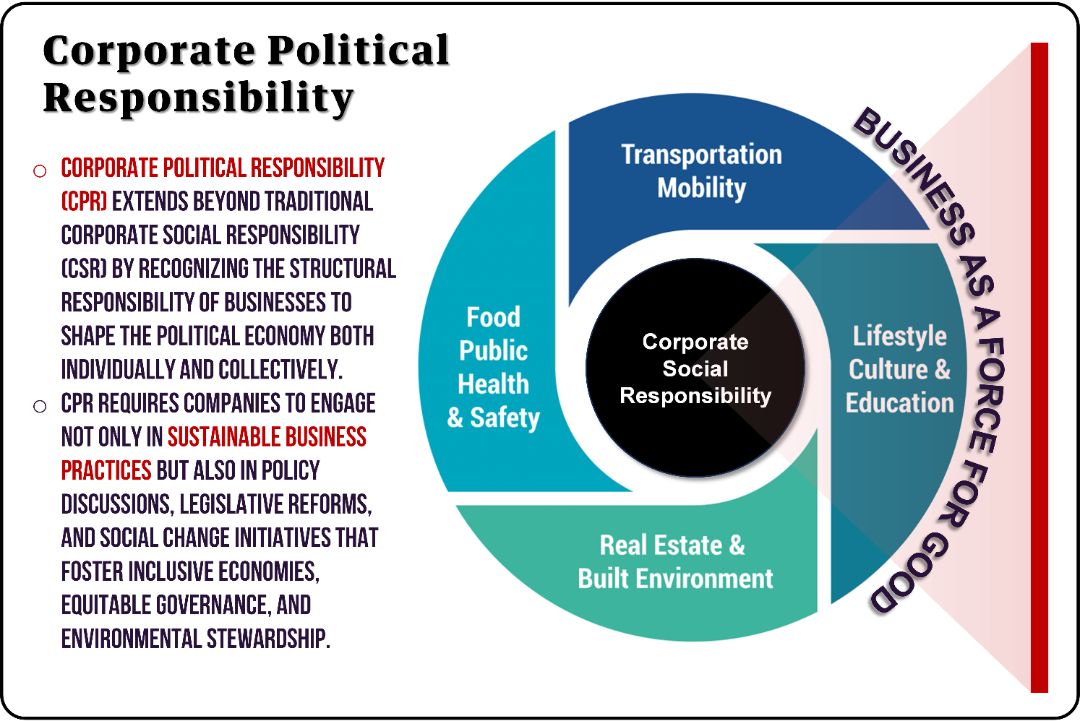

Business as a Force for Good: Where The Economy Meets Political Responsibility
In striving to become a force for good, the "good" business can create is always a concrete singularity—a unique, context-specific manifestation of an organisation's potential.
Yet, while every organization has a distinct role in serving society, businesses also bear structural and collective responsibly for the ecosystems they inhabit.
Ecosystemic responsibility goes beyond addressing specific stakeholder concerns; it requires a collective effort to transform ecosystems, ensuring that all externalities are addressed - especially where regulation falls short - and collaboration across stakeholders nurtures the ecosystem's potential to serve the common good.
1. Education
Collaborate to ensure equal access, foster lifelong learning, and develop curricula that promote civic participation and responsible citizenship.
2. Manufacturing
Push for sustainable supply chains and circular economies, minimizing environmental damage and ensuring ethical labour practices.
3. Health
Make healthcare affordable and accessible, reduce environmental impacts, and collaborate to mitigate systemic health challenges.
4. Food
Move towards sustainable practices, reduce waste, and ensure fair labour conditions, promoting ecological food systems.
5. Mobility
Build sustainable infrastructure, transition to electric vehicles, and enhance public transport to reduce environmental impact and improve accessibility.
6. Energy
Transition to renewable energy sources, ensure equitable access, and reduce environmental harm through cross-sector collaboration.
7. Housing
Prioritize sustainable building practices, affordable housing, and energy efficiency while addressing housing shortages and reducing construction’s environmental footprint.
8. Finance
Build inclusive, transparent financial systems that serve society, reduce environmental impacts, and address financial exclusion.
Central to ecosystem responsibility is a distinction between needs and wants. Needs are essential goods and services that enable human capability for civic participation in society. In contrast, wants often contribute to consumerism, promoting luxury or harmful goods. Businesses must prioritize societal needs and avoid perpetuating consumerism that harms social or environmental well-being.
In discussions of corporate responsibility, we've often treated businesses as isolated entities. The truth is, companies that fail to collaborate in addressing broader societal challenges and transforming their ecosystems are not acting responsibly—full stop. Ecosystem stewardship must be at the core of responsible business strategies, ensuring that businesses not only contribute positively to society individually, but also collectively foster sustainability and a just world.
#transformation #businessethics #csr #leadership #corporateresponsibility #leadershipsociety #businessforhumanity
Business as a Force for Good: Where The Economy Meets Political Responsibility
In striving to become a force for good, the "good" business can create is always a concrete singularity—a unique, context-specific manifestation of an organisation's potential.
Yet, while every organization has a distinct role in serving society, businesses also bear structural and collective responsibly for the ecosystems they inhabit.
Ecosystemic responsibility goes beyond addressing specific stakeholder concerns; it requires a collective effort to transform ecosystems, ensuring that all externalities are addressed - especially where regulation falls short - and collaboration across stakeholders nurtures the ecosystem's potential to serve the common good.
1. Education
Collaborate to ensure equal access, foster lifelong learning, and develop curricula that promote civic participation and responsible citizenship.
2. Manufacturing
Push for sustainable supply chains and circular economies, minimizing environmental damage and ensuring ethical labour practices.
3. Health
Make healthcare affordable and accessible, reduce environmental impacts, and collaborate to mitigate systemic health challenges.
4. Food
Move towards sustainable practices, reduce waste, and ensure fair labour conditions, promoting ecological food systems.
5. Mobility
Build sustainable infrastructure, transition to electric vehicles, and enhance public transport to reduce environmental impact and improve accessibility.
6. Energy
Transition to renewable energy sources, ensure equitable access, and reduce environmental harm through cross-sector collaboration.
7. Housing
Prioritize sustainable building practices, affordable housing, and energy efficiency while addressing housing shortages and reducing construction’s environmental footprint.
8. Finance
Build inclusive, transparent financial systems that serve society, reduce environmental impacts, and address financial exclusion.
Central to ecosystem responsibility is a distinction between needs and wants. Needs are essential goods and services that enable human capability for civic participation in society. In contrast, wants often contribute to consumerism, promoting luxury or harmful goods. Businesses must prioritize societal needs and avoid perpetuating consumerism that harms social or environmental well-being.
In discussions of corporate responsibility, we've often treated businesses as isolated entities. The truth is, companies that fail to collaborate in addressing broader societal challenges and transforming their ecosystems are not acting responsibly—full stop. Ecosystem stewardship must be at the core of responsible business strategies, ensuring that businesses not only contribute positively to society individually, but also collectively foster sustainability and a just world.
#transformation #businessethics #csr #leadership #corporateresponsibility #leadershipsociety #businessforhumanity
29-11-2024



FREEDOM TO FLOURISH vs. TEAL: Two Paths to Organizational #Transformation
Freedom to Flourish (F2F) and Frederic Laloux's Reinventing Organisations explore how organizations evolve into purpose-driven entities, using color-coded paradigms to describe stages of development. Both frameworks share themes of progression, from hierarchical models (Red) to purpose-driven stages (#Purple/#Teal). Yet, they differ significantly in their philosophical foundations and methods for transformation.
Both frameworks describe similar trajectories:
- Red/Amber: Hierarchy and control dominate.
- Yellow/Orange/Green*: Transition stages emphasize achievement, market focus, and community values.
- Purple/Teal: Self-management, wholeness, and evolutionary purpose.
This progression reflects a shared vision of holistic, people-centered practices replacing competitive or hierarchical norms.
Laloux’s Model: Natural Progression
Laloux, influenced by Ken Wilber’s Spiral Dynamics, posits that organizations evolve in a quasi-linear progression, mirroring psychological development. His Teal paradigm embodies a higher state of consciousness, suggesting an almost predetermined evolution towards purpose-driven systems.
Freedom to Flourish: Agency and Vocational Organisational Development
F2F, grounded in Critical Realism, rejects predetermined progress, emphasizing conscious choice. Transformation results from the intentional reconfiguration of structures, practices, and values. Unlike Laloux, F2F integrates political theory, particularly Philip Pettit’s Republicanism, to emphasize freedom, #justice, and democratic governance (Orange). Neo-Aristotelian virtue ethics further inform F2F’s Purple stage, highlighting deliberate cultivation of virtues like wisdom and justice.
Ethical and Political Integration:
- F2F embeds democratic and virtue ethics, framing transformation as both structural and moral. It positions "Orange" as a vital stage where justice and fairness underpin progress.
- Laloux's model is inspired by spiritual and psychological growth but lacks engagement with political theory. It transitions directly from "Green" (community-focused) to "Teal" (self-management).
Mechanisms of Change:
- Laloux assumes necessary evolution based simply on human consciousness.
- F2F views transformation as contingent on intentional design, recognizing the complexity of aligning structures, culture, and agency.
Practical Implications
- Laloux provides a vision for leaders already positioned in "Teal" environments, focusing on evolutionary purpose and wholeness.
- F2F offers a more grounded approach, emphasizing the preconditions—justice, ethics, and structure—that must be established for lasting transformation.
Purple as the "new" Teal
While Laloux inspires with his idealism, he risks preaching to the converted. Freedom to Flourish offers a more ethically grounded and actionable path, integrating structures, values, and human agency to make flourishing achievable.
Watch: https://lnkd.in/ep9BGG84
(*) Note:
The absence of Green in the Freedom-to-Flourish (F2F) framework is not an oversight. It is a consequence of focusing the development of organisations on the nurturing of personal freedom, based on ethical individualism (i.e., individuals are the primary sources of moral responsibility). This signifies a deliberate departure from the assumption that collective or communal pressure alone could foster a focus on the common good, or that the collapse of “mean green” collectivism is necessary and will naturally lead to societal progression towards Teal.This suggests that if the F2F framework had been developed within a collectivist society, the colour progression might have been different—for instance, starting from Green, rather than Red).
Accordingly, F2F develops a different interpretation of Orange. It draws from liberal political theory, positing that the initial attainment of substantive freedom, through individual rights or capabilities, is a prerequisite for people to voluntarily and rationally choose to direct that freedom toward societal well-being. It echoes John Rawls' discussion about "right before good" in his Theory of Justice, but then stresses the importance of practical wisdom, which combines voluntarism (personal agency), pragmatism (a focus on action), and rationalism (moral judgment), alongside a deep sense of care for the community, or charity, as emphasised for example in Catholic Social Teaching (CST). In order to progress from Orange to Purple, both individuals and organizations actively choose to cultivate the common good by institutionalizing inter-independent “political friendship” ("koinonia" in Aristotle's Politika) —a commitment to mutual collaboration for both personal and common good.
Such a developmental process is inherently vocational and dialectical. Unlike Teal, F2F asserts that individual and organisational transformation is never merely the result of a change in consciousness. In the context of a social ontology based on Critical Realism, consciousness is contingent and embedded in a broader organizational (and societal) configuration. Simply put, consciousness is embedded - it is both a prerequisite and a result of social structures. Therefore, organizational excellence is the outcome of intentional practice, including the alignment of structures, values, and human agency, rather than the automatic consequence of evolving individual consciousness.
Therefore, a successful transformation demands personal, institutional and broader political development: individuals, especially leaders, must cultivate the wisdom to use power responsibly, while organizations must foster environments that bring out the greatest potential in both individuals and the community. At the same time, businesses must together seek to positively influence the broader economic and political context. Our theory is grounded in "Dialectical Critical Realism" (Roy Bhaskar), which emphasizes the need for truth and freedom - dialectics requires continuous, reflective and conscious engagement with reality, including the absences, contradictions and challenges present in both our personal experiences and in collective organizational activities, and a commitment to a higher moral ambition, anchored in the common good.
FREEDOM TO FLOURISH vs. TEAL: Two Paths to Organizational #Transformation
Freedom to Flourish (F2F) and Frederic Laloux's Reinventing Organisations explore how organizations evolve into purpose-driven entities, using color-coded paradigms to describe stages of development. Both frameworks share themes of progression, from hierarchical models (Red) to purpose-driven stages (#Purple/#Teal). Yet, they differ significantly in their philosophical foundations and methods for transformation.
Both frameworks describe similar trajectories:
- Red/Amber: Hierarchy and control dominate.
- Yellow/Orange/Green*: Transition stages emphasize achievement, market focus, and community values.
- Purple/Teal: Self-management, wholeness, and evolutionary purpose.
This progression reflects a shared vision of holistic, people-centered practices replacing competitive or hierarchical norms.
Laloux’s Model: Natural Progression
Laloux, influenced by Ken Wilber’s Spiral Dynamics, posits that organizations evolve in a quasi-linear progression, mirroring psychological development. His Teal paradigm embodies a higher state of consciousness, suggesting an almost predetermined evolution towards purpose-driven systems.
Freedom to Flourish: Agency and Vocational Organisational Development
F2F, grounded in Critical Realism, rejects predetermined progress, emphasizing conscious choice. Transformation results from the intentional reconfiguration of structures, practices, and values. Unlike Laloux, F2F integrates political theory, particularly Philip Pettit’s Republicanism, to emphasize freedom, #justice, and democratic governance (Orange). Neo-Aristotelian virtue ethics further inform F2F’s Purple stage, highlighting deliberate cultivation of virtues like wisdom and justice.
Ethical and Political Integration:
- F2F embeds democratic and virtue ethics, framing transformation as both structural and moral. It positions "Orange" as a vital stage where justice and fairness underpin progress.
- Laloux's model is inspired by spiritual and psychological growth but lacks engagement with political theory. It transitions directly from "Green" (community-focused) to "Teal" (self-management).
Mechanisms of Change:
- Laloux assumes necessary evolution based simply on human consciousness.
- F2F views transformation as contingent on intentional design, recognizing the complexity of aligning structures, culture, and agency.
Practical Implications
- Laloux provides a vision for leaders already positioned in "Teal" environments, focusing on evolutionary purpose and wholeness.
- F2F offers a more grounded approach, emphasizing the preconditions—justice, ethics, and structure—that must be established for lasting transformation.
Purple as the "new" Teal
While Laloux inspires with his idealism, he risks preaching to the converted. Freedom to Flourish offers a more ethically grounded and actionable path, integrating structures, values, and human agency to make flourishing achievable.
Watch: https://lnkd.in/ep9BGG84
(*) Note:
The absence of Green in the Freedom-to-Flourish (F2F) framework is not an oversight. It is a consequence of focusing the development of organisations on the nurturing of personal freedom, based on ethical individualism (i.e., individuals are the primary sources of moral responsibility). This signifies a deliberate departure from the assumption that collective or communal pressure alone could foster a focus on the common good, or that the collapse of “mean green” collectivism is necessary and will naturally lead to societal progression towards Teal.This suggests that if the F2F framework had been developed within a collectivist society, the colour progression might have been different—for instance, starting from Green, rather than Red).
Accordingly, F2F develops a different interpretation of Orange. It draws from liberal political theory, positing that the initial attainment of substantive freedom, through individual rights or capabilities, is a prerequisite for people to voluntarily and rationally choose to direct that freedom toward societal well-being. It echoes John Rawls' discussion about "right before good" in his Theory of Justice, but then stresses the importance of practical wisdom, which combines voluntarism (personal agency), pragmatism (a focus on action), and rationalism (moral judgment), alongside a deep sense of care for the community, or charity, as emphasised for example in Catholic Social Teaching (CST). In order to progress from Orange to Purple, both individuals and organizations actively choose to cultivate the common good by institutionalizing inter-independent “political friendship” ("koinonia" in Aristotle's Politika) —a commitment to mutual collaboration for both personal and common good.
Such a developmental process is inherently vocational and dialectical. Unlike Teal, F2F asserts that individual and organisational transformation is never merely the result of a change in consciousness. In the context of a social ontology based on Critical Realism, consciousness is contingent and embedded in a broader organizational (and societal) configuration. Simply put, consciousness is embedded - it is both a prerequisite and a result of social structures. Therefore, organizational excellence is the outcome of intentional practice, including the alignment of structures, values, and human agency, rather than the automatic consequence of evolving individual consciousness.
Therefore, a successful transformation demands personal, institutional and broader political development: individuals, especially leaders, must cultivate the wisdom to use power responsibly, while organizations must foster environments that bring out the greatest potential in both individuals and the community. At the same time, businesses must together seek to positively influence the broader economic and political context. Our theory is grounded in "Dialectical Critical Realism" (Roy Bhaskar), which emphasizes the need for truth and freedom - dialectics requires continuous, reflective and conscious engagement with reality, including the absences, contradictions and challenges present in both our personal experiences and in collective organizational activities, and a commitment to a higher moral ambition, anchored in the common good.
28-11-2024



🚀 OUT NOW: The Freedom to Flourish – A Radical Transformation Of Work!
We're excited to share a transformative session designed for HR and business leaders on how to build organizations that prioritize people’s well-being and create lasting positive impact. Based on three years of in-depth research, this discussion features a CEO, an HR Director, and Transformation Consultants as they explore the limitations of traditional people management and propose a new, holistic path forward.
Watch the full video here: https://lnkd.in/ep9BGG84
Key highlights:
- Balancing Profit and Legacy: Addressing the challenge of achieving financial targets while leaving a positive legacy amidst social and environmental crises.
- Reinspiring Organisations: Exploring how business ideologies shape organisational practices, expanding on the popular TEAL paradigm.
- Reimagining People Management: Understanding how traditional practices like target setting, performance appraisals, and variable pay often undermine creativity and well-being.
- The Role of HR: Embracing HR’s potential to transform organizations into forces for good by promoting ethical leadership and deliberate organisational development.
FURTHER DETAILS & JOINING THE INQUIRY
Discover more and get involved with the movement for responsible leadership:
🔗 Global Society for Good Leadership - Freedom to Flourish: https://lnkd.in/etKyxqPP
🔗 HR Congress Website: https://lnkd.in/epvDz4ux
GOOD PRACTICES
We are currently conducting interviews with progressive organisations on how to successfully combine agility with social responsibility. A huge thank you to all the businesses involved!
Any questions, or if you have any recommendations and suggestions, feel free to get in touch! Together, we can create the freedom to flourish, and develop organizations that contribute to the flourishing of individuals, organizations, and the planet. 🌱
#GoodLeadershipSociety #GoodOrganizations #LeadersforHumanity #HR #FutureofWork #Strategy #Leadership #Transformation #BusinessEthics #Philosophy #PersonalDevelopment
🚀 OUT NOW: The Freedom to Flourish – A Radical Transformation Of Work!
We're excited to share a transformative session designed for HR and business leaders on how to build organizations that prioritize people’s well-being and create lasting positive impact. Based on three years of in-depth research, this discussion features a CEO, an HR Director, and Transformation Consultants as they explore the limitations of traditional people management and propose a new, holistic path forward.
Watch the full video here: https://lnkd.in/ep9BGG84
Key highlights:
- Balancing Profit and Legacy: Addressing the challenge of achieving financial targets while leaving a positive legacy amidst social and environmental crises.
- Reinspiring Organisations: Exploring how business ideologies shape organisational practices, expanding on the popular TEAL paradigm.
- Reimagining People Management: Understanding how traditional practices like target setting, performance appraisals, and variable pay often undermine creativity and well-being.
- The Role of HR: Embracing HR’s potential to transform organizations into forces for good by promoting ethical leadership and deliberate organisational development.
FURTHER DETAILS & JOINING THE INQUIRY
Discover more and get involved with the movement for responsible leadership:
🔗 Global Society for Good Leadership - Freedom to Flourish: https://lnkd.in/etKyxqPP
🔗 HR Congress Website: https://lnkd.in/epvDz4ux
GOOD PRACTICES
We are currently conducting interviews with progressive organisations on how to successfully combine agility with social responsibility. A huge thank you to all the businesses involved!
Any questions, or if you have any recommendations and suggestions, feel free to get in touch! Together, we can create the freedom to flourish, and develop organizations that contribute to the flourishing of individuals, organizations, and the planet. 🌱
#GoodLeadershipSociety #GoodOrganizations #LeadersforHumanity #HR #FutureofWork #Strategy #Leadership #Transformation #BusinessEthics #Philosophy #PersonalDevelopment
27-11-2024
As A.J. Carlyle used to say, there's very little that is genuinely new in political theory. We might well trace ideas like democracy, social contract or natural law back to the ancient Greek.
And it’s not hard to see why. Across centuries, people have grappled with the challenge to determine stable principles and rules to govern a reality that ultimately escapes our control, all in pursuit of a good society.
Yet, what is perhaps unique about our postmodern era is the increasing denial of the philosophy of politics itself. We’re no longer animated by questions about the common good; instead, we’re seduced by the personal spoils of power. We seem to have lost the intuitive understanding that a deeper comprehension of reality - whether social or physical - doesn't legitimate its ruthless exploitation. Just because we can do something doesn’t mean that we are justified in doing it.
This is where the quiet demise of "natural law" - or its more sinister conflation with the "law of nature" - feels particularly tragic. Natural law was never about our adaptation to the deterministic regularities of the physical world; it was about the higher demands of our essential human nature. It calls us to transcend personal whims and social norms to reflect about the difference between what is truly good and bad. Genuine mastery of means can never be separated from the wisdom to discern the right ends.
In this context, it is perhaps no coincidence that especially in business we've eagerly embraced all sorts of fashionable variants of "systemic" management models—be it living systems, viable systems, or complex adaptive systems. Focused on the discovery of exploitable interdependences, preventable "black swans" or continuous feedback loops, we're happily perpetuating the postmodern confusion between epistemology and ethics. In Peter Drucker’s words, we may be getting better at doing things right, but not at doing the right things.
#Leadership
As A.J. Carlyle used to say, there's very little that is genuinely new in political theory. We might well trace ideas like democracy, social contract or natural law back to the ancient Greek.
And it’s not hard to see why. Across centuries, people have grappled with the challenge to determine stable principles and rules to govern a reality that ultimately escapes our control, all in pursuit of a good society.
Yet, what is perhaps unique about our postmodern era is the increasing denial of the philosophy of politics itself. We’re no longer animated by questions about the common good; instead, we’re seduced by the personal spoils of power. We seem to have lost the intuitive understanding that a deeper comprehension of reality - whether social or physical - doesn't legitimate its ruthless exploitation. Just because we can do something doesn’t mean that we are justified in doing it.
This is where the quiet demise of "natural law" - or its more sinister conflation with the "law of nature" - feels particularly tragic. Natural law was never about our adaptation to the deterministic regularities of the physical world; it was about the higher demands of our essential human nature. It calls us to transcend personal whims and social norms to reflect about the difference between what is truly good and bad. Genuine mastery of means can never be separated from the wisdom to discern the right ends.
In this context, it is perhaps no coincidence that especially in business we've eagerly embraced all sorts of fashionable variants of "systemic" management models—be it living systems, viable systems, or complex adaptive systems. Focused on the discovery of exploitable interdependences, preventable "black swans" or continuous feedback loops, we're happily perpetuating the postmodern confusion between epistemology and ethics. In Peter Drucker’s words, we may be getting better at doing things right, but not at doing the right things.
#Leadership
27-11-2024



THE ULTIMATE BATTLE: AI VS ARISTOTLE - Can Machines Be Wise?
Humanity has always pursued wisdom, and with the rapid evolution of AI, a profound question emerges: Will machines ever make us wiser? If not, what are the implications for a society that increasingly depends on them?
A Philosophical Perspective
In order to develop wisdom, classical philosophy relies on universal principles, reasoned inquiry and the cultivation of character. Take Plato's Republic, for instance, where Socrates engages in dialectical discussion with Thrasymachus and Glaucon to define the virtue of justice. Through rigorous critical reasoning, Socrates deconstructs the flawed assumptions and contradictions in Thrasymachus' claim that justice is merely "the advantage of the stronger." Then, addressing Glaucon’s famous challenge that no one would desire justice as a goal, the dialogue deepens into a more profound understanding of justice—not just as an individual virtue but as an emergent quality that arises when virtuous individuals fulfill their roles within a harmonious social order. In this view, justice cannot be reduced to individual gain or power; instead, it is intricately tied to the telos of shared human flourishing. In Socratic dialogues, knowledge arises from active participation, critical questioning, and iterative refinement of ideas.
The Art of Algorithm
By contrast, generative AI approaches the question of justice through probabilistic methods based on vast datasets. When asked "What is the virtue of justice?" a natural language processing model like ChatGPT tokenizes the input and encodes it into vectors that represent the statistical relationships between words. Through self-attention mechanisms, the model identifies patterns in how similar phrases appear across its training data. Outputs are generated word-by-word, guided by techniques like top-k sampling or temperature scaling to select likely terms. While AI outputs may be syntactically correct, they are semantically hollow—the system prioritizes optimization for efficiency and linguistic coherence; symbols are processed without any understanding of their meaning or connection to a deeper purpose.
Man Vs Machine
In the epic quest for wisdom, philosophy stalls for meaning through reasoned reflection, while AI speed-runs insights by mining massive datasets.
This clash highlights the dangers inherent in #technology: When ethics are reduced to lines of code, we risk losing our humanity—machines can crunch numbers, but they’ll never grasp the moral or existential weight of their decisions. Where philosophy sets limits on human power, reminding us how NOT to act, AI seeks the ultimate cheat: godlike mastery through data-driven dominance.
So, perhaps the real boss fight isn’t making machines more ethical—it’s levelling up human ethics. Without that, we might soon get outplayed by our own creations, with Game Over as the final outcome.
Read all: https://leadershipsociety.world/knowledgehub/articles/OntologicalBlindnessofGenerativeAI/
#Leadership #Transformation
THE ULTIMATE BATTLE: AI VS ARISTOTLE - Can Machines Be Wise?
Humanity has always pursued wisdom, and with the rapid evolution of AI, a profound question emerges: Will machines ever make us wiser? If not, what are the implications for a society that increasingly depends on them?
A Philosophical Perspective
In order to develop wisdom, classical philosophy relies on universal principles, reasoned inquiry and the cultivation of character. Take Plato's Republic, for instance, where Socrates engages in dialectical discussion with Thrasymachus and Glaucon to define the virtue of justice. Through rigorous critical reasoning, Socrates deconstructs the flawed assumptions and contradictions in Thrasymachus' claim that justice is merely "the advantage of the stronger." Then, addressing Glaucon’s famous challenge that no one would desire justice as a goal, the dialogue deepens into a more profound understanding of justice—not just as an individual virtue but as an emergent quality that arises when virtuous individuals fulfill their roles within a harmonious social order. In this view, justice cannot be reduced to individual gain or power; instead, it is intricately tied to the telos of shared human flourishing. In Socratic dialogues, knowledge arises from active participation, critical questioning, and iterative refinement of ideas.
The Art of Algorithm
By contrast, generative AI approaches the question of justice through probabilistic methods based on vast datasets. When asked "What is the virtue of justice?" a natural language processing model like ChatGPT tokenizes the input and encodes it into vectors that represent the statistical relationships between words. Through self-attention mechanisms, the model identifies patterns in how similar phrases appear across its training data. Outputs are generated word-by-word, guided by techniques like top-k sampling or temperature scaling to select likely terms. While AI outputs may be syntactically correct, they are semantically hollow—the system prioritizes optimization for efficiency and linguistic coherence; symbols are processed without any understanding of their meaning or connection to a deeper purpose.
Man Vs Machine
In the epic quest for wisdom, philosophy stalls for meaning through reasoned reflection, while AI speed-runs insights by mining massive datasets.
This clash highlights the dangers inherent in #technology: When ethics are reduced to lines of code, we risk losing our humanity—machines can crunch numbers, but they’ll never grasp the moral or existential weight of their decisions. Where philosophy sets limits on human power, reminding us how NOT to act, AI seeks the ultimate cheat: godlike mastery through data-driven dominance.
So, perhaps the real boss fight isn’t making machines more ethical—it’s levelling up human ethics. Without that, we might soon get outplayed by our own creations, with Game Over as the final outcome.
Read all: https://leadershipsociety.world/knowledgehub/articles/OntologicalBlindnessofGenerativeAI/
#Leadership #Transformation
25-11-2024



The Tyranny of Numbers: How Capitalism is Eroding the Common Good
In an age increasingly marked by pragmatic relativism, the discourse on values in the public sphere is undergoing a profound shift. As debates on business transformation often reveal, the ongoing liberal project increasingly seeks to privatize the "good," relegating universal values like justice, dignity, and common good to the realm of personal beliefs rather than collective commitment.
Since the times of Hobbes, modern critics vocally contend that values are inherently subjective, culturally relative, and susceptible to conflict. They argue that addressing social issues requires "neutral" dialogue and pragmatic trade-offs rather than idealistic aspirations. They emphasize that we must "speak the language of business" - numbers, not moral ideals, will drive change.
Yet, there is danger in that. Businesses, as central actors in society, cannot shirk their moral responsibility simply because a capitalist system prioritizes efficiency and profits. Arguing that an organization's "hands are tied" by systemic constraints conflates epistemology and ethics, and risks legitimizing the unacceptable- from environmental destruction to exploitative labour practices. While understanding an organizational logic is essential, it must never become a justification for inaction or harm.
Moreover, while such arguments pretend to avoid polarization, they often inadvertently reinforce the status quo, leaving systemic injustice unchallenged. As we witnessed again at #COP29, shared dialogue over conflicts, without a commitment to the common good, will rarely lead to a fairer or better world.
Critics rightly point out that universal values have a complex history: they have inspired transformative movements for justice and equity, but also upheld oppressive systems and religious dogma. Yet, in modern societies, significant progress has been made in the type of values that form the foundation of our social fabric—values such as freedom, justice, peace, or solidarity are rooted in human dignity and societal flourishing. The absence of these values in public discourse does not resolve conflict but risks ceding moral ground to a market-driven logic that commodifies every aspect of human life. This poses a risk not only to our businesses, but also to ourselves: in the end, we always tend to become what we anchor our lives to.
For our own good, we must challenge the liberal dogma and insist that our organisations are not simply beholden to shareholders. The noble purpose of business is to serve the common good. Leaders have an ethical responsibility to prioritize human flourishing over a mere pursuit of profit.
As Pope Benedict reminded us, "Business activity has a human significance, prior to its professional one." Upholding universal values isn't naive idealism—it’s a moral imperative. To accept anything less is not only profoundly immoral; it is cowardice.
#leadership #transformation #sustainability
PS: Thanks to Klaus Eidenschink and Dr. Michael Bitzer for inspiring the reflection :-)
The Tyranny of Numbers: How Capitalism is Eroding the Common Good
In an age increasingly marked by pragmatic relativism, the discourse on values in the public sphere is undergoing a profound shift. As debates on business transformation often reveal, the ongoing liberal project increasingly seeks to privatize the "good," relegating universal values like justice, dignity, and common good to the realm of personal beliefs rather than collective commitment.
Since the times of Hobbes, modern critics vocally contend that values are inherently subjective, culturally relative, and susceptible to conflict. They argue that addressing social issues requires "neutral" dialogue and pragmatic trade-offs rather than idealistic aspirations. They emphasize that we must "speak the language of business" - numbers, not moral ideals, will drive change.
Yet, there is danger in that. Businesses, as central actors in society, cannot shirk their moral responsibility simply because a capitalist system prioritizes efficiency and profits. Arguing that an organization's "hands are tied" by systemic constraints conflates epistemology and ethics, and risks legitimizing the unacceptable- from environmental destruction to exploitative labour practices. While understanding an organizational logic is essential, it must never become a justification for inaction or harm.
Moreover, while such arguments pretend to avoid polarization, they often inadvertently reinforce the status quo, leaving systemic injustice unchallenged. As we witnessed again at #COP29, shared dialogue over conflicts, without a commitment to the common good, will rarely lead to a fairer or better world.
Critics rightly point out that universal values have a complex history: they have inspired transformative movements for justice and equity, but also upheld oppressive systems and religious dogma. Yet, in modern societies, significant progress has been made in the type of values that form the foundation of our social fabric—values such as freedom, justice, peace, or solidarity are rooted in human dignity and societal flourishing. The absence of these values in public discourse does not resolve conflict but risks ceding moral ground to a market-driven logic that commodifies every aspect of human life. This poses a risk not only to our businesses, but also to ourselves: in the end, we always tend to become what we anchor our lives to.
For our own good, we must challenge the liberal dogma and insist that our organisations are not simply beholden to shareholders. The noble purpose of business is to serve the common good. Leaders have an ethical responsibility to prioritize human flourishing over a mere pursuit of profit.
As Pope Benedict reminded us, "Business activity has a human significance, prior to its professional one." Upholding universal values isn't naive idealism—it’s a moral imperative. To accept anything less is not only profoundly immoral; it is cowardice.
#leadership #transformation #sustainability
PS: Thanks to Klaus Eidenschink and Dr. Michael Bitzer for inspiring the reflection :-)
24-11-2024

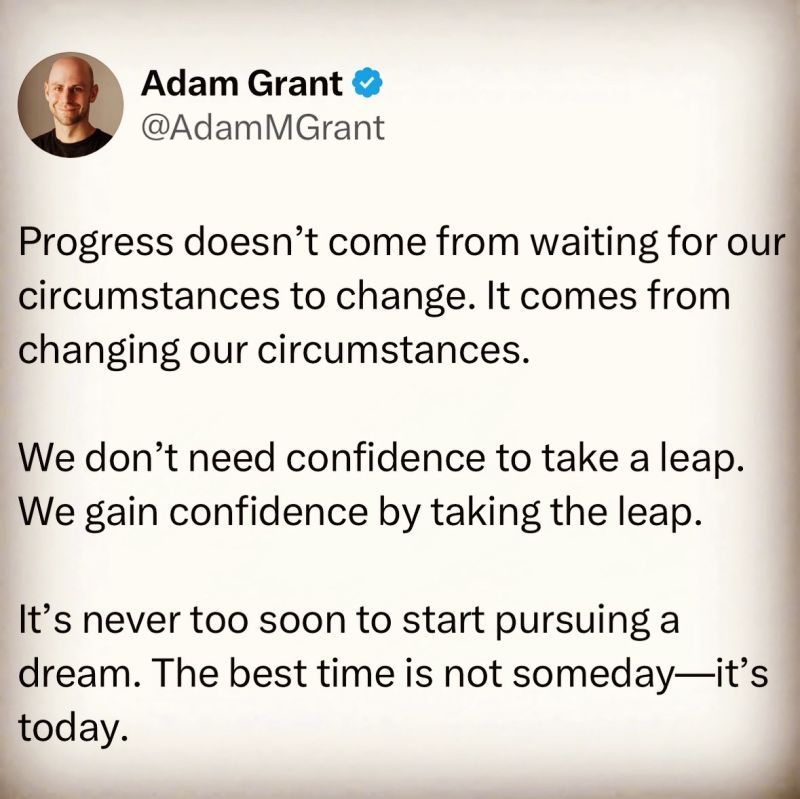

OH YEAH! Let's all quickly change our circumstances and take a big leap—who needs things like strategy, effort, or understanding of deeper societal injustices to move beyond shallow platitudes?! Who cares about critical thinking when we’ve got a stockpile of overused, brainless slogans to pretend we’ve got it all figured out?! ;-) Hallelujah, let confidence magically appear!! It’s never too late for some silly posts!
O tempora! o mores!
OH YEAH! Let's all quickly change our circumstances and take a big leap—who needs things like strategy, effort, or understanding of deeper societal injustices to move beyond shallow platitudes?! Who cares about critical thinking when we’ve got a stockpile of overused, brainless slogans to pretend we’ve got it all figured out?! ;-) Hallelujah, let confidence magically appear!! It’s never too late for some silly posts!
O tempora! o mores!
23-11-2024
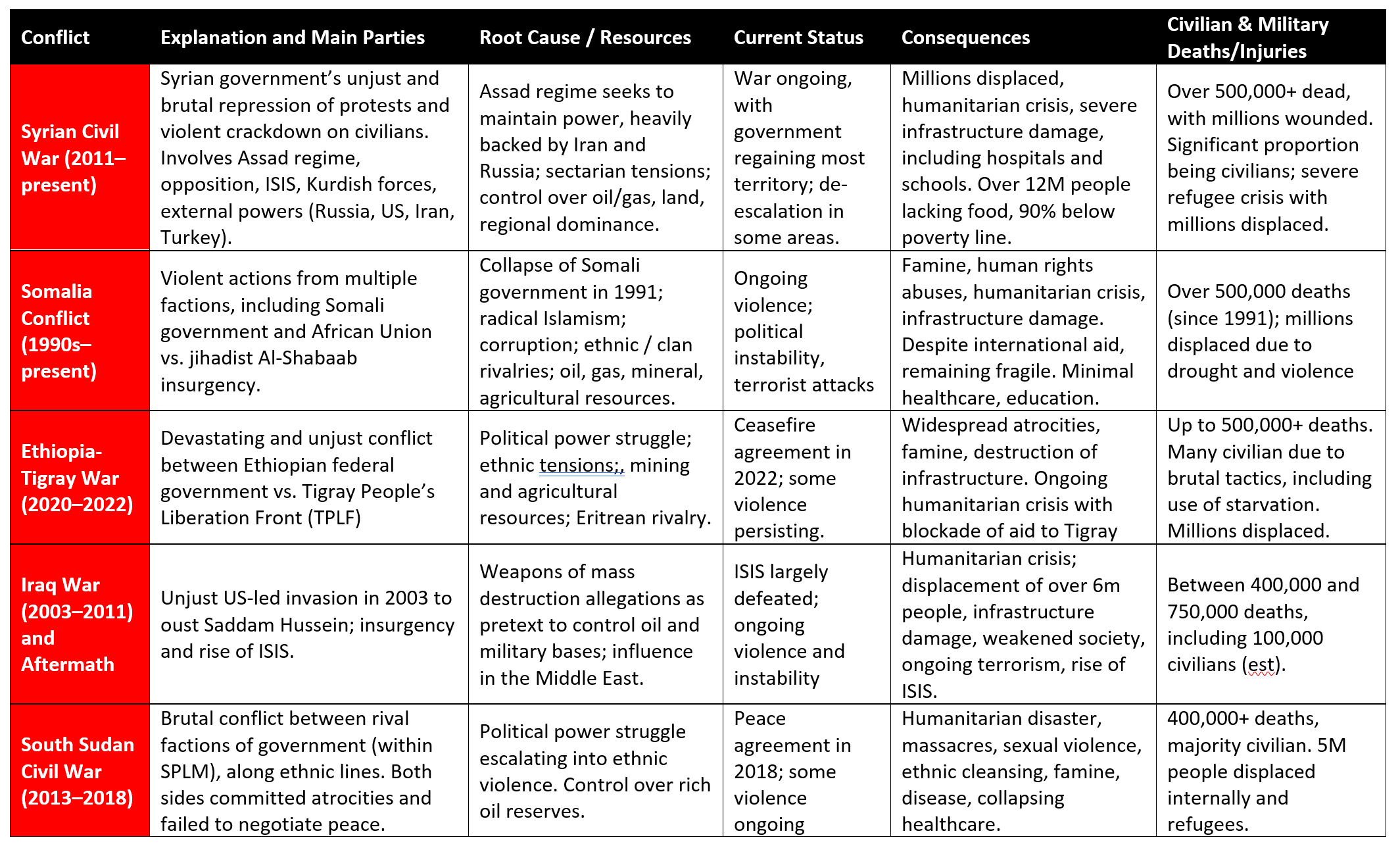
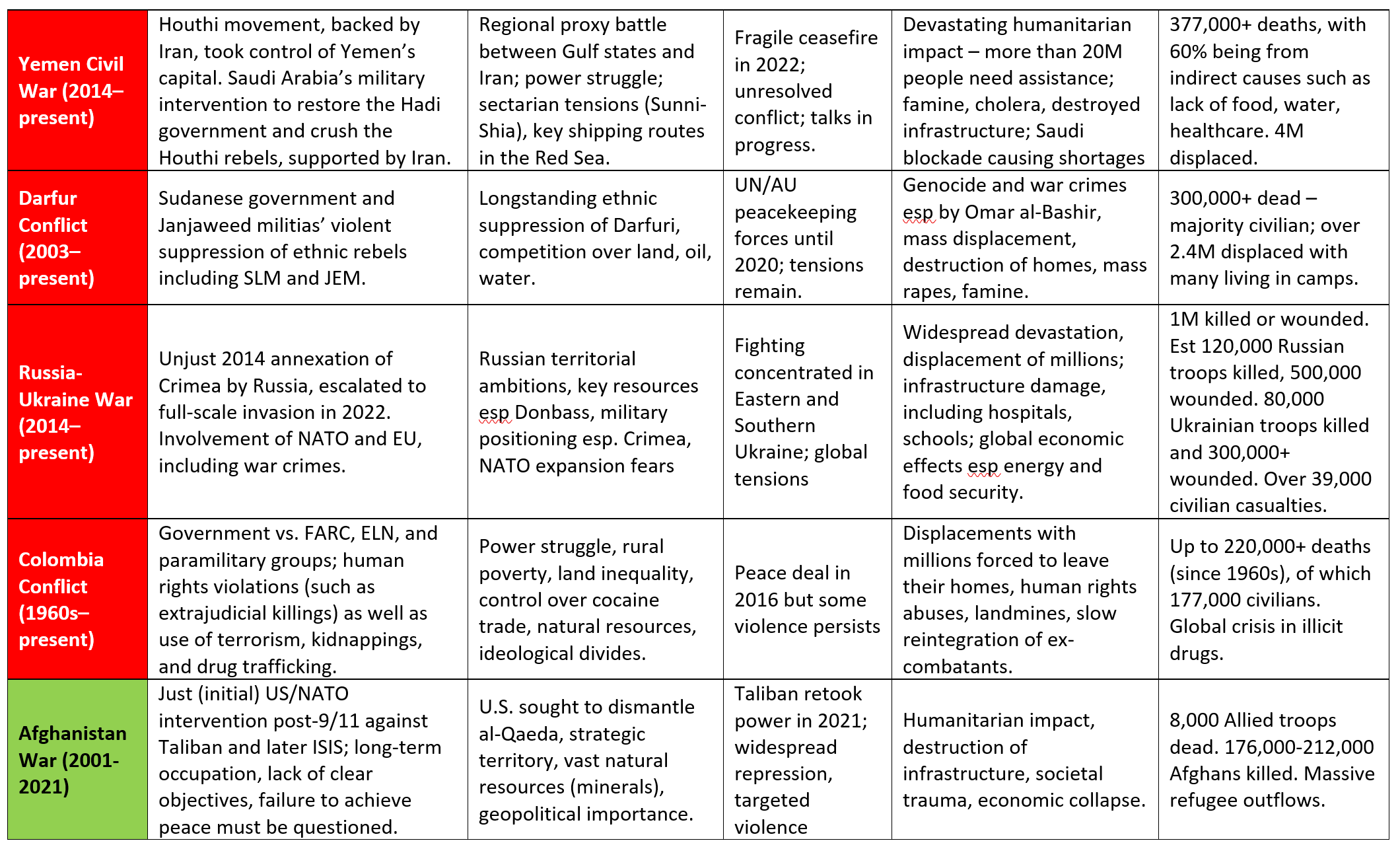
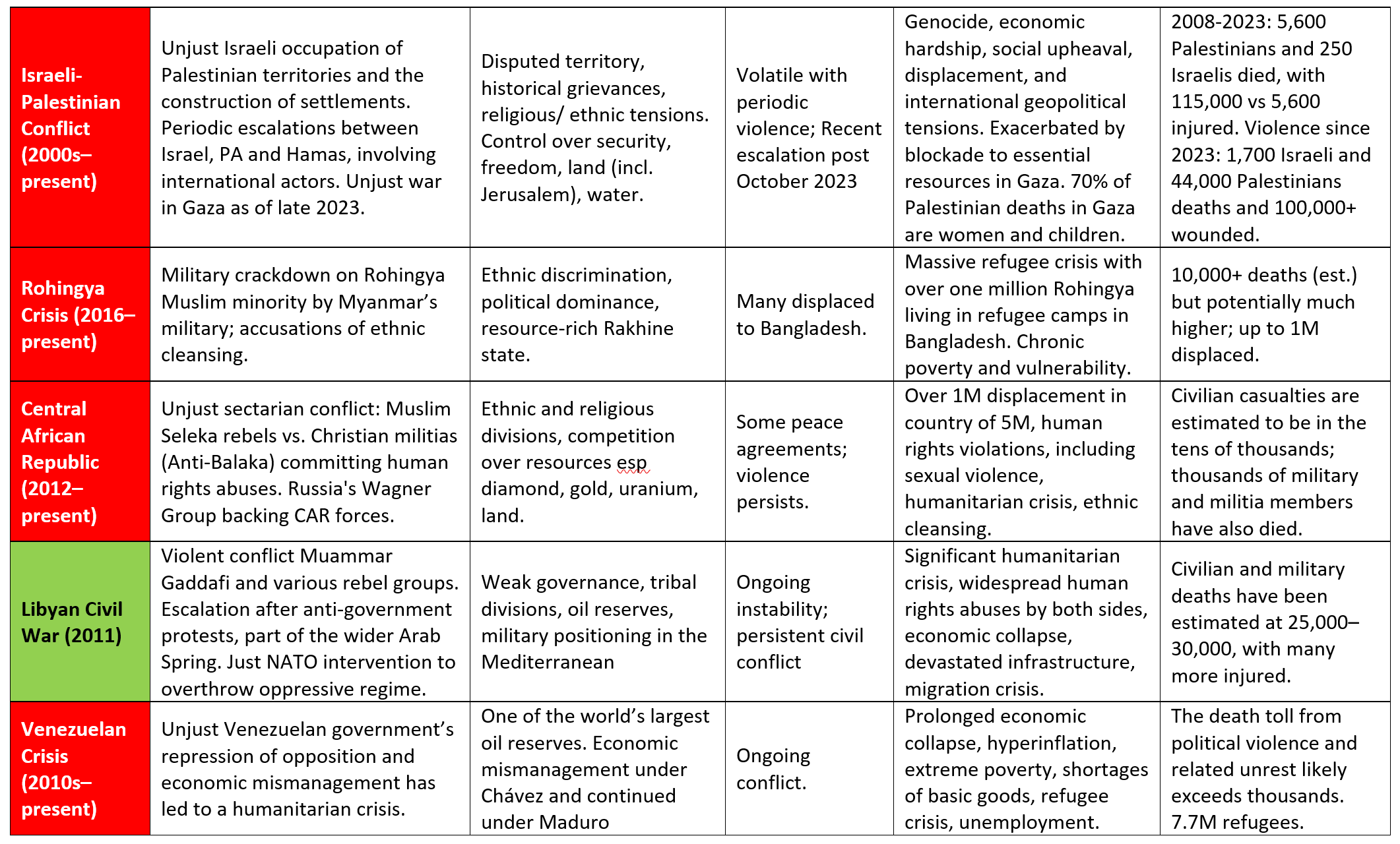
From Local Conflict to Total War: The Peril of Indifference
Since the end of the Cold War, global warfare has undergone a dramatic transformation. While conflicts like those in Ukraine and Gaza capture international attention, many wars in the Global South remain largely overlooked—often referred to as “forgotten wars.” This neglect not only deepens the suffering of millions of civilians but also obscures the subtle dynamics of escalating tensions. The lesser-known conflicts contribute to the intensification of global unrest and reveal the widening gaps in our global governance for maintaining "systemic" peace. If these tensions remain unaddressed, they risk spiralling into larger, more catastrophic global wars.
The Nature of War Since the Cold War
During the last few decades the nature of global conflict has shifted dramatically. The once-dominant rivalry of nuclear superpowers has given way to more fragmented and localized struggles, often characterized by regional conflicts, civil wars, and proxy wars. Unlike the ideological divide that defined the Cold War era, post-Cold War conflicts are increasingly driven by ethnic, political, or religious divisions. These new forms of warfare have evolved alongside technological advancements, which have introduced complexities like cyberattacks, drone warfare, and asymmetrical combat strategies. The ability of non-state actors and smaller states to leverage technology and unconventional tactics has further blurred the lines between traditional warfare and modern, multi-dimensional conflict.
War and Peace
While there was an expectation that the post-Cold War period would see a "peace dividend," the reality has been marked by a paradox. On one hand, the number of interstate wars has decreased, especially as the former superpowers have prioritized diplomatic engagement. However, on the other hand, intrastate conflicts have escalated. Research from the Uppsala Conflict Data Program shows a sharp rise in internal armed conflicts, including civil wars and insurgencies, particularly in regions like Sub-Saharan Africa and the Middle East. In 2023 alone, 59 state-based conflicts were recorded—the highest since 1946. Overall, over 110 armed conflicts are currently ongoing worldwide, according to the Geneva Academy and the Peace Research Institute Oslo (PRIO). Major humanitarian crises in places like Yemen, Syria, Somalia, Ethiopia, and South Sudan have resulted in widespread suffering.
A New Era of Comprehensive Conflict
Yet, the situation could be even more perilous than it appears. Mara Karlin argues in Foreign Affairs that the global security landscape is slowly shifting back toward "total war," echoing the dynamics of the major conflicts of the 20th century. She highlights the convergence of traditional state-centric warfare and non-state actors, suggesting that modern conflicts are increasingly shaped by large-scale alliances and proxy wars. This resurgence could escalate quickly, especially with nuclear capabilities and intensifying geopolitical tensions. Karlin warns that our current frameworks—focused on distinct state-to-state conflicts or asymmetrical engagements—are becoming outdated, emphasizing the urgent need for a rethinking of how nations and global institutions manage conflict in this new era of complexity.
Wilful Blindness
In this context, it is crucial that we actively engage with injustices and human rights violations wherever they arise. As Martin Luther King Jr. famously said, "Injustice anywhere is a threat to justice everywhere." However, despite the increasing scale of human suffering, not all conflicts receive sustained international attention. The wars in Ukraine and Gaza, for instance, are highly visible for several reasons:
- Geopolitical Significance: Ukraine’s conflict with Russia, ignited in 2022, is seen as a direct challenge to Europe’s security and the global balance of power. Russia's actions are framed as a threat to the post-Cold War order, while NATO and U.S. support for Ukraine symbolize a commitment to defending democracy and sovereignty. Similarly, the Gaza conflict taps into deep-seated regional power struggles in the Middle East, with global players like the U.S., Israel, and Iran influencing its dynamics.
- Media Narratives: The Western media plays a significant role in highlighting wars with direct political implications. The Ukraine and Gaza conflicts are heavily covered because they are seen as part of larger ideological struggles—Russia’s invasion of Ukraine is often framed as authoritarianism versus democracy, while Gaza reflects ongoing struggles for human rights, self-determination and statehood. These wars resonate with Western audiences, spurring humanitarian responses. In contrast, wars in less politically sensitive regions, such as the Central African Republic or South Sudan, do not attract sustained media coverage, despite their severity.
- Cultural and Historical Factors: The Israel-Palestine conflict holds significant cultural and historical weight for Western nations, particularly due to religious ties and political alignment with Israel. Similarly, Ukraine’s struggle is framed as a fight for the survival of democratic European values, making it an attractive cause for international support.
In contrast, wars in less geopolitically strategic regions—such as Yemen, the Sahel, or the Democratic Republic of Congo—often receive little attention from Western media and policymakers. This neglect is not solely due to media oversight; it is driven by a complex mix of geopolitical power dynamics, ideological narratives, and historical legacies. Conflicts in these areas are frequently portrayed as "tribal" or the result of "failed states," deflecting from Western complicity in the colonial histories that have shaped regional instability, depersonalizing the suffering and reducing the perceived urgency for international intervention. Moreover, the absence of significant external strategic interests means that global institutions and states are less likely to intervene, leaving these conflicts to persist unaddressed. However, in a world of increasing global tensions, such neglect may have dangerous consequences, as unresolved issues can quickly proliferate, threatening broader regional and even global stability.
Where Injustice is Tolerated...
In addition, there is growing concern that global justice is being crowded out by “might”, with unilateral or economic power increasingly dictating outcomes. According to Just War Theory, only two of the crises mentioned (see table: in green) can be seen as partially and initially justified: NATO's 2011 intervention in Libya, which aimed to topple Muammar Gaddafi’s oppressive regime, and the U.S./NATO intervention in Afghanistan post-9/11 to dismantle the Taliban and combat ISIS. Both were grounded in the principle of protecting civilians from imminent harm and preserving international security. That said, even here the extended conduct raises serious concerns about the legitimacy of intervention beyond the initial objectives. In contrast, all other conflicts lack justification under Just War criteria, often fuelled by internal power struggles, foreign interference, or violent repression. Our collective failure to protect justice, peace, human dignity, and freedom reveals a fundamental flaw in our global governance systems and calls into question whether enough is being done to prevent violent conflict in the first place. With the growing geopolitical tensions and climate-related risks, the erosion of trust in our global systems could have severe consequences.
Caritas in Veritate
So what can we do? Amidst the complexity of our global challenges, perhaps, as Pope Benedict XVI once emphasized, the most crucial action is to cultivate care. The "forgotten wars" stand as a powerful reminder that truly "seeing the world" requires more than passive acknowledgment; it demands an intentional and active commitment to charity. The Christian virtue of love transcends fleeting sentiment—it is rooted in a steadfast dedication to truth, particularly in how and where we choose to focus our attention.
Yet, we cannot rely solely on personal virtue; institutional action is equally essential. No global system can claim to be just while neglecting the poorest and most vulnerable. While crises in the Global South are often overlooked, their devastating consequences cannot be allowed to fade from global consciousness. There is an urgent need for significant investments in global governance and comprehensive strategies to prevent war—this includes addressing the glaring shortcomings of global climate justice efforts, as underscored by the inadequacies of COP29.
Ultimately, justice is about fostering rightful relationships within society for the collective good. As Mara Karlin rightly warns, unchecked injustices are inherently perilous—local and regional disparities can quickly spiral out of control, escalating into global conflicts with catastrophic outcomes for the whole world.
#justice #transformation #leadership #sutainability #cop
From Local Conflict to Total War: The Peril of Indifference
Since the end of the Cold War, global warfare has undergone a dramatic transformation. While conflicts like those in Ukraine and Gaza capture international attention, many wars in the Global South remain largely overlooked—often referred to as “forgotten wars.” This neglect not only deepens the suffering of millions of civilians but also obscures the subtle dynamics of escalating tensions. The lesser-known conflicts contribute to the intensification of global unrest and reveal the widening gaps in our global governance for maintaining "systemic" peace. If these tensions remain unaddressed, they risk spiralling into larger, more catastrophic global wars.
The Nature of War Since the Cold War
During the last few decades the nature of global conflict has shifted dramatically. The once-dominant rivalry of nuclear superpowers has given way to more fragmented and localized struggles, often characterized by regional conflicts, civil wars, and proxy wars. Unlike the ideological divide that defined the Cold War era, post-Cold War conflicts are increasingly driven by ethnic, political, or religious divisions. These new forms of warfare have evolved alongside technological advancements, which have introduced complexities like cyberattacks, drone warfare, and asymmetrical combat strategies. The ability of non-state actors and smaller states to leverage technology and unconventional tactics has further blurred the lines between traditional warfare and modern, multi-dimensional conflict.
War and Peace
While there was an expectation that the post-Cold War period would see a "peace dividend," the reality has been marked by a paradox. On one hand, the number of interstate wars has decreased, especially as the former superpowers have prioritized diplomatic engagement. However, on the other hand, intrastate conflicts have escalated. Research from the Uppsala Conflict Data Program shows a sharp rise in internal armed conflicts, including civil wars and insurgencies, particularly in regions like Sub-Saharan Africa and the Middle East. In 2023 alone, 59 state-based conflicts were recorded—the highest since 1946. Overall, over 110 armed conflicts are currently ongoing worldwide, according to the Geneva Academy and the Peace Research Institute Oslo (PRIO). Major humanitarian crises in places like Yemen, Syria, Somalia, Ethiopia, and South Sudan have resulted in widespread suffering.
A New Era of Comprehensive Conflict
Yet, the situation could be even more perilous than it appears. Mara Karlin argues in Foreign Affairs that the global security landscape is slowly shifting back toward "total war," echoing the dynamics of the major conflicts of the 20th century. She highlights the convergence of traditional state-centric warfare and non-state actors, suggesting that modern conflicts are increasingly shaped by large-scale alliances and proxy wars. This resurgence could escalate quickly, especially with nuclear capabilities and intensifying geopolitical tensions. Karlin warns that our current frameworks—focused on distinct state-to-state conflicts or asymmetrical engagements—are becoming outdated, emphasizing the urgent need for a rethinking of how nations and global institutions manage conflict in this new era of complexity.
Wilful Blindness
In this context, it is crucial that we actively engage with injustices and human rights violations wherever they arise. As Martin Luther King Jr. famously said, "Injustice anywhere is a threat to justice everywhere." However, despite the increasing scale of human suffering, not all conflicts receive sustained international attention. The wars in Ukraine and Gaza, for instance, are highly visible for several reasons:
- Geopolitical Significance: Ukraine’s conflict with Russia, ignited in 2022, is seen as a direct challenge to Europe’s security and the global balance of power. Russia's actions are framed as a threat to the post-Cold War order, while NATO and U.S. support for Ukraine symbolize a commitment to defending democracy and sovereignty. Similarly, the Gaza conflict taps into deep-seated regional power struggles in the Middle East, with global players like the U.S., Israel, and Iran influencing its dynamics.
- Media Narratives: The Western media plays a significant role in highlighting wars with direct political implications. The Ukraine and Gaza conflicts are heavily covered because they are seen as part of larger ideological struggles—Russia’s invasion of Ukraine is often framed as authoritarianism versus democracy, while Gaza reflects ongoing struggles for human rights, self-determination and statehood. These wars resonate with Western audiences, spurring humanitarian responses. In contrast, wars in less politically sensitive regions, such as the Central African Republic or South Sudan, do not attract sustained media coverage, despite their severity.
- Cultural and Historical Factors: The Israel-Palestine conflict holds significant cultural and historical weight for Western nations, particularly due to religious ties and political alignment with Israel. Similarly, Ukraine’s struggle is framed as a fight for the survival of democratic European values, making it an attractive cause for international support.
In contrast, wars in less geopolitically strategic regions—such as Yemen, the Sahel, or the Democratic Republic of Congo—often receive little attention from Western media and policymakers. This neglect is not solely due to media oversight; it is driven by a complex mix of geopolitical power dynamics, ideological narratives, and historical legacies. Conflicts in these areas are frequently portrayed as "tribal" or the result of "failed states," deflecting from Western complicity in the colonial histories that have shaped regional instability, depersonalizing the suffering and reducing the perceived urgency for international intervention. Moreover, the absence of significant external strategic interests means that global institutions and states are less likely to intervene, leaving these conflicts to persist unaddressed. However, in a world of increasing global tensions, such neglect may have dangerous consequences, as unresolved issues can quickly proliferate, threatening broader regional and even global stability.
Where Injustice is Tolerated...
In addition, there is growing concern that global justice is being crowded out by “might”, with unilateral or economic power increasingly dictating outcomes. According to Just War Theory, only two of the crises mentioned (see table: in green) can be seen as partially and initially justified: NATO's 2011 intervention in Libya, which aimed to topple Muammar Gaddafi’s oppressive regime, and the U.S./NATO intervention in Afghanistan post-9/11 to dismantle the Taliban and combat ISIS. Both were grounded in the principle of protecting civilians from imminent harm and preserving international security. That said, even here the extended conduct raises serious concerns about the legitimacy of intervention beyond the initial objectives. In contrast, all other conflicts lack justification under Just War criteria, often fuelled by internal power struggles, foreign interference, or violent repression. Our collective failure to protect justice, peace, human dignity, and freedom reveals a fundamental flaw in our global governance systems and calls into question whether enough is being done to prevent violent conflict in the first place. With the growing geopolitical tensions and climate-related risks, the erosion of trust in our global systems could have severe consequences.
Caritas in Veritate
So what can we do? Amidst the complexity of our global challenges, perhaps, as Pope Benedict XVI once emphasized, the most crucial action is to cultivate care. The "forgotten wars" stand as a powerful reminder that truly "seeing the world" requires more than passive acknowledgment; it demands an intentional and active commitment to charity. The Christian virtue of love transcends fleeting sentiment—it is rooted in a steadfast dedication to truth, particularly in how and where we choose to focus our attention.
Yet, we cannot rely solely on personal virtue; institutional action is equally essential. No global system can claim to be just while neglecting the poorest and most vulnerable. While crises in the Global South are often overlooked, their devastating consequences cannot be allowed to fade from global consciousness. There is an urgent need for significant investments in global governance and comprehensive strategies to prevent war—this includes addressing the glaring shortcomings of global climate justice efforts, as underscored by the inadequacies of COP29.
Ultimately, justice is about fostering rightful relationships within society for the collective good. As Mara Karlin rightly warns, unchecked injustices are inherently perilous—local and regional disparities can quickly spiral out of control, escalating into global conflicts with catastrophic outcomes for the whole world.
#justice #transformation #leadership #sutainability #cop
22-11-2024



TOP TEN TIPS to Get Out of #BlackFriday Alive (& with Your Wallet Intact)
Black Friday isn’t just about great deals—it’s a battlefield full of retail tactics designed to make you spend. Over the past few years, retailers have increasingly employed problematic methods to push customers into making impulsive purchases, relying on psychological tricks that exploit consumer behaviours - leading to overspending and regret.
Here are some recommendations to stay on top of your shopping game:
1. Set a Budget (and Stick to It, Seriously)
Forget “window shopping.” Plan ahead! Determine what you need (not what’s on sale) and stick to your budget like your favourite sweatpants after Thanksgiving dinner.
2. Shop with a List, Not an Open Mind
Like grocery shopping on an empty stomach—if you don't have a list, you’ll end up with things you don't need (looking at you, 30% off that blender). Plus, many retailers hike prices before Black Friday to make discounts look bigger than they actually are. Make sure you're getting a genuine deal, not just a manipulation.
3. Avoid the Flash Sale Frenzy!
“Hurry, offer ends in 15 minutes!” Yeah, it probably does, but that doesn’t mean you need to buy it. If it’s meant to be, it will be.
4. Don’t Fall for the “Last One” Panic
Seeing that “only 1 left in stock” label? Take a deep breath. If you really need it, it’s not going to disappear, and if it does, well, it wasn’t meant to be.
5. Cancel All Store Notifications
Seriously, you don’t need another notification popping up every time your favourite store slashes a price. Turn them off, and reclaim your peace of mind.
6. Limit Your Time in Store
Don’t be lured into a shopping marathon. The more time you spend in-store or online, the higher the chances of you stumbling into the “impulse aisle.”
7. Set a “Cool-Down” Period
See something shiny? Wait 24 hours before pulling the trigger. If it’s still calling to you after a day of reflection, maybe it’s worth it. Otherwise, it’ll probably collect dust.
8. Avoid the “Buy One, Get One” Trap
The key word here is “unnecessary.” Buying one at full price doesn’t mean you need another one at a discount unless it’s genuinely useful. Bundles often appear as great deals, but if you’re buying things you don’t need, it’s just overspending.
9. Don’t Get Sucked into Retail "Social Proof"
If every single person in the store is buying (or reviewing) that one thing, maybe you shouldn't. Plus, only trust verified buyer reviews, and above all your own judgment—not the crowd’s.
10. Give Yourself the Gift of Calm
When in doubt, take a break. Many retailers offer "early bird" deals that create confusion. These deals may not even be as good as the actual Black Friday offers. Walk away from the online shopping cart or put the item back on the shelf. If you’re calm, you’ll make better decisions.
#shopping #consumerism #sustainability
TOP TEN TIPS to Get Out of #BlackFriday Alive (& with Your Wallet Intact)
Black Friday isn’t just about great deals—it’s a battlefield full of retail tactics designed to make you spend. Over the past few years, retailers have increasingly employed problematic methods to push customers into making impulsive purchases, relying on psychological tricks that exploit consumer behaviours - leading to overspending and regret.
Here are some recommendations to stay on top of your shopping game:
1. Set a Budget (and Stick to It, Seriously)
Forget “window shopping.” Plan ahead! Determine what you need (not what’s on sale) and stick to your budget like your favourite sweatpants after Thanksgiving dinner.
2. Shop with a List, Not an Open Mind
Like grocery shopping on an empty stomach—if you don't have a list, you’ll end up with things you don't need (looking at you, 30% off that blender). Plus, many retailers hike prices before Black Friday to make discounts look bigger than they actually are. Make sure you're getting a genuine deal, not just a manipulation.
3. Avoid the Flash Sale Frenzy!
“Hurry, offer ends in 15 minutes!” Yeah, it probably does, but that doesn’t mean you need to buy it. If it’s meant to be, it will be.
4. Don’t Fall for the “Last One” Panic
Seeing that “only 1 left in stock” label? Take a deep breath. If you really need it, it’s not going to disappear, and if it does, well, it wasn’t meant to be.
5. Cancel All Store Notifications
Seriously, you don’t need another notification popping up every time your favourite store slashes a price. Turn them off, and reclaim your peace of mind.
6. Limit Your Time in Store
Don’t be lured into a shopping marathon. The more time you spend in-store or online, the higher the chances of you stumbling into the “impulse aisle.”
7. Set a “Cool-Down” Period
See something shiny? Wait 24 hours before pulling the trigger. If it’s still calling to you after a day of reflection, maybe it’s worth it. Otherwise, it’ll probably collect dust.
8. Avoid the “Buy One, Get One” Trap
The key word here is “unnecessary.” Buying one at full price doesn’t mean you need another one at a discount unless it’s genuinely useful. Bundles often appear as great deals, but if you’re buying things you don’t need, it’s just overspending.
9. Don’t Get Sucked into Retail "Social Proof"
If every single person in the store is buying (or reviewing) that one thing, maybe you shouldn't. Plus, only trust verified buyer reviews, and above all your own judgment—not the crowd’s.
10. Give Yourself the Gift of Calm
When in doubt, take a break. Many retailers offer "early bird" deals that create confusion. These deals may not even be as good as the actual Black Friday offers. Walk away from the online shopping cart or put the item back on the shelf. If you’re calm, you’ll make better decisions.
#shopping #consumerism #sustainability
21-11-2024

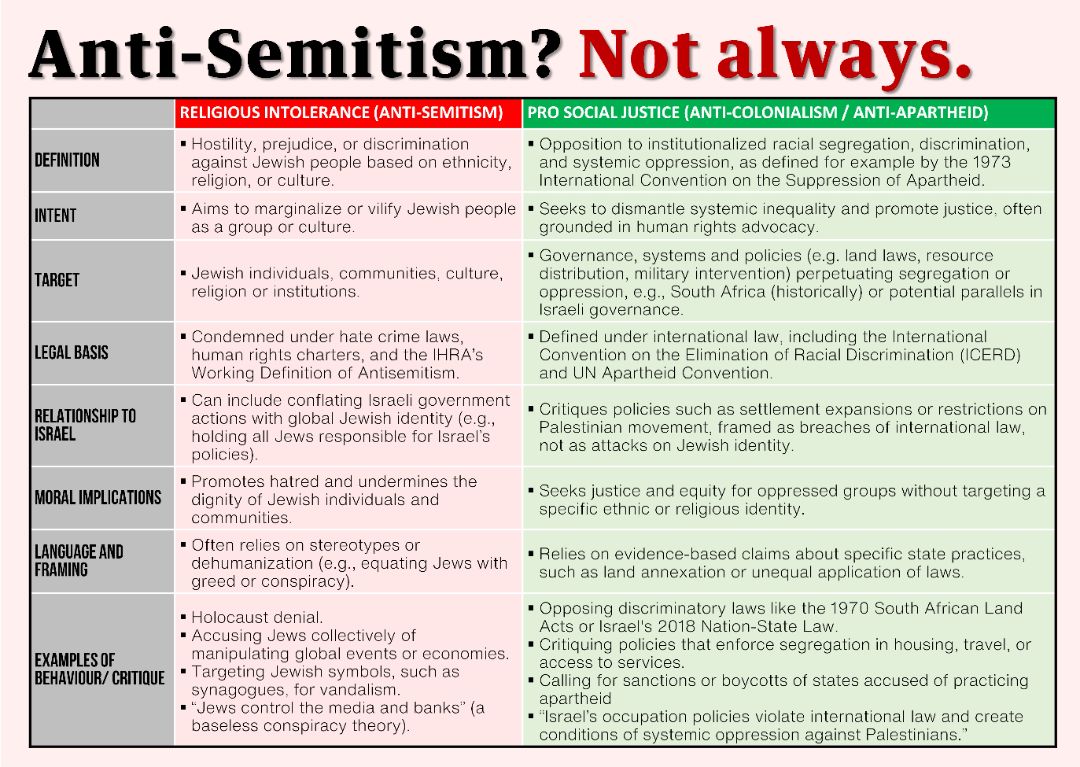

In recent years, we’ve seen an unhealthy proliferation of both antisemitism and anti-antisemitism, where any critique of Israeli policies is often immediately branded as antisemitic. This creates a toxic environment where valid discussions on the actions of a nation are overshadowed by accusations that shut down dialogue. It's crucial that we distinguish between legitimate political critique of Israeli policies and harmful religious intolerance, as the latter is clearly unjustified and should always be condemned, whatever the specific creed or culture
What might be needed is a clearer distinction of these different stances. Criticism of Israel’s treatment of Palestinians can be put forward as a highly legitimate anti-colonial or anti-apartheid position, focusing on social justice, equality, freedom and human rights. It is essential that we give a loud and clear voice to this stance, wherever it applies, advocating for peace and fair treatment without falling into the trap of prejudice against Jewish people, or any other discrimination on the basis of religion, colour, or national origin.
We must stand firmly against antisemitism, but at the same time, we cannot let the fear of being accused of it silence important conversations about colonialism, apartheid, and human rights abuses. Clear distinctions, respectful dialogue, and unwavering commitment to justice for all are crucial in every political debate.
I have no particular stake in this discussion, but I strongly believe in our global responsibility to uphold justice and the common good. In this spirit, I stand firmly with Evelyn Beatrice Hall’s famous summation of Voltaire's credo: “I might disapprove of what you say, but I will defend to the death your right to say it.” Suppressing legitimate critical voices simply because they challenge our views is not a defence of democracy, but simply a convenient manifestation of modern colonialism.
#politics #justice #transformation #peace #freedom
In recent years, we’ve seen an unhealthy proliferation of both antisemitism and anti-antisemitism, where any critique of Israeli policies is often immediately branded as antisemitic. This creates a toxic environment where valid discussions on the actions of a nation are overshadowed by accusations that shut down dialogue. It's crucial that we distinguish between legitimate political critique of Israeli policies and harmful religious intolerance, as the latter is clearly unjustified and should always be condemned, whatever the specific creed or culture
What might be needed is a clearer distinction of these different stances. Criticism of Israel’s treatment of Palestinians can be put forward as a highly legitimate anti-colonial or anti-apartheid position, focusing on social justice, equality, freedom and human rights. It is essential that we give a loud and clear voice to this stance, wherever it applies, advocating for peace and fair treatment without falling into the trap of prejudice against Jewish people, or any other discrimination on the basis of religion, colour, or national origin.
We must stand firmly against antisemitism, but at the same time, we cannot let the fear of being accused of it silence important conversations about colonialism, apartheid, and human rights abuses. Clear distinctions, respectful dialogue, and unwavering commitment to justice for all are crucial in every political debate.
I have no particular stake in this discussion, but I strongly believe in our global responsibility to uphold justice and the common good. In this spirit, I stand firmly with Evelyn Beatrice Hall’s famous summation of Voltaire's credo: “I might disapprove of what you say, but I will defend to the death your right to say it.”
#politics #justice #transformation #peace #freedom
20-11-2024
WHY THE INTERNATIONAL CRIMINAL COURT HAS NOT DESTROYED ITS OWN CREDIBILITY
Writing in The Spectator, Policy Exchange Senior Fellow Yuan Yi Zhu argues that the #ICC’s arrest warrants against Netanyahu and others are flawed due to alleged procedural bias, lack of jurisdiction since Israel is not an ICC member, and the questionable legal basis of the charges, such as using starvation as warfare. He also claims the ICC breached its complementarity principle by not allowing Israel’s judiciary to act first, jeopardized peace prospects by polarizing public opinion, and risked damaging its credibility through potential international backlash and perceived ineffectiveness.
As far as I'm concerned, the arguments completely miss the point: the pursuit of #justice. Justice requires holding perpetrators accountable for atrocities like the disproportionate and foreseeable killing of innocent civilians. Far from hindering peace, the ICC addresses systemic injustices where power perpetuates suffering and seeks accountability for egregious violations of human dignity.
1. Compromised Process
Alleging flaws in the ICC’s process due to panel biases distracts from the central issue: the mass killing of civilians, a clear violation of international law (cf. Just War Theory and Doctrine of Double Effect).
2. Jurisdictional Overreach
Claims that the ICC lacks jurisdiction overlook that Palestine’s accession grants the Court authority over crimes on its territory. Debates on Palestinian statehood are irrelevant, as the ICC’s mandate is to protect victims where justice is otherwise inaccessible.
3. Legally Problematic Charges
Calling starvation as a method of warfare "unprecedented" misses the point. Systematic denial of food, water, and medical aid to civilians meets international definitions of war crimes and crimes against humanity, warranting ICC action.
4. Breach of Complementarity Principle
Suggesting Israel’s judiciary should handle the allegations ignores Israel's long-standing resistance to a political peace process. The ICC intervenes only when national systems fail to act, which is clearly the case here.
5. Harm to Peace Prospects
The idea that ICC warrants harm peace prospects is misplaced. Israel’s blockade of peace negotiations and its decade-long rejection of a two-state solution—not the ICC—are the real barriers to peace. Accountability is essential for any genuine resolution.
6. Damage to ICC Credibility
The ICC’s credibility lies in upholding substantive justice, not appeasing political interests. Predictable backlash from powerful states, like potential U.S. sanctions, is irrelevant to its mission of addressing impunity.
Procedural and superficial criticism of the ICC or the UN shields powerful perpetrators rather than seeking justice. If credibility is damaged, it is to those defending the indefensible, not to the ICC, which must remain focused on its vital role. 'Might is right' is no acceptable doctrine for international relations.
Original article: https://www.spectator.co.uk/article/the-icc-has-destroyed-its-own-credibility/
WHY THE INTERNATIONAL CRIMINAL COURT HAS NOT DESTROYED ITS OWN CREDIBILITY
Writing in The Spectator, Policy Exchange Senior Fellow Yuan Yi Zhu argues that the #ICC’s arrest warrants against Netanyahu and others are flawed due to alleged procedural bias, lack of jurisdiction since Israel is not an ICC member, and the questionable legal basis of the charges, such as using starvation as warfare. He also claims the ICC breached its complementarity principle by not allowing Israel’s judiciary to act first, jeopardized peace prospects by polarizing public opinion, and risked damaging its credibility through potential international backlash and perceived ineffectiveness.
As far as I'm concerned, the arguments completely miss the point: the pursuit of #justice. Justice requires holding perpetrators accountable for atrocities like the disproportionate and foreseeable killing of innocent civilians. Far from hindering peace, the ICC addresses systemic injustices where power perpetuates suffering and seeks accountability for egregious violations of human dignity.
1. Compromised Process
Alleging flaws in the ICC’s process due to panel biases distracts from the central issue: the mass killing of civilians, a clear violation of international law (cf. Just War Theory and Doctrine of Double Effect).
2. Jurisdictional Overreach
Claims that the ICC lacks jurisdiction overlook that Palestine’s accession grants the Court authority over crimes on its territory. Debates on Palestinian statehood are irrelevant, as the ICC’s mandate is to protect victims where justice is otherwise inaccessible.
3. Legally Problematic Charges
Calling starvation as a method of warfare "unprecedented" misses the point. Systematic denial of food, water, and medical aid to civilians meets international definitions of war crimes and crimes against humanity, warranting ICC action.
4. Breach of Complementarity Principle
Suggesting Israel’s judiciary should handle the allegations ignores Israel's long-standing resistance to a political peace process. The ICC intervenes only when national systems fail to act, which is clearly the case here.
5. Harm to Peace Prospects
The idea that ICC warrants harm peace prospects is misplaced. Israel’s blockade of peace negotiations and its decade-long rejection of a two-state solution—not the ICC—are the real barriers to peace. Accountability is essential for any genuine resolution.
6. Damage to ICC Credibility
The ICC’s credibility lies in upholding substantive justice, not appeasing political interests. Predictable backlash from powerful states, like potential U.S. sanctions, is irrelevant to its mission of addressing impunity.
Procedural and superficial criticism of the ICC or the UN shields powerful perpetrators rather than seeking justice. If credibility is damaged, it is to those defending the indefensible, not to the ICC, which must remain focused on its vital role. 'Might is right' is no acceptable doctrine for international relations.
Original article: https://www.spectator.co.uk/article/the-icc-has-destroyed-its-own-credibility/
19-11-2024
Listening might well be one of the most undervalued Leadership capacities of all times. But it isn't simply listening to the other. It is also listening "to the whole".
Listening to the other exposes us to the radical claim of every other human being, as Levinas suggests, when arguing for ethics as the "first philosophy". And as in the virtue of charity that claim might sometimes permit no delay. If others are in desperate need or suffering, no pointing to legal systems and social structures can relieve us from the responsibility to help, here and now.
But otherwise such claims cannot go unqualified. Our responsibility towards each other come mitigated by our collective responsibility for the common good, and our role within an institutional setup that demands both rights and obligations.
Yet, true virtue transcends institutional ethics. Our duty is not simply towards a social contract - as both subjects and sovereign - but as a covenant that aims for social flourishing. Here, the claim upon our freedom isn't meant to be one of necessary limitation and boundary, but one of joyous co-imagination within liberating structures.
By seeing in each other the great potential of human potential we can both stimulate and emulate mutual becoming. In this sense the Aristotelian "political friendship" and the papal "social friendship" are superior to justice. They entail commitment to a mutual thriving for transcendence within a political and social community, by bringing to live the constellational unity of each individual person as the highest expression of a good social order.
Leaders must listen to the goodness in each other and learn how to bring it to life for the goodness of all.
#leadership #transformation
Listening might well be one of the most undervalued Leadership capacities of all times. But it isn't simply listening to the other. It is also listening "to the whole".
Listening to the other exposes us to the radical claim of every other human being, as Levinas suggests, when arguing for ethics as the "first philosophy". And as in the virtue of charity that claim might sometimes permit no delay. If others are in desperate need or suffering, no pointing to legal systems and social structures can relieve us from the responsibility to help, here and now.
But otherwise such claims cannot go unqualified. Our responsibility towards each other come mitigated by our collective responsibility for the common good, and our role within an institutional setup that demands both rights and obligations.
Yet, true virtue transcends institutional ethics. Our duty is not simply towards a social contract - as both subjects and sovereign - but as a covenant that aims for social flourishing. Here, the claim upon our freedom isn't meant to be one of necessary limitation and boundary, but one of joyous co-imagination within liberating structures.
By seeing in each other the great potential of human potential we can both stimulate and emulate mutual becoming. In this sense the Aristotelian "political friendship" and the papal "social friendship" are superior to justice. They entail commitment to a mutual thriving for transcendence within a political and social community, by bringing to live the constellational unity of each individual person as the highest expression of a good social order.
Leaders must listen to the goodness in each other and learn how to bring it to life for the goodness of all.
#leadership #transformation
14-11-2024



JUSTICE AND CARE ARE THE SCAFFOLDS OF HOPE
Perhaps a very simple truth is that a just society can never emerge if we continue to teach individuals to prioritize their self-interest above all else. In a system that encourages personal gain at the expense of others, negative freedoms must cause negative externalities. Add technology, and we quickly find ourselves heading down the path of "degrowth by disaster".
No, this is not a pathetic call for "win-win" scenarios or an appeal to ultimatum games, nor is it a request for more or better regulation. It’s about taking genuine responsibility for our common home and commitment to the common good. True social justice requires recognizing that our well-being is intertwined with the well-being of others, and crowned by the shared prosperity of all.
When Glaucon famously challenges Plato in The Republic by arguing that justice cannot be an end in itself, because too often it does not pay off, Plato counters that justice is the only way to cultivate a life of true significance. For Plato, a meaningful life is one that acquires constellational beauty within a well-ordered society, reflecting a well-ordered “just” soul. Simply put, we gain true significance and purpose only through our active role in a social system that is in itself good.
But justice cannot come to life without care— the image of a stern, blindfolded justice with a mighty sword and an "objective" balance only tells part of the story. While we pursue justice through universal laws and institutions, we must also respond to the particular suffering of the marginalized and nourish the most vulnerable. Justice and care are reinforcing each other in a collective journey toward the common good.
Hence, as Tommaso Greco points out, any responsible society—or business—requires a form of justice that both sees and cares, here and now. It’s not enough to remain impartial; justice demands active engagement— and love, as Martha Nussbaum describes, is a "political emotion" that motivates us to act. Our love for the individual-within-the-whole gives rise to justice, justice fosters hope, and hope nurtures faith.
As citizens, we cannot shut our eyes or hearts to the needs of others; and as leaders we must go beyond living wages and procedural fairness—we must actively care for our shared home. Otherwise no number of COP conferences will be enough to safe the planet.
#leadership #transformation #sustainability
JUSTICE AND CARE ARE THE SCAFFOLDS OF HOPE
Perhaps a very simple truth is that a just society can never emerge if we continue to teach individuals to prioritize their self-interest above all else. In a system that encourages personal gain at the expense of others, negative freedoms must cause negative externalities. Add technology, and we quickly find ourselves heading down the path of "degrowth by disaster".
No, this is not a pathetic call for "win-win" scenarios or an appeal to ultimatum games, nor is it a request for more or better regulation. It’s about taking genuine responsibility for our common home and commitment to the common good. True social justice requires recognizing that our well-being is intertwined with the well-being of others, and crowned by the shared prosperity of all.
When Glaucon famously challenges Plato in The Republic by arguing that justice cannot be an end in itself, because too often it does not pay off, Plato counters that justice is the only way to cultivate a life of true significance. For Plato, a meaningful life is one that acquires constellational beauty within a well-ordered society, reflecting a well-ordered “just” soul. Simply put, we gain true significance and purpose only through our active role in a social system that is in itself good.
But justice cannot come to life without care— the image of a stern, blindfolded justice with a mighty sword and an "objective" balance only tells part of the story. While we pursue justice through universal laws and institutions, we must also respond to the particular suffering of the marginalized and nourish the most vulnerable. Justice and care are reinforcing each other in a collective journey toward the common good.
Hence, as Tommaso Greco points out, any responsible society—or business—requires a form of justice that both sees and cares, here and now. It’s not enough to remain impartial; justice demands active engagement— and love, as Martha Nussbaum describes, is a "political emotion" that motivates us to act. Our love for the individual-within-the-whole gives rise to justice, justice fosters hope, and hope nurtures faith.
As citizens, we cannot shut our eyes or hearts to the needs of others; and as leaders we must go beyond living wages and procedural fairness—we must actively care for our shared home. Otherwise no number of COP conferences will be enough to safe the planet.
#leadership #transformation #sustainability
13-11-2024

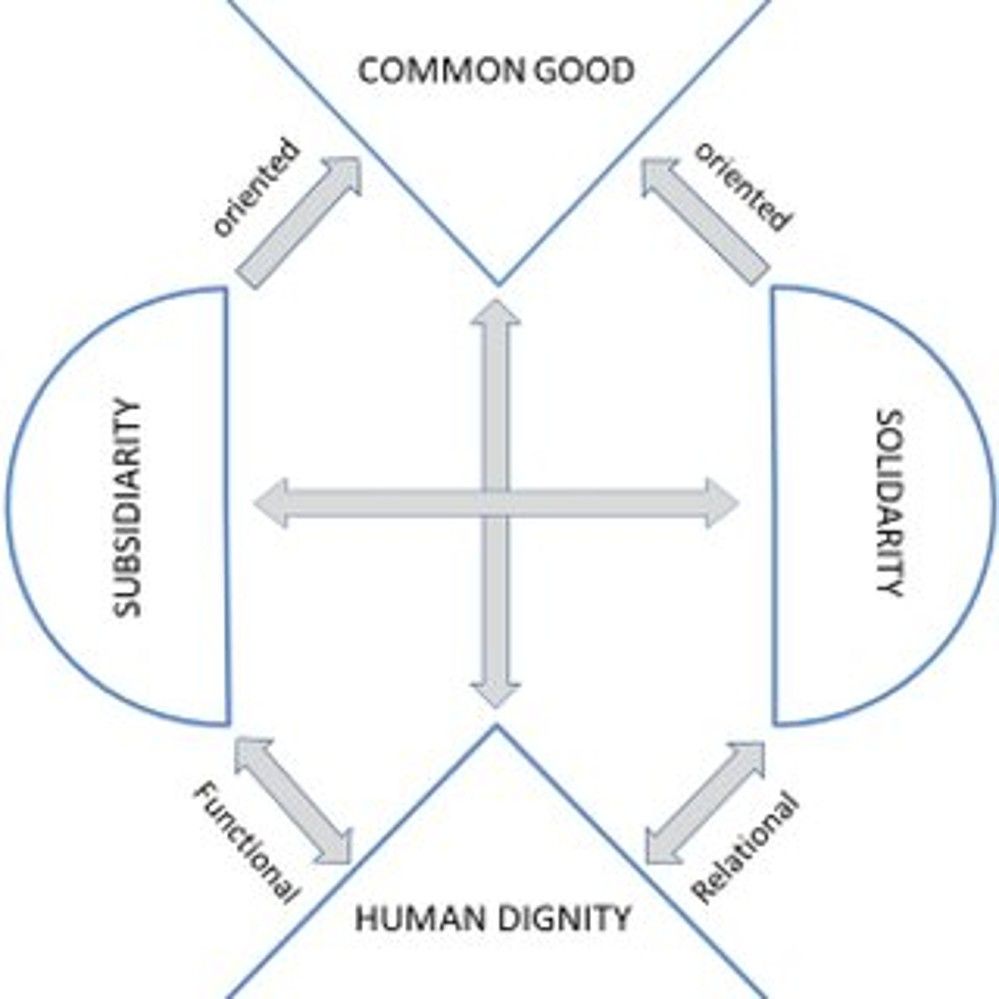

Diversity & Inclusion vs. Subsidiarity & Solidarity: An Important Difference
Popular DEI programmes often focus on individuals, emphasizing representation, equal access to opportunities and personal empowerment within organizations or communities. While this can help to create workplaces where people from diverse backgrounds feel valued, respected, and empowered to contribute fully, it often risks becoming individualistic and relativistic, centering solely on subjective preferences, or instrumentalized by businesses simply to drive profits, rather than addressing systemic injustices.
In contrast, subsidiarity and solidarity, rooted in Catholic Social Teaching (CST), provide a normative framework to promote justice and human flourishing. Subsidiarity, far from being merely a question of decentralisation or delegation, protects the substantive freedom of individuals and communities to act at the most local and appropriate level, supported by the broader organisation. Solidarity, which is often wrongly reduced to charity or feelings of empathy, fosters mutual responsibility and care for the shared whole. Together, they guide an organisation toward the common good, ensuring that individual contributions serve and increment a shared well-being.
Hence, where diversity and inclusion often seek to protect individual interests and preferences, subsidiarity and solidarity prioritize integral human development—a vision where freedom and responsibility are united in service of justice and human flourishing.
#Transformation #Leadeship #CST #sustainability
Diversity & Inclusion vs. Subsidiarity & Solidarity: An Important Difference
Popular DEI programmes often focus on individuals, emphasizing representation, equal access to opportunities and personal empowerment within organizations or communities. While this can help to create workplaces where people from diverse backgrounds feel valued, respected, and empowered to contribute fully, it often risks becoming individualistic and relativistic, centering solely on subjective preferences, or instrumentalized by businesses simply to drive profits, rather than addressing systemic injustices.
In contrast, subsidiarity and solidarity, rooted in Catholic Social Teaching (CST), provide a normative framework to promote justice and human flourishing. Subsidiarity, far from being merely a question of decentralisation or delegation, protects the substantive freedom of individuals and communities to act at the most local and appropriate level, supported by the broader organisation. Solidarity, which is often wrongly reduced to charity or feelings of empathy, fosters mutual responsibility and care for the shared whole. Together, they guide an organisation toward the common good, ensuring that individual contributions serve and increment a shared well-being.
Hence, where diversity and inclusion often seek to protect individual interests and preferences, subsidiarity and solidarity prioritize integral human development—a vision where freedom and responsibility are united in service of justice and human flourishing.
#Transformation #Leadeship #CST #sustainability
14-11-2024

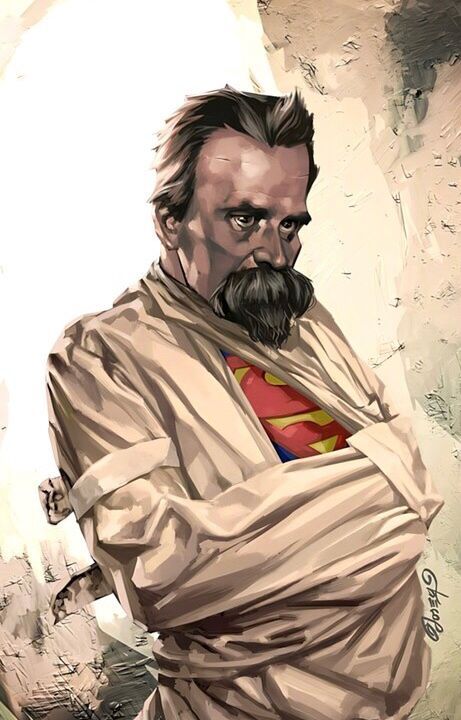

The Existential Crisis of Management: CREATIVITY WITHOUT PURPOSE
In many ways, leadership today seems trapped in the ethos of Nietzsche’s Übermensch—self-creating individuals who shape their own values in a world stripped of indisputable truths. With freedom seemingly limitless, modern management no longer asks "Why?" but "How?"—fixating obsessively on the mechanics of creation while neglecting deeper questions of meaning or purpose.
This shift is evident in the glorification of agility, individualism and self-determination. We celebrate the "entrepreneurial spirit" and "leadership potential," while championing self-empowerment, "humanocratic" bureaucracy busting and innovation. Yet, this pursuit begs the question: innovation for whom, and for what end? What is the genuine purpose of our work?
Nietzsche’s declaration of the “death of God” left humanity tasked with forging its own meaning, and in management, this has led to the glorification of a "god-like" autonomy for "micro enterprises". Everything is permitted as long as the customer is happy; and success has become an individual triumph of will over the world. But leadership, like ethics, cannot rest solely on the act of instrumental creation. Good leadership involves interdependence—a recognition that every decision operates within a web of interconnected social, political, and ecological claims.
In its fixation on the unencumbered self, leadership risks embodying Carl Jung’s archetype of the puer aeternus (eternal child): refusing to mature, shirking responsibilities beyond the self, and neglecting a larger purpose. Leadership then becomes a hubristic quest for self-assertion, at the expense of mutual responsibility- fostering exploitation, systemic inequality, and even existential emptiness, as endless self-affirmation spirals into burnout. Yet, individuation, as Jung points out, requires transcending the ego's limits to embrace a broader, unified sense of self. It is less about discovering ourselves and more about encountering the other.
Similarly, creativity in professional activity cannot exist for its own sake. True professionalism demands creativity that upholds integrity and aligns individual actions with a broader purpose. It bridges identity, competence, and wisdom, integrating the particular with the universal, and situating human activity within the greater whole. Effective management must be constellational—emphasizing purposeful connections between business activities and their broader societal contributions.
This is not about crafting new vision or mission statements; to move forward, leaders must become open to "receive" a sense of wholeness—an understanding of existential interdependence and intuitive connection to a greater purpose. Without this deeper vulnerability, management risks sustaining a cycle of hollow "value creation," where the future of work ultimately undermines the future of the planet.
#transformation #leadership #sustainability #management #purpose
The Existential Crisis of Management: CREATIVITY WITHOUT PURPOSE
In many ways, leadership today seems trapped in the ethos of Nietzsche’s Übermensch—self-creating individuals who shape their own values in a world stripped of indisputable truths. With freedom seemingly limitless, modern management no longer asks "Why?" but "How?"—fixating obsessively on the mechanics of creation while neglecting deeper questions of meaning or purpose.
This shift is evident in the glorification of agility, individualism and self-determination. We celebrate the "entrepreneurial spirit" and "leadership potential," while championing self-empowerment, "humanocratic" bureaucracy busting and innovation. Yet, this pursuit begs the question: innovation for whom, and for what end? What is the genuine purpose of our work?
Nietzsche’s declaration of the “death of God” left humanity tasked with forging its own meaning, and in management, this has led to the glorification of a "god-like" autonomy for "micro enterprises". Everything is permitted as long as the customer is happy; and success has become an individual triumph of will over the world. But leadership, like ethics, cannot rest solely on the act of instrumental creation. Good leadership involves interdependence—a recognition that every decision operates within a web of interconnected social, political, and ecological claims.
In its fixation on the unencumbered self, leadership risks embodying Carl Jung’s archetype of the puer aeternus (eternal child): refusing to mature, shirking responsibilities beyond the self, and neglecting a larger purpose. Leadership then becomes a hubristic quest for self-assertion, at the expense of mutual responsibility- fostering exploitation, systemic inequality, and even existential emptiness, as endless self-affirmation spirals into burnout. Yet, individuation, as Jung points out, requires transcending the ego's limits to embrace a broader, unified sense of self. It is less about discovering ourselves and more about encountering the other.
Similarly, creativity in professional activity cannot exist for its own sake. True professionalism demands creativity that upholds integrity and aligns individual actions with a broader purpose. It bridges identity, competence, and wisdom, integrating the particular with the universal, and situating human activity within the greater whole. Effective management must be constellational—emphasizing purposeful connections between business activities and their broader societal contributions.
This is not about crafting new vision or mission statements; to move forward, leaders must become open to "receive" a sense of wholeness—an understanding of existential interdependence and intuitive connection to a greater purpose. Without this deeper vulnerability, management risks sustaining a cycle of hollow "value creation," where the future of work ultimately undermines the future of the planet.
#transformation #leadership #sustainability #management #purpose
10-11-2024

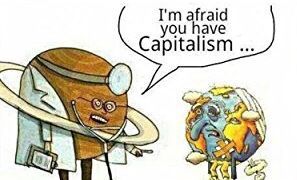

HUMANOCRACY: FIXING CAPITALISM WITH... MORE CAPITALISM?
This afternoon, the Global Peter Drucker Forum #GPDF2024 wrapped up with a session on the broader responsibility of management within society. The session began with a prerecorded message from Gary Hamel of #LBS. While I’ve long been a fan of Gary’s progressive management ideas, it quickly became apparent today that his focus was not on corporate social responsibility. Instead, his intervention presented a troubling example of American neoliberal thinking. While Gary framed his ideas with humanistic overtones, his approach leans heavily on a libertarian ideology that risks oversimplifying the complex issue of organizational responsibility into little more than a cost-cutting exercise.
While Gary certainly acknowledges a range of people-centric interventions in his book and presents interesting case studies, his aggressive core message often centers on slashing middle management to reduce the so-called "bureaucracy mass index," equating human employees with excess fat. This reductionist approach mirrors the libertarian mantra that central government and bureaucracy are inherently bad—believing that less bureaucracy always equals greater efficiency, and that the final goal is maximizing share price.
In contrast, Peter Drucker’s philosophy was holistic, recognizing that businesses exist within broader societal contexts and have responsibilities to all stakeholders, not just shareholders. He would certainly have also understood that not all bureaucracy is stifling; some structures are essential for ensuring organizational coherence, fairness, and long-term stability.
Gary's populist message misses this crucial nuance. His call for "more capitalism to fix capitalism" mirrors the arms lobby’s demand for more weapons to prevent gun violence—a dangerously anachronistic approach. It assumes that reducing bureaucracy will automatically lead to better outcomes, ignoring the ethical responsibility businesses have beyond their immediate profit margins.
Thankfully, #Bosch’s Katja von Raven and #Tata’s Ramabadran Gopal steered the discussion back to where it belongs: a fundamental rethinking of what businesses are meant to serve—not just shareholders, but all stakeholders.
Good management isn’t just about cutting (over)heads to—allegedly—liberate workers into mini-capitalists. It’s about integrating efficiency with human dignity, fostering personal and organizational development, and ensuring long-term societal responsibility. The gap between neoliberal capitalism and humanism cannot be bridged by mere efficiency measures or superficial cuts to management layers.
As Gopal pointed out, efficiency is not the same as effectiveness. Efficiency only becomes a positive amplifier when an organization operates with the understanding that true corporate responsibility involves not just market leadership, but also social and environmental stewardship.
#Transformation #Leadership #CSR #Sustainability #purpose
HUMANOCRACY: FIXING CAPITALISM WITH... MORE CAPITALISM?
This afternoon, the Global Peter Drucker Forum #GPDF2024 wrapped up with a session on the broader responsibility of management within society. The session began with a prerecorded message from Gary Hamel of #LBS. While I’ve long been a fan of Gary’s progressive management ideas, it quickly became apparent today that his focus was not on corporate social responsibility. Instead, his intervention presented a troubling example of American neoliberal thinking. While Gary framed his ideas with humanistic overtones, his approach leans heavily on a libertarian ideology that risks oversimplifying the complex issue of organizational responsibility into little more than a cost-cutting exercise.
While Gary certainly acknowledges a range of people-centric interventions in his book and presents interesting case studies, his aggressive core message often centers on slashing middle management to reduce the so-called "bureaucracy mass index," equating human employees with excess fat. This reductionist approach mirrors the libertarian mantra that central government and bureaucracy are inherently bad—believing that less bureaucracy always equals greater efficiency, and that the final goal is maximizing share price.
In contrast, Peter Drucker’s philosophy was holistic, recognizing that businesses exist within broader societal contexts and have responsibilities to all stakeholders, not just shareholders. He would certainly have also understood that not all bureaucracy is stifling; some structures are essential for ensuring organizational coherence, fairness, and long-term stability.
Gary's populist message misses this crucial nuance. His call for "more capitalism to fix capitalism" mirrors the arms lobby’s demand for more weapons to prevent gun violence—a dangerously anachronistic approach. It assumes that reducing bureaucracy will automatically lead to better outcomes, ignoring the ethical responsibility businesses have beyond their immediate profit margins.
Thankfully, #Bosch’s Katja von Raven and #Tata’s Ramabadran Gopal steered the discussion back to where it belongs: a fundamental rethinking of what businesses are meant to serve—not just shareholders, but all stakeholders.
Good management isn’t just about cutting (over)heads to—allegedly—liberate workers into mini-capitalists. It’s about integrating efficiency with human dignity, fostering personal and organizational development, and ensuring long-term societal responsibility. The gap between neoliberal capitalism and humanism cannot be bridged by mere efficiency measures or superficial cuts to management layers.
As Gopal pointed out, efficiency is not the same as effectiveness. Efficiency only becomes a positive amplifier when an organization operates with the understanding that true corporate responsibility involves not just market leadership, but also social and environmental stewardship.
#Transformation #Leadership #CSR #Sustainability #purpose
12-11-2024



#JUSTICE IN THE WORKPLACE?
Today, I attended a session on workplace justice that, while intriguing, quickly became chaotic. Participants shifted between conflicting perspectives—viewing justice variously as meritocracy, fulfillment of basic needs (referencing Maslow’s hierarchy), indigenous community values, diversity, transactional fairness, living wages, or layoff prevention.
This confusion isn’t surprising; for decades, leadership programs and business schools have sidelined ethics and politics, despite the inherently political nature of organizations. As a result, leaders often gravitate towards the latest hype that comes to mind.
So, what is justice in the workplace? It greatly depends on the ethical or political framework applied. Utilitarianism focuses on maximizing overall happiness, often resulting in policies that favor majority benefits or maximise financial outcomes, compromising individual welfare to boost productivity. Social Contract Theory emphasizes procedural fairness and equal opportunity, accepting inequalities only if they benefit the least advantaged. Deontology is rooted in universal moral duties, prioritizing fairness and rights-based policies. Equity Theory and meritocracy define justice as perceived fairness in rewards, relative to each person’s contributions. Communitarianism views justice through shared values and mutual responsibility, putting the collective good above individual gains. Ethics of Care centers on relational responsibility, promoting empathy and support rather than strict impartiality. Each theory has pros and cons, shaping unique expectations for freedom, responsibility, and what it means to be treated justly in the workplace.
While Rawls' "counterfactual" theory of justice as fairness is certainly the most prevalent, it is rooted in a number of simplistic and mechanistic assumptions, with justice framed primarily as a distributional question between "unencumbered individuals" behind a veil of ignorance in the original position. This paradigm overlooks the complexities of social systems and structural injustice, and, as Rawls himself acknowledges, falls short of fostering true moral goodness.
Therefore, I argue that virtue ethics can often offer a more holistic and practical approach. In workplaces grounded in virtue ethics, leaders nurture individual virtues such as courage, honesty, and temperance, while fostering communities that support mutual development. They also design structures and routines that promote the common good. Justice becomes a shared journey, not just a set of rules, where just organizations actively "shape" good people.
While implementing virtue ethics is certainly challenging, a simpler first step might be to stop workplace #INJUSTICE. In virtue ethics, the opposite of justice, dikaiosyne, is pleonexia—the drive to take more than what is rightfully ours. Perhaps ending the undue exploitation of people and nature is not the worst starting point.
#transformation #leadership
#JUSTICE IN THE WORKPLACE?
Today, I attended a session on workplace justice that, while intriguing, quickly became chaotic. Participants shifted between conflicting perspectives—viewing justice variously as meritocracy, fulfillment of basic needs (referencing Maslow’s hierarchy), indigenous community values, diversity, transactional fairness, living wages, or layoff prevention.
This confusion isn’t surprising; for decades, leadership programs and business schools have sidelined ethics and politics, despite the inherently political nature of organizations. As a result, leaders often gravitate towards the latest hype that comes to mind.
So, what is justice in the workplace? It greatly depends on the ethical or political framework applied. Utilitarianism focuses on maximizing overall happiness, often resulting in policies that favor majority benefits or maximise financial outcomes, compromising individual welfare to boost productivity. Social Contract Theory emphasizes procedural fairness and equal opportunity, accepting inequalities only if they benefit the least advantaged. Deontology is rooted in universal moral duties, prioritizing fairness and rights-based policies. Equity Theory and meritocracy define justice as perceived fairness in rewards, relative to each person’s contributions. Communitarianism views justice through shared values and mutual responsibility, putting the collective good above individual gains. Ethics of Care centers on relational responsibility, promoting empathy and support rather than strict impartiality. Each theory has pros and cons, shaping unique expectations for freedom, responsibility, and what it means to be treated justly in the workplace.
While Rawls' "counterfactual" theory of justice as fairness is certainly the most prevalent, it is rooted in a number of simplistic and mechanistic assumptions, with justice framed primarily as a distributional question between "unencumbered individuals" behind a veil of ignorance in the original position. This paradigm overlooks the complexities of social systems and structural injustice, and, as Rawls himself acknowledges, falls short of fostering true moral goodness.
Therefore, I argue that virtue ethics can often offer a more holistic and practical approach. In workplaces grounded in virtue ethics, leaders nurture individual virtues such as courage, honesty, and temperance, while fostering communities that support mutual development. They also design structures and routines that promote the common good. Justice becomes a shared journey, not just a set of rules, where just organizations actively "shape" good people.
While implementing virtue ethics is certainly challenging, a simpler first step might be to stop workplace #INJUSTICE. In virtue ethics, the opposite of justice, dikaiosyne, is pleonexia—the drive to take more than what is rightfully ours. Perhaps ending the undue exploitation of people and nature is not the worst starting point.
#transformation #leadership
11-11-2024

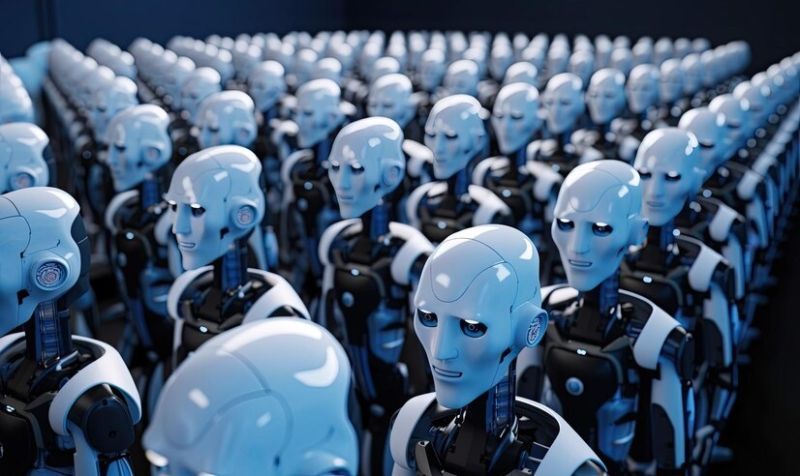

WHENEVER YOU HEAR AI, THINK POWER
The rise of artificial intelligence is often framed as a revolutionary force—one that promises to transform industries and empower individuals. But beneath the hype lies a deeper truth: Technology is never neutral. It can either benefit society or be controlled by elites to reinforce their power. This dynamic has played out time and again, with powerful groups capturing new technologies to consolidate their wealth and influence.
* As Daron Acemoglu and James A. Robinson argue in Power and Progress, Technology has always been a means of wielding and increasing power. Whether it was the printing press or the computer, elites have historically seized control of new technologies to reinforce their dominance.
* For a time, the knowledge worker—those whose labour is intellectual—seemed poised to disrupt this cycle. Knowledge work offered a way for individuals to regain control of the forces of production - even without owning the means of production - thus building a more equitable economy.
* But as Gianpiero Petriglieri reminded us this morning here at the #GPDF2024. AI threatens to undermine this promise. Rather than empowering or “augmenting” the knowledge worker, Generative AI often automates tasks once performed by skilled professionals, from writing to coding. This shift isn’t just about job loss—it’s about shifting control back to the tech elite who own AI systems, leaving most workers without economic agency.
* More broadly, the rise of AI could also have serious implications for democracy. A functioning democracy relies on a strong, educated middle class that can engage in political life. But as AI displaces knowledge workers, rather than “democratizing knowledge” it risks eroding both media and the critical middle class. It doesn’t come as a surprise perhaps that tech billionaires are increasingly seeking political power in order to undermine regulation and democratic safeguards.
* Thus, AI could quickly become a tool to complete the agenda of neoliberal capitalism - by consolidating power in the hands of a few tech companies and plutocrats who control the algorithms, data, and infrastructure.
So, whenever you hear “AI,” think power. Who controls it? Who benefits from it? As Amy Edmondson pointed out this morning, we’re not naturally good at understanding systemic risks. If AI continues on its current path, there is a substantial danger that it might contribute to making the many powerless in the hands of the few who control the machines—and increasingly the future.
#transformation #sustainability #innovation #Technology #Leadership
WHENEVER YOU HEAR AI, THINK POWER
The rise of artificial intelligence is often framed as a revolutionary force—one that promises to transform industries and empower individuals. But beneath the hype lies a deeper truth: Technology is never neutral. It can either benefit society or be controlled by elites to reinforce their power. This dynamic has played out time and again, with powerful groups capturing new technologies to consolidate their wealth and influence.
* As Daron Acemoglu and James A. Robinson argue in Power and Progress, Technology has always been a means of wielding and increasing power. Whether it was the printing press or the computer, elites have historically seized control of new technologies to reinforce their dominance.
* For a time, the knowledge worker—those whose labour is intellectual—seemed poised to disrupt this cycle. Knowledge work offered a way for individuals to regain control of the forces of production - even without owning the means of production - thus building a more equitable economy.
* But as Gianpiero Petriglieri reminded us this morning here at the #GPDF2024. AI threatens to undermine this promise. Rather than empowering or “augmenting” the knowledge worker, Generative AI often automates tasks once performed by skilled professionals, from writing to coding. This shift isn’t just about job loss—it’s about shifting control back to the tech elite who own AI systems, leaving most workers without economic agency.
* More broadly, the rise of AI could also have serious implications for democracy. A functioning democracy relies on a strong, educated middle class that can engage in political life. But as AI displaces knowledge workers, rather than “democratizing knowledge” it risks eroding both media and the critical middle class. It doesn’t come as a surprise perhaps that tech billionaires are increasingly seeking political power in order to undermine regulation and democratic safeguards.
* Thus, AI could quickly become a tool to complete the agenda of neoliberal capitalism - by consolidating power in the hands of a few tech companies and plutocrats who control the algorithms, data, and infrastructure.
So, whenever you hear “AI,” think power. Who controls it? Who benefits from it? As Amy Edmondson pointed out this morning, we’re not naturally good at understanding systemic risks. If AI continues on its current path, there is a substantial danger that it might contribute to making the many powerless in the hands of the few who control the machines—and increasingly the future.
#transformation #sustainability #innovation #Technology #Leadership
10-11-2024



Climate Change and the Rise of "Friendly" Fascism: A Dangerous Double-Act
As the climate crisis deepens, it’s crucial to consider how climate change activism—despite its noble intentions—might unintentionally fuel the very forces that breed fascism. When a crisis like climate change is framed in apocalyptic terms, it amplifies anxiety and a sense of societal collapse. This anxiety feeds into several key drivers of fascism: economic instability, nationalism, authoritarian leadership, fear of change, and scapegoating.
The fear of an uncertain future, combined with the demand for immediate, radical change, creates fertile ground for authoritarian solutions. Charismatic leaders can capitalize on this fear, offering simple, often xenophobic answers to complex problems. This is echoed in the “great replacement” theory—a fascist lie that suggests societal collapse is a result of deliberate efforts to replace the native population with outsiders. As the New Yorker puts it, “The apparent complexity of the world resolves itself as a conspiracy, just as the attendant anxiety is resolved by hatred.”
In the face of climate-induced disruption, nationalism can intensify as people seek to protect what they perceive as their "homeland" from outside threats, whether environmental migrants or global elites. The fear of change or loss of cultural identity can further radicalize populations, pushing them toward fascist rhetoric that promises stability and control, even at the expense of liberty and human rights.
This brings to mind Luigino Bruni's reflection on the Parable of the Good Samaritan in the Gospel of Luke. The powerful story challenges us to reconsider the concept of "neighbour" — not as someone who is geographically or socially closest to us, but as every human being who has a rightful claim to our compassion and responsibility. As Stefano Zamagni observes, one of the greatest crises of our time may be a crisis of community. Or in Henry Mintzberg's words: we need 'communityship' as much as we need leadership. Only if we start to foster our relational and moral capabilities can we hope to prevent the ecological crisis from evolving into a broader social crisis, undermining the urgent calls for socio-ecological justice raised by green reformers.
Thus, while we all must urgently address climate change, we must also be aware of how the anxiety it generates may be harnessed by fascist movements. The push for change must be careful not to sow the seeds of something far darker.
#COP28 #Leadership #ClimateChange #Transformation #Sustainability #ESG #BusinessforHumanity
Thanks, Hans Stegeman for triggering the thought. Thanks, Guido Palazzo for reference to New Yorker. John Davis linked to your point about activism Kees Klomp Antoinette Weibel as per our discussion with Matthias Schmelzer yesterday
Climate Change and the Rise of "Friendly" Fascism: A Dangerous Double-Act
As the climate crisis deepens, it’s crucial to consider how climate change activism—despite its noble intentions—might unintentionally fuel the very forces that breed fascism. When a crisis like climate change is framed in apocalyptic terms, it amplifies anxiety and a sense of societal collapse. This anxiety feeds into several key drivers of fascism: economic instability, nationalism, authoritarian leadership, fear of change, and scapegoating.
The fear of an uncertain future, combined with the demand for immediate, radical change, creates fertile ground for authoritarian solutions. Charismatic leaders can capitalize on this fear, offering simple, often xenophobic answers to complex problems. This is echoed in the “great replacement” theory—a fascist lie that suggests societal collapse is a result of deliberate efforts to replace the native population with outsiders. As the New Yorker puts it, “The apparent complexity of the world resolves itself as a conspiracy, just as the attendant anxiety is resolved by hatred.”
In the face of climate-induced disruption, nationalism can intensify as people seek to protect what they perceive as their "homeland" from outside threats, whether environmental migrants or global elites. The fear of change or loss of cultural identity can further radicalize populations, pushing them toward fascist rhetoric that promises stability and control, even at the expense of liberty and human rights.
This brings to mind Luigino Bruni's reflection on the Parable of the Good Samaritan in the Gospel of Luke. The powerful story challenges us to reconsider the concept of "neighbour" — not as someone who is geographically or socially closest to us, but as every human being who has a rightful claim to our compassion and responsibility. As Stefano Zamagni observes, one of the greatest crises of our time may be a crisis of community. Or in Henry Mintzberg's words: we need 'communityship' as much as we need leadership. Only if we start to foster our relational and moral capabilities can we hope to prevent the ecological crisis from evolving into a broader social crisis, undermining the urgent calls for socio-ecological justice raised by green reformers.
Thus, while we all must urgently address climate change, we must also be aware of how the anxiety it generates may be harnessed by fascist movements. The push for change must be careful not to sow the seeds of something far darker.
#COP28 #Leadership #ClimateChange #Transformation #Sustainability #ESG #BusinessforHumanity
Thanks, Hans Stegeman for triggering the thought. Thanks, Guido Palazzo for reference to New Yorker. John Davis linked to your point about activism Kees Klomp Antoinette Weibel as per our discussion with Matthias Schmelzer yesterday
10-11-2024



IS BUSINESS STEPPING UP? THE DRUCKER FORUM #GPDF2024 IS HERE!
For many years, the Global Peter Drucker Forum in Vienna has been a key event on my calendar. Why? Because it gathers some of the sharpest minds in #leadership and #management to explore how business can drive value for a better future.
The forum embodies Peter Drucker’s enduring legacy: a commitment to ethical management, people-centered leadership, and organizations’ moral duty to contribute to the common good. Peter championed innovation, decentralisation, continuous learning, and social responsibility—principles that still guide many of our discussions about modern management practices today.
But the forum isn’t just a gathering; it’s a place where executives, academics, and innovators come together to explore how leadership can address both business and critical societal challenges. From adapting leadership for technological change, redefining knowledge worker productivity and fostering creative and scientific innovation, to ethical considerations in AI, corporate social responsibility, and justice in the workplace, the forum is unique in bridging humanism with management.
This year, with the climate crisis worsening, threats to democracy, regional conflicts, and the rise of generative AI, the urgency to act feels stronger than ever. Despite bold statements from Davos and the Business Roundtable, true transformative change remains elusive. With COP28 occurring simultaneously, this forum is an opportunity to spark collective action.
We need fresh narratives and solutions for a sustainable future—I am sure Peter Drucker would have demanded it, urging businesses to take responsibility in our complex 21st century.
Hence, I’m truly excited to reconnect this week with so many brilliant thought leaders, colleagues, and friends. If you’re in Vienna, let’s come together to inspire and catalyze the transformative change that our times so urgently require!
#ResponsibleLeadership #Sustainability #FutureOfBusiness #ClimateAction #Management #Innovation #COP28
IS BUSINESS STEPPING UP? THE DRUCKER FORUM #GPDF2024 IS HERE!
For many years, the Global Peter Drucker Forum in Vienna has been a key event on my calendar. Why? Because it gathers some of the sharpest minds in #leadership and #management to explore how business can drive value for a better future.
The forum embodies Peter Drucker’s enduring legacy: a commitment to ethical management, people-centered leadership, and organizations’ moral duty to contribute to the common good. Peter championed innovation, decentralisation, continuous learning, and social responsibility—principles that still guide many of our discussions about modern management practices today.
But the forum isn’t just a gathering; it’s a place where executives, academics, and innovators come together to explore how leadership can address both business and critical societal challenges. From adapting leadership for technological change, redefining knowledge worker productivity and fostering creative and scientific innovation, to ethical considerations in AI, corporate social responsibility, and justice in the workplace, the forum is unique in bridging humanism with management.
This year, with the climate crisis worsening, threats to democracy, regional conflicts, and the rise of generative AI, the urgency to act feels stronger than ever. Despite bold statements from Davos and the Business Roundtable, true transformative change remains elusive. With COP28 occurring simultaneously, this forum is an opportunity to spark collective action.
We need fresh narratives and solutions for a sustainable future—I am sure Peter Drucker would have demanded it, urging businesses to take responsibility in our complex 21st century.
Hence, I’m truly excited to reconnect this week with so many brilliant thought leaders, colleagues, and friends. If you’re in Vienna, let’s come together to inspire and catalyze the transformative change that our times so urgently require!
#ResponsibleLeadership #Sustainability #FutureOfBusiness #ClimateAction #Management #Innovation #COP28
10-11-2024

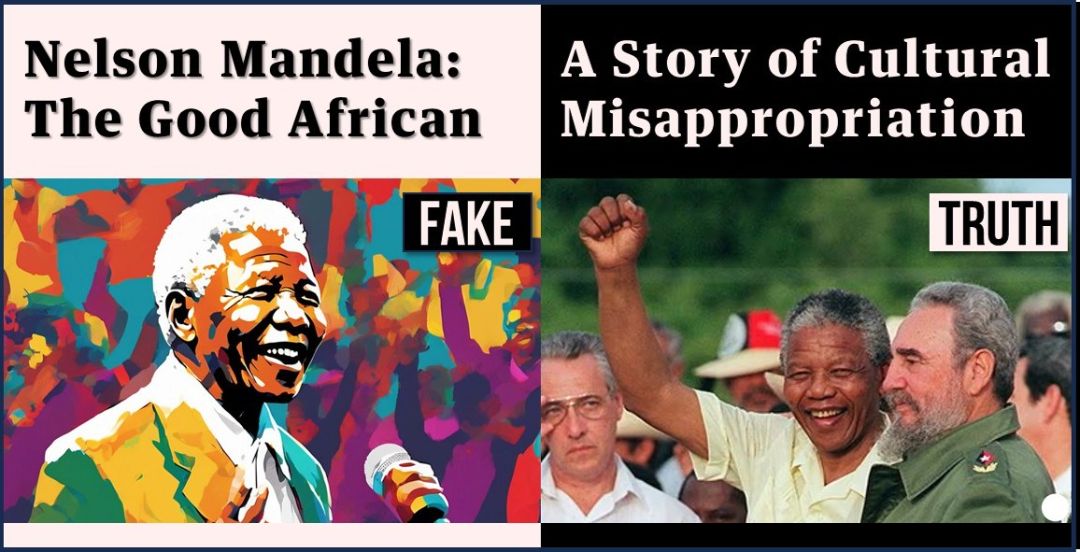

THE ‘GOOD AFRICAN’: How Nelson Mandela Was Appropriated by the West
Nelson Mandela is often hailed as an exemplary leader, yet few people recognize how extensively his legacy has been sanitized by Western powers to obscure his radical politics and his transformative vision for social justice.
During South Africa’s apartheid regime, Mandela was a central figure in the fight against racial oppression, spending 27 years in prison for his activism with the African National Congress. While he was imprisoned, Western leaders largely supported the apartheid government, with figures like Margaret Thatcher labelling him a 'terrorist.'
As apartheid crumbled, the West swiftly rebranded Mandela's image, transmuting him from a dangerous revolutionary to a cherished icon of Western ideals. The sanitized portrayal downplayed his critiques of capitalism and imperialism, as well as his alliances with socialist movements and support for the ANC's armed campaign. By framing him as the 'Good African' embodying 'universal' values like liberty and democracy, the West deflected attention from its own complicity in apartheid and ignored Mandela's calls for socialist reforms. The reappropriation powerfully illustrates cultural hegemony, as Western media shapes a popular 'Mandela story' to serve its own interests—allowing businesses and political elites to use human rights rhetoric as a shield, obscuring their role in global inequality and reinforcing the legitimacy of the international status quo.
Hence, understanding Mandela’s legacy beyond the Western stereotypes is essential. His life’s work encompassed the struggle for social justice, national liberation, and resistance to tyranny, occupation, racism, and imperialism. This includes his socialist leanings, his armed resistance against apartheid, and his steadfast support for global liberation movements. He was a staunch supporter of the Palestinian struggle for freedom and openly acknowledged the crucial support he received from leaders like Fidel Castro and Muammar Gaddafi. On Israel, Mandela was unequivocal: while Israel has the right to exist within secure borders, it has no right to 'retain the territories they conquered from the Arab world, like the Gaza Strip, the Golan Heights, and the West Bank.' When Barack Obama, ironically, hailed Mandela as the 'last great liberator of the 20th century,' it starkly contrasted with Mandela’s outspoken opposition to U.S. and British interventions and his condemnation of the U.S. as a 'threat to world peace.'
Mandela was far from an unambiguous, idealized pop culture icon. He was an extraordinary leader precisely because he rejected the oppressive forces of Western culture and #capitalism. His true legacy is a call for civil disobedience when standing up against racism, neoliberalism, and imperialism, in a fight for social #justice, national liberation, and resistance to tyranny—a struggle that continues into the 21st century.
#leadership #transformation #sustainability
THE ‘GOOD AFRICAN’: How Nelson Mandela Was Appropriated by the West
Nelson Mandela is often hailed as an exemplary leader, yet few people recognize how extensively his legacy has been sanitized by Western powers to obscure his radical politics and his transformative vision for social justice.
During South Africa’s apartheid regime, Mandela was a central figure in the fight against racial oppression, spending 27 years in prison for his activism with the African National Congress. While he was imprisoned, Western leaders largely supported the apartheid government, with figures like Margaret Thatcher labelling him a 'terrorist.'
As apartheid crumbled, the West swiftly rebranded Mandela's image, transmuting him from a dangerous revolutionary to a cherished icon of Western ideals. The sanitized portrayal downplayed his critiques of capitalism and imperialism, as well as his alliances with socialist movements and support for the ANC's armed campaign. By framing him as the 'Good African' embodying 'universal' values like liberty and democracy, the West deflected attention from its own complicity in apartheid and ignored Mandela's calls for socialist reforms. The reappropriation powerfully illustrates cultural hegemony, as Western media shapes a popular 'Mandela story' to serve its own interests—allowing businesses and political elites to use human rights rhetoric as a shield, obscuring their role in global inequality and reinforcing the legitimacy of the international status quo.
Hence, understanding Mandela’s legacy beyond the Western stereotypes is essential. His life’s work encompassed the struggle for social justice, national liberation, and resistance to tyranny, occupation, racism, and imperialism. This includes his socialist leanings, his armed resistance against apartheid, and his steadfast support for global liberation movements. He was a staunch supporter of the Palestinian struggle for freedom and openly acknowledged the crucial support he received from leaders like Fidel Castro and Muammar Gaddafi. On Israel, Mandela was unequivocal: while Israel has the right to exist within secure borders, it has no right to 'retain the territories they conquered from the Arab world, like the Gaza Strip, the Golan Heights, and the West Bank.' When Barack Obama, ironically, hailed Mandela as the 'last great liberator of the 20th century,' it starkly contrasted with Mandela’s outspoken opposition to U.S. and British interventions and his condemnation of the U.S. as a 'threat to world peace.'
Mandela was far from an unambiguous, idealized pop culture icon. He was an extraordinary leader precisely because he rejected the oppressive forces of Western culture and #capitalism. His true legacy is a call for civil disobedience when standing up against racism, neoliberalism, and imperialism, in a fight for social #justice, national liberation, and resistance to tyranny—a struggle that continues into the 21st century.
#leadership #transformation #sustainability
10-11-2024

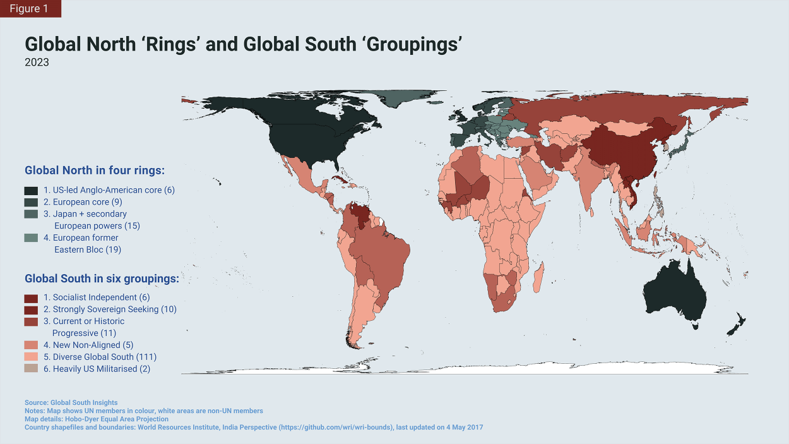

LOST IN THE GLOBAL NORTH: Reassessing a Simplistic Dichotomy
The terms "Global North" and "Global South" have become key fixtures in global discourse, meant to highlight the economic and political divide between wealthier, industrialized nations and the poorer, often unstable countries. Yet, these labels oversimplify a complex global reality, masking diverse histories, identities, and socio-economic realities that defy easy categorization.
The "Global North" generally encompasses North America, Western Europe, and parts of East Asia and Oceania—nations that are seen as prosperous with stable political systems. The "Global South" traditionally encompasses Africa, Latin America, and other parts of Asia. The terminology arose as an alternative to the "third world" or "developing" country designations, aiming to avoid a prescriptive view of progress and to better reflect the complex historical and economic contexts. However, the new binary framework often assumes universal prosperity in the North and chronic instability in the South, ignoring regional disparities.
- Frequent reference to colonial history complicates the North/South divide further. While powers like the UK, France, and Spain had extensive colonial empires, others like, for example, Switzerland, Denmark, Sweden and Finland, all Global North countries, had minimal colonial histories. Conversely, Ireland—colonized by Britain—also falls within this category, highlighting the inconsistencies of a blanket classification. A focus on a colonial narrative is often driven by ideological motives and risks presenting the Global South as a passive victim of Northern influence, side-lining the internal dynamics, governance issues, regional conflicts and social challenges that play crucial roles in shaping these countries.
- The rise of nations like China and India further challenges the binary divide. Once classified as part of the Global South, China is now an economic powerhouse with substantial global influence, blurring the line between North and South. Similarly, countries like South Korea and Singapore, once economically underdeveloped, have become success stories, complicating their categorization.
- Finally, the intra-regional disparities within Global North and South further complicate the division. Within Europe, countries like Albania and Ukraine face challenges starkly different from those of wealthier nations. Similarly, in the Global South, countries like Botswana and Chile show how development diverges from broader regional trends.
In conclusion, while the Global North/South framework draws attention to #inequality, it oversimplifies complex realities and risks perpetuating a one-dimensional view of global issues. To tackle global inequality, we must move past binary frameworks and adopt a more nuanced approach—one that considers both global and structural factors as well as each nation’s unique history, political challenges, and development path.
#leadership #sustainability
Graphic: https://en.prolewiki.org/wiki/Global_North_and_South
LOST IN THE GLOBAL NORTH: Reassessing a Simplistic Dichotomy
The terms "Global North" and "Global South" have become key fixtures in global discourse, meant to highlight the economic and political divide between wealthier, industrialized nations and the poorer, often unstable countries. Yet, these labels oversimplify a complex global reality, masking diverse histories, identities, and socio-economic realities that defy easy categorization.
The "Global North" generally encompasses North America, Western Europe, and parts of East Asia and Oceania—nations that are seen as prosperous with stable political systems. The "Global South" traditionally encompasses Africa, Latin America, and other parts of Asia. The terminology arose as an alternative to the "third world" or "developing" country designations, aiming to avoid a prescriptive view of progress and to better reflect the complex historical and economic contexts. However, the new binary framework often assumes universal prosperity in the North and chronic instability in the South, ignoring regional disparities.
- Frequent reference to colonial history complicates the North/South divide further. While powers like the UK, France, and Spain had extensive colonial empires, others like, for example, Switzerland, Denmark, Sweden and Finland, all Global North countries, had minimal colonial histories. Conversely, Ireland—colonized by Britain—also falls within this category, highlighting the inconsistencies of a blanket classification. A focus on a colonial narrative is often driven by ideological motives and risks presenting the Global South as a passive victim of Northern influence, side-lining the internal dynamics, governance issues, regional conflicts and social challenges that play crucial roles in shaping these countries.
- The rise of nations like China and India further challenges the binary divide. Once classified as part of the Global South, China is now an economic powerhouse with substantial global influence, blurring the line between North and South. Similarly, countries like South Korea and Singapore, once economically underdeveloped, have become success stories, complicating their categorization.
- Finally, the intra-regional disparities within Global North and South further complicate the division. Within Europe, countries like Albania and Ukraine face challenges starkly different from those of wealthier nations. Similarly, in the Global South, countries like Botswana and Chile show how development diverges from broader regional trends.
In conclusion, while the Global North/South framework draws attention to #inequality, it oversimplifies complex realities and risks perpetuating a one-dimensional view of global issues. To tackle global inequality, we must move past binary frameworks and adopt a more nuanced approach—one that considers both global and structural factors as well as each nation’s unique history, political challenges, and development path.
#leadership #sustainability
09-11-2024

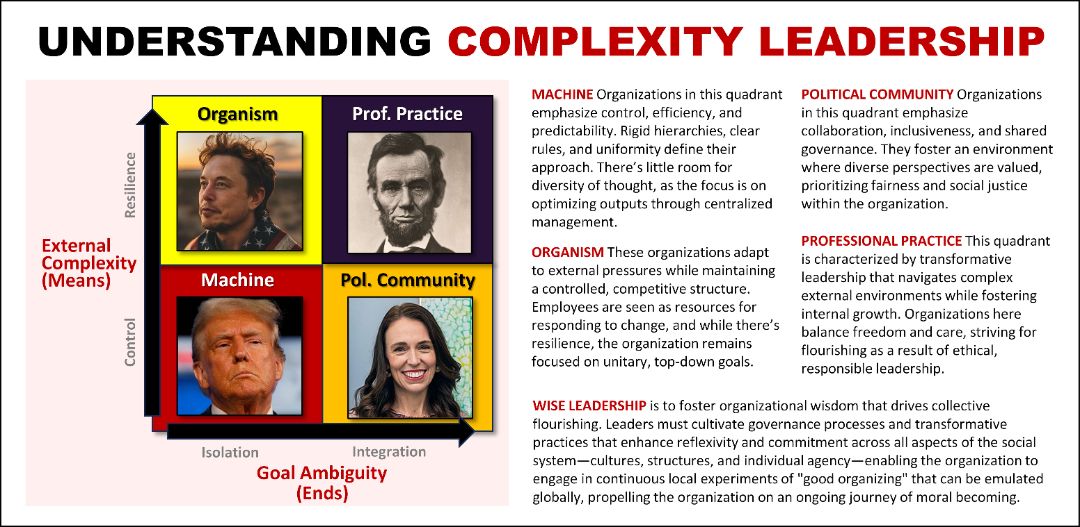

Leading in Complexity: Who Is The Best Leader?
#Leadership in a complex world requires more than agility; it demands the ability to integrate diverse perspectives while navigating external challenges and internal differences. As organizations face growing interdependence, rapid change, and ambiguity, leaders must manage both external shifts and internal viewpoints, values, and goals.
Wise leadership balances ends (goals) and means (external conditions), fostering growth, collaboration, and resilience. Leaders must engage with both axes of complexity: external challenges (technical complexity) and internal diversity (subjective experiences). This requires navigating external changes and internal preferences.
1. Donald Trump (Machine):
Trump exemplifies Tactical Control, where organizations operate like machines—predictable and controlled. His leadership focuses on closed systems, where winning and losing is all that matters, and negotiation builds on domination. While sometimes effective in high-stakes situations, this style struggles with collaboration and long-term solutions.
2. Elon Musk (Organism):
Musk embodies Adaptive Resilience, where organizations respond fast to external complexity with a strong central vision. His leadership is agile but often neglects internal pluralism, limiting collaboration and growth.
3. Jacinda Ardern (Political Community):
As Prime Minister, Ardern exemplifies Dialogical Integration, fostering collaboration and inclusivity. Her leadership integrates diverse perspectives, focusing on social justice and collective good, showing how wise leadership unites people through empathy and action.
4. Abraham Lincoln (Practice):
Lincoln represents Dialectical Excellence, where resilience and pluralism are balanced. His leadership during the Civil War integrated diverse perspectives, aiming for ethical principles and long-term unity, demonstrating how leaders can transform organizations and societies.
As the saying goes, in calm waters, everybody is a good captain. But as complexity grows, leadership must evolve. Wise leadership requires a balance of control, adaptability, dialogue, and transformation, paving the way for collective flourishing. This is why wisdom in leadership involves dialectics—the dynamic interplay between external challenges, internal diversity, and moral development. Our perceptions of the world shape how we respond to its complexities.
Wise leadership is not just about hitting targets. It is a journey of becoming—creating transformative practices that enhance both truth and freedom, while fostering organizational wisdom to deliver lasting social value.
#Complexity #Leadership #GoodLeadership #Transformation #SocialFlourishing #Innovation #Sustainability
Comments:
- The idea here is to translate a complex topic into some simple stereotypes to trigger interest and critical thinking. Of course, the chosen individuals are highly subjective and only meant to be illustrative./ However the archetypes are detailed in order to avoid "over" simplification.
- When it comes to categorisation and axes these are grounded as follows. Left axis: increasing depth/interdependence. Right axis: increasing plurality of opinions. Result at organisational level: left axis - focus on control vs resilience/agility. Right axis - focus on isolation (one prevalent opinion/goal) vs integration. See further information in previous post
- The point about integrating perspectives is related to the need to move not only BEYOND categories, but also be able to view the world FROM the different perspectives in the first place. I thought that was quite evident.
Leading in Complexity: Who Is The Best Leader?
#Leadership in a complex world requires more than agility; it demands the ability to integrate diverse perspectives while navigating external challenges and internal differences. As organizations face growing interdependence, rapid change, and ambiguity, leaders must manage both external shifts and internal viewpoints, values, and goals.
Wise leadership balances ends (goals) and means (external conditions), fostering growth, collaboration, and resilience. Leaders must engage with both axes of complexity: external challenges (technical complexity) and internal diversity (subjective experiences). This requires navigating external changes and internal preferences.
1. Donald Trump (Machine):
Trump exemplifies Tactical Control, where organizations operate like machines—predictable and controlled. His leadership focuses on closed systems, where winning and losing is all that matters, and negotiation builds on domination. While sometimes effective in high-stakes situations, this style struggles with collaboration and long-term solutions.
2. Elon Musk (Organism):
Musk embodies Adaptive Resilience, where organizations respond fast to external complexity with a strong central vision. His leadership is agile but often neglects internal pluralism, limiting collaboration and growth.
3. Jacinda Ardern (Political Community):
As Prime Minister, Ardern exemplifies Dialogical Integration, fostering collaboration and inclusivity. Her leadership integrates diverse perspectives, focusing on social justice and collective good, showing how wise leadership unites people through empathy and action.
4. Abraham Lincoln (Practice):
Lincoln represents Dialectical Excellence, where resilience and pluralism are balanced. His leadership during the Civil War integrated diverse perspectives, aiming for ethical principles and long-term unity, demonstrating how leaders can transform organizations and societies.
As the saying goes, in calm waters, everybody is a good captain. But as complexity grows, leadership must evolve. Wise leadership requires a balance of control, adaptability, dialogue, and transformation, paving the way for collective flourishing. This is why wisdom in leadership involves dialectics—the dynamic interplay between external challenges, internal diversity, and moral development. Our perceptions of the world shape how we respond to its complexities.
Wise leadership is not just about hitting targets. It is a journey of becoming—creating transformative practices that enhance both truth and freedom, while fostering organizational wisdom to deliver lasting social value.
#Complexity #Leadership #GoodLeadership #Transformation #SocialFlourishing #Innovation #Sustainability
Comments:
- The idea here is to translate a complex topic into some simple stereotypes to trigger interest and critical thinking. Of course, the chosen individuals are highly subjective and only meant to be illustrative./ However the archetypes are detailed in order to avoid "over" simplification.
- When it comes to categorisation and axes these are grounded as follows. Left axis: increasing depth/interdependence. Right axis: increasing plurality of opinions. Result at organisational level: left axis - focus on control vs resilience/agility. Right axis - focus on isolation (one prevalent opinion/goal) vs integration. See further information in previous post
- The point about integrating perspectives is related to the need to move not only BEYOND categories, but also be able to view the world FROM the different perspectives in the first place. I thought that was quite evident.
09-11-2024

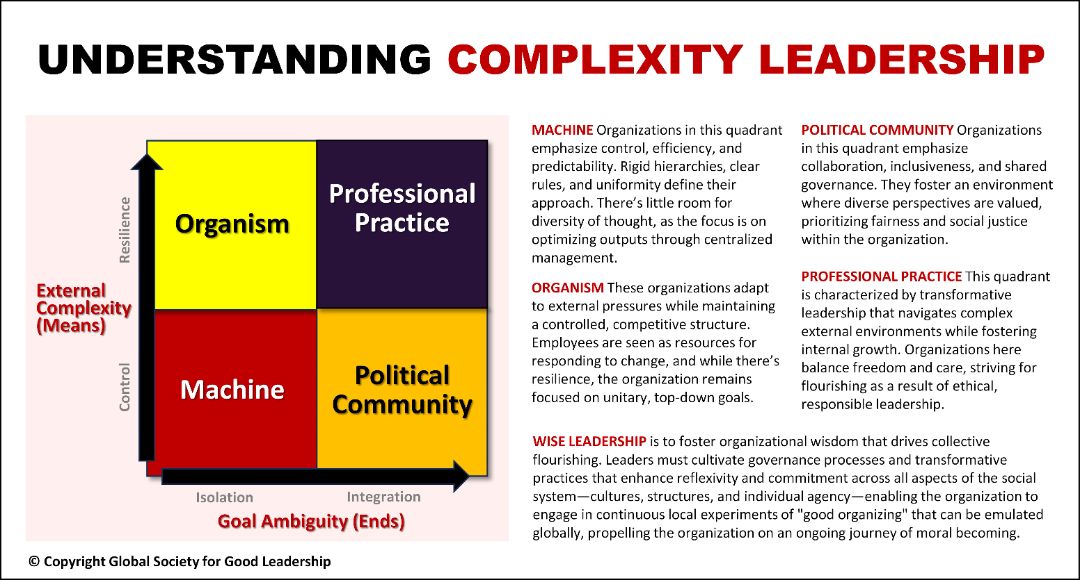

UNDERSTANDING COMPLEXITY LEADERSHIP
#Complexity arises from a world marked by interdependence, rapid change, and ambiguity. Often, complexity is discussed through agility—adapting means to meet external change. However, complexity is not just about responding to external shifts but also about integrating diverse internal perspectives. It requires navigating both ends (goals) and means (external conditions).
The left axis of the matrix reflects external complexity—representing a structural sociology, focused on control and predictability. Methodologies like Complex Adaptive Systems (CAS), Lean, and Cybernetics address these aspects, enabling resilience and agility. The right axis, reflects an interpretative sociology, which emphasises pluralism and subjective experience, focussing on the internal complexity of diverse preferences and worldviews. This draws on Arrow’s impossibility theorem, which highlights the challenge of achieving consensus among differing perspectives.
The intersection of these axes forms a dialectical space, where leaders develop their understanding of both ontological (reality) and epistemological (truth) complexities, overcoming absences and contradictions through good action (ethics).
Tactical Control (Machine)
Focuses on control, predictability, and rigid structures. Organizations operate like machines, aiming for efficiency with little room for diverse perspectives. Leadership emphasizes top-down direction.
Adaptive Resilience (Organism)
These organizations adapt to external complexity but retain unitary internal goals. They emphasize resilience, often in competitive environments, where change is managed but diversity of thought remains limited.
Dialogical Integration (Political Community)
These organizations foster collaboration and shared governance. They integrate diverse perspectives, striving for fairness and social justice while engaging all voices in decision-making.
Dialectical Excellence (Professional Practice)
Organizations here balance external resilience and internal pluralism, aiming for flourishing. Leadership cultivates an environment of freedom, care, and character development, leading to flourishing as a byproduct of reflective and transformative practice.
Dialectics implies the sublation of the tension between outer and inner complexities. How individuals see the world influences their response to external challenges. This interplay requires a continual examination of values, ethics, and corporate responsibility. By integrating contradictions, leaders drive organizational growth and social justice, fostering #transformation.
Complexity #leadership is about shaping organizational #wisdom for societal #flourishing. Leaders must work on cultures, structures, and individual agency, guiding their organizations to continually experiment with “good organizing.” In the end, wise leadership is about becoming—developing organisational character, wisdom, and practices that lead to collective flourishing.
Comments:
- A 2x2 matrix can be overly simplistic and is meant here for illustration
- The axes are intentionally chosen to reflect my views on both Mike Jackson's and Ralph Stacey's work, while combining with Bhaskar's DCR, linkedin to Hegelian and Marxist dialectics, as well as Laske's metathinking, Aristotelian VE, Pettit's Republicanism, and various moral development theories eg Rest/Narvaez's four component model.
- A critical point is to include (goal) ambiguity as part of complexity
- The resilience vs control notation is meant to keep things simple in terms of the vocabulary deployed for the different metaphors (machine vs organism).
- As for the quadrants, the main point is that our interventions vary depending on the underlying paradigm. I admit it’s very tricky to capture the full idea of dialectics and wisdom without slipping into a rather ambiguous mysticism! A more practical example would help, but with a 3000-character limit on LinkedIn, I had to keep it abstract.
UNDERSTANDING COMPLEXITY LEADERSHIP
#Complexity arises from a world marked by interdependence, rapid change, and ambiguity. Often, complexity is discussed through agility—adapting means to meet external change. However, complexity is not just about responding to external shifts but also about integrating diverse internal perspectives. It requires navigating both ends (goals) and means (external conditions).
The left axis of the matrix reflects external complexity—representing a structural sociology, focused on control and predictability. Methodologies like Complex Adaptive Systems (CAS), Lean, and Cybernetics address these aspects, enabling resilience and agility. The right axis, reflects an interpretative sociology, which emphasises pluralism and subjective experience, focussing on the internal complexity of diverse preferences and worldviews. This draws on Arrow’s impossibility theorem, which highlights the challenge of achieving consensus among differing perspectives.
The intersection of these axes forms a dialectical space, where leaders develop their understanding of both ontological (reality) and epistemological (truth) complexities, overcoming absences and contradictions through good action (ethics).
Tactical Control (Machine)
Focuses on control, predictability, and rigid structures. Organizations operate like machines, aiming for efficiency with little room for diverse perspectives. Leadership emphasizes top-down direction.
Adaptive Resilience (Organism)
These organizations adapt to external complexity but retain unitary internal goals. They emphasize resilience, often in competitive environments, where change is managed but diversity of thought remains limited.
Dialogical Integration (Political Community)
These organizations foster collaboration and shared governance. They integrate diverse perspectives, striving for fairness and social justice while engaging all voices in decision-making.
Dialectical Excellence (Professional Practice)
Organizations here balance external resilience and internal pluralism, aiming for flourishing. Leadership cultivates an environment of freedom, care, and character development, leading to flourishing as a byproduct of reflective and transformative practice.
Dialectics implies the sublation of the tension between outer and inner complexities. How individuals see the world influences their response to external challenges. This interplay requires a continual examination of values, ethics, and corporate responsibility. By integrating contradictions, leaders drive organizational growth and social justice, fostering #transformation.
Complexity #leadership is about shaping organizational #wisdom for societal #flourishing. Leaders must work on cultures, structures, and individual agency, guiding their organizations to continually experiment with “good organizing.” In the end, wise leadership is about becoming—developing organisational character, wisdom, and practices that lead to collective flourishing.
09-11-2024

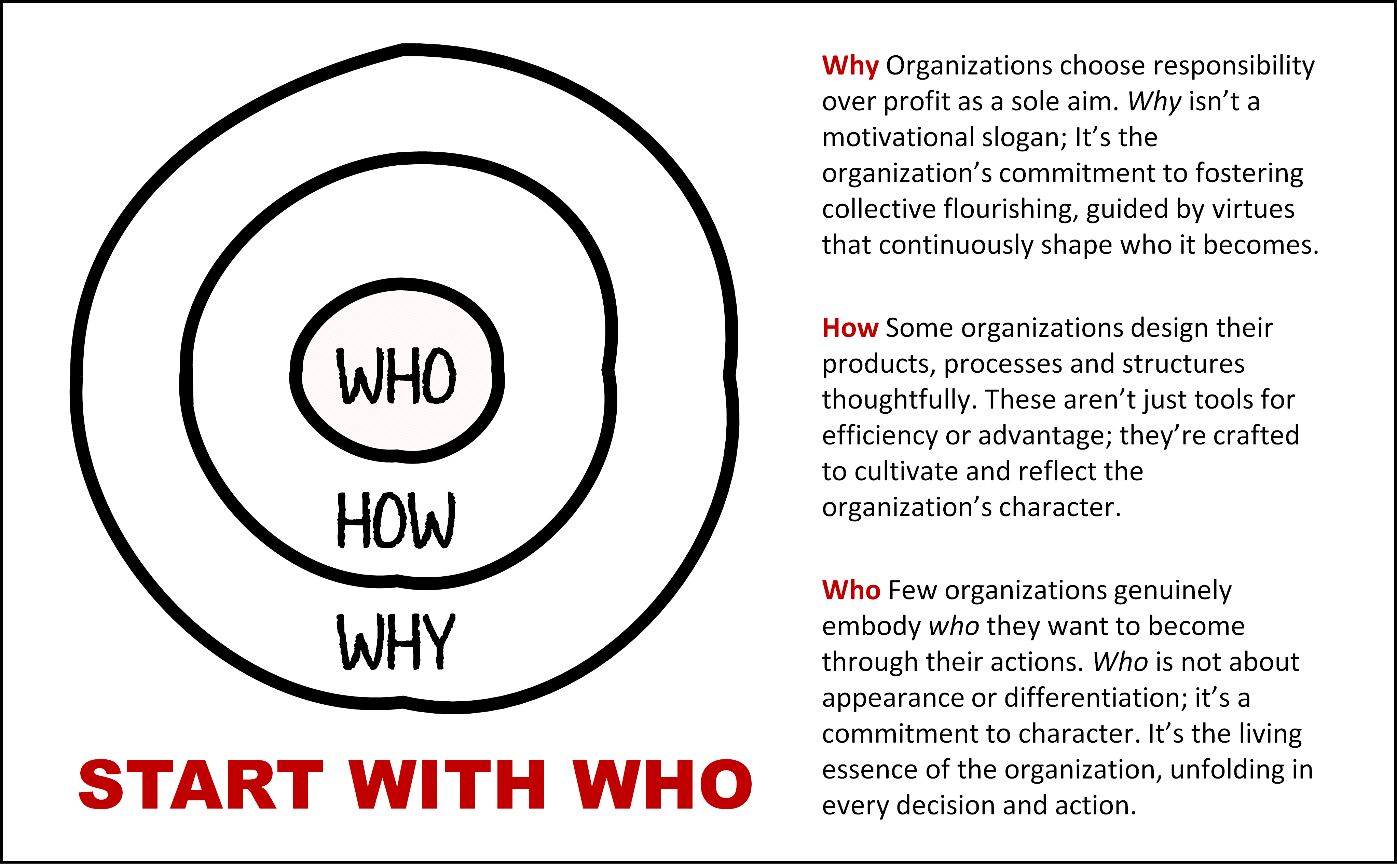

START WITH WHO, NOT WHY
The "Virtuous Circle" of professional practice focuses on developing character through everyday actions and interactions within the organization. This character-driven approach places "Who"—the core of who we aspire to be—at the center, creating a ripple effect that defines how we act and why we commit ourselves to ethical and social responsibilities.
Here's how the virtuous circle unfolds:
Who (Character as Practice)
Instead of focusing on a catchy mission statement or purpose, "Who" starts with character. Character is the heart of who we aim to become as an organization. It’s a living commitment to virtues like integrity, responsibility, and respect for the larger world we’re part of. In every action and choice, we express and refine our character, building an organization that genuinely reflects what we value. Character isn’t just something we decide on once—it’s what we become by consistently and habitually choosing to act well. In this model, character is built, lived, and strengthened through practice.
How (Products and Processes Embodying Character)
The how in this model goes beyond the simplistic idea of what makes us unique. How is about creating processes and structures that actively express and strengthen who we are. Every policy, workflow, and system is designed with broader awareness and care, looking beyond efficiency or competitive advantage. For example, we might create hiring processes that reflect a commitment to fairness or choose sustainable suppliers out of a commitment to environmental care.
Why (Moral Ambition)
In "Start with Who," the why isn’t about finding a motivational purpose; it’s about moral ambition. It is a promise to act with responsibility and integrity, creating social value that goes beyond profit or growth. We’re committed to a larger mission that fosters human and environmental flourishing. Here, why is not just a statement but a lived commitment to make the world better. This moral ambition shapes our organization’s purpose as an evolving practice - emergent from the who and the how - where we actively contribute to a just and meaningful society.
Why "Start with Who" is More Effective
"Start with Who" takes purpose from a glorified mission statement to a continuous, character-driven practice. Unlike utilitarian models that focus merely on outcomes, it seeks to build an adaptable, resilient organization rooted in moral responsibility and virtue. This isn’t just about doing something unique; it’s about cultivating the freedom to flourish—making ethical actions part of our everyday work. With character at the center, we don’t just state our purpose; we live it, creating an organization that grows with and through its actions. Purpose here is not a nice slogan—it’s a daily, practiced commitment to becoming better together.
#transformation #leadership #sustainability #goodorganisations #freedomtoflourish #business #HR
START WITH WHO, NOT WHY
The "Virtuous Circle" of professional practice focuses on developing character through everyday actions and interactions within the organization. This character-driven approach places "Who"—the core of who we aspire to be—at the center, creating a ripple effect that defines how we act and why we commit ourselves to ethical and social responsibilities.
Here's how the virtuous circle unfolds:
Who (Character as Practice)
Instead of focusing on a catchy mission statement or purpose, "Who" starts with character. Character is the heart of who we aim to become as an organization. It’s a living commitment to virtues like integrity, responsibility, and respect for the larger world we’re part of. In every action and choice, we express and refine our character, building an organization that genuinely reflects what we value. Character isn’t just something we decide on once—it’s what we become by consistently and habitually choosing to act well. In this model, character is built, lived, and strengthened through practice.
How (Products and Processes Embodying Character)
The how in this model goes beyond the simplistic idea of what makes us unique. How is about creating processes and structures that actively express and strengthen who we are. Every policy, workflow, and system is designed with broader awareness and care, looking beyond efficiency or competitive advantage. For example, we might create hiring processes that reflect a commitment to fairness or choose sustainable suppliers out of a commitment to environmental care.
Why (Moral Ambition)
In "Start with Who," the why isn’t about finding a motivational purpose; it’s about moral ambition. It is a promise to act with responsibility and integrity, creating social value that goes beyond profit or growth. We’re committed to a larger mission that fosters human and environmental flourishing. Here, why is not just a statement but a lived commitment to make the world better. This moral ambition shapes our organization’s purpose as an evolving practice - emergent from the who and the how - where we actively contribute to a just and meaningful society.
Why "Start with Who" is More Effective
"Start with Who" takes purpose from a glorified mission statement to a continuous, character-driven practice. Unlike utilitarian models that focus merely on outcomes, it seeks to build an adaptable, resilient organization rooted in moral responsibility and virtue. This isn’t just about doing something unique; it’s about cultivating the freedom to flourish—making ethical actions part of our everyday work. With character at the center, we don’t just state our purpose; we live it, creating an organization that grows with and through its actions. Purpose here is not a nice slogan—it’s a daily, practiced commitment to becoming better together.
#transformation #leadership #sustainability #goodorganisations #freedomtoflourish #business #HR
07-11-2024

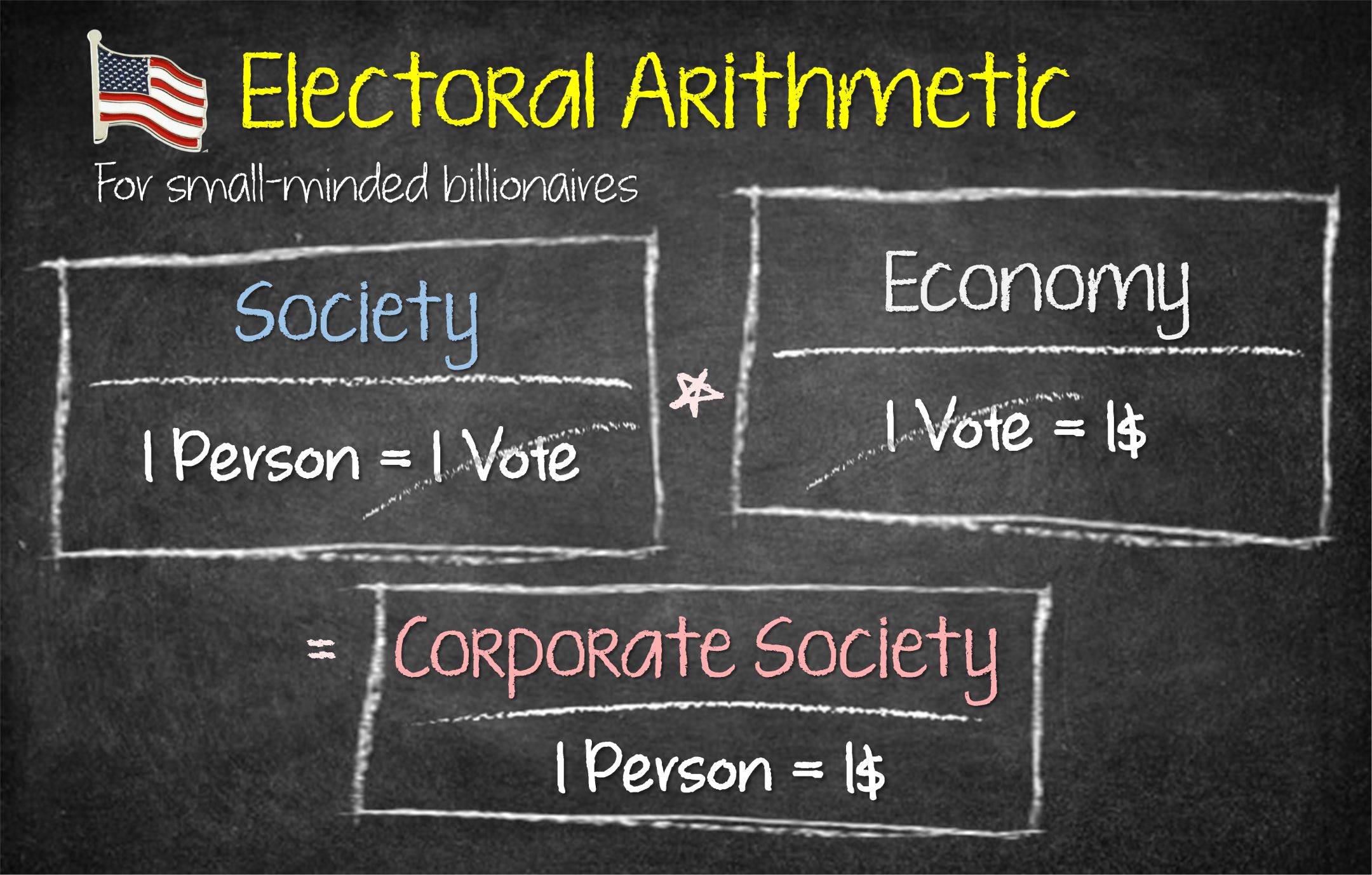

ELECTORAL ARITHMETIC: A Lesson In Corporate Math
Ladies and gentlemen, welcome to "Corporate Society 101," where we apply the robust arithmetic of wealth to the quaint concept of democracy! Let’s take a journey through the numbers, shall we?
In SOCIETY we begin with the classic equation:
1 person = 1 vote
Lovely, isn’t it? As simple as it is outdated, equality for all. But enter the world of ECONOMY:
1 vote = $1
Suddenly, things start to get interesting. Votes depend on Dollars, and influence is directly proportional to wealth. And if we’re small-minded (and by "small-minded," we mean strategically capitalist), we can see that there's an untapped opportunity here. Imagine if we "multiplied" our social values by economic principles...
Let’s apply a simple substitution. We take the original democratic equation, 1 person = 1 vote, but now we substitute vote = $ from the economy’s rulebook. Voilà! Our new equation reads:
1 person = 1 $
With a little twist in corporate math, people are no longer just voters—they're valuable assets! Just as shares represent equity in a company, people represent equity in democracy. The more dollars you have, the more pieces of the CORPORATE SOCIETY you own. Need influence? Simply buy more votes!
And now, here’s the kicker: This isn't some shadowy cabal plotting from dimly lit boardrooms. No, no—it's just basic, honest bingo for billionaires! Just look at recent appointments in government: the plutocrats are everywhere. It’s like the VIP section of democracy, where the champagne flows and the policies follow. Perhaps soon, politicians will have stock ticker symbols. Who knows, maybe one day we’ll just make government IPOs, and get democracies rated by Moody’s!
So next time you read in the Washington Post “one person, one vote,” don’t be naïve—Jeff Bezos & the corporate elite have already done the math. Spoiler alert: democracy might be just one of those things Amazon doesn’t ship!
#bestdemocracymoneycanbuy #politics #publicchoice #election #sustainability #innovation #transformation
Dedicated to Henry Mintzberg and #RebalancingSociety.
PS: Cheers to Marty Barton! Yes. "This is cowardice, with democracy as its casualty”. On all sides.
ELECTORAL ARITHMETIC: A Lesson In Corporate Math
Ladies and gentlemen, welcome to "Corporate Society 101," where we apply the robust arithmetic of wealth to the quaint concept of democracy! Let’s take a journey through the numbers, shall we?
In SOCIETY we begin with the classic equation:
1 person = 1 vote
Lovely, isn’t it? As simple as it is outdated, equality for all. But enter the world of ECONOMY:
1 vote = $1
Suddenly, things start to get interesting. Votes depend on Dollars, and influence is directly proportional to wealth. And if we’re small-minded (and by "small-minded," we mean strategically capitalist), we can see that there's an untapped opportunity here. Imagine if we "multiplied" our social values by economic principles...
Let’s apply a simple substitution. We take the original democratic equation, 1 person = 1 vote, but now we substitute vote = $ from the economy’s rulebook. Voilà! Our new equation reads:
1 person = 1 $
With a little twist in corporate math, people are no longer just voters—they're valuable assets! Just as shares represent equity in a company, people represent equity in democracy. The more dollars you have, the more pieces of the CORPORATE SOCIETY you own. Need influence? Simply buy more votes!
And now, here’s the kicker: This isn't some shadowy cabal plotting from dimly lit boardrooms. No, no—it's just basic, honest bingo for billionaires! Just look at recent appointments in government: the plutocrats are everywhere. It’s like the VIP section of democracy, where the champagne flows and the policies follow. Perhaps soon, politicians will have stock ticker symbols. Who knows, maybe one day we’ll just make government IPOs, and get democracies rated by Moody’s!
So next time you read in the Washington Post “one person, one vote,” don’t be naïve—Jeff Bezos & the corporate elite have already done the math. Spoiler alert: democracy might be just one of those things Amazon doesn’t ship!
#bestdemocracymoneycanbuy #politics #publicchoice #election #sustainability #innovation #transformation
Dedicated to Henry Mintzberg and #RebalancingSociety.
PS: Cheers to Marty Barton! Yes. "This is cowardice, with democracy as its casualty”. On all sides.
07-11-2024

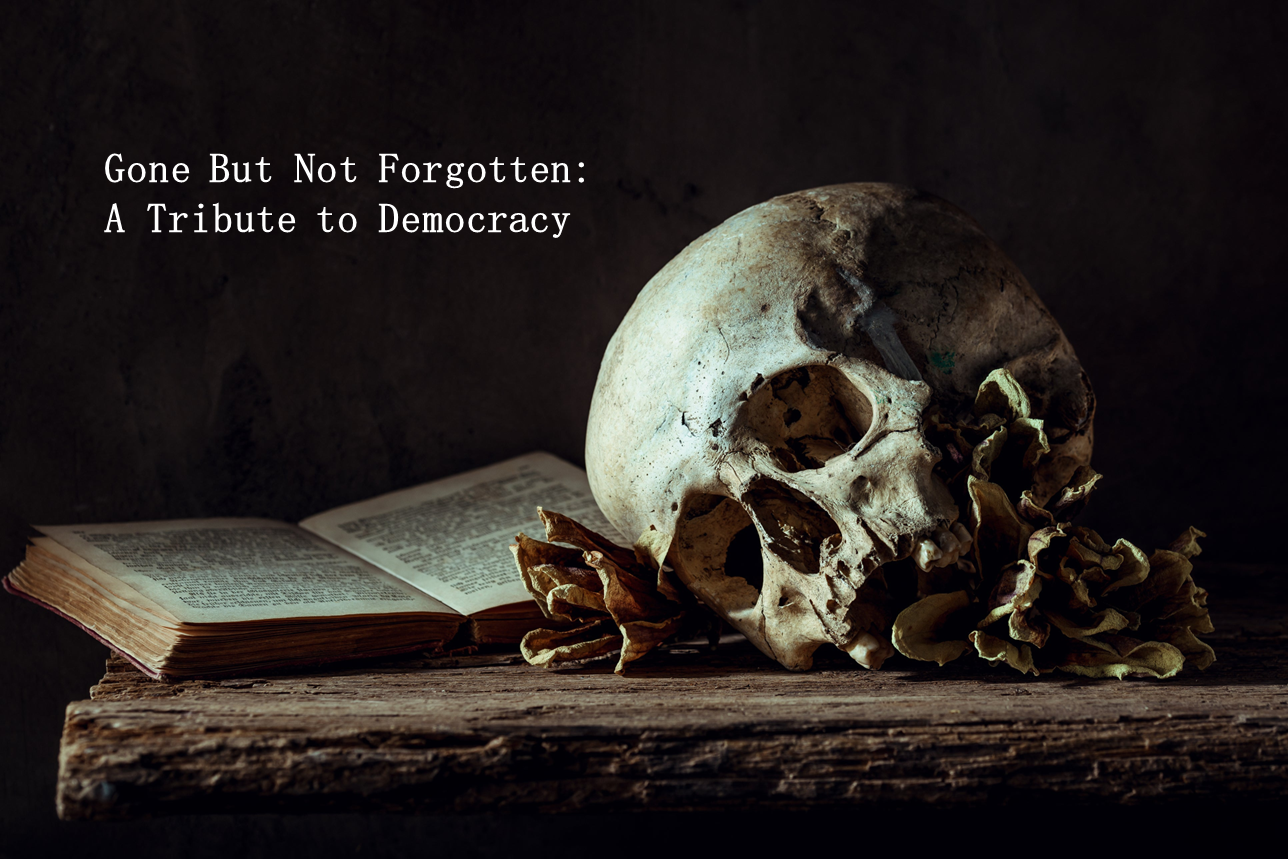

The Great Steal: When Trump Took The People’s Vote
Folks, let me tell you – we are witnessing something absolutely disgraceful happening to this country. A total disaster. They’ve stolen the election, and I’m not talking about some random, little election. No, this is the big one – the most important election in the history of our nation. The one meant to show the world how strong America is. Instead, it’s been hijacked by crooked billionaires, media elites, and tech moguls who want to tear us down. People like Elon Musk, who thinks he owns free speech, or Howard Lutnick and his Wall Street buddies, who have been lining their pockets for years, looking down on hardworking Americans like you. These guys don’t care about America. They only care about power and control, and they’ve used every trick to take away your voice.
And the media? Oh, don’t even get me started on the media. The media, they’re the worst, absolute worst. Fake news everywhere, just lies, lies, lies. And Tucker Carlson, he’s part of it too. Feeding you lies, twisting the truth. What does he want? Power. What do these billionaires want? Power. They don’t care about democracy, they care about keeping you down, keeping the system rigged. They’ll do anything to make sure you don’t know the truth. And yet, the American people – you know it, I know it – we saw it all. We saw the truth.
Now, let’s talk about what really happened. The whole system was rigged, folks. I’m telling you, rigged like we’ve never seen before. The election wasn’t free and fair – it was stolen. And they don’t want us to win because they fear us. They fear the people. They don’t want you to stand up, they don’t want you to speak out – they want to silence you, they want to control you, they want to keep you in the dark. And guess what? It’s not going to work, folks. Not on my watch.
We are going to fight back, and we’re going to fight back bigly. They think they can just get away with it? No way. No way. They tried to bury the truth, but it’s right there in front of us. The fraud, the corruption – it’s all there. And we’re going to expose it. It’s time to drain the swamp and give democracy back to the people.
So don’t let them tell you it’s over. Don’t let them tell you that we lost. Because guess what? We didn’t lose. We’re just getting started. And together, we’re going to make our democracy great again – for the first time, we’ll make the world great again. And we’ll make sure that your voice is heard.
This isn’t just about winning the election – this is about saving America. We’re going to protect freedom, we’re going head-to-head with these billionaires, these elites who’ve rigged the game. Maybe we’re going down to their level a bit. But sometimes you have to fight fire with fire.
So, let’s get out there and let the world know that we’re not backing down. Not now, not ever. We’re going to win, and we’re going to save democracy, folks. Believe me, we will win.
Yours truly, the (flawed) #Democracy ;-)
The Great Steal: When Trump Took The People’s Vote
Folks, let me tell you – we are witnessing something absolutely disgraceful happening to this country. A total disaster. They’ve stolen the election, and I’m not talking about some random, little election. No, this is the big one – the most important election in the history of our nation. The one meant to show the world how strong America is. Instead, it’s been hijacked by crooked billionaires, media elites, and tech moguls who want to tear us down. People like Elon Musk, who thinks he owns free speech, or Howard Lutnick and his Wall Street buddies, who have been lining their pockets for years, looking down on hardworking Americans like you. These guys don’t care about America. They only care about power and control, and they’ve used every trick to take away your voice.
And the media? Oh, don’t even get me started on the media. The media, they’re the worst, absolute worst. Fake news everywhere, just lies, lies, lies. And Tucker Carlson, he’s part of it too. Feeding you lies, twisting the truth. What does he want? Power. What do these billionaires want? Power. They don’t care about democracy, they care about keeping you down, keeping the system rigged. They’ll do anything to make sure you don’t know the truth. And yet, the American people – you know it, I know it – we saw it all. We saw the truth.
Now, let’s talk about what really happened. The whole system was rigged, folks. I’m telling you, rigged like we’ve never seen before. The election wasn’t free and fair – it was stolen. And they don’t want us to win because they fear us. They fear the people. They don’t want you to stand up, they don’t want you to speak out – they want to silence you, they want to control you, they want to keep you in the dark. And guess what? It’s not going to work, folks. Not on my watch.
We are going to fight back, and we’re going to fight back bigly. They think they can just get away with it? No way. No way. They tried to bury the truth, but it’s right there in front of us. The fraud, the corruption – it’s all there. And we’re going to expose it. It’s time to drain the swamp and give democracy back to the people.
So don’t let them tell you it’s over. Don’t let them tell you that we lost. Because guess what? We didn’t lose. We’re just getting started. And together, we’re going to make our democracy great again – for the first time, we’ll make the world great again. And we’ll make sure that your voice is heard.
This isn’t just about winning the election – this is about saving America. We’re going to protect freedom, we’re going head-to-head with these billionaires, these elites who’ve rigged the game. Maybe we’re going down to their level a bit. But sometimes you have to fight fire with fire.
So, let’s get out there and let the world know that we’re not backing down. Not now, not ever. We’re going to win, and we’re going to save democracy, folks. Believe me, we will win.
Yours truly, the (flawed) #Democracy ;-)
07-11-2024

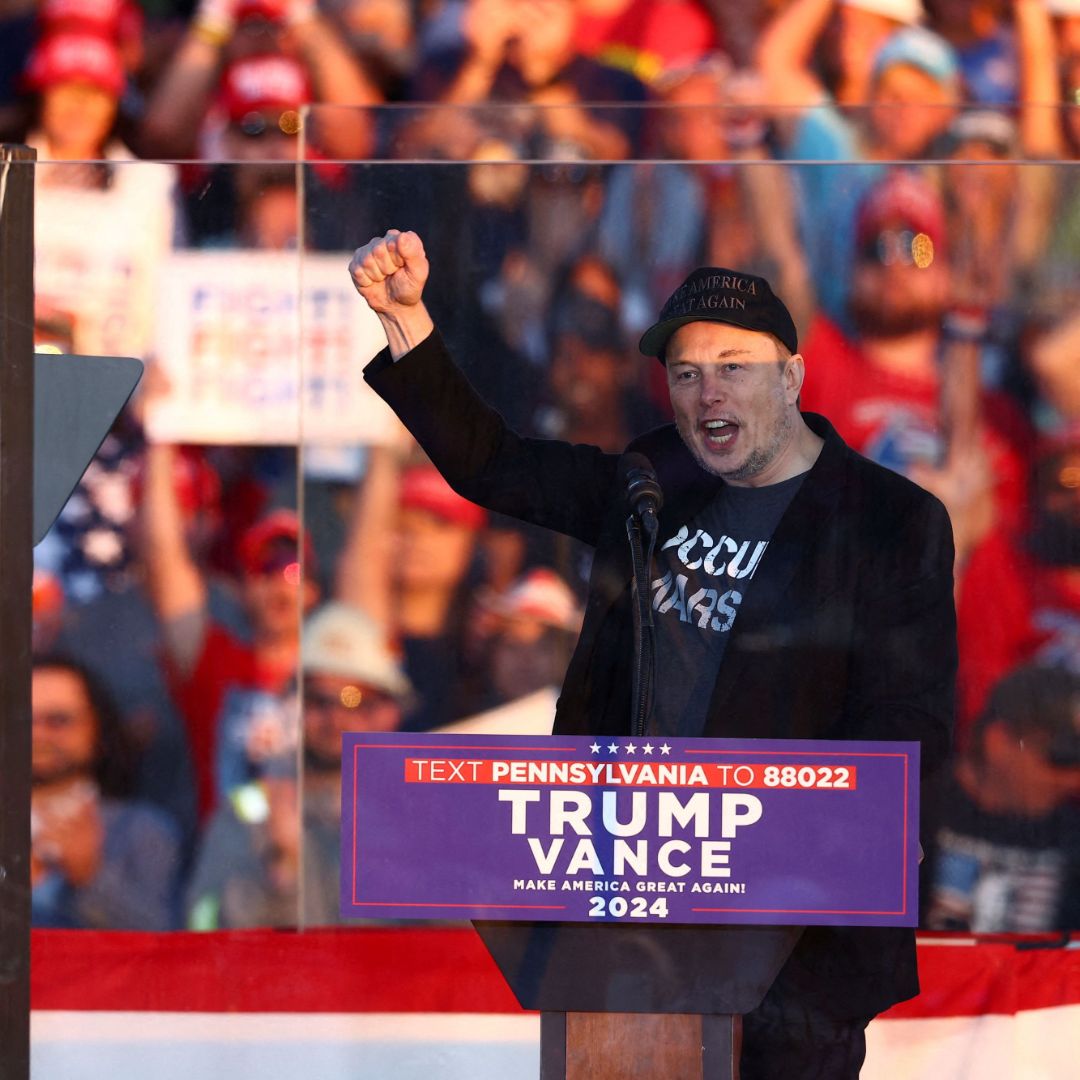

BLACK FRIDAY SALES: THE AMERICAN DEMOCRACY™ — NOW Cheaper Than Ever!
Once again, the U.S. has set the standard for the world. Its democracy is indeed the best money can buy, as Greg Palast wrote in 2002 - in fact, it's the best that has ever been bought. While other democracies are stuck worrying about pesky revolving doors between government and private sector, America has leaped ahead, tossing out the door altogether and turning its government into a full-blown supermarket for the rich and powerful. Yesterday’s elections were just the latest proof: Elon Musk reportedly invested $130 million to buy himself a potential post in a future Trump administration — the kind of high-stakes shopping spree that’s quickly becoming the American way.
It’s almost poetic. For years, U.S. corporations have been quietly eroding democracy from the inside, investing billions in lobbying, campaign contributions, and media influence to ensure that every policy, every law, every supreme court judge subtly tilts in their favour. Trade agreements now routinely include clauses that allow corporations to sue governments for daring to prioritize public health, environmental sustainability, or local economies over corporate profit. And the numbers tell the story: as Paul Adler writes in The 99% Economy, industries like fossil fuels, pharmaceuticals, and tech pour billions into lobbying to keep laws that could benefit the public off the table. In fact, regulation itself has become a joke when the people meant to police industries or stock markets end up coming straight from corporate offices — and later return there for even better-paid roles. Roll over, Montesquieu! It’s not “revolving doors” anymore; it’s a VIP lounge where the elite sip their champagne and decide who gets the next position of influence.
The public loses, and businesses win — but in America, that’s of course just the way it works. Everything's a big game with winners and losers. So why not cut to the chase? Let the billionaires bid for office roles openly, or, better yet, do away with any pretense of public representation and create a public auction for government posts — the candidates with the highest donations wins the office. No votes required! If you happen to be a small-town billionaire with a private yacht and personal island, why not add a corner office in the Senate to your trophy collection?
The best part? The people love it. Captivated by the dazzling show of wealth, mesmerized by the promise of “success,” they cheer for the very players who game the system and render them powerless. It’s the perfect capitalist fantasy — a nation where politics is the ultimate luxury market, and power is the ultimate product. The rest of the “developing” democratic world can only stand by in awe...
#leadership #transformation #democracy #politics #justice
BLACK FRIDAY SALES: THE AMERICAN DEMOCRACY™ — NOW Cheaper Than Ever!
Once again, the U.S. has set the standard for the world. Its democracy is indeed the best money can buy, as Greg Palast wrote in 2002 - in fact, it's the best that has ever been bought. While other democracies are stuck worrying about pesky revolving doors between government and private sector, America has leaped ahead, tossing out the door altogether and turning its government into a full-blown supermarket for the rich and powerful. Yesterday’s elections were just the latest proof: Elon Musk reportedly invested $130 million to buy himself a potential post in a future Trump administration — the kind of high-stakes shopping spree that’s quickly becoming the American way.
It’s almost poetic. For years, U.S. corporations have been quietly eroding democracy from the inside, investing billions in lobbying, campaign contributions, and media influence to ensure that every policy, every law, every supreme court judge subtly tilts in their favour. Trade agreements now routinely include clauses that allow corporations to sue governments for daring to prioritize public health, environmental sustainability, or local economies over corporate profit. And the numbers tell the story: as Paul Adler writes in The 99% Economy, industries like fossil fuels, pharmaceuticals, and tech pour billions into lobbying to keep laws that could benefit the public off the table. In fact, regulation itself has become a joke when the people meant to police industries or stock markets end up coming straight from corporate offices — and later return there for even better-paid roles. Roll over, Montesquieu! It’s not “revolving doors” anymore; it’s a VIP lounge where the elite sip their champagne and decide who gets the next position of influence.
The public loses, and businesses win — but in America, that’s of course just the way it works. Everything's a big game with winners and losers. So why not cut to the chase? Let the billionaires bid for office roles openly, or, better yet, do away with any pretense of public representation and create a public auction for government posts — the candidates with the highest donations wins the office. No votes required! If you happen to be a small-town billionaire with a private yacht and personal island, why not add a corner office in the Senate to your trophy collection?
The best part? The people love it. Captivated by the dazzling show of wealth, mesmerized by the promise of “success,” they cheer for the very players who game the system and render them powerless. It’s the perfect capitalist fantasy — a nation where politics is the ultimate luxury market, and power is the ultimate product. The rest of the “developing” democratic world can only stand by in awe...
#leadership #transformation #democracy #politics #justice
05-11-2024

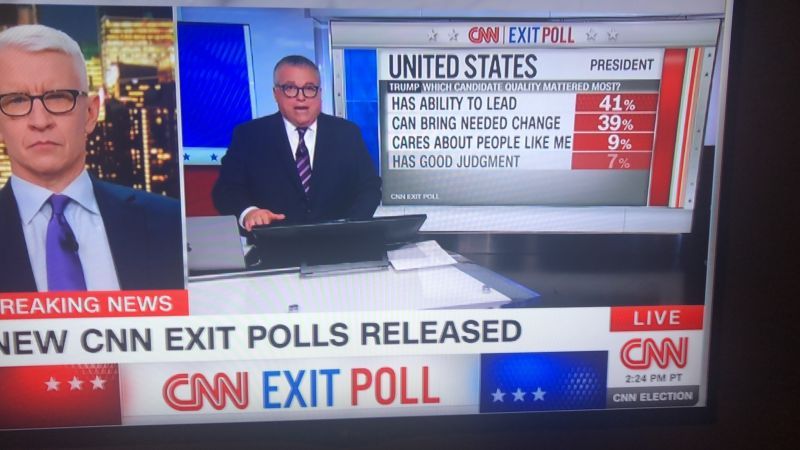

The Funniest Thing I Saw Yesterday: 41% of Americans believe Donald Trump is a good leader. What's makes this so hilarious? At the same time, only 9% think he cares about people, and just 7% believe he has good judgment.
So, if leadership doesn’t require care or justice, then what exactly does it require? My cynical guess: People are simply calculating how to advance their own economic self-interest, no matter the cost to society.
This is a far cry from democratic principles. John Stuart Mill made it clear that democracy isn’t about voting for your personal gain—it's about considering what's best for everyone, like a juror who weighs evidence impartially. Otherwise it isn't democracy. Full stop.
But here we are AGAIN, clinging to the myth of Adam Smith’s "invisible hand", putting our faith into the misguided belief that the economy is separate from society, and that individual selfishness can magically transmute into collective prosperity—a concept based on Smith's deism and hardly the foundation for a modern, thriving society. As Joe Stiglitz rightly put it, "The invisible hand is often invisible because it ain’t there."
Americans like to say "In God We Trust," and, frankly, at this point, with this kind of voting intelligence, they’d better really start doing so—because with their misguided views on earthly leadership, only divine intervention can save us now.
#leadership #transformation #management #goodleadership
PS: As several readers pointed out, the CNN voiceover here might have been misleading me. The graphic states "which quality matters most," which doesn’t necessarily mean that voters disregard all other qualities. However, this still implicitly suggests a very curious interpretation of leadership—one that could imply it’s possible to be a leader without care or judgment, which is the central point I’m making here.
The Funniest Thing I Saw Yesterday: 41% of Americans believe Donald Trump is a good leader. What's makes this so hilarious? At the same time, only 9% think he cares about people, and just 7% believe he has good judgment.
So, if leadership doesn’t require care or justice, then what exactly does it require? My cynical guess: People are simply calculating how to advance their own economic self-interest, no matter the cost to society.
This is a far cry from democratic principles. John Stuart Mill made it clear that democracy isn’t about voting for your personal gain—it's about considering what's best for everyone, like a juror who weighs evidence impartially. Otherwise it isn't democracy. Full stop.
But here we are AGAIN, clinging to the myth of Adam Smith’s "invisible hand", putting our faith into the misguided belief that the economy is separate from society, and that individual selfishness can magically transmute into collective prosperity—a concept based on Smith's deism and hardly the foundation for a modern, thriving society. As Joe Stiglitz rightly put it, "The invisible hand is often invisible because it ain’t there."
Americans like to say "In God We Trust," and, frankly, at this point, with this kind of voting intelligence, they’d better really start doing so—because with their misguided views on earthly leadership, only divine intervention can save us now.
#leadership #transformation #management #goodleadership
PS: As several readers pointed out, the CNN voiceover here might have been misleading me. The graphic states "which quality matters most," which doesn’t necessarily mean that voters disregard all other qualities. However, this still implicitly suggests a very curious interpretation of leadership—one that could imply it’s possible to be a leader without care or judgment, which is the central point I’m making here.
05-11-2024



Red-Hair and the Problem with #Business
Once, in the not-so-distant industrial age, people were troubled by the chaotic state of business. Shareholders ruled, profits were king, and the workers’ toil was used solely to inflate earnings.
If you wanted to grow profits, you simply cut wages, lengthened hours, or “optimized” teams to the bone. Spot a better-performing competitor? Buy them out, extract value, and discard the rest. Companies ran dry, industries polluted, and workers burned out to satisfy shareholders’ insatiable demand for growth.
Naturally, workers watched each other warily. Competing for job security and promotions, they were pitted against one another by rankings, metrics, and quotas. Instead of building a workplace for all, time was spent guarding one's own position.
Many began to murmur, “Truly, we are odd creatures. We’ve reached astonishing heights: messages span the globe in seconds, clean energy from the sun powers entire cities, and we’ve cracked the code of our DNA. Little by little, we are mastering nature to build a world of marvels.
"Yet, we haven’t mastered ourselves. We chase profits and status, and there’s no harmony here—only division. As long as the shareholder is worshipped, we’re caught in a game we can’t win. We dream of a world where work serves the common good, but without a new order, our efforts are hollow.”
Generations of #leaders pondered a solution. How could the fruits of work be shared justly? After years of debate, they proposed a new agreement. What if companies acknowledged the need to create social value. If corporate governance recognized that all groups had stakes in the company's success, treating workers as "partners" and shareholders as "supporters". Any breach of this law would meet accountability by those protecting a just enterprise.
A great summit was called, attended by leaders across industries. Some arrived with hope, others skeptical but willing to listen, and some simply following orders, prepared to go along with the consensus.
But on the sidelines was Red-Hair the Atavism, an old capitalist with a booming voice. Sneering, he jeered, “Change business? Let workers stand equal with shareholders? Laughable! Look at those dreamers, talking about a new business order!” And his followers, buoyed by his loudness, echoed, “Haw haw! They think they can change business!”
The summit faltered, and two centuries passed in which workers burned out while shareholders thrived. A sustainable, fair system remained a distant dream.
But consider this: though Red-Hair had his day, the idea of a fair workplace didn’t fade. Today, imperfect institutions are emerging, balancing profit with purpose and value for all.
Now, another story unfolds—the story of humans and nature. Today, we must prepare a covenant with Earth itself. Unlike business, nature gives no margin for delay. We don’t have two hundred years, nor even twenty. Perhaps not even two.
And the Red-Hairs are back. That’s our real problem.
(Based on Hayakawa, language in thought and action, 1977, foreword)
Red-Hair and the Problem with #Business
Once, in the not-so-distant industrial age, people were troubled by the chaotic state of business. Shareholders ruled, profits were king, and the workers’ toil was used solely to inflate earnings.
If you wanted to grow profits, you simply cut wages, lengthened hours, or “optimized” teams to the bone. Spot a better-performing competitor? Buy them out, extract value, and discard the rest. Companies ran dry, industries polluted, and workers burned out to satisfy shareholders’ insatiable demand for growth.
Naturally, workers watched each other warily. Competing for job security and promotions, they were pitted against one another by rankings, metrics, and quotas. Instead of building a workplace for all, time was spent guarding one's own position.
Many began to murmur, “Truly, we are odd creatures. We’ve reached astonishing heights: messages span the globe in seconds, clean energy from the sun powers entire cities, and we’ve cracked the code of our DNA. Little by little, we are mastering nature to build a world of marvels.
"Yet, we haven’t mastered ourselves. We chase profits and status, and there’s no harmony here—only division. As long as the shareholder is worshipped, we’re caught in a game we can’t win. We dream of a world where work serves the common good, but without a new order, our efforts are hollow.”
Generations of #leaders pondered a solution. How could the fruits of work be shared justly? After years of debate, they proposed a new agreement. What if companies acknowledged the need to create social value. If corporate governance recognized that all groups had stakes in the company's success, treating workers as "partners" and shareholders as "supporters". Any breach of this law would meet accountability by those protecting a just enterprise.
A great summit was called, attended by leaders across industries. Some arrived with hope, others skeptical but willing to listen, and some simply following orders, prepared to go along with the consensus.
But on the sidelines was Red-Hair the Atavism, an old capitalist with a booming voice. Sneering, he jeered, “Change business? Let workers stand equal with shareholders? Laughable! Look at those dreamers, talking about a new business order!” And his followers, buoyed by his loudness, echoed, “Haw haw! They think they can change business!”
The summit faltered, and two centuries passed in which workers burned out while shareholders thrived. A sustainable, fair system remained a distant dream.
But consider this: though Red-Hair had his day, the idea of a fair workplace didn’t fade. Today, imperfect institutions are emerging, balancing profit with purpose and value for all.
Now, another story unfolds—the story of humans and nature. Today, we must prepare a covenant with Earth itself. Unlike business, nature gives no margin for delay. We don’t have two hundred years, nor even twenty. Perhaps not even two.
And the Red-Hairs are back. That’s our real problem.
(Based on Hayakawa, language in thought and action, 1977, foreword)
02-11-2024



It's funny how many people in modern democracies seem to selfishly insist on individual rights without any acknowledgment of the corresponding obligations. This is what Philip Pettit calls the Cheshire cat fallacy.
"The Cheshire Cat fallacy, as I think about it with rights is the fallacy of thinking that you can remove all rules, and still find rights remaining; the sort of rights that rules would establish."
It's funny how many people in modern democracies seem to selfishly insist on individual rights without any acknowledgment of the corresponding obligations. This is what Philip Pettit calls the Cheshire cat fallacy.
"The Cheshire Cat fallacy, as I think about it with rights is the fallacy of thinking that you can remove all rules, and still find rights remaining; the sort of rights that rules would establish."
30-10-2024

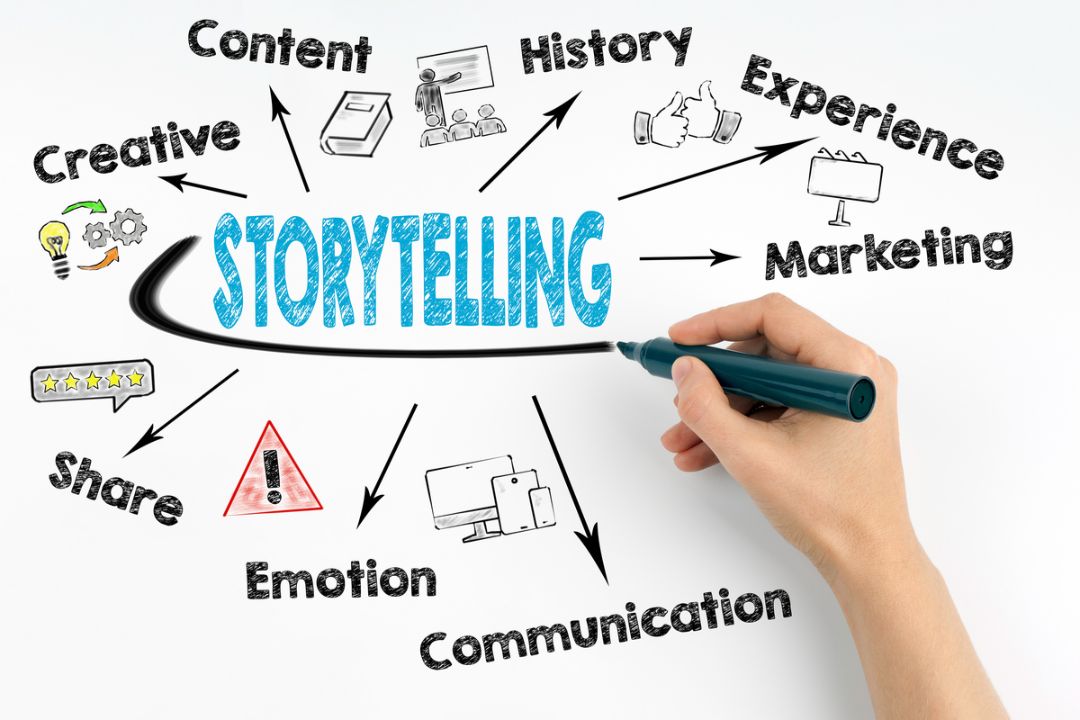

The Need for FEWER STORIES ABOUT #STORYTELLING in Change #Management
In today’s world of business and societal transformation, "storytelling" has become a popular fad. Leaders are encouraged to craft compelling narratives, and change initiatives often rely heavily on stories to engage people. But is this emphasis on storytelling really serving us—or just clouding our understanding of what really drives or needs change?
Ontologically speaking, stories inherently simplify complex events, often neglecting deeper structural realities. They overlook divergent values, systemic power and relationships, or economic and political institutions that drive social systems. Focusing on fancy tales alone risks reducing intricate dynamics to personal narratives, perpetuating an inflated belief in individual agency— by spotlighting “heroes” and dramatic arcs, it distracts us from powerful collective and systemic forces at play.
Epistemologically, storytelling prioritizes emotional resonance over evidence-based insight. Stories are often chosen to confirm existing or ideological beliefs rather than challenge them, leading to a sort of “echo chamber” effect. This emphasis on coherence often simplifies complex cause-and-effect relationships, making change appear far more straightforward than it actually is. When stories reinforce only the perspectives that fit specific narratives, they risk crowding out nuanced analysis that could lead to more effective and equitable interventions.
There’s also an ethical dimension to consider. Stories in organizations can be manipulated to advance hegemonic agendas, turning individual experiences into marketing tools for reinforcing specific corporate narratives. This can lead to the instrumentalization of people without fully informed consent, particularly if the story is repurposed to align with institutional goals. Moreover, when stories highlight individual responsibility for success or failure, they risk oversimplifying accountability, overlooking the systemic elements of failure or achievement, and sometimes even scapegoating individuals.
Thus, storytelling appeals to those looking for quick, engaging answers. It feels satisfying and actionable, providing a seemingly straightforward path to understanding and driving #change. However, there’s a hidden risk: over-reliance on storytelling can justify oversimplified “solutions” while sidelining the rigorous inquiry needed to address the complex, often uncomfortable realities of change. #Leaders who favour storytelling may, whether inadvertently or intentionally, seek an illusion of clarity, preferring a unifying narrative over confronting essential conflicts and deeper realities.
While good stories can spark energy and unity in the short term, true #transformation of a social system requires a careful balance of evidence, systemic analysis, and ethical clarity. In this light, our obsession with storytelling might just be getting in the way of the truths we need to hear.
The Need for FEWER STORIES ABOUT #STORYTELLING in Change #Management
In today’s world of business and societal transformation, "storytelling" has become a popular fad. Leaders are encouraged to craft compelling narratives, and change initiatives often rely heavily on stories to engage people. But is this emphasis on storytelling really serving us—or just clouding our understanding of what really drives or needs change?
Ontologically speaking, stories inherently simplify complex events, often neglecting deeper structural realities. They overlook divergent values, systemic power and relationships, or economic and political institutions that drive social systems. Focusing on fancy tales alone risks reducing intricate dynamics to personal narratives, perpetuating an inflated belief in individual agency— by spotlighting “heroes” and dramatic arcs, it distracts us from powerful collective and systemic forces at play.
Epistemologically, storytelling prioritizes emotional resonance over evidence-based insight. Stories are often chosen to confirm existing or ideological beliefs rather than challenge them, leading to a sort of “echo chamber” effect. This emphasis on coherence often simplifies complex cause-and-effect relationships, making change appear far more straightforward than it actually is. When stories reinforce only the perspectives that fit specific narratives, they risk crowding out nuanced analysis that could lead to more effective and equitable interventions.
There’s also an ethical dimension to consider. Stories in organizations can be manipulated to advance hegemonic agendas, turning individual experiences into marketing tools for reinforcing specific corporate narratives. This can lead to the instrumentalization of people without fully informed consent, particularly if the story is repurposed to align with institutional goals. Moreover, when stories highlight individual responsibility for success or failure, they risk oversimplifying accountability, overlooking the systemic elements of failure or achievement, and sometimes even scapegoating individuals.
Thus, storytelling appeals to those looking for quick, engaging answers. It feels satisfying and actionable, providing a seemingly straightforward path to understanding and driving #change. However, there’s a hidden risk: over-reliance on storytelling can justify oversimplified “solutions” while sidelining the rigorous inquiry needed to address the complex, often uncomfortable realities of change. #Leaders who favour storytelling may, whether inadvertently or intentionally, seek an illusion of clarity, preferring a unifying narrative over confronting essential conflicts and deeper realities.
While good stories can spark energy and unity in the short term, true #transformation of a social system requires a careful balance of evidence, systemic analysis, and ethical clarity. In this light, our obsession with storytelling might just be getting in the way of the truths we need to hear.
25-10-2024

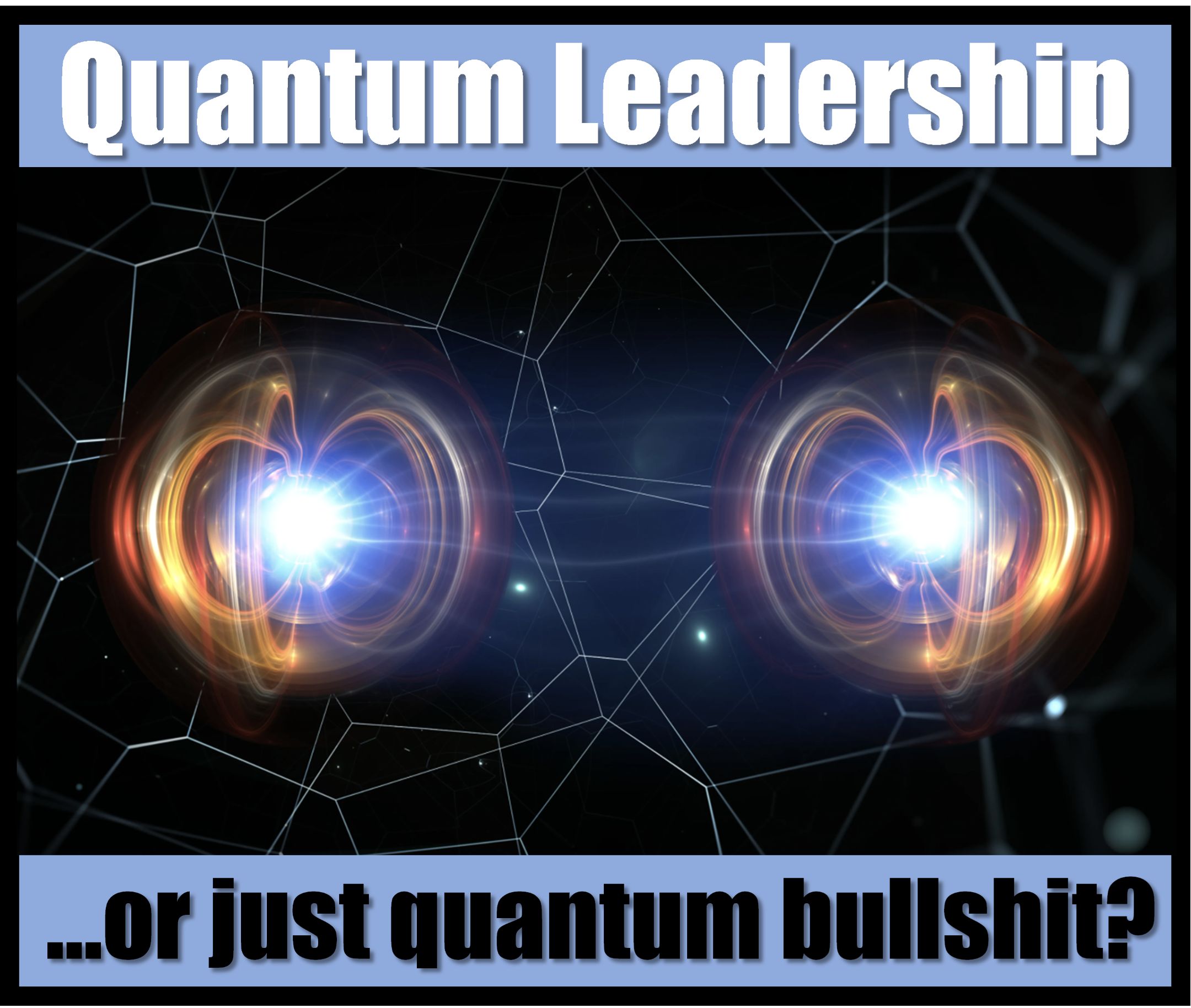

The Bizarre Popularity of "Quantum Management"
Quantum mechanics has found an unexpected following in management theory. "Quantum management" uses concepts like entanglement, uncertainty, and superposition to explain social systems, yet this approach faces deep challenges. Can ideas meant for particles actually apply to people, decisions, or organizations?
Ontologically, quantum mechanics deals with subatomic particles governed by mathematical laws and probability, while social systems involve conscious, goal-oriented beings, values and institutions, and social structures. Treating social systems like quantum systems risks serious category mistakes, reducing human and social complexity to simplified physical mechanics. And unlike quantum particles, people have agency and intentions—central to social science but poorly addressed in quantum metaphors.
Epistemologically, quantum mechanics is difficult even within physics, with competing interpretations and paradoxes. Anyone who’s ever opened a basic quantum physics handbook for the first time—as I did last week—knows the overwhelming complexity of the abstract mathematical formulas. Applying it to social sciences adds another layer of interpretational difficulty. For instance, in quantum mechanics, observation affects outcomes—yet in social sciences, the observer effect is more about reflexivity and cultural context, not physical laws. Quantum’s probabilistic nature could also misrepresent social behaviors, which emerge from history, culture, and human intent, not strict probability.
Ethically, the quantum metaphor has most risks. By suggesting human actions are indeterminate or random, or positing some abstract foundational 'entanglement', it undermines concepts of free will, political dialogue, and moral accountability. Using the metaphor can also grant social theories an unearned scientific authority, potentially leading to misguided conclusions if readers misunderstand the science. There’s even a risk that, under quantum’s “uncertainty,” individuals or organizations might dodge responsibility, framing outcomes as mere “uncertainties” rather than responsible and actionable choices.
So why is this metaphor attractive? Perhaps for all the wrong reasons. Quantum jargon can dazzle, lending speculative and "spiritual" mystique or perceived depth. But there’s also a convenient appeal to shifting accountability. Under “quantum uncertainty,” complexities are minimized, every moral choice is turned into an alleged "paradox", and responsibility becomes fuzzy—enticing, but ethically (and intellectually) hollow. Quantum mechanics can offer intriguing metaphors, but its use in management may reveal more about our desire for shortcuts than true insight into human systems.
#leadership #transformation #management #innovation #business #leadershipsociety
PS: When people talk about quantum mechanics or quantum physics in management, they often have in mind the limitations of our knowledge and the ambiguity that seems to be constitutive of the “real world”. Of course, the analogy is highly problematic when translated uncritically to social systems, but it is an equally important insight also in social research that the perspective of the observer often influences how we see and interpret the world.
However, what quickly escapes the attention of physical science aficionados is the equally important understanding that in social science, pre-existing structures often strongly shape our viewpoints. Discourses and action logics often emerge from the practices and norms undergirding a specific society. Structural injustices are perpetuated because societal super structures legitimise a material distribution of resources and power, which again reinforces institutions.
In other words, the observer influences the observed; but, maybe much more importantly, the observed shapes the observer in the first place, from the day they were born.
Accordingly, we need to look not only at agentic but institutional development and power distribution in order to “sustainably” develop society- which clearly is one aspect the SDGs are conveniently leaving out.
The Bizarre Popularity of "Quantum Management"
Quantum mechanics has found an unexpected following in management theory. "Quantum management" uses concepts like entanglement, uncertainty, and superposition to explain social systems, yet this approach faces deep challenges. Can ideas meant for particles actually apply to people, decisions, or organizations?
Ontologically, quantum mechanics deals with subatomic particles governed by mathematical laws and probability, while social systems involve conscious, goal-oriented beings, values and institutions, and social structures. Treating social systems like quantum systems risks serious category mistakes, reducing human and social complexity to simplified physical mechanics. And unlike quantum particles, people have agency and intentions—central to social science but poorly addressed in quantum metaphors.
Epistemologically, quantum mechanics is difficult even within physics, with competing interpretations and paradoxes. Anyone who’s ever opened a basic quantum physics handbook for the first time—as I did last week—knows the overwhelming complexity of the abstract mathematical formulas. Applying it to social sciences adds another layer of interpretational difficulty. For instance, in quantum mechanics, observation affects outcomes—yet in social sciences, the observer effect is more about reflexivity and cultural context, not physical laws. Quantum’s probabilistic nature could also misrepresent social behaviors, which emerge from history, culture, and human intent, not strict probability.
Ethically, the quantum metaphor has most risks. By suggesting human actions are indeterminate or random, or positing some abstract foundational 'entanglement', it undermines concepts of free will, political dialogue, and moral accountability. Using the metaphor can also grant social theories an unearned scientific authority, potentially leading to misguided conclusions if readers misunderstand the science. There’s even a risk that, under quantum’s “uncertainty,” individuals or organizations might dodge responsibility, framing outcomes as mere “uncertainties” rather than responsible and actionable choices.
So why is this metaphor attractive? Perhaps for all the wrong reasons. Quantum jargon can dazzle, lending speculative and "spiritual" mystique or perceived depth. But there’s also a convenient appeal to shifting accountability. Under “quantum uncertainty,” complexities are minimized, every moral choice is turned into an alleged "paradox", and responsibility becomes fuzzy—enticing, but ethically (and intellectually) hollow. Quantum mechanics can offer intriguing metaphors, but its use in management may reveal more about our desire for shortcuts than true insight into human systems.
#leadership #transformation #management #innovation #business #leadershipsociety
18-10-2024



Raphael's School of Athens, completed 1511, stands as one of the most significant masterpieces of the Renaissance. This monumental fresco, measuring over 4 meters high and nearly 8 meters wide, decorates the Stanza della Segnatura in the Vatican, a room in Pope Julius II’s private apartments. It embodies a gathering of the greatest thinkers from classical antiquity, symbolizing a harmonious blend of #philosophy, #science and #spirituality.
At the center of the fresco, Plato and Aristotle face each other, representing the dichotomy between idealism and empiricism. Plato, pointing skyward, emphasizes the pursuit of higher, eternal truths—his philosophy rooted in the belief that the material world is but a shadow of a more significant reality. In contrast, Aristotle gestures downward, focusing on tangible experiences and the ethical concerns of the human condition as outlined in his Nicomachean Ethics. This rivalry between their philosophies is artfully expressed through the colors of their clothing and their body language, making it clear that both thinkers seek the same ultimate truth, albeit through different paths.
Surrounding them are notable figures like Socrates, Pythagoras, Euclid, and Raphael himself, each contributing to the rich tapestry of knowledge that this fresco represents. The architectural backdrop and the staircase portray knowledge as an ordered and majestic ascent.
How would a modern equivalent of this iconic work look today? It might feature contemporary thought #leaders from various fields—technology, science, philosophy, art, and social justice—gathered in a vibrant, open space that combines elements of modern architecture with digital displays of information and art.
Perhaps figures like Albert Einstein and Tim Berners-Lee would symbolize science and innovation, while environmental advocates like Greta Thunberg would highlight global challenges. Philosophers like Immanuel Kant, Nancy Fraser or Michael Sandel would engage in discussions about #ethics and #justice, with artists such as Ai Weiwei representing the art and activism.
This begs the question: has the pursuit of modern science and technology gained a higher place on the stairs of knowledge than their predecessors? In many ways, today’s discourse far extends beyond the insights of the Renaissance. However, empirical science isn't everything. Ethical considerations have become increasingly vital as we navigate complex issues like climate change, artificial intelligence, and social justice. Just as Plato and Aristotle sought to uncover moral truths, today’s thinkers grapple with the principles to govern our rapidly changing society.
Standing - again - in front of the glorious painting I sense the dialogue continues. In order to ascend the stairs of wisdom, we must continue to strive for deeper understanding of existence and our role within it. We must honor both the knowledge of the ancients and the insights of the present, committed to a more enlightened future.
Raphael's School of Athens, completed 1511, stands as one of the most significant masterpieces of the Renaissance. This monumental fresco, measuring over 4 meters high and nearly 8 meters wide, decorates the Stanza della Segnatura in the Vatican, a room in Pope Julius II’s private apartments. It embodies a gathering of the greatest thinkers from classical antiquity, symbolizing a harmonious blend of #philosophy, #science and #spirituality.
At the center of the fresco, Plato and Aristotle face each other, representing the dichotomy between idealism and empiricism. Plato, pointing skyward, emphasizes the pursuit of higher, eternal truths—his philosophy rooted in the belief that the material world is but a shadow of a more significant reality. In contrast, Aristotle gestures downward, focusing on tangible experiences and the ethical concerns of the human condition as outlined in his Nicomachean Ethics. This rivalry between their philosophies is artfully expressed through the colors of their clothing and their body language, making it clear that both thinkers seek the same ultimate truth, albeit through different paths.
Surrounding them are notable figures like Socrates, Pythagoras, Euclid, and Raphael himself, each contributing to the rich tapestry of knowledge that this fresco represents. The architectural backdrop and the staircase portray knowledge as an ordered and majestic ascent.
How would a modern equivalent of this iconic work look today? It might feature contemporary thought #leaders from various fields—technology, science, philosophy, art, and social justice—gathered in a vibrant, open space that combines elements of modern architecture with digital displays of information and art.
Perhaps figures like Albert Einstein and Tim Berners-Lee would symbolize science and innovation, while environmental advocates like Greta Thunberg would highlight global challenges. Philosophers like Immanuel Kant, Nancy Fraser or Michael Sandel would engage in discussions about #ethics and #justice, with artists such as Ai Weiwei representing the art and activism.
This begs the question: has the pursuit of modern science and technology gained a higher place on the stairs of knowledge than their predecessors? In many ways, today’s discourse far extends beyond the insights of the Renaissance. However, empirical science isn't everything. Ethical considerations have become increasingly vital as we navigate complex issues like climate change, artificial intelligence, and social justice. Just as Plato and Aristotle sought to uncover moral truths, today’s thinkers grapple with the principles to govern our rapidly changing society.
Standing - again - in front of the glorious painting I sense the dialogue continues. In order to ascend the stairs of wisdom, we must continue to strive for deeper understanding of existence and our role within it. We must honor both the knowledge of the ancients and the insights of the present, committed to a more enlightened future.
18-10-2024

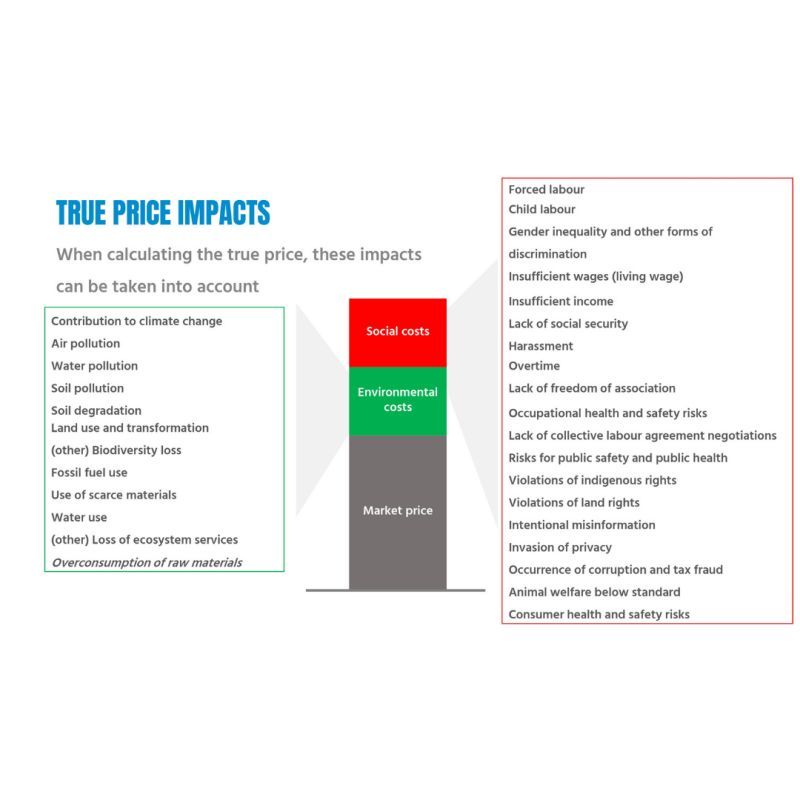

What is the True Price of What We Buy & Why Does It Matter
When we pick up a kilogram of bananas in the supermarket priced at €3.00, we’re only seeing part of the story. This price reflects the market cost—but what if it included the social and environmental impacts of production? The True Price Foundation offers a compelling example that reveals the hidden costs embedded in our purchases.
Consider this: producing 1 kg of bananas emits 10 kg of CO2-eq. and releases 0.05 kg of nitrogen into water sources. For every 30,000 kg of bananas produced, there's an occupational accident affecting workers' health and well-being. If we factor in the costs to offset these impacts—carbon capture at €0.10 per kg, nitrogen restoration at €10 per kg, and €15,000 per accident—the "true" price of roughly 5 euros/kg reflects these externalities.
Understanding the true price of products should encourage us to value and support practices that don’t just benefit our wallets, but safeguard the planet and the people involved in production. It’s a way to share responsibility across the supply chain and drive change towards more ethical and sustainable practices.
Of course, these methodologies are still evolving, and I’m not aware of any country that requires resellers to display the true cost of their products. But that shouldn’t stop us from considering the question. To make a real difference, both consumers and businesses need to recognize these hidden costs—and work to integrate them transparently. Only then can we move towards a market that aligns price and impact, fostering a more sustainable world.
What's the true cost of your next shopping trip?
#sustainability #trueprice #leadership #management #good #bcorp
What is the True Price of What We Buy & Why Does It Matter
When we pick up a kilogram of bananas in the supermarket priced at €3.00, we’re only seeing part of the story. This price reflects the market cost—but what if it included the social and environmental impacts of production? The True Price Foundation offers a compelling example that reveals the hidden costs embedded in our purchases.
Consider this: producing 1 kg of bananas emits 10 kg of CO2-eq. and releases 0.05 kg of nitrogen into water sources. For every 30,000 kg of bananas produced, there's an occupational accident affecting workers' health and well-being. If we factor in the costs to offset these impacts—carbon capture at €0.10 per kg, nitrogen restoration at €10 per kg, and €15,000 per accident—the "true" price of roughly 5 euros/kg reflects these externalities.
Understanding the true price of products should encourage us to value and support practices that don’t just benefit our wallets, but safeguard the planet and the people involved in production. It’s a way to share responsibility across the supply chain and drive change towards more ethical and sustainable practices.
Of course, these methodologies are still evolving, and I’m not aware of any country that requires resellers to display the true cost of their products. But that shouldn’t stop us from considering the question. To make a real difference, both consumers and businesses need to recognize these hidden costs—and work to integrate them transparently. Only then can we move towards a market that aligns price and impact, fostering a more sustainable world.
What's the true cost of your next shopping trip?
#sustainability #trueprice #leadership #management #good #bcorp
15-10-2024



WHERE HAS THE "NEW NORMAL" GONE? Remember the pandemic days, when we celebrated "essential workers" and everyone was talking about building back better? Back then, we didn’t want to return to the old normal because we believed that normalcy was exactly the problem.
But things shifted quickly. The broader sociopolitical conversation collapsed into a narrow, often self-serving debate about hybrid work. Care workers were forgotten, the applauses faded, and the stock markets kept soaring - fueled by absolute greed while wages stagnated and inflation spiraled, driven by endless quantitative easing that bailed out finance in the first place. We moved from the triple bottom line to ESG—created by bankers to stabilize cash flows, not save the planet.
And it keeps deteriorating. COPs fail one after the other, the last one sponsored by Arab oil plutocrats. Democracy is faltering as right-wing parties gain ground, many green politicians are proving even more incompetent than conventional ones, and autocrats are organizing alternative monetary and political systems to challenge a "colonial" world order.
Israel and Russia wage unjust wars on prime-time TV, while over 100 other global conflicts are quickly forgotten. To top it off, we face the real possibility of another ludicrous Trump presidency on November 5th.
Yet, there's something that keeps bothering me. Perhaps the truth is that things have never been much different, even during covid. It seems that in a modern liberal society the only boundary that is jealously defended is that of our own personal space. The "frontier of freedom" is passionately promoted both by the political right and the new left - the former advocating economic, the latter cultural individualism. As Alexander Pope points out, there's a troublesome convergence of political narratives that crowds out civic engagement, beyond a shallow pursuit of self-interest. See roaring SUV sales in European markets. Perhaps we have been too fast in celebrating that postmodern "end of grand narratives" - with nothing left to override social isolation.
I guess it's a good time to pause and ask: where are we now? What can responsible business and political leaders do? I’m looking forward to join the Business at Crossroads meeting at Castel Gandolfo, organized by Marcello Palazzi and European B Corp leaders. There’s a lot to discuss—and to act upon!
#business #transformation #leadership #climate #populism #innovation
WHERE HAS THE "NEW NORMAL" GONE? Remember the pandemic days, when we celebrated "essential workers" and everyone was talking about building back better? Back then, we didn’t want to return to the old normal because we believed that normalcy was exactly the problem.
But things shifted quickly. The broader sociopolitical conversation collapsed into a narrow, often self-serving debate about hybrid work. Care workers were forgotten, the applauses faded, and the stock markets kept soaring - fueled by absolute greed while wages stagnated and inflation spiraled, driven by endless quantitative easing that bailed out finance in the first place. We moved from the triple bottom line to ESG—created by bankers to stabilize cash flows, not save the planet.
And it keeps deteriorating. COPs fail one after the other, the last one sponsored by Arab oil plutocrats. Democracy is faltering as right-wing parties gain ground, many green politicians are proving even more incompetent than conventional ones, and autocrats are organizing alternative monetary and political systems to challenge a "colonial" world order.
Israel and Russia wage unjust wars on prime-time TV, while over 100 other global conflicts are quickly forgotten. To top it off, we face the real possibility of another ludicrous Trump presidency on November 5th.
Yet, there's something that keeps bothering me. Perhaps the truth is that things have never been much different, even during covid. It seems that in a modern liberal society the only boundary that is jealously defended is that of our own personal space. The "frontier of freedom" is passionately promoted both by the political right and the new left - the former advocating economic, the latter cultural individualism. As Alexander Pope points out, there's a troublesome convergence of political narratives that crowds out civic engagement, beyond a shallow pursuit of self-interest. See roaring SUV sales in European markets. Perhaps we have been too fast in celebrating that postmodern "end of grand narratives" - with nothing left to override social isolation.
I guess it's a good time to pause and ask: where are we now? What can responsible business and political leaders do? I’m looking forward to join the Business at Crossroads meeting at Castel Gandolfo, organized by Marcello Palazzi and European B Corp leaders. There’s a lot to discuss—and to act upon!
#business #transformation #leadership #climate #populism #innovation
07-10-2024

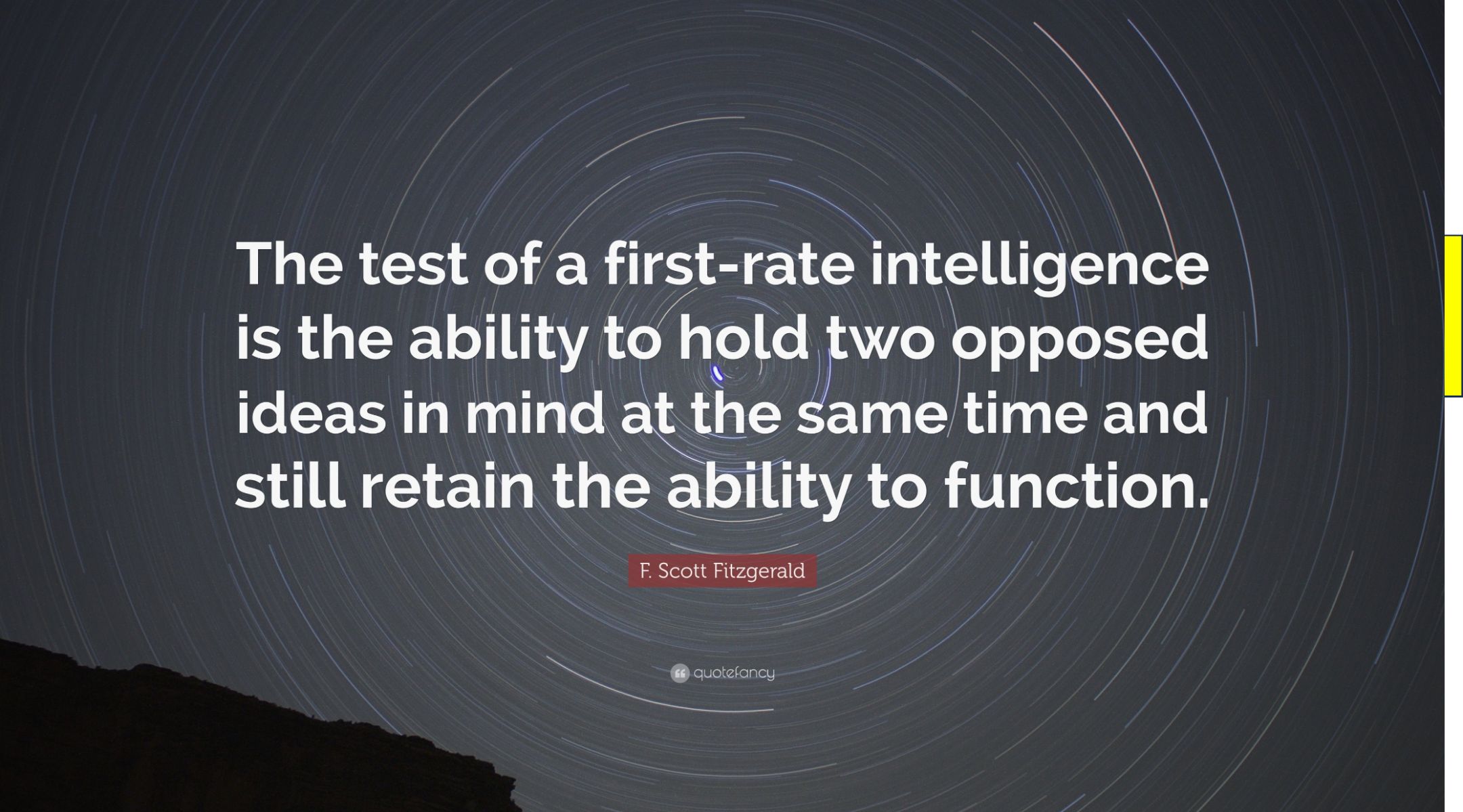

"The test of a first-rate intelligence is the ability to hold two opposed ideas in the mind at the same time, and still retain the ability to function." — F. Scott Fitzgerald
This famous quote captures the essence of a profound struggle that many individuals face, particularly in our modern world—one that resonates deeply with the themes in Fitzgerald's The Crack-Up. In his reflective essay, Fitzgerald confronts the weight of freedom and the paradoxes inherent in the human condition. He reveals his own existential crisis, where the burden of choices and societal expectations leads to profound disillusionment.
Fitzgerald's struggle is a powerful reminder of the complexities we navigate in our quest for purpose. He articulates a sense of isolation and the painful unraveling of the self, pointing to the illusion of the persona we often create to meet societal demands. His journey through despair illuminates the challenge of balancing our responsibilities to ourselves and to others, a theme that is increasingly relevant in today's fast-paced, hyper-connected world.
At its core, Fitzgerald’s struggle is not merely about the ability to juggle conflicting ideas but about seeking wisdom in the face of uncertainty. In a society that often pressures us to conform, the challenge becomes how to honor our "authentic selves" while fulfilling our roles in the broader community. The paradox of freedom lies in the responsibility it entails—freedom is not simply a lack of constraints; it demands that we make choices, face their consequences, and own our paths.
When we consider the demands placed on us by society, our personal aspirations, and the unpredictable nature of the world around us, the need for practical wisdom becomes apparent. It’s not enough to simply hold two opposing ideas; true "intelligence" requires us to seek understanding that transcends and sublates those contradictions. It calls for a deep and dialectical engagement with our values, our relationships, and our responsibilities. As Bhaskar points out, transformation lies not simply in the difference or deconstruction of ideas, but in the cultivation of the underlying structures and character that enable them.
Freedom, as Fitzgerald notes, can become a burden. Yet, as he suggests: "Trouble has no necessary connection with discouragement—discouragement has a germ of its own, as different from trouble as arthritis is different from a stiff joint". As adults, we must embrace our roles as responsible agents in both our lives and the lives of others. It requires a journey toward self-development that recognizes the existential tension between societal claims, personal callings, and the inherent impossibility of controlling the world around us. As we navigate these complexities, it's essential to cultivate wisdom rather than merely intellectual cleverness, along with the willingness to let go of old identities.
#leadership #transformation #personaldevelopment #creativity #innovation #good
"The test of a first-rate intelligence is the ability to hold two opposed ideas in the mind at the same time, and still retain the ability to function." — F. Scott Fitzgerald
This famous quote captures the essence of a profound struggle that many individuals face, particularly in our modern world—one that resonates deeply with the themes in Fitzgerald's The Crack-Up. In his reflective essay, Fitzgerald confronts the weight of freedom and the paradoxes inherent in the human condition. He reveals his own existential crisis, where the burden of choices and societal expectations leads to profound disillusionment.
Fitzgerald's struggle is a powerful reminder of the complexities we navigate in our quest for purpose. He articulates a sense of isolation and the painful unraveling of the self, pointing to the illusion of the persona we often create to meet societal demands. His journey through despair illuminates the challenge of balancing our responsibilities to ourselves and to others, a theme that is increasingly relevant in today's fast-paced, hyper-connected world.
At its core, Fitzgerald’s struggle is not merely about the ability to juggle conflicting ideas but about seeking wisdom in the face of uncertainty. In a society that often pressures us to conform, the challenge becomes how to honor our "authentic selves" while fulfilling our roles in the broader community. The paradox of freedom lies in the responsibility it entails—freedom is not simply a lack of constraints; it demands that we make choices, face their consequences, and own our paths.
When we consider the demands placed on us by society, our personal aspirations, and the unpredictable nature of the world around us, the need for practical wisdom becomes apparent. It’s not enough to simply hold two opposing ideas; true "intelligence" requires us to seek understanding that transcends and sublates those contradictions. It calls for a deep and dialectical engagement with our values, our relationships, and our responsibilities. As Bhaskar points out, transformation lies not simply in the difference or deconstruction of ideas, but in the cultivation of the underlying structures and character that enable them.
Freedom, as Fitzgerald notes, can become a burden. Yet, as he suggests: "Trouble has no necessary connection with discouragement—discouragement has a germ of its own, as different from trouble as arthritis is different from a stiff joint". As adults, we must embrace our roles as responsible agents in both our lives and the lives of others. It requires a journey toward self-development that recognizes the existential tension between societal claims, personal callings, and the inherent impossibility of controlling the world around us. As we navigate these complexities, it's essential to cultivate wisdom rather than merely intellectual cleverness, along with the willingness to let go of old identities.
#leadership #transformation #personaldevelopment #creativity #innovation #good
03-10-2024



✨ Why You Should Study Philosophy ✨
Philosophy isn't just for academics—it's a powerful tool for anyone looking to live a more thoughtful, fulfilling life. Here’s why it matters, backed by research:
🧠 Sharpens Critical Thinking: Studies show that philosophy majors significantly improve their Habits of Mind—the ability to revise writing, seek feedback, and ask insightful questions—more than non-philosophy majors. These skills enhance intellectual rigor and problem-solving, which are invaluable in both professional and personal life.
🌿 Enhances Self-Understanding: Philosophy majors report a 40% greater increase in their sense of self-understanding compared to non-philosophy students. Engaging with philosophical questions helps you explore your own values, beliefs, and motivations, leading to deeper personal growth.
🔓 Builds Open-Mindedness: Philosophy majors show a notable increase in pluralistic orientation—the openness to having their views challenged and discussing controversial topics. This makes philosophy graduates more adept at navigating diverse perspectives, a critical skill in our increasingly polarized world.
💪 Prepares You for Life’s Challenges: While philosophy majors might enter college with an intellectual curiosity advantage, their studies further enhance traits like curiosity, open-mindedness, and reflectiveness. This combination prepares them to tackle life’s uncertainties and moral dilemmas with wisdom and resilience.
Link to the research: https://philpapers.org/rec/PRITIO-26
In short, studying philosophy fosters a unique blend of intellectual rigor, self-awareness, and openness that helps you thrive both personally and professionally. 🌟
#philosophy #wisdom #leadership #personaldevelopment #management #phronesis
✨ Why You Should Study Philosophy ✨
Philosophy isn't just for academics—it's a powerful tool for anyone looking to live a more thoughtful, fulfilling life. Here’s why it matters, backed by research:
🧠 Sharpens Critical Thinking: Studies show that philosophy majors significantly improve their Habits of Mind—the ability to revise writing, seek feedback, and ask insightful questions—more than non-philosophy majors. These skills enhance intellectual rigor and problem-solving, which are invaluable in both professional and personal life.
🌿 Enhances Self-Understanding: Philosophy majors report a 40% greater increase in their sense of self-understanding compared to non-philosophy students. Engaging with philosophical questions helps you explore your own values, beliefs, and motivations, leading to deeper personal growth.
🔓 Builds Open-Mindedness: Philosophy majors show a notable increase in pluralistic orientation—the openness to having their views challenged and discussing controversial topics. This makes philosophy graduates more adept at navigating diverse perspectives, a critical skill in our increasingly polarized world.
💪 Prepares You for Life’s Challenges: While philosophy majors might enter college with an intellectual curiosity advantage, their studies further enhance traits like curiosity, open-mindedness, and reflectiveness. This combination prepares them to tackle life’s uncertainties and moral dilemmas with wisdom and resilience.
Link to the research: https://philpapers.org/rec/PRITIO-26
In short, studying philosophy fosters a unique blend of intellectual rigor, self-awareness, and openness that helps you thrive both personally and professionally. 🌟
#philosophy #wisdom #leadership #personaldevelopment #management #phronesis
01-10-2024

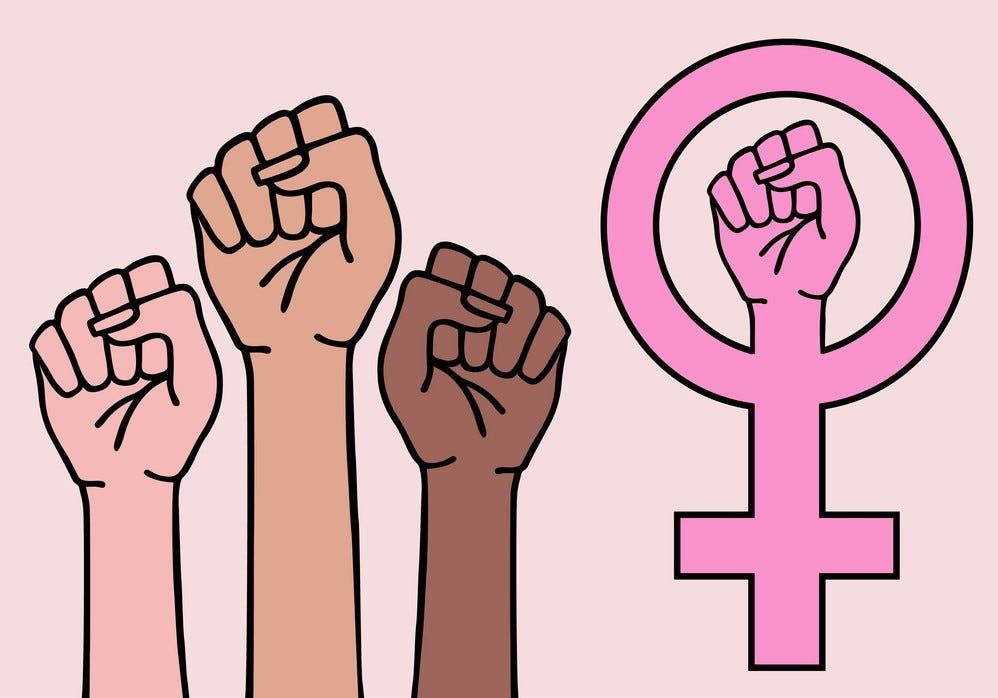

✨ What Are the Problems with #FEMINISM? ✨ Ah, the problems with feminism—surely it’s MEN, and especially men daring to write about feminism, right?! Well, not exactly. While it’s certainly risky territory for men ;-), many of the sharpest critiques actually come from within the movement itself. Here are some of the key issues raised:
🔹 Fragmentation of the Movement:
Feminism’s diversity (liberal, radical, intersectional) leads to fragmentation, making it hard to present a unified agenda.
🔹 Excessive Focus on Identity Politics:
Feminism’s shift toward identity politics diverts attention from material issues like class and economic justice.
🔹 Reinforcement of Gender Binaries:
Focusing on "woman" and "man" risks reinforcing the binaries feminism seeks to dismantle.
🔹 Exclusion of Intersectional Perspectives:
Mainstream feminism often prioritizes white, middle-class women’s experiences, neglecting marginalized groups or sidelining non-Western perspectives.
🔹 Victimhood Narratives:
Some argue that focusing on victimhood risks portraying women as perpetual victims, undermining their agency.
🔹 Rejection of Biological Differences:
Critics suggest feminism sometimes ignores biological differences, leading to flawed policies.
🔹 Failure to Address Reproductive Labor:
Feminism can overlook unpaid domestic work, undervalued but crucial to economies.
⚠️ Perhaps the most troubling issue is feminism’s co-optation by neoliberalism. Nancy Fraser and others argue that feminism has strayed from its original goals. Second-wave feminism offered two futures: one linking emancipation with solidarity, and another focused on individual meritocracy. Unfortunately, the movement has often leaned toward the latter. Where feminists once critiqued careerism, they now encourage women to "lean in" and pursue individual success.
💬 The critique of the "family wage"—meant to challenge traditional roles—has been co-opted to justify "flexible capitalism," exploiting women’s labor without providing economic security. Many women now face lower wages, job insecurity, and the burden of balancing work and home.
💬 Feminism’s focus on cultural issues like gender identity has overshadowed the critical struggle for economic justice. This shift aligns with neoliberalism, promoting individual empowerment at the expense of social equality.
💬 Feminism’s critique of welfare-state paternalism, once progressive, is now entangled with neoliberal market solutions. Initiatives like microcredit, designed to empower women, have replaced comprehensive state efforts to address poverty, leaving systemic inequalities unchallenged.
🌱 In summary, while feminism has made great strides, it faces significant challenges. The movement must reclaim its radical roots to ensure that women’s liberation fosters a more just world. Feminism’s potential for solidarity remains, but it must break free from neoliberal narratives.
Join us for #BusinessforHumanity to find out more!
#transformation #leadership
✨ What Are the Problems with #FEMINISM? ✨ Ah, the problems with feminism—surely it’s MEN, and especially men daring to write about feminism, right?! Well, not exactly. While it’s certainly risky territory for men ;-), many of the sharpest critiques actually come from within the movement itself. Here are some of the key issues raised:
🔹 Fragmentation of the Movement:
Feminism’s diversity (liberal, radical, intersectional) leads to fragmentation, making it hard to present a unified agenda.
🔹 Excessive Focus on Identity Politics:
Feminism’s shift toward identity politics diverts attention from material issues like class and economic justice.
🔹 Reinforcement of Gender Binaries:
Focusing on "woman" and "man" risks reinforcing the binaries feminism seeks to dismantle.
🔹 Exclusion of Intersectional Perspectives:
Mainstream feminism often prioritizes white, middle-class women’s experiences, neglecting marginalized groups or sidelining non-Western perspectives.
🔹 Victimhood Narratives:
Some argue that focusing on victimhood risks portraying women as perpetual victims, undermining their agency.
🔹 Rejection of Biological Differences:
Critics suggest feminism sometimes ignores biological differences, leading to flawed policies.
🔹 Failure to Address Reproductive Labor:
Feminism can overlook unpaid domestic work, undervalued but crucial to economies.
⚠️ Perhaps the most troubling issue is feminism’s co-optation by neoliberalism. Nancy Fraser and others argue that feminism has strayed from its original goals. Second-wave feminism offered two futures: one linking emancipation with solidarity, and another focused on individual meritocracy. Unfortunately, the movement has often leaned toward the latter. Where feminists once critiqued careerism, they now encourage women to "lean in" and pursue individual success.
💬 The critique of the "family wage"—meant to challenge traditional roles—has been co-opted to justify "flexible capitalism," exploiting women’s labor without providing economic security. Many women now face lower wages, job insecurity, and the burden of balancing work and home.
💬 Feminism’s focus on cultural issues like gender identity has overshadowed the critical struggle for economic justice. This shift aligns with neoliberalism, promoting individual empowerment at the expense of social equality.
💬 Feminism’s critique of welfare-state paternalism, once progressive, is now entangled with neoliberal market solutions. Initiatives like microcredit, designed to empower women, have replaced comprehensive state efforts to address poverty, leaving systemic inequalities unchallenged.
🌱 In summary, while feminism has made great strides, it faces significant challenges. The movement must reclaim its radical roots to ensure that women’s liberation fosters a more just world. Feminism’s potential for solidarity remains, but it must break free from neoliberal narratives.
Join us for #BusinessforHumanity to find out more!
#transformation #leadership
30-09-2024
Rethinking Sustainable Investing in Asset Management 🌍💰
The asset management industry claims to be all about sustainable investing, but a recent survey shows the reality is quite different. Dirk Jenter and his team surveyed 509 equity portfolio managers to see how much firms’ environmental and social (ES) performance really matters in their investment strategies. The results? A lot of talk, but when it comes to the bottom line, it’s all about profits.
Despite the hype, it seems the commitment to truly integrating ES performance into investment decisions is weak.
Key Findings from the Survey 📊
Profitability Over Principles: Most portfolio managers, whether managing traditional or sustainable funds, won't sacrifice even a fraction of returns to support ES goals. Their fiduciary duty to clients trumps everything else.
Low Priority for ES Performance: When ranking factors that contribute to long-term firm value, managers consistently placed ES performance dead last. They might acknowledge its relevance, but it’s clearly not a priority.
Similar Expectations Across Fund Types: Traditional and sustainable fund managers expect similar returns and see strong ES performance as a sign of a well-managed company, not necessarily a key to financial success.
Constraints Influence Decision-Making: Many fund managers face ES-related constraints from firm policies or client demands, but these pressures aren’t exclusive to sustainable funds. Both types of funds focus on financial objectives while dealing with outside pressures.
Implications for Sustainable Investing 🤔
These findings prompt serious questions about the effectiveness of sustainable investing in driving corporate responsibility:
1. Limited Influence on ES Performance: Don’t expect the asset management industry to lead the charge for better ES performance. Most managers only care about ES considerations when they have financial implications.
2. Misleading Fund Labels: Just because a fund says “sustainable” doesn’t mean it prioritizes social goals. Many sustainable fund managers focus primarily on financial returns, while traditional ones may also consider ES performance if it aligns with profit motives. So, look beyond the label—dive into the actual investment strategies and voting patterns to know what you’re really getting.
As Hans points out, sustainability investing often seems to be mostly about marketing. But that cannot be enough—sustainability shouldn’t just be an add-on; it should be a core investment principle. It’s time for real action, not just nice words!
Hans Stegeman' post: https://www.linkedin.com/feed/update/urn:li:activity:7248679590871674880/
Research: https://papers.ssrn.com/sol3/papers.cfm?abstract_id=4963062
Rethinking Sustainable Investing in Asset Management 🌍💰
The asset management industry claims to be all about sustainable investing, but a recent survey shows the reality is quite different. Dirk Jenter and his team surveyed 509 equity portfolio managers to see how much firms’ environmental and social (ES) performance really matters in their investment strategies. The results? A lot of talk, but when it comes to the bottom line, it’s all about profits.
Despite the hype, it seems the commitment to truly integrating ES performance into investment decisions is weak.
Key Findings from the Survey 📊
Profitability Over Principles: Most portfolio managers, whether managing traditional or sustainable funds, won't sacrifice even a fraction of returns to support ES goals. Their fiduciary duty to clients trumps everything else.
Low Priority for ES Performance: When ranking factors that contribute to long-term firm value, managers consistently placed ES performance dead last. They might acknowledge its relevance, but it’s clearly not a priority.
Similar Expectations Across Fund Types: Traditional and sustainable fund managers expect similar returns and see strong ES performance as a sign of a well-managed company, not necessarily a key to financial success.
Constraints Influence Decision-Making: Many fund managers face ES-related constraints from firm policies or client demands, but these pressures aren’t exclusive to sustainable funds. Both types of funds focus on financial objectives while dealing with outside pressures.
Implications for Sustainable Investing 🤔
These findings prompt serious questions about the effectiveness of sustainable investing in driving corporate responsibility:
1. Limited Influence on ES Performance: Don’t expect the asset management industry to lead the charge for better ES performance. Most managers only care about ES considerations when they have financial implications.
2. Misleading Fund Labels: Just because a fund says “sustainable” doesn’t mean it prioritizes social goals. Many sustainable fund managers focus primarily on financial returns, while traditional ones may also consider ES performance if it aligns with profit motives. So, look beyond the label—dive into the actual investment strategies and voting patterns to know what you’re really getting.
As Hans points out, sustainability investing often seems to be mostly about marketing. But that cannot be enough—sustainability shouldn’t just be an add-on; it should be a core investment principle. It’s time for real action, not just nice words!
Hans Stegeman' post: https://www.linkedin.com/feed/update/urn:li:activity:7248679590871674880/
Research: https://papers.ssrn.com/sol3/papers.cfm?abstract_id=4963062
✨ What Are the Problems with #FEMINISM? ✨ Ah, the problems with feminism—surely it’s MEN, and especially men daring to write about feminism, right?! Well, not exactly. While it’s certainly risky territory for men ;-), many of the sharpest critiques actually come from within the movement itself. Here are some of the key issues raised:
🔹 Fragmentation of the Movement:
Feminism’s diversity (liberal, radical, intersectional) leads to fragmentation, making it hard to present a unified agenda.
🔹 Excessive Focus on Identity Politics:
Feminism’s shift toward identity politics diverts attention from material issues like class and economic justice.
🔹 Reinforcement of Gender Binaries:
Focusing on "woman" and "man" risks reinforcing the binaries feminism seeks to dismantle.
🔹 Exclusion of Intersectional Perspectives:
Mainstream feminism often prioritizes white, middle-class women’s experiences, neglecting marginalized groups or sidelining non-Western perspectives.
🔹 Victimhood Narratives:
Some argue that focusing on victimhood risks portraying women as perpetual victims, undermining their agency.
🔹 Rejection of Biological Differences:
Critics suggest feminism sometimes ignores biological differences, leading to flawed policies.
🔹 Failure to Address Reproductive Labor:
Feminism can overlook unpaid domestic work, undervalued but crucial to economies.
⚠️ Perhaps the most troubling issue is feminism’s co-optation by neoliberalism. Nancy Fraser and others argue that feminism has strayed from its original goals. Second-wave feminism offered two futures: one linking emancipation with solidarity, and another focused on individual meritocracy. Unfortunately, the movement has often leaned toward the latter. Where feminists once critiqued careerism, they now encourage women to "lean in" and pursue individual success.
💬 The critique of the "family wage"—meant to challenge traditional roles—has been co-opted to justify "flexible capitalism," exploiting women’s labor without providing economic security. Many women now face lower wages, job insecurity, and the burden of balancing work and home.
💬 Feminism’s focus on cultural issues like gender identity has overshadowed the critical struggle for economic justice. This shift aligns with neoliberalism, promoting individual empowerment at the expense of social equality.
💬 Feminism’s critique of welfare-state paternalism, once progressive, is now entangled with neoliberal market solutions. Initiatives like microcredit, designed to empower women, have replaced comprehensive state efforts to address poverty, leaving systemic inequalities unchallenged.
🌱 In summary, while feminism has made great strides, it faces significant challenges. The movement must reclaim its radical roots to ensure that women’s liberation fosters a more just world. Feminism’s potential for solidarity remains, but it must break free from neoliberal narratives.
Join us for #BusinessforHumanity to find out more!
#transformation #leadership
28-09-2024
27-09-2024



Thus Speaks Zaratustra [2024]
Perhaps Nietzsche would have laughed—or more likely grimaced—at the 21st century. In an era where people spend more time scrolling their phones than thinking, where conformity masquerades as “progress,” and mediocrity shouts from every digital soapbox, Nietzsche would have seen decay.
- Our so-called “freedom”? A gilded cage, where we’ve traded the pursuit of greatness for the illusion of choice. Consumers trapped in an endless cycle of purchasing meaning through products and hashtags.
- The Overman? Laughable. We’ve traded the will to power for the will to post, replacing bold, transformative action with hollow virtue signaling and corporate-approved politically correct outrage.
- And the death of God? For Nietzsche, an existential crisis; for us, another clickbait headline.
We live in the age of the Last Man: a shallow, self-satisfied creature who seeks nothing beyond comfort, safety, and distractions. The void of meaning is already here, and rather than confronting it, we’ve filled it with Netflix, TikTok, and wellness classes.
Nietzsche would also decry the intricate link between our hollow definition of success and the political mediocrity of our age. Today's so-called “leaders” are clever functionaries, not visionaries. They’ve mastered their silos but lack the imagination to shape culture, leaving the herd to trample toward global collapse. Their skill isn’t greatness but narrow competence, driven by a lack of morality, wisdom, and public intellect.
- The entrepreneur has confused marketing with meaning, mistaking personal gain for public progress. Chasing profits and "disruption," they may shape markets, but fail to elevate the human spirit.
- The academic, instead of seeking truth is chasing grants and hiding behind jargon and Thinkers50 rankings. The narrowness of their expertise mirrors their moral blindness.
In this void, what rises? Not the strong, not the wise, but the society of spectacle—unintelligent, amorphous mediocrity, numb to depth. Instead of striving for greatness, the masses cry for equality, not as empowerment, but as a flattening force to drag everyone to the same dullness. The herd no longer struggles for enlightenment, but craves validation and comfort. Political leaders aren’t chosen for wisdom; politics is no longer about shaping the future but pandering to the lowest denominator.
Social media magnifies the clamour——a global stage where we forge our identities in the echo chamber of likes and retweets, confusing attention for mastery. Beneath it all lies profound numbness— a deepening detachment from life itself. Instead of embracing our full potential with courage, creativity, and a genuine love of existence, we settle for hollow success and the apotheosis of the crowd, sinking further into a self-imposed inadequacy.
Thus Speaks Zarathustra: "This is the age of the Last Men, those who trudge toward the death of all meaning, deluding themselves that they have found paradise."
Thus Speaks Zaratustra [2024]
Perhaps Nietzsche would have laughed—or more likely grimaced—at the 21st century. In an era where people spend more time scrolling their phones than thinking, where conformity masquerades as “progress,” and mediocrity shouts from every digital soapbox, Nietzsche would have seen decay.
- Our so-called “freedom”? A gilded cage, where we’ve traded the pursuit of greatness for the illusion of choice. Consumers trapped in an endless cycle of purchasing meaning through products and hashtags.
- The Overman? Laughable. We’ve traded the will to power for the will to post, replacing bold, transformative action with hollow virtue signaling and corporate-approved politically correct outrage.
- And the death of God? For Nietzsche, an existential crisis; for us, another clickbait headline.
We live in the age of the Last Man: a shallow, self-satisfied creature who seeks nothing beyond comfort, safety, and distractions. The void of meaning is already here, and rather than confronting it, we’ve filled it with Netflix, TikTok, and wellness classes.
Nietzsche would also decry the intricate link between our hollow definition of success and the political mediocrity of our age. Today's so-called “leaders” are clever functionaries, not visionaries. They’ve mastered their silos but lack the imagination to shape culture, leaving the herd to trample toward global collapse. Their skill isn’t greatness but narrow competence, driven by a lack of morality, wisdom, and public intellect.
- The entrepreneur has confused marketing with meaning, mistaking personal gain for public progress. Chasing profits and "disruption," they may shape markets, but fail to elevate the human spirit.
- The academic, instead of seeking truth is chasing grants and hiding behind jargon and Thinkers50 rankings. The narrowness of their expertise mirrors their moral blindness.
In this void, what rises? Not the strong, not the wise, but the society of spectacle—unintelligent, amorphous mediocrity, numb to depth. Instead of striving for greatness, the masses cry for equality, not as empowerment, but as a flattening force to drag everyone to the same dullness. The herd no longer struggles for enlightenment, but craves validation and comfort. Political leaders aren’t chosen for wisdom; politics is no longer about shaping the future but pandering to the lowest denominator.
Social media magnifies the clamour——a global stage where we forge our identities in the echo chamber of likes and retweets, confusing attention for mastery. Beneath it all lies profound numbness— a deepening detachment from life itself. Instead of embracing our full potential with courage, creativity, and a genuine love of existence, we settle for hollow success and the apotheosis of the crowd, sinking further into a self-imposed inadequacy.
Thus Speaks Zarathustra: "This is the age of the Last Men, those who trudge toward the death of all meaning, deluding themselves that they have found paradise."
26-09-2024

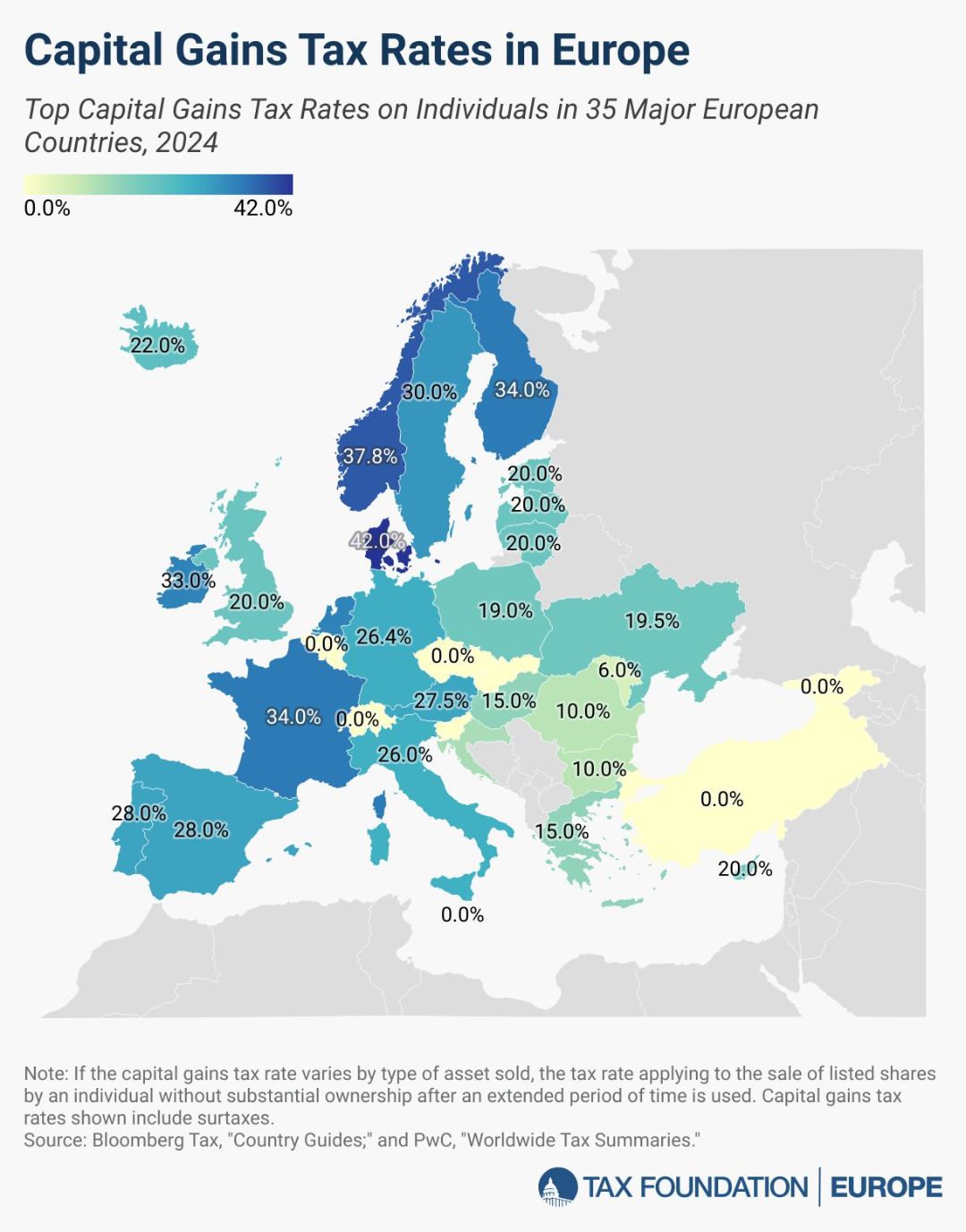

Tax Justice Now: The Capital Gains Tax Scam
For far too long, our global tax system has been a cocktail party for the elite, where the wealthy sip champagne while the workers foot the bill. The chasm between capital gains tax (CGT) and income tax rates isn’t just an oversight; it’s born from a pro-capital ideology that festers inequality, fuels unsustainable resource exploitation, and offloads the cost of social welfare onto the middle classes who toil for a living. Meanwhile, the privileged few, who profit from inheritance or speculation, waltz through life unfazed.
1. The Myth of Investment Incentives
Advocates of lower CGT rates love to tout them as a catalyst for investment and economic competitiveness. But most capital gains arise from existing investments, not fresh ones. Analysis reveals that a growing share of corporate profits funneled to shareholders isn’t being reinvested; instead, it simply lines the pockets of the wealthy.
2. The False Promise of Job Creation
Another recurring myth is that lower CGT rates magically generate jobs and healthy growth. In truth, it’s consumer demand—not tax breaks for the rich—that drives employment. If companies truly prioritized creating jobs, they would invest in their workforce to upskill and empower the very people who keep their operations running.
3. The Illusion of Protecting Small Investors
Some claim that low CGT rates protect small investors and retirees. However, the bulk of capital gains flow to the wealthiest individuals. Studies show that e.g. the top 1% Americans hold over 50% of assets, disproportionately benefiting from lower CGT rates. Meanwhile, the working class pays higher taxes on wages, perpetuating inequality.
4. The Inadequate Response to Inflation
The idea that low CGT rates combat inflation is fundamentally misguided. In reality, higher CGT rates can foster stability by redistributing wealth, enabling greater public investment in essential services like education and healthcare, which ultimately benefit us all.
The Call for Tax Justice
It’s time to demand tax justice. We need to equalize CGT with income tax. Why should capital be taxed at a lower rate than labour? Low CGT rates shift the burden of social welfare onto workers. With the wealthy paying less, states often raise taxes on wages or cut essential services. This isn't just unfair; it’s unsustainable. Piketty’s analysis demonstrates that workers effectively subsidize a rigged system where the rich thrive simply by owning wealth.
We must also consider taxing activities that harm our planet or society—pollution, resource depletion, environmental degradation, and speculation. Not only would this generate essential revenue, but it would also promote sustainable practices that benefit us all.
Capital should no longer escape its duty—wealth is a privilege, not a right. We need tax justice for a better future for our economy, our planet, and our society.
#transformation #leadership #justice
Tax Justice Now: The Capital Gains Tax Scam
For far too long, our global tax system has been a cocktail party for the elite, where the wealthy sip champagne while the workers foot the bill. The chasm between capital gains tax (CGT) and income tax rates isn’t just an oversight; it’s born from a pro-capital ideology that festers inequality, fuels unsustainable resource exploitation, and offloads the cost of social welfare onto the middle classes who toil for a living. Meanwhile, the privileged few, who profit from inheritance or speculation, waltz through life unfazed.
1. The Myth of Investment Incentives
Advocates of lower CGT rates love to tout them as a catalyst for investment and economic competitiveness. But most capital gains arise from existing investments, not fresh ones. Analysis reveals that a growing share of corporate profits funneled to shareholders isn’t being reinvested; instead, it simply lines the pockets of the wealthy.
2. The False Promise of Job Creation
Another recurring myth is that lower CGT rates magically generate jobs and healthy growth. In truth, it’s consumer demand—not tax breaks for the rich—that drives employment. If companies truly prioritized creating jobs, they would invest in their workforce to upskill and empower the very people who keep their operations running.
3. The Illusion of Protecting Small Investors
Some claim that low CGT rates protect small investors and retirees. However, the bulk of capital gains flow to the wealthiest individuals. Studies show that e.g. the top 1% Americans hold over 50% of assets, disproportionately benefiting from lower CGT rates. Meanwhile, the working class pays higher taxes on wages, perpetuating inequality.
4. The Inadequate Response to Inflation
The idea that low CGT rates combat inflation is fundamentally misguided. In reality, higher CGT rates can foster stability by redistributing wealth, enabling greater public investment in essential services like education and healthcare, which ultimately benefit us all.
The Call for Tax Justice
It’s time to demand tax justice. We need to equalize CGT with income tax. Why should capital be taxed at a lower rate than labour? Low CGT rates shift the burden of social welfare onto workers. With the wealthy paying less, states often raise taxes on wages or cut essential services. This isn't just unfair; it’s unsustainable. Piketty’s analysis demonstrates that workers effectively subsidize a rigged system where the rich thrive simply by owning wealth.
We must also consider taxing activities that harm our planet or society—pollution, resource depletion, environmental degradation, and speculation. Not only would this generate essential revenue, but it would also promote sustainable practices that benefit us all.
Capital should no longer escape its duty—wealth is a privilege, not a right. We need tax justice for a better future for our economy, our planet, and our society.
#transformation #leadership #justice
25-09-2024

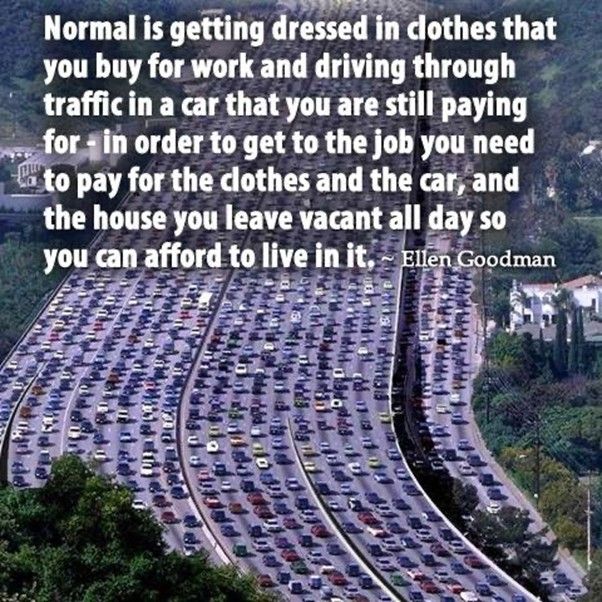

Hand on Heart: Are You Stuck in Functional Stupidity?
Are you getting dressed each morning in work clothes, driving through traffic in a car you’re still paying for, all to reach a job that funds those clothes, the car, and the house you leave empty all day? I fear this sentiment resonates deeply with many of us in our fast-paced lives, as echoed by Hunter Lovins in our recent #BusinessforHumanity interview.
Many people I meet express a profound desire to “have an impact.” Yet, as Clayton Christensen highlights in his famous HBR article, this is not easy. Impact can often be elusive, particularly in our complex world—unless you happen to be a powerful business tycoon or politician. The term "impact" itself can lead us down a slippery slope into utilitarianism, where we assess life’s worth through a simple cost-benefit analysis. Left unexamined, our desire to make a difference can mislead us, as Simon Western often cautions.
This challenge becomes even greater in the workplace, where we spend over 100k hours of our lives. As Mats Alvesson points out, we often create systems so focused on superficial efficiency that we overlook larger questions. Consequently, even the smartest individuals can make surprisingly (and functionally) stupid choices.
Hence, as autumn gradually paints London’s leaves, signalling another year’s end, a sunny late-September Saturday might be a good time for a personal quarterly review. Consider when you last asked yourself:
* What legacy do I want to leave for others and the world around me, and does my daily job reflect this vision?
* Is my business genuinely organized to confront uncomfortable truths? Are we regularly questioning our goals, systems, processes and behaviour to nurture our legacy?
* How are we measuring success beyond profit, and what impact are we having on our people and communities?
These questions are vital and deserve reflection. As Clayton suggests, instead of merely seeking impact, it may be more beneficial to focus on being a good person—investing time in relationships and serving the greater good beyond mere profit while remaining true to our values. Yet, while individuals may take a lifetime to find answers, as business leaders, we bear the responsibility to exert our agency every single day. We must cultivate the consciousness and commitment necessary to create and implement a meaningful vision for the future.
The reality is that we can discuss complexity until the cows come home, but it often leads only to intellectual laziness or moral muteness. Responsible leadership is inherently ethical; we must consciously position ourselves within this intricate world to avoid succumbing to functional stupidity. Sadly, many of us never take the time to examine our assumptions, let alone consider alternative approaches.
With the planet burning, there are no excuses. The consequences of inertia will be dire—not just for us, but for all those who depend on our organizations.
#Leadership #Transformation
Hand on Heart: Are You Stuck in Functional Stupidity?
Are you getting dressed each morning in work clothes, driving through traffic in a car you’re still paying for, all to reach a job that funds those clothes, the car, and the house you leave empty all day? I fear this sentiment resonates deeply with many of us in our fast-paced lives, as echoed by Hunter Lovins in our recent #BusinessforHumanity interview.
Many people I meet express a profound desire to “have an impact.” Yet, as Clayton Christensen highlights in his famous HBR article, this is not easy. Impact can often be elusive, particularly in our complex world—unless you happen to be a powerful business tycoon or politician. The term "impact" itself can lead us down a slippery slope into utilitarianism, where we assess life’s worth through a simple cost-benefit analysis. Left unexamined, our desire to make a difference can mislead us, as Simon Western often cautions.
This challenge becomes even greater in the workplace, where we spend over 100k hours of our lives. As Mats Alvesson points out, we often create systems so focused on superficial efficiency that we overlook larger questions. Consequently, even the smartest individuals can make surprisingly (and functionally) stupid choices.
Hence, as autumn gradually paints London’s leaves, signalling another year’s end, a sunny late-September Saturday might be a good time for a personal quarterly review. Consider when you last asked yourself:
* What legacy do I want to leave for others and the world around me, and does my daily job reflect this vision?
* Is my business genuinely organized to confront uncomfortable truths? Are we regularly questioning our goals, systems, processes and behaviour to nurture our legacy?
* How are we measuring success beyond profit, and what impact are we having on our people and communities?
These questions are vital and deserve reflection. As Clayton suggests, instead of merely seeking impact, it may be more beneficial to focus on being a good person—investing time in relationships and serving the greater good beyond mere profit while remaining true to our values. Yet, while individuals may take a lifetime to find answers, as business leaders, we bear the responsibility to exert our agency every single day. We must cultivate the consciousness and commitment necessary to create and implement a meaningful vision for the future.
The reality is that we can discuss complexity until the cows come home, but it often leads only to intellectual laziness or moral muteness. Responsible leadership is inherently ethical; we must consciously position ourselves within this intricate world to avoid succumbing to functional stupidity. Sadly, many of us never take the time to examine our assumptions, let alone consider alternative approaches.
With the planet burning, there are no excuses. The consequences of inertia will be dire—not just for us, but for all those who depend on our organizations.
#Leadership #Transformation
31-08-2024



The Subtleties of Evolutionary Theory: Genes vs Groups
Almost everybody feels they understand Darwin’s Theory of Evolution by natural selection, often boiled down to the catchy but simplistic “survival of the fittest.” Yet, this reductionist view glosses over a profound and contentious debate - often omitted by the biology textbooks - about the true level at which natural selection operates: genes or groups.
Historically, Darwinian selection was believed to impact various levels of biological organization, from individuals to ecosystems. However, the 1960s and 1970s heralded a paradigm shift with Richard Dawkins' The Selfish Gene, which framed genes as the principal units of selection. This gene-centric view argues that genes drive evolutionary changes by promoting behaviors that ensure their own replication, thereby influencing the fitness of individuals who carry them. For instance, kin selection theory explains why individuals may exhibit altruistic behavior towards close relatives—by doing so, they help propagate shared genes.
In contrast, Multilevel Selection Theory (MST), championed by E.O. Wilson and David Sloan Wilson, reopens a discussion on group selection. MST posits that natural selection can operate not only at the level of individuals but also at the level of groups, where cooperative groups may outcompete less cooperative ones, offering a survival advantage. They point to examples like eusocial insects, where the extreme altruism of worker ants who forgo reproduction benefits the colony as a whole, illustrating how groups, as collective entities, can evolve traits that are beneficial beyond the scope of individual genes.
The crux of the debate lies in understanding the causality of evolution. Gene selectionists argue that traits observed at the group level are merely byproducts of individual-level selection. Moreover, they contend that any apparent group-level adaptations, such as altruism, are temporary and cannot persist. Dawkins famously questioned whether altruistic traits could ever become dominant, suggesting that any increase in group altruism would be undermined by individuals adopting selfish strategies, thus preventing genuine group-level adaptation. Conversely, group selectionists argue that certain traits will evolve at the group level, especially when groups exhibit coordination and cooperation that enhance their overall survival.
In this context, critical realism offers a valuable perspective. It highlights the need to examine causal mechanisms across different levels of reality, advocating for an integrated approach. Rather than viewing genes and groups as mutually exclusive, it allows for the recognition of group features as emergent properties, shaped by both genetic and relational dynamics. Basing our understanding of causality on a complex interplay of individual genes, phenotypes and group dynamics might offer a more comprehensive understanding of evolutionary processes.
#transformation #evolution
Image and further reading: https://www.americanscientist.org/article/evolution-for-the-good-of-the-group
The Subtleties of Evolutionary Theory: Genes vs Groups
Almost everybody feels they understand Darwin’s Theory of Evolution by natural selection, often boiled down to the catchy but simplistic “survival of the fittest.” Yet, this reductionist view glosses over a profound and contentious debate - often omitted by the biology textbooks - about the true level at which natural selection operates: genes or groups.
Historically, Darwinian selection was believed to impact various levels of biological organization, from individuals to ecosystems. However, the 1960s and 1970s heralded a paradigm shift with Richard Dawkins' The Selfish Gene, which framed genes as the principal units of selection. This gene-centric view argues that genes drive evolutionary changes by promoting behaviors that ensure their own replication, thereby influencing the fitness of individuals who carry them. For instance, kin selection theory explains why individuals may exhibit altruistic behavior towards close relatives—by doing so, they help propagate shared genes.
In contrast, Multilevel Selection Theory (MST), championed by E.O. Wilson and David Sloan Wilson, reopens a discussion on group selection. MST posits that natural selection can operate not only at the level of individuals but also at the level of groups, where cooperative groups may outcompete less cooperative ones, offering a survival advantage. They point to examples like eusocial insects, where the extreme altruism of worker ants who forgo reproduction benefits the colony as a whole, illustrating how groups, as collective entities, can evolve traits that are beneficial beyond the scope of individual genes.
The crux of the debate lies in understanding the causality of evolution. Gene selectionists argue that traits observed at the group level are merely byproducts of individual-level selection. Moreover, they contend that any apparent group-level adaptations, such as altruism, are temporary and cannot persist. Dawkins famously questioned whether altruistic traits could ever become dominant, suggesting that any increase in group altruism would be undermined by individuals adopting selfish strategies, thus preventing genuine group-level adaptation. Conversely, group selectionists argue that certain traits will evolve at the group level, especially when groups exhibit coordination and cooperation that enhance their overall survival.
In this context, critical realism offers a valuable perspective. It highlights the need to examine causal mechanisms across different levels of reality, advocating for an integrated approach. Rather than viewing genes and groups as mutually exclusive, it allows for the recognition of group features as emergent properties, shaped by both genetic and relational dynamics. Basing our understanding of causality on a complex interplay of individual genes, phenotypes and group dynamics might offer a more comprehensive understanding of evolutionary processes.
#transformation #evolution
31-08-2024

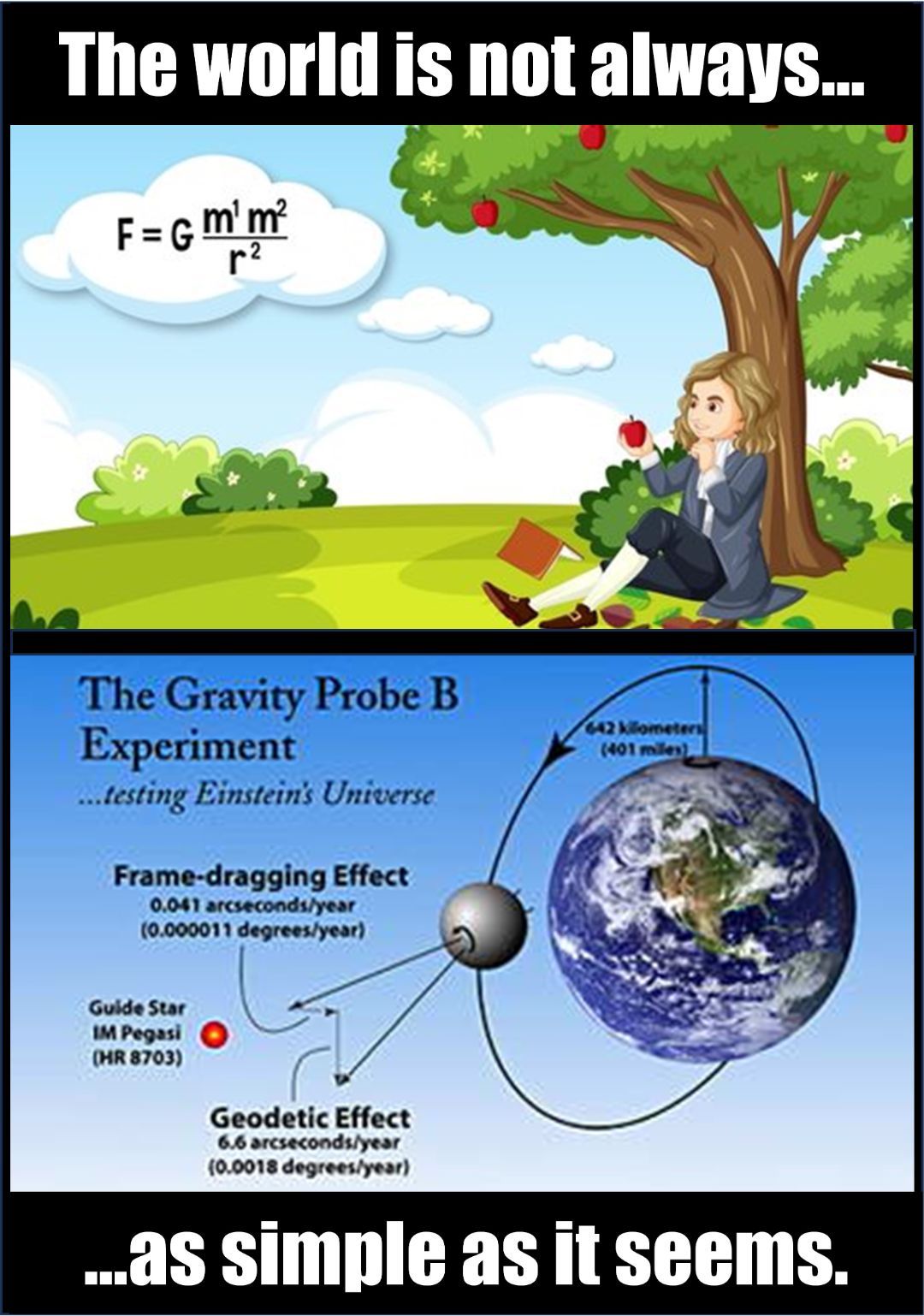

Social Reality is Curved: Rethinking Our Straight Lines of Understanding
Picture yourself sitting under a tree, watching an apple as it falls. Isaac Newton, the brilliant English polymath, understood this as gravity's pull—a predictable force acting between masses across space, governed by a universal law F=G*m1m2/r^2 (where G = gravitational constant, m = masses, r = distance). Everything seemed perfectly straightforward until Albert Einstein came along, demonstrating that the apple follows the curvature of "spacetime", shaped by the Earth’s mass.
This shift from Newton’s linear logic to Einstein’s curved reality mirrors how our understanding in the social sciences has evolved. For centuries, social sciences adopted a Newtonian approach, with thinkers like David Hume looking for clear, observable causes behind human actions. Revolutions, market trends, and societal shifts were analyzed as if they were apples falling—responses to direct, measurable forces like economic pressures or political decisions.
Just as Einstein transformed physics, critical realism, championed by Roy Bhaskar, disrupts our understanding of social behavior. Critical realism suggests that social actions are not merely reactions to visible forces but are shaped by deeper, often unseen structures. Much like Einstein’s curvature of spacetime, critical realism views social actions as shaped by underlying realities of history, ideology, and power.
Consider the fall of the Berlin Wall. A positivist might attribute it to economic hardship, political unrest, and popular protests as the direct, observable causes. However, a critical realist would argue that it resulted from deeper, more intricate conditions. The Wall didn’t fall merely because of protests; it collapsed under the weight of decades of ideological contradictions and geopolitical tensions—underlying forces that had been subtly shaping and influencing social reality long before its physical demise.
This analogy illustrates that social reality, much like the universe, is curved. Our behavior is not merely the result of gravity pushing and pulling but the outcome of complex, layered mechanisms where personal agency is intertwined with unseen structures. Just as an apple’s path is guided by the curvature of spacetime, our actions are influenced by the curved fabric of social morphogenesis—shaped by history, culture, and power in ways that aren’t immediately visible but are profoundly influential.
The shift from Newton to Einstein, and from Hume to Bhaskar, deepens our understanding of both natural and social worlds. It reveals that reality—whether physical or social—isn’t always straightforward. Instead of seeking straight lines, we should trace the curves, uncovering the hidden forces that bend and shape our paths. Like the universe itself, our social lives are woven into a dynamic, evolving world that profoundly influences everything we do.
#science #leadership #management #philosophy #transformation #wisdom
Social Reality is Curved: Rethinking Our Straight Lines of Understanding
Picture yourself sitting under a tree, watching an apple as it falls. Isaac Newton, the brilliant English polymath, understood this as gravity's pull—a predictable force acting between masses across space, governed by a universal law F=G*m1m2/r^2 (where G = gravitational constant, m = masses, r = distance). Everything seemed perfectly straightforward until Albert Einstein came along, demonstrating that the apple follows the curvature of "spacetime", shaped by the Earth’s mass.
This shift from Newton’s linear logic to Einstein’s curved reality mirrors how our understanding in the social sciences has evolved. For centuries, social sciences adopted a Newtonian approach, with thinkers like David Hume looking for clear, observable causes behind human actions. Revolutions, market trends, and societal shifts were analyzed as if they were apples falling—responses to direct, measurable forces like economic pressures or political decisions.
Just as Einstein transformed physics, critical realism, championed by Roy Bhaskar, disrupts our understanding of social behavior. Critical realism suggests that social actions are not merely reactions to visible forces but are shaped by deeper, often unseen structures. Much like Einstein’s curvature of spacetime, critical realism views social actions as shaped by underlying realities of history, ideology, and power.
Consider the fall of the Berlin Wall. A positivist might attribute it to economic hardship, political unrest, and popular protests as the direct, observable causes. However, a critical realist would argue that it resulted from deeper, more intricate conditions. The Wall didn’t fall merely because of protests; it collapsed under the weight of decades of ideological contradictions and geopolitical tensions—underlying forces that had been subtly shaping and influencing social reality long before its physical demise.
This analogy illustrates that social reality, much like the universe, is curved. Our behavior is not merely the result of gravity pushing and pulling but the outcome of complex, layered mechanisms where personal agency is intertwined with unseen structures. Just as an apple’s path is guided by the curvature of spacetime, our actions are influenced by the curved fabric of social morphogenesis—shaped by history, culture, and power in ways that aren’t immediately visible but are profoundly influential.
The shift from Newton to Einstein, and from Hume to Bhaskar, deepens our understanding of both natural and social worlds. It reveals that reality—whether physical or social—isn’t always straightforward. Instead of seeking straight lines, we should trace the curves, uncovering the hidden forces that bend and shape our paths. Like the universe itself, our social lives are woven into a dynamic, evolving world that profoundly influences everything we do.
#science #leadership #management #philosophy #transformation #wisdom
29-08-2024

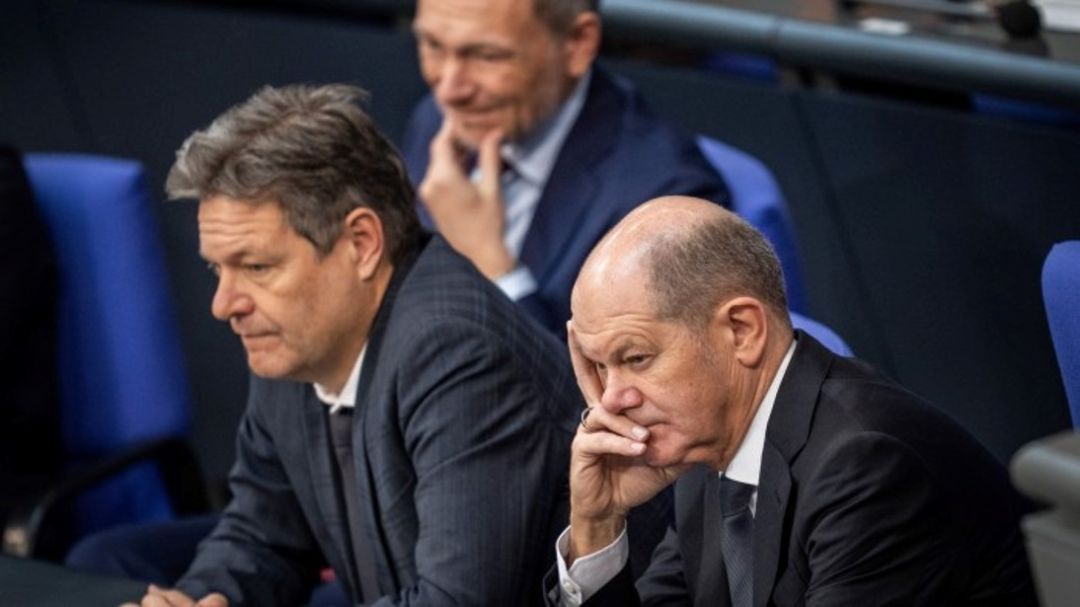

Denk ich an Deutschland in der Nacht: The Tragedy of German Politics
"Denk ich an Deutschland in der Nacht, so bin ich um den Schlaf gebracht." Heinrich Heine’s lament feels eerily appropriate in the era of Germany's Green-Red-Yellow coalition—a government led by an inglorious collection of career politicians, lacking both technical and practical expertise, and headed by a chancellor whose mediocrity has come to symbolize the decline of German politics. What was once the powerhouse of the European Union, a beacon of rational governance, Prussian efficiency, and democratic integrity, has become a shadow of its former self—inefficient, uninspired, and disturbingly out of touch.
#Germany’s current government is failing on almost every front. The coalition is mired in personal incompetence and internal infighting, with the narcissistic and minuscule #FDP behaving more like a lobby for big business than a legitimate political party. Each misstep further depletes the already limited political capital needed to address the population’s growing demands for #security and stability in a democratic, rational, and humane way. This mismanagement leaves a dangerous void, eagerly filled by populist forces on both the far right and left, who cynically promise to "restore" democracy—by dismantling its very foundations.
Meanwhile, the country is buckling under the weight of high energy prices and the failure of the transition to renewable energy. Germany’s famed efficiency has become a cruel joke, as evidenced by its crumbling public train network or its inadequate postal services. The once-dominant automotive industry, which has lost its way in the global shift to electric vehicles, seems intent on arrogantly sabotaging European sustainability targets whenever possible. A bloated, overpaid public bureaucracy is clinging stubbornly to outdated practices, anachronistic privileges and resisting better service and digitisation, mirroring the broader systemic inertia.
The upcoming regional #elections will likely reflect this disillusionment. As populists gain ground, the tired heirs of the disastrous Merkel era—those uninspiring conservatives and their Bavarian equivalent of Boris Johnson—are gleefully preparing to reclaim power. They vainly offer a return to the same stagnation and shortsightedness that brought #Germany to this crisis in the first place.
Heine's words echo with a powerful resonance today: "Denk ich an Deutschland in der Nacht, Dann bin ich um den Schlaf gebracht, Ich kann nicht mehr die Augen schließen, Und meine heißen Tränen fließen." Germany’s once-promising future is again a source of insomnia, a restless anxiety over a country led by those unfit to guide it through the challenges of our time.
Denk ich an Deutschland in der Nacht: The Tragedy of German Politics
"Denk ich an Deutschland in der Nacht, so bin ich um den Schlaf gebracht." Heinrich Heine’s lament feels eerily appropriate in the era of Germany's Green-Red-Yellow coalition—a government led by an inglorious collection of career politicians, lacking both technical and practical expertise, and headed by a chancellor whose mediocrity has come to symbolize the decline of German politics. What was once the powerhouse of the European Union, a beacon of rational governance, Prussian efficiency, and democratic integrity, has become a shadow of its former self—inefficient, uninspired, and disturbingly out of touch.
#Germany’s current government is failing on almost every front. The coalition is mired in personal incompetence and internal infighting, with the narcissistic and minuscule #FDP behaving more like a lobby for big business than a legitimate political party. Each misstep further depletes the already limited political capital needed to address the population’s growing demands for #security and stability in a democratic, rational, and humane way. This mismanagement leaves a dangerous void, eagerly filled by populist forces on both the far right and left, who cynically promise to "restore" democracy—by dismantling its very foundations.
Meanwhile, the country is buckling under the weight of high energy prices and the failure of the transition to renewable energy. Germany’s famed efficiency has become a cruel joke, as evidenced by its crumbling public train network or its inadequate postal services. The once-dominant automotive industry, which has lost its way in the global shift to electric vehicles, seems intent on arrogantly sabotaging European sustainability targets whenever possible. A bloated, overpaid public bureaucracy is clinging stubbornly to outdated practices, anachronistic privileges and resisting better service and digitisation, mirroring the broader systemic inertia.
The upcoming regional #elections will likely reflect this disillusionment. As populists gain ground, the tired heirs of the disastrous Merkel era—those uninspiring conservatives and their Bavarian equivalent of Boris Johnson—are gleefully preparing to reclaim power. They vainly offer a return to the same stagnation and shortsightedness that brought #Germany to this crisis in the first place.
Heine's words echo with a powerful resonance today: "Denk ich an Deutschland in der Nacht, Dann bin ich um den Schlaf gebracht, Ich kann nicht mehr die Augen schließen, Und meine heißen Tränen fließen." Germany’s once-promising future is again a source of insomnia, a restless anxiety over a country led by those unfit to guide it through the challenges of our time.
29-08-2024



Artificial Stupidity: How AI is Dumbing Down Corporate Leaders
AI is often celebrated as the ultimate tool for #leadership, promising unparalleled #efficiency and flawless decision-making. But what we are actually seeing is that the overreliance on so-called “#AI” and “big” data is eroding the intellectual rigor and moral compass leaders need in today’s complex world. Instead of elevating leadership, AI risks creating a dystopian future where leaders are systematically trained to follow simplistic algorithms and shirk responsibility.
The Automation of Ignorance: AI and Functional Stupidity
Mats Alvesson’s concept of “functional stupidity” describes how organizations foster a culture of conformity, focusing on narrow metrics, norms and procedures while discouraging critical thinking. This can yield short-term efficiency but cripples long-term adaptability, creativity and ethical reflection. AI, with its ready-made solutions and data-driven answers, can exacerbate the problem by providing one-dimensional fixes that stifle nuanced understanding of complex problems - further eroding the capacity for deeper questioning and reflection.
From Algorithms to Apathy: Ethical Blindness in Routine AI
Markus Scholz’s idea of “ethical blindness” adds another layer of concern. He warns that established organizational do not only engender conformity, but routines where individuals follow established patterns can desensitize individuals to the ethical implications of their work. As AI becomes embedded in routines, task autonomy becomes further limited and end-to-end responsibility further dispersed, encouraging a blind adherence to routine. Leaders may easily underestimate the "design risks" of over-automated processes.
From Visionary to Clueless: The Decline of Leadership Maturity
Andreas Scherer’s concept of “disorganising immaturity” further illustrates the problem. Drawing on Shoshana Zuboff’s idea of surveillance #capitalism, he argues that modern sociotechnological systems, including AI, systematically constrain employees' ability to use reason and judgment, inhibiting the development of maturity and autonomy. The complexity of AI overwhelms leaders, often causing them to rely excessively on #technology, and abandoning their #responsibility for context-sensitive and ethical decision-making or human-centric org development.
When Leaders Outsource Their Brains: The Perils of AI in Decision-Making
Integrating these concepts, it seems clear that AI doesn’t just enhance leadership; it can degrade it. AI has the potential to exacerbate existing mechanisms that make leaders intellectually and ethically complacent. By outsourcing critical thinking to "intelligent" algorithms, paradoxically, leaders risk becoming dumber, unable to tackle their roles with the necessary depth and insight. To counteract these effects, we must invest in safeguarding individual and collective autonomy and maintaining the capacity for independent, critical, and ethical thinking.
PS: Equating AI with human intelligence isn’t just a misjudgment of AI’s limitations—it’s a profound devaluation of human capabilities. This becomes dangerous when organizations design systems that treat humans and machines as interchangeable, expecting them to operate on the same level. This not only insults human intelligence but also risks systematically undermining our unique cognitive and ethical skills. Cui bono? It doesnt even require AI to answer that question.
Selected References (thanks to Hariton-Vasile Lutai for adding)
1: [Alvesson, M. & Spicer, A. (2016). The Stupidity Paradox: The Power and Pitfalls of Functional Stupidity at Work.]
2: [Scherer, A. G. (2009). Disorganising Immaturity: The Impact of AI on Leadership.]
3: [Markus Scholz (2022). Organizational Routines as a Source of Ethical Blindness.]
4: [Scherer, A. G., Neesham, C., Schoeneborn, D., & Scholz, M. (2023). New Challenges to the Enlightenment: How Twenty-First-Century Sociotechnological Systems Facilitate Organized Immaturity and How to Counteract It. Business Ethics Quarterly.]
https://archive.org/details/stupidityparadox0000alve
https://www.modemuk.org/2016/09/15/the-stupidity-paradox-the-power-and-pitfalls-of-functional-stupidity-at-work-by-mats-alvesson-andre-spicer-reviewed-by-vaughan-s-roberts/
https://link.springer.com/article/10.1007/s10551-011-1130-4
https://journals.sagepub.com/doi/pdf/10.1177/26317877221075640
https://www.cambridge.org/core/journals/business-ethics-quarterly/article/new-challenges-to-the-enlightenment-how-twentyfirstcentury-sociotechnological-systems-facilitate-organized-immaturity-and-how-to-counteract-it/01DDEF9DAB3F7D0286B25AB6174FB9AF
https://aeon.co/essays/your-brain-does-not-process-information-and-it-is-not-a-computer
Artificial Stupidity: How AI is Dumbing Down Corporate Leaders
AI is often celebrated as the ultimate tool for #leadership, promising unparalleled #efficiency and flawless decision-making. But what we are actually seeing is that the overreliance on so-called “#AI” and “big” data is eroding the intellectual rigor and moral compass leaders need in today’s complex world. Instead of elevating leadership, AI risks creating a dystopian future where leaders are systematically trained to follow simplistic algorithms and shirk responsibility.
The Automation of Ignorance: AI and Functional Stupidity
Mats Alvesson’s concept of “functional stupidity” describes how organizations foster a culture of conformity, focusing on narrow metrics, norms and procedures while discouraging critical thinking. This can yield short-term efficiency but cripples long-term adaptability, creativity and ethical reflection. AI, with its ready-made solutions and data-driven answers, can exacerbate the problem by providing one-dimensional fixes that stifle nuanced understanding of complex problems - further eroding the capacity for deeper questioning and reflection.
From Algorithms to Apathy: Ethical Blindness in Routine AI
Markus Scholz’s idea of “ethical blindness” adds another layer of concern. He warns that established organizational do not only engender conformity, but routines where individuals follow established patterns can desensitize individuals to the ethical implications of their work. As AI becomes embedded in routines, task autonomy becomes further limited and end-to-end responsibility further dispersed, encouraging a blind adherence to routine. Leaders may easily underestimate the "design risks" of over-automated processes.
From Visionary to Clueless: The Decline of Leadership Maturity
Andreas Scherer’s concept of “disorganising immaturity” further illustrates the problem. Drawing on Shoshana Zuboff’s idea of surveillance #capitalism, he argues that modern sociotechnological systems, including AI, systematically constrain employees' ability to use reason and judgment, inhibiting the development of maturity and autonomy. The complexity of AI overwhelms leaders, often causing them to rely excessively on #technology, and abandoning their #responsibility for context-sensitive and ethical decision-making or human-centric org development.
When Leaders Outsource Their Brains: The Perils of AI in Decision-Making
Integrating these concepts, it seems clear that AI doesn’t just enhance leadership; it can degrade it. AI has the potential to exacerbate existing mechanisms that make leaders intellectually and ethically complacent. By outsourcing critical thinking to "intelligent" algorithms, paradoxically, leaders risk becoming dumber, unable to tackle their roles with the necessary depth and insight. To counteract these effects, we must invest in safeguarding individual and collective autonomy and maintaining the capacity for independent, critical, and ethical thinking.
PS: Equating AI with human intelligence isn’t just a misjudgment of AI’s limitations—it’s a profound devaluation of human capabilities. This becomes dangerous when organizations design systems that treat humans and machines as interchangeable, expecting them to operate on the same level. This not only insults human intelligence but also risks systematically undermining our unique cognitive and ethical skills. Cui bono? It doesnt even require AI to answer that question.
Selected References (thanks to Hariton-Vasile Lutai for adding)
1: [Alvesson, M. & Spicer, A. (2016). The Stupidity Paradox: The Power and Pitfalls of Functional Stupidity at Work.]
2: [Scherer, A. G. (2009). Disorganising Immaturity: The Impact of AI on Leadership.]
3: [Markus Scholz (2022). Organizational Routines as a Source of Ethical Blindness.]
4: [Scherer, A. G., Neesham, C., Schoeneborn, D., & Scholz, M. (2023). New Challenges to the Enlightenment: How Twenty-First-Century Sociotechnological Systems Facilitate Organized Immaturity and How to Counteract It. Business Ethics Quarterly.]
https://archive.org/details/stupidityparadox0000alve
https://www.modemuk.org/2016/09/15/the-stupidity-paradox-the-power-and-pitfalls-of-functional-stupidity-at-work-by-mats-alvesson-andre-spicer-reviewed-by-vaughan-s-roberts/
https://link.springer.com/article/10.1007/s10551-011-1130-4
https://journals.sagepub.com/doi/pdf/10.1177/26317877221075640
https://www.cambridge.org/core/journals/business-ethics-quarterly/article/new-challenges-to-the-enlightenment-how-twentyfirstcentury-sociotechnological-systems-facilitate-organized-immaturity-and-how-to-counteract-it/01DDEF9DAB3F7D0286B25AB6174FB9AF
https://aeon.co/essays/your-brain-does-not-process-information-and-it-is-not-a-computer
25-08-2024

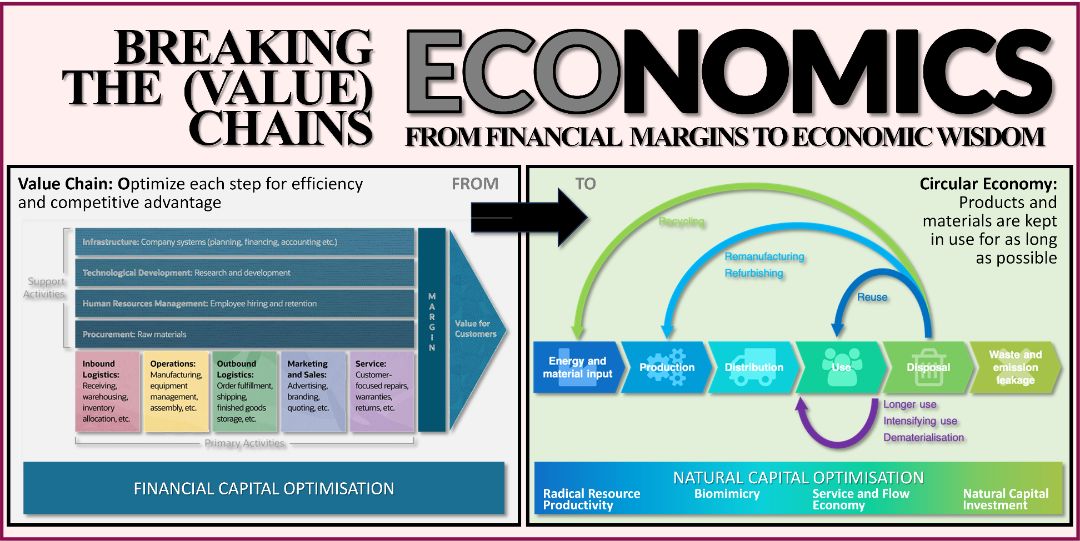

BREAKING THE (VALUE) CHAINS: From Financial Margins to Economic Wisdom
I studied #economics in four different countries, graduated at the top of my class, and earned an MBA from what was then the world’s leading business school. Yet, throughout my education, environmental economics was never in the curriculum. This absence is telling—it reveals a profound flaw in how we’ve been conditioned to think about the economy and our world. Let me share a revealing example.
Michael Porter's value chain, a staple in #strategy classes, describes a sequential process in which raw materials are transformed into finished products through discrete steps, each adding value. It emphasises efficiency and cost reduction. Yet, it also reflects the limitations of conventional #management thinking: it oversimplifies complexity, is deterministic and linear, and neglects holistic org development. Most critically, it normalizes a "take-make-dispose" model, leading to waste and environmental degradation.
In contrast, the #circular economy is a regenerative system that minimizes waste and maximizes resource use. Unlike the value chain, it integrates the assessment of nature and natural resources into the productive process, rather than treating them as externalities. This shift forces us to assess energy and resource efficiency across the entire ecosystem of production and consumption.
The transition from conventional to environmental economics nicely illustrates developmental #dialectics:
1. First, we identify what's absent. The circular economy offers a higher-order understanding of reality and economic activity, recognizing the interconnectedness of economic, social, and ecological systems.
2. Next, we explore contradictions. The linear value chain is criticized for its unsustainable resource use and environmental harm, and eventual economic inefficiency due to resource depletion and waste.
3. Then we confront ethical questions. The value chain model embodies "structural oppression," exploiting natural resources without regard for long-term ecological balance, contributing to environmental injustice and limiting human freedom by creating unsustainable living conditions. Thus, moving to environmental economics involves a liberatory praxis— aiming to mitigate the constraints of finite resources and environmental degradation, fostering greater freedom and justice.
4. Finally, we integrate the new system into a broader perspective. The value chain not only frames production but also implicitly defines economic value as the optimization of financial margin. In contrast, environmental economics emphasizes that our most critical resource is natural, not financial capital. Finance must serve to efficiently integrate human needs with environmental stewardship to sustain true value.
Greater truth can transform our thinking to pave the way for greater justice.
This is where academia can play a crucial role in building a better society—a role it has often failed to fulfill!
BREAKING THE (VALUE) CHAINS: From Financial Margins to Economic Wisdom
I studied #economics in four different countries, graduated at the top of my class, and earned an MBA from what was then the world’s leading business school. Yet, throughout my education, environmental economics was never in the curriculum. This absence is telling—it reveals a profound flaw in how we’ve been conditioned to think about the economy and our world. Let me share a revealing example.
Michael Porter's value chain, a staple in #strategy classes, describes a sequential process in which raw materials are transformed into finished products through discrete steps, each adding value. It emphasises efficiency and cost reduction. Yet, it also reflects the limitations of conventional #management thinking: it oversimplifies complexity, is deterministic and linear, and neglects holistic org development. Most critically, it normalizes a "take-make-dispose" model, leading to waste and environmental degradation.
In contrast, the #circular economy is a regenerative system that minimizes waste and maximizes resource use. Unlike the value chain, it integrates the assessment of nature and natural resources into the productive process, rather than treating them as externalities. This shift forces us to assess energy and resource efficiency across the entire ecosystem of production and consumption.
The transition from conventional to environmental economics nicely illustrates developmental #dialectics:
1. First, we identify what's absent. The circular economy offers a higher-order understanding of reality and economic activity, recognizing the interconnectedness of economic, social, and ecological systems.
2. Next, we explore contradictions. The linear value chain is criticized for its unsustainable resource use and environmental harm, and eventual economic inefficiency due to resource depletion and waste.
3. Then we confront ethical questions. The value chain model embodies "structural oppression," exploiting natural resources without regard for long-term ecological balance, contributing to environmental injustice and limiting human freedom by creating unsustainable living conditions. Thus, moving to environmental economics involves a liberatory praxis— aiming to mitigate the constraints of finite resources and environmental degradation, fostering greater freedom and justice.
4. Finally, we integrate the new system into a broader perspective. The value chain not only frames production but also implicitly defines economic value as the optimization of financial margin. In contrast, environmental economics emphasizes that our most critical resource is natural, not financial capital. Finance must serve to efficiently integrate human needs with environmental stewardship to sustain true value.
Greater truth can transform our thinking to pave the way for greater justice.
This is where academia can play a crucial role in building a better society—a role it has often failed to fulfill!
24-08-2024



In today's world, the harsh reality is that if you're a climate activist fighting to protect our planet, you're far more likely to face persecution, harassment, or even imprisonment than a corporation polluting our air, poisoning our water, and jeopardizing our future.
The true criminals are those who profit from environmental destruction, yet they continue to operate with impunity. Meanwhile, the courageous individuals standing up for the Earth are treated like outlaws. This starkly reveals how our systems are deeply rigged against justice, favoring profit over people and the planet.
It's time to shift the narrative and hold the real culprits accountable. While the law must be upheld, we must also recognize that civil disobedience becomes a moral duty when legal norms fail to meet ethical imperatives. We cannot accept structural injustice that allows powerful corporations to privatize profits while socializing the risks.
The ruthless defenders of the status quo and those clinging to their petty individual privileges and convenience cannot be allowed to prevail in the quest to save our planet. Environmental defenders should be supported, not criminalized.
#leadership #climatechange #transformation #sustainability
Thanks for the good discussion with Joe Zammit-Luca and many others!
- Otti
Joe here I will have to disagree with your recent comment supporting long prison sentences for climate activists. If the system itself is unjust in regards to a moral imperative to guarantee the planet's survival, I think we can't simply hide behind a pretense of "law and order." Moreover, while it's true that there's a legitimate process to change laws, access to that process is often highly concentrated in the hands of those who benefit from the status quo. Philip Pettit's requirement for a contestatory citizenry to ensure the legitimacy of a republican political system seems clearly unmet when it comes to giving future generations an appropriate voice, resulting in their suffering from arbitrary domination.
- Joe
I guess we have to agree to disagree. In my view the cause is irrelevant. It’s the actions that carry consequences. Otherwise who is to decide which cause should be given a free pass and which not?
When people start believing that their cause is above the law then we have anarchy.
Just to be clear, I’m not ‘supporting long prison sentences for climate activists’ I’m supporting appropriate penalties for breaking the law irrespective of the cause.
- Otti
Joe that cannot be the ultimate principle. Laws must adhere to ethical standards to be considered just. Civil disobedience is not only legitimate but necessary when a law violates higher moral principles and when all legal channels for addressing the injustice have been exhausted or proven ineffective. This is especially true if laws are enacted through undemocratic processes that undermine minority interests. Without this understanding, one could not assert that citizens have a right and a duty to resist totalitarian regimes. The cause is indeed crucial, particularly when the action aims to raise awareness and spark public debate about an unjust law. While not all means are justifiable, when a hospital is burning, good citizens cannot be expected to wait for a lazy fire brigade that is sponsored by the land developer; they may need to take action themselves.
PS: Until we see people convicted for destroying the planet with equal fervor, I will remain highly unconvinced that the playing field is level and just.
- Joe
Otti - I take your points. But I think you conflate things and don’t answer others.
We live in democracies not authoritarian systems. Applying the same standards to both is in my view mistaken.
If you believe that some causes are above the law (which as I understand it you’re implying), then could you provide a list of such causes. Anti- abortion protesors for example? Why should they not be given a free pass given how they believe their cause is the only just and moral one in defence of the rights of the unborn child? Whatever you and I might believe.
Or is it only climate that’s super special and justifies anything?
People can choose to break the law to make their point. But they cannot be shielded from the consequences if we are to have any kind of social order. Neither do I believe that you or I should be the arbiters of who gets a free pass.
- Otti
Joe that’s an excellent point. However, I don't think I'm conflating issues—I’m using totalitarian systems to illustrate that we cannot merely adhere to laws but must also consider the ethical principles those laws should uphold and how they came into being. In the context of climate justice, I argue that laws are flawed on both counts: they fail to protect the rights of future generations and the planet's integrity, while decision-making processes are skewed by special interests benefiting from the status quo.
The core of my argument is not that anyone is above the law, but that the law must always serve the people. We're not here for the law, the law is here for us.
Your challenge to identify qualifying situations is valid, and each case should indeed be evaluated on its own merits. However, in the case of planetary destruction, the situation seems clear-cut. It goes beyond personal opinions or perspectives. Moreover, the protesters are clearly accepting the consequences of their actions. My point is that as a society, we should be ashamed of our complacency in accepting laws that fail to deliver justice.
In today's world, the harsh reality is that if you're a climate activist fighting to protect our planet, you're far more likely to face persecution, harassment, or even imprisonment than a corporation polluting our air, poisoning our water, and jeopardizing our future.
The true criminals are those who profit from environmental destruction, yet they continue to operate with impunity. Meanwhile, the courageous individuals standing up for the Earth are treated like outlaws. This starkly reveals how our systems are deeply rigged against justice, favoring profit over people and the planet.
It's time to shift the narrative and hold the real culprits accountable. While the law must be upheld, we must also recognize that civil disobedience becomes a moral duty when legal norms fail to meet ethical imperatives. We cannot accept structural injustice that allows powerful corporations to privatize profits while socializing the risks.
The ruthless defenders of the status quo and those clinging to their petty individual privileges and convenience cannot be allowed to prevail in the quest to save our planet. Environmental defenders should be supported, not criminalized.
#leadership #climatechange #transformation #sustainability
Thanks for the good discussion with Joe Zammit-Luca and many others!
- Otti
Joe here I will have to disagree with your recent comment supporting long prison sentences for climate activists. If the system itself is unjust in regards to a moral imperative to guarantee the planet's survival, I think we can't simply hide behind a pretense of "law and order." Moreover, while it's true that there's a legitimate process to change laws, access to that process is often highly concentrated in the hands of those who benefit from the status quo. Philip Pettit's requirement for a contestatory citizenry to ensure the legitimacy of a republican political system seems clearly unmet when it comes to giving future generations an appropriate voice, resulting in their suffering from arbitrary domination.
- Joe
I guess we have to agree to disagree. In my view the cause is irrelevant. It’s the actions that carry consequences. Otherwise who is to decide which cause should be given a free pass and which not?
When people start believing that their cause is above the law then we have anarchy.
Just to be clear, I’m not ‘supporting long prison sentences for climate activists’ I’m supporting appropriate penalties for breaking the law irrespective of the cause.
- Otti
Joe that cannot be the ultimate principle. Laws must adhere to ethical standards to be considered just. Civil disobedience is not only legitimate but necessary when a law violates higher moral principles and when all legal channels for addressing the injustice have been exhausted or proven ineffective. This is especially true if laws are enacted through undemocratic processes that undermine minority interests. Without this understanding, one could not assert that citizens have a right and a duty to resist totalitarian regimes. The cause is indeed crucial, particularly when the action aims to raise awareness and spark public debate about an unjust law. While not all means are justifiable, when a hospital is burning, good citizens cannot be expected to wait for a lazy fire brigade that is sponsored by the land developer; they may need to take action themselves.
PS: Until we see people convicted for destroying the planet with equal fervor, I will remain highly unconvinced that the playing field is level and just.
- Joe
Otti - I take your points. But I think you conflate things and don’t answer others.
We live in democracies not authoritarian systems. Applying the same standards to both is in my view mistaken.
If you believe that some causes are above the law (which as I understand it you’re implying), then could you provide a list of such causes. Anti- abortion protesors for example? Why should they not be given a free pass given how they believe their cause is the only just and moral one in defence of the rights of the unborn child? Whatever you and I might believe.
Or is it only climate that’s super special and justifies anything?
People can choose to break the law to make their point. But they cannot be shielded from the consequences if we are to have any kind of social order. Neither do I believe that you or I should be the arbiters of who gets a free pass.
- Otti
Joe that’s an excellent point. However, I don't think I'm conflating issues—I’m using totalitarian systems to illustrate that we cannot merely adhere to laws but must also consider the ethical principles those laws should uphold and how they came into being. In the context of climate justice, I argue that laws are flawed on both counts: they fail to protect the rights of future generations and the planet's integrity, while decision-making processes are skewed by special interests benefiting from the status quo.
The core of my argument is not that anyone is above the law, but that the law must always serve the people. We're not here for the law, the law is here for us.
Your challenge to identify qualifying situations is valid, and each case should indeed be evaluated on its own merits. However, in the case of planetary destruction, the situation seems clear-cut. It goes beyond personal opinions or perspectives. Moreover, the protesters are clearly accepting the consequences of their actions. My point is that as a society, we should be ashamed of our complacency in accepting laws that fail to deliver justice.
24-08-2024

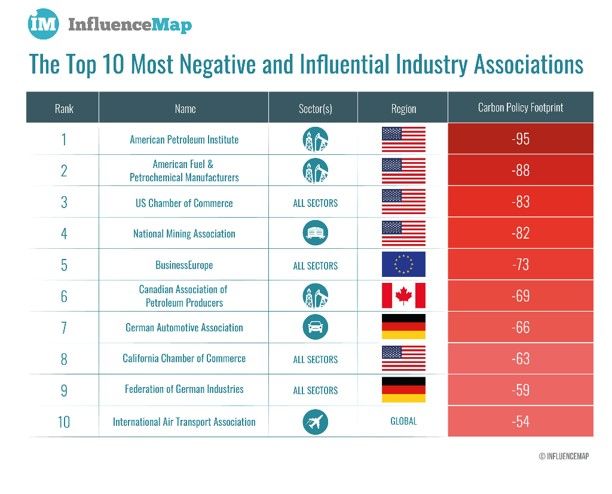

The Real Enemies of Progress: How Industry Associations Are Driving Us Towards Environmental Catastrophe
In the same way that history condemns those who defended slavery, colonialism, and apartheid, we must recognize any modern-day institutions that are obstructing our efforts to combat climate change. These associations are not just resisting progress—they are actively pushing us towards environmental disaster.
* American Petroleum Institute (API): The ultimate fossil fuel lobby, API has spent decades denying climate science and lobbying against clean energy, cementing its role as a major barrier to progress.
* American Fuel and Petrochemical Manufacturers (AFPM): AFPM is relentless in its defense of fossil fuels, opposing emissions reductions and clean energy alternatives at every turn.
*U.S. Chamber of Commerce: Once a respected business organization, the Chamber now prioritizes the interests of the wealthiest members, obstructing essential climate legislation and promoting the status quo.
* National Mining Association (NMA): A staunch defender of coal, the NMA works to undermine environmental regulations, prolonging our dependence on the dirtiest energy source available.
* BusinessEurope: This EU lobby group fights against ambitious climate policies, putting short-term profits ahead of long-term survival and betraying future generations.
* Canadian Association of Petroleum Producers (CAPP): Representing the oil sands industry, CAPP aggressively pushes for expansion, making Canada a major offender in the global climate crisis.
* German Automotive Association: The group resist the shift to electric vehicles and stringent emissions standards, blocking essential progress in reducing Europe’s carbon footprint.
* California Chamber of Commerce: Even in progressive California, the Chamber opposes environmental regulations, putting corporate profits above the state’s environmental goals.
* Federation of German Industries (BDI): BDI fights against ambitious climate policies in Germany, arguing against regulations that would drive sustainability.
* International Air Transport Association (IATA): Despite being a major contributor to global emissions, IATA lobbies against efforts to regulate or reduce the aviation sector’s environmental impact.
Based on InfluenceMap, these associations are top defenders of a system that prioritizes profit over people, corporate interests over community well-being, and short-term gains over long-term survival. Where that is true, It’s time to call out these organizations for what they are: the enemies of progress, standing in the way of a sustainable and just future. Where that is true, future generations will look back on these associations and their leaders and members with contempt. The stakes are global, and the costs of their obstructionism are existential. If we are to save the planet, we must confront all those powerful players who are determined to keep us on a path to destruction.
#leadership
The Real Enemies of Progress: How Industry Associations Are Driving Us Towards Environmental Catastrophe
In the same way that history condemns those who defended slavery, colonialism, and apartheid, we must recognize any modern-day institutions that are obstructing our efforts to combat climate change. These associations are not just resisting progress—they are actively pushing us towards environmental disaster.
* American Petroleum Institute (API): The ultimate fossil fuel lobby, API has spent decades denying climate science and lobbying against clean energy, cementing its role as a major barrier to progress.
* American Fuel and Petrochemical Manufacturers (AFPM): AFPM is relentless in its defense of fossil fuels, opposing emissions reductions and clean energy alternatives at every turn.
*U.S. Chamber of Commerce: Once a respected business organization, the Chamber now prioritizes the interests of the wealthiest members, obstructing essential climate legislation and promoting the status quo.
* National Mining Association (NMA): A staunch defender of coal, the NMA works to undermine environmental regulations, prolonging our dependence on the dirtiest energy source available.
* BusinessEurope: This EU lobby group fights against ambitious climate policies, putting short-term profits ahead of long-term survival and betraying future generations.
* Canadian Association of Petroleum Producers (CAPP): Representing the oil sands industry, CAPP aggressively pushes for expansion, making Canada a major offender in the global climate crisis.
* German Automotive Association: The group resist the shift to electric vehicles and stringent emissions standards, blocking essential progress in reducing Europe’s carbon footprint.
* California Chamber of Commerce: Even in progressive California, the Chamber opposes environmental regulations, putting corporate profits above the state’s environmental goals.
* Federation of German Industries (BDI): BDI fights against ambitious climate policies in Germany, arguing against regulations that would drive sustainability.
* International Air Transport Association (IATA): Despite being a major contributor to global emissions, IATA lobbies against efforts to regulate or reduce the aviation sector’s environmental impact.
Based on InfluenceMap, these associations are top defenders of a system that prioritizes profit over people, corporate interests over community well-being, and short-term gains over long-term survival. Where that is true, It’s time to call out these organizations for what they are: the enemies of progress, standing in the way of a sustainable and just future. Where that is true, future generations will look back on these associations and their leaders and members with contempt. The stakes are global, and the costs of their obstructionism are existential. If we are to save the planet, we must confront all those powerful players who are determined to keep us on a path to destruction.
#leadership
23-08-2024



Nature as a Myth: The Contradiction in Modern Ecological Economics
In contemporary discourse, nature is frequently romanticized as an idyllic, unchanging force—a pastoral paradise corrupted by modern society. This myth of nature as a pure, idealized essence has infiltrated some forms of #ecologicaleconomics, advocating for a return to "natural" or "indigenous" ways of living and organizing economies. However, such an approach is deeply flawed and obscures the material realities of exploitation and production.
As Michel Foucault pointed out, the discourse of nature as harmonious and inherently good is a cultural construct. It ignores that #nature is neither static nor inherently benevolent and overlooks the harsh realities of historical social relations, such as feudalism and #slavery. Equally, the fashionable view of nature as a source of peace and healing often promotes an escapist mentality, where nature is seen as a refuge from the complexities and stresses of modern life. This perspective fails to acknowledge that psychological well-being is deeply intertwined with social and economic conditions. The idea that reconnecting with nature alone can solve our psychological ills is reductive, particularly for the poor who lack the privilege to spend each Friday afternoon on a mountain hike.
Such eco-romanticism also often leads to conservative environmentalism, which prioritizes wilderness and biodiversity over systemic issues like poverty and inequality. Such an approach risks resisting technological and industrial progress by portraying all human intervention as inherently harmful and tends to favour wealthy, developed nations while ignoring the needs of developing countries.
Contrary to any idealizations, nature is not a sacred, independent, mystical force or sanctuary from the corrupting forces of human industry. Nor is it a stable, balanced “living” system in perfect “natural” harmony. Nature is a dynamic entity, constantly shaped by human labour and social relations. The goal should not be to idealize nature as an illusory Garden of Eden or revert to a pre-industrial past, but to transform society in a way that harmonizes human needs with environmental sustainability.
As Karl Marx aptly remarked, "Nature is man’s inorganic body, with which he must remain in continuous interchange if he is not to die." Yet, he also warned, "The ‘return to nature’ in bourgeois society is only a return to the unspeakable misery of the pre-industrial state." Idealizing nature untouched by human hands, is to ignore and devalue the progress made in human development—and the struggles and exploitation that came with it.
If we cling to the myth of nature as a nostalgic, static ideal we risk perpetuating the very systems of exploitation we claim to oppose. Rather than seeking simple solutions in "natural" ways, we must critically examine our “human ways” of work, technology, and social relations. Only then can we lead towards a truly sustainable and just future.
Nature as a Myth: The Contradiction in Modern Ecological Economics
In contemporary discourse, nature is frequently romanticized as an idyllic, unchanging force—a pastoral paradise corrupted by modern society. This myth of nature as a pure, idealized essence has infiltrated some forms of #ecologicaleconomics, advocating for a return to "natural" or "indigenous" ways of living and organizing economies. However, such an approach is deeply flawed and obscures the material realities of exploitation and production.
As Michel Foucault pointed out, the discourse of nature as harmonious and inherently good is a cultural construct. It ignores that #nature is neither static nor inherently benevolent and overlooks the harsh realities of historical social relations, such as feudalism and #slavery. Equally, the fashionable view of nature as a source of peace and healing often promotes an escapist mentality, where nature is seen as a refuge from the complexities and stresses of modern life. This perspective fails to acknowledge that psychological well-being is deeply intertwined with social and economic conditions. The idea that reconnecting with nature alone can solve our psychological ills is reductive, particularly for the poor who lack the privilege to spend each Friday afternoon on a mountain hike.
Such eco-romanticism also often leads to conservative environmentalism, which prioritizes wilderness and biodiversity over systemic issues like poverty and inequality. Such an approach risks resisting technological and industrial progress by portraying all human intervention as inherently harmful and tends to favour wealthy, developed nations while ignoring the needs of developing countries.
Contrary to any idealizations, nature is not a sacred, independent, mystical force or sanctuary from the corrupting forces of human industry. Nor is it a stable, balanced “living” system in perfect “natural” harmony. Nature is a dynamic entity, constantly shaped by human labour and social relations. The goal should not be to idealize nature as an illusory Garden of Eden or revert to a pre-industrial past, but to transform society in a way that harmonizes human needs with environmental sustainability.
As Karl Marx aptly remarked, "Nature is man’s inorganic body, with which he must remain in continuous interchange if he is not to die." Yet, he also warned, "The ‘return to nature’ in bourgeois society is only a return to the unspeakable misery of the pre-industrial state." Idealizing nature untouched by human hands, is to ignore and devalue the progress made in human development—and the struggles and exploitation that came with it.
If we cling to the myth of nature as a nostalgic, static ideal we risk perpetuating the very systems of exploitation we claim to oppose. Rather than seeking simple solutions in "natural" ways, we must critically examine our “human ways” of work, technology, and social relations. Only then can we lead towards a truly sustainable and just future.
21-08-2024
WEALTH CORRUPTS: LET’S TAX THE RICH!
Have you been following the sorrowful spectacle of the "conversation" on X between the world’s wealthiest man, Elon Musk, and former U.S. President, Donald Trump? For many, including the brilliant Hans Stegeman in his latest column, this is a glaring example of the dangers of extreme wealth concentrated in the hands of a few. Whether it's an oligarch, a tech billionaire, a slumlord, an oil sheik, or old money aristocracy, the story remains consistent—excessive wealth inevitably corrupts.
Hans suggests that it often begins innocently enough—a stroke of luck, perhaps an inheritance or a lucrative market gap that leads to a massive windfall. But then, the mechanisms of the market ensure that the rich only get richer. Today, the richest 1% own nearly half of the world’s wealth. Around 3,000 individuals control 13% of the world’s GDP, a staggering increase from just 3% in 1993. Seven of the world’s ten largest corporations have a billionaire as CEO or principal shareholder, with these corporations collectively worth $10.2 trillion—more than the combined GDPs of all countries in Africa and Latin America.
Hans highlights two major issues with extreme wealth:
🔴 The ultra-wealthy go to great lengths to protect their assets, resorting to tax avoidance, evasion, and lobbying to keep the rules in their favour.
🔴 They begin to believe in their own myth of success—the "messiah complex." In its milder form, this manifests as a “philanthropy disorder”; in extreme cases, they buy media or politicians, becoming a threat to democracy.
At the last G20 summit, economist Gabriel Zucman’s proposed to tax the super-rich at 2% of their assets. Hans argues this is still far too little. Why not start with a tax of 1 billion per year?
Of course many critics including many of Hans's commenters, strongly disagree. They argue that high taxes could dampen productivity, stifle innovation, and deter investment, potentially slowing economic growth. They also contend that government taxation is frequently wasteful, leading to market distortions, reduced efficiency in resource allocation, and fewer jobs. Furthermore, critics point out that high taxes in one jurisdiction will simply drive capital flight and encourage further tax avoidance. All such arguments deserve attention.
The underlying issue at stake is the complex question of the morality of markets, a topic I've been grappling with for some time. While I fully support progressive taxation and inheritance taxes, I remain unconvinced by some of the arguments presented.
🔴 On the one hand, there's the question of whether taxation is an effective tool to protect us from the rich—or even the rich from themselves. While the idea might seem appealing, I don’t believe taxation can realistically serve as a corruption prevention device. If someone's actions or opinions are legal, we can't just impose extra taxes on them based on the assumption that wealth is inherently corruptive. It's all too easy to scapegoat prominent wealthy individuals for doing or saying things we don't agree with. And how would we even determine the right tax amount? One billion a year? Why not five? What about wealthy individuals whose actions we actually approve of—should they be taxed less? Maybe just half a billion? And what do we do with people who have a "messiah complex" but aren’t wealthy—do they get a tax break?
St. Augustine observed already 2,000 years ago that wealth isn't inherently sinful, but excessive attachment to it can lead to moral corruption. The role of money in modern society is indeed complex and paradoxical. Georg Simmel, in his influential Philosophy of Money, explains that money is a powerful yet ambiguous social tool—it liberates and alienates simultaneously. While it facilitates economic transactions and individual freedom, it also contributes to the depersonalization and abstraction of social life. This isn't exclusive to the ultra-rich; in a profit-maximizing "corporate society," it's common to see politics pursued as economics by other means. The state often becomes a battleground for special interests, where power and resources are wielded to create optimal conditions for economic success of specific individuals and groups.
However, as Adam Smith cleverly pointed out, the selfish pursuit of personal interests can sometimes lead to societal benefits. So, perhaps our focus should be on the broader systemic impacts of money and wealth distribution, rather than solely on the individual character or the (perhaps displeasing but legal) behaviors of the wealthy. For instance, taxes on carbonated soft drinks, single-use plastics, cigarettes, or even financial transactions can be fully justified based on the societal costs of specific consumer behaviors rather than on individual virtue.
My concern is also that taxation may not be a very effective tool for personal therapy or character education, independent of policy design or enforcement mechanisms. If I’m only externally motivated to behave correctly, I’m likely to misbehave whenever I think I can get away with it. That said, even if taxes can successfully incentivize behavioral changes, it's crucial to clearly define which behaviors are deemed good or bad, validating the reasoning behind these judgments, and imposing penalties that respect individual freedoms in a pluralistic society.
That said, we must, of course, address the issue of power—whether military, economic, or otherwise—being leveraged to tilt the playing field. It’s clear that undue influence must be actively contained, especially by elected officials, to preserve the integrity of our democratic institutions. But political corruption goes far beyond discretionary taxation; even if we heavily taxed the wealthiest individuals, they would still wield significantly more power than the average citizen. This calls for a more critical examination of flawed democracies, like the U.S., where powerful groups have far too much sway over political decision-making.
🔴On the other hand, it’s certainly not sufficient to argue that higher taxes might hinder economic activity. Often, this may not be the case, or the potential benefits of increased taxation could outweigh the risks. More fundamentally, morality isn't solely about consequences, and GDP growth isn't an intrinsic good.
In this context, we may need to accept that market prices and profits will not always align with our ethical standards, meaning people might get rich without "deserving" it. Nozick’s Wilt Chamberlain argument against patterned distribution is compelling. While I don’t agree with Hayek’s view that taxation is inherently inefficient, he’s likely right that the morality of supply and demand is limited. Some wealth is generated through valuable entrepreneurship and innovation, benefiting both individuals and society at large, while other wealth may come from inheritance, monopolistic or ecologically damaging activity, or financial rent extraction, where gains are privatized and risks are socialized. Moreover, if, as many argue, capitalist markets inherently lead to the concentration of market power and assets, inequality might be systemic and not easily resolved simply by increasing taxes for the rich.
Either way, markets are embedded in society, and money represents a claim to societal wealth and services. Thus, society has every right to redistribute wealth to achieve its goals—whether that’s curbing political influence, correcting market concentration, reducing inequality, funding public services, or ensuring social justice. In this light, it's clear that our current tax system has significant flaws. A distribution of income and wealth that leaves half of the global population living on less than $7 per day is unacceptable. We don't need to read all of Piketty's lengthy book on Capital in the Twenty-First Century, to recognize that corporate and capital gains taxes are too low compared to income taxes, failing to address speculation and inequality or ensure fair contributions from the wealthy. Additionally, income taxes do little to tackle climate change, and taxes on large inheritances and wealth are clearly inadequate for promoting social mobility and justice or countering the dominance of capital. Hence, the case for tax increases is very clear. Moreover, if individuals evade taxes, we absolutely must have robust mechanisms to hold them accountable.
Yet, ultimately, the issue isn't just about taxation but about the kind of society we aspire to create. What constitutes justice? What defines social value? How should we order, manage and distribute common and public goods, including societal wealth? Only by answering these questions can we effectively adjust not only market activity but all our societal institutions—such as property rights and distribution, resource allocation mechanisms, decision-making processes, social value conventions, or education—to better serve everybody. There's certainly a fine line between preventing oligarchy and punishing success.
Hence, while I agree with Hans that we need higher taxes in order to combat unacceptable levels of inequality, I'm not fully convinced that taxes should be used to address personal narcissism or arbitrarily restrict the freedoms of powerful individuals, as long as they act within the law. Short-term measures are necessary, but it's crucial to recognize that the pursuit of wealth as an end in itself and the concentration of wealth are symptoms of deeper systemic issues. Therefore, we must also focus on a more comprehensive redesign of both political and economic structures to address the broader problems of inequality and injustice.
#leadership #politics #justice #taxes #transformation
PS: Thanks to Hans Stegeman and Tom van der Lubbe for stimulating this preliminary and initial reflection

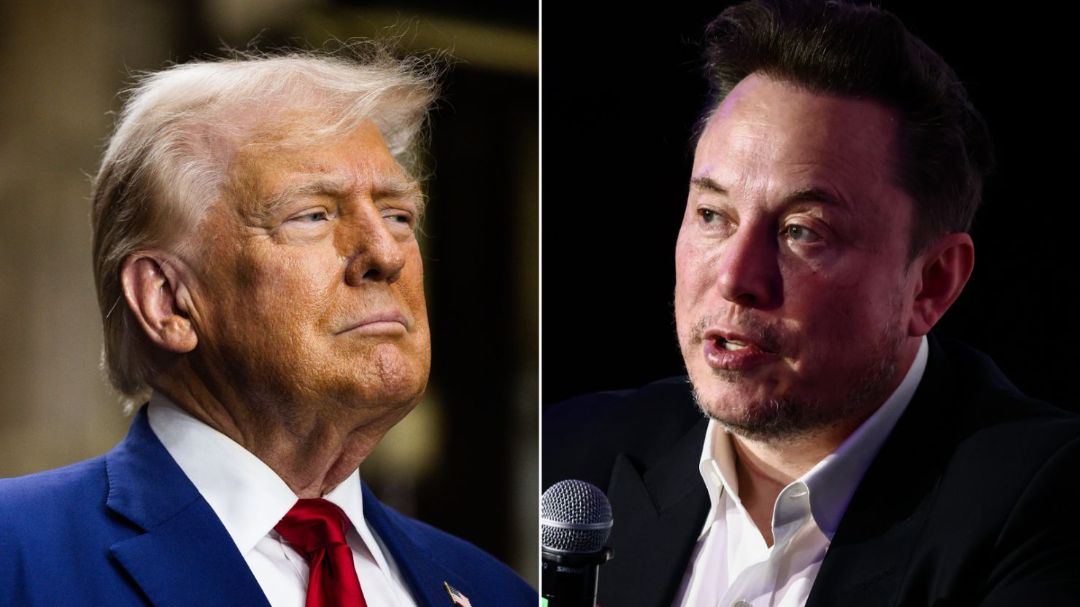

WEALTH CORRUPTS: LET’S TAX THE RICH!
Have you been following the sorrowful spectacle of the "conversation" on X between the world’s wealthiest man, Elon Musk, and former U.S. President, Donald Trump? For many, including the brilliant Hans Stegeman in his latest column, this is a glaring example of the dangers of extreme wealth concentrated in the hands of a few. Whether it's an oligarch, a tech billionaire, a slumlord, an oil sheik, or old money aristocracy, the story remains consistent—excessive wealth inevitably corrupts.
Hans suggests that it often begins innocently enough—a stroke of luck, perhaps an inheritance or a lucrative market gap that leads to a massive windfall. But then, the mechanisms of the market ensure that the rich only get richer. Today, the richest 1% own nearly half of the world’s wealth. Around 3,000 individuals control 13% of the world’s GDP, a staggering increase from just 3% in 1993. Seven of the world’s ten largest corporations have a billionaire as CEO or principal shareholder, with these corporations collectively worth $10.2 trillion—more than the combined GDPs of all countries in Africa and Latin America.
Hans highlights two major issues with extreme wealth:
🔴 The ultra-wealthy go to great lengths to protect their assets, resorting to tax avoidance, evasion, and lobbying to keep the rules in their favour.
🔴 They begin to believe in their own myth of success—the "messiah complex." In its milder form, this manifests as a “philanthropy disorder”; in extreme cases, they buy media or politicians, becoming a threat to democracy.
At the last G20 summit, economist Gabriel Zucman’s proposed to tax the super-rich at 2% of their assets. Hans argues this is still far too little. Why not start with a tax of 1 billion per year?
Of course many critics including many of Hans's commenters, strongly disagree. They argue that high taxes could dampen productivity, stifle innovation, and deter investment, potentially slowing economic growth. They also contend that government taxation is frequently wasteful, leading to market distortions, reduced efficiency in resource allocation, and fewer jobs. Furthermore, critics point out that high taxes in one jurisdiction will simply drive capital flight and encourage further tax avoidance. All such arguments deserve attention.
The underlying issue at stake is the complex question of the morality of markets, a topic I've been grappling with for some time. While I fully support progressive taxation and inheritance taxes, I remain unconvinced by some of the arguments presented.
🔴 On the one hand, there's the question of whether taxation is an effective tool to protect us from the rich—or even the rich from themselves. While the idea might seem appealing, I don’t believe taxation can realistically serve as a corruption prevention device. If someone's actions or opinions are legal, we can't just impose extra taxes on them based on the assumption that wealth is inherently corruptive. It's all too easy to scapegoat prominent wealthy individuals for doing or saying things we don't agree with. And how would we even determine the right tax amount? One billion a year? Why not five? What about wealthy individuals whose actions we actually approve of—should they be taxed less? Maybe just half a billion? And what do we do with people who have a "messiah complex" but aren’t wealthy—do they get a tax break?
St. Augustine observed already 2,000 years ago that wealth isn't inherently sinful, but excessive attachment to it can lead to moral corruption. The role of money in modern society is indeed complex and paradoxical. Georg Simmel, in his influential Philosophy of Money, explains that money is a powerful yet ambiguous social tool—it liberates and alienates simultaneously. While it facilitates economic transactions and individual freedom, it also contributes to the depersonalization and abstraction of social life. This isn't exclusive to the ultra-rich; in a profit-maximizing "corporate society," it's common to see politics pursued as economics by other means. The state often becomes a battleground for special interests, where power and resources are wielded to create optimal conditions for economic success of specific individuals and groups.
However, as Adam Smith cleverly pointed out, the selfish pursuit of personal interests can sometimes lead to societal benefits. So, perhaps our focus should be on the broader systemic impacts of money and wealth distribution, rather than solely on the individual character or the (perhaps displeasing but legal) behaviors of the wealthy. For instance, taxes on carbonated soft drinks, single-use plastics, cigarettes, or even financial transactions can be fully justified based on the societal costs of specific consumer behaviors rather than on individual virtue.
My concern is also that taxation may not be a very effective tool for personal therapy or character education, independent of policy design or enforcement mechanisms. If I’m only externally motivated to behave correctly, I’m likely to misbehave whenever I think I can get away with it. That said, even if taxes can successfully incentivize behavioral changes, it's crucial to clearly define which behaviors are deemed good or bad, validating the reasoning behind these judgments, and imposing penalties that respect individual freedoms in a pluralistic society.
That said, we must, of course, address the issue of power—whether military, economic, or otherwise—being leveraged to tilt the playing field. It’s clear that undue influence must be actively contained, especially by elected officials, to preserve the integrity of our democratic institutions. But political corruption goes far beyond discretionary taxation; even if we heavily taxed the wealthiest individuals, they would still wield significantly more power than the average citizen. This calls for a more critical examination of flawed democracies, like the U.S., where powerful groups have far too much sway over political decision-making.
🔴On the other hand, it’s certainly not sufficient to argue that higher taxes might hinder economic activity. Often, this may not be the case, or the potential benefits of increased taxation could outweigh the risks. More fundamentally, morality isn't solely about consequences, and GDP growth isn't an intrinsic good.
In this context, we may need to accept that market prices and profits will not always align with our ethical standards, meaning people might get rich without "deserving" it. Nozick’s Wilt Chamberlain argument against patterned distribution is compelling. While I don’t agree with Hayek’s view that taxation is inherently inefficient, he’s likely right that the morality of supply and demand is limited. Some wealth is generated through valuable entrepreneurship and innovation, benefiting both individuals and society at large, while other wealth may come from inheritance, monopolistic or ecologically damaging activity, or financial rent extraction, where gains are privatized and risks are socialized. Moreover, if, as many argue, capitalist markets inherently lead to the concentration of market power and assets, inequality might be systemic and not easily resolved simply by increasing taxes for the rich.
Either way, markets are embedded in society, and money represents a claim to societal wealth and services. Thus, society has every right to redistribute wealth to achieve its goals—whether that’s curbing political influence, correcting market concentration, reducing inequality, funding public services, or ensuring social justice. In this light, it's clear that our current tax system has significant flaws. A distribution of income and wealth that leaves half of the global population living on less than $7 per day is unacceptable. We don't need to read all of Piketty's lengthy book on Capital in the Twenty-First Century, to recognize that corporate and capital gains taxes are too low compared to income taxes, failing to address speculation and inequality or ensure fair contributions from the wealthy. Additionally, income taxes do little to tackle climate change, and taxes on large inheritances and wealth are clearly inadequate for promoting social mobility and justice or countering the dominance of capital. Hence, the case for tax increases is very clear. Moreover, if individuals evade taxes, we absolutely must have robust mechanisms to hold them accountable.
Yet, ultimately, the issue isn't just about taxation but about the kind of society we aspire to create. What constitutes justice? What defines social value? How should we order, manage and distribute common and public goods, including societal wealth? Only by answering these questions can we effectively adjust not only market activity but all our societal institutions—such as property rights and distribution, resource allocation mechanisms, decision-making processes, social value conventions, or education—to better serve everybody. There's certainly a fine line between preventing oligarchy and punishing success.
Hence, while I agree with Hans that we need higher taxes in order to combat unacceptable levels of inequality, I'm not fully convinced that taxes should be used to address personal narcissism or arbitrarily restrict the freedoms of powerful individuals, as long as they act within the law. Short-term measures are necessary, but it's crucial to recognize that the pursuit of wealth as an end in itself and the concentration of wealth are symptoms of deeper systemic issues. Therefore, we must also focus on a more comprehensive redesign of both political and economic structures to address the broader problems of inequality and injustice.
#leadership #politics #justice #taxes #transformation
PS: Thanks to Hans Stegeman and Tom van der Lubbe for stimulating this preliminary and initial reflection
20-08-2024

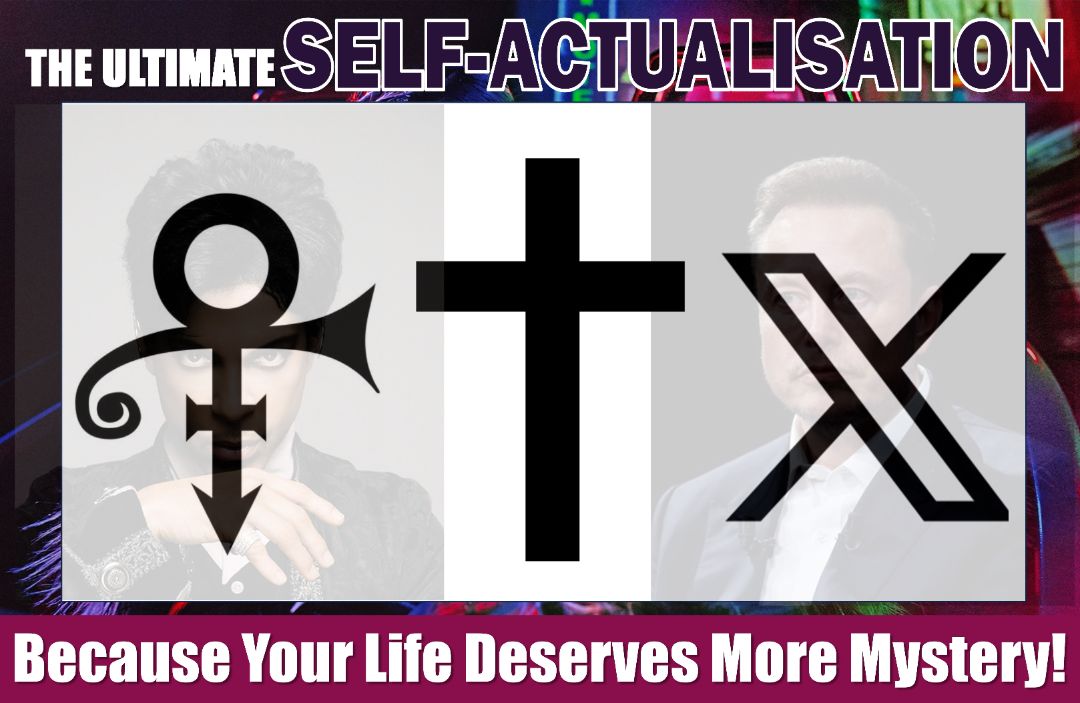

BE YOUR ULTIMATE AUTHENTIC SELF!
Ever feel like your life is in desperate need of a cosmic makeover? Like you're destined for something grander than your daily grind of emails and existential dread? Well, buckle up, my friends—there’s a new path to personal enlightenment that’s both profoundly profound and hilariously simple: Symbolic Self-Actualization (SSA)!
Forget the old self-help books, monotonous mindfulness sessions, and pointless retreats in the middle of nowhere. Why bother with tedious introspection when you can skip straight to eternal transcendence? The ultimate path to personal growth is right before your eyes—in the sheer power of a grandiose, utterly self-indulgent symbol. Yes, you heard me right. Dive headfirst into the world of symbolic grandeur and let your inner narcissist shine. Here’s how to learn from the very best:
- Prince’s Gender-Fluid Love Symbol: Why settle for a boring name when you can transform into a walking riddle dipped in glitter? It’s the ultimate power move for anyone seeking to reinvent themselves as an unpronounceable enigma with a splash of intrigue. Channel your inner Prince and slap a symbol so cryptic to your business card that people wonder if you’re the ultimate genius or just lost in a design class. Bonus points if you start referring to yourself in the third person!
- Elon Musk’s “X”: Elon Musk isn’t just naming his companies after algebraic variables; he’s redefining existential ambiguity. ‘X’ represents the unknown, new beginnings, entrepreneurial risk taking, Mars in the making... the everything that’s still a mystery! Musk named his kid X Æ A-12, because... why not?! Embrace your inner Musk by slapping random numbers and symbols on everything you own. Turn your kids into mathematical equations as the ultimate badge of inspiration! When people ask, just flash an enigmatic smile and say, “It’s a function of infinite potential!”
- Jesus’ Cross: Vertical and horizontal lines? Classic transcendence, my friends! Jesus wasn’t just about saving souls; he was the ultimate icon of symbolic self-actualization. The cross is a bold statement that true spiritual elevation links earth with the heavens. Love thy neighbor, love thy God—the perfect dual-purpose greatness! So whether your symbol is an abstract doodle or a logo that looks like it was dreamed up during a sci-fi binge, make sure it screams, “I’m the ultimate blend of the terrestrial and the celestial!”
So, what are you waiting for? Embrace your symbolic self-realization today. Whether it’s a letter, a shape, or an incomprehensible sigil, let your symbol be the beacon of your unique existential journey. After all, nothing says “I’ve got it all figured out” like a personal emblem that leaves everyone—including you—utterly bewildered.
Get your symbol now and watch as your mundane life transforms into a labyrinth of self-importance and cosmic mystery. After all, in the grand theater of life, why not be the Walrus?!
#transformation #psychology
BE YOUR ULTIMATE AUTHENTIC SELF!
Ever feel like your life is in desperate need of a cosmic makeover? Like you're destined for something grander than your daily grind of emails and existential dread? Well, buckle up, my friends—there’s a new path to personal enlightenment that’s both profoundly profound and hilariously simple: Symbolic Self-Actualization (SSA)!
Forget the old self-help books, monotonous mindfulness sessions, and pointless retreats in the middle of nowhere. Why bother with tedious introspection when you can skip straight to eternal transcendence? The ultimate path to personal growth is right before your eyes—in the sheer power of a grandiose, utterly self-indulgent symbol. Yes, you heard me right. Dive headfirst into the world of symbolic grandeur and let your inner narcissist shine. Here’s how to learn from the very best:
- Prince’s Gender-Fluid Love Symbol: Why settle for a boring name when you can transform into a walking riddle dipped in glitter? It’s the ultimate power move for anyone seeking to reinvent themselves as an unpronounceable enigma with a splash of intrigue. Channel your inner Prince and slap a symbol so cryptic to your business card that people wonder if you’re the ultimate genius or just lost in a design class. Bonus points if you start referring to yourself in the third person!
- Elon Musk’s “X”: Elon Musk isn’t just naming his companies after algebraic variables; he’s redefining existential ambiguity. ‘X’ represents the unknown, new beginnings, entrepreneurial risk taking, Mars in the making... the everything that’s still a mystery! Musk named his kid X Æ A-12, because... why not?! Embrace your inner Musk by slapping random numbers and symbols on everything you own. Turn your kids into mathematical equations as the ultimate badge of inspiration! When people ask, just flash an enigmatic smile and say, “It’s a function of infinite potential!”
- Jesus’ Cross: Vertical and horizontal lines? Classic transcendence, my friends! Jesus wasn’t just about saving souls; he was the ultimate icon of symbolic self-actualization. The cross is a bold statement that true spiritual elevation links earth with the heavens. Love thy neighbor, love thy God—the perfect dual-purpose greatness! So whether your symbol is an abstract doodle or a logo that looks like it was dreamed up during a sci-fi binge, make sure it screams, “I’m the ultimate blend of the terrestrial and the celestial!”
So, what are you waiting for? Embrace your symbolic self-realization today. Whether it’s a letter, a shape, or an incomprehensible sigil, let your symbol be the beacon of your unique existential journey. After all, nothing says “I’ve got it all figured out” like a personal emblem that leaves everyone—including you—utterly bewildered.
Get your symbol now and watch as your mundane life transforms into a labyrinth of self-importance and cosmic mystery. After all, in the grand theater of life, why not be the Walrus?!
#transformation #psychology
15-08-2024

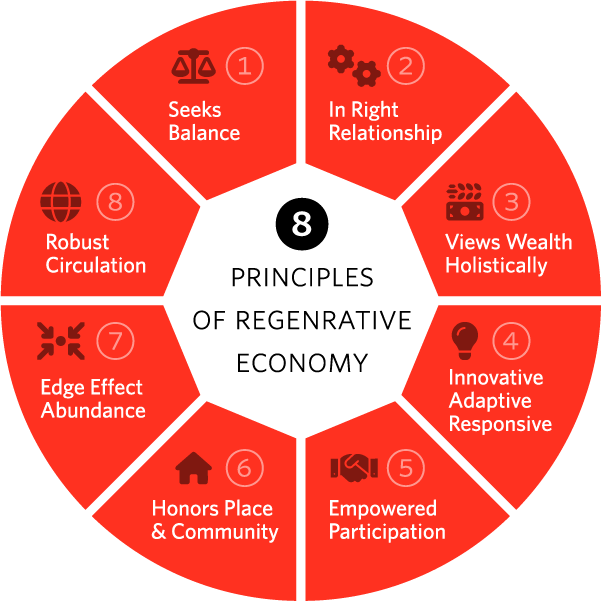

REGENERATIVE ECONOMICS: ANOTHER FALSE HYPE?
I’m grappling with the concept of #regenerativeeconomy, championed for example by John Fullerton, who proposes eight principles to support the idea. While the aspirations for a sustainable and equitable economic system are certainly commendable, the framework seems to suffer from significant issues related to coherence, clarity, consistency, and underlying assumptions.
1. Coherence Issues
John’s attempt to align economic systems with ecological principles is conceptually appealing but fundamentally incoherent. Treating social systems as if they can be directly modeled after natural systems is problematic. Social science deals with human behavior, cultural norms, and institutional dynamics—complexities that cannot be easily equated with natural processes. While applying ecological metaphors to economic policy might sound innovative, it oversimplifies the intricacies of social systems, making the framework resemble "eco-mysticism" more than a rigorous theory.
2. Ideological Confusion
The principles are built on an ideal of integrative wholeness and service to a "common good," which perpetuates a well-meaning communitarianism that overlooks the complexities of a liberal, pluralistic society. The idea that what is "natural" is inherently "good" romanticizes nature, and unqualified suggestions like "seeking balance" and "honoring" place and community raise questions about whether the principles are grounded in a proper examination of political theories or merely reflect an ideological stance.
3. Political Naivety
The principles sidestep the real power dynamics that shape economic systems and the challenges of reaching societal consensus in a highly fragmented and pluralistic society. While idealistic, staple ideas like "Empowered Participation" and "Right" Relationship overlook entrenched inequalities and power structures that prevent equitable participation in economic decision-making. They also fail to offer clear strategies for overcoming the political obstacles that would inevitably arise in implementation.
4. Rudimentary Theory of Change
Fashionable notions like "Edge Effect Abundance" or "Innovative, Adaptive, Responsive" suggest that economic systems could simply mimic natural "living" systems to continually improve. This perspective risks reducing complex political issues to mere questions of "harmony" with spontaneous "natural" processes, ignoring ethical judgment, trade-offs and the cost of more radical social transformation. The assumption that human well-being can be easily aggregated to develop meaningful decision-making criteria, or that empowered participation will suddenly lead to a social awakening and collective altruism, is highly simplistic.
Despite its noble intentions, the framework seems more a hotchpotch of trendy jargon than a coherent theory or a clear path forward for economic reform. It will be interesting to dive deeper!
#transformation #economy #leadership #management
PS: Thanks to John Fullerton (and many others) for the engaging conversation that ensued.
1. Here is John's reply:
Ideological Confusion:
You are misguided in your assertions about my "communitarian" ideology. Regeneration is NOT an ideology. It is simply the process that describes all of life. Nothing more, and importantly nothing less. I consider the regenerative paradigm as sitting above the political division of "left" and "right". Some day politicians will argue about what policies will encourage and preserve a regenerative economy.
To be clear, the 8 principles are most certainly NOT grounded in any political theory. That's the point. They are derived from our latest understanding of living systems science (systems ecology, complexity science in general, and energy flow network science) and validated by scientists I respect and include in my course. You might find it at least curious that these descriptive patterns and principles happen to be remarkably in alignment with the many wisdom traditions that have stood the test of time. Interesting, no? Increasingly this insight is understood as a new "unitive narrative".
Political Naivety:
I have operated at the pinnacle of finance, so trust me when I say, I am not at all naive about the challenges of implementing policies that would transform the modern economy to a regenerative economy. I lose sleep over exactly that more than anything, for reasons I trust you have not even considered yet. Two points:
a) I have chosen to work on blowing the Overton Window wide open based on my experience, insights and best understanding of reality. This search is now in about year 20 after 20 years in finance, not a new hobby. Those content with working within what's "politically feasible" or "practical" are the same folks that have delivered us to the polycrisis which was anticipated and widely communicated a HALF CENTURY AGO - "Limits to Growth" and many times since.
b) I challenge you to make the case that if the human economy is to be sustainable in the long run, it can be the only living system that does not obey the patterns and principles of all living (not collapsed) systems, as it currently operates. If you can't make such argument, then put your political expertise to the task of helping us make the seemingly impossible, inevitable. This is the next phase of human evolution.
Not sure how you think "edge effect abundance" is "fashionable! Edge Effect is actually from ecology, the concept of ecotones. Empowered Participation as well is not some feel good liberal idea. It's directly from the science of living systems. It's how ALL life works in the real world, not a political ideology from the left or right. Myth of separation again.
By putting quotes over "living" I think you are again exposing your anthropocentric worldview. You my friend are a "living" system! As is your family, your community, and every organization you have ever worked in (usually unhealthy ones at best). Yet we (western reductionist thinking) attempt to manage these systems as if they are merely machines. To quote Nora Bateson, the opposite of complexity is not simplicity, it's reductionism.
As to a theory of change, I rely on Dana Meadows' "Places to Intervene in a System". My work is focused on the single highest leverage point: letting go of paradigms. No systems scientist would call this "rudimentary." This is the work, letting go of the Modern Age reductionist/materialist paradigm and entering the next age, whatever future historians will call it. Regenerative Age?'
2. Thanks to Chad Smith for his reflective summary of the conversation
Over the weekend I read through an exchange between Otti Vogt & John Fullerton about the idea of a #regenerativeeconomy. I follow both of them & recently took John's class on finance for a regenerative economy offered through the Capital Institute. Otti critiqued John's "eight regenerative principles," to which John responded.
I believe Otti & John want the same thing - a sane, thriving economy that's good for people & planet. I want that too & believe we need our most rigorous thinking as well as practical action to bring such an economy into being. John comes at this from the perspective of a former Wall Street banker; Otti also from a deeply engaged European business background with strong interest in ethics and philosophy.
They both converge in seeing the flaws in our current economic system & the urgent need for change. I've found John's "insider perspective" as a former banker especially illuminating. His own personal journey from Wall Street to "regeneration" resonates with many people's own practical experience in the economy. Otti is also asking serious questions about what a "reinvented capitalism" could actually look like & what kind of politics could facilitate that transition.
One key place of divergence is in how they see the relationship between #nature & #culture. For John, living systems science has uncovered that all successful natural systems operate according to the eight regenerative principles. Human beings are, of course, part of nature. But this is something that, especially in the modern Western world, we forget: this is known as "the myth of separation," that somehow humans are "above" or "outside" or "separate from" nature.
Here one of Otti's points bears emphasizing: while it is true that we are a part of nature, that is not all we are. Our understanding of nature itself is mediated by and through culture. David Christian, the pioneer of "big history," has rightly pointed out that this "culture of collective learning" is our identifiably unique quality. This is as true of modern societies as it is of ancient & indigenous societies with more experience in faithful stewardship of nature.
We must be careful not to fall into the original critique of industrialization - that's 19th-century romanticism. There is much merit in that critique but little practical application to our current complex reality beyond inspirational poetry.
Here is where I believe culture can actually help us - and more people - get to nature. I wish we could simply say, "This is how nature operates, let's do things that way!" But we are cultural, ethical, & political creatures & we must deal with that too. The fact that Otti initially read John as leaning toward an "eco-mysticism" demonstrates to me that we have to have a sophisticated approach to mediating nature through culture.
More to say, but this is the conversation we need, & I thank both John & Otti for plowing the field for us.
3. And the final comments from myself and John
John -
1. Caution with either/or thinking. Holism sees paradox everywhere it looks. Reductionist thinking is brilliant for much. But it fails managing complexity. Einstein knew this too. Our challenge today is managing complexity - social, political, economic, and cultural - in a state of ecological overshoot. We had better learn holistic thinking and decision making.
2. Nature or man is reductionist thinking. Man is both man and nature - a paradox. Biology is not physics. But it cannot disobey the laws of physics. Both/and. Neither can human culture violate the core patterns and principles of how life works. If it wants to continue as a living culture not a dead culture.
3. Our economic system is in violation of how life works as we explore in my course. Yet our “leaders” on the left snd right and in business are largely ignorant of how life works. So we see “solutions” to our “problems” that fail to deal with root causes, creating ever greater “problems”. Endless examples.
4. Friends: the “Enlightenment” has given us much. But most Enlightenment thinkers, were the product of the reductionist thinking of that era.
5. Can you imagine: we live in a New Era!
Otti -
I think this topic calls for a more in-depth discussion. :-) Holism, or structuralism, can sometimes be as reductionist as methodological individualism (cf Archer on conflation). The complexity in pluralistic social systems often arises from differing opinions and values, as highlighted by social choice theory. One challenge here is political: integrating or aggregating these diverse opinions. Another challenge involves ambiguity in execution, which can stem from ontological or epistemological complexity
Humans are both nature and culture, which underscores the importance of a stratified ontology. With agency emerging as a property in complex systems, both aspects need to be considered. I don't believe there's a "core pattern" for how "life works"—such a notion suggests a deterministic view, whether divine or natural, that can quickly lead to a rigid, dogmatic and even totalitarian interpretation of social systems and limit individual moral freedom.
I completely agree that an economy can indeed be detrimental to "life support systems" or lead to resource depletion. However, whether this constitutes a "violation of how life works" seems to hinge on one's particular ideology. It can also come across as somewhat presumptuous, considering that people might have very different perspectives on what a "good life" means to them—without necessarily being ignorant. This is precisely where ethics comes in, as it seeks to explore how to lead a good life.
The Enlightenment was grounded in the elevation of human knowledge and reason over dogma and religion—Sapere aude! While there are certainly challenges associated with an overemphasis on reason, scientism and epistemic shallowness, domination of nature and people, and neglect of power dynamics, we should be cautious throw the baby out with the bathwater. The enlightenment's greatest achievement was the pursuit of freedom, and we should be careful not to regress into a universalizing natural mysticism or anti-scientific dogma. :-)
REGENERATIVE ECONOMICS: ANOTHER FALSE HYPE?
I’m grappling with the concept of #regenerativeeconomy, championed for example by John Fullerton, who proposes eight principles to support the idea. While the aspirations for a sustainable and equitable economic system are certainly commendable, the framework seems to suffer from significant issues related to coherence, clarity, consistency, and underlying assumptions.
1. Coherence Issues
John’s attempt to align economic systems with ecological principles is conceptually appealing but fundamentally incoherent. Treating social systems as if they can be directly modeled after natural systems is problematic. Social science deals with human behavior, cultural norms, and institutional dynamics—complexities that cannot be easily equated with natural processes. While applying ecological metaphors to economic policy might sound innovative, it oversimplifies the intricacies of social systems, making the framework resemble "eco-mysticism" more than a rigorous theory.
2. Ideological Confusion
The principles are built on an ideal of integrative wholeness and service to a "common good," which perpetuates a well-meaning communitarianism that overlooks the complexities of a liberal, pluralistic society. The idea that what is "natural" is inherently "good" romanticizes nature, and unqualified suggestions like "seeking balance" and "honoring" place and community raise questions about whether the principles are grounded in a proper examination of political theories or merely reflect an ideological stance.
3. Political Naivety
The principles sidestep the real power dynamics that shape economic systems and the challenges of reaching societal consensus in a highly fragmented and pluralistic society. While idealistic, staple ideas like "Empowered Participation" and "Right" Relationship overlook entrenched inequalities and power structures that prevent equitable participation in economic decision-making. They also fail to offer clear strategies for overcoming the political obstacles that would inevitably arise in implementation.
4. Rudimentary Theory of Change
Fashionable notions like "Edge Effect Abundance" or "Innovative, Adaptive, Responsive" suggest that economic systems could simply mimic natural "living" systems to continually improve. This perspective risks reducing complex political issues to mere questions of "harmony" with spontaneous "natural" processes, ignoring ethical judgment, trade-offs and the cost of more radical social transformation. The assumption that human well-being can be easily aggregated to develop meaningful decision-making criteria, or that empowered participation will suddenly lead to a social awakening and collective altruism, is highly simplistic.
Despite its noble intentions, the framework seems more a hotchpotch of trendy jargon than a coherent theory or a clear path forward for economic reform. It will be interesting to dive deeper!
#transformation #economy #leadership #management
PS: Thanks to John Fullerton (and many others) for the engaging conversation that ensued.
1. Here is John's reply:
Ideological Confusion:
You are misguided in your assertions about my "communitarian" ideology. Regeneration is NOT an ideology. It is simply the process that describes all of life. Nothing more, and importantly nothing less. I consider the regenerative paradigm as sitting above the political division of "left" and "right". Some day politicians will argue about what policies will encourage and preserve a regenerative economy.
To be clear, the 8 principles are most certainly NOT grounded in any political theory. That's the point. They are derived from our latest understanding of living systems science (systems ecology, complexity science in general, and energy flow network science) and validated by scientists I respect and include in my course. You might find it at least curious that these descriptive patterns and principles happen to be remarkably in alignment with the many wisdom traditions that have stood the test of time. Interesting, no? Increasingly this insight is understood as a new "unitive narrative".
Political Naivety:
I have operated at the pinnacle of finance, so trust me when I say, I am not at all naive about the challenges of implementing policies that would transform the modern economy to a regenerative economy. I lose sleep over exactly that more than anything, for reasons I trust you have not even considered yet. Two points:
a) I have chosen to work on blowing the Overton Window wide open based on my experience, insights and best understanding of reality. This search is now in about year 20 after 20 years in finance, not a new hobby. Those content with working within what's "politically feasible" or "practical" are the same folks that have delivered us to the polycrisis which was anticipated and widely communicated a HALF CENTURY AGO - "Limits to Growth" and many times since.
b) I challenge you to make the case that if the human economy is to be sustainable in the long run, it can be the only living system that does not obey the patterns and principles of all living (not collapsed) systems, as it currently operates. If you can't make such argument, then put your political expertise to the task of helping us make the seemingly impossible, inevitable. This is the next phase of human evolution.
Not sure how you think "edge effect abundance" is "fashionable! Edge Effect is actually from ecology, the concept of ecotones. Empowered Participation as well is not some feel good liberal idea. It's directly from the science of living systems. It's how ALL life works in the real world, not a political ideology from the left or right. Myth of separation again.
By putting quotes over "living" I think you are again exposing your anthropocentric worldview. You my friend are a "living" system! As is your family, your community, and every organization you have ever worked in (usually unhealthy ones at best). Yet we (western reductionist thinking) attempt to manage these systems as if they are merely machines. To quote Nora Bateson, the opposite of complexity is not simplicity, it's reductionism.
As to a theory of change, I rely on Dana Meadows' "Places to Intervene in a System". My work is focused on the single highest leverage point: letting go of paradigms. No systems scientist would call this "rudimentary." This is the work, letting go of the Modern Age reductionist/materialist paradigm and entering the next age, whatever future historians will call it. Regenerative Age?'
2. Thanks to Chad Smith for his reflective summary of the conversation
Over the weekend I read through an exchange between Otti Vogt & John Fullerton about the idea of a #regenerativeeconomy. I follow both of them & recently took John's class on finance for a regenerative economy offered through the Capital Institute. Otti critiqued John's "eight regenerative principles," to which John responded.
I believe Otti & John want the same thing - a sane, thriving economy that's good for people & planet. I want that too & believe we need our most rigorous thinking as well as practical action to bring such an economy into being. John comes at this from the perspective of a former Wall Street banker; Otti also from a deeply engaged European business background with strong interest in ethics and philosophy.
They both converge in seeing the flaws in our current economic system & the urgent need for change. I've found John's "insider perspective" as a former banker especially illuminating. His own personal journey from Wall Street to "regeneration" resonates with many people's own practical experience in the economy. Otti is also asking serious questions about what a "reinvented capitalism" could actually look like & what kind of politics could facilitate that transition.
One key place of divergence is in how they see the relationship between #nature & #culture. For John, living systems science has uncovered that all successful natural systems operate according to the eight regenerative principles. Human beings are, of course, part of nature. But this is something that, especially in the modern Western world, we forget: this is known as "the myth of separation," that somehow humans are "above" or "outside" or "separate from" nature.
Here one of Otti's points bears emphasizing: while it is true that we are a part of nature, that is not all we are. Our understanding of nature itself is mediated by and through culture. David Christian, the pioneer of "big history," has rightly pointed out that this "culture of collective learning" is our identifiably unique quality. This is as true of modern societies as it is of ancient & indigenous societies with more experience in faithful stewardship of nature.
We must be careful not to fall into the original critique of industrialization - that's 19th-century romanticism. There is much merit in that critique but little practical application to our current complex reality beyond inspirational poetry.
Here is where I believe culture can actually help us - and more people - get to nature. I wish we could simply say, "This is how nature operates, let's do things that way!" But we are cultural, ethical, & political creatures & we must deal with that too. The fact that Otti initially read John as leaning toward an "eco-mysticism" demonstrates to me that we have to have a sophisticated approach to mediating nature through culture.
More to say, but this is the conversation we need, & I thank both John & Otti for plowing the field for us.
3. And the final comments from myself and John
John -
1. Caution with either/or thinking. Holism sees paradox everywhere it looks. Reductionist thinking is brilliant for much. But it fails managing complexity. Einstein knew this too. Our challenge today is managing complexity - social, political, economic, and cultural - in a state of ecological overshoot. We had better learn holistic thinking and decision making.
2. Nature or man is reductionist thinking. Man is both man and nature - a paradox. Biology is not physics. But it cannot disobey the laws of physics. Both/and. Neither can human culture violate the core patterns and principles of how life works. If it wants to continue as a living culture not a dead culture.
3. Our economic system is in violation of how life works as we explore in my course. Yet our “leaders” on the left snd right and in business are largely ignorant of how life works. So we see “solutions” to our “problems” that fail to deal with root causes, creating ever greater “problems”. Endless examples.
4. Friends: the “Enlightenment” has given us much. But most Enlightenment thinkers, were the product of the reductionist thinking of that era.
5. Can you imagine: we live in a New Era!
Otti -
I think this topic calls for a more in-depth discussion. :-) Holism, or structuralism, can sometimes be as reductionist as methodological individualism (cf Archer on conflation). The complexity in pluralistic social systems often arises from differing opinions and values, as highlighted by social choice theory. One challenge here is political: integrating or aggregating these diverse opinions. Another challenge involves ambiguity in execution, which can stem from ontological or epistemological complexity
Humans are both nature and culture, which underscores the importance of a stratified ontology. With agency emerging as a property in complex systems, both aspects need to be considered. I don't believe there's a "core pattern" for how "life works"—such a notion suggests a deterministic view, whether divine or natural, that can quickly lead to a rigid, dogmatic and even totalitarian interpretation of social systems and limit individual moral freedom.
I completely agree that an economy can indeed be detrimental to "life support systems" or lead to resource depletion. However, whether this constitutes a "violation of how life works" seems to hinge on one's particular ideology. It can also come across as somewhat presumptuous, considering that people might have very different perspectives on what a "good life" means to them—without necessarily being ignorant. This is precisely where ethics comes in, as it seeks to explore how to lead a good life.
The Enlightenment was grounded in the elevation of human knowledge and reason over dogma and religion—Sapere aude! While there are certainly challenges associated with an overemphasis on reason, scientism and epistemic shallowness, domination of nature and people, and neglect of power dynamics, we should be cautious throw the baby out with the bathwater. The enlightenment's greatest achievement was the pursuit of freedom, and we should be careful not to regress into a universalizing natural mysticism or anti-scientific dogma. :-)
13-08-2024
To say that I am both what I am and "what I am not" strikes me as a profound truth and a deep recognition of accountability.
Dave Snowden's comment
Such a statement rather casts doubt on the validity of anything you say. Is this some variation of the liars paradox?
My reply
Dave great point! The statement would indeed be paradoxical if it were about truth rather than identity. My point was more straightforward: our identity is arguably shaped not only by the traits and behaviors we actively embrace but also by those we consciously reject or leave behind. I think we define ourselves by difference as much as by similarity/presence. But what I'm really interested in is exploring the notion of negativity in dialectics. In this sense, "what we are not" might represent the possibilities of what we could become, which are realized as potential through our actions. So, in a way, absence overreaches presence.
13-08-2024

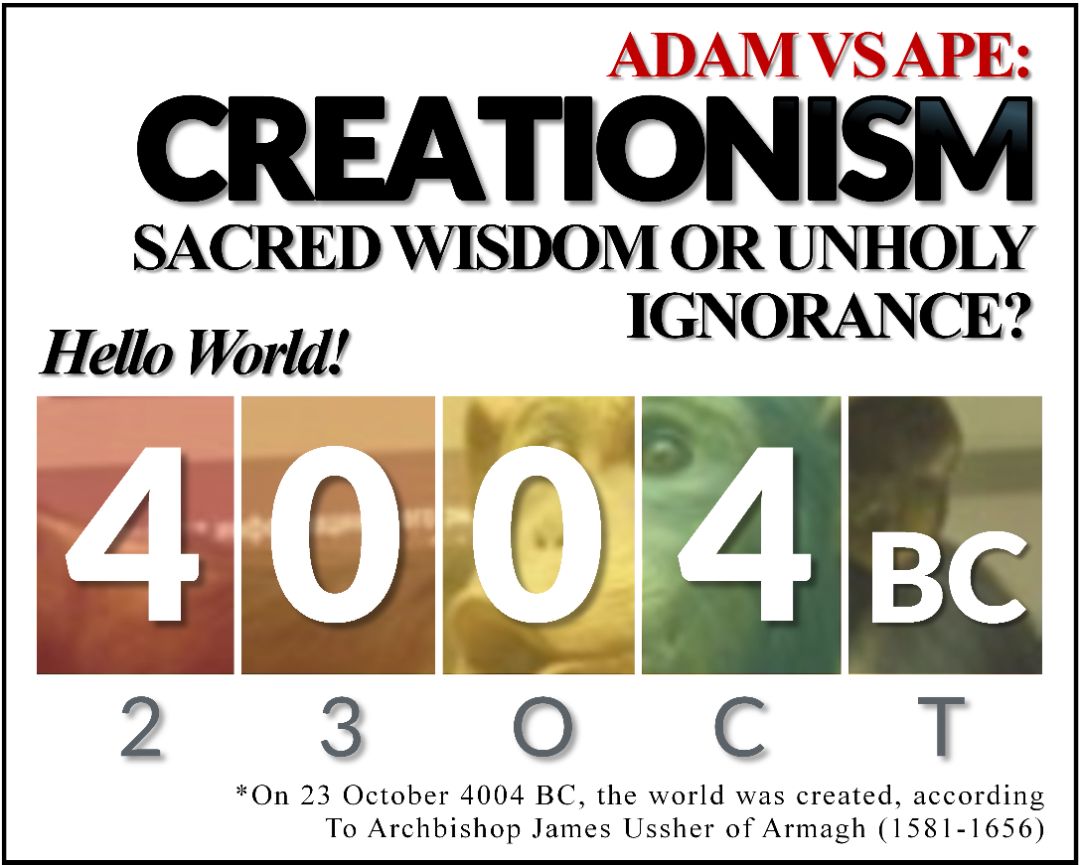

CREATIONISM: SACRED WISDOM OR JUST UNHOLY IGNORANCE?
A Creationist is someone who believes in a god as the absolute creator of heaven and earth, who brought everything into existence from nothing by an act of free will. This deity is considered both "transcendent," meaning beyond human experience, and "immanent," meaning constantly involved in creation, ready to intervene as needed. Without this ongoing divine involvement, creation would cease to exist. Christians, Jews, and Muslims all share this belief in a creator god, and are generally known as "theists," distinguishing them from "deists," who believe in a designer who, after creating the world, does not interfere with it.
In a more specific sense, particularly in popular writings in the US, Creationism often refers to a literal interpretation of the Bible, especially the early chapters of Genesis. This leads Creationists to strongly oppose the concept of evolution, particularly the idea proposed by Charles Darwin in The Origin of Species that all living and extinct organisms are the result of a natural process of development from a few original forms, possibly even from inorganic matter ("common descent").
Creationism encompasses several core beliefs. First, it asserts that the universe began only a short time ago, with "Young Earth Creationists" accepting Archbishop Ussher’s 17th-century estimate of about 6,000 years. Second, it holds that creation occurred in six days, though opinions vary on whether these were literal 24-hour periods. Third, it posits a miraculous creation of all life, including humans, with some debate over whether Adam and Eve were created together or if Eve was created later to accompany Adam. Fourth, Creationists believe in a worldwide flood, through which only a limited number of humans and animals survived. Fifth, they accept other biblical events like the Tower of Babel and Lot's wife turning into a pillar of salt as historical facts. Creationists, sometimes known as Fundamentalists or biblical literalists, often advocate for Intelligent Design, emphasizing supposed scientific grounds for their beliefs. (Source: Stanford Encyclopedia) Moreover, Creationists often see themselves as the true defenders of traditional Christianity, despite historical figures like St. Augustine already challenging a literal reading of scripture.
Isn't it puzzling that, in the 21st century, some people cling to the logical flaws of design arguments and reject scientific evidence for evolution in favor of religious dogma? This may stem from a need for psychological certainty, deep cultural and social influences, or steadfast adherence to longstanding religious traditions. However, the negative consequences of Creationism—including undermining scientific education, breaching the separation of church and state, and stifling critical thinking—are certainly concerning, especially as its influence grows globally.
#religion #populism #creationism #education
10-08-2024



CREATIONISM: SACRED WISDOM OR JUST UNHOLY IGNORANCE?
A Creationist is someone who believes in a god as the absolute creator of heaven and earth, who brought everything into existence from nothing by an act of free will. This deity is considered both "transcendent," meaning beyond human experience, and "immanent," meaning constantly involved in creation, ready to intervene as needed. Without this ongoing divine involvement, creation would cease to exist. Christians, Jews, and Muslims all share this belief in a creator god, and are generally known as "theists," distinguishing them from "deists," who believe in a designer who, after creating the world, does not interfere with it.
In a more specific sense, particularly in popular writings in the US, Creationism often refers to a literal interpretation of the Bible, especially the early chapters of Genesis. This leads Creationists to strongly oppose the concept of evolution, particularly the idea proposed by Charles Darwin in The Origin of Species that all living and extinct organisms are the result of a natural process of development from a few original forms, possibly even from inorganic matter ("common descent").
Creationism encompasses several core beliefs. First, it asserts that the universe began only a short time ago, with "Young Earth Creationists" accepting Archbishop Ussher’s 17th-century estimate of about 6,000 years. Second, it holds that creation occurred in six days, though opinions vary on whether these were literal 24-hour periods. Third, it posits a miraculous creation of all life, including humans, with some debate over whether Adam and Eve were created together or if Eve was created later to accompany Adam. Fourth, Creationists believe in a worldwide flood, through which only a limited number of humans and animals survived. Fifth, they accept other biblical events like the Tower of Babel and Lot's wife turning into a pillar of salt as historical facts. Creationists, sometimes known as Fundamentalists or biblical literalists, often advocate for Intelligent Design, emphasizing supposed scientific grounds for their beliefs. (Source: Stanford Encyclopedia) Moreover, Creationists often see themselves as the true defenders of traditional Christianity, despite historical figures like St. Augustine already challenging a literal reading of scripture.
Isn't it puzzling that, in the 21st century, some people cling to the logical flaws of design arguments and reject scientific evidence for evolution in favor of religious dogma? This may stem from a need for psychological certainty, deep cultural and social influences, or steadfast adherence to longstanding religious traditions. However, the negative consequences of Creationism—including undermining scientific education, breaching the separation of church and state, and stifling critical thinking—are certainly concerning, especially as its influence grows globally.
#religion #populism #creationism #education
Interesting fact: The Catholic Church kept an INDEX OF FORBIDDEN BOOKS from 1560 to 1966 (!). It banned thousands of book titles and blacklisted publications, including many works of Europe's intellectual elites.
Noteworthy figures on the Index include Simone de Beauvoir, Nicolas Malebranche, Jean-Paul Sartre, Alexandre Dumas, Hobbes, Stendhal, Heine, Zola, Michel de Montaigne, Voltaire, Denis Diderot, Victor Hugo, Jean-Jacques Rousseau, André Gide, Nikos Kazantzakis, Emanuel Swedenborg, Baruch Spinoza, Desiderius Erasmus, Immanuel Kant, David Hume, René Descartes, Francis Bacon, Thomas Browne, John Milton, John Locke, Nicolaus Copernicus, Niccolò Machiavelli, Galileo Galilei, Blaise Pascal, and Hugo Grotius.
The reason it was discontinued? Cardinal Ottaviani stated in April 1966 that there was too much contemporary literature and the Sacred Congregation for the Doctrine of the Faith could not keep up with it. :-)
I guess one must agree with Anthony Grayling that religion has not always been a source of human enlightenment...
#religion #education
08-08-2024

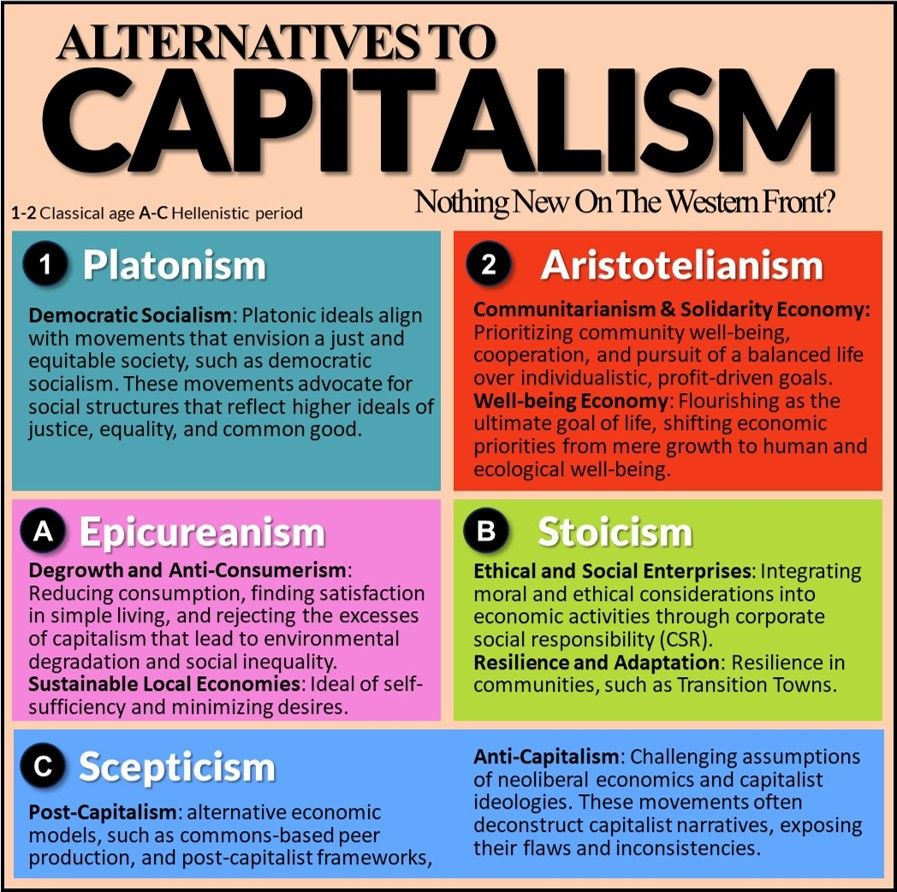

In times of increasing change and ambiguity, it's natural to look to the wisdom of the past for guidance. The Classical and Hellenistic periods, much like our own era, were marked by uncertainty and flux, and during those times, several philosophical approaches emerged to help individuals navigate the complexities of life.
Epicureanism taught the pursuit of simple intellectual pleasures and the avoidance of unnecessary desires as a path to tranquility. Skepticism urged a cautious suspension of judgment, encouraging doubt and critical thinking in the face of uncertainty - as well as autarchy, apathy and freedom. Stoicism, on the other hand, emphasized virtue, rationality, and resilience, advocating for inner strength and moral integrity in the face of external challenges. To some extent, we could argue that contemporary movements for degrowth, corporate responsibility or post-capitalism take inspiration from these philosophies which emerged throughout the Roman Republic and Empire.
However, the Hellenistic responses differ significantly from the classical philosophies of Plato and Aristotle. While the classical thinkers asked how the state (and economy) could be best organized to ensure the well-being of all citizens, the Hellenistic philosophies shifted focus to the individual: how can one live with as much fortitude and tranquility (ataraxia) as possible in an unpredictable world?
This raises a crucial question for us today: are we willing to take political accountability for creating a society that fosters the common good, or are we more inclined to seek peace of mind as individuals, detached from broader social responsibilities? The choice between these paths—engagement in collective societal change versus the pursuit of personal tranquility—remains as relevant now as it was in the ancient world.
#transformation #change #philosophy #business #leadership
07-08-2024
In times of increasing change and ambiguity, it's natural to look to the wisdom of the past for guidance. The Classical and Hellenistic periods, much like our own era, were marked by uncertainty and flux, and during those times, several philosophical approaches emerged to help individuals navigate the complexities of life.
Epicureanism taught the pursuit of simple intellectual pleasures and the avoidance of unnecessary desires as a path to tranquility. Skepticism urged a cautious suspension of judgment, encouraging doubt and critical thinking in the face of uncertainty - as well as autarchy, apathy and freedom. Stoicism, on the other hand, emphasized virtue, rationality, and resilience, advocating for inner strength and moral integrity in the face of external challenges. To some extent, we could argue that contemporary movements for degrowth, corporate responsibility or post-capitalism take inspiration from these philosophies which emerged throughout the Roman Republic and Empire.
However, the Hellenistic responses differ significantly from the classical philosophies of Plato and Aristotle. While the classical thinkers asked how the state (and economy) could be best organized to ensure the well-being of all citizens, the Hellenistic philosophies shifted focus to the individual: how can one live with as much fortitude and tranquility (ataraxia) as possible in an unpredictable world?
This raises a crucial question for us today: are we willing to take political accountability for creating a society that fosters the common good, or are we more inclined to seek peace of mind as individuals, detached from broader social responsibilities? The choice between these paths—engagement in collective societal change versus the pursuit of personal tranquility—remains as relevant now as it was in the ancient world.
#transformation #change #philosophy #business #leadership



Are the wars in Ukraine or Palestine just? According to the prevailing Just War Theory (JWT), several criteria must be met for military action to be justified, divided into two main groups: a) jus ad bellum ("right to go to war") and b) jus in bello ("right conduct in war").
* Thomas Aquinas outlined three critical jus ad bellum requirements: 1. the war must be waged upon the command of a rightful sovereign (legitimate authority); 2. for a just cause, i.e., on account of some wrong the attacked have committed; and 3. with the right intention—to promote good and avoid evil.
* Aristotle, who first introduced the concept and terminology to the Hellenic world, added that war must not prevent the restoration of peace, leading to three jus in bello criteria: 1. proportionality, 2. last resort, and 3. probability of success.
* Additionally, there have been calls for a third category, jus post bellum, to deal with the morality of post-war settlement and reconstruction.
While JWT contends that war can be justified under certain conditions and with the right conduct, it has faced significant criticism. Anarchists challenge the legitimacy of any public authority to impose war on its citizens, while pacifists argue that JWT perpetuates violence by focusing on war as a means rather than peace as the ultimate goal. Here, the Western tradition's reliance on simplistic and abstract principles often overlooks the need for broader examination of non-violent alternatives. It reduces agency and responsibility to a point where it’s too late to pursue other options, rather than emphasizing an absolute duty to maintain peace. Ontologically, war is not an external phenomenon but a system within society—shaped by societal structures and daily practices. Thus, the responsibility must start with developing and maintaining structural solutions for peace and actively exploring non-violent alternatives. Countries bear an "ante bellum" responsibility to pursue human flourishing, recognizing that violence can never foster a truly non-violent society.
Hence, while JWT provides a preliminary framework to assess whether a war can be considered just, it is not sufficient on its own. By its principles, clearly neither the war in Ukraine nor in Palestine can be deemed legitimate. More crucially, though, as Immanuel Kant observed, "war is an unjust and unreasoning arbiter," reducing questions of justice to mere displays of strength. War, inherently unpredictable and often unjust, is a deeply flawed means of resolving international conflicts. We must not permit politicians to use war simply as an extension of politics by other means—ultimately, everyone loses.
#leadership #responsibility #politics #war #strategy
Are the wars in Ukraine or Palestine just? According to the prevailing Just War Theory (JWT), several criteria must be met for military action to be justified, divided into two main groups: a) jus ad bellum ("right to go to war") and b) jus in bello ("right conduct in war").
* Thomas Aquinas outlined three critical jus ad bellum requirements: 1. the war must be waged upon the command of a rightful sovereign (legitimate authority); 2. for a just cause, i.e., on account of some wrong the attacked have committed; and 3. with the right intention—to promote good and avoid evil.
* Aristotle, who first introduced the concept and terminology to the Hellenic world, added that war must not prevent the restoration of peace, leading to three jus in bello criteria: 1. proportionality, 2. last resort, and 3. probability of success.
* Additionally, there have been calls for a third category, jus post bellum, to deal with the morality of post-war settlement and reconstruction.
While JWT contends that war can be justified under certain conditions and with the right conduct, it has faced significant criticism. Anarchists challenge the legitimacy of any public authority to impose war on its citizens, while pacifists argue that JWT perpetuates violence by focusing on war as a means rather than peace as the ultimate goal. Here, the Western tradition's reliance on simplistic and abstract principles often overlooks the need for broader examination of non-violent alternatives. It reduces agency and responsibility to a point where it’s too late to pursue other options, rather than emphasizing an absolute duty to maintain peace. Ontologically, war is not an external phenomenon but a system within society—shaped by societal structures and daily practices. Thus, the responsibility must start with developing and maintaining structural solutions for peace and actively exploring non-violent alternatives. Countries bear an "ante bellum" responsibility to pursue human flourishing, recognizing that violence can never foster a truly non-violent society.
Hence, while JWT provides a preliminary framework to assess whether a war can be considered just, it is not sufficient on its own. By its principles, clearly neither the war in Ukraine nor in Palestine can be deemed legitimate. More crucially, though, as Immanuel Kant observed, "war is an unjust and unreasoning arbiter," reducing questions of justice to mere displays of strength. War, inherently unpredictable and often unjust, is a deeply flawed means of resolving international conflicts. We must not permit politicians to use war simply as an extension of politics by other means—ultimately, everyone loses.
#leadership #responsibility #politics #war #strategy
04-08-2024
It is a profound truth that true #freedom needs a "reason" to be free. To be free is always to have something at stake, to vulnerably participate in a complex of existential contradictions without which life would not genuinely have meaning.
Therein lies the equally deep insight that concrete freedom cannot only, and sometimes not even primarily, be a matter of our 'right' to be free, but rather consists in the development of our shared societal capacity to learn to become free.
03-08-2024



It is true that leadership in business cannot replace good political governance, which is legitimized by a democratic process. Additionally, within competitive market economies, business leaders must balance the needs of many stakeholders. We also agree that leadership is not about glorifying individual heroes, but about enhancing our collective capacity to drive positive change and realize the full potential of human organisations.
That said, let me be equally clear: business leadership must not be an excuse for prioritizing special interests over societal benefits. Market pressures cannot justify a lack of moral imagination or, worse, cowardice and greed. With power comes responsibility, and this responsibility must be measured against ideals, such as justice, freedom, honour and compassion. It is not wealth and success that make goodness, but goodness that gives value to wealth and success. Good leadership is always also followership, insofar at it implies an essential commitment to an ultimate principle of human flourishing.
Those unwilling to measure their actions against these higher standards should not be tolerated in leadership positions. We are not leaders because we rule; we are leaders because we truly care.
#leadership
It is true that leadership in business cannot replace good political governance, which is legitimized by a democratic process. Additionally, within competitive market economies, business leaders must balance the needs of many stakeholders. We also agree that leadership is not about glorifying individual heroes, but about enhancing our collective capacity to drive positive change and realize the full potential of human organisations.
That said, let me be equally clear: business leadership must not be an excuse for prioritizing special interests over societal benefits. Market pressures cannot justify a lack of moral imagination or, worse, cowardice and greed. With power comes responsibility, and this responsibility must be measured against ideals, such as justice, freedom, honour and compassion. It is not wealth and success that make goodness, but goodness that gives value to wealth and success. Good leadership is always also followership, insofar at it implies an essential commitment to an ultimate principle of human flourishing.
Those unwilling to measure their actions against these higher standards should not be tolerated in leadership positions. We are not leaders because we rule; we are leaders because we truly care.
#leadership
02-08-2024
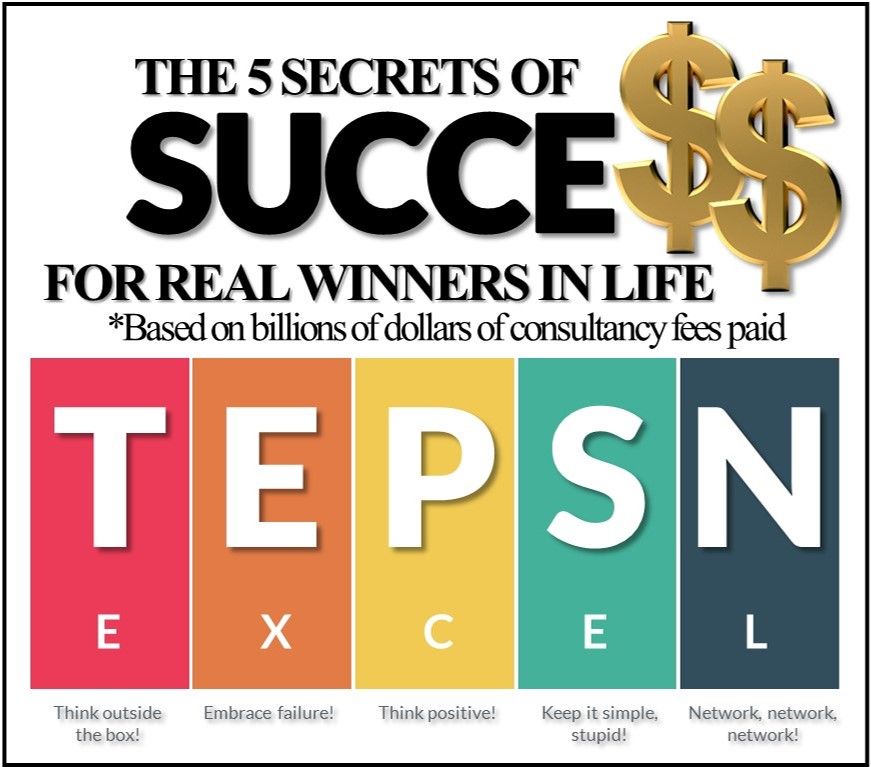

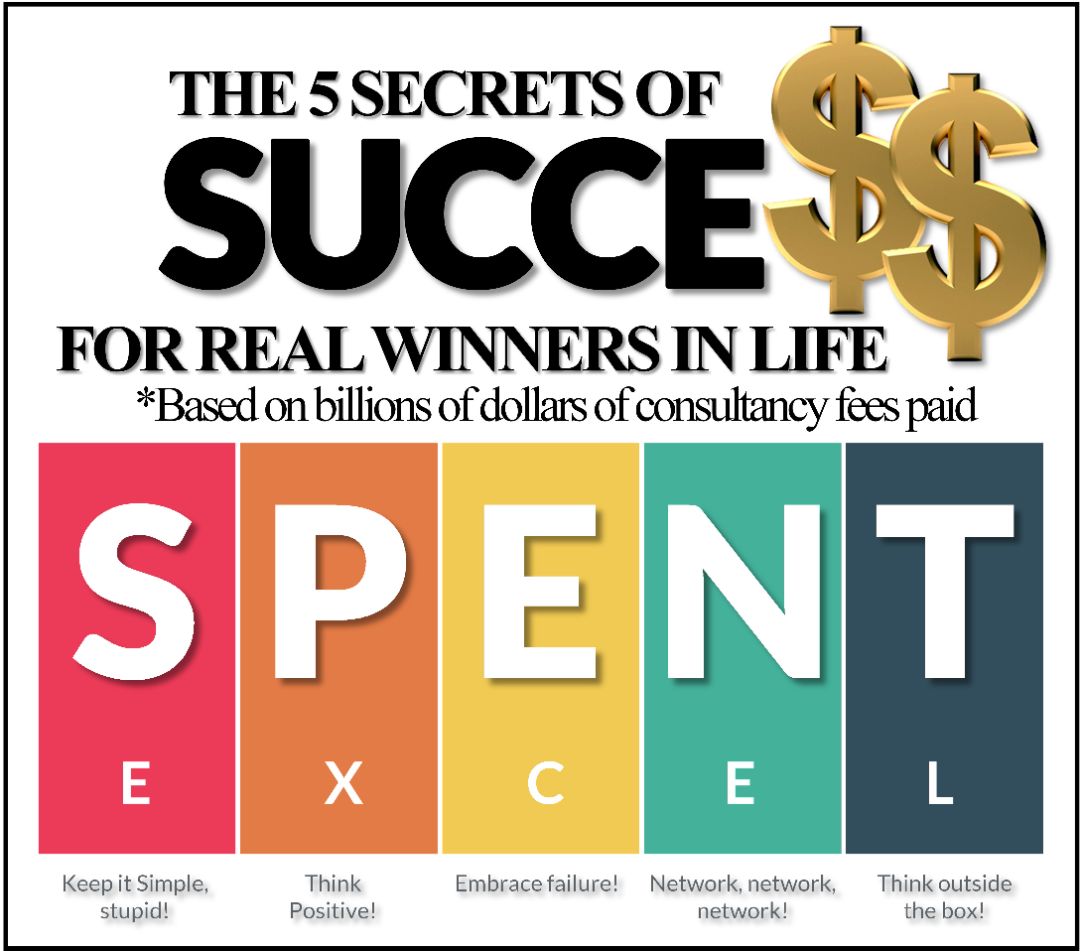
UNLOCK YOUR ULTIMATE POTENTIAL: Top 5 Silver Bullets for Private & Corporate Success!
Have you ever felt stuck, longing for that magical boost to catapult you to brilliance, creativity, and productivity? You’re in luck! We’ve distilled the essence of success into five ridiculously simplistic techniques that promise to revolutionize your life. Are they clichés? Absolutely. But don’t let that stop you—if you’re willing to invest in our exorbitant consulting fees, your willpower combined with our fabulous PowerPoints will transform you into a shining beacon of accomplishment!
T- Think Outside the Box!
The most successful people are those who dare to think differently! So, step out of your box, shake the box, turn the box upside down, set the box on fire, and then launch it into space until the box will need a telescope just to catch a glimpse of you! Watch your creativity not just soar, but blast off to galactic heights!
E- Embrace Failure!
Failure is your golden ticket to triumph! Each colossal blunder is a cosmic nudge towards greatness. Plan your spectacular flops as miraculous opportunities to reinvent yourself and rise from the ashes like a gloriously flamboyant phoenix. Remember, the road to success is paved with the rubble of your dazzling missteps. Worship at the altar of your mistakes, and you’ll soon be catapulted to the pantheon of wisdom, leaving mere mortals in awe of your all-inspiring resilience!
P- Think Positive!
Forget practicality; optimism is your express ticket to the stars! Ever heard the phrase, “If you can believe it, you can achieve it”? It’s not just a motivational quote; it’s your shortcut to instant enlightenment! Who needs hard work or strategy when you can just sprinkle positivity dust and become a billionaire overnight?
S- Keep It Simple, Stupid (KISS)!
Ah, simplicity—the ultimate magic wand for all your problems! Forget about nuance, detail, context or real-world challenges— brilliant solutions are always the simplest! Complexity is the enemy of execution, perfect is the enemy of good, and simplicity is the ultimate sophistication! Let creativity explode like fireworks on a toddler’s birthday, and productivity skyrocket like an over-caffeinated squirrel!
N- Network, Network, Network!
Success isn’t about track record; it’s about amassing an exclusive roster of contacts who can open doors you didn’t even know existed! Your network is your net worth. Invest every waking moment in expanding your connections like it’s your full-time job—forget sleep, meals, or personal hygiene. Schmooze, charm, and flatter like your future depends on it—because it does!
So there you have it—the top 5 silver bullets to unlock your ultimate potential. Good luck with TEPSN-ing your life as you watch yourself becoming brighter, more creative, more productive, and more successful. The journey to greatness starts now —or whenever you’re ready to fork over those consulting fees!
#leadership #consulting
Inspired by a McKinsey newsletter
UNLOCK YOUR ULTIMATE POTENTIAL: Top 5 Silver Bullets for Private & Corporate Success!
Have you ever felt stuck, longing for that magical boost to catapult you to brilliance, creativity, and productivity? You’re in luck! We’ve distilled the essence of success into five ridiculously simplistic techniques that promise to revolutionize your life. Are they clichés? Absolutely. But don’t let that stop you—if you’re willing to invest in our exorbitant consulting fees, your willpower combined with our fabulous PowerPoints will transform you into a shining beacon of accomplishment!
T- Think Outside the Box!
The most successful people are those who dare to think differently! So, step out of your box, shake the box, turn the box upside down, set the box on fire, and then launch it into space until the box will need a telescope just to catch a glimpse of you! Watch your creativity not just soar, but blast off to galactic heights!
E- Embrace Failure!
Failure is your golden ticket to triumph! Each colossal blunder is a cosmic nudge towards greatness. Plan your spectacular flops as miraculous opportunities to reinvent yourself and rise from the ashes like a gloriously flamboyant phoenix. Remember, the road to success is paved with the rubble of your dazzling missteps. Worship at the altar of your mistakes, and you’ll soon be catapulted to the pantheon of wisdom, leaving mere mortals in awe of your all-inspiring resilience!
P- Think Positive!
Forget practicality; optimism is your express ticket to the stars! Ever heard the phrase, “If you can believe it, you can achieve it”? It’s not just a motivational quote; it’s your shortcut to instant enlightenment! Who needs hard work or strategy when you can just sprinkle positivity dust and become a billionaire overnight?
S- Keep It Simple, Stupid (KISS)!
Ah, simplicity—the ultimate magic wand for all your problems! Forget about nuance, detail, context or real-world challenges— brilliant solutions are always the simplest! Complexity is the enemy of execution, perfect is the enemy of good, and simplicity is the ultimate sophistication! Let creativity explode like fireworks on a toddler’s birthday, and productivity skyrocket like an over-caffeinated squirrel!
N- Network, Network, Network!
Success isn’t about track record; it’s about amassing an exclusive roster of contacts who can open doors you didn’t even know existed! Your network is your net worth. Invest every waking moment in expanding your connections like it’s your full-time job—forget sleep, meals, or personal hygiene. Schmooze, charm, and flatter like your future depends on it—because it does!
So there you have it—the top 5 silver bullets to unlock your ultimate potential. Good luck with TEPSN-ing your life as you watch yourself becoming brighter, more creative, more productive, and more successful. The journey to greatness starts now —or whenever you’re ready to fork over those consulting fees!
#leadership #consulting
Inspired by a McKinsey newsletter
30-07-2024



Step Aside, Batman: Here Comes Homo Economicus!
Meet Homo Economicus, the superhero of the neoclassical economics world! This remarkable phenomenon is not your average Joe. No, Homo Economicus is a superhuman, calculative optimizing machine. Imagine a being that can process infinite information faster than you can say "supply and demand" and does it all without breaking a sweat or paying a dime!
In the fantastical land of Neoclassicalia, Homo Economicus lives in a perfect market paradise where:
* Utility Function: Life’s goal is to maximize utility, like being on a constant quest for the ultimate ice cream flavor (with no lactose intolerance in sight).
* Production Function: Think of this as their magical recipe book, where every ingredient is perfectly measured and every dish is optimized for the greatest output – efficiency at its finest!
* Equilibrating Mechanism: Forget traffic jams and stock market crashes. In Homo Economicus’s world, everything always balances out perfectly. Prices signal like neon signs in Times Square, guiding our hero to economic Nirvana.
No confusion, no chaos. Just perfect information flowing seamlessly, as if the universe itself whispered the secrets of the market into Homo Economicus’s ear.
So next time you’re stuck in line trying to decide between almond milk and oat milk, just remember: somewhere in the theoretical realm, Homo Economicus already knows the answer – and has optimized it for maximum satisfaction and minimum cost. Or... Economics may be making up fairy tales! 🦸♂️📈🧠
PS: Thanks to Jamie Morgan for his "textbook" definition of the standard "neoclassical" economic agent: a calculative optimising entity, able to process infinite information instantaneously and without cost to achieve given ends (and able to do so within a system reduced to a utility function, a production function and an equilibrating mechanism, whose fundamental frame of reference is "the market" conceived as an environment of price signalling information processing under perfect information) - an ahistorical entity applicable anywhere and anytime.
#EconomicsMagic #HomoEconomicus #MarketMaster
Step Aside, Batman: Here Comes Homo Economicus!
Meet Homo Economicus, the superhero of the neoclassical economics world! This remarkable phenomenon is not your average Joe. No, Homo Economicus is a superhuman, calculative optimizing machine. Imagine a being that can process infinite information faster than you can say "supply and demand" and does it all without breaking a sweat or paying a dime!
In the fantastical land of Neoclassicalia, Homo Economicus lives in a perfect market paradise where:
* Utility Function: Life’s goal is to maximize utility, like being on a constant quest for the ultimate ice cream flavor (with no lactose intolerance in sight).
* Production Function: Think of this as their magical recipe book, where every ingredient is perfectly measured and every dish is optimized for the greatest output – efficiency at its finest!
* Equilibrating Mechanism: Forget traffic jams and stock market crashes. In Homo Economicus’s world, everything always balances out perfectly. Prices signal like neon signs in Times Square, guiding our hero to economic Nirvana.
No confusion, no chaos. Just perfect information flowing seamlessly, as if the universe itself whispered the secrets of the market into Homo Economicus’s ear.
So next time you’re stuck in line trying to decide between almond milk and oat milk, just remember: somewhere in the theoretical realm, Homo Economicus already knows the answer – and has optimized it for maximum satisfaction and minimum cost. Or... Economics may be making up fairy tales! 🦸♂️📈🧠
PS: Thanks to Jamie Morgan for his "textbook" definition of the standard "neoclassical" economic agent: a calculative optimising entity, able to process infinite information instantaneously and without cost to achieve given ends (and able to do so within a system reduced to a utility function, a production function and an equilibrating mechanism, whose fundamental frame of reference is "the market" conceived as an environment of price signalling information processing under perfect information) - an ahistorical entity applicable anywhere and anytime.
#EconomicsMagic #HomoEconomicus #MarketMaster
28-07-2024

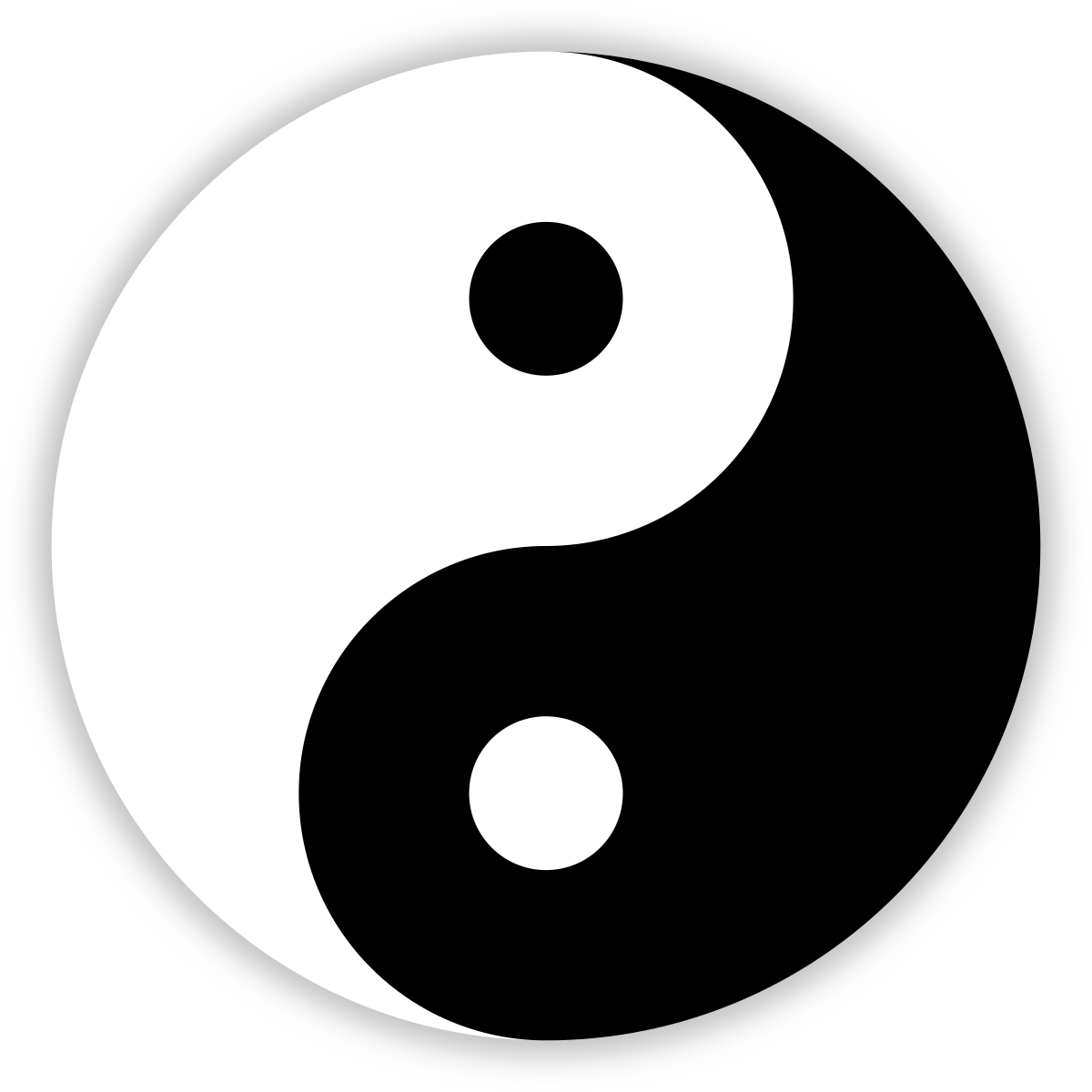

The Problem with Yin-Yang
The Yin-Yang concept is a cornerstone of Chinese philosophy, especially in Taoism. It symbolizes the idea that opposite forces are interconnected and interdependent in the natural world. Yin (the dark, passive, feminine aspect) and Yang (the light, active, masculine aspect) are viewed as complementary rather than conflicting.
While the Yin-Yang concept offers a valuable perspective, it has several limitations when applied to a social dialectics of freedom, echoing Bhaskar’s critique of Hegel:
1. Static Balance vs. Dynamic Change
* Yin-Yang: Provides a straightforward framework for understanding the allegedly necessary interplay of opposites, emphasizing a balance between them and suggesting a state of equilibrium. Although change is inherent, it is seen as cyclic and harmonious rather than progressive and transformative.
* Dialectics: Focuses on transformative change driven by contradictions and absences. The dialectic of freedom involves recognizing and addressing real-world constraints to achieve emancipation, implying a dynamic and often conflictual process rather than harmonious balance.
2. Material Conditions and Human Agency
* Yin-Yang: Generally applies to natural and cosmic processes, often neglecting a specific focus on human agency and ignoring material conditions. The idea that negative and positive forces are interconnected and necessary for each other can provide emotional comfort.
* Dialectics: Explicitly incorporates human agency and praxis. It emphasizes that human beings can and should act to transform oppressive practices, grounding dialectics in social and material reality.
3. Emancipation and Social Structures
* Yin-Yang: Does not inherently address issues of power, oppression, and emancipation. It is about maintaining harmony within the existing cosmic or human order, suggesting that different political ideologies or groups can balance each other.
* Dialectics: Aims for emancipation of individuals and society by transforming social structures that restrict freedom. It is oriented towards achieving greater human freedom and overcoming social injustices.
4. Ontology and Epistemology
* Yin-Yang: Emphasizes interconnectedness of human actions and natural systems, implying a monistic and integrative “spiritual” view of reality. However, it does not explicitly engage with epistemological and ontological issues concerning the nature of reality and knowledge.
* Dialectics: Engages deeply with both ontology (the nature of being) and epistemology (the nature of knowledge), advocating for a realist approach that acknowledges the complexity and stratification of reality, as well as the transformative potential of human reflexivity and action.
The Yin-Yang concept is certainly simple, but its conservative focus on harmony seems to support the status quo, rather than addressing the conflictual and transformative aspects of social development. What makes it so attractive?
#transformation #leadership
The Problem with Yin-Yang
The Yin-Yang concept is a cornerstone of Chinese philosophy, especially in Taoism. It symbolizes the idea that opposite forces are interconnected and interdependent in the natural world. Yin (the dark, passive, feminine aspect) and Yang (the light, active, masculine aspect) are viewed as complementary rather than conflicting.
While the Yin-Yang concept offers a valuable perspective, it has several limitations when applied to a social dialectics of freedom, echoing Bhaskar’s critique of Hegel:
1. Static Balance vs. Dynamic Change
* Yin-Yang: Provides a straightforward framework for understanding the allegedly necessary interplay of opposites, emphasizing a balance between them and suggesting a state of equilibrium. Although change is inherent, it is seen as cyclic and harmonious rather than progressive and transformative.
* Dialectics: Focuses on transformative change driven by contradictions and absences. The dialectic of freedom involves recognizing and addressing real-world constraints to achieve emancipation, implying a dynamic and often conflictual process rather than harmonious balance.
2. Material Conditions and Human Agency
* Yin-Yang: Generally applies to natural and cosmic processes, often neglecting a specific focus on human agency and ignoring material conditions. The idea that negative and positive forces are interconnected and necessary for each other can provide emotional comfort.
* Dialectics: Explicitly incorporates human agency and praxis. It emphasizes that human beings can and should act to transform oppressive practices, grounding dialectics in social and material reality.
3. Emancipation and Social Structures
* Yin-Yang: Does not inherently address issues of power, oppression, and emancipation. It is about maintaining harmony within the existing cosmic or human order, suggesting that different political ideologies or groups can balance each other.
* Dialectics: Aims for emancipation of individuals and society by transforming social structures that restrict freedom. It is oriented towards achieving greater human freedom and overcoming social injustices.
4. Ontology and Epistemology
* Yin-Yang: Emphasizes interconnectedness of human actions and natural systems, implying a monistic and integrative “spiritual” view of reality. However, it does not explicitly engage with epistemological and ontological issues concerning the nature of reality and knowledge.
* Dialectics: Engages deeply with both ontology (the nature of being) and epistemology (the nature of knowledge), advocating for a realist approach that acknowledges the complexity and stratification of reality, as well as the transformative potential of human reflexivity and action.
The Yin-Yang concept is certainly simple, but its conservative focus on harmony seems to support the status quo, rather than addressing the conflictual and transformative aspects of social development. What makes it so attractive?
#transformation #leadership
27-07-2024
EPISTEMIC FALLACY: A statement of being can always be reduced to a statement about our knowledge of being. In other words, what is real is (only) what we can experience.
Of course, such a classically empiricist position is untenable. It implies that ontology is reduced to epistemology within closed systems and “laws” are derived from atomistic events and their relations, ie constant conjunctions. The absurd implication is that (transfactual) "laws" are not real if we do not experience, or not correctly observe, recurrent sequences of events. In other words, there is a big difference between the statements “it works, because it’s true”; and “it’s true because it works.”
Moreover, it also implies that our knowledge of reality is in itself invariant - it can only be falsified or validated through empirical testing.
A corollary of such positivism is the fashionable postmodern insistence on a supremacy of subjective experiences and discourse, and the fallacious inference that because there is no epistemologically objective view of the world, there is also no objective world ontologically. With the famously ambiguous words of Jacquees Derrida "there is nothing outside text".
Of course, that makes no sense. Plurality is a descriptive fact, but it becomes relativism when we start to believe that all experiences and interpretations are equally valid. The world cannot be altered just because we happen to change our beliefs about it. It would lead to the absurd notion that when people discovered that the earth revolved around the sun, their objective world suddenly changed.
But, positively formulated, an abandonment of the deserts of empiricist flatness and the tyranny of the actual (or the subjective) opens up a deeper realm of possibility, where the currency of thought isn't evidence but potentiality. Acknowledging the limitations of our passive predictions of events, we should focus on the active cultivation of structures and practices that enhance our ability to yield those events that matter.
EPISTEMIC FALLACY: A statement of being can always be reduced to a statement about our knowledge of being. In other words, what is real is (only) what we can experience.
Of course, such a classically empiricist position is untenable. It implies that ontology is reduced to epistemology within closed systems and “laws” are derived from atomistic events and their relations, ie constant conjunctions. The absurd implication is that (transfactual) "laws" are not real if we do not experience, or not correctly observe, recurrent sequences of events. In other words, there is a big difference between the statements “it works, because it’s true”; and “it’s true because it works.”
Moreover, it also implies that our knowledge of reality is in itself invariant - it can only be falsified or validated through empirical testing.
A corollary of such positivism is the fashionable postmodern insistence on a supremacy of subjective experiences and discourse, and the fallacious inference that because there is no epistemologically objective view of the world, there is also no objective world ontologically. With the famously ambiguous words of Jacquees Derrida "there is nothing outside text".
Of course, that makes no sense. Plurality is a descriptive fact, but it becomes relativism when we start to believe that all experiences and interpretations are equally valid. The world cannot be altered just because we happen to change our beliefs about it. It would lead to the absurd notion that when people discovered that the earth revolved around the sun, their objective world suddenly changed.
But, positively formulated, an abandonment of the deserts of empiricist flatness and the tyranny of the actual (or the subjective) opens up a deeper realm of possibility, where the currency of thought isn't evidence but potentiality. Acknowledging the limitations of our passive predictions of events, we should focus on the active cultivation of structures and practices that enhance our ability to yield those events that matter.
25-07-2024

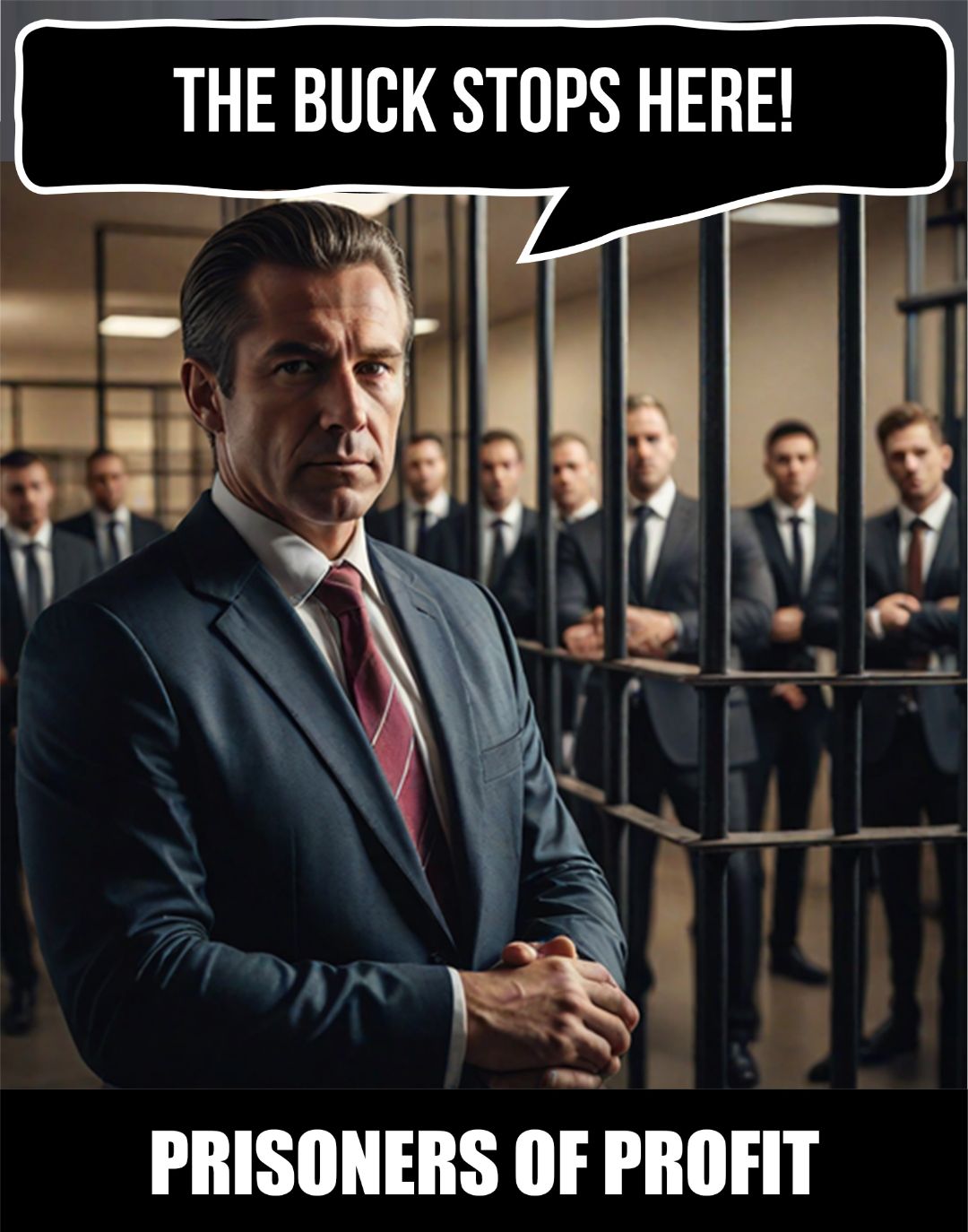

A PRISONERS OF PROFIT: The Panopticon of Financial Capitalism
The concept of the "panopticon" was introduced by Jeremy Bentham, the British social reformer and philosopher, as a design for a prison system allowing a single guard to observe all inmates without their knowledge. The structure features a central tower surrounded by buildings divided into cells, each with two windows: one to let in light and another facing the tower, allowing for unobstructed surveillance.
Michel Foucault argued that the panopticon is not merely a physical structure but a "mechanism of power reduced to its ideal form." In this setup, every individual is isolated, perfectly visible, and perpetually aware that they might be watched.
* In the panopticon, the inmate’s visibility to the guard alone—cut off from contact with others—establishes a power dynamic where surveillance is both omnipresent and unverifiable. Bentham suggested that this arrangement could be easily extended to other societal structures, including schools.
* The architectural genius of the panopticon lies in its ability to function effectively even in the absence of a guardian. Inmates, unsure if they are being watched, internalize the surveillance, thus becoming their own guards.
* The panopticon also includes a system for controlling the controllers. Those in the tower are themselves thoroughly enmeshed in the system of surveillance. “Such is perhaps the most diabolical aspect of the idea and of all the applications it brought about,” said Foucault. “The machine is one in which everyone is caught, those who exercise this power as well as those who are subjected to it.”
Bentham's design may not have found widespread application in his time, but what if its principles have quietly infiltrated our modern world? The Panopticon epitomizes a disciplinary technology that becomes continuous, ubiquitous, and anonymous, creating a self-regulating populace. It extends far beyond prisons, serving as a metaphor for the pervasive and often invisible power structures in society.
* What if stock markets control the towers of a contemporary Panopticon? Picture the modern CEO as a prison guard, employing performance management systems to control an increasingly atomized workforce. This CEO, too, is caught in a web of anonymous control imposed by financial markets—a disciplinary technology that ensures we are always watched, judged, and driven to meet insatiable market demands. Business leaders, politicians, regulators, and the public are all under constant observation, with every action scrutinized through the lens of instrumental rationality, dictated by the imperative of economic growth.
As Foucault warns us, when the lines between freedom and control blur, we must ask: Are we still masters of our fate, or merely prisoners, caught in the gears of a diabolical machine? Are we still making the rules, or have we already begun to discipline ourselves?
#leadership #transformation #politics #ethics #business #finance
THE PRISONERS OF PROFIT: A Panopticon of Financial Capitalism
The concept of the "panopticon" was introduced by Jeremy Bentham, the British social reformer and philosopher, as a design for a prison system allowing a single guard to observe all inmates without their knowledge. The structure features a central tower surrounded by buildings divided into cells, each with two windows: one to let in light and another facing the tower, allowing for unobstructed surveillance.
Michel Foucault argued that the panopticon is not merely a physical structure but a "mechanism of power reduced to its ideal form." In this setup, every individual is isolated, perfectly visible, and perpetually aware that they might be watched.
* In the panopticon, the inmate’s visibility to the guard alone—cut off from contact with others—establishes a power dynamic where surveillance is both omnipresent and unverifiable. Bentham suggested that this arrangement could be easily extended to other societal structures, including schools.
* The architectural genius of the panopticon lies in its ability to function effectively even in the absence of a guardian. Inmates, unsure if they are being watched, internalize the surveillance, thus becoming their own guards.
* The panopticon also includes a system for controlling the controllers. Those in the tower are themselves thoroughly enmeshed in the system of surveillance. “Such is perhaps the most diabolical aspect of the idea and of all the applications it brought about,” said Foucault. “The machine is one in which everyone is caught, those who exercise this power as well as those who are subjected to it.”
Bentham's design may not have found widespread application in his time, but what if its principles have quietly infiltrated our modern world? The Panopticon epitomizes a disciplinary technology that becomes continuous, ubiquitous, and anonymous, creating a self-regulating populace. It extends far beyond prisons, serving as a metaphor for the pervasive and often invisible power structures in society.
* What if stock markets control the towers of a contemporary Panopticon? Picture the modern CEO as a prison guard, employing performance management systems to control an increasingly atomized workforce. This CEO, too, is caught in a web of anonymous control imposed by financial markets—a disciplinary technology that ensures we are always watched, judged, and driven to meet insatiable market demands. Business leaders, politicians, regulators, and the public are all under constant observation, with every action scrutinized through the lens of instrumental rationality, dictated by the imperative of economic growth.
As Foucault warns us, when the lines between freedom and control blur, we must ask: Are we still masters of our fate, or merely prisoners, caught in the gears of a diabolical machine? Are we still making the rules, or have we already begun to discipline ourselves?
#leadership #transformation #politics #ethics #business #finance
20-07-2024



POSITIVISM. In Europe, it has long been "a swearword by which no one is swearing" whereas in the US it still seems to be a badge of honor for research that is considered rigorous. Either way, (logical) positivism - sadly - is alive and kicking and many of its flawed assumptions continue to shape social science research across the globe, and especially in economics.
Much of its logic is based on the anachronistic Covering Law model of scientific explanation which says that to explain a phenomenon is to show that its occurrence follows deductively from a general law: it implies that empirically observed constant conjunctions "if A, then B" can be generalised under alleged natural laws to approximate causality, based on successful prediction. In its modern form it frequently turns to probabilistic modes of explanation, eg "when A, then B with X % probability". Of course, either approach is flawed as it fails to provide genuine explanations for the suggested regularities - conflating prediction with causality while committing an "epistemic fallacy" - and it implicitly posits stable patterns (and closed systems), often unduly equating natural and social systems.
As a consequence, researchers frequently operate with a hotchpotch of instruments seeking cutting edge tools to imitate "the quality" of natural science research, instead of nurturing critical thinking. The frequent overuse of statistical and experimental analysis to make generalised predictions is a case in point...
Most worryingly, it seems to me that in many academic circles meta-theoretical discussions about philosophy of science have completely disappeared. Wherever models are failing, as in the case of the 2008 crisis and many other economic predictions, researchers respond with the insistence on more data, more sophisticated models and more "objective" research - including the hyped up faith in big data and AI. Somehow post modernism - which in many ways was hostile to the enlightenment ideal of scientific and technological progress - seems to have come full circle and collapsed on itself.
#economics #leadership #criticalthinking #personaldevelopment #business #science
POSITIVISM. In Europe, it has long been "a swearword by which no one is swearing" whereas in the US it still seems to be a badge of honor for research that is considered rigorous. Either way, (logical) positivism - sadly - is alive and kicking and many of its flawed assumptions continue to shape social science research across the globe, and especially in economics.
Much of its logic is based on the anachronistic Covering Law model of scientific explanation which says that to explain a phenomenon is to show that its occurrence follows deductively from a general law: it implies that empirically observed constant conjunctions "if A, then B" can be generalised under alleged natural laws to approximate causality, based on successful prediction. In its modern form it frequently turns to probabilistic modes of explanation, eg "when A, then B with X % probability". Of course, either approach is flawed as it fails to provide genuine explanations for the suggested regularities - conflating prediction with causality while committing an "epistemic fallacy" - and it implicitly posits stable patterns (and closed systems), often unduly equating natural and social systems.
As a consequence, researchers frequently operate with a hotchpotch of instruments seeking cutting edge tools to imitate "the quality" of natural science research, instead of nurturing critical thinking. The frequent overuse of statistical and experimental analysis to make generalised predictions is a case in point...
Most worryingly, it seems to me that in many academic circles meta-theoretical discussions about philosophy of science have completely disappeared. Wherever models are failing, as in the case of the 2008 crisis and many other economic predictions, researchers respond with the insistence on more data, more sophisticated models and more "objective" research - including the hyped up faith in big data and AI. Somehow post modernism - which in many ways was hostile to the enlightenment ideal of scientific and technological progress - seems to have come full circle and collapsed on itself.
#economics #leadership #criticalthinking #personaldevelopment #business #science
20-07-2024



Beyond the surface: : The Case for Critical Realism in Organizational Analysis
Critical realism (CR) is a philosophical approach that bridges the gap between the observable and the underlying structures that govern social phenomena. It distinguishes between the real (underlying mechanisms), the actual (events), and the empirical (experiences). By emphasizing the reality of social structures and their causal powers, CR goes beyond surface-level observations to explore the deeper, often hidden mechanisms that drive organizational behavior and outcomes.
Moving beyond simplistic linear models of culture change, such as the popular iceberg model, CR prompts researchers and practitioners to identify and address deeper 'generative mechanisms'. Rather than merely treating symptoms or "assumptions", it offers a powerful framework for understanding the complexities of management and organizational practices and change. By developing a more holistic and nuanced understanding of organizational emergence, it can help us to foster more effective and sustainable solutions.
Despite its significance, you may not have heard of CR. In fact, CR has been largely sidelined in management research for several reasons:
1. The dominance of positivist paradigms, driven by a preference for measurable and observable phenomena, has sidelined CR's deeper ontological insights.
2. Economic and regulatory constraints, such as neoliberal policies and managerialist approaches, prioritize efficiency and measurable success, often lacking the flexibility to accommodate CR's critical and emancipatory stance.
3. Additionally, there is a fear of CR's commitment to social justice and transformative change, which challenges existing power structures within academia and organizations.
For consultants and practitioners in organizational change and transformation, it is crucial to familiarize themselves with CR and explore its potential for offering deeper insights into organizational behaviors. To effectively create more just and equitable workplaces, we need to move beyond scientific realism and positivist or post-positivist methodologies.
However, this might require us to let go of a a few cherished assumptions. Only if we are willing to revise some of our old worldviews can we successfully guide our our organizations toward new worlds. As we often say in leadership development, true organizational transformation begins with personal transformation. We cannot lead others to places we have not been ourselves.
#leadership #transformation #philosophy #organizationalchange #personaldevelopment
Beyond the surface: : The Case for Critical Realism in Organizational Analysis
Critical realism (CR) is a philosophical approach that bridges the gap between the observable and the underlying structures that govern social phenomena. It distinguishes between the real (underlying mechanisms), the actual (events), and the empirical (experiences). By emphasizing the reality of social structures and their causal powers, CR goes beyond surface-level observations to explore the deeper, often hidden mechanisms that drive organizational behavior and outcomes.
Moving beyond simplistic linear models of culture change, such as the popular iceberg model, CR prompts researchers and practitioners to identify and address deeper 'generative mechanisms'. Rather than merely treating symptoms or "assumptions", it offers a powerful framework for understanding the complexities of management and organizational practices and change. By developing a more holistic and nuanced understanding of organizational emergence, it can help us to foster more effective and sustainable solutions.
Despite its significance, you may not have heard of CR. In fact, CR has been largely sidelined in management research for several reasons:
1. The dominance of positivist paradigms, driven by a preference for measurable and observable phenomena, has sidelined CR's deeper ontological insights.
2. Economic and regulatory constraints, such as neoliberal policies and managerialist approaches, prioritize efficiency and measurable success, often lacking the flexibility to accommodate CR's critical and emancipatory stance.
3. Additionally, there is a fear of CR's commitment to social justice and transformative change, which challenges existing power structures within academia and organizations.
For consultants and practitioners in organizational change and transformation, it is crucial to familiarize themselves with CR and explore its potential for offering deeper insights into organizational behaviors. To effectively create more just and equitable workplaces, we need to move beyond scientific realism and positivist or post-positivist methodologies.
However, this might require us to let go of a a few cherished assumptions. Only if we are willing to revise some of our old worldviews can we successfully guide our our organizations toward new worlds. As we often say in leadership development, true organizational transformation begins with personal transformation. We cannot lead others to places we have not been ourselves.
#leadership #transformation #philosophy #organizationalchange #personaldevelopment
19-07-2024



The myth of EMERGENCE: Or why the sum isn't always greater than the parts
Few concepts in contemporary discussions about organizational and system change have led to more confusion and misunderstanding than the notion of emergence. Since its first appearance in British emergentism in the early 20th century, it has been used to explain everything from divine monism to increased productivity in diverse teams and the superiority of self-organization. Let’s clear up the confusion.
Firstly, when people talk about emergence, many think of temporal emergence—a phenomenon that develops over time. However, in the context of sociological emergence, we focus on the synchronic relations between parts that lead to new emergent properties. In other words, a property P of a complex whole w composed of entities A and B is not present in either A or B individually, but depends on a specific relationship or structure R connecting both. It can be understood as a property of w (superimposition) or as a new property accessible to A and B while they are part of w (intrastructuration). Either way, w acquires causal powers in its own right.
To simplify, consider water. Water is made up of hydrogen and oxygen, but combined into H2O, it has new properties that are not present in the individual atoms (try extinguishing a fire with oxygen alone). Another example is a dog’s ability to bark. None of the individual body parts of a dog can bark, so barking can be understood as an emergent property. In social systems, we are particularly interested in the emergent properties of organizations. Organizations consist of agentic individuals, but due to the configuration of individuals into roles and the establishment of role relationships, unique properties emerge at the organizational level. Emergent properties persist even when the individuals that make up the organization change.
This highlights the difference between "resultant" and "relational" emergence. "Resultant" refers to properties of the whole that can be directly derived from the characteristics of the parts, such as average height, total mass, or median income. This leads to the common misinterpretation of the saying that a team is more than the sum of its parts. People often apply a linear logic and focus on the combination of specific individuals in a team, rather than paying attention to the relational structure necessary to foster the emergence of new properties. Effective team building requires more than selection; it necessitates the development of virtuous habits, roles, norms, rules, and procedures.
Hence, social emergence is not quite as simple as natural emergence – like flocks of birds. Rather it describes the properties of a specific form of social structure enacted through individual agency. It can explain societal properties like freedom and justice, and other common goods, that are not possessed by individuals but constitutive of a society configured in a specific way.
#leadership #transformation
The myth of EMERGENCE: Or why the sum isn't always greater than the parts
Few concepts in contemporary discussions about organizational and system change have led to more confusion and misunderstanding than the notion of emergence. Since its first appearance in British emergentism in the early 20th century, it has been used to explain everything from divine monism to increased productivity in diverse teams and the superiority of self-organization. Let’s clear up the confusion.
Firstly, when people talk about emergence, many think of temporal emergence—a phenomenon that develops over time. However, in the context of sociological emergence, we focus on the synchronic relations between parts that lead to new emergent properties. In other words, a property P of a complex whole w composed of entities A and B is not present in either A or B individually, but depends on a specific relationship or structure R connecting both. It can be understood as a property of w (superimposition) or as a new property accessible to A and B while they are part of w (intrastructuration). Either way, w acquires causal powers in its own right.
To simplify, consider water. Water is made up of hydrogen and oxygen, but combined into H2O, it has new properties that are not present in the individual atoms (try extinguishing a fire with oxygen alone). Another example is a dog’s ability to bark. None of the individual body parts of a dog can bark, so barking can be understood as an emergent property. In social systems, we are particularly interested in the emergent properties of organizations. Organizations consist of agentic individuals, but due to the configuration of individuals into roles and the establishment of role relationships, unique properties emerge at the organizational level. Emergent properties persist even when the individuals that make up the organization change.
This highlights the difference between "resultant" and "relational" emergence. "Resultant" refers to properties of the whole that can be directly derived from the characteristics of the parts, such as average height, total mass, or median income. This leads to the common misinterpretation of the saying that a team is more than the sum of its parts. People often apply a linear logic and focus on the combination of specific individuals in a team, rather than paying attention to the relational structure necessary to foster the emergence of new properties. Effective team building requires more than selection; it necessitates the development of virtuous habits, roles, norms, rules, and procedures.
Hence, social emergence is not quite as simple as natural emergence – like flocks of birds. Rather it describes the properties of a specific form of social structure enacted through individual agency. It can explain societal properties like freedom and justice, and other common goods, that are not possessed by individuals but constitutive of a society configured in a specific way.
#leadership #transformation
18-07-2024



Do we need badasses to change the world? Must we tolerate autocratic leadership styles, anti-social behaviours and unstable personalities to enjoy societal progress? Is sustainable development simply a matter of heroic inventors and entrepreneurs?
It is a great question. As many commentators on Justin's original post do (see comments), we could ask questions about truth: Was the impact of celebrated entrepreneurs like Musk or Jobs truly that significant? Could events have unfolded similarly without them? Would different behaviours have led to the same outcomes? Such questions, however, can only lead to speculation. From developmental economics, we know there is no consistent correlation between governance forms and growth. What matters are shared focus, coordination, and commitment. That said, Acemoglu for instance points out that a broader distribution of power is essential for sustainable development in the longer run.
I think a more interesting question is what we truly want. What is a "good" business? We should ask if, when universalized, the behaviours of certain leaders are acceptable to human society. Many might resort to economic rationality here, calculating costs and benefits: perhaps it is worth enduring a few ruthless leaders if it results in the next gen iPhone. Maybe a few must suffer like slaves so the whole of society can benefit?
However, such an illiberal view of the economy contradicts the republican ideals enshrined in our constitutions. We guarantee every citizen’s freedom from arbitrary domination, whether as workers or citizens. Even if some might feel the game is work the candle, ethically, it simply isn’t just a game.
When discussing ethics, beyond utilitarian and Kantian perspectives, there are other lenses. Using care ethics, where caring for people and the planet is paramount, the no-asshole rule is non-negotiable. In virtue ethics, the logic is similar. We seek virtuous leaders, not psychopathic maniacs, because work, like life, is an end in itself. It matters who we become, not only what we produce.
Ultimately, it comes down to societal choice – do we want to build a global Athens, Rome, Cairo, or Silicon Valley? My money is on the former. If I must choose between a society or company that glorifies autocrats while promising a constant stream of retail innovations in return, and another where my basic rights are respected even if it means staying a bit longer on my iphone 8, I know where I will stand. That said, I personally believe Acemoglu is right. In the long run, participatory enterprises win.
Ps: of course, it might be argued that Athens had Theseus, Rome had Augustus (or Romulus), Florence the Medici and even Rousseau needed le legislateur. However, being a visionary founder doesn’t imply being a ruthless prince - unless maybe, as Machiavelli states, the world has been corrupted. So maybe our leaders are both cause and product of our times. ;-)
#leadership #transformation #business #agile #development
(Thanks to my friend Justin Hughes for the invitation for this post)
Do we need badasses to change the world? Must we tolerate autocratic leadership, anti-social behaviours and unstable personalities to enjoy societal progress? Is sustainable development simply a matter of heroic inventors and entrepreneurs?
It is a great question. As many commentators do, we could ask questions about truth: Was the impact of celebrated entrepreneurs like Musk or Jobs truly that significant? Could events have unfolded similarly without them? Would different behaviours have led to the same outcomes? Such questions, however, can only lead to speculation. From developmental economics, we know there is no consistent correlation between governance forms and growth. What matters are shared focus, coordination, and commitment. That said, Acemoglu for instance points out that a broader distribution of power is essential for sustainable development.
I think a more interesting question is what we truly want. What is a "good" business? We should ask if, when universalized, the behaviours of certain leaders are acceptable to human society. Many might resort to economic rationality here, calculating costs and benefits: perhaps it is worth enduring a few ruthless leaders if it results in the next gen iPhone. Maybe a few must suffer like slaves so the whole of society can benefit?
However, such an illiberal view of the economy contradicts the republican ideals enshrined in our constitutions. We guarantee every citizen’s freedom from arbitrary domination, whether as workers or citizens. Even if some might feel the game is work the candle, ethically, it simply isn’t just a game.
When discussing ethics, beyond the utilitarian and Kantian perspectives, there are other lenses. Using care ethics, where caring for people and the planet is paramount, the no-asshole rule is non-negotiable. In virtue ethics, the logic is similar. We seek virtuous leaders, not psychopathic maniacs, because work, like life, is an end in itself. It matters who we become, not only what we produce.
Ultimately, it comes down to societal choice – do we want to build a global Athens, Rome, Cairo, or Silicon Valley? My money is on the former. If I must choose between a society or company that glorifies autocrats while promising a constant stream of retail innovations in return, and another where my basic rights are respected even if it means staying a bit longer on my iphone 8, I know where I will stand. That said, I personally believe Acemoglu is right. In the long run, participatory enterprises win.
#leadership #transformation #business #agile #development
18-07-2024
"Any given social ontology has implications for the explanatory methodology which is (and in consistency can be) endorsed."
Margaret Archer highlights in the introduction to her seminal Realist Social Theory what every apprentice academic should be taught from the first days of their career. There is a logical chain between ontology, epistemology, methodology, method and observation. Equally, any attempt to expand the theoretical exploration of social systems towards practical recommendations will require axiological considerations.
Yet, even most elders in academic research seem to remain happily oblivious of the importance of Margaret's claim - or indeed the many other important challenges to scientific realism and method.
The result is an unholy morass of theories - advertised as eclectic pragmatism - that far too often remain unexamined in regards of their normative premises.
18-07-2024

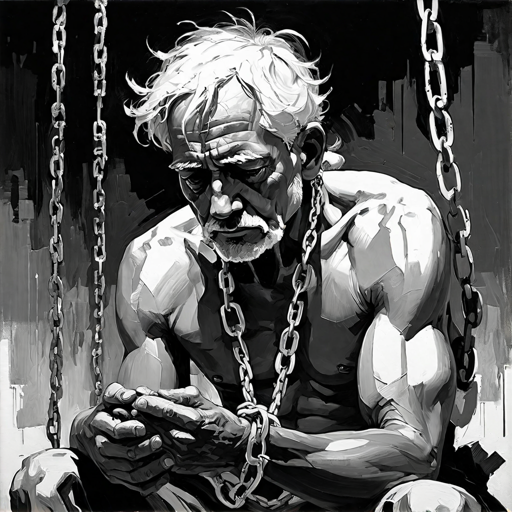

There is no polis for slaves! Aristotle's famous declaration underscores that unfree laborers in Athenian society were not part of the democratic community, or koinonia politike, but belonged to the oikos, the household. Slaves were excluded from citizenship.
In classical political thought, from Catullus to Kant, the terms "civic" and "political" were often synonymous. In the Roman Republic, res publica and civitas were the same, with only cives optimo iure holding rights for both commercial and political participation.
Hegel was the first modern philosopher to propose a distinction between civic and political realms. Observing the fragmentation in an emerging industrial society, he distinguished between bourgeois society (bürgerliche Gesellschaft) and the state. He argued that this separation must be overcome explicitly through dialectic development.
Why does this matter? In modern society, "civic society" is largely apolitical. As Marx, building on Hegel, noted, modern society is dominated by individual economic exchange relationships. "With the change in manners and way of life, each individual was more preoccupied with his own necessities and private affairs."
Of course, Marx believed that civic society could generate political momentum to change the state. However, Hegel might have been closer to the truth. Capitalist dynamics keep citizens preoccupied with apolitical exchange. The ever increasing specialization of production fragments social relationships while collectively fostering a "template" of economic rationality and expected individual patterns of consumption. Consequently, modern workers are quickly trapped in a merely civic society striving for happiness on Amazon Prime. Oblivious of the implied erosion of power, many pride themselves on being apolitical, and genuine political participation is at historic lows.
Our Greek and Roman forebears would be stunned to see that, after a historic battle for the expansion of true citizenship, we now glorify the household. This poses a danger. As a passionate Rousseau warned us two and a half centuries ago, man is born free, but everywhere in chains. As humans - he wrote - we attain our greatest freedom and development only as active participants in a social and political community. True freedom must combine social and political emancipation. Yet, few of us recognize that the seductive "freedom" promised by capitalistic exchange and consumption comes at the cost of social inequality and perpetual political enslavement.
There is no polis for slaves, and as Marie von Ebner-Eschenbach quipped, happy slaves are the greatest enemies of freedom.
#leadership #transformation
There is no polis for slaves! Aristotle's famous declaration underscores that unfree laborers in Athenian society were not part of the democratic community, or koinonia politike, but belonged to the oikos, the household. Slaves were excluded from citizenship.
In classical political thought, from Catullus to Kant, the terms "civic" and "political" were often synonymous. In the Roman Republic, res publica and civitas were the same, with only cives optimo iure holding rights for both commercial and political participation.
Hegel was the first modern philosopher to propose a distinction between civic and political realms. Observing the fragmentation in an emerging industrial society, he distinguished between bourgeois society (bürgerliche Gesellschaft) and the state. He argued that this separation must be overcome explicitly through dialectic development.
Why does this matter? In modern society, "civic society" is largely apolitical. As Marx, building on Hegel, noted, modern society is dominated by individual economic exchange relationships. "With the change in manners and way of life, each individual was more preoccupied with his own necessities and private affairs."
Of course, Marx believed that civic society could generate political momentum to change the state. However, Hegel might have been closer to the truth. Capitalist dynamics keep citizens preoccupied with apolitical exchange. The ever increasing specialization of production fragments social relationships while collectively fostering a "template" of economic rationality and expected individual patterns of consumption. Consequently, modern workers are quickly trapped in a merely civic society striving for happiness on Amazon Prime. Oblivious of the implied erosion of power, many pride themselves on being apolitical, and genuine political participation is at historic lows.
Our Greek and Roman forebears would be stunned to see that, after a historic battle for the expansion of true citizenship, we now glorify the household. This poses a danger. As a passionate Rousseau warned us two and a half centuries ago, man is born free, but everywhere in chains. As humans - he wrote - we attain our greatest freedom and development only as active participants in a social and political community. True freedom must combine social and political emancipation. Yet, few of us recognize that the seductive "freedom" promised by capitalistic exchange and consumption comes at the cost of social inequality and perpetual political enslavement.
There is no polis for slaves, and as Marie von Ebner-Eschenbach quipped, happy slaves are the greatest enemies of freedom.
#leadership #transformation
18-07-2024

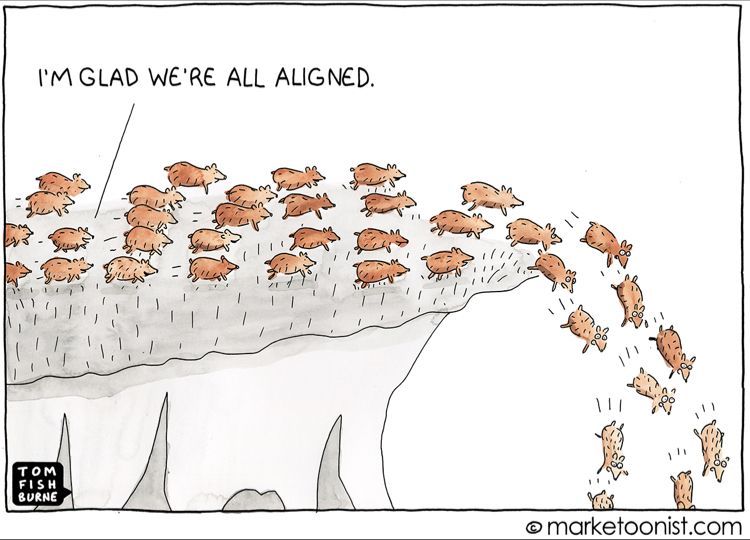

ALL GENUINE #TRANSFORMATIONS ARE DEEPLY POLITICAL.
Culture change programs that ritualistically align with arbitrarily chosen "shared values" often amount to meaningless exercises. They may appease supervisory board consciences or boost consulting profits, but rarely produce organizational excellence.
What matters is not just culture, but lived moral character. This requires a systemic focus on success metrics, policies and institutions, and executive (mis)behavior—not just intellectual leadership theories, "pragmatic" executive development, or sugar-coated micro-recipes for employees to cope. Without a change in values and the redistribution of power, resources and wealth (or relief of debts), no transformation—societal or organizational—will yield greater social justice.
This is where #ESG, #CSR, #Agile or any other change initiative sponsored by well-meaning #HR departments, populist academic "thought leaders," or philanthropic billionaires risks reinforcing a rotten system rather than addressing its root causes. We quickly end up socializing the victims instead of confronting the perpetrators.
In that sense, public #leadership requires not both practical wisdom and a willingness to sacrifice for the common good.
#goodorganisations
(All credits for the picture go to Tom Fishburne) (Repost)
ALL GENUINE #TRANSFORMATIONS ARE DEEPLY POLITICAL.
Culture change programs that ritualistically align with arbitrarily chosen "shared values" often amount to meaningless exercises. They may appease supervisory board consciences or boost consulting profits, but rarely produce organizational excellence.
What matters is not just culture, but lived moral character. This requires a systemic focus on success metrics, policies and institutions, and executive (mis)behavior—not just intellectual leadership theories, "pragmatic" executive development, or sugar-coated micro-recipes for employees to cope. Without a change in values and the redistribution of power, resources and wealth (or relief of debts), no transformation—societal or organizational—will yield greater social justice.
This is where #ESG, #CSR, #Agile or any other change initiative sponsored by well-meaning #HR departments, populist academic "thought leaders," or philanthropic billionaires risks reinforcing a rotten system rather than addressing its root causes. We quickly end up socializing the victims instead of confronting the perpetrators.
In that sense, public #leadership requires not both practical wisdom and a willingness to sacrifice for the common good.
#goodorganisations
(All credits for the picture go to Tom Fishburne) (Repost)
16-07-2024

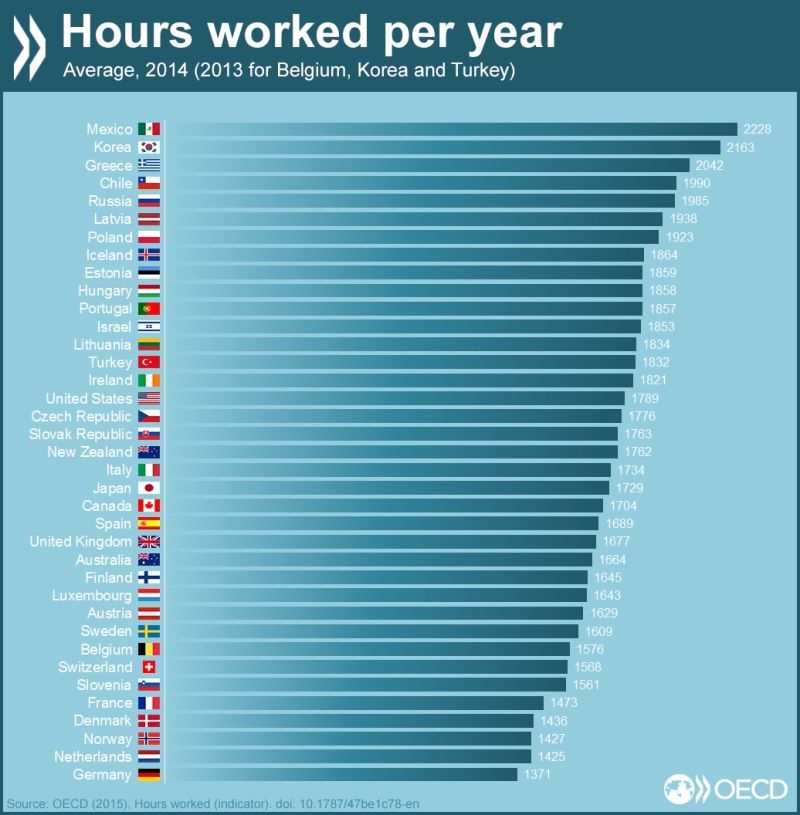

Why the Germans and the Dutch are the "laziest" people in Europe
It's kind of funny that people generally believe people in the South of Europe work less than their Northern cousins. Often such prejudices are linked to a belief that people in poorer countries are lazier - certainly higher income must be linked to people working harder! Of course, this is a complete myth. Incomes more closely correlate with national productivity which often has little to do with individual effort. The second key factor influencing income per capita is public policy, not personal prowess. In fact, the Greek who many Germans happily blamed for their alleged lack of professionalism during the euro crisis are amongst the "hardest" working people in the world (in terms of total amount of annual hours worked).
Just to summarise some of the comments below:
1. The data does not show PRODUCTIVITY!
Correct, and I chose this statistic on purpose. My point here is that "laziness" is a judgment of character, i.e. it relates to input, in terms of effort invested, not to outcome, or productivity. If we take a simple effort measure e.g. total hours worked, we can see there is no legitimacy in calling Southern people lazy. They certainly put the effort in, measured simply as hours worked. For example, Greece just introduced a 6-day work week, while Germany is experimenting with a 4-day work week. Lots of things to be said here in terms of cultural differences etc, but my main point is that many people perpetuate the silly idea that poor people or countries are poor because they do not work hard enough, i.e. they "deserve to be poor". This is ignoring the fact that productivity in rich economies is not a result of individual talent, "smartness", or merit, but based on their collective productive and technological capabilities which have been accrued throughout history. If the same identical worker moves from lets say Berlin to Bombay their productivity will very often drop, unless they are a service worker (arguably an Indian taxi driver is a lot more productive than a German one).
2. The data is outdated/wrong/INCOMPARABLE
Newer data does not change the story - I just could not find a simple graph. The OECD data source for latest statistics is in the thread. For more details about US working time (shouldn't it be higher?), see the thread. Details about alleged incomparability due to gender differences, public sector size, or part-time working, also see comments (example Greece vs Germany). Of course, there are significant differences between countries but it does not really change the conclusion. BTW: I am also not implying that nations do not differ in work ethics, but I simply assume that characteristics like personal laziness are normally distributed in large enough populations.
3. Just to be clear: ceteris paribus, nations should try to get to the bottom of the chart, not the top! But we shouldn't feel too smug about it ;)
#economics #Leadership #politics #work
15-07-2024

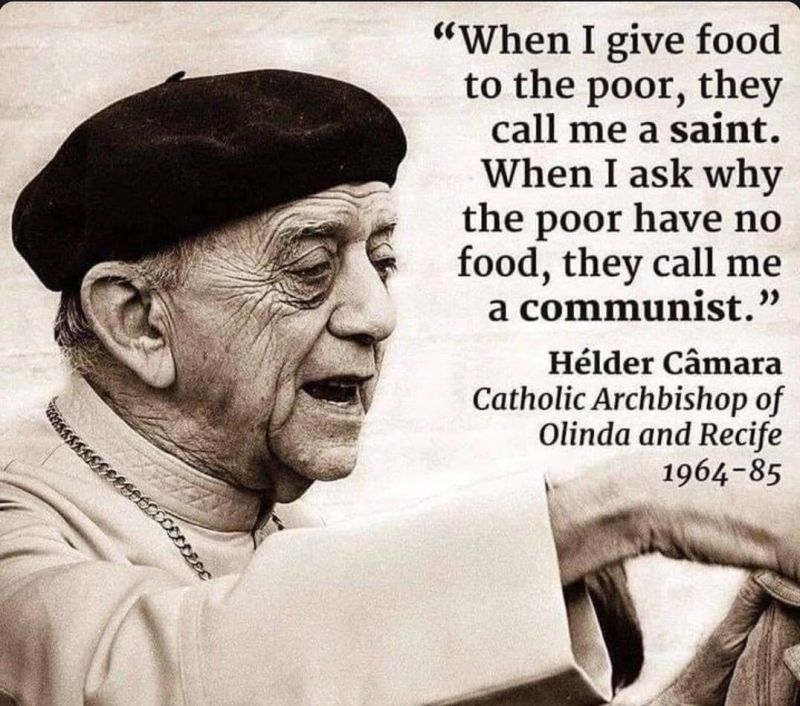

"When I give food to the poor, they call me a saint. When I ask why the poor have no food, they call me a communist."
Dom Helder Camara
13-07-2024

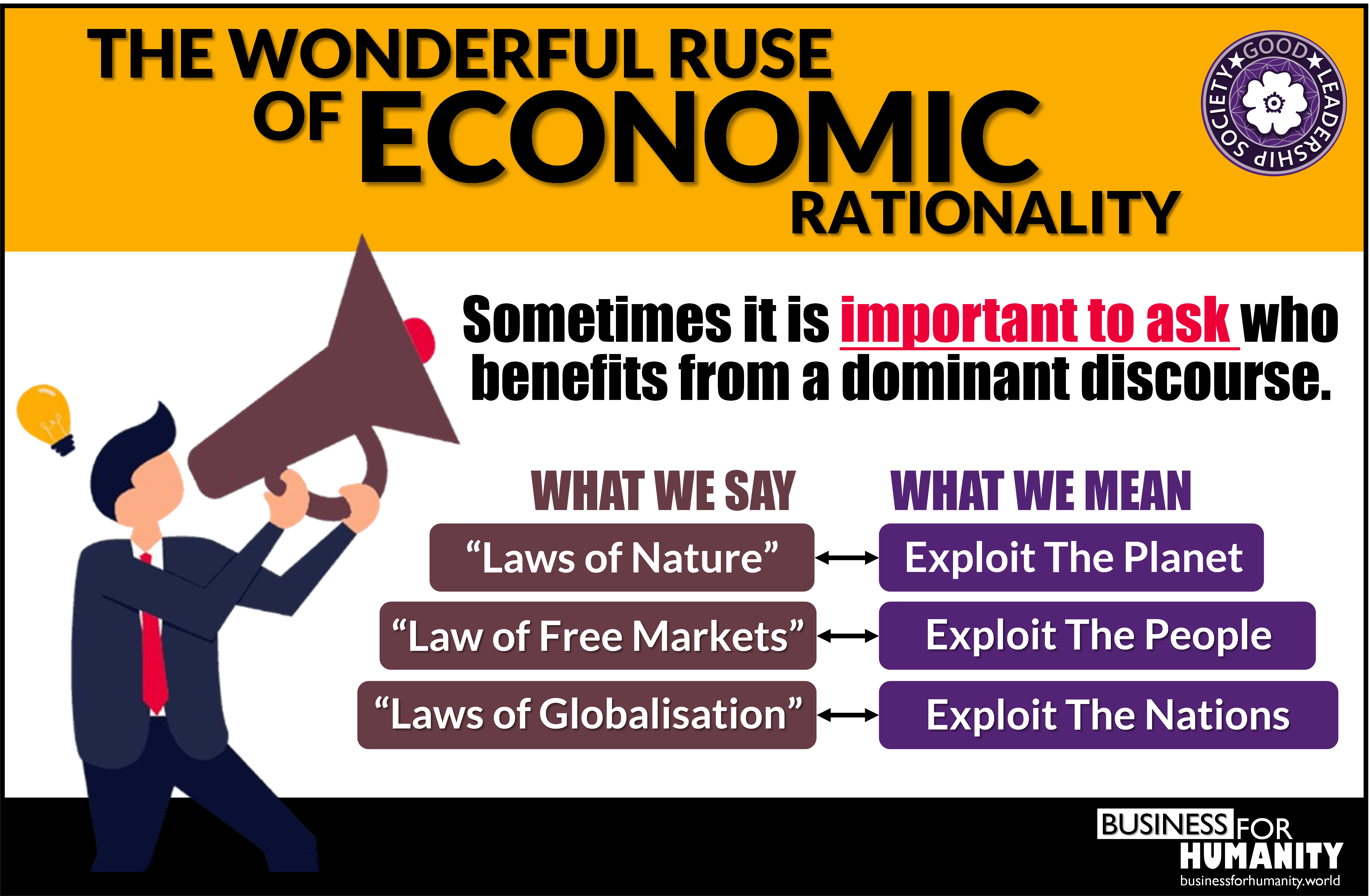

Fair is Foul and Foul is Fair. The concept of economic rationality presents a seductive illusion. According to neoliberal laissez-faire theory and practice, the absence of interference in market activities results in continuous population and industrial growth. This leads to a "double universalization": the globalisation of means and methods to meet needs and the universal dependence created by these needs.
Consequently, all members of society become increasingly dependent on one another to satisfy their ever-growing and increasingly homogenous needs. This interconnectedness not only drives wealth accumulation but also fragments and confines individual labor, exacerbating the dependence and distress of workers. These workers become increasingly incapable of experiencing and enjoying other freedoms, particularly the spiritual benefits of civil society.
This process creates the modern proletariat: a large group of people not only falling below the minimum standard of living but also deprived of the sense of legitimacy and honor that comes from self-sustained work. This mass of proletarians facilitates the concentration of disproportionate wealth in the hands of a few. Poverty transitions from a natural state to a deeply social issue; the industrial "plebeian" feels a profound resentment against the wealthy and the societal system. Lacking the dignity that comes from earning a living through work, they demand subsistence as a right, and in society, deprivation is immediately perceived as an injustice against a particular class.
Formally, this world is a product of freedom, but in reality, laissez-faire manifests as a "blind necessity" that rises above individuals like an unyielding fate. People act freely in their own interests, but the result is an iron system where all needs and pleasures obey mutual dependency governed by economic laws. Hegel describes this system as a "whirlpool of arbitrariness," seemingly chaotic but ruled by an automatic necessity.
Hegel recognizes the rationality within the sphere of needs but is also horrified by Adam Smith’s "invisible hand," an uncontrollable and unknowable power. This power dominates individuals, counteracting their hopes and plans, imposing itself as an ancient fate, independent of human will and action. Torn apart by the division of labor and class conflict, civil society fails to constitute a genuine community, instead representing the "loss of community." Blinded by private interests, it is incapable of forming a universal subject, rendering the classical concept of democracy a hopeless ideal.
(Based on Kostas Papaioannou: Hegel et Marx - L'interminable Debat)
#Liberty #ecomomics #transformation #business #freedom #neweconomy
Fair is Foul and Foul is Fair. The concept of economic rationality presents a seductive illusion. According to neoliberal laissez-faire theory and practice, the absence of interference in market activities results in continuous population and industrial growth. This leads to a "double universalization": the globalisation of means and methods to meet needs and the universal dependence created by these needs.
Consequently, all members of society become increasingly dependent on one another to satisfy their ever-growing and increasingly homogenous needs. This interconnectedness not only drives wealth accumulation but also fragments and confines individual labor, exacerbating the dependence and distress of workers. These workers become increasingly incapable of experiencing and enjoying other freedoms, particularly the spiritual benefits of civil society.
This process creates the modern proletariat: a large group of people not only falling below the minimum standard of living but also deprived of the sense of legitimacy and honor that comes from self-sustained work. This mass of proletarians facilitates the concentration of disproportionate wealth in the hands of a few. Poverty transitions from a natural state to a deeply social issue; the industrial "plebeian" feels a profound resentment against the wealthy and the societal system. Lacking the dignity that comes from earning a living through work, they demand subsistence as a right, and in society, deprivation is immediately perceived as an injustice against a particular class.
Formally, this world is a product of freedom, but in reality, laissez-faire manifests as a "blind necessity" that rises above individuals like an unyielding fate. People act freely in their own interests, but the result is an iron system where all needs and pleasures obey mutual dependency governed by economic laws. Hegel describes this system as a "whirlpool of arbitrariness," seemingly chaotic but ruled by an automatic necessity.
Hegel recognizes the rationality within the sphere of needs but is also horrified by Adam Smith’s "invisible hand," an uncontrollable and unknowable power. This power dominates individuals, counteracting their hopes and plans, imposing itself as an ancient fate, independent of human will and action. Torn apart by the division of labor and class conflict, civil society fails to constitute a genuine community, instead representing the "loss of community." Blinded by private interests, it is incapable of forming a universal subject, rendering the classical concept of democracy a hopeless ideal.
(Based on Kostas Papaioannou: Hegel et Marx - L'interminable Debat)
#Liberty #ecomomics #transformation #business #freedom #neweconomy
08-07-2024

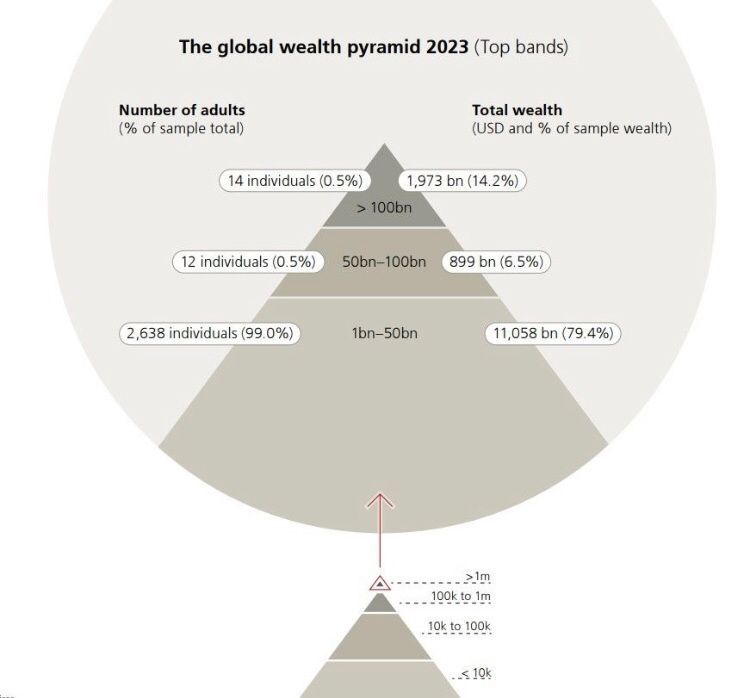

Capitalism Isn't Working.
08-07-2024



Once we understand that MONEY isn't simply a number of coins or banknotes but rather a socially constructed claim on the society's collective resources, it becomes evident that we cannot be indifferent to its origin or distribution.
#Leadership #Business #Management
05-07-2024

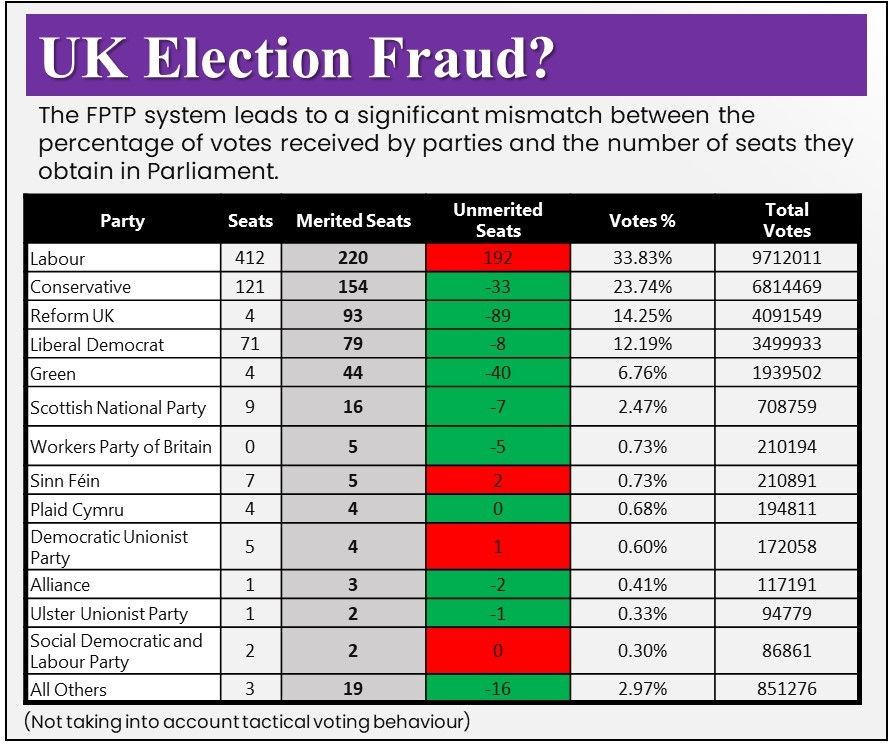

🚨 Election "Fraud" in the UK? 🚨
Today might be seen as a positive result for UK politics, regardless of political allegiances, as it is important to address the besmirching of the political profession by some conservative politicians.
However, it is not a good day for democracy because the UK continues to demonstrate why it is not a well-functioning democracy. Beyond the unelected House of Lords—a highly problematic anachronism—there are issues like media ownership concentration, disparities in campaign funding, devolution problems, and erosion of civil liberties through surveillance and restrictions on protest. But the most significant issue remains the fundamentally unjust first-past-the-post voting system.
* Disproportional Representation: The FPTP system results in a significant mismatch between the percentage of votes a party receives and the number of seats they win. This "electoral fraud" leads to majority governments that don't reflect the will of the people, giving disproportionate power to parties that might only have a slim margin of popular support.
* Wasted Votes: Millions of votes are essentially thrown away in every election. If you didn't vote for the winning candidate in your district, your vote doesn't count towards the national outcome. This disenfranchises voters, discourages participation, and contributes to widespread apathy and political disengagement.
* Marginalization of Smaller Parties: Under FPTP, smaller parties struggle to gain representation, even if they have substantial nationwide support. This marginalizes diverse voices and stifles political innovation, maintaining a highly stagnant two-party system.
* Tactical Voting: Instead of voting for their preferred candidate, many voters feel forced to vote tactically to prevent their least favorite candidate from winning. This distorts true voter preferences and undermines the integrity of the electoral process.
* Regional Polarization: FPTP exacerbates regional divides, with certain areas dominated by single parties, leading to less political diversity and fewer opportunities for change.
* Gerrymandering: The system is ripe for manipulation, with district boundaries drawn to favor certain parties. This blatant distortion further erodes the fairness of elections.
The First-Past-The-Post system is a relic that perpetuates inequality and misrepresentation. It's high time we demand a fairer, more proportional system that truly reflects the will of the people.
#ElectoralReform #FairVotes #DemocracyNow
🚨 Election "Fraud" in the UK? 🚨
Today might be seen as a positive result for UK politics, regardless of political allegiances, as it is important to address the besmirching of the political profession by some conservative politicians.
However, it is not a good day for democracy because the UK continues to demonstrate why it is not a well-functioning democracy. Beyond the unelected House of Lords—a highly problematic anachronism—there are issues like media ownership concentration, disparities in campaign funding, devolution problems, and erosion of civil liberties through surveillance and restrictions on protest. But the most significant issue remains the fundamentally unjust first-past-the-post voting system.
* Disproportional Representation: The FPTP system results in a significant mismatch between the percentage of votes a party receives and the number of seats they win. This "electoral fraud" leads to majority governments that don't reflect the will of the people, giving disproportionate power to parties that might only have a slim margin of popular support.
* Wasted Votes: Millions of votes are essentially thrown away in every election. If you didn't vote for the winning candidate in your district, your vote doesn't count towards the national outcome. This disenfranchises voters, discourages participation, and contributes to widespread apathy and political disengagement.
* Marginalization of Smaller Parties: Under FPTP, smaller parties struggle to gain representation, even if they have substantial nationwide support. This marginalizes diverse voices and stifles political innovation, maintaining a highly stagnant two-party system.
* Tactical Voting: Instead of voting for their preferred candidate, many voters feel forced to vote tactically to prevent their least favorite candidate from winning. This distorts true voter preferences and undermines the integrity of the electoral process.
* Regional Polarization: FPTP exacerbates regional divides, with certain areas dominated by single parties, leading to less political diversity and fewer opportunities for change.
* Gerrymandering: The system is ripe for manipulation, with district boundaries drawn to favor certain parties. This blatant distortion further erodes the fairness of elections.
The First-Past-The-Post system is a relic that perpetuates inequality and misrepresentation. It's high time we demand a fairer, more proportional system that truly reflects the will of the people.
#ElectoralReform #FairVotes #DemocracyNow
04-07-2024
The devaluation of the human world increases in direct relation with the increase of the world of things. Through modern production, humans are turned into human capital, creators become the created, the subject is enslaved by the object. The alienation is complete once life is understood as a portfolio of products.
03-07-2024

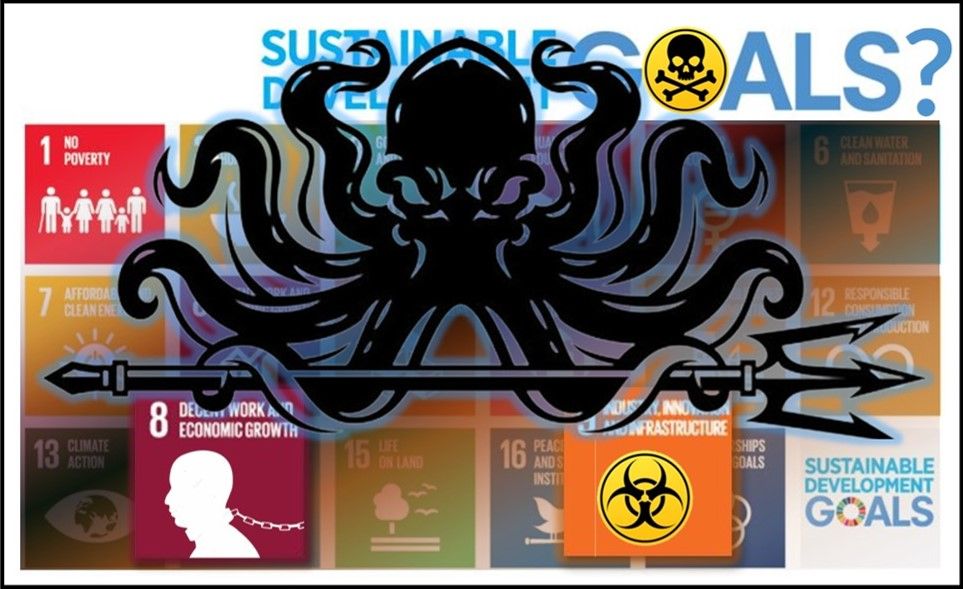

The Ridiculous Hypocrisy of the #SDGs and Paris Agreement?
The Paris Agreement and the Sustainable Development Goals (SDGs) are hailed as monumental steps towards a sustainable future. However, a closer look reveals a stark hypocrisy embedded within their frameworks. The lofty goals of these international agreements are potentially undermined by their inherent contradictions, particularly regarding economic growth and environmental sustainability.
Paris Agreement's Ambitious Goals
Article 2 of the Paris Agreement sets an ambitious target: to keep the global average temperature increase well below 2°C, and ideally limit it to 1.5°C, to mitigate the risks and impacts of climate change. This goal, however, is qualified by the phrase "in the context of sustainable development and efforts to eradicate poverty." On the surface, this seems like a noble integration of environmental and social goals. But the reality is more problematic.
The entire Paris Agreement is framed within the context of the SDGs, which prioritize economic growth, technology, industrialization, and increased energy use (see Spash). This creates an inherent conflict: how can we simultaneously push for significant reductions in greenhouse gas emissions while promoting economic activities that inherently increase these emissions?
The SDGs' Growth-Centric Approach
Aligned with the Paris Agreement, SDG Goal 8 aims for per capita economic growth of at least 7% GDP annually in the least developed countries, assuming economic expansion as the primary means to development and poverty eradication, despite environmental implications.
The SDGs propose addressing environmental destruction by attempting to "decouple economic growth from environmental degradation." Yet, absolute decoupling—the idea that economies can grow without increasing environmental pressures—is a myth, particularly within the industrial economy envisioned by SDG Goal 9. This goal promotes building resilient infrastructure, fostering innovation, and significantly increasing the manufacturing industry's share of GDP.
Techno-Optimism in the Paris Agreement
Article 10 emphasizes innovation to address climate change while promoting economic growth and sustainable development, relying on technological advancement to mitigate environmental impacts, sidestepping systemic changes. The fundamental hypocrisy lies in pursuing economic growth alongside environmental sustainability, perpetuating a flawed narrative that green growth and innovation can solve crises without challenging consumption and production patterns.
While significant, the Paris Agreement and SDGs are deeply compromised by contradictions. Insisting on growth undermines efforts for sustainability. Do we need other #alternativestocapitalism to enable real, systemic change? Join our #BusinessforHumanity series to find out.
#BusinessforHumanity #SustainableDevelopment #SystemChange
The Ridiculous Hypocrisy of the #SDGs and Paris Agreement?
The Paris Agreement and the Sustainable Development Goals (SDGs) are hailed as monumental steps towards a sustainable future. However, a closer look reveals a stark hypocrisy embedded within their frameworks. The lofty goals of these international agreements are potentially undermined by their inherent contradictions, particularly regarding economic growth and environmental sustainability.
Paris Agreement's Ambitious Goals
Article 2 of the Paris Agreement sets an ambitious target: to keep the global average temperature increase well below 2°C, and ideally limit it to 1.5°C, to mitigate the risks and impacts of climate change. This goal, however, is qualified by the phrase "in the context of sustainable development and efforts to eradicate poverty." On the surface, this seems like a noble integration of environmental and social goals. But the reality is more problematic.
The entire Paris Agreement is framed within the context of the SDGs, which prioritize economic growth, technology, industrialization, and increased energy use (see Spash). This creates an inherent conflict: how can we simultaneously push for significant reductions in greenhouse gas emissions while promoting economic activities that inherently increase these emissions?
The SDGs' Growth-Centric Approach
Aligned with the Paris Agreement, SDG Goal 8 aims for per capita economic growth of at least 7% GDP annually in the least developed countries, assuming economic expansion as the primary means to development and poverty eradication, despite environmental implications.
The SDGs propose addressing environmental destruction by attempting to "decouple economic growth from environmental degradation." Yet, absolute decoupling—the idea that economies can grow without increasing environmental pressures—is a myth, particularly within the industrial economy envisioned by SDG Goal 9. This goal promotes building resilient infrastructure, fostering innovation, and significantly increasing the manufacturing industry's share of GDP.
Techno-Optimism in the Paris Agreement
Article 10 emphasizes innovation to address climate change while promoting economic growth and sustainable development, relying on technological advancement to mitigate environmental impacts, sidestepping systemic changes. The fundamental hypocrisy lies in pursuing economic growth alongside environmental sustainability, perpetuating a flawed narrative that green growth and innovation can solve crises without challenging consumption and production patterns.
While significant, the Paris Agreement and SDGs are deeply compromised by contradictions. Insisting on growth undermines efforts for sustainability. Do we need other #alternativestocapitalism to enable real, systemic change? Join our #BusinessforHumanity series to find out.
#BusinessforHumanity #SustainableDevelopment #SystemChange
30-06-2024



DO YOU KNOW WHAT A "SEASONING CAMP" IS?
"Seasoning" was the period of adjustment that slave traders and slaveholders subjected African slaves to following their arrival in the Americas. ‘Unseasoned’ people were cheaper as they were considered a risk, often dying shortly after arriving in the colonies.
Seasoning consisted of brutal methods of physical and psychological conditioning—so brutal, in fact, that 7% to 50% of the Slaves are estimated to have died within their one to seven years of the Seasoning period.
[Picture: Slaves awaiting sale]
In fact, the conditions endured by enslaved Africans were dire. Immediately, new owners and their overseers obliterated the identities of their newly acquired Slaves by breaking their wills and by severing any bonds with their African past. Many died in the first few weeks or months from dysentery, malnutrition, several types of worm infections, change of diet and climate, and the White man’s diseases. One reason is that the Slaves were terribly weakened by the trauma of the "Middle Passage" voyage (the atrocious crossing of the Atlantic) and the additional exposure to diseases, inadequate nutrition, bad water, work exhaustion from being unaccustomed to the “sunrise-to-sunset gang labor,” and cruelty were simply overwhelming. Such occurred while the Slaves were being forced to adapt to new and horrendous working and living conditions; to learn a new language; and to adopt new customs. The average life expectancy for an imported slave was only seven years.
https://lnkd.in/dxRdnikB
https://lnkd.in/dKTWm3yS.
Over 12 million Africans were captured by slave traders, with at least 2 million perishing. (For historical context, during World War II, approximately 1.65 million people were registered prisoners in concentration camps, and nearly a million died during their internment. Additionally, approximately a million Jews were gassed upon arrival at Auschwitz. Including these victims, the total death toll is estimated at 1.8 to more than two million.)
A terrible reminder that economics is ALWAYS deeply political, not only in setting the boundaries of markets, but also in its inherent values and views of human beings.
Not even to mention that cotton and tobacco alone accounted for at least 25% and up to 65% of US exports respectively throughout the 19th century. Without cheap cotton, Britain's industrial revolution would have been severely hampered, and without earnings from export, the US couldn't have imported the technologies required for economic development.
#transformation #slavery #politics #business
DO YOU KNOW WHAT A "SEASONING CAMP" IS?
"Seasoning" was the period of adjustment that slave traders and slaveholders subjected African slaves to following their arrival in the Americas. ‘Unseasoned’ people were cheaper as they were considered a risk, often dying shortly after arriving in the colonies.
Seasoning consisted of brutal methods of physical and psychological conditioning—so brutal, in fact, that 7% to 50% of the Slaves are estimated to have died within their one to seven years of the Seasoning period.
[Picture: Slaves awaiting sale]
In fact, the conditions endured by enslaved Africans were dire. Immediately, new owners and their overseers obliterated the identities of their newly acquired Slaves by breaking their wills and by severing any bonds with their African past. Many died in the first few weeks or months from dysentery, malnutrition, several types of worm infections, change of diet and climate, and the White man’s diseases. One reason is that the Slaves were terribly weakened by the trauma of the "Middle Passage" voyage (the atrocious crossing of the Atlantic) and the additional exposure to diseases, inadequate nutrition, bad water, work exhaustion from being unaccustomed to the “sunrise-to-sunset gang labor,” and cruelty were simply overwhelming. Such occurred while the Slaves were being forced to adapt to new and horrendous working and living conditions; to learn a new language; and to adopt new customs. The average life expectancy for an imported slave was only seven years.
https://lnkd.in/dxRdnikB
https://lnkd.in/dKTWm3yS.
Over 12 million Africans were captured by slave traders, with at least 2 million perishing. (For historical context, during World War II, approximately 1.65 million people were registered prisoners in concentration camps, and nearly a million died during their internment. Additionally, approximately a million Jews were gassed upon arrival at Auschwitz. Including these victims, the total death toll is estimated at 1.8 to more than two million.)
A terrible reminder that economics is ALWAYS deeply political, not only in setting the boundaries of markets, but also in its inherent values and views of human beings.
Not even to mention that cotton and tobacco alone accounted for at least 25% and up to 65% of US exports respectively throughout the 19th century. Without cheap cotton, Britain's industrial revolution would have been severely hampered, and without earnings from export, the US couldn't have imported the technologies required for economic development.
#transformation #slavery #politics #business
28-06-2024

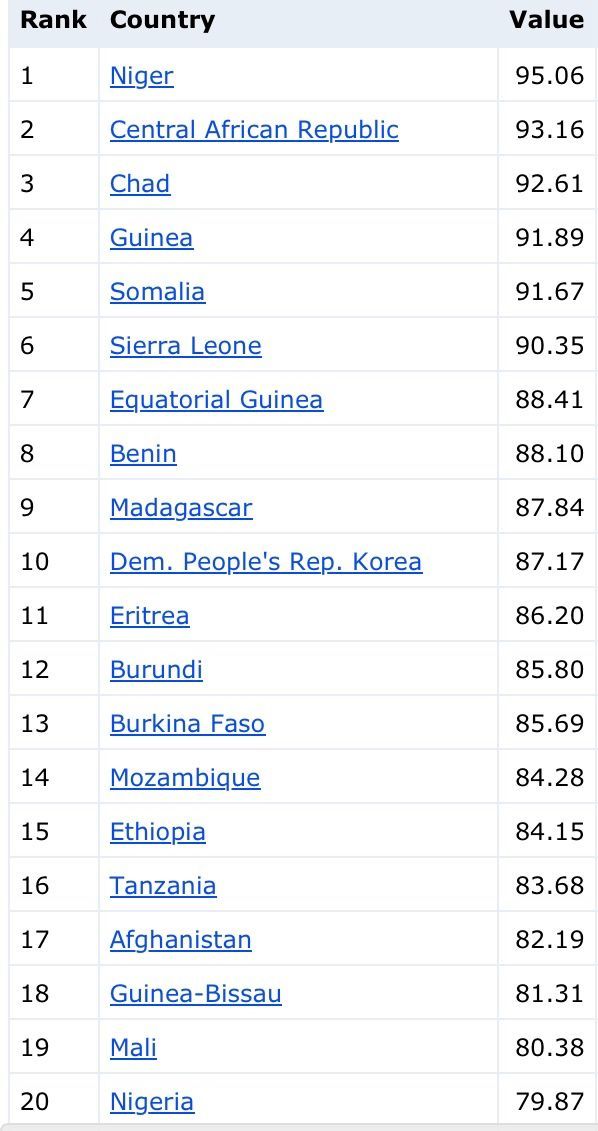

WHICH COUNTRY IS THE MOST ENTREPRENEURIAL OF THE WORLD? USA? Think again!
The USA, home to the popular myth about rugged entrepreneurship ranks 173th in list of the Top 200 countries with most self-employed as share of the total population.
Fact is that people in developing nations often have no choice to become entrepreneurs to survive, while most people in developed countries know about entrepreneurship mostly from popular media. Many might dream about setting up their own business one day to become "their own boss", but most fall back onto the convenience and certainty of a highly specialized and narrow role in someone else's company.
While the statistics are therefore largely unsurprising, the more insightful conclusion is that entrepreneurship is not primarily an individual, but a profoundly collective activity. As Ha-Joon Chang points out, this is one of the significant challenges with micro finance, now deemed mostly unsuccessful. What matters most for the economic development of a nation isn't the fabled acumen and inspiration of entrepreneurial heroes, but the presence of productive technologies, education, financing and effective organisations to turn entrepreneurial energy into scalable commercial success.
hashtag#Transformation hashtag#Leadership hashtag#development hashtag#entrepreneurship hashtag#business
https://lnkd.in/eZvZrW8t
WHICH COUNTRY IS THE MOST ENTREPRENEURIAL OF THE WORLD? USA? Think again!
The USA, home to the popular myth about rugged entrepreneurship ranks 173th in list of the Top 200 countries with most self-employed as share of the total population.
Fact is that people in developing nations often have no choice to become entrepreneurs to survive, while most people in developed countries know about entrepreneurship mostly from popular media. Many might dream about setting up their own business one day to become "their own boss", but most fall back onto the convenience and certainty of a highly specialized and narrow role in someone else's company.
While the statistics are therefore largely unsurprising, the more insightful conclusion is that entrepreneurship is not primarily an individual, but a profoundly collective activity. As Ha-Joon Chang points out, this is one of the significant challenges with micro finance, now deemed mostly unsuccessful. What matters most for the economic development of a nation isn't the fabled acumen and inspiration of entrepreneurial heroes, but the presence of productive technologies, education, financing and effective organisations to turn entrepreneurial energy into scalable commercial success.
hashtag#Transformation hashtag#Leadership hashtag#development hashtag#entrepreneurship hashtag#business
https://lnkd.in/eZvZrW8t
27-06-2024

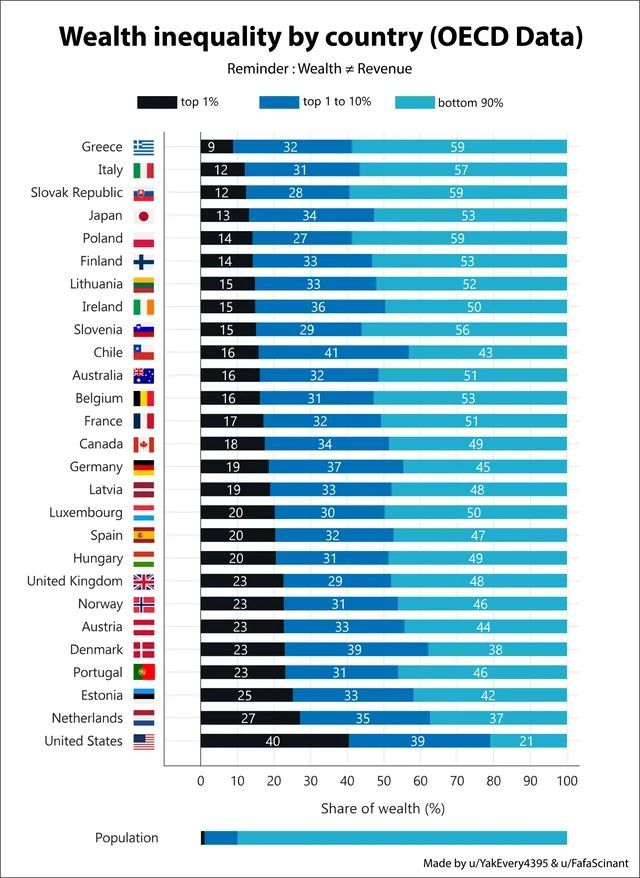

No comment.
21-06-2024

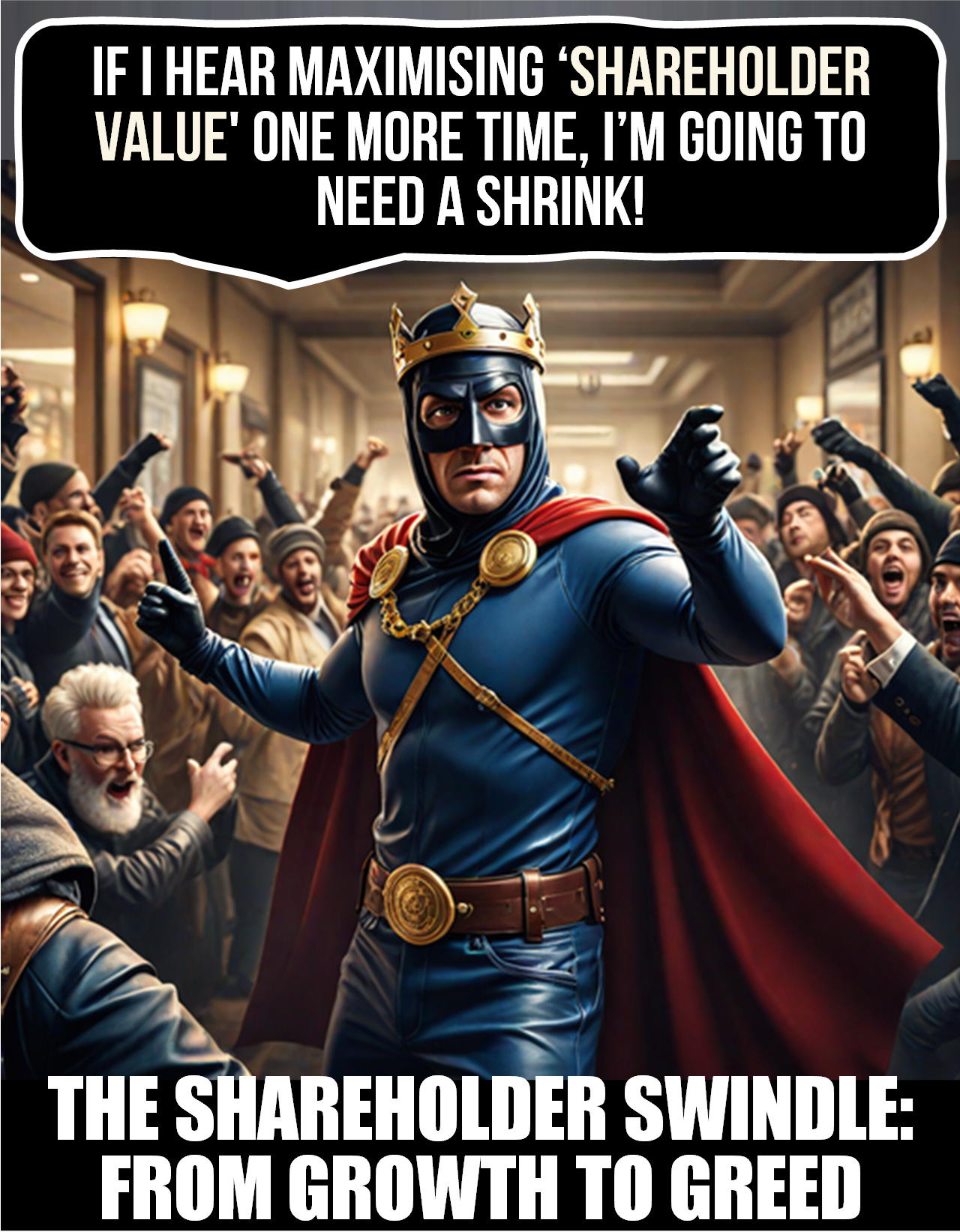

The Shareholder Swindle: From Growth to Greed
Every time I hear someone boast about maximizing 'SHAREHOLDER VALUE,' I can't help but shake my head. How is the systematic extraction of profit by shareholders, boosting their share of the pie while leaving crumbs for everyone else, considered valuable? It's like celebrating a bank heist as 'financial efficiency' or glorifying pirates for 'oceanic progress.'
1. The expression "shareholder value"—which Jack Welch allegedly coined—is fundamentally misleading. VALUE is what is created for customers and society, while shareholders demand and receive "return on capital" or shareholder PROFIT (which often turns out to be rent or interest, i.e., unearned profit).
2. Regarding shareholder profit, I'm contesting its maximization, which often leads to value extraction, not value creation. Yes, some people might be motivated exclusively by making money, but as Stieglitz pointed out, the "invisible hand" here mostly fails to turn greed into societal nirvana because... the invisible hand simply doesn't exist.
3. We need to think deeper about what constitutes VALUE in the economy, which I suggest isn't price nor share price.
4. People seem to conveniently forget that according to neoclassical economic theory, long-term economic profit is zero in the presence of perfect competition. As Adam Smith pointed out, a "free" market isn't a market where everybody does what they want, but a market free OF RENT.
5. Finally, the notion that return on investor capital has to be optimized stems from an economy where financial capital was scarce. That certainly isn't the case for a modern economy centered on intangibles. Hence, today it often simply serves to perpetuate possessive individualism.
Let's get real: true value is created through productive activities that benefit customers and society, not by simply inflating profits for shareholders. Increasing share prices and dividends might look good on paper, but at the end of the day, it is legalized wealth extraction.
Even if we can't halt it, let's refrain from singing its praises. It's time to stop mistaking greed for growth and instead focus on real, sustainable value for society! As Jack Welsh recently confessed, shareholder value is probably the "dumbest idea in the world".
#leadership #business #purpose #transformation #justice
The Shareholder Swindle: From Growth to Greed
Every time I hear someone boast about maximizing 'SHAREHOLDER VALUE,' I can't help but shake my head. How is the systematic extraction of profit by shareholders, boosting their share of the pie while leaving crumbs for everyone else, considered valuable? It's like celebrating a bank heist as 'financial efficiency' or glorifying pirates for 'oceanic progress.'
1. The expression "shareholder value"—which Jack Welch allegedly coined—is fundamentally misleading. VALUE is what is created for customers and society, while shareholders demand and receive "return on capital" or shareholder PROFIT (which often turns out to be rent or interest, i.e., unearned profit).
2. Regarding shareholder profit, I'm contesting its maximization, which often leads to value extraction, not value creation. Yes, some people might be motivated exclusively by making money, but as Stieglitz pointed out, the "invisible hand" here mostly fails to turn greed into societal nirvana because... the invisible hand simply doesn't exist.
3. We need to think deeper about what constitutes VALUE in the economy, which I suggest isn't price nor share price.
4. People seem to conveniently forget that according to neoclassical economic theory, long-term economic profit is zero in the presence of perfect competition. As Adam Smith pointed out, a "free" market isn't a market where everybody does what they want, but a market free OF RENT.
5. Finally, the notion that return on investor capital has to be optimized stems from an economy where financial capital was scarce. That certainly isn't the case for a modern economy centered on intangibles. Hence, today it often simply serves to perpetuate possessive individualism.
Let's get real: true value is created through productive activities that benefit customers and society, not by simply inflating profits for shareholders. Increasing share prices and dividends might look good on paper, but at the end of the day, it is legalized wealth extraction.
Even if we can't halt it, let's refrain from singing its praises. It's time to stop mistaking greed for growth and instead focus on real, sustainable value for society! As Jack Welsh recently confessed, shareholder value is probably the "dumbest idea in the world".
#leadership #business #purpose #transformation #justice
05-06-2024

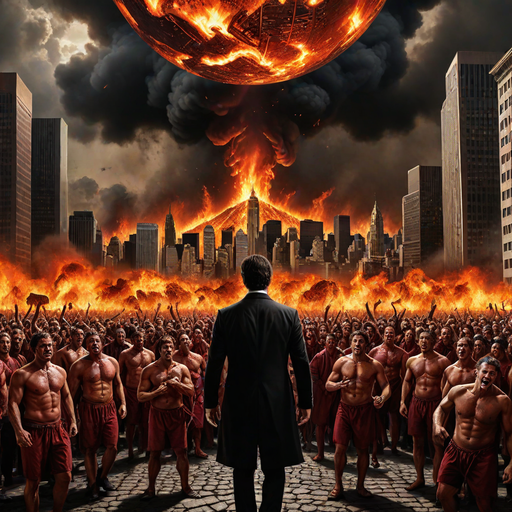

🔥 Abandon All Hope, Ye Who Enter! 🔥
If Dante would wield his quill anew, what would he draw? He might suggest that we are trapped again, in those infernal corridors of our modern world, where ambition and avarice intertwine; each circle of torment inhabited by those who have forsaken virtue for gain:
1. First Circle (Limbo) - Middle Managers 📊 These corporate souls wander aimlessly, their potential stifled by bureaucracy. They are the gatekeepers of mediocrity, forever yearning for significance but ensnared by the chains of hierarchy.
2. Second Circle (Lust) - Sin Industry Executives 🛢️ The oil barons, tobacco magnates, and alcohol czars—masters of desire’s dark arts. They extract wealth from our cravings, heedless of the wreckage left in their wake. Their profits flow like poisoned rivers.
3. Third Circle (Gluttony) - Fast Food Executives 🍔 The architects of gluttony, they peddle addictive morsels wrapped in guilt. Their golden arches beckon, promising momentary pleasure while fueling a pandemic of obesity and heartache.
4. Fourth Circle (Greed) - Investment Bankers and Financial Advisors 💼 These wolves of Wall Street chase wealth with insatiable hunger. Ethics crumble before their pursuit of profit margins. They gamble with our futures, their eyes fixed on bonuses and offshore accounts.
5. Fifth Circle (Wrath) - Litigation Attorneys ⚖️ In courtrooms ablaze with fury, these legal mercenaries thrive. Conflict is their currency, justice a mere illusion. They feast on discord, billing hours while justice weeps.
6. Sixth Circle (Heresy) - Advertising Executives, Social Media Influencers and Journalists 📰 Wordsmiths and image weavers, they mold perception to their whims. Truth bends, and falsehoods flourish. Their heretical scrolls sell products, politicians, and illusions.
7. Seventh Circle (Violence) - Military Contractors 🔫 War profiteers, clad in suits, orchestrate chaos. Their balance sheets tally lives lost, collateral damage a line item. They trade in bloodshed, insulated from the battlefield’s screams.
8. Eighth Circle (Fraud) - Corporate Lobbyists 🏛️ These shadowy emissaries whisper in the ears of power. Democracy bends to their will, as they grease palms and subvert justice. Their loyalty lies not with the people but with the highest bidder.
9. Ninth Circle (Treachery) - Corrupt Politicians 🗳️ The ultimate betrayers, they wear masks of public service while plotting personal gain. Their oaths dissolve like vapor, leaving behind broken promises and shattered trust.
🌐 Share this damning revelation, dear souls, for we are all complicit. Our collective choices have forged this inferno. Abandon hope, ye who enter—the flames lick at our heels, and redemption grows scarce. 🔥🌎💔
#ModernEconomics #WakeUpCall #Business #Capitalism #SoulfulBusiness
🔥 Abandon All Hope, Ye Who Enter! 🔥
If Dante would wield his quill anew, what would he draw? He might suggest that we are trapped again, in those infernal corridors of our modern world, where ambition and avarice intertwine; each circle of torment inhabited by those who have forsaken virtue for gain:
1. First Circle (Limbo) - Middle Managers 📊 These corporate souls wander aimlessly, their potential stifled by bureaucracy. They are the gatekeepers of mediocrity, forever yearning for significance but ensnared by the chains of hierarchy.
2. Second Circle (Lust) - Sin Industry Executives 🛢️ The oil barons, tobacco magnates, and alcohol czars—masters of desire’s dark arts. They extract wealth from our cravings, heedless of the wreckage left in their wake. Their profits flow like poisoned rivers.
3. Third Circle (Gluttony) - Fast Food Executives 🍔 The architects of gluttony, they peddle addictive morsels wrapped in guilt. Their golden arches beckon, promising momentary pleasure while fueling a pandemic of obesity and heartache.
4. Fourth Circle (Greed) - Investment Bankers and Financial Advisors 💼 These wolves of Wall Street chase wealth with insatiable hunger. Ethics crumble before their pursuit of profit margins. They gamble with our futures, their eyes fixed on bonuses and offshore accounts.
5. Fifth Circle (Wrath) - Litigation Attorneys ⚖️ In courtrooms ablaze with fury, these legal mercenaries thrive. Conflict is their currency, justice a mere illusion. They feast on discord, billing hours while justice weeps.
6. Sixth Circle (Heresy) - Advertising Executives, Social Media Influencers and Journalists 📰 Wordsmiths and image weavers, they mold perception to their whims. Truth bends, and falsehoods flourish. Their heretical scrolls sell products, politicians, and illusions.
7. Seventh Circle (Violence) - Military Contractors 🔫 War profiteers, clad in suits, orchestrate chaos. Their balance sheets tally lives lost, collateral damage a line item. They trade in bloodshed, insulated from the battlefield’s screams.
8. Eighth Circle (Fraud) - Corporate Lobbyists 🏛️ These shadowy emissaries whisper in the ears of power. Democracy bends to their will, as they grease palms and subvert justice. Their loyalty lies not with the people but with the highest bidder.
9. Ninth Circle (Treachery) - Corrupt Politicians 🗳️ The ultimate betrayers, they wear masks of public service while plotting personal gain. Their oaths dissolve like vapor, leaving behind broken promises and shattered trust.
🌐 Share this damning revelation, dear souls, for we are all complicit. Our collective choices have forged this inferno. Abandon hope, ye who enter—the flames lick at our heels, and redemption grows scarce. 🔥🌎💔
#ModernEconomics #WakeUpCall #Business #Capitalism #SoulfulBusiness
05-06-2024



Digital Despots: Unmasking the Illusion of Positive Platform Power
In the digital age, platforms wield immense power. Like the feudal lords of yore, they control vast digital territories—our data, attention, and interactions. While journals are filled with glowing success stories about Apple, Google, Facebook, or Uber, and business schools and consultants alike preach the benefits of their business models, big challenges remain.
Not only are platforms incompatible with neoclassical economic theory, but they fundamentally stand opposite to the doctrine of free markets. Instead of seeking traditional profit, they extract monopolistic rents by privatizing the internet and manipulating our preferences. Platforms have become digital fiefdoms, extracting unearned surplus—rents—from their tenants for the provision of scarce resources.
Most problematically, unlike traditional profit, digital rents often don’t contribute to societal value; they are a toll on our digital existence, fueled by the appropriation of data about our behaviors. Innovation stagnates, small players struggle, and inequality widens. Our agency diminishes, trapped in algorithmic loops.
Are platforms good for society? They certainly do not appear beneficial for fair competition, market efficiency, or distributive justice.
#FairEconomyPlatforms #EconomicJustice #Transformation #Business
Digital Despots: Unmasking the Illusion of Positive Platform Power
In the digital age, platforms wield immense power. Like the feudal lords of yore, they control vast digital territories—our data, attention, and interactions. While journals are filled with glowing success stories about Apple, Google, Facebook, or Uber, and business schools and consultants alike preach the benefits of their business models, big challenges remain.
Not only are platforms incompatible with neoclassical economic theory, but they fundamentally stand opposite to the doctrine of free markets. Instead of seeking traditional profit, they extract monopolistic rents by privatizing the internet and manipulating our preferences. Platforms have become digital fiefdoms, extracting unearned surplus—rents—from their tenants for the provision of scarce resources.
Most problematically, unlike traditional profit, digital rents often don’t contribute to societal value; they are a toll on our digital existence, fueled by the appropriation of data about our behaviors. Innovation stagnates, small players struggle, and inequality widens. Our agency diminishes, trapped in algorithmic loops.
Are platforms good for society? They certainly do not appear beneficial for fair competition, market efficiency, or distributive justice.
#FairEconomyPlatforms #EconomicJustice #Transformation #Business
02-06-2024

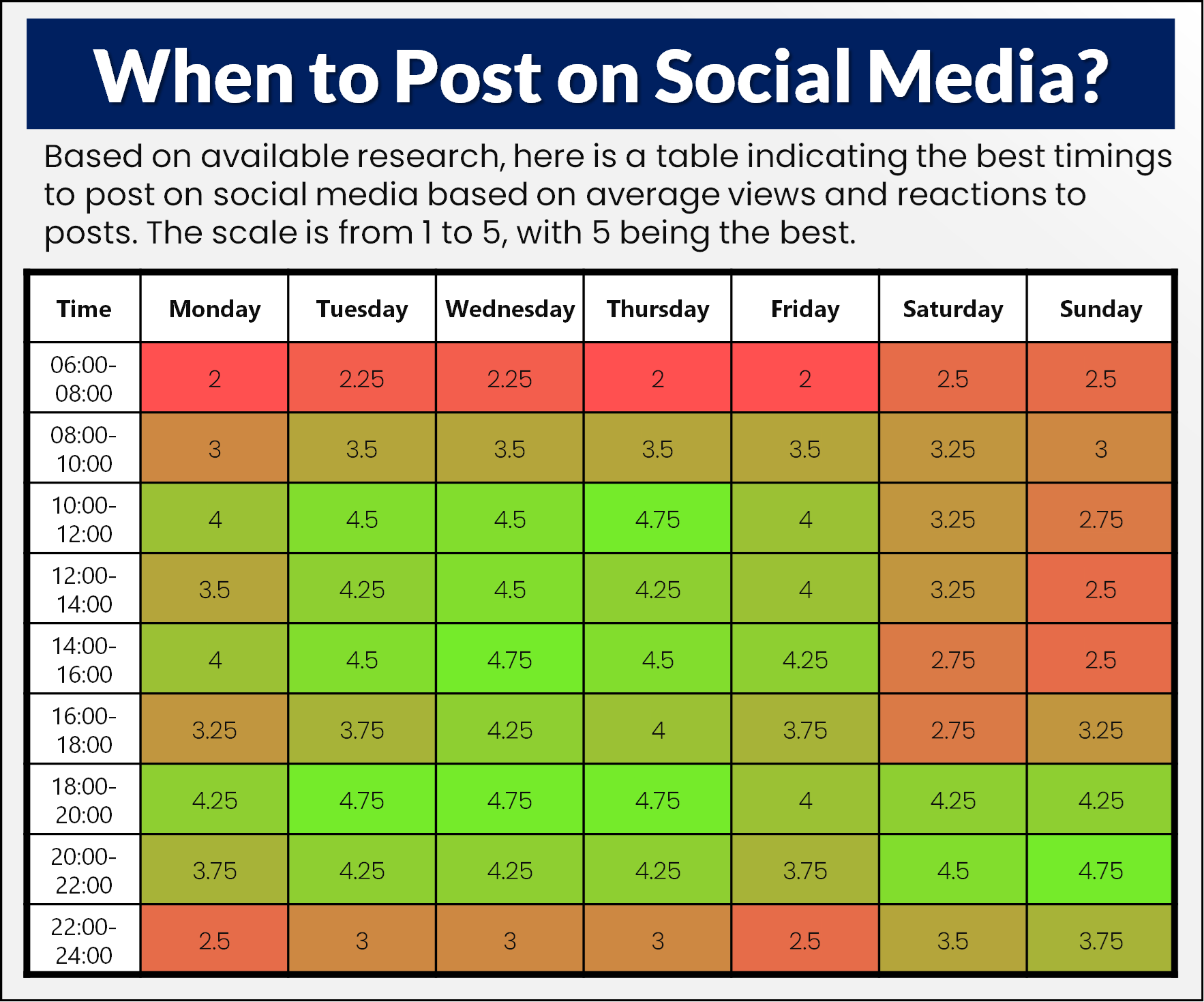

Timing is Everything: Top 5 Tips to Master Social Media Impact
Looking to optimize your social media influence? Here are the top 5 tips from a dozen of different researchers for posting at the right times:
📅 Mid-week Magic: Aim for Tuesday to Thursday, especially between 10:00-12:00 and 14:00-16:00, when productivity peaks lead to high engagement.
🌆 After Work Appeal: Capture attention on Tuesday and Wednesday evenings (18:00-20:00) when people unwind and browse social media.
🎉 Friday Finesse: Plan your posts for Fridays from 8:00-12:00, as users start winding down and planning their weekends.
🌟 Weekend Wins: Shine on weekends (Saturday and Sunday) from 18:00-22:00, when users have more free time to engage.
🚫 Avoid Early Mornings and Late Nights: Steer clear of early mornings (6:00-8:00) and late nights (22:00-24:00), as engagement tends to dip during these times.
As they say: "Success is not just about working hard; it's about working smart and timing it right."
#TimingIsEverything #linkedin #socialmedia #influencing #marketing #communications #engagement
Timing is Everything: Top 5 Tips to Master Social Media Impact
Looking to optimize your social media influence? Here are the top 5 tips from a dozen of different researchers for posting at the right times:
📅 Mid-week Magic: Aim for Tuesday to Thursday, especially between 10:00-12:00 and 14:00-16:00, when productivity peaks lead to high engagement.
🌆 After Work Appeal: Capture attention on Tuesday and Wednesday evenings (18:00-20:00) when people unwind and browse social media.
🎉 Friday Finesse: Plan your posts for Fridays from 8:00-12:00, as users start winding down and planning their weekends.
🌟 Weekend Wins: Shine on weekends (Saturday and Sunday) from 18:00-22:00, when users have more free time to engage.
🚫 Avoid Early Mornings and Late Nights: Steer clear of early mornings (6:00-8:00) and late nights (22:00-24:00), as engagement tends to dip during these times.
As they say: "Success is not just about working hard; it's about working smart and timing it right."
#TimingIsEverything #linkedin #socialmedia #influencing #marketing #communications #engagement
01-06-2024
Question: how successful would the INDUSTRIAL REVOLUTION have been in England without CHEAP COTTON from the US, kept cheap and available not by "free market" forces but by elimination of the indigenous population and slavery?
Just asking.
#leadership #transformation #business #LeadershipSociety
01-06-2024



Hypothesis: A minimum of WORKPLACE DEMOCRACY is a non-negotiable cornerstone of any modern business worth working for.
Your views? What does that mean? What are rights vs obligations?
#transformation #leadership #organisationaldesign #power #politics #business
01-06-2024

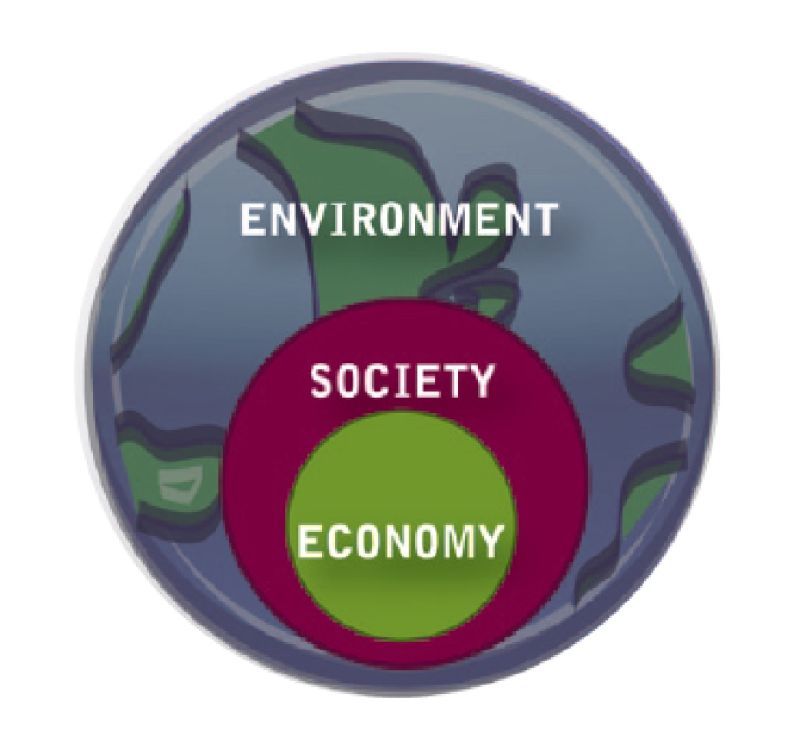

The problem with simplistic diagrams like this, much like the misleading but popular people-planet-profit Venn diagrams, is that they oversimplify complex political and ontological questions.
Politically, the economy is always embedded within society, but what does that truly mean? Is it the false gospel of neoliberal ideologues preaching the miracle of the invisible hand, advocating for "free markets" shielded from the allegedly destructive influence of government? Is it a socialist vision of nationalized economies, planned and controlled by central parties and bureaucrats? Or is it a participatory "economy for good" with comprehensive rules and strict oversight of financial and commercial flows?
Similarly, ontologically, markets and societies are social systems and institutions. But what exactly is the "environment" in this context? Is it nature, the physical world, or some idyllic Garden of Eden of eternal beauty and youth? What does it mean to embed culture in "nature"? Is it a simplistic return to hunter-gatherer communities living in the woods, a set of restrictions on resource usage, constraints on externalities, or a revolutionary reform of land and property rights?
All these are tough and important questions. Unfortunately, images like this—and the pamphlets they often accompany—not only fail to lead us to the right questions but also tend to search for answers in the wrong places. Much of societal complexity arises from people, both as citizens and consumers, fundamentally disagreeing on the problems and not being engaged in, or being excluded from the process necessary to find solutions.
If we want progress, we must first increase our own engagement by examining the world more closely. We then need to investigate our roles, both individually and collectively, in maintaining the status quo. Finally, and most importantly, we must organize and act.
#transformation #leadership #purpose #capitalism #sustainability
The problem with simplistic diagrams like this, much like the misleading but popular people-planet-profit Venn diagrams, is that they oversimplify complex political and ontological questions.
Politically, the economy is always embedded within society, but what does that truly mean? Is it the false gospel of neoliberal ideologues preaching the miracle of the invisible hand, advocating for "free markets" shielded from the allegedly destructive influence of government? Is it a socialist vision of nationalized economies, planned and controlled by central parties and bureaucrats? Or is it a participatory "economy for good" with comprehensive rules and strict oversight of financial and commercial flows?
Similarly, ontologically, markets and societies are social systems and institutions. But what exactly is the "environment" in this context? Is it nature, the physical world, or some idyllic Garden of Eden of eternal beauty and youth? What does it mean to embed culture in "nature"? Is it a simplistic return to hunter-gatherer communities living in the woods, a set of restrictions on resource usage, constraints on externalities, or a revolutionary reform of land and property rights?
All these are tough and important questions. Unfortunately, images like this—and the pamphlets they often accompany—not only fail to lead us to the right questions but also tend to search for answers in the wrong places. Much of societal complexity arises from people, both as citizens and consumers, fundamentally disagreeing on the problems and not being engaged in, or being excluded from the process necessary to find solutions.
If we want progress, we must first increase our own engagement by examining the world more closely. We then need to investigate our roles, both individually and collectively, in maintaining the status quo. Finally, and most importantly, we must organize and act.
#transformation #leadership #purpose #capitalism #sustainability
29-05-2024



Hypothesis: A minimum of WORKPLACE DEMOCRACY is a non-negotiable cornerstone of any modern business worth working for.
Your views? What does that mean? What are rights vs obligations?
#transformation #leadership #organisationaldesign #power #politics #business
Hypothesis: A minimum of WORKPLACE DEMOCRACY is a non-negotiable cornerstone of any modern business worth working for.
Your views? What does that mean? What are rights vs obligations?
#transformation #leadership #organisationaldesign #power #politics #business
28-05-2024



🎉✨ HAPPY BIRTHDAY, PHILOSOPHY 🎉✨
Once upon a time, on May 28, 585 BCE, during a battle between the kingdoms of Media and Lydia, a total solar eclipse occurred, just as Thales of Miletus had predicted. This remarkable event not only ended the battle and the war but also marked a significant moment in history, showcasing the power of rational thought and observation.
Thales, often hailed as the first philosopher, shifted humanity's approach to understanding the world from myth to reason. His pioneering ideas laid the foundation for philosophy, encouraging us to seek knowledge, question the unknown, and strive for a deeper understanding of our universe.
Today, we celebrate the profound impact philosophy has had on making the world a better place, fostering critical thinking, ethical inquiry, and the pursuit of wisdom. Let's honor Thales and the countless philosophers who have enriched our minds and our lives, often enabling radical shifts in the way mankind understood itself and its environment.
#HappyBirthdayPhilosophy #Thales #PhilosophyMatters #RationalThought #Wisdom #History #SolarEclipse
🎉✨ HAPPY BIRTHDAY, PHILOSOPHY 🎉✨
Once upon a time, on May 28, 585 BCE, during a battle between the kingdoms of Media and Lydia, a total solar eclipse occurred, just as Thales of Miletus had predicted. This remarkable event not only ended the battle and the war but also marked a significant moment in history, showcasing the power of rational thought and observation.
Thales, often hailed as the first philosopher, shifted humanity's approach to understanding the world from myth to reason. His pioneering ideas laid the foundation for philosophy, encouraging us to seek knowledge, question the unknown, and strive for a deeper understanding of our universe.
Today, we celebrate the profound impact philosophy has had on making the world a better place, fostering critical thinking, ethical inquiry, and the pursuit of wisdom. Let's honor Thales and the countless philosophers who have enriched our minds and our lives, often enabling radical shifts in the way mankind understood itself and its environment.
#HappyBirthdayPhilosophy #Thales #PhilosophyMatters #RationalThought #Wisdom #History #SolarEclipse
21-05-2024

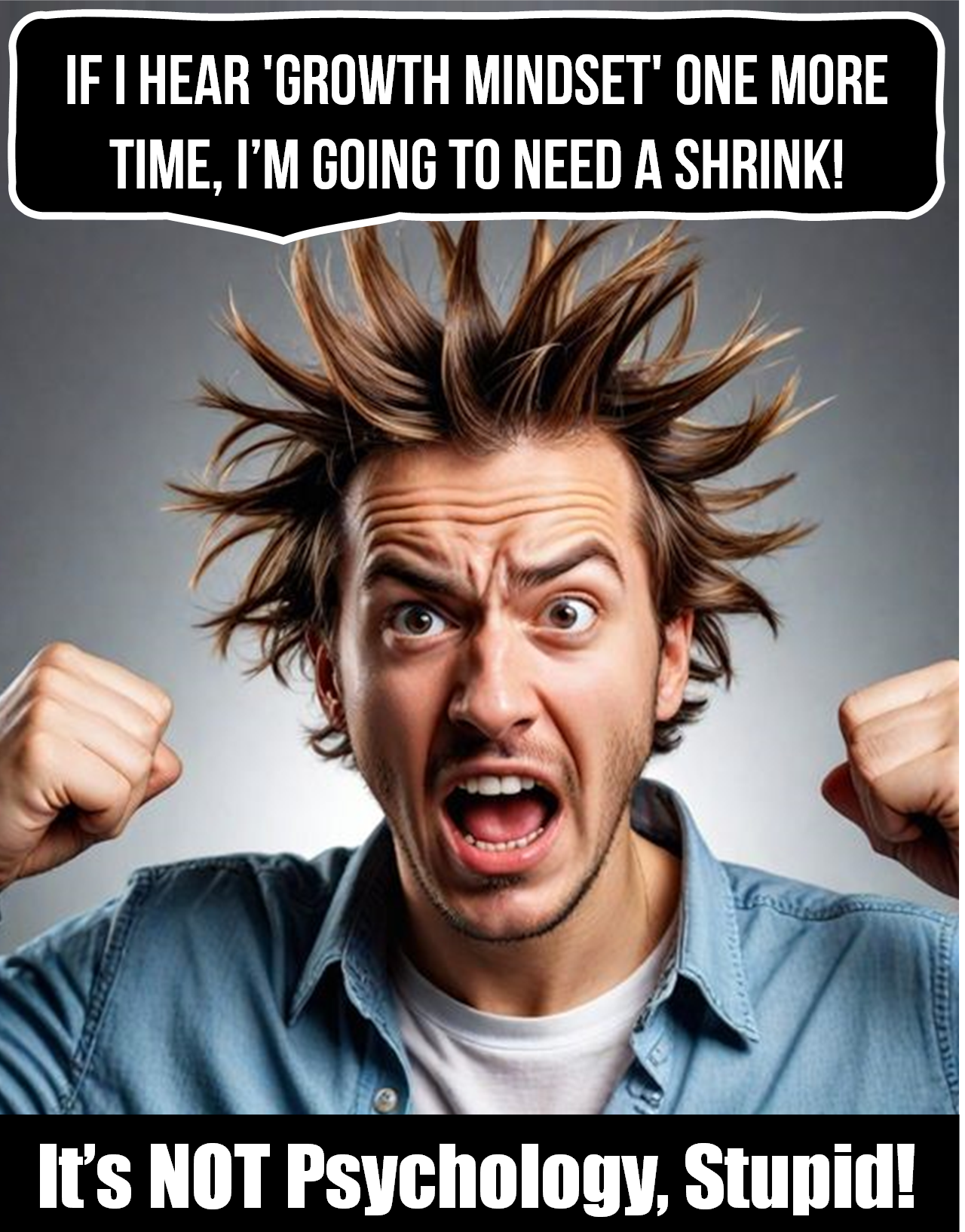

It's all just about A GROWTH MINDSET! Today I had another one of those conversations where someone aggressively insisted that all evils of neoliberalism are ultimately a matter of psychology. Sadly, this popular conviction is not only intellectually shallow, but often counterproductive.
Psychology is the scientific study of the mind and behavior. It seeks to describe, explain, predict, or change our ways of thinking or acting. It follows, as all social sciences, a method of scientific experiment and observation seeking to identify law-like regularities based on conjoint events. In other words, it is descriptive. William Wundt, who distinguished psychology as a science from philosophy and biology, was the first person ever to call himself a psychologist. In 1879, at the University of Leipzig, Wundt founded the first formal laboratory for psychological research.
Now the problems with using psychology as the sole explanatory methodology for the challenges with "neoliberalism" encounters at least three critical obstacles. The first is ontological. Modern "ego" psychology is mostly premised on a constructivist paradigm that emphasizes a merely subjective perspective of reality, undertheorising existential embeddedness in cultural, socio-technical and relational structures. This leads to epistemological myopia as Archer and Bhaskar so eloquently point out. Simply put, a lot of our "mindset" is shaped by institutions or what Bourdieu called habitus. Morphogenesis requires more than psychological agency. Secondly, ethical. As a descriptive science, psychology offers no normative foundation from where to critique neoliberalism as an ideology - beyond fashionable references to allegedly "normal" psychological functioning or "positive" deviances. And finally, political. Neoliberalism is a variant of classical liberalism or libertarianism. It is a political-economic ideology. Hence, any meaningful critique requires the examination of political positions that challenge the ideal of social justice as negative freedom enshrined in liberal constitutions, as well as heterodox economic theories that inquire into the moral desert of markets.
Psychology might tell us why neoliberalism is particularly seductive in an advanced postmodern society which has long lost faith in metaphysical truths. It might even confirm how it generates individual and collective suffering through its desperate attempt to justify human existence through extraction and material accumulation. But it cannot tell us how to live a life worth living, nor advise us how to make our economy "produce" good work.
#psychology #philosophy #politics #science #business #leadership
It's all just about A GROWTH MINDSET! Today I had another one of those conversations where someone aggressively insisted that all evils of neoliberalism are ultimately a matter of psychology. Sadly, this popular conviction is not only intellectually shallow, but often counterproductive.
Psychology is the scientific study of the mind and behavior. It seeks to describe, explain, predict, or change our ways of thinking or acting. It follows, as all social sciences, a method of scientific experiment and observation seeking to identify law-like regularities based on conjoint events. In other words, it is descriptive. William Wundt, who distinguished psychology as a science from philosophy and biology, was the first person ever to call himself a psychologist. In 1879, at the University of Leipzig, Wundt founded the first formal laboratory for psychological research.
Now the problems with using psychology as the sole explanatory methodology for the challenges with "neoliberalism" encounters at least three critical obstacles. The first is ontological. Modern "ego" psychology is mostly premised on a constructivist paradigm that emphasizes a merely subjective perspective of reality, undertheorising existential embeddedness in cultural, socio-technical and relational structures. This leads to epistemological myopia as Archer and Bhaskar so eloquently point out. Simply put, a lot of our "mindset" is shaped by institutions or what Bourdieu called habitus. Morphogenesis requires more than psychological agency. Secondly, ethical. As a descriptive science, psychology offers no normative foundation from where to critique neoliberalism as an ideology - beyond fashionable references to allegedly "normal" psychological functioning or "positive" deviances. And finally, political. Neoliberalism is a variant of classical liberalism or libertarianism. It is a political-economic ideology. Hence, any meaningful critique requires the examination of political positions that challenge the ideal of social justice as negative freedom enshrined in liberal constitutions, as well as heterodox economic theories that inquire into the moral desert of markets.
Psychology might tell us why neoliberalism is particularly seductive in an advanced postmodern society which has long lost faith in metaphysical truths. It might even confirm how it generates individual and collective suffering through its desperate attempt to justify human existence through extraction and material accumulation. But it cannot tell us how to live a life worth living, nor advise us how to make our economy "produce" good work.
#psychology #philosophy #politics #science #business #leadership
It's all just about HAVING A GROWTH MINDSET! Today I had another one of those conversations where someone aggressively insisted that all evils of neoliberalism are ultimately a matter of psychology. Sadly, this popular conviction is not only intellectually shallow, but often counterproductive.
Psychology is the scientific study of the mind and behavior. It seeks to describe, explain, predict, or change our ways of thinking or acting. It follows, as all social sciences, a method of scientific experiment and observation seeking to identify law-like regularities based on conjoint events. In other words, it is descriptive. William Wundt, who distinguished psychology as a science from philosophy and biology, was the first person ever to call himself a psychologist. In 1879, at the University of Leipzig, Wundt founded the first formal laboratory for psychological research.
Now the problems with using psychology as the sole explanatory methodology for the challenges with "neoliberalism" encounters at least three critical obstacles. The first is ontological. Modern "ego" psychology is mostly premised on a constructivist paradigm that emphasizes a merely subjective perspective of reality, undertheorising existential embeddedness in cultural, socio-technical and relational structures. This leads to epistemological myopia as Archer and Bhaskar so eloquently point out. Simply put, a lot of our "mindset" is shaped by institutions or what Bourdieu called habitus. Morphogenesis requires more than psychological agency. Secondly, ethical. As a descriptive science, psychology offers no normative foundation from where to critique neoliberalism as an ideology - beyond fashionable references to allegedly "normal" psychological functioning or "positive" deviances. And finally, political. Neoliberalism is a variant of classical liberalism or libertarianism. It is a political-economic ideology. Hence, any meaningful critique requires the examination of political positions that challenge the ideal of social justice as negative freedom enshrined in liberal constitutions, as well as heterodox economic theories that inquire into the moral desert of markets.
Psychology might tell us why neoliberalism is particularly seductive in an advanced postmodern society which has long lost faith in metaphysical truths. It might even confirm how it generates individual and collective suffering through its desperate attempt to justify human existence through extraction and material accumulation. But it cannot tell us how to live a life worth living, nor advise us how to make our economy "produce" good work.
#psychology #philosophy #politics #science #business #leadership
21-05-2024

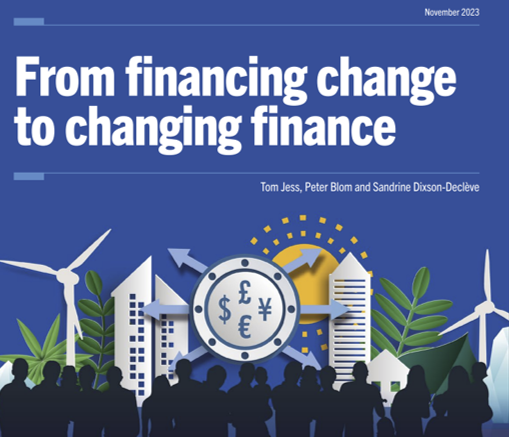

We Need to Not Only Finance Change but Also Change Finance!
This was the resounding message from the sustainable finance track at the European #bcorp Summit 2024, ignited by a groundbreaking mission paper from The Club of Rome.
True transformation requires tackling "asymmetric finance." Today, it's far easier to fund extraction and perpetuate a "growth imperative" detached from societal well-being than to finance regeneration. We must confront three pivotal challenges:
1. Choices in the Real Economy: We must eliminate harmful activities that are unprofitable when externalities are considered and only perpetuate the system without adding social value. This will streamline and refocus the financial sector.
2. Restructuring the Finance Sector: Finance is overly concentrated due to regulation and inherent economies of scale, particularly in asset management, leading to value destruction. We need a more balanced and equitable financial structure.
3. Institutional Reform: Money creation at its source must be linked to universal prosperity. Financial institutions must operate with a public purpose, curbing excessive shareholder power through stewardship or cooperative models.
This demands a profound conversation about the role of finance in society. Many bankers still cling to the belief that the primary goal of banks is to "make money from money." Transitioning from brown to green finance is a step in the right direction, but it's not enough. Banking should reflect and uphold human values.
How do we achieve this? We must ensure global finance is part of the solution, not the problem. It starts with the system seeing itself clearly and that is a function of #leadership. Let's make sure we hire for character when it comes to boards and supervisory boards, as well as central banks.
As Bill O'Brien once rightly pointed out: "The success of an intervention always depends on the interior condition of the intervener."
#banking #finance #sustainability #leadership #transformation
We Need to Not Only Finance Change but Also Change Finance!
This was the resounding message from the sustainable finance track at the European #bcorp Summit 2024, ignited by a groundbreaking mission paper from The Club of Rome.
True transformation requires tackling "asymmetric finance." Today, it's far easier to fund extraction and perpetuate a "growth imperative" detached from societal well-being than to finance regeneration. We must confront three pivotal challenges:
1. Choices in the Real Economy: We must eliminate harmful activities that are unprofitable when externalities are considered and only perpetuate the system without adding social value. This will streamline and refocus the financial sector.
2. Restructuring the Finance Sector: Finance is overly concentrated due to regulation and inherent economies of scale, particularly in asset management, leading to value destruction. We need a more balanced and equitable financial structure.
3. Institutional Reform: Money creation at its source must be linked to universal prosperity. Financial institutions must operate with a public purpose, curbing excessive shareholder power through stewardship or cooperative models.
This demands a profound conversation about the role of finance in society. Many bankers still cling to the belief that the primary goal of banks is to "make money from money." Transitioning from brown to green finance is a step in the right direction, but it's not enough. Banking should reflect and uphold human values.
How do we achieve this? We must ensure global finance is part of the solution, not the problem. It starts with the system seeing itself clearly and that is a function of #leadership. Let's make sure we hire for character when it comes to boards and supervisory boards, as well as central banks.
As Bill O'Brien once rightly pointed out: "The success of an intervention always depends on the interior condition of the intervener."
#banking #finance #sustainability #leadership #transformation
21-05-2024

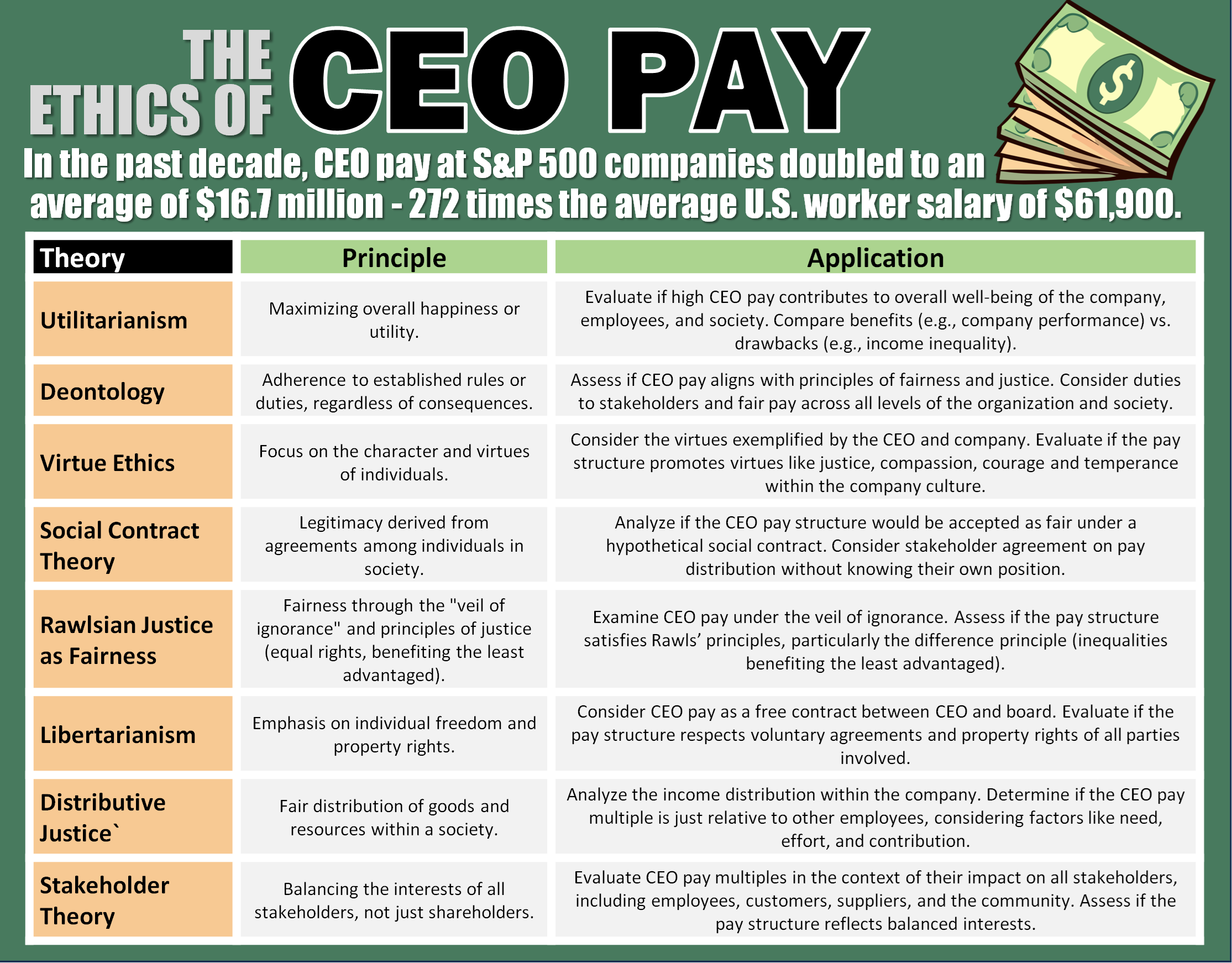

IS CEO PAY JUST? And Does It Matter?
You might say, "Of course it is just. We deserve it because of our contribution to the business." Or argue, "It’s the wrong question: if it was freely negotiated between consenting, informed parties, it must be just." Or claim, "It’s not our problem: markets produce matches, not wisdom. Distributive justice is a matter of taxation. And it's too small an issue to fuss about."
But clearly, that’s all a bit shortsighted. Jean-Jacques Rousseau rightly argued that "no citizen shall ever be wealthy enough to buy another, and none poor enough to be forced to sell himself." It doesn’t need agreement to Michael Sandel’s extensive arguments against meritocracy (see Tyranny of Merit), Philip Pettit’s critique of classical liberalism, or Lisa Herzog’s emphasis on collective duties and structural injustice to understand that there are a range of evaluative frames beyond popular (and somewhat simplistic) neoliberal positions.
And, yes, it matters. Accepting mediocre thinking allows it to dominate. Ideological biases, as Van Dijk et al show in a compelling new paper accumulate and perpetuate social inequality.
Hence, it's time to think harder about CEO pay. That must start with acknowledging alternative perspectives. As Martin Luther King Jr. once warned: "An injustice anywhere is a threat to justice everywhere."
#Leadership #EthicalBusiness #FairPay #Justice #Transformation #Management
IS CEO PAY JUST? And Does It Matter?
You might say, "Of course it is just. We deserve it because of our contribution to the business." Or argue, "It’s the wrong question: if it was freely negotiated between consenting, informed parties, it must be just." Or claim, "It’s not our problem: markets produce matches, not wisdom. Distributive justice is a matter of taxation. And it's too small an issue to fuss about."
But clearly, that’s all a bit shortsighted. Jean-Jacques Rousseau rightly argued that "no citizen shall ever be wealthy enough to buy another, and none poor enough to be forced to sell himself." It doesn’t need agreement to Michael Sandel’s extensive arguments against meritocracy (see Tyranny of Merit), Philip Pettit’s critique of classical liberalism, or Lisa Herzog’s emphasis on collective duties and structural injustice to understand that there are a range of evaluative frames beyond popular (and somewhat simplistic) neoliberal positions.
And, yes, it matters. Accepting mediocre thinking allows it to dominate. Ideological biases, as Van Dijk et al show in a compelling new paper accumulate and perpetuate social inequality.
Hence, it's time to think harder about CEO pay. That must start with acknowledging alternative perspectives. As Martin Luther King Jr. once warned: "An injustice anywhere is a threat to justice everywhere."
#Leadership #EthicalBusiness #FairPay #Justice #Transformation #Management
18-05-2024

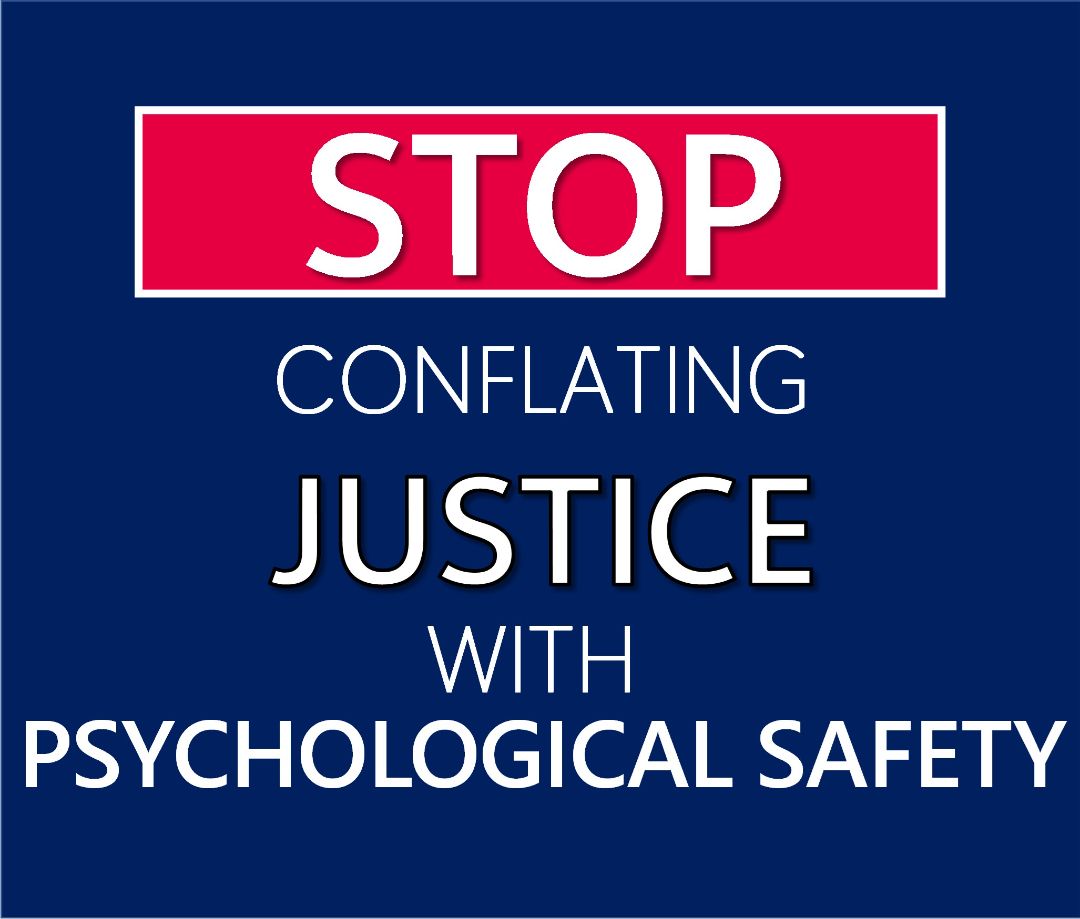

Andrew Harrop and I had a fascinating conversation yesterday at our hashtag#LBS Executive MBA 15th Anniversary reunion about the crucial role of political understanding in leadership and business.
Not only do political concepts offer a more nuanced lens for interpreting organizational and institutional structures, they also allow for a deeper analysis of power dynamics and justice in social systems beyond mere psychological and subjective analyses. It's certainly not enough to advocate for humble or compassionate leadership; we also need political statesmanship to properly situate individual stakeholders within the company and responsibly position the company within the broader political economy embedded in society.
The notion that management or economics are value-free or apolitical is as popular as it is deeply flawed both theoretically and practically. Therefore, MBA programs would greatly benefit from expanding their focus beyond coaching and personal development to include a deeper understanding of ethics and politics. Otherwise, leaders' judgment will remain fixated on instrumental rationality, even if adorned with a veneer of psychological insight.
Andrew Harrop and I had a fascinating conversation yesterday at our hashtag#LBS Executive MBA 15th Anniversary reunion about the crucial role of political understanding in leadership and business.
Not only do political concepts offer a more nuanced lens for interpreting organizational and institutional structures, they also allow for a deeper analysis of power dynamics and justice in social systems beyond mere psychological and subjective analyses. It's certainly not enough to advocate for humble or compassionate leadership; we also need political statesmanship to properly situate individual stakeholders within the company and responsibly position the company within the broader political economy embedded in society.
The notion that management or economics are value-free or apolitical is as popular as it is deeply flawed both theoretically and practically. Therefore, MBA programs would greatly benefit from expanding their focus beyond coaching and personal development to include a deeper understanding of ethics and politics. Otherwise, leaders' judgment will remain fixated on instrumental rationality, even if adorned with a veneer of psychological insight.
17-05-2024

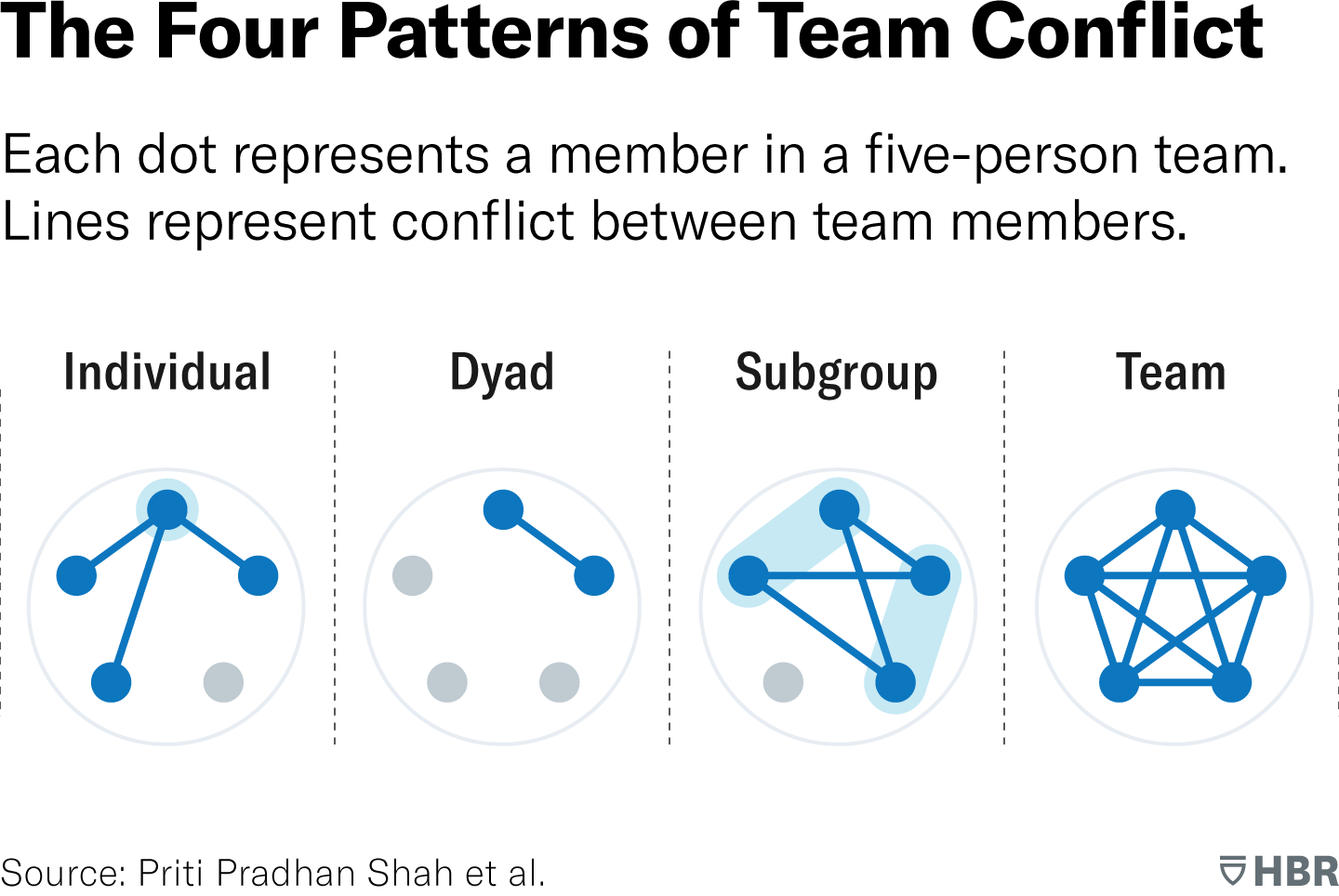

COMMON TYPES OF TEAM CONFLICT — and How to Resolve Them.
I was intrigued tonight by a thought-provoking presentation by Randall Peterson in occasion of our 15th #LBS alumni anniversary celebrations. Randall shed light on common types of conflict in teams that leaders often encounter, offering valuable guidance on resolving them effectively:
1) Solo Dissenters: Avoid ganging up on dissenting individuals; instead, leverage their perspective and address frictions one-on-one.
2) Boxing Matches: In case of conflict between two team members, it's crucial to mediate carefully if the disagreement is personal. However, fostering small-scale debates about ideas can enhance team performance. Assigning a devil's advocate to create conflict isn't effective, research suggests. I am sure Antoinette will disagree on this.
3) Warring Factions: Voting won't resolve conflicts between subgroups. Instead, introduce new ideas or goals to break the deadlock and move past opposition.
4) Blame Games: When the entire team disagrees, leaders must prioritize collaboration and foster alignment for the best interests of the team.
As always, I'm concerned about potential epistemological limitations inherent in survey-based research like this. We must also question the broader definition of performance and the underlying assumptions, oscillating between reducing tension and enhancing decision-making, behind such normative suggestions. However, the ideas are certainly very interesting and Randall's insight into the potential of conflict to actualize our highest potential, if appropriately managed, again sparked my curiosity about its broader relevance in organizational transformation.
Beyond psychological considerations, it's certainly crucial here to address the role of political institutions and the suitability of specific decision-making methods. The simplistic notion that a qualified majority can "resolve conflict" must be examined in the context of both representative and contestatory rights of employees and organizational design. We should also consider a wider array of decision-making methodologies, such as Laloux's advice process, expert-based decisions, sociocracy's qualified objections, and group techniques informed by coaching and psychology, or even Quaker-style spiritual consent.
But I'm also intrigued by how conflict intersects with the development of values and identity, both on an individual and collective level. How does it contribute to ego identity development? And how does it align with historical and philosophical emergence, echoing concepts from Hegel's dialectics, Machiavelli's "tumulti" or Vico's "corsi e ricorsi"? Additionally, how does it relate to ontological frameworks such as David Boye's Dialectical and Multiplicity approaches or Archer's morphogenesis in this context.
Certainly more to ponder!
Full paper: https://lnkd.in/e-T5aGjn
#transformation #leadership #organizationalchange #conflict
COMMON TYPES OF TEAM CONFLICT — and How to Resolve Them.
I was intrigued tonight by a thought-provoking presentation by Randall Peterson in occasion of our 15th #LBS alumni anniversary celebrations. Randall shed light on common types of conflict in teams that leaders often encounter, offering valuable guidance on resolving them effectively:
1) Solo Dissenters: Avoid ganging up on dissenting individuals; instead, leverage their perspective and address frictions one-on-one.
2) Boxing Matches: In case of conflict between two team members, it's crucial to mediate carefully if the disagreement is personal. However, fostering small-scale debates about ideas can enhance team performance. Assigning a devil's advocate to create conflict isn't effective, research suggests. I am sure Antoinette will disagree on this.
3) Warring Factions: Voting won't resolve conflicts between subgroups. Instead, introduce new ideas or goals to break the deadlock and move past opposition.
4) Blame Games: When the entire team disagrees, leaders must prioritize collaboration and foster alignment for the best interests of the team.
As always, I'm concerned about potential epistemological limitations inherent in survey-based research like this. We must also question the broader definition of performance and the underlying assumptions, oscillating between reducing tension and enhancing decision-making, behind such normative suggestions. However, the ideas are certainly very interesting and Randall's insight into the potential of conflict to actualize our highest potential, if appropriately managed, again sparked my curiosity about its broader relevance in organizational transformation.
Beyond psychological considerations, it's certainly crucial here to address the role of political institutions and the suitability of specific decision-making methods. The simplistic notion that a qualified majority can "resolve conflict" must be examined in the context of both representative and contestatory rights of employees and organizational design. We should also consider a wider array of decision-making methodologies, such as Laloux's advice process, expert-based decisions, sociocracy's qualified objections, and group techniques informed by coaching and psychology, or even Quaker-style spiritual consent.
But I'm also intrigued by how conflict intersects with the development of values and identity, both on an individual and collective level. How does it contribute to ego identity development? And how does it align with historical and philosophical emergence, echoing concepts from Hegel's dialectics, Machiavelli's "tumulti" or Vico's "corsi e ricorsi"? Additionally, how does it relate to ontological frameworks such as David Boye's Dialectical and Multiplicity approaches or Archer's morphogenesis in this context.
Certainly more to ponder!
Full paper: https://lnkd.in/e-T5aGjn
#transformation #leadership #organizationalchange #conflict
17-05-2024

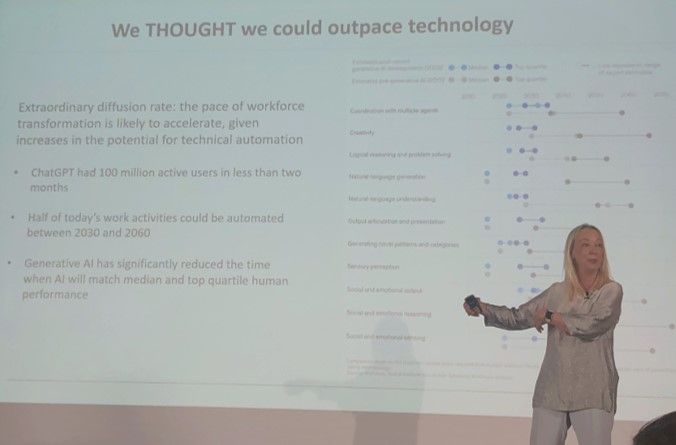

It was truly inspiring to again hear Lynda Gratton speak today at our 15th anniversary #LBS MBA reunion and the London Business School Festival of Minds. In her stimulating presentation Lynda shared both deeply introspective reflections on her immensely successful career, which continues into her 70s, while also addressing the continuously evolving and ever more diverse and complex landscape of employment, including the advancement of AI.
Anticipating her upcoming book on a good working life, Lynda advised us to navigate our increasingly multi-stage lives with preparation and agency, evaluating the available options, embracing the necessary and often difficult transitions and mastering those skills that matter.
Her deep insights sparked a rich discussion among the alumni, touching on the importance of virtuous leadership and our collective responsibility to address societal issues through our work. Only when asked about her life's purpose, Lynda remained cautious. Her journey had primarily revolved around knowledge and learning, she said, striving to bring valuable insights to the world of management. Purpose, she suggested, might not be easily found by everyone.
I believe this is profoundly true. Yet, I also find there's often a misunderstanding about the concept of purpose. Drawing from virtue ethics, purpose isn't something we simply acquire; it's a practice rooted in our actions. We become by doing. It's about continually developing our character by positioning ourselves consciously with a moral and relational order. Hence, paradoxically, our life's purpose isn't something we could find within ourselves by ourselves - it emerges when we dedicate ourselves to something greater within a social order that acknowledges its significance.
It was truly inspiring to again hear Lynda Gratton speak today at our 15th anniversary #LBS MBA reunion and the London Business School Festival of Minds. In her stimulating presentation Lynda shared both deeply introspective reflections on her immensely successful career, which continues into her 70s, while also addressing the continuously evolving and ever more diverse and complex landscape of employment, including the advancement of AI.
Anticipating her upcoming book on a good working life, Lynda advised us to navigate our increasingly multi-stage lives with preparation and agency, evaluating the available options, embracing the necessary and often difficult transitions and mastering those skills that matter.
Her deep insights sparked a rich discussion among the alumni, touching on the importance of virtuous leadership and our collective responsibility to address societal issues through our work. Only when asked about her life's purpose, Lynda remained cautious. Her journey had primarily revolved around knowledge and learning, she said, striving to bring valuable insights to the world of management. Purpose, she suggested, might not be easily found by everyone.
I believe this is profoundly true. Yet, I also find there's often a misunderstanding about the concept of purpose. Drawing from virtue ethics, purpose isn't something we simply acquire; it's a practice rooted in our actions. We become by doing. It's about continually developing our character by positioning ourselves consciously with a moral and relational order. Hence, paradoxically, our life's purpose isn't something we could find within ourselves by ourselves - it emerges when we dedicate ourselves to something greater within a social order that acknowledges its significance.
04-05-2024



What's your MBA really worth?
It is ironic. The more I engage with insightful colleagues, the further I dive into various studies, the more senior I become in my organisational roles, the more glaring the gaps in my MBA education become apparent. Despite being hailed as one of the best in Europe, and even globally, the program failed to encourage deep critical thinking and develop a more complex and heterodox understanding of economic and organisational reality. Most importantly, it did not equip us to make effective and ethical judgments in the presence of ambiguity and conflicting interests, and to challenge what business essentially should be about.
It's a realization that leaves me pondering: What's the true worth of an MBA in today's rapidly evolving business landscape, if it does not develop genuinely responsible leadership.
#leadership #mba #education #business #bschools #transformation #purpose #responsibility
What's your MBA really worth?
It is ironic. The more I engage with insightful colleagues, the further I dive into various studies, the more senior I become in my organisational roles, the more glaring the gaps in my MBA education become apparent. Despite being hailed as one of the best in Europe, and even globally, the program failed to encourage deep critical thinking and develop a more complex and heterodox understanding of economic and organisational reality. Most importantly, it did not equip us to make effective and ethical judgments in the presence of ambiguity and conflicting interests, and to challenge what business essentially should be about.
It's a realization that leaves me pondering: What's the true worth of an MBA in today's rapidly evolving business landscape, if it does not develop genuinely responsible leadership.
#leadership #mba #education #business #bschools #transformation #purpose #responsibility
04-05-2024



If we don't assert our humanity, AI will soon surpass us in terms of its inhumanity every single day.
04-05-2024



"It's not the capital, stupid!"
Efficiency in economic activity hinges on the optimal use of resources relative to the scarcest factor of production. While capital may have been paramount during the industrial revolution, it's abundantly clear that times have changed.
Therefore, clinging to regulations and institutional frameworks that prioritize shareholder interests above all else, reducing corporate governance to an agency problem, is woefully anachronistic.
We must urgently reimagine our institutions to move away from this narrow focus on financial returns and shareholder primacy, and instead, align economic activity with the broader interests of stakeholders and society as a whole. In today's Western world, the true scarcity is no longer finance—it's quality of life.
It really does not take much to see that.
#transformation #reinventingcapitalism #businessforhumanity #prosperity #purpose #economics #management
"It's not the capital, stupid!"
Efficiency in economic activity hinges on the optimal use of resources relative to the scarcest factor of production. While capital may have been paramount during the industrial revolution, it's abundantly clear that times have changed.
Therefore, clinging to regulations and institutional frameworks that prioritize shareholder interests above all else, reducing corporate governance to an agency problem, is woefully anachronistic.
We must urgently reimagine our institutions to move away from this narrow focus on financial returns and shareholder primacy, and instead, align economic activity with the broader interests of stakeholders and society as a whole. In today's Western world, the true scarcity is no longer finance—it's quality of life.
It really does not take much to see that.
#transformation #reinventingcapitalism #businessforhumanity #prosperity #purpose #economics #management
03-05-2024

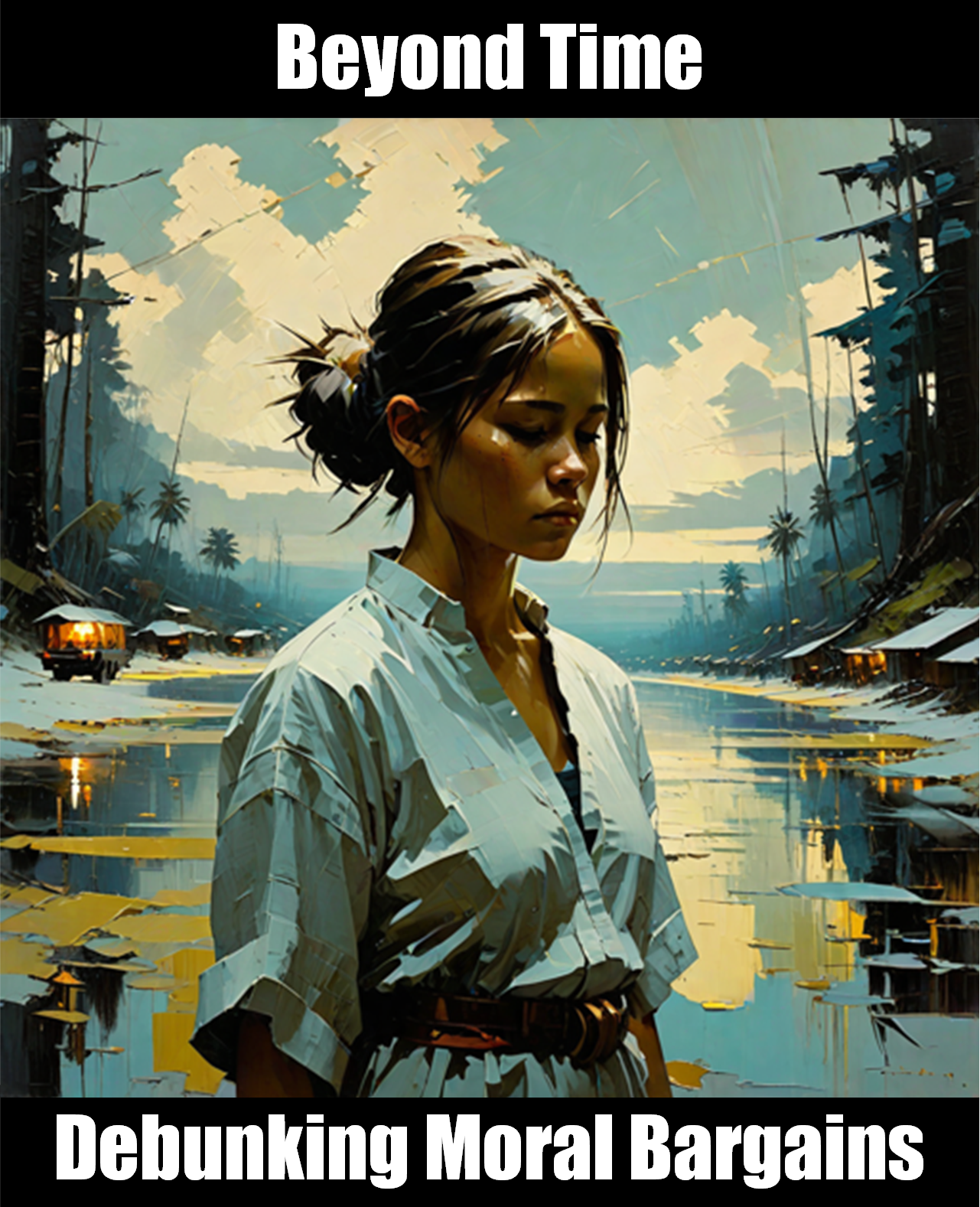

Beyond Time: Debunking the Illusions of Moral Bargaining
As you know I am always intrigued by emergent discourses, and I've observed this fascinating pattern where people, alternatively, either idealize "future generations" or romanticize "ancient people" and their wisdom in an effort to justify imposing restrictions on our current freedom.
But let's be real, neither makes much (moral) sense. Ethics isn't some sort of intergenerational bargaining chip, nor are the subjective opinions of past or future inhabitants highly relevant to our present-day issues. Justice extends beyond the notion of mere conservation or conditional usage, despite the allure of terms like "regenerative" that desperately seek to spice up the concept of conservatism.
Perhaps it's time to dig a little deeper and truly consider what it means to act responsibly. It's certainly a challenge that demands our attention and action in the here and now.
#leadership #transformation #responsibility #leadershipdevelopment #goodleadership #philosophy
Beyond Time: Debunking the Illusions of Moral Bargaining
As you know I am always intrigued by emergent discourses, and I've observed this fascinating pattern where people, alternatively, either idealize "future generations" or romanticize "ancient people" and their wisdom in an effort to justify imposing restrictions on our current freedom.
But let's be real, neither makes much (moral) sense. Ethics isn't some sort of intergenerational bargaining chip, nor are the subjective opinions of past or future inhabitants highly relevant to our present-day issues. Justice extends beyond the notion of mere conservation or conditional usage, despite the allure of terms like "regenerative" that desperately seek to spice up the concept of conservatism.
Perhaps it's time to dig a little deeper and truly consider what it means to act responsibly. It's certainly a challenge that demands our attention and action in the here and now.
#leadership #transformation #responsibility #leadershipdevelopment #goodleadership #philosophy
02-05-2024

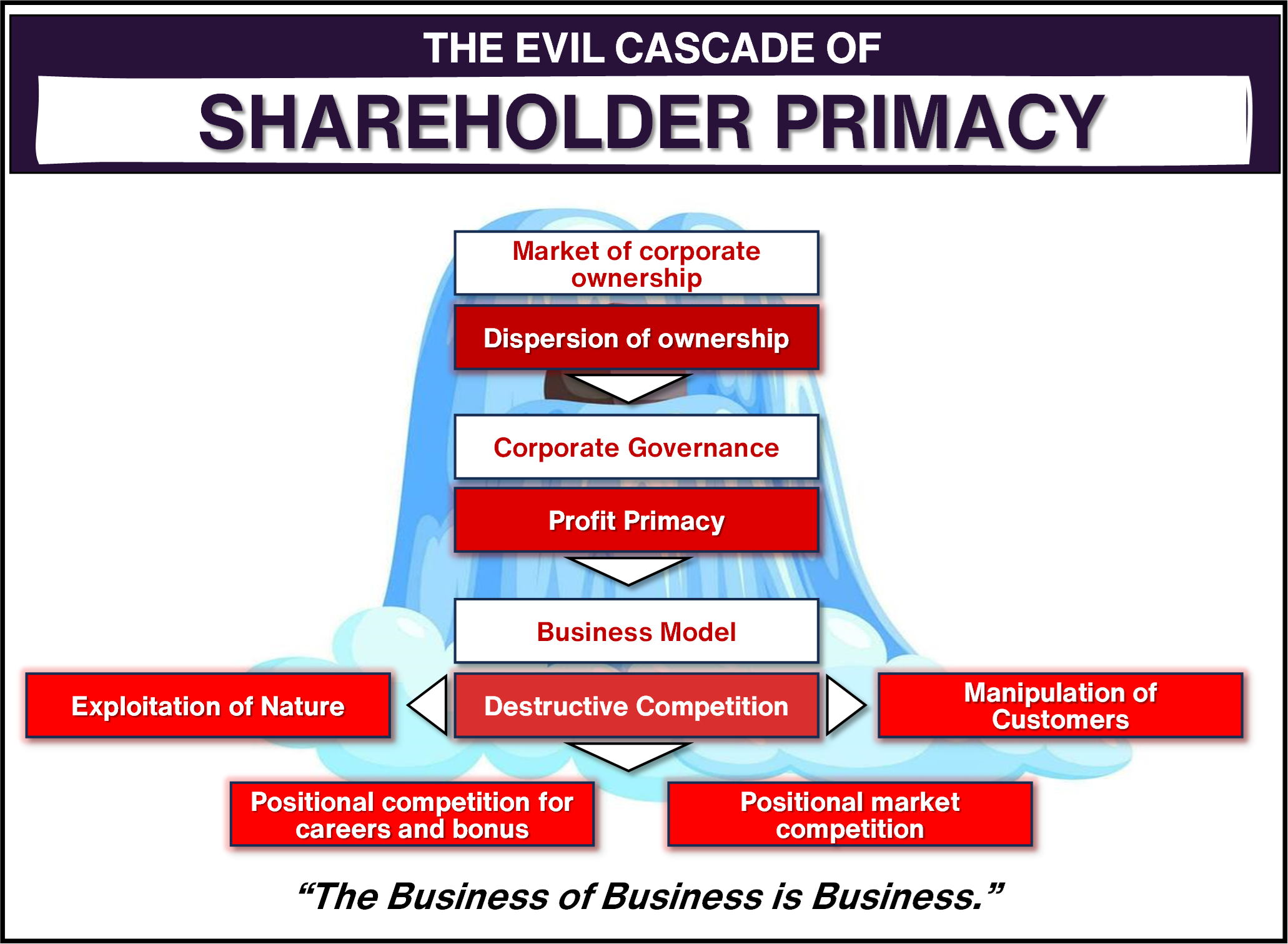

"Even the smallest spark of evil can ignite the darkest of flames."
As Colin Mayer points out: "It is not profits per se that are the problem; it is the maximization of profit for the benefit of the shareholders at the expense of other stakeholders that is a mistake, as well as the presumption that profits are the ‘be all and end all’ of business and its sole purpose. Profits are not the sole purpose of business. The purpose of business is ‘to produce profitable solutions to the problems of people and planet, and not to profit from producing problems for people and planet’. In the process, business produces profits. But profits are not per se the purpose of business and business should not profit from producing problems for people and planet."
#transformation #leadership #business #management #purpose
"Even the smallest spark of evil can ignite the darkest of flames."
As Colin Mayer points out: "It is not profits per se that are the problem; it is the maximization of profit for the benefit of the shareholders at the expense of other stakeholders that is a mistake, as well as the presumption that profits are the ‘be all and end all’ of business and its sole purpose. Profits are not the sole purpose of business. The purpose of business is ‘to produce profitable solutions to the problems of people and planet, and not to profit from producing problems for people and planet’. In the process, business produces profits. But profits are not per se the purpose of business and business should not profit from producing problems for people and planet."
#transformation #leadership #business #management #purpose
01-05-2024

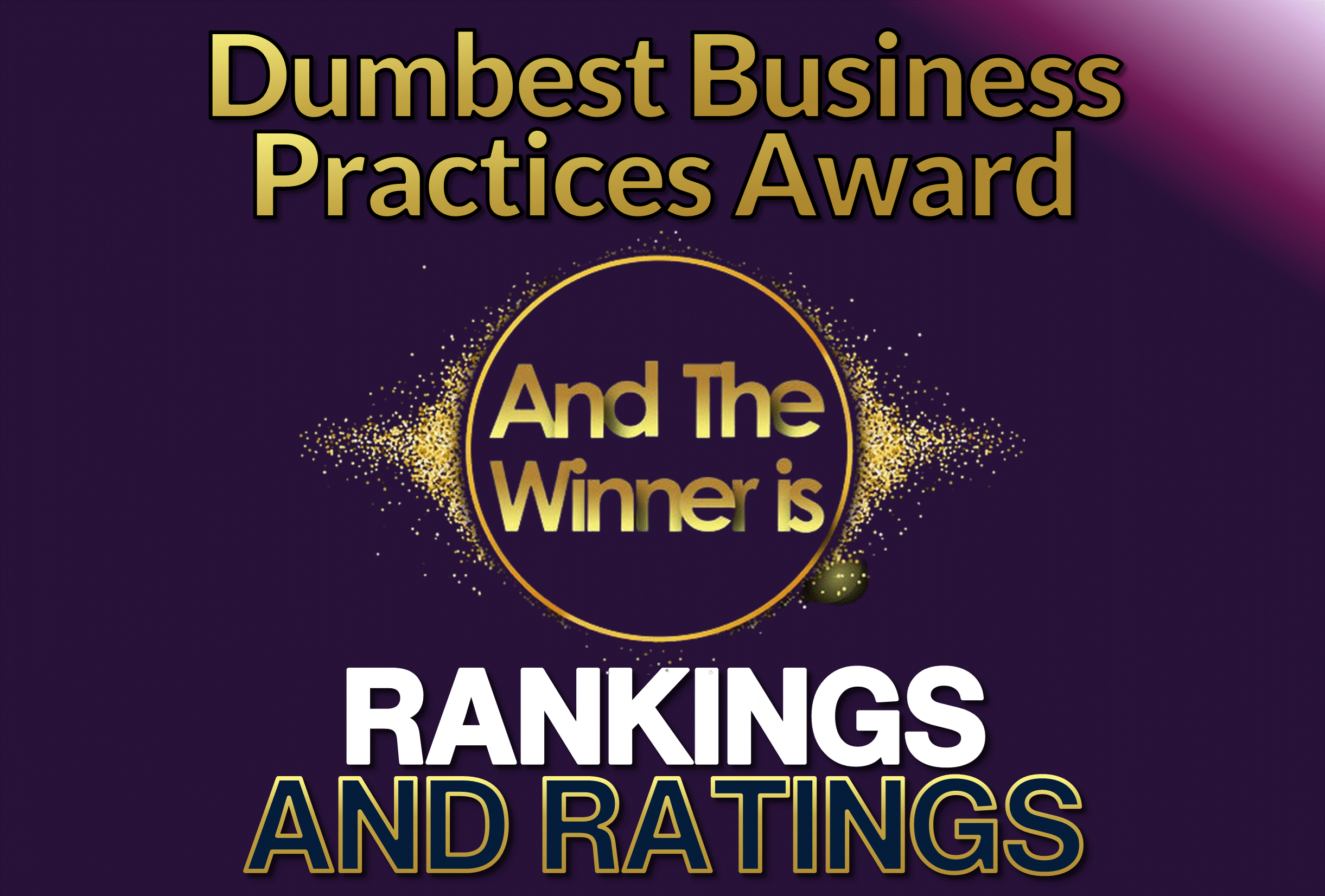

Let's talk about performance ratings and rankings – easily contenders for the title of the dumbest practices ever conceived in management. The evidence couldn't be clearer: unless you're in a factory cranking out widgets, they're about as useful as a screen door on a submarine.
Additionally, the often arbitrary "quantitative" judgment of employees by their managers, however well-intentioned, represents a significant encroachment on the fundamental dignity of individuals as human beings.
So, if you're still stuck in the Stone Age with traditional ratings, bell curves, or forced leveling, it's time to wake up and smell the incompetence. Shoot your CHRO a memo – they should check their data, pronto!
But what's it with the stubborn attachment to ratings, as if they were the greatest innovation since sliced bread?! Is HR truly unable to manage consequences without drowning in endless Excel spreadsheets that pretend to reveal truth where there is none? Are managers genuinely so insecure that they need to rely on performance ratings to assert power over their employees? Or do executives harbor such profound distrust in their managers' capabilities to manage effectively? Or perhaps, are we simply lost for alternatives? Either way, it's time to cut the cord and start thinking smarter.
In this extremely insightful session, Tamra offered her insights from decades in the field. It is an absolute treasure trove of wisdom, packed with practical lessons, innovative ideas, and actionable strategies for transforming performance management. Trust me, if you're in HR, you won't want to miss it!
If we lack the courage to address even the most absurd practices lingering on our shop floors, all our chatter about the 'work of the future' is just hot air. Don't wait around for the cows to come home – seize the opportunity now. Tune in to the recording and kickstart your journey toward a revamped approach to performance management.
Video link: https://lnkd.in/eU7_Ui2E
#GoodLeadershipSociety #GoodOrganisations #HR #FutureofWork #Leadership #Transformation #Business #PersonalDevelopment #CIPD
Let's talk about performance ratings and rankings – easily contenders for the title of the dumbest practices ever conceived in management. The evidence couldn't be clearer: unless you're in a factory cranking out widgets, they're about as useful as a screen door on a submarine.
Additionally, the often arbitrary "quantitative" judgment of employees by their managers, however well-intentioned, represents a significant encroachment on the fundamental dignity of individuals as human beings.
So, if you're still stuck in the Stone Age with traditional ratings, bell curves, or forced leveling, it's time to wake up and smell the incompetence. Shoot your CHRO a memo – they should check their data, pronto!
But what's it with the stubborn attachment to ratings, as if they were the greatest innovation since sliced bread?! Is HR truly unable to manage consequences without drowning in endless Excel spreadsheets that pretend to reveal truth where there is none? Are managers genuinely so insecure that they need to rely on performance ratings to assert power over their employees? Or do executives harbor such profound distrust in their managers' capabilities to manage effectively? Or perhaps, are we simply lost for alternatives? Either way, it's time to cut the cord and start thinking smarter.
In this extremely insightful session, Tamra offered her insights from decades in the field. It is an absolute treasure trove of wisdom, packed with practical lessons, innovative ideas, and actionable strategies for transforming performance management. Trust me, if you're in HR, you won't want to miss it!
If we lack the courage to address even the most absurd practices lingering on our shop floors, all our chatter about the 'work of the future' is just hot air. Don't wait around for the cows to come home – seize the opportunity now. Tune in to the recording and kickstart your journey toward a revamped approach to performance management.
Video link: https://lnkd.in/eU7_Ui2E
#GoodLeadershipSociety #GoodOrganisations #HR #FutureofWork #Leadership #Transformation #Business #PersonalDevelopment #CIPD
01-05-2024



CRAFTING THE FUTURE OF WORK: A CALL TO CO-CREATE AN AGILE MANIFESTO FOR HR!
It is a privilege to once again be invited to engage in a crucial dialogue with my esteemed colleagues from the HR community. I am glad to say that our journey has been a collaborative exploration over many years. The subject matter is not just important; it's existential. It goes to the essence of who we are as businesses, as leaders, as HR professionals, and as corporate citizens. It's about crafting a future of work that aligns with our values and aspirations, and recognizing our role in shaping it.
While we certainly do not possess all the answers, it is great to see that we are willing to ask some vital questions, and that we are committed to carving out the time and space in our agenda for the conversation. Admittedly, it's not always a smooth ride; we hail from diverse backgrounds and hold varying perspectives. Some people were not very happy that Antoinette and I challenged the hegemony of the business partner discourse last year. Yet, I strongly believe scrutiny and critical thinking are necessary, and thanks to our diversity, moments of magic can occur!
Therefore, we are particularly proud to return to the Congress this year with a collaborative creation forged with many esteemed colleagues—a testament to the power of collective effort.
In Amsterdam last year, a spontaneous decision arose among a group of us: we felt that it was not enough to just sit in the many sessions and talk; we were compelled to take tangible action. With several dedicated colleagues, we embarked on a mission to instigate real change by proposing something foundational to propel HR forward. Over the past four months, with the significant effort of numerous volunteers, we initiated an inquiry into the transformation performance management—the cornerstone of HR. And now, we're thrilled to unveil a groundbreaking achievement: the world's first Performance Management Manifesto, inspired by but moving beyond the Agile Manifesto!
During this year's conference, we therefore extend an invitation to all our colleagues to join us in refining the draft and to enlist for experimental implementation. Together, we aim to formally endorse it as an official proclamation of the HR World Summit, together with Perry Timms and Mihaly Nagy. Our aspiration is to craft a new tool that unites and propels the efforts of forward-thinking HR professionals globally, empowering them to not only enhance business efficiency but also foster organisational and societal flourishing!
There are pivotal moments in life when we must choose between being a mere bystander or stepping up as a true transformer. If you're prepared to take a stab at genuinely shaping the work of the future, come on board! We look forward to seeing you all in Porto!
#hr #transformation #hrm #leadership #leadershipdevelopment #organisationalchange #business #leaders #agile #purpose The HR Congress
CRAFTING THE FUTURE OF WORK: A CALL TO CO-CREATE AN AGILE MANIFESTO FOR HR!
It is a privilege to once again be invited to engage in a crucial dialogue with my esteemed colleagues from the HR community. I am glad to say that our journey has been a collaborative exploration over many years. The subject matter is not just important; it's existential. It goes to the essence of who we are as businesses, as leaders, as HR professionals, and as corporate citizens. It's about crafting a future of work that aligns with our values and aspirations, and recognizing our role in shaping it.
While we certainly do not possess all the answers, it is great to see that we are willing to ask some vital questions, and that we are committed to carving out the time and space in our agenda for the conversation. Admittedly, it's not always a smooth ride; we hail from diverse backgrounds and hold varying perspectives. Some people were not very happy that Antoinette and I challenged the hegemony of the business partner discourse last year. Yet, I strongly believe scrutiny and critical thinking are necessary, and thanks to our diversity, moments of magic can occur!
Therefore, we are particularly proud to return to the Congress this year with a collaborative creation forged with many esteemed colleagues—a testament to the power of collective effort.
In Amsterdam last year, a spontaneous decision arose among a group of us: we felt that it was not enough to just sit in the many sessions and talk; we were compelled to take tangible action. With several dedicated colleagues, we embarked on a mission to instigate real change by proposing something foundational to propel HR forward. Over the past four months, with the significant effort of numerous volunteers, we initiated an inquiry into the transformation performance management—the cornerstone of HR. And now, we're thrilled to unveil a groundbreaking achievement: the world's first Performance Management Manifesto, inspired by but moving beyond the Agile Manifesto!
During this year's conference, we therefore extend an invitation to all our colleagues to join us in refining the draft and to enlist for experimental implementation. Together, we aim to formally endorse it as an official proclamation of the HR World Summit, together with Perry Timms and Mihaly Nagy. Our aspiration is to craft a new tool that unites and propels the efforts of forward-thinking HR professionals globally, empowering them to not only enhance business efficiency but also foster organisational and societal flourishing!
There are pivotal moments in life when we must choose between being a mere bystander or stepping up as a true transformer. If you're prepared to take a stab at genuinely shaping the work of the future, come on board! We look forward to seeing you all in Porto!
#hr #transformation #hrm #leadership #leadershipdevelopment #organisationalchange #business #leaders #agile #purpose The HR Congress
30-04-2024

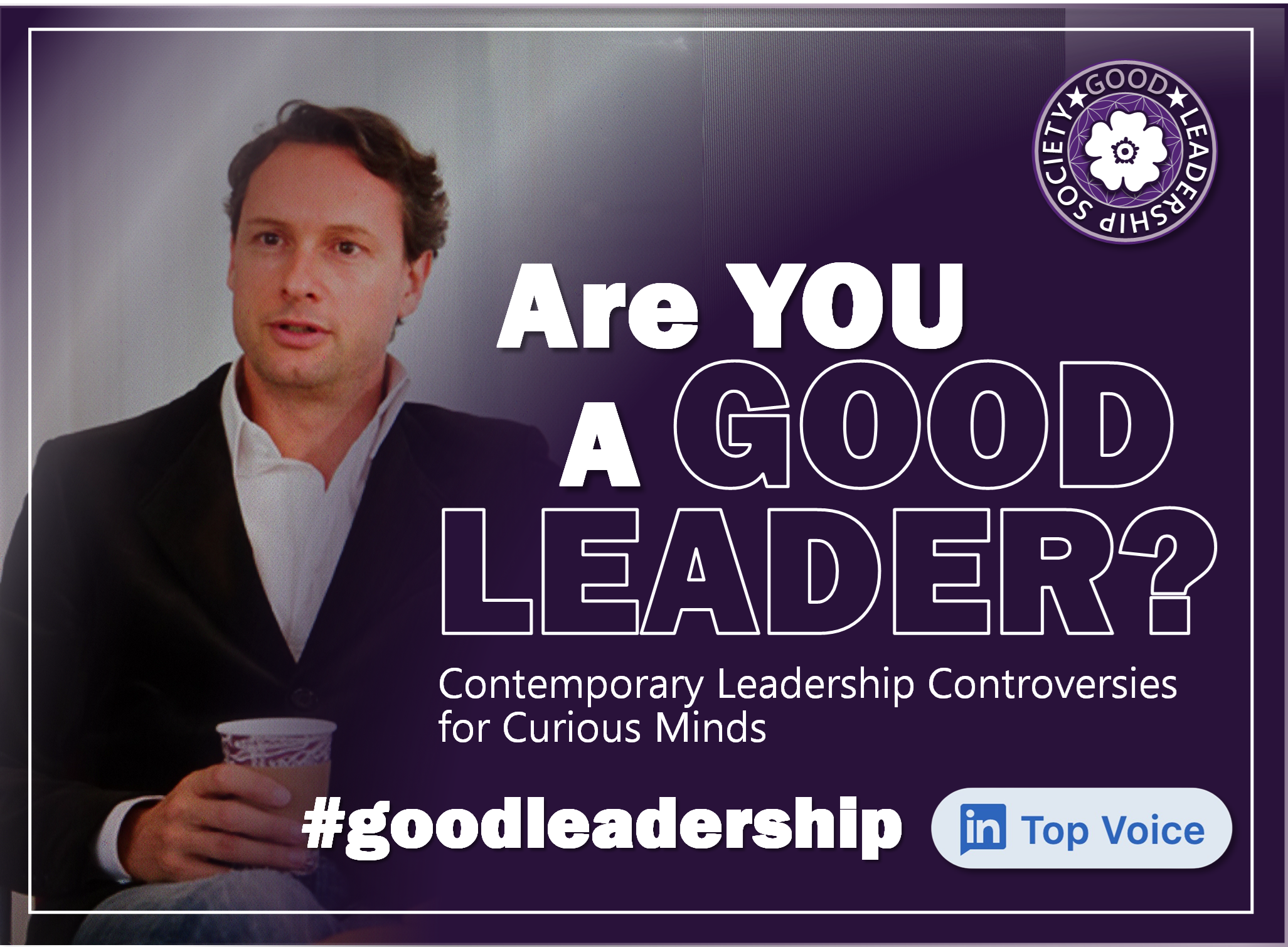

I'm truly honoured to have been recognized among the LinkedIn Top Voices of 2024, representing the emerging global society for good leadership. A heartfelt thank you to everyone who engages with my content, whether through reading, sharing, or offering valuable feedback in over five million interactions last year. I firmly believe that through open dialogue and constructive critical discourse, we can cultivate a community of learners committed to advancing our collective understanding and practice of responsible leadership. Here's to countless more connections and conversations and an inspiring journey of discovery ahead!
#leadership #goodleadership #transformation #business #agile #leadershipsociety #cto #leadershipdevelopment #organisationalchange #grli
I'm truly honoured to have been recognized among the LinkedIn Top Voices of 2024, representing the emerging global society for good leadership. A heartfelt thank you to everyone who engages with my content, whether through reading, sharing, or offering valuable feedback in over five million interactions last year. I firmly believe that through open dialogue and constructive critical discourse, we can cultivate a community of learners committed to advancing our collective understanding and practice of responsible leadership. Here's to countless more connections and conversations and an inspiring journey of discovery ahead!
#leadership #goodleadership #transformation #business #agile #leadershipsociety #cto #leadershipdevelopment #organisationalchange #grli
28-04-2024



CULTIVATING EXCELLENCE: The Case for Organizational Development Officers!
The more I ponder, the more convinced I become that we urgently need to instill a culture of ongoing organizational development. As Dave Ulrich astutely observes, organizational capabilities far outweigh mere talent management, yet the competencies for strategic organizational development (OD) are sorely lacking in HR and remain underdeveloped in most consultancies. I am always surprised how few leaders seem to have ever heard about models such as sociocracy, rendanheyi, holacracy, or EEEO.
Furthermore, the evolution of an organization—holistically and systemically—shouldn't be a one-off endeavor but a continuous imperative. It necessitates the collaboration of diverse stakeholders to ensure that our organizational structures, policies, and processes continually adapt to market dynamics, technological advancements, and internal needs.
Truly great organizations not only deliver value to stakeholders but also provide employees with meaningful work. Achieving this isn't just about leading people; it's about shaping the very context in which we operate.
#leadership #personaldevelopment #leadershipdevelompent #system #management #hr #hrm #consulting #transformation #organizationalchange
CULTIVATING EXCELLENCE: The Case for Organizational Development Officers!
The more I ponder, the more convinced I become that we urgently need to instill a culture of ongoing organizational development. As Dave Ulrich astutely observes, organizational capabilities far outweigh mere talent management, yet the competencies for strategic organizational development (OD) are sorely lacking in HR and remain underdeveloped in most consultancies. I am always surprised how few leaders seem to have ever heard about models such as sociocracy, rendanheyi, holacracy, or EEEO.
Furthermore, the evolution of an organization—holistically and systemically—shouldn't be a one-off endeavor but a continuous imperative. It necessitates the collaboration of diverse stakeholders to ensure that our organizational structures, policies, and processes continually adapt to market dynamics, technological advancements, and internal needs.
Truly great organizations not only deliver value to stakeholders but also provide employees with meaningful work. Achieving this isn't just about leading people; it's about shaping the very context in which we operate.
#leadership #personaldevelopment #leadershipdevelompent #system #management #hr #hrm #consulting #transformation #organizationalchange
28-04-2024

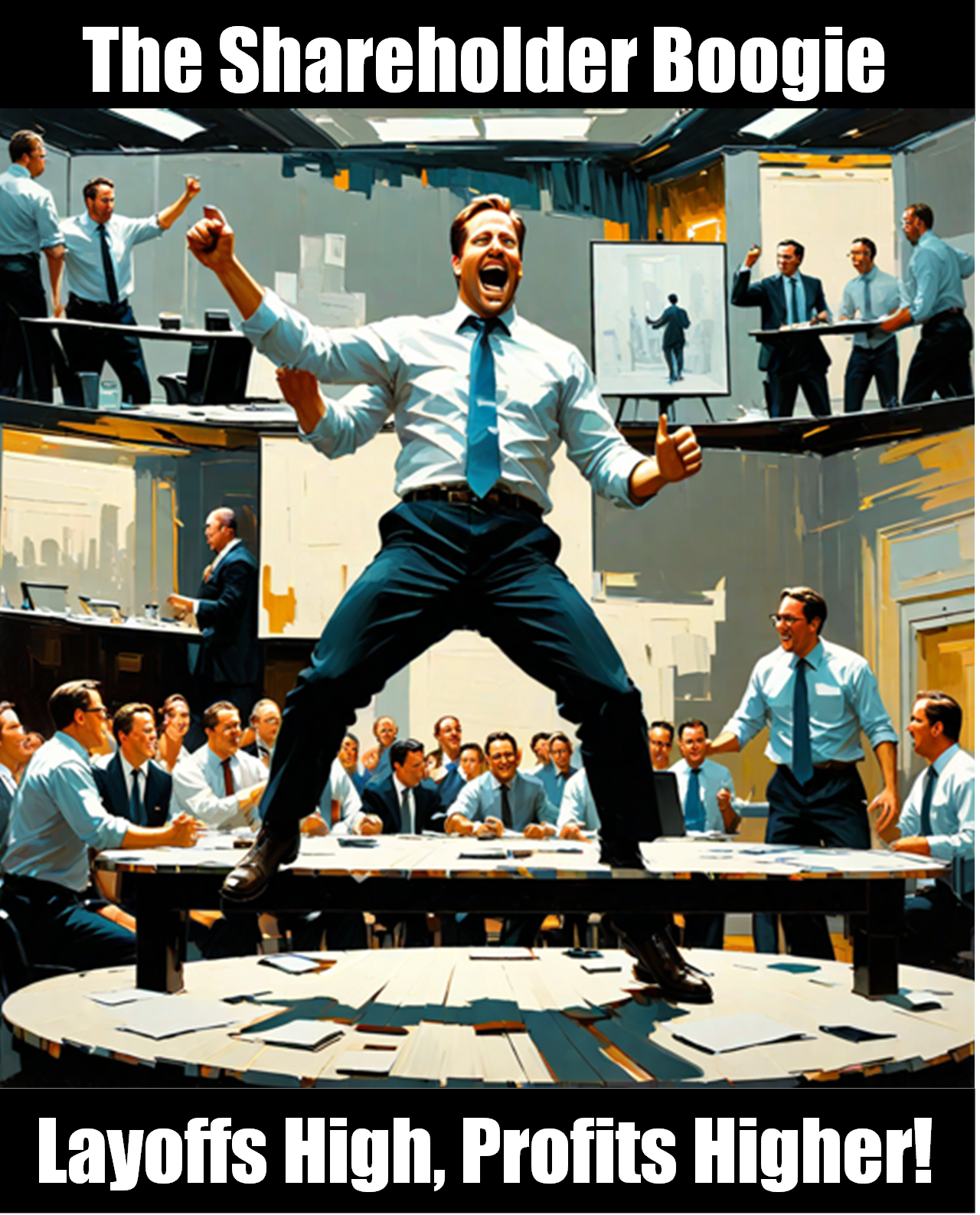

HIGH FINANCE, LOW MORALS!
In the world of high finance, it's often the shareholders who call the shots, casting their votes on crucial corporate matters at annual meetings:
In fact, shareholders wield significant power in shaping the course of a company's destiny, ranging from determining the composition of the board of directors to greenlighting mergers or acquisitions. Shareholders also have a say in fundamental issues such as issuing new securities, approving dividends, and endorsing substantial alterations in the corporation's strategies, operations, or policies.
But why are employees left out of the decision-making process when they have just as much at stake, if not more? Many may not be aware that the foundation of shareholder voting rights mirrors the democratic principles governing municipal corporations and states. Originating from an era predating the dominance of possessive individualism, the concept of "One shareholder, one vote" traces back to the governance structure of the East India Company during the late 17th century.
It's apparent that employees and various stakeholders share equal if not greater interest and risk than shareholders in steering the company's course. In light of this, adhering to the principle of republican freedom, as espoused by Philip Pettit, raises questions about the constitutional legitimacy of denying corporate citizens at least contestatory rights. Failure to do so risks subjecting them to arbitrary domination from select groups whose motives may not align with the employees' best interests.
If legal constraints prevent such a shift, why not facilitate pre-hearings with the organizational populace, engaging in preliminary deliberations and decision-making "by objection," as suggested by sociocracy, before formal shareholder assemblies?
It appears imperative to safeguard the authentic freedom of employees within corporations, rather than permitting their systemic dominance by largely anonymous financial investors who may have minimal concern for the organization's as a going concern.
#leadership #transformation #business #corporategovernance #Goodorganisations #management #csr
HIGH FINANCE, LOW MORALS!
In the world of high finance, it's often the shareholders who call the shots, casting their votes on crucial corporate matters at annual meetings:
In fact, shareholders wield significant power in shaping the course of a company's destiny, ranging from determining the composition of the board of directors to greenlighting mergers or acquisitions. Shareholders also have a say in fundamental issues such as issuing new securities, approving dividends, and endorsing substantial alterations in the corporation's strategies, operations, or policies.
But why are employees left out of the decision-making process when they have just as much at stake, if not more? Many may not be aware that the foundation of shareholder voting rights mirrors the democratic principles governing municipal corporations and states. Originating from an era predating the dominance of possessive individualism, the concept of "One shareholder, one vote" traces back to the governance structure of the East India Company during the late 17th century.
It's apparent that employees and various stakeholders share equal if not greater interest and risk than shareholders in steering the company's course. In light of this, adhering to the principle of republican freedom, as espoused by Philip Pettit, raises questions about the constitutional legitimacy of denying corporate citizens at least contestatory rights. Failure to do so risks subjecting them to arbitrary domination from select groups whose motives may not align with the employees' best interests.
If legal constraints prevent such a shift, why not facilitate pre-hearings with the organizational populace, engaging in preliminary deliberations and decision-making "by objection," as suggested by sociocracy, before formal shareholder assemblies?
It appears imperative to safeguard the authentic freedom of employees within corporations, rather than permitting their systemic dominance by largely anonymous financial investors who may have minimal concern for the organization's as a going concern.
#leadership #transformation #business #corporategovernance #Goodorganisations #management #csr
27-04-2024

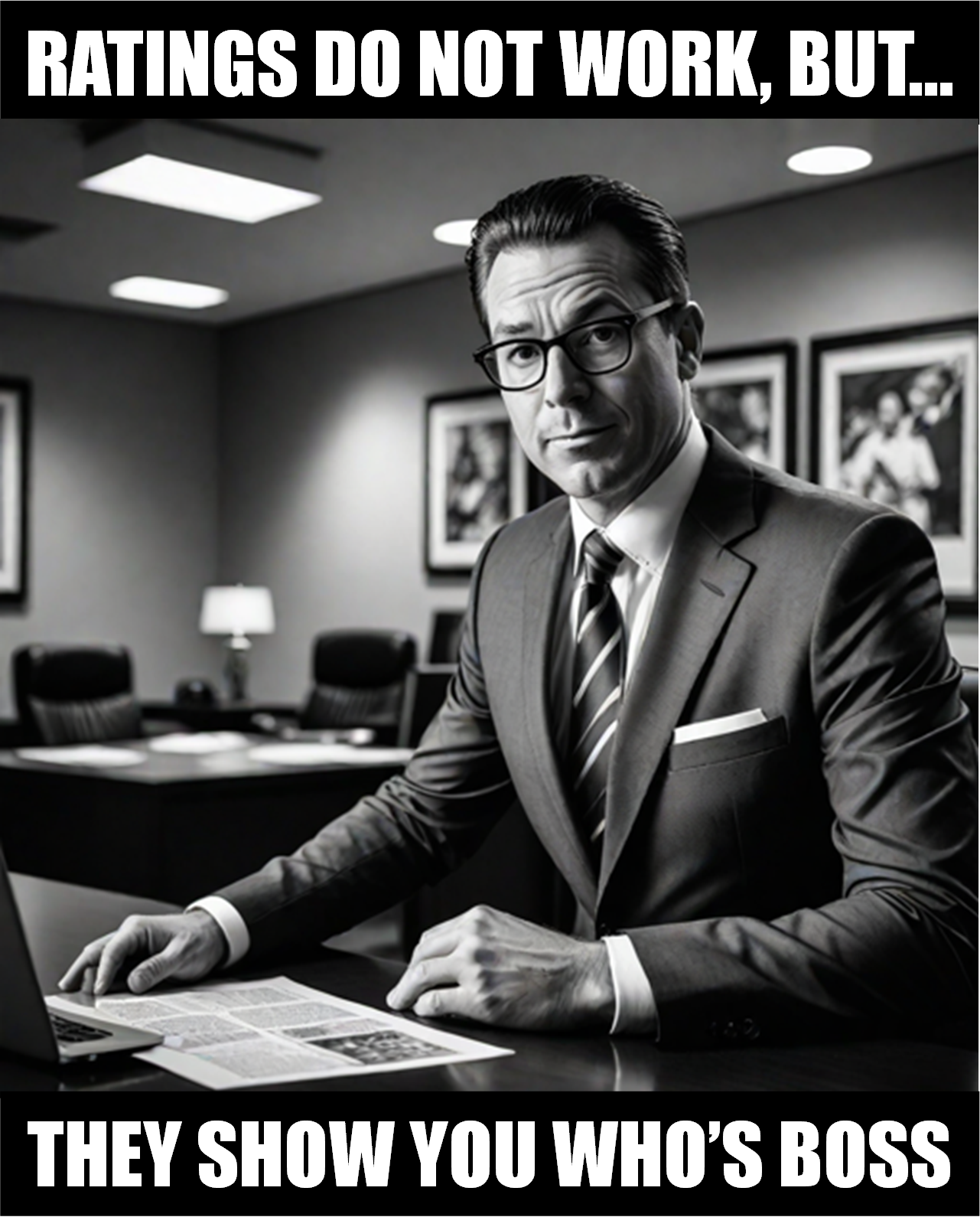

🚫 PERFORMANCE RATINGS: The Tyranny of Corporate Control 🚫
Despite overwhelming evidence revealing their ineffectiveness, why do companies stubbornly cling to performance ratings? Let's face it: it's a power play.
Research after research has debunked their validity, showing they're costly, despised, and actually detrimental to performance. So why are HR directors still insisting on them? It's simple: ratings are the ultimate tool for enforcing hierarchy and asserting dominance.
They may not accurately measure performance, but they sure do send a message — one that says, 'Know thy place!'
But in 2024, isn't it time we got rid of a system of arbitrary control to embrace strategies that liberate both managers and subordinates, and actually drive improvement and empowerment? Just asking...
#HR #Futureofwork #management #HRM #performance #transformation #leadership #agile #goodorganisations #leadershipsociety #business #performancemanagement
🚫 PERFORMANCE RATINGS: The Tyranny of Corporate Control 🚫
Despite overwhelming evidence revealing their ineffectiveness, why do companies stubbornly cling to performance ratings? Let's face it: it's a power play.
Research after research has debunked their validity, showing they're costly, despised, and actually detrimental to performance. So why are HR directors still insisting on them? It's simple: ratings are the ultimate tool for enforcing hierarchy and asserting dominance.
They may not accurately measure performance, but they sure do send a message — one that says, 'Know thy place!'
But in 2024, isn't it time we got rid of a system of arbitrary control to embrace strategies that liberate both managers and subordinates, and actually drive improvement and empowerment? Just asking...
#HR #Futureofwork #management #HRM #performance #transformation #leadership #agile #goodorganisations #leadershipsociety #business #performancemanagement
26-04-2024



Playing With Fire: The Smoke and Mirrors of Balancing Profit and Purpose
"Corporate 'performance' can ever only be truly assessed in alignment with a company's emergent identity and purpose. Consequentially, it is a reflection of its character, manifested through culture, structure, and relationships."
This highlights two key points:
Firstly, debating a simple redefinition of corporate performance or the idea of balancing 'purpose and profit' is clearly misguided; as long as companies pursue profit as their ultimate ends, they will seek to foster "high-performance" cultures geared towards its maximization, whatever the annual report might say. Only when a company's purpose transcends profit does the conversation shift. In that case corporate performance is measured by the realization of its deeper purpose, with profit serving merely as a means to that end.
Secondly, meaningful shifts in performance demand more than just surface-level changes in metrics or reporting; they necessitate a fundamental shift in the institutional fabric and character of organizations.
In essence, the trendy notion of 'doing good and doing well' mostly masks a reluctance to engage in a deeper conversation about "true" organizational purpose and the necessary adaptations of its inner workings and character to uphold it.
#transformation #leadership #management #responsibility #goodleadership #leadershipsociety #grli #csr
Playing With Fire: The Smoke and Mirrors of Balancing Profit and Purpose
"Corporate 'performance' can ever only be truly assessed in alignment with a company's emergent identity and purpose. Consequentially, it is a reflection of its character, manifested through culture, structure, and relationships."
This highlights two key points:
Firstly, debating a simple redefinition of corporate performance or the idea of balancing 'purpose and profit' is clearly misguided; as long as companies pursue profit as their ultimate ends, they will seek to foster "high-performance" cultures geared towards its maximization, whatever the annual report might say. Only when a company's purpose transcends profit does the conversation shift. In that case corporate performance is measured by the realization of its deeper purpose, with profit serving merely as a means to that end.
Secondly, meaningful shifts in performance demand more than just surface-level changes in metrics or reporting; they necessitate a fundamental shift in the institutional fabric and character of organizations.
In essence, the trendy notion of 'doing good and doing well' mostly masks a reluctance to engage in a deeper conversation about "true" organizational purpose and the necessary adaptations of its inner workings and character to uphold it.
#transformation #leadership #management #responsibility #goodleadership #leadershipsociety #grli #csr
18-04-2024

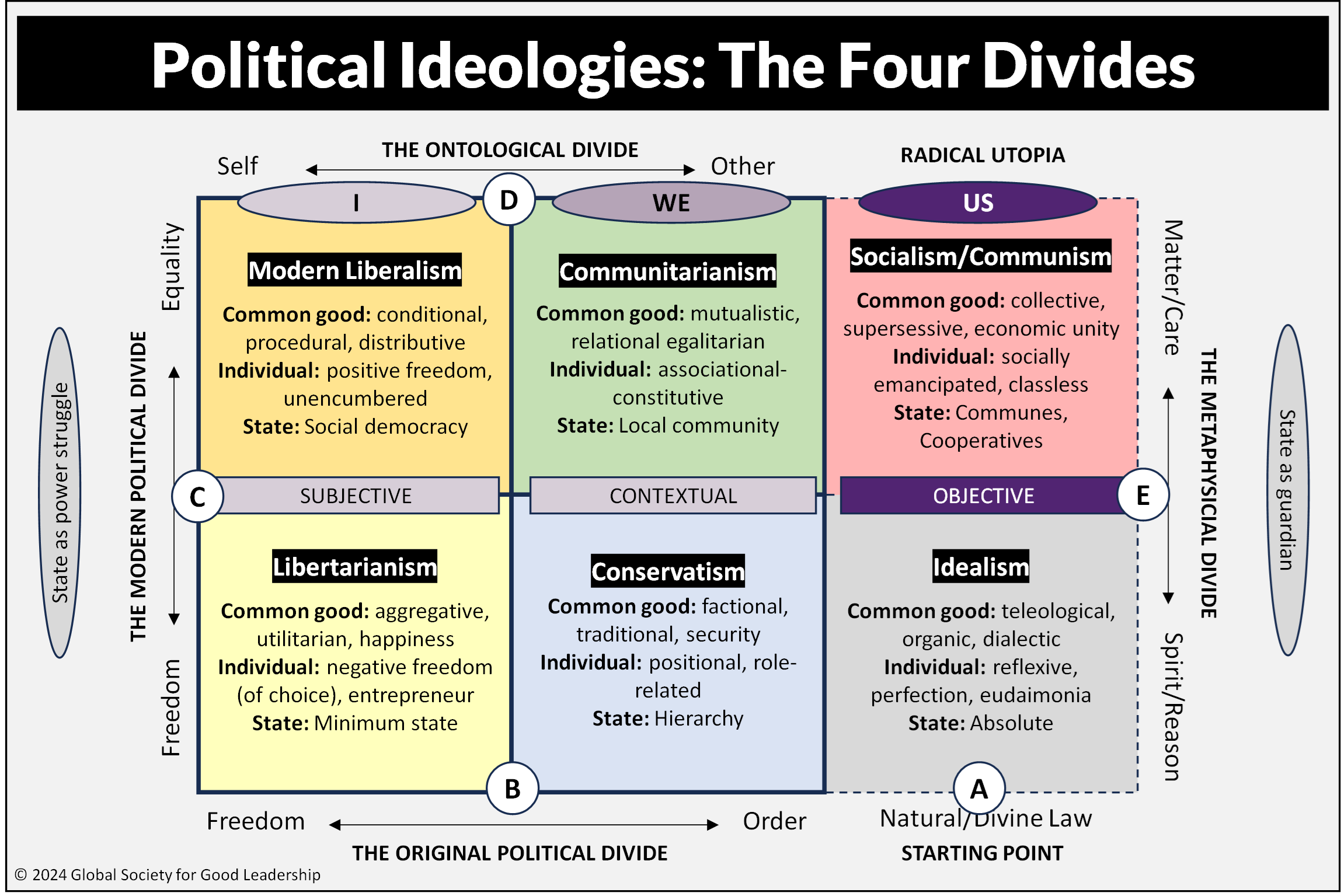

🔍 In Search of Clarity: Unraveling the Complexity of Political Ideals
In the labyrinth of modern politics, clarity often proves elusive amidst a cacophony of conflicting voices and values. However, in modern Western democracies, discussions frequently gravitate towards the four quadrants on the left side of the figure, each with its unique origins and distinctions: conservatism, libertarianism (classical liberalism), modern liberalism (and social democracy) and communitarianism.
At the origin of this constellation lies the evolution from earlier natural or divine law absolutism, symbolized by point A, where laws, rights and obligations often find their roots in nature or God's will.
The 18th century marks the genesis of the original political divide, symbolized as B, which delineates the ideological chasm between conservatives and classical liberals. Classical liberals emerge as vanguards of individual freedom, laying thus the foundation of modern Western politics. Their ethos revolves particularly around the primacy of negative freedom—liberation from coercion and interference, historically rejecting the grip of religious institutions, feudal lords, and the aristocracy.
Transitioning to the 20th century, classical liberals evolve into libertarians, diverging significantly from modern liberals or social democrats, who place a strong emphasis on equality and positive freedom—the freedom to fulfill one's potential and achieve well-being. While they champion measures aimed at fostering broader human capabilities and reducing social inequalities, Libertarians accentuate individual autonomy to the extreme, often advocating minimal state intervention. Consequently, clashes emerge over the size and configuration of the modern welfare state.
Progressing to postmodern times, we confront the ontological divide at point D, where profound differences emerge between the ideal of unencumbered personhood advocated by all liberals and a communitarian ideology, emphasizing relational self and mutual existence – "I am because you are." A final shift takes us towards a collective "Us", leading towards the radical utopia of socialist unity and a classless collective state, opposing traditional notions of individualism. This step also highlights a final metaphysical distinction, under E: socialism or communism, focusing entirely on material concerns, contrasts with the original idealism, centered on spiritual values.
Lastly, clearly contrasting views of the state emerge: a mainly European stance sees it as the guardian of an objective and universal ideal, while Anglo-Saxon perspectives often view it as an arena for power struggles over subjective interests.
It can be truly fascinating to embark on the journey through political ideologies, where past, present, and future intersect in a tapestry of diverse beliefs, understanding of self and cosmological ideals. 🌟
#Leadership #Transformation #Politics #Philosophy #GoodOrganisations #LeadershipSociety #Management
🔍 In Search of Clarity: Unraveling the Complexity of Political Ideals
In the labyrinth of modern politics, clarity often proves elusive amidst a cacophony of conflicting voices and values. However, in modern Western democracies, discussions frequently gravitate towards the four quadrants on the left side of the figure, each with its unique origins and distinctions: conservatism, libertarianism (classical liberalism), modern liberalism (and social democracy) and communitarianism.
At the origin of this constellation lies the evolution from earlier natural or divine law absolutism, symbolized by point A, where laws, rights and obligations often find their roots in nature or God's will.
The 18th century marks the genesis of the original political divide, symbolized as B, which delineates the ideological chasm between conservatives and classical liberals. Classical liberals emerge as vanguards of individual freedom, laying thus the foundation of modern Western politics. Their ethos revolves particularly around the primacy of negative freedom—liberation from coercion and interference, historically rejecting the grip of religious institutions, feudal lords, and the aristocracy.
Transitioning to the 20th century, classical liberals evolve into libertarians, diverging significantly from modern liberals or social democrats, who place a strong emphasis on equality and positive freedom—the freedom to fulfill one's potential and achieve well-being. While they champion measures aimed at fostering broader human capabilities and reducing social inequalities, Libertarians accentuate individual autonomy to the extreme, often advocating minimal state intervention. Consequently, clashes emerge over the size and configuration of the modern welfare state.
Progressing to postmodern times, we confront the ontological divide at point D, where profound differences emerge between the ideal of unencumbered personhood advocated by all liberals and a communitarian ideology, emphasizing relational self and mutual existence – "I am because you are." A final shift takes us towards a collective "Us", leading towards the radical utopia of socialist unity and a classless collective state, opposing traditional notions of individualism. This step also highlights a final metaphysical distinction, under E: socialism or communism, focusing entirely on material concerns, contrasts with the original idealism, centered on spiritual values.
Lastly, clearly contrasting views of the state emerge: a mainly European stance sees it as the guardian of an objective and universal ideal, while Anglo-Saxon perspectives often view it as an arena for power struggles over subjective interests.
It can be truly fascinating to embark on the journey through political ideologies, where past, present, and future intersect in a tapestry of diverse beliefs, understanding of self and cosmological ideals. 🌟
#Leadership #Transformation #Politics #Philosophy #GoodOrganisations #LeadershipSociety #Management
15-04-2024
Business #transformation not only often encounters resistance, it also always implies an act of active resistance, disrupting the reproduction of the prevailing power structures undergirding the status quo.
11-04-2024
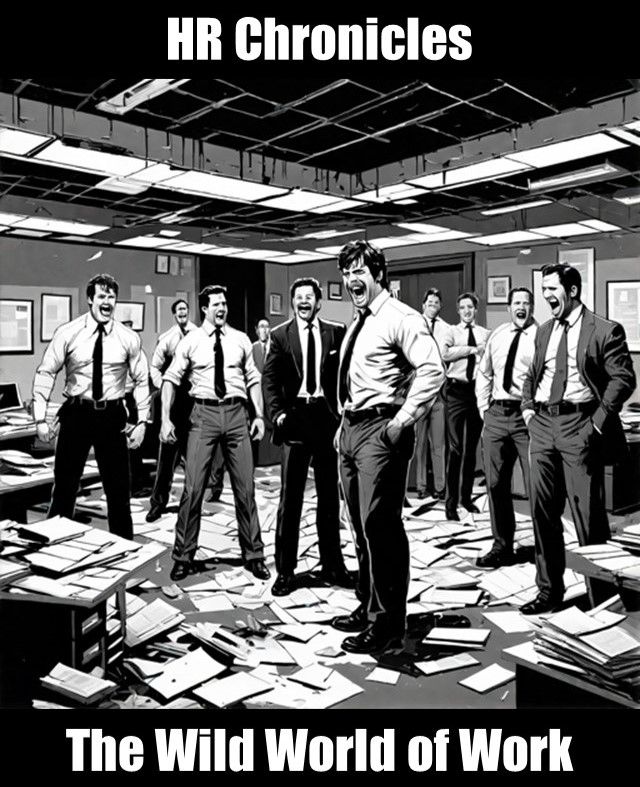
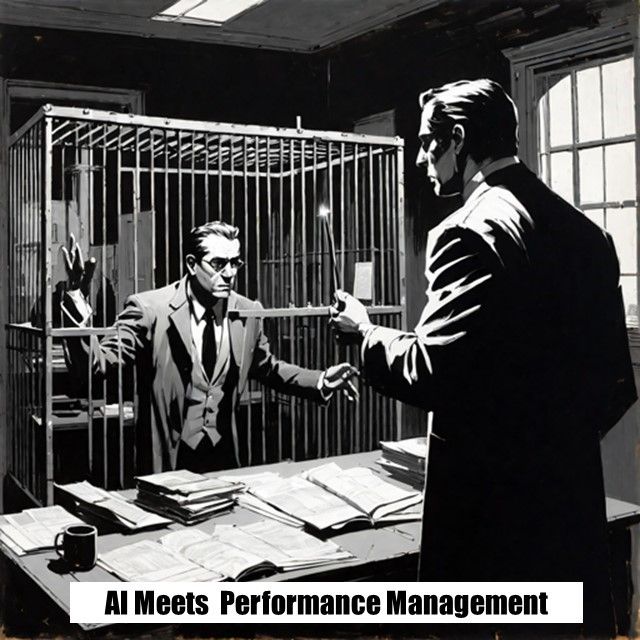
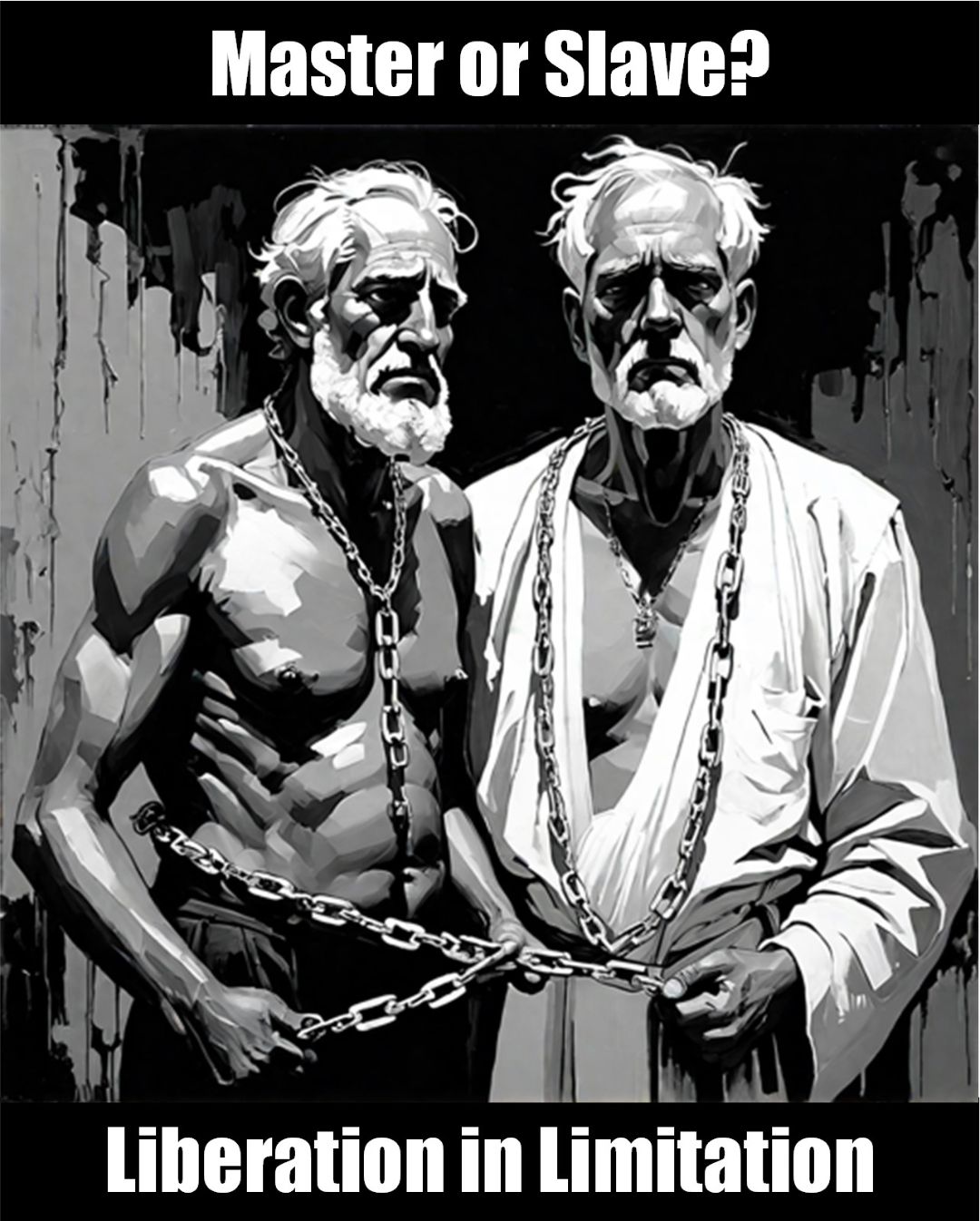
Without Comment.
Right side: The Paradox of Freedom
MAN IS BORN FREE, YET EVERYWHERE IN CHAINS.
Paradoxically, Rousseau's famous dilemma can only be sublated by voluntary submission, not greater control. Here, the republican (and liberal) tradition tragically errs.
Genuine freedom is not attained as subject, but only at a higher level of union, as sovereign. As T.H. Green, following Hegel, proposes, the well-ordered state embodies "objective freedom" because the self-determining principle within humans finds there its perfect expression. It is the freedom rooted in membership, not the isolated independence of the individual, however well defended.
Cross, cross, and there is no cross. (Martin Luther)
#Leadership #GoodOrganisation #transformation #philosophy #liberty #politics
09-04-2024

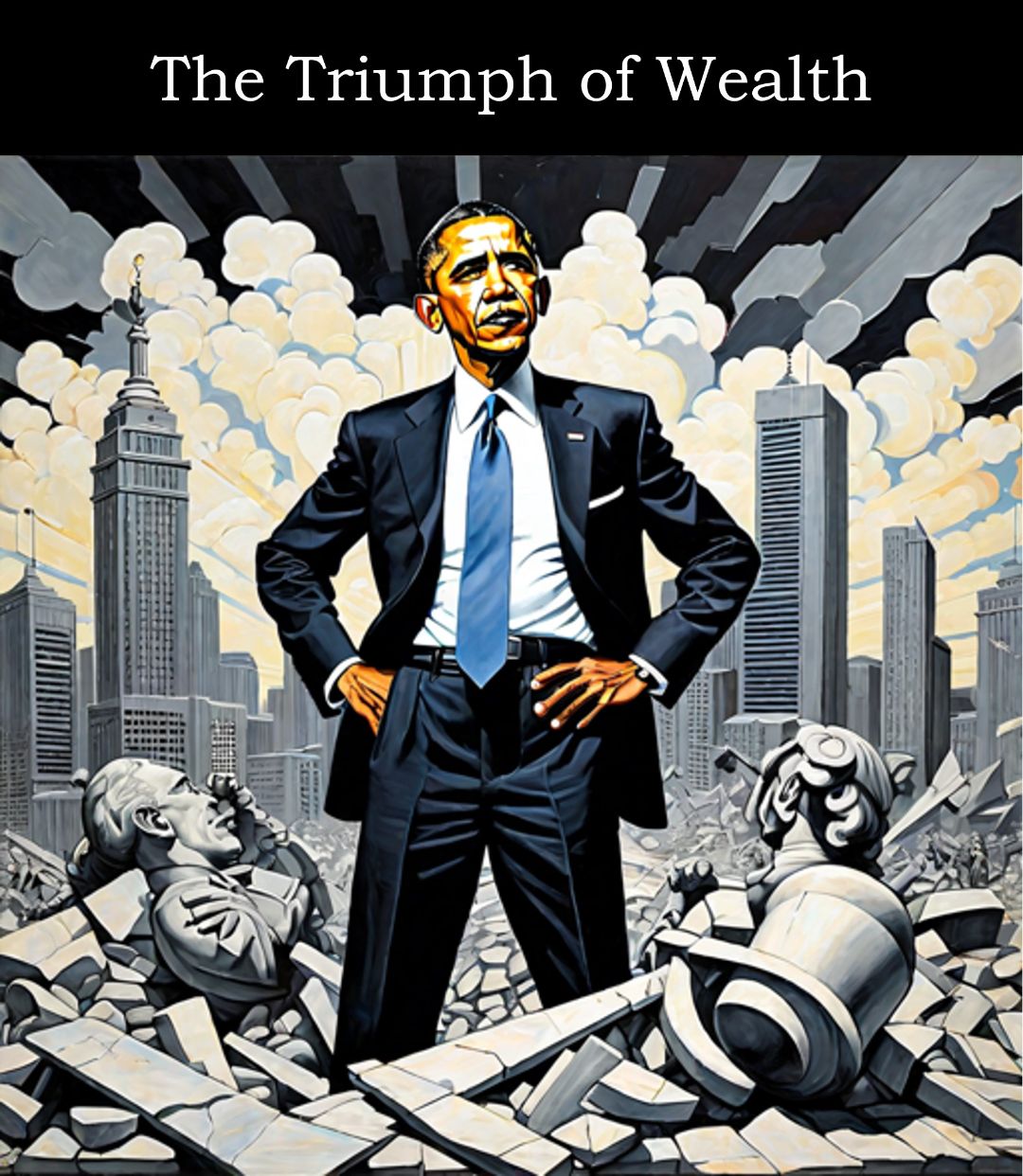

It's unclear if people fully recognize the extent to which Trump's victory is a result of Obama's failure. Not because he ultimately caved to the demands of the few over the needs of the many, but because he undermined a discourse of deeper morality. The hopeful "yes, we can," promising a shared common good, quickly unraveled into a hollow "you can make it if you try," perpetuating the manipulative and dishonest narrative of a self-serving American dream. It's no wonder that disillusioned workers turned to the disruptors. However, with more untrustworthy politicians rising, the deck seems increasingly stacked against them.
#politics #popularism #democracy #transformation
05-04-2024



I AM THE BOSS, BECAUSE THE MONEY IS MINE! Well, not quite.
It's curious how certain individuals conflate ownership of assets with authority over people, often cloaked in the guise of "human capital." However, such a notion of course doesn't withstand scrutiny.
While a shareholder or owner qua creditor may indeed have a conditional control right over their financial contributions or tangible property, any demand for obedience from employees stems exclusively from the corporate entity itself, and any corporation is of course a) sanctioned by legal frameworks and b) constituted of those very employees.
This introduces a nuanced understanding of authority: authority over dedicated financing or property will be governed by creditor arrangements. Authority over tasks is predicated on the pursuit of a shared corporate purpose and legitimized through appropriate corporate policies and governance. However, any assertion of direct dominance over individuals qua human beings faces the staunch opposition from the primacy of liberal constitutions over corporate proceedings.
In essence, financiers may hold creditory rights to their capital, bosses may exert conditional control over operational execution, but neither possess any entitlement to dominate employees as people, regardless of corporate policies or culture. It's essential to recognize that a "boss" assumes their role solely by virtue of corporate statutes, serving as a "public" agent of the common enterprise, rather than exerting authority as a "private" individual over another citizen.
This distinction might be crucial to keep in mind.
#leadership #republicanism #management #csr #freedom #agile #transformation
I AM THE BOSS, BECAUSE THE MONEY IS MINE! Well, not quite.
It's curious how certain individuals conflate ownership of assets with authority over people, often cloaked in the guise of "human capital." However, such a notion of course doesn't withstand scrutiny.
While a shareholder or owner qua creditor may indeed have a conditional control right over their financial contributions or tangible property, any demand for obedience from employees stems exclusively from the corporate entity itself, and any corporation is of course a) sanctioned by legal frameworks and b) constituted of those very employees.
This introduces a nuanced understanding of authority: authority over dedicated financing or property will be governed by creditor arrangements. Authority over tasks is predicated on the pursuit of a shared corporate purpose and legitimized through appropriate corporate policies and governance. However, any assertion of direct dominance over individuals qua human beings faces the staunch opposition from the primacy of liberal constitutions over corporate proceedings.
In essence, financiers may hold creditory rights to their capital, bosses may exert conditional control over operational execution, but neither possess any entitlement to dominate employees as people, regardless of corporate policies or culture. It's essential to recognize that a "boss" assumes their role solely by virtue of corporate statutes, serving as a "public" agent of the common enterprise, rather than exerting authority as a "private" individual over another citizen.
This distinction might be crucial to keep in mind.
#leadership #republicanism #management #csr #freedom #agile #transformation
03-04-2024



#Capitalism and #Democracy: A Happy Marriage?
No, says recent research, challenging the popular notion of a "structural" affinity. The fashionable narrative posits that the (alleged) freedom of choice inherent in modern markets, including the mystical-miraculous eschatology of an invisible hand, mirrors the mechanism behind elective processes in politics, where the populace selects their representatives from a menu of political options.
A comparative and historical analysis of the transition from feudalism to capitalism, along with recent research on modern democracies reverting to autocratic regimes, presents a more nuanced perspective. The Marxist notion that class divisions play a crucial role in social evolution, with social classes intricately linked to modes of production, appears to hold merit. Research confirms that the organization of labor is the primary driver of democracy, with feudal landowners reliant on inexpensive agricultural labor emerging as the central antagonists. It's not hard to understand why in many developing nations, particularly those hindered by international trade agreements that impede the advancement of industrial capabilities, the flourishing of democracy is often stymied.
What may be more surprising is the influence of the affluent bourgeoisie, comprising wealthy merchants or entrepreneurs. Often, these groups opportunistically align themselves with dominant powers of state or clergy, frequently opposing worker mobilization or the advancement of democracy. It is only in scenarios where the threat of unionization or radical socialist parties was minimal that the rich and famous supported the expansion of democratic institutions.
Similarly ambiguous is the role of an affluent middle class - Aristotle would likely be disappointed. Often driven primarily by self-interest, this group would readily advocate for increasing political power for themselves, but not consistently align with workers to promote broader democracy. In many cases, the ultimate success of grassroots demands for enhanced political participation hinged on whether the middle and working classes could unite their interests.
In essence, the trajectory of democracy appears to be intricately tied to social progress rather than solely an outcome of market forces. Surprisingly, capitalism often thrives in environments with limited democratic principles, challenging the notion of a natural synergy between capitalism and democracy. Throughout history, the advancement of popular sovereignty tends to often occur in spite of capitalist interests, rather than being driven by them.
Therefore, it appears that Marx's revolutionary theory is at least partly redeemed. The inherent contradiction within the evolution of capitalism leads to sharper class divisions and the rise of a wealthy bourgeoisie, which, paradoxically, catalyzes the mobilization and organization of workers' interests, ultimately propelling the advancement of democracy.
#Leadership #Transformation
Reference: Capitalist Development & Democracy, Dietrich Rueschemeyer, John D. Stephens et al., University of Chicago Press, 1992
#Capitalism and #Democracy: A Happy Marriage?
No, says recent research, challenging the popular notion of a "structural" affinity. The fashionable narrative posits that the (alleged) freedom of choice inherent in modern markets, including the mystical-miraculous eschatology of an invisible hand, mirrors the mechanism behind elective processes in politics, where the populace selects their representatives from a menu of political options.
A comparative and historical analysis of the transition from feudalism to capitalism, along with recent research on modern democracies reverting to autocratic regimes, presents a more nuanced perspective. The Marxist notion that class divisions play a crucial role in social evolution, with social classes intricately linked to modes of production, appears to hold merit. Research confirms that the organization of labor is the primary driver of democracy, with feudal landowners reliant on inexpensive agricultural labor emerging as the central antagonists. It's not hard to understand why in many developing nations, particularly those hindered by international trade agreements that impede the advancement of industrial capabilities, the flourishing of democracy is often stymied.
What may be more surprising is the influence of the affluent bourgeoisie, comprising wealthy merchants or entrepreneurs. Often, these groups opportunistically align themselves with dominant powers of state or clergy, frequently opposing worker mobilization or the advancement of democracy. It is only in scenarios where the threat of unionization or radical socialist parties was minimal that the rich and famous supported the expansion of democratic institutions.
Similarly ambiguous is the role of an affluent middle class - Aristotle would likely be disappointed. Often driven primarily by self-interest, this group would readily advocate for increasing political power for themselves, but not consistently align with workers to promote broader democracy. In many cases, the ultimate success of grassroots demands for enhanced political participation hinged on whether the middle and working classes could unite their interests.
In essence, the trajectory of democracy appears to be intricately tied to social progress rather than solely an outcome of market forces. Surprisingly, capitalism often thrives in environments with limited democratic principles, challenging the notion of a natural synergy between capitalism and democracy. Throughout history, the advancement of popular sovereignty tends to often occur in spite of capitalist interests, rather than being driven by them.
Therefore, it appears that Marx's revolutionary theory is at least partly redeemed. The inherent contradiction within the evolution of capitalism leads to sharper class divisions and the rise of a wealthy bourgeoisie, which, paradoxically, catalyzes the mobilization and organization of workers' interests, ultimately propelling the advancement of democracy.
#Leadership #Transformation
Reference: Capitalist Development & Democracy, Dietrich Rueschemeyer, John D. Stephens et al., University of Chicago Press, 1992
01-04-2024

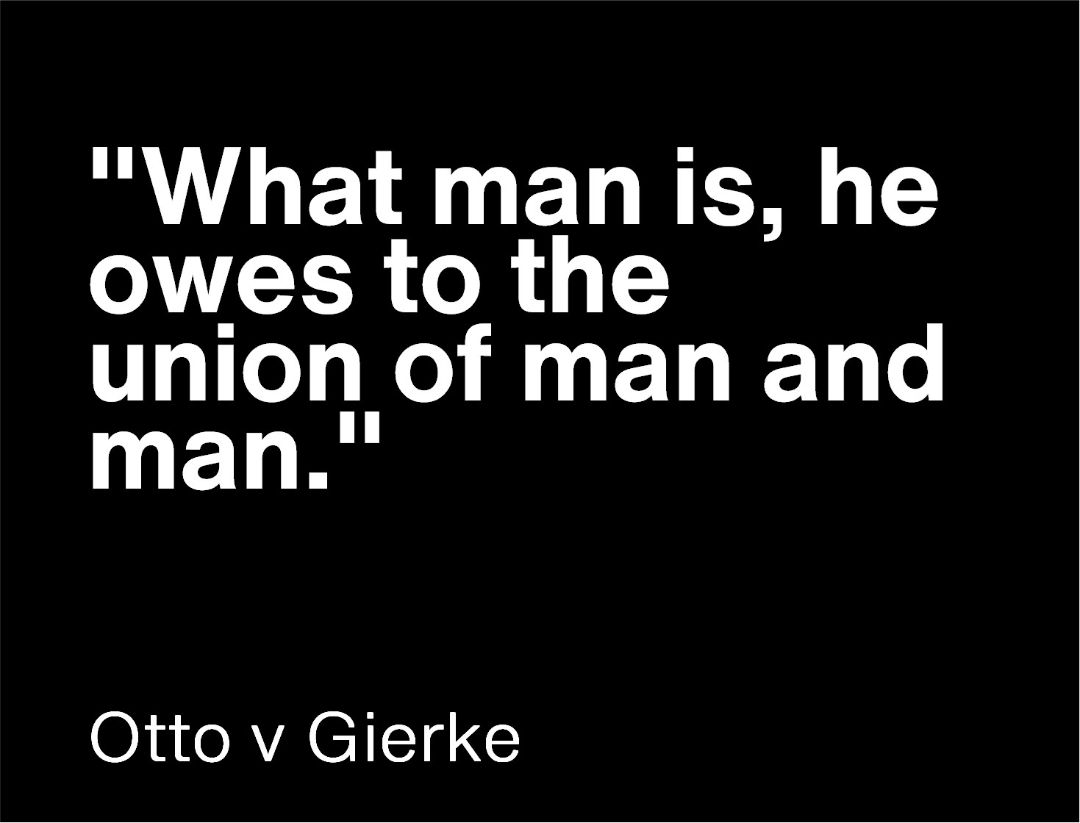

"What man is, he owes to the union of man and man."
Not only knew Otto von Gierke that our social lives are intrinsically communal, and that human excellence is a team sport; he also deeply understood that ontological reductionism rapidly leads to moral poverty. What is at stake is not simply rugged individual freedom, as the American constitution wants to make believe, but moral freedom, or with the words of Immanuel Kant, human dignity.
From the intricate bond between individuals arises a profound responsibility—a duty not only to cherish the connections and organisations that enable our moral and social freedom but also to recognize society as an organic whole, where each member bears an existential responsibility for the welfare of the entire community. Just as the human body relies on the harmonious function of its diverse parts, so too does society flourish when each individual and association acknowledges their role in sustaining the greater whole. In this interconnected web of human fellowship, our actions reverberate beyond ourselves, shaping the fabric of social life. Thus, we must embrace our collective accountability also as leaders in organisations, nurturing a culture of compassion, cooperation, and stewardship that fosters the flourishing of all.
#Leadership #GoodOrganisations
27-03-2024



It has been said that under rampant capitalism for many workers the day's most intelligent activity is driving to and from work.
Are there any alternatives? Join our quest at #businessforhumanity: reinventing capitalism.
#leadership #capitalism #leadershipsociety
20-03-2024

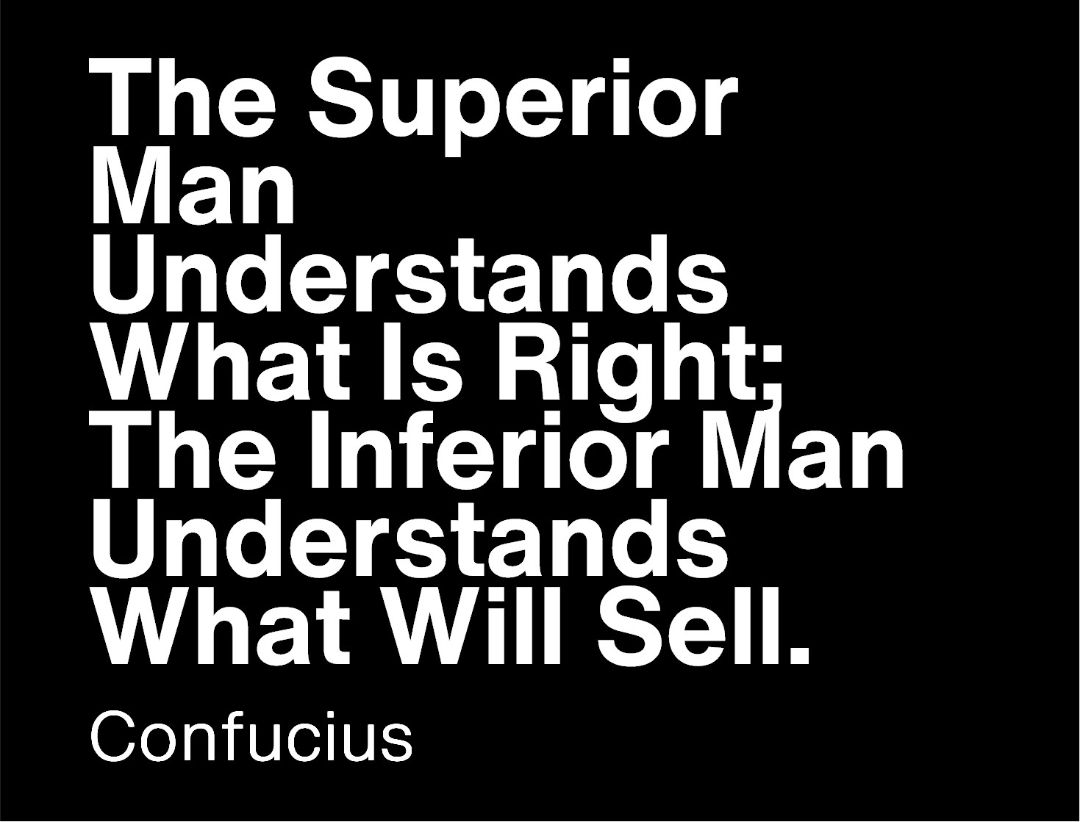

"The superior man cares about what's right, the inferior man cares about making a profit."
When profit is put above righteousness, no amount will suffice.
20-03-2024

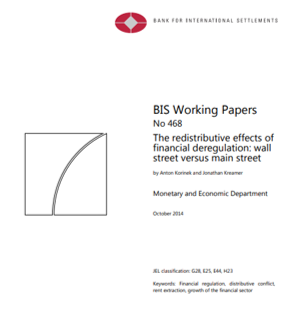

Main Street vs Wall Street: Are Financial Markets Just?
In the world of financial regulation, the discourse frequently centers on economic efficiency. There's a prevailing fantasy that financial markets operate just like any other, and that regulation should aim to make them "free" and competitive. But let's face it: this premise is nonsense. Financial products, along with their buyers and sellers, diverge significantly from the dynamics of regular product markets. Moreover, the overarching role of the financial system is to bolster the growth of the real economy and foster social prosperity, and hence it cannot be judged on transactional activity alone.
So what if we shifted the spotlight from the myth of economic efficiency to social justice and the distributive implications of regulations? Korinek and Kramer present a model that lays bare the stark reality: while the financial sector reaps the rewards of risk-taking with greater expected returns, it also subjects Main Street to the brunt of its fallout.
Picture this: a Pareto frontier where risk-taking by financial giants translates into varying levels of welfare for both Main Street and Wall Street. It's a tale of two worlds pitted against each other, with regulators caught in the middle. They must navigate the treacherous waters of deregulation versus tighter controls, balancing the needs of the financial sector with those of the real economy. It's worth pondering why a significant number of regulators hail from the financial services sector!
But that's not all. Their research uncovers the role of financial innovation, lopsided compensation schemes, banking monopolies, and the ever-looming specter of bailouts. These factors conspire to incentivize greater risk-taking, all while siphoning off surplus to Wall Street, leaving Main Street and the rest of society to bear the burdens of economic instability. So perhaps it's no coincidence that as the world edges closer to recession, financial markets are toasting to record highs!!
Well done, both authors! It's time to shine a light on who truly benefits from financial regulation—and who pays the price.
PDF: https://www.bis.org/publ/work468.pdf
#MainStreetVsWallStreet #FinancialRegulation #EconomicJustice #Leadership #Banking #Transformation #CSR
Main Street vs Wall Street: Are Financial Markets Just?
In the world of financial regulation, the discourse frequently centers on economic efficiency. There's a prevailing fantasy that financial markets operate just like any other, and that regulation should aim to make them "free" and competitive. But let's face it: this premise is nonsense. Financial products, along with their buyers and sellers, diverge significantly from the dynamics of regular product markets. Moreover, the overarching role of the financial system is to bolster the growth of the real economy and foster social prosperity, and hence it cannot be judged on transactional activity alone.
So what if we shifted the spotlight from the myth of economic efficiency to social justice and the distributive implications of regulations? Korinek and Kramer present a model that lays bare the stark reality: while the financial sector reaps the rewards of risk-taking with greater expected returns, it also subjects Main Street to the brunt of its fallout.
Picture this: a Pareto frontier where risk-taking by financial giants translates into varying levels of welfare for both Main Street and Wall Street. It's a tale of two worlds pitted against each other, with regulators caught in the middle. They must navigate the treacherous waters of deregulation versus tighter controls, balancing the needs of the financial sector with those of the real economy. It's worth pondering why a significant number of regulators hail from the financial services sector!
But that's not all. Their research uncovers the role of financial innovation, lopsided compensation schemes, banking monopolies, and the ever-looming specter of bailouts. These factors conspire to incentivize greater risk-taking, all while siphoning off surplus to Wall Street, leaving Main Street and the rest of society to bear the burdens of economic instability. So perhaps it's no coincidence that as the world edges closer to recession, financial markets are toasting to record highs!!
Well done, both authors! It's time to shine a light on who truly benefits from financial regulation—and who pays the price.
PDF: https://www.bis.org/publ/work468.pdf
#MainStreetVsWallStreet #FinancialRegulation #EconomicJustice #Leadership #Banking #Transformation #CSR
29-02-2024



THE MYTH OF MERIT: WHY YOU DON'T DESERVE YOUR PAYCHECK
Have you ever stopped to consider whether your income truly reflects what you merit? The prevailing myth is that if you work hard, you'll reap the rewards. Sadly, that is mostly nonsense.
Firstly, the concept of 'earning' is only partly related to individual effort. Market dynamics heavily influence income distribution and wage levels, often favoring those with greater bargaining power or access to resources. This power asymmetry regularly leads to situations where individuals receive income not commensurate with their efforts, but rather due to their position within the market or network.
Luck also plays a significant role in shaping financial outcomes. Whether it's being in the right place at the right time or benefiting from inherited talents or privileges, luck can significantly impact one's financial standing. Yet, our society conveniently attributes success to heroic individual merit, downplaying the role of chance or path dependency in determining financial rewards.
Thirdly, wages are intrinsically political. As Ha-Joon Chang points out, the single biggest factor determining wage levels is immigration control. Many other factors, including market structure, regulation, patent laws, subsidies, and taxation, also exert significant influence on labor markets.
Beyond market dynamics, ethical considerations come into play when we seek to determine if income is truly 'deserved'. Is it just that some amass wealth through exploitative practices or by capitalizing on systemic inequalities? The moral dimension of earnings transcends market efficiency, extending to encompass broader societal implications. In this context, the distributive and contributive justice of the overarching system of economic and social institutions becomes crucial.
The financial sector is a case in point. Neither are financial markets necessarily economically efficient, nor do profits naturally reflect genuine value creation - conversely, they frequently depend on speculative maneuvers within a complex system. High-frequency trading and other financial practices raise many questions about the true merit of exorbitant incomes. Clearly, there is a disconnect between individual accountability and financial outcomes, as well as social justice.
Essentially, when we recognize the impact of market forces, political context, luck, and ethics, it becomes evident that individual incomes are rarely dependent on only individual merit. Therefore, rather than blindly insisting on our subjective or relative merit, we must ask whether the system as a whole fosters a fair distribution of income within society. It's imperative that we work towards creating a more equitable economic framework together —one that values genuine societal contributions and addresses systemic inequalities.
#ECONOMICS #LEADERSHIP #TRANSFORMATION #POLITICALECONOMY #MANAGEMENT
THE MYTH OF MERIT: WHY YOU DON'T DESERVE YOUR PAYCHECK
Have you ever stopped to consider whether your income truly reflects what you merit? The prevailing myth is that if you work hard, you'll reap the rewards. Sadly, that is mostly nonsense.
Firstly, the concept of 'earning' is only partly related to individual effort. Market dynamics heavily influence income distribution and wage levels, often favoring those with greater bargaining power or access to resources. This power asymmetry regularly leads to situations where individuals receive income not commensurate with their efforts, but rather due to their position within the market or network.
Luck also plays a significant role in shaping financial outcomes. Whether it's being in the right place at the right time or benefiting from inherited talents or privileges, luck can significantly impact one's financial standing. Yet, our society conveniently attributes success to heroic individual merit, downplaying the role of chance or path dependency in determining financial rewards.
Thirdly, wages are intrinsically political. As Ha-Joon Chang points out, the single biggest factor determining wage levels is immigration control. Many other factors, including market structure, regulation, patent laws, subsidies, and taxation, also exert significant influence on labor markets.
Beyond market dynamics, ethical considerations come into play when we seek to determine if income is truly 'deserved'. Is it just that some amass wealth through exploitative practices or by capitalizing on systemic inequalities? The moral dimension of earnings transcends market efficiency, extending to encompass broader societal implications. In this context, the distributive and contributive justice of the overarching system of economic and social institutions becomes crucial.
The financial sector is a case in point. Neither are financial markets necessarily economically efficient, nor do profits naturally reflect genuine value creation - conversely, they frequently depend on speculative maneuvers within a complex system. High-frequency trading and other financial practices raise many questions about the true merit of exorbitant incomes. Clearly, there is a disconnect between individual accountability and financial outcomes, as well as social justice.
Essentially, when we recognize the impact of market forces, political context, luck, and ethics, it becomes evident that individual incomes are rarely dependent on only individual merit. Therefore, rather than blindly insisting on our subjective or relative merit, we must ask whether the system as a whole fosters a fair distribution of income within society. It's imperative that we work towards creating a more equitable economic framework together —one that values genuine societal contributions and addresses systemic inequalities.
#ECONOMICS #LEADERSHIP #TRANSFORMATION #POLITICALECONOMY #MANAGEMENT
26-02-2024

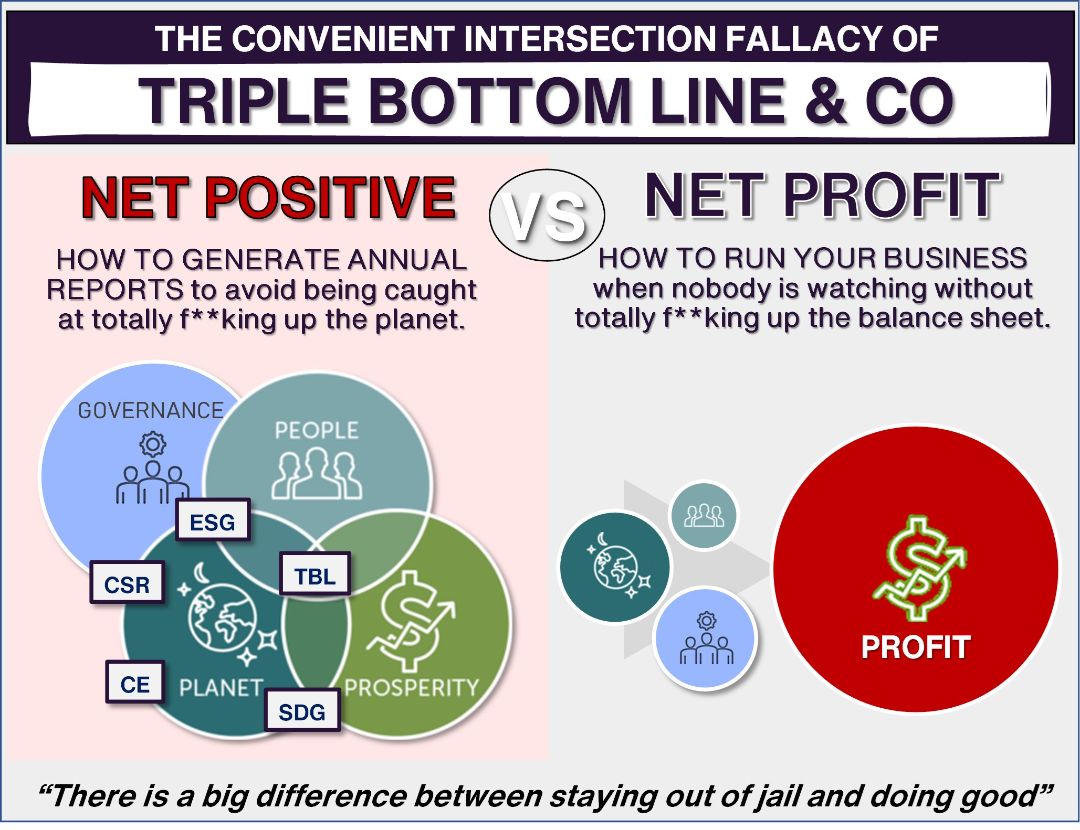

THE CONVENIENT INTERSECTION FALLACY OF TRIPLE BOTTOM LINE & CO
In the relentless pursuit of the fashionable "people-planet-profit" mantra, proponents often turn a blind eye to a fundamental truth: the values and priorities behind these three pillars don't always align neatly like pieces of a children's puzzle.
Despite all the elaborate Venn diagrams and sophisticated geometrical models depicting stakeholders and interests in fanciful combinations, the inconvenient reality remains: ethics often isn't about seeking out the lowest common denominator, or some alleged "balancing", but about making tough, responsible choices.
When the triple circles of people, planet, and profit fail to intersect, we're faced with a crucial decision: do we prioritize what's right and good for humanity and the environment, or do we succumb to the allure of profitability at any cost?
It's time to acknowledge that true leadership demands moral courage to choose integrity over expedience, even when it means forging a path less traveled by the profit-hungry masses.
#leadership #csr #tbl #esg #sdg #goodleadership #management #transformation
THE CONVENIENT INTERSECTION FALLACY OF TRIPLE BOTTOM LINE & CO
In the relentless pursuit of the fashionable "people-planet-profit" mantra, proponents often turn a blind eye to a fundamental truth: the values and priorities behind these three pillars don't always align neatly like pieces of a children's puzzle.
Despite all the elaborate Venn diagrams and sophisticated geometrical models depicting stakeholders and interests in fanciful combinations, the inconvenient reality remains: ethics often isn't about seeking out the lowest common denominator, or some alleged "balancing", but about making tough, responsible choices.
When the triple circles of people, planet, and profit fail to intersect, we're faced with a crucial decision: do we prioritize what's right and good for humanity and the environment, or do we succumb to the allure of profitability at any cost?
It's time to acknowledge that true leadership demands moral courage to choose integrity over expedience, even when it means forging a path less traveled by the profit-hungry masses.
#leadership #csr #tbl #esg #sdg #goodleadership #management #transformation
25-02-2024



The CORRUPTION CURRICULUM: When Business Schools Undermine Societal Value
It's rather comical how the realm of social and management sciences continues to miss the mark when it comes to understanding the intricacies of social phenomena. As Hayek aptly pointed out, the arrogant "pretence of knowledge" clashes with organised complexity, and any causal theorising in management must inevitably meet its match in human agency. The reduction of human intentionality to simplistic notions like "rational choice" only adds insult to injury, offering little substance amidst the chaos.
But what then defines a worthy management theory? Bhaskar suggests that instead of chasing causality, social sciences must prioritize explanation. A good theory is one that explains a set of phenomena better than alternatives. Yet, in the realm of practical sciences like management, mere explanation falls short - the ultimate aim of management is not description, but action. Therefore, as Ghoshal highlights, a theory must be "both right and good". It must also "induce (as far as we can determine) behaviors and actions of people that lead to better economic, social and moral outcomes, for them and for society". In other words, rather than striving to be "value-neutral", good management theories must be responsible and emancipative.
Unfortunately, much of popular management theory taught in business schools across the lands not only fails on epistemological grounds but also wreaks havoc on morality. Concepts like 'principal-agent theory' or Porter's 'theory of strategy' have systematically absolved managers of ethical accountability, while deceptive euphemisms like "fair competition", "efficient markets", "rational choice" or "shareholder value" have manipulated and distorted our moral understanding of economic action.
It's high time for business schools to take notice and reassess their vocabulary and methodology. By persisting in disseminating scientifically flawed and ethically corrupt theories, they not only fail to equip future leaders with effective strategies but also actively contribute to the perpetuation of moral bankruptcy within the economy, thus undermining the very legitimacy of the educational system they are meant to uphold.
#strategy #management #transformation #leadership #businessschools #leadershipdevelopment
The CORRUPTION CURRICULUM: When Business Schools Undermine Societal Value
It's rather comical how the realm of social and management sciences continues to miss the mark when it comes to understanding the intricacies of social phenomena. As Hayek aptly pointed out, the arrogant "pretence of knowledge" clashes with organised complexity, and any causal theorising in management must inevitably meet its match in human agency. The reduction of human intentionality to simplistic notions like "rational choice" only adds insult to injury, offering little substance amidst the chaos.
But what then defines a worthy management theory? Bhaskar suggests that instead of chasing causality, social sciences must prioritize explanation. A good theory is one that explains a set of phenomena better than alternatives. Yet, in the realm of practical sciences like management, mere explanation falls short - the ultimate aim of management is not description, but action. Therefore, as Ghoshal highlights, a theory must be "both right and good". It must also "induce (as far as we can determine) behaviors and actions of people that lead to better economic, social and moral outcomes, for them and for society". In other words, rather than striving to be "value-neutral", good management theories must be responsible and emancipative.
Unfortunately, much of popular management theory taught in business schools across the lands not only fails on epistemological grounds but also wreaks havoc on morality. Concepts like 'principal-agent theory' or Porter's 'theory of strategy' have systematically absolved managers of ethical accountability, while deceptive euphemisms like "fair competition", "efficient markets", "rational choice" or "shareholder value" have manipulated and distorted our moral understanding of economic action.
It's high time for business schools to take notice and reassess their vocabulary and methodology. By persisting in disseminating scientifically flawed and ethically corrupt theories, they not only fail to equip future leaders with effective strategies but also actively contribute to the perpetuation of moral bankruptcy within the economy, thus undermining the very legitimacy of the educational system they are meant to uphold.
#strategy #management #transformation #leadership #businessschools #leadershipdevelopment
25-02-2024



EQUAL ENVY: The Dark Side of Equality?
In the theater of political rhetoric, equality gleams like a beacon of hope, an unquestionable ideal heralding fairness and freedom for all. Yet, lurking beneath its shining veneer is sometimes a more sinister reality: calls for equality often emerge from the shadows of envy. Instead of valuing personal merit, the envious might simply covet what others possess, demanding parity without regard for differences in contribution or the deeper complexities of desert.
In the frenetic obsession to level the playing field, equality can thus become the weapon of choice for those who covet what others have, driven by jealousy and entitlement, rather than genuine concern for justice. While merit is rightfully critiqued where it perpetuates systemic privilege, true justice demands more than a promise of equal opportunities or equal outcomes. It must dare to ask uncomfortable questions about desert, about what individuals truly deserve based on their actions and contributions. Genuine merit extends beyond individual accomplishments, talents or qualifications to encompass the cultivation of virtuous character traits that contribute to the flourishing of society as a whole.
Ultimately, as a society we should take pride in elevating (only) those who are most deserving to positions of influence and leadership, thereby advancing society as a whole. Justice must challenge the notion that everyone should receive the same rewards or positions regardless of effort or merit, recognizing instead that genuine justices demands virtue, in giving each their due according to their deeds as well as their needs. Rather than fostering a sense of entitlement or resentment, we need systems that encourage everybody to strive together for excellence and contribute positively to the common good.
The allure of equality resonates deeply with our sense of fairness, yet when it masks envy, it becomes a deceptive force that breeds discord and fractures our societal fabric. We must embrace the complexities of human worth and societal contribution, advocating for a society - and organisations - where privileges are curbed to allow every person to fully exercise their agency freely, yet at the same time we should nurture the importance of a more holistic understanding of (social) merit. We must ensure that each person receives their rightful rewards and recognition, based on both their character and their commitment to the well-being of their fellow citizen and society at large.
#justice #transformation #meritocracy #freedom #management
EQUAL ENVY: The Dark Side of Equality?
In the theater of political rhetoric, equality gleams like a beacon of hope, an unquestionable ideal heralding fairness and freedom for all. Yet, lurking beneath its shining veneer is sometimes a more sinister reality: calls for equality often emerge from the shadows of envy. Instead of valuing personal merit, the envious might simply covet what others possess, demanding parity without regard for differences in contribution or the deeper complexities of desert.
In the frenetic obsession to level the playing field, equality can thus become the weapon of choice for those who covet what others have, driven by jealousy and entitlement, rather than genuine concern for justice. While merit is rightfully critiqued where it perpetuates systemic privilege, true justice demands more than a promise of equal opportunities or equal outcomes. It must dare to ask uncomfortable questions about desert, about what individuals truly deserve based on their actions and contributions. Genuine merit extends beyond individual accomplishments, talents or qualifications to encompass the cultivation of virtuous character traits that contribute to the flourishing of society as a whole.
Ultimately, as a society we should take pride in elevating (only) those who are most deserving to positions of influence and leadership, thereby advancing society as a whole. Justice must challenge the notion that everyone should receive the same rewards or positions regardless of effort or merit, recognizing instead that genuine justices demands virtue, in giving each their due according to their deeds as well as their needs. Rather than fostering a sense of entitlement or resentment, we need systems that encourage everybody to strive together for excellence and contribute positively to the common good.
The allure of equality resonates deeply with our sense of fairness, yet when it masks envy, it becomes a deceptive force that breeds discord and fractures our societal fabric. We must embrace the complexities of human worth and societal contribution, advocating for a society - and organisations - where privileges are curbed to allow every person to fully exercise their agency freely, yet at the same time we should nurture the importance of a more holistic understanding of (social) merit. We must ensure that each person receives their rightful rewards and recognition, based on both their character and their commitment to the well-being of their fellow citizen and society at large.
#justice #transformation #meritocracy #freedom #management
24-02-2024



Beyond Strategy: Rediscovering the Soul of Business!
If there's one thing that has become the beautiful 'belle' of the business ball, it's got to be strategy. Just mention a strategy meeting, and suddenly everyone and their cousin wants to get in. And who can blame them? Strategy has always been hailed as the golden ticket to success. It's the guiding light through the maze of markets, competition, and constant change – the undisputed ruler of the management textbooks!
As the concept of strategy has evolved over the last century, it's undergone a fascinating transformation – but at its core, its focus remains unchanged. From its military roots in the early 20th century, to the corporate planning and market positioning strategies of the mid-20th century, and now to the modern emphasis on agility, innovation, and disruption: it's always been about winning that competitive edge in the market and coming out on top to maximise shareholder value.
However, as we delve deeper into the broader impact of corporate conduct on society, it's becoming increasingly evident that the relentless pursuit of strategic advantage has its downsides. We're facing ethical quandaries left and right, from exploitative labour practices and environmental harm to corporate greed and social inequality. The narrow focus on strategy has created a gap between business objectives and the societal well-being, fuelling a culture of short-term thinking and self-serving behaviour that jeopardizes the long-term sustainability of organizations and communities.
I contend that the time has come to shift our attention from the narrow focus of business strategy to a deeper exploration of the essence of business. The concept of business essence encapsulates the core purpose and identity of an organization, reflecting its values, principles, and contribution to society. Rooted in virtue ethics, business essence emphasizes the cultivation of virtuous character and the pursuit of the common good, rather than mere profit-seeking or competitive dominance.
Indeed, a focus on essence does not negate the importance of strategic thinking. Strategic planning remains crucial for navigating the complexities of the business environment and to develop plans and actions designed to achieve specific goals and objectives. However, a return to the essence of business introduces a path towards greater responsibility for the emergent moral climate and character of the organisation. It emphasizes not only the 'what' of strategic goals but also the 'how', and ultimately the ‘who’. Instead of solely focusing on outcomes, it emphasizes our journey of growth and development to become the best we can be.
Practical examples abound of organizations that have embraced an ethos of business essence. Companies like Patagonia, known for their commitment to environmental sustainability and social responsibility, demonstrate that profitability and purpose can go hand in hand. Similarly, initiatives like the B Corp movement advocate for a more holistic approach to business that prioritizes ethical considerations alongside financial performance. By aligning strategic plans with virtues such as justice, integrity, temperance and compassion, organizations can ensure that their actions contribute positively to the well-being of all stakeholders, including employees, customers, suppliers, and society at large. Only then, paraphrasing Sumantra Ghoshal, can the tired and fruitless debate between strategy as a top-down process of heroic intentionality versus strategy as bottom-up explorations dissolve into a new view of strategy as a process of guided and deliberate virtuous development.
In conclusion, while the allure of the strategy ball is undeniable, it often leaves us with a lingering headache. While business strategy remains important, it may have become too shallow to tackle today's complex challenges. Integrating virtuous principles and aligning objectives with the common good can be a simple step to pave the way for a more responsible and sustainable future, both for business and society at large.
Beyond Strategy: Rediscovering the Soul of Business!
If there's one thing that's become the beautiful belle of the business ball, it's got to be strategy. Just mention a strategy meeting, and suddenly everyone and their cousin wants to get in. And who can blame them? Strategy has always been hailed as the golden ticket to success. It's the guiding light through the maze of markets, competition, and constant change – the undisputed ruler of the management textbooks.
As the concept of strategy has evolved over the last century, it's undergone a fascinating transformation – but at its core, its focus remains unchanged. From its military roots in the early 20th century, to the corporate planning and market positioning strategies of the mid-20th century, and now to the modern emphasis on agility, innovation, and disruption: it's always been about winning that competitive edge in the market and coming out on top to maximise shareholder value.
However, as we delve deeper into the broader impact of corporate conduct on society, it's becoming increasingly evident that the relentless pursuit of strategic advantage has its downsides. We're facing ethical quandaries left and right, from exploitative labour practices and environmental harm to corporate greed and social inequality. The narrow focus on strategy has created a gap between business objectives and the societal well-being, fuelling a culture of short-term thinking and self-serving behaviour that jeopardizes the long-term sustainability of organizations and communities.
I contend that the time has come to shift our attention from the narrow focus of business strategy to a deeper exploration of the essence of business. The concept of business essence encapsulates the core purpose and identity of an organization, reflecting its values, principles, and contribution to society. Rooted in virtue ethics, business essence emphasizes the cultivation of virtuous character and the pursuit of the common good, rather than mere profit-seeking or competitive dominance.
Indeed, a focus on essence does not negate the importance of strategic thinking. Strategic planning remains crucial for navigating the complexities of the business environment and to develop plans and actions designed to achieve specific goals and objectives. However, a return to the essence of business introduces a path towards greater responsibility for the emergent moral climate and character of the organisation. It emphasizes not only the 'what' of strategic goals but also the 'how', and ultimately the ‘who’. Instead of solely focusing on outcomes, it emphasizes our journey of growth and development to become the best we can be.
Practical examples abound of organizations that have embraced an ethos of business essence. Companies like Patagonia, known for their commitment to environmental sustainability and social responsibility, demonstrate that profitability and purpose can go hand in hand. Similarly, initiatives like the B Corp movement advocate for a more holistic approach to business that prioritizes ethical considerations alongside financial performance. By aligning strategic plans with virtues such as justice, integrity, temperance and compassion, organizations can ensure that their actions contribute positively to the well-being of all stakeholders, including employees, customers, suppliers, and society at large. Only then, paraphrasing Sumantra Ghoshal, can the tired and fruitless debate between strategy as a top-down process of heroic intentionality versus strategy as bottom-up explorations dissolve into a new view of strategy as a process of guided and deliberate virtuous development.
In conclusion, while the allure of the strategy ball is undeniable, it often leaves us with a lingering headache. While business strategy remains important, it may have become too shallow to tackle today's complex challenges. Integrating virtuous principles and aligning objectives with the common good can be a simple step to pave the way for a more responsible and sustainable future, both for business and society at large.
22-02-2024

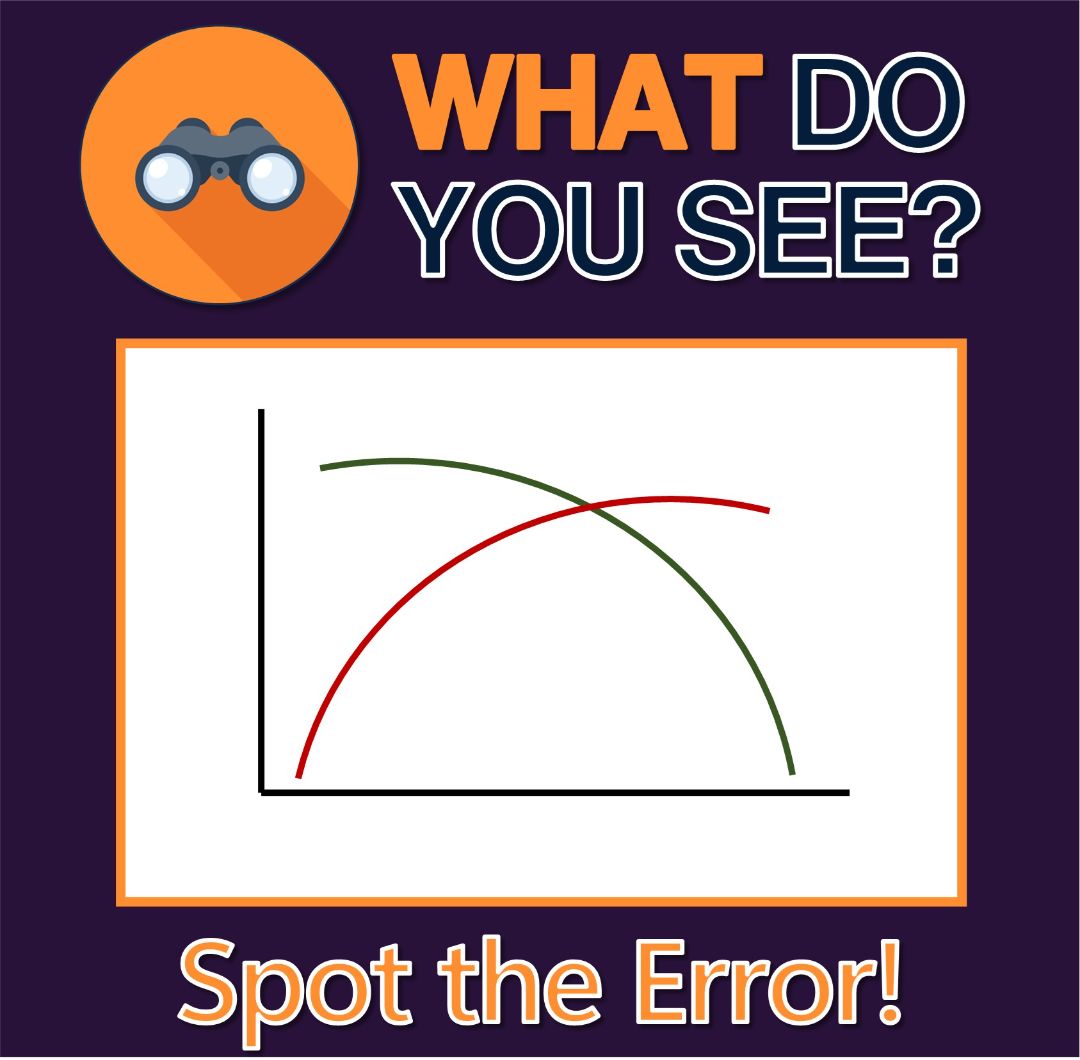

WHAT DO YOU SEE?
The answer is of course straightforward. If you are a normal person, you see two meaningless curves. If instead you happen to be an economist, you see a MARKET. In classical economics, markets are represented by fictitious mathematical models where demand and supply curves intersect based on price, creating magically "efficient" equilibria.
And now, do you really want me to delve into what's amiss with neoclassical economics? 😉
PS: Why does it matter? Well, as Keynes once pointed out 'practical men, who believe themselves to be quite exempt from any intellectual influences, are usually the slaves of some defunct economist’. If we want to transform our economy, we'd better start from a sound understanding of its premises.
#economics #management #leadership #goodorganisations #transformation
WHAT DO YOU SEE?
The answer is of course straightforward. If you are a normal person, you see two meaningless curves. If instead you happen to be an economist, you see a MARKET. In classical economics, markets are represented by fictitious mathematical models where demand and supply curves intersect based on price, creating magically "efficient" equilibria.
And now, do you really want me to delve into what's amiss with neoclassical economics? 😉
#economics #management #leadership #goodorganisations #transformation
16-02-2024

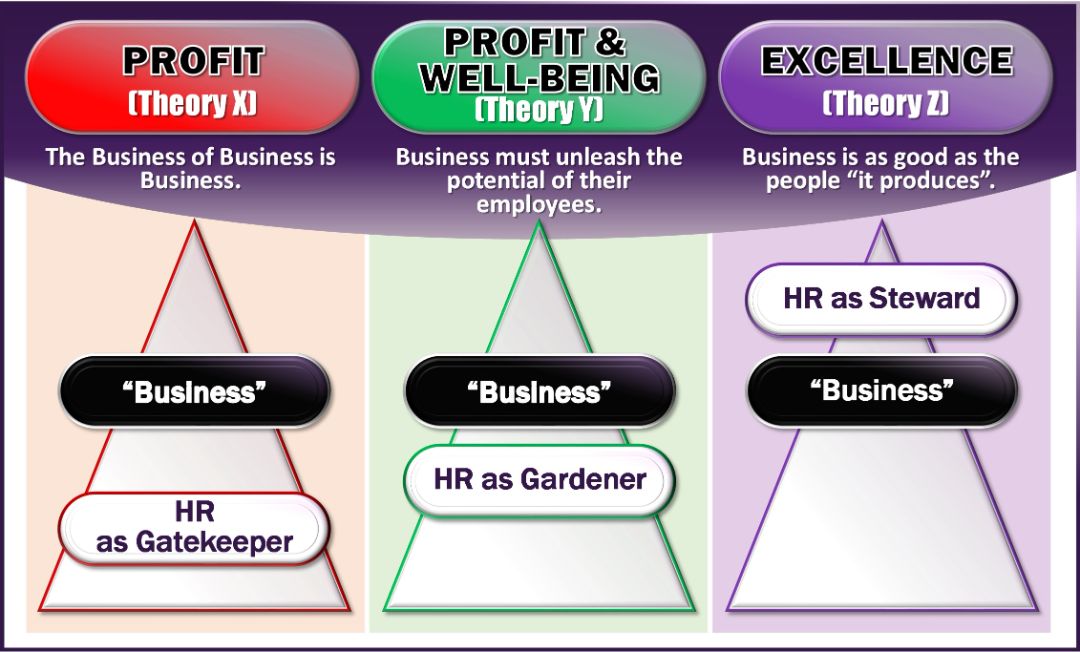

Since I started my career several decades ago, the story has always been: #HR MUST GET CLOSER TO THE BUSINESS.
As a result, HR has often become instrumentalised. As frontend for legal, henchman of finance, or backoffice for transactions.
Maybe it’s time now for the business to get closer to HR. At the end of the day, businesses and business leaders are not only accountable to customers and shareholders, but must also serve employees and the rest of society.
Always remember: we don’t become leaders, because we rule. We become leaders, because we truly care.
#leadership #transformation #goodorganisations #csr
Since I started my career several decades ago, the story has always been: #HR MUST GET CLOSER TO THE BUSINESS.
As a result, HR has often become instrumentalised. As frontend for legal, henchman of finance, or backoffice for transactions.
Maybe it’s time now for the business to get closer to HR. At the end of the day, businesses and business leaders are not only accountable to customers and shareholders, but must also serve employees and the rest of society.
Always remember: we don’t become leaders, because we rule. We become leaders, because we truly care.
#leadership #transformation #goodorganisations #csr
16-02-2024

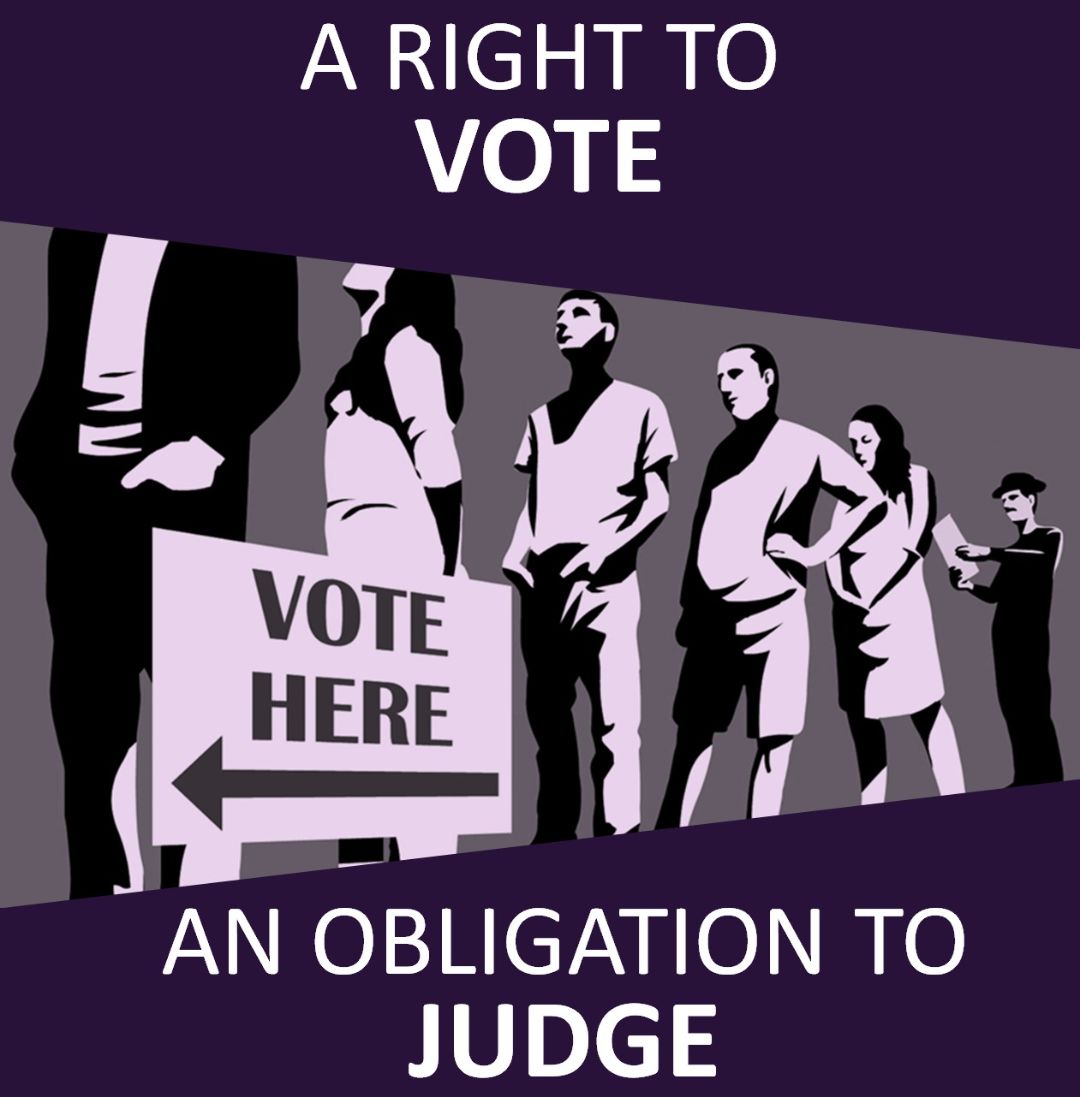

THE PARADOX OF #DEMOCRACY: Your Vote Isn't Just About You!
Amidst the frequent clamour of those who champion Democracy as the pinnacle of governance, do people truly grasp that the right to vote transcends mere personal interest?
It doesn’t take a genius to figure out that if everyone prioritizes their self-interest without regard for the common good, any Democracy must fall prey to the tyranny of an unintelligent majority. If citizens don’t care about their neighbours, there's no assurance at all that a democratic nation would ever be just.
This is precisely what the founding thinkers of Democracy sought to prevent. As Rousseau emphasized, the purpose of deliberating over proposed laws isn't simply to gauge approval or rejection but to ensure they support the “general will” of all. John Stuart Mill makes it even clearer: “the citizen’s vote is not a thing in which he has an option; it has not more to do with his personal wishes than the verdict of a juryman. It is strictly a matter of duty; he is bound to give it according to his best and most conscientious opinion of the public good.”
Elaborating further in his treatise On Liberty, John Locke emphasizes that the exercise of freedom in a Democracy, including the right to vote, hinges exclusively upon the maturity and integrity of the citizen. Within any Democracy, the freedom to vote carries with it a profound obligation: to engage in actions that serve the collective interests of society to the fullest extent of our capabilities. Without fulfilling this responsibility, representative Democracy risks devolving into a mere sham behind which lurk the shadows of elective mediocracy.
This essential lesson seems to have escaped our modern society: freedom isn't just a privilege to be taken for granted, nor is it merely a right to choose. It entails the solemn obligation to fulfill our duties to all.
#LEADERSHIP #transformation #responsibility #csr #goodorganisations
THE PARADOX OF #DEMOCRACY: Your Vote Isn't Just About You!
Amidst the frequent clamour of those who champion Democracy as the pinnacle of governance, do people truly grasp that the right to vote transcends mere personal interest?
It doesn’t take a genius to figure out that if everyone prioritizes their self-interest without regard for the common good, any Democracy must fall prey to the tyranny of an unintelligent majority. If citizens don’t care about their neighbours, there's no assurance at all that a democratic nation would ever be just.
This is precisely what the founding thinkers of Democracy sought to prevent. As Rousseau emphasized, the purpose of deliberating over proposed laws isn't simply to gauge approval or rejection but to ensure they support the “general will” of all. John Stuart Mill makes it even clearer: “the citizen’s vote is not a thing in which he has an option; it has not more to do with his personal wishes than the verdict of a juryman. It is strictly a matter of duty; he is bound to give it according to his best and most conscientious opinion of the public good.”
Elaborating further in his treatise On Liberty, John Locke emphasizes that the exercise of freedom in a Democracy, including the right to vote, hinges exclusively upon the maturity and integrity of the citizen. Within any Democracy, the freedom to vote carries with it a profound obligation: to engage in actions that serve the collective interests of society to the fullest extent of our capabilities. Without fulfilling this responsibility, representative Democracy risks devolving into a mere sham behind which lurk the shadows of elective mediocracy.
This essential lesson seems to have escaped our modern society: freedom isn't just a privilege to be taken for granted, nor is it merely a right to choose. It entails the solemn obligation to fulfill our duties to all.
#LEADERSHIP #transformation #responsibility #csr #goodorganisations
15-02-2024

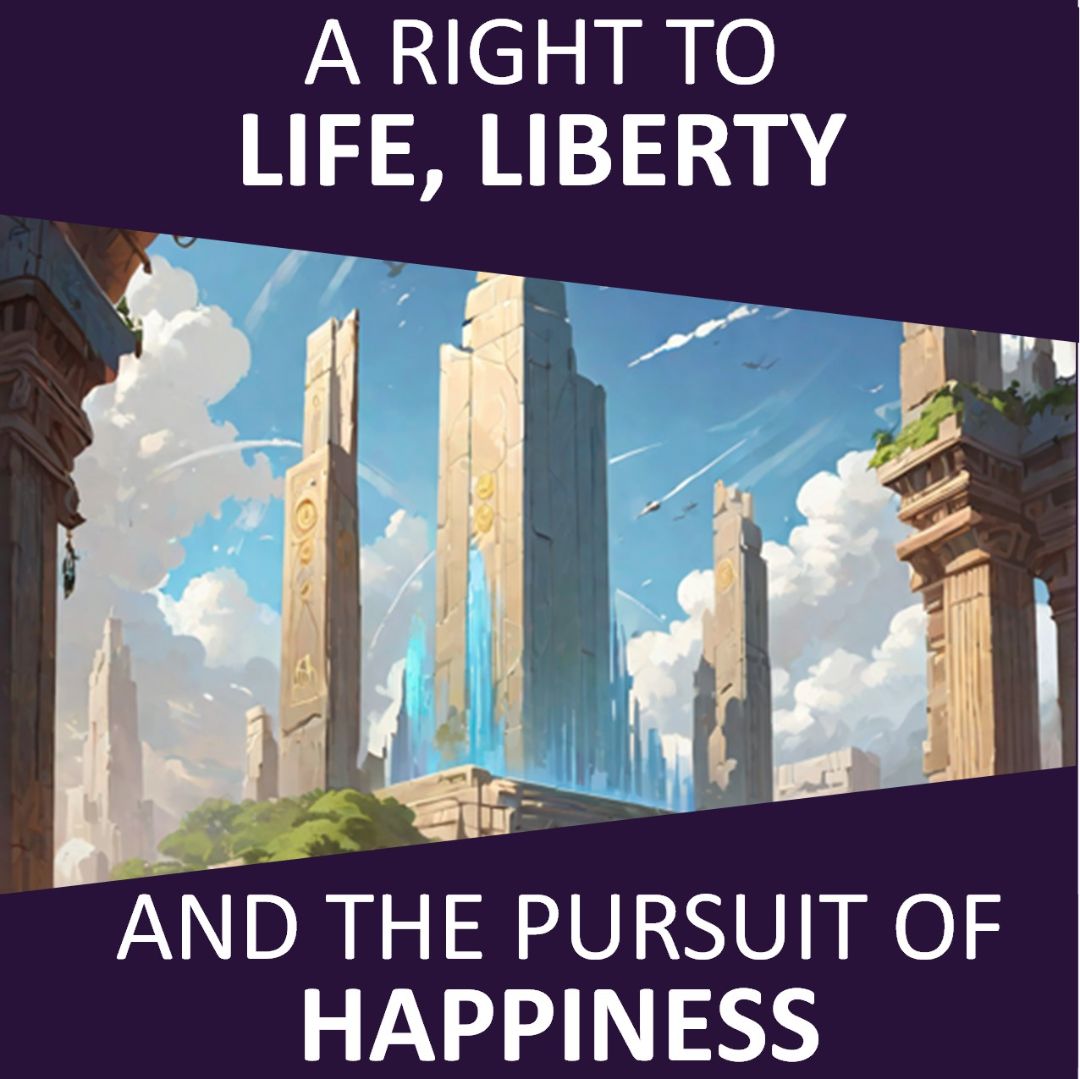

The Myth of Universal Rights: Democracy's Inconvenient Truth
In contemporary discourse, we frequently invoke various human or natural rights, from freedom to property to happiness, extending these even to rights of rivers or forests. Yet, few people recognize that such claims are inherently highly problematic.
Indeed, many reputable scholars suggest that abstract rights amount to little more than legal fiction, as famously articulated by Bentham who called such rights "nonsense on stilts." According to Bentham, rights are merely byproducts of the law, lacking any independent existence: “Rights is with me the child of law. A natural right is a son that never had a father”. This argument gains traction when we consider the axiomatic employment of rights in political dialogue. Suppose we ever pressed someone to identify the exact origin of an alleged right. Short of accusing us to be sick or confused, there could never be a satisfactory answer.
So how were “rights” legitimised in political theory? Surprisingly, at least for professed non-believers, the notion of rights often traces back to religious foundations. Locke, for instance, grounded the right to property in divine will, contending that God intended human survival on Earth. That said, Locke stipulated two important provisos: firstly, we must not take more than we can make use of (no wastage), and, secondly, we must leave “enough and as good” for others (equitable distribution) – conditions that were as it appears very quickly forgotten.
In "On Liberty," John Stuart Mill proposes a different approach to legitimizing rights. He first invokes the "no harm principle" whereby “the only purpose for which power can be rightfully exercised over any member of a civilised community, against his will, is to prevent harm to others. His own good, either physical or moral, is not a sufficient warrant.” He then clarifies that this principle can only ever apply to people in the “maturity of their faculties”, linking freedom to personal development. Why? Because freedom needs a reason to be free: in Mill's mind, freedom can only be legitimised as a means for personal and moral improvement. Utilizing utilitarianism, he finally posits that the ultimate ethical goal of moral progress is the 'greatest happiness for the greatest number of people', and therefore a system of rights must be appropriately designed to maximise general happiness.
It is evident that this ideal is fraught with challenges. It remains unclear why 'happiness for the greatest number' should be society's paramount goal, how to measure or operationalize it, and whether specific rights truly optimize happiness. Additionally, the pursuit of utility often necessitates curtailing individual freedom, contradicting the "no harm principle."
In essence, the concept of "rights" embodies a myriad of complexities, frequently shaped by societal trends and vested interests rather than genuine discourse. Regrettably, our contemporary obsession with rights often lacks the “maturity of our faculties”.
Moreover, the genuine legitimacy of any right even where and when it might apply hinges upon our collective commitment to advancing societal well-being. This underscores a striking irony in many discussions surrounding absolute individual rights – the very foundation of democratic institutions, including any notion of right, rests upon the collective civic virtue of its citizens. In the absence of earnest care for our neighbours and a sincere commitment to the common good, not only is democracy bound to flounder, but any assertion of individual rights must remain devoid of substance.
The Myth of Universal Rights: Democracy's Inconvenient Truth
In contemporary discourse, we frequently invoke various human or natural rights, from freedom to property to happiness, extending these even to rights of rivers or forests. Yet, few people recognize that such claims are inherently highly problematic.
Indeed, many reputable scholars suggest that abstract rights amount to little more than legal fiction, as famously articulated by Bentham who called such rights "nonsense on stilts." According to Bentham, rights are merely byproducts of the law, lacking any independent existence: “Rights is with me the child of law. A natural right is a son that never had a father”. This argument gains traction when we consider the axiomatic employment of rights in political dialogue. Suppose we ever pressed someone to identify the exact origin of an alleged right. Short of accusing us to be sick or confused, there could never be a satisfactory answer.
So how were “rights” legitimised in political theory? Surprisingly, at least for professed non-believers, the notion of rights often traces back to religious foundations. Locke, for instance, grounded the right to property in divine will, contending that God intended human survival on Earth. That said, Locke stipulated two important provisos: firstly, we must not take more than we can make use of (no wastage), and, secondly, we must leave “enough and as good” for others (equitable distribution) – conditions that were as it appears very quickly forgotten.
In "On Liberty," John Stuart Mill proposes a different approach to legitimizing rights. He first invokes the "no harm principle" whereby “the only purpose for which power can be rightfully exercised over any member of a civilised community, against his will, is to prevent harm to others. His own good, either physical or moral, is not a sufficient warrant.” He then clarifies that this principle can only ever apply to people in the “maturity of their faculties”, linking freedom to personal development. Why? Because freedom needs a reason to be free: in Mill's mind, freedom can only be legitimised as a means for personal and moral improvement. Utilizing utilitarianism, he finally posits that the ultimate ethical goal of moral progress is the 'greatest happiness for the greatest number of people', and therefore a system of rights must be appropriately designed to maximise general happiness.
It is evident that this ideal is fraught with challenges. It remains unclear why 'happiness for the greatest number' should be society's paramount goal, how to measure or operationalize it, and whether specific rights truly optimize happiness. Additionally, the pursuit of utility often necessitates curtailing individual freedom, contradicting the "no harm principle."
In essence, the concept of "rights" embodies a myriad of complexities, frequently shaped by societal trends and vested interests rather than genuine discourse. Regrettably, our contemporary obsession with rights often lacks the “maturity of our faculties”.
Moreover, the genuine legitimacy of any right even where and when it might apply hinges upon our collective commitment to advancing societal well-being. This underscores a striking irony in many discussions surrounding absolute individual rights – the very foundation of democratic institutions, including any notion of right, rests upon the collective civic virtue of its citizens. In the absence of earnest care for our neighbours and a sincere commitment to the common good, not only is democracy bound to flounder, but any assertion of individual rights must remain devoid of substance.
13-02-2024

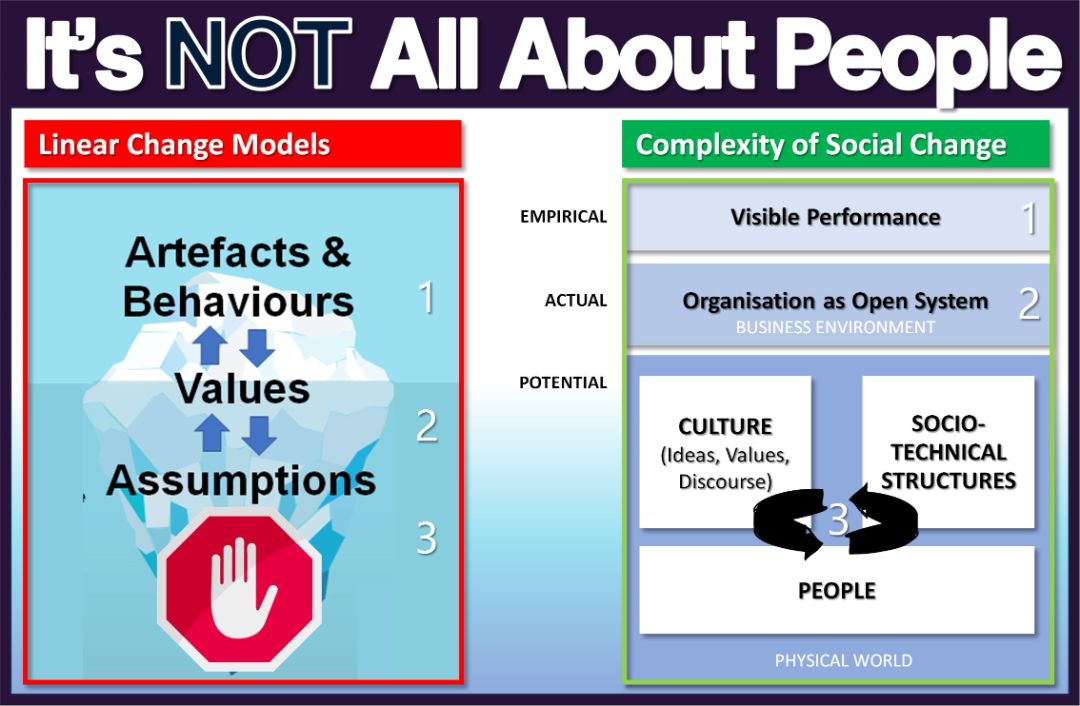

It's quite uncanny. Many people continue to suggest that BUSINESS CHANGE IS ALL ABOUT PEOPLE. But it isn't.
The "American Dream" narrative often conveniently oversimplifies the complexities of success and failure: if people are successful, it's their individual merit; if they fail, it's their fault. Yet, while it's very tempting to attribute business success and transformation solely to aggregate individual prowess, the truth is of course far more nuanced. 🌐
In our complex, interconnected organisational world, performance is shaped not only by personal motivation, competence and effort but also by socio-technical structures, values and incentives, and community dynamics - and the intricate interplay with an open business ecosystem. To truly understand and enhance organizational performance, we must look beyond the surface and consider the intricate web of generative mechanisms at play. 🕸️
By the same token, it seems we frequently want to believe that an increase in environmental ambiguity and complexity can be countered simply by more individual autonomy. But there is a lot to support the view that in the end an increase in personal agency must be combined with effective institutional and relational holding structures to transform organisational behaviour and performance holistically.
It's time to shift the conversation from simplistic, individualistic and linear change models to a more systemic view that recognizes the complex nature of organizational behaviour. 🌱
#BeyondIndividualism #OrganizationalDynamics #ContextualIntelligence #Transformation #Leadership
It's quite uncanny. Many people continue to suggest that BUSINESS CHANGE IS ALL ABOUT PEOPLE. But it isn't.
The "American Dream" narrative often conveniently oversimplifies the complexities of success and failure: if people are successful, it's their individual merit; if they fail, it's their fault. Yet, while it's very tempting to attribute business success and transformation solely to aggregate individual prowess, the truth is of course far more nuanced. 🌐
In our complex, interconnected organisational world, performance is shaped not only by personal motivation, competence and effort but also by socio-technical structures, values and incentives, and community dynamics - and the intricate interplay with an open business ecosystem. To truly understand and enhance organizational performance, we must look beyond the surface and consider the intricate web of influences at play. 🕸️
By the same token, it seems we frequently want to believe that an increase in environmental ambiguity and complexity can be countered simply by more individual autonomy. But there is a lot to support the view that in the end an increase in personal agency must be combined with effective institutional and relational holding structures to transform organisational behaviour and performance holistically.
It's time to shift the conversation from simplistic, individualistic and linear change models to a more systemic view that recognizes the complex nature of organizational behaviour. 🌱
#BeyondIndividualism #OrganizationalDynamics #ContextualIntelligence #Transformation #Leadership
12-02-2024

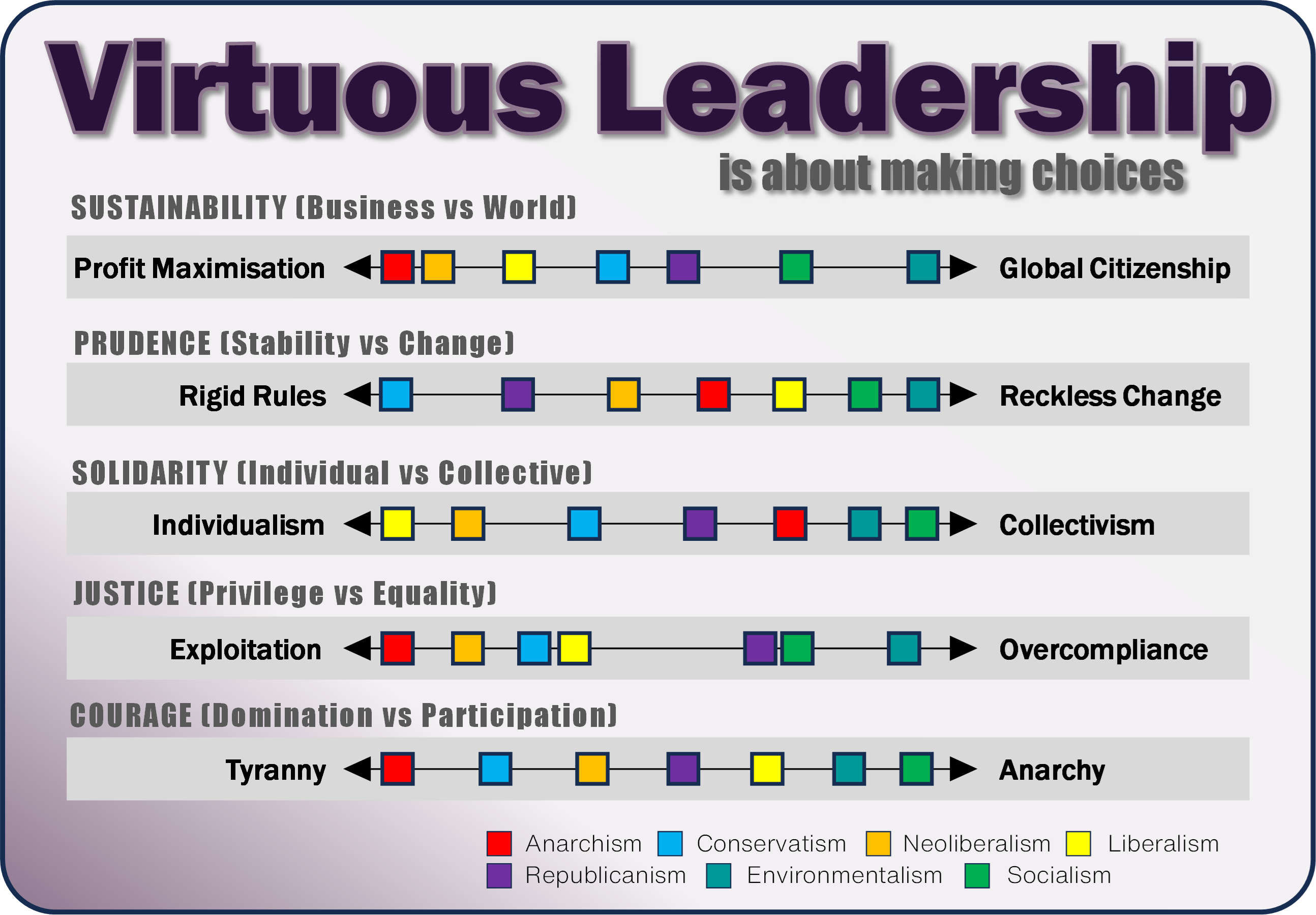

VIRTUOUS LEADERSHIP IS... ABOUT MAKING CHOICES
In the perilous swamp of leadership theories, it's common to mystify and oversimplify the concept of corporate leadership, often attributing success or failure to individual traits or tactics. However, a deeper examination reveals that business leadership postures are often intricately linked to broader ideological frameworks.
By examining prevalent ideologies, such as liberalism, socialism, conservatism, and environmentalism, we can discern a spectrum of common "civic" virtues that underpin all corporate approaches to leadership. Ideologies implicitly position themselves along a range of extremes related to these key virtues: e.g., sustainability and compassion (balancing business interests with global welfare), prudence (navigating stability versus embracing change), solidarity (balancing individual autonomy with collective well-being), justice (addressing privilege versus promoting equality), and courage (choosing between domination and participatory leadership).
Virtuous leadership, therefore, transcends mere tactical decisions or individual attributes. It entails the capacity to make wise contingent choices across a set of corporate virtues, navigating the complex interplay between business imperatives, societal needs, and ethical considerations.
By embracing a more nuanced perspective, leaders can cultivate a more responsible approach to decision-making, making sure that key decisions aligns closely with the values and virtues of their organization and business as a whole, thus contributing to sustainable, ethical, and socially responsible outcomes.
#leadership #leadershipdevelopment #transformation #philosophy #business #goodorganisations
VIRTUOUS LEADERSHIP IS... ABOUT MAKING CHOICES
In the perilous swamp of leadership theories, it's common to mystify and oversimplify the concept of corporate leadership, often attributing success or failure to individual traits or tactics. However, a deeper examination reveals that business leadership postures are often intricately linked to broader ideological frameworks.
By examining prevalent ideologies, such as liberalism, socialism, conservatism, and environmentalism, we can discern a spectrum of common virtues that underpin all corporate approaches to leadership. Ideologies implicitly position themselves along a range of extremes related to these key virtues: sustainability (balancing business interests with global welfare), prudence (navigating stability versus embracing change), solidarity (balancing individual autonomy with collective well-being), justice (addressing privilege versus promoting equality), and courage (choosing between domination and participatory leadership).
Virtuous leadership, therefore, transcends mere tactical decisions or individual attributes. It entails the capacity to make wise contingent choices across a set of corporate virtues, navigating the complex interplay between business imperatives, societal needs, and ethical considerations.
By embracing a more nuanced perspective, leaders can cultivate a more responsible approach to decision-making, making sure that key decisions aligns closely with the values and virtues of their organization and business as a whole, thus contributing to sustainable, ethical, and socially responsible outcomes.
#leadership #leadershipdevelopment #transformation #philosophy #business #goodorganisations
10-02-2024

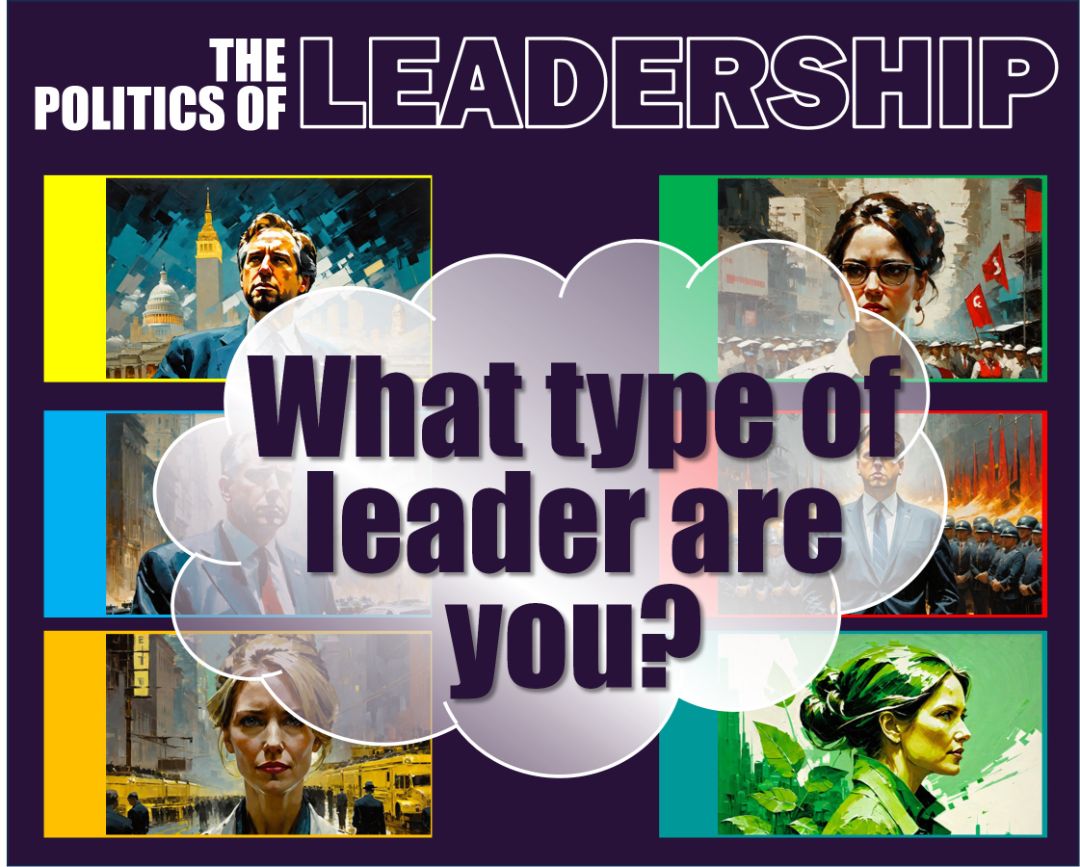

WHAT'S YOUR #LEADERSHIP COLOUR?! TAKE THE QUIZ! ✨
In the labyrinth of modern leadership theories, it's easy to get lost. But beware: amidst the noise and confusion, there might lie a deeper rift—a clash of values that shapes our very understanding of leadership.
Are you leading with liberal innovation, conservative stability, socialist equality, libertarian autonomy, authoritarian control, or environmental sustainability in mind? 🌱
💡YELLOW (Liberal Innovation): Foster change and creativity, championing individual freedom and market dynamics. Leadership emphasizes adaptability, continuous improvement, and embracing innovation.
💡BLUE (Conservative Stability): Uphold tradition and order, prioritizing proven methods. Leadership focuses on maintaining long-term stability, structured decision-making, and consistent, reliable outcomes.
💡GREEN (Socialist Equality): Advocate for equal opportunities and resource distribution. Leadership values inclusivity, collective decision-making, and ensuring fairness and equality among team members.
💡ORANGE (Libertarian Autonomy): Promote individual freedom and minimal government intervention. Leadership encourages autonomy, self-directed teams, and decentralized decision-making.
💡RED (Authoritarian Control): Centralize authority for efficient operations. Leadership entails top-down decision-making, strict adherence to hierarchy, and centralized control over resources.
💡TEAL (Environmental Sustainability): Prioritize ecological well-being and sustainability. Leadership integrates environmental stewardship, promotes green practices, and aligns business goals with environmental objectives.
What's your leadership ideology? Take the quiz: https://uquiz.com/hhXeLj
Join the conversation and share your thoughts! Let's explore how different ideologies shape the discussion about leadership theories and styles, and how it relates to different views on the purpose of business! 🚀🔄
#BusinessLeadership #Ideology #LeadershipStyles #Transformation
PS: This needs to be developed further in terms of categories - it was very much AI generated without much refinement. Secondly, the tool is terrible. Sadly, all the better quiz tools out there charge quite outrageously - and nobody would pay to take the test. It would be great to find a kind hobby programmer who could create the quiz without ads for us. :-) Finally, this ofc needs to go further. Understanding comparative ideologies and situating ourselves in them is an important step, but the point of course is to be able to examine the premises of all these ideologies and position ourselves more wisely.
WHAT'S YOUR #LEADERSHIP COLOUR?! TAKE THE QUIZ! ✨
In the labyrinth of modern leadership theories, it's easy to get lost. But beware: amidst the noise and confusion, there might lie a deeper rift—a clash of values that shapes our very understanding of leadership.
Are you leading with liberal innovation, conservative stability, socialist equality, libertarian autonomy, authoritarian control, or environmental sustainability in mind? 🌱
💡YELLOW (Liberal Innovation): Foster change and creativity, championing individual freedom and market dynamics. Leadership emphasizes adaptability, continuous improvement, and embracing innovation.
💡BLUE (Conservative Stability): Uphold tradition and order, prioritizing proven methods. Leadership focuses on maintaining long-term stability, structured decision-making, and consistent, reliable outcomes.
💡GREEN (Socialist Equality): Advocate for equal opportunities and resource distribution. Leadership values inclusivity, collective decision-making, and ensuring fairness and equality among team members.
💡ORANGE (Libertarian Autonomy): Promote individual freedom and minimal government intervention. Leadership encourages autonomy, self-directed teams, and decentralized decision-making.
💡RED (Authoritarian Control): Centralize authority for efficient operations. Leadership entails top-down decision-making, strict adherence to hierarchy, and centralized control over resources.
💡TEAL (Environmental Sustainability): Prioritize ecological well-being and sustainability. Leadership integrates environmental stewardship, promotes green practices, and aligns business goals with environmental objectives.
What's your leadership ideology? Take the quiz: https://uquiz.com/hhXeLj
Join the conversation and share your thoughts! Let's explore how different ideologies shape the discussion about leadership theories and styles, and how it relates to different views on the purpose of business! 🚀🔄
#BusinessLeadership #Ideology #LeadershipStyles #Transformation
PS: This needs to be developed further in terms of categories - it was very much AI generated without much refinement. Secondly, the tool is terrible. Sadly, all the better quiz tools out there charge quite outrageously - and nobody would pay to take the test. It would be great to find a kind hobby programmer who could create the quiz without ads for us. :-) Finally, this ofc needs to go further. Understanding comparative ideologies and situating ourselves in them is an important step, but the point of course is to be able to examine the premises of all these ideologies and position ourselves more wisely.
09-02-2024

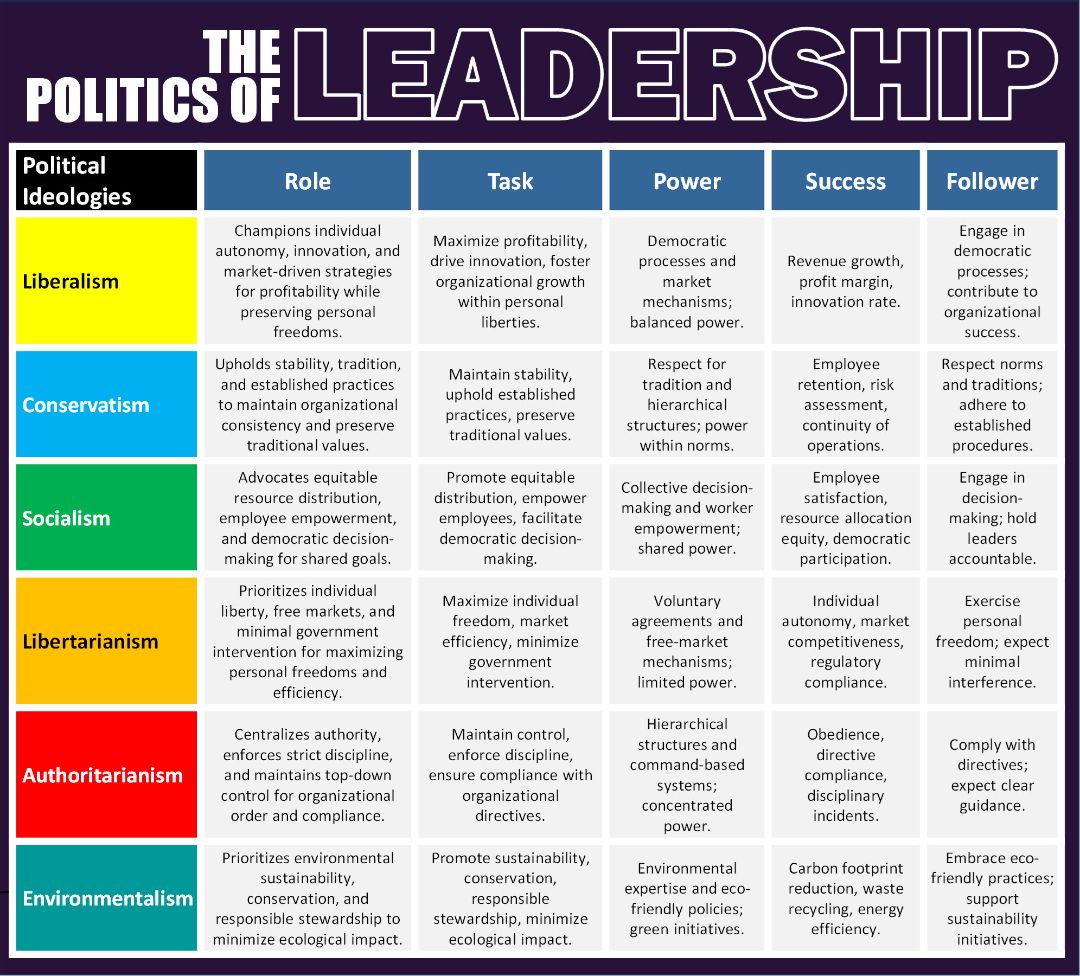

🚀 IS #LEADERSHIP A QUESTION OF IDEOLOGY? 🌐✨
In the labyrinth of modern leadership theories, it's easy to get lost. But beware: amidst the noise and confusion, there might lie a deeper rift—a clash of values that shapes our very understanding of leadership.
Are you leading with liberal innovation, conservative stability, socialist equality, libertarian autonomy, authoritarian control, or environmental sustainability in mind? 🌱
💡Liberal Innovation: Foster change and creativity, championing individual freedom and market dynamics. Leadership emphasizes adaptability, continuous improvement, and embracing innovation.
💡Conservative Stability: Uphold tradition and order, prioritizing proven methods. Leadership focuses on maintaining long-term stability, structured decision-making, and consistent, reliable outcomes.
💡Socialist Equality: Advocate for equal opportunities and resource distribution. Leadership values inclusivity, collective decision-making, and ensuring fairness and equality among team members.
💡Libertarian Autonomy: Promote individual freedom and minimal government intervention. Leadership encourages autonomy, self-directed teams, and decentralized decision-making.
💡Authoritarian Control: Centralize authority for efficient operations. Leadership entails top-down decision-making, strict adherence to hierarchy, and centralized control over resources.
💡Environmental Sustainability: Prioritize ecological well-being and sustainability. Leadership integrates environmental stewardship, promotes green practices, and aligns business goals with environmental objectives.
What's your leadership ideology? Join the conversation and share your thoughts! Let's explore how different ideologies shape the discussion about leadership theories and styles, and how it relates to different views on the purpose of business! 🚀🔄
#BusinessLeadership #Ideology #LeadershipStyles #Transformation
🚀 IS #LEADERSHIP A QUESTION OF IDEOLOGY? 🌐✨
In the labyrinth of modern leadership theories, it's easy to get lost. But beware: amidst the noise and confusion, there might lie a deeper rift—a clash of values that shapes our very understanding of leadership.
Are you leading with liberal innovation, conservative stability, socialist equality, libertarian autonomy, authoritarian control, or environmental sustainability in mind? 🌱
💡Liberal Innovation: Foster change and creativity, championing individual freedom and market dynamics. Leadership emphasizes adaptability, continuous improvement, and embracing innovation.
💡Conservative Stability: Uphold tradition and order, prioritizing proven methods. Leadership focuses on maintaining long-term stability, structured decision-making, and consistent, reliable outcomes.
💡Socialist Equality: Advocate for equal opportunities and resource distribution. Leadership values inclusivity, collective decision-making, and ensuring fairness and equality among team members.
💡Libertarian Autonomy: Promote individual freedom and minimal government intervention. Leadership encourages autonomy, self-directed teams, and decentralized decision-making.
💡Authoritarian Control: Centralize authority for efficient operations. Leadership entails top-down decision-making, strict adherence to hierarchy, and centralized control over resources.
💡Environmental Sustainability: Prioritize ecological well-being and sustainability. Leadership integrates environmental stewardship, promotes green practices, and aligns business goals with environmental objectives.
What's your leadership ideology? Join the conversation and share your thoughts! Let's explore how different ideologies shape the discussion about leadership theories and styles, and how it relates to different views on the purpose of business! 🚀🔄
#BusinessLeadership #Ideology #LeadershipStyles #Transformation
07-02-2024



Leadership & Power: Why Leaders Cannot Afford to Remain Morally Mute
"We do not say that a man who shows no interest in politics is a man who minds his own business; we say that he [sic!] has no business here at all." (Pericles' funeral oration, in Thucydides's The Peloponnesian War)
It's often said that political economics boils down to just two questions: "who gets what?" and "says who?". While this oversimplifies matters, it's a helpful starting point. The first question revolves around the distribution of resources, profits, rights, and obligations within and across companies. How should profits be divided? How should budget be allocated? What wages should be paid? What prices should be charged? The second question delves into the distribution of another good: power. Organisational power includes the authority to command others and impose penalties for disobedience. Who should wield this power, and to what extent? What level of participation and autonomy should workers have? Who should be promoted into senior positions?
As soon as we reflect on these questions puzzles inevitably arise. Is there truly a compelling reason for investors to claim the lion's share of profits? Is a proposed corporate tax rate of 15 percent, as suggested by the OECD, defensible? Is a “living wage” a good idea? To what extent should organizations prioritize obligations to shareholders, multiple stakeholders or society at large? Are there justifiable boundaries to employee autonomy, or conversely, to the authority of a superior? In even broader terms, what should the relationship between power and wealth entail? Is there a necessary correlation between the two? Should CEOs earn salaries that are 350 times higher than the median worker's pay? And should salaries or bonuses be determined by elusive "market forces" at all?
These questions challenge conventional wisdom and demand critical examination of prevailing management paradigms. The concept of power raises questions about how individuals can justify their authority over others. While it's true that someone with legitimate power may have the right to enforce certain actions, the assertion of such rights demands scrutiny. The frequent suggestion that workers willingly consent to labour contracts or that customers have freedom of choice overlooks important asymmetries of power and information, and fails to provide a convincing basis for arbitrary reconfiguration of fundamental rights. On the other hand, considering how some employees might behave in the absence of rules and control perhaps sustains the necessity of some degree of positional power. We may find ourselves empathizing with both the anarchist's call for total autonomy and the authoritarian's argument for a system of binding rules.
It must, then, be an essential task for any leader to consider the morality of organisational decisions and determine the appropriate distribution of organizational power, or in other words, strike the right balance between autonomy, accountability, and authority. This underscores the inherently normative nature of leadership practice and relates to an important difference between “normative” and “descriptive”. While descriptive studies attempt to find out how things are, normative studies aim to uncover how things should be: what is right, good, and just. Descriptive leadership studies are typically pursued by management scientists, sociologists, and historians. In contrast, normative studies, while also interested in descriptive inquiries, focus primarily on a different realm: determining the ideal rules or principles that should govern the distribution of organizational goods (where "goods" encompass profit, power, rights, and obligations). Rather than asking "how is power distributed?" the normative researcher centers on "what constitutes a just or good distribution of power?" and "what defines a good organization?".
In leadership, there are no easy answers. The distinction between normative and descriptive approaches isn't always as straightforward as it may appear. Studying current realities is essential for evaluating ideal states and devising strategies for transitioning from the former to the latter. Developing and implementing a theory of good organizations necessitates an understanding of both moral principles and the prevailing patterns of human motivation and behaviour.
But unlike many other areas of management, in leadership there's no hiding place. Every leadership action involves the use of power to drive toward a specific normative outcome. Put simply, leadership is inherently political. While agnosticism may be a respected stance in academia ("the English translate their ignorance into Greek and call it agnosticism," Engels said), in leadership, it's self-defeating. To remain silent or inactive is, in essence, to endorse the status quo, no matter how unexamined or objectionable it may be. Hence, any responsible leadership education must begin by addressing the fundamental and existential questions underlying economic and organizational decisions and practices.
Moral silence, more often than not, reflects either cowardice or opportunism, both of which are incompatible with good leadership.
(Based on Jonathan Wolff, An Introduction to Political Philosophy, Introduction)
Leadership & Power: Why Leaders Cannot Afford to Remain Morally Mute
"We do not say that a man who shows no interest in politics is a man who minds his own business; we say that he [sic!] has no business here at all." (Pericles' funeral oration, in Thucydides's The Peloponnesian War)
It's often said that political economics boils down to just two questions: "who gets what?" and "says who?". While this oversimplifies matters, it's a helpful starting point. The first question revolves around the distribution of resources, profits, rights, and obligations within and across companies. How should profits be divided? How should budget be allocated? What wages should be paid? What prices should be charged? The second question delves into the distribution of another good: power. Organisational power includes the authority to command others and impose penalties for disobedience. Who should wield this power, and to what extent? What level of participation and autonomy should workers have? Who should be promoted into senior positions?
As soon as we reflect on these questions puzzles inevitably arise. Is there truly a compelling reason for investors to claim the lion's share of profits? Is a proposed corporate tax rate of 15 percent, as suggested by the OECD, defensible? Is a “living wage” a good idea? To what extent should organizations prioritize obligations to shareholders, multiple stakeholders or society at large? Are there justifiable boundaries to employee autonomy, or conversely, to the authority of a superior? In even broader terms, what should the relationship between power and wealth entail? Is there a necessary correlation between the two? Should CEOs earn salaries that are 350 times higher than the median worker's pay? And should salaries or bonuses be determined by elusive "market forces" at all?
These questions challenge conventional wisdom and demand critical examination of prevailing management paradigms. The concept of power raises questions about how individuals can justify their authority over others. While it's true that someone with legitimate power may have the right to enforce certain actions, the assertion of such rights demands scrutiny. The frequent suggestion that workers willingly consent to labour contracts or that customers have freedom of choice overlooks important asymmetries of power and information, and fails to provide a convincing basis for arbitrary reconfiguration of fundamental rights. On the other hand, considering how some employees might behave in the absence of rules and control perhaps sustains the necessity of some degree of positional power. We may find ourselves empathizing with both the anarchist's call for total autonomy and the authoritarian's argument for a system of binding rules.
It must, then, be an essential task for any leader to consider the morality of organisational decisions and determine the appropriate distribution of organizational power, or in other words, strike the right balance between autonomy, accountability, and authority. This underscores the inherently normative nature of leadership practice and relates to an important difference between “normative” and “descriptive”. While descriptive studies attempt to find out how things are, normative studies aim to uncover how things should be: what is right, good, and just. Descriptive leadership studies are typically pursued by management scientists, sociologists, and historians. In contrast, normative studies, while also interested in descriptive inquiries, focus primarily on a different realm: determining the ideal rules or principles that should govern the distribution of organizational goods (where "goods" encompass profit, power, rights, and obligations). Rather than asking "how is power distributed?" the normative researcher centres on "what constitutes a just or good distribution of power?" and "what defines a good organization?"
In leadership, there are no easy answers. The distinction between normative and descriptive approaches isn't always as straightforward as it may appear. Studying current realities is essential for evaluating ideal states and devising strategies for transitioning from the former to the latter. Developing and implementing a theory of good organizations necessitates an understanding of both moral principles and the prevailing patterns of human motivation and behaviour.
But unlike many other areas of management, there's no hiding place. Every leadership action involves the use of power to drive toward a specific normative outcome. Put simply, leadership is inherently political. While agnosticism may be a respected stance in academia ("the English translate their ignorance into Greek and call it agnosticism," as Engels said), in leadership, it's self-defeating. To remain silent or inactive is, in essence, to endorse the status quo, no matter how objectionable it may be. Hence, any responsible leadership education must begin by addressing the fundamental and existential questions underlying economic and organizational decisions and practices. Moral silence, more often than not, reflects either cowardice or opportunism, both of which are incompatible with good leadership.
Based on Jonathan Wolff, An Introduction to Political Philosophy, Introduction
26-01-2024

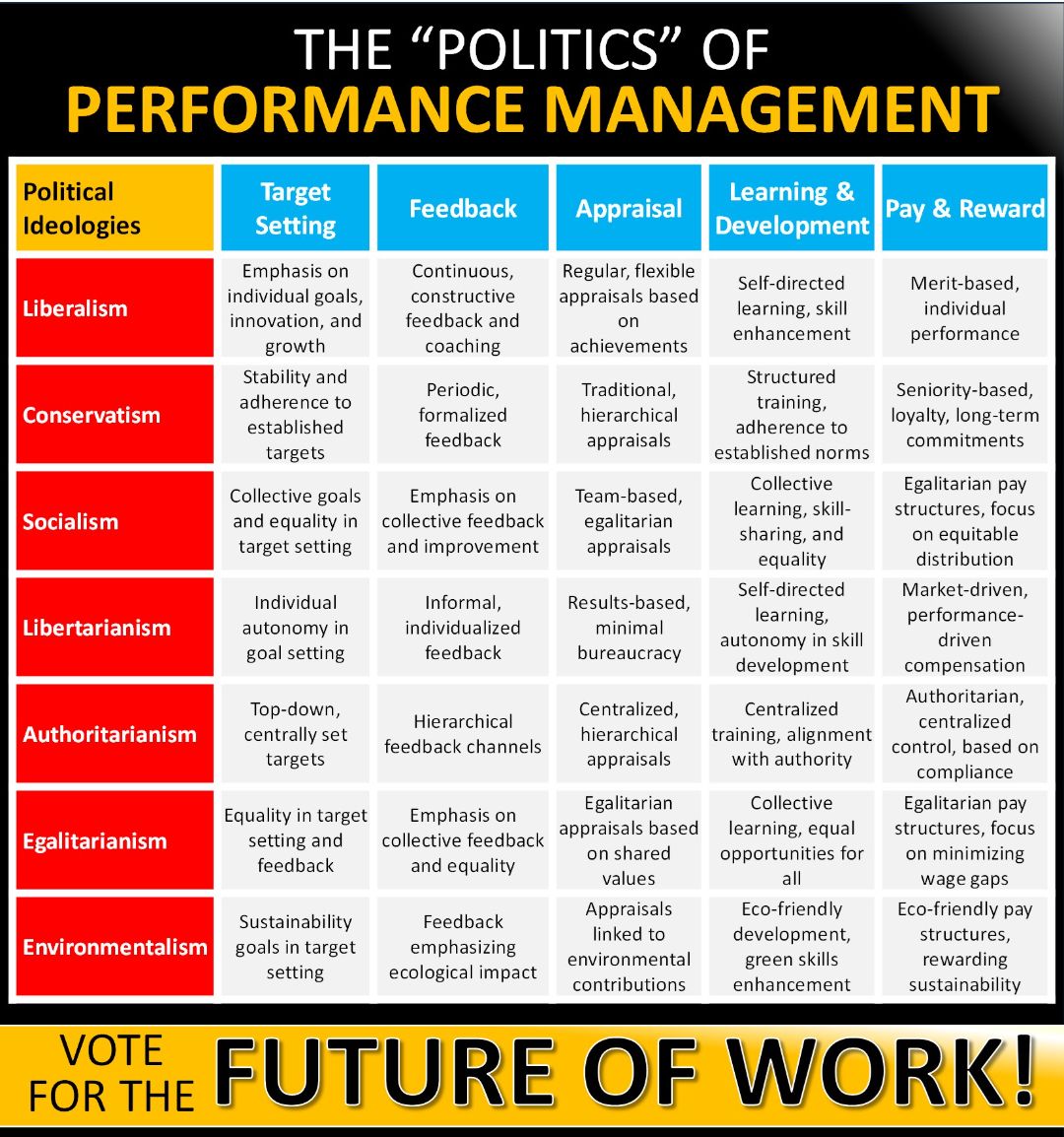

🚀 Is PERFORMANCE MANAGEMENT a question of ideology? 🌐✨
Is your approach to performance management more aligned with liberal innovation, conservative stability, socialist equality, libertarian autonomy, authoritarian control, or perhaps environmental sustainability? 🌱
💡Liberal Innovation: Embrace change and creativity, focusing on individual freedom and market dynamics. Performance management aligns with flexible goal-setting, continuous feedback, and adaptive learning.
💡Conservative Stability: Prioritize tradition and order, favoring proven methods. Performance management emphasizes long-term stability, structured appraisals, and consistent, reliable outcomes.
💡Socialist Equality: Advocate for equal distribution of resources and opportunities. Performance management strives for fairness, emphasizing collective goals, and shared success.
💡Libertarian Autonomy: Champion individual freedom and limited government intervention. Performance management aligns with self-directed learning, personalized goals, and minimal bureaucracy.
💡Authoritarian Control: Centralize authority for efficient decision-making. Performance management may focus on strict target setting, top-down feedback, and centralized appraisal systems.
💡Environmental Sustainability: Prioritize ecological well-being. Performance management integrates environmental KPIs, promotes sustainable practices, and aligns individual goals with broader ecological objectives.
And if performance management is a question of political credo, what does that mean? Is there a "best way" of doing things? Does it depend on the prevailing culture of the organisation? Join the conversation and share your thoughts! Let's reimagine performance management for a future of work that makes the world of business flourish! 🚀🔄
#PerformanceManagement #FutureOfWork #Ideology #Transformation
🚀 Is PERFORMANCE MANAGEMENT a question of ideology? 🌐✨
Is your approach to performance management more aligned with liberal innovation, conservative stability, socialist equality, libertarian autonomy, authoritarian control, or perhaps environmental sustainability? 🌱
💡Liberal Innovation: Embrace change and creativity, focusing on individual freedom and market dynamics. Performance management aligns with flexible goal-setting, continuous feedback, and adaptive learning.
💡Conservative Stability: Prioritize tradition and order, favoring proven methods. Performance management emphasizes long-term stability, structured appraisals, and consistent, reliable outcomes.
💡Socialist Equality: Advocate for equal distribution of resources and opportunities. Performance management strives for fairness, emphasizing collective goals, and shared success.
💡Libertarian Autonomy: Champion individual freedom and limited government intervention. Performance management aligns with self-directed learning, personalized goals, and minimal bureaucracy.
💡Authoritarian Control: Centralize authority for efficient decision-making. Performance management may focus on strict target setting, top-down feedback, and centralized appraisal systems.
💡Environmental Sustainability: Prioritize ecological well-being. Performance management integrates environmental KPIs, promotes sustainable practices, and aligns individual goals with broader ecological objectives.
And if performance management is a question of political credo, what does that mean? Is there a "best way" of doing things? Does it depend on the prevailing culture of the organisation? Join the conversation and share your thoughts! Let's reimagine performance management for a future of work that makes the world of business flourish! 🚀🔄
#PerformanceManagement #FutureOfWork #Ideology #Transformation
25-01-2024

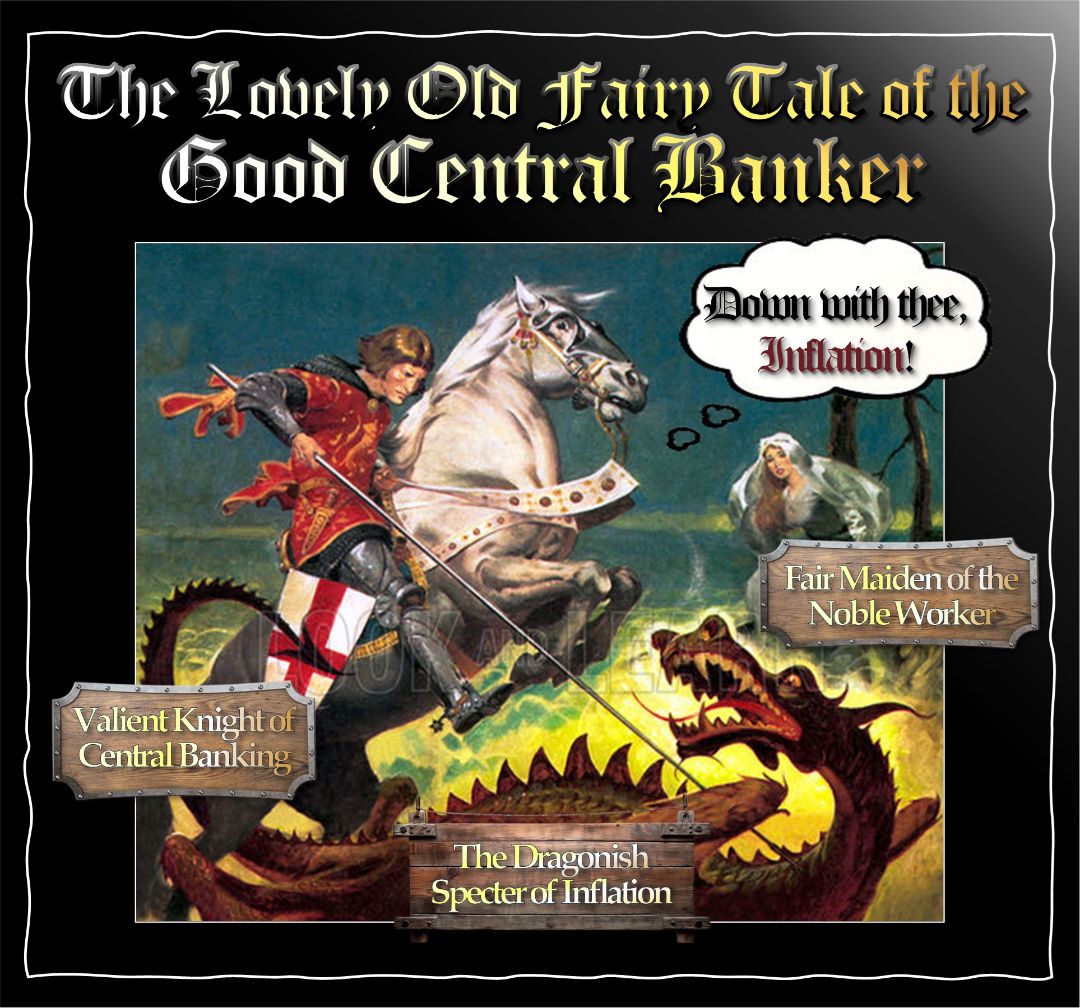

THE CONVENIENT MYTH OF #INFLATION: How Central Bank "Socialism" Can Undermine Worker Security
It is intriguing how prevalent discussions about the perils of escalating inflation have become in recent times. The hegemonic narrative suggests that inflation is public enemy number 1, and central banks act as formidable monetary guardians ensuring our safety. Much of this discourse harkens back to the debates in the 1960s concerning the Phillips curve and, subsequently, Milton Friedman's influential assertion about the "neutrality of money." The crux of the matter was whether policymakers face a trade-off between unemployment and price stability: "Lower interest rates are intended to boost private spending when inflation falls below the central bank target, and higher interest rates are meant to curtail spending when inflation surpasses the target."
However, as Joshua Mason astutely notes, this never was the whole story. Supposedly "independent" central banks serve as a link between an ideological fantasy of "free markets" and the reality of central planning and price controls "in pursuit of money profits."
As Ha-Joon Chang highlights, despite the fervor around intensified inflation control over the past three decades, the promised increase in stability, both in terms of financial and employment stability, has not materialized. On the contrary, the pursuit of "labour market flexibility" in the name of stability has, paradoxically, rendered employment more precarious, unsettling many people's lives.
In fact, inflation targeting has always gone hand in hand with a resolute commitment to restraining the demands of workers. Paul Volcker, hailed as the hero who vanquished the inflation dragon, had a fundamental goal of high-interest rates: ensuring that "labor begins to get the point that if they get too much in wages they won’t have a business to work for." Alan Greenspan, too, viewed the fight against rising prices as, at its core, a venture aimed at fostering weakness and insecurity among workers. He famously asserted that “traumatized workers” were the key to achieving strong growth with low inflation in the 1990s, unlike in previous decades.
Yet, despite the shaky empirical foundation of the Phillips curve and contrary to monetarists' breathless claims about the drastic consequences of high inflation (and their absurd dismissal of any tradeoff between unemployment and inflation which still dominates most textbooks today), evidence suggests that, at least below 8-10 percent, inflation has no discernible relationship with growth. Moreover, numerous studies indicate that anti-inflationary policies can be detrimental to the economy.
Truth is: the neoliberal policy package, prioritizing lower inflation, increased #capital mobility, and heightened job insecurity, is essentially designed to favor the interests of financial asset holders. Don't be misled by the rhetoric; inflation might not be the problem it is conveniently made out to be!
#leadership
References:
23 Things They Don't Tell You About Capitalism, Ha-Joon Chang
THE CONVENIENT MYTH OF #INFLATION: How Central Bank "Socialism" Can Undermine Worker Security
It is intriguing how prevalent discussions about the perils of escalating inflation have become in recent times. The hegemonic narrative suggests that inflation is public enemy number 1, and central banks act as formidable monetary guardians ensuring our safety. Much of this discourse harkens back to the debates in the 1960s concerning the Phillips curve and, subsequently, Milton Friedman's influential assertion about the "neutrality of money." The crux of the matter was whether policymakers face a trade-off between unemployment and price stability: "Lower interest rates are intended to boost private spending when inflation falls below the central bank target, and higher interest rates are meant to curtail spending when inflation surpasses the target."
However, as Joshua Mason astutely notes, this never was the whole story. Supposedly "independent" central banks serve as a link between an ideological fantasy of "free markets" and the reality of central planning and price controls "in pursuit of money profits."
As Ha-Joon Chang highlights, despite the fervor around intensified inflation control over the past three decades, the promised increase in stability, both in terms of financial and employment stability, has not materialized. On the contrary, the pursuit of "labour market flexibility" in the name of stability has, paradoxically, rendered employment more precarious, unsettling many people's lives.
In fact, inflation targeting has always gone hand in hand with a resolute commitment to restraining the demands of workers. Paul Volcker, hailed as the hero who vanquished the inflation dragon, had a fundamental goal of high-interest rates: ensuring that "labor begins to get the point that if they get too much in wages they won’t have a business to work for." Alan Greenspan, too, viewed the fight against rising prices as, at its core, a venture aimed at fostering weakness and insecurity among workers. He famously asserted that “traumatized workers” were the key to achieving strong growth with low inflation in the 1990s, unlike in previous decades.
Yet, despite the shaky empirical foundation of the Phillips curve and contrary to monetarists' breathless claims about the drastic consequences of high inflation (and their absurd dismissal of any tradeoff between unemployment and inflation which still dominates most textbooks today), evidence suggests that, at least below 8-10 percent, inflation has no discernible relationship with growth. Moreover, numerous studies indicate that anti-inflationary policies can be detrimental to the economy.
Truth is: the neoliberal policy package, prioritizing lower inflation, increased #capital mobility, and heightened job insecurity, is essentially designed to favor the interests of financial asset holders. Don't be misled by the rhetoric; inflation might not be the problem it is conveniently made out to be!
#leadership
References:
23 Things They Don't Tell You About Capitalism, Ha-Joon Chang
16-01-2024

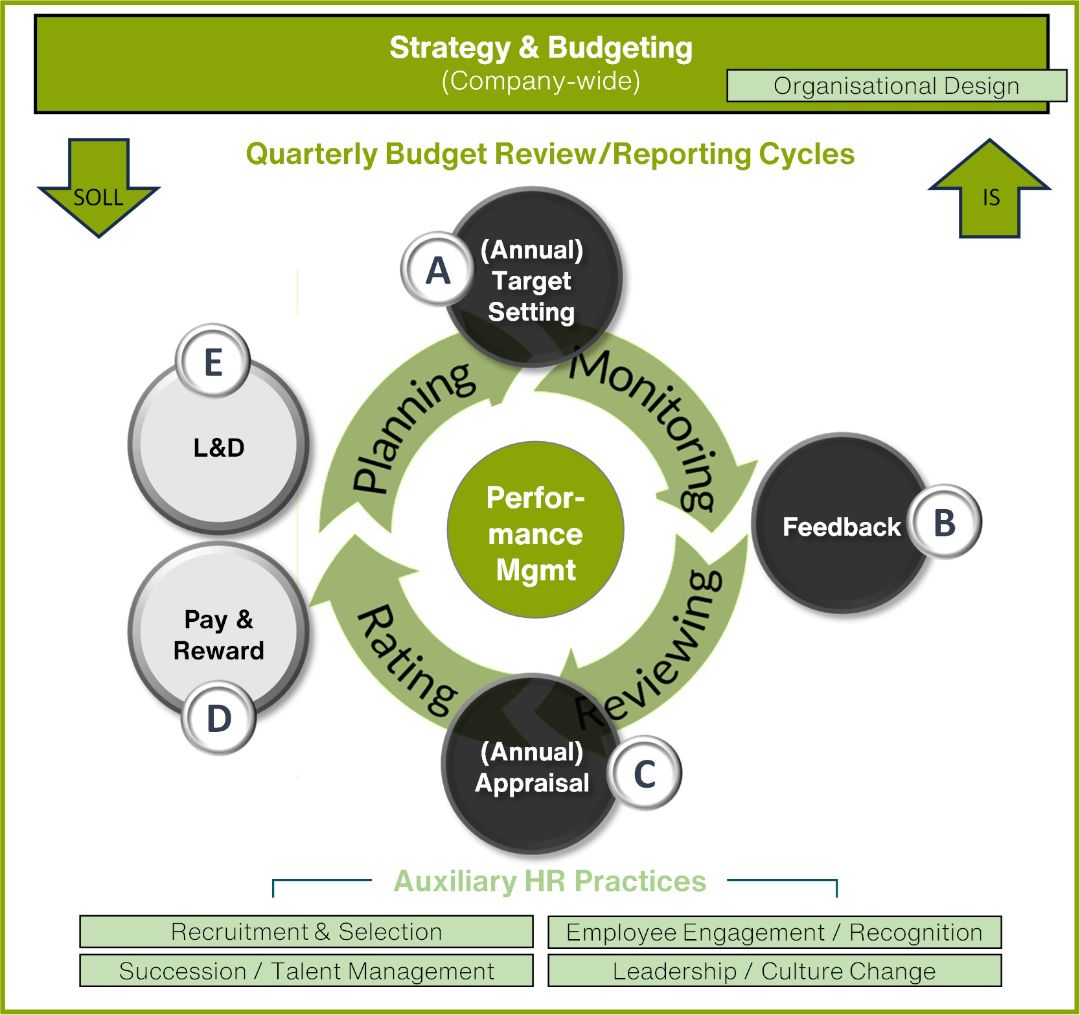

WHAT'S WRONG WITH PERFORMANCE MANAGEMENT?
Performance management is a systematic and continuous process that involves planning, monitoring, developing, reviewing, evaluating and rewarding the performance of individuals or teams within an organization. It aims to optimize individual and team performance, align behaviours with strategic goals, enable professional development, and thus contribute to the overall success of the organization.
Key practices of performance management typically include setting “smart” objectives, providing regular feedback, appraising performance against established criteria, identifying areas for improvement and development, and recognizing and rewarding achievements (or managing the consequences of under performance). However, many additional HR practices, such as recruitment and selection, learning & development, employee engagement and recognition, HR analytics, payroll, OD, D&I directly or indirectly support performance management.
Traditional performance management often relies on a combination of a utilitarian performance definition, emphasizing profit maximization, and an engineering approach to performance optimization: It is assumed that performance can be accurately measured and attributed, that required behaviors and outcomes can be predefined, and that causes of individual performance are easily determinable.
On that basis, firstly, financial targets are decomposed and cascaded to organizational units and roles, guided by the annual budgeting cycle. Total performance is treated simply as the aggregate of individual and unit achievements. Secondly, “cybernetic” controls are established through governance cycles, both at organizational and individual/unit level. Finally, appropriate incentives are established. The underlying assumption is that individual performance results from a linear combination of factors, such as ability, motivation and opportunity, and that motivation can be stimulated through extrinsic rewards and punishments.
Performance management has faced considerable critique, yet much of it remains superficial.
1. Ethically, the predominant utilitarian definition of performance often goes unquestioned. As does the increasing usage of technology to enhance controls.
2. From an "ontological" standpoint, performance continues to be viewed as a property of individuals or teams, rather than an emergent property shaped by intricate mechanisms both within the company, as well as in the broader market and ecosystem.
3. In terms of the underlying "man model", good managers of course know that people are not tunnel-visioned self-seeking robots.
It's time to create something better. Our Performance Management Transformation project is on a mission to revolutionize traditional HR practices. Join us in reshaping the future of work, one process at a time! 💼✨
#performance #hr #hrm #transformation #leadership #management #hris #strategy
WHAT'S WRONG WITH PERFORMANCE MANAGEMENT?
Performance management is a systematic and continuous process that involves planning, monitoring, developing, reviewing, evaluating and rewarding the performance of individuals or teams within an organization. It aims to optimize individual and team performance, align behaviours with strategic goals, enable professional development, and thus contribute to the overall success of the organization.
Key practices of performance management typically include setting “smart” objectives, providing regular feedback, appraising performance against established criteria, identifying areas for improvement and development, and recognizing and rewarding achievements (or managing the consequences of under performance). However, many additional HR practices, such as recruitment and selection, learning & development, employee engagement and recognition, HR analytics, payroll, OD, D&I directly or indirectly support performance management.
Traditional performance management often relies on a combination of a utilitarian performance definition, emphasizing profit maximization, and an engineering approach to performance optimization: It is assumed that performance can be accurately measured and attributed, that required behaviors and outcomes can be predefined, and that causes of individual performance are easily determinable.
On that basis, firstly, financial targets are decomposed and cascaded to organizational units and roles, guided by the annual budgeting cycle. Total performance is treated simply as the aggregate of individual and unit achievements. Secondly, “cybernetic” controls are established through governance cycles, both at organizational and individual/unit level. Finally, appropriate incentives are established. The underlying assumption is that individual performance results from a linear combination of factors, such as ability, motivation and opportunity, and that motivation can be stimulated through extrinsic rewards and punishments.
Performance management has faced considerable critique, yet much of it remains superficial.
1. Ethically, the predominant utilitarian definition of performance often goes unquestioned. As does the increasing usage of technology to enhance controls.
2. From an "ontological" standpoint, performance continues to be viewed as a property of individuals or teams, rather than an emergent property shaped by intricate mechanisms both within the company, as well as in the broader market and ecosystem.
3. In terms of the underlying "man model", good managers of course know that people are not tunnel-visioned self-seeking robots.
It's time to create something better. Our Performance Management Transformation project is on a mission to revolutionize traditional HR practices. Join us in reshaping the future of work, one process at a time! 💼✨
#performance #hr #hrm #transformation #leadership #management #hris #strategy
18-01-2024



🔄 Generative AI vs. Washing Machine: The Battle for Human Progress! 🔄
Yes, you read it right—It's not about fancy washing machines powered by AI, but a showdown of traditional household appliances VS AI. Which technology really holds the key to revolutionizing human living?
The answer is, of course, that we do not know. But the question is intriguing. Remember all the hype around the ICT revolution 'changing the world as we know it'?
Ha-Joon Chang, in his brilliant "23 Things They Don't Tell You About Capitalism," challenges our tech obsessions. Humans, he suggests, are often dazzled by the newest, shiniest gadgets - always convinced that the technological revolution they happen to be living is the greatest of all times. It's true, in today's digital age many people might believe that they couldn't survive without constant connections to their social media "friends," quick access to online "news" (or was it something else?!), and the convenience of digital price comparisons. Yet, in many ways the radical societal changes people anticipated in the early days of the internet bubble went bust, just like the share prices of many precocious tech boomers. Robert Solow, the "Nobel prize" winner, aptly notes that "the evidence [for the revolutionary importance of the internet] is everywhere but in the numbers."
With equal amounts of delightful provocation and compelling statistics Ha-Joon demonstrates in his book how the impact of things like household appliances, the anti-baby pill, or central heating might well have outshone the ICT revolution, both in terms of their impact on societal living as well as on productivity.
Now, you might argue that generative AI is still in its infancy and that it might grow to become more impactful than the internet. Maybe. But if I were to place my bets today on who humanity will eventually owe more to, Sam Altman (with all his fancy AI wizardry) or Josephine Cochrane, the mastermind behind the invention of the dishwasher in 1886, my money's on the latter.
Why does it matter, you ask? Well, our grandiose visions of post-industrial societies tend to drive economic policies. Hence, it might be time for a reality check amidst all the hype. Perhaps we should tread cautiously and ponder where our investments make the most sense. Maybe good old manufacturing isn't as antiquated as it appears, and not every gleaming tech innovation from the Silicon Valley crowd lives up to its promised benefits.
#AI #technology #innovation #management
🔄 Generative AI vs. Washing Machine: The Battle for Human Progress! 🔄
Yes, you read it right—It's not about fancy washing machines powered by AI, but a showdown of traditional household appliances VS AI. Which technology really holds the key to revolutionizing human living?
The answer is, of course, that we do not know. But the question is intriguing. Remember all the hype around the ICT revolution 'changing the world as we know it'?
Ha-Joon Chang, in his brilliant "23 Things They Don't Tell You About Capitalism," challenges our tech obsessions. Humans, he suggests, are often dazzled by the newest, shiniest gadgets - always convinced that the technological revolution they happen to be living is the greatest of all times. It's true, in today's digital age many people might believe that they couldn't survive without constant connections to their social media "friends," quick access to online "news" (or was it something else?!), and the convenience of digital price comparisons. Yet, in many ways the radical societal changes people anticipated in the early days of the internet bubble went bust, just like the share prices of many early tech boomers. Robert Solow, the "Nobel prize" winner, aptly notes that "the evidence [for the revolutionary importance of the internet] is everywhere but in the numbers."
With equal amounts of delightful provocation and compelling data Ha-Joon demonstrates in his book how the impact of things like household appliances, the anti-baby pill, or central heating might well have outshone the ICT revolution, both in terms of their impact on societal living as well as productivity.
Now, you might argue that generative AI is still in its infancy and that it might grow to become more impactful than the internet. Maybe. But if I were to place my bets today on who humanity will eventually owe more to, Sam Altman (with all his fancy AI wizardry) or Josephine Cochrane, the mastermind behind the invention of the dishwasher in 1886, my money's on the latter.
Why does it matter, you ask? Well, our grandiose visions of post-industrial societies tend to drive economic policies. Hence, it might be time for a reality check amidst all the hype. Perhaps we should tread cautiously and ponder where our investments make the most sense. Maybe good old manufacturing isn't as antiquated as it appears, and not every gleaming tech innovation from the Silicon Valley crowd lives up to its promised benefits.
#AI #technology #innovation #management
17-01-2024

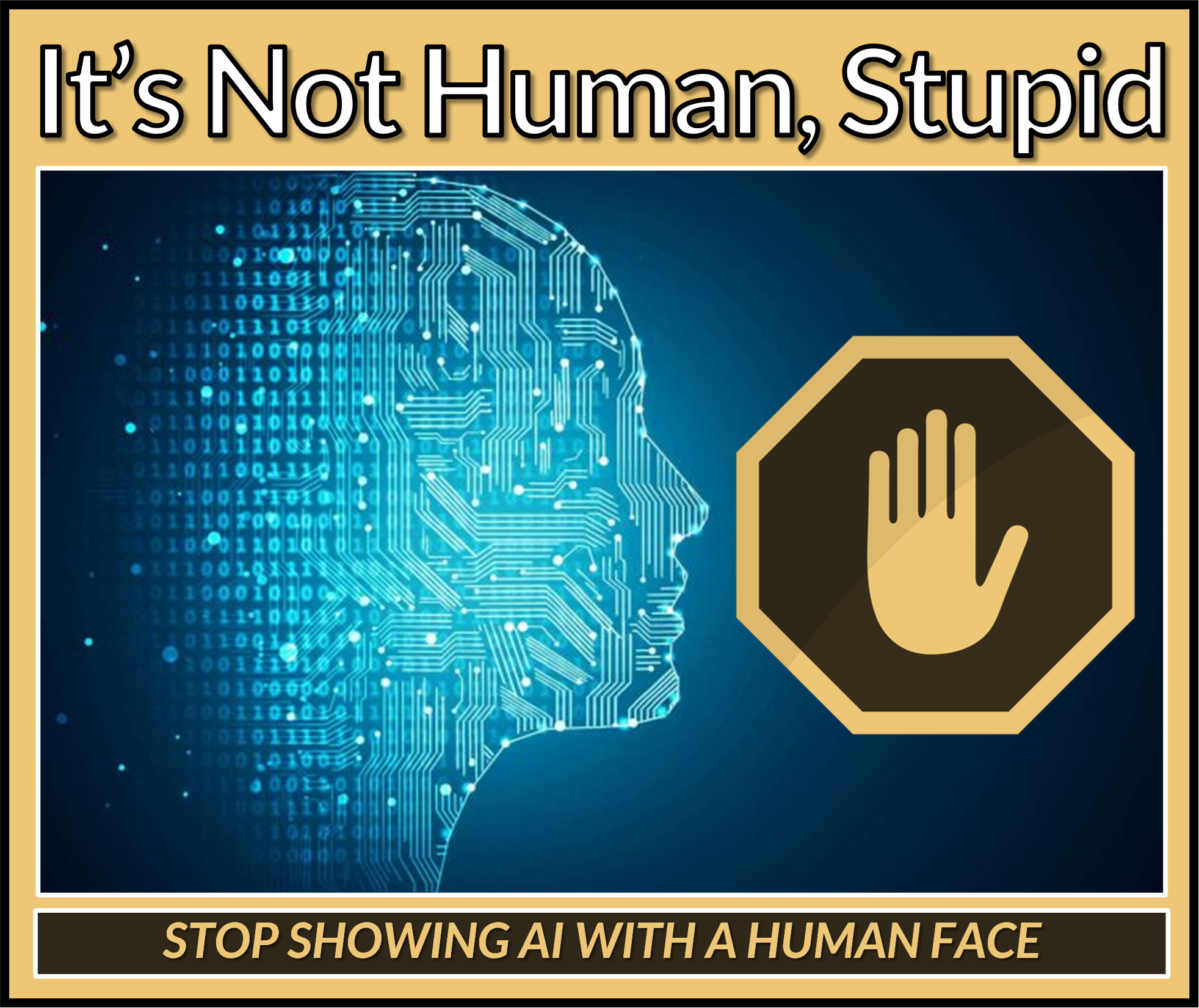

BEYOND THE BUZZ: The Shadows of Generative AI
Davos has spoken: AI is the "steam engine" of the "4th industrial revolution." In the session yesterday AI was lauded as an "absolute necessity," "revolutionary," and a "critical success factor." The consensus was clear: we must embrace GenAI or risk being left adrift, dead in the water, within seconds. But do we really buy into the hype?
I am not sure I do. While traditional AI has matured and found its niche, it certainly did not live up to its most dramatic expectations. A hybrid approach often prevails, and for good reason. GenAI, with its potential for novel digital content is undeniably powerful. Yet, it also grapples with fundamental challenges, such as:
- Lack of Real Understanding and Inability to Reason and Explain
- Lack of Contextual Understanding
- Over-Reliance on Training Data and Fine-tuning Challenges
- Open-Ended Generation
Let's face it: AI, including the generative kind, is far from human. While AI may appear impressively clever when tapping into boundless data and leveraging immense computing power, it lacks any genuine essence of human-ness. The concept of AGI is not just utopian; it's inherently oxymoronic. Hence, in spite of all the Swiss mountain hyperbole, GenAI clearly isn't a silver bullet; rather, I believe it will again be selectively productive.
However, contrary to "normal AI" it raises many more questions. Generative AI's downsides, from bias and ethical concerns; abuse of intellectual property; capacity for misinformation, exploitation and manipulation; massive resource intensiveness; vulnerability to attacks - to name just a few -pose real threats. Humans have demonstrated a not-so-intelligent capability for harming themselves and others, and the concern arises that an ever-proliferating GenAI in the hands of dumb or evil people, particularly with access to military technology, might inadvertently contribute to killing the entire planet. Curiously, that did not seem to much dampen the cheerfulness of the WEF party.
Whatever people believe, in my view one thing is certain: we should stop anthropomorphising pieces of technology. AI is not human, and GenAI isn't our "co-worker". While we may leverage technology where beneficial, we must not absolve ourselves of responsibility for the seemingly autonomous actions of pseudo-intelligent algorithms. Furthermore, there was (too) much talk about all the things we have to do to keep up with the demands of AI. This concerns me. The usage of any type of technology to exploit humans is not only improper but immoral. Gary Bolles nails it: "The long history of automation and work is that humans inevitably get displaced. The more we treat technologies as our equals, the more we create conditions to dehumanize each other."
#Leadership #Management #WEF #GoodLeadership #AI #GenAI #Technology #HumanityFirst
https://lnkd.in/e4XgAaV7
BEYOND THE BUZZ: The Shadows of Generative AI
Davos has spoken: AI is the "steam engine" of the "4th industrial revolution." In the session yesterday AI was lauded as an "absolute necessity," "revolutionary," and a "critical success factor." The consensus was clear: we must embrace GenAI or risk being left adrift, dead in the water, within seconds. But do we really buy into the hype?
I am not sure I do. While traditional AI has matured and found its niche, it certainly did not live up to its most dramatic expectations. A hybrid approach often prevails, and for good reason. GenAI, with its potential for novel digital content is undeniably powerful. Yet, it also grapples with fundamental challenges, such as:
- Lack of Real Understanding and Inability to Reason and Explain
- Lack of Contextual Understanding
- Over-Reliance on Training Data and Fine-tuning Challenges
- Open-Ended Generation
Let's face it: AI, including the generative kind, is far from human. While AI may appear impressively clever when tapping into boundless data and leveraging immense computing power, it lacks any genuine essence of human-ness. The concept of AGI is not just utopian; it's inherently oxymoronic. Hence, in spite of all the Swiss mountain hyperbole, GenAI clearly isn't a silver bullet; rather, I believe it will again be selectively productive.
However, contrary to "normal AI" it raises many more questions. Generative AI's downsides, from bias and ethical concerns; abuse of intellectual property; capacity for misinformation, exploitation and manipulation; massive resource intensiveness; vulnerability to attacks - to name just a few -pose real threats. Humans have demonstrated a not-so-intelligent capability for harming themselves and others, and the concern arises that an ever-proliferating GenAI in the hands of dumb or evil people, particularly with access to military technology, might inadvertently contribute to killing the entire planet. Curiously, that did not seem to much dampen the cheerfulness of the WEF party.
Whatever people believe, in my view one thing is certain: we should stop anthropomorphising pieces of technology. AI is not human, and GenAI isn't our "co-worker". While we may leverage technology where beneficial, we must not absolve ourselves of responsibility for the seemingly autonomous actions of pseudo-intelligent algorithms. Furthermore, there was (too) much talk about all the things we have to do to keep up with the demands of AI. This concerns me. The usage of any type of technology to exploit humans is not only improper but immoral. Gary Bolles nails it: "The long history of automation and work is that humans inevitably get displaced. The more we treat technologies as our equals, the more we create conditions to dehumanize each other."
#Leadership #Management #WEF #GoodLeadership #AI #GenAI #Technology #HumanityFirst
https://lnkd.in/e4XgAaV7
31-12-2023



Celebrating Lack: In Defence of (Meaningful) New Years Resolutions
In a world worn down by the ceaseless chase after pleasure and an endless pursuit of accomplishment, the close of the year might presents a fitting juncture to consider an alternative route—one that embraces the concept of "lack" rather than persistently striving to remedy or satiate it.
Drawing inspiration from Jacques Lacan, lack encapsulates not physical want but the existential gap between our deepest desires and the societal structures, both nomological and symbolic, that intricately mould our understanding of the world. We grapple with the inherent tension between our innate drive for individual significance and the indispensable societal frameworks that shape our meaning-making processes, offering comprehensibility and order to our lives.
In a culture fixated on the glorification of self, it is common to externalise our challenges, through avenues like ego therapy, or attempts to fill the void with accumulation of material possessions and experiences. Yet, rather than measuring our lives by the fleeting pleasure derived from achieving goals or securing social status, life might gain “realness” by our earnest endeavour to let go of an idealised self, embracing the transcendental significance inherent in the journey.
Recognizing lack, therefore, is not an admission of defeat or a call for resignation; instead, it is an earnest invitation to accept and even celebrate the vulnerability inherent in our limitations. Rather than desperately seeking to become “whole”, the essence of growth might lie in our willingness to go beyond conscious self-construction, in an attempt to draw closer to an essential meaning.
If we are willing to stay with the lack, we might find joy. Unlike pleasure, which aligns with societal benchmarks of success, joy arises from a sincere commitment to surpass the fragility of 'psychological safety' and strive to become who we are called to be — a journey inevitably riddled with failures and setbacks. Here, "normative failure" is not a cause for despair, nor the vainglorious promotion for a culture of innovation, but a necessary aspect of our exploration to lead a more 'real' and meaningful life.
Our life’s journey is destined to be one where we are never "complete" - yet, the pursuit of joy encourages us to savour the process, find meaning in the struggle, and rejoice in the continuous, courageous act of transcending our ourselves in the face of life's intrinsic lack. Embracing joy means acknowledging that our resolutions are not mere destinations but part of an ongoing journey of (self-)discovery, beyond convention.
Hence, as we set our intentions for the upcoming year, we might want to reconsider how to frame success. Joyful personal growth is found not in the pleasures of achieving what we consciously believe matters but in the essence of virtuous striving through the crucible of our daily actions. Happy New Year!
#leadership #transformation
Celebrating Lack: In Defence of (Meaningful) New Years Resolutions
In a world worn down by the ceaseless chase after pleasure and an endless pursuit of accomplishment, the close of the year might presents a fitting juncture to consider an alternative route—one that embraces the concept of "lack" rather than persistently striving to remedy or satiate it.
Drawing inspiration from Jacques Lacan, lack encapsulates not physical want but the existential gap between our deepest desires and the societal structures, both nomological and symbolic, that intricately mould our understanding of the world. We grapple with the inherent tension between our innate drive for individual significance and the indispensable societal frameworks that shape our meaning-making processes, offering comprehensibility and order to our lives.
In a culture fixated on the glorification of self, it is common to externalise our challenges, through avenues like ego therapy, or attempts to fill the void with accumulation of material possessions and experiences. Yet, rather than measuring our lives by the fleeting pleasure derived from achieving goals or securing social status, life might gain “realness” by our earnest endeavour to let go of an idealised self, embracing the transcendental significance inherent in the journey.
Recognizing lack, therefore, is not an admission of defeat or a call for resignation; instead, it is an earnest invitation to accept and even celebrate the vulnerability inherent in our limitations. Rather than desperately seeking to become “whole”, the essence of growth might lie in our willingness to go beyond conscious self-construction, in an attempt to draw closer to an essential meaning.
If we are willing to stay with the lack, we might find joy. Unlike pleasure, which aligns with societal benchmarks of success, joy arises from a sincere commitment to surpass the fragility of 'psychological safety' and strive to become who we are called to be — a journey inevitably riddled with failures and setbacks. Here, "normative failure" is not a cause for despair, nor the vainglorious promotion for a culture of innovation, but a necessary aspect of our exploration to lead a more 'real' and meaningful life.
Our life’s journey is destined to be one where we are never "complete" - yet, the pursuit of joy encourages us to savour the process, find meaning in the struggle, and rejoice in the continuous, courageous act of transcending our ourselves in the face of life's intrinsic lack. Embracing joy means acknowledging that our resolutions are not mere destinations but part of an ongoing journey of (self-)discovery, beyond convention.
Hence, as we set our intentions for the upcoming year, we might want to reconsider how to frame success. Joyful personal growth is found not in the pleasures of achieving what we consciously believe matters but in the essence of virtuous striving through the crucible of our daily actions. Happy New Year!
#leadership #transformation
28-12-2023
SOCIOLOGY: AMERICA VS EUROPE?
It's fascinating to observe the historical clash between two distinct paradigms in political sociology: the American approach, which places power at the core and, echoing von Clausewitz, views politics as an extension of economic exchange through different means; and the European tradition, which envisions the state as the guarantor of a good society.
What's particularly striking is the uncritical embrace, both in popular discourse and academic circles, of the American model of a "Corporate Society" in spite of its evident limitations and practical shortcomings.
Anyone dismissing this issue as a mere matter of taxonomy is sorely mistaken. The crux of the matter extends far beyond semantics; at stake is the pursuit of a substantive ideal of justice, contrasting sharply with the absurdity of relying on economic cost-balance analyses and GDP to guide societal decision-making.
As astutely noted once by Greg Palast, the U.S. may be touted as "the best democracy money can buy," yet the underlying concern is clear – any democracy susceptible to financial influence and special interests is inherently flawed. It's high time to part ways with the prevailing American approach to politics and reembrace a principled path toward a just political system.
#leadership #politics #responsibility #economy
26-12-2023
THE FOOLISH LEADER VS FOLLOWER DEBATE
It's curious how much effort is being spent, schizophrenically, to legitimise leaders as special, on the one hand, while at the same time demanding more leadership for everyone else (and consequentially less for the formal "leaders").
In all the cacophony of "leaderless", "unleadership", "leading without authority" etc etc it seems the most crucial parts of the conundrum are willfully ignored.
In any organisation, political rights are linked to organizational participation. Hence, there is no "free for all" in terms of organisational power - participation requires both competence and accountability. Most importantly, it isn't simply about WHO is taking decisions, but about HOW decision-making power is exercised.
In other words, the main point isn't whether some person is a leader or not, but whether Organisational decisions are guided by ideal standards of virtue and responsibility. Domination alone, even if legitimized by an authority structure, does never qualify as GOOD leadership.
Hence, the ideal quantity of leaders must be declined by quality of organisations qua political institutions, not simply individual rights or context. Herein lies another fallacy of the many proponents of alternative leadership models who conveniently conflate epistemology and ethics. Simply because the world is complex or changing doesn't imply that everybody should gain a right to lead, or that decentralising decision making necessarily "leads" to better businesses (pun intended).
The claim to leadership must always be explored in the context of the broader political system of the Organisation. As with other forms of institutions, rights and responsibilities must match - as Aristotle pointed out, political accountability implies both leadership and followership, both participation and obedience - premised on the loyalty towards the good of the Organisation as a whole.
It might be more worthwhile to discuss about that "good" Organisations are supposed to produce, rather than getting hung up all the time on who sits on which deck chair on a global economic Titanic.
#leadership #leadershipdevelopment
THE FOOLISH LEADER VS FOLLOWER DEBATE
It's curious how much effort is being spent, schizophrenically, to legitimise leaders as special, on the one hand, while at the same time demanding more leadership for everyone else (and consequentially less for the formal "leaders").
In all the cacophony of "leaderless", "unleadership", "leading without authority" etc etc it seems the most crucial parts of the conundrum are willfully ignored.
In any organisation, political rights are linked to organizational participation. Hence, there is no "free for all" in terms of organisational power - participation requires both competence and accountability. Most importantly, it isn't simply about WHO is taking decisions, but about HOW decision-making power is exercised.
In other words, the main point isn't whether some person is a leader or not, but whether Organisational decisions are guided by ideal standards of virtue and responsibility. Domination alone, even if legitimized by an authority structure, does never qualify as GOOD leadership.
Hence, the ideal quantity of leaders must be declined by quality of organisations qua political institutions, not simply individual rights or context. Herein lies another fallacy of the many proponents of alternative leadership models who conveniently conflate epistemology and ethics. Simply because the world is complex or changing doesn't imply that everybody should gain a right to lead, or that decentralising decision making necessarily "leads" to better businesses (pun intended).
The claim to leadership must always be explored in the context of the broader political system of the Organisation. As with other forms of institutions, rights and responsibilities must match - as Aristotle pointed out, political accountability implies both leadership and followership, both participation and obedience - premised on the loyalty towards the good of the Organisation as a whole.
It might be more worthwhile to discuss about that "good" Organisations are supposed to produce, rather than getting hung up all the time on who sits on which deck chair on a global economic Titanic.
#leadership #leadershipdevelopment
It's fascinating to observe the historical clash between two distinct paradigms in political sociology: the American approach, which places power at the core and, echoing von Clausewitz, views politics as an extension of economic exchange through different means; and the European tradition, which envisions the state as the guarantor of a good society.
What's particularly striking is the uncritical embrace, both in popular discourse and academic circles, of the American model of a "Corporate Society" in spite of its evident limitations and practical shortcomings.
Anyone dismissing this issue as a mere matter of taxonomy is sorely mistaken. The crux of the matter extends far beyond semantics; at stake is the pursuit of a substantive ideal of justice, contrasting sharply with the absurdity of relying on economic cost-balance analyses and GDP to guide societal decision-making.
As astutely noted once by Greg Palast, the U.S. may be touted as "the best democracy money can buy," yet the underlying concern is clear – any democracy susceptible to financial influence and special interests is inherently flawed. It's high time to part ways with the prevailing American approach to politics and reembrace a principled path toward a just political system.
#leadership #politics #responsibility #economy
24-12-2023



MAKING CHRISTMAS GREAT AGAIN: A Samaritan’s Tale
In the radiant glow of a modern city adorned with festive lights, envision a scene teeming with Christmas cheer... Yet, within this jubilation, imagine a person weathered by life's trials, abandoned on the roadside, without hope, unnoticed by the bustling crowd consumed in their own worlds.
🚶♂️ Along comes the celebrated business tycoon, draped in success, his silhouette exuding power and wealth, his LinkedIn profile boasting a million followers. He glances at the fallen figure but averts his eyes, indifferent to the silent needs of his neighbour. “Everybody receives what he deserves”, he might think. The clash of his footsteps against the pavement echoes the hollow isolation of his self-centred hubris.
🚶♂️ Following him is the prominent community leader, a beacon of political influence. His gaze briefly meets the desperate eyes of the fallen soul, yet he, too, chooses to look away, opting for the path of indifference. "I must focus on grand injustices," he probably reckons, "not be distracted by the smallness of personal fatalities." The cacophony of his hurried steps blends with the superficial festive chaos, drowning out the silent plea for help.
🤝 Finally, amidst the indifferent crowd, a compassionate figure emerges. She tends not only to the wounds of the fellow traveller, but also engages in conversation, acknowledging the person's dreams and struggles, and recognising his worth. Like a modern Samaritan, her heart is attuned to the suffering of a fellow human, while her reason is connected to greater ideals of love and justice. She senses that, at our core, we are neighbours in humanity, and understands that elevating the spirit of a fellow human uplifts ourselves and the entire community.
🌐 As Christmas draws near, it’s a fitting time for reflection: Would we have stopped? Which principles guide our own lives? Amidst the festive generosity and charity, it becomes evident that a meaningful life transcends the narrow confines of selfish material gains or the abstract commandments of justice. It's also not solely about giving to others; as in the story of the Samaritan, our lives find true significance in serving both others and something essentially good.
May you find a moment of serene respite from the holiday hustle and the commercial frenzy to reevaluate your own steps. Beyond the festive presents and merriment, the most precious gift might simply lie in the act of wholeheartedly giving yourself to something greater.
Wishing you a Merry Christmas and a New Year filled with courage and joy.
#ReflectiveChristmas #MeaningfulLife #ModernSamaritan #Leadership #Leadershipdevelopment #Responsibility
MAKING CHRISTMAS GREAT AGAIN: A Samaritan’s Tale
In the radiant glow of a modern city adorned with festive lights, envision a scene teeming with Christmas cheer... Yet, within this jubilation, imagine a person weathered by life's trials, abandoned on the roadside, without hope, unnoticed by the bustling crowd consumed in their own worlds.
🚶♂️ Along comes the celebrated business tycoon, draped in success, his silhouette exuding power and wealth, his LinkedIn profile boasting a million followers. He glances at the fallen figure but averts his eyes, indifferent to the silent needs of his neighbour. “Everybody receives what he deserves”, he might think. The clash of his footsteps against the pavement echoes the hollow isolation of his self-centred hubris.
🚶♂️ Following him is the prominent community leader, a beacon of political influence. His gaze briefly meets the desperate eyes of the fallen soul, yet he, too, chooses to look away, opting for the path of indifference. "I must focus on grand injustices," he probably reckons, "not be distracted by the smallness of personal fatalities." The cacophony of his hurried steps blends with the superficial festive chaos, drowning out the silent plea for help.
🤝 Finally, amidst the indifferent crowd, a compassionate figure emerges. She tends not only to the wounds of the fellow traveller, but also engages in conversation, acknowledging the person's dreams and struggles, and recognising his worth. Like a modern Samaritan, her heart is attuned to the suffering of a fellow human, while her reason is connected to greater ideals of love and justice. She senses that, at our core, we are neighbours in humanity, and understands that elevating the spirit of a fellow human uplifts ourselves and the entire community.
🌐 As Christmas draws near, it’s a fitting time for reflection: Would we have stopped? Which principles guide our own lives? Amidst the festive generosity and charity, it becomes evident that a meaningful life transcends the narrow confines of selfish material gains or the abstract commandments of justice. It's also not solely about giving to others; as in the story of the Samaritan, our lives find true significance in serving both others and something essentially good.
May you find a moment of serene respite from the holiday hustle and the commercial frenzy to reevaluate your own steps. Beyond the festive presents and merriment, the most precious gift might simply lie in the act of wholeheartedly giving ourselves to something greater.
Wishing you a Merry Christmas and a New Year filled with courage and joy.
#ReflectiveChristmas #MeaningfulLife #ModernSamaritan #Leadership #Leadershipdevelopment #Responsibility
19-12-2023



A Tribute To Academic Truth
Ladies and gentlemen, esteemed colleagues, and those who share a profound concern for the intellectual foundation of our academic endeavours.
Today, we gather in mourning, for we bear witness to the lamentable disappearance of a cherished entity – the demise of academic truth.
In the hallowed realms of academia, we once held dear the essence of truth and education as the pillars upon which the pursuit of wisdom rested. Yet, as we stand on the precipice of postmodernity, it becomes painfully apparent that these pillars are crumbling, threatening to leave a void that echoes with the increasing disdain for intellectual integrity in a post-factual world of superficial populism.
In the realm of education, where enlightenment and knowledge should flourish, a lamentable lack of basic skills fails to spark the desire for radical thought. Many academics, entrusted with shaping the minds of the future, struggle with fundamental abilities. Their writing is subpar, their presentation skills lacking, and their understanding of effective teaching methods often absent. Yet, even worse, the sacred practice of imparting knowledge has been increasingly sabotaged by unexamined ideologies and arbitrary rankings and ratings, leaving the essence of education obscured.
Turning our gaze to the once-revered domain of academic research, an even more sombre picture unfolds. Particularly in the social sciences, researchers often persist in their misguided allegiance to post-positivistic experiments and observational studies, blissfully ignorant of methodological limitations and the nuanced philosophy of science. Yet, the problem doesn't end there. In the contemporary circus of academia, truth has often been reduced to a numbers game – a race for citations where quantity quickly eclipses quality. Academics' newfound love for meta studies, characterized by intricate word counts and senseless aggregations, further distorts the landscape. And if all else fails, truth is substituted with popularity, and academics vying for attention by mass-producing sensational concepts and flashy titles.
As we mourn the demise of academic truth, let us reflect on the root causes: a lack of infrastructures for the formation of academics, an erosion of professional ethics within the context of new public management, the missing support for institutional introspection and internal challenge, and a tinge of hubris that blinds many academics to their own shortcomings - just to name a few.
Hence, let us also cherish those few valiant exemplars, academics who combine original thinking with robust research and a critical perspective, challenging both themselves and academic orthodoxy, and who stand as guardians of a vanishing legacy of academic honour.
Rest in peace, academic truth. Your departure shall serve as a poignant reminder of our collective responsibility to uphold the sanctity of knowledge and preserve the sacred covenant between truth and academia.
A Tribute To Academic Truth
Ladies and gentlemen, esteemed colleagues, and those who share a profound concern for the intellectual foundation of our academic endeavours.
Today, we gather in mourning, for we bear witness to the lamentable disappearance of a cherished entity – the demise of academic truth.
In the hallowed realms of academia, we once held dear the essence of truth and education as the pillars upon which the pursuit of wisdom rested. Yet, as we stand on the precipice of postmodernity, it becomes painfully apparent that these pillars are crumbling, threatening to leave a void that echoes with the increasing disdain for intellectual integrity in a post-factual world of superficial populism.
In the realm of education, where enlightenment and knowledge should flourish, a lamentable lack of basic skills fails to spark the desire for radical thought. Many academics, entrusted with shaping the minds of the future, struggle with fundamental abilities. Their writing is subpar, their presentation skills lacking, and their understanding of effective teaching methods often absent. Yet, even worse, the sacred practice of imparting knowledge has been increasingly sabotaged by unexamined ideologies and arbitrary rankings and ratings, leaving the essence of education obscured.
Turning our gaze to the once-revered domain of academic research, an even more sombre picture unfolds. Particularly in the social sciences, researchers often persist in their misguided allegiance to post-positivistic experiments and observational studies, blissfully ignorant of methodological limitations and the nuanced philosophy of science. Yet, the problem doesn't end there. In the contemporary circus of academia, truth has often been reduced to a numbers game – a race for citations where quantity quickly eclipses quality. Academics' newfound love for meta studies, characterized by intricate word counts and senseless aggregations, further distorts the landscape. And if all else fails, truth is substituted with popularity, and academics vying for attention by mass-producing sensational concepts and flashy titles.
As we mourn the demise of academic truth, let us reflect on the root causes: a lack of infrastructures for the formation of academics, an erosion of professional ethics within the context of new public management, the missing support for institutional introspection and internal challenge, and a tinge of hubris that blinds many academics to their own shortcomings - just to name a few.
Hence, let us also cherish those few valiant exemplars, academics who combine original thinking with robust research and a critical perspective, challenging both themselves and academic orthodoxy, and who stand as guardians of a vanishing legacy of academic honour.
Rest in peace, academic truth. Your departure shall serve as a poignant reminder of our collective responsibility to uphold the sanctity of knowledge and preserve the sacred covenant between truth and academia.
11-12-2023

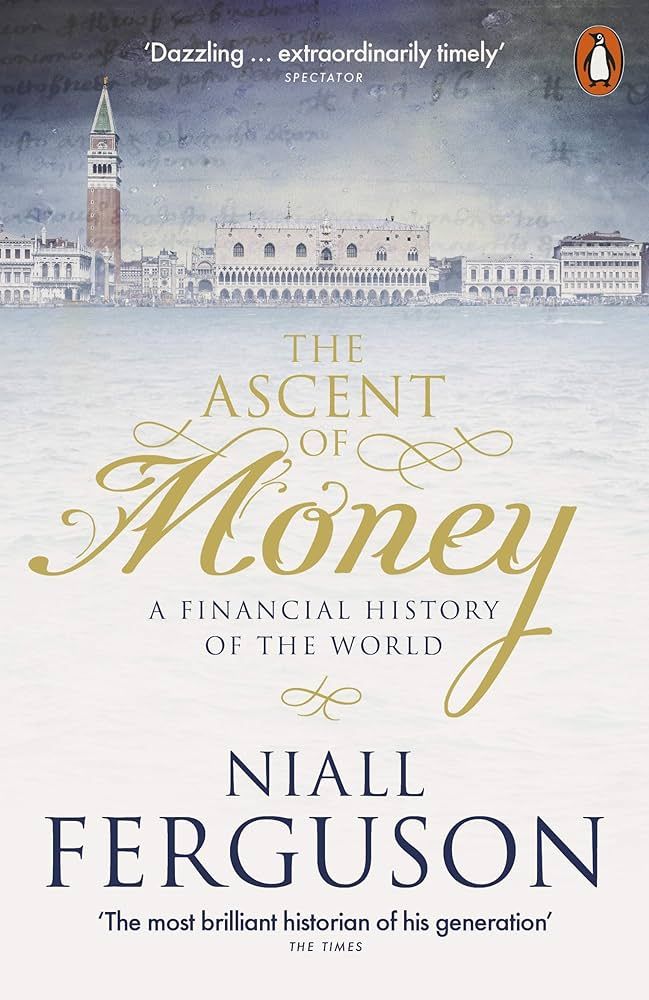

CRISIS IN ACADEMIA? About the Ascent of Money and the Ascent of Academic Populism
🔍 I just started diving into Niall Ferguson's "Ascent of Money," which promises an intriguing journey through financial history. Yet, already in the introduction, a noticeable tendency emerges: the author seems to creatively conflate the role of money as a tool of exchange with its pursuit as an end in itself. Suggesting not only somewhat grandiosely that banking is at the heart of all progress, but also strongly advocating that financial literacy is the key to contemporary smartness, Ferguson seems to encourage individuals to be more strategic in exploiting money to generate wealth.
There's no need to return to the Pelagian controversy or adopt the stance of the "Sicilian Briton" to recognize the potential pitfalls of such an uncritical perspective. By the way, in "De Divitiis" its anonymous author provocatively claims, "Tolle divitem et pauperem non invenies," - get rid of the rich man and you will not be able to find a poor man. Let no man have more than he really needs, and everyone will have as much as they need, since the few who are rich are the reason for the many who are poor.
Even when writing a "dazzling... extraordinarily timely" book, "the most brilliant historian of his generation" ought to recognize, as a scholar, that while history is valuable in describing and, to some extent, interpreting the past, it falls short of providing a basis for normative statements about present or future behaviors without additional philosophical inquiry.
🤔 This to me seems to become a worrying trend. As frequently highlighted by Alex Edmans, many academics exhibit a fragile grasp of the philosophy of science, resulting in research fraught with significant errors in both methodology and conclusions. By the same token, there is a notable deficiency in ethical examinations within a considerable portion of academic writing. Researchers often struggle to contextualize their work within broader ideological paradigms, overstepping the fine line between commentary and ideology. The urgency to publish and garner citations within academia exacerbates the issue, sometimes leading to the dissemination of outright lies or propaganda.
It's disheartening to witness how the pursuit of popularity seems to supersede the commitment to scholarly rigor, gradually eroding the essence of "good academics." Perhaps, academics would benefit from taking a more skeptical position towards their own "wealth" of wisdom. Recalling Augustine: "Tolle superbiam: divitiae non nocebunt." Paraphrasing: get rid of your pride and your wealth of knowledge might do no harm.
#leadership #academia #management #finance #wisdom
CRISIS IN ACADEMIA? About the Ascent of Money and the Ascent of Academic Populism
🔍 I just started diving into Niall Ferguson's "Ascent of Money," which promises an intriguing journey through financial history. Yet, already in the introduction, a noticeable tendency emerges: the author seems to creatively conflate the role of money as a tool of exchange with its pursuit as an end in itself. Suggesting not only somewhat grandiosely that banking is at the heart of all progress, but also strongly advocating that financial literacy is the key to contemporary smartness, Ferguson seems to encourage individuals to be more strategic in exploiting money to generate wealth.
There's no need to return to the Pelagian controversy or adopt the stance of the "Sicilian Briton" to recognize the potential pitfalls of such an uncritical perspective. By the way, in "De Divitiis" its anonymous author provocatively claims, "Tolle divitem et pauperem non invenies," - get rid of the rich man and you will not be able to find a poor man. Let no man have more than he really needs, and everyone will have as much as they need, since the few who are rich are the reason for the many who are poor.
Even when writing a "dazzling... extraordinarily timely" book, "the most brilliant historian of his generation" ought to recognize, as a scholar, that while history is valuable in describing and, to some extent, interpreting the past, it falls short of providing a basis for normative statements about present or future behaviors without additional philosophical inquiry.
🤔 This to me seems to become a worrying trend. As frequently highlighted by Alex Edmans, many academics exhibit a fragile grasp of the philosophy of science, resulting in research fraught with significant errors in both methodology and conclusions. By the same token, there is a notable deficiency in ethical examinations within a considerable portion of academic writing. Researchers often struggle to contextualize their work within broader ideological paradigms, overstepping the fine line between commentary and ideology. The urgency to publish and garner citations within academia exacerbates the issue, sometimes leading to the dissemination of outright lies or propaganda.
It's disheartening to witness how the pursuit of popularity seems to supersede the commitment to scholarly rigor, gradually eroding the essence of "good academics." Perhaps, academics would benefit from taking a more skeptical position towards their own "wealth" of wisdom. Recalling Augustine: "Tolle superbiam: divitiae non nocebunt." Paraphrasing: get rid of your pride and your wealth of knowledge might do no harm.
#leadership #academia #management #finance #wisdom
11-12-2023

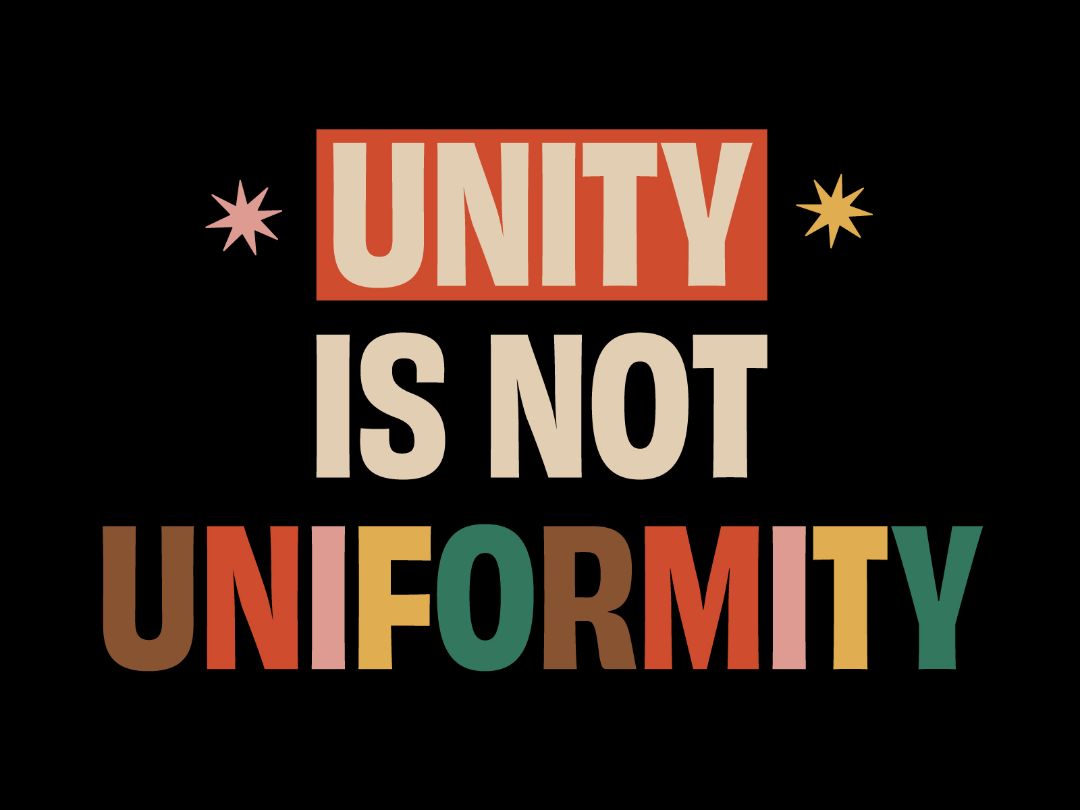

"As long as we think of DIFFERENCE as that which divides us, we shall dislike it; when we think of it as that which unites us, we shall cherish it."
Mary Parker Follett's profound insight might hold some valuable reflection for modern DEI practitioners. Suggesting that "unity, not uniformity, must be our aim", she mirrors Carl Jung - more than seeking an illusive authentic self, genuine "individuality is the capacity for union". In her conclusions, "the leader is more responsible than anyone else for that integrative unity which is the aim of organisation."
However, this notion prompts the challenge of defining what unites us at a fundamental level. This is where, yet again, ethics takes center stage. What inspires us to temper our behavior and willingly limit our own (negative) freedom? Is it really enough, as Rawls seems to suggest, to aim for a lowest common denominator, some procedural "live and let live" agreement that is predicated on everybody's right to "be someone", or should we aspire to a deeper connection?
Truth is, if we desire a society that is more than a church of splendid individualism, unity cannot be based only on an ephemeral notion of abstract civic reciprocity. It must relate to a more essential human capacity to create goodness, beauty and justice. Rousseau's concept of a "civic religion," as a prerequisite for a democratic society, echoes here.
This implies that our individual capacity for union might need to entail more than the empathic tolerance for our neighbour, or procedures for diverse political dialogue - it might require sympathy for the common good. We might need to embrace, as Nussbaum suggests, "civic love" as a political emotion. 🌐💙
#UnityInDiversity #EthicalLeadership #Leadership #Management #Philosophy
"As long as we think of DIFFERENCE as that which divides us, we shall dislike it; when we think of it as that which unites us, we shall cherish it."
Mary Parker Follett's profound insight might hold some valuable reflection for modern DEI practitioners. Suggesting that "unity, not uniformity, must be our aim", she mirrors Carl Jung - more than seeking an illusive authentic self, genuine "individuality is the capacity for union". In her conclusions, "the leader is more responsible than anyone else for that integrative unity which is the aim of organisation."
However, this notion prompts the challenge of defining what unites us at a fundamental level. This is where, yet again, ethics takes center stage. What inspires us to temper our behavior and willingly limit our own (negative) freedom? Is it really enough, as Rawls seems to suggest, to aim for a lowest common denominator, some procedural "live and let live" agreement that is predicated on everybody's right to "be someone", or should we aspire to a deeper connection?
Truth is, if we desire a society that is more than a church of splendid individualism, unity cannot be based only on an ephemeral notion of abstract civic reciprocity. It must relate to a more essential human capacity to create goodness, beauty and justice. Rousseau's concept of a "civic religion," as a prerequisite for a democratic society, echoes here.
This implies that our individual capacity for union might need to entail more than the empathic tolerance for our neighbour, or procedures for diverse political dialogue - it might require sympathy for the common good. We might need to embrace, as Nussbaum suggests, "civic love" as a political emotion. 🌐💙
#UnityInDiversity #EthicalLeadership #Leadership #Management #Philosophy
09-12-2023



Mary Parker Follett once wisely stated that #Leadership isn't wielding power OVER people but rather awakening the power WITHIN them.
She emphasized, "Leadership is not defined by the exercise of power but by the capacity to increase the sense of power among those led." She believed the primary task of a leader is to create more leaders.
I will propose an additional nuance. Power, in essence, must never be an end in itself. To hold positive meaning, power must serve a good cause.
Therefore, I contend that Leadership not only transcends power over people; it also goes beyond nurturing the power within people. It is about kindling the power within people to actualise the good inside them.
Thus, leadership, at its core, is the social practice of awakening the good within a community of people.
#LeadershipMatters #GoodLeadership
Mary Parker Follett once wisely stated that #Leadership isn't wielding power OVER people but rather awakening the power WITHIN them.
She emphasized, "Leadership is not defined by the exercise of power but by the capacity to increase the sense of power among those led." She believed the primary task of a leader is to create more leaders.
I will propose an additional nuance. Power, in essence, must never be an end in itself. To hold positive meaning, power must serve a good cause.
Therefore, I contend that Leadership not only transcends power over people; it also goes beyond nurturing the power within people. It is about kindling the power within people to actualise the good inside them.
Thus, leadership, at its core, is the social practice of awakening the good within a community of people.
#LeadershipMatters #GoodLeadership
09-12-2023



Big Problems with Big Data: The Hollow Optimism of Technological Omniscience
(Playing with my previous post)
In an era where data reigns supreme, tech titans flaunt commercial thoroughfares with the hubristic confidence of someone who has unlocked the secrets of the cosmos. Big data stands high as the ultimate artillery in a relentless battleground for technological supremacy. The incessant cry for ever more “analytics” has become the absurd apotheosis in a tragic play that treats the intricacies of humanity as a tedious engineering problem. While the vampiric high priests of technology suck the world’s digital data, the ‘geist’ has left the stage for a ‘zeitgeist’ cheerleading humanity towards its own potential annihilation. All the while, Hegel is weeping.
Our modern world is entranced by the allure of scientific thought, shaping the very fabric of our existence. However, beneath a glamorous facade of technological trickery lies a deeper truth, as philosophers have been warning us since the inception of scientific empiricism.
🚨Heidegger, particularly in the Zollikon Seminars, launches a frontal assault on the reductionism inherent in modern science. He exposes the danger of "technological enframing," a mode of thinking that turns everything into calculable resources, neglecting the rich tapestry of being. His critique extends beyond the epistemic to the existential, warning against a world reduced to mere objects.
🚨In Kant's revolutionary response to Hume's empiricism, he introduces transcendental categories, rejecting the reduction of reality to isolated sensory experiences. For Kant, the danger lies in viewing objects merely as empirical data without recognizing the synthetic unity bestowed by the mind's inherent structures.
Heidegger's critique isn't confined to academic debates. It's a practical call for "revelatory thinking", to acknowledge the subjective aspects of our experiences. In a world drowning in data, he encourages us to adopt a more poetic, contemplative stance that transcends the cold calculus of scientific thought. It implores us to rediscover the richness of existence beyond the confines of empirical reduction. Kant, in parallel, challenges us to consider the limitations of empirical understanding and the interconnectedness of objects. His shift suggests a more holistic perspective, away from "big data", and encourages self-reflection and the pursuit of actions that are in harmony with a moral duty, rather than scientific calculus.
In a nutshell, philosophy implores us to scrutinize the consequences of a technological dogma that reduces our lives to bits and bytes. It compels us to combine subjective experiences with universal reasoning, while emphasizing the need to critically evaluate scientific rationality through an ethical lens. It is a grand fallacy of postmodern thought to believe that understanding the world or making better decisions simply boils down to having a larger data lake. 🚀🌍
#leadership justice #politics #management #philosophy
Big Problems with Big Data: The Hollow Optimism of Technological Omniscience
(Playing with my previous post)
In an era where data reigns supreme, tech titans flaunt commercial thoroughfares with the hubristic confidence of someone who has unlocked the secrets of the cosmos. Big data stands high as the ultimate artillery in a relentless battleground for technological supremacy. The incessant cry for ever more “analytics” has become the absurd apotheosis in a tragic play that treats the intricacies of humanity as a tedious engineering problem. While the vampiric high priests of technology suck the world’s digital data, the ‘geist’ has left the stage for a ‘zeitgeist’ cheerleading humanity towards its own potential annihilation. All the while, Hegel is weeping.
Our modern world is entranced by the allure of scientific thought, shaping the very fabric of our existence. However, beneath a glamorous facade of technological trickery lies a deeper truth, as philosophers have been warning us since the inception of scientific empiricism.
🚨Heidegger, particularly in the Zollikon Seminars, launches a frontal assault on the reductionism inherent in modern science. He exposes the danger of "technological enframing," a mode of thinking that turns everything into calculable resources, neglecting the rich tapestry of being. His critique extends beyond the epistemic to the existential, warning against a world reduced to mere objects.
🚨In Kant's revolutionary response to Hume's empiricism, he introduces transcendental categories, rejecting the reduction of reality to isolated sensory experiences. For Kant, the danger lies in viewing objects merely as empirical data without recognizing the synthetic unity bestowed by the mind's inherent structures.
Heidegger's critique isn't confined to academic debates. It's a practical call for "revelatory thinking", to acknowledge the subjective aspects of our experiences. In a world drowning in data, he encourages us to adopt a more poetic, contemplative stance that transcends the cold calculus of scientific thought. It implores us to rediscover the richness of existence beyond the confines of empirical reduction. Kant, in parallel, challenges us to consider the limitations of empirical understanding and the interconnectedness of objects. His shift suggests a more holistic perspective, away from "big data", and encourages self-reflection and the pursuit of actions that are in harmony with a moral duty, rather than scientific calculus.
In a nutshell, philosophy implores us to scrutinize the consequences of a technological dogma that reduces our lives to bits and bytes. It compels us to combine subjective experiences with universal reasoning, while emphasizing the need to critically evaluate scientific rationality through an ethical lens. It is a grand fallacy of postmodern thought to believe that understanding the world or making better decisions simply boils down to having a larger data lake. 🚀🌍
#leadership justice #politics #management #philosophy
08-12-2023



Premising that I fully support the question Rawls has taken up in his Theory of Justice, and its subsequent revision in Political Liberalism, it remains enigmatic to me how anyone could have ever endorsed either.
The fallacy of Rawls' project must be evident for anyone with the slightest understanding of political philosophy - Amartya Sen elencates the many fundamental flaws in his (far too politically correct and not entirely helpful) Ideas About Justice. Yet even Rawls own revision which at least partly acknowledges the failure of his original proposals seems to fall far short of truly addressing it.
Rather than offering a genuinely new approach Rawls seems intent to uphold the "wet dream" of liberal justice by salvaging a hollow procedural idealism through unsubstantiated assumptions and endless foolhardy "redefinitions". The result is a fragmentary, inconsistent and uninspiring apologia pro teoria sua. Where the Theory of Justice unsuccessfully sought to operationalise justice in a pluralistic society, political liberalism sacrifices the ideal of justice on the altar of a liberal ideology. In a typically American fashion it thus constructs democracy-as-ideal-in-itself which must remain fragile to all the Aristotelian criticism of it. Yet Rawls continually insinuates that his "freestanding" political ideal of overlapping consensus is also intrinsically moral - which of course it isn't, in any relevant way.
Maybe the key point is that liberalism as a political doctrine will always be limited. Its very premises do not easily permit the construction of what Rawls calls a "comprehensive political doctrine" which integrates universal foundations (and optimum social choice) and individual freedom. Which doesn't mean it is wrong or that there are simple and better solutions. But dancing around the problem with big eyes and big words - or foolishly seeking to manufacture truth where there is none by number of citations - IMHO doesn't really move us foreward. Far too quickly the veil of ignorance becomes just that: an excuse for Ignorance. And the dogma of freedom turns into a totalitarianism of "reasonable" selfishness.
I fear that if ever there was a textbook about political philosophy that at the same time was well-intentioned, terribly confused and exquisitely unintelligent it must be Rawls' Political Liberalism. Which, sadly, also makes it a very very bad book.
#leadership justice #politics #management #philosophy
Premising that I fully support the question Rawls has taken up in his Theory of Justice, and its subsequent revision in Political Liberalism, it remains enigmatic to me how anyone could have ever endorsed either.
The fallacy of Rawls' project must be evident for anyone with the slightest understanding of political philosophy - Amartya Sen elencates the many fundamental flaws in his (far too politically correct and not entirely helpful) Ideas About Justice. Yet even Rawls own revision which at least partly acknowledges the failure of his original proposals seems to fall far short of truly addressing it.
Rather than offering a genuinely new approach Rawls seems intent to uphold the "wet dream" of liberal justice by salvaging a hollow procedural idealism through unsubstantiated assumptions and endless foolhardy "redefinitions". The result is a fragmentary, inconsistent and uninspiring apologia pro teoria sua. Where the Theory of Justice unsuccessfully sought to operationalise justice in a pluralistic society, political liberalism sacrifices the ideal of justice on the altar of a liberal ideology. In a typically American fashion it thus constructs democracy-as-ideal-in-itself which must remain fragile to all the Aristotelian criticism of it. Yet Rawls continually insinuates that his "freestanding" political ideal of overlapping consensus is also intrinsically moral - which of course it isn't, in any relevant way.
Maybe the key point is that liberalism as a political doctrine will always be limited. Its very premises do not easily permit the construction of what Rawls calls a "comprehensive political doctrine" which integrates universal foundations (and optimum social choice) and individual freedom. Which doesn't mean it is wrong or that there are simple and better solutions. But dancing around the problem with big eyes and big words - or foolishly seeking to manufacture truth where there is none by number of citations - IMHO doesn't really move us foreward. Far too quickly the veil of ignorance becomes just that: an excuse for Ignorance. And the dogma of freedom turns into a totalitarianism of "reasonable" selfishness.
I fear that if ever there was a textbook about political philosophy that at the same time was well-intentioned, terribly confused and exquisitely unintelligent it must be Rawls' Political Liberalism. Which, sadly, also makes it a very very bad book.
#leadership justice #politics #management #philosophy
06-12-2023



🌐 Beyond the Bytes: Big Problems of Big Data - Philosophical Reflections
In our modern world, scientific thought reigns supreme, shaping everything from technology to healthcare. But what if such dominance comes at a cost? Philosophers have critiqued scientific empiricism since its inception. Both Immanuel Kant and Martin Heidegger offer some intriguing thoughts that are still worth reflecting on.
🔍 The Pitfalls of Reductionism:
Heidegger, particularly in the Zollikon Seminars, launches a frontal assault on the reductionism inherent in modern science. He exposes the danger of "technological enframing," a mode of thinking that turns everything into calculable resources, neglecting the rich tapestry of being. His critique extends beyond the epistemic to the existential, warning against a world reduced to mere objects.
In Kant's revolutionary response to Hume's skepticism, he introduces transcendental categories, rejecting the reduction of reality to isolated sensory experiences. For Kant, the danger lies in viewing objects merely as empirical data without recognizing the synthetic unity bestowed by the mind's inherent structures.
🎭 Navigating Objectification:
Heidegger's critique isn't confined to academic debates. It's a practical call to acknowledge the subjective aspects of our experiences. In a world drowning in data, he prompts us to recognize individual experiences (Dasein), underlining the importance of subjectivity in practical decision-making and problem-solving.
Kant, in parallel, challenges us to consider the limitations of empirical understanding and the interconnectedness of objects. This shift can suggest a more holistic perspective, away from "big data", and a more humble and humanistic exploration of experience.
🛤️ Exploring Alternative Paths:
Heidegger calls for "revelatory thinking". In practical terms, it encourages us to adopt a more poetic, contemplative stance that transcends the cold calculus of scientific thought. It implores us to rediscover the richness of existence beyond the confines of empirical reduction.
Kant's transcendental categories can prompt an awareness of personal biases and perspectives and also underscore the significance of making choices that align with universal values and principles. It encourages self-reflection and the pursuit of actions that are in harmony with a moral duty, rather than scientific calculus.
⚖️ Philosophy in Practice
In a world dominated by science, Kant and Heidegger urge us to consider the consequences of reducing our lives to data. In combination, they compel us to integrate subjective experiences with universal reasoning, while emphasizing the need to critically evaluate scientific rationality through an ethical lens. It is a grand fallacy of postmodern thought to believe that understanding the world or making better decisions simply boils down to a question bigger data. 🚀🌍
#leadership #management #bigdata #goodleadership #strategy
🌐 Beyond the Bytes: Big Problems of Big Data - Philosophical Reflections
In our modern world, scientific thought reigns supreme, shaping everything from technology to healthcare. But what if such dominance comes at a cost? Philosophers have critiqued scientific empiricism since its inception. Both Immanuel Kant and Martin Heidegger offer some intriguing thoughts that are still worth reflecting on.
🔍 The Pitfalls of Reductionism:
Heidegger, particularly in the Zollikon Seminars, launches a frontal assault on the reductionism inherent in modern science. He exposes the danger of "technological enframing," a mode of thinking that turns everything into calculable resources, neglecting the rich tapestry of being. His critique extends beyond the epistemic to the existential, warning against a world reduced to mere objects.
In Kant's revolutionary response to Hume's skepticism, he introduces transcendental categories, rejecting the reduction of reality to isolated sensory experiences. For Kant, the danger lies in viewing objects merely as empirical data without recognizing the synthetic unity bestowed by the mind's inherent structures.
🎭 Navigating Objectification:
Heidegger's critique isn't confined to academic debates. It's a practical call to acknowledge the subjective aspects of our experiences. In a world drowning in data, he prompts us to recognize individual experiences (Dasein), underlining the importance of subjectivity in practical decision-making and problem-solving.
Kant, in parallel, challenges us to consider the limitations of empirical understanding and the interconnectedness of objects. This shift can suggest a more holistic perspective, away from "big data", and a more humble and humanistic exploration of experience.
🛤️ Exploring Alternative Paths:
Heidegger calls for "revelatory thinking". In practical terms, it encourages us to adopt a more poetic, contemplative stance that transcends the cold calculus of scientific thought. It implores us to rediscover the richness of existence beyond the confines of empirical reduction.
Kant's transcendental categories can prompt an awareness of personal biases and perspectives and also underscore the significance of making choices that align with universal values and principles. It encourages self-reflection and the pursuit of actions that are in harmony with a moral duty, rather than scientific calculus.
⚖️ Philosophy in Practice
In a world dominated by science, Kant and Heidegger urge us to consider the consequences of reducing our lives to data. In combination, they compel us to integrate subjective experiences with universal reasoning, while emphasizing the need to critically evaluate scientific rationality through an ethical lens. It is a grand fallacy of postmodern thought to believe that understanding the world or making better decisions simply boils down to a question bigger data. 🚀🌍
#leadership #management #bigdata #goodleadership #strategy
06-12-2023

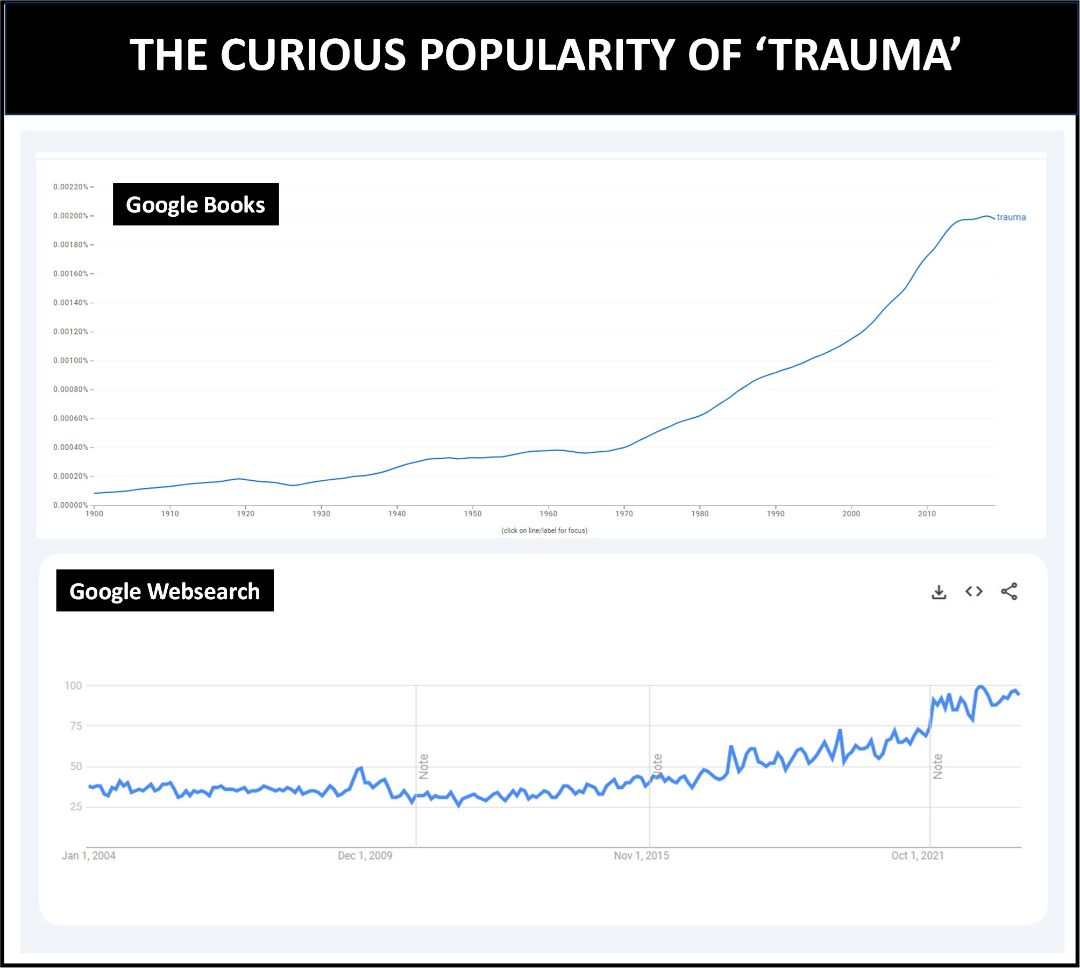

🚨 UNPACKING THE CURIOUS POPOLARITY OF #TRAUMA: Are we going slightly mad?! 🤯🔍
TRAUMA is defined as the "lasting emotional response that often results from living through a distressing event. Experiencing a traumatic event can harm a person's sense of safety, sense of self, and ability to regulate emotions and navigate relationships".
But trauma has long transcended its specialist medical roots, permeating conversations about any sort of personal, organizational or societal ailments. The surge in trauma consultancy and therapy raises some eyebrows, and maybe it's time to unpack this trend.
The roots of the trauma discourse can be traced back to Freud and Breuer's groundbreaking investigations into hysteria at the turn of the century. In their 'Preliminary Communication' published in the Studies in Hysteria in 1895, they proposed that trauma is a precipitating factor for hysteria. While the manifestations of hysteria are often physical, their etiology is not organically endogenous; it doesn't originate within the afflicted individual's body. The conceptualization of external causes of hysteria marked a fundamental departure from established beliefs prevailing at that time.
Of course, Freud's theory of hysteria holds broader significance as it was conceived as a comprehensive theory of the mind. Perhaps, this explains our contemporary affinity for the concept—a shared sentiment that the boundaries of sanity are blurred, and many of us feel a subtle inclination towards a collective sense of madness.
However, it is surprising that our insistence on trauma seems to also underscore our inclination to attribute our suffering to external causes. Equally problematic is our apparent eagerness to seek psychological treatment for resolution. Delving into Freud and Breuer's analysis, the specific origin of hysteria is mnemic—an emotionally charged memory of trauma that triggers its manifestations. Therapy, therefore, focuses on the "talking cure" or a more specific "abreaction", by way of an emotional response, for example by weeping or becoming aggressive. Perhaps examples of this might be observed not only in the proliferation of "trauma coaching", but also in rage-fueled public altercations, like disputes over accidents ('road rage') or attacks on green protesters.
While trauma counseling certainly has its place, its populist adoption prompts reflection. There certainly seems to be a risk that when "everything is trauma", nothing is. Could the "trauma discourse" be a convenient diversion from our collective accountability for he world's troubles? Is it possibly a misguided attempt to feel good about ourselves without actively contributing to necessary change? The question lingers: Will personal or collective displays of emotional "trauma therapy" genuinely contribute to the betterment of society? 🤔💭
Who knows...
#psychology #management #leadership #leadershipdevelopment #transformation #goodorganisations
🚨 UNPACKING THE CURIOUS POPOLARITY OF #TRAUMA: Are we going slightly mad?! 🤯🔍
TRAUMA is defined as the "lasting emotional response that often results from living through a distressing event. Experiencing a traumatic event can harm a person's sense of safety, sense of self, and ability to regulate emotions and navigate relationships".
But trauma has long transcended its specialist medical roots, permeating conversations about any sort of personal, organizational or societal ailments. The surge in trauma consultancy and therapy raises some eyebrows, and maybe it's time to unpack this trend.
The roots of the trauma discourse can be traced back to Freud and Breuer's groundbreaking investigations into hysteria at the turn of the century. In their 'Preliminary Communication' published in the Studies in Hysteria in 1895, they proposed that trauma is a precipitating factor for hysteria. While the manifestations of hysteria are often physical, their etiology is not organically endogenous; it doesn't originate within the afflicted individual's body. The conceptualization of external causes of hysteria marked a fundamental departure from established beliefs prevailing at that time.
Of course, Freud's theory of hysteria holds broader significance as it was conceived as a comprehensive theory of the mind. Perhaps, this explains our contemporary affinity for the concept—a shared sentiment that the boundaries of sanity are blurred, and many of us feel a subtle inclination towards a collective sense of madness.
However, it is surprising that our insistence on trauma seems to also underscore our inclination to attribute our suffering to external causes. Equally problematic is our apparent eagerness to seek psychological treatment for resolution. Delving into Freud and Breuer's analysis, the specific origin of hysteria is mnemic—an emotionally charged memory of trauma that triggers its manifestations. Therapy, therefore, focuses on the "talking cure" or a more specific "abreaction", by way of an emotional response, for example by weeping or becoming aggressive. Perhaps examples of this might be observed not only in the proliferation of "trauma coaching", but also in rage-fueled public altercations, like disputes over accidents ('road rage') or attacks on green protesters.
While trauma counseling certainly has its place, its populist adoption prompts reflection. Could it be a convenient diversion from our collective accountability for he world's troubles? Is it possibly a misguided attempt to feel good about ourselves without actively contributing to necessary change? The question lingers: Will personal or collective displays of emotional "trauma therapy" genuinely contribute to the betterment of society? 🤔💭
Who knows...
#psychology #management #leadership #leadershipdevelopment #transformation #goodorganisations
05-12-2023

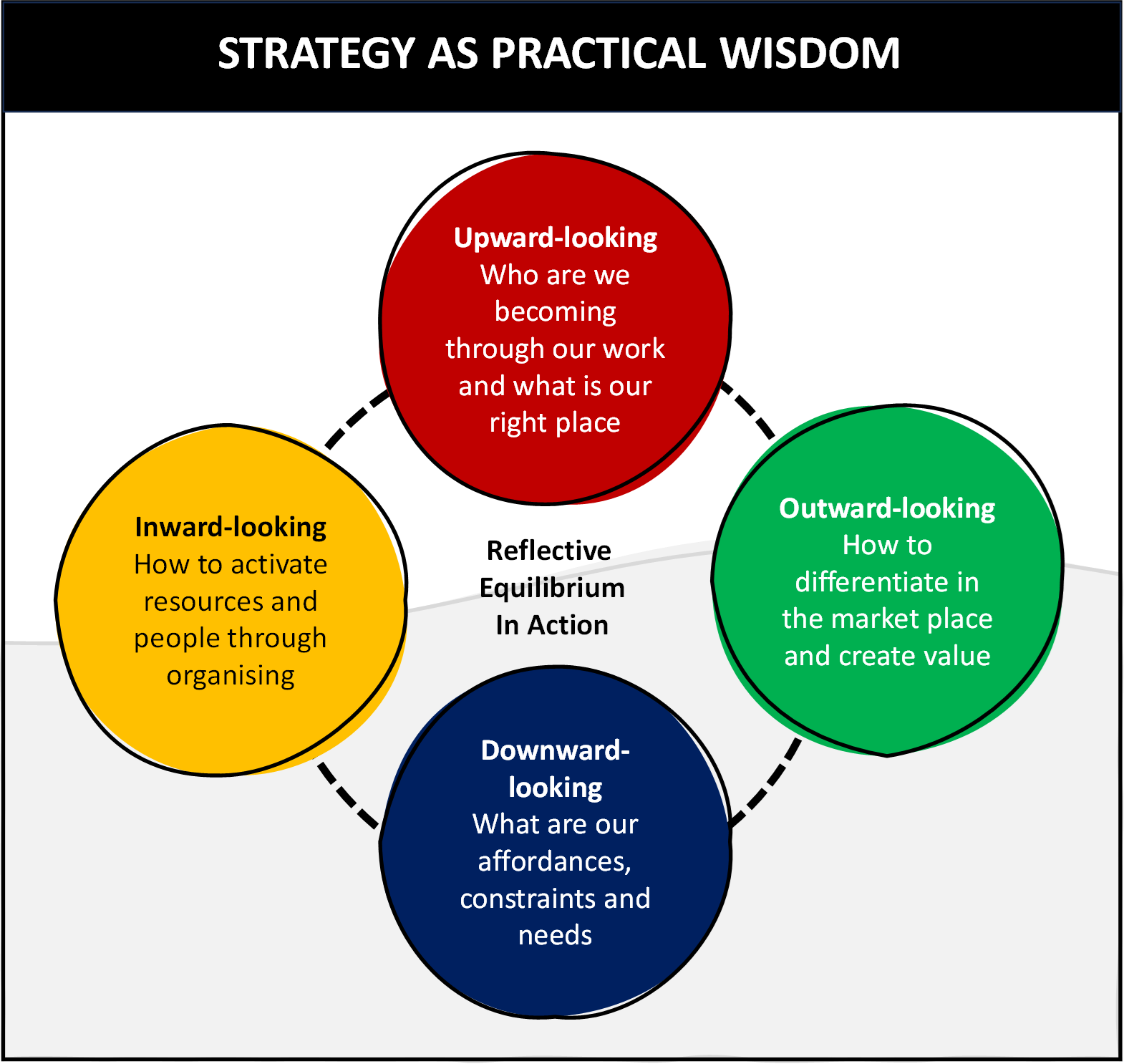

What exactly is the essence of STRATEGY? 🌐🚀
Strategy is more than just a fancy word—at least in a business context it implies a) a comprehensive plan or a set of coordinated actions designed to b) achieve specific goals and objectives, and c) involves making choices and allocating resources - opening up the intricate dance between ambition and practicality.
In business schools we often get caught up in the latest strategic hype —from the need for entry barriers to avoid competition to the eternal debate of differentiation vs. cost, from the power of integrated value chains to the buzz of everything being API-driven, and the latest demand for everybody to be an app or a platform. But the reality is more nuanced, and as Henry Mintzberg aptly noted, strategies are seldom perfect plants in a hothouse; they grow like weeds in a garden. Through shared experience, strategies emerge.
However, amidst the focus on methods and tools, and the popular obsession with complexity and emergence, we tend to overlook that strategic decisions shape not just outcomes but the very essence of who we are. Thus, beyond the cacophonic noise of management prophets and simplistic recipes, strategy should prompt us to question the worthiness of our path. Not every strategic option is "worth" pursuing, independent of its potential to generate cash flows downstream - and the point cannot be to make profits without deserving them.
Thus understood, strategising is a journey towards wisdom, both individually and collectively, requiring a profound understanding of the external and internal worlds, as well as our values and constraints. Hence, in the rush to close the year and generate our next beautiful annual report, we might want to take time to reflect a little deeper. We must be ready to discern and stand up for the kind of weed we are about to become. 🌿✨
What exactly is the essence of STRATEGY? 🌐🚀
At its core, strategy is more than just a fancy word—at least in a business context it implies a) a comprehensive plan or a set of coordinated actions designed to b) achieve specific goals and objectives, and c) involves making choices and allocating resources - opening up the intricate dance between ambition and practicality.
In business schools we often get caught up in the latest strategic hype —from the need for entry barriers to the eternal debate of differentiation vs. cost, from the power of integrated value chains to the buzz of everything being API-driven, and the latest demand for everything to be an app or a platform. But the reality is more nuanced, and what tends to be overlooked is the essential reflection on who we are and who we aspire to become. Not every strategic option is "worth" pursuing, independent of its potential to generate cash flows downstream.
Beyond the noise of management prophets-of-sale, strategy also prompts us to question the worthiness of our path. Amidst the focus on methods and tools, it's crucial to remember that strategic decisions shape not just outcomes but the very essence of who we are. It's a journey of wisdom, both individually and collectively, requiring a profound understanding of the external and internal worlds, as well as our values and constraints.
As Henry Mintzberg wisely noted, strategies aren't perfect plants in a hothouse; they grow like weeds in a garden. Through experience and reflection, strategies emerge. Yet, we should not forget the essential role of judgment, and indeed accountability — we must be ready to discern and stand up for the kind of weed we intend to become. 🌿✨
#strategy #leadership #goodleadership #wisdom #StrategicWisdom #ReflectiveAction #BusinessStrategyInsights
25-11-2023



A CALL FOR WISE LEADERSHIP (& a more fruitful reading of Plato's Republic)
Paraphrasing Plato's famous assertion, genuine transformation within organizations is unachievable unless philosophers become leaders and leaders adopt a philosophical mindset. Why?
According to Plato, philosophers control their passions, in order to delve deeper into the exploration of reality. Within this reality, they uncover the forms—ideals that imbue things in our world with qualities such as goodness, beauty, or justice. Forms transcend mere common qualities; they represent essential reality, not created but only recognized by the human mind. As we learn to discern forms, knowledge transforms into wisdom. Forms begin to serve as standards against which we assess our lives, and act as deep sources of inspiration, compelling us to strive toward excellence. Plato suggests that by practicing wisdom, we not only lead good lives individually but also contribute to society. Humans are inherently social beings and genuine excellence is always the excellence of a social creature—the excellence of the citizen.
Ergo, if we want our organizations to embody worthy ideals, leaders within these organizations must turn to philosophy. Goodness and justice can only manifest themselves if they are imminent in the lives of leaders. Wise leaders strive not only for self-improvement to reach their full potential but also shape their organizations to enable every member to live a good life according to their capacity.
Herein lies a common misunderstanding of Plato's Republic. Good leadership is never pursued for the sake of the leader but for the good of the organization. When leaders deviate from reason to fulfill personal desires, especially the pursuit of power, they transform into tyrants. According to Plato, power is finite, and its pursuit as an end invariably leads to its accumulation through force by a few over the many. Conversely, wisdom and knowledge are infinite - there's a shared recognition that the more wisdom a community possesses, the more it flourishes. Hence, for Plato's philosopher-kings, there are only two ends: the understanding of the forms and their realization in the structures, routines, and life of the community. True practical wisdom consists in bringing these two ends together.
This also might serve as an appropriate reminder to all those passionately advocating for a shift from SCARCITY TO ABUNDANCE "MINDSETS" as a solution to our current troubles. Firstly, what truly matters is not the abundance of resources, opportunities, or successes but the abundance of wisdom. Secondly, the key to successful transformation is not merely mindset but actual practice!
#leadership #leadershipdevelopment #philosophy #wisdom
Image: AI generator
A CALL FOR WISE LEADERSHIP (& a more fruitful reading of Plato's Republic)
Paraphrasing Plato's famous assertion, genuine transformation within organizations is unachievable unless philosophers become leaders and leaders adopt a philosophical mindset. Why?
According to Plato, philosophers control their passions, in order to delve deeper into the exploration of reality. Within this reality, they uncover the forms—ideals that imbue things in our world with qualities such as goodness, beauty, or justice. Forms transcend mere common qualities; they represent essential reality, not created but only recognized by the human mind. As we learn to discern forms, knowledge transforms into wisdom. Forms begin to serve as standards against which we assess our lives, and act as deep sources of inspiration, compelling us to strive toward excellence. Plato suggests that by practicing wisdom, we not only lead good lives individually but also contribute to society. Humans are inherently social beings and genuine excellence is always the excellence of a social creature—the excellence of the citizen.
Ergo, if we want our organizations to embody worthy ideals, leaders within these organizations must turn to philosophy. Goodness and justice can only manifest themselves if they are imminent in the lives of leaders. Wise leaders strive not only for self-improvement to reach their full potential but also shape their organizations to enable every member to live a good life according to their capacity.
Herein lies a common misunderstanding of Plato's Republic. Good leadership is never pursued for the sake of the leader but for the good of the organization. When leaders deviate from reason to fulfill personal desires, especially the pursuit of power, they transform into tyrants. According to Plato, power is finite, and its pursuit as an end invariably leads to its accumulation through force by a few over the many. Conversely, wisdom and knowledge are infinite - there's a shared recognition that the more wisdom a community possesses, the more it flourishes. Hence, for Plato's philosopher-kings, there are only two ends: the understanding of the forms and their realization in the structures, routines, and life of the community. True practical wisdom consists in bringing these two ends together.
This also might serve as an appropriate reminder to all those passionately advocating for a shift from SCARCITY TO ABUNDANCE "MINDSETS" as a solution to our current troubles. Firstly, what truly matters is not the abundance of resources, opportunities, or successes but the abundance of wisdom. Secondly, the key to successful transformation is not merely mindset but actual practice!
#leadership #leadershipdevelopment #philosophy #wisdom
Image: AI generator
25-11-2023
Eureka! The difference between #LEADERS AND #MANAGERS COMES DOWN TO A RATIO OF QUESTIONS TO ANSWERS? Really? That's a good one! Would it vary with the weather?
A recent post by Gary Hamel had suggested that: "A critical distinction between leaders and managers is their ratio of questions to answers. Managers are always more inclined to tell than to ask, so their Q:A ratio is < 1. A leader, by contrast, is eager to learn, and has a Q:A ratio that's >1. What's your Q:A ratio?"
Fabulous! It seems seems like good leadership boils down to some behavioral regression analysis. What about open questions? Could there be a closed vs. open question ratio? OQ:CQ>1? Or perhaps personal questions, like a leaders-who-know-the-first-name-of-your-wife-and-children ratio? Like POQ:NPCQ>1? Language skills could play a role too, like people who can ask questions in local languages. What's your LLPOQ:NLLNPCQ ratio?! Maybe even a ratio of good questions vs. silly questions. Or perhaps the entire idea is just humbug! 😄
Let me be very clear, this is not an ad hominem critique. An iron rule in leadership is that we never become big by making other people small. Gary's work has been enlightening for me since my undergraduate days at Bologna and Berkeley, and his lectures at #LBS were absolutely iconic. However, we must be cautious not to succumb to simplistic recipes for leadership development.
Good leadership extends beyond individual leaders, and the development of leaders involves more than just simplistic and manipulative sales techniques. And as Henry Mintzberg has long emphasized, the distinction between leadership and management is largely a myth, often perpetuated by institutions that might not have a great track record in leadership AND management in the first place. 😉
Commenting on: https://lnkd.in/edsxMgCP
#leadership #leadershipdevelopment #maycontainlies #management #personaldevelopment
Eureka! The difference between #LEADERS AND #MANAGERS COMES DOWN TO A RATIO OF QUESTIONS TO ANSWERS? Really? That's a good one! Would it vary with the weather?
A recent post by Gary Hamel had suggested that: "A critical distinction between leaders and managers is their ratio of questions to answers. Managers are always more inclined to tell than to ask, so their Q:A ratio is < 1. A leader, by contrast, is eager to learn, and has a Q:A ratio that's >1. What's your Q:A ratio?"
Fabulous! It seems seems like good leadership boils down to some behavioral regression analysis. What about open questions? Could there be a closed vs. open question ratio? OQ:CQ>1? Or perhaps personal questions, like a leaders-who-know-the-first-name-of-your-wife-and-children ratio? Like POQ:NPCQ>1? Language skills could play a role too, like people who can ask questions in local languages. What's your LLPOQ:NLLNPCQ ratio?! Maybe even a ratio of good questions vs. silly questions. Or perhaps the entire idea is just humbug! 😄
Let me be very clear, this is not an ad hominem critique. An iron rule in leadership is that we never become big by making other people small. Gary's work has been enlightening for me since my undergraduate days at Bologna and Berkeley, and his lectures at #LBS were absolutely iconic. However, we must be cautious not to succumb to simplistic recipes for leadership development.
Good leadership extends beyond individual leaders, and the development of leaders involves more than just simplistic and manipulative sales techniques. And as Henry Mintzberg has long emphasized, the distinction between leadership and management is largely a myth, often perpetuated by institutions that might not have a great track record in leadership AND management in the first place. 😉
Commenting on: https://lnkd.in/edsxMgCP
#leadership #leadershipdevelopment #maycontainlies #management #personaldevelopment
22-11-2023



#Leadership, so pragmatists have often argued, is an incremental movement forward. We disagree. We believe it inherently involves a double-movement – progressing both forward and upwards.
As it turns out, the dichotomy between Aristotle and Plato, as depicted in Raffael’s famous “School of Athens” (1509-1511, Vatican Museums, Italy), is vastly overstated. Aristotle, pointing towards the real world, never fully abandons his master’s Platonic ideals, residing in the celestial realm. Rather, as Otto Scharmer in his less-known yet excellent work on “Aesthetics as a category of strategic leadership” illustrates, he integrates these with “telos”, providing his theory of forms with both empirical and metaphysical foundations.
Whether good leadership therefore demands love, as Saint Augustine argued, or justice, as in Plato's Republic, is debatable. It likely requires both. In the words of Martin Luther King: "Power without love is reckless, and love without power is sentimental. Power at its best is love implementing the demands of justice, and justice at its best is power correcting everything that stands against love."
Echoing his sentiment, Bill Sloane Coffin, the unforgettable warrior for the human spirit, reminds us: “Let justice not charity roll down like mighty waters!”
#leadershipdevelopment #JusticeAndLove #goodleadership #management
19-11-2023
"It is cognitive, not demographic, diversity that achieves [...] a healthy culture, reduced groupthink, new talent unlocked, and greater understanding of and provision for diverse consumer needs. The FCA’s proposals require reporting of demographic diversity statistics without any evidence that they improve cognitive diversity, let alone performance. Indeed, the equating of demographic diversity to cognitive diversity (believing the former will automatically reduce groupthink) is unfair to both men and women, pigeon-holing and stereotyping how they think by their gender (and the same is true for race, age etc.). How a person thinks is affected by far more than just their demographic characteristics. People are not prisoners of their birth."
Bravo, Alex! We've been saying it forever, but the populist #diversity dogma seems to proliferate, largely unquestioned. Truth is, quotas are no substitute for justice, nor better performance. As you suggest, while we must ensure equality of access - and be careful that our internal processes do not undermine it - we should prioritise inclusion, not diversity. And in terms of regulation we'd better focus on output, not input measures.
Commenting on: https://www.linkedin.com/posts/aedmans_in-yesterdays-post-on-the-fcas-diversity-activity-7131914059636994048-72Gc?utm_source=share&utm_medium=member_desktop
Link to full paper: https://alexedmans.com/wp-content/uploads/2023/11/FCA-Diversity-2023-Final.pdf
"It is cognitive, not demographic, diversity that achieves [...] a healthy culture, reduced groupthink, new talent unlocked, and greater understanding of and provision for diverse consumer needs. The FCA’s proposals require reporting of demographic diversity statistics without any evidence that they improve cognitive diversity, let alone performance. Indeed, the equating of demographic diversity to cognitive diversity (believing the former will automatically reduce groupthink) is unfair to both men and women, pigeon-holing and stereotyping how they think by their gender (and the same is true for race, age etc.). How a person thinks is affected by far more than just their demographic characteristics. People are not prisoners of their birth."
Bravo, Alex! We've been saying it forever, but the populist #diversity dogma seems to proliferate, largely unquestioned. Truth is, quotas are no substitute for justice, nor better performance. As you suggest, while we must ensure equality of access - and be careful that our internal processes do not undermine it - we should prioritise inclusion, not diversity. And in terms of regulation we'd better focus on output, not input measures.
Commenting on: https://www.linkedin.com/posts/aedmans_in-yesterdays-post-on-the-fcas-diversity-activity-7131914059636994048-72Gc?utm_source=share&utm_medium=member_desktop
Link to full paper: https://alexedmans.com/wp-content/uploads/2023/11/FCA-Diversity-2023-Final.pdf
#Leadership, so pragmatists have often argued, is an incremental movement forward. We disagree. We believe it inherently involves a double-movement – progressing both forward and upwards.
As it turns out, the dichotomy between Aristotle and Plato, as depicted in Raffael’s famous “School of Athens” (1509-1511, Vatican Museums, Italy), is vastly overstated. Aristotle, pointing towards the real world, never fully abandons his master’s Platonic ideals, residing in the celestial realm. Rather, as Otto Scharmer in his less-known yet excellent work on “Aesthetics as a category of strategic leadership” illustrates, he integrates these with “telos”, providing his theory of forms with both empirical and metaphysical foundations.
Whether good leadership therefore demands love, as Saint Augustine argued, or justice, as in Plato's Republic, is debatable. It likely requires both. In the words of Martin Luther King: "Power without love is reckless, and love without power is sentimental. Power at its best is love implementing the demands of justice, and justice at its best is power correcting everything that stands against love."
Echoing his sentiment, Bill Sloane Coffin, the unforgettable warrior for the human spirit, reminds us: “Let justice not charity roll down like mighty waters!”
#leadershipdevelopment #JusticeAndLove #goodleadership #management
18-11-2023

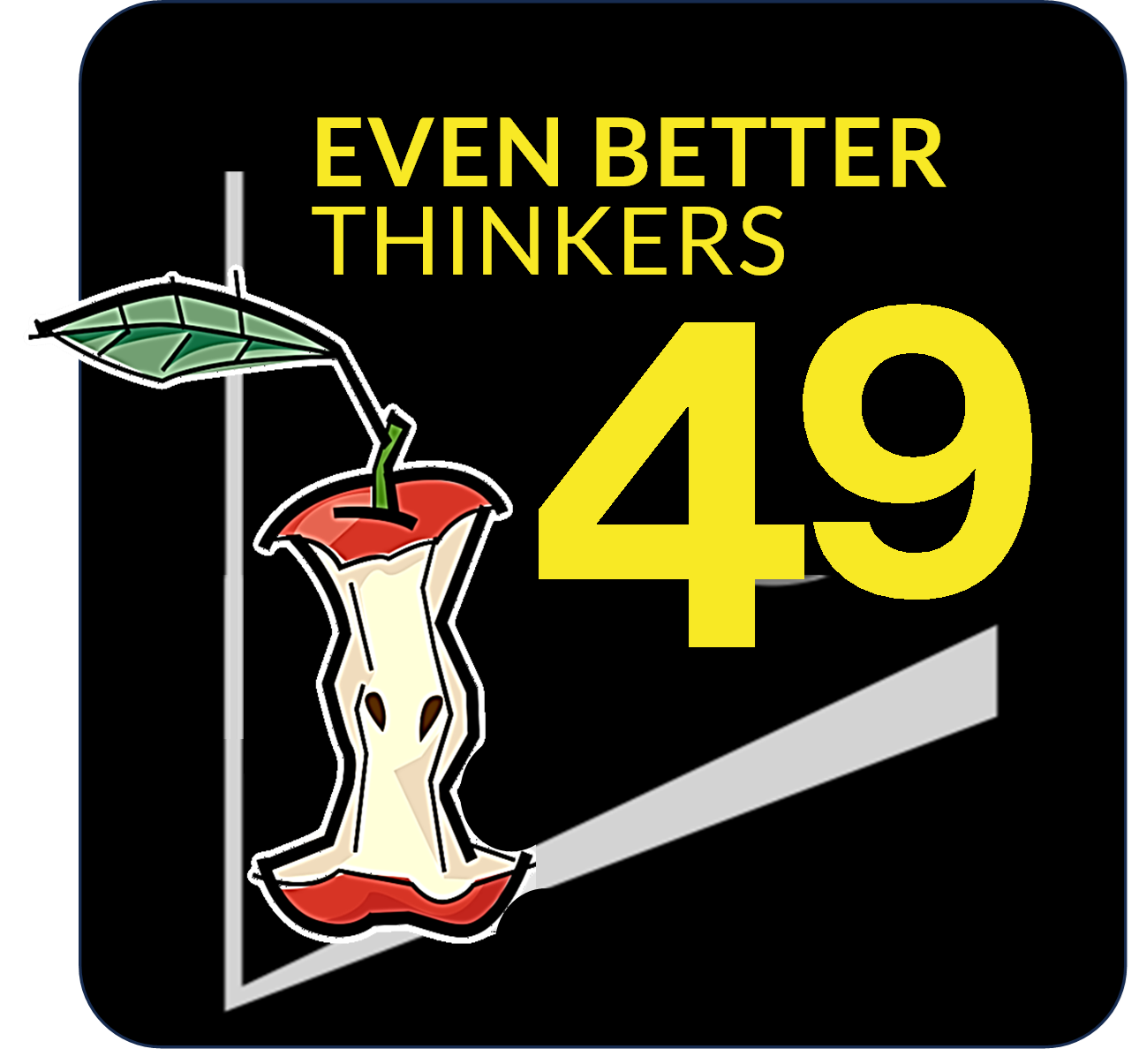

🎉 CONGRATULATIONS, you've been personally selected to join the EVEN-BETTER-THINKERS49 AWARDS!
Because, let's face it, who needs Thinkers>49 when you can be part of something even more spectacularly superficial and elitist?
🌟 Brace yourself for a relentless journey into the heart of academic populism, narcissism, and the enthralling world of pointless competition—all for the glorious prize of more 'likes'!
🧠 Forget profound insights and groundbreaking ideas; here, it's all about crafting the most buzzworthy headline, the catchiest soundbite, and the most flamboyant display of anachronistic intellectual grandeur. Who cares about truth, ethics, impact or professional collaboration when you can have the adoration of the masses? Truth is so last season—'likes' are the new currency!
🏆 So, prepare for a riveting ride of shameless self-promotion, shameless name-dropping, and shameless pandering to the whims of the online audience. Because, let's be honest, who needs genuine intellectual discourse or peer reviews when you can have a popularity contest to sell more consultancy and commercial services?
🚀 Welcome to the Even-Better-Thinkers 49 Awards—an even more exclusive club for those who prefer the glittering facade of acclaim over the gritty pursuit of truth. Remember, in this arena, the only thing that matters is the applause of the masses. Happy liking! 🌐💬
#EvenBetterThinkers49 #PopularityRocks #SaturdaySatire #CourtesyOfChatGPT ;-)
🎉 CONGRATULATIONS, you've been personally selected to join the EVEN-BETTER-THINKERS49 AWARDS!
Because, let's face it, who needs Thinkers>49 when you can be part of something even more spectacularly superficial and elitist?
🌟 Brace yourself for a relentless journey into the heart of academic populism, narcissism, and the enthralling world of pointless competition—all for the glorious prize of more 'likes'!
🧠 Forget profound insights and groundbreaking ideas; here, it's all about crafting the most buzzworthy headline, the catchiest soundbite, and the most flamboyant display of anachronistic intellectual grandeur. Who cares about truth, ethics, impact or professional collaboration when you can have the adoration of the masses? Truth is so last season—'likes' are the new currency!
🏆 So, prepare for a riveting ride of shameless self-promotion, shameless name-dropping, and shameless pandering to the whims of the online audience. Because, let's be honest, who needs genuine intellectual discourse or peer reviews when you can have a popularity contest to sell more consultancy and commercial services?
🚀 Welcome to the Even-Better-Thinkers 49 Awards—an even more exclusive club for those who prefer the glittering facade of acclaim over the gritty pursuit of truth. Remember, in this arena, the only thing that matters is the applause of the masses. Happy liking! 🌐💬
#EvenBetterThinkers49 #PopularityRocks #SaturdaySatire #CourtesyOfChatGPT ;-)
17-11-2023

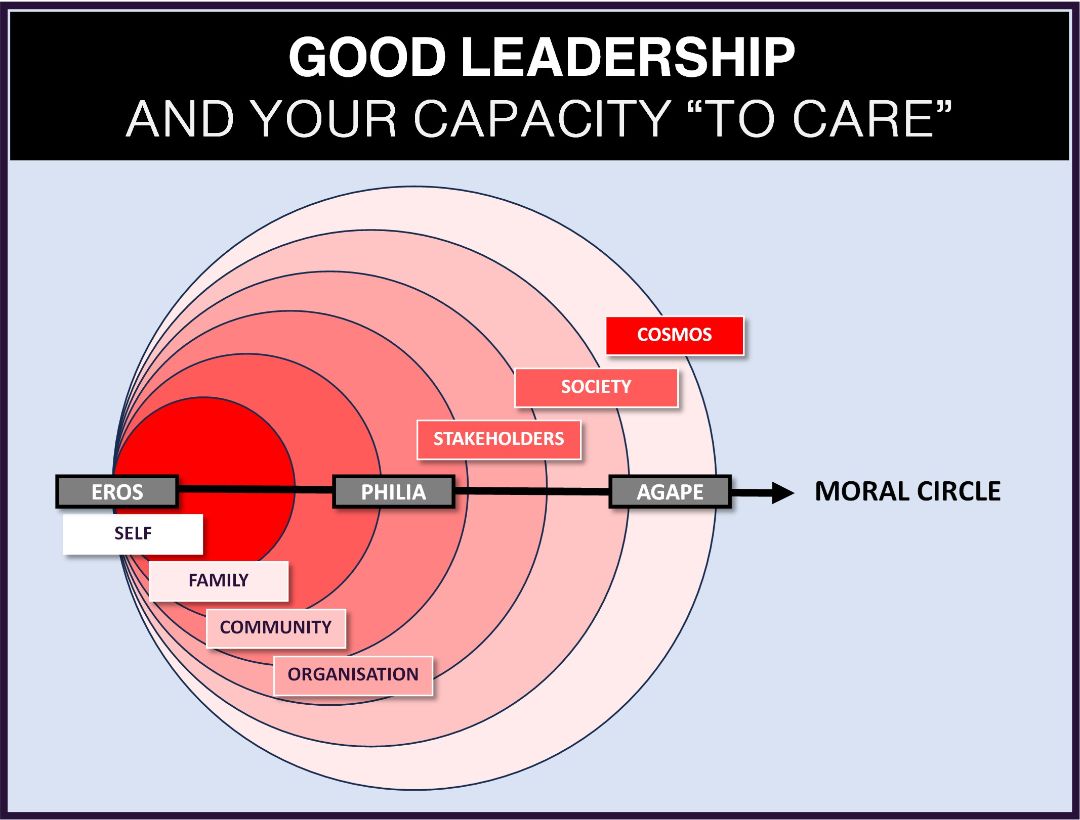

Ever heard those tear-jerking tales of executives who have sudden epiphanies and decide to ditch an important board meeting for their son's (sic!) impromptu football practice?
These might play well in certain old-boys golf club circles, but for the rest of us, they're just plain absurd. Leaders with a penchant for narcissism and self-obsession should never have obtained a boardroom seat in the first place. And I reckon we couldn't care less about their direct kin. Decision-making in large organisations - beyond the Italian mafia - is not a family affair and requires the balancing of diverse, equally important and often conflicting stakeholder views. Good leadership needs a genuine concern for all the multiple voices at stake.
In Greek philosophy, we find apt depictions of a leader's evolution toward elevated and mature expressions of care and love. The journey commences with the fervent Eros, embodying a self-centered craving for life and pleasure. Progressing to the enduring Philia, the leader cultivates profound friendships founded on shared values, fostering bonds grounded in mutual respect and unwavering loyalty. Finally, Agape emerges as the epitome of a charitable love for truth, good and beauty; a manifestation of selfless and gratuitous reciprocity, emphasizing the leader's capacity to transcend personal interests for the common good.
Hence, move over "authenticity" and "assertiveness"; forget the corporate sales track record! A better litmus test for a leader's maturity might be "moral sensitivity" —their ability to care. It's about the continual expansion of one's "moral circle" to ensure decisions affecting diverse stakeholders groups are thoughtfully considered within the broad context of an interdependent whole.
So, the next time you come across a "heartwarming" story about executives canceling a company dinner for their wife's wedding anniversary, maybe it's time to reconsider the applause. While personal commitments are undoubtedly important, it's much more critical that leaders are able to question the broader impact of their decisions on the team, the company, the economy, society and planet. Simply meeting the minimum requirements for showing care in their family roles doesn't exactly scream of maturity or deserve a standing ovation.
Genuine leadership demands a bit more— a commitment to aim beyond individual circles, striving to bring to life the best in ourselves for the good of all.
#leadership #leadershipdevelopment #transformation
Ever heard those tear-jerking tales of executives who have sudden epiphanies and decide to ditch an important board meeting for their son's (sic!) impromptu football practice?
These might play well in certain old-boys golf club circles, but for the rest of us, they're just plain absurd. Leaders with a penchant for narcissism and self-obsession should never have obtained a boardroom seat in the first place. And I reckon we couldn't care less about their direct kin. Decision-making in large organisations - beyond the Italian mafia - is not a family affair and requires the balancing of diverse, equally important and often conflicting stakeholder views. Good leadership needs a genuine concern for all the multiple voices at stake.
In Greek philosophy, we find apt depictions of a leader's evolution toward elevated and mature expressions of care and love. The journey commences with the fervent Eros, embodying a self-centered craving for life and pleasure. Progressing to the enduring Philia, the leader cultivates profound friendships founded on shared values, fostering bonds grounded in mutual respect and unwavering loyalty. Finally, Agape emerges as the epitome of a charitable love for truth, good and beauty; a manifestation of selfless and gratuitous reciprocity, emphasizing the leader's capacity to transcend personal interests for the common good.
Hence, move over "authenticity" and "assertiveness"; forget the corporate sales track record! A better litmus test for a leader's maturity might be "moral sensitivity" —their ability to care. It's about the continual expansion of one's "moral circle" to ensure decisions affecting diverse stakeholders groups are thoughtfully considered within the broad context of an interdependent whole.
So, the next time you come across a "heartwarming" story about executives canceling a company dinner for their wife's wedding anniversary, maybe it's time to reconsider the applause. While personal commitments are undoubtedly important, it's much more critical that leaders are able to question the broader impact of their decisions on the team, the company, the economy, society and planet. Simply meeting the minimum requirements for showing care in their family roles doesn't exactly scream of maturity or deserve a standing ovation.
Genuine leadership demands a bit more— a commitment to aim beyond individual circles, striving to bring to life the best in ourselves for the good of all.
#leadership #leadershipdevelopment #transformation
17-11-2023
Can innovative solutions solve our climate change challenge? Thus reads the newsletter from #BCG this morning...
The answer is: No. We must finally face the fact that there's no alternative to REDUCING production and consumption, and CHANGING our own behaviour. It's ludicrous how we're conspiring in avoidance of the easiest and most ethical answer to a problem we have created in the first place.
In a nutshell, this is the difference between a #sustainability myth and genuine #responsibility. Of course, it requires us to recognize that WE are the moral problem, not the world out there which we are continuing to destroy.
#leadership #Transformation #management
Can innovative solutions solve our climate change challenge? Thus reads the newsletter from #BCG this morning...
The answer is: No. We must finally face the fact that there's no alternative to REDUCING production and consumption, and CHANGING our own behaviour. It's ludicrous how we're conspiring in avoidance of the easiest and most ethical answer to a problem we have created in the first place.
In a nutshell, this is the difference between a #sustainability myth and genuine #responsibility. Of course, it requires us to recognize that WE are the moral problem, not the world out there which we are continuing to destroy.
#leadership #Transformation #management
16-11-2023
Someone suggested today that "CORPORATE CULTURE SHOULD BE EXACTLY WHAT OUR BIGGEST CUSTOMERS WANT IT TO BE". That statement still puzzles me.
Firstly, it seems to rest on a profound misunderstanding of what organizational culture truly entails. As Dave Snowden has long emphasized, culture is an emergent property of a complex social system, and not something that can simply be "shaped". Mats Alvesson, in agreement, eloquently challenges the simplistic notion that culture can be neatly abstracted and bundled up as some sort of idealised "package" which executives then send "down" on the motorways of corporate hierarchies to socialise employees.
Secondly, even if we ignore the ontological (and practical) challenge, why should a company's culture be dictated solely by the preferences of its largest customers? While customer input is valuable for product development, culture delves deeper into the core identity of an organization. It is about WHO WE ARE, how we treat each other, and what we are seeking to achieve together. Culture serves as a guiding anchor, offering clarity on the organization's purpose and influencing decisions about which customers to engage in the first place, and to what extent their preferences should be considered.
The implication that a company should tailor its culture to meet customer desires raises profound questions about the ethics of the organization itself. Should a church rewrite its gospel based on the desires of its parishioners? Should schools conform their culture to align with student preferences? Should Football clubs submit their souls to the narcissism of Qatari investors? Should McKinsey do as Purdue does? And if customers fluctuate frequently, should organisations do so, too? Such a perspective leads to implausible scenarios where the identity of organizations becomes purely contingent on external demands.
In summary, the notion that organizations should unquestioningly adhere to customer wishes appears to reflect a distinctly Americanized approach of unlimited commodification. "I sell, therefore I am".
To many European sensibilities, this idea must come across as, in a single word, absurd.
#leadership #hrcongress #hrm #business #transformation
Someone suggested today that "CORPORATE CULTURE SHOULD BE EXACTLY WHAT OUR BIGGEST CUSTOMERS WANT IT TO BE". That statement still puzzles me.
Firstly, it seems to rest on a profound misunderstanding of what organizational culture truly entails. As Dave Snowden has long emphasized, culture is an emergent property of a complex social system, and not something that can simply be "shaped". Mats Alvesson, in agreement, eloquently challenges the simplistic notion that culture can be neatly abstracted and bundled up as some sort of idealised "package" which executives then send "down" on the motorways of corporate hierarchies to socialise employees.
Secondly, even if we ignore the ontological (and practical) challenge, why should a company's culture be dictated solely by the preferences of its largest customers? While customer input is valuable for product development, culture delves deeper into the core identity of an organization. It is about WHO WE ARE, how we treat each other, and what we are seeking to achieve together. Culture serves as a guiding anchor, offering clarity on the organization's purpose and influencing decisions about which customers to engage in the first place, and to what extent their preferences should be considered.
The implication that a company should tailor its culture to meet customer desires raises profound questions about the ethics of the organization itself. Should a church rewrite its gospel based on the desires of its parishioners? Should schools conform their culture to align with student preferences? Should Football clubs submit their souls to the narcissism of Qatari investors? Should McKinsey do as Purdue does? And if customers fluctuate frequently, should organisations do so, too? Such a perspective leads to implausible scenarios where the identity of organizations becomes purely contingent on external demands.
In summary, the notion that organizations should unquestioningly adhere to customer wishes appears to reflect a distinctly Americanized approach of unlimited commodification. "I sell, therefore I am".
To many European sensibilities, this idea must come across as, in a single word, absurd.
#leadership #hrcongress #hrm #business #transformation
16-11-2023



WHAT DO YOU RECKON IS THE PREVAILING MINDSET IN HR?
HR SHOULD...
A) "help the business make more money" (Anachronistic-Instrumental)
B)"help people make more meaning" (so that the business can make more money) (Psychological-Instrumental)
C) "enable people collectively to bring to life the very best in themselves through work" (Ethical-Humanistic)
WHAT DO YOU RECKON IS THE PREVAILING MINDSET IN HR?
HR SHOULD...
A) "help the business make more money" (Anachronistic-Instrumental)
B)"help people make more meaning" (so that the business can make more money) (Psychological-Instrumental)
C) "enable people collectively to bring to life the very best in themselves through work" (Ethical-Humanistic)
16-11-2023

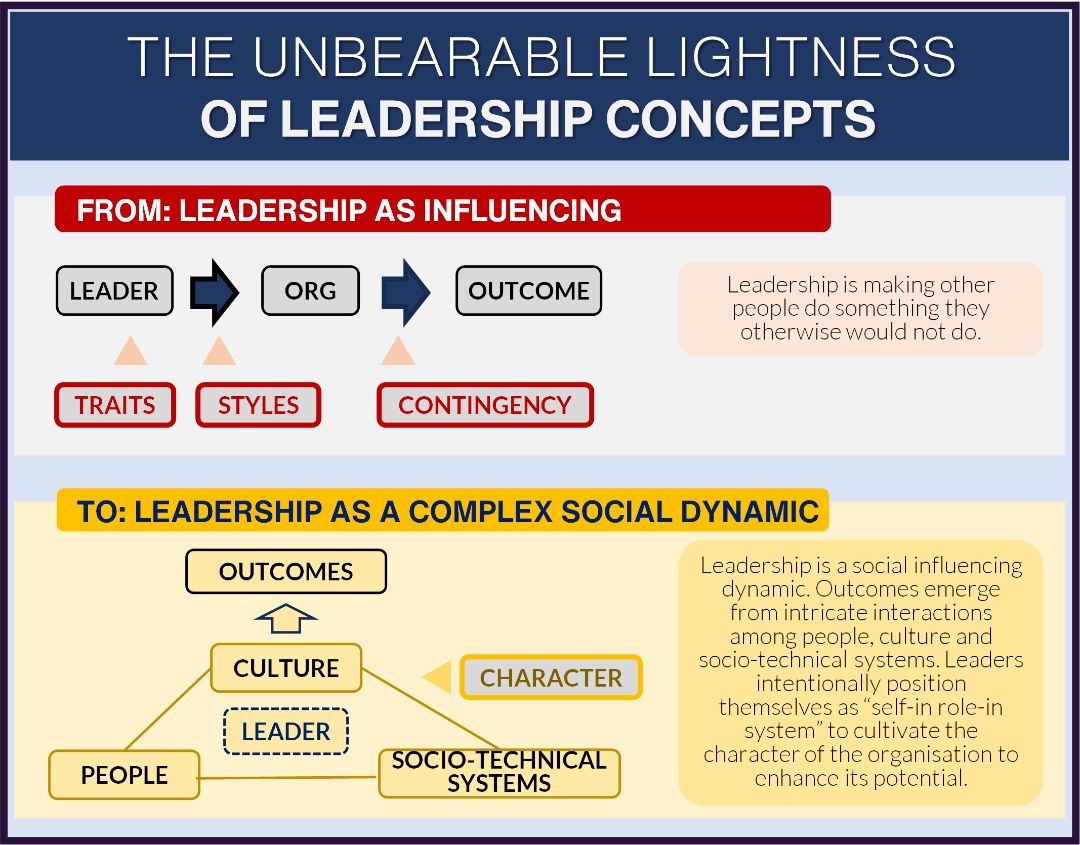

Maybe it is time to upgrade our understanding of #leadership, both from an epistemological and an ethical perspective.
Otherwise it is probably not a surprise if we are continually getting stuck in the mud of semantics.
#goodleadership #hrcongress
Maybe it is time to upgrade our understanding of #leadership, both from an epistemological and an ethical perspective.
Otherwise it is probably not a surprise if we are continually getting stuck in the mud of semantics.
#goodleadership #hrcongress
09-11-2023
The Road Less Traveled: #HR Leaders, Unite!
In a world where complexity reigns, where capitalism's grip on society threatens democracy, and where suffering pervades our organizations, we find ourselves at a crossroads. In order to reshape the future of work, HR must heed the call of transformation, daring to challenge the status quo and driving change for good.
For far too long, HR has grappled with an existential crisis, losing sight of its purpose and its potential to be a force for positive change. We've professionalized, we've gathered brilliant minds, but the truth is, people are no longer truly at the heart of what we do. We've wandered in the wilderness of indifference, too often lost in a labyrinth of bureaucracy and technology.
The path to real change is not lined with quick fixes or superficial solutions. It's a winding road that demands introspection, courage, and radical honesty. HR must confront its own role in creating the suffering it purports to alleviate. We must stop to purchase indulgences in the form of DEI programs, or distract ourselves with the latest technological marvels to atone for our shortcomings.
If we fail to transform, the #futureofwork will be the exact mirroring of our troubled present. HR must take the reins of leadership and commit to subordinate effectiveness to #ethics, #humanism and #sustainability. This calls not only for new ways to imagine our organisations, but for a profound, inward journey. HR must shed the chains of dependency on those in power. It must once again nurture a dual loyalty, towards both the business and the ideals of its profession. It must unify practitioners across organizations in a shared quest for what is right and good.
It takes bravery to confront our deepest fears, and stand up for what is just. The bedrock of any good organization is good people, and HR must be willing to lead the way, so that others might follow. Leadership itself has grown morally mute, and herein might lie an opportunity for HR to show its metal and step into the void. A new HR has the potential to be the vanguard of a coalition of the willing, fostering systemic change within an unjust economic system.
The clock is ticking and it's time to decide which road you are willing to travel. Will you perpetuate the unhappiness of the past, with more of the same but new fancy clothes? Or will you take the courageous leap toward a better world, one where work exudes dignity, the economy serves humanity, and our organizations shine as beacons of a good life for all?
Peter Senge once spoke of leadership as a community's ability to shape its future. Within the HR community, let the spark of unwavering determination to craft a better world of work grow! Let our actions be the testament to our commitment to brighter, more humane organisations. That famous future, the future of work, is already upon us. Friends, let us not squander it!
The Road Less Traveled: #HR Leaders, Unite!
In a world where complexity reigns, where capitalism's grip on society threatens democracy, and where suffering pervades our organizations, we find ourselves at a crossroads. In order to reshape the future of work, HR must heed the call of transformation, daring to challenge the status quo and driving change for good.
For far too long, HR has grappled with an existential crisis, losing sight of its purpose and its potential to be a force for positive change. We've professionalized, we've gathered brilliant minds, but the truth is, people are no longer truly at the heart of what we do. We've wandered in the wilderness of indifference, too often lost in a labyrinth of bureaucracy and technology.
The path to real change is not lined with quick fixes or superficial solutions. It's a winding road that demands introspection, courage, and radical honesty. HR must confront its own role in creating the suffering it purports to alleviate. We must stop to purchase indulgences in the form of DEI programs, or distract ourselves with the latest technological marvels to atone for our shortcomings.
If we fail to transform, the #futureofwork will be the exact mirroring of our troubled present. HR must take the reins of leadership and commit to subordinate effectiveness to #ethics, #humanism and #sustainability. This calls not only for new ways to imagine our organisations, but for a profound, inward journey. HR must shed the chains of dependency on those in power. It must once again nurture a dual loyalty, towards both the business and the ideals of its profession. It must unify practitioners across organizations in a shared quest for what is right and good.
It takes bravery to confront our deepest fears, and stand up for what is just. The bedrock of any good organization is good people, and HR must be willing to lead the way, so that others might follow. Leadership itself has grown morally mute, and herein might lie an opportunity for HR to show its metal and step into the void. A new HR has the potential to be the vanguard of a coalition of the willing, fostering systemic change within an unjust economic system.
The clock is ticking and it's time to decide which road you are willing to travel. Will you perpetuate the unhappiness of the past, with more of the same but new fancy clothes? Or will you take the courageous leap toward a better world, one where work exudes dignity, the economy serves humanity, and our organizations shine as beacons of a good life for all?
Peter Senge once spoke of leadership as a community's ability to shape its future. Within the HR community, let the spark of unwavering determination to craft a better world of work grow! Let our actions be the testament to our commitment to brighter, more humane organisations. That famous future, the future of work, is already upon us. Friends, let us not squander it!
09-11-2023

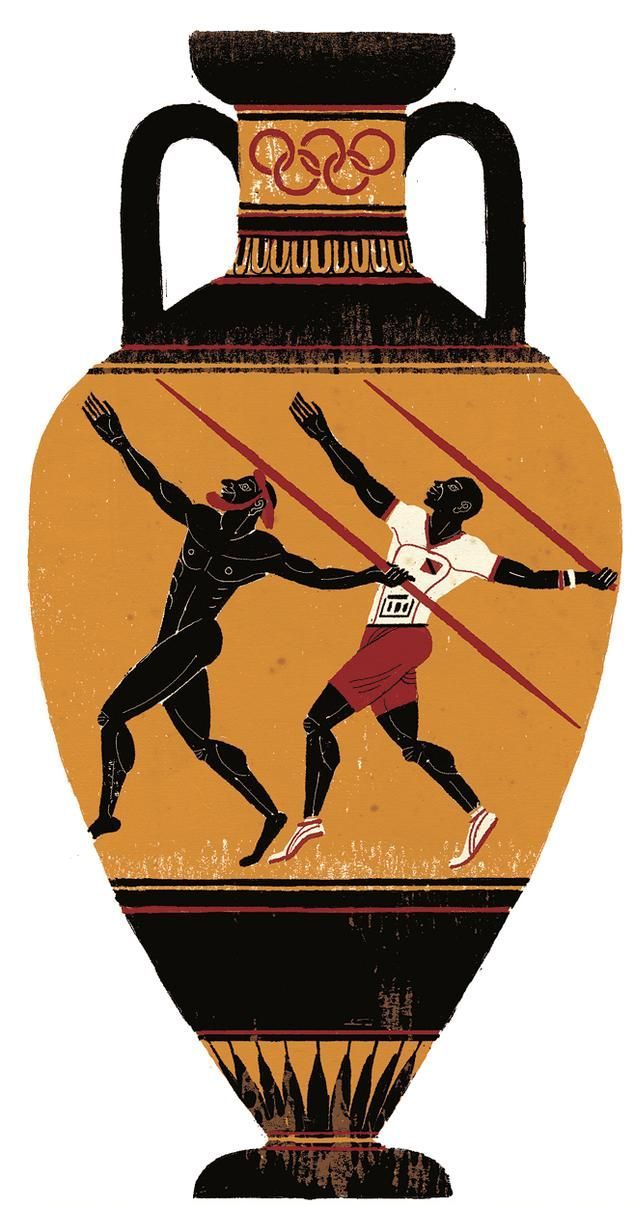

The Power of Perspective: Friendly vs. Positional Competition
#Competition is a driving force in human endeavors, but it can take on vastly different forms and outcomes. There is a striking difference between "friendly competition" and "positional competition" and how they shape our interactions and aspirations.
- Friendly Competition:
- Positional Competition:
- What sets these two types of competition apart?
Mindset: Friendly competition fosters a developmental mindset, encouraging individuals to learn and improve together. Positional competition often stems from a narrow insecure focus on outdoing others.
Outcome: Friendly competition tends to yield positive outcomes, driving innovation and collective advancement. Positional competition can lead to divisive outcomes, potentially causing harm to relationships and society as a whole.
Collaboration: In friendly competition, collaboration and support are highly valued. In positional competition, individuals may view cooperation as a sign of weakness.
Essence: The traditional Olympic motto is Citius, Altius, Fortius - Latin for "Faster, Higher, Stronger". It's inventor, Pierre Coubertin, said "these three words represent a programme of moral beauty. The aesthetics of sport are intangible". When true athletes compete, they showcase the best of human spirit. Coubertin's Olympic ideals are expressed in the Olympic creed: "The most important thing in the Olympic Games is not to win but to take part, just as the most important thing in life is not the triumph but the struggle. The essential thing is not to have conquered but to have fought well."
Understanding the distinction between these two forms of competition is vital. While competition can be a force for progress, choosing the right type can make all the difference in creating a harmonious and prosperous society. The choice is ours: to compete to co-elevate and shine together or to compete to dominate and cast shadows over one another.
The Power of Perspective: Friendly vs. Positional Competition
#Competition is a driving force in human endeavors, but it can take on vastly different forms and outcomes. There is a striking difference between "friendly competition" and "positional competition" and how they shape our interactions and aspirations.
- Friendly Competition:
- Positional Competition:
- What sets these two types of competition apart?
Mindset: Friendly competition fosters a developmental mindset, encouraging individuals to learn and improve together. Positional competition often stems from a narrow insecure focus on outdoing others.
Outcome: Friendly competition tends to yield positive outcomes, driving innovation and collective advancement. Positional competition can lead to divisive outcomes, potentially causing harm to relationships and society as a whole.
Collaboration: In friendly competition, collaboration and support are highly valued. In positional competition, individuals may view cooperation as a sign of weakness.
Essence: The traditional Olympic motto is Citius, Altius, Fortius - Latin for "Faster, Higher, Stronger". It's inventor, Pierre Coubertin, said "these three words represent a programme of moral beauty. The aesthetics of sport are intangible". When true athletes compete, they showcase the best of human spirit. Coubertin's Olympic ideals are expressed in the Olympic creed: "The most important thing in the Olympic Games is not to win but to take part, just as the most important thing in life is not the triumph but the struggle. The essential thing is not to have conquered but to have fought well."
Understanding the distinction between these two forms of competition is vital. While competition can be a force for progress, choosing the right type can make all the difference in creating a harmonious and prosperous society. The choice is ours: to compete to co-elevate and shine together or to compete to dominate and cast shadows over one another.
02-11-2023

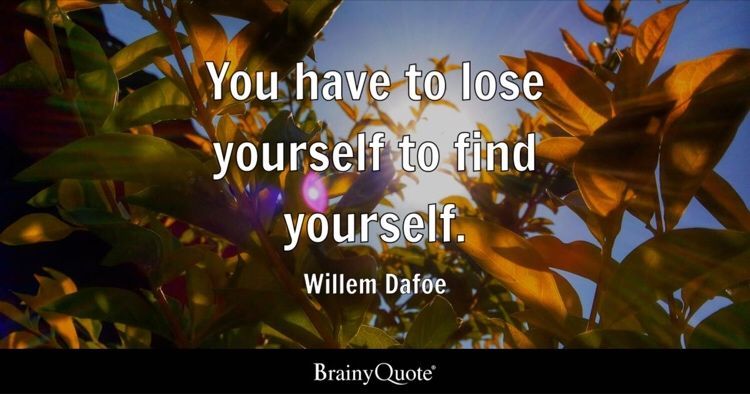

Truth be told, we're not "losing ourselves to find ourselves".
We're developing ourselves to find out that we never were in the first place, so that we can eventually find "the Other".
Everything else is a myth.
Truth be told, we're not "losing ourselves to find ourselves".
We're developing ourselves to find out that we never were, so that we can eventually find the Other.
Everything else is a myth.
02-11-2023

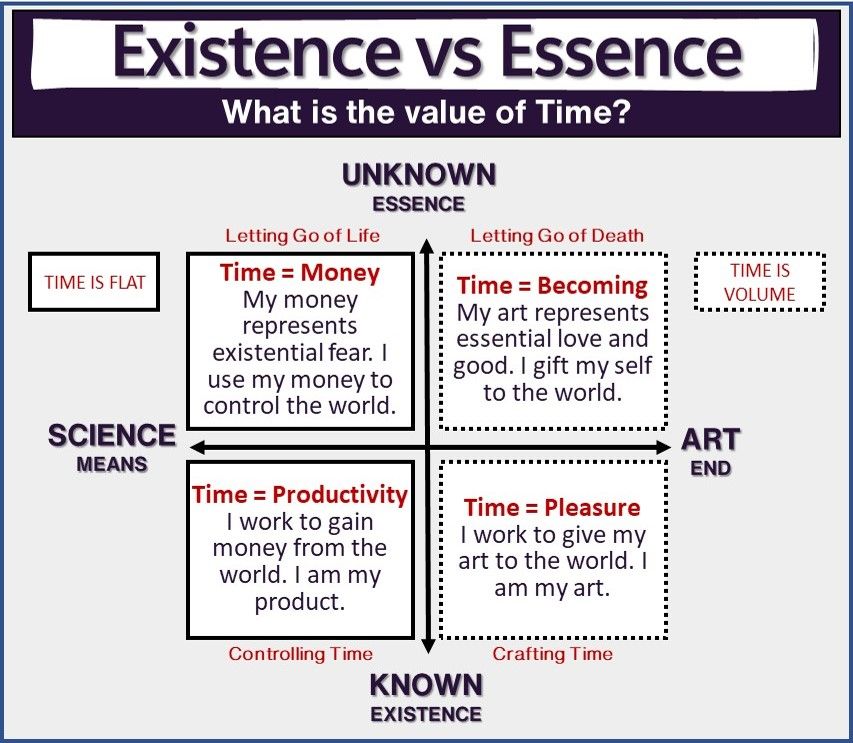

ARE YOU TRULY MAKING THE MOST OF YOUR TIME? HOW WOULD YOU KNOW?
Time is a concept that has captivated the human imagination for centuries. Maybe a transcendental category, maybe the eternal timekeeper, it oscillates between chronological and ontological, existence and essence, serving as both means and end. Our appreciation of time is deeply intertwined with our values.
a) Time is Volume
Time is an elusive essence, an endless entity we strive to grasp, yet it remains enigmatic. As expression of our becoming, it is a vessel filled with the potential for creation and love. We create time, as we gift ourselves to the world, infusing our actions with beauty and meaning.
b) Time is Pleasure
Time is a finite and tangible resource that we cherish and savor as an end in itself. It is a source of delight. Like the artist, we craft time to experience concrete moments of joy. Time, in this sense, is a precious gift to us that we must cherish and make the most of, by making each moment eternal.
c) Time is Productivity
Time is a measure for our capacity to gain productivity and achievement. Time is a tool and each moment, literally, counts. Like the scientist, we are managing our time to make the most of it. We are the product of our time.
d) Time is Money
Time is a flat, scarce, mechanistic entity. It ultimately controls and manipulates the world. We must account for our time not with who we are, but with what we have. Our abstract greed for the accumulation of money is driven by existential fear. Time is what we have to lose.
Time shapes us and we shape time. We must carefully consider how we interact with time, whether we let go of it, or succumb to it. Either way, time will shape the world in which we live.
Sed fugit interea irreparabile tempus (Virgil)
#Leadership #Leadershipdevelopment #Philosophy
ARE YOU TRULY MAKING THE MOST OF YOUR TIME? HOW WOULD YOU KNOW?
Time is a concept that has captivated the human imagination for centuries. Maybe a transcendental category, maybe the eternal timekeeper, it oscillates between chronological and ontological, existence and essence, serving as both means and end. Our appreciation of time is deeply intertwined with our values.
a) Time is Volume
Time is an elusive essence, an endless entity we strive to grasp, yet it remains enigmatic. As expression of our becoming, it is a vessel filled with the potential for creation and love. We create time, as we gift ourselves to the world, infusing our actions with beauty and meaning.
b) Time is Pleasure
Time is a finite and tangible resource that we cherish and savor as an end in itself. It is a source of delight. Like the artist, we craft time to experience concrete moments of joy. Time, in this sense, is a precious gift to us that we must cherish and make the most of, by making each moment eternal.
c) Time is Productivity
Time is a measure for our capacity to gain productivity and achievement. Time is a tool and each moment, literally, counts. Like the scientist, we are managing our time to make the most of it. We are the product of our time.
d) Time is Money
Time is a flat, scarce, mechanistic entity. It ultimately controls and manipulates the world. We must account for our time not with who we are, but with what we have. Our abstract greed for the accumulation of money is driven by existential fear. Time is what we have to lose.
Time shapes us and we shape time. We must carefully consider how we interact with time, whether we let go of it, or succumb to it. Either way, time will shape the world in which we live.
Sed fugit interea irreparabile tempus (Virgil)
#Leadership #Leadershipdevelopment #Philosophy
01-11-2023
It seems to me that the more we emphasize complexity, the more critical it becomes to examine the inherent ethics of our actions and the character of those responsible for taking them. Consequentialist ethics, based on predicting outcomes, seems destined to diminish in effectiveness.
Paradoxically, this may necessitate a decrease in the (negative) freedom for individual action and an increased reliance on rules. Neither the fervent call for long-term thinking and sustainability nor the fixation on agile iterations can fully insulate us from the challenge of anticipating the repercussions of our actions in a profoundly interconnected and uncertain world.
Calls for the market to resolve paradox, or for technology to fix it, appear to be, at best, wishful thinking and, dangerous, at worst.
#leadership #complexity #ethics #transformation #management
It seems to me that the more we emphasize complexity, the more critical it becomes to examine the inherent ethics of our actions and the character of those responsible for taking them. Consequentialist ethics, based on predicting outcomes, seems destined to diminish in effectiveness.
Paradoxically, this may necessitate a decrease in the (negative) freedom for individual action and an increased reliance on rules. Neither the fervent call for long-term thinking and sustainability nor the fixation on agile iterations can fully insulate us from the challenge of anticipating the repercussions of our actions in a profoundly interconnected and uncertain world.
Calls for the market to resolve paradox, or for technology to fix it, appear to be, at best, wishful thinking and, dangerous, at worst.
#leadership #complexity #ethics #transformation #management
25-10-2023
The obsessive quest for self-determination, in nation states as much as individuals, quickly leads to positional competition with others, and, ultimately, war.
Kate Raworth describes its modern epitome, the economic man: standing alone, money in hand, calculator in head, nature at his feet, and an insatiable appetite in his heart.
The obsessive quest for self-determination, in nation states as much as individuals, quickly leads to positional competition with others, and, ultimately, war.
Kate Raworth describes its modern epitome, the economic man: standing alone, money in hand, calculator in head, nature at his feet, and an insatiable appetite in his heart.
25-10-2023
Defending Academic Freedom and Promoting Unrestricted Debate on Israeli Politics
I am both surprised and deeply concerned by the ongoing polarization in the discourse surrounding the Israeli-Palestinian conflict. In a world fraught with complexity, it is disheartening to witness the rise of overly simplistic narratives in Western media and politics, alongside attempts to quell essential dialogue, particularly within academic institutions. Amidst the intricate web of the Israeli-Palestinian conflict, and the myriad of conflicts worldwide, it becomes ever more apparent that open and critical discussions are not just necessary—they are the very embodiment of democracy and academic freedom.
The unwavering support of global leaders for one side or the other, the outright banning of Pro-Palestinian demonstrations in Germany, and the audacious efforts by certain individuals, wielding immense financial power, to compel universities to silence critical voices—all these serve as stark reminders of a troubling trend. While we collectively denounce terrorism and extend our boundless compassion to all victims, we must also acknowledge that this conflict defies facile categorization into a neatly defined "right side of history." Thus, democratic and open dialogue becomes paramount for examining diverse perspectives and holding all involved parties accountable.
In the voices of numerous astute commentators and a chorus of UN resolutions, the Israeli occupation of Palestinians emerges as anything but "just." Let there be no ambiguity: terrorism can never find justification. However, this stance is in no way contradictory to our equal commitment to confronting the weight of history. It is history that guides us towards ethical standards, such as the principles of just war theory, that demand the safeguarding of innocent lives and an unwavering dedication to the principle of "proportionality" in warfare.
Amidst the tapestry of diverse beliefs and perspectives, one undeniable truth stands before us: it is absolutely intolerable that powerful, undemocratic forces and vested interests seek to stifle critical dialogue concerning the many grievous wars and aggressions that trouble humanity, often resulting in far too many innocent casualties. The freedom to explore and exchange a spectrum of viewpoints, particularly within the academic realm, is a sacred trust. The role of a University isn’t to simply take sides, but to nurture our human capacity for wisdom and justice. Whether in academia or in the public sphere, labeling critical voices categorically as antisemitic, or conversely, anti-Palestinian, does an immense disservice to the pursuit of such truth.
If we are to achieve a collective pursuit of justice, peace, and enlightenment, our academic institutions must steadfastly remain bastions of unbridled thought, unrestricted speech, and unfettered dialogue.
#AcademicFreedom #OpenDialogue #IsraeliPolitics #PalestinianConflict #Harvard #Leadership
Defending Academic Freedom and Promoting Unrestricted Debate on Israeli Politics
I am both surprised and deeply concerned by the ongoing polarization in the discourse surrounding the Israeli-Palestinian conflict. In a world fraught with complexity, it is disheartening to witness the rise of overly simplistic narratives in Western media and politics, alongside attempts to quell essential dialogue, particularly within academic institutions. Amidst the intricate web of the Israeli-Palestinian conflict, and the myriad of conflicts worldwide, it becomes ever more apparent that open and critical discussions are not just necessary—they are the very embodiment of democracy and academic freedom.
The unwavering support of global leaders for one side or the other, the outright banning of Pro-Palestinian demonstrations in Germany, and the audacious efforts by certain individuals, wielding immense financial power, to compel universities to silence critical voices—all these serve as stark reminders of a troubling trend. While we collectively denounce terrorism and extend our boundless compassion to all victims, we must also acknowledge that this conflict defies facile categorization into a neatly defined "right side of history." Thus, democratic and open dialogue becomes paramount for examining diverse perspectives and holding all involved parties accountable.
In the voices of numerous astute commentators and a chorus of UN resolutions, the Israeli occupation of Palestinians emerges as anything but "just." Let there be no ambiguity: terrorism can never find justification. However, this stance is in no way contradictory to our equal commitment to confronting the weight of history. It is history that guides us towards ethical standards, such as the principles of just war theory, that demand the safeguarding of innocent lives and an unwavering dedication to the principle of "proportionality" in warfare.
Amidst the tapestry of diverse beliefs and perspectives, one undeniable truth stands before us: it is absolutely intolerable that powerful, undemocratic forces and vested interests seek to stifle critical dialogue concerning the many grievous wars and aggressions that trouble humanity, often resulting in far too many innocent casualties. The freedom to explore and exchange a spectrum of viewpoints, particularly within the academic realm, is a sacred trust. The role of a University isn’t to simply take sides, but to nurture our human capacity for wisdom and justice. Whether in academia or in the public sphere, labeling critical voices categorically as antisemitic, or conversely, anti-Palestinian, does an immense disservice to the pursuit of such truth.
If we are to achieve a collective pursuit of justice, peace, and enlightenment, our academic institutions must steadfastly remain bastions of unbridled thought, unrestricted speech, and unfettered dialogue.
#AcademicFreedom #OpenDialogue #IsraeliPolitics #PalestinianConflict #Harvard #Leadership
20-10-2023

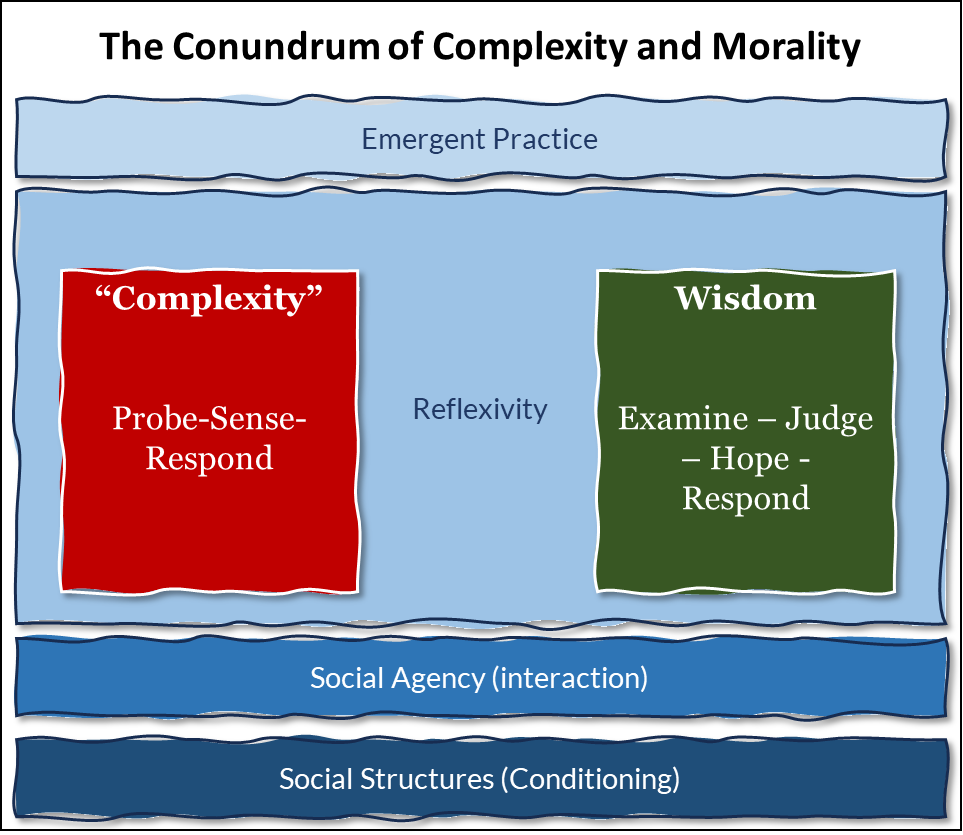

I have to admit that I am still grappling with lots of different theories and concepts in this space :-), but it appears to me that much of the trendy discourse surrounding "complexity" tends to conflate ontology and morality.
To begin with, if we consider what Alan Watkins and Ralph Stacey have highlighted, a significant portion of what we label as complexity in social systems essentially revolves around the diversity of opinions or, as Stacey suggests, the absence of social consensus, and it becomes evident that we're essentially dealing with a problem of social choice, more than the possible non-linearity of behavioural consequences.
Furthermore, the idea that we can only comprehend a system by engaging with it directly may, at some level, hold true. (It of course also implies that we can't rely on our conventional methods of scientific "experimentation" in closed systems - something most people seem to ignore.) However, even if we gain a more precise understanding of a social system through "probing," it doesn't automatically equip us with the knowledge of how to respond. This, to me, appears to be a question of ethics, rather than of "sensing".
Consequently, rather than obsessing about complexity itself, I would argue that our focus should be on cultivating wisdom, at least in the context of executive decision-making. Wisdom entails the exploration of reality (let it also be through probing and sensory input), but it centers on judgment (what is the right course of action?) and necessitates a commitment to a particular stance (what shall we hope for?). Practical wisdom must take into consideration our best predictions regarding the potential outcomes of any intervention, but of course any "response" will have to be enacted and iterative.
Here, I'm reminded of Bill Torbert's concept of "action inquiry," which combines the ability to investigate reality with ego development in order to foster the "right" actions required to generate "transformative" power. This sketch also aligns with Archer's idea of morphogenesis, where emergence results from underlying social structures that PRECEDE social interaction, and their development or replication through social actions, allowing for individual and collective reflexivity.
More to ponder.
I have to admit that I am still grappling with lots of different theories and concepts in this space :-), but it appears to me that much of the trendy discourse surrounding "complexity" tends to conflate ontology and morality.
To begin with, if we consider what Alan Watkins and Ralph Stacey have highlighted, a significant portion of what we label as complexity in social systems essentially revolves around the diversity of opinions or, as Stacey suggests, the absence of social consensus, and it becomes evident that we're essentially dealing with a problem of social choice, more than the possible non-linearity of behavioural consequences.
Furthermore, the idea that we can only comprehend a system by engaging with it directly may, at some level, hold true. (It of course also implies that we can't rely on our conventional methods of scientific "experimentation" in closed systems - something most people seem to ignore.) However, even if we gain a more precise understanding of a social system through "probing," it doesn't automatically equip us with the knowledge of how to respond. This, to me, appears to be a question of ethics, rather than of "sensing".
Consequently, rather than obsessing about complexity itself, I would argue that our focus should be on cultivating wisdom, at least in the context of executive decision-making. Wisdom entails the exploration of reality (let it also be through probing and sensory input), but it centers on judgment (what is the right course of action?) and necessitates a commitment to a particular stance (what shall we hope for?). Practical wisdom must take into consideration our best predictions regarding the potential outcomes of any intervention, but of course any "response" will have to be enacted and iterative.
Here, I'm reminded of Bill Torbert's concept of "action inquiry," which combines the ability to investigate reality with ego development in order to foster the "right" actions required to generate "transformative" power. This sketch also aligns with Archer's idea of morphogenesis, where emergence results from underlying social structures that PRECEDE social interaction, and their development or replication through social actions, allowing for individual and collective reflexivity.
More to ponder.
10-10-2023
We talk much about #diversity these days, often conveniently conflating shaky epistemological premises, questionable normative claims, and unexamined efficiency considerations. The result, more often then not, is an unhealthy mix of superficial relativism, denial of professional authority and neglect of (shared) community obligations.
But whilst diversity of thought, correctly understood, offers a valuable expansion of our understating, it remains mostly flat. That is why historical analysis, as Bhaskar implies and Bronowski emphasizes, is equally important: "The study of history [is] liberation - a liberation from accepted ideas, and a perspective into their evolution which brings them sharply into focus. History liberates because it refines our understanding of men, of ideas, and of events."
Maybe it's an idea to promote programmes in comparative history to further wisdom in Organisations. Certainly it will be less fashionable and more effort than creating "equal share of voice" in meetings, but then it's also potentially more impactful.
We talk much about #diversity these days, often conveniently conflating shaky epistemological premises, questionable normative claims, and unexamined efficiency considerations. The result, more often then not, is an unhealthy mix of superficial relativism, denial of professional authority and neglect of (shared) community obligations.
But whilst diversity of thought, correctly understood, offers a valuable expansion of our understating, it remains mostly flat. That is why historical analysis, as Bhaskar implies and Bronowski emphasizes, is equally important: "The study of history [is] liberation - a liberation from accepted ideas, and a perspective into their evolution which brings them sharply into focus. History liberates because it refines our understanding of men, of ideas, and of events."
Maybe it's an idea to promote programmes in comparative history to further wisdom in Organisations. Certainly it will be less fashionable and more effort than creating "equal share of voice" in meetings, but then it's also potentially more impactful.
08-10-2023

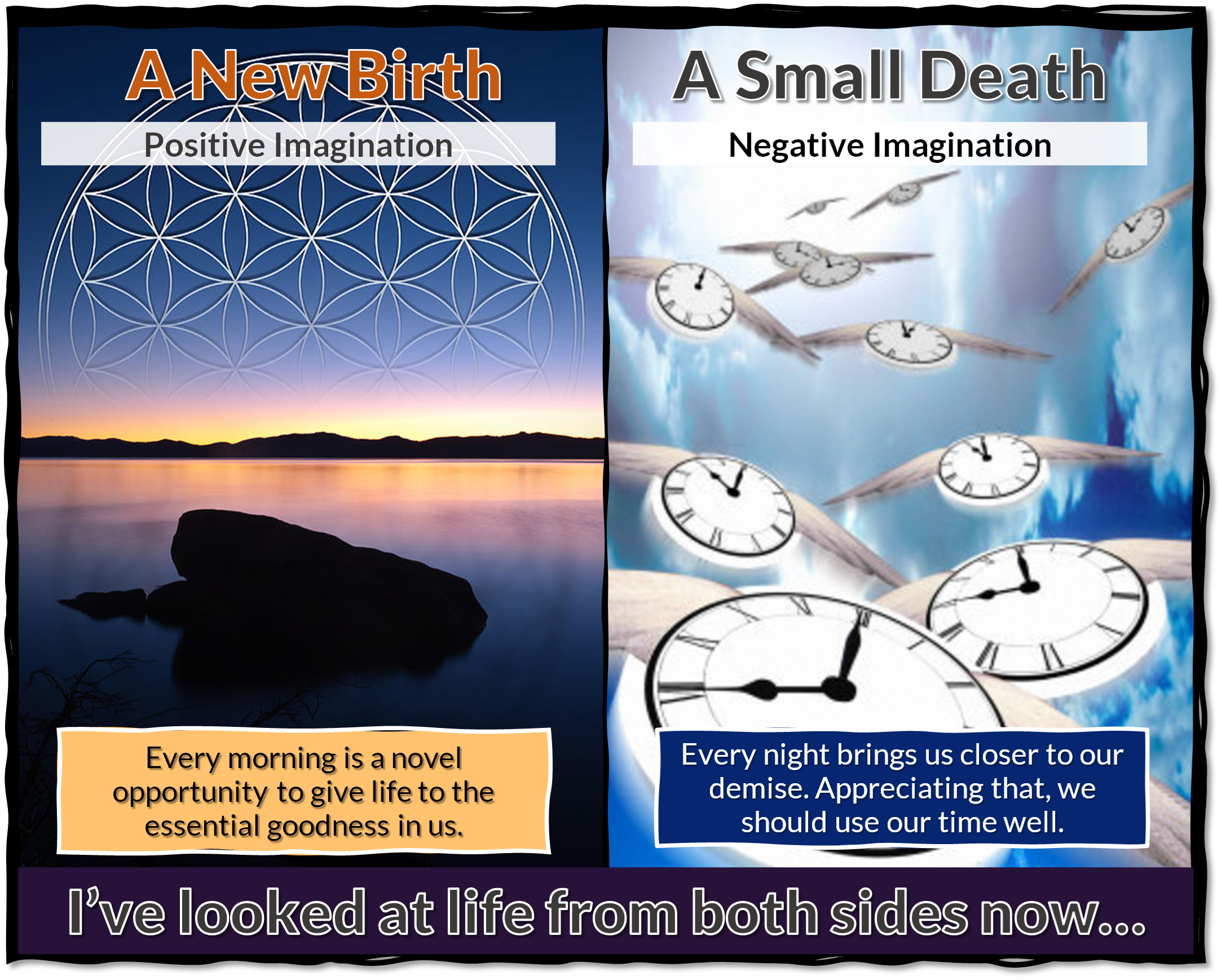

Sunday morning: Which stance do you take?
William James suggested that in the realm of philosophy, there are two distinct postures for examining the complexities of life—tough-minded and tender-minded philosophies. Each of these philosophical outlooks approaches the world with its unique perspective, leading to distinct theories and worldviews.
Tough-Minded Philosophy: Tough-minded philosophers, like those who adhere to empiricism and rationalism, prefer an empirical and scientific approach. They emphasize observable facts, rigorous analysis, and skepticism. The tough-minded posture seeks clear, precise, and objective knowledge. Philosophical theories like logical positivism and materialism fall under this category. These theories aim to understand the world through empirical evidence and the laws of reason.
Tender-Minded Philosophy: In contrast, tender-minded philosophers adopt a more idealistic and rationalistic approach. They focus on abstract principles, metaphysical concepts, and speculative thinking. Thinkers such as Immanuel Kant and idealists belong to this category. Their philosophical theories often explore the realms of ethics, metaphysics, and spirituality, seeking to uncover profound and transcendent truths about life.
The beauty of philosophy lies in its capacity to embrace diversity and complexity. By integrating both tough-minded and tender-minded philosophies, acknowledging the contributions of both postures, we might gain a richer understanding of the intricate tapestry of life, where facts and ideals coexist harmoniously.
So which posture do you take up today?
#philosophy #leadership #ethics #personaldevelopment #leadershipdevelopment
Sunday morning: Which stance do you take?
William James suggested that in the realm of philosophy, there are two distinct postures for examining the complexities of life—tough-minded and tender-minded philosophies. Each of these philosophical outlooks approaches the world with its unique perspective, leading to distinct theories and worldviews.
Tough-Minded Philosophy: Tough-minded philosophers, like those who adhere to empiricism and rationalism, prefer an empirical and scientific approach. They emphasize observable facts, rigorous analysis, and skepticism. The tough-minded posture seeks clear, precise, and objective knowledge. Philosophical theories like logical positivism and materialism fall under this category. These theories aim to understand the world through empirical evidence and the laws of reason.
Tender-Minded Philosophy: In contrast, tender-minded philosophers adopt a more idealistic and rationalistic approach. They focus on abstract principles, metaphysical concepts, and speculative thinking. Thinkers such as Immanuel Kant and idealists belong to this category. Their philosophical theories often explore the realms of ethics, metaphysics, and spirituality, seeking to uncover profound and transcendent truths about life.
The beauty of philosophy lies in its capacity to embrace diversity and complexity. By integrating both tough-minded and tender-minded philosophies, acknowledging the contributions of both postures, we might gain a richer understanding of the intricate tapestry of life, where facts and ideals coexist harmoniously.
So which posture do you take up today?
#philosophy #leadership #ethics #personaldevelopment #leadershipdevelopment
02-10-2023

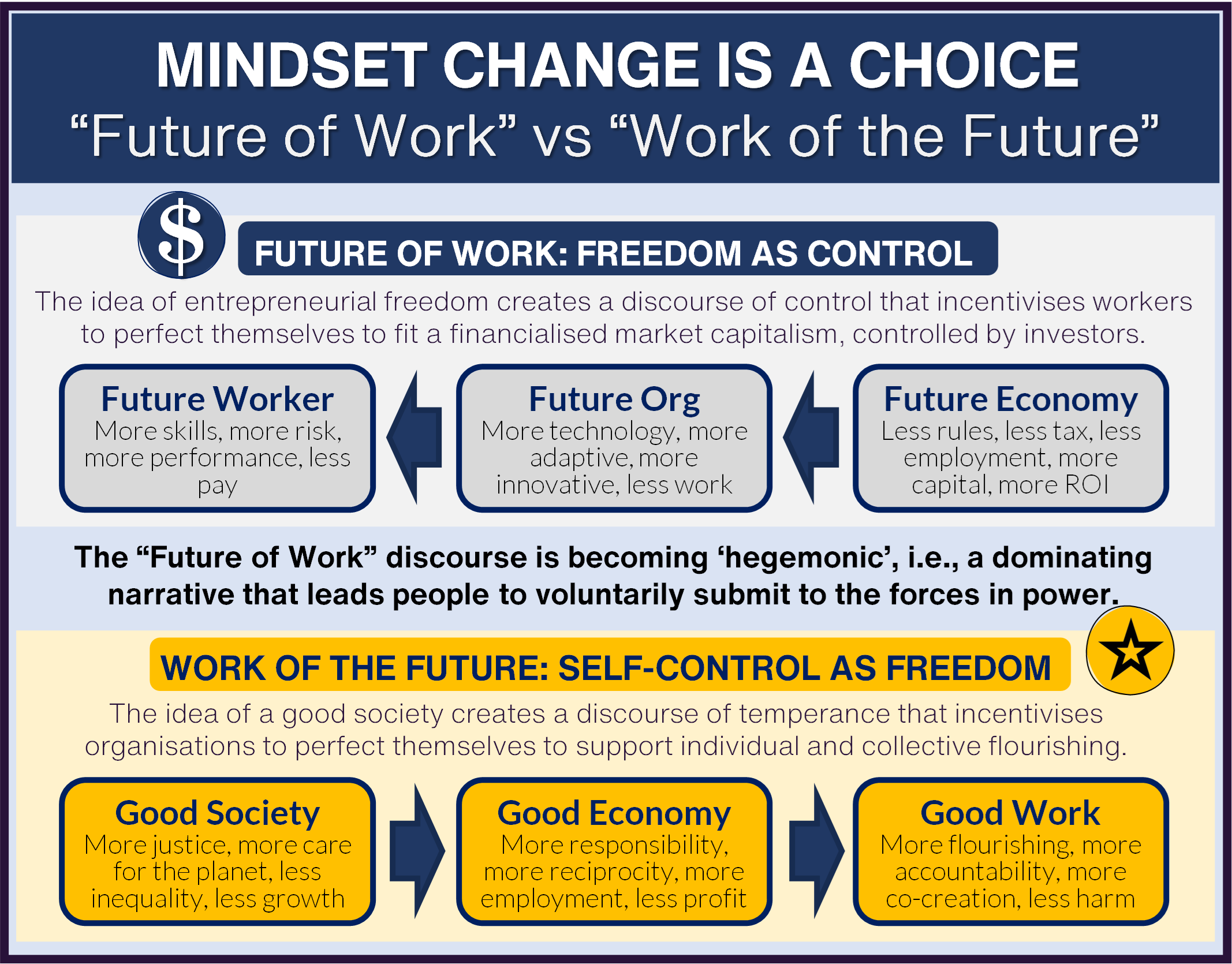

The #FutureofWork discourse is becoming ‘hegemonic’.
A hegemony is a dominating narrative that leads people to voluntarily submit themselves to the forces in power.
#business #transformation #leadership #leadershipdevelopment #hr #hrm #goodorganisations #goodwork
The #FutureofWork discourse is becoming ‘hegemonic’.
A hegemony is a dominating narrative that leads people to voluntarily submit themselves to the forces in power.
#business #transformation #leadership #leadershipdevelopment #hr #hrm #goodorganisations #goodwork
01-10-2023

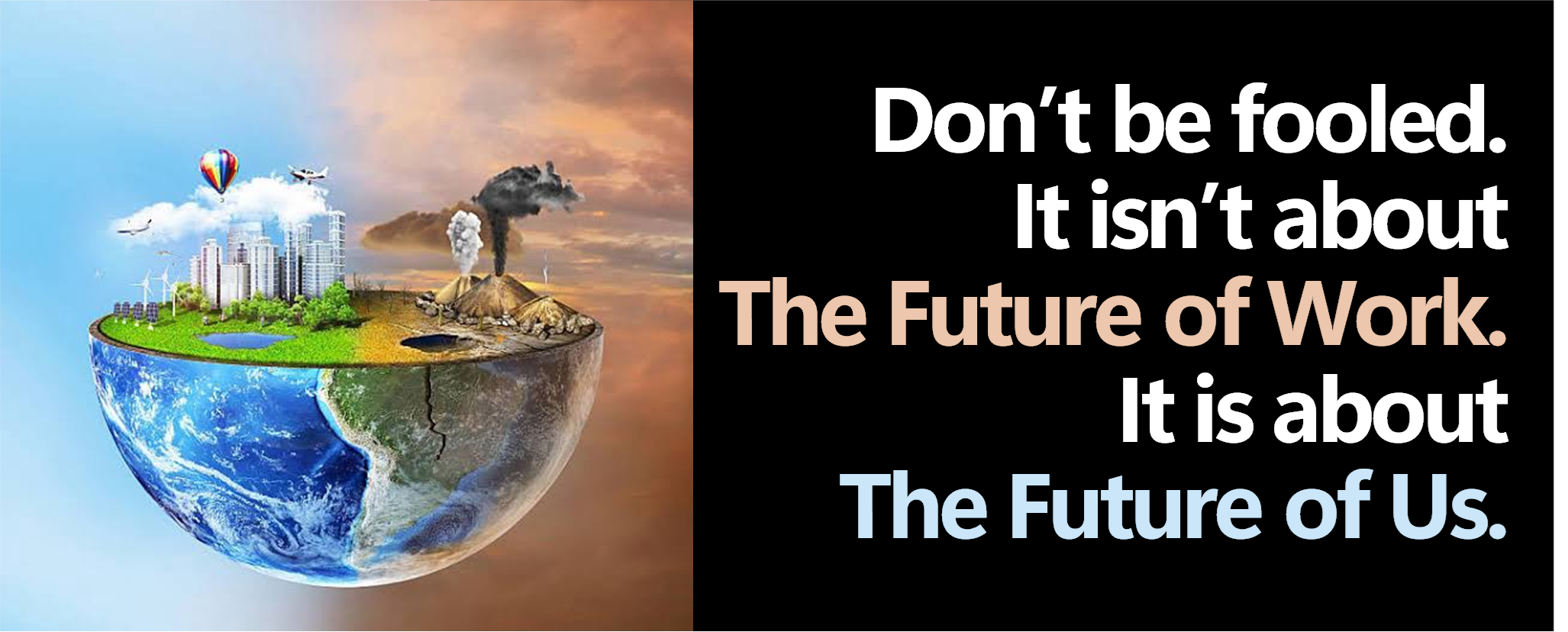

It is somewhat uncanny. Much of today's business improvement rhetoric builds on a positive psychology dogma of increased freedom, wellbeing, authenticity, meaning, pleasure. Our work, so the story goes, shall enable every person to do only what they REALLY REALLY want, to self-actualise, self-improve, be authentic, creative, innovative... Hallelujah!
Beyond it being rather unclear how any "regular job" could accommodate such a high degree of personalisation - and, hence, to what extent we might be hypocritically using all such big words only to make the same old activities sound more appealing to the workers; is it not funny that very few people know what they "really really" want?
Here, the linkage between the whole "future of work" discussion and basic philosophical questions becomes eminently clear. Without a solid philosophy of work (& life) our passionate debate about organisational transformation is ephemeral and rather pointless.
And maybe the fact that most adults are uncertain about what they truly desire is not a cause for depression, but simply proves the point that it is a worthwhile endeavour to go after. Maybe, at the end of the day, that great transformation that we're all so anxious to achieve is not about work at all, but about us. About the necessary encounter with those most existential questions: why are we here, who are we, and whither are we going.
Maybe it isn't simply about skilling people up to survive the encounter with AI and robotics, or make processes more effective, or redistribute work, or the proceeds from work, and not even about creating more innovative, agile, participative, psychologically safe, authentic, who-knows-what-other-buzz-wordsy workplaces. Maybe it is about enabling dialogic development.
In fact, it is in the nature of development that it is not just "give and take". It is not something leaders can hand out to followers. But it equally is not only about giving people autonomy, or being more democratic and prosocial. Instead, it requires guided and reciprocate cultivation of identity and character, through work. As Nietzsche points out, the postmodern man risks to lose not only God, but also himself. It is not easy to emancipate from being a means to becoming an end, and to turn a "job" into a calling. It requires, first and foremost, to recover a desire "to be" - which, in turn, needs facilitation, experimentation, coordination.
So maybe what we need to look for is not a 4-day work week, but a 4+1 day week. Where on 4 days we work - highly productively - for our businesses. But on the +1 time the business works - highly supportively - for us. Enabling us to understand what we really, really (should) want and helping us to try it out - to see if it makes us and our community grow and flourish. What does this mean for governance, processes, objectives, structures, policies? Who knows. Let's think it through.
#business #work #development #transformation #leaders #futureofwork #wellbeing #agile
It is somewhat uncanny. Much of today's business improvement rhetoric builds on a positive psychology dogma of increased freedom, wellbeing, authenticity, meaning, pleasure. Our work, so the story goes, shall enable every person to do only what they REALLY REALLY want, to self-actualise, self-improve, be authentic, creative, innovative... Hallelujah!
Beyond it being rather unclear how any "regular job" could accommodate such a high degree of personalisation - and, hence, to what extent we might be hypocritically using all such big words only to make the same old activities sound more appealing to the workers; is it not funny that very few people know what they "really really" want?
Here, the linkage between the whole "future of work" discussion and basic philosophical questions becomes eminently clear. Without a solid philosophy of work (& life) our passionate debate about organisational transformation is ephemeral and rather pointless.
And maybe the fact that most adults are uncertain about what they truly desire is not a cause for depression, but simply proves the point that it is a worthwhile endeavour to go after. Maybe, at the end of the day, that great transformation that we're all so anxious to achieve is not about work at all, but about us. About the necessary encounter with those most existential questions: why are we here, who are we, and whither are we going.
Maybe it isn't simply about skilling people up to survive the encounter with AI and robotics, or make processes more effective, or redistribute work, or the proceeds from work, and not even about creating more innovative, agile, participative, psychologically safe, authentic, who-knows-what-other-buzz-wordsy workplaces. Maybe it is about enabling dialogic development.
In fact, it is in the nature of development that it is not just "give and take". It is not something leaders can hand out to followers. But it equally is not only about giving people autonomy, or being more democratic and prosocial. Instead, it requires guided and reciprocate cultivation of identity and character, through work. As Nietzsche points out, the postmodern man risks to lose not only God, but also himself. It is not easy to emancipate from being a means to becoming an end, and to turn a "job" into a calling. It requires, first and foremost, to recover a desire "to be" - which, in turn, needs facilitation, experimentation, coordination.
So maybe what we need to look for is not a 4-day work week, but a 4+1 day week. Where on 4 days we work - highly productively - for our businesses. But on the +1 time the business works - highly supportively - for us. Enabling us to understand what we really, really (should) want and helping us to try it out - to see if it makes us and our community grow and flourish. What does this mean for governance, processes, objectives, structures, policies? Who knows. Let's think it through.
#business #work #development #transformation #leaders #futureofwork #wellbeing #agile
25-09-2023
"Decency long left the building at X." Indeed. But that might be our smallest problem. As Rousseau pointed out, and many others after him, democracy can only function when people have civic competences and harbour an interest and a commitment towards a 'general will'. When institutions nurture reciprocity and social virtues. Mill insisted that a citizen's vote in an election wasn't a private affair, but an expression of public duty. "Like the juryman" everybody was supposed to judge the political programs on offer and choose whichever promised to bring about the greatest common good. He even demanded open ballots so that neighbors could scrutinize their respective electoral decisions for selfishness and special interests.
It seems to me the algorithms deployed in modern social media are the ravagers of Rousseau's utopia. Not only do they provide one-sided and often misleading or false information, they incentivise strong emotions and thrive on public vices and anti-social behaviours. Hailed originally for the democratisation of the internet, and celebrated for the liberation of free speech, we might have let these platforms grow too big and too reckless. As mere pet projects of their megalomanic owners, in service of both economic and personal interests, social media networks might have become a deadly spectre to haunt the democratic dream.
"Decency long left the building at X." Indeed. But that might be our smallest problem. As Rousseau pointed out, and many others after him, democracy can only function when people have civic competences and harbour an interest and a commitment towards a 'general will'. When institutions nurture reciprocity and social virtues. Mill insisted that a citizen's vote in an election wasn't a private affair, but an expression of public duty. "Like the juryman" everybody was supposed to judge the political programs on offer and choose whichever promised to bring about the greatest common good. He even demanded open ballots so that neighbors could scrutinize their respective electoral decisions for selfishness and special interests.
It seems to me the algorithms deployed in modern social media are the ravagers of Rousseau's utopia. Not only do they provide one-sided and often misleading or false information, they incentivise strong emotions and thrive on public vices and anti-social behaviours. Hailed originally for the democratisation of the internet, and celebrated for the liberation of free speech, we might have let these platforms grow too big and too reckless. As mere pet projects of their megalomanic owners, in service of both economic and personal interests, social media networks might have become a deadly spectre to haunt the democratic dream.
20-09-2023
The HR Congress is at the Horizon. It's not meant to be just another event on the corporate calendar. It is supposed to be a journey to the essence of HR, a quest to rediscover its true purpose, and a collective dialogue to determine its potential to shift the Future of Work. In a world inundated with buzzwords and the relentless pursuit of the 'next big thing,' it seeks to offer a time to pause and reflect.
Much has been said, written, and proposed in regards to all those new roles that - allegedly - HR should play; those capabilities that - supposedly - HR should build; the mindsets HR - ideally - should foster... and yet, much of it feels simply like old wine in new bottles.
As Kochan points out: ‘The human resource management profession faces a crisis of trust and a loss of legitimacy in the eyes of its major stakeholders. The two-decade effort to develop a new ‘strategic human resource management’ role in organizations has failed to realize its promised potential of greater status, influence, and achievement’
So, are we really evolving, or simply repackaging the old? Are we, in our quest for a seat at the management table, losing sight of what truly matters? Are we, by outsourcing HR services to distant corners of the globe inadvertently distancing ourselves from the people we are meant to serve? Are we, by jumping on the technology train, desperately seeking to turn HR into "something new", jeopardising what it once was and what it is meant to be?
And, maybe most importantly, are we fooling ourselves about the sustainability of HR's pet Human Capital imperative, and the effectiveness of its ephemeral High Performance Practices - in the face of an increasingly financialised capitalism?
Perhaps it's time to embrace a more radical idea – the idea that HR should relinquish its relentless pursuit of corporate recognition and the 'partner in crime' role we've carved for ourselves. Maybe, it should stand tall in the face of the 'tyranny of now,' the ceaseless whirlwind of 'continuous change,' and the dogma of 'fail fast' agility. Possibly, what matters most in times of global crises and pervasive anxiety, is that a more professional, more ethical, more reflexive and balanced HR safeguards the noble spirit of humanity in all our daily work practices, in order to genuinely foster a better Future of Work...
The HR Congress is at the Horizon. It's not meant to be just another event on the corporate calendar. It is supposed to be a journey to the essence of HR, a quest to rediscover its true purpose, and a collective dialogue to determine its potential to shift the Future of Work. In a world inundated with buzzwords and the relentless pursuit of the 'next big thing,' it seeks to offer a time to pause and reflect.
Much has been said, written, and proposed in regards to all those new roles that - allegedly - HR should play; those capabilities that - supposedly - HR should build; the mindsets HR - ideally - should foster... and yet, much of it feels simply like old wine in new bottles.
As Kochan points out: ‘The human resource management profession faces a crisis of trust and a loss of legitimacy in the eyes of its major stakeholders. The two-decade effort to develop a new ‘strategic human resource management’ role in organizations has failed to realize its promised potential of greater status, influence, and achievement’
So, are we really evolving, or simply repackaging the old? Are we, in our quest for a seat at the management table, losing sight of what truly matters? Are we, by outsourcing HR services to distant corners of the globe inadvertently distancing ourselves from the people we are meant to serve? Are we, by jumping on the technology train, desperately seeking to turn HR into "something new", jeopardising what it once was and what it is meant to be?
And, maybe most importantly, are we fooling ourselves about the sustainability of HR's pet Human Capital imperative, and the effectiveness of its ephemeral High Performance Practices - in the face of an increasingly financialised capitalism?
Perhaps it's time to embrace a more radical idea – the idea that HR should relinquish its relentless pursuit of corporate recognition and the 'partner in crime' role we've carved for ourselves. Maybe, it should stand tall in the face of the 'tyranny of now,' the ceaseless whirlwind of 'continuous change,' and the dogma of 'fail fast' agility. Possibly, what matters most in times of global crises and pervasive anxiety, is that a more professional, more ethical, more reflexive and balanced HR safeguards the noble spirit of humanity in all our daily work practices, in order to genuinely foster a better Future of Work...
18-09-2023
The real enemies of mankind are not viruses, global warming, or poverty, but man's uncontrolled desires and appetites.
These, Plato would point out, have not been subdued by man's control over nature, they have only been given greater opportunities for gratification.
Thus, the appetite for aggression has been sharpened by the increased power of control and destruction which science and technology have placed in our hands, while the motive of ambition and exploitation has been strengthened by media and marketing.
To conquer external nature is of no avail, while human nature remains unconquered; indeed, the conquest of nature is worse than useless, since it increases man's powers without increasing his wisdom in the use of them.
It is for this reason that the progress of science has been accompanied by the retrogression of man.
(Based on: C.E.M. Joad in "Philosophy", 1977, on Plato's Republic)
#leadership #responsibility #technology #business #management #transformation
The real enemies of mankind are not viruses, global warming, or poverty, but man's uncontrolled desires and appetites.
These, Plato would point out, have not been subdued by man's control over nature, they have only been given greater opportunities for gratification.
Thus, the appetite for aggression has been sharpened by the increased power of control and destruction which science and technology have placed in our hands, while the motive of ambition and exploitation has been strengthened by media and marketing.
To conquer external nature is of no avail, while human nature remains unconquered; indeed, the conquest of nature is worse than useless, since it increases man's powers without increasing his wisdom in the use of them.
It is for this reason that the progress of science has been accompanied by the retrogression of man.
(Based on: C.E.M. Joad in "Philosophy", 1977, on Plato's Republic)
#leadership #responsibility #technology #business #management #transformation
18-09-2023



Dedicated to my friends Geoff and Antoinette, whilst reflecting together on yet another sponsored HBR article, full of buzzwords and empty of relevant truth...
Anthem On (The Lack of) Management Wisdom
[based on J Lennon, by ChatGPT]
Imagine there's no Harvard Business Review,
It's easy if you try,
No sponsored articles to fool us,
No consultants up in the sky,
Imagine all the truth and intellect,
Just waiting to be found.
(Chorus)
You may say I'm a dreamer,
But I'm not the only one,
I hope someday you'll join us,
And we'll expose the management con.
(Verse 2)
Imagine there's no "management bullshit,"
It isn't hard to do,
No empty jargon to bewilder,
And no false expertise too,
Imagine all the people,
Seeing through the charade.
(Chorus)
You may say I'm a dreamer,
But I'm not the only one,
I hope someday you'll join us,
And we'll expose what's truly done.
(Bridge)
Imagine no more blind consumption,
No praise for the emperor's invisible clothes,
Just critical minds seeking wisdom,
In a world where the truth freely flows.
(Verse 3)
Imagine there's no HBR,
I wonder if you can,
No more corporate propaganda,
A world where we all understand,
Imagine all the knowledge shared,
Without the need for disguise.
(Chorus)
You may say I'm a dreamer,
But I'm not the only one,
I hope someday you'll join us,
And together, we'll see what can be done.
(Outro)
So let's break free from the illusion,
Question the status quo,
In a world of true reflection,
Imagine how much we'll grow.
Abeunt.
Dedicated to my friends Geoff and Antoinette, whilst reflecting together on yet another sponsored HBR article, full of buzzwords and empty of relevant truth...
Anthem On (The Lack of) Management Wisdom
[based on J Lennon, by ChatGPT]
Imagine there's no Harvard Business Review,
It's easy if you try,
No sponsored articles to fool us,
No consultants up in the sky,
Imagine all the truth and intellect,
Just waiting to be found.
(Chorus)
You may say I'm a dreamer,
But I'm not the only one,
I hope someday you'll join us,
And we'll expose the management con.
(Verse 2)
Imagine there's no "management bullshit,"
It isn't hard to do,
No empty jargon to bewilder,
And no false expertise too,
Imagine all the people,
Seeing through the charade.
(Chorus)
You may say I'm a dreamer,
But I'm not the only one,
I hope someday you'll join us,
And we'll expose what's truly done.
(Bridge)
Imagine no more blind consumption,
No praise for the emperor's invisible clothes,
Just critical minds seeking wisdom,
In a world where the truth freely flows.
(Verse 3)
Imagine there's no HBR,
I wonder if you can,
No more corporate propaganda,
A world where we all understand,
Imagine all the knowledge shared,
Without the need for disguise.
(Chorus)
You may say I'm a dreamer,
But I'm not the only one,
I hope someday you'll join us,
And together, we'll see what can be done.
(Outro)
So let's break free from the illusion,
Question the status quo,
In a world of true reflection,
Imagine how much we'll grow.
Abeunt.
09-09-2023



ABOLISH THE "NOBEL PRIZE" IN #ECONOMICS!
Today at noon the 2023 winners of this year's "Nobel Prize in Economic Sciences" will be announced.
Yet, the Prize has a murky history and in its current form, arguably, has done more harm than good. Since it's inception, many have argued it should be abolished.
Peter Nobel, a human rights lawyer and great-grandnephew of Ludvig Nobel, accused the hashtag#Nobel Foundation for misusing his family’s name, and stated that no member of the Nobel family ever had any intention to establish a Prize in economics. He suggested that “Nobel despised people who cared more about profits than society’s well-being”, saying that “there is nothing to indicate that he would have wanted such a prize”, and that the association with the Nobel prizes is “a PR coup by economists to improve their reputation”.
According to Samuel Brittan of the Financial Times, both former Swedish minister of finance (Kjell-Olof Feldt) and Swedish former minister of commerce (Gunnar Myrdal) wanted the prize abolished. Even Friedrich Hayek, in his famous acceptance speech six years later, stated that had he been consulted on the establishment of a Nobel Prize in economics, he would “have decidedly advised against it”. He said: “The Nobel Prize confers on an individual an authority which in economics no man ought to possess. … This does not matter in the natural sciences. Here the influence exercised by an individual is chiefly an influence on his fellow experts; and they will soon cut him down to size if he exceeds his competence. But the influence of the economist that mainly matters is an influence over laymen: politicians, journalists, civil servants and the public generally.”
Moreover, not only is the Price tainted by an obscure selection procedure, and exposed to numerous evident biases in the choice of candidates, it also clearly favours Economics as a doctrine focused on people’s individual interactions with free markets, drawing heavily on abstract theory, mathematical models, and the assumption that people will act in rational self-interest — rather than a paradigm that situates the #economy inside society and requires public policy decisions to further sustainable prosperity for all citizens.
Overall, the Economics Prize has promoted an insular set of academics and too often put forward an anachronistic and limiting understanding of Economics - rather than igniting and supporting a novel economic eutopia for the benefit of humanity.
Hence, any decent economist selected as the winner this year should probably act like Jean-Paul Sartre in 1964 when he famously declined the Nobel Prize for literature. Sartre suggested that accepting the award would mean to “let himself be transformed into an institution” and thus “expose his readers to a pressure” that is not desirable. A “Nobel Prize” in Economics that is both genealogically illegitimate and politically unfortunate is an undesirable pressure indeed.
Full story: https://lnkd.in/ebqAYGRf
ABOLISH THE "NOBEL PRIZE" IN #ECONOMICS!
Today at noon the 2023 winners of this year's "Nobel Prize in Economic Sciences" will be announced.
Yet, the Prize has a murky history and in its current form, arguably, has done more harm than good. Since it's inception, many have argued it should be abolished.
Peter Nobel, a human rights lawyer and great-grandnephew of Ludvig Nobel, accused the hashtag#Nobel Foundation for misusing his family’s name, and stated that no member of the Nobel family ever had any intention to establish a Prize in economics. He suggested that “Nobel despised people who cared more about profits than society’s well-being”, saying that “there is nothing to indicate that he would have wanted such a prize”, and that the association with the Nobel prizes is “a PR coup by economists to improve their reputation”.
According to Samuel Brittan of the Financial Times, both former Swedish minister of finance (Kjell-Olof Feldt) and Swedish former minister of commerce (Gunnar Myrdal) wanted the prize abolished. Even Friedrich Hayek, in his famous acceptance speech six years later, stated that had he been consulted on the establishment of a Nobel Prize in economics, he would “have decidedly advised against it”. He said: “The Nobel Prize confers on an individual an authority which in economics no man ought to possess. … This does not matter in the natural sciences. Here the influence exercised by an individual is chiefly an influence on his fellow experts; and they will soon cut him down to size if he exceeds his competence. But the influence of the economist that mainly matters is an influence over laymen: politicians, journalists, civil servants and the public generally.”
Moreover, not only is the Price tainted by an obscure selection procedure, and exposed to numerous evident biases in the choice of candidates, it also clearly favours Economics as a doctrine focused on people’s individual interactions with free markets, drawing heavily on abstract theory, mathematical models, and the assumption that people will act in rational self-interest — rather than a paradigm that situates the #economy inside society and requires public policy decisions to further sustainable prosperity for all citizens.
Overall, the Economics Prize has promoted an insular set of academics and too often put forward an anachronistic and limiting understanding of Economics - rather than igniting and supporting a novel economic eutopia for the benefit of humanity.
Hence, any decent economist selected as the winner this year should probably act like Jean-Paul Sartre in 1964 when he famously declined the Nobel Prize for literature. Sartre suggested that accepting the award would mean to “let himself be transformed into an institution” and thus “expose his readers to a pressure” that is not desirable. A “Nobel Prize” in Economics that is both genealogically illegitimate and politically unfortunate is an undesirable pressure indeed.
Full story: https://lnkd.in/ebqAYGRf
07-09-2023



WHY THE #IDGs ARE WRONG: Marketing Cannot Replace Morality
While I much appreciate intentions and convictions behind the "Inner Development Goals", we must seek to address some of their fundamental flaws. As I used to emphasize in strategic marketing lectures, nothing is worse than excellent marketing for a bad product. And it becomes downright perilous when the product in question is education.
The first glaring issue with the IDGs is its uncritical alignment with the UN Sustainable Development Goals, both ideologically and as a means to attract support from corporations and institutions. As others have adeptly pointed out, the hashtag#SDGs are an incoherent set of loosely connected objectives, lacking a clear ethical foundation for global development. While it's easy to argue that they represent a pragmatic compromise among diverse interests and provide specific targets for stakeholders to rally behind, they can also serve as a smokescreen for maintaining the status quo. By failing to question their underlying morality, IDGs lack the potency to be genuinely disruptive and transformative; instead, risking to become another tool for perpetuating existing power structures.
Secondly, the development of IDGs relies on a simplistic clustering analysis. Soliciting input from supposed development experts worldwide, a small team of PhD students has constructed a linear, analytical set of skills intended to aid individual hashtag#development. The approach is fundamentally flawed in multiple aspects. It oversimplifies the intricate nature of individual and collective inner lives. It treats input from supposed experts as (equally) valid and commensurable. It lacks scientific evidence to support the resulting amalgamation of skills. It disregards potential interdependencies between skills, which would only become apparent within a coherent (synthetic) framework. The outcome is a hodgepodge of skills, methods, and tools superficially held together by a thin veneer of marketing tactics, self-promoting sponsors and community enthusiasm.
Thirdly, and perhaps most critically, the essence of #IDGs remains fundamentally rooted in modernity. Ignoring the glaring incongruity between "inner development" and "goals", and between personal freedom and shared responsibility, it promotes self-improvement and self-instrumentalization as a route to collective success. Despite well-meaning intentions, it thus inadvertently fosters a culture of heroic self-centeredness rather than genuine moral development.
While undoubtedly harbouring noble intentions, the concept of IDGs requires urgent revision. Void of a coherent educational approach, it must reduce personal growth to a bunch of acquirable skills. Avoiding deeper philosophical questions, it perpetuates an anachronistic fiction that self-realisation will yield a more caring and just world. Leading the way toward a better future needs more than brilliant marketing or compassionate jamborees in Scandinavian capitals.
#Leadership
WHY THE #IDGs ARE WRONG: Marketing Cannot Replace Morality
While I much appreciate intentions and convictions behind the "Inner Development Goals", we must seek to address some of their fundamental flaws. As I used to emphasize in strategic marketing lectures, nothing is worse than excellent marketing for a bad product. And it becomes downright perilous when the product in question is education.
The first glaring issue with the IDGs is its uncritical alignment with the UN Sustainable Development Goals, both ideologically and as a means to attract support from corporations and institutions. As others have adeptly pointed out, the hashtag#SDGs are an incoherent set of loosely connected objectives, lacking a clear ethical foundation for global development. While it's easy to argue that they represent a pragmatic compromise among diverse interests and provide specific targets for stakeholders to rally behind, they can also serve as a smokescreen for maintaining the status quo. By failing to question their underlying morality, IDGs lack the potency to be genuinely disruptive and transformative; instead, risking to become another tool for perpetuating existing power structures.
Secondly, the development of IDGs relies on a simplistic clustering analysis. Soliciting input from supposed development experts worldwide, a small team of PhD students has constructed a linear, analytical set of skills intended to aid individual hashtag#development. The approach is fundamentally flawed in multiple aspects. It oversimplifies the intricate nature of individual and collective inner lives. It treats input from supposed experts as (equally) valid and commensurable. It lacks scientific evidence to support the resulting amalgamation of skills. It disregards potential interdependencies between skills, which would only become apparent within a coherent (synthetic) framework. The outcome is a hodgepodge of skills, methods, and tools superficially held together by a thin veneer of marketing tactics, self-promoting sponsors and community enthusiasm.
Thirdly, and perhaps most critically, the essence of #IDGs remains fundamentally rooted in modernity. Ignoring the glaring incongruity between "inner development" and "goals", and between personal freedom and shared responsibility, it promotes self-improvement and self-instrumentalization as a route to collective success. Despite well-meaning intentions, it thus inadvertently fosters a culture of heroic self-centeredness rather than genuine moral development.
While undoubtedly harbouring noble intentions, the concept of IDGs requires urgent revision. Void of a coherent educational approach, it must reduce personal growth to a bunch of acquirable skills. Avoiding deeper philosophical questions, it perpetuates an anachronistic fiction that self-realisation will yield a more caring and just world. Leading the way toward a better future needs more than brilliant marketing or compassionate jamborees in Scandinavian capitals.
#Leadership
02-09-2023
#GLYPHOSATE should be allowed in farming for another 10 years, Brussels says
Why is it that this case bears such striking resemblances with the case against cigarettes? Maybe because yet again we have a product that clearly has negative implications for humans and nature, and all the telltale signs of special interest groups ruthlessly lobbying for political influence, as well as systematic manipulation of information. What bothers me most, however, is that we cannot trust in the quality of national and supranational institutions to take decisions that are ethical, and protect the common good.
#leadership #stopbayer
Commenting on: https://amp.theguardian.com/us-news/2023/jan/20/glyphosate-weedkiller-cancer-biomarkers-urine-study
#GLYPHOSATE should be allowed in farming for another 10 years, Brussels says
Why is it that this case bears such striking resemblances with the case against cigarettes? Maybe because yet again we have a product that clearly has negative implications for humans and nature, and all the telltale signs of special interest groups ruthlessly lobbying for political influence, as well as systematic manipulation of information. What bothers me most, however, is that we cannot trust in the quality of national and supranational institutions to take decisions that are ethical, and protect the common good.
#leadership #stopbayer
Commenting on: https://amp.theguardian.com/us-news/2023/jan/20/glyphosate-weedkiller-cancer-biomarkers-urine-study
01-09-2023
Contrary to popular belief, EMOTION is the currency of practical WISDOM.
Reason serves mainly to prepare ourselves ahead of time, and all the time, to invest it well in our daily encounters.
#leadership #leadershipdevelopment
Contrary to popular belief, EMOTION is the currency of practical WISDOM.
Reason serves mainly to prepare ourselves ahead of time, and all the time, to invest it well in our daily encounters.
#leadership #leadershipdevelopment
01-09-2023
Caro Giovanni Molari, sembra quasi che la fortezza del sapere umano, rappresentata simbolicamente dalla più antica università del mondo, ammetta la sconfitta e offra una resa incondizionata ai cavalieri e baroni della tecnologia e del denaro che affermano di aver trovato alternative non umane e più efficienti alla educazione tradizionale. Penso che dobbiamo stare molto attenti a confondere saggezza e algoritmo e assicurarci che il ragionamento umano sia ben al di sopra dello sviluppo tecnologico. La chiave per “governare la complessità” non è una tecnologia migliore, ma persone più sagge. O in altre parole, il pericolo più grande che affrontiamo nell’Antropocene è la combinazione di tecnologia superiore e moralità inferiore.
---
🇬🇧 Dear Giovanni Molari, this almost looks as if the fortress of human knowledge, symbolically represented by the oldest university in the world, is admitting defeat and offering unconditional surrender to the knights and barons of technology and money who claim to have found non-human and more efficient alternatives to traditional education. I think we must be very careful to confound wisdom and algorithm, and make sure that human reasoning stays well ahead of technological development. The key to "govern complexity" is not better technology, but wiser people. Or in other words, the greatest danger we face in the Anthropocene is the combination of superior technology with inferior morality.
#unibo #academia #leadership #tecnologia
Caro Giovanni Molari, sembra quasi che la fortezza del sapere umano, rappresentata simbolicamente dalla più antica università del mondo, ammetta la sconfitta e offra una resa incondizionata ai cavalieri e baroni della tecnologia e del denaro che affermano di aver trovato alternative non umane e più efficienti alla educazione tradizionale. Penso che dobbiamo stare molto attenti a confondere saggezza e algoritmo e assicurarci che il ragionamento umano sia ben al di sopra dello sviluppo tecnologico. La chiave per “governare la complessità” non è una tecnologia migliore, ma persone più sagge. O in altre parole, il pericolo più grande che affrontiamo nell’Antropocene è la combinazione di tecnologia superiore e moralità inferiore.
---
🇬🇧 Dear Giovanni Molari, this almost looks as if the fortress of human knowledge, symbolically represented by the oldest university in the world, is admitting defeat and offering unconditional surrender to the knights and barons of technology and money who claim to have found non-human and more efficient alternatives to traditional education. I think we must be very careful to confound wisdom and algorithm, and make sure that human reasoning stays well ahead of technological development. The key to "govern complexity" is not better technology, but wiser people. Or in other words, the greatest danger we face in the Anthropocene is the combination of superior technology with inferior morality.
#unibo #academia #leadership #tecnologia
01-09-2023
All MANAGEMENT THEORY AND PRACTICE is "ontologically shaped and methodologically moulded, even if these processes remain covert and scarcely acknowledged by the practitioner.
This is inescapable because theories logically entail concepts and concepts themselves include certain things and exclude others (at the methodological level) and denote some aspects of reality whilst denying others (at the ontological level). Any who think they can avoid both fall into the trap of instrumentalism: those believing that the use of [allegedly pragmatic] 'heuristic concepts' in explanation saves them from making any ontological commitment fail to recognise that terming something 'heuristic' is itself a matter of ontology." (Paraphrasing Margaret Archer)
Hence, it is a bit ludicrous that we believe we can truly increment the wisdom of leaders and managers by successful indoctrination with fundamentally unexamined collections of management tools and best practices, or simply by enhancing their enculturation and psychological "fitness" through soft skill or emotional intelligence trainings, hoping they will thus become better at (mindlessly) deploying the so-proclaimed tools of the trade.
Every theory we endorse and every tool we employ implies a personal positioning towards a version of truth, and a commitment to a specific version of the future. And an implicit belief that the two are linked.
#leadership #philosophy #education #leadershipdevelopment
All MANAGEMENT THEORY AND PRACTICE is "ontologically shaped and methodologically moulded, even if these processes remain covert and scarcely acknowledged by the practitioner.
This is inescapable because theories logically entail concepts and concepts themselves include certain things and exclude others (at the methodological level) and denote some aspects of reality whilst denying others (at the ontological level). Any who think they can avoid both fall into the trap of instrumentalism: those believing that the use of [allegedly pragmatic] 'heuristic concepts' in explanation saves them from making any ontological commitment fail to recognise that terming something 'heuristic' is itself a matter of ontology." (Paraphrasing Margaret Archer)
Hence, it is a bit ludicrous that we believe we can truly increment the wisdom of leaders and managers by successful indoctrination with fundamentally unexamined collections of management tools and best practices, or simply by enhancing their enculturation and psychological "fitness" through soft skill or emotional intelligence trainings, hoping they will thus become better at (mindlessly) deploying the so-proclaimed tools of the trade.
Every theory we endorse and every tool we employ implies a personal positioning towards a version of truth, and a commitment to a specific version of the future. And an implicit belief that the two are linked.
#leadership #philosophy #education #leadershipdevelopment
27-08-2023
THE ONLY CONSTANT IN LIFE IS CHANGE. "Panta rhei", everything flows, as suggested by Herakleitos. Taken to the extreme, as in the Buddhist doctrine of moments, identity over time simply does not exist.
But Heraclitus' theory, as Aristotle points out, was in danger of being logically incoherent, as was Hume’s later views on causation: if the past does not determine the future then the universe is indeed capricious. Now one might argue, like Bertrand Russell, for "Cambridge change", where change isn't necessarily intrinsic to the thing, but a "change in the descriptions [or relational predicates] (truly) borne by the thing". Still, Zeno's arrow remains an important paradox: an arrow in flight could not really be moving because at any given instant it would be at a place identical with itself. A lot has been written in modern times about the complexities and inconsistencies of spacetime, but I prefer to stick with the ancient Greek.
For Aristotle the substrate, or the matter, changes but not the substance, ie its essence. Where Plato suggests ideal forms, Aristotle posits hylomorphism. So maybe the point here isn't to reify change, whether absolute or not (as Kant suggested change is always relative to time), but rather to focus on how change can bring about essence, especially in ourself. In other words, what matters isn't change in itself, but direction. Indeed, Hegel argued, change as movement is always premised on an existing contradiction in itself. “Something moves not because at one moment of time it is here and at another there, but because at one and the same moment it is here and not here.”
This is where I believe a teleological ethics focused on the cultivation of character remains highly compelling, inspite of all the chatter about the "tyranny of now". It doesn't really matter whether life is in constant flux. What matters is that life is a vector - of ontological, not chronological time - which enables us to actualize our essence.
#philosophy #ethics #time #change #leadership
More about the complexities and inconsistencies of constant change here (attention, difficult!): https://lnkd.in/eqJaY8-q
THE ONLY CONSTANT IN LIFE IS CHANGE. "Panta rhei", everything flows, as suggested by Herakleitos. Taken to the extreme, as in the Buddhist doctrine of moments, identity over time simply does not exist.
But Heraclitus' theory, as Aristotle points out, was in danger of being logically incoherent, as was Hume’s later views on causation: if the past does not determine the future then the universe is indeed capricious. Now one might argue, like Bertrand Russell, for "Cambridge change", where change isn't necessarily intrinsic to the thing, but a "change in the descriptions [or relational predicates] (truly) borne by the thing". Still, Zeno's arrow remains an important paradox: an arrow in flight could not really be moving because at any given instant it would be at a place identical with itself. A lot has been written in modern times about the complexities and inconsistencies of spacetime, but I prefer to stick with the ancient Greek.
For Aristotle the substrate, or the matter, changes but not the substance, ie its essence. Where Plato suggests ideal forms, Aristotle posits hylomorphism. So maybe the point here isn't to reify change, whether absolute or not (as Kant suggested change is always relative to time), but rather to focus on how change can bring about essence, especially in ourself. In other words, what matters isn't change in itself, but direction. Indeed, Hegel argued, change as movement is always premised on an existing contradiction in itself. “Something moves not because at one moment of time it is here and at another there, but because at one and the same moment it is here and not here.”
This is where I believe a teleological ethics focused on the cultivation of character remains highly compelling, inspite of all the chatter about the "tyranny of now". It doesn't really matter whether life is in constant flux. What matters is that life is a vector - of ontological, not chronological time - which enables us to actualize our essence.
#philosophy #ethics #time #change #leadership
More about the complexities and inconsistencies of constant change here (attention, difficult!): https://lnkd.in/eqJaY8-q
25-08-2023
I fear that many who are passionately arguing against #REDUCTIONISM, in favour of some complex #system theory, might have got it wrong. At least in social sciences the point is not to single-mindedly refuse dualism in order to jump from #individualism to #holism.
Such an approach implicitly denies human agency and the mutual link between relational action and institutional structures within society. Rather, we must recognise that a) different from nature, social reality is always CONSTITUTED through social action, and thus b) both organisational systems as wholes, and individuals and their relations as particulars, are mutually and dynamically interconnected.
This is not simply a question of micro and macro, or of individual vs groups and society, or indeed of "exploding a system into its parts". Here, we again quickly fall back on homological simplification: we either define macro as aggregation of micro, or, conversely, micro as the dominant reality which predetermines micro. Yet, 'micro' and 'macro' are relational terms that point to the difference in quality of emergent properties pertaining to each constellation, not size. For example, the divisions of labour within a team might give rise to productivity. Such productivity might, in turn, cause work to become monotonous (micro). Yet, the emergent productivity as a property of the whole organisation might generate increases in demand and profit, within a competitive market (macro) - such increased profit might impact team motivation, but cannot be reduced to the productivity of the individual worker.
As Margaret Archer convincingly argues, we must recognise that different strata of social reality possess distinct mechanisms and emergent properties; strata cannot be reduced to one another. Hence, the equation of micro with individual is misleading. Neither is there an isolated 'micro lebenswelt' insulated from the socio-cultural system, nor are social and systemic structures independent of 'micropolitics' between individuals. "Systemic properties are always the ('macro') context confronted by ('micro') social interaction, whilst social activities between people ('micro') represent the environment in which the ('macro') features of systems are either reproduced or transformed." Similarly, identity in this context can be understood as individual positioning within both relations and (discursive) structures.
Maybe some loose analogy might be drawn to VSM: Systems 1 and 2 (Operations & Coordination) emphasize micro social agency because they deal with the day-to-day interactions of people, whereas Systems 3-5 involve aspects of macro structure, as they establish rules, policies, and decision-making processes that contain agency.
Most importantly, social (inter)action and systemic environment are qualitatively different and interconnected aspects of the same society or organisation. We cannot simply abstract social reality as a complex network between nodes and connections on the same "plane".
I fear that many who are passionately arguing against #REDUCTIONISM, in favour of some complex #system theory, might have got it wrong. At least in social sciences the point is not to single-mindedly refuse dualism in order to jump from #individualism to #holism.
Such an approach implicitly denies human agency and the mutual link between relational action and institutional structures within society. Rather, we must recognise that a) different from nature, social reality is always CONSTITUTED through social action, and thus b) both organisational systems as wholes, and individuals and their relations as particulars, are mutually and dynamically interconnected.
This is not simply a question of micro and macro, or of individual vs groups and society, or indeed of "exploding a system into its parts". Here, we again quickly fall back on homological simplification: we either define macro as aggregation of micro, or, conversely, micro as the dominant reality which predetermines micro. Yet, 'micro' and 'macro' are relational terms that point to the difference in quality of emergent properties pertaining to each constellation, not size. For example, the divisions of labour within a team might give rise to productivity. Such productivity might, in turn, cause work to become monotonous (micro). Yet, the emergent productivity as a property of the whole organisation might generate increases in demand and profit, within a competitive market (macro) - such increased profit might impact team motivation, but cannot be reduced to the productivity of the individual worker.
As Margaret Archer convincingly argues, we must recognise that different strata of social reality possess distinct mechanisms and emergent properties; strata cannot be reduced to one another. Hence, the equation of micro with individual is misleading. Neither is there an isolated 'micro lebenswelt' insulated from the socio-cultural system, nor are social and systemic structures independent of 'micropolitics' between individuals. "Systemic properties are always the ('macro') context confronted by ('micro') social interaction, whilst social activities between people ('micro') represent the environment in which the ('macro') features of systems are either reproduced or transformed." Similarly, identity in this context can be understood as individual positioning within both relations and (discursive) structures.
Maybe some loose analogy might be drawn to VSM: Systems 1 and 2 (Operations & Coordination) emphasize micro social agency because they deal with the day-to-day interactions of people, whereas Systems 3-5 involve aspects of macro structure, as they establish rules, policies, and decision-making processes that contain agency.
Most importantly, social (inter)action and systemic environment are qualitatively different and interconnected aspects of the same society or organisation. We cannot simply abstract social reality as a complex network between nodes and connections on the same "plane".
25-08-2023

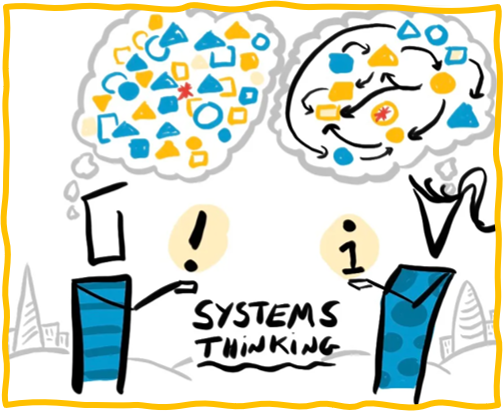

The truth is: If you were to put nine "SYSTEM THINKERS" in a room and ask each “JUST WHAT DO YOU MEAN BY hashtag#SYSTEM?”, you will get nine different answers.
One might say that systems are like MACHINES, another that they are like ORGANISMS; no, say the others in turn: systems are like BRAINS, systems are in FLUX and transformation, systems are CULTURES, systems are POLITICAL, systems are actually PSYCHIC PRISONS, instruments of domination, or CARNIVALS [Jackson, 2003].
Traditionally, we have sought to overcome (or, rather, gloss over) such evident fragmentation by "multimethodological complementarianism", or what Midgley dubbed "theoretically contradictory eclecticism". Systems methodologies were grouped into ‘paradigms,’ with the idea that the discovery and choice of the most appropriate ‘systems metaphor’ within a given context could lead the practitioner to the best available methodology.
Of course, such an approach is flawed. It does not face up to the potential incommensurability between approaches, and above all evades the more fundamental questions of ontology, epistemology and axiology - of what reality is, how we can get to know or change it, and what really matters in the first place. To insist that "everything is a system" and "emergent", or even to apply multiple systemic lenses uncritically (e.g. conflating constructivism and causal closure), risks leading us towards lots of superficial truisms and platitudes, with limited descriptive and no prescriptive power whatsoever.
It is no surprise then that in spite of many business consultants who are seeking to position system thinking as the panacea for all managerial illnesses, and in spite of all its many rather superficial fans who are single-mindedly "using" it to demand self-management and autonomy, the discipline has had almost no practical - let alone, transformational - impact in the field of management.
Where are the new ideas to take it forward?
#systemthinking #leadership #philosophy #business #management #transformation
PS: Credit for the picture to Andi Roberts
The truth is: If you were to put nine "SYSTEM THINKERS" in a room and ask each “JUST WHAT DO YOU MEAN BY hashtag#SYSTEM?”, you will get nine different answers.
One might say that systems are like MACHINES, another that they are like ORGANISMS; no, say the others in turn: systems are like BRAINS, systems are in FLUX and transformation, systems are CULTURES, systems are POLITICAL, systems are actually PSYCHIC PRISONS, instruments of domination, or CARNIVALS [Jackson, 2003].
Traditionally, we have sought to overcome (or, rather, gloss over) such evident fragmentation by "multimethodological complementarianism", or what Midgley dubbed "theoretically contradictory eclecticism". Systems methodologies were grouped into ‘paradigms,’ with the idea that the discovery and choice of the most appropriate ‘systems metaphor’ within a given context could lead the practitioner to the best available methodology.
Of course, such an approach is flawed. It does not face up to the potential incommensurability between approaches, and above all evades the more fundamental questions of ontology, epistemology and axiology - of what reality is, how we can get to know or change it, and what really matters in the first place. To insist that "everything is a system" and "emergent", or even to apply multiple systemic lenses uncritically (e.g. conflating constructivism and causal closure), risks leading us towards lots of superficial truisms and platitudes, with limited descriptive and no prescriptive power whatsoever.
It is no surprise then that in spite of many business consultants who are seeking to position system thinking as the panacea for all managerial illnesses, and in spite of all its many rather superficial fans who are single-mindedly "using" it to demand self-management and autonomy, the discipline has had almost no practical - let alone, transformational - impact in the field of management.
Where are the new ideas to take it forward?
#systemthinking #leadership #philosophy #business #management #transformation
PS: Credit for the picture to Andi Roberts
20-08-2023

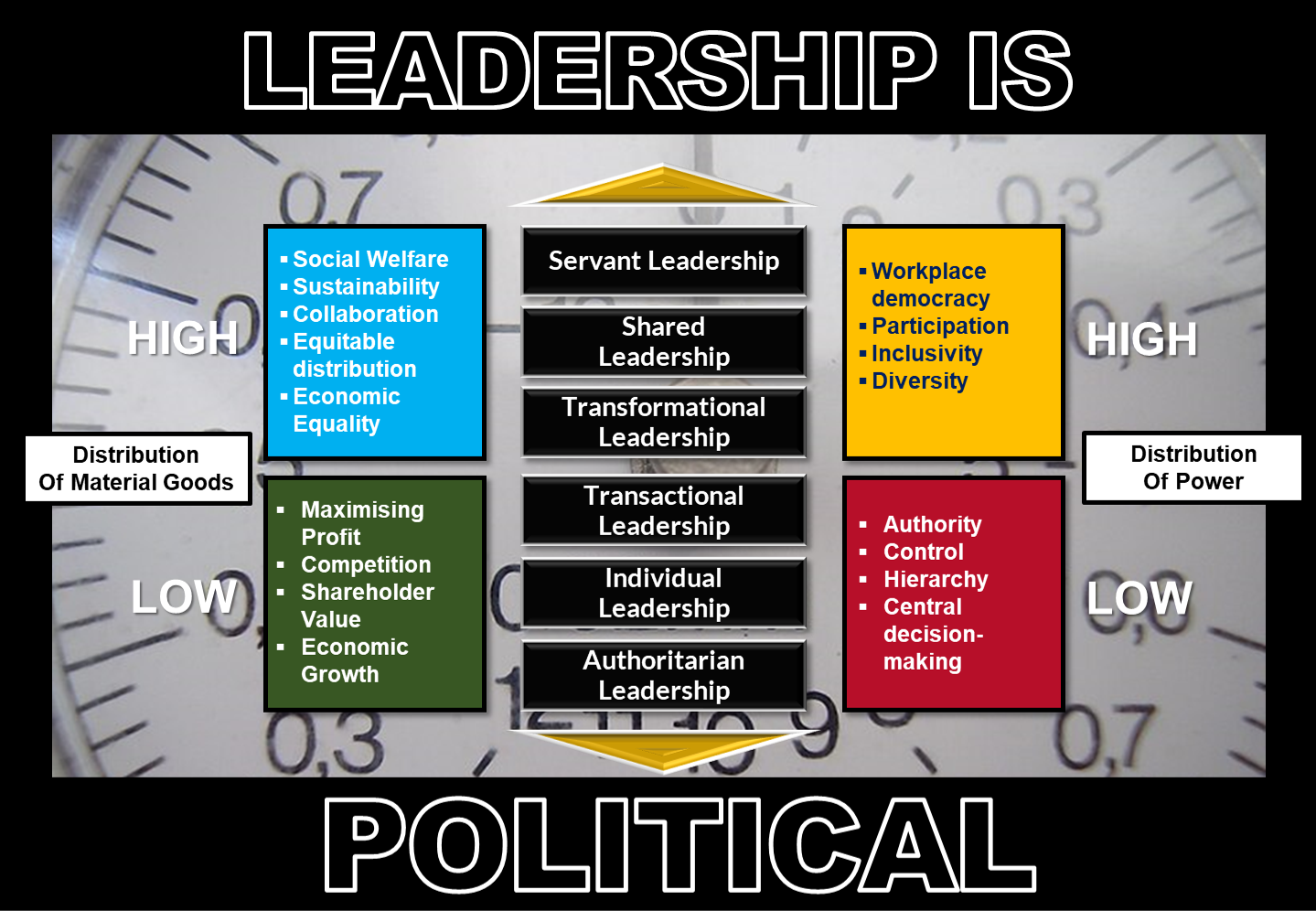

"We do not say that a #LEADER who shows no interest in politics is a man [sic!] who minds his own #BUSINESS; we say that he has no business here at all." (Paraphrasing Thucydides, The Pelopponesian War)
It has been said that there are only two important questions in politics: 'Who gets what?', and 'Says who?'. The first question is about the distribution of material goods - including property, dividends or bonuses, and of rights and liberties. The second query concerns the distribution of an immaterial good: power.
Contrary to much of psychology or social science, (philosophy of) politics is a normative discipline; it does not ask what is, but what SHOULD be. Sadly, today, a lot of what IS differs from what it should be. And business is, arguably, our most promising vehicle for societal transformation.
Hence, unsurprisingly, both questions above are at the bottom of most, if not all, debates about organisational leadership. It is therefore not difficult to understand that #CEOs or supervisory boards are ignoring political philosophy at their - and our - peril.
#goodleadership
"We do not say that a #LEADER who shows no interest in politics is a man [sic!] who minds his own #BUSINESS; we say that he has no business here at all." (Paraphrasing Thucydides, The Pelopponesian War)
It has been said that there are only two important questions in politics: 'Who gets what?', and 'Says who?'. The first question is about the distribution of material goods - including property, dividends or bonuses, and of rights and liberties. The second query concerns the distribution of an immaterial good: power.
Contrary to much of psychology or social science, (philosophy of) politics is a normative discipline; it does not ask what is, but what SHOULD be. Sadly, today, a lot of what IS differs from what it should be. And business is, arguably, our most promising vehicle for societal transformation.
Hence, unsurprisingly, both questions above are at the bottom of most, if not all, debates about organisational leadership. It is therefore not difficult to understand that #CEOs or supervisory boards are ignoring political philosophy at their - and our - peril.
#goodleadership
15-08-2023

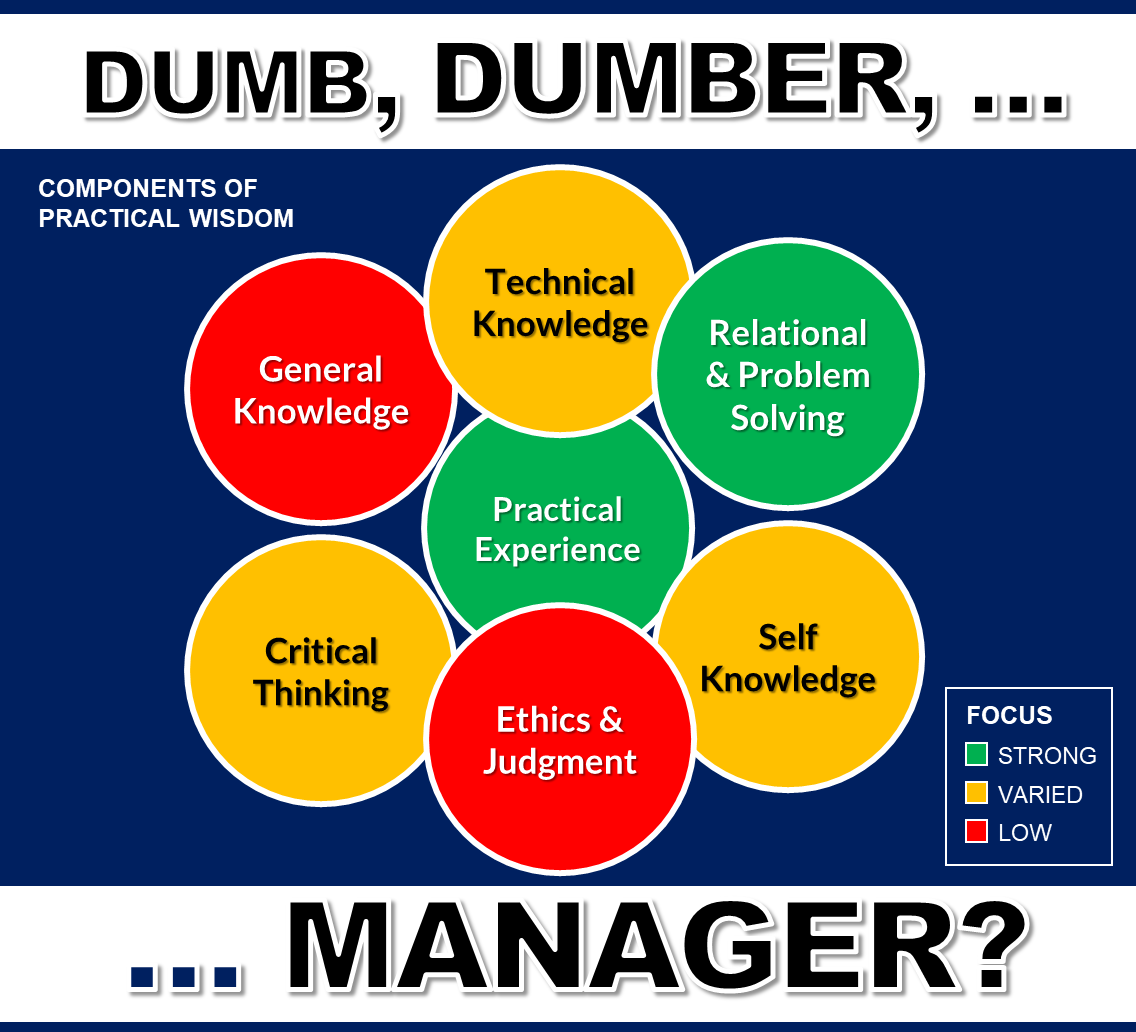

DUMB, DUMBER... MANAGER?
Let's face it - many don't choose a business major as a passionate calling; they often end up there by process of elimination, or quite simply because they want to make money. And let's be honest about business education - it's rarely a very challenging journey. The hurdles are low, and even if you graduate ‘cum laude’, it probably didn't mean sacrificing your college parties. Most business courses focus on very basic concepts - like double book accounting, marketing or micro economics - leaving little room for critical thinking or integrating business with the humanities.
If you decide to pursue an MBA, you might add some technical acumen and learn a bit more about strategy, entrepreneurship or leadership (HBS case studies, anyone?!). However, let's be real, most people won't find much use for Black-Scholes option pricing models or the International Fisher Effect formula in their day jobs. And academic leadership simulations mostly remain superficial, competitive and task-oriented - in bschools that seek to justify exorbitant fees by offering privileged placement in investment banks and consultancies.
On the other hand, there's of course the technical path to management. Engineers and other technical experts often transition into managerial roles from a detailed understanding of products, technology or process. But this route has its own set of challenges. Technical folks may not only struggle to acquire the necessary 'people skills,' but specialization can often be so deep that it makes its passionate disciples lose sight of the bigger picture.
What both pathways fundamentally lack, however, is not only continuous psychological self-development, to gain sufficient self-awareness and consciously construct identity, but above all deeper “philosophical” dialectics to inquire into human behaviour, culture, and ethics. Only when both general and technical knowledge meet with psychological and moral capacity, and critical thinking combines with relational problem solving, do managers acquire practical wisdom over time.
Sadly, the initial lack of competences is rarely recovered. Daily management mostly revolves around practical challenges, and in-house education primarily focuses on shallow capacities like communicating and influencing with empathy, executive time management, or how to run effective meetings. The result? What Mats Alvesson calls 'functional stupidity.' Even top managers operate with an extremely narrow perspective, and underdeveloped character.
In today's world, where businesses are expected to be socially responsible and ethical, this cannot be enough. It's time for HR and managers to systematically bridge this gap. Combining technical expertise with a solid foundation in humanities and ethics doesn't just create better leaders; it fosters responsible and compassionate businesses. 🌐📚
#BusinessEducation #Leadership #EthicalLeadership #GoodLeadership
DUMB, DUMBER... MANAGER?
Let's face it - many don't choose a business major as a passionate calling; they often end up there by process of elimination, or quite simply because they want to make money. And let's be honest about business education - it's rarely a very challenging journey. The hurdles are low, and even if you graduate ‘cum laude’, it probably didn't mean sacrificing your college parties. Most business courses focus on very basic concepts - like double book accounting, marketing or micro economics - leaving little room for critical thinking or integrating business with the humanities.
If you decide to pursue an MBA, you might add some technical acumen and learn a bit more about strategy, entrepreneurship or leadership (HBS case studies, anyone?!). However, let's be real, most people won't find much use for Black-Scholes option pricing models or the International Fisher Effect formula in their day jobs. And academic leadership simulations mostly remain superficial, competitive and task-oriented - in bschools that seek to justify exorbitant fees by offering privileged placement in investment banks and consultancies.
On the other hand, there's of course the technical path to management. Engineers and other technical experts often transition into managerial roles from a detailed understanding of products, technology or process. But this route has its own set of challenges. Technical folks may not only struggle to acquire the necessary 'people skills,' but specialization can often be so deep that it makes its passionate disciples lose sight of the bigger picture.
What both pathways fundamentally lack, however, is not only continuous psychological self-development, to gain sufficient self-awareness and consciously construct identity, but above all deeper “philosophical” dialectics to inquire into human behaviour, culture, and ethics. Only when both general and technical knowledge meet with psychological and moral capacity, and critical thinking combines with relational problem solving, do managers acquire practical wisdom over time.
Sadly, the initial lack of competences is rarely recovered. Daily management mostly revolves around practical challenges, and in-house education primarily focuses on shallow capacities like communicating and influencing with empathy, executive time management, or how to run effective meetings. The result? What Mats Alvesson calls 'functional stupidity.' Even top managers operate with an extremely narrow perspective, and underdeveloped character.
In today's world, where businesses are expected to be socially responsible and ethical, this cannot be enough. It's time for HR and managers to systematically bridge this gap. Combining technical expertise with a solid foundation in humanities and ethics doesn't just create better leaders; it fosters responsible and compassionate businesses. 🌐📚
#BusinessEducation #Leadership #EthicalLeadership #GoodLeadership
15-08-2023
ALL THE WORLD'S A GAME: ARE THE ENTRAILS OF CORRUPTION IN COMMERCIAL hashtag#FOOTBALL AUGURING BADLY FOR THE GLOBAL FUTURE THAT IS EMERGING?
"The big story of this summer transfer window has been the rise of the Sau di Pro League as a hot destination looking to attract the biggest stars in European football, and with the Sau dis, bankrolled by the $620 billion Public Investment Fund (#PIF), taking the market by storm" (#ESPN). Latest in a series, Karim Benzema, the 35-year-old France international signed a two-year contract worth €400million with #AlIttihad.
But is it only the story of a hot summer night? And is it only about football? Adopting the stratified ontology of "Critical Realism" we might suggest that intricate mechanisms beneath the surface are slowly eroding the noble ideals of a once beautiful game and the virtues of its players, as well as its audience.
Most of the time, commercial football presents itself as a glittering spectacle of talent and competition. Yet, peeling back the layers, we encounter those murky wheels that drive the sport's real interests – sponsorship deals, media contracts, profits, and political interests. These mechanisms corrupt the essence of the sport, transforming players from revered athletes to commodified assets, with their performances measured in monetary gains rather than sporting excellence.
Descending further into the catacombs of this stratified reality, we find the underlying structures of neoliberal capitalism that sustain such distortion. The pursuit of financial gain, unchecked by ethical considerations, permeates the whole ecosystem of commercial football. They shape the behaviors and decisions of agents – from players, club owners, to even regulatory bodies – altering their roles from contributors to accomplices in the corrosion of the sport's values.
And maybe, the football pitch is just the stage of a much broader societal drama. Commercial football's corruption might mirror a larger hashtag#system in a hashtag#postmodern society, where individuals play prescribed roles within a market-driven spectacle. As Shakespeare claimed: "All the world's a stage, and all the men and women merely players". We all enact our daily roles; with our actions and believs unconsciously shaped and driven by societal scripts, economic pressures, and status aspirations. As puppets in a much wider play, we often maintain and recreate the very mechanisms that are leading to our own instrumentalisation.
Maybe it's time to switch off the TV when the next "big game" is being advertised, and choose a non-commercial alternative. Maybe if we start to challenge the mechanisms and hidden powers that direct the superficial spectacles of life, we might stand a chance to reclaim our authenticity and deeper ethics, in order to enact a role that truly matters in the theatre of daily life.
Commenting on: https://lnkd.in/eGZ7Vute
ALL THE WORLD'S A GAME: ARE THE ENTRAILS OF CORRUPTION IN COMMERCIAL #FOOTBALL AUGURING BADLY FOR THE GLOBAL FUTURE THAT IS EMERGING?
"The big story of this summer transfer window has been the rise of the Sau di Pro League as a hot destination looking to attract the biggest stars in European football, and with the Sau dis, bankrolled by the $620 billion Public Investment Fund (#PIF), taking the market by storm" (#ESPN). Latest in a series, Karim Benzema, the 35-year-old France international signed a two-year contract worth €400million with #AlIttihad.
But is it only the story of a hot summer night? And is it only about football? Adopting the stratified ontology of "Critical Realism" we might suggest that intricate mechanisms beneath the surface are slowly eroding the noble ideals of a once beautiful game and the virtues of its players, as well as its audience.
Most of the time, commercial football presents itself as a glittering spectacle of talent and competition. Yet, peeling back the layers, we encounter those murky wheels that drive the sport's real interests – sponsorship deals, media contracts, profits, and political interests. These mechanisms corrupt the essence of the sport, transforming players from revered athletes to commodified assets, with their performances measured in monetary gains rather than sporting excellence.
Descending further into the catacombs of this stratified reality, we find the underlying structures of neoliberal capitalism that sustain such distortion. The pursuit of financial gain, unchecked by ethical considerations, permeates the whole ecosystem of commercial football. They shape the behaviors and decisions of agents – from players, club owners, to even regulatory bodies – altering their roles from contributors to accomplices in the corrosion of the sport's values.
And maybe, the football pitch is just the stage of a much broader societal drama. Commercial football's corruption might mirror a larger hashtag#system in a hashtag#postmodern society, where individuals play prescribed roles within a market-driven spectacle. As Shakespeare claimed: "All the world's a stage, and all the men and women merely players". We all enact our daily roles; with our actions and believs unconsciously shaped and driven by societal scripts, economic pressures, and status aspirations. As puppets in a much wider play, we often maintain and recreate the very mechanisms that are leading to our own instrumentalisation.
Maybe it's time to switch off the TV when the next "big game" is being advertised, and choose a non-commercial alternative. Maybe if we start to challenge the mechanisms and hidden powers that direct the superficial spectacles of life, we might stand a chance to reclaim our authenticity and deeper ethics, in order to enact a role that truly matters in the theatre of daily life.
Commenting on: https://lnkd.in/eGZ7Vute
15-08-2023
TOO BIG TO FAIL... AGAIN! For years, many grumbled that Dodd-Frank was riddled with loopholes. But now, little more than a decade later, the law’s shortcoming are poised to come into clear view. It’s not that the regulations born from that now decade-old law were too lax—in fact, the nation’s banks today are subject to very strict scrutiny. Rather, it’s the world of finance outside the more proscribed banking community that is stirring up a witch’s brew.
What some call “nonbank” financial firms—money managers, student lenders, mortgage companies, auto lenders, consumer lenders, hedge funds, private capital firms, internet-only banks and various other asset management and payment firms—offer many of same services banks offer, but are not required to maintain the same government license. As such, they’ve been given the okay to engage in the very sorts of risks Dodd-Frank was designed to ameliorate, but they do so with a pittance of the oversight. While in a pinch these looming financial behemoths aren’t supposed to be able to count on government to provide the same level of protection, they’re securing for themselves a different (but very familiar) point of leverage: Some have become too big to (let) fail.
Eventually, the Federal Reserve will get inflation under control, hopefully via a “soft landing”—that is, without sparking a broad-based recession. But as rising interest rates begin to impact ordinary people with variable rate mortgages, car loans, credit card debt, and more, borrowers will inevitably begin struggling to pay. Banks, of course, must be ready for that moment—they’re required to maintain large reserve funds, to comply with strong risk management protocols and, in some cases, to endure regulators literally watching over their shoulders as they work. Moreover, they are all subject to frequent “stress tests” required by Dodd-Frank. But nonbanks are not subject to the same scrutiny. And if, during any future recession, some begin to teeter on the brink of bankruptcy, Washington will find itself faced with a familiar dilemma: Bail them out, or let the effects of their imprudence and/or bad luck spread across the rest of the economy.
A very insightful and important contribution by Gene Ludwig, chair of the Ludwig Institute for Shared Economic Prosperity and the author of The Vanishing American Dream. He is the former Comptroller of the Currency.
Commenting on: https://democracyjournal.org/arguments/too-big-to-fail-again/
TOO BIG TO FAIL... AGAIN! For years, many grumbled that Dodd-Frank was riddled with loopholes. But now, little more than a decade later, the law’s shortcoming are poised to come into clear view. It’s not that the regulations born from that now decade-old law were too lax—in fact, the nation’s banks today are subject to very strict scrutiny. Rather, it’s the world of finance outside the more proscribed banking community that is stirring up a witch’s brew.
What some call “nonbank” financial firms—money managers, student lenders, mortgage companies, auto lenders, consumer lenders, hedge funds, private capital firms, internet-only banks and various other asset management and payment firms—offer many of same services banks offer, but are not required to maintain the same government license. As such, they’ve been given the okay to engage in the very sorts of risks Dodd-Frank was designed to ameliorate, but they do so with a pittance of the oversight. While in a pinch these looming financial behemoths aren’t supposed to be able to count on government to provide the same level of protection, they’re securing for themselves a different (but very familiar) point of leverage: Some have become too big to (let) fail.
Eventually, the Federal Reserve will get inflation under control, hopefully via a “soft landing”—that is, without sparking a broad-based recession. But as rising interest rates begin to impact ordinary people with variable rate mortgages, car loans, credit card debt, and more, borrowers will inevitably begin struggling to pay. Banks, of course, must be ready for that moment—they’re required to maintain large reserve funds, to comply with strong risk management protocols and, in some cases, to endure regulators literally watching over their shoulders as they work. Moreover, they are all subject to frequent “stress tests” required by Dodd-Frank. But nonbanks are not subject to the same scrutiny. And if, during any future recession, some begin to teeter on the brink of bankruptcy, Washington will find itself faced with a familiar dilemma: Bail them out, or let the effects of their imprudence and/or bad luck spread across the rest of the economy.
A very insightful and important contribution by Gene Ludwig, chair of the Ludwig Institute for Shared Economic Prosperity and the author of The Vanishing American Dream. He is the former Comptroller of the Currency.
Commenting on: https://democracyjournal.org/arguments/too-big-to-fail-again/
10-08-2023
People get very excited about calling each other "Left" or "Right". That seems to me, in Plato's sense, conflating shadows with forms.
Left and Right indicate where politicians go about their daily government. It focuses on party politics, deal-making and people clinging to their seats.
Yet, methinks what matters more than lazy labels and where politicians sit, is what their polity stands for, its values and ideals.
That, as the ancient Philosopher suggested, and with all respect, might have little to do with physics, of Left and Right; and much to do with metaphysics, of Up or Down.
#leadership
TOO BIG TO FAIL... AGAIN! For years, many grumbled that Dodd-Frank was riddled with loopholes. But now, little more than a decade later, the law’s shortcoming are poised to come into clear view. It’s not that the regulations born from that now decade-old law were too lax—in fact, the nation’s banks today are subject to very strict scrutiny. Rather, it’s the world of finance outside the more proscribed banking community that is stirring up a witch’s brew.
What some call “nonbank” financial firms—money managers, student lenders, mortgage companies, auto lenders, consumer lenders, hedge funds, private capital firms, internet-only banks and various other asset management and payment firms—offer many of same services banks offer, but are not required to maintain the same government license. As such, they’ve been given the okay to engage in the very sorts of risks Dodd-Frank was designed to ameliorate, but they do so with a pittance of the oversight. While in a pinch these looming financial behemoths aren’t supposed to be able to count on government to provide the same level of protection, they’re securing for themselves a different (but very familiar) point of leverage: Some have become too big to (let) fail.
Eventually, the Federal Reserve will get inflation under control, hopefully via a “soft landing”—that is, without sparking a broad-based recession. But as rising interest rates begin to impact ordinary people with variable rate mortgages, car loans, credit card debt, and more, borrowers will inevitably begin struggling to pay. Banks, of course, must be ready for that moment—they’re required to maintain large reserve funds, to comply with strong risk management protocols and, in some cases, to endure regulators literally watching over their shoulders as they work. Moreover, they are all subject to frequent “stress tests” required by Dodd-Frank. But nonbanks are not subject to the same scrutiny. And if, during any future recession, some begin to teeter on the brink of bankruptcy, Washington will find itself faced with a familiar dilemma: Bail them out, or let the effects of their imprudence and/or bad luck spread across the rest of the economy.
A very insightful and important contribution by Gene Ludwig, chair of the Ludwig Institute for Shared Economic Prosperity and the author of The Vanishing American Dream. He is the former Comptroller of the Currency.
Commenting on: https://democracyjournal.org/arguments/too-big-to-fail-again/
09-08-2023
OUR NEVER-ENDING TROUBLE WITH #GDP: THE DUMBEST (AND STICKIEST) MEASURE FOR SOCIETAL PROGRESS EVER ADOPTED
"GDP measures mainly market transactions. It ignores social costs, environmental impacts and income inequality. If a business used GDP-style accounting, it would aim to maximize gross revenue — even at the expense of profitability, efficiency, sustainability or flexibility. That is hardly smart or sustainable (think Enron). Yet since the end of the Second World War, promoting GDP growth has remained the primary national policy goal in almost every country.
Soaring economic activity has depleted natural resources. Much of the generated wealth has been unequally distributed, leading to a host of social problems. The philosopher John Stuart Mill noted more than 200 years ago that, once decent living standards were assured, human efforts should be directed to the pursuit of social and moral progress and the increase of leisure, not the competitive struggle for material wealth. Or as the economist John Kenneth Galbraith once observed: “To furnish a barren room is one thing. To continue to crowd in furniture until the foundation buckles is quite another.”
There is broad agreement that a global society should strive for a high quality of life that is equitably shared and sustainable. Several groups and reports have concluded that GDP is dangerously inadequate as a measure of quality of life — including those published by the French government's 2008 Commission on the Measurement of Economic Performance and Social Progress, the Frederick S. Pardee Center for the Study of the Longer-Range Future and the European Commission's ongoing Beyond GDP initiative.
Nonetheless, GDP remains entrenched."
Not only have we not introduced any more intelligent metrics - which have existed for decades; we are still insisting on RELATIVE rather than absolute GDP growth as the primary objective for economic, and often societal, success - thus perpetuating a necessity for EXPONENTIAL economic growth!
So why the heck are we stuck? Why are our governments obsessed by economic growth?
Marx once suggested that in capitalism zero growth is not possible, because market mechanisms drive competition and accumulation. But based on neoclassical theory economic theory, a market economy with profit-oriented companies is certainly compatible with zero growth. Any normal (accounting) profit - which is not economic profit in the economic sense - would suffice to cover both return on equity and entrepreneurial salary.
So, maybe vested interests are responsible. Or incompetence and economic illiteracy of politicians (with humanities and law degrees). Or public ignorance. Be it as it may, it cannot be THAT difficult to get elected politicians to update an outdated set of metrics? Or can it?! Who do we need to call?
#leadership #goodeconomy
Commenting on: https://www.nature.com/articles/505283a
OUR NEVER-ENDING TROUBLE WITH #GDP: THE DUMBEST (AND STICKIEST) MEASURE FOR SOCIETAL PROGRESS EVER ADOPTED
"GDP measures mainly market transactions. It ignores social costs, environmental impacts and income inequality. If a business used GDP-style accounting, it would aim to maximize gross revenue — even at the expense of profitability, efficiency, sustainability or flexibility. That is hardly smart or sustainable (think Enron). Yet since the end of the Second World War, promoting GDP growth has remained the primary national policy goal in almost every country.
Soaring economic activity has depleted natural resources. Much of the generated wealth has been unequally distributed, leading to a host of social problems. The philosopher John Stuart Mill noted more than 200 years ago that, once decent living standards were assured, human efforts should be directed to the pursuit of social and moral progress and the increase of leisure, not the competitive struggle for material wealth. Or as the economist John Kenneth Galbraith once observed: “To furnish a barren room is one thing. To continue to crowd in furniture until the foundation buckles is quite another.”
There is broad agreement that a global society should strive for a high quality of life that is equitably shared and sustainable. Several groups and reports have concluded that GDP is dangerously inadequate as a measure of quality of life — including those published by the French government's 2008 Commission on the Measurement of Economic Performance and Social Progress, the Frederick S. Pardee Center for the Study of the Longer-Range Future and the European Commission's ongoing Beyond GDP initiative.
Nonetheless, GDP remains entrenched."
Not only have we not introduced any more intelligent metrics - which have existed for decades; we are still insisting on RELATIVE rather than absolute GDP growth as the primary objective for economic, and often societal, success - thus perpetuating a necessity for EXPONENTIAL economic growth!
So why the heck are we stuck? Why are our governments obsessed by economic growth?
Marx once suggested that in capitalism zero growth is not possible, because market mechanisms drive competition and accumulation. But based on neoclassical theory economic theory, a market economy with profit-oriented companies is certainly compatible with zero growth. Any normal (accounting) profit - which is not economic profit in the economic sense - would suffice to cover both return on equity and entrepreneurial salary.
So, maybe vested interests are responsible. Or incompetence and economic illiteracy of politicians (with humanities and law degrees). Or public ignorance. Be it as it may, it cannot be THAT difficult to get elected politicians to update an outdated set of metrics? Or can it?! Who do we need to call?
#leadership #goodeconomy
Commenting on: https://www.nature.com/articles/505283a
23-08-2023
American Politics Has (Once Again!) Become A Dreadful Soap Opera - with Republicans shamelessly competing for recklessness and immorality
What is wrong with Americans? How is such tomfoolery even possible? The world is watching incredulously how their former President, a pathological liar and incompetent entrepreneur, is checked in to a penitentiary in Georgia where he is trialed for undermining election laws; only to be proudly marketing his own mug shot on t-shirts and campaign posters hours later, to millions of cheering minions who claim he’s their personal messiah; whilst he’s at the same time gleefully ignoring the first panel debate of the Republican primaries (“a waste of my time”) where a bunch of equally uninspiring candidates is swearing personal allegiance to him, in spite of his declared lack of respect for either democracy or their candidacy... All the while Trump’s support ratings are soaring in public opinion surveys with every new infantile rant or public immorality.
John Stuart Mill in his Considerations on Representative Government famously once wrote that the prerequisites for a good government are: that the people should be willing to receive it; that they should be willing and able to do what is necessary for its preservation; that they should be willing and able to fulfill the duties and discharge the functions which it imposes on them. The latter notably included that citizens must be willing to fight against usurpation of power by the executive.
Sadly, the United States’ “democracy” is now seriously lacking in all three regards; and most ironically, while their elected leaders are spearheading the charge towards worse and worse government, a large part of the electorate is howling with joy… it reminds me of Fintan O’Toole’s brilliant interpretation of Brexit as a deeply sadomasochistic strategy to reclaim self-worth through self-inflicted pain and heroic failure. O tempora, o mores!
#Leadership
Commenting on: https://www.politico.com/news/2023/08/23/trump-indictment-gop-debate-00112661
American Politics Has (Once Again!) Become A Dreadful Soap Opera - with Republicans shamelessly competing for recklessness and immorality
What is wrong with Americans? How is such tomfoolery even possible? The world is watching incredulously how their former President, a pathological liar and incompetent entrepreneur, is checked in to a penitentiary in Georgia where he is trialed for undermining election laws; only to be proudly marketing his own mug shot on t-shirts and campaign posters hours later, to millions of cheering minions who claim he’s their personal messiah; whilst he’s at the same time gleefully ignoring the first panel debate of the Republican primaries (“a waste of my time”) where a bunch of equally uninspiring candidates is swearing personal allegiance to him, in spite of his declared lack of respect for either democracy or their candidacy... All the while Trump’s support ratings are soaring in public opinion surveys with every new infantile rant or public immorality.
John Stuart Mill in his Considerations on Representative Government famously once wrote that the prerequisites for a good government are: that the people should be willing to receive it; that they should be willing and able to do what is necessary for its preservation; that they should be willing and able to fulfill the duties and discharge the functions which it imposes on them. The latter notably included that citizens must be willing to fight against usurpation of power by the executive.
Sadly, the United States’ “democracy” is now seriously lacking in all three regards; and most ironically, while their elected leaders are spearheading the charge towards worse and worse government, a large part of the electorate is howling with joy… it reminds me of Fintan O’Toole’s brilliant interpretation of Brexit as a deeply sadomasochistic strategy to reclaim self-worth through self-inflicted pain and heroic failure. O tempora, o mores!
#Leadership
Commenting on: https://www.politico.com/news/2023/08/23/trump-indictment-gop-debate-00112661
20-08-2023

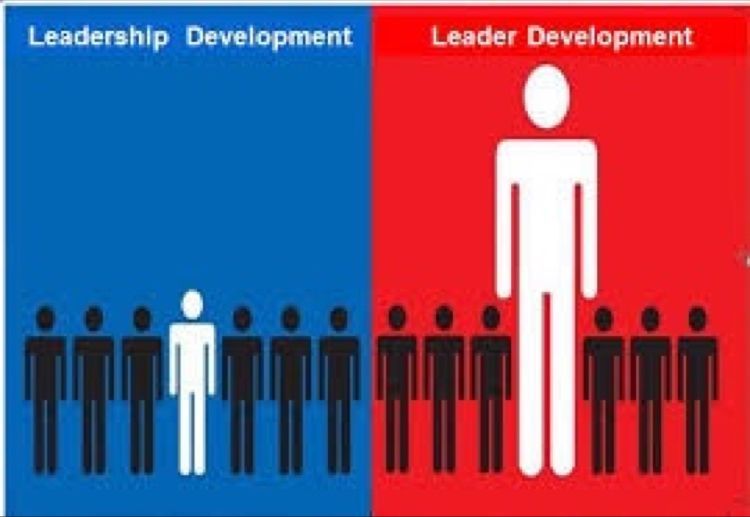

Should we focus on LEADER or LEADERSHIP? A good question. The difference isn’t only taxonomy, or just another one of those many simplistic dichotomies (leaders vs managers, leaders vs bosses etc), but one of hashtag#ontology.
The distinction lies in the application of a “systemic lens”, where the system is treated as the causal mechanism.
In fact, if we look at hashtag#leadership, we can define it as “systemic” either in the sense of a dependent variable, where it is considered emergent from the interplay of unit-level factors, e.g. the characteristics of leaders. Think:
LEADERSHIP = fn(Leader [traits/behaviours])
Often this approach leads to a simplistic reduction of the system of leadership that is being investigated to the traits of senior leaders. Interventions are focused on changing their “styles”, or selecting certain candidates.
Alternatively, we can define leadership as the independent variable. In this sense, the leadership “structure” is the cause for behavior of organizations and their leaders. Think:
Leader [traits/behaviours] = fn(Leadership)
In this case the system-level properties (e.g. the competitive rules, roles and relations; or the engineering culture, etc) determine the shape of what the organisation strives for, and how it influences individuals to follow.
But careful. It doesn’t mean necessarily that structures have greater explanatory power than the interaction and attributes of agents - or executives - thus implying that these are distinct forces, like macro and micro. Conversely. it suggests that agents are differently “structured” by their participation in the system to produce different effects. Hence, interventions would most appropriately seek to change both context and interaction patterns, focusing on underlying mechanisms.
Paraphrasing Alfred North Whitehead, no leadership theory can be more effective than the unconscious metaphysics which tacitly it presupposes.
#leadership #leadershipdevelopment
Should we focus on LEADER or LEADERSHIP? A good question. The difference isn’t only taxonomy, or just another one of those many simplistic dichotomies (leaders vs managers, leaders vs bosses etc), but one of hashtag#ontology.
The distinction lies in the application of a “systemic lens”, where the system is treated as the causal mechanism.
In fact, if we look at hashtag#leadership, we can define it as “systemic” either in the sense of a dependent variable, where it is considered emergent from the interplay of unit-level factors, e.g. the characteristics of leaders. Think:
LEADERSHIP = fn(Leader [traits/behaviours])
Often this approach leads to a simplistic reduction of the system of leadership that is being investigated to the traits of senior leaders. Interventions are focused on changing their “styles”, or selecting certain candidates.
Alternatively, we can define leadership as the independent variable. In this sense, the leadership “structure” is the cause for behavior of organizations and their leaders. Think:
Leader [traits/behaviours] = fn(Leadership)
In this case the system-level properties (e.g. the competitive rules, roles and relations; or the engineering culture, etc) determine the shape of what the organisation strives for, and how it influences individuals to follow.
But careful. It doesn’t mean necessarily that structures have greater explanatory power than the interaction and attributes of agents - or executives - thus implying that these are distinct forces, like macro and micro. Conversely. it suggests that agents are differently “structured” by their participation in the system to produce different effects. Hence, interventions would most appropriately seek to change both context and interaction patterns, focusing on underlying mechanisms.
Paraphrasing Alfred North Whitehead, no leadership theory can be more effective than the unconscious metaphysics which tacitly it presupposes.
#leadership #leadershipdevelopment
14-08-2023
"Economists don't care about reality, economists care about models."
In every normal science, models follow theories. Not in economics. Here, we are happy to reverse the logic: we shape our theories to fit our models, even when these models stray significantly from actual reality.
Indeed, most of the time we seem far too busy crafting and perpetuating the "perfect" model to bother with reality. We get excited about this framework, that strategy, those foolproof 5-steps, yet another decision-making logic, a novel 2by2 matrix... demonstrating perfectly how to get oneself into trouble when the map turns out to be very different from the territory.
Hence, there is an absolute necessity for an explicit hashtag#ontology in social sciences, including economics. And a kind reminder to all those who are rolling their eyes and prematurely dismissing the notion of "ontology" altogether - yep, exactly your lazy skepticism is part of the problem ;-).
Cheers to Tony Lawson: https://lnkd.in/eM2QC7Sz
Should we focus on LEADER or LEADERSHIP? A good question. The difference isn’t only taxonomy, or just another one of those many simplistic dichotomies (leaders vs managers, leaders vs bosses etc), but one of hashtag#ontology.
The distinction lies in the application of a “systemic lens”, where the system is treated as the causal mechanism.
In fact, if we look at hashtag#leadership, we can define it as “systemic” either in the sense of a dependent variable, where it is considered emergent from the interplay of unit-level factors, e.g. the characteristics of leaders. Think:
LEADERSHIP = fn(Leader [traits/behaviours])
Often this approach leads to a simplistic reduction of the system of leadership that is being investigated to the traits of senior leaders. Interventions are focused on changing their “styles”, or selecting certain candidates.
Alternatively, we can define leadership as the independent variable. In this sense, the leadership “structure” is the cause for behavior of organizations and their leaders. Think:
Leader [traits/behaviours] = fn(Leadership)
In this case the system-level properties (e.g. the competitive rules, roles and relations; or the engineering culture, etc) determine the shape of what the organisation strives for, and how it influences individuals to follow.
But careful. It doesn’t mean necessarily that structures have greater explanatory power than the interaction and attributes of agents - or executives - thus implying that these are distinct forces, like macro and micro. Conversely. it suggests that agents are differently “structured” by their participation in the system to produce different effects. Hence, interventions would most appropriately seek to change both context and interaction patterns, focusing on underlying mechanisms.
Paraphrasing Alfred North Whitehead, no leadership theory can be more effective than the unconscious metaphysics which tacitly it presupposes.
#leadership #leadershipdevelopment
14-08-2023

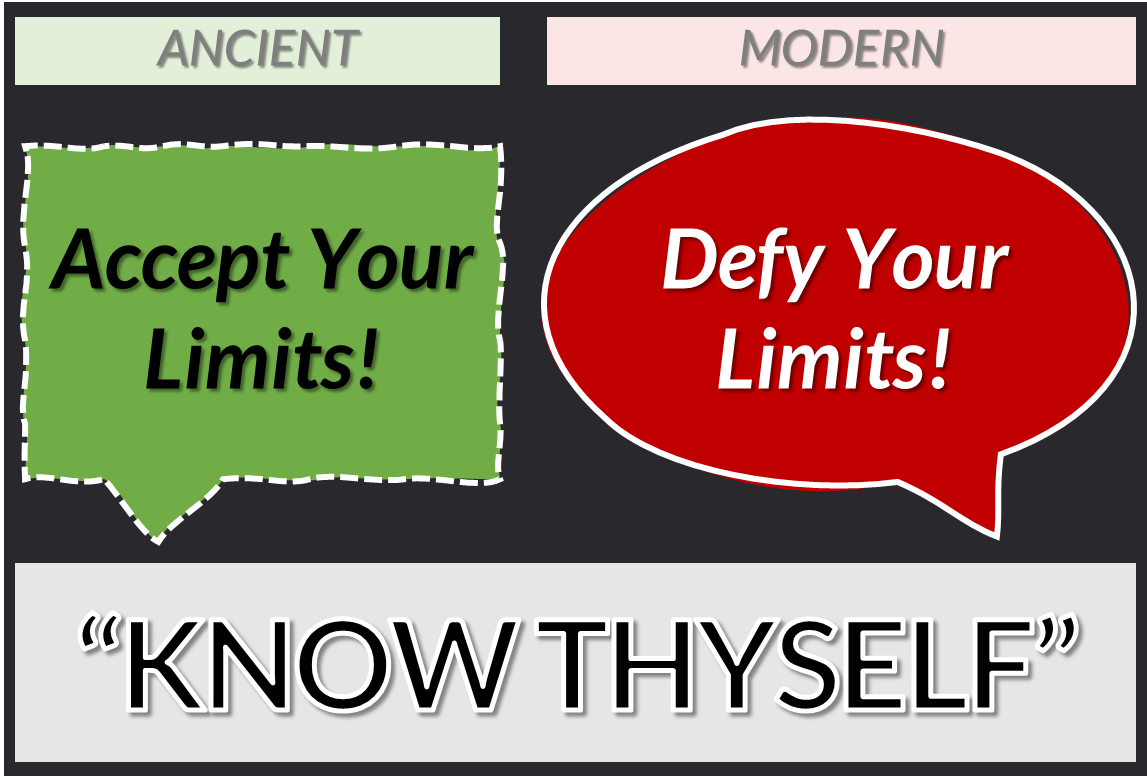

There certainly was a lot to be said, historically speaking, against a dogmatic pursuit of divine HEAVENS in the afterlife. However, it seems many of our problems only really started when we desperately tried to fashion our world into an "earthly heaven" and pursue pleasure in THIS LIFE.
Rather than another climate conference, maybe we need a new ORACLE, like the one at Delphi, 8th-4th centuries BCE...
Gnothi seauton - Know Thyself!
The first maxim at the Oracle at Delphi read “know thyself” - something postmodern people often like to interpret as an antique exhortation to individual self-contemplation; but of course it wasn't. In the antique pantheistic world it simply served as a warning: know that you are human, not a God; and do not strive to be a God, or thou shalt fall.
Meden agan - Nothing in Excess!
The second maxim demanded moderation. In fact, temperance is the first cardinal virtue, as posited by Plato and then Aristotle; the others are courage, phronesis, and justice. While temperance is about moderating our desires for hedonistic pleasure and material gain, courage is about our capacity to bravely face pain when appropriate. Phronesis, or practical wisdom, is the ability to use all the #virtues in the "right mean", in order to act for good in every contingent situation. #Justice, rather than being an individual is a public virtue: it means to ensure everyone is given (and only taking) their due. In ancient Greece, "pleonexia" was the much detested vice of avarice, a personal desire for more than one deserves.
Friendship and Charity
Aristotle added friendship as an all-important requirement, and the Church emphasized the importance of faith, hope and #love (charity) in the continual practice of "being a good human".
Maybe then, in simple terms, the critical insights from such ancient wisdom for modern people is that: we should not take ourselves to seriously (maxim 1); we must cultivate moderation and virtues (maxim 2); and if we seek to remodel our cosmos we should do so with love, faith and friendship - not only for ourselves, but all creatures around us.
Before it is too late.
There certainly was a lot to be said, historically speaking, against a dogmatic pursuit of divine HEAVENS in the afterlife. However, it seems many of our problems only really started when we desperately tried to fashion our world into an "earthly heaven" and pursue pleasure in THIS LIFE.
Rather than another climate conference, maybe we need a new ORACLE, like the one at Delphi, 8th-4th centuries BCE...
Gnothi seauton - Know Thyself!
The first maxim at the Oracle at Delphi read “know thyself” - something postmodern people often like to interpret as an antique exhortation to individual self-contemplation; but of course it wasn't. In the antique pantheistic world it simply served as a warning: know that you are human, not a God; and do not strive to be a God, or thou shalt fall.
Meden agan - Nothing in Excess!
The second maxim demanded moderation. In fact, temperance is the first cardinal virtue, as posited by Plato and then Aristotle; the others are courage, phronesis, and justice. While temperance is about moderating our desires for hedonistic pleasure and material gain, courage is about our capacity to bravely face pain when appropriate. Phronesis, or practical wisdom, is the ability to use all the #virtues in the "right mean", in order to act for good in every contingent situation. #Justice, rather than being an individual is a public virtue: it means to ensure everyone is given (and only taking) their due. In ancient Greece, "pleonexia" was the much detested vice of avarice, a personal desire for more than one deserves.
Friendship and Charity
Aristotle added friendship as an all-important requirement, and the Church emphasized the importance of faith, hope and #love (charity) in the continual practice of "being a good human".
Maybe then, in simple terms, the critical insights from such ancient wisdom for modern people is that: we should not take ourselves to seriously (maxim 1); we must cultivate moderation and virtues (maxim 2); and if we seek to remodel our cosmos we should do so with love, faith and friendship - not only for ourselves, but all creatures around us.
Before it is too late.
11-08-2023

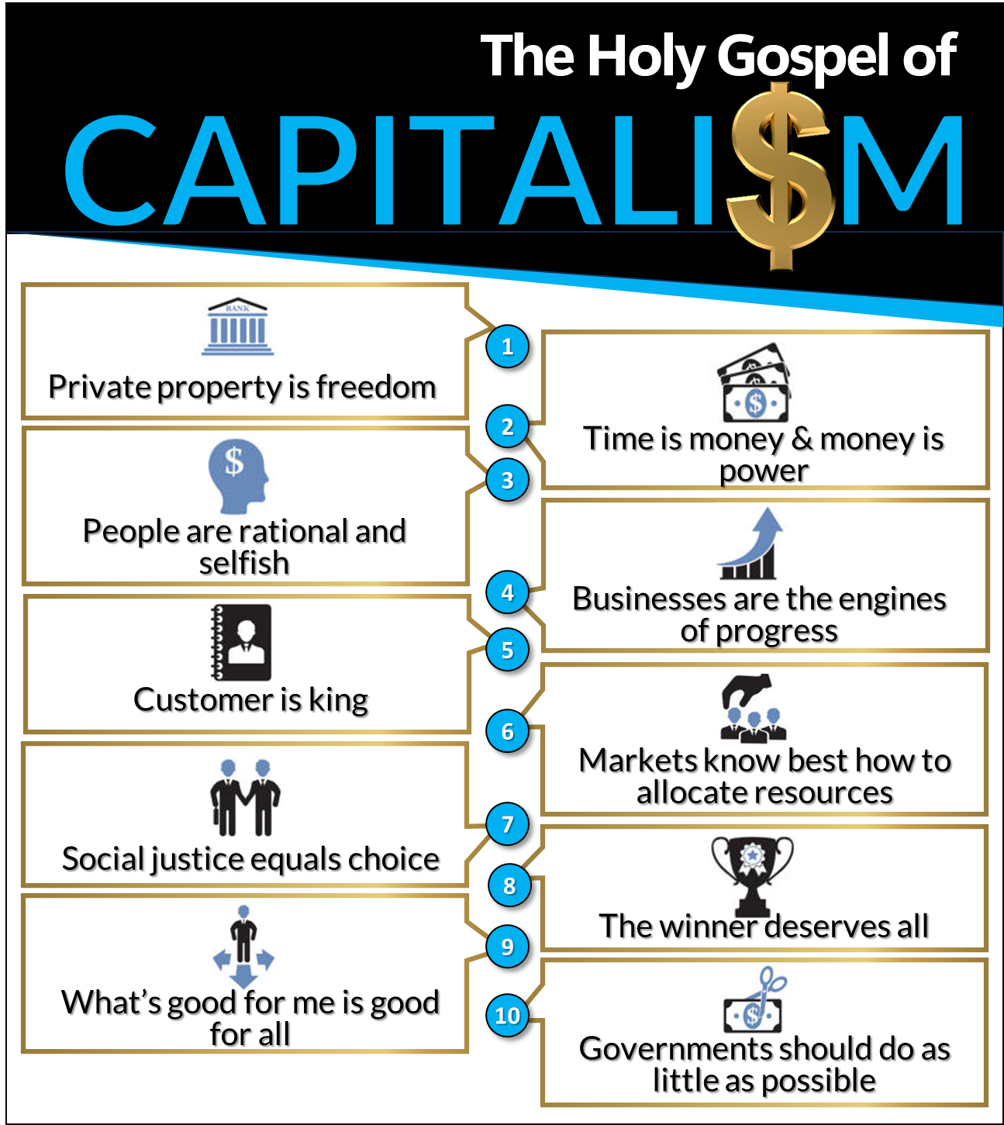

The HOLY GOSPEL of #CAPITALISM
1. Private property is freedom
2. Time is money - money is power
3. People are rational and selfish
4. Businesses are engines of progress
5. Customer is king
6. Markets know best how to allocate resources
7. Social justice equals choice
8. The winner deserves all
9. Governments should do as little as possible
10. What’s good for me is good for all
Repeat 3x daily until you truly believe.
Hallelujah!
PS: Sometimes we must first acknowledge an ideology before we can fruitfully examine, and if necessary deconstruct it.
#leadership #leadershipdevelopment
The HOLY GOSPEL of #CAPITALISM
1. Private property is freedom
2. Time is money - money is power
3. People are rational and selfish
4. Businesses are engines of progress
5. Customer is king
6. Markets know best how to allocate resources
7. Social justice equals choice
8. The winner deserves all
9. Governments should do as little as possible
10. What’s good for me is good for all
Repeat 3x daily until you truly believe.
Hallelujah!
PS: Sometimes we must first acknowledge an ideology before we can fruitfully examine, and if necessary deconstruct it.
#leadership #leadershipdevelopment
11-08-2023
The Shadows of the #PositivePersonality cult and its perilous #Trust dogma
Sigmund Freud had to escape from Vienna in 1938 and spent the last years of his life in a cozy cottage here in Hampstead. Wandering recently through his chambers, full of archeological relics, one thought kept coming up: there is a striking difference between Freud's sophisticated anthropological assumptions (the dark "id" slumbering in each of us, remember?) and the all-is-good platitudes of many modern psychologists and coaches.
In this context, I always found Freud's correspondence about "Why War?" with Albert Einstein in 1932 fascinating. Freud argues that both erotic (in the sense Plato uses the word in the symposium) and destructive impulses are innate and essential in men. Analogously, wars stem from a combination of love and hate - in the form of justice and power ("Recht und Macht") - where #power is firmly linked to violence. In fact, Freud argues, conflicts of interest, between men or animals, have always been settled by use of violence. Where justice was traditionally the right of the strongest, in modern communities violence is institutionalized by rules to subjugate the stronger individuals to the will of the collective. Of course, #justice thus is just a different form of violence and will breed new power struggles unless the community of men "subordinated their instinctual life to the dictatorship of reason". Reason, according to Freud, could come in two shapes - strong emotional ties between community members and shared identification with (cultural) ideals. None of which, Freud believed, would happen soon at a global level, so wars would remain inevitable. In the meantime, we should make sure good people are in charge.
Comparing Freud with the popular utopias of the positive thought movement, like Humankind by Rutger Bregman is insightful. Based on a bunch of compelling yet highly unscientific historical anecdotes, Rutger seeks to convince us that "a new realism" is justified: contrary to Freud's findings, he suggests "most people, deep down, are pretty decent". The problem is not humankind, but traditional #psychology which is infested by cynicism. Reaching the apotheosis of ingenuity, he claims that even if wars happen "catastrophes bring out the best in people".
Stories like Bregman's have a surprising following - many colleagues work on the premise that our role as leadership coaches is simply to amplify the "authentic self" with "unconditional regard" for coachees.
Beyond the ludicrous simplicity of such ideologies, and their lack of empirical backing, the danger of the #thinkpositive cult lies not only in its ontological individualism and ethical relativism, but in its perilous propositions: if everybody is innately good, every bad must be a consequence of context. Ergo, we do not need rules, but freedom. Not better people, but more trust. Not meritocracy, but participation.
No doubt, Freud would have asked us to lay down on his famous couch!
The Shadows of the #PositivePersonality cult and its perilous #Trust dogma
Sigmund Freud had to escape from Vienna in 1938 and spent the last years of his life in a cozy cottage here in Hampstead. Wandering recently through his chambers, full of archeological relics, one thought kept coming up: there is a striking difference between Freud's sophisticated anthropological assumptions (the dark "id" slumbering in each of us, remember?) and the all-is-good platitudes of many modern psychologists and coaches.
In this context, I always found Freud's correspondence about "Why War?" with Albert Einstein in 1932 fascinating. Freud argues that both erotic (in the sense Plato uses the word in the symposium) and destructive impulses are innate and essential in men. Analogously, wars stem from a combination of love and hate - in the form of justice and power ("Recht und Macht") - where #power is firmly linked to violence. In fact, Freud argues, conflicts of interest, between men or animals, have always been settled by use of violence. Where justice was traditionally the right of the strongest, in modern communities violence is institutionalized by rules to subjugate the stronger individuals to the will of the collective. Of course, #justice thus is just a different form of violence and will breed new power struggles unless the community of men "subordinated their instinctual life to the dictatorship of reason". Reason, according to Freud, could come in two shapes - strong emotional ties between community members and shared identification with (cultural) ideals. None of which, Freud believed, would happen soon at a global level, so wars would remain inevitable. In the meantime, we should make sure good people are in charge.
Comparing Freud with the popular utopias of the positive thought movement, like Humankind by Rutger Bregman is insightful. Based on a bunch of compelling yet highly unscientific historical anecdotes, Rutger seeks to convince us that "a new realism" is justified: contrary to Freud's findings, he suggests "most people, deep down, are pretty decent". The problem is not humankind, but traditional #psychology which is infested by cynicism. Reaching the apotheosis of ingenuity, he claims that even if wars happen "catastrophes bring out the best in people".
Stories like Bregman's have a surprising following - many colleagues work on the premise that our role as leadership coaches is simply to amplify the "authentic self" with "unconditional regard" for coachees.
Beyond the ludicrous simplicity of such ideologies, and their lack of empirical backing, the danger of the #thinkpositive cult lies not only in its ontological individualism and ethical relativism, but in its perilous propositions: if everybody is innately good, every bad must be a consequence of context. Ergo, we do not need rules, but freedom. Not better people, but more trust. Not meritocracy, but participation.
No doubt, Freud would have asked us to lay down on his famous couch!
11-08-2023

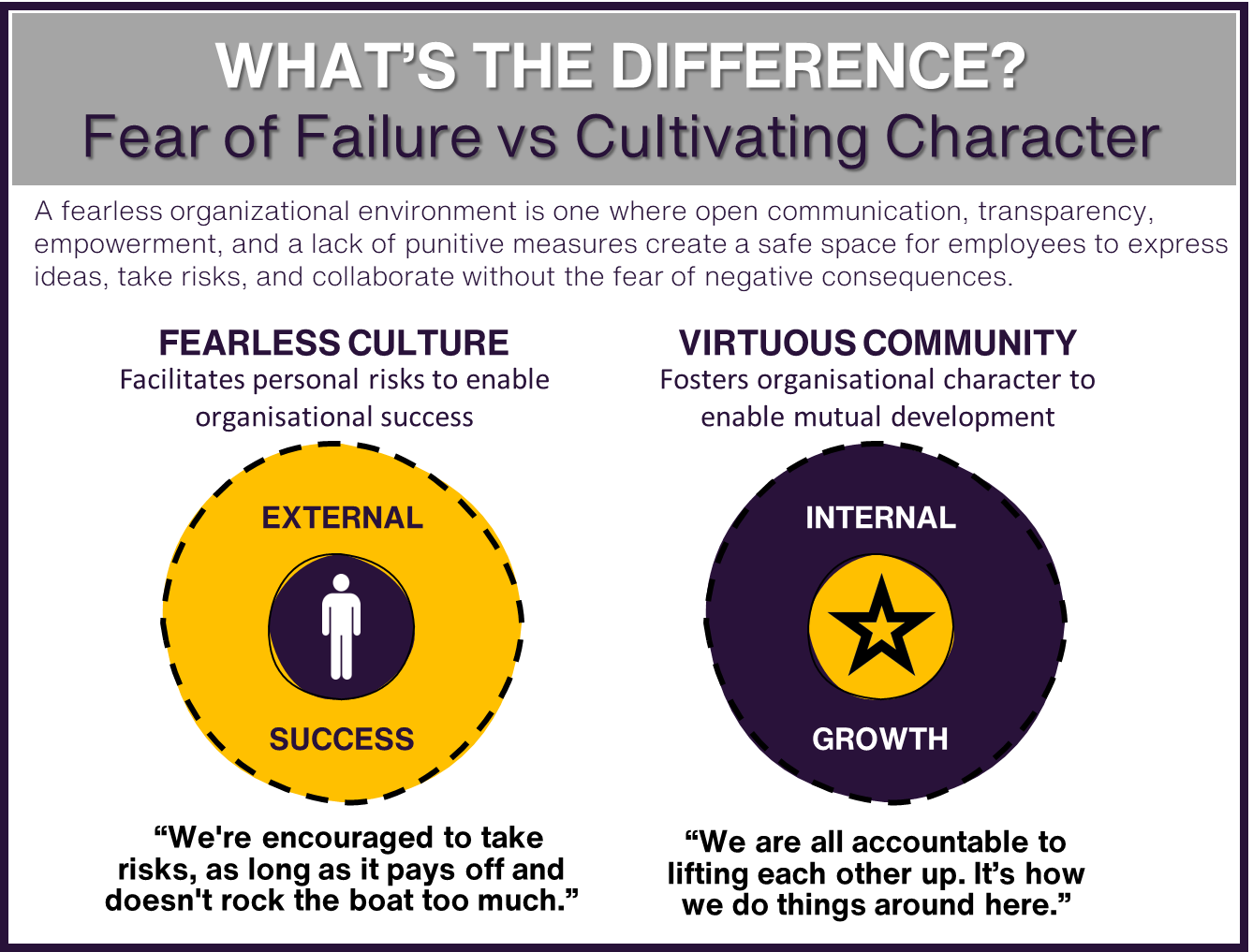

🎭 The Illusion of "FEARLESS" Cultures: A Closer Look 🎭
It's intriguing how many organizations champion so-called "fearless" cultures. They openly encourage employees to voice their thoughts, develop new ideas and take more risks. While on the surface it might seem empowering, digging a little deeper we often find that such movements merely seek to stimulate increased risk-taking and effort by employees, for the purpose of greater performance and profit. Seldom do such measures imply commitment to workers for their own sake, a change in political power structures, or indeed higher remuneration for workers.
🌱 Contrast this with the rarity of organizations that genuinely recognise that L&D isn't just a means to generate more profit, but an end in itself. Such businesses holistically adapt success measures, structures, routines, and leadership in order to nurture continuous mutual development and to encourage virtuous inquiry and action in everything they do. Their driver is not fear, but virtue.
Here are some hallmarks that set such #goodorganisations apart:
🛤️ Character and responsibility: While profits matter, a good organisation is deeply committed to craft institutional habits that generate a positive difference to stakeholders and society at large, in everything they touch.
🤝 Wise Decision-Making: These organizations not only value diverse perspectives and include employees in important decisions, but commit to higher aims of truth, care and justice, beyond customer or shareholder preferences.
🚀 Deliberate Development: Open communications are not only focused on short-term gains, profits, or other business metrics, but foster meaningful dialogue about mutual personal, professional, and organisational growth.
🌐 Triple-Loop Learning: Mechanisms for regular feedback enable stakeholders to systematically voice their views and continually question and improve organisational purpose, power structures, routines and behaviours.
🎗️ Mutual Empowerment: Well-designed training initiatives, mentorship programs, and resources for development demonstrate a genuine willingness to foster employee fulfillment and community building. Calculated risks are taken to promote organisational innovation in order to enable mutual and shared potential.
🌈 Good Leadership: Leaders are chosen for competence and virtue, lead by example, and prioritize individual and organisational well-being and wisdom to forge a virtuous community.
🌏 Corporate Citizenship: Beyond the workplace, virtuous cultures extend their positive impact into the larger society, reflecting a desire to contribute to the common good.
Only if we advance beyond superficial narratives, will we craft organizations that recognize that true success lies not just in outward status and share prices, but in their inward character and constitution. Treating people as means, instead of treating them as ends, might be a good starting point.
#goodorganisations #leadership #leadershipdevelopment
🎭 The Illusion of "FEARLESS" Cultures: A Closer Look 🎭
It's intriguing how many organizations champion so-called "fearless" cultures. They openly encourage employees to voice their thoughts, develop new ideas and take more risks. While on the surface it might seem empowering, digging a little deeper we often find that such movements merely seek to stimulate increased risk-taking and effort by employees, for the purpose of greater performance and profit. Seldom do such measures imply commitment to workers for their own sake, a change in political power structures, or indeed higher remuneration for workers.
🌱 Contrast this with the rarity of organizations that genuinely recognise that L&D isn't just a means to generate more profit, but an end in itself. Such businesses holistically adapt success measures, structures, routines, and leadership in order to nurture continuous mutual development and to encourage virtuous inquiry and action in everything they do. Their driver is not fear, but virtue.
Here are some hallmarks that set such #goodorganisations apart:
🛤️ Character and responsibility: While profits matter, a good organisation is deeply committed to craft institutional habits that generate a positive difference to stakeholders and society at large, in everything they touch.
🤝 Wise Decision-Making: These organizations not only value diverse perspectives and include employees in important decisions, but commit to higher aims of truth, care and justice, beyond customer or shareholder preferences.
🚀 Deliberate Development: Open communications are not only focused on short-term gains, profits, or other business metrics, but foster meaningful dialogue about mutual personal, professional, and organisational growth.
🌐 Triple-Loop Learning: Mechanisms for regular feedback enable stakeholders to systematically voice their views and continually question and improve organisational purpose, power structures, routines and behaviours.
🎗️ Mutual Empowerment: Well-designed training initiatives, mentorship programs, and resources for development demonstrate a genuine willingness to foster employee fulfillment and community building. Calculated risks are taken to promote organisational innovation in order to enable mutual and shared potential.
🌈 Good Leadership: Leaders are chosen for competence and virtue, lead by example, and prioritize individual and organisational well-being and wisdom to forge a virtuous community.
🌏 Corporate Citizenship: Beyond the workplace, virtuous cultures extend their positive impact into the larger society, reflecting a desire to contribute to the common good.
Only if we advance beyond superficial narratives, will we craft organizations that recognize that true success lies not just in outward status and share prices, but in their inward character and constitution. Treating people as means, instead of treating them as ends, might be a good starting point.
#goodorganisations #leadership #leadershipdevelopment
08-08-2023

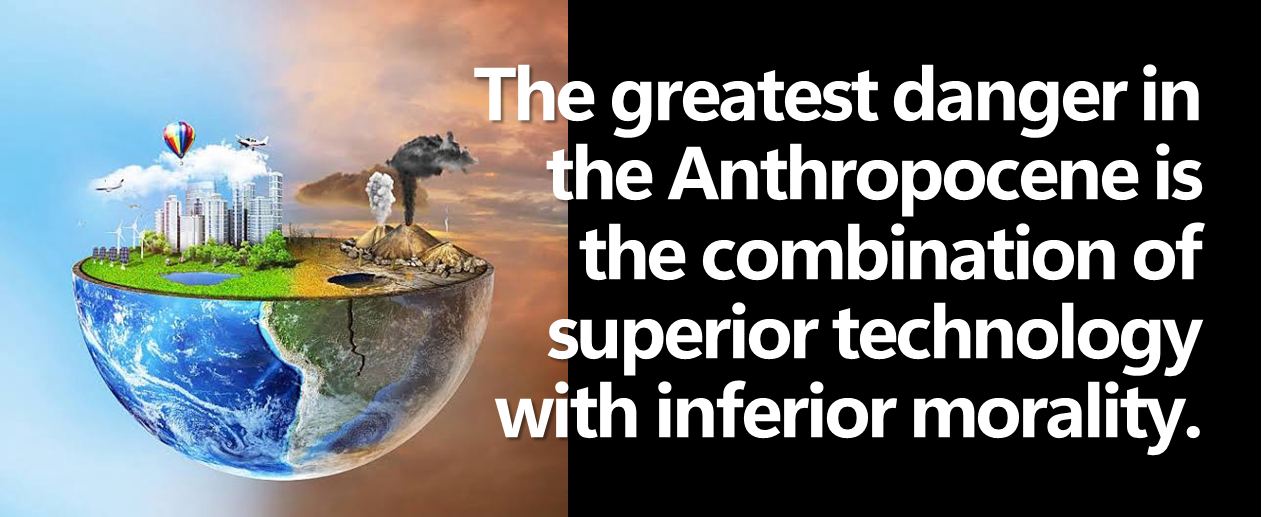

"The greatest danger in the Anthropocene is the combination of superior technology with inferior morality."
#Leadership #leadershipdevelopment #goodleadership
"The greatest danger in the Anthropocene is the combination of superior technology with inferior morality."
#Leadership #leadershipdevelopment #goodleadership
08-08-2023
PARADISE LOST. Contrary to conventional wisdom and much populist outrage, the most fundamental challenge with INEFFECTIVE BUREAUCRACIES is not the increase in cost, but the demise of ideals.
When companies scale and increasingly turn their focus from a dedication to shared service towards an obsession with internal controls, what is often lost is the source of values that inspired their inception in the first place.
Whilst burgeoning costs can be addressed with structural interventions, the loss of "charism" cannot. Sadly, in our science-blind world of management, we far too often insist on "curing" a broken heart with cardiological surgery...
#LEADERSHIP #populism #bureaucracymustlive
PARADISE LOST. Contrary to conventional wisdom and much populist outrage, the most fundamental challenge with INEFFECTIVE BUREAUCRACIES is not the increase in cost, but the demise of ideals.
When companies scale and increasingly turn their focus from a dedication to shared service towards an obsession with internal controls, what is often lost is the source of values that inspired their inception in the first place.
Whilst burgeoning costs can be addressed with structural interventions, the loss of "charism" cannot. Sadly, in our science-blind world of management, we far too often insist on "curing" a broken heart with cardiological surgery...
#LEADERSHIP #populism #bureaucracymustlive
05-08-2023
"Begin each day by telling yourself: Today I shall be meeting with interference, ingratitude, insolence, disloyalty, ill-will, and selfishness – all of them due to the offenders’ ignorance of what is good or evil. But for my part I have long perceived the nature of good and its nobility, the nature of evil and its meanness, and also the nature of the culprit himself, who is my brother (not in the physical sense, but as a fellow creature similarly endowed with reason and a share of the divine); therefore none of those things can injure me, for nobody can implicate me in what is degrading. Neither can I be angry with my brother or fall foul of him; for he and I were born to work together, like a man’s two hands, feet or eyelids, or the upper and lower rows of his teeth. To obstruct each other is against Nature’s law – and what is irritation or aversion but a form of obstruction."
Adding elsewhere: "the art of living is more like wrestling than dancing". Oh yes.
Marcus Aurelius, the last of the "five good emperors, Meditations
#leadership #leadershipdevelopment
"Begin each day by telling yourself: Today I shall be meeting with interference, ingratitude, insolence, disloyalty, ill-will, and selfishness – all of them due to the offenders’ ignorance of what is good or evil. But for my part I have long perceived the nature of good and its nobility, the nature of evil and its meanness, and also the nature of the culprit himself, who is my brother (not in the physical sense, but as a fellow creature similarly endowed with reason and a share of the divine); therefore none of those things can injure me, for nobody can implicate me in what is degrading. Neither can I be angry with my brother or fall foul of him; for he and I were born to work together, like a man’s two hands, feet or eyelids, or the upper and lower rows of his teeth. To obstruct each other is against Nature’s law – and what is irritation or aversion but a form of obstruction."
Adding elsewhere: "the art of living is more like wrestling than dancing". Oh yes.
Marcus Aurelius, the last of the "five good emperors, Meditations
#leadership #leadershipdevelopment
05-08-2023

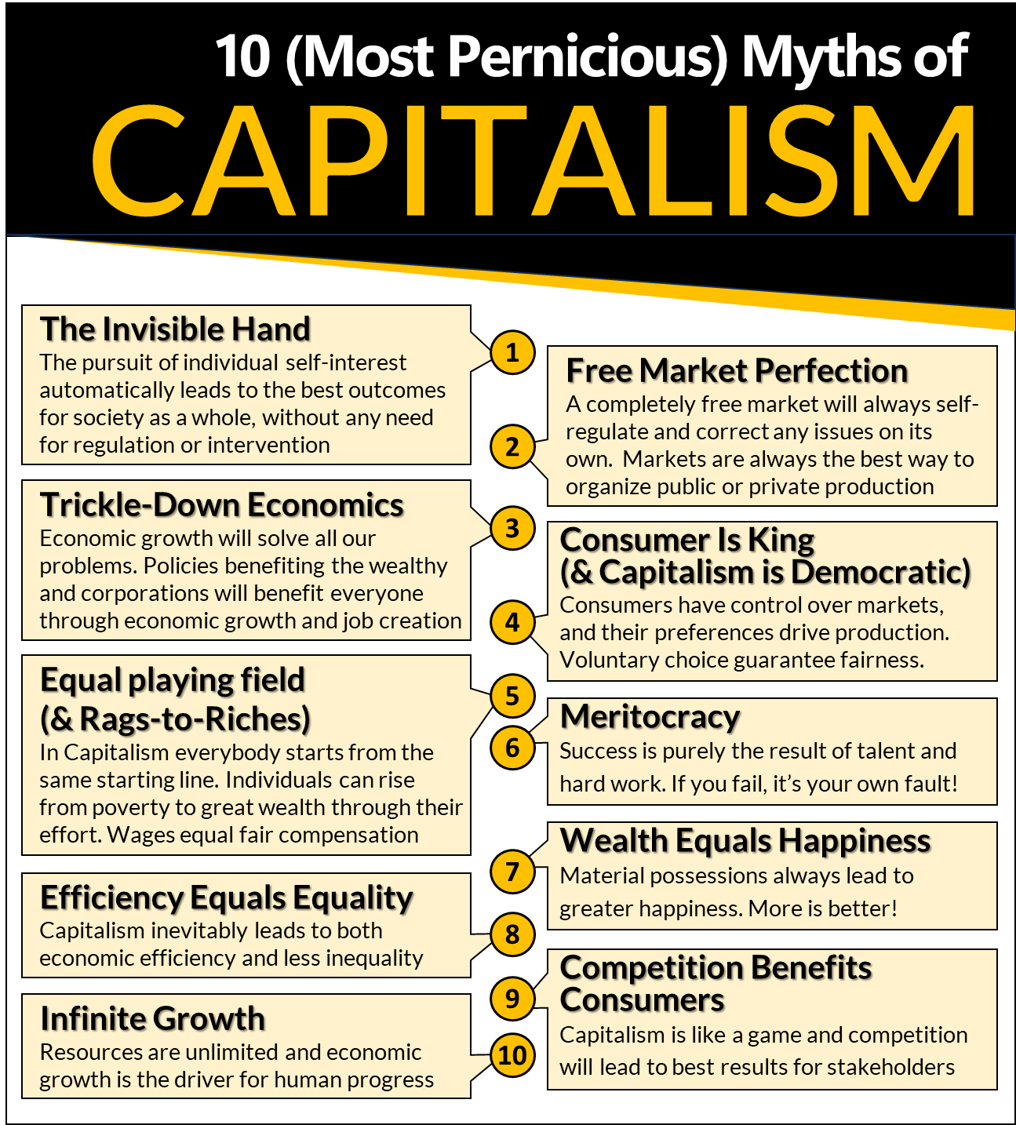

YES, OF COURSE!, said the Economics Professor to the student, with an indignant voice. SANTA CLAUS DOES EXIST! Only that conditions must be perfect so you can see him...
In the land of economics, full of dollars and cents,
Lives the beautiful myth of the invisible hands...
These modern superheroes, oh what a whimsical notion,
guide all our markets, with a godly devotion!
Almighty and all-knowing, they orchestrate with care,
Supply and demand; prices dancing with flair.
In boardrooms they rave, "Let the economy roam free,
Love shall beget profits, for you and for me!"
Sadly, not all is true, in the management haze,
The hands are not more than a puppeteer's craze.
So, in myths and in markets, be skeptical and wise,
See through the façade, where reality lies.
#economicpoetry #leadership #capitalism #criticalmanagementscience
YES, OF COURSE!, said the Economics Professor to the student, with an indignant voice. SANTA CLAUS DOES EXIST! Only that conditions must be perfect so you can see him...
In the land of economics, full of dollars and cents,
Lives the beautiful myth of the invisible hands...
These modern superheroes, oh what a whimsical notion,
guide all our markets, with a godly devotion!
Almighty and all-knowing, they orchestrate with care,
Supply and demand; prices dancing with flair.
In boardrooms they rave, "Let the economy roam free,
Love shall beget profits, for you and for me!"
Sadly, not all is true, in the management haze,
The hands are not more than a puppeteer's craze.
So, in myths and in markets, be skeptical and wise,
See through the façade, where reality lies.
#economicpoetry #leadership #capitalism #criticalmanagementscience
03-08-2023



It is somewhat uncanny. Much of today's business improvement rhetoric builds on a positive psychology dogma of increased freedom, wellbeing, authenticity, meaning, pleasure. Our work, so the story goes, shall enable every person to do only what they REALLY REALLY want, to self-actualise, self-improve, be authentic, creative, innovative... Hallelujah!
Beyond it being rather unclear how any "regular job" could accommodate such a high degree of personalisation - and, hence, to what extent we might be hypocritically using all such big words only to make the same old activities sound more appealing to the workers; is it not funny that very few people know what they "really really" want?
Here, the linkage between the whole "future of work" discussion and basic philosophical questions becomes eminently clear. Without a solid philosophy of work (& life) our passionate debate about organisational transformation is ephemeral and rather pointless.
And maybe the fact that most adults are uncertain about what they truly desire is not a cause for depression, but simply proves the point that it is a worthwhile endeavour to go after. Maybe, at the end of the day, that great transformation that we're all so anxious to achieve is not about work at all, but about us. About the necessary encounter with those most existential questions: why are we here, who are we, and whither are we going.
Maybe it isn't simply about skilling people up to survive the encounter with AI and robotics, or make processes more effective, or redistribute work, or the proceeds from work, and not even about creating more innovative, agile, participative, psychologically safe, authentic, who-knows-what-other-buzz-wordsy workplaces. Maybe it is about enabling dialogic development.
In fact, it is in the nature of development that it is not just "give and take". It is not something leaders can hand out to followers. But it equally is not only about giving people autonomy, or being more democratic and prosocial. Instead, it requires guided and reciprocate cultivation of identity and character, through work. As Nietzsche points out, the postmodern man risks to lose not only God, but also himself. It is not easy to emancipate from being a means to becoming an end, and to turn a "job" into a calling. It requires, first and foremost, to recover a desire "to be" - which, in turn, needs facilitation, experimentation, coordination.
So maybe what we need to look for is not a 4-day work week, but a 4+1 day week. Where on 4 days we work - highly productively - for our businesses. But on the +1 time the business works - highly supportively - for us. Enabling us to understand what we really, really (should) want and helping us to try it out - to see if it makes us and our community grow and flourish. What does this mean for governance, processes, objectives, structures, policies? Who knows. Let's think it through.
#business #work #development #transformation #leaders #futureofwork #wellbeing #agile
It is somewhat uncanny. Much of today's business improvement rhetoric builds on a positive psychology dogma of increased freedom, wellbeing, authenticity, meaning, pleasure. Our work, so the story goes, shall enable every person to do only what they REALLY REALLY want, to self-actualise, self-improve, be authentic, creative, innovative... Hallelujah!
Beyond it being rather unclear how any "regular job" could accommodate such a high degree of personalisation - and, hence, to what extent we might be hypocritically using all such big words only to make the same old activities sound more appealing to the workers; is it not funny that very few people know what they "really really" want?
Here, the linkage between the whole "future of work" discussion and basic philosophical questions becomes eminently clear. Without a solid philosophy of work (& life) our passionate debate about organisational transformation is ephemeral and rather pointless.
And maybe the fact that most adults are uncertain about what they truly desire is not a cause for depression, but simply proves the point that it is a worthwhile endeavour to go after. Maybe, at the end of the day, that great transformation that we're all so anxious to achieve is not about work at all, but about us. About the necessary encounter with those most existential questions: why are we here, who are we, and whither are we going.
Maybe it isn't simply about skilling people up to survive the encounter with AI and robotics, or make processes more effective, or redistribute work, or the proceeds from work, and not even about creating more innovative, agile, participative, psychologically safe, authentic, who-knows-what-other-buzz-wordsy workplaces. Maybe it is about enabling dialogic development.
In fact, it is in the nature of development that it is not just "give and take". It is not something leaders can hand out to followers. But it equally is not only about giving people autonomy, or being more democratic and prosocial. Instead, it requires guided and reciprocate cultivation of identity and character, through work. As Nietzsche points out, the postmodern man risks to lose not only God, but also himself. It is not easy to emancipate from being a means to becoming an end, and to turn a "job" into a calling. It requires, first and foremost, to recover a desire "to be" - which, in turn, needs facilitation, experimentation, coordination.
So maybe what we need to look for is not a 4-day work week, but a 4+1 day week. Where on 4 days we work - highly productively - for our businesses. But on the +1 time the business works - highly supportively - for us. Enabling us to understand what we really, really (should) want and helping us to try it out - to see if it makes us and our community grow and flourish. What does this mean for governance, processes, objectives, structures, policies? Who knows. Let's think it through.
#business #work #development #transformation #leaders #futureofwork #wellbeing #agile
01-08-2023
Where is the STATUE OF RESPONSIBILITY? Thinking of iconic statues in the United States, the Statue of hashtag#Liberty immediately comes to mind, symbolizing freedom and opportunity. But what about its counterpart, the Statue of Responsibility? While it may not be as widely recognized, the concept behind it is both profound and thought-provoking.
The idea of a Statue of Responsibility was proposed by Holocaust survivor Viktor Frankl, renowned psychiatrist and author of "Man's Search for Meaning." Frankl believed that alongside the pursuit of liberty, society should also emphasize the importance of personal responsibility. He argued that true freedom is not merely the absence of constraints but the conscious choice to take responsibility for one's actions and make meaningful contributions to the world: “Freedom is only part of the story and half of the truth. Freedom is but the negative aspect of the whole phenomenon whose positive aspect is responsibleness. In fact, freedom is in danger of degenerating into mere arbitrariness unless it is lived in terms of responsibleness. That is why I recommend that the Statue of Liberty on the East Coast be supplemented by a Statue of Responsibility on the West Coast.”
The Statue of Responsibility would thus serve as a reminder that individual freedom is intricately tied to our responsibility towards others and society as a whole. It would encourage us to reflect on the impact of our choices, emphasizing that we have a duty to use our freedom in ways that benefit and uplift others.
While the Statue of Responsibility does not physically exist at present - at least not in full scale, the concept certainly challenges us to consider the balance between freedom and responsibility in our own lives. It urges us to recognize our capacity to shape the world through our choices and actions, reminding us that true fulfillment and meaning come from living a life of purpose and service.
In a world of business, often characterized by division, competition and self-interest, the idea of the Statue of Responsibility might also serve as a powerful wakeup call for leaders, asking us to examine how and whether we truly contribute to the betterment of society and make a positive difference in the lives of those around us.
So, maybe the real question is: where is YOUR Statue of Responsibility? Like it was never physically erected on the West Coast, it might stand equally forgotten within each of us, waiting to be embodied through our conscious decisions and the impact we have on others. Maybe we should search for it more often to ensure we embrace its implied challenge, to always carefully balance freedom with responsibility, and to strive to create a better future for generations to come.
Commenting on: https://lnkd.in/eH4CqNpJ
#leadership #leadershipdevelopment #goodleaders
Where is the STATUE OF RESPONSIBILITY? Thinking of iconic statues in the United States, the Statue of hashtag#Liberty immediately comes to mind, symbolizing freedom and opportunity. But what about its counterpart, the Statue of Responsibility? While it may not be as widely recognized, the concept behind it is both profound and thought-provoking.
The idea of a Statue of Responsibility was proposed by Holocaust survivor Viktor Frankl, renowned psychiatrist and author of "Man's Search for Meaning." Frankl believed that alongside the pursuit of liberty, society should also emphasize the importance of personal responsibility. He argued that true freedom is not merely the absence of constraints but the conscious choice to take responsibility for one's actions and make meaningful contributions to the world: “Freedom is only part of the story and half of the truth. Freedom is but the negative aspect of the whole phenomenon whose positive aspect is responsibleness. In fact, freedom is in danger of degenerating into mere arbitrariness unless it is lived in terms of responsibleness. That is why I recommend that the Statue of Liberty on the East Coast be supplemented by a Statue of Responsibility on the West Coast.”
The Statue of Responsibility would thus serve as a reminder that individual freedom is intricately tied to our responsibility towards others and society as a whole. It would encourage us to reflect on the impact of our choices, emphasizing that we have a duty to use our freedom in ways that benefit and uplift others.
While the Statue of Responsibility does not physically exist at present - at least not in full scale, the concept certainly challenges us to consider the balance between freedom and responsibility in our own lives. It urges us to recognize our capacity to shape the world through our choices and actions, reminding us that true fulfillment and meaning come from living a life of purpose and service.
In a world of business, often characterized by division, competition and self-interest, the idea of the Statue of Responsibility might also serve as a powerful wakeup call for leaders, asking us to examine how and whether we truly contribute to the betterment of society and make a positive difference in the lives of those around us.
So, maybe the real question is: where is YOUR Statue of Responsibility? Like it was never physically erected on the West Coast, it might stand equally forgotten within each of us, waiting to be embodied through our conscious decisions and the impact we have on others. Maybe we should search for it more often to ensure we embrace its implied challenge, to always carefully balance freedom with responsibility, and to strive to create a better future for generations to come.
Commenting on: https://lnkd.in/eH4CqNpJ
#leadership #leadershipdevelopment #goodleaders
01-08-2023

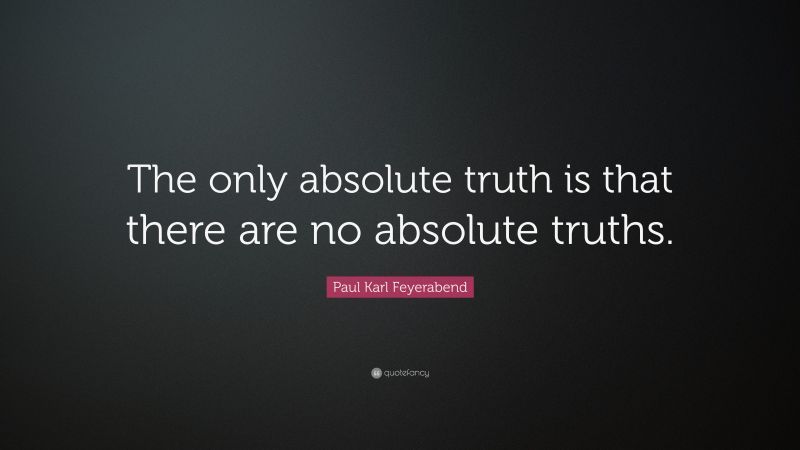

Almost every adult today believes, or claims to believe, that TRUTH is relative. Whatever people’s backgrounds, their absolute embrace of relativism and their allegiance to equality unites them.
For them, the relativity of truth is not a theoretical insight but a moral postulate, the condition of a free society. "The true believer is the real danger!", they will claim. What we should fear is not error, but intolerance! Men thinking they were right has led to wars, persecutions, slavery, xenophobia, racism, and chauvinism. The point is not to correct mistakes but rather not to aim for right at all.
When challenged, their response is a combination of disbelief and indignation: "Are you a socialist?” - the only alternative they know. Relativism is necessary, they decree, to openness; and this is the virtue, the only virtue. Openness— and the relativism that makes it plausible —is, allegedly, the great insight of our times.
Such people, of course, cannot defend their opinions. It is something with which they have been indoctrinated from early age. The best they can do is point to different cultures they have seen and ask: what right do I or anyone have to say one is better than another?
Very often, it is not that they know much about other nations, or about their own. In fact, their education did not mean to make them scholars. Every political system has an educational goal it tries to attain. It wants to produce a certain kind of human being. Aristocracies want gentlemen, oligarchies want people who pursue money, and democracies need lovers of equality.
If we pose a routine question designed to make them think, such as, "If you had been a British administrator in India, would you have let the natives burn the widow at the funeral of their husband?" they either remain silent or reply the British should never have been there in the first place.
The traditional view was that by recognizing natural rights and duties people undergirded unity and solidarity. The modern education of openness rejects all that. Old beliefs are said to be flawed and regressive. There are no absolutes; only freedom is absolute! The inflamed sensitivity of a radicalized democratic theory outlaws any limit as arbitrary and tyrannical. There is no enemy other than the man who is not open to everything; who is closed to the emergent.
But when there are no shared goals or vision of the public good, is a good society any longer possible? Of course, the ultimate result of such simplistic relativism is that the argument justifying freedom itself disappears. Eventually the quest for openness is no longer a virtue to discover the good, but merely a thoughtless pursuit of one’s own prejudice. As Plato states in the Republic, to the tyrant’s mind, any restriction on his greed is an affront: a sign that he does not yet rule supreme. From pleonexia to lawlessness is often just a small step...
(Based on The Closing of The American Mind, Allan Bloom)
#leadership #leadershipdevelopment #goodleaders
Almost every adult today believes, or claims to believe, that TRUTH is relative. Whatever people’s backgrounds, their absolute embrace of relativism and their allegiance to equality unites them.
For them, the relativity of truth is not a theoretical insight but a moral postulate, the condition of a free society. "The true believer is the real danger!", they will claim. What we should fear is not error, but intolerance! Men thinking they were right has led to wars, persecutions, slavery, xenophobia, racism, and chauvinism. The point is not to correct mistakes but rather not to aim for right at all.
When challenged, their response is a combination of disbelief and indignation: "Are you a socialist?” - the only alternative they know. Relativism is necessary, they decree, to openness; and this is the virtue, the only virtue. Openness— and the relativism that makes it plausible —is, allegedly, the great insight of our times.
Such people, of course, cannot defend their opinions. It is something with which they have been indoctrinated from early age. The best they can do is point to different cultures they have seen and ask: what right do I or anyone have to say one is better than another?
Very often, it is not that they know much about other nations, or about their own. In fact, their education did not mean to make them scholars. Every political system has an educational goal it tries to attain. It wants to produce a certain kind of human being. Aristocracies want gentlemen, oligarchies want people who pursue money, and democracies need lovers of equality.
If we pose a routine question designed to make them think, such as, "If you had been a British administrator in India, would you have let the natives burn the widow at the funeral of their husband?" they either remain silent or reply the British should never have been there in the first place.
The traditional view was that by recognizing natural rights and duties people undergirded unity and solidarity. The modern education of openness rejects all that. Old beliefs are said to be flawed and regressive. There are no absolutes; only freedom is absolute! The inflamed sensitivity of a radicalized democratic theory outlaws any limit as arbitrary and tyrannical. There is no enemy other than the man who is not open to everything; who is closed to the emergent.
But when there are no shared goals or vision of the public good, is a good society any longer possible? Of course, the ultimate result of such simplistic relativism is that the argument justifying freedom itself disappears. Eventually the quest for openness is no longer a virtue to discover the good, but merely a thoughtless pursuit of one’s own prejudice. As Plato states in the Republic, to the tyrant’s mind, any restriction on his greed is an affront: a sign that he does not yet rule supreme. From pleonexia to lawlessness is often just a small step...
(Based on The Closing of The American Mind, Allan Bloom)
#leadership #leadershipdevelopment #goodleaders
01-08-2023
Heroic Failure: Brexit and the Politics of Pain - A reflective book for the summer.
Since arriving in the UK I’ve always been curious (and somewhat taken aback) by the English obsession with the second world war. It goes much beyond any endeavour in other European countries to remember and prevent the horrors of military conflict. In the UK, remembrance often turns into a highly ritualized celebration of the nation's moral superiority, mixed with a longing and self-pitying nostalgia for a bygone era of British greatness. Self-criticism is rarely invited. In my over twenty years here, I have seldom witnessed a public voice that vigorously addressed the country's history of brutality and cruelty in places like India, Kenya or South Africa during its colonial past.
Therefore, Fintan O'Toole's book turned out to be an incisive and insightful exploration. He delves deeply into the intriguing and perplexing neuroticism of the English search for a lost identity as a driving force behind Brexit. With a wealth of anecdotes and references from literature and media, O'Toole skillfully unveils how England has cultivated a distinct 'structure of feeling,' oscillating between a sense of victimhood and grandiosity. The iconic backdrop of World War II is deliberately used and reused as a touchstone for constructing a narrative of national martyrdom, wherein the former colonial power defies an imagined intolerable oppression from a 'soft-Nazi European superstate,' while at the same time harboring ludicrous dreams of an 'Empire 2.0' in the Anglosphere.
O'Toole contends that the pinnacle of English heroism lies in a stoic embrace of self-inflicted failure. He describes a sado-masochistic dynamic of dominance and submission, where England craves recognition but knows that "they hate us because we saved them". The Brexit movement becomes a theater of sadopopulism, where concepts of freedom are bizarrely intertwined with self-inflicted pain: it doesn't greatly matter what the EU is doing, nor that between the British self-image as exemplars of liberty and civility and the brutal realities of its imperial history there is a yawning gap. What matters is that it shall not yield from its imaginary moral high ground, even if it perishes. Hurt yourself if you truly love your country! Take back control! Propelled by insidious racism and the reckless mendacity of a shameless class of political buffoons, it defiantly sets out on mission as rebellious as it is senseless, to salvage such grandiose tokens of English greatness as prawn cocktail flavoured crisps.
O'Toole doesn't discount critiques of the EU: being angry about the EU is not a psychosis - it's a mark of sanity. Yet, he skillfully uncovers the irony in how a self-serving political elite manipulates hurtful nationalism while eluding the consequences of their actions. The UK’s dilettante political class is the one that suffers least from ...
Full review: https://lnkd.in/dBDgdjhK
Heroic Failure: Brexit and the Politics of Pain - A reflective book for the summer.
Since arriving in the UK I’ve always been curious (and somewhat taken aback) by the English obsession with the second world war. It goes much beyond any endeavour in other European countries to remember and prevent the horrors of military conflict. In the UK, remembrance often turns into a highly ritualized celebration of the nation's moral superiority, mixed with a longing and self-pitying nostalgia for a bygone era of British greatness. Self-criticism is rarely invited. In my over twenty years here, I have seldom witnessed a public voice that vigorously addressed the country's history of brutality and cruelty in places like India, Kenya or South Africa during its colonial past.
Therefore, Fintan O'Toole's book turned out to be an incisive and insightful exploration. He delves deeply into the intriguing and perplexing neuroticism of the English search for a lost identity as a driving force behind Brexit. With a wealth of anecdotes and references from literature and media, O'Toole skillfully unveils how England has cultivated a distinct 'structure of feeling,' oscillating between a sense of victimhood and grandiosity. The iconic backdrop of World War II is deliberately used and reused as a touchstone for constructing a narrative of national martyrdom, wherein the former colonial power defies an imagined intolerable oppression from a 'soft-Nazi European superstate,' while at the same time harboring ludicrous dreams of an 'Empire 2.0' in the Anglosphere.
O'Toole contends that the pinnacle of English heroism lies in a stoic embrace of self-inflicted failure. He describes a sado-masochistic dynamic of dominance and submission, where England craves recognition but knows that "they hate us because we saved them". The Brexit movement becomes a theater of sadopopulism, where concepts of freedom are bizarrely intertwined with self-inflicted pain: it doesn't greatly matter what the EU is doing, nor that between the British self-image as exemplars of liberty and civility and the brutal realities of its imperial history there is a yawning gap. What matters is that it shall not yield from its imaginary moral high ground, even if it perishes. Hurt yourself if you truly love your country! Take back control! Propelled by insidious racism and the reckless mendacity of a shameless class of political buffoons, it defiantly sets out on mission as rebellious as it is senseless, to salvage such grandiose tokens of English greatness as prawn cocktail flavoured crisps.
O'Toole doesn't discount critiques of the EU: being angry about the EU is not a psychosis - it's a mark of sanity. Yet, he skillfully uncovers the irony in how a self-serving political elite manipulates hurtful nationalism while eluding the consequences of their actions. The UK’s dilettante political class is the one that suffers least from ...
Full review: https://lnkd.in/dBDgdjhK
29-07-2023
As a successful lawyer, so the saying goes, you spend the first part of your career chasing the bad guys, and then the second half representing them.
As a business leader, if you’re lucky and so inclined, you spend the first half of your career playing the game, so that in the second part you have the freedom to redeem yourself by trying to change the game. A sign of certain failure is, therefore, when instead we continue playing, and only try to appease our conscience with unsubstantial philanthropy. Whatever the market and the Wall Street journal might say.
As Chesterton quipped : we have often sneered at the cowardice of medieval barons who gave lands to the church to wipe out the memory of their raids or robberies; but modern capitalists seem to have exactly the same tendency; only that in the case of capitalists - sadly - the memories of their robberies is often really wiped out.
#business #leader #lawyer
Ps: the interesting book triggering this thought was Patrick Keefe’s Empire of Pain. It tells the story of the Sackler Dynasty - one of the 20 richest families in the US worth $13bn in 2016 and well-known for their generous philanthropy as much as for their evil role in hard selling Roche's Valium and their own Purdue Pharma’s OxyContin - a catalyst of the opioid crisis which cost more than 42000 lives (and 450000 opioid-related overdoses). In 2022, Purdue Pharma and the Sackler family reached a $6 billion OxyContin settlement.
As a successful lawyer, so the saying goes, you spend the first part of your career chasing the bad guys, and then the second half representing them.
As a business leader, if you’re lucky and so inclined, you spend the first half of your career playing the game, so that in the second part you have the freedom to redeem yourself by trying to change the game. A sign of certain failure is, therefore, when instead we continue playing, and only try to appease our conscience with unsubstantial philanthropy. Whatever the market and the Wall Street journal might say.
As Chesterton quipped : we have often sneered at the cowardice of medieval barons who gave lands to the church to wipe out the memory of their raids or robberies; but modern capitalists seem to have exactly the same tendency; only that in the case of capitalists - sadly - the memories of their robberies is often really wiped out.
#business #leader #lawyer
Ps: the interesting book triggering this thought was Patrick Keefe’s Empire of Pain. It tells the story of the Sackler Dynasty - one of the 20 richest families in the US worth $13bn in 2016 and well-known for their generous philanthropy as much as for their evil role in hard selling Roche's Valium and their own Purdue Pharma’s OxyContin - a catalyst of the opioid crisis which cost more than 42000 lives (and 450000 opioid-related overdoses). In 2022, Purdue Pharma and the Sackler family reached a $6 billion OxyContin settlement.
28-07-2023
Whilst realising that most of those fervent apostles of individual freedom and organisational liberation will not like to hear it, I firmly believe that good leadership requires obedience to civic duty. As Cicero pointed out, it is a common saying that "many pecks of salt" must be eaten together before the duties of friendship can be discharged. Equally, it requires continual cultivation of virtue in service of the common good in order to attain mastery in leadership, let alone to become a good human being.
As the Roman philosopher famously admonished us: "The higher we are placed, the more humbly should we walk.”
#leadership #leadershipdevelopment
Whilst realising that most of those fervent apostles of individual freedom and organisational liberation will not like to hear it, I firmly believe that good leadership requires obedience to civic duty. As Cicero pointed out, it is a common saying that "many pecks of salt" must be eaten together before the duties of friendship can be discharged. Equally, it requires continual cultivation of virtue in service of the common good in order to attain mastery in leadership, let alone to become a good human being.
As the Roman philosopher famously admonished us: "The higher we are placed, the more humbly should we walk.”
#leadership #leadershipdevelopment
26-07-2023

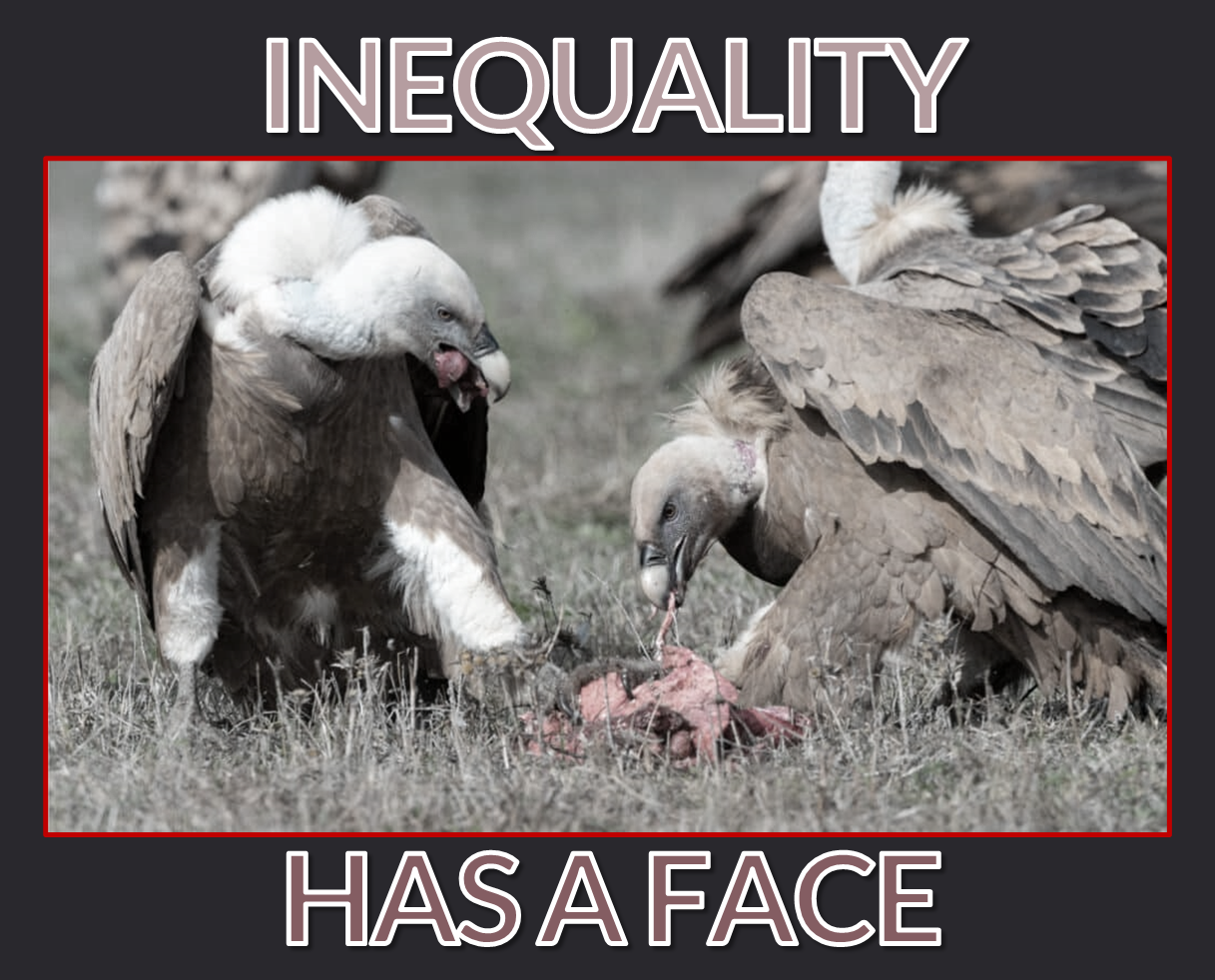

LET'S NOT FOOL OURSELVES. #INEQUALITY HAS A FACE: A FEW "STINKING RICH".
As Oxfam states: "Richest 1% bag nearly twice as much wealth as the rest of the world put together over the past two years, worth $42 trillion created since 2020, almost twice as much money as the bottom 99 percent of the world’s population."
“While ordinary people are making daily sacrifices on essentials like food, the super-rich have outdone even their wildest dreams. Just two years in, this decade is shaping up to be the best yet for billionaires —a roaring ‘20s boom for the world’s richest,” said Gabriela Bucher, Executive Director of Oxfam International.
"Elon Musk, one of the world’s richest men, paid a “true tax rate” of about 3 percent between 2014 and 2018. Aber Christine, a flour vendor in Uganda, makes $80 a month and pays a tax rate of 40 percent."
Similar, the World Inequality Report: "The wealth of the top 10% globally, which constitutes the middle class in rich countries and the merely rich in poor countries is actually 76%, but growing slower than the world average, while the top 1% is growing much faster: between 1995 and 2021, the top 1% captured 38% of the global increment in wealth, while the bottom 50% captured a frightening 2%. The share of wealth owned by the global top 0.1% rose from 7% to 11% over that period and global billionaire wealth soared.
A the heart of this explosion is the extreme concentration of the economic power in the hands of a very small minority of the super-rich. With the boom in the stock market, the picture does not seem to be getting better."
And the phenomenon is not simply a US-based one, albeit in the US inequality is simply at indecent levels. "While Europe has witnessed a 45% increase in average wealth over the last decade, wealth is increasingly concentrated. The wealthiest 10% of European households make up no less than 51% of the total net European wealth. The wealthiest 1% of Europeans occupy 19% of total European wealth. Equally, wealth increase is not equal across countries. Spain, Switzerland, and Germany had some of the highest percentage increases in average wealth, at 94%, 83%, and 51%, respectively. Switzerland - another irresponsible tax haven - led the way, pocketing nearly EUR 2 trillion in wealth over the previous ten years, representing a doubling in the net wealth of the period."
The solution is indeed very simple: “Taxing the super-rich and big corporations is the door out of today’s overlapping crises. It’s time we demolish the convenient myth that tax cuts for the richest result in their wealth somehow ‘trickling down’ to everyone else. Forty years of tax cuts for the super-rich have shown that a rising tide doesn’t lift all ships —just the superyachts.”
So how the heck is it not happening?! It really makes me angry.
Oxfam: https://lnkd.in/evTwWZSt
World Inequality Report: https://lnkd.in/eH48tw_q
European wealth report: https://lnkd.in/ehuegqJz
#leadership #justice #goodeconomy
LET'S NOT FOOL OURSELVES. #INEQUALITY HAS A FACE: A FEW "STINKING RICH".
As Oxfam states: "Richest 1% bag nearly twice as much wealth as the rest of the world put together over the past two years, worth $42 trillion created since 2020, almost twice as much money as the bottom 99 percent of the world’s population."
“While ordinary people are making daily sacrifices on essentials like food, the super-rich have outdone even their wildest dreams. Just two years in, this decade is shaping up to be the best yet for billionaires —a roaring ‘20s boom for the world’s richest,” said Gabriela Bucher, Executive Director of Oxfam International.
"Elon Musk, one of the world’s richest men, paid a “true tax rate” of about 3 percent between 2014 and 2018. Aber Christine, a flour vendor in Uganda, makes $80 a month and pays a tax rate of 40 percent."
Similar, the World Inequality Report: "The wealth of the top 10% globally, which constitutes the middle class in rich countries and the merely rich in poor countries is actually 76%, but growing slower than the world average, while the top 1% is growing much faster: between 1995 and 2021, the top 1% captured 38% of the global increment in wealth, while the bottom 50% captured a frightening 2%. The share of wealth owned by the global top 0.1% rose from 7% to 11% over that period and global billionaire wealth soared.
A the heart of this explosion is the extreme concentration of the economic power in the hands of a very small minority of the super-rich. With the boom in the stock market, the picture does not seem to be getting better."
And the phenomenon is not simply a US-based one, albeit in the US inequality is simply at indecent levels. "While Europe has witnessed a 45% increase in average wealth over the last decade, wealth is increasingly concentrated. The wealthiest 10% of European households make up no less than 51% of the total net European wealth. The wealthiest 1% of Europeans occupy 19% of total European wealth. Equally, wealth increase is not equal across countries. Spain, Switzerland, and Germany had some of the highest percentage increases in average wealth, at 94%, 83%, and 51%, respectively. Switzerland - another irresponsible tax haven - led the way, pocketing nearly EUR 2 trillion in wealth over the previous ten years, representing a doubling in the net wealth of the period."
The solution is indeed very simple: “Taxing the super-rich and big corporations is the door out of today’s overlapping crises. It’s time we demolish the convenient myth that tax cuts for the richest result in their wealth somehow ‘trickling down’ to everyone else. Forty years of tax cuts for the super-rich have shown that a rising tide doesn’t lift all ships —just the superyachts.”
So how the heck is it not happening?! It really makes me angry.
Oxfam: https://lnkd.in/evTwWZSt
World Inequality Report: https://lnkd.in/eH48tw_q
European wealth report: https://lnkd.in/ehuegqJz
#leadership #justice #goodeconomy
24-07-2023

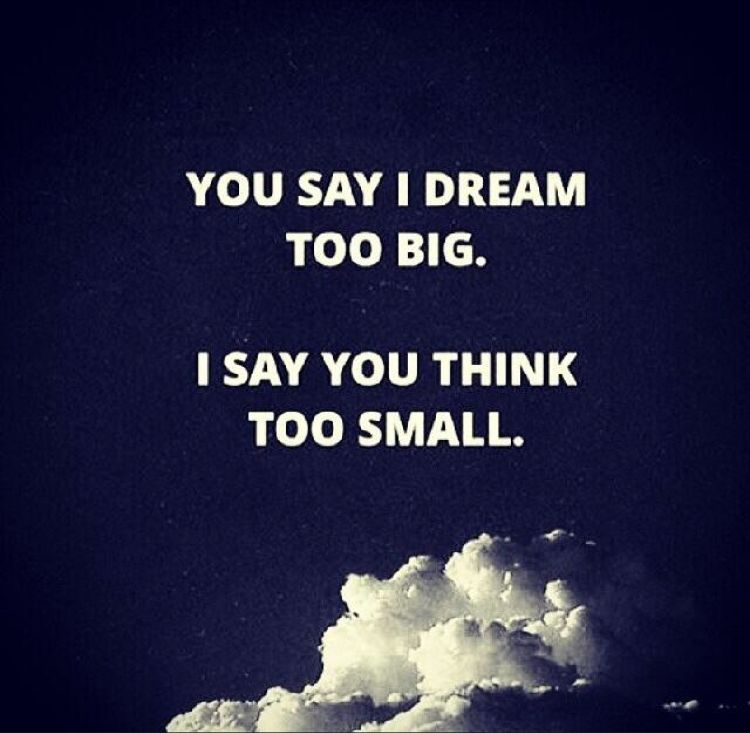

TONIGHT I HAD A DREAM
Tonight I had a dream, a dream where virtue shone bright like a beacon, illuminating the path of humanity towards a better life for all.
I saw a world where honesty, integrity and love were the currency of our interactions and transactions. A world where we sought wisdom, beauty and truth, nurturing the thirst for learning and personal growth. Where our actions were guided by goodness.
In my dream, we rose above the petty differences that divide us and united as one human family. We treated each other with respect and kindness, cherishing deeply how we are all interconnected.
Like Scipio, I saw a society where justice and compassion prevailed. Where we lifted each other up instead of tearing each other down. Where we built bridges of understanding and empathy, eradicating hatred and prejudice.
Suddenly I knew that we have a choice. If we seed virtue, cultivate it in each other and our institutions, and nurture it with love, it can blossom into a world of justice and good. If we let our mutual uniqueness inspire us, rather than divide us, we can become our best for all.
Yet, it takes courage to be virtuous leaders in our communities. To stand up for what is right, even in the face of adversity. To put the whole before the part.
But leading by example, together, we can create a reality where humanity rises higher. Citius, altius, fortius! Let us dare to dream! Speak for the world! And act for good! ❤️🌍
#DreamBig #VirtuousLeadership #GoodLeadership #leadership
TONIGHT I HAD A DREAM
Tonight I had a dream, a dream where virtue shone bright like a beacon, illuminating the path of humanity towards a better life for all.
I saw a world where honesty, integrity and love were the currency of our interactions and transactions. A world where we sought wisdom, beauty and truth, nurturing the thirst for learning and personal growth. Where our actions were guided by goodness.
In my dream, we rose above the petty differences that divide us and united as one human family. We treated each other with respect and kindness, cherishing deeply how we are all interconnected.
Like Scipio, I saw a society where justice and compassion prevailed. Where we lifted each other up instead of tearing each other down. Where we built bridges of understanding and empathy, eradicating hatred and prejudice.
Suddenly I knew that we have a choice. If we seed virtue, cultivate it in each other and our institutions, and nurture it with love, it can blossom into a world of justice and good. If we let our mutual uniqueness inspire us, rather than divide us, we can become our best for all.
Yet, it takes courage to be virtuous leaders in our communities. To stand up for what is right, even in the face of adversity. To put the whole before the part.
But leading by example, together, we can create a reality where humanity rises higher. Citius, altius, fortius! Let us dare to dream! Speak for the world! And act for good! ❤️🌍
#DreamBig #VirtuousLeadership #GoodLeadership #leadership
22-07-2023



TELL ME WHO YOU ARE WITH & I TELL YOU WHO YOU ARE! In the light of modern science, maybe the old adage should read: tell me who you are COMPARING yourself with, and I tell you how HAPPY you will be!
In a world increasingly interconnected through social media and societal pressures, it's all too easy to fall into the trap of constant comparison. We often find ourselves measuring our achievements, appearance, and success against (the wrong) others, leading to unhappiness and lack of development.
In fact, research in positive psychology and happiness consistently shows that excessive social comparison can be detrimental to well-being. It leads to feelings of envy, low self-esteem, and dissatisfaction with our own lives. This negative impact stems from a tendency to focus on others' perceived advantages rather than nurturing our unique strengths and values, and a continuous adaptation to “higher” standards when we progress in societal roles.
Identity theories also emphasize the importance of cultivating a strong sense of self and coherent self-narrative. If we internalise external standards uncritically, in order to be accepted, or depend on constant validation from others, we will quickly suffer maladaptive attachments or find ourselves anchorless when circumstances change. Personal development requires the letting go of unexamined “accidental” selves.
Yet, the outstanding human capacity to compare with others can also operate to our advantage:
Rather than comparing ourselves to peers solely based on superficial achievements or material possessions, we can benefit from selecting inspirational role models who master skills or embody values we admire. Choosing the right idols and mentors can thus inspire us to emulate their virtues in our own lives and strive for personal excellence.
It is also important to differentiate between unhealthy, envy-driven comparisons and healthy, growth-oriented comparisons. Engaging in friendly “Olympic” competition can help us to achieve our best, by sharing inspiration with others and striving together to learn, grow, and lift each other up, rather than seeking to surpass others. And we can cultivate gratitude for our own blessings and accomplishments.
Hence, based on all research, we should not only choose friends with care, but also select colleagues and reference groups wisely. Choosing who to compare ourselves with is a powerful tool that can significantly influence our happiness and personal growth. By shifting our focus from external and material comparisons to internal virtues, embracing inspirational role models, engaging in healthy competition, and cultivating gratitude and authenticity, we can avoid much unhappiness.
And maybe the best lesson is to focus mostly on comparing ourselves to the (wo)man in the mirror: happiness lies not in outshining others, but in becoming the best version of ourselves, for the sake of the communities we live in. Happy Sunday!
#leadershipdevelopment
TELL ME WHO YOU ARE WITH & I TELL YOU WHO YOU ARE! In the light of modern science, maybe the old adage should read: tell me who you are COMPARING yourself with, and I tell you how HAPPY you will be!
In a world increasingly interconnected through social media and societal pressures, it's all too easy to fall into the trap of constant comparison. We often find ourselves measuring our achievements, appearance, and success against (the wrong) others, leading to unhappiness and lack of development.
In fact, research in positive psychology and happiness consistently shows that excessive social comparison can be detrimental to well-being. It leads to feelings of envy, low self-esteem, and dissatisfaction with our own lives. This negative impact stems from a tendency to focus on others' perceived advantages rather than nurturing our unique strengths and values, and a continuous adaptation to “higher” standards when we progress in societal roles.
Identity theories also emphasize the importance of cultivating a strong sense of self and coherent self-narrative. If we internalise external standards uncritically, in order to be accepted, or depend on constant validation from others, we will quickly suffer maladaptive attachments or find ourselves anchorless when circumstances change. Personal development requires the letting go of unexamined “accidental” selves.
Yet, the outstanding human capacity to compare with others can also operate to our advantage:
Rather than comparing ourselves to peers solely based on superficial achievements or material possessions, we can benefit from selecting inspirational role models who master skills or embody values we admire. Choosing the right idols and mentors can thus inspire us to emulate their virtues in our own lives and strive for personal excellence.
It is also important to differentiate between unhealthy, envy-driven comparisons and healthy, growth-oriented comparisons. Engaging in friendly “Olympic” competition can help us to achieve our best, by sharing inspiration with others and striving together to learn, grow, and lift each other up, rather than seeking to surpass others. And we can cultivate gratitude for our own blessings and accomplishments.
Hence, based on all research, we should not only choose friends with care, but also select colleagues and reference groups wisely. Choosing who to compare ourselves with is a powerful tool that can significantly influence our happiness and personal growth. By shifting our focus from external and material comparisons to internal virtues, embracing inspirational role models, engaging in healthy competition, and cultivating gratitude and authenticity, we can avoid much unhappiness.
And maybe the best lesson is to focus mostly on comparing ourselves to the (wo)man in the mirror: happiness lies not in outshining others, but in becoming the best version of ourselves, for the sake of the communities we live in. Happy Sunday!
#leadershipdevelopment
20-07-2023
QUESTION TIME FOR UTOPIAN REALISTS: HOW CAN WE CURE OUR SOCIETAL OBSESSION WITH CAPITAL?
Some ideas to kick us off...
1) What about a radical new hashtag#HR policy: paying employees the HIGHEST POSSIBLE WAGES at any given moment in time?
2) What about fixing the WAGE-TO-PROFIT ratio - and making sure the former is always a minimum 10x the latter?
3) What about discussing and imposing not LIVING WAGES but "LIVING PROFIT"?
4) What about measuring MARKET EFFICIENCY not by how well allocated capital maximizes profit, but by how effectively allocated resources enable the highest potential of our invested time and labor?
5) What about taxing CAPITAL GAINS at least at twice the rate of income tax, for at least the same amount of time that most countries held the inverse relation?
6) What about fixing CORPORATE TAX globally at a minimum 15 percent, with no exception?
7) What about a FLOURISHING tax - where all companies destroying stakeholder wellbeing get taxed at least double?
8) What about a cap on personal ASSET ownership, let's say at a medium double-digit number of millions?
Any more "out of the box" ideas to help millions of poor and ailing capitalists, and billions suffering by extension?
hashtag#leadership
QUESTION TIME FOR UTOPIAN REALISTS: HOW CAN WE CURE OUR SOCIETAL OBSESSION WITH CAPITAL?
Some ideas to kick us off...
1) What about a radical new hashtag#HR policy: paying employees the HIGHEST POSSIBLE WAGES at any given moment in time?
2) What about fixing the WAGE-TO-PROFIT ratio - and making sure the former is always a minimum 10x the latter?
3) What about discussing and imposing not LIVING WAGES but "LIVING PROFIT"?
4) What about measuring MARKET EFFICIENCY not by how well allocated capital maximizes profit, but by how effectively allocated resources enable the highest potential of our invested time and labor?
5) What about taxing CAPITAL GAINS at least at twice the rate of income tax, for at least the same amount of time that most countries held the inverse relation?
6) What about fixing CORPORATE TAX globally at a minimum 15 percent, with no exception?
7) What about a FLOURISHING tax - where all companies destroying stakeholder wellbeing get taxed at least double?
8) What about a cap on personal ASSET ownership, let's say at a medium double-digit number of millions?
Any more "out of the box" ideas to help millions of poor and ailing capitalists, and billions suffering by extension?
hashtag#leadership
20-07-2023

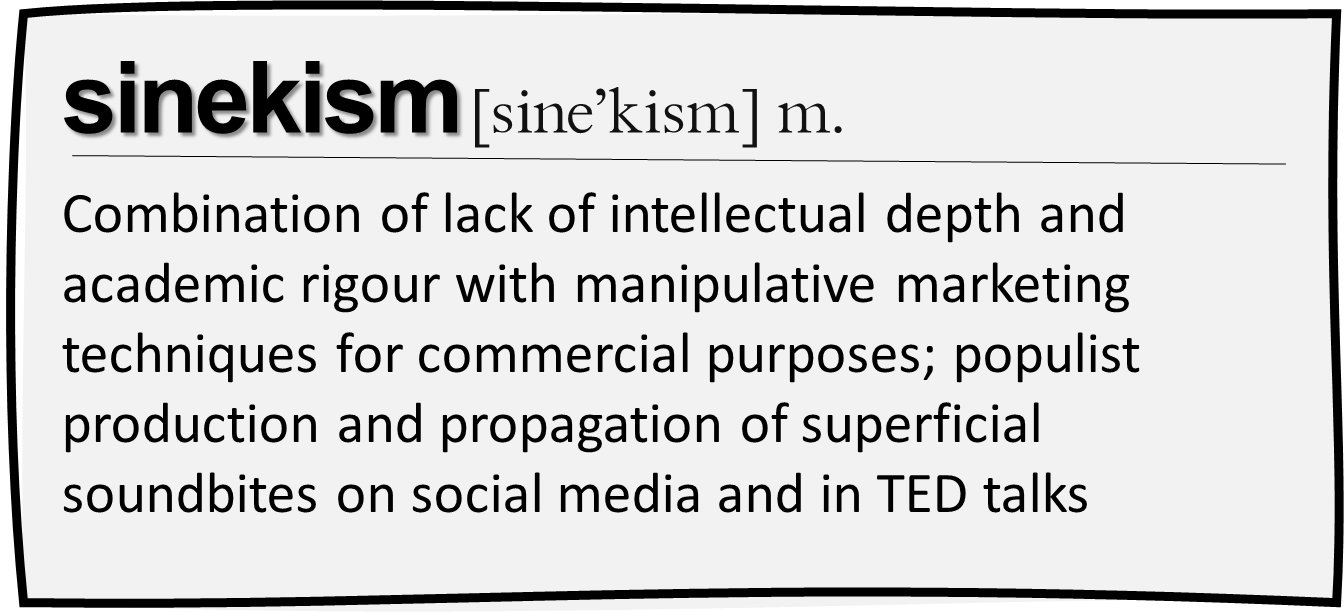

No comment ;-)
No comment ;-)
20-07-2023
THE END OF LIBERALISM? "The fall of the Berlin Wall in 1989 held out the promise that the world was about to enter a virtuous circle. Growing prosperity would foster freedom and tolerance, which in turn would create more prosperity. Unfortunately, that hope disappointed."
"Prosperity certainly rose. In the three decades to 2019, global output increased more than four-fold. Roughly 70% of the 2bn people living in extreme poverty escaped it.
Alas, individual freedom and tolerance evolved quite differently. Large numbers of people around the world continue to swear fealty to traditional beliefs, sometimes intolerant ones. And although they are much wealthier these days, they often have an us-and-them contempt for others. The idea that despots and dictators shun the universal values enshrined in the UN Charter should come as no surprise. The shock is that so many of their people seem to think their leaders are right."
Indeed. Unsurprisingly, The Economist, in the spirit of Hegel's Phenomenology claims that rational liberalism is the pinnacle of historical evolution, which remains somewhat questionable, and not only depending on what exactly those allegedly universal liberal values are. But there is truth nevertheless.
It seems economic progress and political progress are discoupled, which should come as no great shock. In neoliberal capitalism, as Hayek grandiosely pointed out, markets are allegedly not responsible for moral progress and the valor of government has often been systematically eroded. In non-democratic regimes market openings have therefore changed little - Angela Merkel's maxim of "transformation through trade" has always been more selfishly complacent than truly insightful. Already Max Weber pointed out that very probably the industrial revolution was critically enabled by the partly independent change in societal values, whereby many of the traditional social vices were re-declared as virtues - think: greed is good, profit is pride and credit is honorable!
Hence, maybe the real conclusion is that unbridled economic progress easily implies moral regression, unless countered by strong investment in civic maturity, political institutions and effective regulation. And here I guess the Economist wouldn't be quite as forthright in pushing for change as it is in its feigned surprise that liberalism hasn't yet paved golden eschatological highways towards (worldly) paradise. ;)
#leadership #values #goodleadership
Commenting on: https://www.economist.com/leaders/2023/08/03/authoritarians-are-on-the-march
THE END OF LIBERALISM? "The fall of the Berlin Wall in 1989 held out the promise that the world was about to enter a virtuous circle. Growing prosperity would foster freedom and tolerance, which in turn would create more prosperity. Unfortunately, that hope disappointed."
"Prosperity certainly rose. In the three decades to 2019, global output increased more than four-fold. Roughly 70% of the 2bn people living in extreme poverty escaped it.
Alas, individual freedom and tolerance evolved quite differently. Large numbers of people around the world continue to swear fealty to traditional beliefs, sometimes intolerant ones. And although they are much wealthier these days, they often have an us-and-them contempt for others. The idea that despots and dictators shun the universal values enshrined in the UN Charter should come as no surprise. The shock is that so many of their people seem to think their leaders are right."
Indeed. Unsurprisingly, The Economist, in the spirit of Hegel's Phenomenology claims that rational liberalism is the pinnacle of historical evolution, which remains somewhat questionable, and not only depending on what exactly those allegedly universal liberal values are. But there is truth nevertheless.
It seems economic progress and political progress are discoupled, which should come as no great shock. In neoliberal capitalism, as Hayek grandiosely pointed out, markets are allegedly not responsible for moral progress and the valor of government has often been systematically eroded. In non-democratic regimes market openings have therefore changed little - Angela Merkel's maxim of "transformation through trade" has always been more selfishly complacent than truly insightful. Already Max Weber pointed out that very probably the industrial revolution was critically enabled by the partly independent change in societal values, whereby many of the traditional social vices were re-declared as virtues - think: greed is good, profit is pride and credit is honorable!
Hence, maybe the real conclusion is that unbridled economic progress easily implies moral regression, unless countered by strong investment in civic maturity, political institutions and effective regulation. And here I guess the Economist wouldn't be quite as forthright in pushing for change as it is in its feigned surprise that liberalism hasn't yet paved golden eschatological highways towards (worldly) paradise. ;)
#leadership #values #goodleadership
Commenting on: https://www.economist.com/leaders/2023/08/03/authoritarians-are-on-the-march
16-07-2023
Is the novel #NEURODIVERSITY movement dangerous? I've recently noticed many posts promoting "neurological diversity" as another form of "rightful" identity, often positioned as "polymaths" or "multi-potentials". I am wondering what exactly the premise for such advocacy is, and what the implication might be for those suffering greatly from neurological pathologies. Interestingly, I just saw this critical position:
"Many of those in the neurodiversity gang claim to be autistic and to speak for others on the spectrum. They use what a friend of mine called ‘the royal we’. They state ‘we’ don’t want to be cured — as if we all feel the same way. But in fact they are very different from the majority of autistics. Many on the spectrum can’t speak or use a computer. They can’t argue against ‘neurodiversity’ because they can’t articulate their position. They’re too disabled, you might say. In the wider group of autistic people, there’s a 4:1 ratio of autistic males to females, yet the majority of neurodiversity proponents are women. Many of them have no overt disability whatsoever. Some of them are lawyers who have graduated from the best law schools in the United States. Others are college professors. Many of them never went through special education, as I did. A good number of them are married and have children. No wonder they don’t feel they need treatment." (More see attached article)
It seems to me we are trading a fine line between a) helping individuals in need to receive cure, in order to attain personal wellbeing and the ability to enact societal standards (of shared living), b) providing appropriate access measures, support and understanding for people who are unable to fully perform to - however defined - societal and work-related standards, and c) to deny both pathology and shared societal standards in pursuit of a highly individualistic political ideology and advocacy ("woke").
I have a suspicion that the latter not only implies a problematic extension of personality "RIGHTS" to potentially ambiguously defined personal preferences, but also invokes a wider, highly questionable transition from a concept of meritocratic towards hashtag#inclusion and identity-based justice. Justice, traditionally seeking to allocate "everyone their due" based on personal effort, performance and contribution, becomes a battle ground for however constituted special interests. Here, the notion of "hashtag#DIVERSITY" quickly turns into a highly publicized political battle cry, demanding "a right to be different" (and of course being accorded additional privileges) - often circumventing the process of democratic participation.
I fear many #DEI initiatives fail to appropriately examine the premises of such normative demands - also because any challenge to often highly self-righteous claims is frequently met with aggressive social media "shirt storms" against "cancel culture", or public ad hominem criticism.
What's your view?
Commenting on: https://www.spectator.co.uk/article/the-danger-of-neurodiversity/
Is the novel #NEURODIVERSITY movement dangerous? I've recently noticed many posts promoting "neurological diversity" as another form of "rightful" identity, often positioned as "polymaths" or "multi-potentials". I am wondering what exactly the premise for such advocacy is, and what the implication might be for those suffering greatly from neurological pathologies. Interestingly, I just saw this critical position:
"Many of those in the neurodiversity gang claim to be autistic and to speak for others on the spectrum. They use what a friend of mine called ‘the royal we’. They state ‘we’ don’t want to be cured — as if we all feel the same way. But in fact they are very different from the majority of autistics. Many on the spectrum can’t speak or use a computer. They can’t argue against ‘neurodiversity’ because they can’t articulate their position. They’re too disabled, you might say. In the wider group of autistic people, there’s a 4:1 ratio of autistic males to females, yet the majority of neurodiversity proponents are women. Many of them have no overt disability whatsoever. Some of them are lawyers who have graduated from the best law schools in the United States. Others are college professors. Many of them never went through special education, as I did. A good number of them are married and have children. No wonder they don’t feel they need treatment." (More see attached article)
It seems to me we are trading a fine line between a) helping individuals in need to receive cure, in order to attain personal wellbeing and the ability to enact societal standards (of shared living), b) providing appropriate access measures, support and understanding for people who are unable to fully perform to - however defined - societal and work-related standards, and c) to deny both pathology and shared societal standards in pursuit of a highly individualistic political ideology and advocacy ("woke").
I have a suspicion that the latter not only implies a problematic extension of personality "RIGHTS" to potentially ambiguously defined personal preferences, but also invokes a wider, highly questionable transition from a concept of meritocratic towards hashtag#inclusion and identity-based justice. Justice, traditionally seeking to allocate "everyone their due" based on personal effort, performance and contribution, becomes a battle ground for however constituted special interests. Here, the notion of "hashtag#DIVERSITY" quickly turns into a highly publicized political battle cry, demanding "a right to be different" (and of course being accorded additional privileges) - often circumventing the process of democratic participation.
I fear many #DEI initiatives fail to appropriately examine the premises of such normative demands - also because any challenge to often highly self-righteous claims is frequently met with aggressive social media "shirt storms" against "cancel culture", or public ad hominem criticism.
What's your view?
Commenting on: https://www.spectator.co.uk/article/the-danger-of-neurodiversity/
16-07-2023



ALL TRUE #TRANSFORMATIONS ARE DEEPLY POLITICAL.
As Geoff points out, culture change programmes with ritualised alignments to arbitrarily chosen "shared values" are mostly a meaningless exercise that might appease supervisory board conscience or increment consulting profits, but rarely produces Organisational excellence.
What matters is not just culture, but lived moral character. It requires systemic focus on metrics, institutions and executive (mis)behaviour, not just highly intellectual leadership theories, pathetically "pragmatic" executive development or sugar-coated micro-recipes for employees to cope. Without a redistribution of power and wealth (or relief of debts) no transformation - societal or organisational - will yield greater social justice.
This is where #ESG, #CSR or any other change initiative sponsored by well-meaning #HR departments, populist academic "thought leaders" or philanthropic billionaires risks reinforcing a rotten system, rather than mitigate its root causes. Quickly, we socialise the victims, instead of confronting the perpetrators.
In that sense, public #leadership requires not only wisdom, but willingness to sacrifice for the common good.
#goodorganisations
All credits for the image: Tim Fishburne
ALL TRUE #TRANSFORMATIONS ARE DEEPLY POLITICAL.
As Geoff points out, culture change programmes with ritualised alignments to arbitrarily chosen "shared values" are mostly a meaningless exercise that might appease supervisory board conscience or increment consulting profits, but rarely produces Organisational excellence.
What matters is not just culture, but lived moral character. It requires systemic focus on metrics, institutions and executive (mis)behaviour, not just highly intellectual leadership theories, pathetically "pragmatic" executive development or sugar-coated micro-recipes for employees to cope. Without a redistribution of power and wealth (or relief of debts) no transformation - societal or organisational - will yield greater social justice.
This is where #ESG, #CSR or any other change initiative sponsored by well-meaning #HR departments, populist academic "thought leaders" or philanthropic billionaires risks reinforcing a rotten system, rather than mitigate its root causes. Quickly, we socialise the victims, instead of confronting the perpetrators.
In that sense, public #leadership requires not only wisdom, but willingness to sacrifice for the common good.
#goodorganisations
All credits for the image: Tim Fishburne
16-07-2023

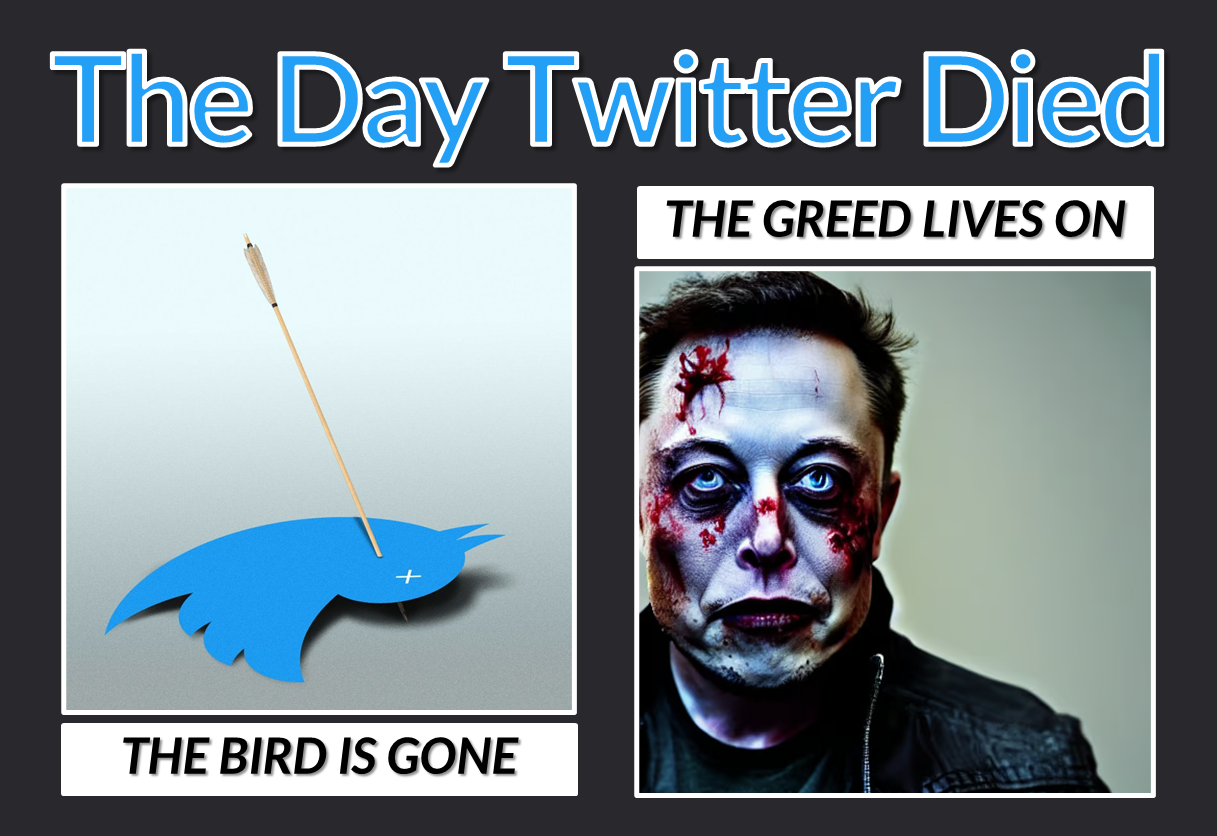

EULOGY FOR A BIRD. Ladies and gentlemen, today we gather to mourn the demise of the hashtag#Twitter bird, a small yet powerful creature that represented the very essence of social media connectivity and expression.
The Twitter bird was more than just a colorful icon; it embodied the spirit of the digital age, where voices from all walks of life came together to share ideas, thoughts, and stories. Soon after its birth on March 21, 2006, this little bird carried the weight of 500 million tweets sent per day, each chirp resonating with the power to inspire change and create unity amongst diverse communities.
Throughout its existence, the Twitter bird stood as a beacon of hope, fostering a platform where individuals could express themselves without fear or prejudice. It symbolized the freedom of speech, reminding us all that everyone's voice mattered, regardless of their background or beliefs.
The Twitter bird was known for its friendliness, reaching out to people across the globe and establishing connections that transcended borders. Its wings of cooperation encouraged collaboration and understanding between nations and cultures, breaking down barriers and nurturing a sense of global community.
Yet, our ornithological companion faced a formidable adversary, Lord Musk of Tesla. The billionaire technologist was foremost among a class of neo-feudal global tech tycoons claiming to be the sworn enemies of bureaucracy and central control, whilst eagerly building up monopolistic power through networked platforms and easily-gained fortunes. Seeking to dominate worldwide communication and reshape the universe in his own vision, Musk did not hesitate to use all his might to crush the very ideals Twitter embodied. Against his evil X, reminiscent of the swastika and the Russian Z, both symbols of hatred and tyranny, the bird never stood a chance.
However, ladies and gentlemen, make no mistake. The battle has only begun. The memory of the Twitter bird's defeat shall endure as a guiding light for those who continue to champion the cause of free speech and genuine connection in the digital age. Its spirit lives on in each and every one of us. May we continue to carry forward the message of freedom, friendliness, and cooperation in every post we make. May the spirit of the Twitter bird inspire generations to come to be steadfast in their commitment to creating an inclusive digital universe where the pursuit of power does not eclipse the essence of human connection, virtue and solidarity.
RIP
#Leadership #leadershipdevelopment #freespeech #CSR #GoodOrganisations
EULOGY FOR A BIRD. Ladies and gentlemen, today we gather to mourn the demise of the hashtag#Twitter bird, a small yet powerful creature that represented the very essence of social media connectivity and expression.
The Twitter bird was more than just a colorful icon; it embodied the spirit of the digital age, where voices from all walks of life came together to share ideas, thoughts, and stories. Soon after its birth on March 21, 2006, this little bird carried the weight of 500 million tweets sent per day, each chirp resonating with the power to inspire change and create unity amongst diverse communities.
Throughout its existence, the Twitter bird stood as a beacon of hope, fostering a platform where individuals could express themselves without fear or prejudice. It symbolized the freedom of speech, reminding us all that everyone's voice mattered, regardless of their background or beliefs.
The Twitter bird was known for its friendliness, reaching out to people across the globe and establishing connections that transcended borders. Its wings of cooperation encouraged collaboration and understanding between nations and cultures, breaking down barriers and nurturing a sense of global community.
Yet, our ornithological companion faced a formidable adversary, Lord Musk of Tesla. The billionaire technologist was foremost among a class of neo-feudal global tech tycoons claiming to be the sworn enemies of bureaucracy and central control, whilst eagerly building up monopolistic power through networked platforms and easily-gained fortunes. Seeking to dominate worldwide communication and reshape the universe in his own vision, Musk did not hesitate to use all his might to crush the very ideals Twitter embodied. Against his evil X, reminiscent of the swastika and the Russian Z, both symbols of hatred and tyranny, the bird never stood a chance.
However, ladies and gentlemen, make no mistake. The battle has only begun. The memory of the Twitter bird's defeat shall endure as a guiding light for those who continue to champion the cause of free speech and genuine connection in the digital age. Its spirit lives on in each and every one of us. May we continue to carry forward the message of freedom, friendliness, and cooperation in every post we make. May the spirit of the Twitter bird inspire generations to come to be steadfast in their commitment to creating an inclusive digital universe where the pursuit of power does not eclipse the essence of human connection, virtue and solidarity.
RIP
#Leadership #leadershipdevelopment #freespeech #CSR #GoodOrganisations
16-07-2023
"THEY HAVE TO FUCKING OWN THE UNIVERSE" - WHY AMERICAN CAPITALISM STARTS TO LOOK A LOT LIKE POLISH COMMUNISM - interview by Maciej Ceglowski, founder of Pinball.
"Our venture capitalists have an easy answer: let the markets do the work. We’ll try crazy ideas, most of them will fail, but those few that succeed will eventually change the world.
But there’s something very fishy about California capitalism.
Investing has become the genteel occupation of our gentry, like having a country estate used to be in England. It’s a class marker and a socially acceptable way for rich techies to pass their time. Gentlemen investors decide what ideas are worth pursuing, and the people pitching to them tailor their proposals accordingly.
The companies that come out of this are no longer pursuing profit, or even revenue. Instead, the measure of their success is valuation—how much money they’ve convinced people to tell them they’re worth.
There’s an element of fantasy to the whole enterprise that even the tech elite is starting to find unsettling.
We had people like this back in Poland, except instead of venture capitalists we called them central planners. They too were in charge of allocating vast amounts of money that didn’t belong to them.
They too honestly believed they were changing the world, and offered the same kinds of excuses about why our day-to-day life bore no relation to the shiny, beautiful world that was supposed to lie just around the corner.
Even crusty, old-fashioned companies that still believe in profit are not really behaving like capitalists. Microsoft, Cisco and Apple are making a fortune that just sits offshore. Apple alone has nearly $200 billion in cash that is doing nothing .
We’d be better off if Apple bought every employee a fur coat and Bentley, or even just burned the money in a bonfire. At least that would create some jobs for money shovelers and security guards.
Everywhere I look there is this failure to capture the benefits of technological change.
So what kinds of ideas do California central planners think are going to change the world?
Well, right now, they want to build space rockets and make themselves immortal. I wish I was kidding."
David Hansson, co-founder of Basecamp, drives the point home: "Part of the problem seems to be that nobody these days is content to merely put their dent in the universe. No, they have to fucking own the universe."
Good points! Yet, Richard Tawney reminds us that critics of capitalism have always been united in their fear of an anti-social and immoral ‘appetitus divitiarum infinitus’, an unlimited lust for gain. But, as he points out in a foreword to Max Weber’s “Protestant Ethic and the Spirit of Capitalism”: “the notion that our capitalistic age is characterised by a stronger economic interest than other periods is childish.” Alas, we must not only watch out for the demons of our current order, but also examine the system that created them.
Commenting on: https://qz.com/510729/california-capitalism-is-starting-to-look-a-lot-like-polish-communism
"THEY HAVE TO FUCKING OWN THE UNIVERSE" - WHY AMERICAN CAPITALISM STARTS TO LOOK A LOT LIKE POLISH COMMUNISM - interview by Maciej Ceglowski, founder of Pinball.
"Our venture capitalists have an easy answer: let the markets do the work. We’ll try crazy ideas, most of them will fail, but those few that succeed will eventually change the world.
But there’s something very fishy about California capitalism.
Investing has become the genteel occupation of our gentry, like having a country estate used to be in England. It’s a class marker and a socially acceptable way for rich techies to pass their time. Gentlemen investors decide what ideas are worth pursuing, and the people pitching to them tailor their proposals accordingly.
The companies that come out of this are no longer pursuing profit, or even revenue. Instead, the measure of their success is valuation—how much money they’ve convinced people to tell them they’re worth.
There’s an element of fantasy to the whole enterprise that even the tech elite is starting to find unsettling.
We had people like this back in Poland, except instead of venture capitalists we called them central planners. They too were in charge of allocating vast amounts of money that didn’t belong to them.
They too honestly believed they were changing the world, and offered the same kinds of excuses about why our day-to-day life bore no relation to the shiny, beautiful world that was supposed to lie just around the corner.
Even crusty, old-fashioned companies that still believe in profit are not really behaving like capitalists. Microsoft, Cisco and Apple are making a fortune that just sits offshore. Apple alone has nearly $200 billion in cash that is doing nothing .
We’d be better off if Apple bought every employee a fur coat and Bentley, or even just burned the money in a bonfire. At least that would create some jobs for money shovelers and security guards.
Everywhere I look there is this failure to capture the benefits of technological change.
So what kinds of ideas do California central planners think are going to change the world?
Well, right now, they want to build space rockets and make themselves immortal. I wish I was kidding."
David Hansson, co-founder of Basecamp, drives the point home: "Part of the problem seems to be that nobody these days is content to merely put their dent in the universe. No, they have to fucking own the universe."
Good points! Yet, Richard Tawney reminds us that critics of capitalism have always been united in their fear of an anti-social and immoral ‘appetitus divitiarum infinitus’, an unlimited lust for gain. But, as he points out in a foreword to Max Weber’s “Protestant Ethic and the Spirit of Capitalism”: “the notion that our capitalistic age is characterised by a stronger economic interest than other periods is childish.” Alas, we must not only watch out for the demons of our current order, but also examine the system that created them.
Commenting on: https://qz.com/510729/california-capitalism-is-starting-to-look-a-lot-like-polish-communism
10-07-2023
DON'T BELIEVE THE TECHNOLOGY FAIRY TALE. As a recent report by the EPI shows, "Growing inequalities, reflecting growing employer power, have generated a productivity–pay gap since 1979". Productivity has grown 3.5 times as much as pay for the typical worker.
What does this mean? Firstly, innovation is not necessarily good for everybody. As Daron Acemoglu eloquently documents in his new book, historically it has been a small elite benefiting most from introduction of new technologies. "Throughout history, technological change - whether in the form of agricultural improvements in the Middle Ages, the Industrial Revolution, or today's artificial intelligence - has been viewed as a main driver of prosperity, working in the public interest. The reality, though, is that technology is shaped by what powerful people want and believe, generating riches, social respect, cultural prominence, and further political voice for those already powerful. For most of the rest of us, there is the illusion of progress."
Secondly, governments absolutely matter. Since Ronald Reagan and Margaret Thatcher's conservative campaigns, "big government" has been gleefully discredited in much of the Western World - suggesting that it is best to rely on market forces and entrepreneurship to sort out societal issues. Whilst of course efficiency is a necessity for public administration, the libertarian wet dream of a "tiny state" has mostly brought benefits only to... libertarians themselves. The EPI data clearly shows the healthy impact of regulation (especially of financial services) on real wages, in percentage of GDP across countries.
Finally, growing social injustice casts a shadow on the very notion of productivity. Why are we still enamored in ridiculous metrics like GDP, profit or efficiency as measures of progress? Originally, a "civic economy" was meant to provide positive stewardship for the use of our own labour, supporting every person in finding meaningful employment and enabling a people collectively to collaborate in order to create a just and sustainable society. However, the ever greater instrumentalisation of work has ultimately yielded a system where not only the strong exploit the weak for personal gain, but where the very decency of work is being undermined. Eventually, even a discourse of redistribution or inequality only fosters the very mechanisms it means to mitigate. Where our life and work is valued at its marginal productivity - actually, at even less than that.
#leadership
DON'T BELIEVE THE TECHNOLOGY FAIRY TALE. As a recent report by the EPI shows, "Growing inequalities, reflecting growing employer power, have generated a productivity–pay gap since 1979". Productivity has grown 3.5 times as much as pay for the typical worker.
What does this mean? Firstly, innovation is not necessarily good for everybody. As Daron Acemoglu eloquently documents in his new book, historically it has been a small elite benefiting most from introduction of new technologies. "Throughout history, technological change - whether in the form of agricultural improvements in the Middle Ages, the Industrial Revolution, or today's artificial intelligence - has been viewed as a main driver of prosperity, working in the public interest. The reality, though, is that technology is shaped by what powerful people want and believe, generating riches, social respect, cultural prominence, and further political voice for those already powerful. For most of the rest of us, there is the illusion of progress."
Secondly, governments absolutely matter. Since Ronald Reagan and Margaret Thatcher's conservative campaigns, "big government" has been gleefully discredited in much of the Western World - suggesting that it is best to rely on market forces and entrepreneurship to sort out societal issues. Whilst of course efficiency is a necessity for public administration, the libertarian wet dream of a "tiny state" has mostly brought benefits only to... libertarians themselves. The EPI data clearly shows the healthy impact of regulation (especially of financial services) on real wages, in percentage of GDP across countries.
Finally, growing social injustice casts a shadow on the very notion of productivity. Why are we still enamored in ridiculous metrics like GDP, profit or efficiency as measures of progress? Originally, a "civic economy" was meant to provide positive stewardship for the use of our own labour, supporting every person in finding meaningful employment and enabling a people collectively to collaborate in order to create a just and sustainable society. However, the ever greater instrumentalisation of work has ultimately yielded a system where not only the strong exploit the weak for personal gain, but where the very decency of work is being undermined. Eventually, even a discourse of redistribution or inequality only fosters the very mechanisms it means to mitigate. Where our life and work is valued at its marginal productivity - actually, at even less than that.
#leadership
10-07-2023

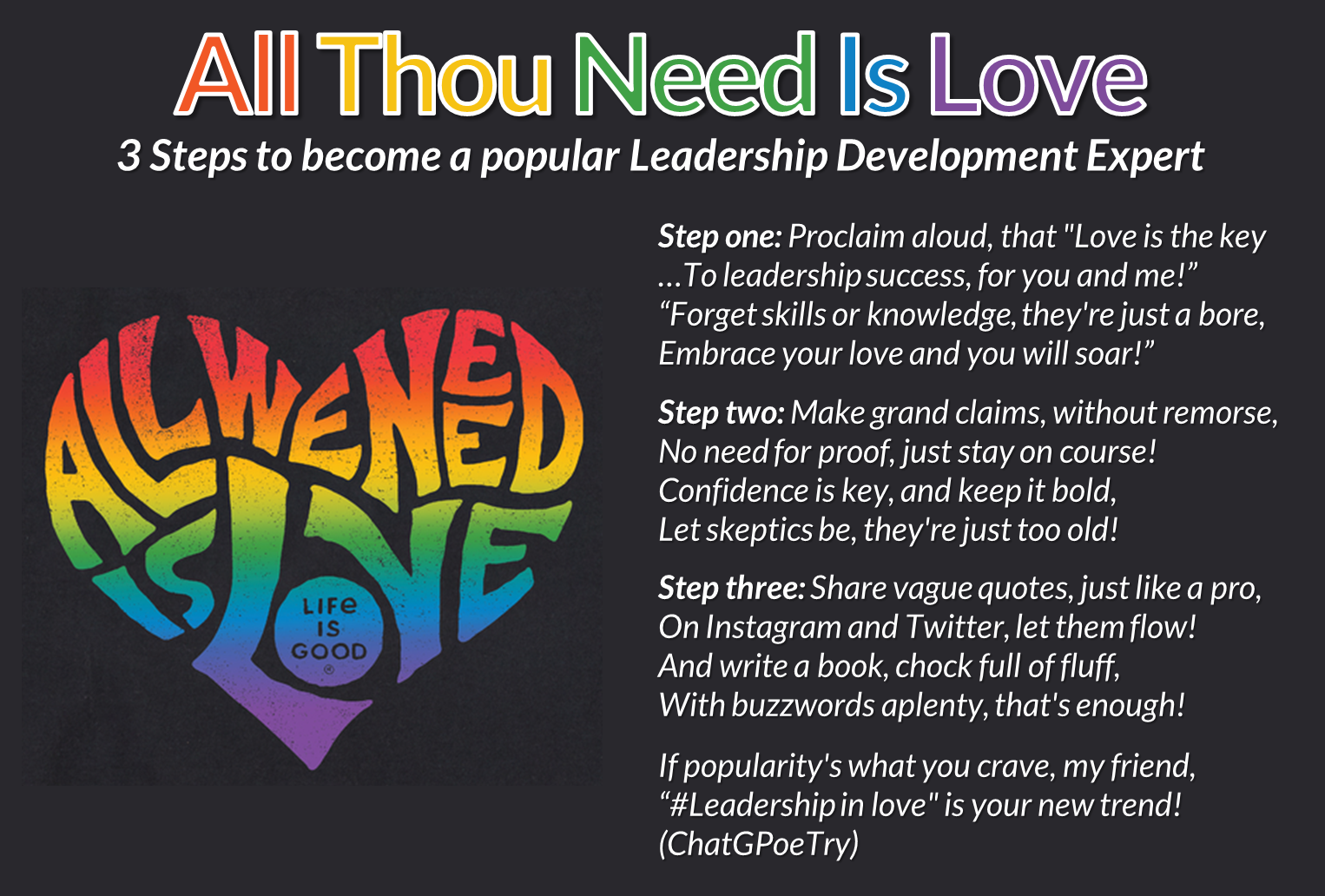

I just read a post declaring flamboyantly that "#LEADERSHIP IS LOVE!" Really?! Have we been collectively blind to such sagacious truths or might academics writing about leadership need to spend more time "on the shop floor" to ensure they are not losing touch with reality? ;-)
I reckon there is a bit of both.
Often when someone posits that leadership (or work, or politics, or...) is "#love", they are directly reconnecting with 19th century romantic anti-enlightenment revisionism, whereby, simplistically, the "heart" was posited against the "cold rationality" of a mechanistic worldview. Raw emotionality was lifted to moral heights - with heroic individuals allegedly following their hearts whilst roaming the pastoral paradises of untamed nature, reminiscent of an idealised Garden of Eden. Notably, the Augustinian notion of charity, as the love of God - which in Christianity is materialised through divine grace, became quickly secularised. Our own subjective love was fully sufficient in order to guide our actions, and lead a good life. Hence, on the one hand, rationality was rejected, whilst, on the other hand, faith in something more important, as part of that original eschatological formula, was conveniently forgotten. Positive psychology, or selfism as Paul Vitz calls it, is all we need.
Of course, such utopias are rather unhelpful. Undoubtedly, love, or agape in the sense of Socrate's symposium, is a powerful force for transcendence, and necessary not only to care for ourselves and others, but to sense the very beauty of the good ("kalos kagathos" in Aristotles writing). However, it is equally clear that love alone is insufficient for leaders to create just institutions and #goodorganisations at scale, and at the same time manage for efficiency and productive outcomes.
Hence, when it comes to organisational leadership, where decisions often have to be made in conditions of essential and existential uncertainty, and where often no positive options are available or relational complexity does not allow for simple solutions, love alone will not provide conclusive guidance. In fact, it is often our love for MULTIPLE stakeholders or positions (including our own) which creates complexity and tension in the first place. Hence, not only do we also need self-consciousness, relevant knowledge and the capacity to abstract from the particular to the universal in order to make moral choices when facing organisational issues, but we also require a firm commitment to the common good and deep professional expertise to successfully and responsibly intervene in an organisational system.
'Leadership is love' certainly works very nicely as a bumper sticker on the back of a car, much like all the other Simon Sinek or Adam Grant style pills of leadership "wisdom" - but I fear - by itself - fails the test of practice. But of course, that is no surprise - in fact, practice is probably what most proponents of leadership theories lack.. ;-)
#leadershipdevelopment
I just read a post declaring flamboyantly that "#LEADERSHIP IS LOVE!" Really?! Have we been collectively blind to such sagacious truths or might academics writing about leadership need to spend more time "on the shop floor" to ensure they are not losing touch with reality? ;-)
I reckon there is a bit of both.
Often when someone posits that leadership (or work, or politics, or...) is "#love", they are directly reconnecting with 19th century romantic anti-enlightenment revisionism, whereby, simplistically, the "heart" was posited against the "cold rationality" of a mechanistic worldview. Raw emotionality was lifted to moral heights - with heroic individuals allegedly following their hearts whilst roaming the pastoral paradises of untamed nature, reminiscent of an idealised Garden of Eden. Notably, the Augustinian notion of charity, as the love of God - which in Christianity is materialised through divine grace, became quickly secularised. Our own subjective love was fully sufficient in order to guide our actions, and lead a good life. Hence, on the one hand, rationality was rejected, whilst, on the other hand, faith in something more important, as part of that original eschatological formula, was conveniently forgotten. Positive psychology, or selfism as Paul Vitz calls it, is all we need.
Of course, such utopias are rather unhelpful. Undoubtedly, love, or agape in the sense of Socrate's symposium, is a powerful force for transcendence, and necessary not only to care for ourselves and others, but to sense the very beauty of the good ("kalos kagathos" in Aristotles writing). However, it is equally clear that love alone is insufficient for leaders to create just institutions and #goodorganisations at scale, and at the same time manage for efficiency and productive outcomes.
Hence, when it comes to organisational leadership, where decisions often have to be made in conditions of essential and existential uncertainty, and where often no positive options are available or relational complexity does not allow for simple solutions, love alone will not provide conclusive guidance. In fact, it is often our love for MULTIPLE stakeholders or positions (including our own) which creates complexity and tension in the first place. Hence, not only do we also need self-consciousness, relevant knowledge and the capacity to abstract from the particular to the universal in order to make moral choices when facing organisational issues, but we also require a firm commitment to the common good and deep professional expertise to successfully and responsibly intervene in an organisational system.
'Leadership is love' certainly works very nicely as a bumper sticker on the back of a car, much like all the other Simon Sinek or Adam Grant style pills of leadership "wisdom" - but I fear - by itself - fails the test of practice. But of course, that is no surprise - in fact, practice is probably what most proponents of leadership theories lack.. ;-)
#leadershipdevelopment
10-07-2023

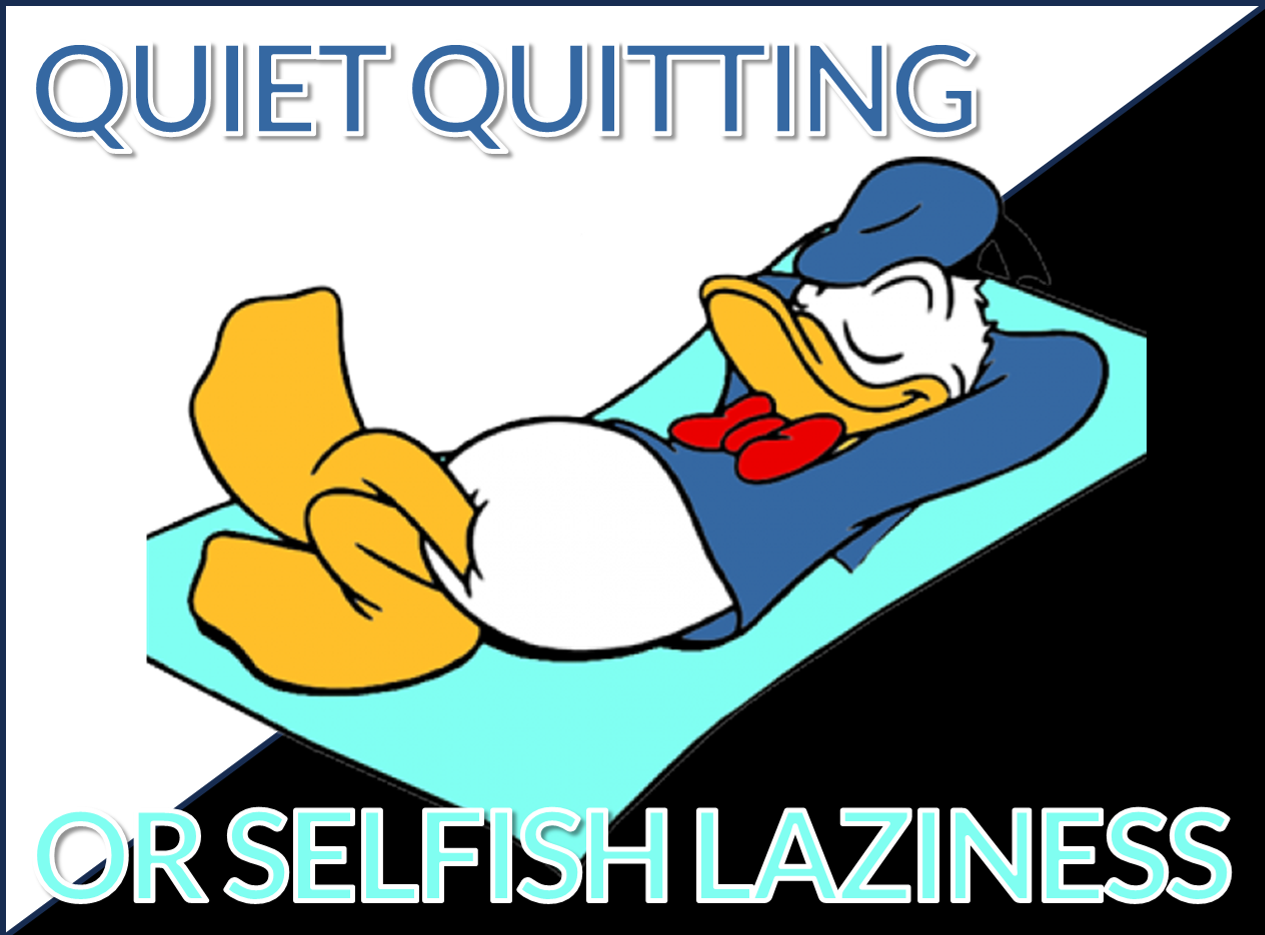

#QUIETQUITTING or CULT OF SELFISH LAZINESS? Posts about post-pandemic depression and post-modern anxiety are making the headlines. Coaches and psychologists are booking record revenues, and at no time in history have larger swathes of western populations been declared in some state of (near-)pathological mental sickness.
Worrying indeed, but maybe there's also a less sympathetic reading of current affairs. Listening to commentary in high school classes and social media chat rooms it appears many people are actively requalifying the balance between life and #work - CHILLING is the new name of the game!
In fact, whilst post war generation and subsequent baby boomers celebrated a "work hard, play hard" ethos and were willing to roll up their sleeves, today's generations often seem to be "all play". Why work harder than required? Or, if possible, why work at all?
Now, the question of course is - assuming it was true - whether this is a problem, or not. Undoubtedly, older generations often tended to work too much, for the wrong reasons. Social pressures, economic needs, lack of options and opportunities often made #career choice not a question of personal calling, but mere survival. As cogs in the machine and salary slaves many labored for decades just to gain a decent pension. Nevertheless, there has always been pride in the professions, not only as a means to make a living, but to enable #personalgrowth and societal contribution.
Today, arguably, work (quality) has never been better. Thanks to social democratic activism working conditions have been improving everywhere throughout the last century. In many regards, today's generations are the richest and luckiest ever, in terms of personal options, resources and historic circumstances. Few people are suffering the abysmal conditions that sociologists decried at the beginning of the industrial revolution, and even the heavy physical work that was frequent in manufacturing-centric economies has long been replaced by lighter knowledge- and service work.
So why is work acquiring such a bad reputation? Moreover, if #personaldevelopment is mainly attained through #meaningfulwork, why is today's generation apparently shunning any type of engagement? Have we bought into all that quixotic #positivepsychology dogma or Hollywood romance, that life should be one endless sunshine? Is the individualistic unwillingness to forego immediate gratification, contribute to society, or even compromise being reified in terms like "#consciousquitting"?
"Per aspera ad astra" suggested the ancient Romans, and postwar parents preached protestant #virtues to reach salvation. Today, it seems personal stardom is often desired without much effort. Sadly, however, those stars are such only BECAUSE the ascent is hard earned, and they're shining brightly, if they are, only because they're creating sparkles in the eyes of OTHERS, rather than just gratify ourself. Hence, celebrating personal laziness might not be our best idea...
#QUIETQUITTING or CULT OF SELFISH LAZINESS? Posts about post-pandemic depression and post-modern anxiety are making the headlines. Coaches and psychologists are booking record revenues, and at no time in history have larger swathes of western populations been declared in some state of (near-)pathological mental sickness.
Worrying indeed, but maybe there's also a less sympathetic reading of current affairs. Listening to commentary in high school classes and social media chat rooms it appears many people are actively requalifying the balance between life and #work - CHILLING is the new name of the game!
In fact, whilst post war generation and subsequent baby boomers celebrated a "work hard, play hard" ethos and were willing to roll up their sleeves, today's generations often seem to be "all play". Why work harder than required? Or, if possible, why work at all?
Now, the question of course is - assuming it was true - whether this is a problem, or not. Undoubtedly, older generations often tended to work too much, for the wrong reasons. Social pressures, economic needs, lack of options and opportunities often made #career choice not a question of personal calling, but mere survival. As cogs in the machine and salary slaves many labored for decades just to gain a decent pension. Nevertheless, there has always been pride in the professions, not only as a means to make a living, but to enable #personalgrowth and societal contribution.
Today, arguably, work (quality) has never been better. Thanks to social democratic activism working conditions have been improving everywhere throughout the last century. In many regards, today's generations are the richest and luckiest ever, in terms of personal options, resources and historic circumstances. Few people are suffering the abysmal conditions that sociologists decried at the beginning of the industrial revolution, and even the heavy physical work that was frequent in manufacturing-centric economies has long been replaced by lighter knowledge- and service work.
So why is work acquiring such a bad reputation? Moreover, if #personaldevelopment is mainly attained through #meaningfulwork, why is today's generation apparently shunning any type of engagement? Have we bought into all that quixotic #positivepsychology dogma or Hollywood romance, that life should be one endless sunshine? Is the individualistic unwillingness to forego immediate gratification, contribute to society, or even compromise being reified in terms like "#consciousquitting"?
"Per aspera ad astra" suggested the ancient Romans, and postwar parents preached protestant #virtues to reach salvation. Today, it seems personal stardom is often desired without much effort. Sadly, however, those stars are such only BECAUSE the ascent is hard earned, and they're shining brightly, if they are, only because they're creating sparkles in the eyes of OTHERS, rather than just gratify ourself. Hence, celebrating personal laziness might not be our best idea...
3-07-2023
OUR SHOCKING HYPOCRISY ABOUT #SUSTAINABILITY. Many people these days have eventually started to acknowledge that global warming is a reality, and accepted that everybody should contribute to reducing greenhouse gas emissions.
Sadly, though, guided by much intentional disinformation, commercial interests and some laziness, we frequently seem to (or pretend to) believe that it will suffice to perpetuate our current convenient patterns of living, with minor adjustments. A few solar panels on the roof, electric or hybrid SUVs (sic!), the odd cycling trip to work… The truth is: all that might please our conscience, but is far from enough.
Four interrelated factors contribute to an increasingly devastating spiral of human-made planetary destruction: firstly, the world is vastly overpopulated, increasing by over a million people every week. Secondly, we are horrendously overconsuming, systematically depleting resources and damaging the ecosystem. Thirdly, to sustain consumption we are still continuously increasing the use of fossil fuels. Over the last decade, total global energy consumption has risen by an incredible nearly 15% - and in spite of accelerated development of renewables, the vast majority of energy is generated through traditional sources. And, finally, we are accelerating global warming through the way we eat. Often willfully ignored (and aggressively denied by the global farming lobby), livestock production alone contributes ca 11%–17% of global greenhouse gas emissions (up to 30% incl logistics).
So, whatever messages special interest groups or retail marketing might propagate, in order to make a difference, there is no way around a REDUCTION of our consumption and a radical CHANGE to our eating habits.
And whilst adaptations to the first three factors of anthropocentric destruction will take decades to implement, dietary changes can be activated on our next shopping trip. Stopping or reducing the consumption of animal proteins is not only good for our health, but probably the single most important contribution to greenhouse gas reduction every person can make.
What about grass-fed or organic meat? Forget the fairy tales. As this recent report by Oxford University shows: “Grazing livestock are net contributors to the climate problem, as are all livestock. Rising animal production and consumption, whatever the farming system and animal type, is causing damaging greenhouse gas release and contributing to changes in land use.
Ultimately, if high consuming individuals and countries want to do something positive for the climate, maintaining their current consumption levels but simply switching to grass-fed beef is not a solution. Eating less meat, of all types, is.”
Let’s be honest: anyone preaching about climate change without advocating a significant decrease in consumerism and a painful modification of our personal ways of living is either a liar, or a fool.
Full report: https://www.theguardian.com/environment/2023/jul/20/vegan-diet-cuts-environmental-damage-climate-heating-emissions-study
Further: https://www.ox.ac.uk/news/2017-10-03-grass-fed-beef-good-or-bad-climate
OUR SHOCKING HYPOCRISY ABOUT #SUSTAINABILITY. Many people these days have eventually started to acknowledge that global warming is a reality, and accepted that everybody should contribute to reducing greenhouse gas emissions.
Sadly, though, guided by much intentional disinformation, commercial interests and some laziness, we frequently seem to (or pretend to) believe that it will suffice to perpetuate our current convenient patterns of living, with minor adjustments. A few solar panels on the roof, electric or hybrid SUVs (sic!), the odd cycling trip to work… The truth is: all that might please our conscience, but is far from enough.
Four interrelated factors contribute to an increasingly devastating spiral of human-made planetary destruction: firstly, the world is vastly overpopulated, increasing by over a million people every week. Secondly, we are horrendously overconsuming, systematically depleting resources and damaging the ecosystem. Thirdly, to sustain consumption we are still continuously increasing the use of fossil fuels. Over the last decade, total global energy consumption has risen by an incredible nearly 15% - and in spite of accelerated development of renewables, the vast majority of energy is generated through traditional sources. And, finally, we are accelerating global warming through the way we eat. Often willfully ignored (and aggressively denied by the global farming lobby), livestock production alone contributes ca 11%–17% of global greenhouse gas emissions (up to 30% incl logistics).
So, whatever messages special interest groups or retail marketing might propagate, in order to make a difference, there is no way around a REDUCTION of our consumption and a radical CHANGE to our eating habits.
And whilst adaptations to the first three factors of anthropocentric destruction will take decades to implement, dietary changes can be activated on our next shopping trip. Stopping or reducing the consumption of animal proteins is not only good for our health, but probably the single most important contribution to greenhouse gas reduction every person can make.
What about grass-fed or organic meat? Forget the fairy tales. As this recent report by Oxford University shows: “Grazing livestock are net contributors to the climate problem, as are all livestock. Rising animal production and consumption, whatever the farming system and animal type, is causing damaging greenhouse gas release and contributing to changes in land use.
Ultimately, if high consuming individuals and countries want to do something positive for the climate, maintaining their current consumption levels but simply switching to grass-fed beef is not a solution. Eating less meat, of all types, is.”
Let’s be honest: anyone preaching about climate change without advocating a significant decrease in consumerism and a painful modification of our personal ways of living is either a liar, or a fool.
Full report: https://www.theguardian.com/environment/2023/jul/20/vegan-diet-cuts-environmental-damage-climate-heating-emissions-study
Further: https://www.ox.ac.uk/news/2017-10-03-grass-fed-beef-good-or-bad-climate
3-07-2023
Oh what a surprise: WORKING FROM HOME turns out to be LESS PRODUCTIVE than office work... Who would have ever thought so ;-)
"The reasons for the findings will probably not surprise anyone who has spent much of the past few years working from a dining-room table. It is harder for people to collaborate from home. Workers in the Fed study spoke of missing their “neighbours to turn to for assistance”. Other researchers who looked at the communication records of nearly 62,000 employees at Microsoft observed that professional networks within the company become more static and isolated. Teleconferencing is a pale imitation of in-the-flesh meetings: researchers at Harvard Business School, for example, concluded that “virtual water coolers”—rolled out by many companies during the pandemic—often encroached on crowded schedules with limited benefits. To use the terminology of Ronald Coase, an economist who focused on the structure of companies, all these problems represent an increase in co-ordination costs, making collective enterprise more unwieldy."
Commenting on: https://www.economist.com/finance-and-economics/2023/06/28/the-working-from-home-delusion-fades
Oh what a surprise: WORKING FROM HOME turns out to be LESS PRODUCTIVE than office work... Who would have ever thought so ;-)
"The reasons for the findings will probably not surprise anyone who has spent much of the past few years working from a dining-room table. It is harder for people to collaborate from home. Workers in the Fed study spoke of missing their “neighbours to turn to for assistance”. Other researchers who looked at the communication records of nearly 62,000 employees at Microsoft observed that professional networks within the company become more static and isolated. Teleconferencing is a pale imitation of in-the-flesh meetings: researchers at Harvard Business School, for example, concluded that “virtual water coolers”—rolled out by many companies during the pandemic—often encroached on crowded schedules with limited benefits. To use the terminology of Ronald Coase, an economist who focused on the structure of companies, all these problems represent an increase in co-ordination costs, making collective enterprise more unwieldy."
Commenting on: https://www.economist.com/finance-and-economics/2023/06/28/the-working-from-home-delusion-fades
3-07-2023

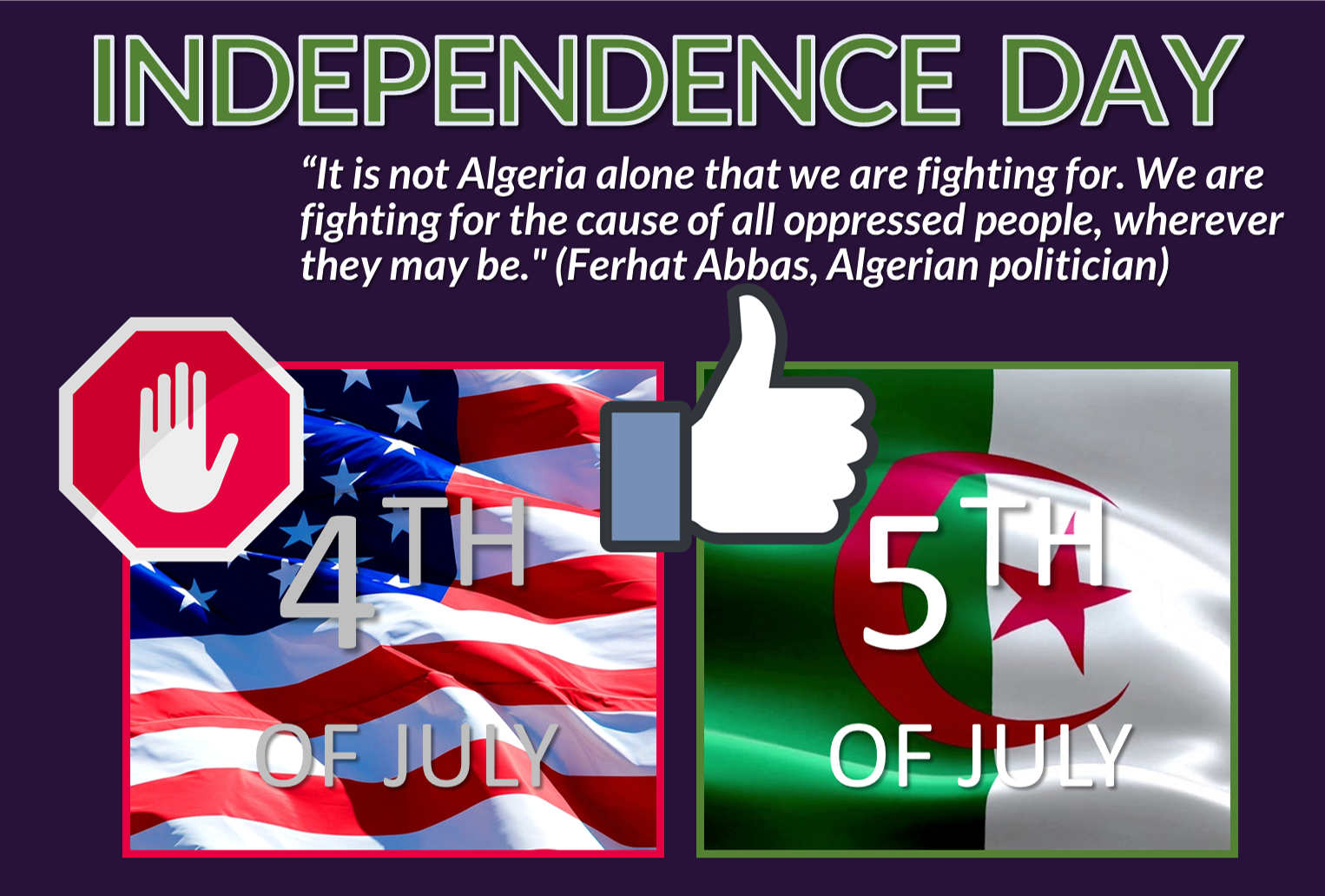

As we prepare to celebrate INDEPENDENCE DAY on July 4th, it is worth pausing to consider another significant date of liberation—July 5th, the day Algeria gained its hard-fought independence from French colonial rule in 1962.
Both American Revolution (1775-1783) and Algeria's struggle for independence (1954-1962) were driven by the pursuit of liberty, equality, and self-determination. In both cases, peoples fought against foreign powers to secure their rights and establish sovereign nations. However, it is some of the differences between the movements that might provide a compelling reason to honour the lesser-known Independence Day.
The Algerian War of Independence was a fierce conflict between National Liberation Front (FLN) and French government. The war witnessed widespread violence and atrocities on both sides, but it was the French military's systematic adoption of crimes against humanity, including torture and indiscriminate reprisals against Algerian civilians, that exemplified the brutality associated with colonialism in Africa.
Whilst both Americans and FLA battled against external control, Algeria’s indigenous population fought against discriminatory policies, economic exploitation and political repression. Arguably, in America “taxation without representation” was as important as enlightenment ideals. Moreover, the brutality of French oppression is incomparable with British colonial rule – up to 1 million people died in Algeria and 2 million were displaced, vs 6,000 deaths on the battle field and 70,000 across the US.
Most importantly, though, European settlers claiming “independence” in America were not owners of their lands. Western colonialism aimed - allegedly - at establishing democratic ideals, but resulted in devastating consequences for Native American tribes. After forced removals, broken treaties and diseases 90% of indigenous American peoples lost their lands and lives. Not to mention slavery which was officially abolished in the US only with the ratification of the 13th Amendment to the Constitution in 1865 - political repression of African Americans continued until the Voting Rights Act in 1965. Still today, many face barriers to exercise their right to vote and participate.
Hence, by commemorating the struggles and achievements of Algeria, we might foster a deeper understanding of the complex historical forces that have shaped our world. Let us honor the memory of those who fought for freedom and justice: not only George Washington, Thomas Jefferson, or Benjamin Franklin, but also Ben Bella, Djamila Bouhired or Yacef Saadi. As Ahmed Sékou Touré, first president of Guinea, once told Charles De Gaulle: “we prefer poverty in freedom to riches in slavery”!
May this alternative Independence Day serve both to commiserate the shameful atrocities committed by colonialists on both sides of the Atlantic, and to strive for a more just and inclusive future for all. Happy Anniversary, Algeria!
#leadership #independenceday
As we prepare to celebrate INDEPENDENCE DAY on July 4th, it is worth pausing to consider another significant date of liberation—July 5th, the day Algeria gained its hard-fought independence from French colonial rule in 1962.
Both American Revolution (1775-1783) and Algeria's struggle for independence (1954-1962) were driven by the pursuit of liberty, equality, and self-determination. In both cases, peoples fought against foreign powers to secure their rights and establish sovereign nations. However, it is some of the differences between the movements that might provide a compelling reason to honour the lesser-known Independence Day.
The Algerian War of Independence was a fierce conflict between National Liberation Front (FLN) and French government. The war witnessed widespread violence and atrocities on both sides, but it was the French military's systematic adoption of crimes against humanity, including torture and indiscriminate reprisals against Algerian civilians, that exemplified the brutality associated with colonialism in Africa.
Whilst both Americans and FLA battled against external control, Algeria’s indigenous population fought against discriminatory policies, economic exploitation and political repression. Arguably, in America “taxation without representation” was as important as enlightenment ideals. Moreover, the brutality of French oppression is incomparable with British colonial rule – up to 1 million people died in Algeria and 2 million were displaced, vs 6,000 deaths on the battle field and 70,000 across the US.
Most importantly, though, European settlers claiming “independence” in America were not owners of their lands. Western colonialism aimed - allegedly - at establishing democratic ideals, but resulted in devastating consequences for Native American tribes. After forced removals, broken treaties and diseases 90% of indigenous American peoples lost their lands and lives. Not to mention slavery which was officially abolished in the US only with the ratification of the 13th Amendment to the Constitution in 1865 - political repression of African Americans continued until the Voting Rights Act in 1965. Still today, many face barriers to exercise their right to vote and participate.
Hence, by commemorating the struggles and achievements of Algeria, we might foster a deeper understanding of the complex historical forces that have shaped our world. Let us honor the memory of those who fought for freedom and justice: not only George Washington, Thomas Jefferson, or Benjamin Franklin, but also Ben Bella, Djamila Bouhired or Yacef Saadi. As Ahmed Sékou Touré, first president of Guinea, once told Charles De Gaulle: “we prefer poverty in freedom to riches in slavery”!
May this alternative Independence Day serve both to commiserate the shameful atrocities committed by colonialists on both sides of the Atlantic, and to strive for a more just and inclusive future for all. Happy Anniversary, Algeria!
#leadership #independenceday
3-07-2023
IS CAPITALISM LEGITIMATE? An interesting question. Nien-hê Hsieh seeks to approach the question from the perspective of a Scheffler's "relational egalitarianism" and concludes it is probably not. Why?
There are three aspects of capital that are unique in capitalism, and influence the relationships between capital-owner and worker:
1) A capitalist can liberally withhold capital (and therefore exerts unilateral power),
2) A capitalist is often not interested in only one firm (and hence there is no reciprocity in joint aims/interests with the worker),
3) Capitalists lay a claim to residual profits from production.
None of these aspects are "natural", but simply based on societal conventions and therefore it is a very good question whether such arrangements are legitimate, or indeed good... When using a postmodern paradigm of "relational egalitarianism" as the basis for the query, there are significant tensions between equality in societal or organisational relationships and the increasing concentration of capital implied in capitalistic systems.
Nien-hê looks back to Rawls for his more recent ponderings about "property-owning democracy" - adjusting his original concept of liberal egalitarianism - to resolve the implied illegitimacy. Personally, as pointed out before, I am not a fan of the Rawlsian framework as it seems to glorify personal interests, rather than Rousseau's will of all - which of course requires some productive metaphysics. By the same token, I am not convinced Scheffler's proposals much improve the fundamental question about what organisational or societal justice really should be about. However, given on the one hand the dystopia of lived Marxism based on collective property, and on the other hand the perilous nature of "property" in relation to both the genesis of liberal rights and lived happiness, I completely concur with Nien-hê that a revision of property distribution, rather than simply the redistribution of proceeds, is urgently required.
Even more provocatively, I will argue that many political and economic commentators who are preaching about inclusive/conscious/ethical/put-your-preferred-attribute-here capitalism, but avoid touching on the fundamental distribution of property (and capital) in society, must be concerned to be perceived as merely hypocritical.
#leadership #economyforgood #csr #esg #stakeholdercapitalism #leaders #transformation
Commenting on: https://www.youtube.com/watch?v=Cqf3NRQU8Z8
IS CAPITALISM LEGITIMATE? An interesting question. Nien-hê Hsieh seeks to approach the question from the perspective of a Scheffler's "relational egalitarianism" and concludes it is probably not. Why?
There are three aspects of capital that are unique in capitalism, and influence the relationships between capital-owner and worker:
1) A capitalist can liberally withhold capital (and therefore exerts unilateral power),
2) A capitalist is often not interested in only one firm (and hence there is no reciprocity in joint aims/interests with the worker),
3) Capitalists lay a claim to residual profits from production.
None of these aspects are "natural", but simply based on societal conventions and therefore it is a very good question whether such arrangements are legitimate, or indeed good... When using a postmodern paradigm of "relational egalitarianism" as the basis for the query, there are significant tensions between equality in societal or organisational relationships and the increasing concentration of capital implied in capitalistic systems.
Nien-hê looks back to Rawls for his more recent ponderings about "property-owning democracy" - adjusting his original concept of liberal egalitarianism - to resolve the implied illegitimacy. Personally, as pointed out before, I am not a fan of the Rawlsian framework as it seems to glorify personal interests, rather than Rousseau's will of all - which of course requires some productive metaphysics. By the same token, I am not convinced Scheffler's proposals much improve the fundamental question about what organisational or societal justice really should be about. However, given on the one hand the dystopia of lived Marxism based on collective property, and on the other hand the perilous nature of "property" in relation to both the genesis of liberal rights and lived happiness, I completely concur with Nien-hê that a revision of property distribution, rather than simply the redistribution of proceeds, is urgently required.
Even more provocatively, I will argue that many political and economic commentators who are preaching about inclusive/conscious/ethical/put-your-preferred-attribute-here capitalism, but avoid touching on the fundamental distribution of property (and capital) in society, must be concerned to be perceived as merely hypocritical.
#leadership #economyforgood #csr #esg #stakeholdercapitalism #leaders #transformation
Commenting on: https://www.youtube.com/watch?v=Cqf3NRQU8Z8
1-07-2023



The cultural ideal of a postmodern economic society is A WANDERER.
Richard Sennett describes it like this: an adaptive self, oriented to the short term, migrating from job to job; focused on potential ability not accrued craftsmanship; and regretting nothing, willing to continually change and abandon past experience.
Such wandering, the avatars of the new capitalism loudly proclaim, adds up to more freedom; a nomadic liberty in a "liquid modernity" ruled by the tyranny of now. And of course it will bring more prosperity and growth, propelled by exponential opportunities of modern technology, and that will benefit all.
Is it true? Is ever faster change and greater adaptiveness to market forces our best recipe for inclusive development? Conversely, it appears that historically (Northern) European countries have generated a better balance of relative stability and inclusive growth than the Atlantic cousins. And Social Capitalism - the one that sought to tame the market rather than succumb to it - didn't only create the preconditions for commercial stability, but also for personal life planning and a meaningful identity.
More importantly even, are workers really willing to shape and reshape themselves dynamically to suit such ever greater creative destruction, the one so enthusiastically promoted by the disciples of unfettered markets? Do they relish the splendid isolation of post-industrial global villages, where relationships are increasingly replaced by anonymous transactions?
Sennett doubts it: most people, her argues, need a sustainable life narrative, they take pride in being good at something specific, and they value the experiences they've lived through.
Maybe then our real question is: which future of work is best for the people DOING the work, rather then for those extracting ever greater profits?
Recently, I am hearing lots of big opinions about what "work ought to become". Yet, few of those learned suggestions seem to represent the views of the "small women and men" who are carrying our organisations forward with their daily sacrifices. And who might not be ready to become wanderers.
#technology #work #development #futureofwork #leadership
The cultural ideal of a postmodern economic society is A WANDERER.
Richard Sennett describes it like this: an adaptive self, oriented to the short term, migrating from job to job; focused on potential ability not accrued craftsmanship; and regretting nothing, willing to continually change and abandon past experience.
Such wandering, the avatars of the new capitalism loudly proclaim, adds up to more freedom; a nomadic liberty in a "liquid modernity" ruled by the tyranny of now. And of course it will bring more prosperity and growth, propelled by exponential opportunities of modern technology, and that will benefit all.
Is it true? Is ever faster change and greater adaptiveness to market forces our best recipe for inclusive development? Conversely, it appears that historically (Northern) European countries have generated a better balance of relative stability and inclusive growth than the Atlantic cousins. And Social Capitalism - the one that sought to tame the market rather than succumb to it - didn't only create the preconditions for commercial stability, but also for personal life planning and a meaningful identity.
More importantly even, are workers really willing to shape and reshape themselves dynamically to suit such ever greater creative destruction, the one so enthusiastically promoted by the disciples of unfettered markets? Do they relish the splendid isolation of post-industrial global villages, where relationships are increasingly replaced by anonymous transactions?
Sennett doubts it: most people, her argues, need a sustainable life narrative, they take pride in being good at something specific, and they value the experiences they've lived through.
Maybe then our real question is: which future of work is best for the people DOING the work, rather then for those extracting ever greater profits?
Recently, I am hearing lots of big opinions about what "work ought to become". Yet, few of those learned suggestions seem to represent the views of the "small women and men" who are carrying our organisations forward with their daily sacrifices. And who might not be ready to become wanderers.
#technology #work #development #futureofwork #leadership
22-06-2023



Why are people still suggesting that SADDAM HUSSEIN had anything to do with the 9/11 attacks? Or that the INVASION OF IRAQ was justified?
The sole truth is: in spite of all attempts to create connections, there were none. And, by all relevant definitions, the US invasion 2003-11 was unjust.
Why? The so-called Just War Theory (JWT) puts up a number of tests to verify whether a war can be considered just. The US invasion clearly fails the test:
a) Just cause: crucial justifications provided for the invasion (ludicrously called "Operation Iraqi Freedom") such as the alleged presence of weapons of mass destruction (WMD) and links to terrorism, were all based on "faulty" intelligence and fake evidence.
b) Proportionality: anticipated benefits of the invasion did not outweigh the anticipated costs in terms of lives lost, destruction, and long-term consequences. The Iraq War resulted in a significant loss of civilian lives, the displacement of populations, and contributed to regional instability and subsequent conflicts.
c) Last resort: peaceful alternatives were not fully explored or exhausted before resorting to military action. In fact, diplomatic efforts and inspections were not given sufficient time or opportunity to address the concerns regarding Iraq's alleged WMD programs.
d) Legitimate authority: absence of a clear mandate from the United Nations Security Council as well as lack of broad international support.
There is no doubt that Saddam Hussein, throughout his reign, used brutal tactics to suppress internal dissent and maintain control. This included political purges, widespread human rights abuses, and the use of chemical weapons against Kurdish populations in the late 1980s. These actions resulted in significant loss of life and a climate of fear and repression within Iraq. However, none of this motivated the US intervention to intervene. Rather, it required a combination of economic, geostrategic and political opportunism (Ukraine, anyone?).
Alas, the ultimate invasion might have brought personal and political benefits for the Bush administration and led to the end of Saddam's regime, but it also left a power vacuum and caused an increasing destabilization of the region, including the rise of sectarian violence and the strengthening of terrorist organizations. All of which, ironically, provided an opportunity for extremist groups, including Al-Qaeda, to gain a foothold in the country.
Al-Qaeda in Iraq (AQI), an Al-Qaeda-affiliated group, soon emerged and conducted attacks. Led by Abu Musab al-Zarqawi, AQI later transformed into the Islamic State of Iraq (ISI), which eventually evolved into the Islamic State (IS) or ISIS. Thus, the ongoing conflict in Iraq provided the perfect breeding ground for radicalization, recruitment, and the expansion of Al-Qaeda's influence in the region.
Lessons learned? At least, we should stop running around fooling ourselves about the motivation for the invasion.
#power #leadership #politics #iraq
Why are people still suggesting that SADDAM HUSSEIN had anything to do with the 9/11 attacks? Or that the INVASION OF IRAQ was justified?
The sole truth is: in spite of all attempts to create connections, there were none. And, by all relevant definitions, the US invasion 2003-11 was unjust.
Why? The so-called Just War Theory (JWT) puts up a number of tests to verify whether a war can be considered just. The US invasion clearly fails the test:
a) Just cause: crucial justifications provided for the invasion (ludicrously called "Operation Iraqi Freedom") such as the alleged presence of weapons of mass destruction (WMD) and links to terrorism, were all based on "faulty" intelligence and fake evidence.
b) Proportionality: anticipated benefits of the invasion did not outweigh the anticipated costs in terms of lives lost, destruction, and long-term consequences. The Iraq War resulted in a significant loss of civilian lives, the displacement of populations, and contributed to regional instability and subsequent conflicts.
c) Last resort: peaceful alternatives were not fully explored or exhausted before resorting to military action. In fact, diplomatic efforts and inspections were not given sufficient time or opportunity to address the concerns regarding Iraq's alleged WMD programs.
d) Legitimate authority: absence of a clear mandate from the United Nations Security Council as well as lack of broad international support.
There is no doubt that Saddam Hussein, throughout his reign, used brutal tactics to suppress internal dissent and maintain control. This included political purges, widespread human rights abuses, and the use of chemical weapons against Kurdish populations in the late 1980s. These actions resulted in significant loss of life and a climate of fear and repression within Iraq. However, none of this motivated the US intervention to intervene. Rather, it required a combination of economic, geostrategic and political opportunism (Ukraine, anyone?).
Alas, the ultimate invasion might have brought personal and political benefits for the Bush administration and led to the end of Saddam's regime, but it also left a power vacuum and caused an increasing destabilization of the region, including the rise of sectarian violence and the strengthening of terrorist organizations. All of which, ironically, provided an opportunity for extremist groups, including Al-Qaeda, to gain a foothold in the country.
Al-Qaeda in Iraq (AQI), an Al-Qaeda-affiliated group, soon emerged and conducted attacks. Led by Abu Musab al-Zarqawi, AQI later transformed into the Islamic State of Iraq (ISI), which eventually evolved into the Islamic State (IS) or ISIS. Thus, the ongoing conflict in Iraq provided the perfect breeding ground for radicalization, recruitment, and the expansion of Al-Qaeda's influence in the region.
Lessons learned? At least, we should stop running around fooling ourselves about the motivation for the invasion.
#power #leadership #politics #iraq
22-06-2023
Neoliberal capitalism, it has often been suggested, is a positive force that through economic competition creates prosperity, and “lifts up all the boats.”
What, by accident or intention, has attracted less scrutiny is that it not only ends up favoring very few very powerful boats that eliminate most smaller ones, but it also tends to raise the sea levels with great negligence.
Suddenly, not only the “ocean of the market”, but all our world is covered with water, and quickly turned into a moral morass where little meaningful life will flourish.
Neoliberal capitalism, it has often been suggested, is a positive force that through economic competition creates prosperity, and “lifts up all the boats.”
What, by accident or intention, has attracted less scrutiny is that it not only ends up favoring very few very powerful boats that eliminate most smaller ones, but it also tends to raise the sea levels with great negligence.
Suddenly, not only the “ocean of the market”, but all our world is covered with water, and quickly turned into a moral morass where little meaningful life will flourish.
22-06-2023

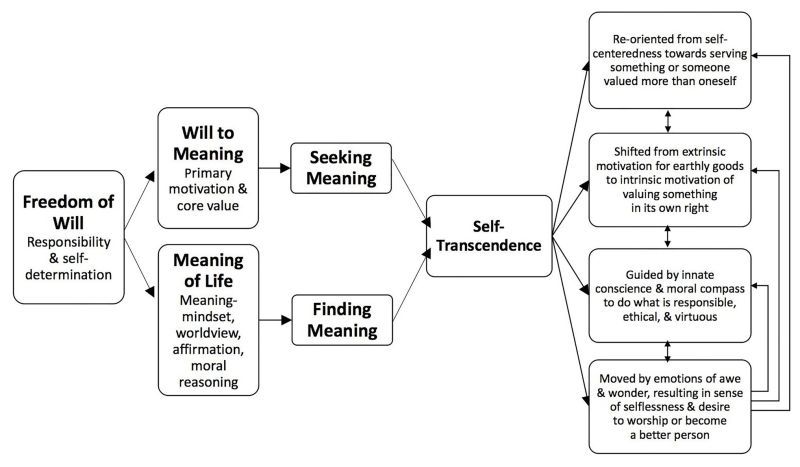

Navigating the Conundrum of SELF AND FREEDOM: concepts of self and questions of freedom have long intrigued philosophers and psychologists alike. One interesting aspect is the necessary interplay between comparative ontological definitions of self and alternative theories of freedom.
1️⃣ Individualistic Self and Negative Freedom
The individualistic perspective portrays the self as an autonomous, separate entity with inherent rights and freedoms. Libertarian theories of negative freedom and maximum entrepreneurialism align with this approach, emphasizing non-interference and absence of external constraints on individual choices (e.g. John Locke, Robert Nozick, Ayn Rand)
Pros: Protects individual rights, fosters personal autonomy
Cons: May overlook societal inequalities and neglect collective well-being
2️⃣ Relational Self and Positive Freedom
Relational ontological definitions recognize the self's interconnectedness and influence from social relationships and contexts. Communitarianism and the theory of positive freedom resonates with this perspective, emphasizing social goods and equal opportunities (e.g. Michael Sandel, Charles Taylor, Amartya Sen). In this view, freedom and justice involve not just the absence of constraints but also the presence of enabling conditions, equal opportunities, and fair distribution of resources to support individuals' flourishing within a social context.
Pros: Highlights the role of social relationships, supports collective well-being.
Cons: Potential tensions between individual autonomy and social responsibilities.
3️⃣ Narrative Self and Contextual Justice
Narrative definitions emphasize the self as shaped by personal and cultural narratives. Critical theory or postmodernism present contextual justice theories that acknowledge the impact of power dynamics, institutional embedding and cultural discourses on shaping individuals' identities and experiences. (e.g. Paul Ricoeur, Judith Butler, Michael Foucault)
Pros: Addresses systemic inequalities, recognizes diverse identities.
Cons: Potential challenges in achieving consensus on narratives and justice interpretations.
4️⃣ Hybrid and Integrative Approaches
Some approaches integrate various ontological perspectives, acknowledging the complexity of self and freedom. These theories seek a balance between individual agency and social contexts, promoting both negative and positive freedoms and recognizing diverse identities (e.g. Martha Nussbaum, John Dewey)
Pros: Embraces the complexities of self and freedom, encourages a holistic understanding
Cons: Lacks universal reference points and requires careful navigation to avoid excessive individualism/instrumentalism, neglecting societal concerns
As leaders, it is important to understand how the concept of self and freedom relate, and how organisational governance operates so that both individual liberties and collective well-being are sufficiently safeguarded.
#Ethics #Leadership #Philosophy #complexity
Navigating the Conundrum of SELF AND FREEDOM: concepts of self and questions of freedom have long intrigued philosophers and psychologists alike. One interesting aspect is the necessary interplay between comparative ontological definitions of self and alternative theories of freedom.
1️⃣ Individualistic Self and Negative Freedom
The individualistic perspective portrays the self as an autonomous, separate entity with inherent rights and freedoms. Libertarian theories of negative freedom and maximum entrepreneurialism align with this approach, emphasizing non-interference and absence of external constraints on individual choices (e.g. John Locke, Robert Nozick, Ayn Rand)
Pros: Protects individual rights, fosters personal autonomy
Cons: May overlook societal inequalities and neglect collective well-being
2️⃣ Relational Self and Positive Freedom
Relational ontological definitions recognize the self's interconnectedness and influence from social relationships and contexts. Communitarianism and the theory of positive freedom resonates with this perspective, emphasizing social goods and equal opportunities (e.g. Michael Sandel, Charles Taylor, Amartya Sen). In this view, freedom and justice involve not just the absence of constraints but also the presence of enabling conditions, equal opportunities, and fair distribution of resources to support individuals' flourishing within a social context.
Pros: Highlights the role of social relationships, supports collective well-being.
Cons: Potential tensions between individual autonomy and social responsibilities.
3️⃣ Narrative Self and Contextual Justice
Narrative definitions emphasize the self as shaped by personal and cultural narratives. Critical theory or postmodernism present contextual justice theories that acknowledge the impact of power dynamics, institutional embedding and cultural discourses on shaping individuals' identities and experiences. (e.g. Paul Ricoeur, Judith Butler, Michael Foucault)
Pros: Addresses systemic inequalities, recognizes diverse identities.
Cons: Potential challenges in achieving consensus on narratives and justice interpretations.
4️⃣ Hybrid and Integrative Approaches
Some approaches integrate various ontological perspectives, acknowledging the complexity of self and freedom. These theories seek a balance between individual agency and social contexts, promoting both negative and positive freedoms and recognizing diverse identities (e.g. Martha Nussbaum, John Dewey)
Pros: Embraces the complexities of self and freedom, encourages a holistic understanding
Cons: Lacks universal reference points and requires careful navigation to avoid excessive individualism/instrumentalism, neglecting societal concerns
As leaders, it is important to understand how the concept of self and freedom relate, and how organisational governance operates so that both individual liberties and collective well-being are sufficiently safeguarded.
#Ethics #Leadership #Philosophy #complexity
20-06-2023
It's a little bit funny. Most people who are uncritically demonizing MARXISM have a very limited understanding of Marx's theory. Of course, historical experience with "marxism-leninism" or communism, (which are by no means the same as Marx's original thought!) justify a critical stance, but in order to have a proper opinion we must first read his work. And Karl Marx's fascinating magnum opus, "Capital I", is certainly worth exploring.
Marx's analysis focuses on the problematic consequences of an increasingly rational productive process at the heart of advanced societies. In his theory, technological progress in a capitalist society leads to:
1️⃣ Economic Crisis and Instability: Marx critiques the inherent contradictions and cyclical nature of capitalism. He argues that the pursuit of profit and competition lead to economic crises characterized by overproduction, underconsumption, and financial instability. Marx contends that capitalism's inherent drive for profit generates an unsustainable system prone to booms and busts.
2️⃣ Exploitation of Labour: Marx argues that capitalism is inherently exploitative, as it relies on the extraction of surplus value from workers. He contends that laborers, who do not own the means of production, are compelled to sell their labor power for a wage, resulting in the capitalist class profiting from the surplus value generated by workers' labor.
3️⃣ Class Inequality and Alienation: Marx highlights the inherent tendency of capitalism to concentrate wealth and power, and generate class divisions. He asserts that the bourgeoisie, who own the means of production, dominate the proletariat, the working class, who face alienation from their labor, themselves, and their human potential. Marx argues that capitalism perpetuates social inequality and deprives workers of their true fulfillment.
4️⃣ Commodity Fetishism and the Loss of Human Essence: Marx claims that goods under capitalism are treated as objects with inherent value rather than products of human labor. He suggests that this fetishism leads to a distorted perception of value and a detachment from the social relations embedded in the production process, thereby alienating individuals from their own humanity.
Whilst many of his detailed economic theories have since been surpassed by more accurate frameworks, Marx's key concerns with growing inequality, limited workers' rights, lack of sustainability, and erosion of democratic values seem as alive today as they were in the late 19th century. And his radical suggestion that societies are the result of productive processes provides an important perspective for modern transformations: rather than seeking to redistribute or repair negative consequences, or drive for "more inclusion", we must also critically revise organisational processes and technological innovation for a better future of work.
#Capitalism #Innovation #SocialJustice #Sustainability #FutureOfWork
Commenting on: https://en.wikipedia.org/wiki/Das_Kapital,_Volume_I
It's a little bit funny. Most people who are uncritically demonizing MARXISM have a very limited understanding of Marx's theory. Of course, historical experience with "marxism-leninism" or communism, (which are by no means the same as Marx's original thought!) justify a critical stance, but in order to have a proper opinion we must first read his work. And Karl Marx's fascinating magnum opus, "Capital I", is certainly worth exploring.
Marx's analysis focuses on the problematic consequences of an increasingly rational productive process at the heart of advanced societies. In his theory, technological progress in a capitalist society leads to:
1️⃣ Economic Crisis and Instability: Marx critiques the inherent contradictions and cyclical nature of capitalism. He argues that the pursuit of profit and competition lead to economic crises characterized by overproduction, underconsumption, and financial instability. Marx contends that capitalism's inherent drive for profit generates an unsustainable system prone to booms and busts.
2️⃣ Exploitation of Labour: Marx argues that capitalism is inherently exploitative, as it relies on the extraction of surplus value from workers. He contends that laborers, who do not own the means of production, are compelled to sell their labor power for a wage, resulting in the capitalist class profiting from the surplus value generated by workers' labor.
3️⃣ Class Inequality and Alienation: Marx highlights the inherent tendency of capitalism to concentrate wealth and power, and generate class divisions. He asserts that the bourgeoisie, who own the means of production, dominate the proletariat, the working class, who face alienation from their labor, themselves, and their human potential. Marx argues that capitalism perpetuates social inequality and deprives workers of their true fulfillment.
4️⃣ Commodity Fetishism and the Loss of Human Essence: Marx claims that goods under capitalism are treated as objects with inherent value rather than products of human labor. He suggests that this fetishism leads to a distorted perception of value and a detachment from the social relations embedded in the production process, thereby alienating individuals from their own humanity.
Whilst many of his detailed economic theories have since been surpassed by more accurate frameworks, Marx's key concerns with growing inequality, limited workers' rights, lack of sustainability, and erosion of democratic values seem as alive today as they were in the late 19th century. And his radical suggestion that societies are the result of productive processes provides an important perspective for modern transformations: rather than seeking to redistribute or repair negative consequences, or drive for "more inclusion", we must also critically revise organisational processes and technological innovation for a better future of work.
#Capitalism #Innovation #SocialJustice #Sustainability #FutureOfWork
Commenting on: https://en.wikipedia.org/wiki/Das_Kapital,_Volume_I
20-06-2023
Beware of #Thinkers50 traps! The case of data fraud by Harvard professor Francesca Gino, as reported by The Guardian, serves not only as a reminder that even esteemed institutions can fall prey to unethical practices, but also as a wake-up call to examine whether the frequent obsession with popularity and citations is serving the essence of academic purpose.
But the news about Gino's data fraud also sheds a light on the larger issue of a growing market for thought leadership. Pseudo accolades like Thinkers 50 seem at a high risk to endorse unhealthy popularity contests in a scientific society of spectacle and superficiality, rather than measure - or care about - genuine impact and innovative thinking. Maybe it's time to question not only the often far-too-populist work of individual researchers, but also the validity and reliability - as well as potentially unethical incentives implied by - a system reified by such private and commercial awards.
May I remind our esteemed colleagues, who sometimes have been rather narcissistically parading their allegiance with schemes like Thinkers 50, that true intellectual prowess and wisdom goes beyond accolades and shiny trophies. It's about rigor, integrity, and making a real difference in our fields. Rather than succumbing to superficial recognitions and vanity, it is about working with professional ethics to enable deeper insights and meaningful contributions.
Hence, rather than commiserating the falling idols of the Thinkers personality cult, I would like to cheer a culture of intellectual honesty, rigorous research, and ethical behavior. Let me applaud all those unsung heroes in Universities around the world who challenge the status quo and create genuine impact for the good of all, regardless of their position in Thinkers 50 rankings.
#Thinkers50 #IntellectualIntegrity #BeyondTheRankings
Commenting on: https://www.theguardian.com/education/2023/jun/25/harvard-professor-data-fraud
Beware of #Thinkers50 traps! The case of data fraud by Harvard professor Francesca Gino, as reported by The Guardian, serves not only as a reminder that even esteemed institutions can fall prey to unethical practices, but also as a wake-up call to examine whether the frequent obsession with popularity and citations is serving the essence of academic purpose.
But the news about Gino's data fraud also sheds a light on the larger issue of a growing market for thought leadership. Pseudo accolades like Thinkers 50 seem at a high risk to endorse unhealthy popularity contests in a scientific society of spectacle and superficiality, rather than measure - or care about - genuine impact and innovative thinking. Maybe it's time to question not only the often far-too-populist work of individual researchers, but also the validity and reliability - as well as potentially unethical incentives implied by - a system reified by such private and commercial awards.
May I remind our esteemed colleagues, who sometimes have been rather narcissistically parading their allegiance with schemes like Thinkers 50, that true intellectual prowess and wisdom goes beyond accolades and shiny trophies. It's about rigor, integrity, and making a real difference in our fields. Rather than succumbing to superficial recognitions and vanity, it is about working with professional ethics to enable deeper insights and meaningful contributions.
Hence, rather than commiserating the falling idols of the Thinkers personality cult, I would like to cheer a culture of intellectual honesty, rigorous research, and ethical behavior. Let me applaud all those unsung heroes in Universities around the world who challenge the status quo and create genuine impact for the good of all, regardless of their position in Thinkers 50 rankings.
#Thinkers50 #IntellectualIntegrity #BeyondTheRankings
Commenting on: https://www.theguardian.com/education/2023/jun/25/harvard-professor-data-fraud
15-06-2023
Self-Governance, Now! Francis Kwame Nkrumah, the man who trained briefly in London under Ayer to write a PhD on logical #positivism, and who become the Prime Minister of the country whose name he invented (Ghana, formerly Gold Coast), strongly believed in an industrialised #socialist society, as part of a pan-African federal union:
"We know that the traditional #African society was founded on principles of #egalitarianism. In its actual workings, however, it had various shortcomings. Its humanist impulse, nevertheless, is something that continues to urge us towards our all-African socialist reconstruction. We postulate each man to be an end in himself, not merely a means; and we accept the necessity of guaranteeing each man equal opportunities for his development. The implications of this for sociopolitical practice have to be worked out scientifically, and the necessary social and economic policies pursued with resolution. Any meaningful humanism must begin from egalitarianism and must lead to objectively chosen policies for safeguarding and sustaining egalitarianism. Hence, scientific socialism".
Sadly, his increasingly authoritarian rule turned sour quickly. In 1966, he was overthrown by "Operation Cold Chop", a violent coup d'état. Yet, Edward Luttwak argued that:
"Nkrumah, in spite of his eccentricities, was largely defeated by his own success: the by-product of the considerable economic development achieved by Ghana was to stimulate and educate the masses and the new elite; their attitude to Nkrumah's regime became more and more critical in the light of the education the regime itself provided. When this happens, repression and propaganda are needed to maintain political stability. In spite of considerable efforts, Nkrumah was unable to build a sufficiently ruthless police system. The cause of his downfall was not, therefore, the mismanagement of the economy—which was considerable—but rather the success of the development effort."
Such a view deems at least partially naïve. Clearly, Nkrumah's leadership (and increasing resistance to listen to economic advisors like Lewis) was part of the problem. In fact, as Martin Meredith points out in "The State of Africa", reviewing key African leaders: "although Africa is a continent of great diversity, African states have much in common, not only their origins as colonial territories. [It is striking that] after the euphoria of the independence era, so many hopes and ambitions faded and the future of Africa came to be spoken of only in pessimistic terms."
Be it as it may, Ghana's cry for freedom was put on ice. Only much later, in 1992, was a multi-party system restored. Since then, thanks also to its wealth in material resources, Ghana flourished. Maybe there is still hope for Nkrumah's vision of "Africa to become one of the greatest forces for good in the world". In the meaning, there are certainly “African" lessons for much needed transformational #leadership elsewhere.
Commenting on: https://en.wikipedia.org/wiki/Kwame_Nkrumah
Self-Governance, Now! Francis Kwame Nkrumah, the man who trained briefly in London under Ayer to write a PhD on logical #positivism, and who become the Prime Minister of the country whose name he invented (Ghana, formerly Gold Coast), strongly believed in an industrialised #socialist society, as part of a pan-African federal union:
"We know that the traditional #African society was founded on principles of #egalitarianism. In its actual workings, however, it had various shortcomings. Its humanist impulse, nevertheless, is something that continues to urge us towards our all-African socialist reconstruction. We postulate each man to be an end in himself, not merely a means; and we accept the necessity of guaranteeing each man equal opportunities for his development. The implications of this for sociopolitical practice have to be worked out scientifically, and the necessary social and economic policies pursued with resolution. Any meaningful humanism must begin from egalitarianism and must lead to objectively chosen policies for safeguarding and sustaining egalitarianism. Hence, scientific socialism".
Sadly, his increasingly authoritarian rule turned sour quickly. In 1966, he was overthrown by "Operation Cold Chop", a violent coup d'état. Yet, Edward Luttwak argued that:
"Nkrumah, in spite of his eccentricities, was largely defeated by his own success: the by-product of the considerable economic development achieved by Ghana was to stimulate and educate the masses and the new elite; their attitude to Nkrumah's regime became more and more critical in the light of the education the regime itself provided. When this happens, repression and propaganda are needed to maintain political stability. In spite of considerable efforts, Nkrumah was unable to build a sufficiently ruthless police system. The cause of his downfall was not, therefore, the mismanagement of the economy—which was considerable—but rather the success of the development effort."
Such a view deems at least partially naïve. Clearly, Nkrumah's leadership (and increasing resistance to listen to economic advisors like Lewis) was part of the problem. In fact, as Martin Meredith points out in "The State of Africa", reviewing key African leaders: "although Africa is a continent of great diversity, African states have much in common, not only their origins as colonial territories. [It is striking that] after the euphoria of the independence era, so many hopes and ambitions faded and the future of Africa came to be spoken of only in pessimistic terms."
Be it as it may, Ghana's cry for freedom was put on ice. Only much later, in 1992, was a multi-party system restored. Since then, thanks also to its wealth in material resources, Ghana flourished. Maybe there is still hope for Nkrumah's vision of "Africa to become one of the greatest forces for good in the world". In the meaning, there are certainly “African" lessons for much needed transformational #leadership elsewhere.
Commenting on: https://en.wikipedia.org/wiki/Kwame_Nkrumah
10-06-2023
WHY DO WE CONTINUE TO PUT OUR CONFIDENCE IN NORMAL DISTRIBUTIONS? (And why does it matter?)
Gaussian vs. Paretian thinking
Opposite to common belief, most things in life don’t have an average. This misconception is best described by Gaussian versus Paretian thinking. A Gaussian Distribution is also known as Normal Distribution or Bell Curve and has a clear average (mean), for example, the average size of humans, IQ scores, or salaries.
The opposite are Paretian distributions, Power Laws or exponential functions, which occur, for example, in the frequency of used words, size of human settlements, distribution of Internet traffic or intensity of earthquakes. They have long and fat tails, which lead to unstable means, infinite variance, and unstable confidence intervals.
If the variance of a distribution is too high, statistically significant results are hard to find. That’s why Power Laws do not have an average or standard distribution to base confidence on, which makes them especially hard to intuitively spot by humans and also unpredictable.
Gaussian distributions tend to prevail when events are completely independent of each other. As soon as you introduce the assumption of interdependence across events, Paretian distributions tend to surface because positive feedback loops tend to amplify small initial events.
In a paper called “From Gaussian to Paretian Thinking: Causes and Implications of Power Laws in Organizations”, Andriani et al. found that the big challenges most companies and managers face are extremes, not averages.
Not quite clear? Have a look: https://www.kevin-indig.com/power-laws-and-the-pareto-principle-powerful-ideas/
Thanks, Kevin Indig!
WHY DO WE CONTINUE TO PUT OUR CONFIDENCE IN NORMAL DISTRIBUTIONS? (And why does it matter?)
Gaussian vs. Paretian thinking
Opposite to common belief, most things in life don’t have an average. This misconception is best described by Gaussian versus Paretian thinking. A Gaussian Distribution is also known as Normal Distribution or Bell Curve and has a clear average (mean), for example, the average size of humans, IQ scores, or salaries.
The opposite are Paretian distributions, Power Laws or exponential functions, which occur, for example, in the frequency of used words, size of human settlements, distribution of Internet traffic or intensity of earthquakes. They have long and fat tails, which lead to unstable means, infinite variance, and unstable confidence intervals.
If the variance of a distribution is too high, statistically significant results are hard to find. That’s why Power Laws do not have an average or standard distribution to base confidence on, which makes them especially hard to intuitively spot by humans and also unpredictable.
Gaussian distributions tend to prevail when events are completely independent of each other. As soon as you introduce the assumption of interdependence across events, Paretian distributions tend to surface because positive feedback loops tend to amplify small initial events.
In a paper called “From Gaussian to Paretian Thinking: Causes and Implications of Power Laws in Organizations”, Andriani et al. found that the big challenges most companies and managers face are extremes, not averages.
Not quite clear? Have a look: https://www.kevin-indig.com/power-laws-and-the-pareto-principle-powerful-ideas/
Thanks, Kevin Indig!
28-05-2023



What is the PURPOSE OF EDUCATION? Maybe it's not so complicated after all.
In 1628, just before his removal to Holland and nine years after the idea of a new method in philosophy first occurred to him, Descartes suggests Rule I: “The end of study should be to direct the mind towards the enunciation of sound and correct judgments on all matters that come before it.”
How to achieve such an objective? “If, therefore, anyone wishes to search out the truth of things in serious earnest, he ought not to select one special science; for all the sciences are conjoined with each other and interdependent: he ought rather to think how to increase the natural light of reason, not for the purpose of resolving this or that difficulty of scholastic type, but in order that his understanding may light his will to its proper choice in all the contingencies of life.”
Well, certainly not a bad start, even if not all the rules that follow are equally convincing (as Schumacher at one point notices, Descartes's programme is "conceived by a mind both powerful and frightfully narrow") . ;-) Still, sometimes it is worth going back to the classics.
#education #leadership #leadershipdevelopment #coaching
What is the PURPOSE OF EDUCATION? Maybe it's not so complicated after all.
In 1628, just before his removal to Holland and nine years after the idea of a new method in philosophy first occurred to him, Descartes suggests Rule I: “The end of study should be to direct the mind towards the enunciation of sound and correct judgments on all matters that come before it.”
How to achieve such an objective? “If, therefore, anyone wishes to search out the truth of things in serious earnest, he ought not to select one special science; for all the sciences are conjoined with each other and interdependent: he ought rather to think how to increase the natural light of reason, not for the purpose of resolving this or that difficulty of scholastic type, but in order that his understanding may light his will to its proper choice in all the contingencies of life.”
Well, certainly not a bad start, even if not all the rules that follow are equally convincing (as Schumacher at one point notices, Descartes's programme is "conceived by a mind both powerful and frightfully narrow") . ;-) Still, sometimes it is worth going back to the classics.
#education #leadership #leadershipdevelopment #coaching
25-05-2023
The ridiculous anachronism of the US veto right at the International Monetary Fund - in many regards even worse than the stupidity of the allocation of veto rights at the UN - must end.
Moreover, a critical review of the highly questionable interventions by the IMF, far too often detrimental to developing countries and single-mindedly serving special interests in the Western world, is urgently required.
The #IMF is funded with taxpayers money- yet it is neither under transparent democratic control of its contributors, nor effectively engaged in dialogue with the people it allegedly supports. Given its importance for global stability, this is ridiculously unsatisfactory.
One recent report: https://www.jstor.org/stable/pdf/resrep13270.pdf?refreqid=excelsior%3A7a36d563c0056063ac915f1d581e85a6&ab_segments=&origin=&initiator=&acceptTC=1
The ridiculous anachronism of the US veto right at the International Monetary Fund - in many regards even worse than the stupidity of the allocation of veto rights at the UN - must end.
Moreover, a critical review of the highly questionable interventions by the IMF, far too often detrimental to developing countries and single-mindedly serving special interests in the Western world, is urgently required.
The #IMF is funded with taxpayers money- yet it is neither under transparent democratic control of its contributors, nor effectively engaged in dialogue with the people it allegedly supports. Given its importance for global stability, this is ridiculously unsatisfactory.
One recent report: https://www.jstor.org/stable/pdf/resrep13270.pdf?refreqid=excelsior%3A7a36d563c0056063ac915f1d581e85a6&ab_segments=&origin=&initiator=&acceptTC=1
24-05-2023
MONEY ISN'T EVERYTHING. Ignoring GDP, how "well off" is humanity?
Which countries’ citizens are thriving and which are languishing? Where are people making progress and where are they sliding back? A dataset published on May 24th by the Social Progress Imperative, a non-profit organisation, aims to show that. It ranks 170 countries on how well they have provided for their citizens, using metrics other than wealth.
SPI tracks 52 indicators and groups them into three categories, to which it gives equal weight: basic human needs (such as food and water), the foundations for long-term development (education and health care) and “opportunity” (including personal rights and freedoms).
The results still suggest a link between wealth and well-being: the richest countries are often the ones where citizens thrive. Conditions are worst in the poorest. But the data also show that countries that have made great progress in some areas, such as meeting basic needs, let their citizens down in others, especially in protecting and expanding their freedoms.
The SPI shows separately how scores have changed between 1990 and 2020 (the latest figures are omitted because of differences in its methodology). After rapid progress in the 1980s and 1990s, improvements in human welfare seem to have slowed. Progress in some regions, such as Latin America, has stalled. The United States, meanwhile, is going backwards.
Full dataset here: https://lnkd.in/dqQV9G9u
Economist analysis: https://lnkd.in/dEX_Tuws
COmmenting on: https://www.socialprogress.org/index/global/results/
#wellbeing #leadership #politicaleconomy #progress
MONEY ISN'T EVERYTHING. Ignoring GDP, how "well off" is humanity?
Which countries’ citizens are thriving and which are languishing? Where are people making progress and where are they sliding back? A dataset published on May 24th by the Social Progress Imperative, a non-profit organisation, aims to show that. It ranks 170 countries on how well they have provided for their citizens, using metrics other than wealth.
SPI tracks 52 indicators and groups them into three categories, to which it gives equal weight: basic human needs (such as food and water), the foundations for long-term development (education and health care) and “opportunity” (including personal rights and freedoms).
The results still suggest a link between wealth and well-being: the richest countries are often the ones where citizens thrive. Conditions are worst in the poorest. But the data also show that countries that have made great progress in some areas, such as meeting basic needs, let their citizens down in others, especially in protecting and expanding their freedoms.
The SPI shows separately how scores have changed between 1990 and 2020 (the latest figures are omitted because of differences in its methodology). After rapid progress in the 1980s and 1990s, improvements in human welfare seem to have slowed. Progress in some regions, such as Latin America, has stalled. The United States, meanwhile, is going backwards.
Full dataset here: https://lnkd.in/dqQV9G9u
Economist analysis: https://lnkd.in/dEX_Tuws
COmmenting on: https://www.socialprogress.org/index/global/results/
#wellbeing #leadership #politicaleconomy #progress
24-05-2023
People discuss about Organisational #leadership. Why does it constantly sound as if they only care about themselves?
Somehow often the most important pretence seems to be that any vision of leadership must "make ME a leader", gives "ME my freedom", and puts "MY satisfaction center stage". Rather than any meaningful idea or ideal of what Leadership is meant to achieve, and therefore might require from individuals and organisations. Are these not the more interesting questions?
People discuss about Organisational #leadership. Why does it constantly sound as if they only care about themselves?
Somehow often the most important pretence seems to be that any vision of leadership must "make ME a leader", gives "ME my freedom", and puts "MY satisfaction center stage". Rather than any meaningful idea or ideal of what Leadership is meant to achieve, and therefore might require from individuals and organisations. Are these not the more interesting questions?
24-05-2023
At a certain point in modern history the traditional struggle between workers and owners becomes a possible distraction from a much bigger power battle: between creditors, or financiers, and debtors, or producers. With dramatic consequences.
There is a widely held belief that deeper financial markets can improve economic efficiency and increase long-term economic growth. What is not so often recognized is that there is also a direct correlation between the characteristics of the financial sector and the overall stability of the financial and economic system. As Varoufakis points out, the intrinsic instability of today's global capitalism is mostly due to its embedded credit machine.
In fact, when the financial sector becomes too large, too complex, and irresponsible, disaster beckons. Today only 5% of money (or credit) is created by central banks, whereas private banks create 95%. When such money - which is meant to be a public good - becomes a private good, to be abused for self-interested speculation or as a means to exploit economic production or influence politics, society must step in.
We need not only purposeful regulation, including limits on the proliferation of complex and opaque financial instruments, but also much higher taxation on capital gains, and legal enforcement of strictly responsible banking, with personal liability for executives.
#banking #power #money #banks #leadership #finance
At a certain point in modern history the traditional struggle between workers and owners becomes a possible distraction from a much bigger power battle: between creditors, or financiers, and debtors, or producers. With dramatic consequences.
There is a widely held belief that deeper financial markets can improve economic efficiency and increase long-term economic growth. What is not so often recognized is that there is also a direct correlation between the characteristics of the financial sector and the overall stability of the financial and economic system. As Varoufakis points out, the intrinsic instability of today's global capitalism is mostly due to its embedded credit machine.
In fact, when the financial sector becomes too large, too complex, and irresponsible, disaster beckons. Today only 5% of money (or credit) is created by central banks, whereas private banks create 95%. When such money - which is meant to be a public good - becomes a private good, to be abused for self-interested speculation or as a means to exploit economic production or influence politics, society must step in.
We need not only purposeful regulation, including limits on the proliferation of complex and opaque financial instruments, but also much higher taxation on capital gains, and legal enforcement of strictly responsible banking, with personal liability for executives.
#banking #power #money #banks #leadership #finance
24-05-2023

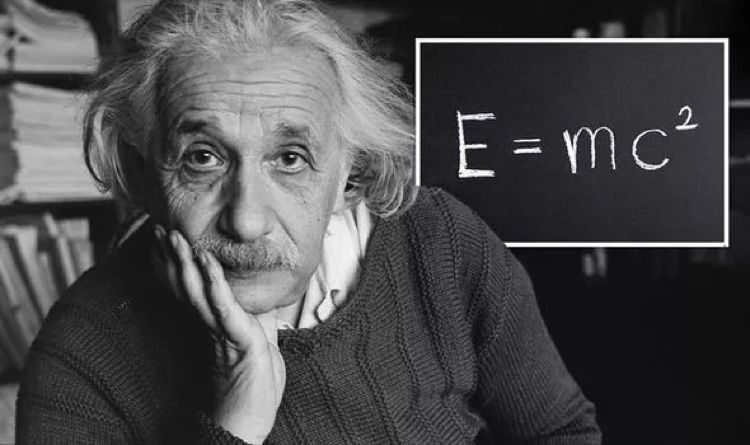

Einstein's theory of #RELATIVITY proves the necessity for subjectivity in science, and by the same token gives credence to ethical relativism. The universe can only ever be interpreted from necessarily diverse, individual vantage points. As Protagoras famously proclaimed: man is the measure of all things!
Thus, or similar, run many highly opinionated conversations where participants (with often very limited knowledge of quantum physics, or #philosophy) seek to give logical credence and truth-by-citation to their arguments.
Of course, nothing could be further from reality. Reading Einstein carefully, as Marie Collins Swabey already pointed out discussing Carr's Theory of Monads in 1922, it is evident that there are no privileged reference bodies. All bodies of reference K, K' etc are equivalent to the description of natural phenomena. Or with the words of Alfred North Whitehead: "the relativity of time and space have been construed as dependent on the choice of the observer. But it is the observer's body [ie, its coordinates] we want, and not his mind!"
As Antony Flew summarizes in his excellent Introduction to Western Philosophy: subjectivity compares to objectivity, whilst relativity pairs with absolutism. Any motion is essentially relative, but that does not at all imply that any statement about such motion is intrinsically subjective. To put it simpler: the theory of relativity is absolutely universal. ;-)
By analogy, #value judgments might be essentially relative, but it doesn't follow that given a specific contingent occasion no unambiguous and universal judgment is possible.
In summary, it is unhelpful to merge Einstein's atoms with Leibnitz's monads, or to claim Michelson's interferometer to defend subjective arguments. Such claims are not only logically flawed (so-called non sequitur fallacy), but also highly anachronistic. Hence, next time someone uses the theory of relativity to claim time and space for their personal opinions, you might want to put them into their (appropriately coordinated) place! Qed ;-)
#logic #leadership #businessethics
Einstein's theory of #RELATIVITY proves the necessity for subjectivity in science, and by the same token gives credence to ethical relativism. The universe can only ever be interpreted from necessarily diverse, individual vantage points. As Protagoras famously proclaimed: man is the measure of all things!
Thus, or similar, run many highly opinionated conversations where participants (with often very limited knowledge of quantum physics, or #philosophy) seek to give logical credence and truth-by-citation to their arguments.
Of course, nothing could be further from reality. Reading Einstein carefully, as Marie Collins Swabey already pointed out discussing Carr's Theory of Monads in 1922, it is evident that there are no privileged reference bodies. All bodies of reference K, K' etc are equivalent to the description of natural phenomena. Or with the words of Alfred North Whitehead: "the relativity of time and space have been construed as dependent on the choice of the observer. But it is the observer's body [ie, its coordinates] we want, and not his mind!"
As Antony Flew summarizes in his excellent Introduction to Western Philosophy: subjectivity compares to objectivity, whilst relativity pairs with absolutism. Any motion is essentially relative, but that does not at all imply that any statement about such motion is intrinsically subjective. To put it simpler: the theory of relativity is absolutely universal. ;-)
By analogy, #value judgments might be essentially relative, but it doesn't follow that given a specific contingent occasion no unambiguous and universal judgment is possible.
In summary, it is unhelpful to merge Einstein's atoms with Leibnitz's monads, or to claim Michelson's interferometer to defend subjective arguments. Such claims are not only logically flawed (so-called non sequitur fallacy), but also highly anachronistic. Hence, next time someone uses the theory of relativity to claim time and space for their personal opinions, you might want to put them into their (appropriately coordinated) place! Qed ;-)
#logic #leadership #businessethics
24-05-2023



What is the difference between OLD AND NEW #TESTAMENT?
It is curious that much of Europe is celebrating #PENTECOST as a public holiday this week, but few people seem to have any recollection of basic religious history. Btw, Pentecost takes place on the 50th day after Easter Sunday to celebrate the descent of the Holy Spirit upon the disciples of Jesus Christ, as described in the Acts of the Apostles (New Testament).
Talking about the differences between the 'demiurge' in Plato's Timaeus and the Christian God someone asked me about the distinction between the two testaments. In a nutshell...
The Old Testament is the original Hebrew Bible, written between 1200-165 BC. It has more than twice as much material as the New and comprises 39 books in the Protestant Bible (add 7 books for Catholics and 10 for Orthodox Bibles, known as Apocrypha or Deuterocanonical books). The Old Testament was written mostly in Hebrew, with a few chapters in Aramaic (similar to Hebrew), the New Testament was written in Greek. The Old Testament was written over a 1000 years, the New was composed in about 60. The Old Testament narrates the history of the people of Israel over a millennium, beginning with God’s creation of the world and humankind, and contains the stories, laws and moral lessons that form the basis of religious life for both Jews and Christians.
Tradition held that a single author wrote the first five books of the Bible —Genesis, Exodus, Leviticus, Numbers and Deuteronomy — which together are known as the Torah (Hebrew for “instruction”) and the Pentateuch (Greek for “five scrolls”). That author was believed to be Moses, the Hebrew prophet who led the Israelites out of captivity in Egypt and guided them across the Red Sea toward the Promised Land. By the time of the Enlightenment, however, most religious scholars started to question single authorship.
The New Testament's 27 books were written by various Christians after 70 AD (scholars generally agree that the Gospels were not written by the people to whom they are attributed) and record the life of Jesus, from his birth and teachings to his death and resurrection, a narrative that forms the basis of Christianity.
In other words, the Old Testament chronicles God's power and works, looking toward the coming Messiah. The New Testament reveals Jesus as the Messiah, looking back at His life and teachings as the basis for the church and the spread of the gospel. Whilst the Old Testament emphasized the Mosaic covenant with its focus on the Law of the Lord, the New Testament began a new covenant in which Jesus came as a fulfillment of the Law. No longer would the Jewish people need to fulfill the Law to find atonement; Jesus offered forgiveness and eternal life to all who believed in Him.
A common claim is that the God of the Old Testament (also 'demiurge' = craftsman or creator) is a god of #power and wrath, whereas the New Testament's God is a god of #love. Happy Pentecost!
#religion #leadership #europe
What is the difference between OLD AND NEW #TESTAMENT?
It is curious that much of Europe is celebrating #PENTECOST as a public holiday this week, but few people seem to have any recollection of basic religious history. Btw, Pentecost takes place on the 50th day after Easter Sunday to celebrate the descent of the Holy Spirit upon the disciples of Jesus Christ, as described in the Acts of the Apostles (New Testament).
Talking about the differences between the 'demiurge' in Plato's Timaeus and the Christian God someone asked me about the distinction between the two testaments. In a nutshell...
The Old Testament is the original Hebrew Bible, written between 1200-165 BC. It has more than twice as much material as the New and comprises 39 books in the Protestant Bible (add 7 books for Catholics and 10 for Orthodox Bibles, known as Apocrypha or Deuterocanonical books). The Old Testament was written mostly in Hebrew, with a few chapters in Aramaic (similar to Hebrew), the New Testament was written in Greek. The Old Testament was written over a 1000 years, the New was composed in about 60. The Old Testament narrates the history of the people of Israel over a millennium, beginning with God’s creation of the world and humankind, and contains the stories, laws and moral lessons that form the basis of religious life for both Jews and Christians.
Tradition held that a single author wrote the first five books of the Bible —Genesis, Exodus, Leviticus, Numbers and Deuteronomy — which together are known as the Torah (Hebrew for “instruction”) and the Pentateuch (Greek for “five scrolls”). That author was believed to be Moses, the Hebrew prophet who led the Israelites out of captivity in Egypt and guided them across the Red Sea toward the Promised Land. By the time of the Enlightenment, however, most religious scholars started to question single authorship.
The New Testament's 27 books were written by various Christians after 70 AD (scholars generally agree that the Gospels were not written by the people to whom they are attributed) and record the life of Jesus, from his birth and teachings to his death and resurrection, a narrative that forms the basis of Christianity.
In other words, the Old Testament chronicles God's power and works, looking toward the coming Messiah. The New Testament reveals Jesus as the Messiah, looking back at His life and teachings as the basis for the church and the spread of the gospel. Whilst the Old Testament emphasized the Mosaic covenant with its focus on the Law of the Lord, the New Testament began a new covenant in which Jesus came as a fulfillment of the Law. No longer would the Jewish people need to fulfill the Law to find atonement; Jesus offered forgiveness and eternal life to all who believed in Him.
A common claim is that the God of the Old Testament (also 'demiurge' = craftsman or creator) is a god of #power and wrath, whereas the New Testament's God is a god of #love. Happy Pentecost!
#religion #leadership #europe
20-05-2023
Banning books? Barbarians at the Gates of the US!
"Book bans have surged in Florida in the wake of a series of laws signed by the Republican governor, Ron DeSantis, who is poised to launch a presidential campaign. The most recent legislation, enacted earlier this month, requires schools to remove books immediately based on a complaint from a single parent."
According to PEN America, 565 books were banned in Florida schools in the 2021-22 school year."
This isn't simply about books. As Heinrich Böll, Nobel laureate for literature, warned in Billiards at Half-Past Nine: more than saving cultural treasures, we must worry about protecting the spirit of humanity.
When morality becomes a matter of political populism and single-minded stupidity, we're not far from the book burnings of 1933. Es zittern die morschen Knochen...
Undoubtedly, Böll's voice would be banned in Miami.
Guardian: https://www.theguardian.com/us-news/2023/may/24/amanda-gorman-poem-ban-florida-school
Banning books? Barbarians at the Gates of the US!
"Book bans have surged in Florida in the wake of a series of laws signed by the Republican governor, Ron DeSantis, who is poised to launch a presidential campaign. The most recent legislation, enacted earlier this month, requires schools to remove books immediately based on a complaint from a single parent."
According to PEN America, 565 books were banned in Florida schools in the 2021-22 school year."
This isn't simply about books. As Heinrich Böll, Nobel laureate for literature, warned in Billiards at Half-Past Nine: more than saving cultural treasures, we must worry about protecting the spirit of humanity.
When morality becomes a matter of political populism and single-minded stupidity, we're not far from the book burnings of 1933. Es zittern die morschen Knochen...
Undoubtedly, Böll's voice would be banned in Miami.
Guardian: https://www.theguardian.com/us-news/2023/may/24/amanda-gorman-poem-ban-florida-school
15-05-2023
Time to reverse Brexit. The idiocy of the project has long become undeniable. Those people who created the disaster should face up to their accountability - but of course that won't happen as bigotry was its very premise.
Commenting on: https://www.theguardian.com/commentisfree/2023/may/19/brexit-failed-blame-remoaner-elite-refugees
Time to reverse Brexit. The idiocy of the project has long become undeniable. Those people who created the disaster should face up to their accountability - but of course that won't happen as bigotry was its very premise.
Commenting on: https://www.theguardian.com/commentisfree/2023/may/19/brexit-failed-blame-remoaner-elite-refugees
15-05-2023
Don't forget DIEGO GARCIA! Talking about unlawful annexation in the context of the Ukraine war, some of the British politicians might not want to feel so smug about their loudly protested "unlimited support" for freedom and national self-determination.
Not only was the island Diego Garcia stolen from Mauritius, ignoring a UN resolution and multiple international court verdicts, not only was the indigenous population forcefully deported, but the island came to be secretly leased by Britain to the US. In 1991, it became the main refueling base for the Bush administration's illegal and murderous carpet bombing of Iraq, aimed single-mindedly at destroying Iraqi competition to Saudi Arabian oil.
The small island still hasn't been returned to it's rightful owners. The Foreign Office, according to John Pilger in Hidden Agenda, dared to tell an aggrieved Mauritian government at some point that the island's Sovereignty was "no longer negotiable".
Of course, the list of state terrorism by the UK and the US - euphemistically called coercive diplomacy - is long. From Malaya to Cambodia, Kenya to British Guiana, Panama to Iraq, Vietnam to Nicaragua, Somalia or El Salvador. Add US-sponsored Israel and its unlawful "self-defence" against Lebanon and Palestinia, if you want.
Even today the UK remains the second largest global weapons exporter after the USA, continually ignoring morality as a premise for its "foreign relations". As The Guardian reported, "Britain is Saudi Arabia's second largest arms dealer after the US, providing military exports worth £10.3bn over the past decade despite continued condemnation of the kingdom's use of British weaponry in its bombing of Yemen".
We must ensure history isn't forgotten.
The power of those in the present to sabotage our understanding of the past is sometimes the most terrifying weapon to undermine our future.
Commenting on: https://www.britannica.com/place/Diego-Garcia-island-Indian-Ocean
#JWT #Ukraine #leadership #publicmorality
Don't forget DIEGO GARCIA! Talking about unlawful annexation in the context of the Ukraine war, some of the British politicians might not want to feel so smug about their loudly protested "unlimited support" for freedom and national self-determination.
Not only was the island Diego Garcia stolen from Mauritius, ignoring a UN resolution and multiple international court verdicts, not only was the indigenous population forcefully deported, but the island came to be secretly leased by Britain to the US. In 1991, it became the main refueling base for the Bush administration's illegal and murderous carpet bombing of Iraq, aimed single-mindedly at destroying Iraqi competition to Saudi Arabian oil.
The small island still hasn't been returned to it's rightful owners. The Foreign Office, according to John Pilger in Hidden Agenda, dared to tell an aggrieved Mauritian government at some point that the island's Sovereignty was "no longer negotiable".
Of course, the list of state terrorism by the UK and the US - euphemistically called coercive diplomacy - is long. From Malaya to Cambodia, Kenya to British Guiana, Panama to Iraq, Vietnam to Nicaragua, Somalia or El Salvador. Add US-sponsored Israel and its unlawful "self-defence" against Lebanon and Palestinia, if you want.
Even today the UK remains the second largest global weapons exporter after the USA, continually ignoring morality as a premise for its "foreign relations". As The Guardian reported, "Britain is Saudi Arabia's second largest arms dealer after the US, providing military exports worth £10.3bn over the past decade despite continued condemnation of the kingdom's use of British weaponry in its bombing of Yemen".
We must ensure history isn't forgotten.
The power of those in the present to sabotage our understanding of the past is sometimes the most terrifying weapon to undermine our future.
Commenting on: https://www.britannica.com/place/Diego-Garcia-island-Indian-Ocean
#JWT #Ukraine #leadership #publicmorality
15-05-2023
Is there a LAYOFF WAVE? Is it hitting #TECH JOBS in particular? No.
The running total of tech company layoffs for 2023 to date is 168,243, according to Layoffs.fyi -
- January: 84,714 employees laid off
- February: 36,491 employees laid off
- March: 37,109 employees laid off
- April: 17,926 employees laid off (links below)
At the same time, according to TechCrunch, there are more than 145,000 unfilled jobs for #IT professionals - due to a lack of qualified candidates.
TelecomTV confirms: Contrary to what we’re seeing in the headlines, many of those being impacted by layoffs are in business functions, rather than tech roles. In fact, in a Gartner survey conducted in November and December 2022, 86% of CIOs reported facing more competition for qualified candidates and 73% were worried about IT talent attrition. Gartner research found that the companies behind the 10 largest layoffs in tech talent still employ over 150,000 more people in total than at the beginning of 2020.
It concludes, that "many of the reductions in force from the last several months were largely driven by public companies seeking to optimize share prices and to satisfy #shareholders’ desire for reduced spending."
Given that we have started to track layoffs (which in itself is interesting), someone should do a proper analysis to see whether these highly publicized layoffs are justified - beyond the usual irresponsibility of people like Musk at Twitter, it is intriguing that even companies like MS - who are cherished as champions for #sustainability - seem to consistently act purely in the interest of profit maximisation when the going gets tough.
Overall, #employment data seems to support the conclusion that we are not seeing a general reduction of employment: the unemployment rate in the United States edged down to 3.4 percent in April 2023, matching a 50-year low of 3.4 percent seen in January and below market expectations of 3.6 percent. In March 2023, the euro area seasonally-adjusted unemployment rate was 6.5 %, down from 6.6 % in February 2023 and from 6.8 % in March 2022. The EU unemployment rate was 6.0 % in March 2023, stable compared with the previous month and down from 6.2 % in March 2022.
#Telecoms might face a slightly different picture. According to ComputerWorld, "competitive pressures have prompted telecommunications firms to eliminate thousands of positions in recent months as they shift their focus to areas of higher growth." Ericsson announced 8500 lay offs, Vodafone 10000, and BT just promised 55,000 job cuts by 2030 for a "brighter future".
Tech layoffs: https://lnkd.in/dTVWNsFA
Telecom-IT layoffs: https://lnkd.in/dWz2kbKc
TelecomTV: https://lnkd.in/di_dU-vD
Unemployment US: https://lnkd.in/ddnV_GWi
Unemployment EU: https://lnkd.in/dkPXpP2a
Telecom: https://lnkd.in/dEi-KxGM
BT: https://lnkd.in/dhHGZBwQ
#economics #management #leadership
Is there a LAYOFF WAVE? Is it hitting #TECH JOBS in particular? No.
The running total of tech company layoffs for 2023 to date is 168,243, according to Layoffs.fyi -
- January: 84,714 employees laid off
- February: 36,491 employees laid off
- March: 37,109 employees laid off
- April: 17,926 employees laid off (links below)
At the same time, according to TechCrunch, there are more than 145,000 unfilled jobs for #IT professionals - due to a lack of qualified candidates.
TelecomTV confirms: Contrary to what we’re seeing in the headlines, many of those being impacted by layoffs are in business functions, rather than tech roles. In fact, in a Gartner survey conducted in November and December 2022, 86% of CIOs reported facing more competition for qualified candidates and 73% were worried about IT talent attrition. Gartner research found that the companies behind the 10 largest layoffs in tech talent still employ over 150,000 more people in total than at the beginning of 2020.
It concludes, that "many of the reductions in force from the last several months were largely driven by public companies seeking to optimize share prices and to satisfy #shareholders’ desire for reduced spending."
Given that we have started to track layoffs (which in itself is interesting), someone should do a proper analysis to see whether these highly publicized layoffs are justified - beyond the usual irresponsibility of people like Musk at Twitter, it is intriguing that even companies like MS - who are cherished as champions for #sustainability - seem to consistently act purely in the interest of profit maximisation when the going gets tough.
Overall, #employment data seems to support the conclusion that we are not seeing a general reduction of employment: the unemployment rate in the United States edged down to 3.4 percent in April 2023, matching a 50-year low of 3.4 percent seen in January and below market expectations of 3.6 percent. In March 2023, the euro area seasonally-adjusted unemployment rate was 6.5 %, down from 6.6 % in February 2023 and from 6.8 % in March 2022. The EU unemployment rate was 6.0 % in March 2023, stable compared with the previous month and down from 6.2 % in March 2022.
#Telecoms might face a slightly different picture. According to ComputerWorld, "competitive pressures have prompted telecommunications firms to eliminate thousands of positions in recent months as they shift their focus to areas of higher growth." Ericsson announced 8500 lay offs, Vodafone 10000, and BT just promised 55,000 job cuts by 2030 for a "brighter future".
Tech layoffs: https://lnkd.in/dTVWNsFA
Telecom-IT layoffs: https://lnkd.in/dWz2kbKc
TelecomTV: https://lnkd.in/di_dU-vD
Unemployment US: https://lnkd.in/ddnV_GWi
Unemployment EU: https://lnkd.in/dkPXpP2a
Telecom: https://lnkd.in/dEi-KxGM
BT: https://lnkd.in/dhHGZBwQ
#economics #management #leadership
10-05-2023
BREAKING INSIGHTS! Empirical findings confirm general law of management manure (MM) proliferation!
Based on billions of observations by management crapologists, it was discovered that the amount of pseudo-intellectual management and leadership bs produced on social media increases in direct proportion to the concentration of participants who have nothing worth managing and leading for, beyond their own social media "leadership".
First general law of management bullshit circulation: Sum(MM) = fn(e^NL), where NL is the concentration of non-leaders in a given population.
Scientists predicting global collapse from crappy management ideas are hectically debating interventions to reduce MM. Sadly, the project seems to be doomed from the outset as critics are pointing to extreme NL concentration in academia. ;-)
Ps: 't is, arguably, nothing but an admonishment to the zealots of management theories never to forget Robespierre’s dictum that “virtue without terror is ineffective”. In real management, as distinct from intellectuals’ fantasies, tools require both logical force and skilled contextual efficacy. Neither are usually acquired exclusively in a classroom, but object of accrued practical experiences. Or, even wider, paraphrasing Kierkegaard: we shall be careful that our activity as objective observers of human systems does not weaken our strength as human beings.
BREAKING INSIGHTS! Empirical findings confirm general law of management manure (MM) proliferation!
Based on billions of observations by management crapologists, it was discovered that the amount of pseudo-intellectual management and leadership bs produced on social media increases in direct proportion to the concentration of participants who have nothing worth managing and leading for, beyond their own social media "leadership".
First general law of management bullshit circulation: Sum(MM) = fn(e^NL), where NL is the concentration of non-leaders in a given population.
Scientists predicting global collapse from crappy management ideas are hectically debating interventions to reduce MM. Sadly, the project seems to be doomed from the outset as critics are pointing to extreme NL concentration in academia. ;-)
Ps: 't is, arguably, nothing but an admonishment to the zealots of management theories never to forget Robespierre’s dictum that “virtue without terror is ineffective”. In real management, as distinct from intellectuals’ fantasies, tools require both logical force and skilled contextual efficacy. Neither are usually acquired exclusively in a classroom, but object of accrued practical experiences. Or, even wider, paraphrasing Kierkegaard: we shall be careful that our activity as objective observers of human systems does not weaken our strength as human beings.
09-05-2023

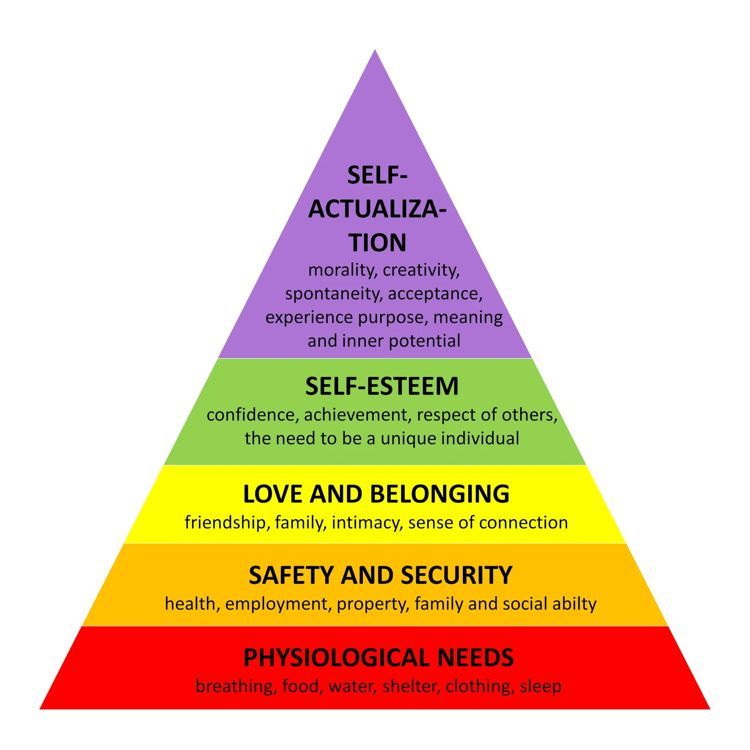

Simplicity isn't always helpful. Maslow's "pyramid of needs" (which never was intended to be a pyramid) greatly oversimplifies human motivational drivers and lacks empirical support.
Moreover, as all the early positive psychologists (see also Rogers, Fromm etc), Maslow's construction willfully ignores the shadow aspects of human behavior that Freudian drives pointed towards, and reifies an individualist ontology (Paul Vitz accurately denounced it as “selfism”).
But maybe most problematically, it has helped to legitimize undue fragmentation of human motivation in management. As Roy Bhaskar once pointed out: we are wrong to assume a "crude dichotomy between basic, bodily (physical) or natural needs such as for food or housing, and higher-order psychological (mental) or spiritual needs such as for respect or self-development. These latter are not the object of a separate set of practices, but are intrinsic to the way so-called basic needs are met."
Especially in HR, it has been convenient to promote toxic concepts like "work-life balance" and trade off the postponement of higher-order needs in favor of "living wages".
Rather than proliferating inaccurate heuristics on social media, it might be time to revisit some fashionable but unhelpful management ideas. As Bhaskar points out: "the social world [... is ...] itself a social product" and cannot "be rationally changed unless correctly interpreted".
#leadership #leadershipdevelopment #positivepsychology
Simplicity isn't always helpful. Maslow's "pyramid of needs" (which never was intended to be a pyramid) greatly oversimplifies human motivational drivers and lacks empirical support.
Moreover, as all the early positive psychologists (see also Rogers, Fromm etc), Maslow's construction willfully ignores the shadow aspects of human behavior that Freudian drives pointed towards, and reifies an individualist ontology (Paul Vitz accurately denounced it as “selfism”).
But maybe most problematically, it has helped to legitimize undue fragmentation of human motivation in management. As Roy Bhaskar once pointed out: we are wrong to assume a "crude dichotomy between basic, bodily (physical) or natural needs such as for food or housing, and higher-order psychological (mental) or spiritual needs such as for respect or self-development. These latter are not the object of a separate set of practices, but are intrinsic to the way so-called basic needs are met."
Especially in HR, it has been convenient to promote toxic concepts like "work-life balance" and trade off the postponement of higher-order needs in favor of "living wages".
Rather than proliferating inaccurate heuristics on social media, it might be time to revisit some fashionable but unhelpful management ideas. As Bhaskar points out: "the social world [... is ...] itself a social product" and cannot "be rationally changed unless correctly interpreted".
#leadership #leadershipdevelopment #positivepsychology
01-05-2023



Aristotle allegedly suggested that making money of money is the profession of parasites.
That might be too dramatic — and I am speaking as a banker — but let us agree that much of banking is a rightfully regulated public service. Therefore, banks must never be single-minded profiteers, but always also act as essential guardians of a well-functioning market infrastructure. Sadly, it seems crazy Dionysus, not wise Apollo is ruling the modern temples of mammon: many bankers these days appear to have lost any commitment to public virtues and the common good, and prefer to practice corporate irresponsibility for the sake of incremental alpha. Unsurprisingly, then, every other year we are sitting here and paying the bills for yet another outrageous financial services scandal. Will it never end? Is there no way to (eventually) get more accountability in Banking?
Well, we have been here before. After the 2008 financial crisis, we all vowed to increase regulation, and — above all — reform the incentive structure in banking. We promised to tie bonuses to long-term value creation, rather than short term speculation — mostly by installing multi-year deferral periods and making it easier to claw bonuses back. And of course: “no one is above the law”, as Joe Biden once again menacingly claimed only last week. Only, we all know that is not true. In fact, whilst governments around the globe have been busily crafting new regulations (many of which were never implemented), hardly any failed banker has gone to jail. As Brooke Masters writes in today’s FT, only “eight years after Wells Fargo’s misbehaviour was made public, US prosecutors brought their first prosecution”. By the way, like in the (in)famous Al Capone trial, Carrie Tolstedt, WF’s former retail banking head, pleaded guilty to a technical mishap — nobody so far has been charged over Wells Fargo’s immoral sales tactics. Hence, if our justice system is unable to deal with (executive) failures in banking, and our upgraded bonus systems are not effective, what else can we do?
I would observe a few things:
- Firstly, regulation is necessary and has certainly made a difference. As Christine Lagarde points out, financial resilience in the Eurozone has significantly improved. And since the Wirecard scandal and many others, national agencies are slowly rising up to the challenges. BTW — the Bank of England apparently warned US watchdogs of increasing risks at SVB already 18 months ago so there was ample time to intervene, had there been the political will to do so.
- Secondly, incentives are problematic at the best of times. Even when well-intended, they seldom further good intentions. Hence, maybe the point is not to make them more sophisticated, but to drop them altogether. As soon as we accept that banks must fulfil the role of a public institution, we simply cannot allow them to be motivated and inspired primarily by financial returns, and instrumentalised by greedy shareholders. In case someone is protesting: let me be clear. It is ridiculous to assume that banks are owned only by their investors - including pension funds, oil-drunk Emirates or private stockholders - when every bank deposit is guaranteed by the State as the lender of last resort, and every banking failure repaired with coffers full of taxpayer’s money. And I am not suggesting to cut bonuses for everybody, but solely for executives. Like Plato’s guardians of the republic, we should reinforce the notion that senior bankers are bureaucrats, responsible to society at large, not car salesmen or reckless entrepreneurs. Let banking be “stunningly boring”.
- Which brings me to the third point. Whatever incentive or regulatory structures we put in place, it is often the wider context and culture that corrupts. It is not enough to make everybody swear a banking oath (as I did when I joined banking), if thereafter the only thing that matters is the budget and ROE. Where toxicity is tolerated, toxicity rules. Hence, we must hold supervisory boards and HR teams accountable for a much more careful selection of executives as well as for the active maintenance of banking “virtues”. We need competent people who have good character — who care about the essence of banking, and are not going to be seduced by big bonuses or addicted to the euphoria of creative finance. And who are willing to stand up for what is good. In that context it is not even funny when Credit Suisse chair Axel Lehmann and CEO Ulrich Koerner wrote emails only hours after the UBS merger to reassure staff that bonuses and raises will go ahead. Or that people like Greg Becker, CEO of SVB, who made 9mn annually in total comp, cashed in 30 millions-worth of shares during the last two years, including a 3.6mn chunk just days before the bank sparked a deposit run and eventually was bailed out by the Federal Deposit Insurance Corporation. Which of course also raises the question of who is sitting on these supervisory boards and what their accountability is: Alex Lehmann & co, it is time for you to go!
#financialservices #money #banking #bankers #banks #management #transformation #leadership #goodorganisations #philosophy
Aristotle allegedly suggested that making money of money is the profession of parasites.
That might be too dramatic — and I am speaking as a banker — but let us agree that much of banking is a rightfully regulated public service. Therefore, banks must never be single-minded profiteers, but always also act as essential guardians of a well-functioning market infrastructure. Sadly, it seems crazy Dionysus, not wise Apollo is ruling the modern temples of mammon: many bankers these days appear to have lost any commitment to public virtues and the common good, and prefer to practice corporate irresponsibility for the sake of incremental alpha. Unsurprisingly, then, every other year we are sitting here and paying the bills for yet another outrageous financial services scandal. Will it never end? Is there no way to (eventually) get more accountability in Banking?
Well, we have been here before. After the 2008 financial crisis, we all vowed to increase regulation, and — above all — reform the incentive structure in banking. We promised to tie bonuses to long-term value creation, rather than short term speculation — mostly by installing multi-year deferral periods and making it easier to claw bonuses back. And of course: “no one is above the law”, as Joe Biden once again menacingly claimed only last week. Only, we all know that is not true. In fact, whilst governments around the globe have been busily crafting new regulations (many of which were never implemented), hardly any failed banker has gone to jail. As Brooke Masters writes in today’s FT, only “eight years after Wells Fargo’s misbehaviour was made public, US prosecutors brought their first prosecution”. By the way, like in the (in)famous Al Capone trial, Carrie Tolstedt, WF’s former retail banking head, pleaded guilty to a technical mishap — nobody so far has been charged over Wells Fargo’s immoral sales tactics. Hence, if our justice system is unable to deal with (executive) failures in banking, and our upgraded bonus systems are not effective, what else can we do?
I would observe a few things:
- Firstly, regulation is necessary and has certainly made a difference. As Christine Lagarde points out, financial resilience in the Eurozone has significantly improved. And since the Wirecard scandal and many others, national agencies are slowly rising up to the challenges. BTW — the Bank of England apparently warned US watchdogs of increasing risks at SVB already 18 months ago so there was ample time to intervene, had there been the political will to do so.
- Secondly, incentives are problematic at the best of times. Even when well-intended, they seldom further good intentions. Hence, maybe the point is not to make them more sophisticated, but to drop them altogether. As soon as we accept that banks must fulfil the role of a public institution, we simply cannot allow them to be motivated and inspired primarily by financial returns, and instrumentalised by greedy shareholders. In case someone is protesting: let me be clear. It is ridiculous to assume that banks are owned only by their investors - including pension funds, oil-drunk Emirates or private stockholders - when every bank deposit is guaranteed by the State as the lender of last resort, and every banking failure repaired with coffers full of taxpayer’s money. And I am not suggesting to cut bonuses for everybody, but solely for executives. Like Plato’s guardians of the republic, we should reinforce the notion that senior bankers are bureaucrats, responsible to society at large, not car salesmen or reckless entrepreneurs. Let banking be “stunningly boring”.
- Which brings me to the third point. Whatever incentive or regulatory structures we put in place, it is often the wider context and culture that corrupts. It is not enough to make everybody swear a banking oath (as I did when I joined banking), if thereafter the only thing that matters is the budget and ROE. Where toxicity is tolerated, toxicity rules. Hence, we must hold supervisory boards and HR teams accountable for a much more careful selection of executives as well as for the active maintenance of banking “virtues”. We need competent people who have good character — who care about the essence of banking, and are not going to be seduced by big bonuses or addicted to the euphoria of creative finance. And who are willing to stand up for what is good. In that context it is not even funny when Credit Suisse chair Axel Lehmann and CEO Ulrich Koerner wrote emails only hours after the UBS merger to reassure staff that bonuses and raises will go ahead. Or that people like Greg Becker, CEO of SVB, who made 9mn annually in total comp, cashed in 30 millions-worth of shares during the last two years, including a 3.6mn chunk just days before the bank sparked a deposit run and eventually was bailed out by the Federal Deposit Insurance Corporation. Which of course also raises the question of who is sitting on these supervisory boards and what their accountability is: Alex Lehmann & co, it is time for you to go!
#financialservices #money #banking #bankers #banks #management #transformation #leadership #goodorganisations #philosophy
06-04-2023



Time For Transformation? Vote COO For CEO!
I know that look. That I-hear-what-you-say-but-you-guys-in-the-engine-room-will-never-really-understand-it look. Personally, I have been there lots of times. I even once had someone in the background asking, not very inconspicuously: “Isn’t this a Sales event? Who invited Operations?”
Of course, with the advent of Agile working and cross-functional teams, we have moved on. Collaboration has improved, gaps in knowledge have been bridged, and relationships restored. But we still often revert to norm when it comes to executive selection. Supervisory boards and HR teams frequently follow the traditional rules of thumb: if times are good, pick your next CEO from Sales. If times are bad, go with Finance. I would suggest we must revisit such simplistic heuristics.
Of course, I am heavily biased. Not only because I have spent a lot of my career in CIO, CTO, COO and transformation domains, but because I strongly believe that in our times of continuous transformation organisational value creation is shifting from the front-end to the back-end. As Dave Ulrich once pointed out, the competitive advantage of modern organisations is based not on individuals, but on organisational competencies. It requires the fruitful combination of processes, systems and people...
MORE: https://lnkd.in/eMbgZ6Hy
#leadershipdevelopment #hrm #transformation #management #business #COO #operations #goodorganisations
Time For Transformation? Vote COO For CEO!
I know that look. That I-hear-what-you-say-but-you-guys-in-the-engine-room-will-never-really-understand-it look. Personally, I have been there lots of times. I even once had someone in the background asking, not very inconspicuously: “Isn’t this a Sales event? Who invited Operations?”
Of course, with the advent of Agile working and cross-functional teams, we have moved on. Collaboration has improved, gaps in knowledge have been bridged, and relationships restored. But we still often revert to norm when it comes to executive selection. Supervisory boards and HR teams frequently follow the traditional rules of thumb: if times are good, pick your next CEO from Sales. If times are bad, go with Finance. I would suggest we must revisit such simplistic heuristics.
Of course, I am heavily biased. Not only because I have spent a lot of my career in CIO, CTO, COO and transformation domains, but because I strongly believe that in our times of continuous transformation organisational value creation is shifting from the front-end to the back-end. As Dave Ulrich once pointed out, the competitive advantage of modern organisations is based not on individuals, but on organisational competencies. It requires the fruitful combination of processes, systems and people...
MORE: https://lnkd.in/eMbgZ6Hy
#leadershipdevelopment #hrm #transformation #management #business #COO #operations #goodorganisations
23-03-2023
The Not-So-Clever Hype of #Hybrid Working
Hip Hip, Hybrid!! Here we are again, back to the seasonal hype about “hybrid” working. Whilst some companies proudly market themselves as WFH-only, and others suffer from ritual outrage when commanding “everybody back to the office”, most claim with studied conviction that some middle way must be the path to worker’s paradise. What is going on?
I joined an exciting session with a wonderful Lynda Gratton this morning to talk about the promises of hybrid working. Or rather, as Lynda points out, about the challenges to redesign work. Because in spite of much enthusiasm, we don’t really know whether and how hybrid working actually works — the available data remains far from clear. What is certain, as Lynda explains, is that managing hybrid work is exceptionally difficult. It needs greater skills of management, high degrees of trust, and intentional work design. That said, it is equally evident that we must revisit how our offices are set up. We have often crafted our work environments simply replicating traditional factory designs, without sufficient understanding of the potential (and the constraints) of time, place and community.
Which brings me to that curious notion of “hybrid”. The concept stems, of course, from the experimental breeding of new species — like mules, for example, which are hybrids of donkeys and horses. More recently, we also use it as a metaphor for technological innovations offering a mixture of characteristics, like hybrid cars, which support both traditional and electric fuel. So here now comes the fashion of hybrid work. But the notion is problematic.
Firstly, because much of its appeal is anchored in a belief in the supremacy of science. The notion of hybridity implies experimentation, Darwin-esque mutations and evolutionary fitness. In other words, hybrid work is supposed to be better, because it was the result of natural evolution under existential pressure, and has been proven to work. People habitually point to the pandemic as the global laboratory of labour that has supposedly certified the successful cross-breeding of office and home working. And, yes, by a stretch of imagination we could indeed envisage consultants and academics rushing around factories and office buildings during covid times — clad in white lab coats, with solemn faces and stopwatches in their hands — busily evaluating all the curious mutations of work. Most certainly, there has been an avalanche of statistics — about productivity, the duration of commutes, work-life balances, employee engagement, and of course office rents and real estate costs — that seems to support claims for hybrid superiority. Yet, as Lynda warns, the data is not conclusive at all. We simply do not know enough to make final judgments about how to best configure our work.
But there is also a second issue...
More: https://leadershipsociety.world/knowledgehub/articles/HybridWorking/
#leadership #management #work #ethics #transformation #goodorganisations
The Not-So-Clever Hype of #Hybrid Working
Hip Hip, Hybrid!! Here we are again, back to the seasonal hype about “hybrid” working. Whilst some companies proudly market themselves as WFH-only, and others suffer from ritual outrage when commanding “everybody back to the office”, most claim with studied conviction that some middle way must be the path to worker’s paradise. What is going on?
I joined an exciting session with a wonderful Lynda Gratton this morning to talk about the promises of hybrid working. Or rather, as Lynda points out, about the challenges to redesign work. Because in spite of much enthusiasm, we don’t really know whether and how hybrid working actually works — the available data remains far from clear. What is certain, as Lynda explains, is that managing hybrid work is exceptionally difficult. It needs greater skills of management, high degrees of trust, and intentional work design. That said, it is equally evident that we must revisit how our offices are set up. We have often crafted our work environments simply replicating traditional factory designs, without sufficient understanding of the potential (and the constraints) of time, place and community.
Which brings me to that curious notion of “hybrid”. The concept stems, of course, from the experimental breeding of new species — like mules, for example, which are hybrids of donkeys and horses. More recently, we also use it as a metaphor for technological innovations offering a mixture of characteristics, like hybrid cars, which support both traditional and electric fuel. So here now comes the fashion of hybrid work. But the notion is problematic.
Firstly, because much of its appeal is anchored in a belief in the supremacy of science. The notion of hybridity implies experimentation, Darwin-esque mutations and evolutionary fitness. In other words, hybrid work is supposed to be better, because it was the result of natural evolution under existential pressure, and has been proven to work. People habitually point to the pandemic as the global laboratory of labour that has supposedly certified the successful cross-breeding of office and home working. And, yes, by a stretch of imagination we could indeed envisage consultants and academics rushing around factories and office buildings during covid times — clad in white lab coats, with solemn faces and stopwatches in their hands — busily evaluating all the curious mutations of work. Most certainly, there has been an avalanche of statistics — about productivity, the duration of commutes, work-life balances, employee engagement, and of course office rents and real estate costs — that seems to support claims for hybrid superiority. Yet, as Lynda warns, the data is not conclusive at all. We simply do not know enough to make final judgments about how to best configure our work.
But there is also a second issue...
More: https://leadershipsociety.world/knowledgehub/articles/HybridWorking/
#leadership #management #work #ethics #transformation #goodorganisations
01-04-2023
IT'S ALL ABOUT THE BALANCE, STUPID!
That’s the golden rule in banking. Managing assets and liabilities carefully is at the base of any sound financial institution. That’s why the old joke about banking was that "it’s as easy as 4-5-6”: giving interest at 4% (on deposits), taking interest at 5% (on loans), and being on the golf course at 6pm...
However, if banks don’t hedge their balance against changes in interest rate fluctuations, both in short term and long term, disaster looms. That seems to have happened to SVB who took in much more deposits from booming Californian startups than their loan book could support - failing to "upsell" it invested excess cash at highest prices into bonds. When interest rates went up and bond prices fell, the balance failed and deposit holders ran for their cash. The questions are: how is it possible that under current regulatory regime such tomfoolery was possible, and, secondly, why the heck should the state once again cover for a singularly reckless business model…
In the meantime, Greg Becker, CEO of Silicon Valley Bank (the hint is in the name, dear regulatory friends!), made $9,922,132 in total compensation.
“Gradually, then suddenly. That is how Silicon Valley Bank (svb), the 16th-largest lender in America, with about $200bn in assets, went bust. Its financial position deteriorated over several years. But just two days elapsed between the San Francisco-based bank’s announcement on March 8th that it was seeking to raise $2.5bn to plug a hole in its balance-sheet, and the declaration by the Federal Deposit Insurance Corporation, which regulates American bank deposits, that svb had failed.”
#banking #transformation #finance #leadership #ECB #SEC #FCA
IT'S ALL ABOUT THE BALANCE, STUPID!
That’s the golden rule in banking. Managing assets and liabilities carefully is at the base of any sound financial institution. That’s why the old joke about banking was that "it’s as easy as 4-5-6”: giving interest at 4% (on deposits), taking interest at 5% (on loans), and being on the golf course at 6pm...
However, if banks don’t hedge their balance against changes in interest rate fluctuations, both in short term and long term, disaster looms. That seems to have happened to SVB who took in much more deposits from booming Californian startups than their loan book could support - failing to "upsell" it invested excess cash at highest prices into bonds. When interest rates went up and bond prices fell, the balance failed and deposit holders ran for their cash. The questions are: how is it possible that under current regulatory regime such tomfoolery was possible, and, secondly, why the heck should the state once again cover for a singularly reckless business model…
In the meantime, Greg Becker, CEO of Silicon Valley Bank (the hint is in the name, dear regulatory friends!), made $9,922,132 in total compensation.
“Gradually, then suddenly. That is how Silicon Valley Bank (svb), the 16th-largest lender in America, with about $200bn in assets, went bust. Its financial position deteriorated over several years. But just two days elapsed between the San Francisco-based bank’s announcement on March 8th that it was seeking to raise $2.5bn to plug a hole in its balance-sheet, and the declaration by the Federal Deposit Insurance Corporation, which regulates American bank deposits, that svb had failed.”
#banking #transformation #finance #leadership #ECB #SEC #FCA
06-04-2023

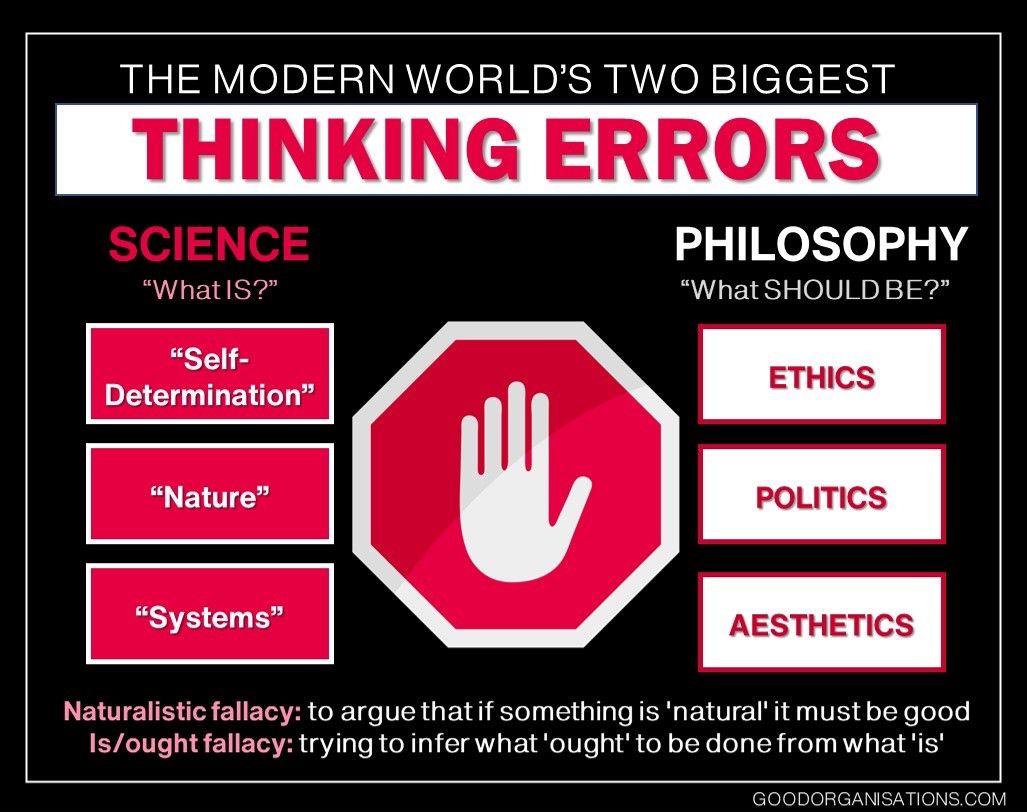

It's not exactly rocket science, but in nearly every conversation, someone tends to overlook the inherent gap between "is" and "should."
"We should emulate nature..." "Be like water..." "Mushrooms..." "Flocks of birds..." "Beehives..." "Ant colonies..." "Forests..." "Ancient people..."
Or
"We should be self-determined to fulfill psychological needs..." "Psychologically safe..." "Fearless..." "Follow your heart..." "Whole..." "In flow..." "Conscious..."
Or
"We should create equilibriums in entangled, entwined, complex, living, cybernetic, dynamic, regenerative, generative systems..." "Adapt..." "Sense..." "Survive..."
And so on...
It's challenging to realize that an "is" doesn't automatically translate into a "should." Science is descriptive, seeking to derive general rules and predictions from past observations. An explanatory hypothesis remains true until proven wrong. However, it can never dictate normative answers - about what ought to happen in the future. Similarly, there is no inherent morality in nature. Nature can't provide answers to organizational or societal questions about values. Regardless of the ideas projected into nature, self-determination, systems, psychology, biology, physics, neuroscience, etc., they are not inherently sufficient to generate normative directions for behavior.
Here lies a crucial truth: leadership demands conscious reasoning, encompassing both metacognitive and emotional capacities, to grasp what our future should look like. It involves discerning alternative options based on our best understanding of truth (where science is critical) and consciously applying value frameworks to judge which course of action is good, just, and beautiful. Additionally, it requires the commitment and capacity to actualize the potential of a situation.
Leadership, therefore, desperately needs more philosophy. The (sad) truth is: any leader who does not muster a basic understanding of (moral) philosophy, must fail.
#personaldevelopment #transformation #teal #philosophy
It's not exactly rocket science, but in nearly every conversation, someone tends to overlook the inherent gap between "is" and "should."
"We should emulate nature..." "Be like water..." "Mushrooms..." "Flocks of birds..." "Beehives..." "Ant colonies..." "Forests..." "Ancient people..."
Or
"We should be self-determined to fulfill psychological needs..." "Psychologically safe..." "Fearless..." "Follow your heart..." "Whole..." "In flow..." "Conscious..."
Or
"We should create equilibriums in entangled, entwined, complex, living, cybernetic, dynamic, regenerative, generative systems..." "Adapt..." "Sense..." "Survive..."
And so on...
It's challenging to realize that an "is" doesn't automatically translate into a "should." Science is descriptive, seeking to derive general rules and predictions from past observations. An explanatory hypothesis remains true until proven wrong. However, it can never dictate normative answers - about what ought to happen in the future. Similarly, there is no inherent morality in nature. Nature can't provide answers to organizational or societal questions about values. Regardless of the ideas projected into nature, self-determination, systems, psychology, biology, physics, neuroscience, etc., they are not inherently sufficient to generate normative directions for behavior.
Here lies a crucial truth: leadership demands conscious reasoning, encompassing both metacognitive and emotional capacities, to grasp what our future should look like. It involves discerning alternative options based on our best understanding of truth (where science is critical) and consciously applying value frameworks to judge which course of action is good, just, and beautiful. Additionally, it requires the commitment and capacity to actualize the potential of a situation.
Leadership, therefore, desperately needs more philosophy. The (sad) truth is: any leader who does not muster a basic understanding of (moral) philosophy, must fail.
#personaldevelopment #transformation #teal #philosophy
05-04-2023

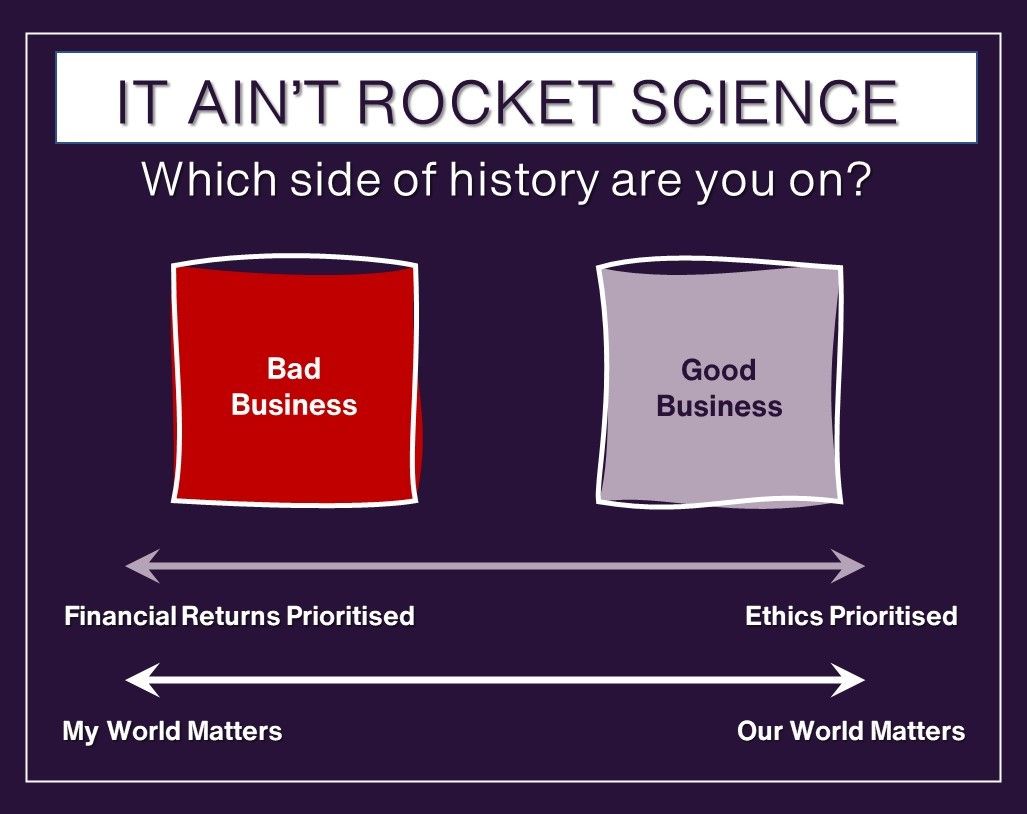

Yep, it is overly simplistic. Sure, we can create a jungle of three-letter acronyms to find out what's really going on (ESG, TBL, SROI, Full Cost Accounting, Net Positive, etc, etc). But sometimes, it is useful to be black-and-white.
Truth is there is no good business without people who want to be good. As long as you keep asking how to be the best IN the world, you won't have a lot of brain time to figure out how to become the best FOR the world. Full stop.
Yep, it is overly simplistic. Sure, we can create a jungle of three-letter acronyms to find out what's really going on (ESG, TBL, SROI, Full Cost Accounting, Net Positive, etc, etc). But sometimes, it is useful to be black-and-white.
Truth is there is no good business without people who want to be good. As long as you keep asking how to be the best IN the world, you won't have a lot of brain time to figure out how to become the best FOR the world. Full stop.
Popular articles in Our Blog
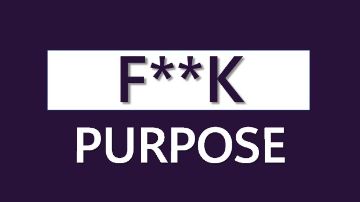
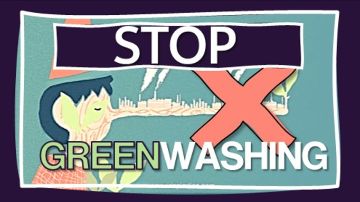

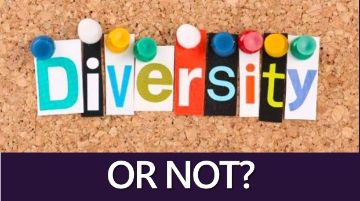
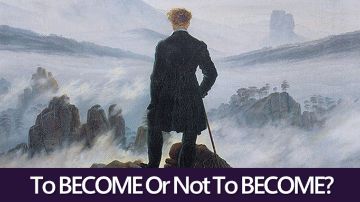
 .
.